Teaching Reflections: Year 2 (2013-2014)
This blog post contains Amazon affiliate links. As an Amazon Associate, I earn a small commission from qualifying purchases.
Like I did with my student teaching reflections and my blog posts from my first year of teaching, I am compiling my more reflective blog posts from my second year of teaching high school math into a single post.
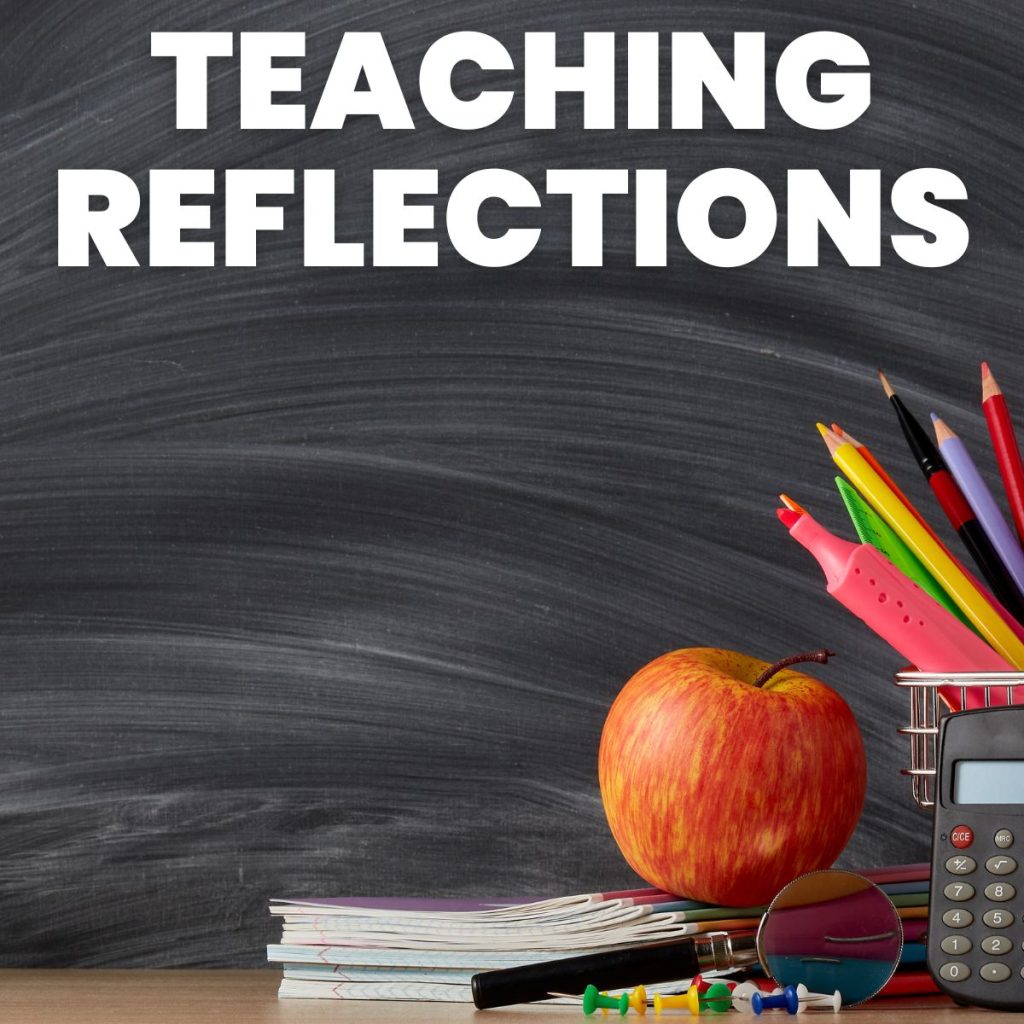
August 7, 2013 – First Day of School Plans 2013
Well, today was my last day of summer. Tomorrow is district inservice. Then, kids come on Thursday! I went to school today to work on my first day of school plans. Last year, I did a ton of planning during the last few weeks of summer. I created a bunch of interactive notebook pages. And, I kinda mapped out the first few weeks for each of my preps. That was last summer. This summer, I don’t know where my motivation has gone. I’ve had plenty of motivation to decorate my classroom, but I’ve lacked motivation to map out my curriculum and work on lesson plans. I think part of my problem is that I got really good at doing things at the last minute during my first year of teaching. But, that is a bad habit that I need to work on breaking. My motto needs to become “Plan Ahead!”
I got to see a lot of students today when they were picking up their enrollment packets at school. It was good to see their smiling faces and hear what they have been up to this summer. One of my Algebra 1 students from last year came up to me to make sure that I was going to be her Algebra 2 teacher this year. I reminded her that I was the only Algebra 2 teacher in the entire school. Her reply was “That’s good ‘cuz I’m only capable of learning math from you.” I know that’s not true because she had another teacher last year for Geometry, and she did just fine. But, it’s always good to hear that students feel like I provide an effective and productive learning environment. Some students and I were talking about if we were ready for school or not, and I mentioned that I still didn’t know what I wanted to do on the first day of Algebra 2. She was shocked. “Why don’t you just do what you did last year? I really liked last year, and I learned a lot.” When I think back to my Algebra 2 class last year, I cringe. At the beginning of the year, I was all over the place because I hadn’t really known what I was getting myself into. This year should be much, much better.
Someone asked me what my plans for the first day of school are. So, here they are. I couldn’t quite make up my mind about what I wanted to do, so I chose a different activity for each of my three preps. This way, I get to do three different things on the first day of school! My goal for the first day of school is to do something mathematical that does not involve going over the rules and my syllabus. (Yeah, maybe I should get around to writing my syllabus…) By the end of the year, my students will know that I take math seriously and that we do math every single day in my classroom. So, I figure the best way to start out the first day is by doing some fun math. Well, all math is fun, but there are certain math activities that my students might consider more fun than others…
Algebra 1 – My Algebra 1 students will be starting out the year by playing 31-derful. I had never heard of this game until someone mentioned it a few weeks ago on twitter. The object of the game is to take any 25 cards from a deck of cards and arrange them in a five by five array so that the sum of each column and each row is 31. I like this activity for multiple reasons. Number one – the students have to work in a group to complete the task. Every action done by an individual impacts the work of all the other students in the group. Good communication will be a must. Students will need to employ problem solving strategies. This will be a nice review of basic addition. And, I just really adore logic puzzles.
Algebra 2 – This summer, I attended a Pre-AP Math Workshop in Tulsa that was hosted by the Oklahoma State Department of Education. My school does not have a Pre-AP or AP program, but I still figured that it would be a great source of resources. One of the first activities we worked through was Five Easy Pieces by the Exeter Math Academy. This activity will be a good review of very basic Algebra 1 for my Algebra 2 students. The activity emphasizes following directions. If students do not correctly build their five easy pieces, they will find the rest of the activity difficult, if not impossible. It also review fractions, variables, writing basic equations, and solving systems by substitution. The activity ends with some more fabulous logic puzzles.
Statistics – So, I learned today that my roster for my stats class only has four students. I’ve got my fingers crossed that I might gain a few more students. This morning, @druinok pointed me toward the Kristen Gilbert case as a possible Day 1 Activity for Stats. She e-mailed me an article to read, and I think this will be the perfect introduction to stats! I made a Smart Notebook Presentation that reviews the case. I’m hoping to engage my students in a good, thought-provoking discussion. I will let them analyze the data for themselves and decide for themselves whether they think the decision of the jury was correct. As a way to begin to incorporate more writing into my courses, I believe I will have the students write an explanation of whether they agree or disagree with the verdict and why.
August 14, 2013 – Second Year: Day One
So, today was the fourth day of school. And, I still haven’t even blogged about the first day. Or the second. Or the third. Or today. How can I already be so behind on blogging this early in the school year? This is not a good sign, people.
I do believe that day one of year two was a success! Last year, I was a stressed-out mess on the first day of school. I had no clue what I was actually going to say when I stood up in front of my students for the first time. I had student taught, but my cooperating teacher had always been the one to introduce me and ease me into things. I was completely on my own, and that was a terrifying thought.
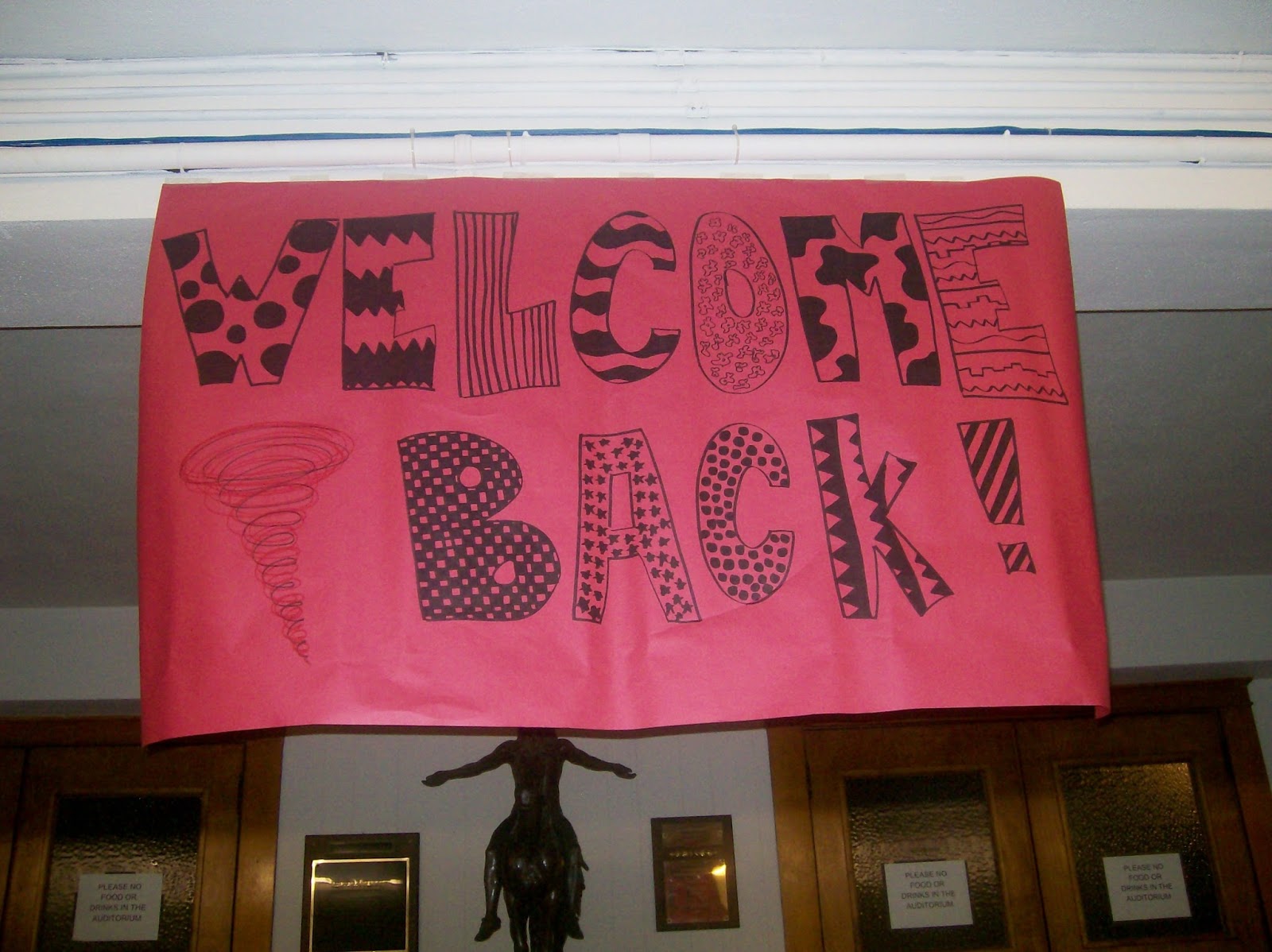
This morning, I tried to remember what I said to my students last year on the first day. I don’t remember exactly what I said, but I do remember that I did a lot of talking. Then, I had students change their schedules, move in, etc., and I ended up saying all that stuff over and over again for the next few days.
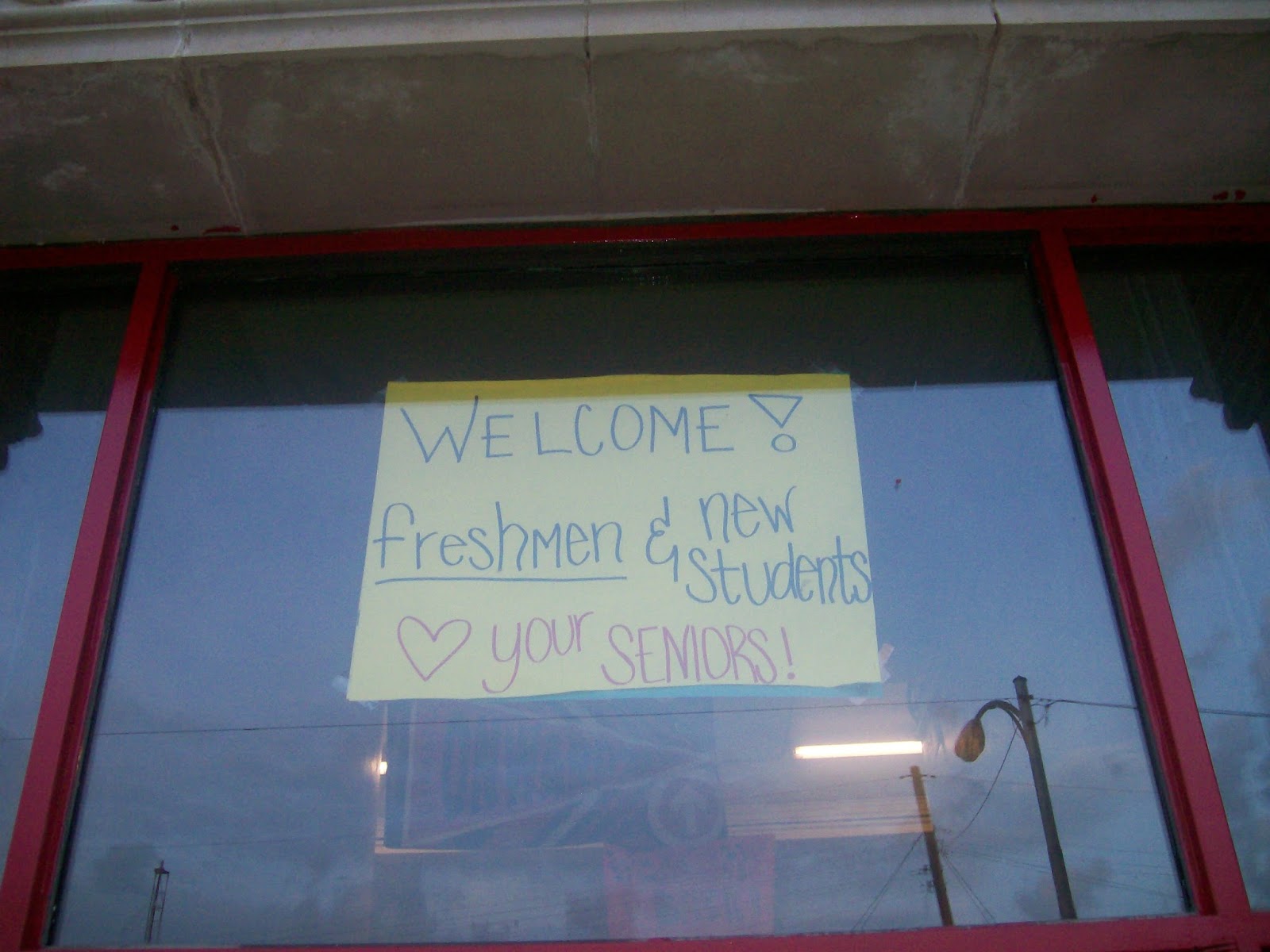
This year, I wanted to do something different. Instead of spending the first period talking, I wanted to get my students engaged in doing something mathematical. When my students look back over their first day of school, I want my class to stick out in their memories. Yes, the students who already knew me or knew of me gave me grief today for making them do work because “nobody else is making us do work today.” I just smiled and gave them the “Seriously? Don’t you know by now that you’re going to do math every single day in Ms. Hagan’s class?” look.
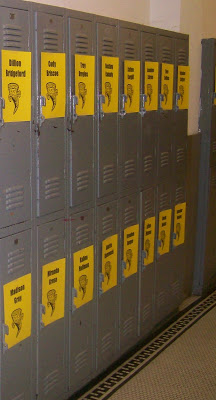
When the superintendent hired me, he advised me to not smile until Christmas. That is definitely not my style. I’ve earned the reputation of being the fun math teacher who makes her students do a lot of work. And, it’s true. We do have a lot of fun. Lots of laughter occurs inside the four walls of my classroom. We tell jokes. We play games. Students give me a hard time, and I give them a hard time in return. At the same time, my class is very serious when it comes to math.
This year, I am emphasizing problem solving strategies and cooperative learning in my classroom. So, I chose activities for my classes to participate in that would require or encourage them to work in a group.
This summer, I went to a Pre-AP Mathematics workshop. During the first day of that workshop, I had the opportunity to work through Five Easy Pieces which was designed by the Exeter Math Academy. I fell in love with the activity because it involves three of my favorite things–paper folding, algebra, and logic puzzles!
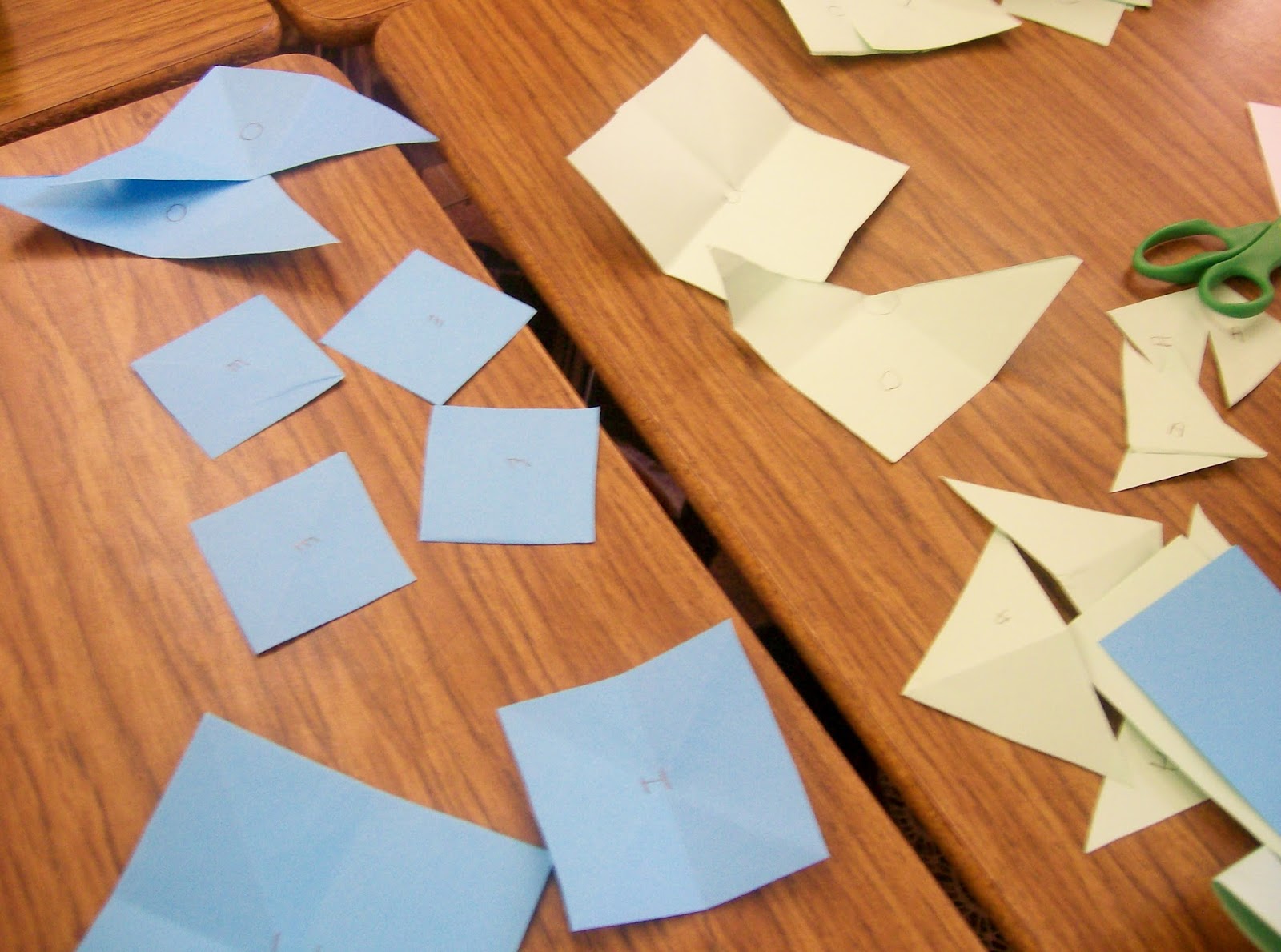
Since this activity requires students to manipulate variables and write equations, I decided it would be a perfect basic algebra review for my Algebra 2 students. I met my students at the door with a stack of colored paper. Each student chose a color of paper and entered the room to find a welcome sign on the Smart board that instructed them to sit wherever they chose.
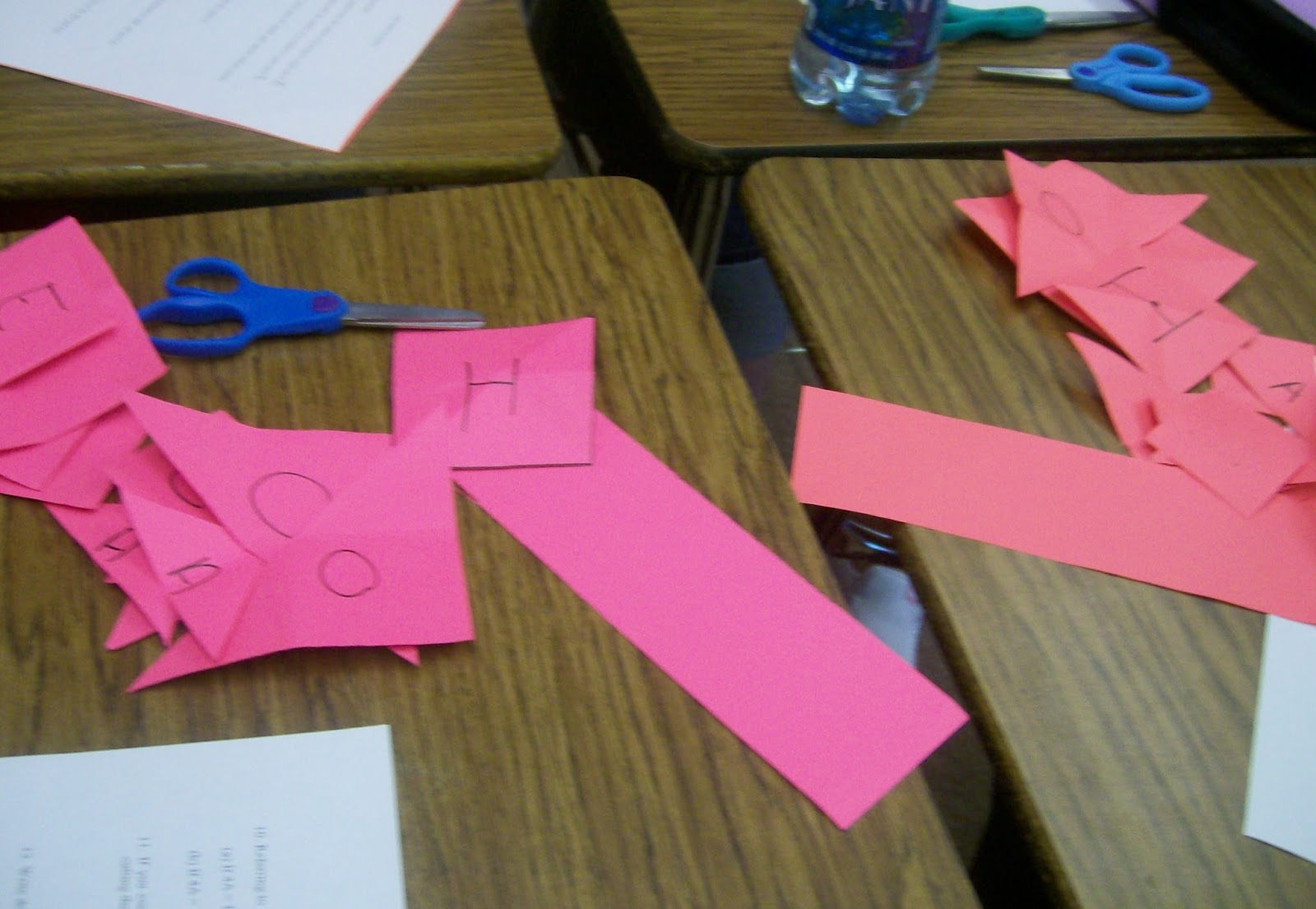
After the bell rang to start class, I passed out the instructions to Five Easy Pieces without any explanation or guidance. (Well, I did have to tell them where the scissors were…) There were groans and complaints. That didn’t really surprise me, though.
One thing I learned from this activity is that my Algebra 2 group this year is made up of students of varying abilities. Last year, I had 12 Algebra 2 students. This year, I have almost 40. More students are taking Algebra 2, and that is a very good thing! Many of my students have a very weak Algebra 1 foundation, but I think that with a lot of hard work, they will be able to be successful.
Some groups finished the entire activity in twenty-five minutes. Other groups struggled to get the pieces cut out and table of equations written in fifty minutes. Some groups were willing to try the logic puzzles. Others gave up as soon as they saw the logic puzzles. I’m thankful for the insight provided by this activity, and I think it’s definitely a keeper!
With my Algebra 1 kiddos, we played the game 31-derful. One thing I’m going to definitely have to work on with my Algebra 1 students is listening and following directions. When I explained the rules to the game (which was made much easier with Sarah Rubin’s great graphics!) many of my students did not listen well or stopped listening after they thought they knew how the game went. As a result, many of my students thought that only the rows had to add up to 31. They were a little made after discovering that they weren’t actually done with the puzzle because their columns did not add up to 31 as well.
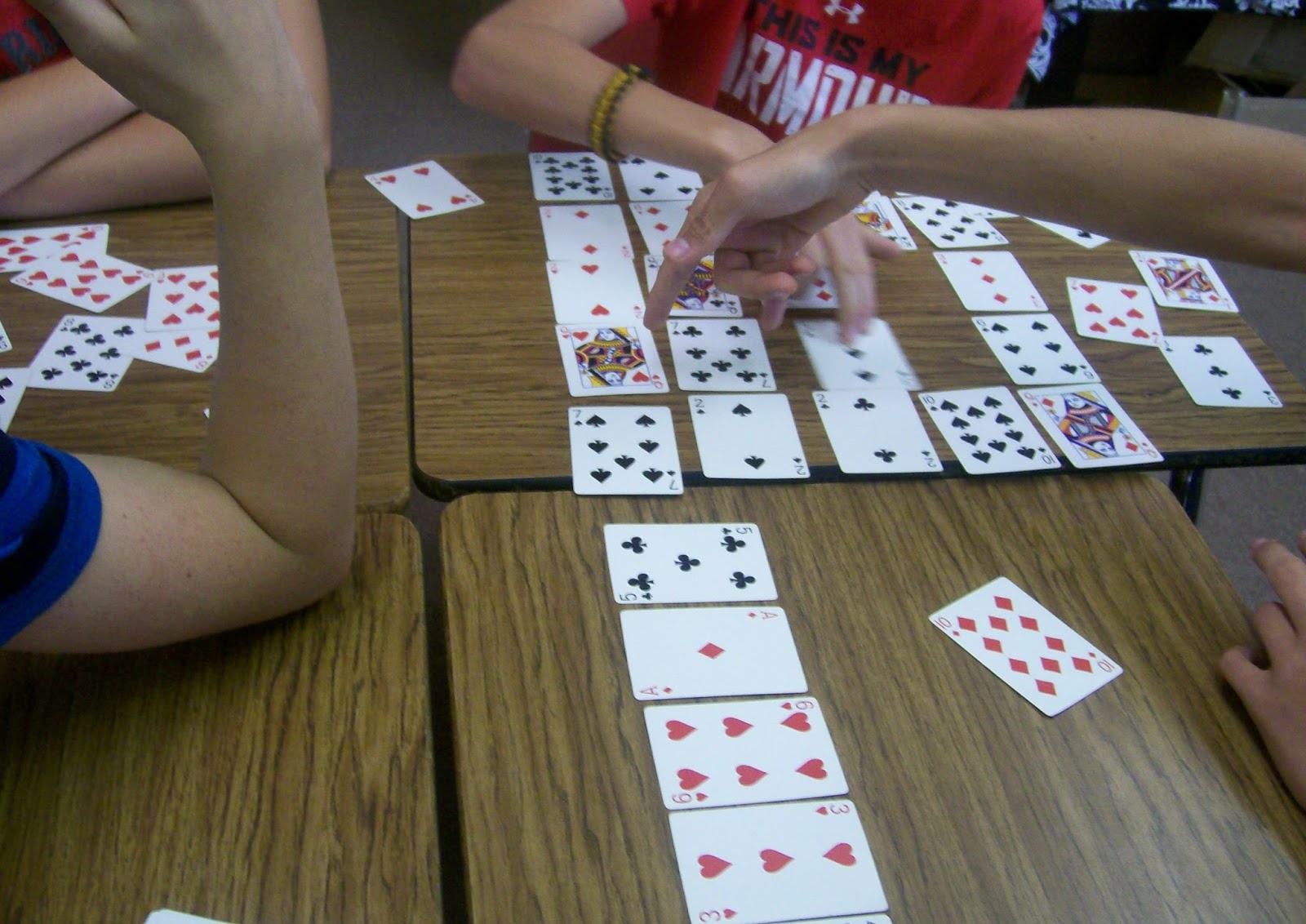
I was disappointed with how my students did with this activity. In my three Algebra 1 classes, only one group of students was able to successfully complete the puzzle. A lot of my students decided that this puzzle was impossible. They were quick to grow frustrated and give up. We’re definitely going to have to work on persevering in problem solving this year!
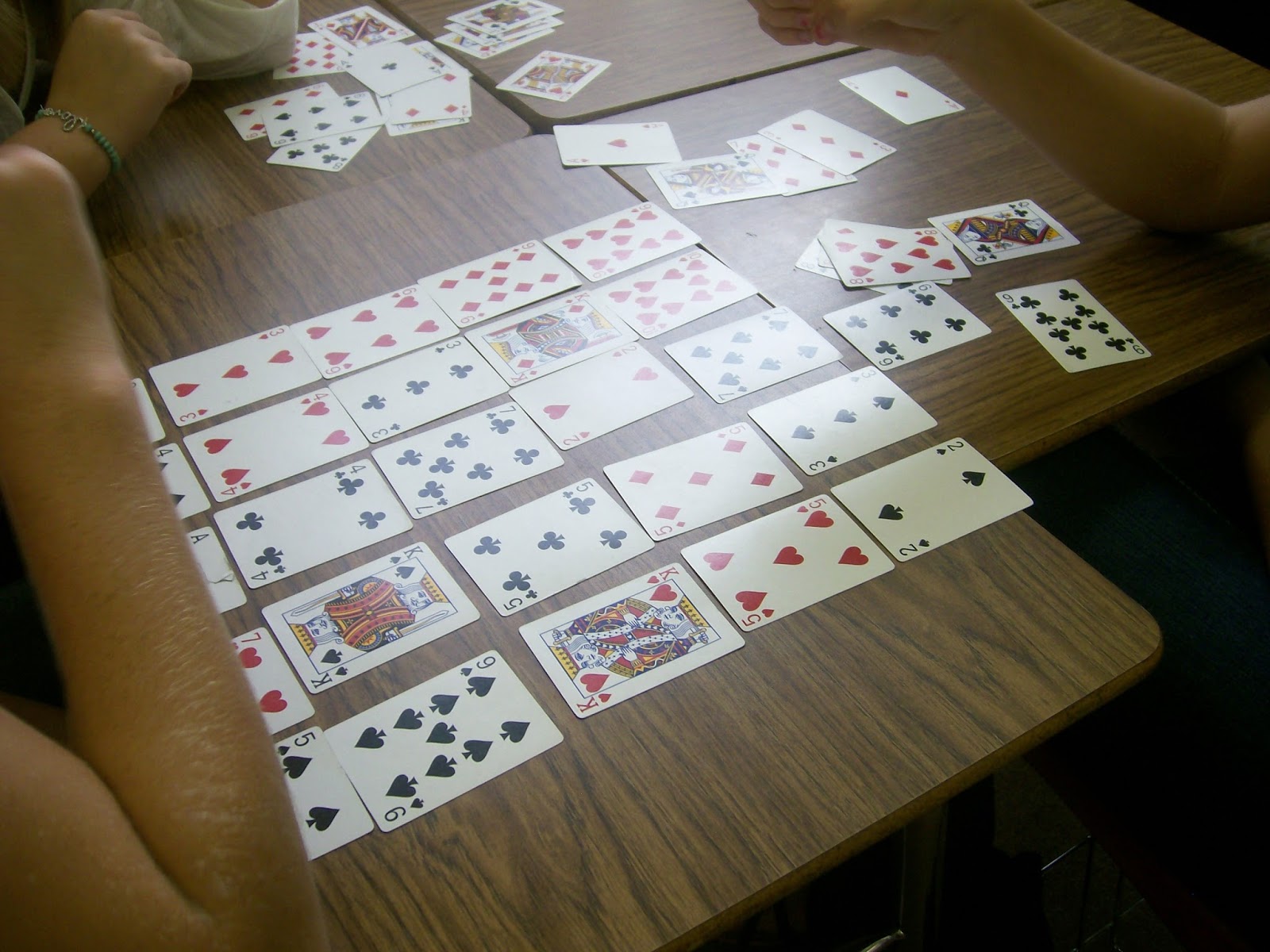
I did learn a very important lesson on this first day of school. They make special decks of cards to play pinochle. If you unintentionally give a group of students a deck of pinochle cards to play 31-derful with, they will get extremely frustrated. You will wonder why they are only using 9s, 10s, Jacks, Queens, Kings, and Aces to build their array of cards. They will be wondering why those are they only cards you gave them. Eventually, you will look at the box of cards and see that it is a pinochle deck. You will google pinochle and learn that a pinochle deck consists of eight each of the above cards.
August 18, 2013 – DIY Domino Pencil Holder
Today I want to share my new classroom creation – a diy domino pencil holder.
I teach in a small, rural school with a very high percentage of low-income students. The local businesses in town go together to purchase all of the school supplies for the students in elementary school and middle school. Thus, many of our high school students have never had to buy school supplies before.
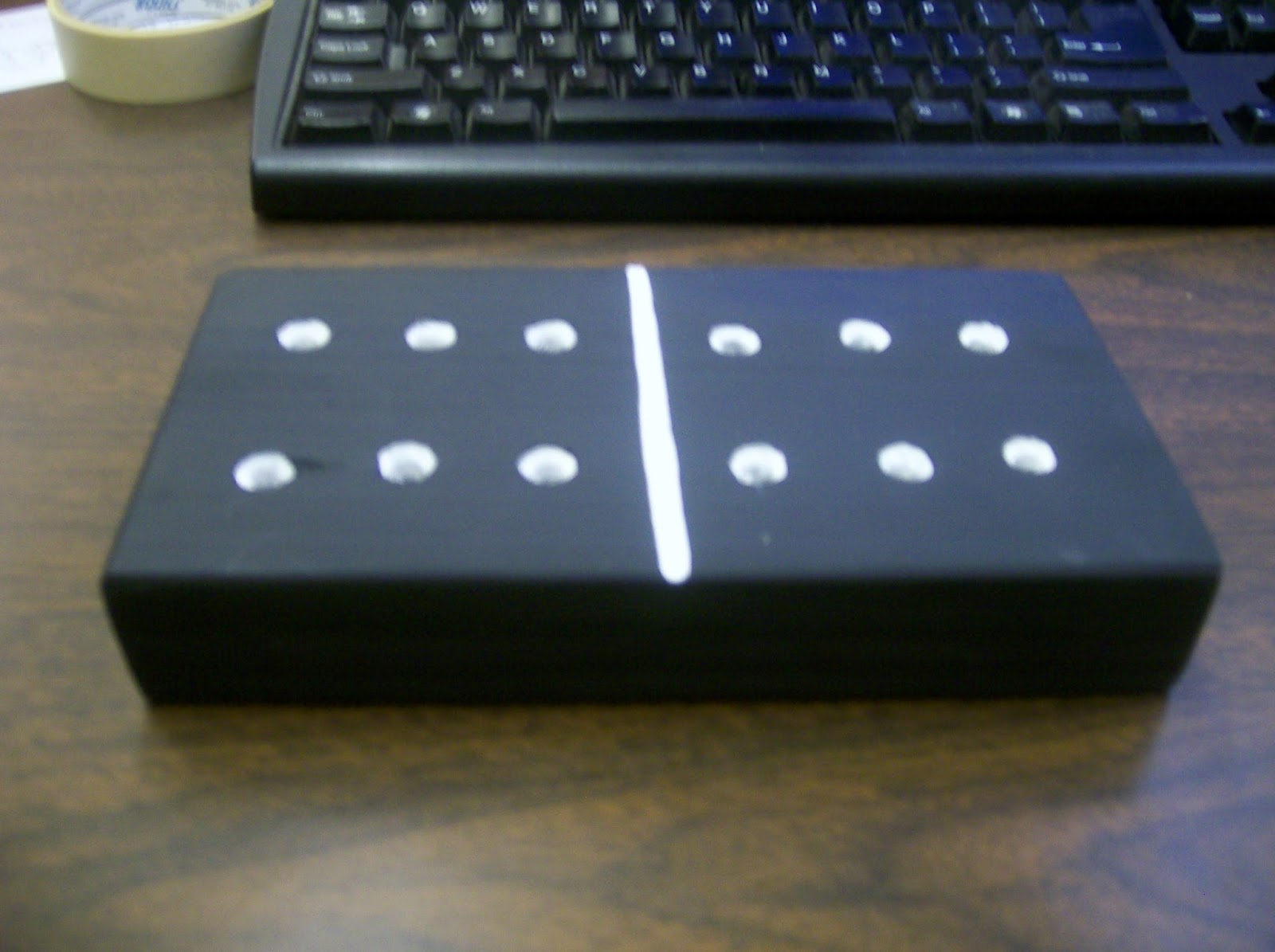
Last year, I had a major problem with students not bringing a pencil or pen to class to write with. So, I had a cup of pencils on my desk that students could borrow a pencil from. It worked great except for the fact that the pencils never seemed to make it back to the cup. I was continually having to refill the cup with pencils. The school did provide these pencils, but it was a huge hassle.
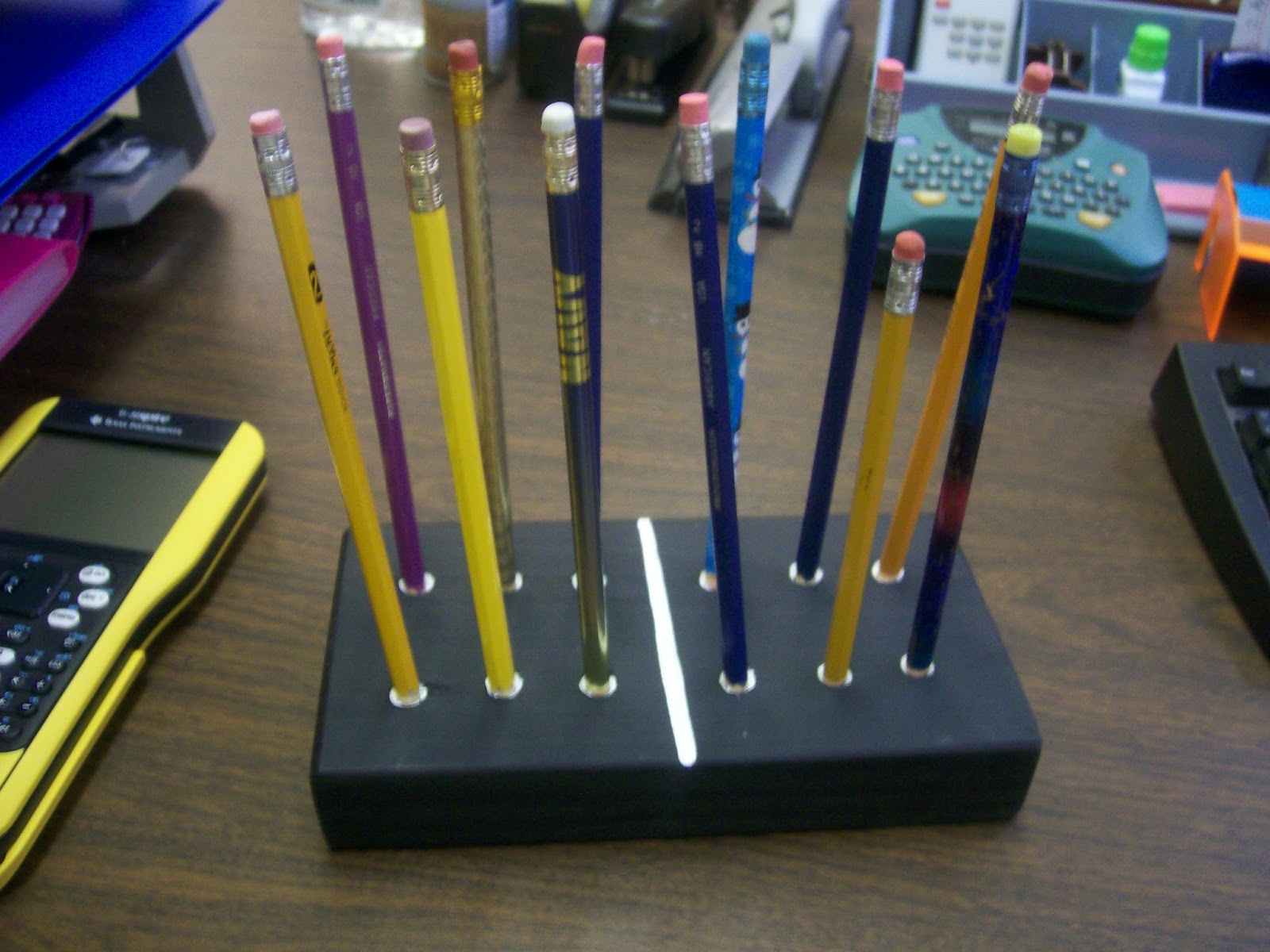
This summer, I decided there had to be a better way. Via pinterest, I saw an idea where you take a block of wood and drill holes in it to hold pencils. Since each hole should have a pencil in it, you can easily tell if all of your pencils have been returned.
My parents are definitely the do-it-yourself type. So, they have tons of tools and building supplies. I told my parents what I wanted to do and asked them if they had a piece of wood that I could have. Then, I figured I would just borrow the drill, ask my Dad to show me how to drill a hole in the wood, and complete the project in a matter of minutes.
That’s not quite how it worked. First, I was told that I would want to use a drill press to drill the holes instead of a cordless drill because that would ensure that the holes were the same depth. Then, my Mom decided to take things a step further and make it more creative. She said I should paint the wooden block to look like something. Now, I have ZERO artistic talent. My sister, on the other hand, is studying to be an art teacher So, she got roped into this project as well.
I can tell that my love and obsession with math is definitely rubbing off on my mom. Her first idea is: “Wouldn’t it be cool if the digits of pi were painted around the edge of the block?” We agreed that, yes, that would be cool. But, what color should we paint the block? The color black was decided upon. But, soon, we realize that if we paint the block of wood black it will look like a domino! So, why can’t we just make a domino pencil holder instead? So, the digits of pi were abandoned for a beautiful double-six domino pencil holder.
Actually, I’m not quite sure if I can take any credit whatsoever for this project. My mom got out the t-square and ruler to square the wood and mark where the holes should go for the pencils. My dad used the drill press to drill the holes. And, he also spray painted it black. I’ve spray painted one thing in my life, and it was an absolute disaster… Finally, my sister painted the white dots on the domino. So, I guess I’m more of an idea person. And, the rest of my family takes my ideas, makes them better, and actually executes them.
So, this has been setting on my desk all week, and I absolutely love it. I was originally planning on putting small pieces of duct tape on each pencil to mark that it was my property, but the borrowed pencils have been making their way back to the domino without them. I think there’s just something about the fact that the students know that I know that there are supposed to be twelve pencils in the domino. So, if they take one out, they return it. Of course, we are only 7 days into the school year. This is probably still the honeymoon phase… But, I’m feeling much better about the pencil situation this year!
And weirdly, I’ve been gaining pencils this year. It seems like everyday, I find at least one pencil that someone has left behind…
August 25, 2013 – Thankful
The school year is off to a pretty good start! I have yet to win over my current students. They just don’t quite know what to think of me yet. A good number of them are currently in the stage of “I hate math. I hate this class. I hate you.” Okay, maybe they don’t hate me, but it certainly feels like it some days. Once we have our first test, I’m hoping that my students will start to see themselves as capable when it comes to mathematics.
Friday morning, one of my Algebra 1 students gave me this problem to solve. They decided that since I gave them problems to solve everyday, I needed to be given a problem to solve. I read it and smiled, but I didn’t write anything.
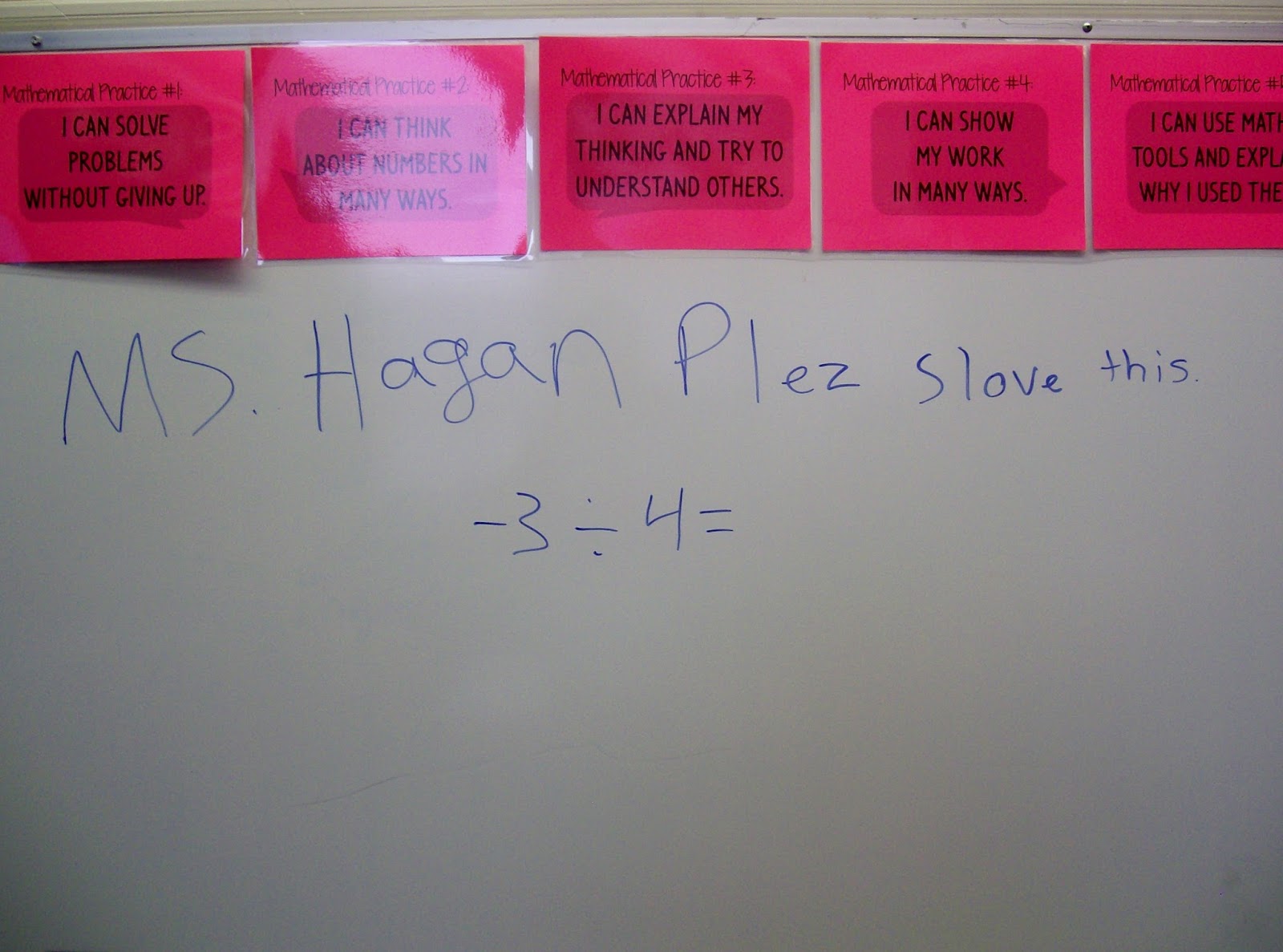
I am so blessed to have students from last year drop by my classroom on a daily basis. Some of them come in for help with their math homework. But, most of them come in to just chat. I ask them how their life is going. We talk about their hobbies or extracurricular activities. They question me about why I’m changing the way I do some things in my classroom. Why do you sing to your students this year, but you didn’t sing to us last year? Why do you have “Super Star Students” this year, but you didn’t have them last year? These conversations remind me why I chose to stay in this school district. These students need me. I’m making a difference here.
The next hour, I come into my classroom after the bell rings to find this addition.
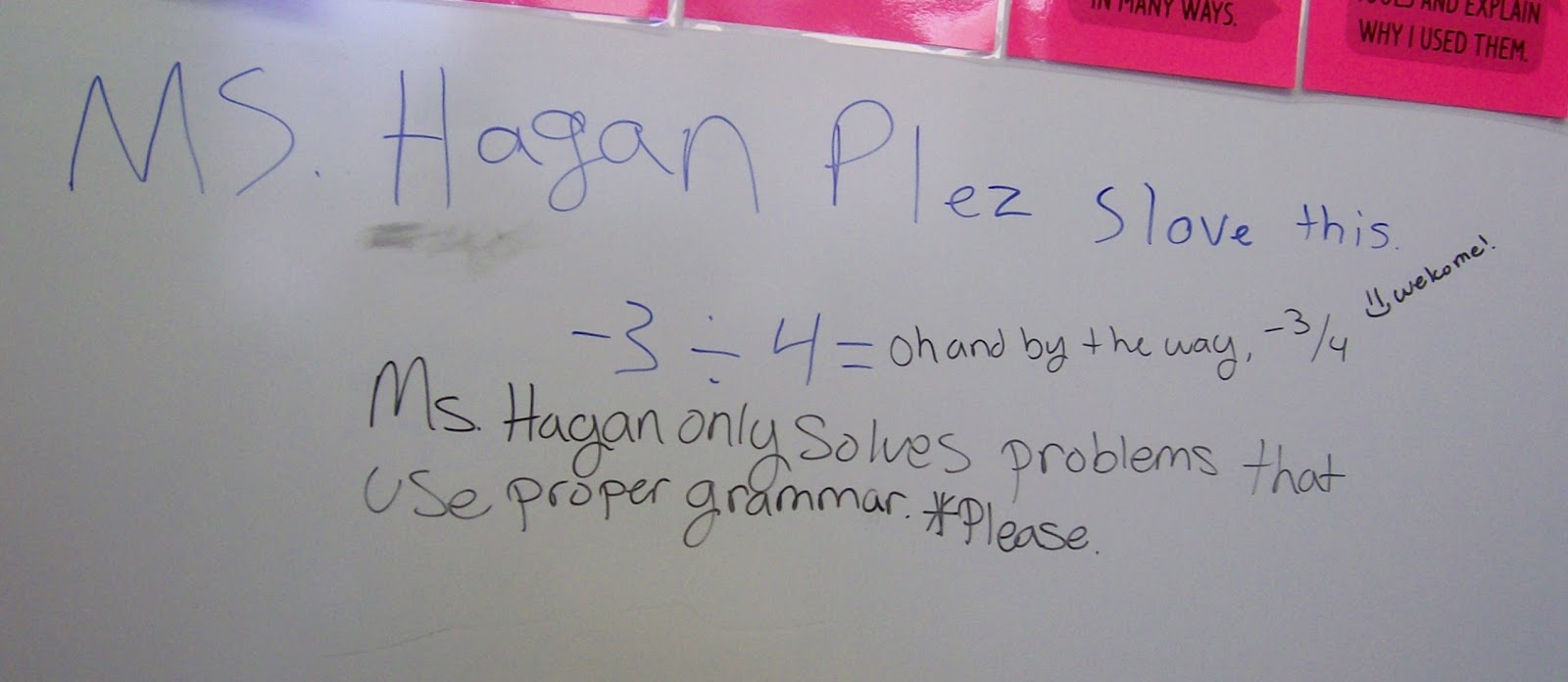
And, before long, my current group of students will come around, too.
August 28, 2013 – Algebra 1 Student-Made Foldables and Interactive Notebook Pages
I know that I am continually inspired by foldables and other creative creations I see online. Today I want to share some foldables created by my Algebra 1 students last year for their semester project that we did in lieu of a semester test.
It is my hope that one of these might serve useful as inspiration to you. Remember – these were created by students. Make sure you check these very carefully for errors before using with students!
I’ve been keeping my students super busy with their interactive notebooks. So far, my Algebra 2 students are loving the interactive notebooks. My Algebra 1 students HATE them. I still think they’ll come around eventually…
Finding Slope from 2 Points INB Page
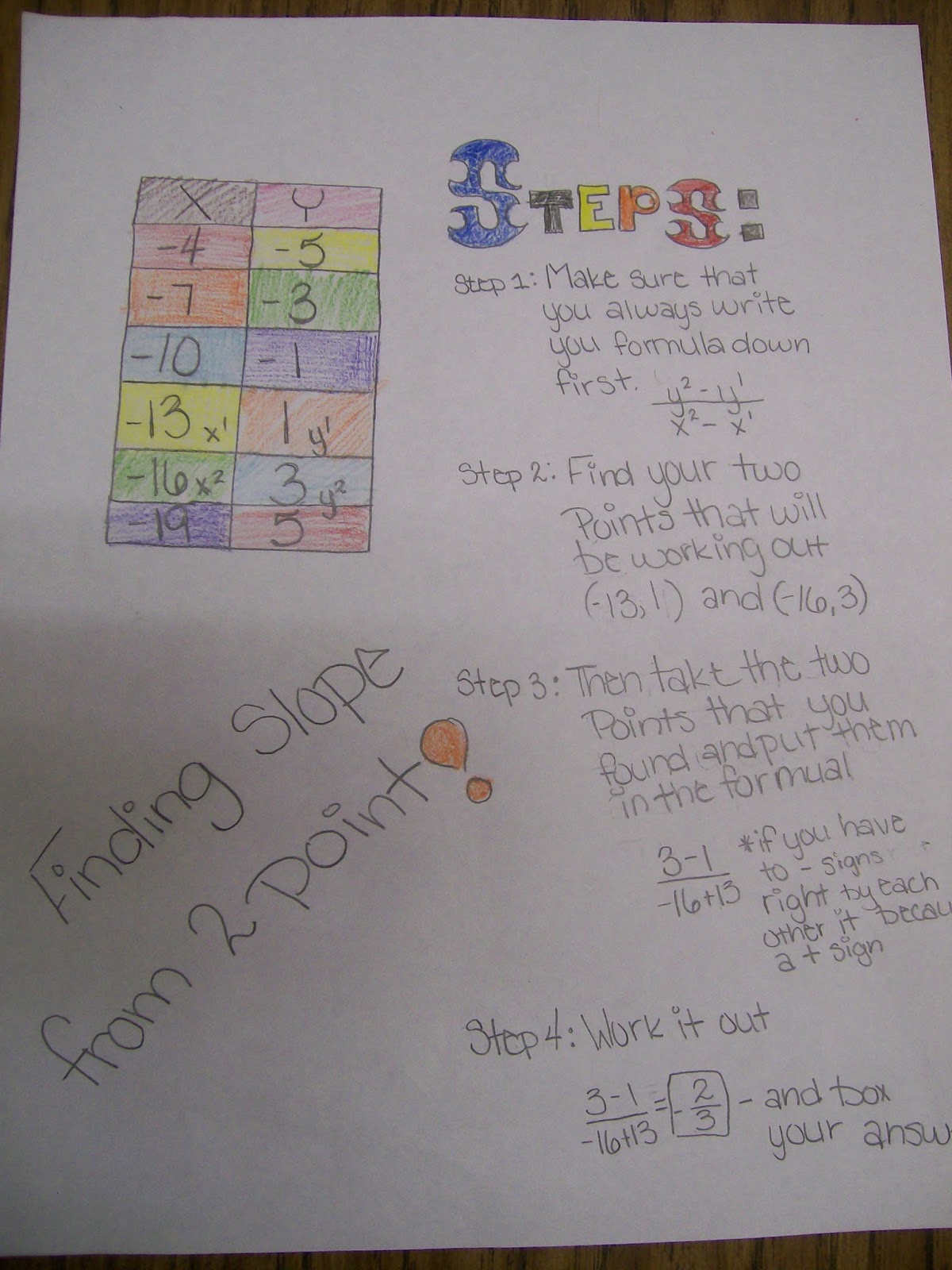
Airplane Method for Factoring Quadratics INB Page
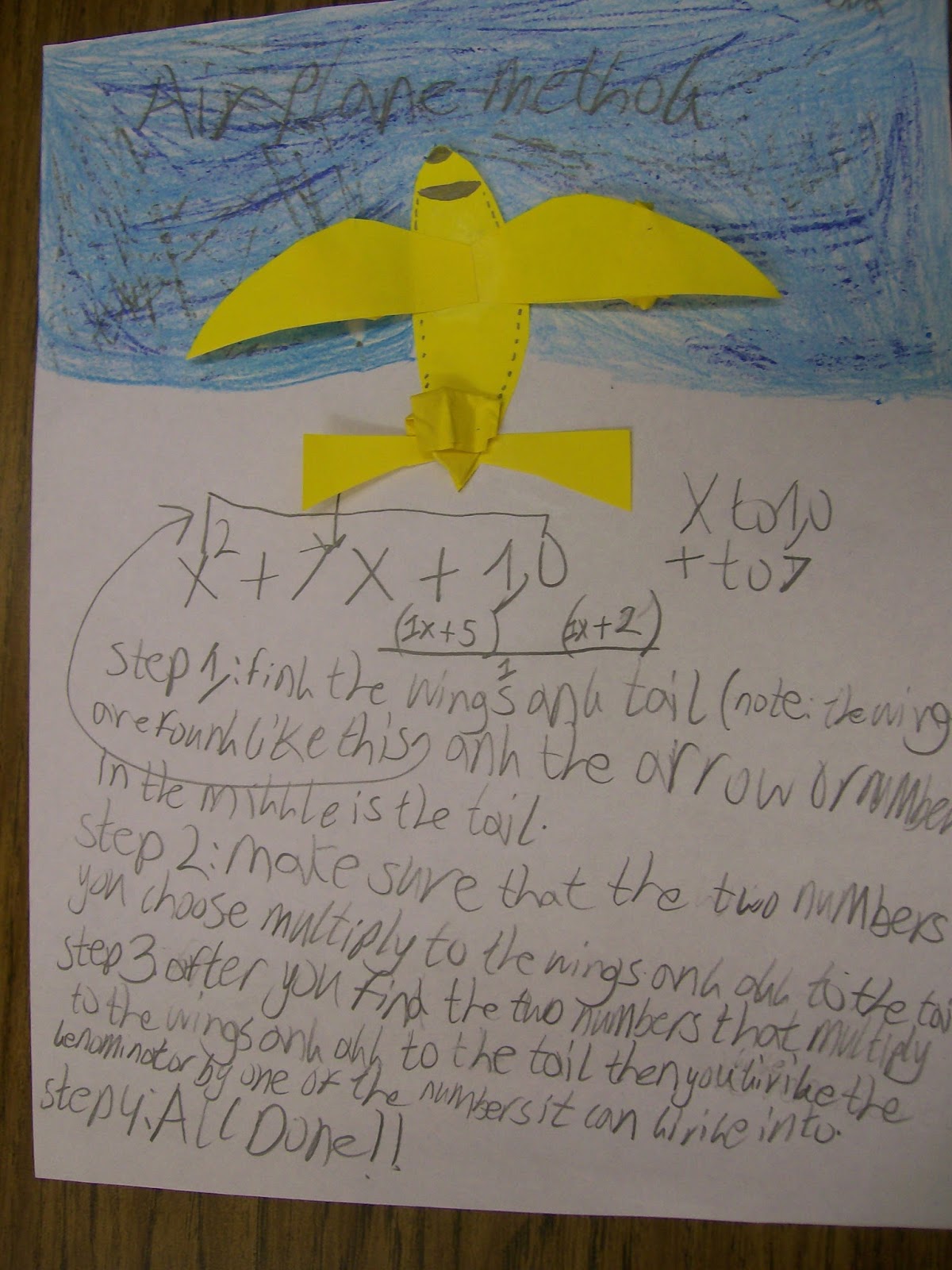
Four Types of Slope INB Page
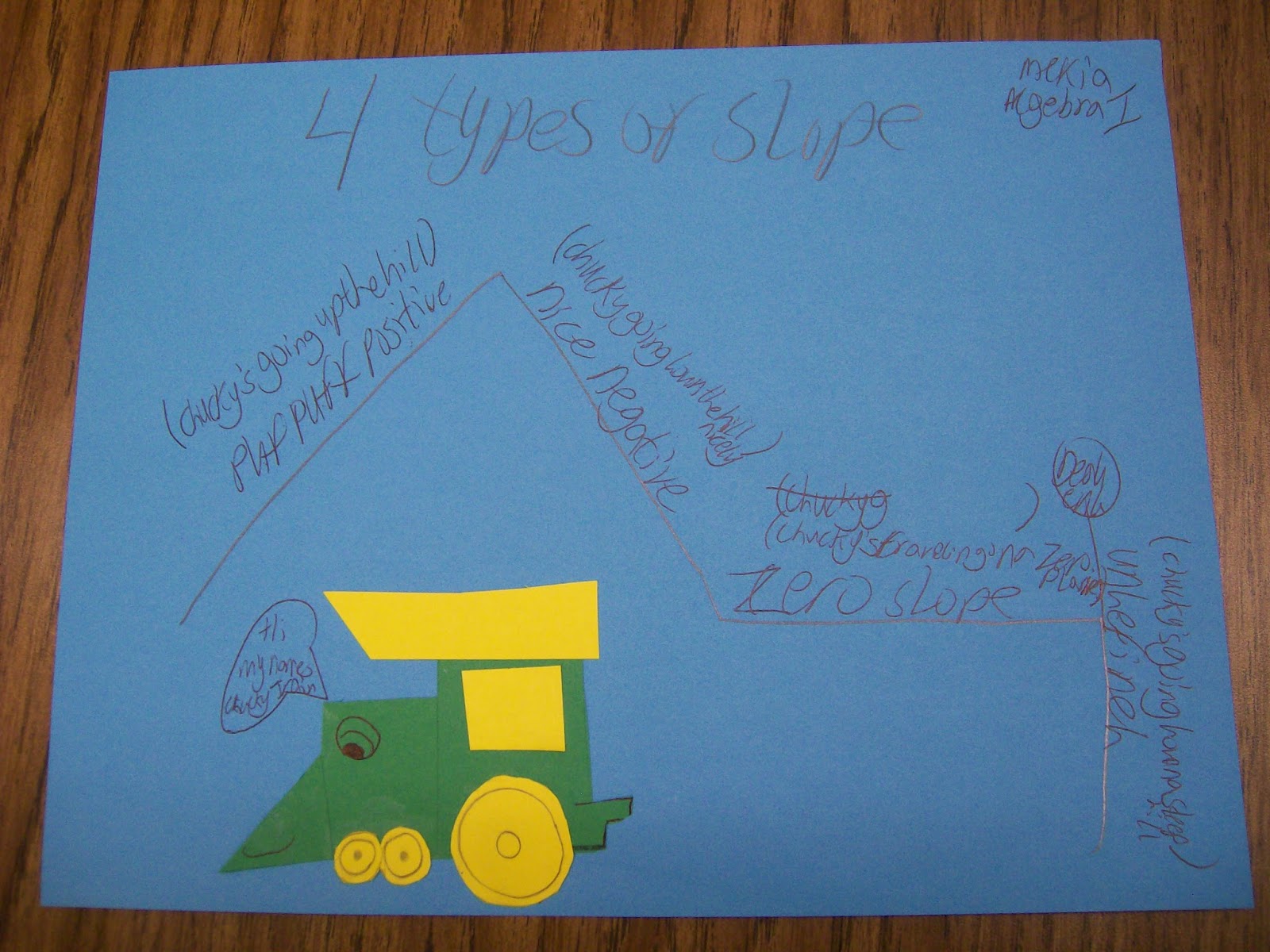
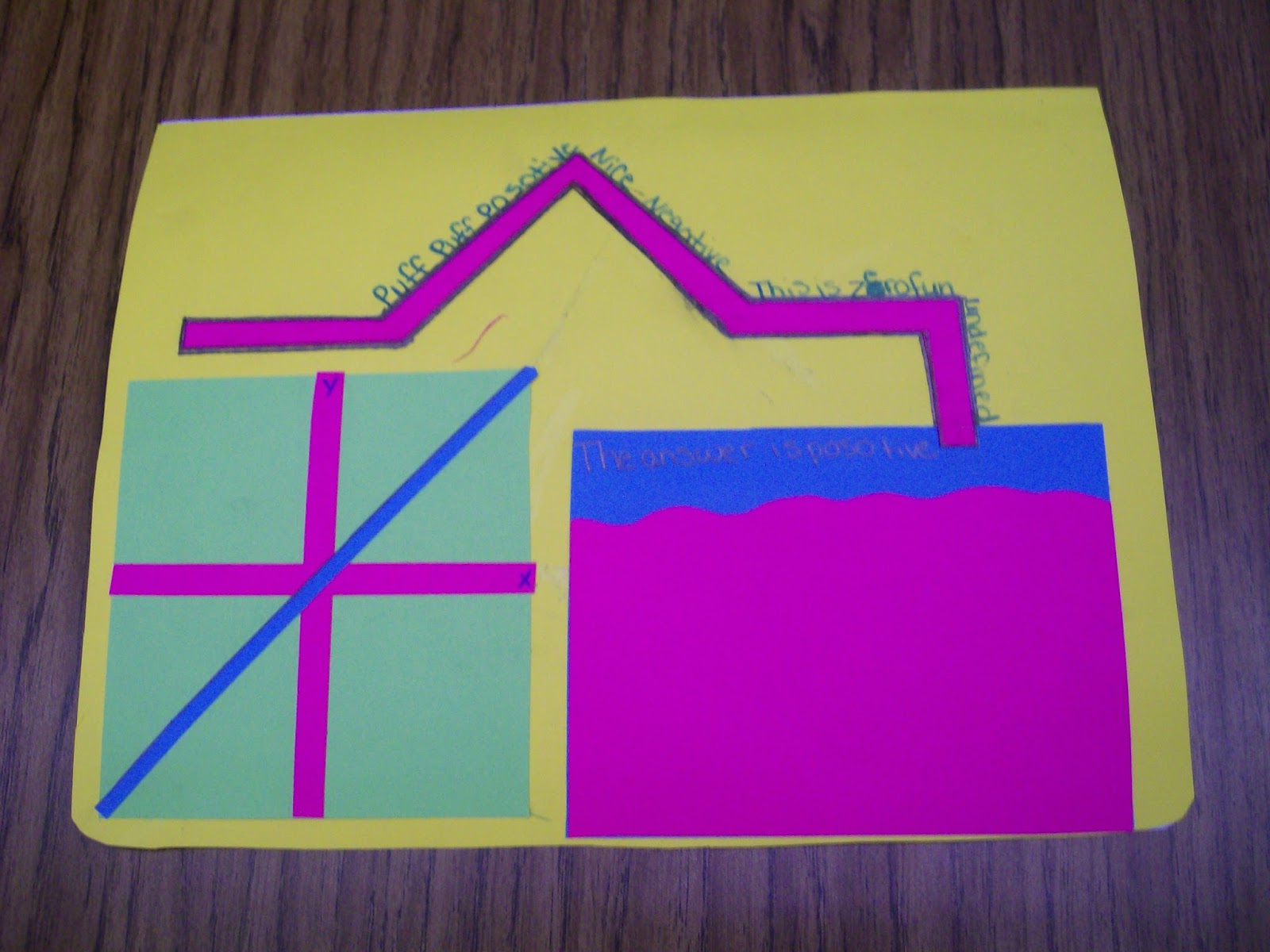
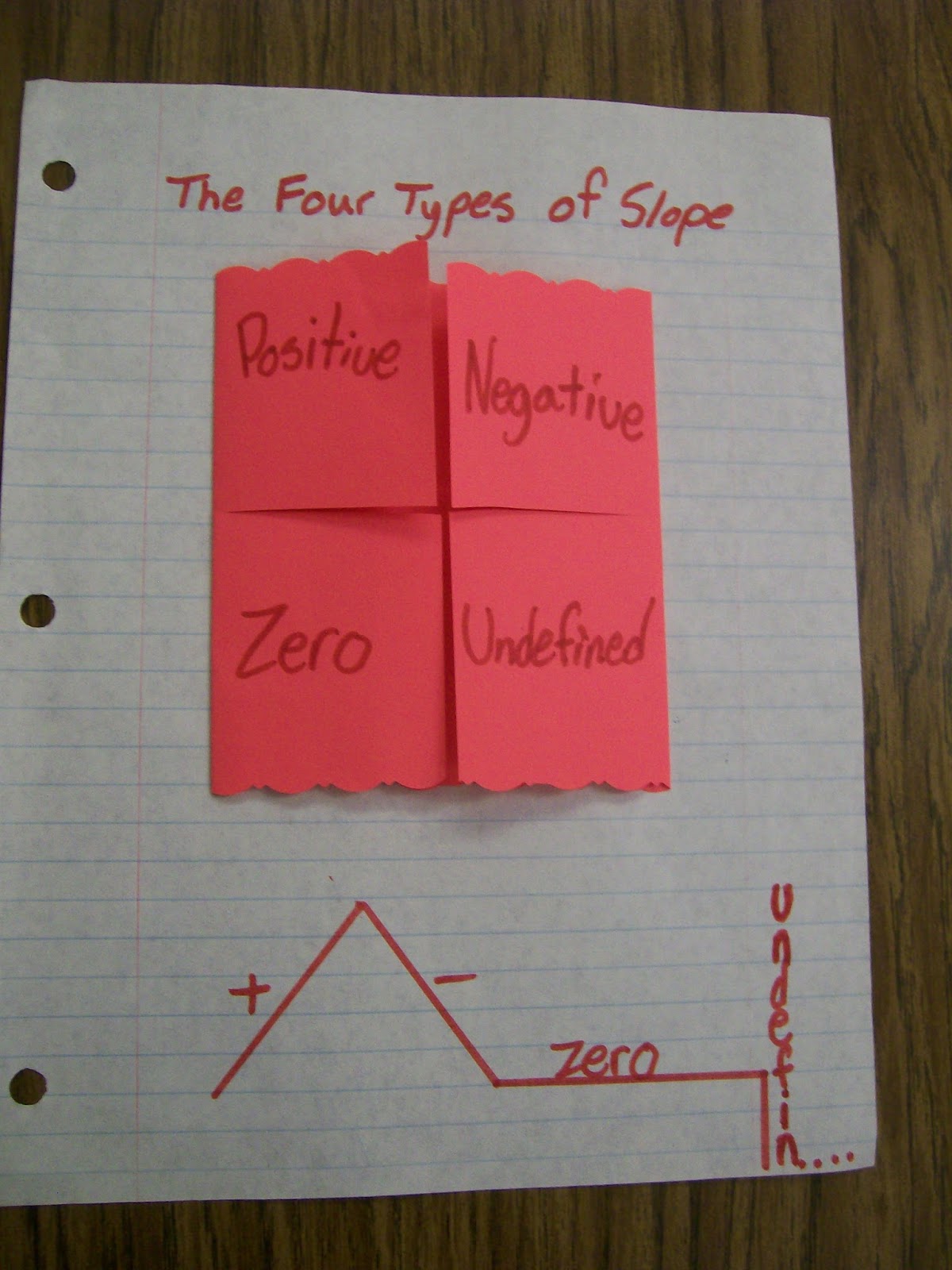
Domain and Range INB Page
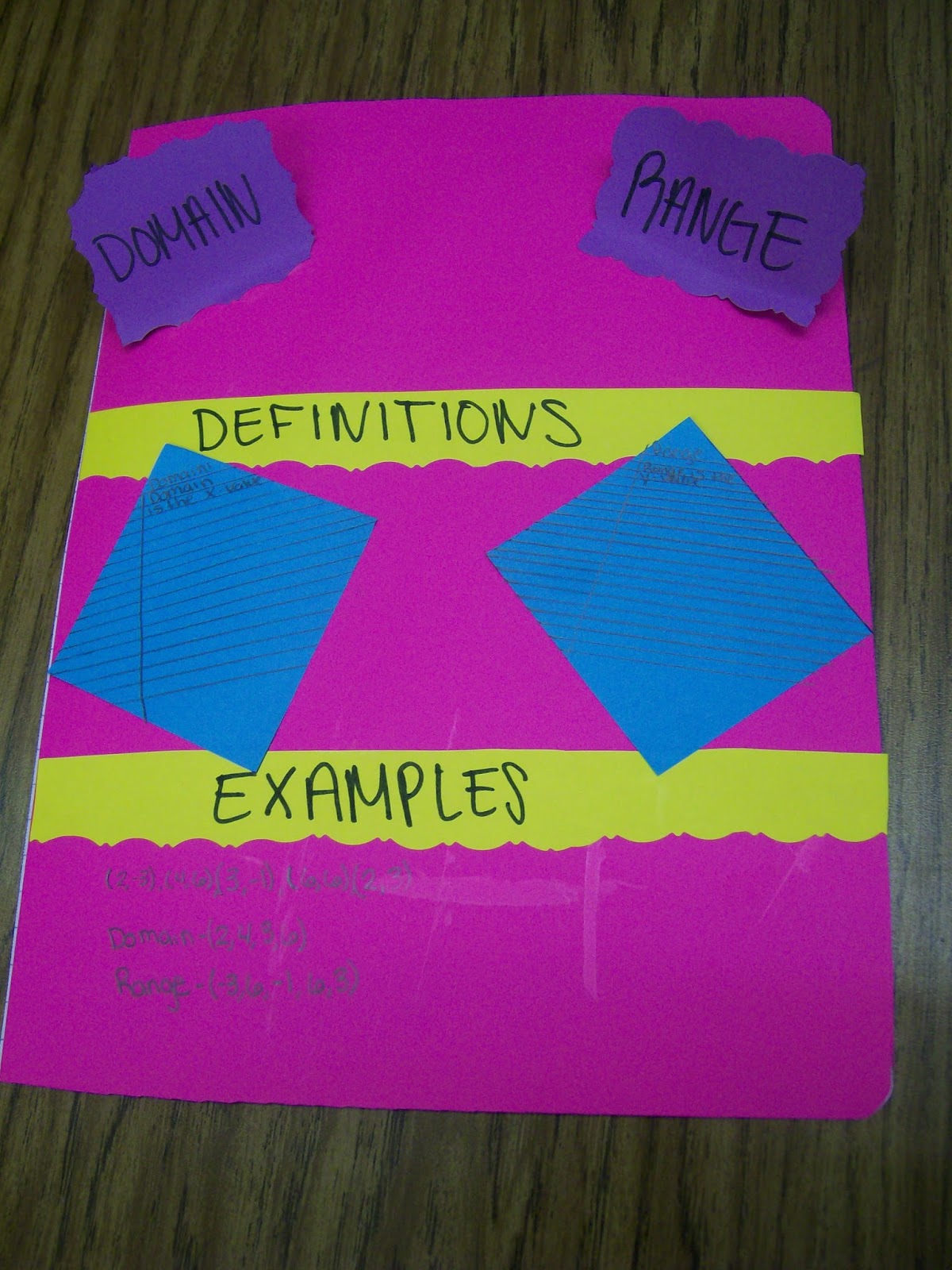
Solving Systems of Equations by Substitution Foldable
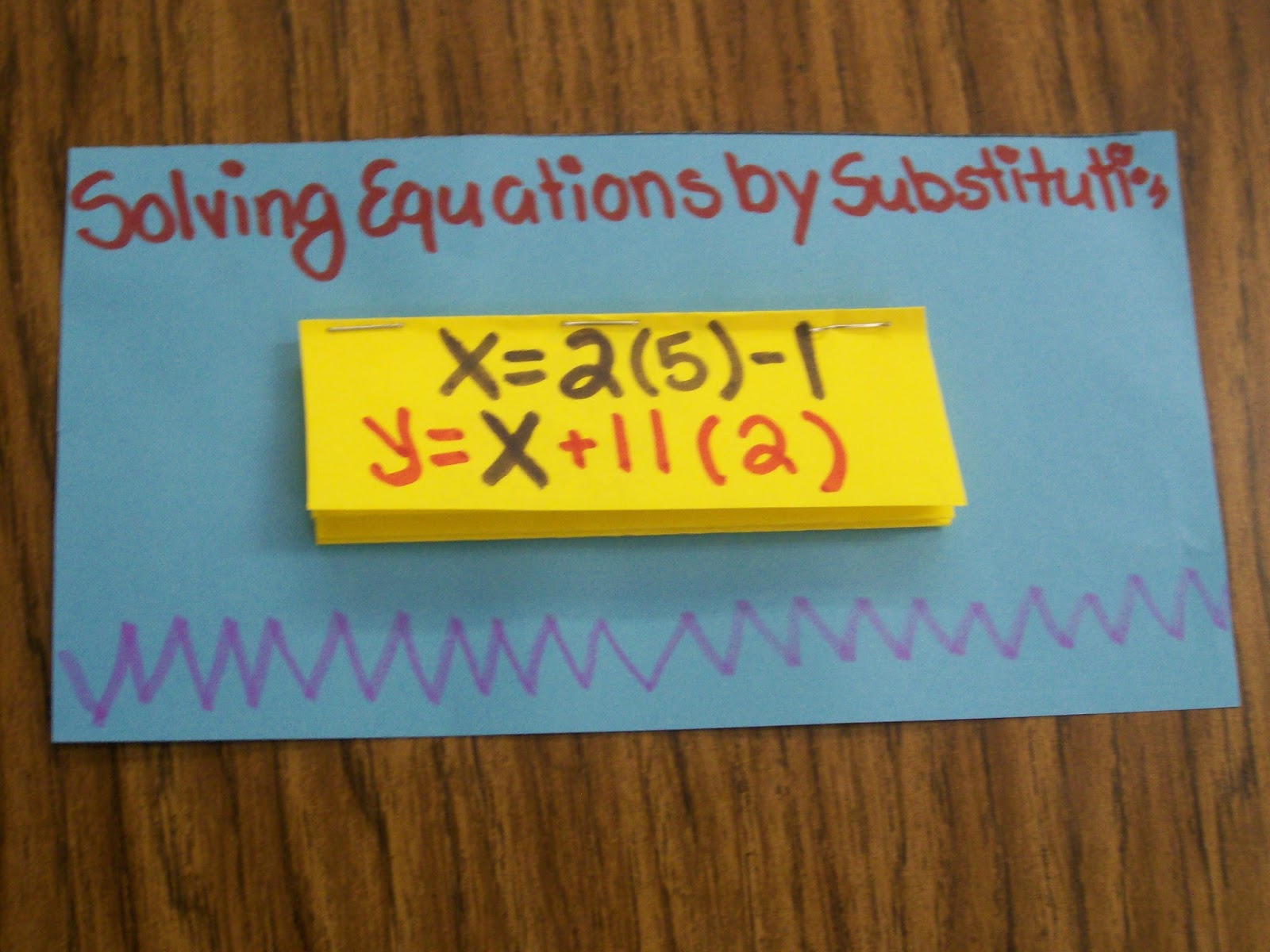
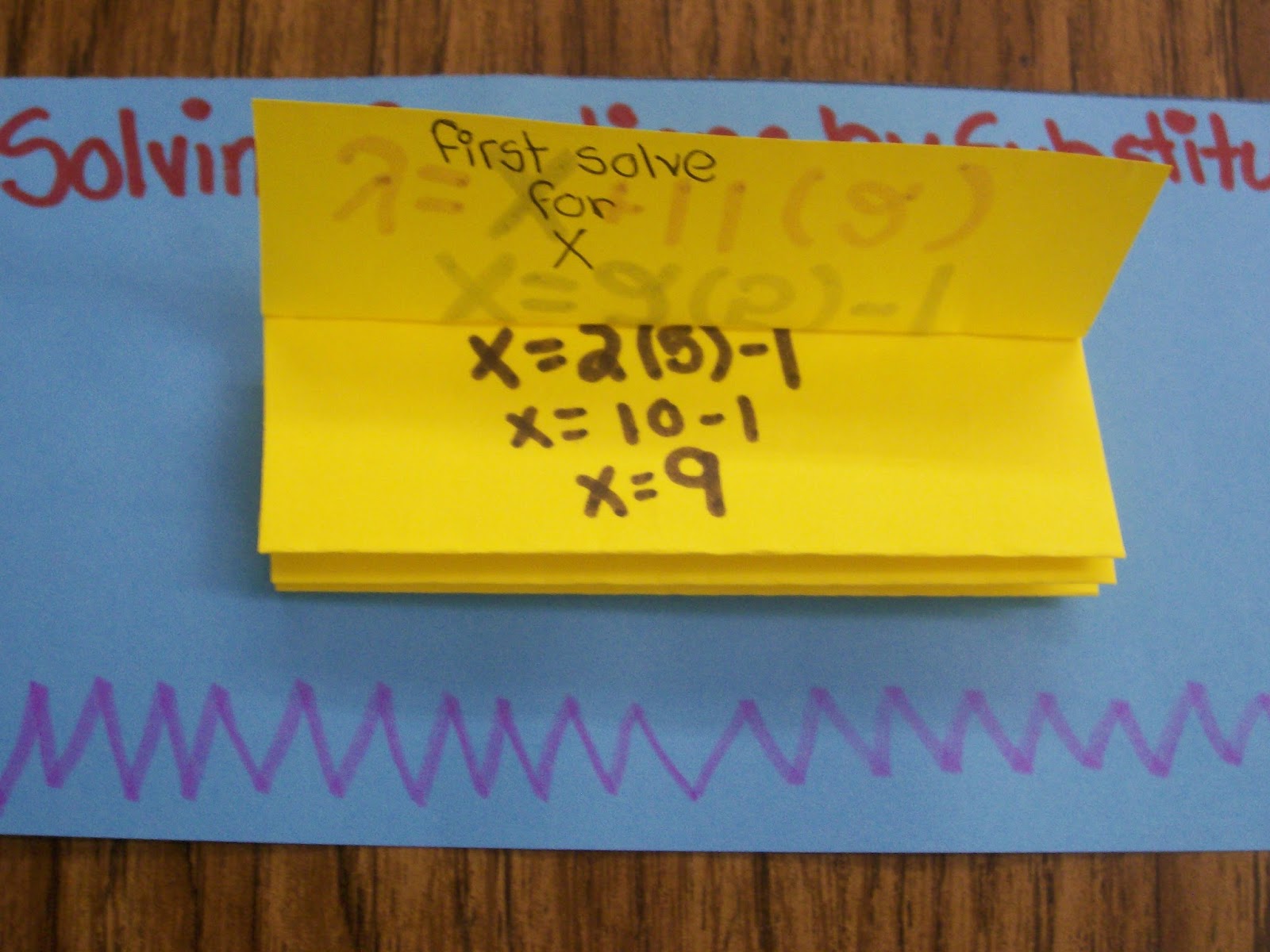
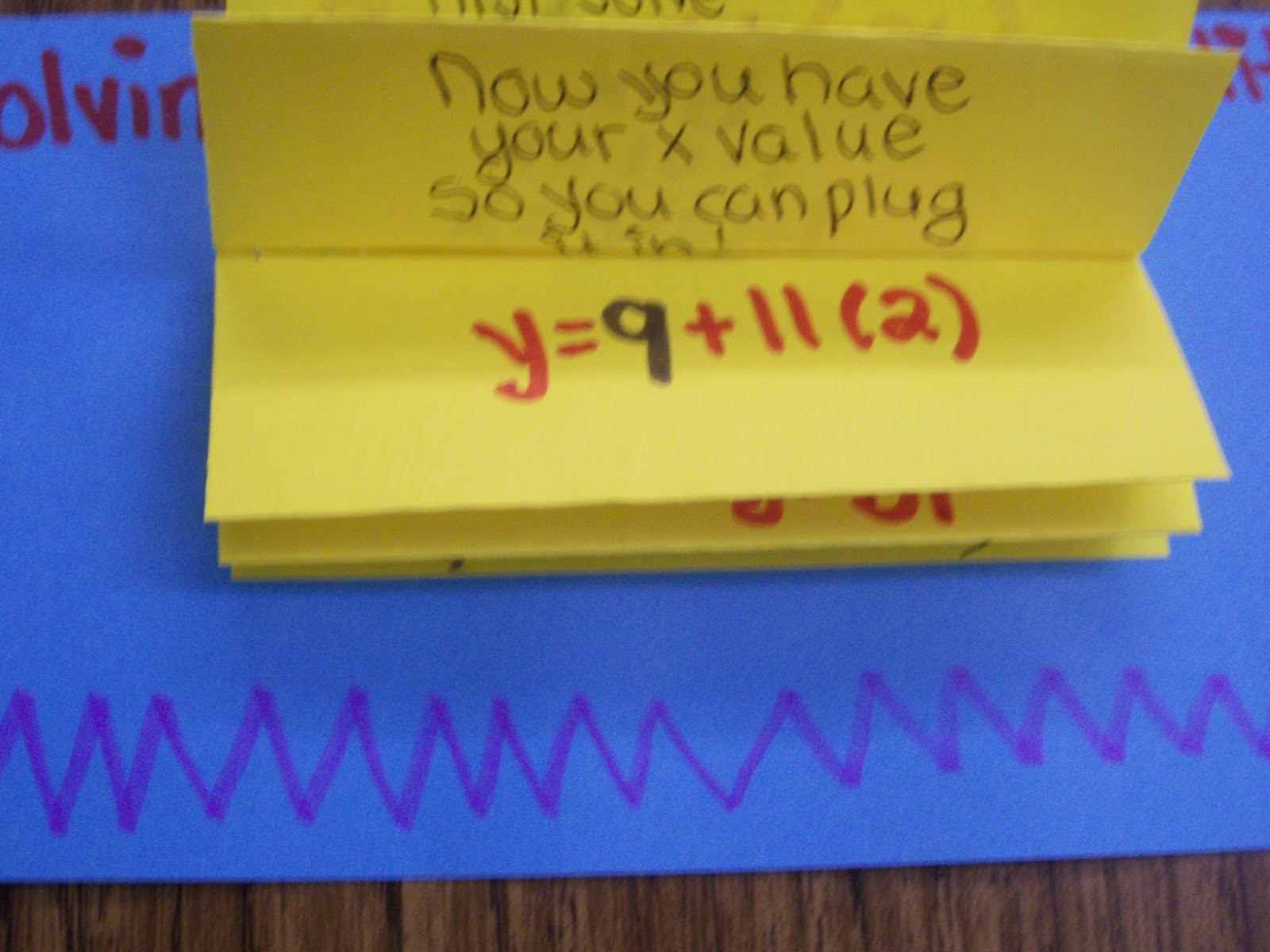
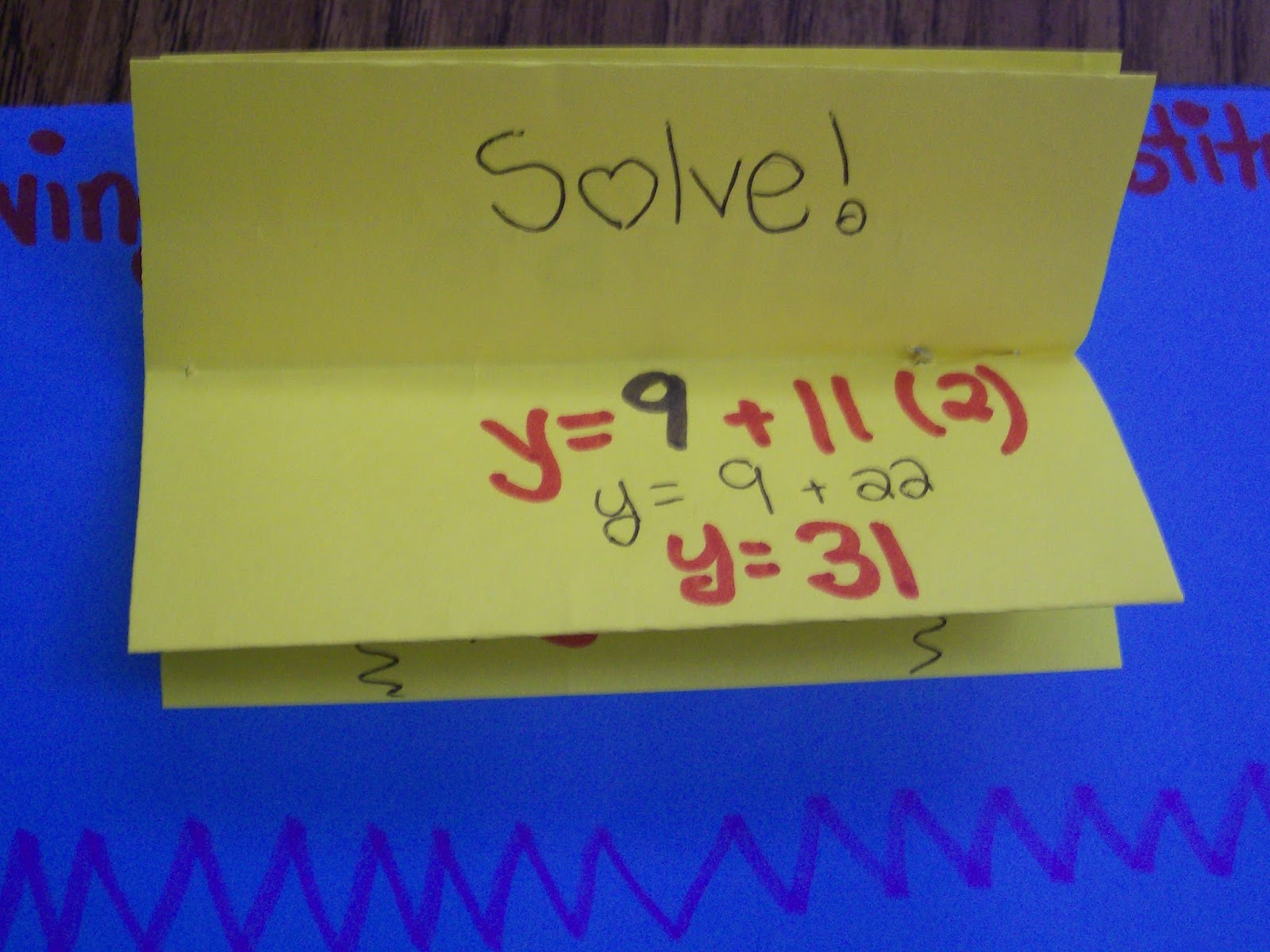
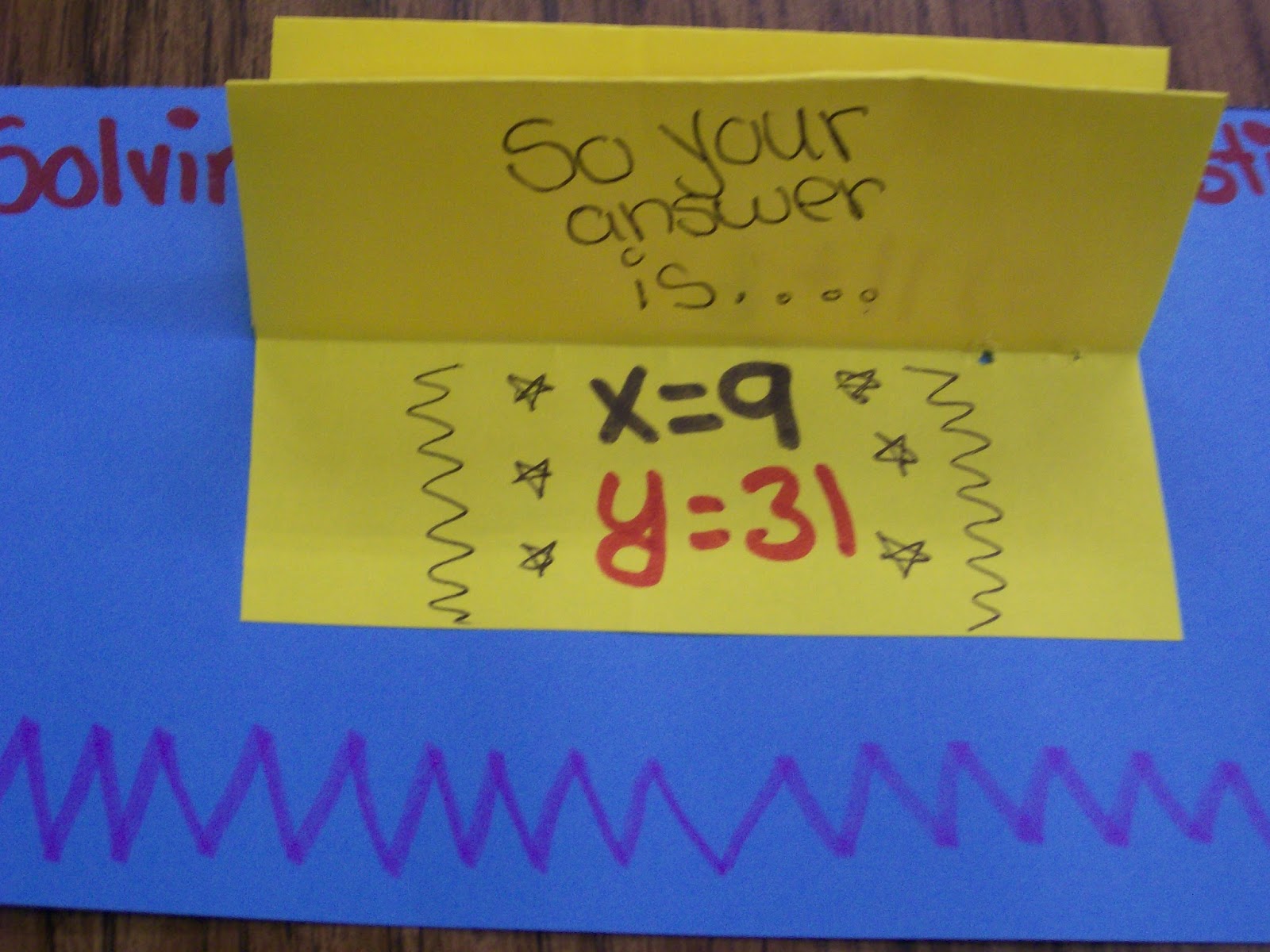
Absolute Value Foldable with Slider
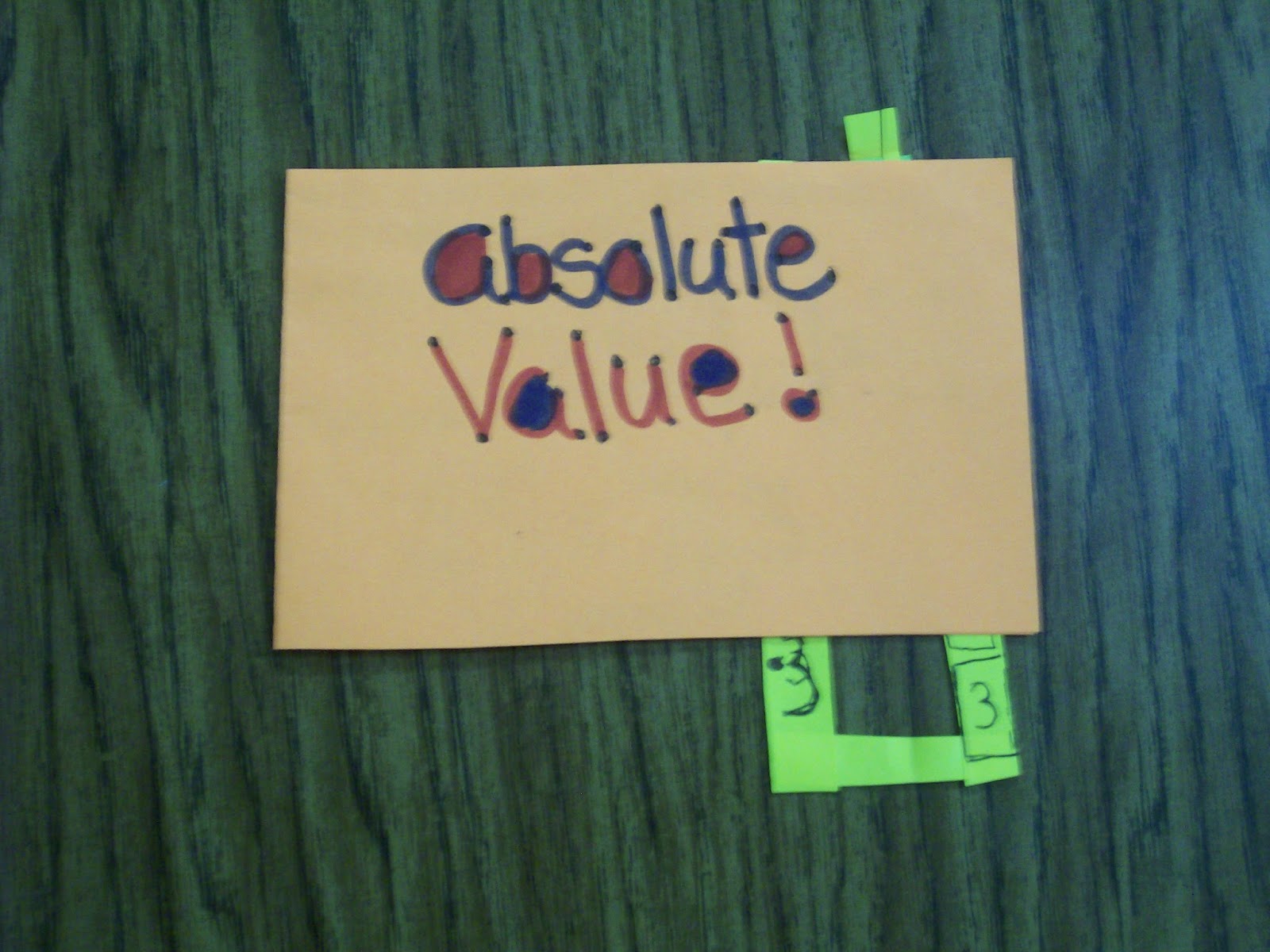
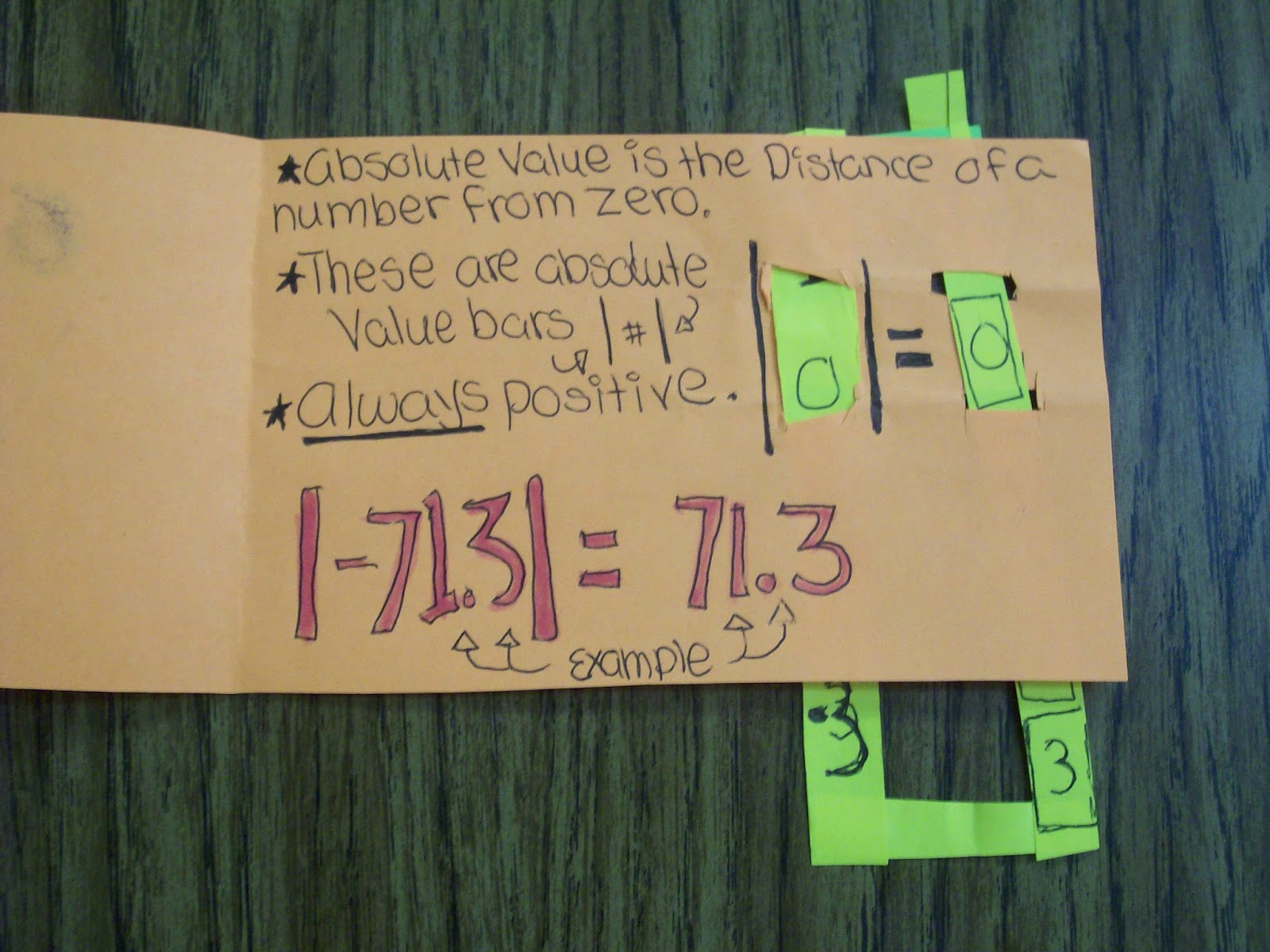
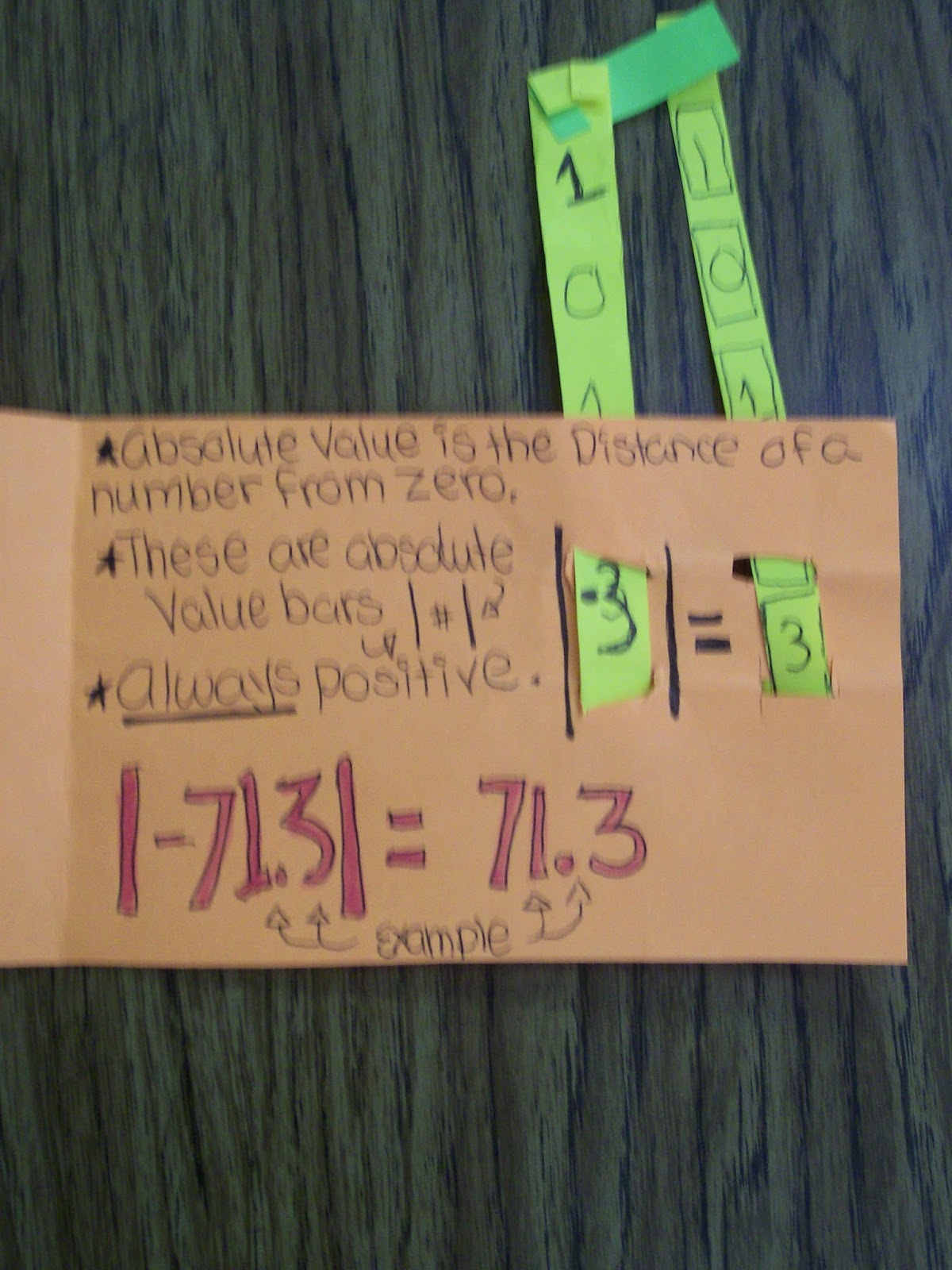
Parallel, Perpendicular, or Neither Foldable
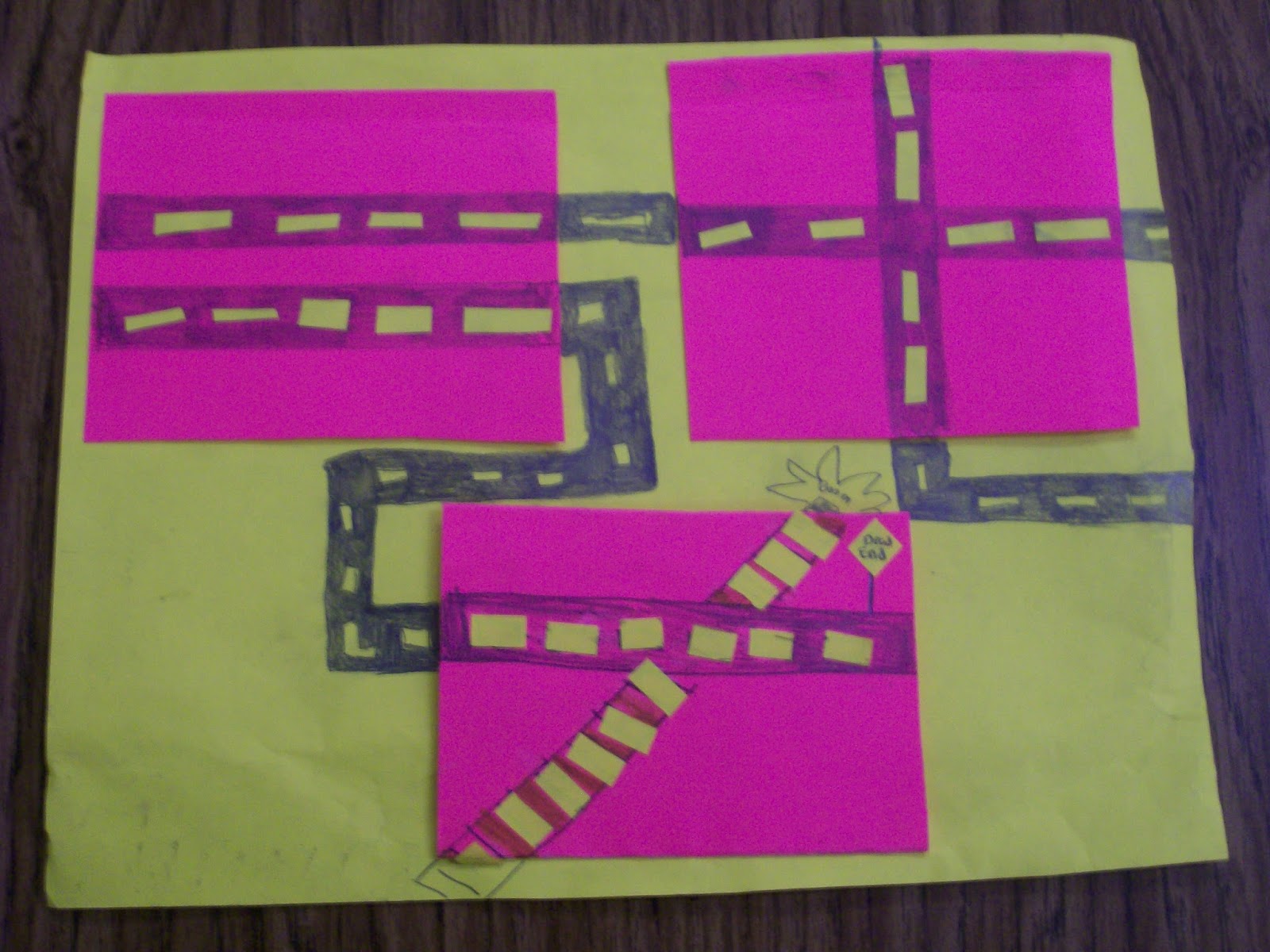
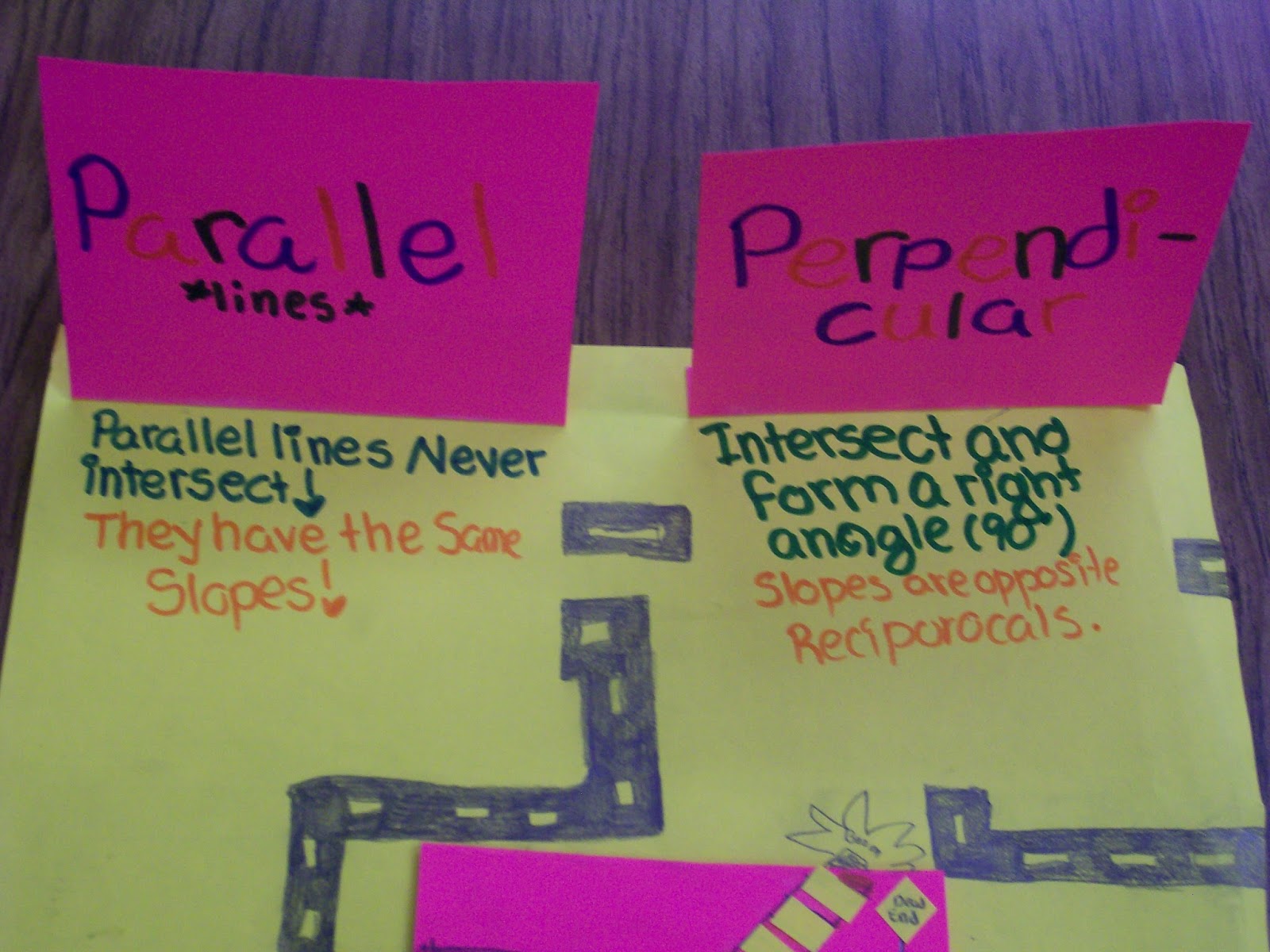
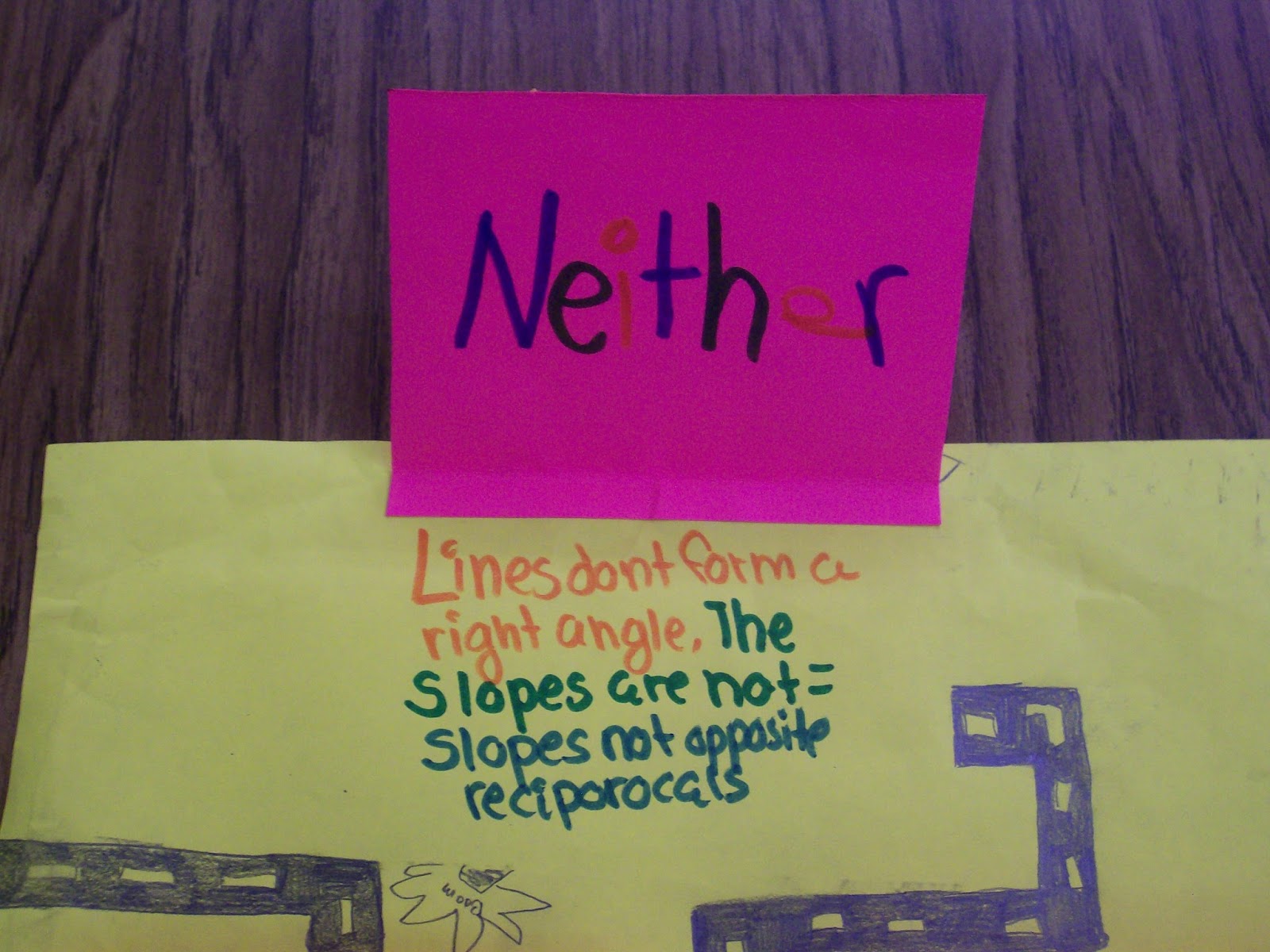
Mean, Median, Mode, and Range Foldable
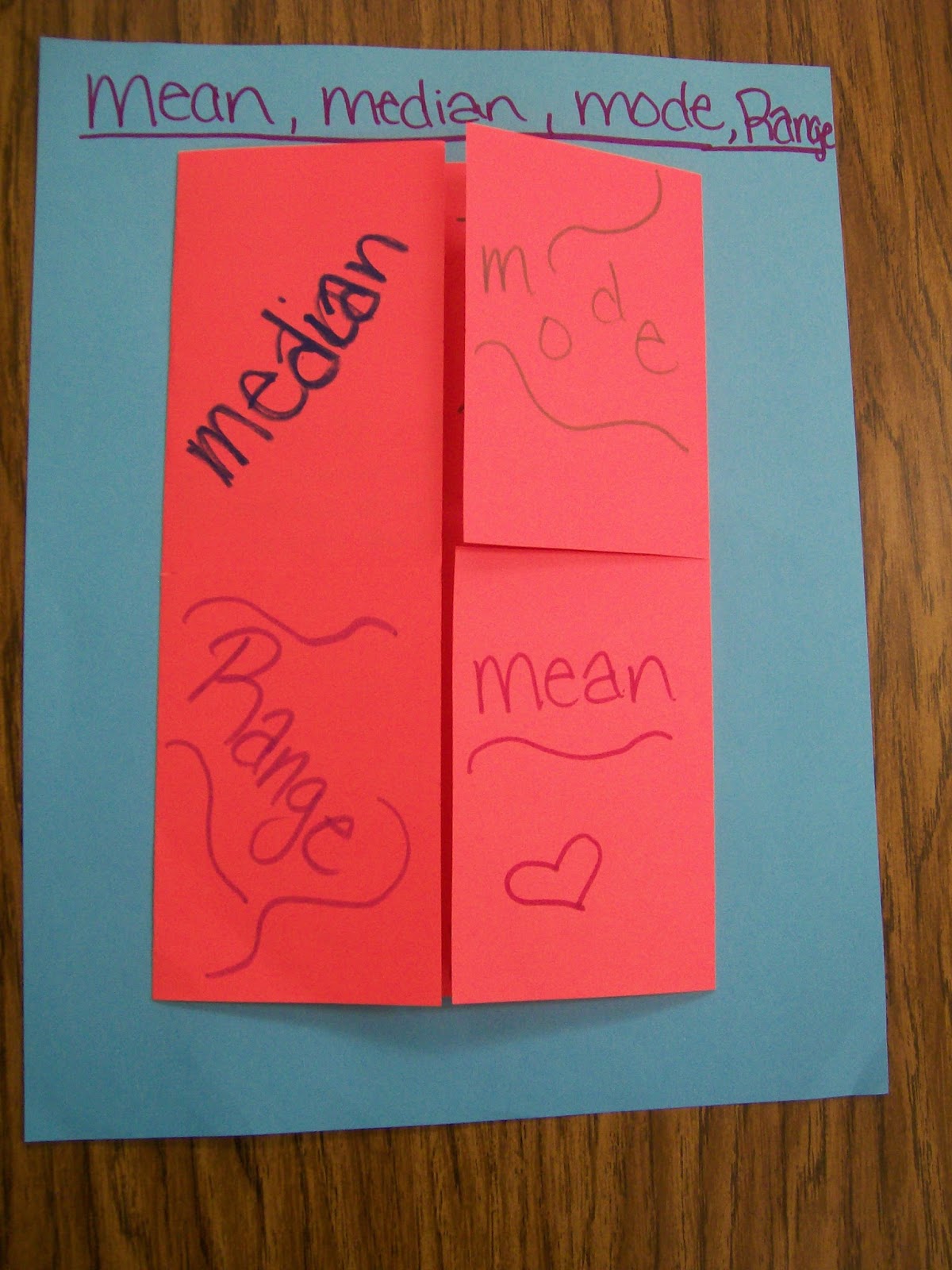
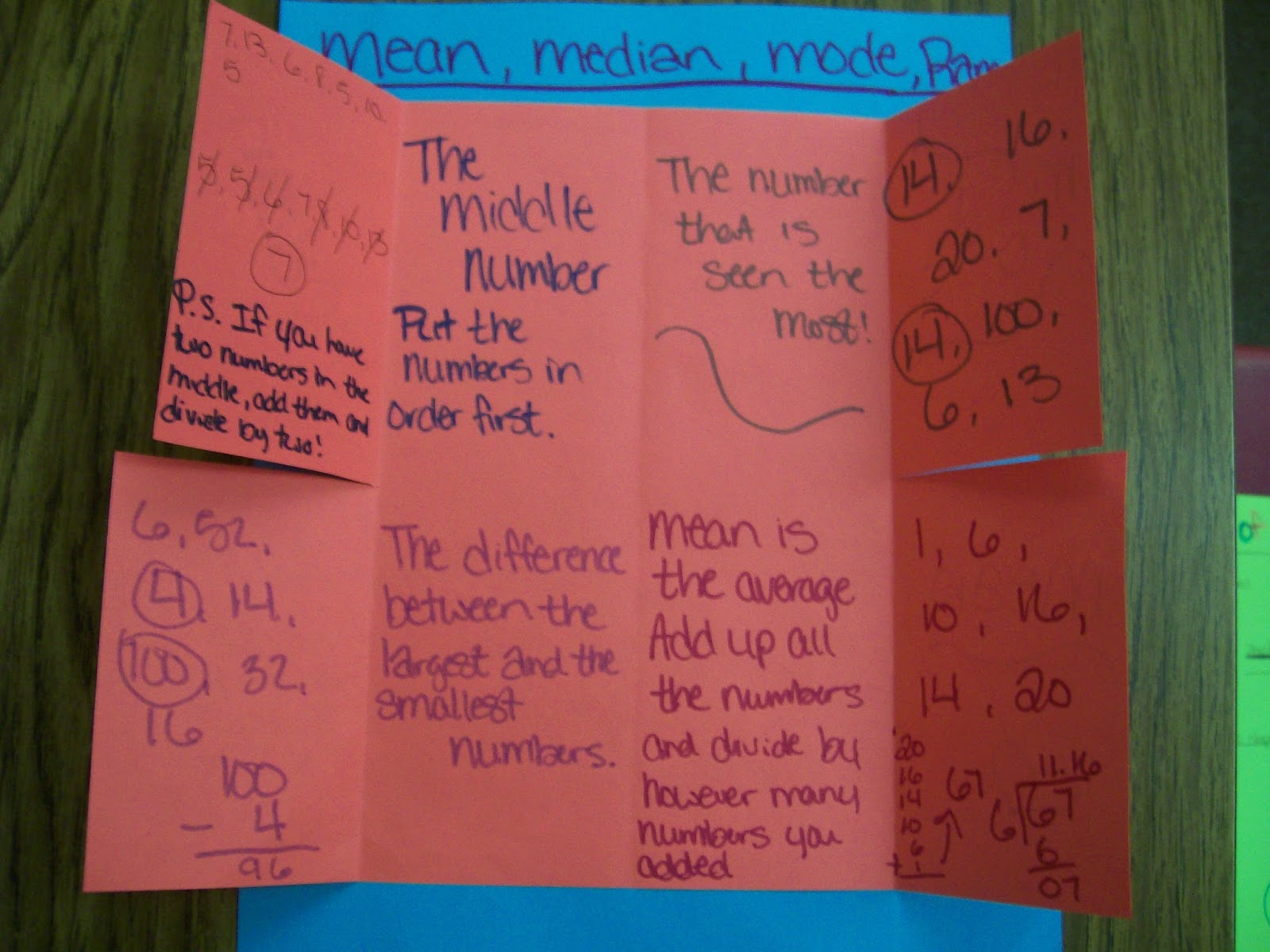
Domain and Range Graphic Organizer
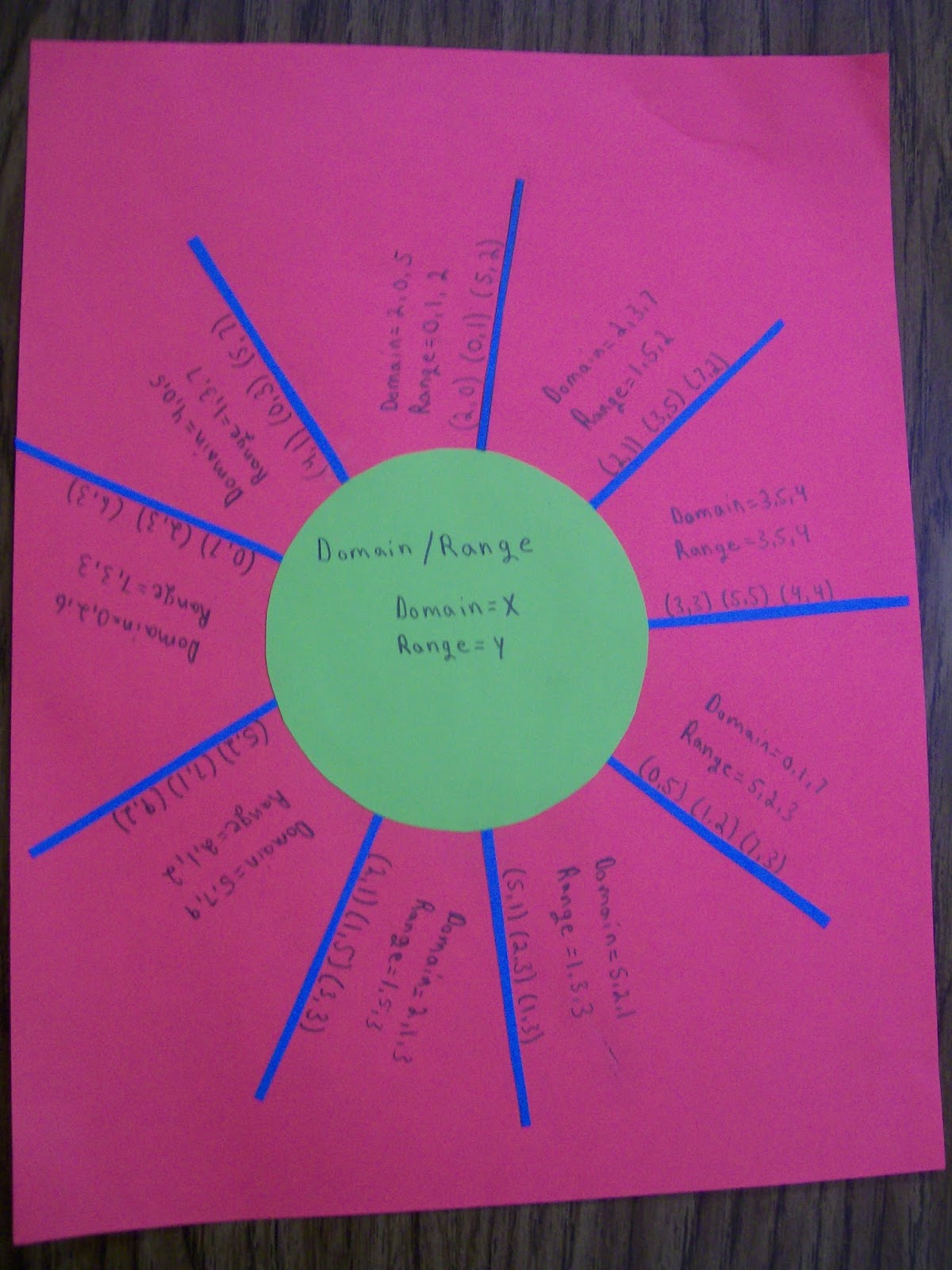
Graphing Inequalities Foldable
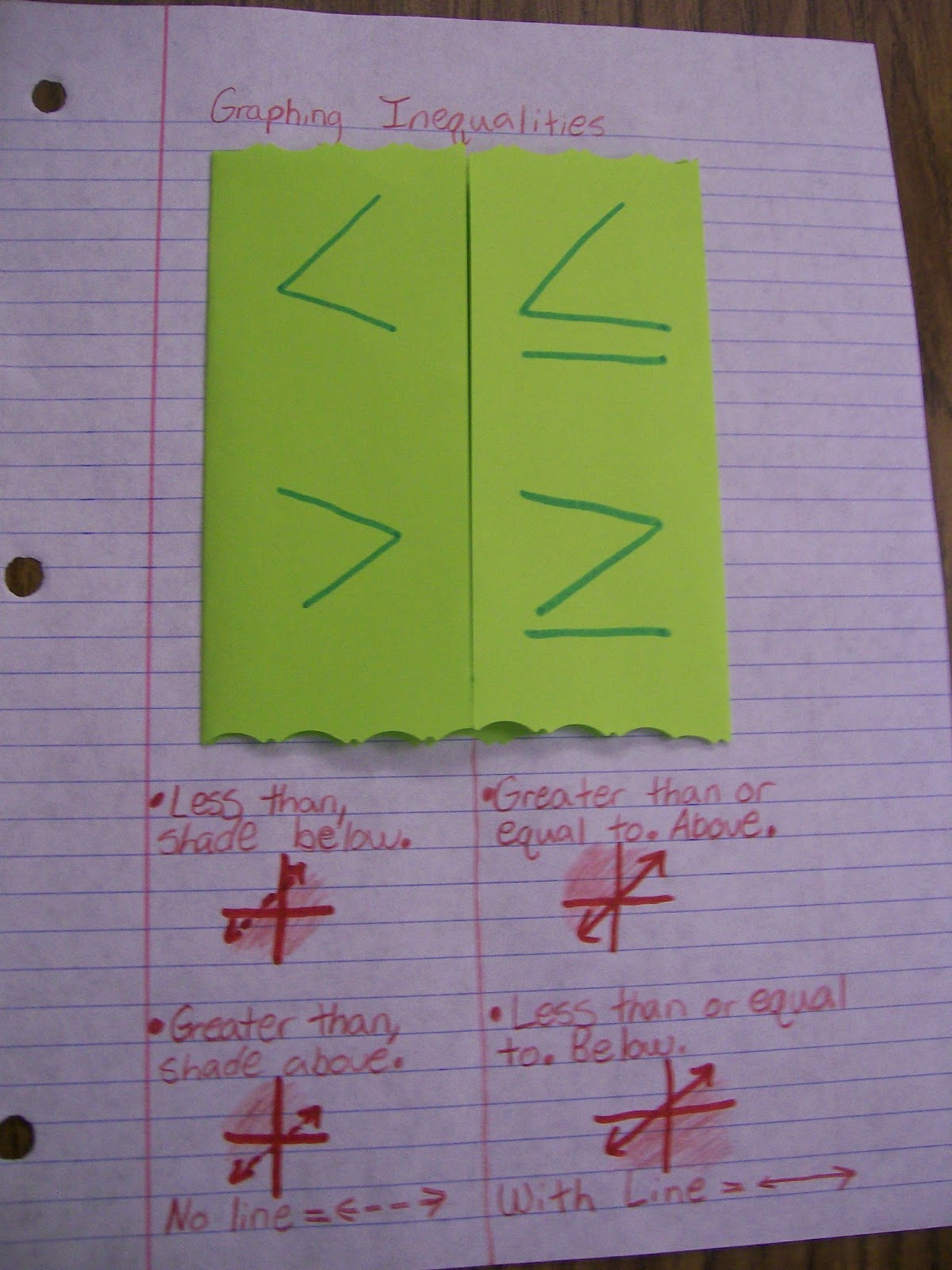
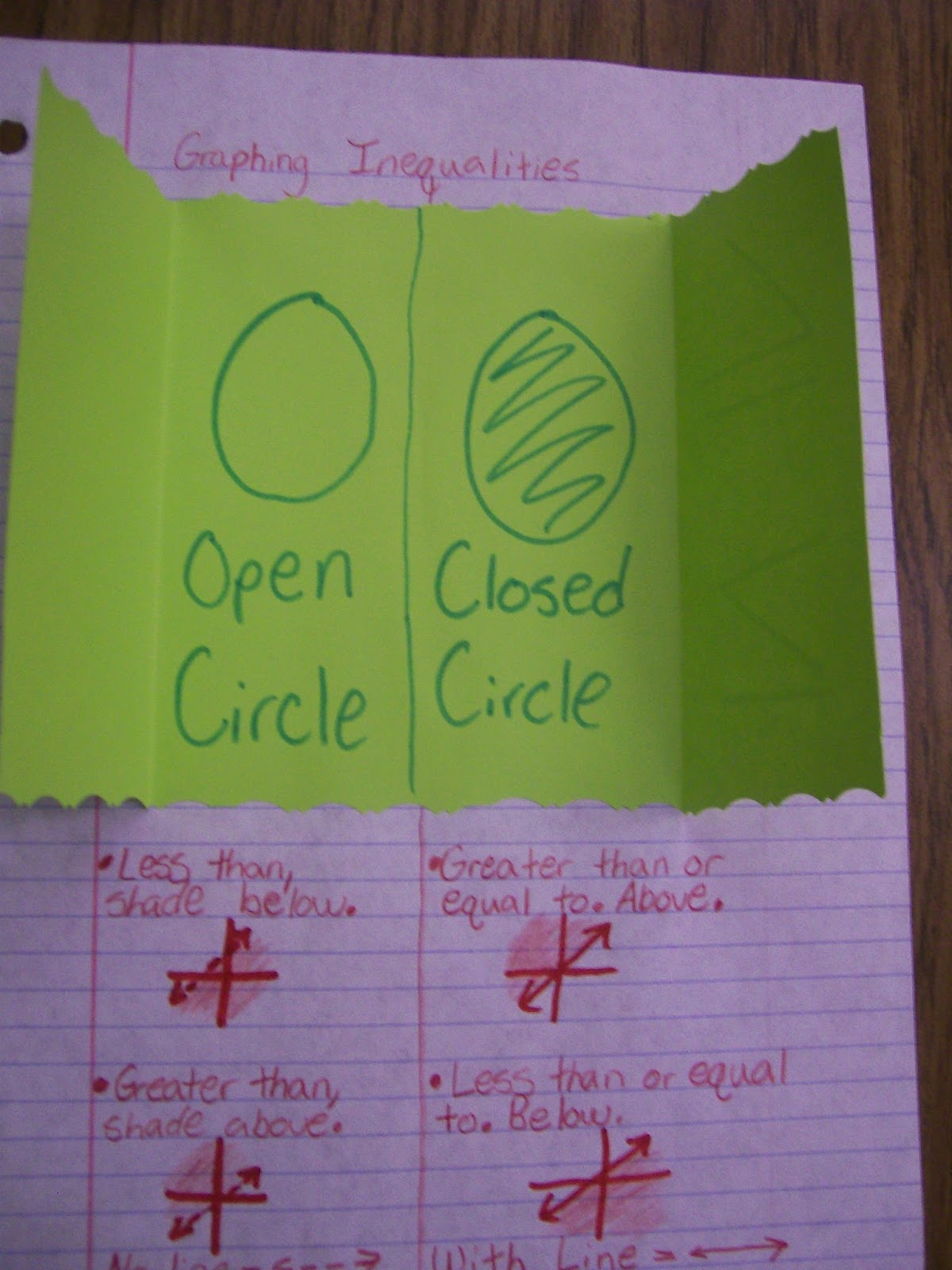
Domain and Range Foldable
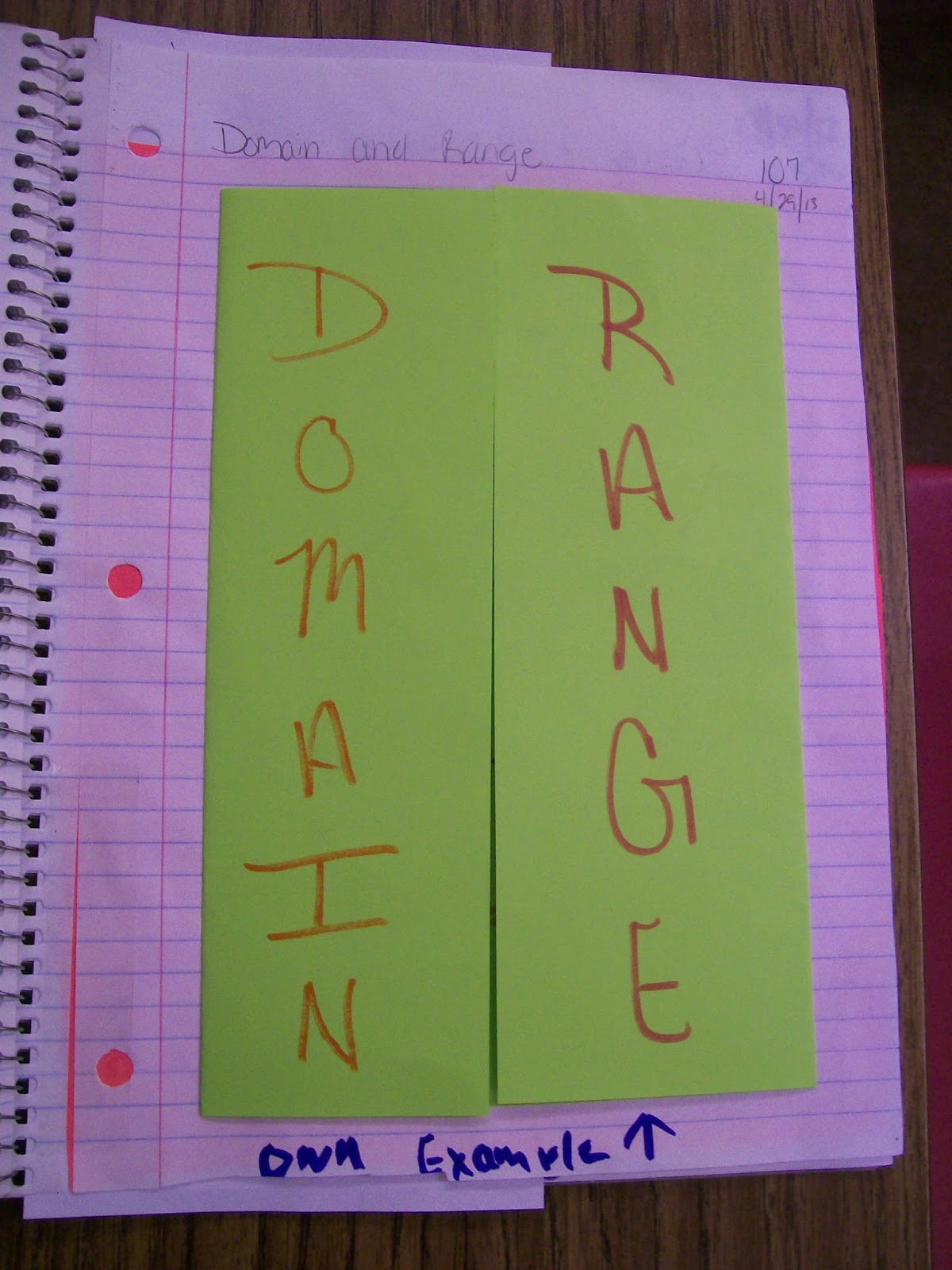
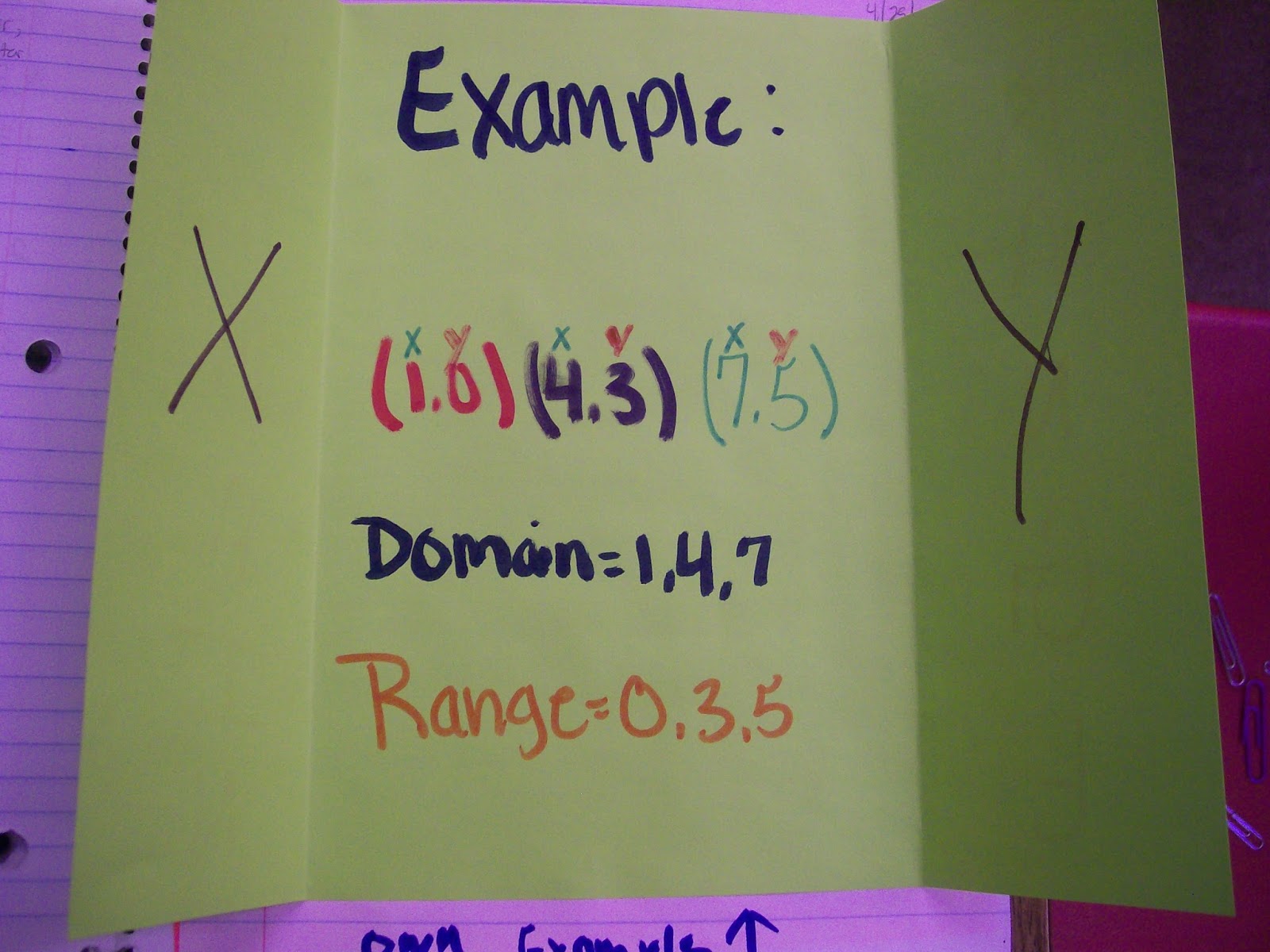
August 31, 2013 – Interactive Notebooks
This year, I have resolved to do a much better job at the interactive notebook in Algebra 2 than last year. Last year, we had 12 students in my entire school who were enrolled in Algebra 2. This year, that number is just under 40. This is both exciting and kinda terrifying. First of all, it means that more students are prepared and willing to take Algebra 2. At the same time, my Algebra 2 students this year are greater in number and much more varied in level. This presents many challenges. But, these are challenges I am excited to attempt to meet.
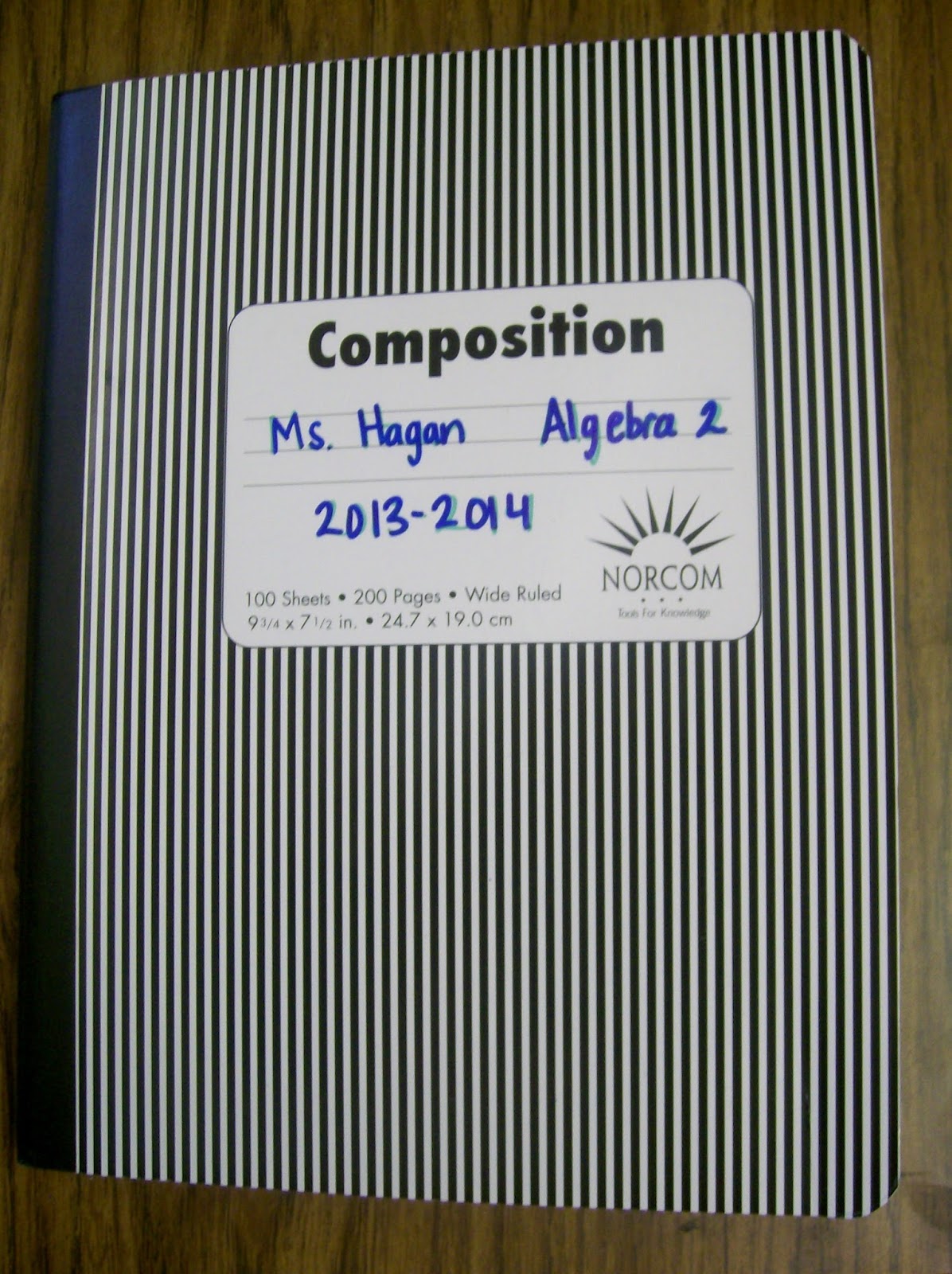
Our first unit in Algebra 2 is an introduction to functions, function notation, domain and range, intercepts, maximums and minimums, intervals of increasing and decreasing, finding solutions, and transformations. My goal is to create a foundation which I can build off of once we start linear functions. I am also working hard to prove to my students that they are capable of doing Algebra 2 level work. Many of my students have extremely low confidence. We are also learning how to use the graphing calculator. This is the first experience any of my students have had with a graphing calculator, and I am working hard to make it a positive one.
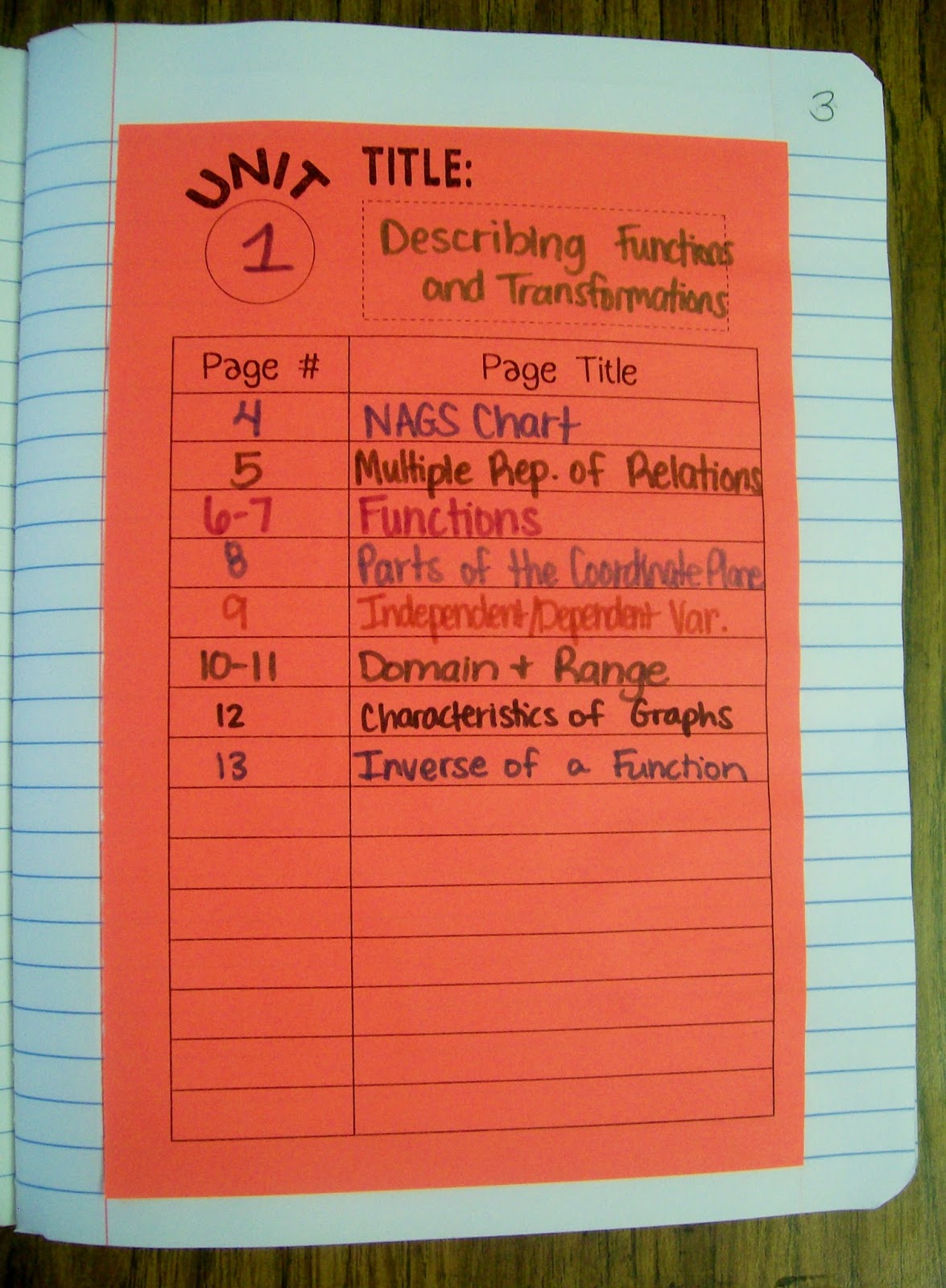
So far, my Algebra 2 students are loving our interactive notebooks. They thank me on an (almost) daily basis for making Algebra 2 visual, fun, and easy. I have some students who are complaining right now that Algebra 2 is too easy. I told them that they just had to wait. Before they knew it, we would be exploring logarithms, exponentials, conic sections, and all kinds of other exciting mathematical relations. After going on and on about how excited I was about everything we were going to be learning and studying this year, one student asked, “Do you like math?” I was a bit taken aback by this question. Are there math teachers who don’t like math? Of course, I like math. I love math! I eat, breath, and sleep math.
August 31, 2013 – Writing Good Definitions in Math
Kagan’s Cooperative Learning & Algebra 1 book focuses on having students develop their own definitions for the vocabulary words for each unit. This is an entirely new approach to me.
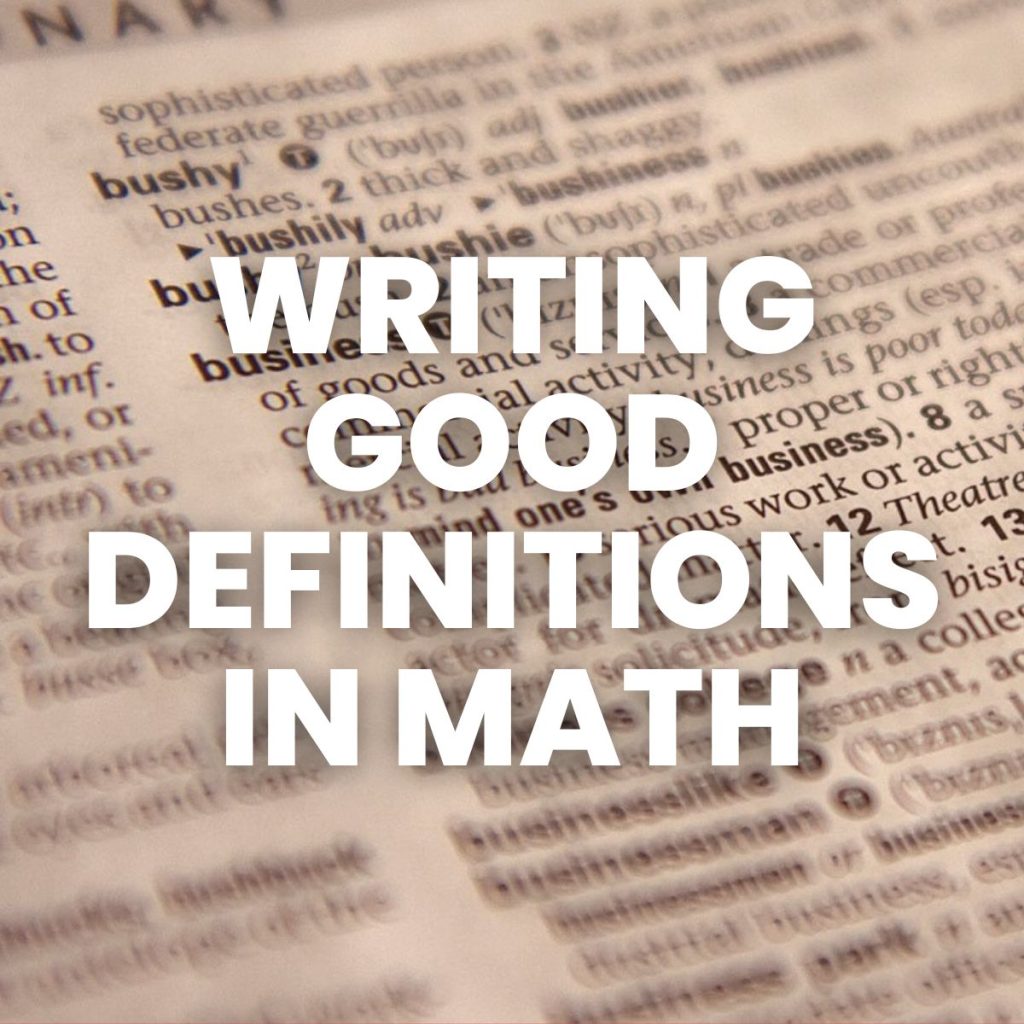
I’m used to just giving the students the definition and having them write it down. I’m kinda obsessed with the Frayer Model.
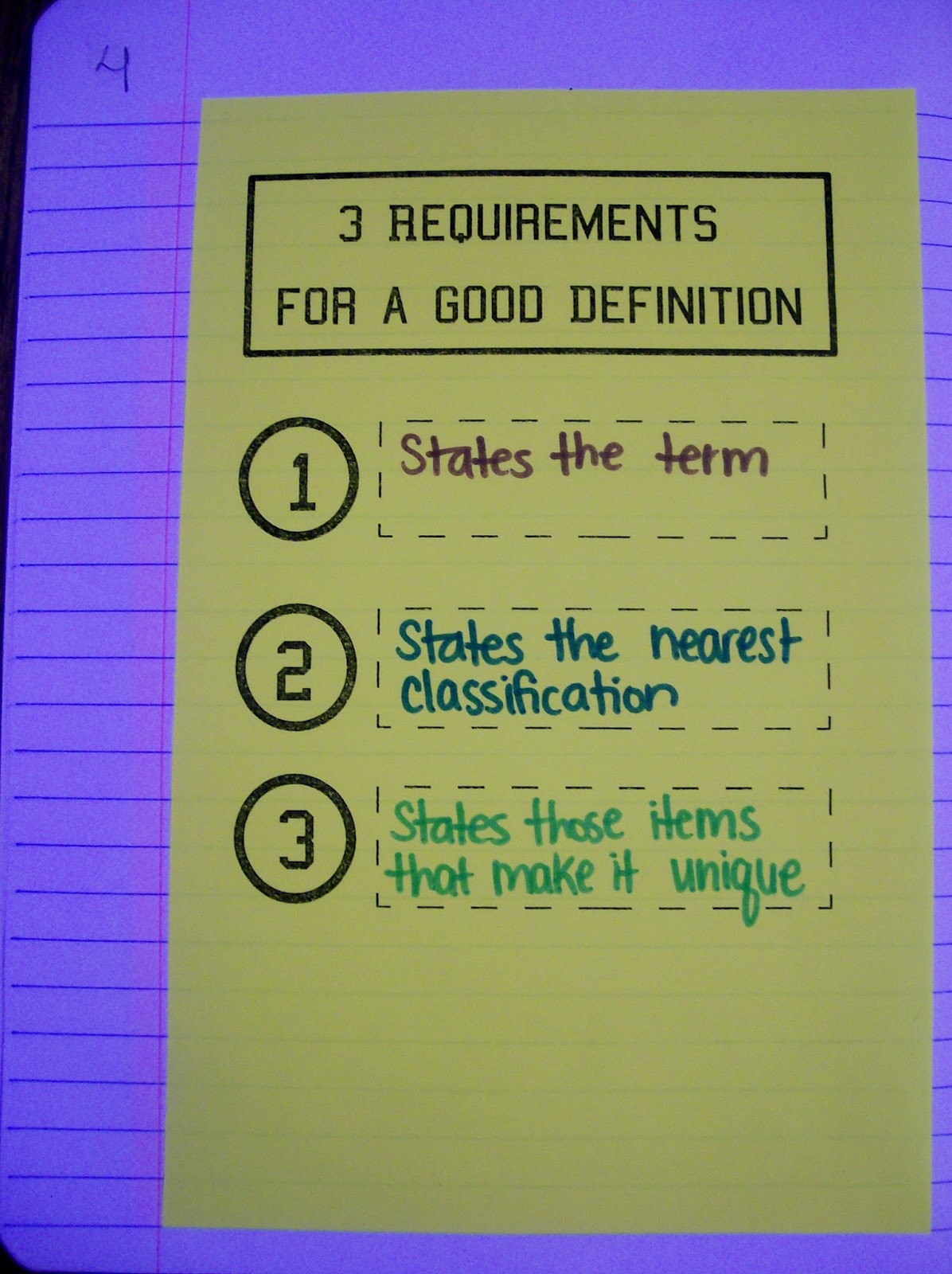
I’m enjoying the approach, however, of having students examine examples and counterexamples to determine what a word means for themselves. Time will tell if this leads to a higher level of understanding and recall. The first lesson of the year focused on what a good definition consists of. Our three requirements for a good definition were: 1) states the term, 2) states the nearest classification, and 3) states those items that make it unique.
We practiced a lot with this. I used some examples provided in the book to give my students the opportunity to practice writing a definition that had absolutely nothing to do with mathematics. Students were given a minute or two to examine the zingers and thingmabobs. Then, each student wrote their own definition based on the examples and counterexamples. Next, each person in the group shared their definition with the rest of the group. Each group discussed everybody’s definition and combined the best parts of each definition into one group definition. Finally, we discussed the group definitions as a class and wrote one class definition. The process is very time consuming. But, it produces AMAZING discussions. So, I think it’s worth it.
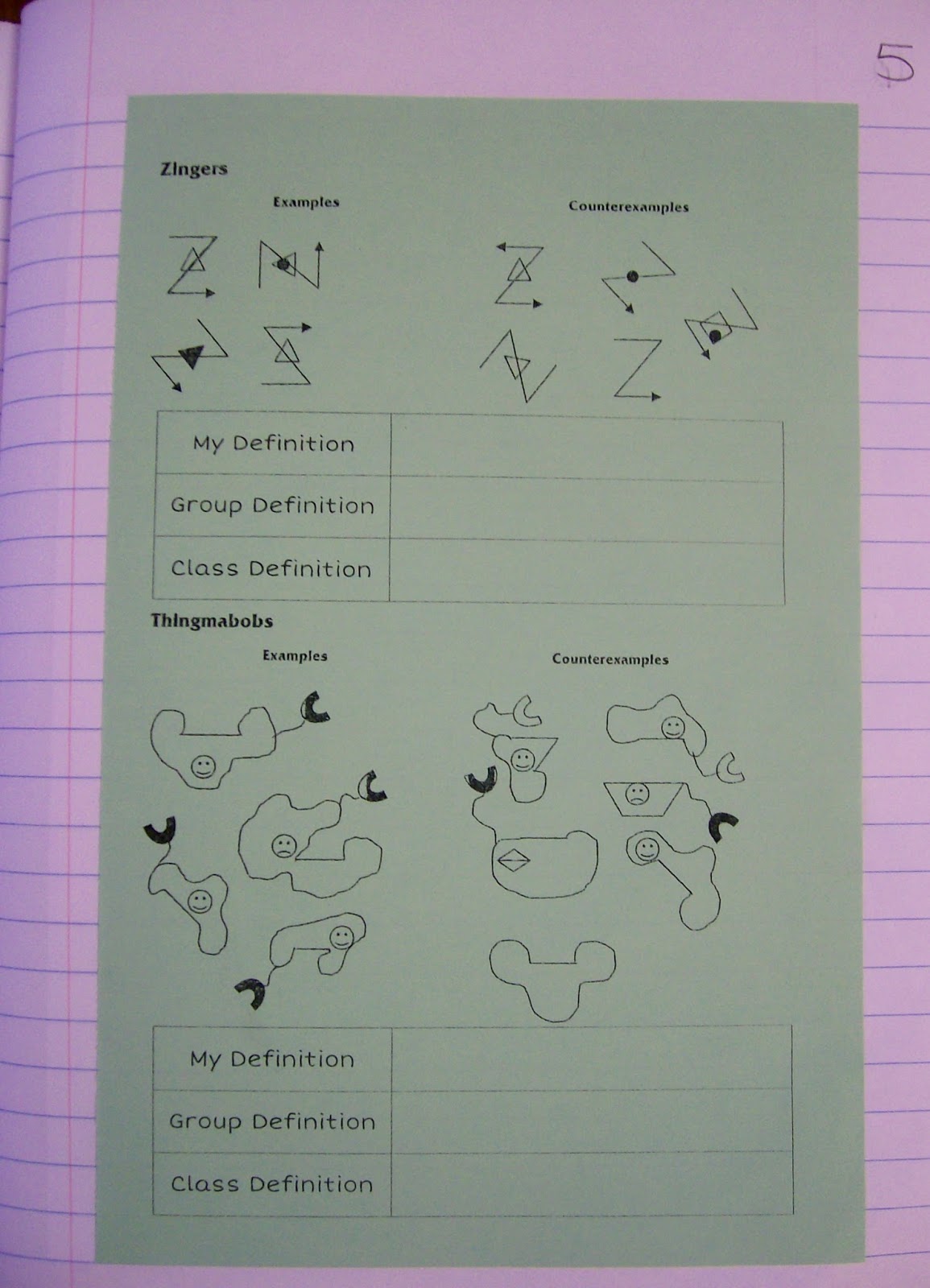
Since I used images from the Cooperative Learning & Algebra 1, I cannot post these files.
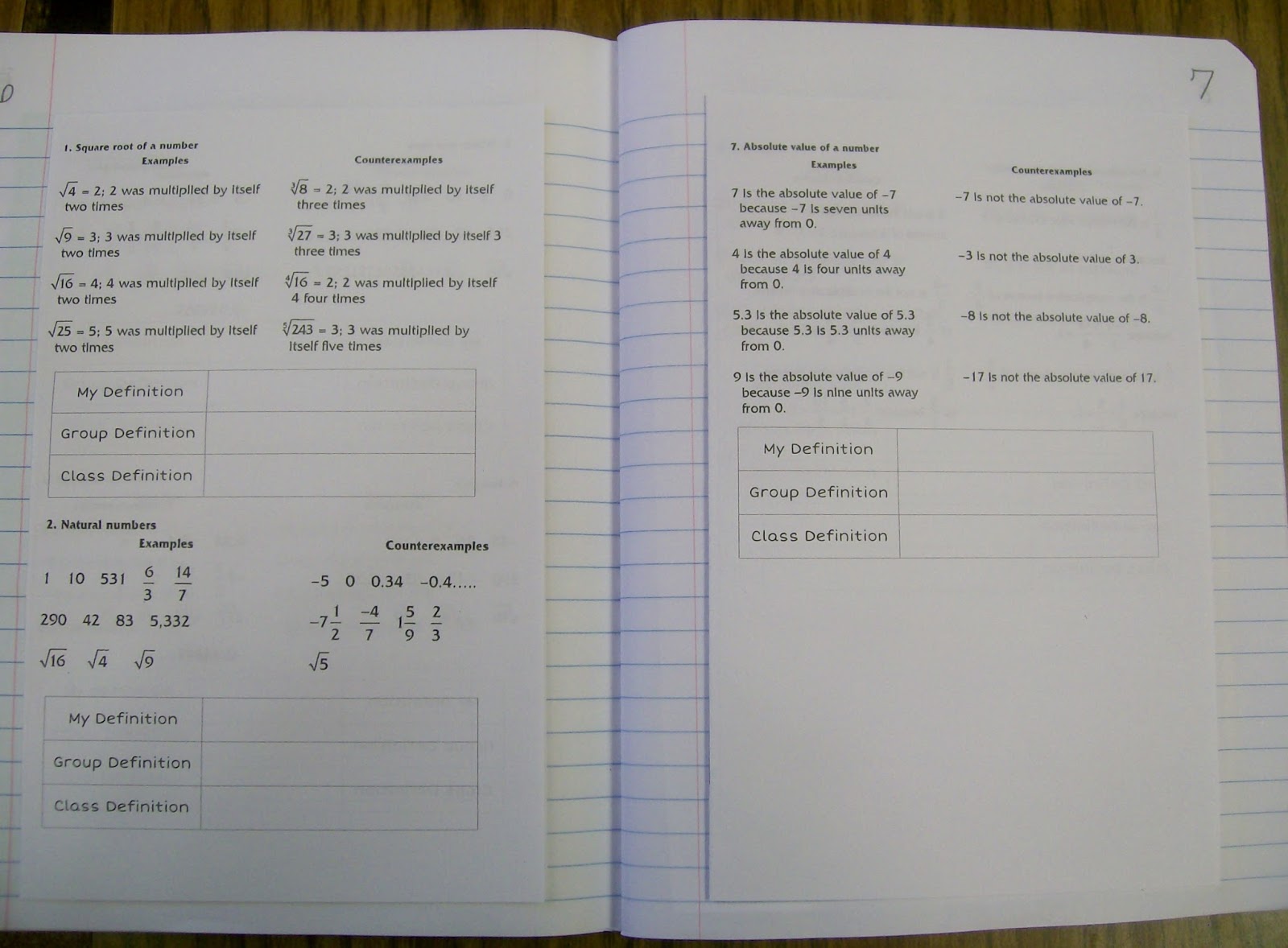
My students repeated this process for our 10 vocabulary words for unit 1. They completed the “My Definition” section as homework. And, the entire next class period was spent creating group and class definitions. These were formatted as two book-type foldables that students glued in their interactive notebooks. I love that these foldables capture the process that students went through to write their own definition.
We started Unit 2 by writing our own definitions of some very important vocabulary words. I got these examples/counter examples from the Kagan Cooperative Learning & Algebra 1. I like the process of having students reason through the examples and non-examples to write their own definitions. However, I think I will break down the vocab and do it throughout the unit instead of trying to do all the vocab at the beginning of the unit. I think my students will retain the vocabulary better that way.
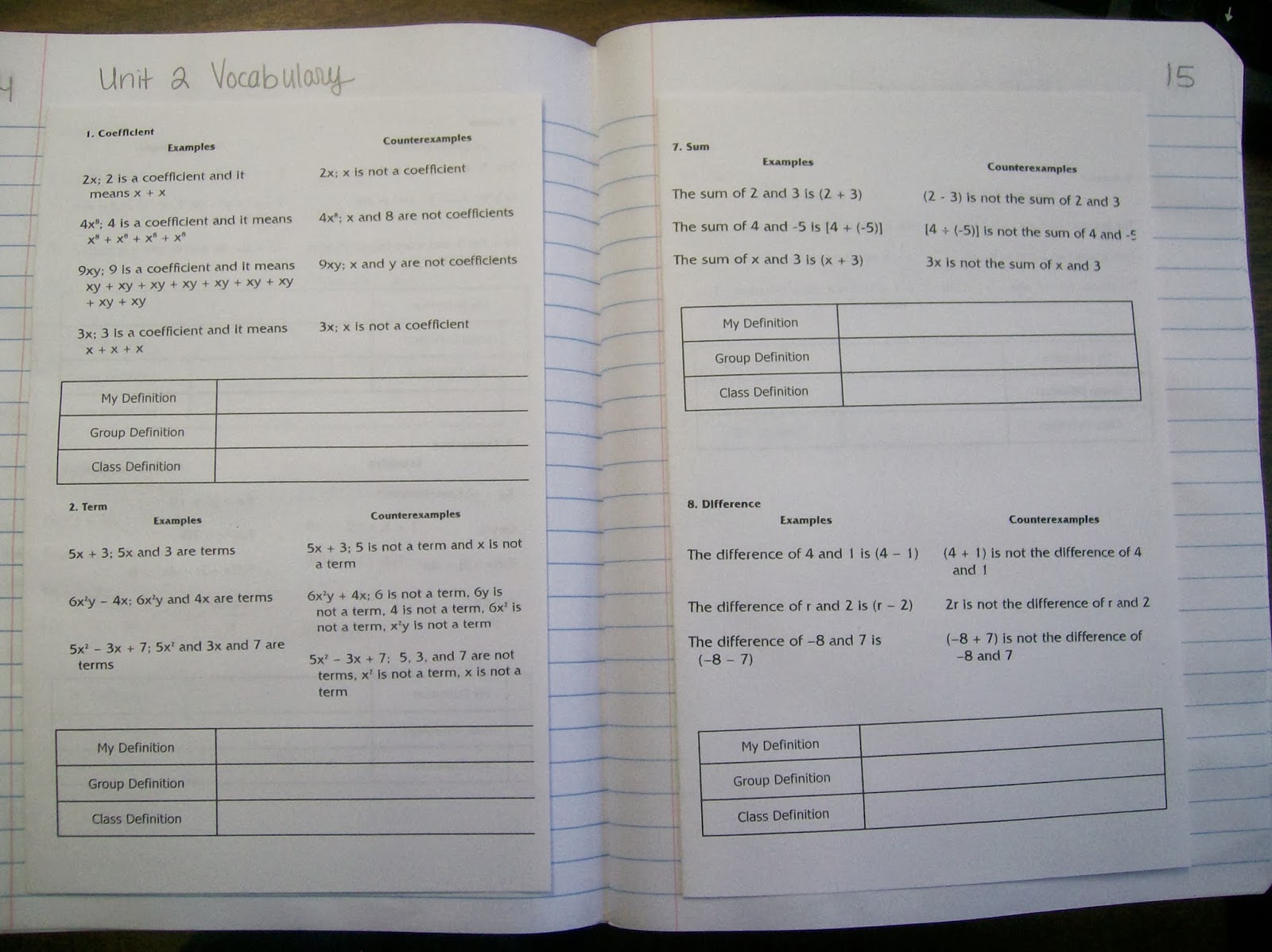
September 16, 2013 – Things Teenagers Say Volume 1
Join me today for Volume 1 of Things Teenagers Say. This is my regular round-up of the crazy and memorable things I hear my students say in class.
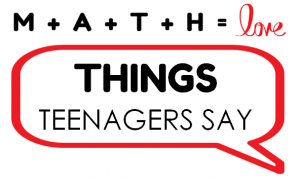
Year two of teaching has been a lot easier than year one was. Of course, this year has brought its own unique challenges. My Algebra 1 students, as a group, struggle much more with mathematics than last year’s group. The number of students we have taking Algebra 2 has tripled since last year. I’m really excited about what this group of kids will be able to accomplish, but we have some major confidence issues to overcome in the next several months! I’m teaching statistics for the first time, and I’m learning as my students learn.
It’s easier in that I’m teaching in the same school with the same administrators. I know exactly who to go to when I have a problem. I know the best time to use the copy machine. I know what to expect now when it comes to things like homecoming, prom, and graduation. When I go to a football game, I see a ton of familiar faces. I don’t worry about what I’m going to say when I stand up in front of my students. I have a reputation for requiring a lot from my students. I also have a reputation for having a really fun class.
This year, it seems like my students are saying funnier things than normal. This probably isn’t the case. What is more likely is that I am paying more attention to what my students are saying instead of being overwhelmed by the newness of everything. And, I’ve learned the importance of recording the good moments. If you don’t record the good, it is very easy to become overwhelmed by the bad.
—
An actual phone conversation that occurred in my class:
Yes sir, I was calling in regards to renting a tiger for our homecoming float…$5,000 per hour…I don’t think so. Thank you for your time.
—
I feel like God today. (Said by a student who was wearing ALL white.)
—
I don’t like how much homework you’re giving us. I’m about to run out of money…at the teacher’s credit union.
—
You have pretty handwriting. Your handwriting on the Smart Board does not look like this!
—
While making a concept map over “algebra:”
Student: Ms. Hagan – how do you spell exciting?
Me: E-X-C-I-T-I-N-G. I’m so glad that you find my class to be exciting!
Student: <Laughter>
Me: There’s another word before that word, isn’t there?
Student: Yeah – non.
—
I’ve already missed 20 problems, and we’re only on number 14.
—
At least you’re not like most teachers who drain their students’ blood to grade their papers with.
—
Ms. Hagan! Did you see them carry out the dead body?!?
—
Me: What is -3-5?
Student: -2
Me: No.
Student: 2
Me: No
Student: 8
Me: No
Student: (exasperated) Is it -8?
Me: YES!
Student: Well, I thought it was -8 at first, but then I decided that was too mainstream.
—
I feel like I’m in a haunted house whenever I come into your classroom.
—
Is “describe” spelled with an “L”?
—
Do penguins have ears?
—
Student: Do you have a sister? Because I saw someone who looked EXACTLY like you on television.
Me: What show were you watching?
Student: What Not to Wear
—
Do you know what we should do in class today? We should find the end of pi!
—
Did you draw that while an earthquake was happening?
September 26, 2013 – Good Things is a Great Thing!
Teenagers will never cease to surprise me! Just when I think I finally have them figured out, they shock me by hating something I was sure they would love and loving something I was sure they would hate.
For example, last Thursday was International Talk Like A Pirate Day. Every day, I post whatever holiday it is on my dry erase board below the date. I get my holidays from this site.
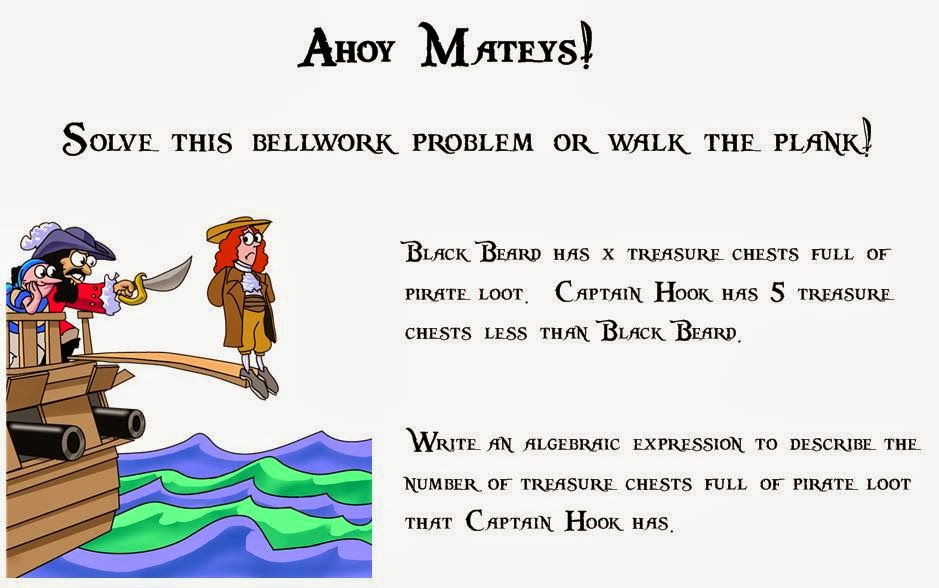
So, on International Talk Like A Pirate Day, my students entered the classroom to find pirate-themed bellwork. Were they impressed? No. Could they care less? No. Did anyone try to talk like a pirate? No. My third hour has the tendency to be a little unruly, so I was able to quiet them down rather quickly by exclaiming, “Avast!” Of course, they told me the only reason they stopped and listened to me was because I sounded ridiculous. Whatever it takes…
In late August, my district brought in an elementary school principal from another school district to talk to the entire district on classroom management and building classroom culture. I was skeptical about the training because the same presentation was being given to all the faculty from pre-K through 12 at the same time. After introducing herself, the presenter put up a slide that read, “Good Things.” It was subtitled, “Personal or Professional.” The presenter modeled how Good Things works by (briefly) sharing something good that had happened in her life recently. Then, she asked for a few volunteers from the audience to share a good thing that had happened to them. Some of the things shared were funny. Others were serious. Some were school-related. Others were personal. I instantly fell in love with this activity.
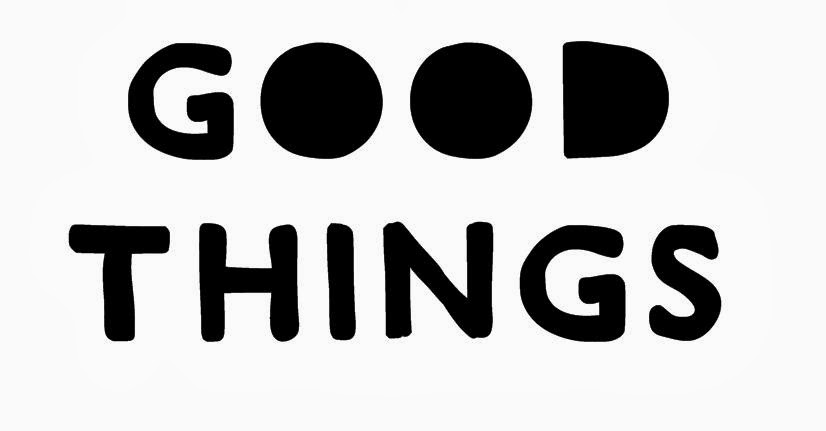
I know I’ve read about this classroom routine somewhere before, but I had never tried it. I feared it would take too much time, but the good thing about Good Things is that you decide how many students share. If you only have three minutes for this activity, you only let three students share before moving on.
I’m going to be honest. The first time I tried this out in my classroom, it was kinda awkward. I modeled how to share a Good Thing. And, there was dead silence. On top of that, my principal was in my classroom observing. Now that we’ve been doing this every Monday for almost a month, the students know exactly what to do when I put up the Smart Board slide that says “Good Things.” Hands are raised, clamoring to be the first one to share their good thing. I’m learning things about my students that I would have otherwise never learned. Students who won’t speak up in class will raise their hand to share a good thing that is going on in their life. Students get to see a different side of their classmates, and it’s exciting to see them realize that they have shared interests with others.
I’ll put it this way. My students LOVE Good Things. One class loves it so much that they’ve decided that Wednesday should be dubbed, “Bad Things Day.” They told me that sometimes they just need an opportunity to vent. I’m just not so sure about whether that is a great idea or not. I’m thinking it’s not a good idea. The goal of Good Things is to build a climate of positivity, caring, and sharing. And, hopefully, students will realize that I care and will know that they can come and talk to me about anything.
I’ve decided that Mondays are the perfect day for this activity. First of all, it’s easy to be negative on a Monday because most everyone wishes it was still the weekend. And, most of my students get their inspiration for Good Things from their weekend activities. Not only am I getting to know my students better, but my students are getting to know me better. Last week, I asked for Good Things for the first time without first sharing my own good thing. My weekend had been less than exciting, and I just really couldn’t think of anything noteworthy to share. After the students were done sharing, one table of students was quick to point out that I hadn’t shared anything, and they wanted to know how my weekend was. It was a nice feeling to know that my students cared enough to want to hear about my weekend. I guess I shouldn’t be surprised, though. This is the same group of students who took it upon themselves to write me an online dating profile description…
October 5, 2013 – Math Teachers’ Circle Reflection
I’ve been busy, busy, busy lately! I’ve got a lot of recent classroom action that needs to be shared, but it will have to wait. I promised @pamjwilson that I would blog about this, and I try to keep my promises! 🙂 But first, I have to share a picture of a flower that one of my students brought me.
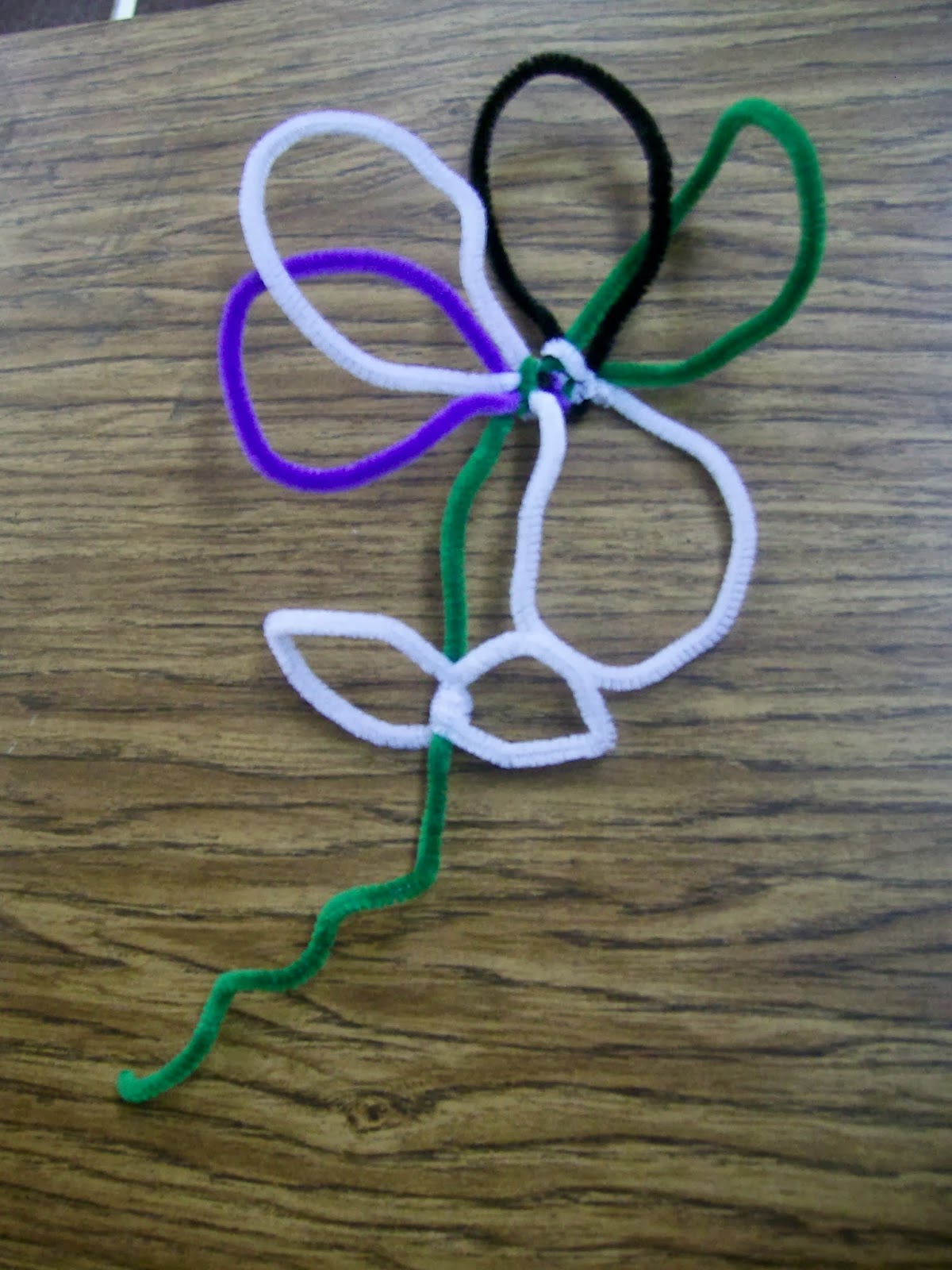
So, Thursday, after school, I was in my classroom. One of my Algebra 2 students from last year is currently taking Pre-Calculus at our local technology center, and I was tutoring her. As we were working on determining the end behavior of functions, another student came bounding into my classroom. She presented me with this pipe cleaner flower and said, “I made this flower for you because you’re so bright and cheery like this flower.” I was smiling until I heard her say “Not really” as she skipped back out of my classroom. It’s the thought that counts, right?
On Thursday night, I joined @druinok for the inaugural meeting of the Tulsa Math Teachers’ Circle. This was a new experience for me, and I wasn’t exactly sure what to expect. I had done some reading online about math teachers’ circles, but everything I read gave me the impression that each circle is unique.
We met at my alma mater, the University of Tulsa. I saw several of my math professors from college at the meeting, but they introduced themselves to me like we had never met before. Our evening started off with a lovely dinner. I sat with @druinok, two lovely ladies who teach middle school math at a local private school, and my former Calc 1 TA from college. Over dinner, we discussed what each of us taught and shared some funny stories about what life is like as a teacher. We also were reminded of what a small world it is that we live in!
Our session was facilitated by Judith Covington, a math professor at LSU Shreveport. She is a member of the North Louisiana Math Teachers’ Circle, and she did a great job of introducing the concept of a math teachers’ circle to us all. The main focus of the night was learning to play the game of SET. I had heard about this game via several blogs, and I had even tried to teach myself to play once using the Daily Set Game. That lasted about fifteen minutes before I gave up, frustrated. So, I was excited to finally learn how to play.
Three out of the five of us sitting at the table were experienced SET players. Thankfully, these three ladies did an amazing job of being patient with the other newbie and me. They did exactly what a good teacher should do. They gave us time to look for sets on our own. They would tell us when they found a set, but they didn’t point it out. Each time they did point out a set, they would take the time to explain how the number, color, shading, and shape were either all the same or all different. When we pointed out things that weren’t actually sets, they used it as a teachable moment. What card would you need to make a set with those two cards? And, slowly but surely, I think I started catching on.
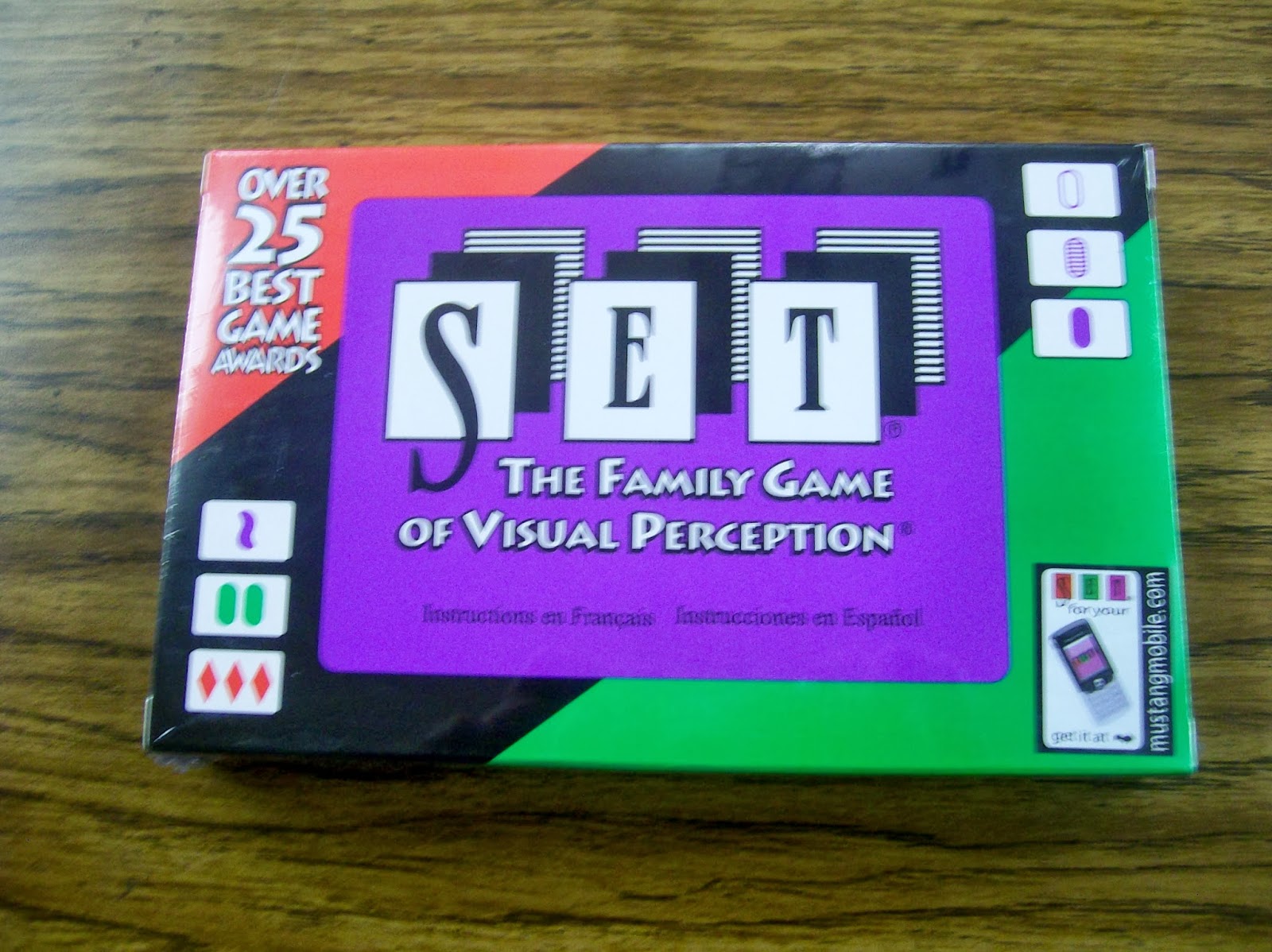
I think it’s going to take me a long time to be able to identify sets efficiently, but I at least understand what I am doing now. Friday morning, I completed my first Daily Set Game. It may have taken me 12 minutes and 36 seconds, but I finished it all by myself! I think this is going to become part of my morning routine when I get to school. If I record the amount of time it takes me each day, I wonder what type of function would best model it?
After playing the game for a while, we turned our conversation to how the game relates to mathematics. Our facilitator led us through a great exploration of how SET can be used to teach geometry. We defined points, lines, planes, and hyper-planes using SET cards. I have to admit, I got a little lost when we started talking about hyperplanes. I was reminded once again why I teach algebra and not geometry! Still, it was so refreshing to spend time exploring and discussing mathematical concepts with other mathematically-minded people. The evening was most fun and intellectually stimulating. More information on the mathematics and geometry of SET can be found here.
This brings me to the most important thing I learned about math teachers’ circles. These Circles are not meant to be a gathering of teachers to discuss the best way to teach factoring or share lesson plans. Instead, the purpose of these meetings is to engage teachers in actually doing and discussing mathematics. If you learn nothing that you can use in your own classroom, that is fine. As teachers, we require our students to problem solve. We continually present them with new material and ask them to grapple with it. Yet, how often do we do that? How often do we explore math problems that we don’t automatically know how to solve or even approach? I know my students are amazed by my ability to look at 7x + x – 3x and determine that the expression can be simplified to 5x, but performing that process requires no real mental effort from me. This summer, I spent 16 days at various conferences, learning how to be a better math teacher. And, I learned a lot. But, I’m also excited for this monthly opportunity to just do math, whether it applies to what I am teaching or not. I hope that I never forget what it feels like to struggle through a problem, to persevere, to try different approaches.
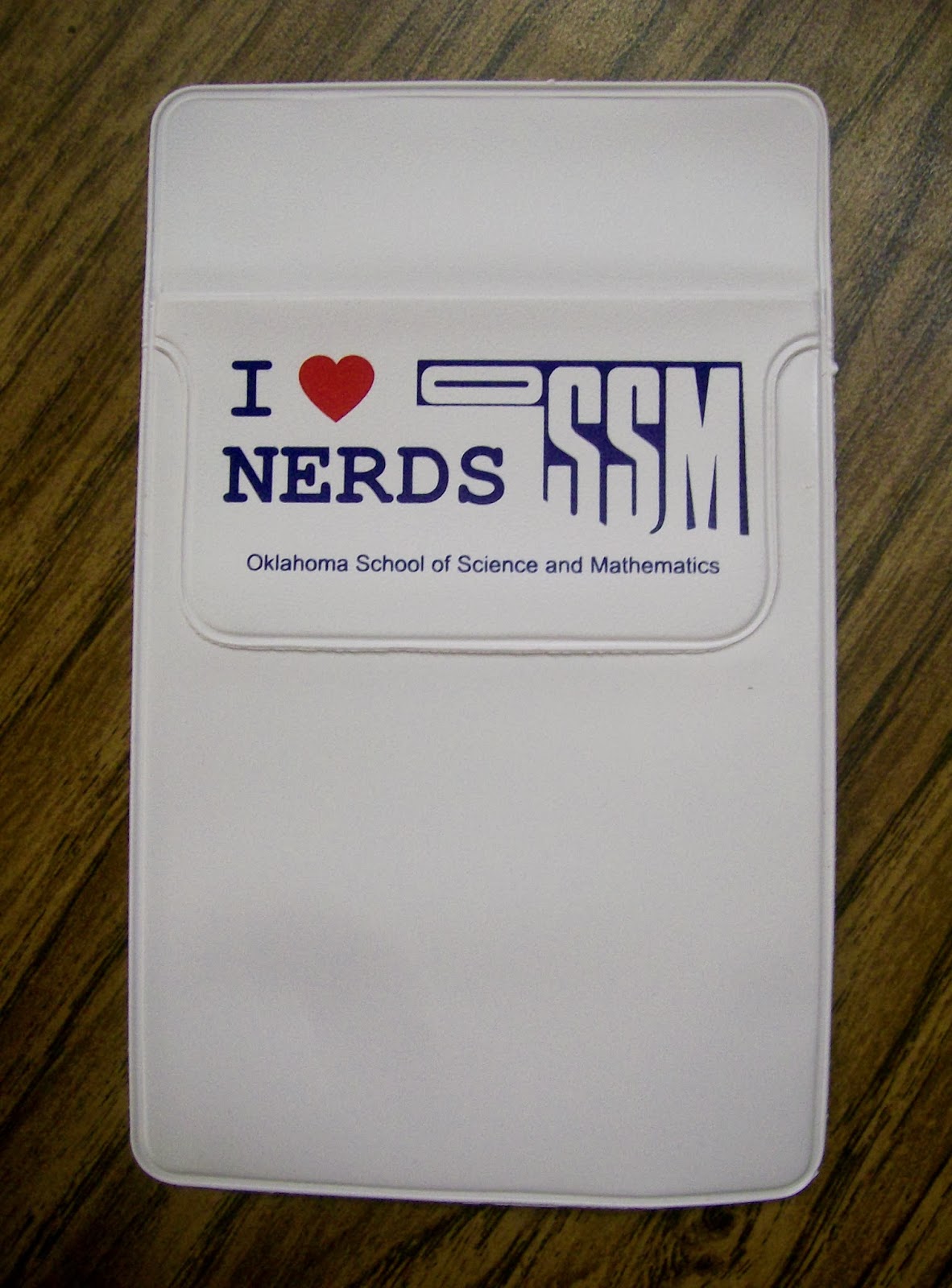
Other highlights of the evening include my very own pocket protector! I also got to meet one of my blog readers which was very cool! I know that when I write something on here that I am putting it out there for the entire world to read. But, I’m still amazed to know that others actually read and use what I share! I also stopped by Dollar Tree while I was in Tulsa. I picked up these awesome neon starbursts.
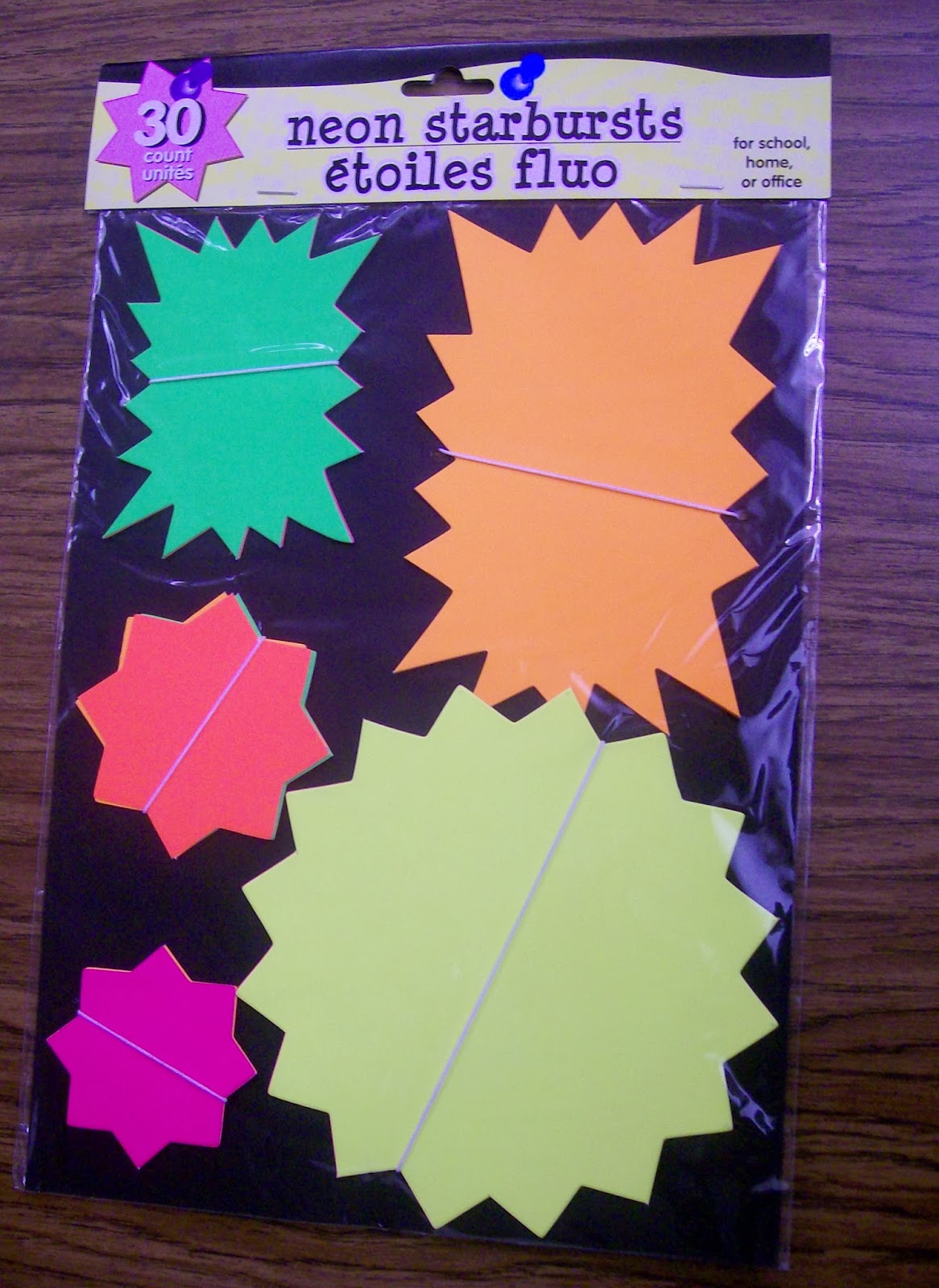
When I bought them, I wasn’t exactly sure what I wanted to use them for, but I knew I had to have them. I ended up buying three packages. On Friday, I decided that these starbursts were the perfect size to write reminders of what various buttons on our calculators do. This was definitely inspired by this pin! I can’t tell you how many times I have had to explain how to type in an exponent on our calculators since school started. I doubt this will solve the problem, but maybe it will help at least one student. So far, I have put up calculator reminders for my Algebra 1 students. I’m still debating on what buttons to focus on for my Algebra 2 students who are using TI-Nspires.
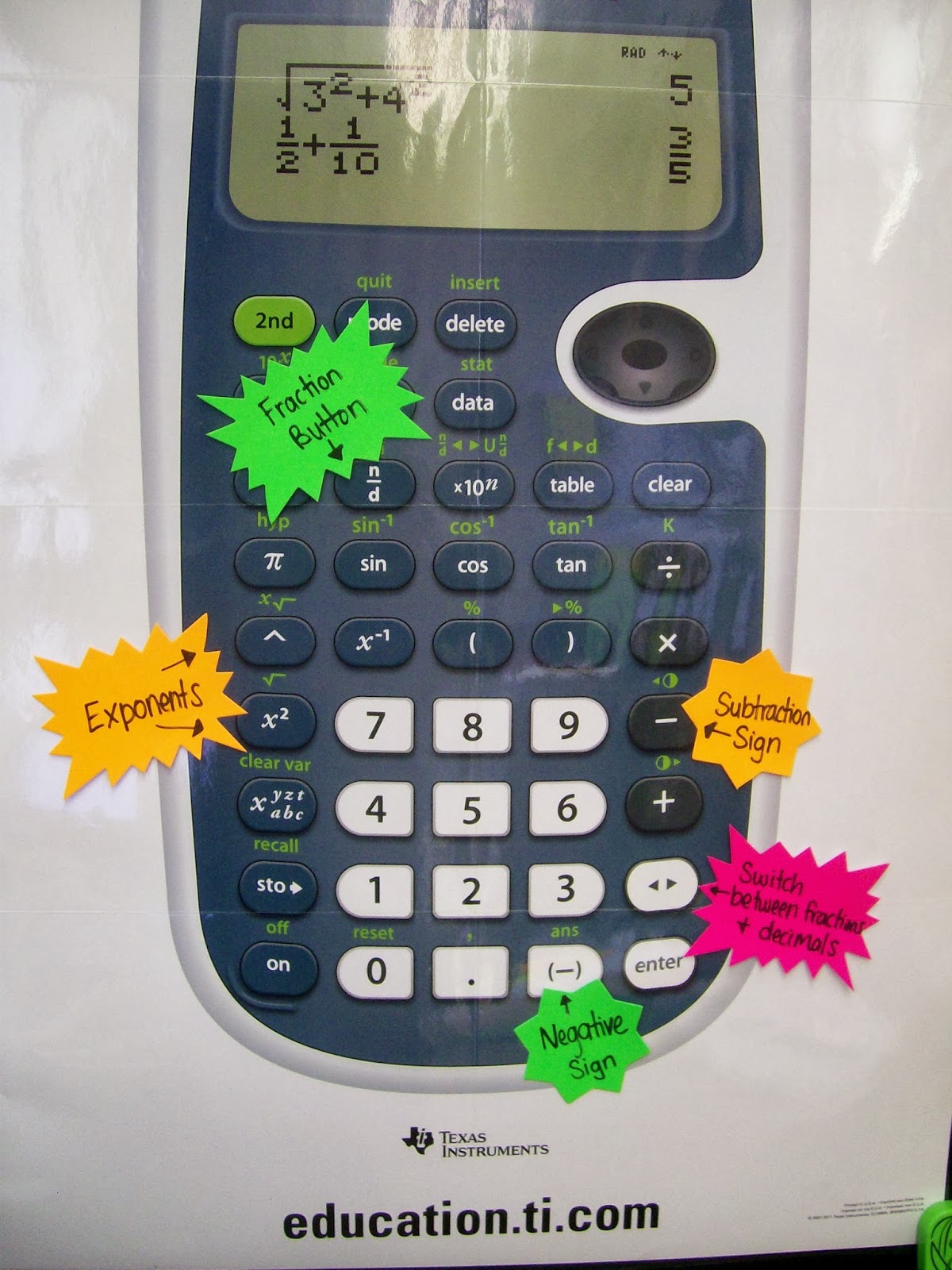
October 7, 2013 – Things Teenagers Say Volume 2
Join me today for Volume 2 of Things Teenagers Say. This is my regular round-up of the crazy and memorable things I hear my students say in class.

“What year was it last year?”
—
Student: Would you kill your kid for 5 million dollars?
Me: First, I don’t have a kid. And, no, I wouldn’t kill my child if I had one.
Student: But, it’s five million dollars!
—
Student: You’ll never guess what the other math teacher just said!
Me: What did he say?
Student: Well, another student asked him “What’s up?” And, he said, “My blood pressure.”
—
Student: Ms. Hagan, can I tell you about my dream?
Me: Well, we’re kind of in the middle of a lesson right now. Can it wait?
Student: I guess, but you were in my dream. So, I really need to tell you about it.
Me: Remind me about it when I get done explaining today’s lesson. Then, you can tell us all about your dream.
<Five minutes later>
Me: Everyone should be working on their assignment now. If you have any questions, make sure you check your notebook first before asking for help.
Student: But, you never let me tell you about my dream.
Me: Okay, tell us about your dream.
Student: Well, I dreamed that you were in a psycho hospital.
Me: Lovely…
(The student then proceeded to tell us her entire dream. It involved two of my students coming to visit me in the hospital. But, they stopped at a bridge along the way, and one of my students fell off the bridge and died. The other student was so distraught that she returned home without visiting me. A while later, she and another friend decided to come visit me again. But, they stopped at the bridge to honor the memory of their dead friend. While at the bridge, the second friend was possessed by the spirit of the dead friend. This possessed child then came to the hospital and helped me to escape. Somehow, I’m pretty sure we all ended up back at the bridge, dead. I cannot make these things up.)
—
I wish my mind was a printer so I could always show my work.
—
While pointing to a three-hole punch that is setting on my desk:
“Is this a stapler or a hole punch?”
—
“Don’t touch this.” – Written near a pool of dried blood on a student’s homework assignment. I wish I was making this up!
—
Don’t say “quiz”! You’re hurting my best friends that are on the side of my face.
—
Student: Where are you from?
Me: I grew up in Coweta.
Student: What state is that in?
Me: Oklahoma. It’s only a little over an hour away from here.
Student: Oh. You don’t sound like you’re from Oklahoma. You have an accent.
Me: I have an accent?!?
Student: Yeah. You have a Wisconsiny accent. I have family in Wisconsin, and you sound exactly like them.
After this conversation, I felt a need to question my statistics students the next hour.
Me: Guys, do I have an accent? One of my students last hour said that I have an accent.
Student: I wouldn’t say you have an accent, but you do have a specific way of saying things.
Me: Oh. This students said I don’t sound like I’m from Oklahoma. She said I sound like I’m from Wisconsin.
Student: I’ve met people from Wisconsin, and you don’t sound like them. But, you don’t sound like you’re from Oklahoma. Maybe that’s because you speak properly.
—
A few weeks ago, my Algebra 1 students BOMBED a distributive property quiz. I was incredibly frustrated and ready to move on, but my students weren’t. So, I printed off an Algebra with Pizzazz worksheet. I’m not the biggest fan of these worksheets. My math teachers in middle school and high school used them, and it seems like the first person to finish always announces the answer to the joke. Then, the other students write down the answer to the joke and don’t actually have to do the math. I still use them sometimes because I love that they allow students to continually check their work, but I do make a big point of telling students that NO WORK = NO GRADE. The worksheet we were doing that day had a particularly cheesy joke that my students did not find humorous at all. I, however, found the joke to be quite amusing. It was one I had never heard before, and it made me chuckle.
Upon discovering this, I was told, “You need to update your sense of humor.”
October 8, 2013 – Finally Arrived
I pretty sure I have finally arrived as a teacher! Why? I am now the proud owner of my very own EZ Grader!
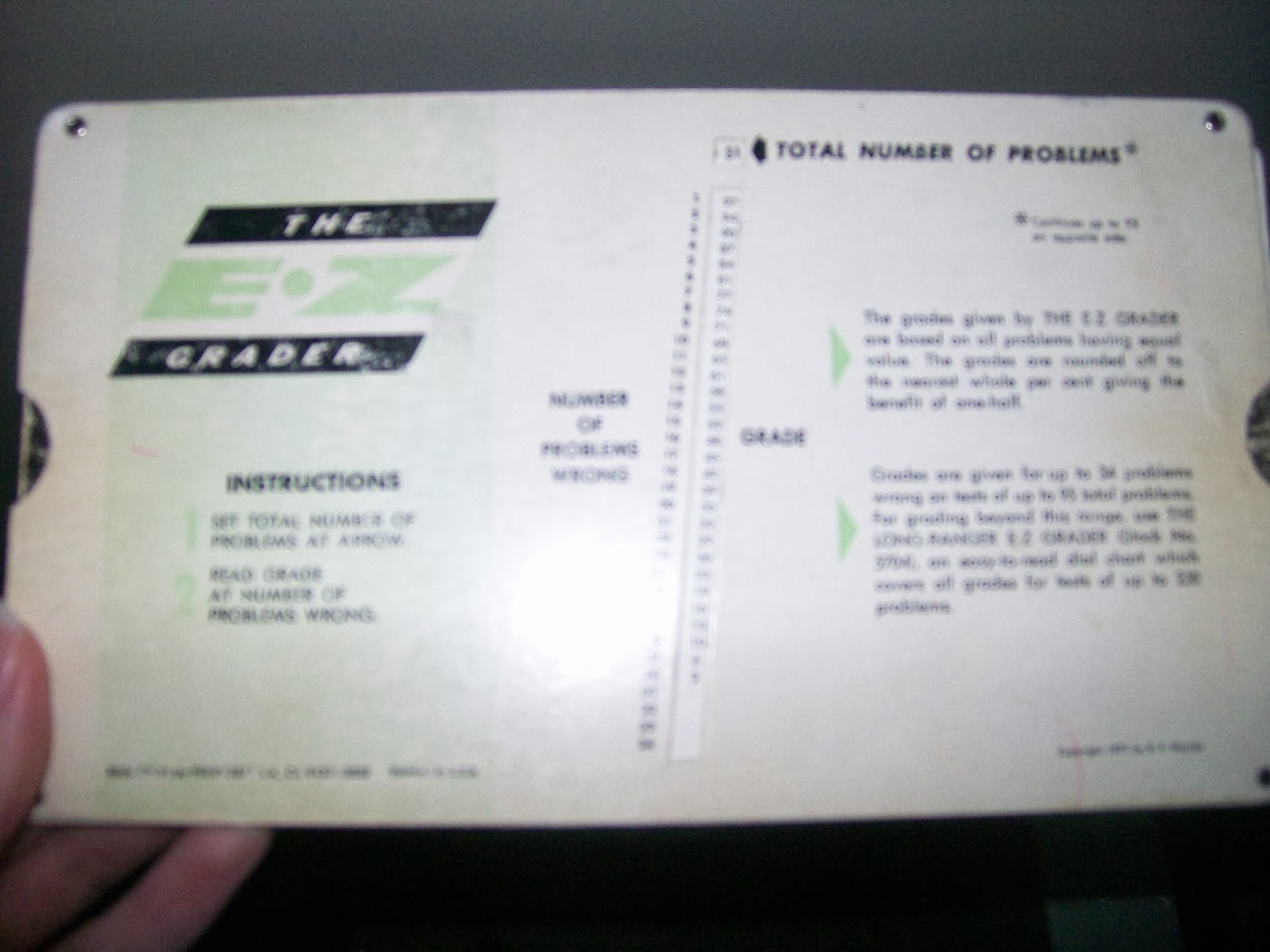
I’ve been wanting one of these since I was in at least the fourth grade. A couple of weeks ago, I was at my parents’ house, and I saw this sitting in a box of stuff to donate. My parents were in the process of cleaning out one of their rental properties that had been abandoned, and my mom had boxed up some teacher stuff to donate. I made it pretty clear that this was not to be donated. This was mine! I finally got a chance to use it last week with my Algebra 2 tests. And, the entire process of selecting the number of problems and finding the students’ grade just makes me giddy! I’m not sure the novelty of this handy gadget will ever wear off… Can you tell that I love what I do?
October 11, 2013 – Student Perceptions
I am continually intrigued by the perceptions students have of their teachers. My students are especially frank and honest. If they love a teacher, I hear about it. If they hate a teacher, I hear about it even more. Working in a small school, everybody knows everybody VERY well. We have two teachers per core subject area (Math, History, English, Science), one teacher per elective (Computers, FACS, Agricultural Education), one special education teacher, one counselor, and one principal. So, when students complain about or praise a teacher, I know exactly who they are talking about. Sometimes the points they make are valid and/or insightful. Other times, they have received some sort of misinformation, or they lack the maturity to truly understand the situation. I require a lot from my students, and I am sure that this is reflected in how students view me and speak about me to others.
Yesterday, two students decided that they were going to challenge each other to a drawing contest. One of the students would pick something to draw, and both girls would have to draw it. Then, they would see whose drawing was the best. The subjects for their drawings ranged from the Mona Lisa to Hitler to an Egyptian Person to a pear to each other to ME! I was a little scared to look at their pictures of me.
I snapped pictures of their Mona Lisas and their portraits of me. I’m not quite sure there are words to describe how I feel about these…
First, I present to you my students’ renditions of the Mona Lisa:
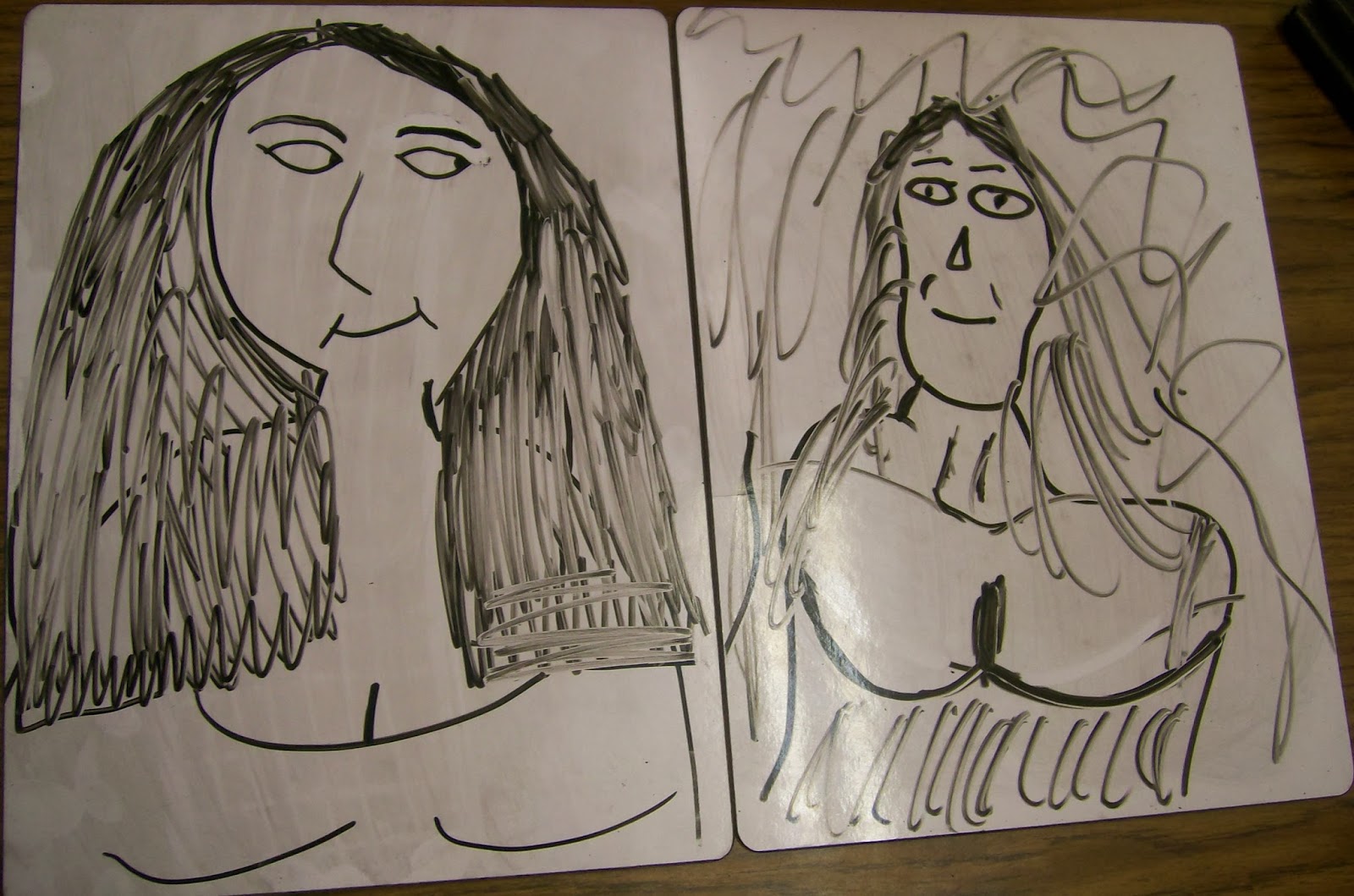
And, now, my students’ portraits of me. I think I fared a bit better than Mona Lisa. Though, I’m still not quite sure what to think…
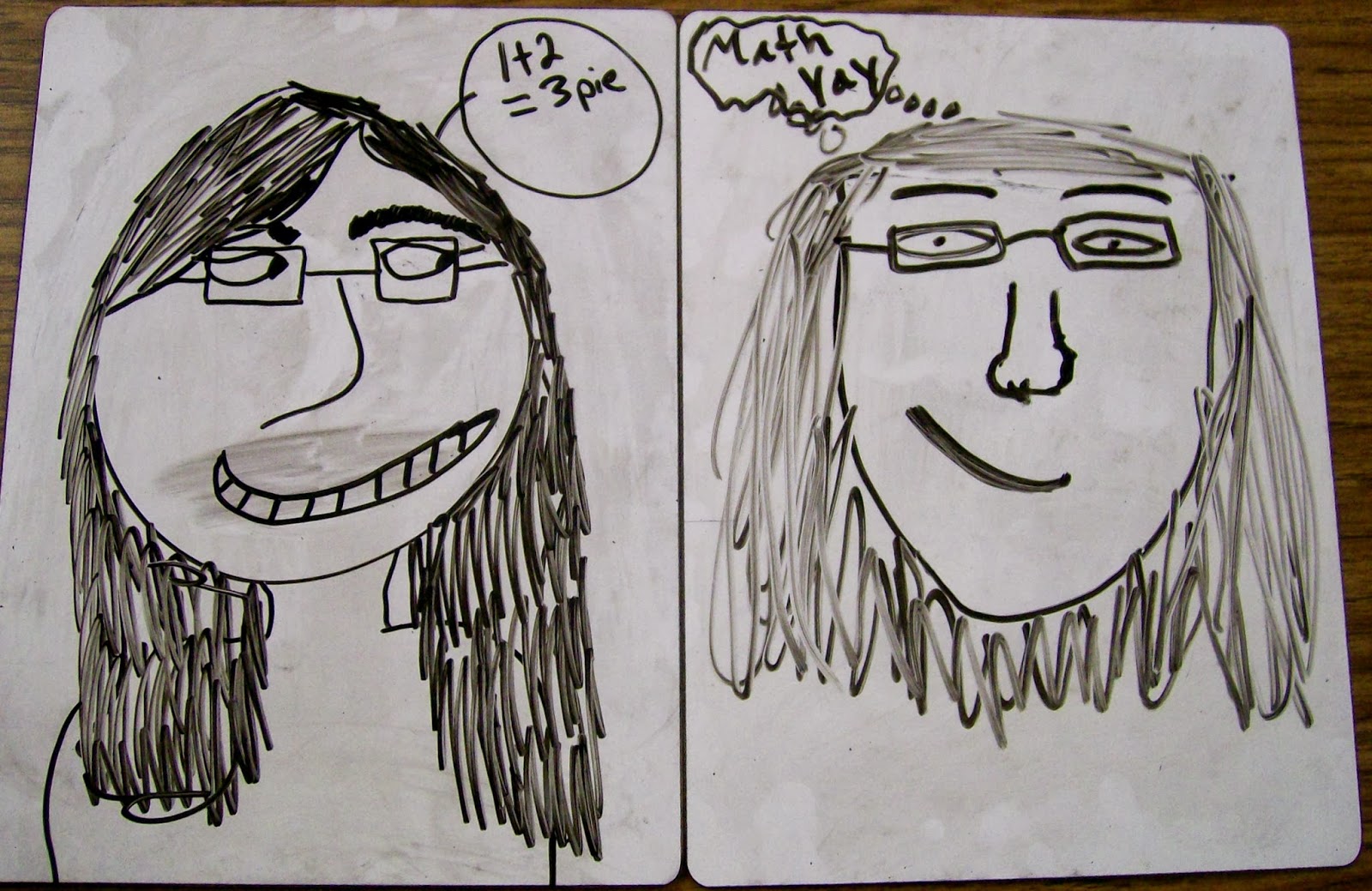
I guess I’m most intrigued by the thought bubbles. Obviously, my students still need some more work on how to spell pi. And, then there’s the fact that one plus two does not equal three pi. One pi plus two pi equals three pi. Is this what they meant? Or, did they just mean 1 + 2 = 3? And, they just threw in the word “pie” for good measure??? And, math is definitely something to get excited about! YAY!!!
October 9, 2013 – Teaching Exponent Rules
Confession time. I am terrible at teaching exponent rules. Correction. I know how to teach them. I am terrible at getting students to see that most of their prior knowledge of exponent rules is wrong. A few weeks ago, I had someone ask me what superpower I would love to have. After thinking about it for quite a while, I decided that I would choose the power to be able to erase parts of the minds of others. If I have to take the time each year to reteach integer operations, the order of operations, and exponent rules to my Algebra 1 students, I would much prefer to teach these to them from scratch. Because as soon as I start reteaching something that they have heard before, their minds shut down and start ignoring me. I guess they are thinking, “I don’t have to listen. I already know this!” But, the problem is that they don’t know this. They think that a negative exponent means that you need to change the fraction to its reciprocal to make the exponents positive. In some cases, this works. But, they are overgeneralizing. They’ve been told that two negatives make a positive. So, -3 + (-5) must be +8. Again, they’ve taken a rule for multiplication and division and overgeneralized it. And, don’t even get me started on the order of operations. No matter how many times I say that multiplication and division must be performed from left to right, I have a student who will argue with me that multiplication comes before division in PEMDAS so we must always do it first.
The same students who have been struggling with all of the above have been rocking our last few lessons on naming polynomials and multiplying polynomials. Why? My current theory is that multiplying polynomials is something they’ve never been exposed to before. So, they actually found it necessary to listen to my explanation…
I know some of you will criticize me for the following. And, I’m okay with that. I know this isn’t perfect. It definitely isn’t ideal. My teaching of exponent rules this year relies on a lot of tricks. I tried last year to have my students discover the rules for themselves. I used the amazing worksheets provided by Don’t Panic, The Answer is 42. We went through each scenario by itself. On the product rule worksheet, my students rocked the product rule. On the quotient rule worksheet, my students rocked the quotient rule. After a week of exploring and discovering each rule separately, I challenged my students to look at a problem and figure out which rule they were supposed to use. They were lost. They could do each rule in isolation, but they couldn’t figure out what rule to use in a given problem. I probably ended up spending two weeks on exponent rules, and I still had a group of students who just didn’t get it.
October 12, 2013 – A Mathematical Breakfast
This week, I’ve been going through all of the pictures that are on my computer. I know there are a ton of things I’ve meant to blog about but haven’t. So, I’m looking for blogging inspiration in my pictures.
This summer, my sister was tasked with making pancakes while we were at church camp. One of the other adult helpers challenged her to make a Z-shaped pancake for our smallest camper who was still in preschool. This Z-shaped pancake for “Zachary” led to an S-shaped pancake for “Sarah.” Of course, my sister couldn’t stop there. She made me a heart-shaped pancake, a pi-shaped pancake, and a right-triangle pancake. So, my breakfast spelled out, “Sarah loves pi.”
I don’t know if the best part was hearing the 3rd-6th graders talk about how they recognized the pi symbol from their math classes or eating apple pie filling on top of my pi pancake…
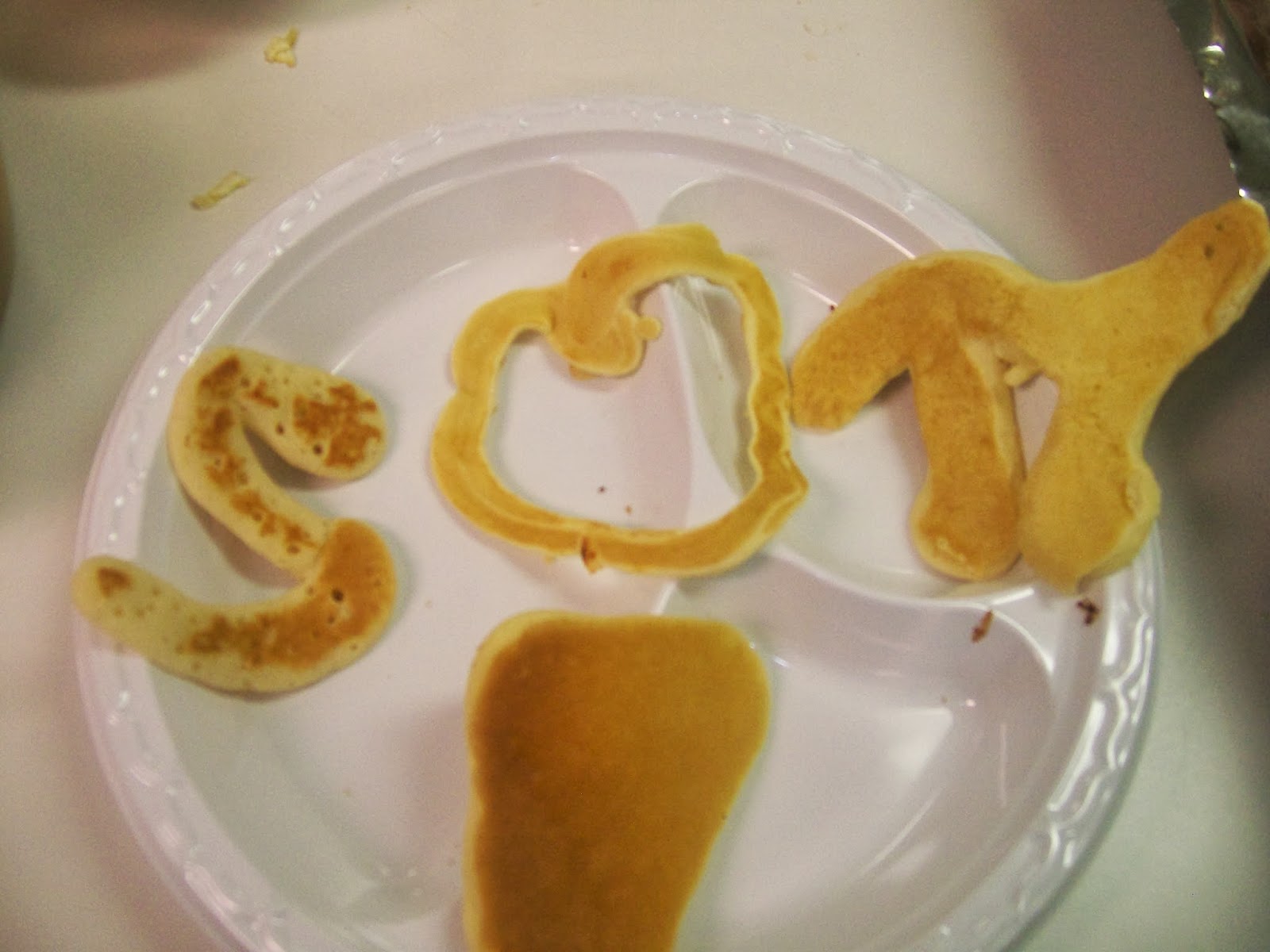
October 13, 2013 – What Can I Do With This?
Okay guys. I need some help. My parents are amazing. They have supported me every step of the way in my teaching endeavor. They helped me move to Drumright. They helped me set up my classroom. They painted the walls. They installed a dry erase board for me. They built me bulletin boards. My mom is always on the lookout for cool things that I can use in my classroom. Sometimes, though, she buys me things to use even if she can’t think of a use for them.
This is one of those things. An ice cream bucket full of pink and blue foam washers. I’ve had these for months now, and I still haven’t figured out what to use them for. So, I’m asking you! What can I do with these?
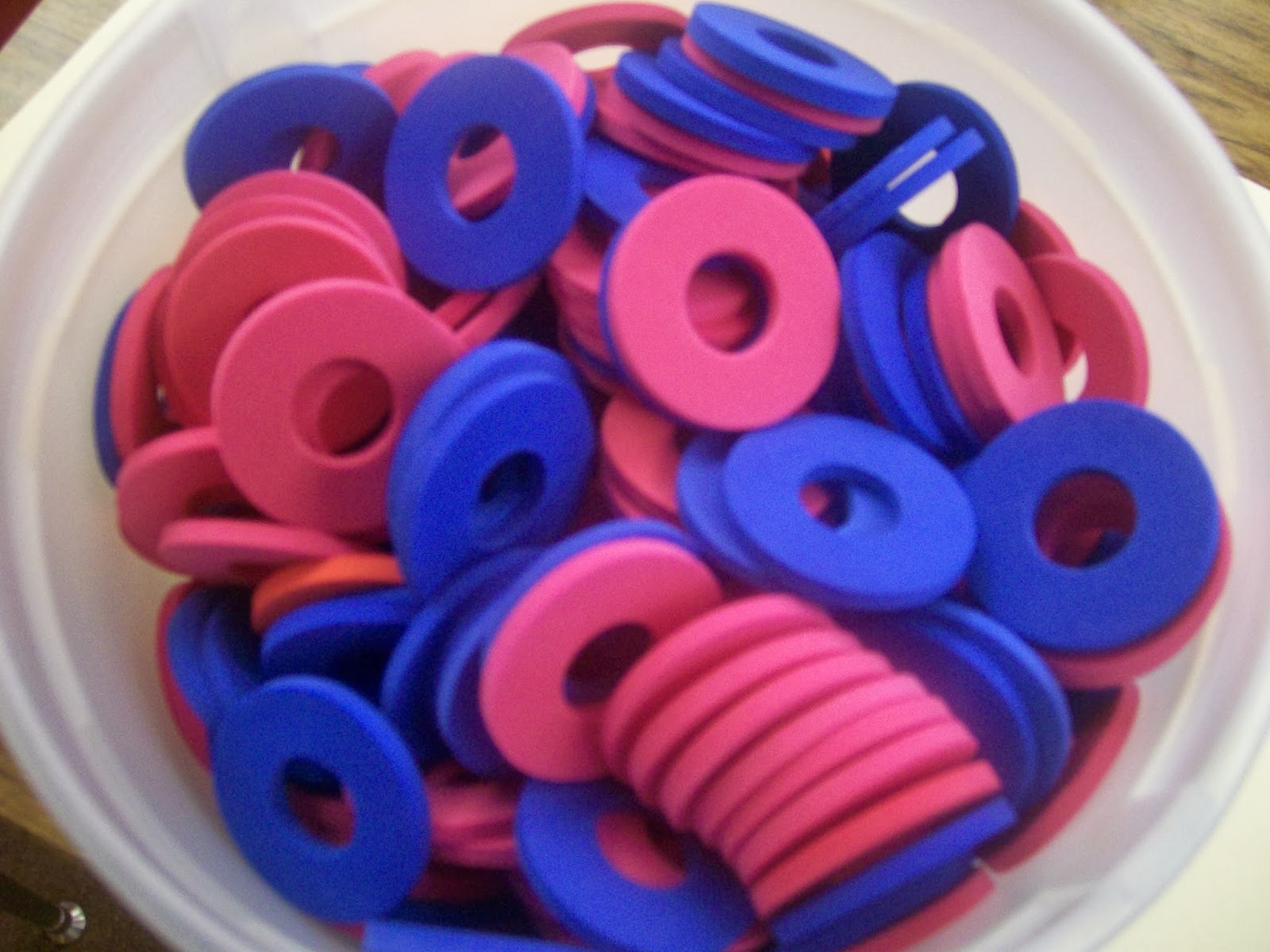
November 16, 2013 – Ms. Hagan’s Museum of Art
Okay. It’s been over a month since I last wrote a blog post. It’s funny. I stopped blogging for a few days because I felt like I had run out of anything to say or share. Then, I kept not blogging because I felt like I had too much to say or share, and I didn’t know where to start.
But, I’m back! This past month has been busy, busy, busy. This past week, I finally got my copy of our Algebra 1 and Algebra 2 interactive notebooks up to date, so there should be lots of posts of new foldables and old foldables and lots of fun stuff in the next few days. (My copy of our notebooks was so out of date that my students told me that if I was taking my own class, I would be failing!) I’ve taken the pictures. I’ve uploaded the templates to box.com. Now, all I have to do is write the posts. If you don’t see them posted in the next few days, feel free to barrage me with e-mails and comments.
About two and a half weeks ago, I had a couple of students draw pictures on their dry erase boards and display them on the wall. The fad has continued, and sometimes I feel like I have my own art museum in my classroom. Pretty soon, I’m not going to have enough boards left for all my students to have one to do work on, though. So, the art museum will have to come down. But, I did take some pictures. And, I thought I’d share these pictures with you. When students take pride in their work and want to display it, it makes me happy. Now, I only need to find a way to make this carry over into mathematics.
Sir Tweet started the entire thing. T-Rex is probably the newest edition to the art museum.
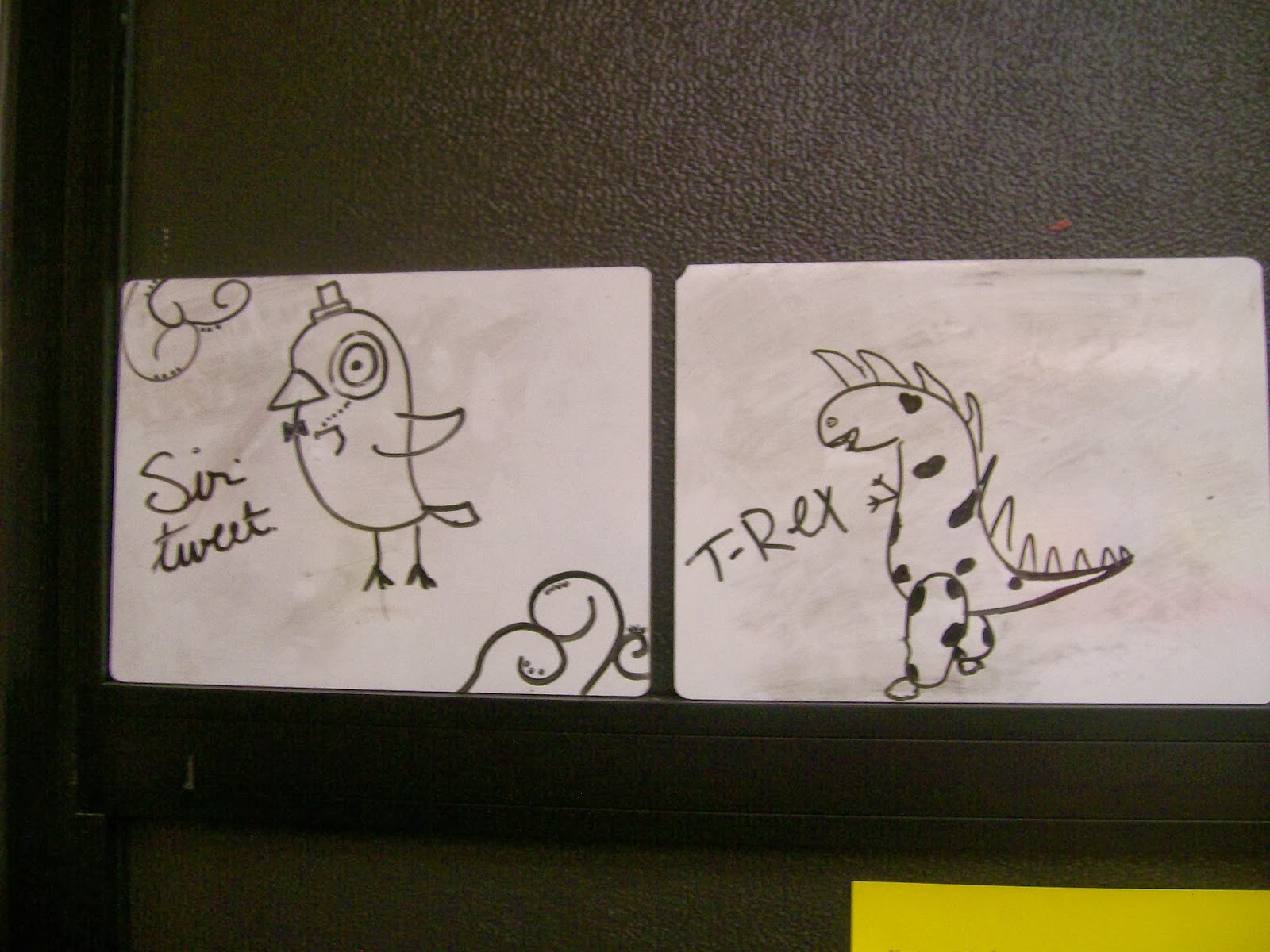
After seeing Sir Tweet, another student thought he could do a better job. So, another bird was added to the museum. Debate ensued for days about which bird was better.
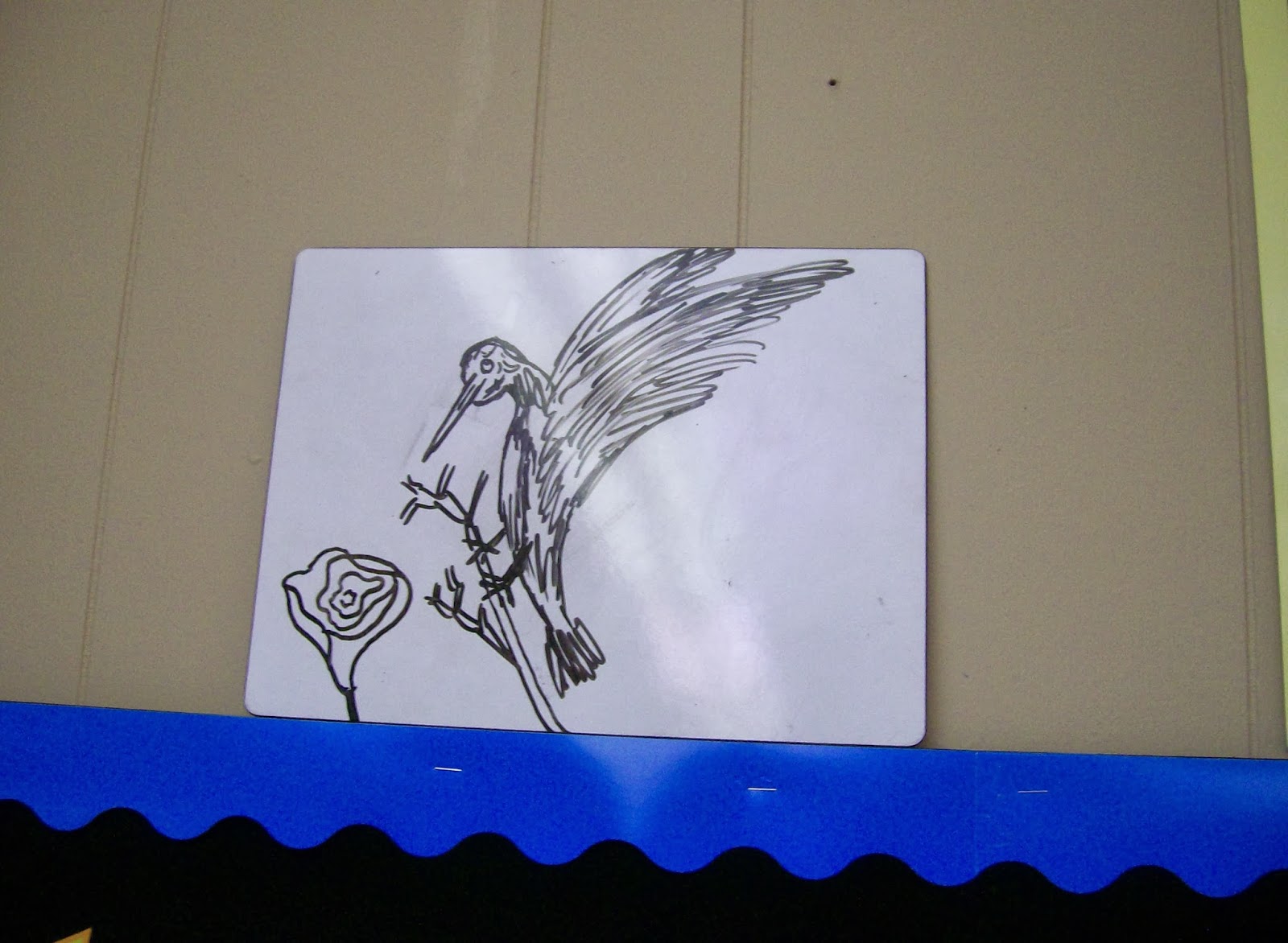
The creator of Sir Tweet told me a fictional story one day about a giraffe, an elephant, a boy, and a girl who went on a double date. It was a rather involved story involving going to the movies and traveling to Narnia. Another girl provided this illustration of the story.
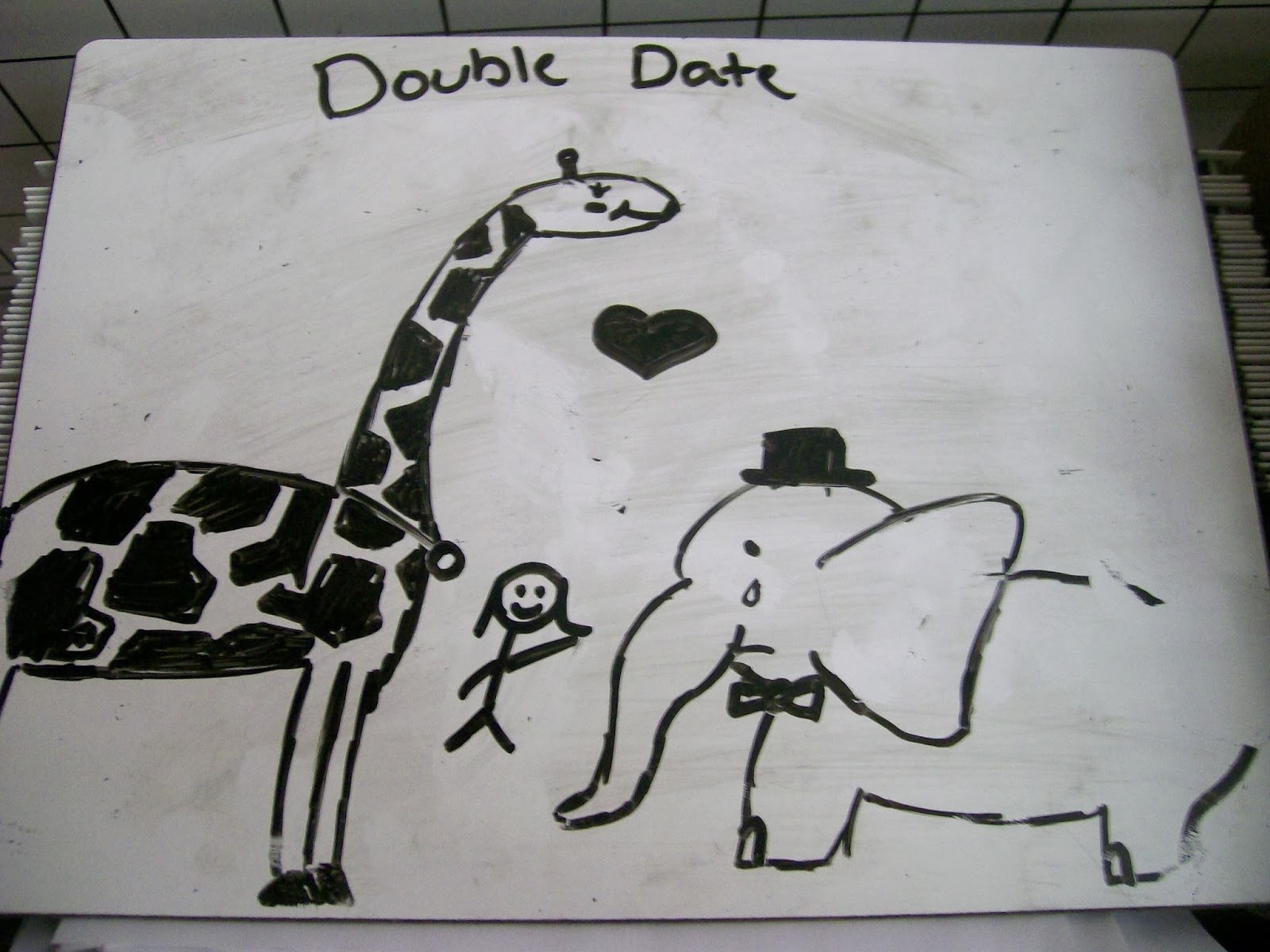
I have two students who sometimes come into my room during my planning period to work on homework. Inspired by the picture of the giraffe and elephant’s date, they decided to draw a picture of the baby produced by the giraffe and elephant. I tried to explain that this was biologically impossible, but I was told that it was cute and that is the only thing that matters.

Maybe the reason I am so impressed by my students’ artwork is that I am a terrible artist myself. My sister, on the other hand, is an amazing artist. She’s currently in college to become an elementary school art teacher. The only drawing I do is to illustrate math problems. (And, to provide comic relief by doing so.) Here’s a recent drawing I did while tutoring a student. This student is taking Pre-Calculus/Trig at our local technology center, and they have been working with angle of elevation and angle of depression problems.
Can you tell that is a light house and a boat? I was told that it looks more like a candle and a banana..
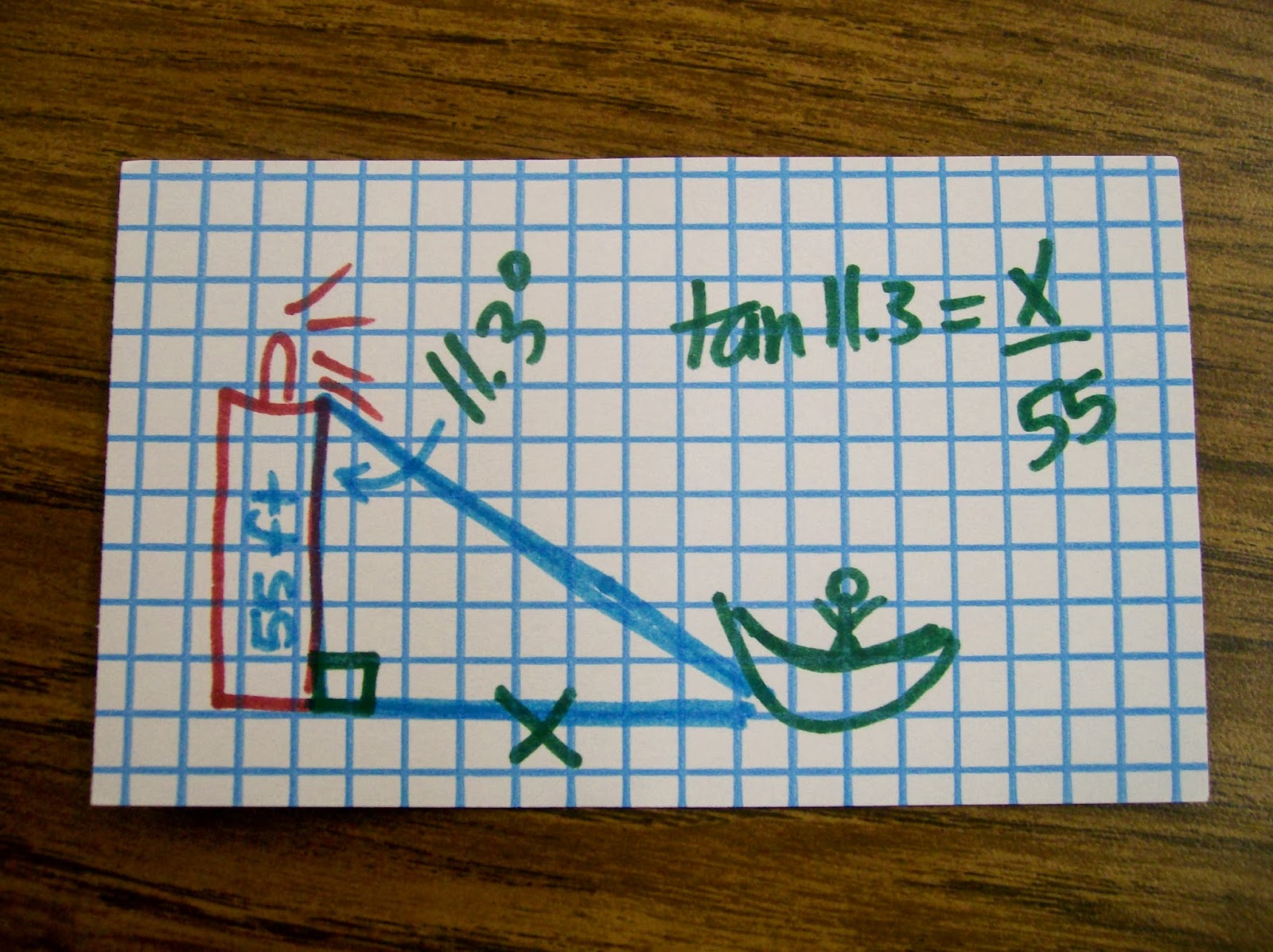
November 17, 2013 – Rock Paper Scissors Math Tournament
NOTE: This post has been sitting in my drafts since October 14th. So, when it says “last week,” it actually means “quite a few weeks ago.” 🙂
This last week of school was a weird one. Monday and Tuesday were normal. My Algebra 1 students started factoring quadratic trinomials with a leading coefficient of one. My Algebra 2 students started graphing basic exponential functions and their transformations. On Wednesday, my students had a substitute while I took my student council kids to our district meeting. The speaker at our meeting was Lance Lang, and I really enjoyed listening to his message of hope. I was inspired to do a better job in my classroom of being a dealer of hope.
On Thursday, my school took two buses full of students to the state softball tournament. Our girls did an awesome job, and they advanced to the next level of competition. On Friday, my school, again, took two buses full of students to the state tournament. Normally, we have around 160-180 students in the school building. For the past two days, we’ve only had around 60 students in the building. This means that there was no way that I can go on with my intended lesson plans. Approximately a third of the remaining students did not go to the softball game due to their ineligibility. So, these students have been able to spend the past two days getting missing assignments completed and turned in. I’ve worked hard to help these students get their missing work caught up! Making sure a dozen students are all on task when they are all doing something different is a monumental task!
Friday morning, we had our students for the first two periods of the day before they boarded the bus for the tournament. Second period, I used this as an opportunity to measure where my Algebra 2 students currently stand with exponent rules. We are currently in the midst of our third unit of the year: Exponential Functions and Exponent Rules. Based on their responses, I’m not going to have to do quite as much reteaching as I thought. We finished with the exponent exploration with about 20 minutes of class left to spare.
Since it was Friday and game day, my students really wanted to play another game. One student begged to play “Heads Up Seven Up.” I told him that we couldn’t play that because it wasn’t a math game. Of course, he argued that it was a math game because it had a number in the title. Instead, I offered to let them have a Rock, Paper, Scissors Tournament. Immediately, their interest was piqued. Of course, I had to put a mathematical spin on it.
Several months ago, I ran across a short video clip on pinterest of a brain break that involved Rock, Paper, Scissors and multiplication. I thought it was a cute idea, and I filed it away in my brain.
I actually let my students choose any number of fingers from one to five, instead of the one to four mentioned in the video. So, the premise is simple. Students say “Rock, Paper, Scissors,” and then they throw out the number of fingers of their choosing. They look at their number of fingers and their competitor’s number of fingers, and the first one to correctly multiply the two numbers together and say the answer aloud wins.
I’m pretty sure that this activity is meant for younger students, but my Algebra 2 students loved it.
My plan was for students to pair up and play a round. The winners would remain standing. The non-winners (sounds better than losers) would take a seat. Then, we would continue until a winner was crowned. My students were not satisfied with this plan. After all, if this is a tournament, we might as well go all out.
So, a tournament bracket was made. I quickly googled a website that made brackets. I typed in all of my students’ names. Consequently, I shocked all of my students with my ability to type without looking at my fingers. They were amazed. Apparently, it sounds like bullets are shooting when I am typing. I guess my students aren’t used to hearing someone type over a hundred words a minute.
I took a screen shot of the tournament bracket and put it up on the Smart Board.
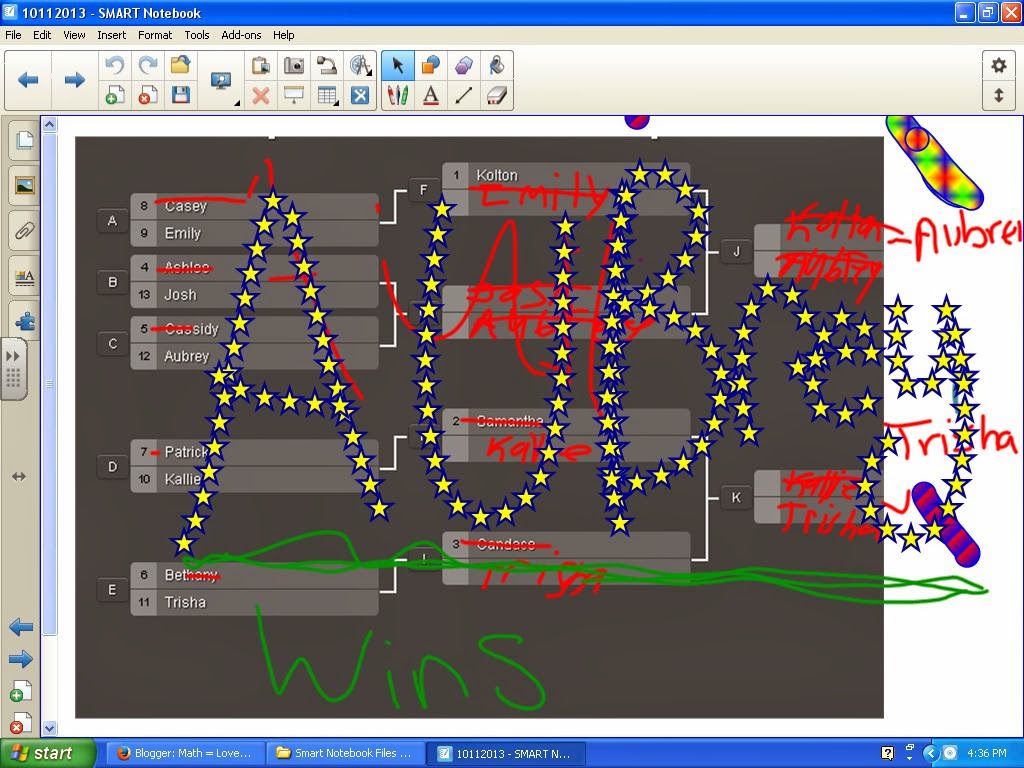
The competition was intense. Instead of playing multiple games at once, everybody watched as each pair competed. The rest of the class served as judges as to who answered first. If I was to do this over again, I would have everybody play a few practice rounds before beginning the tournament. That would have solved a lot of our problems.
Also – I would change the rules to say that only the first answer you say counts. I still have quite a few students who struggle with their basic multiplication facts, so this was a nice review for them. The engagement level during this activity was AMAZING. I would love to adapt this activity to feature review of an Algebra 1 or Algebra 2 topic. Ideas? My Algebra 2 kids are never this engaged, and I would love to harness this power!
Oh, and the winner received a much-coveted award. (They got to pick their certificate.) I’m pretty sure I could get my kiddos to do anything for one of these awards. The tournament champion was actually a student that I had last year for Algebra 1. She never won an award in Algebra 1, so she was very, very, very excited to finally win one this year.
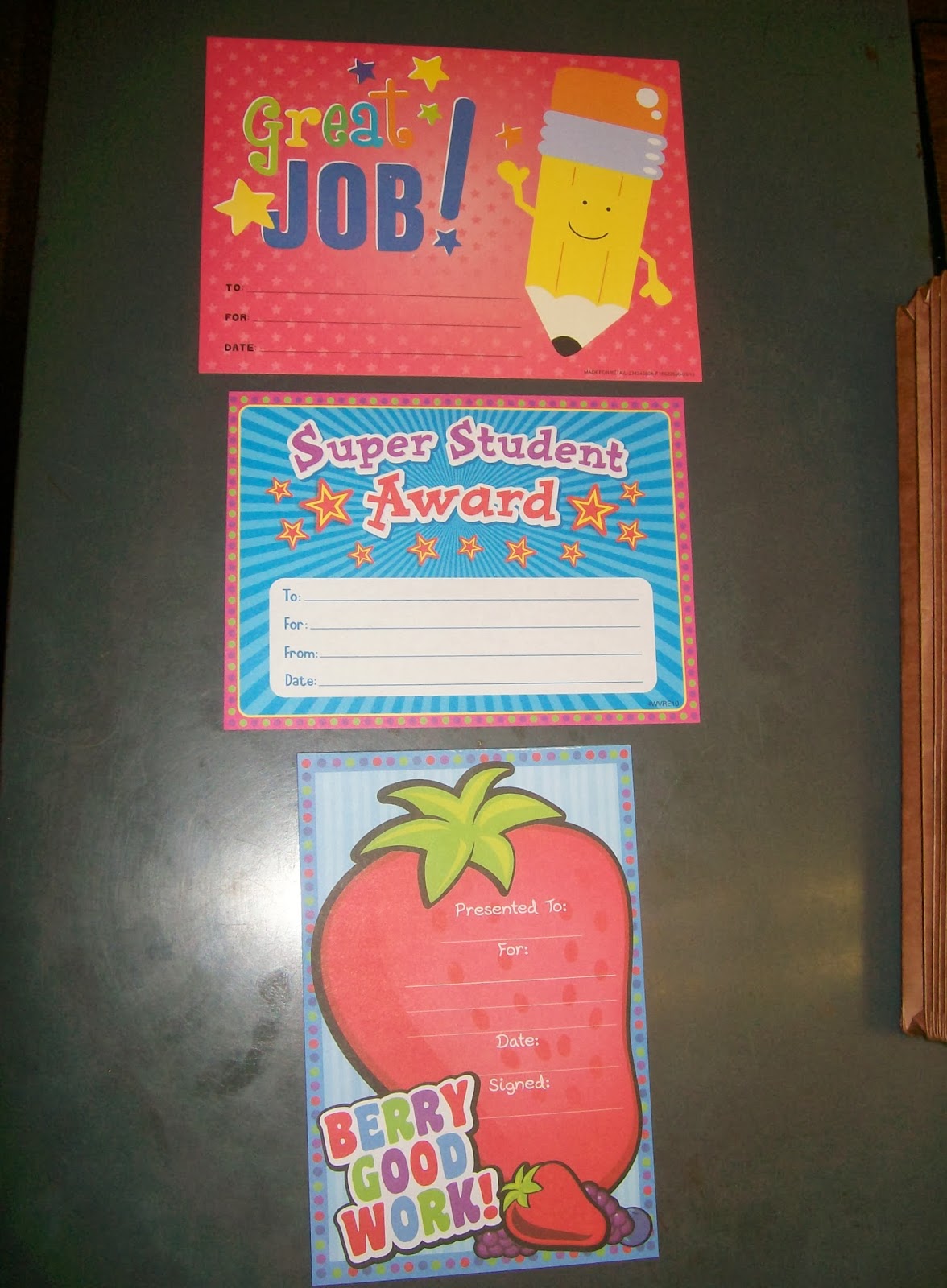
November 20, 2013 – Why I Teach
Today, one of my students asked me if I planned to continue teaching for the rest of my life or if I was planning to change occupations in lieu of more money. Teaching is all I have ever wanted to do. I was the kid who started keeping a list in middle school of all of the favorite activities I had done in school in every grade since the first grade so I could one day implement them in my own classroom. I know you are insanely curious about what activities made the list! My second grade teacher had a great method of practicing spelling words. My third grade teacher’s memorable lesson about the first assembly line involved us assembling our own cars out of candy. In the fourth grade, I got to dye carnations using food coloring and make my own fossil of a sea shell using plaster of paris in an empty milk carton. My fifth grade experience was characterized by the amazing book report projects that we had the opportunity to complete. Plus, we got to do a lot of history projects and make teepees out of tortillas! I’ll never forget my sixth grade homeroom teacher and the amazing classroom culture she created. I still have a piece of paper with a heart on it that is covered in affirmations from my fellow classmates. My sixth grade math teacher taught me that math could be taught effectively through fun and games. And, my sixth grade science teacher led us through the only dissection I ever enjoyed–a flower! There were more, but I think you get the picture. 🙂 Looking back, I’m not sure exactly what type of teaching job I expected to have. I certainly can’t think of a job that would allow me to do ALL of those things.
During my senior year of high school, I was incredibly blessed to be able to work with my AP English Literature teacher, Mrs. Elliott, to perfect a number of scholarship essays and my valedictorian speech. When most people found out that I planned on entering the education field, they would often do their best to discourage me. Many of my teachers told me that I should pursue something worthwhile like law school or medical school, not an education degree. I was told I was wasting my talent. My own high school principal advised me to go into “anything but education.” Mrs. Elliott was different. She encouraged me to pursue my dream of becoming a teacher. We talked about the difference I would be able to make in the world. (Of course, I think she is still disappointed I am making a difference in the world by teaching mathematics instead of English!)
Just over six years ago, my senior English teacher helped me to take my feelings, my dreams, my desires and put them in more eloquent words than I could have ever imagined possible: “My goals keep me focused, eternally striving, and determined to overcome life’s obstacles. Life is too transitory to waste in search of riches or celebrity status. I accept that teaching is not going to make me rich. Nor will it bring me fame. The self-fulfillment resulting from the knowledge that I have touched the lives of this country’s future engineers, congressmen, doctors, lawyers, teachers, and astronauts will provide an intrinsic joy that cannot be found elsewhere. A teacher’s profound influence may never be fully known, but unlike fleeting fame and wealth, it is immortal.” And, those words still ring true today. Teaching has definitely not made me rich. And, I only have to deal with the fame of teaching when I go to Wal-Mart or the only grocery store in town.
But, my every action touches the lives of the 85 or so students who sit in my classroom on a daily basis. Add to that the 65 students that I was blessed to teach last year. I realize that doesn’t sound like a lot. There are 7.125 billion people in the world, and I have impacted the lives of approximately 150 teenagers. I don’t see the numbers, though. (What a shocking thing for a math teacher to say, right?) I see the faces. I see the face of the girl who won her first ever award for her performance in my Algebra 1 class. She was so shocked to hear her name called during the awards assembly that she didn’t come up to the front to be recognized. I see the face of the student who passed her Algebra 1 EOI last year after failing Algebra 1 the previous year, Algebra Fundamentals the year before that, and 8th grade math the year before that. I see the faces of the parents who tell me that they had never heard their child say that they liked anything about school, or (gasp!) math, until they took my class. I remember the face of the boy who interrupted my lesson one day to say, “You make math fun!”
Sadly, these aren’t the faces of this country’s future engineers, congressmen, doctors, lawyers, teachers, or astronauts. These faces belong to students who have lived harder lives than I could ever imagine. These are students who I will never see walk across the stage, donning their cap and gown. They have dropped out, moved away, made irreversible decisions. But, I have still made a difference, an unquantifiable difference.
I get to spend my days surrounded by students. I teach them math, and in return, they teach me about life. They teach me about what it looks like to overcome unimaginable obstacles. They teach me about the power that a single word can carry. They teach me things without even realizing it. Joy punctuates my day. I laugh. I cry. I get way too excited about polynomials. I tell jokes to my students. They try their hardest not to laugh. Okay, not laughing usually doesn’t require that much effort. We celebrate the good things that are happening in their lives. They are my students, my kids, my life.
So, to the student who asked but will likely never read this blog, no. No, I would not trade this job for a job I hated, even if the other job offered $2 million dollars. I can’t imagine another job that could make me feel so fulfilled. Yes, there are the days that are characterized by stress and not so good parts of being a teacher. But, even those days are made better by my students.
Veterans Day was one of those days. I was stressed to the max, trying to get the PowerPoint presentation ready for that afternoon’s assembly. After running upstairs to check and see if the Veterans Luncheon was going smoothly, I returned to my classroom to grab my lunch. I got the surprise of my life when I walked in the door. Two of my students had brought their lunches to eat in my classroom. This was not surprising. I often have students hang out in my classroom for all or part of their lunch period. No, I was surprised by the fact that they had pushed two desks together, covered them with a red table cloth, placed a glass vase on the table, set a “Reserved” sign on the table, and lit a tea candle. An origami flower ornament had been commandeered from my cabinet to set in their vase. And, there they sat with their lunchables, sweet tea, and dill pickle potato chips. I couldn’t do anything but stop in the door way and laugh. Without realizing it, these two sweet girls had made my day. And, I can only hope that I do the same to someone else at least once a day.
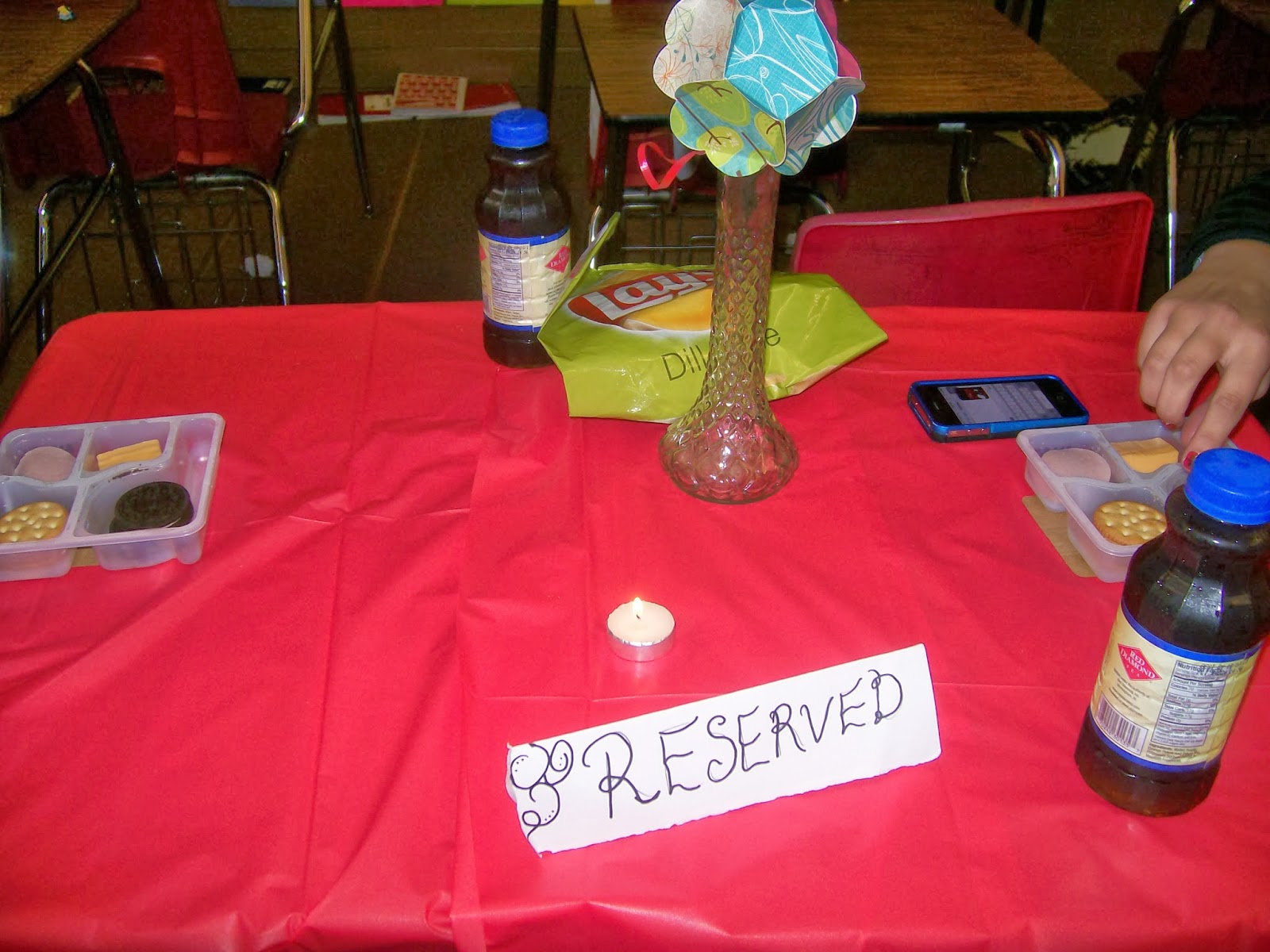
November 26, 2013 – A Tiny Change
Have you ever just made a tiny change to how you teach something and been shocked by the difference it made?
A couple of weeks ago, I was tutoring one of my Algebra 2 students after school. We were multiplying polynomials, and he was getting the multiplication correct. But, he was messing up when it came to combining the like terms. After trying the same problem multiple times, I decided to write it out on the dry erase board as he told me each step.
Usually, I have students put squares or circles around like terms or squiggles or lines underneath them. This usually does the trick. This time, however, I decided that I would line up all of the x cubed terms, x squared terms, etc. This way, when I went to combine like terms, I just had to add the coefficients instead of worrying about where all the like terms were. The student seemed to like this method. And, I was kinda impressed with myself for my last minute creativity. I had already been at school for almost twelve hours at this point, so I was a little brain dead.
I didn’t erase the board before going home, so this problem was still up when my Algebra 2 class came in the next morning. A few of my students noticed it and mentioned how they really like this method of organizing your work.
I took a picture, but the problem had been up for multiple days by that time. So, the answer has been partially erased. Sorry about that! Maybe everybody else has been teaching this way all this time… Or, maybe this will be new to you as well. If this post helps or inspires one person, it was worth it.
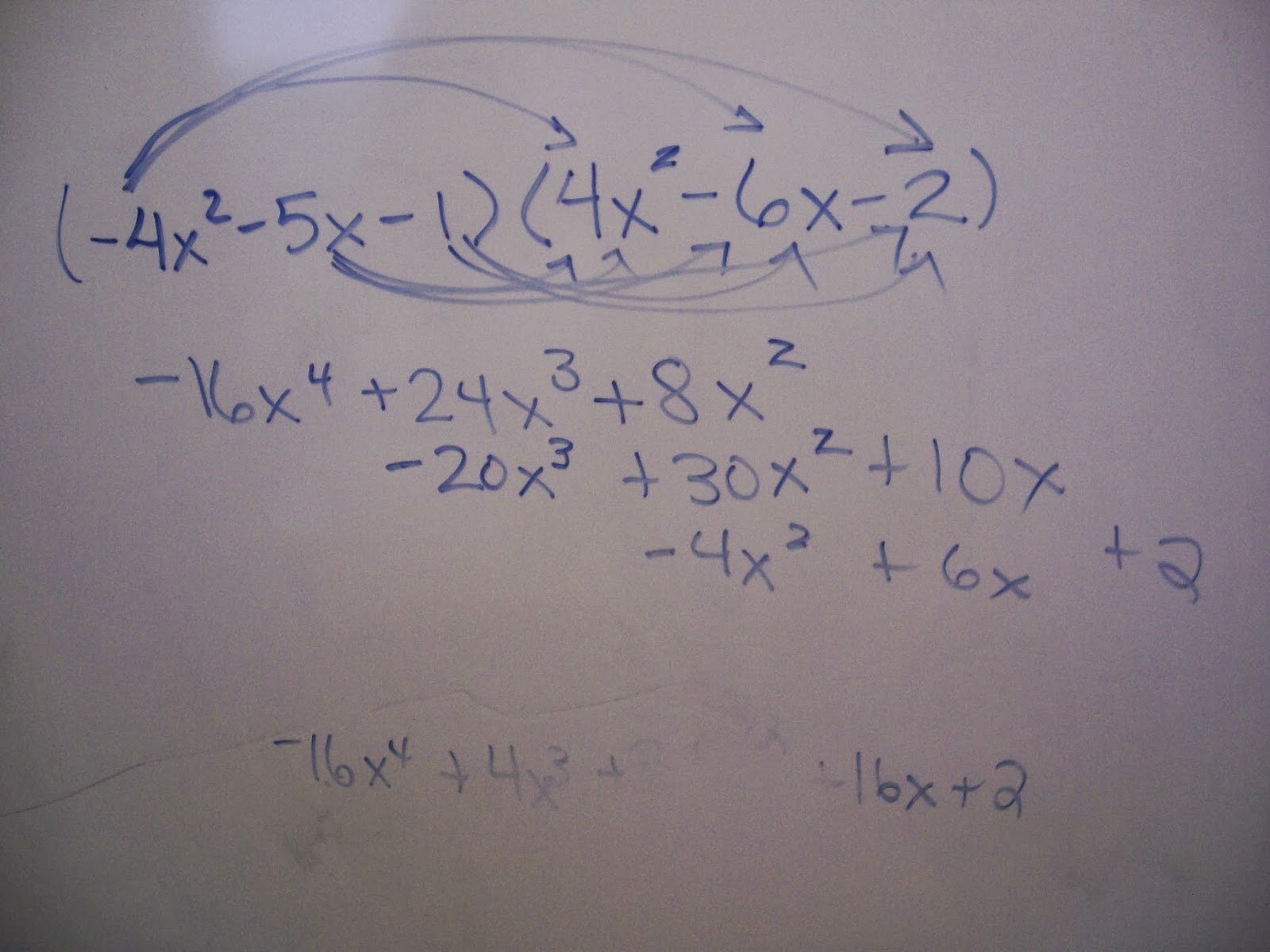
November 27, 2013 – Two Cubed Times Three: How a Math Teacher Celebrates Her Birthday
Monday, I was blessed with the opportunity to do a rare thing: celebrate my birthday on a school day! My birthday almost always falls on Thanksgiving Break or the weekend. So, I can count on one hand the number of times that I’ve been able to celebrate at school. This was my first birthday celebration at school as a teacher, and I was pretty excited.
I had been talking up my birthday for weeks. Well, I guess it was actually more of a lament. I lamented the fact that my age was no longer going to be a prime number. In fact, I was going to have to spend the next 1,826 days as a prime number. There were two typical responses. Response 1: What is a prime number? This response was quickly followed by an “I’m so glad you asked!” and a short math lesson. Alternately, Response 2: You love math way too much. To this, I just smiled. It’s true. I do love math. And, I’m glad my students can see my passion for the subject through my words and actions.
The celebration started a little early on the Friday before my birthday. I found sweet messages like this one written on my dry erase board.
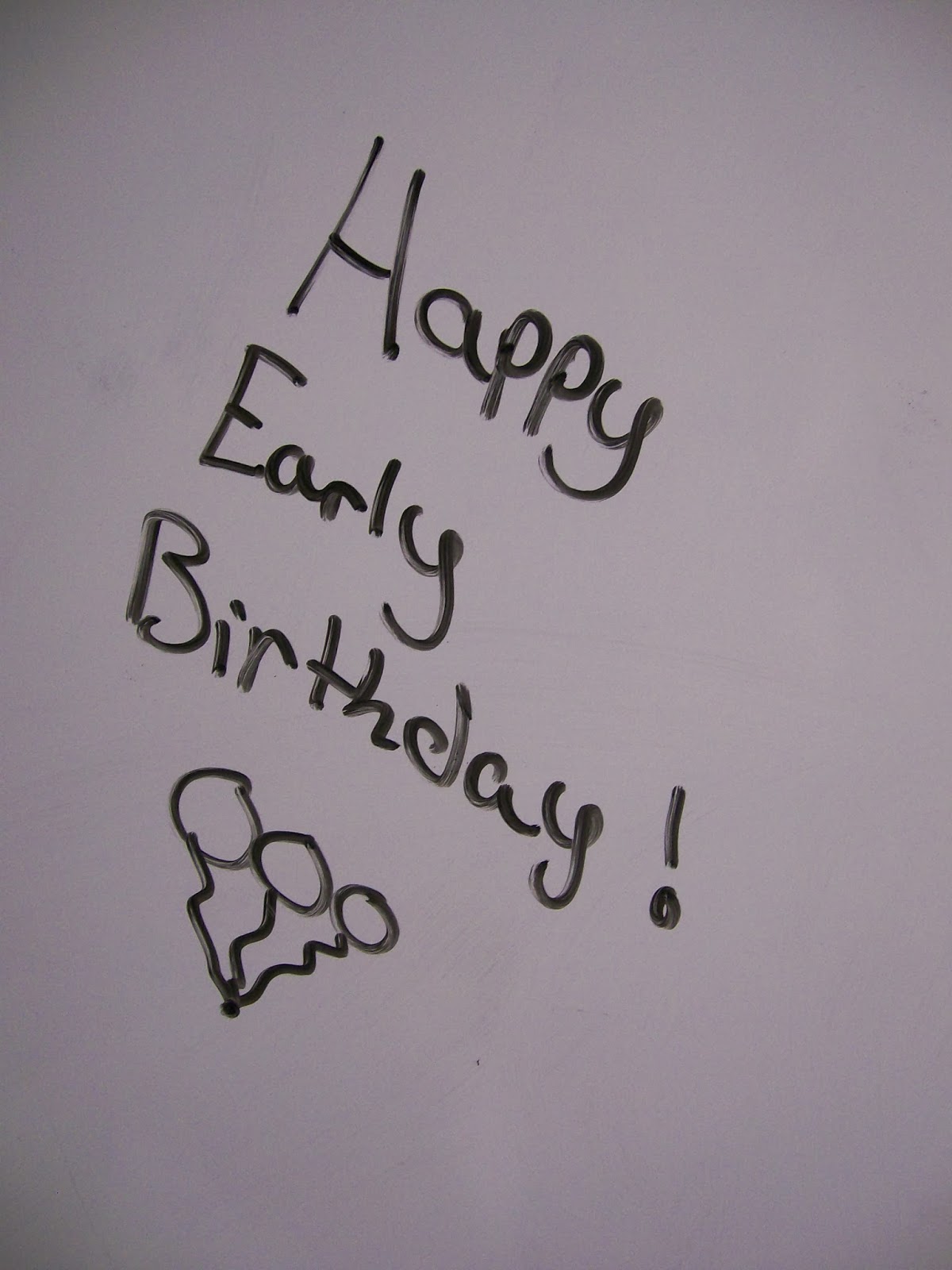
On the morning of my birthday, I changed the date and holiday to match the occasion.
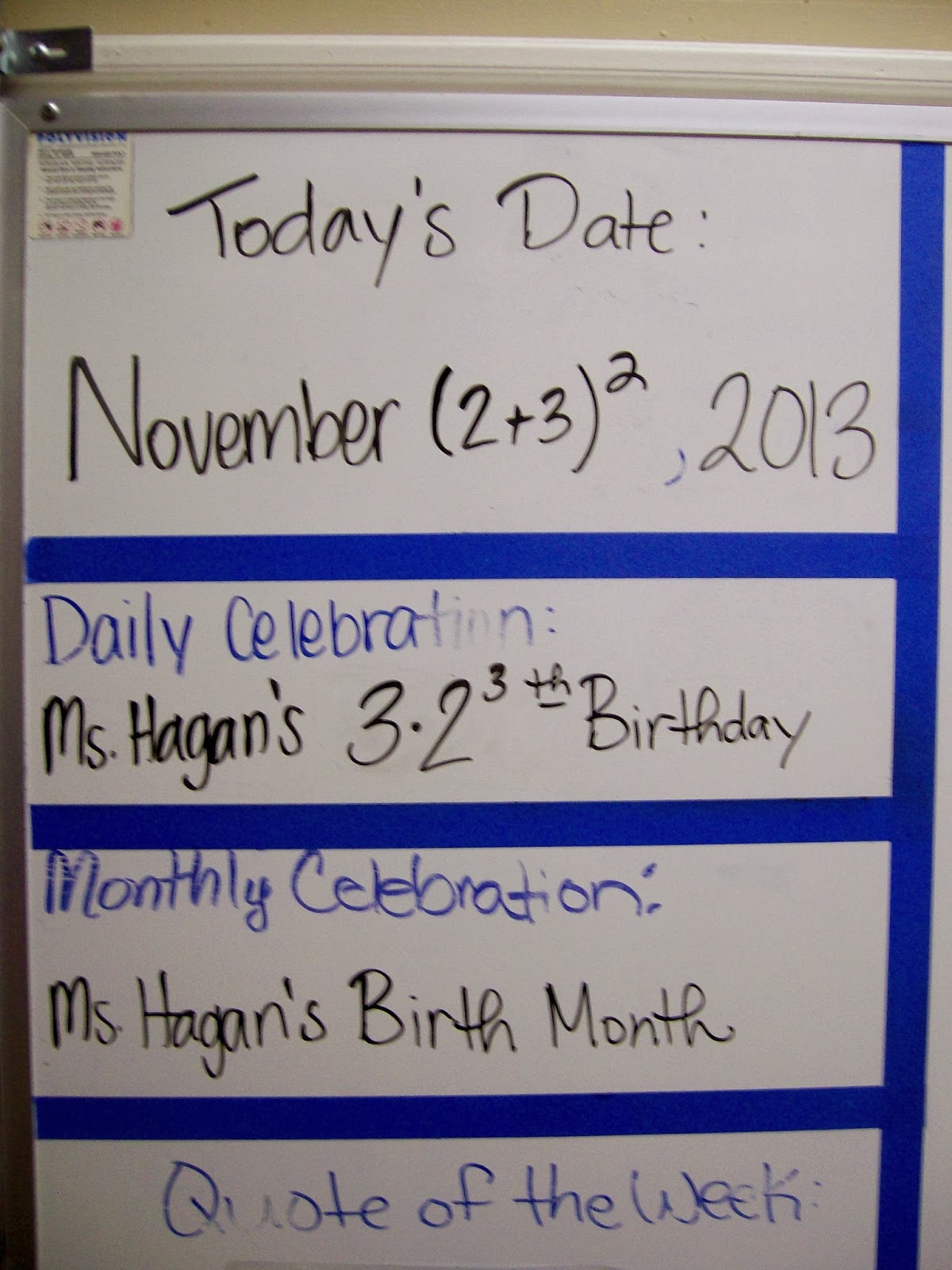
I was quickly informed that my monthly celebration was a tad too restrictive. Apparently, other people are born in November, too. After going to the teacher’s lounge to make some copies for the day, I returned to find a lovely birthday surprise.

A birthday cake! The giver was so sweet and apologetic: “I got you a birthday cake! They left off the Miss and misspelled your name. I’m so sorry, but I got you a cake!”
Here’s a picture of me and my beautiful, thoughtful cake.
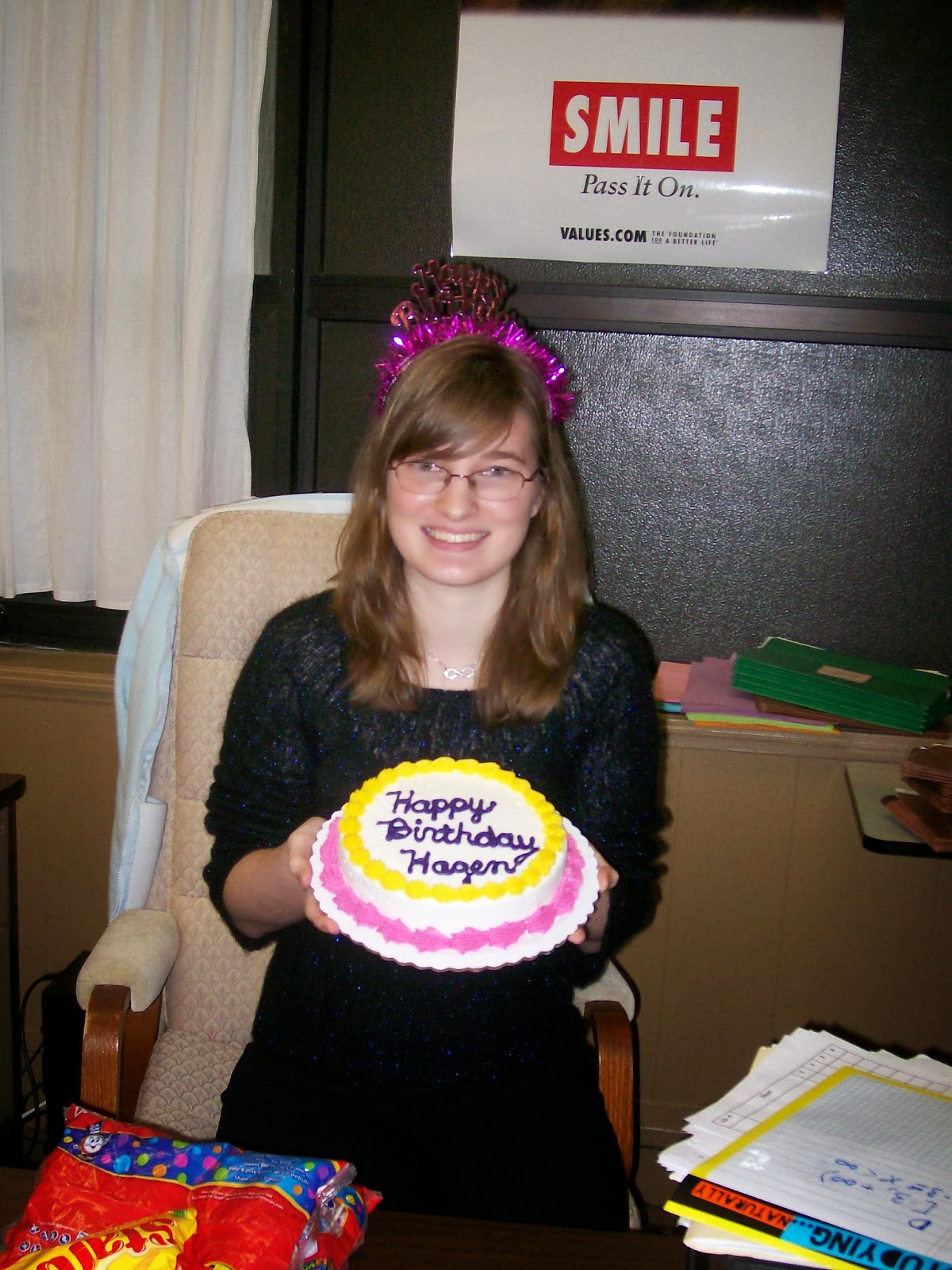
See the birthday hat? I bought it myself. 🙂 I went into Family Dollar on Sunday night, and I bought 3 bags of candy and a birthday hat. The cashier asked, “Are you going to a party tonight?” I just smiled and said, “Not quite.” The candy was for my students to eat on my birthday. The birthday hat was for me to wear on my birthday. I’ve stopped even trying to explain my random purchases to cashiers. I’ve decided that weird looks from cashiers are just a part of being a teacher.
Soon, I was greeted by two more students bearing another birthday cake! My students sure know how to make someone feel special!

See the math problem that equals my age? I have trained my students well! 🙂 And, the decoration above the word “Happy” is a number line. We’ve been graphing one variable inequalities, so this was especially fitting. (Though, I didn’t realize it was a number line. I thought it was one of those markings that you would find on a football. Of course, it wouldn’t make any sense to put that on MY cake. I didn’t figure out it was a number line until the girl who drew it was bragging about the awesome number line she had drawn on my cake to her friends. Oh, that’s what that was. There weren’t any numbers on it, so I couldn’t tell. The longer dash in the middle of the number line was supposed to give it away.
The second birthday cake also came with a card and a “Birthday Girl” ribbon. I was pretty excited about this!
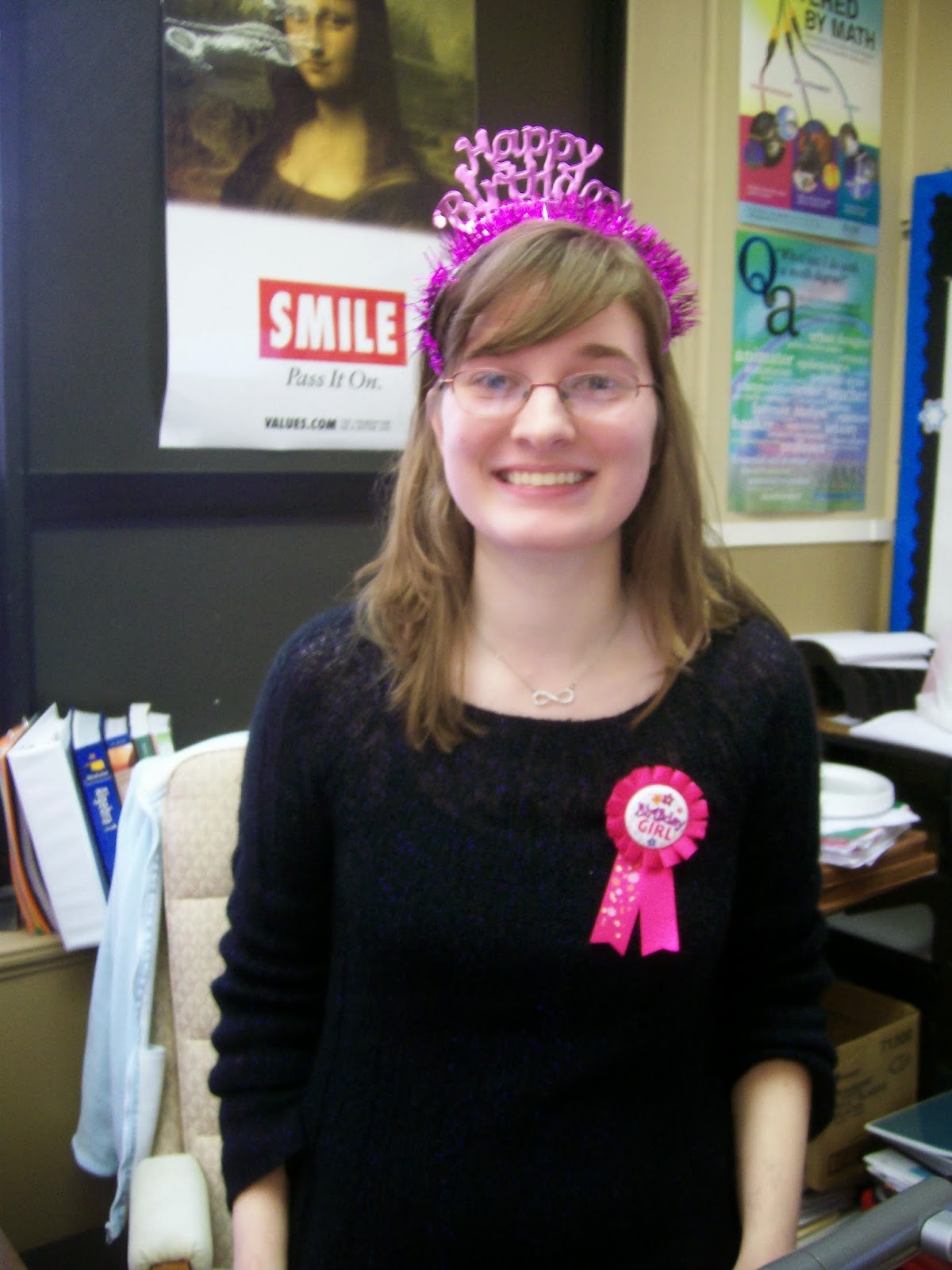

Of course, the best way to celebrate your birthday is mathematically themed birthday bellwork. My Algebra 1 students have been working on compound inequalities. So, they found this problem when they entered my classroom: Someone who doesn’t know Ms. Hagan well enough to know that today is her 24th birthday guesses that she is less than 30 and greater than or equal to 22. Write this statement as a single inequality, if possible. Is it an “and” inequality or an “or” inequality? Then, graph this inequality on a number line.
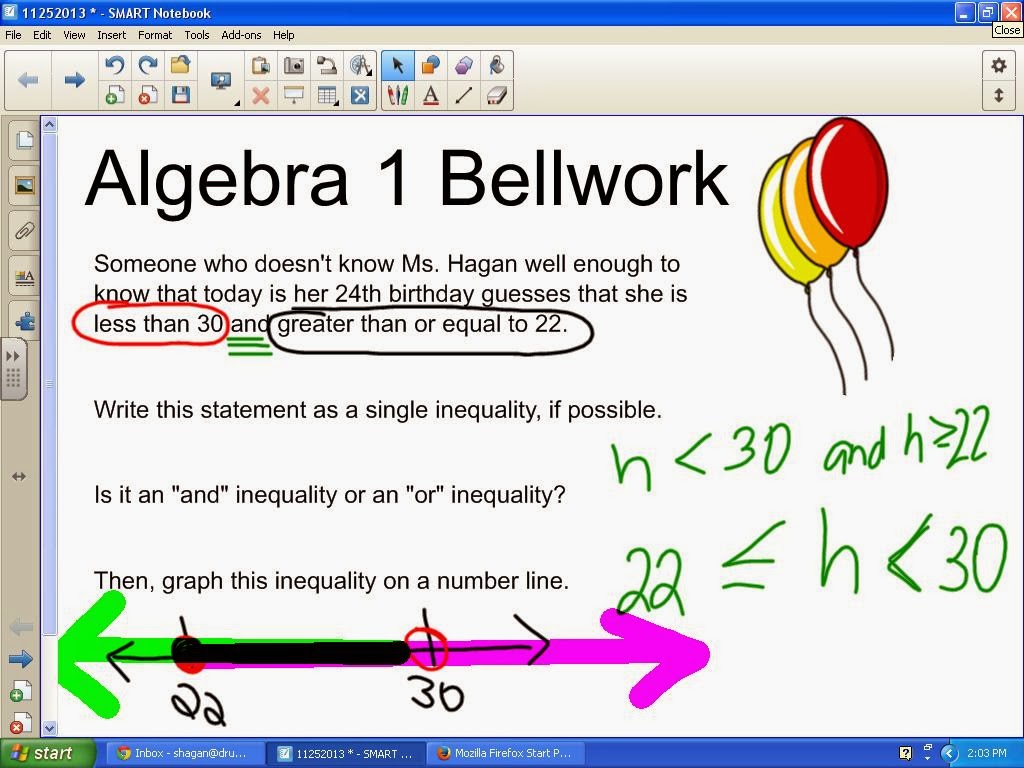
This problem ended up leading to some great discussion! Half the class was convinced it was an “or” inequality, and the other half was equally convinced it was an “and” inequality. It was fun to see them realize that both “and” and “or” could be found in the problem. I love using the highlighters on the Smart Board to graph the intersection of two inequalities.
We spent the rest of the hour reviewing inequalities for our test the next day. One of my students decided to make fun of my birthday hat. “Are you sixteen? Because that’s what sixteen year olds wear on their birthday.” I’m pretty proud of my response. “Well, the package said “Ages 3 and Up” when I bought it. Why don’t we practice writing this as an inequality?”
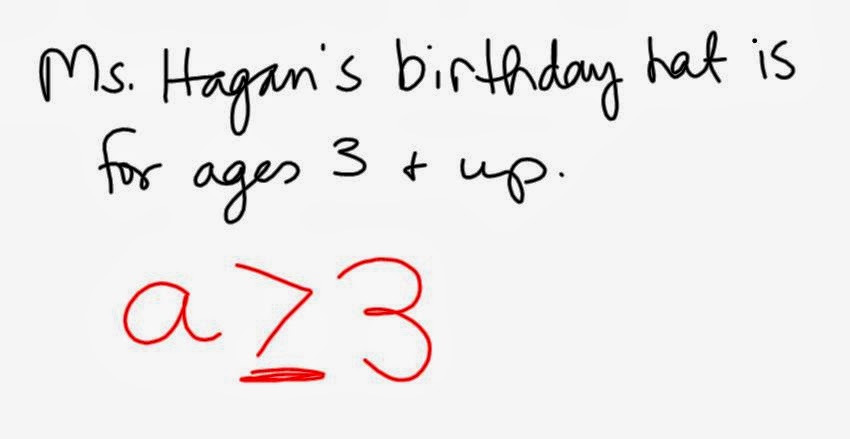
Inequalities to the Rescue!
And, just so you know, my age is in the solution set for this inequality!
My Algebra 2 students have been working with radicals. We’ve been using the birthday cake method to find the prime factorization of the radicand. So, their bellwork was to find the prime factorization of my age. I told them there would be a contest for the most beautiful birthday cake. My second period Algebra 2 class took this contest very seriously. My fifth period Algebra 2 class couldn’t have cared less.
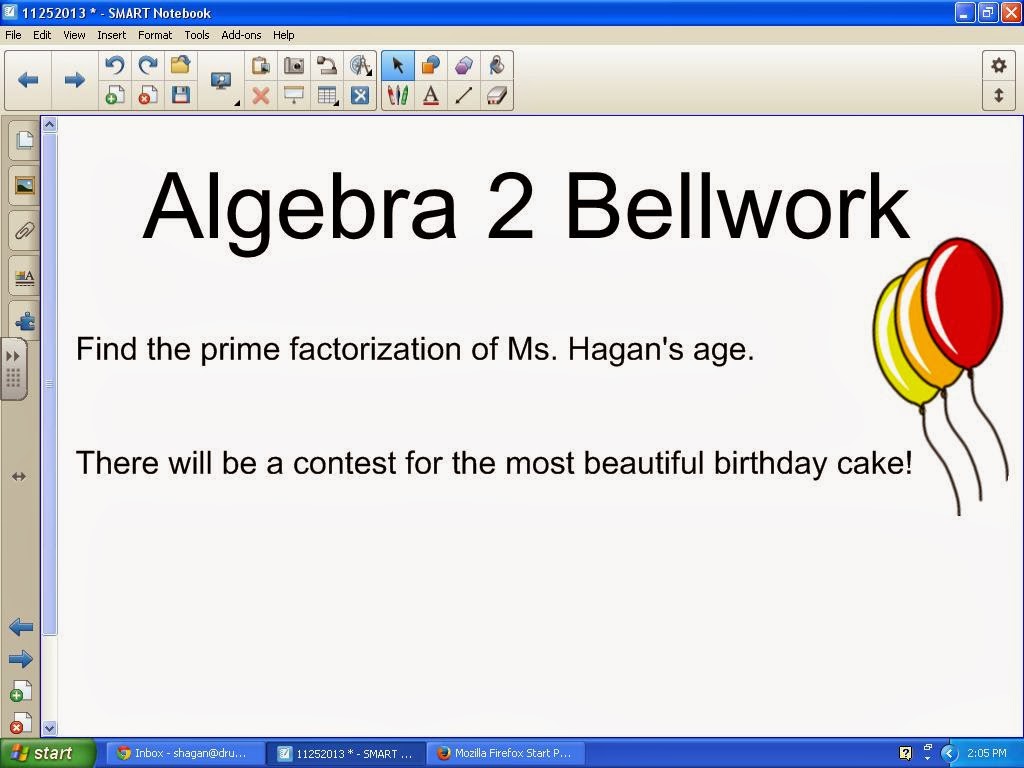
Here are pictures of some of my favorite birthday cakes:
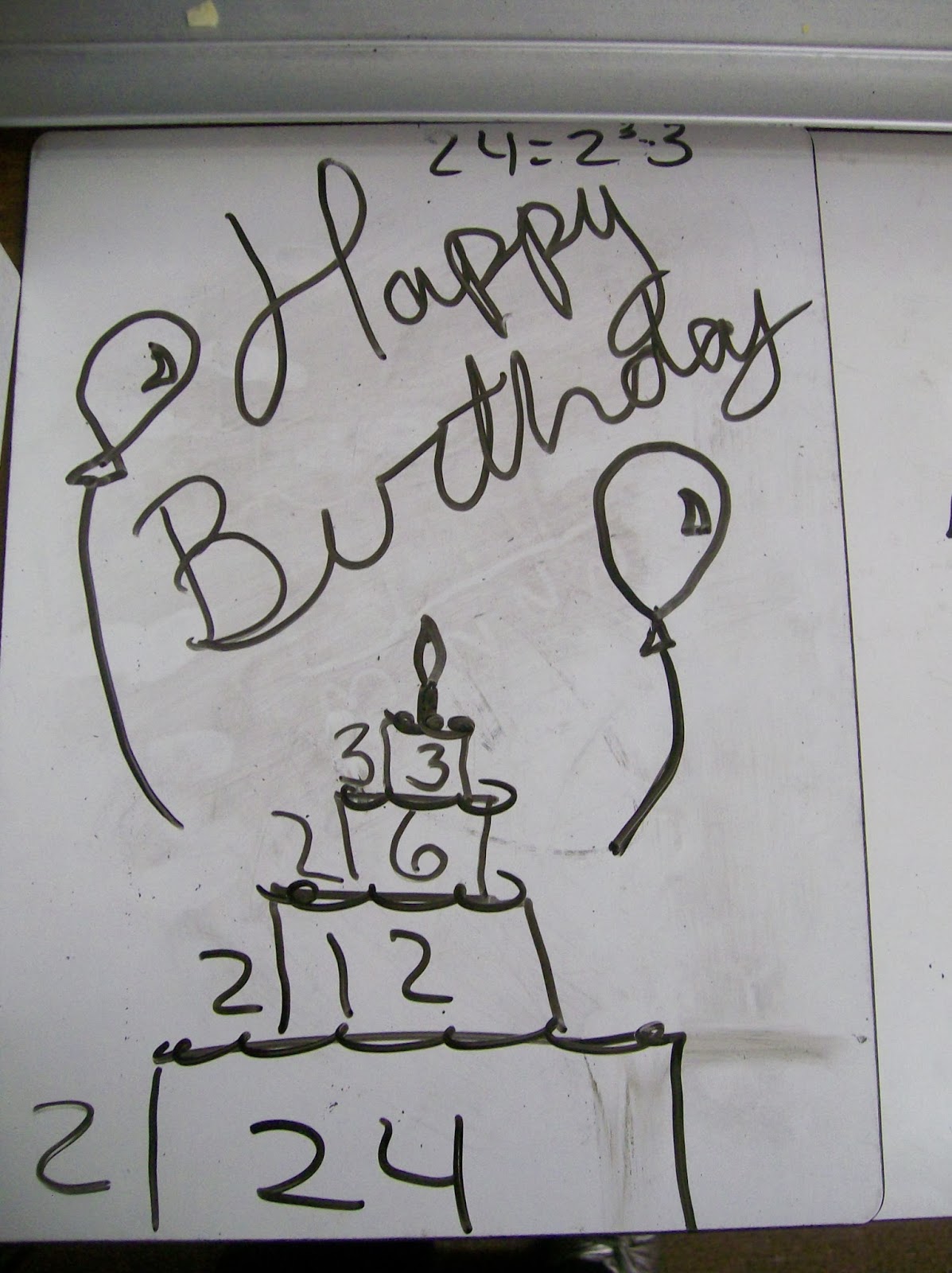
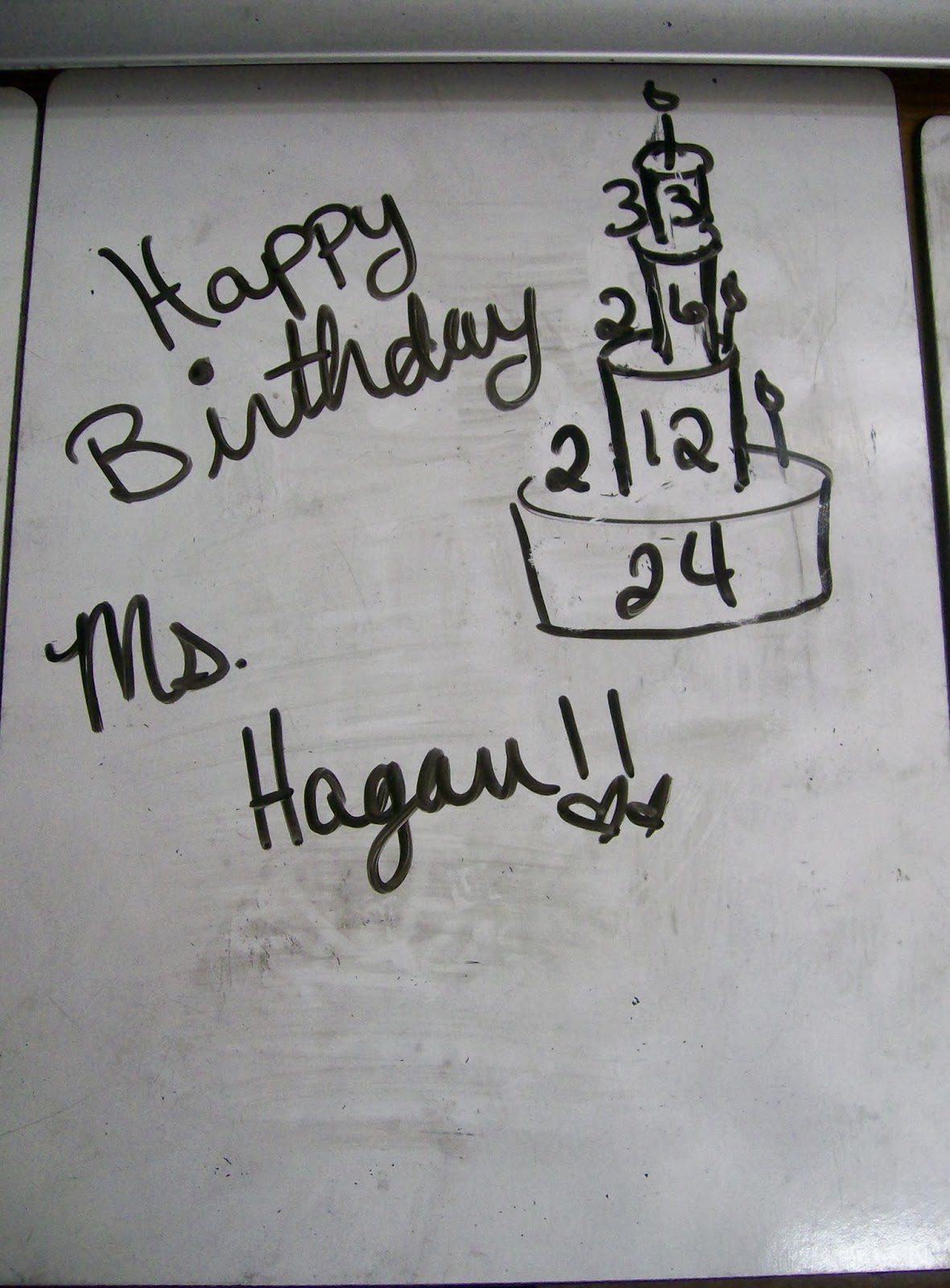
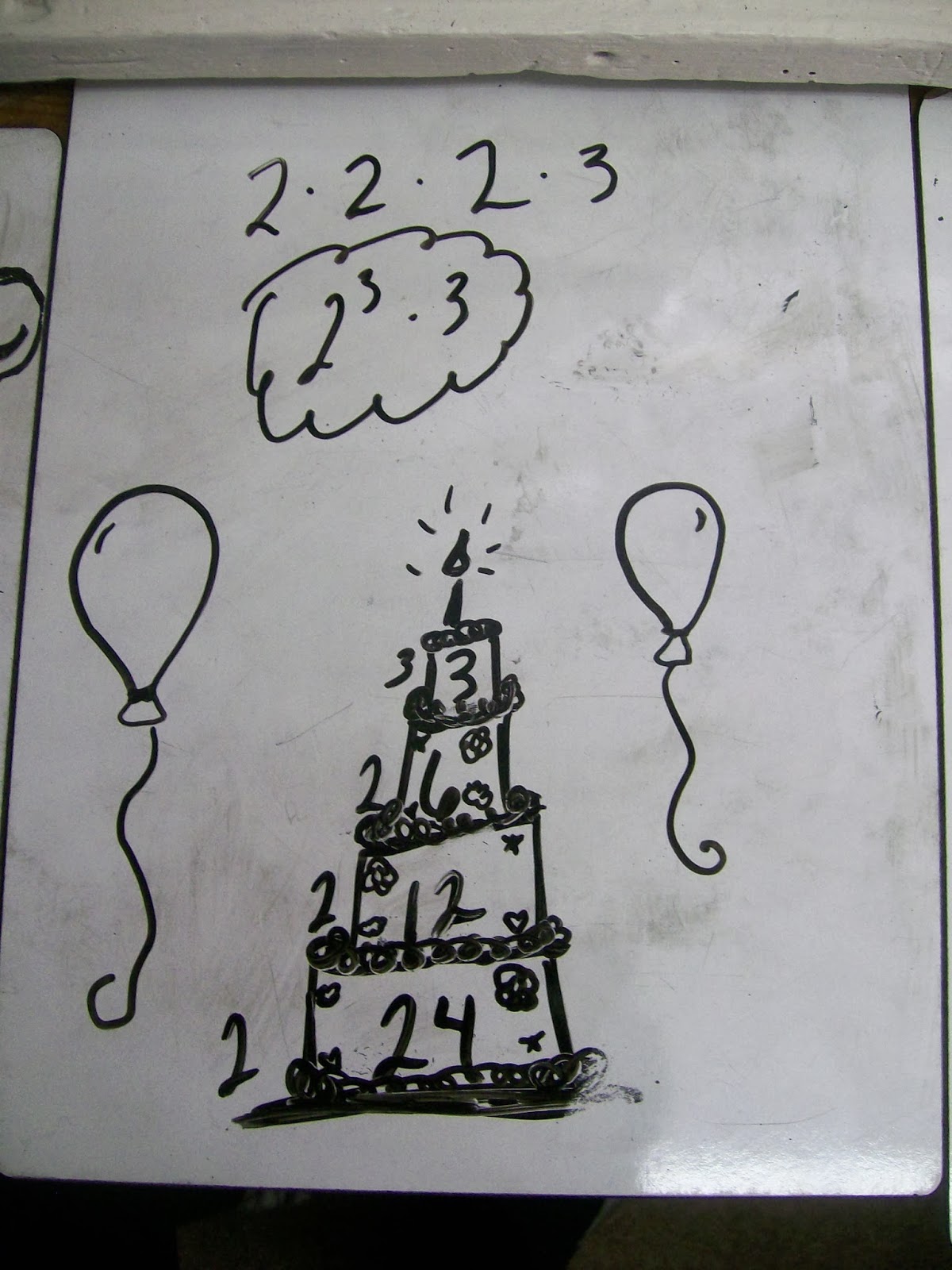
One student didn’t exactly follow the instructions. They just drew me a birthday cake without the prime factorization. I asked, “Where did the x squared come from? That isn’t a prime factorization.” “Oh, I just thought you wanted us to draw you a cake. I decided your cake should be decorated with something mathematical.” I guess that works, too.
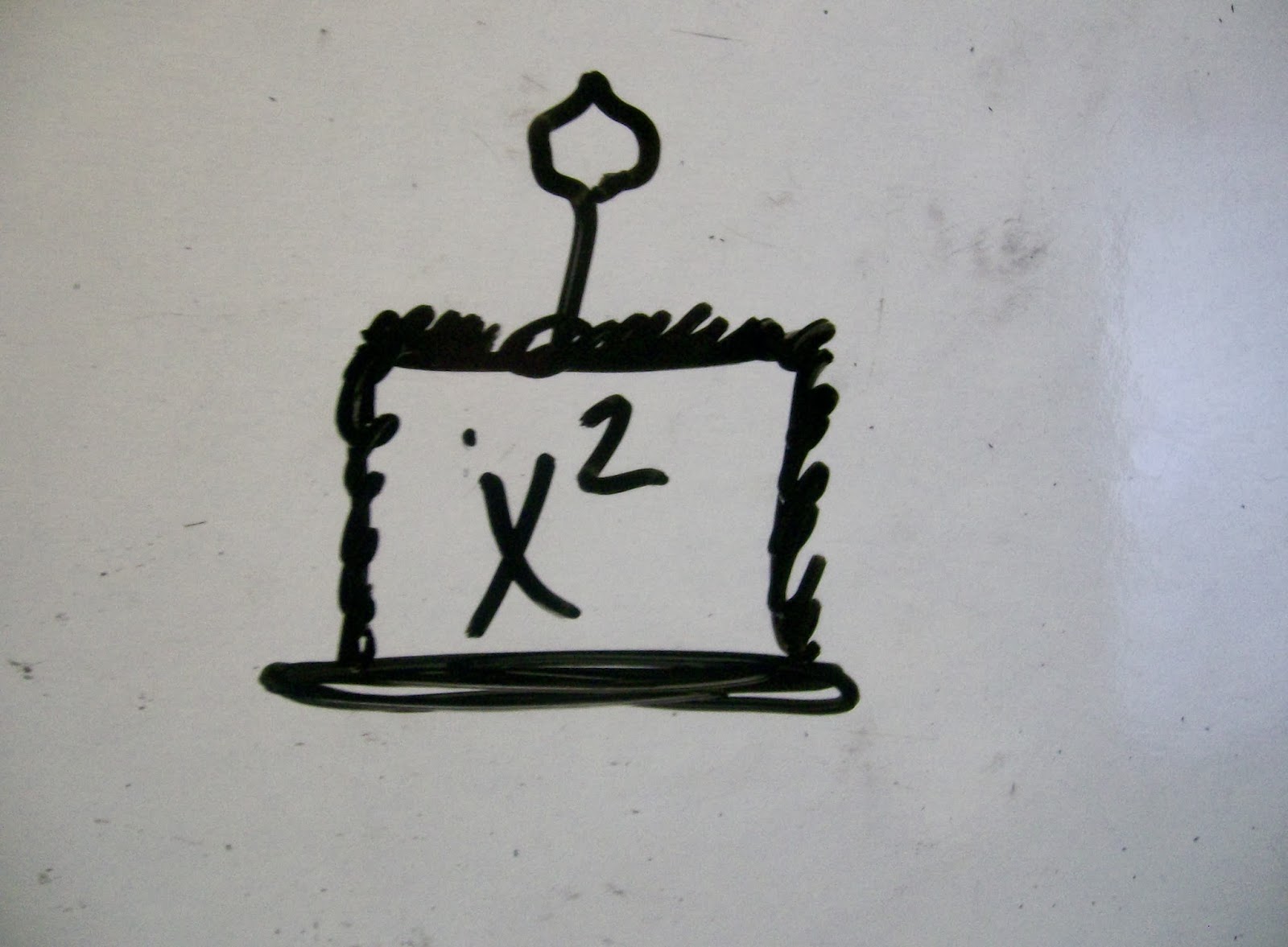
One of my 8th graders surprised me with a birthday cupcake!
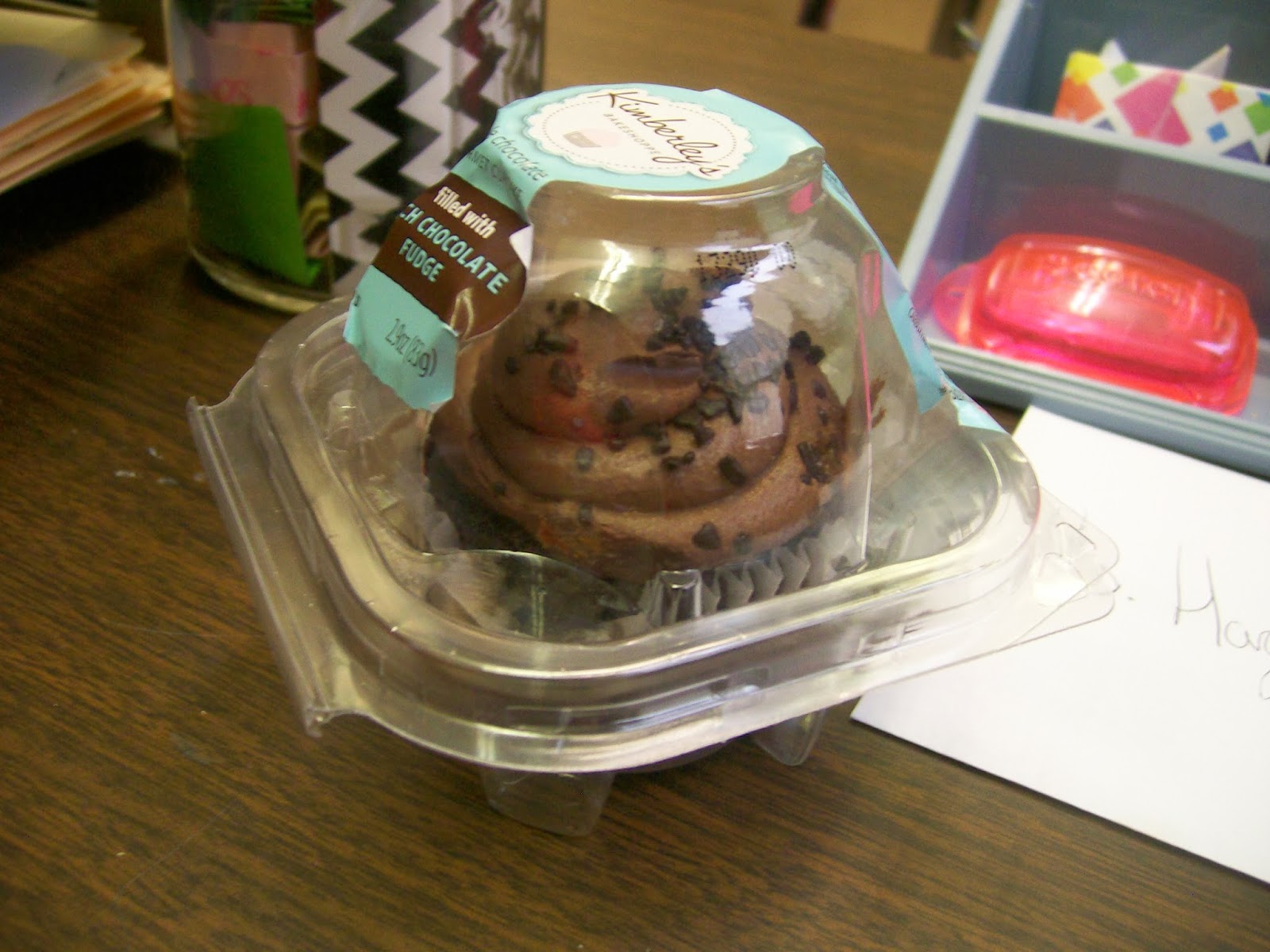
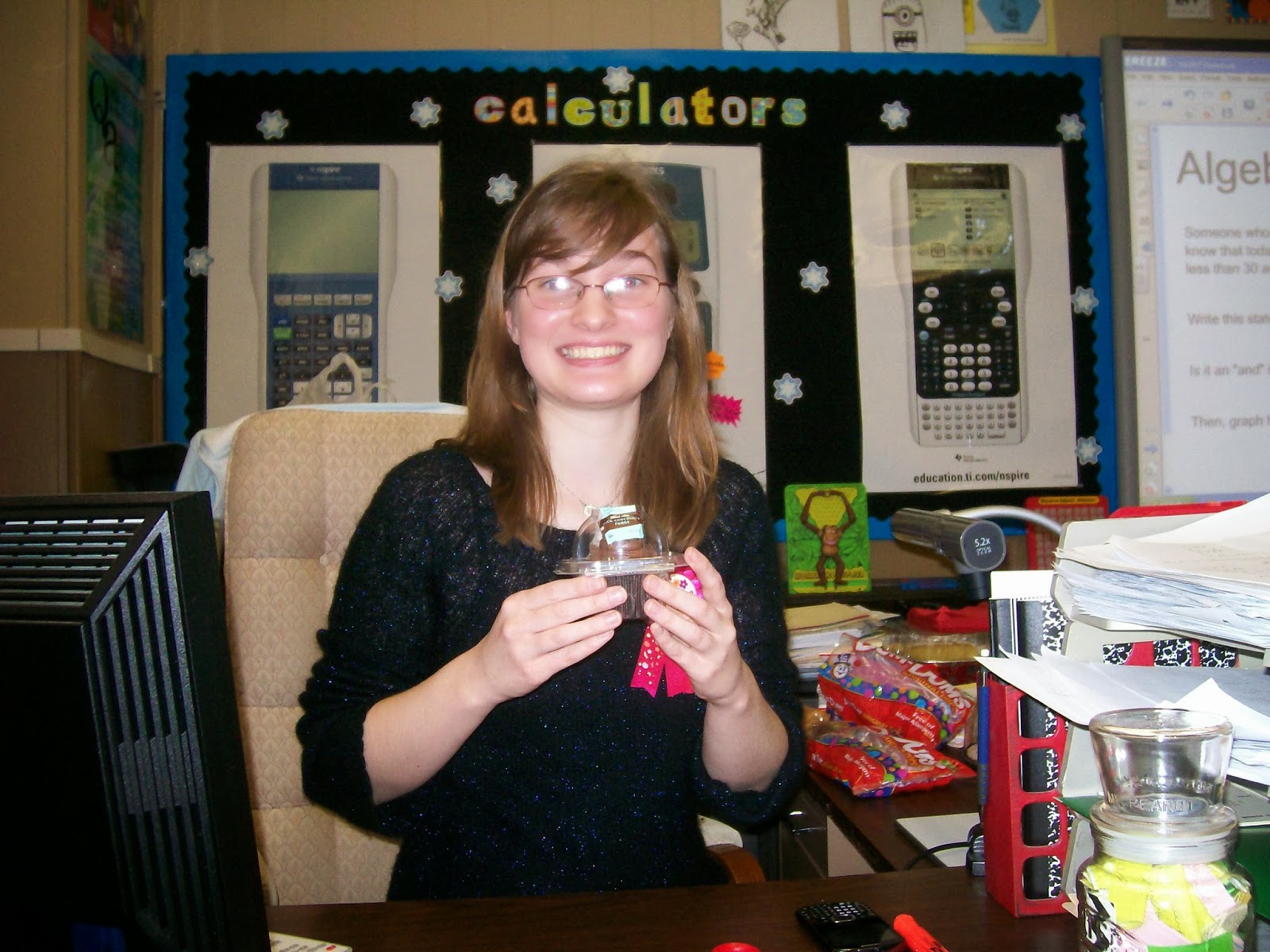
All in all, it was a fabulous day. We had fun. We ate cake. We did math. We did lots of math.
And, I can’t forget to write about my birthday presents from my family! They were appropriately themed. I received an infinity necklace, an infinity scarf, and some awesome math games! (There were non-mathy things, too.) I’m so excited to try these out!
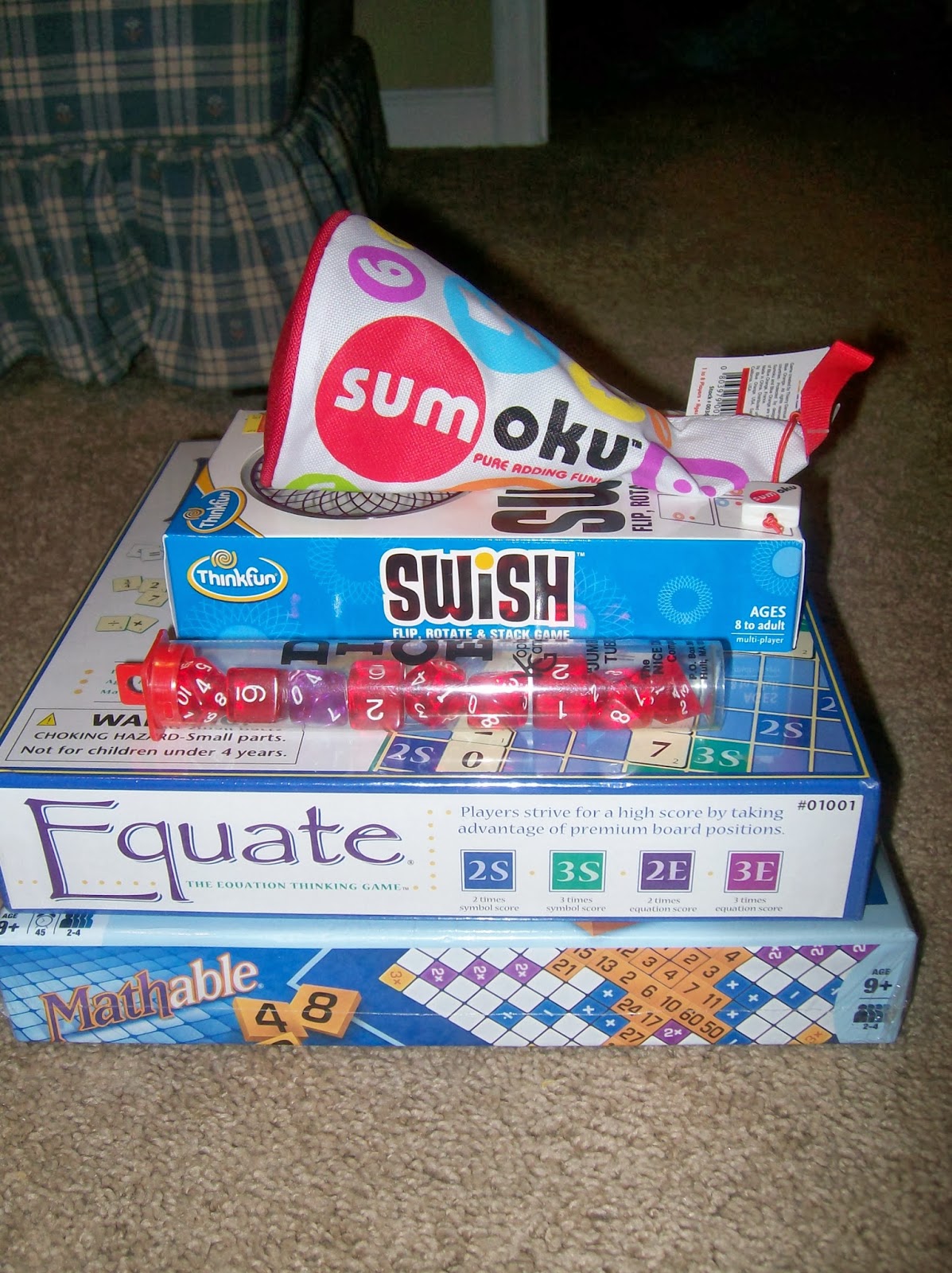
November 27, 2013 – Things Teenagers Say Volume 3
Join me today for Volume 3 of Things Teenagers Say. This is my regular round-up of the crazy and memorable things I hear my students say in class. It’s been over a month since my last edition. Enjoy!

Me: Today we are going to be learning about polynomials! Aren’t you guys excited?
Student: Why would we be learning about party animals? I’m confused…
—
Student: Doesn’t the US cover all seven continents?
Me: No. Let’s take a look at this globe.
Student: This globe must be wrong. My seventh grade geography teacher told us that the US was on all seven continents.
—
Student: The worksheet I just turned in has Icy Hot on it. Sorry!
(Later the Same Day)
Another Student: I apologize that my homework I just put in the tray has tabouli on it.
(This is only something that would happen in Drumright. Tabouli is like a way of life here. It is served every single day in the cafeteria. I’d never even heard of it before moving here. I wasn’t impressed the first time I tried it at, but it definitely grows on you!)
—
(During a Celebrity Age Guessing Game to Motivate Linear Regression in my Stats Class)
There is a photo of Clint Eastwood on the Smart Board. Students have to guess the name of the celebrity and their age.
Student 1: Isn’t that the guy from all those westerns?
Student 2: Yeah – that’s John Wayne, right?
—
Student discussing me with another student: “Of course she doesn’t wear makeup. She’s a vegetarian. They’re against stuff like that.”
—
Student: I don’t understand why my teachers always count my answers wrong when I put a line through my Ts.
Me: Do you know how to write an F in cursive?
Student: No. Why?
Me: Well an F in cursive is a T with a line through it. So, when you write a T with a line through it, your teachers think you are writing an F.
Student: That makes so much sense now.
—
Student: What are you eating?
Me: An enchilada.
Student: Why are you eating an enchilada?
Me: Because I brought leftovers for lunch. My mom made enchiladas when I went to visit my parents this weekend, and she sent me back some leftovers.
Student: Are your parents Hispanic?
Me: No. Why do you ask that?
Student: Well, only Hispanic people eat enchiladas.
Me: Yeah, that’s not quite a true statement. Do I look like my parents are Hispanic?
Student: Yes. You look like you are part Hispanic and part Jewish.
Me: (Awkward Silence. Yeah, I didn’t have any words to respond to that.)
—
Student: Can we listen to some music today?
Me: Sure, who do you want to listen to?
Student: How about some Michelangelo?
—
(Upon entering my classroom on the first day that the desks went from groups of four to rows)
Student: Why is this set up like an actual classroom? I’m confused.
November 29, 2013 – Trying out SBG
We are currently learning about radicals in Algebra 2. I am loving this unit! I’m building this unit off of a short unit I did on radicals with my Algebra 1 kiddos towards the end of last year. After all, there’s no need to reinvent the wheel…
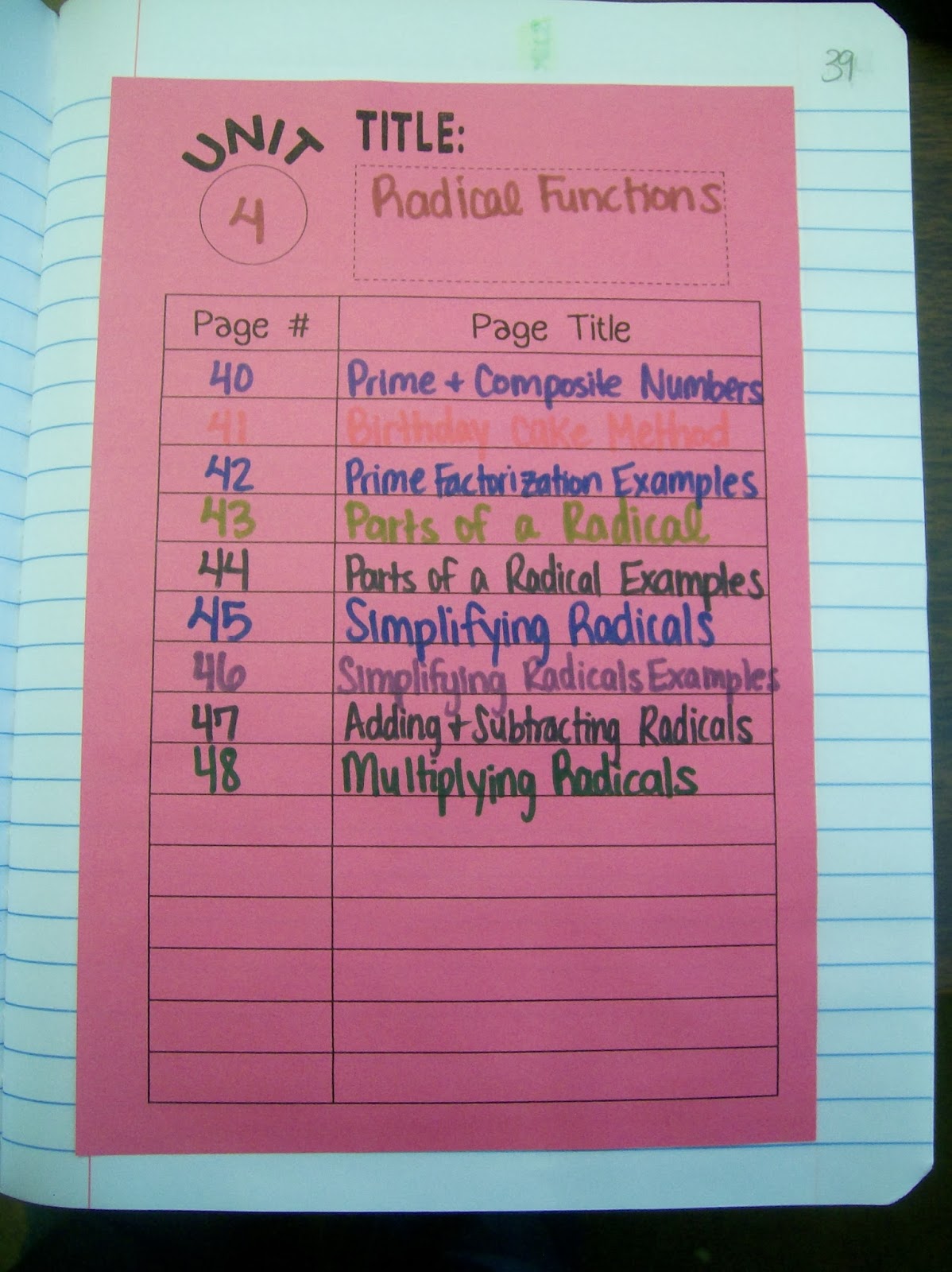
I’m doing something else radical with this unit on radicals. I’m trying out SBG. To be honest, I was disgusted with my Algebra 2 students’ performance on the previous unit. I have quite a few students who CANNOT factor a trinomial. They bombed their last test. But, they are still passing my class. Therefore, they have no motivation to actually learn to factor. I’ve always loved the idea of standards based grading, but I’ve always written it off before as too time consuming.
I take it all back. Do you know what is too time consuming? Spending almost an entire month on a unit and having students not master key concepts because your grading system tells them they don’t have to. Grades in my class have become almost meaningless. I hate it. When I look at a students’ test score, I don’t know what they know well and what they don’t know at all. I don’t know if they completely mastered one topic and left another topic blank. Or, maybe they made little mistakes on all of the topics.
It’s gotten to the point where I hate to grade. I let the pile of papers to grade sit there, growing, all week long. Eventually, I bite the bullet and have a marathon grading session. When I pass back papers and tests, very few students look to learn from their mistakes. I hear other teachers talk about writing comments all over their students’ papers. I don’t even do that. Why? I know they won’t read them.
In a desperate measure, I threw this together in about an hour. I wrote 6 learning goals for our unit on radicals. I decided to grade on a scale from 0-4. Is this the best scale? I have no clue. This was totally last minute. Once a student achieves a 4 on a learning goal, they are exempt from questions that cover that learning goal on all future quizzes.
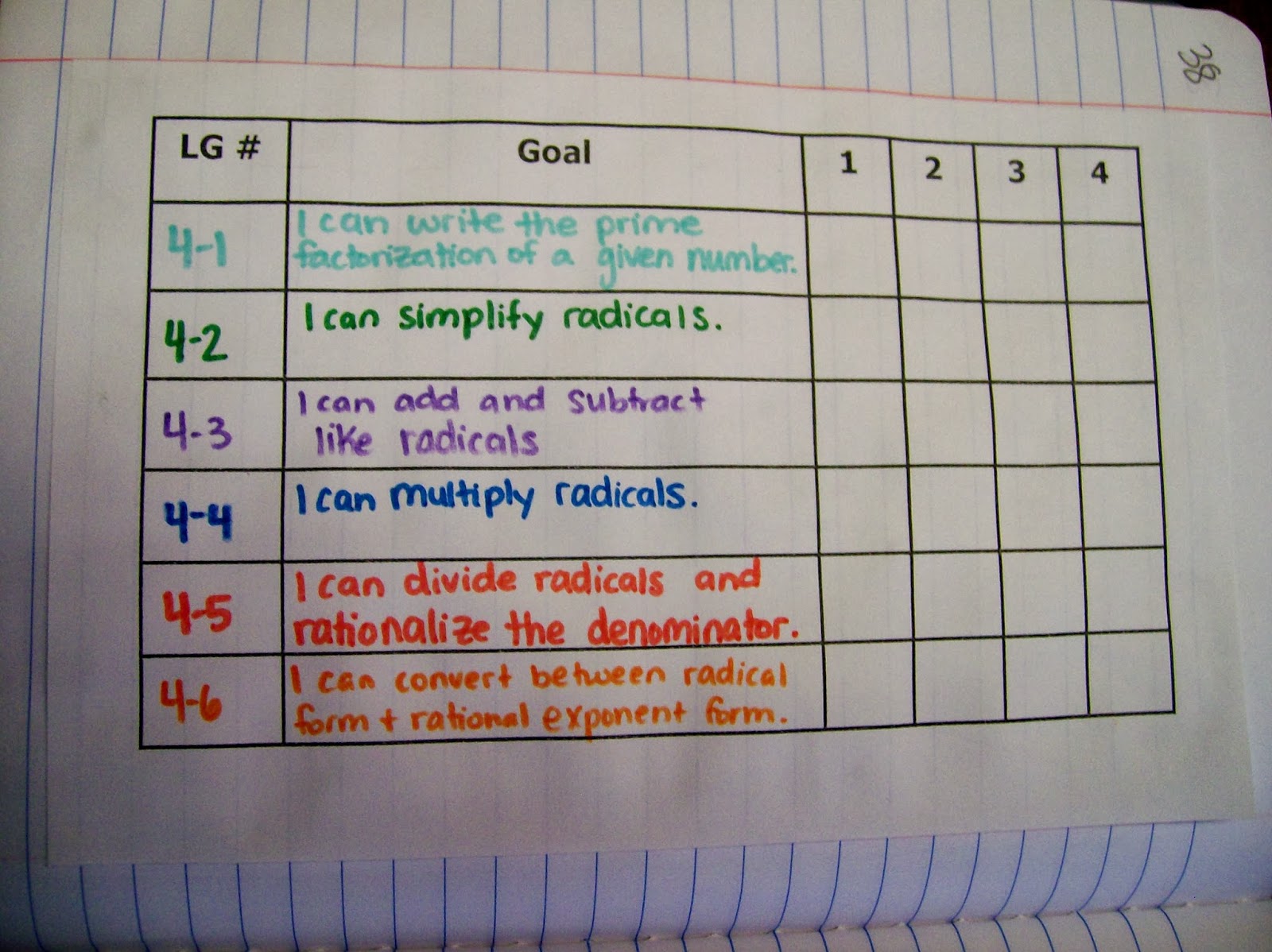
I had my students glue in a score tracking sheet on the page facing their table of contents for Unit 4. Every day, I pass back the previous day’s quiz. Students update the sheet in their notebook. Then, I review the questions students have questions on. I like that this new method is forcing me to teach in layers, not lumps.
If a student doesn’t get a 4, they immediately start looking for their mistake. I have rarely been writing comments on the quizzes. I just put a number. It makes students think. Where did I go wrong? How can I avoid making this mistake on today’s quiz? They get mad at me when I give them a 3 for a tiny, tiny mistake. But, by forcing them to retake the quiz, I am ensuring that they will never make that mistake again.
This system is a work in progress. I’m liking it so far. And, my students are liking it, too. I still have a handful of students who aren’t trying on the quizzes. I’m not so sure what to do about that. The only complaint from students is that now they can’t get their name on the Star Student Bulletin Board for making an 85 or above on our unit tests since the quizzes are replacing the unit test.
I love looking through my grade book. I can scroll down the columns and instantly know who needs work with each aspect of the chapter. I’m still trying to figure out how to do homework with sbg. And, I’m toying with trying out SBG with my Algebra 1 kiddos during our linear functions unit. Decisions, decisions, decisions…
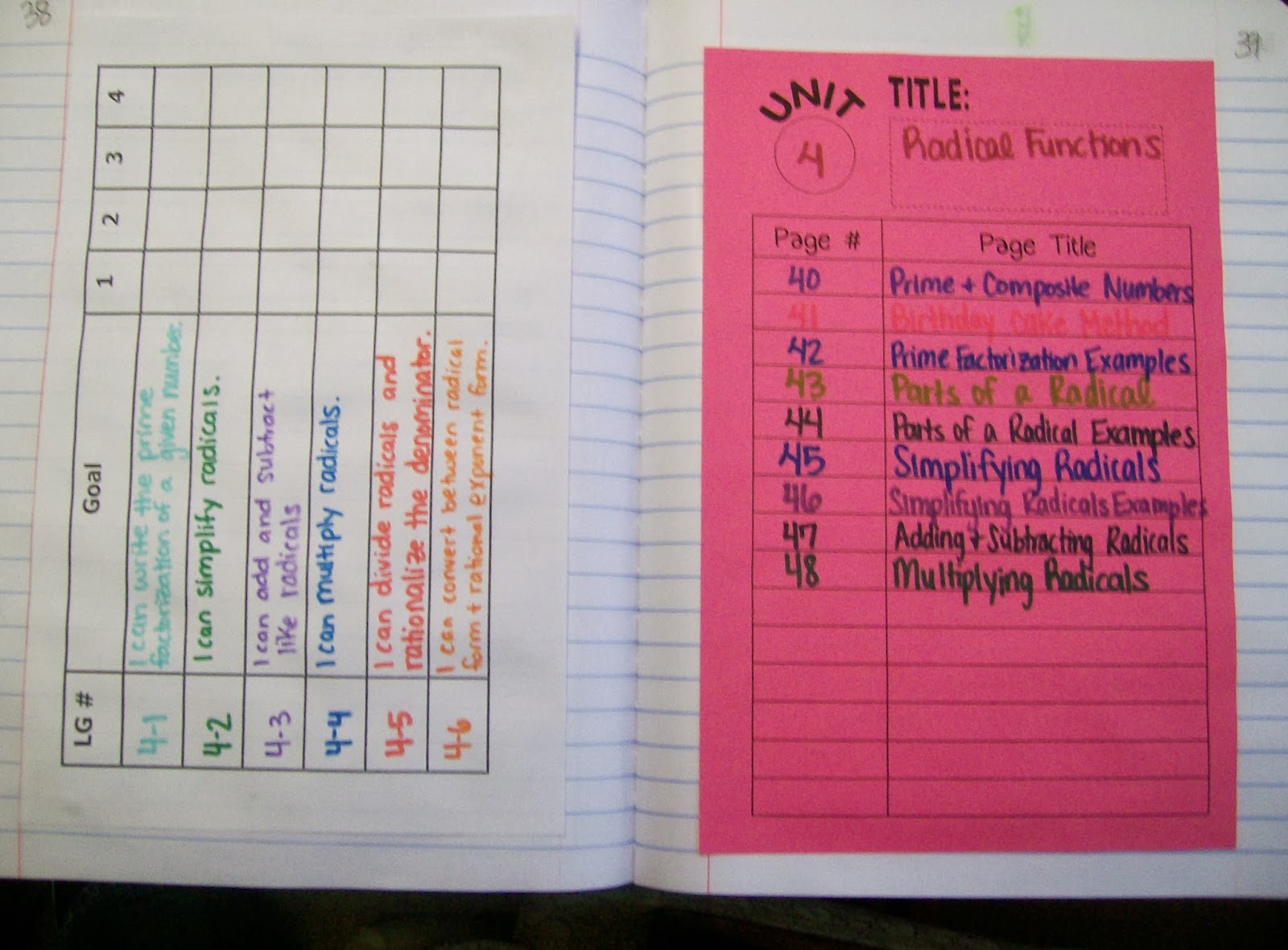
December 2, 2013 – Halloween 2013
Yes, I realize it’s December. We have successfully celebrated Thanksgiving. My classroom has now been turned into a Winter Wonderland (pictures to come)!
But, today I’m going to blog about Halloween. Why? Well, I haven’t blogged about it yet. And, if I don’t blog about something, I will forget about it. To be honest, I will still forget about it. But, if I blog, I will be reminded about it whenever I look back over old blog posts.
Warning: There isn’t any math involved in this post. We didn’t do any cool Halloween-related math projects. We just did math and ate candy. I still wanted to share these pictures with you, though.
One of the students who has a locker right outside of my classroom decorated her locker for Halloween. I would have never thought of doing this when I was in high school. Isn’t it just precious?
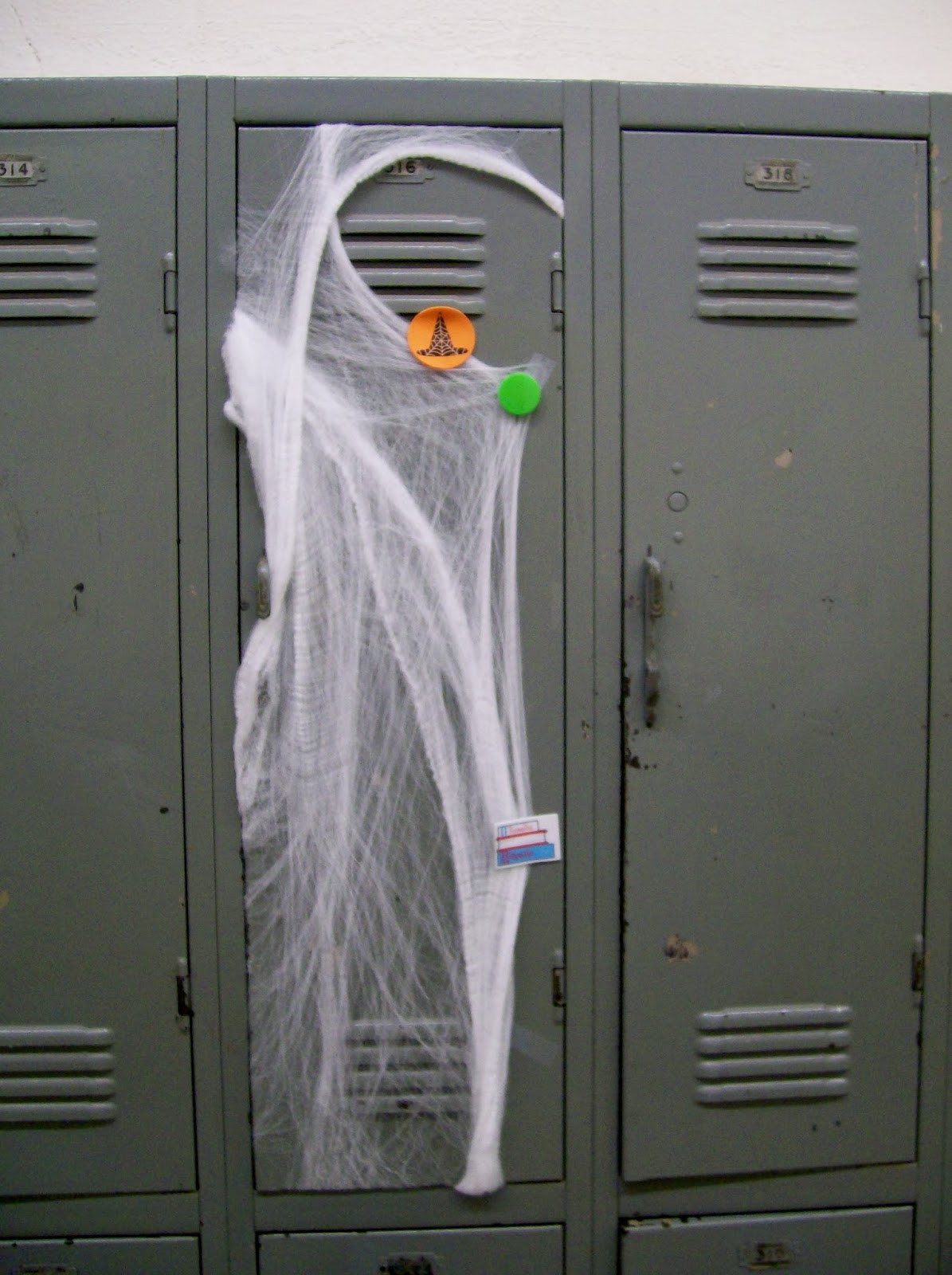
I had a pumpkin full of candy to share with my students for Halloween. We all know that teenagers do not get enough candy on Halloween. 🙂 I know I ended up eating WAY more candy than I should have during the week of Halloween!

I think my students were more excited, though, by the Halloween stickers that I offered to let them choose from. Some of these stickers made their appearance on the locker that I showed you the picture of earlier. High school students LOVE stickers.
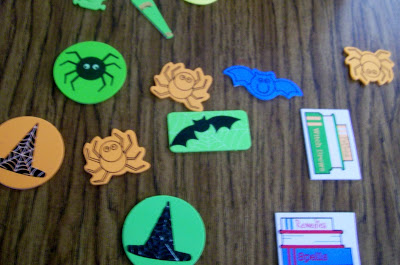
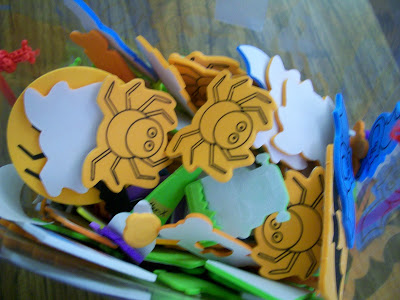
My secret pal surprised me with a Halloween tumbler, filled with candy.
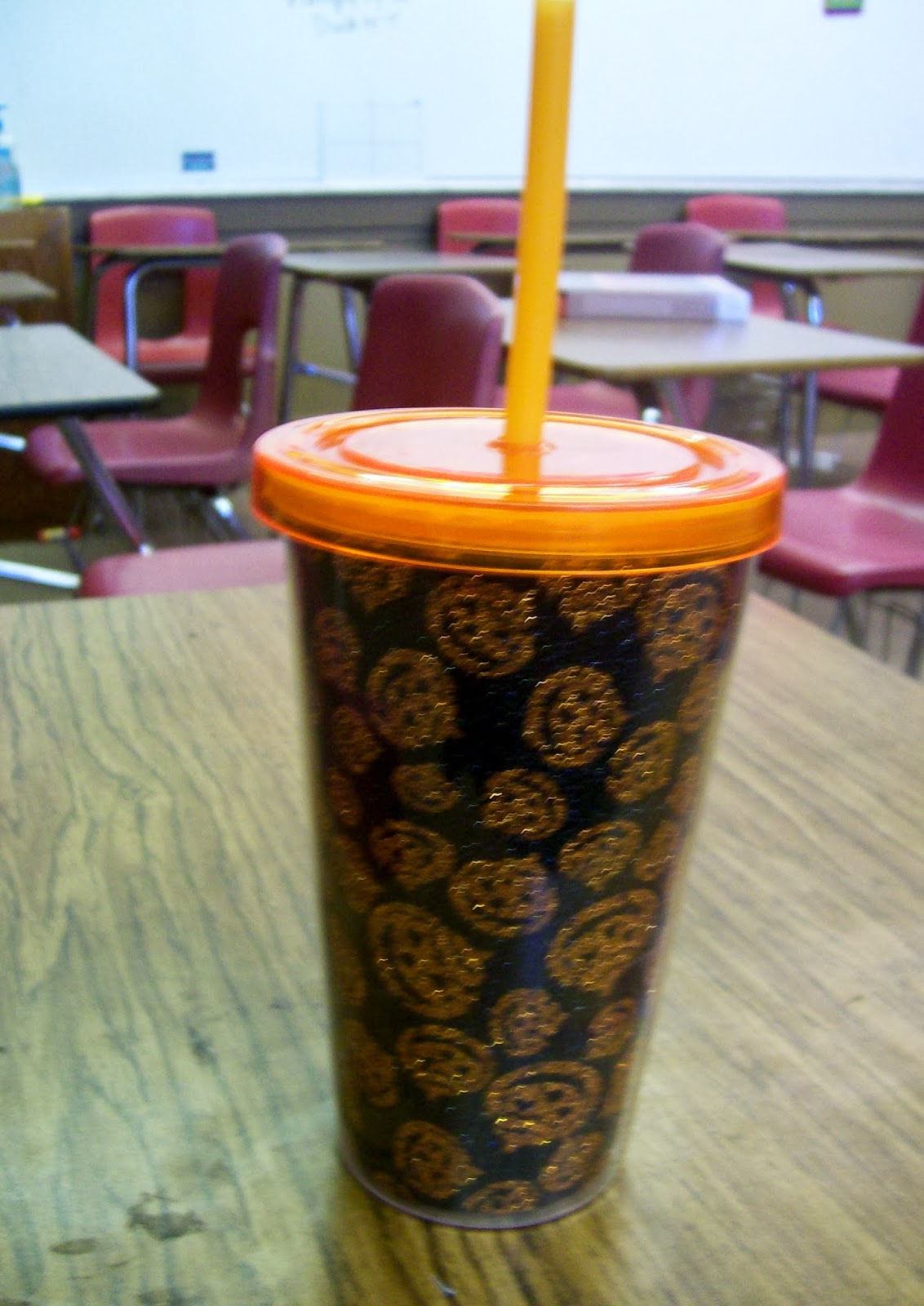
On the day after Halloween, I found a pile of candy on my desk that was left by a group of my students. Isn’t that just sweet? (Pun definitely intended!)
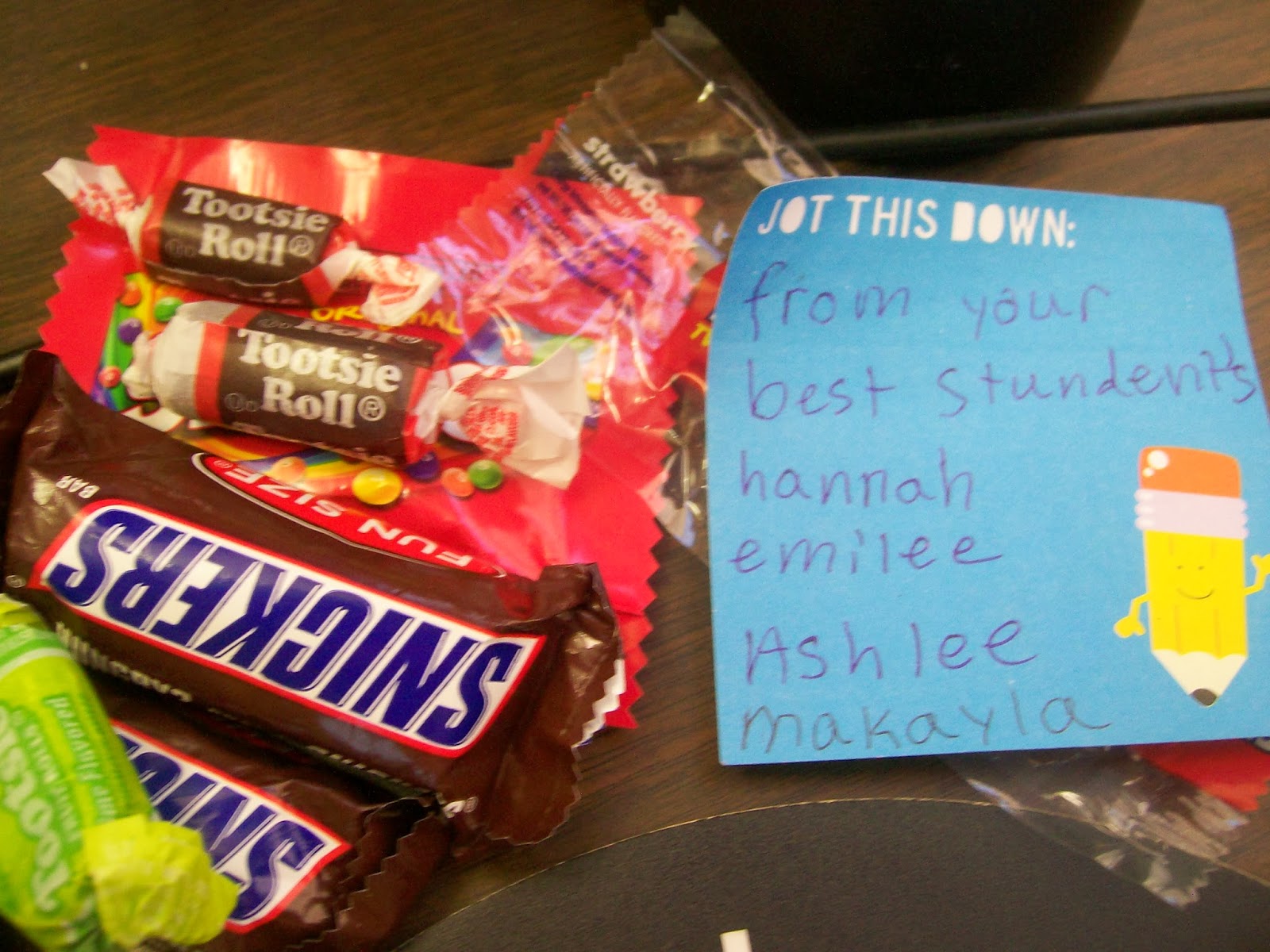
Oh, and I can’t forget to share pictures of the pumpkins that my students carved in their Family and Consumer Science classes. I was very impressed by their creativity. If I remember correctly, the green pumpkin pictured below was the winner. Directly behind it, you will see a recreation of Miley Cyrus’ Wrecking Ball. I had to have a student explain that one to me. I was so confused. This happens a lot. I am constantly reminded just how out of touch I am with pop culture!
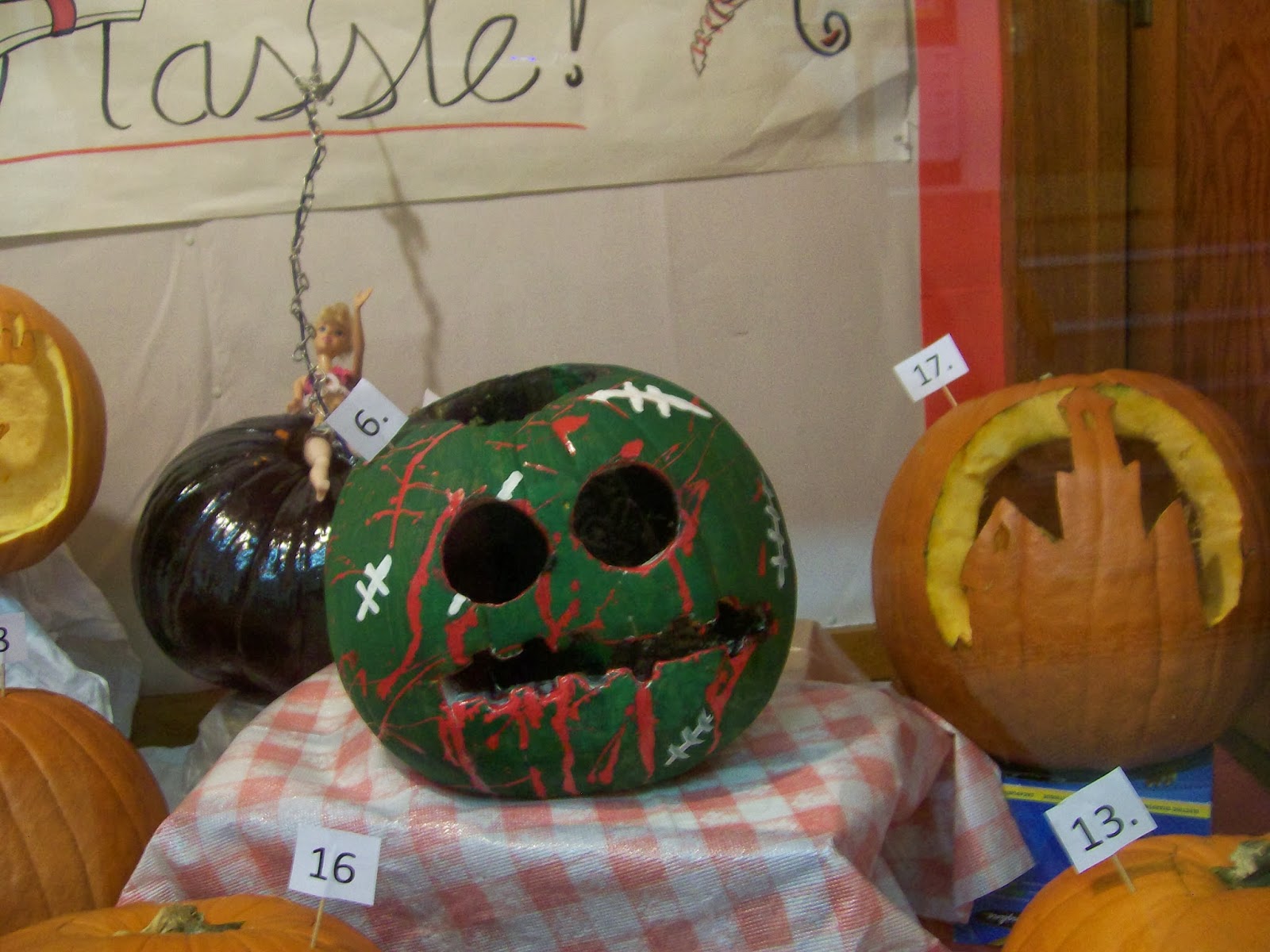

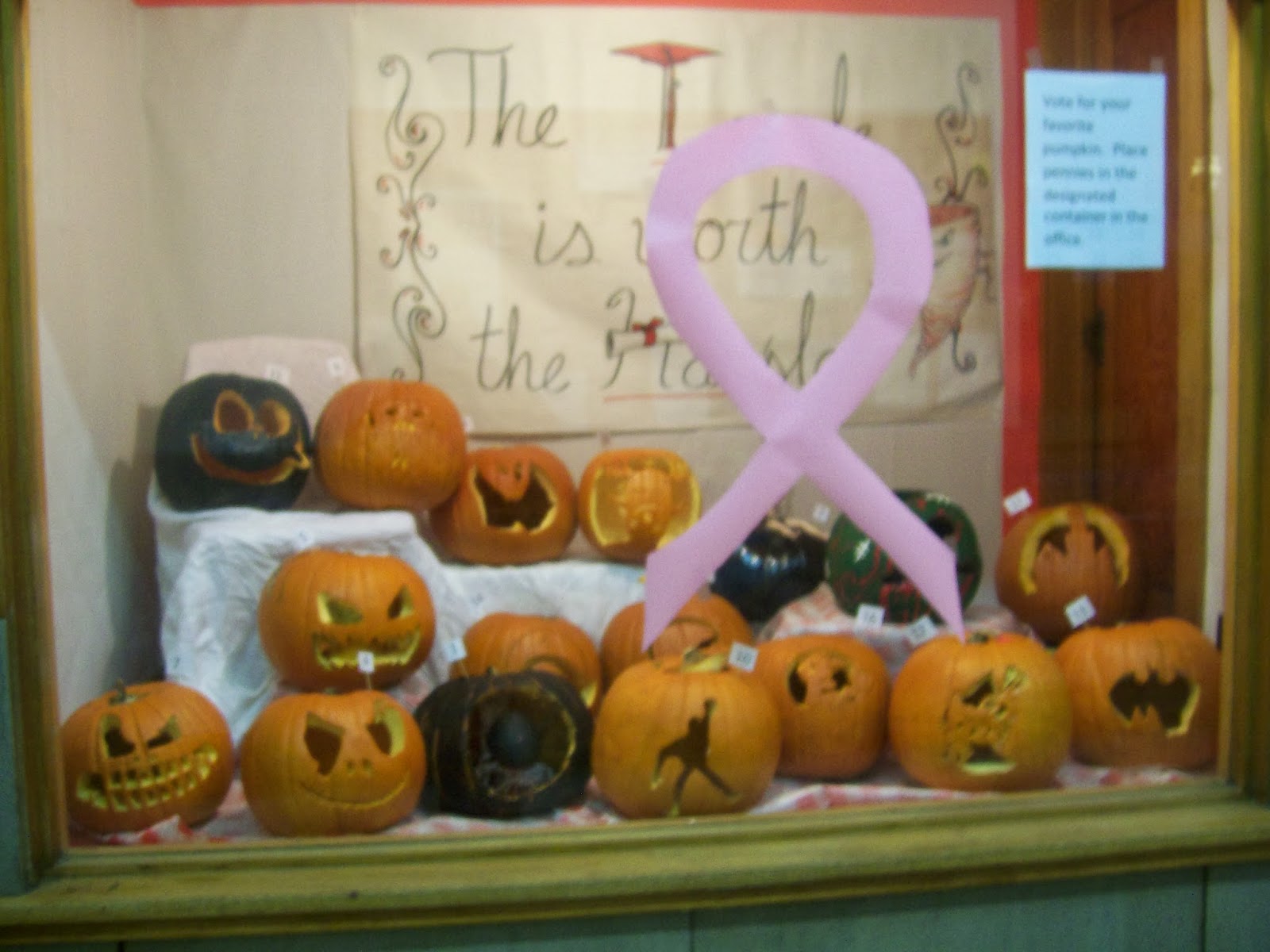
December 4, 2013 – Walkin’ In a Winter Wonderland…
Last year, my classroom’s Christmas decorations were rather insubstantial. I had a tree. Okay, I had a magnetic tree. I even put it up again this year.
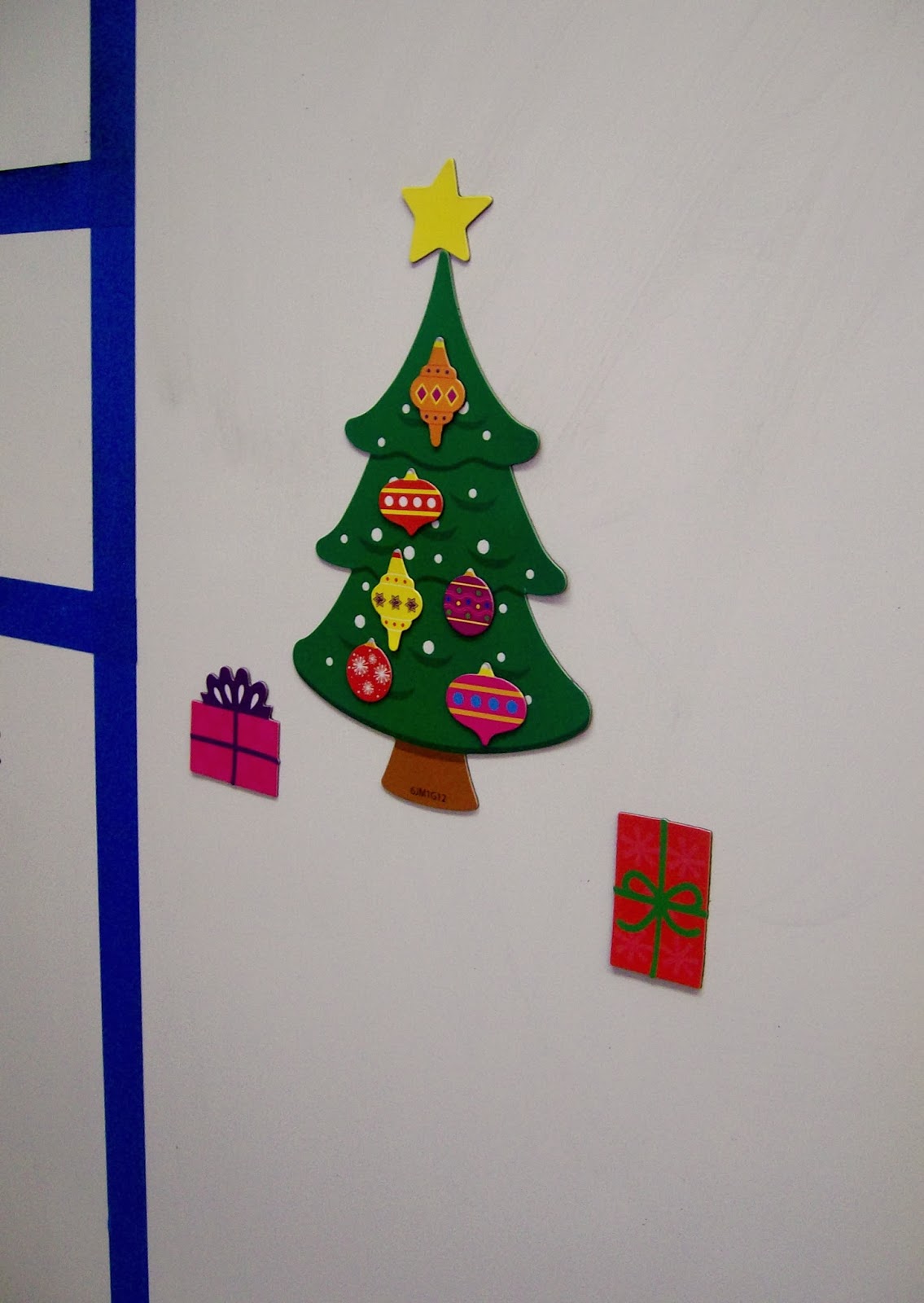
This year, I made some new additions. I hung garland above my dry erase board.
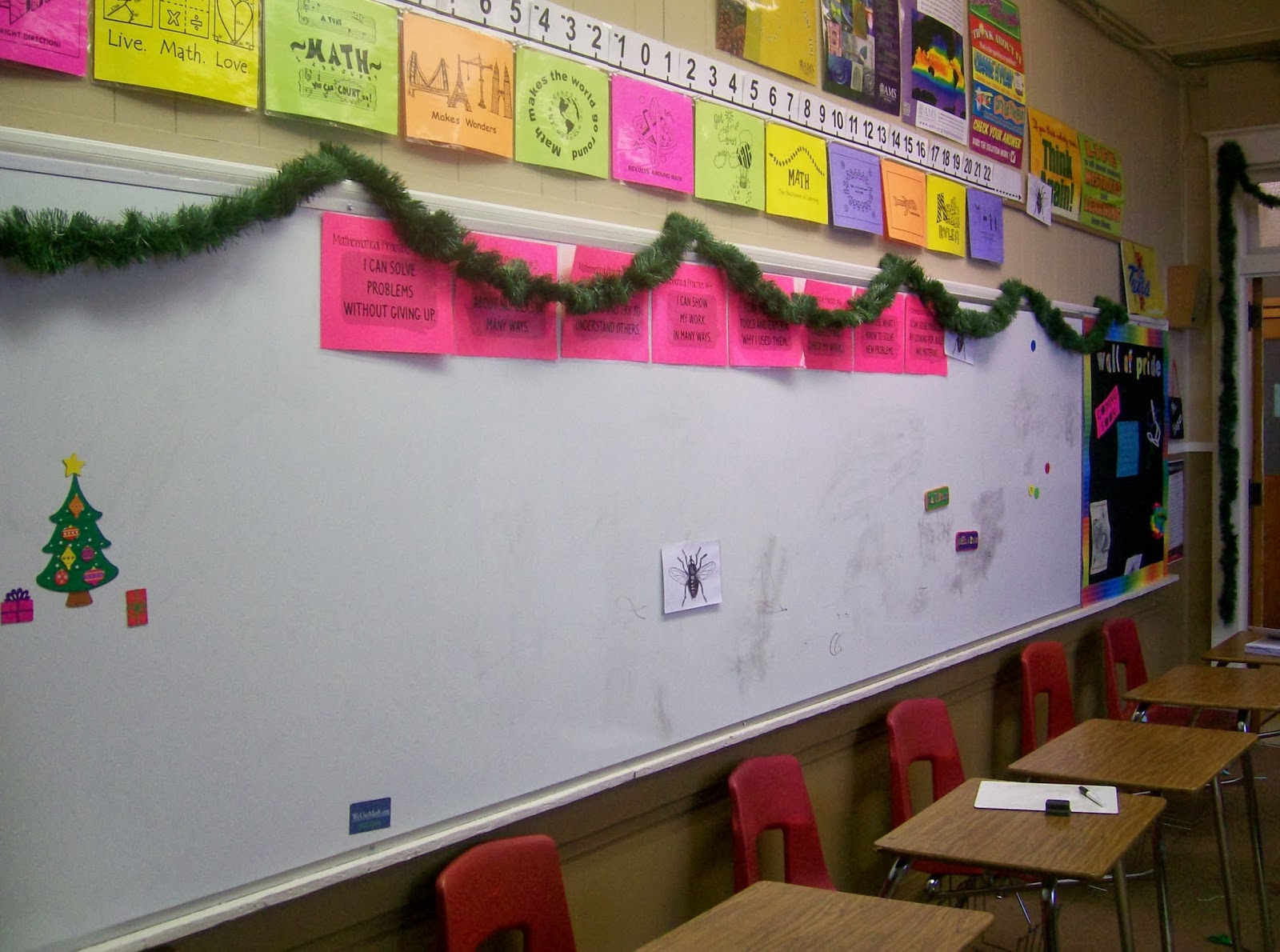
I hung garland over the door to my classroom.
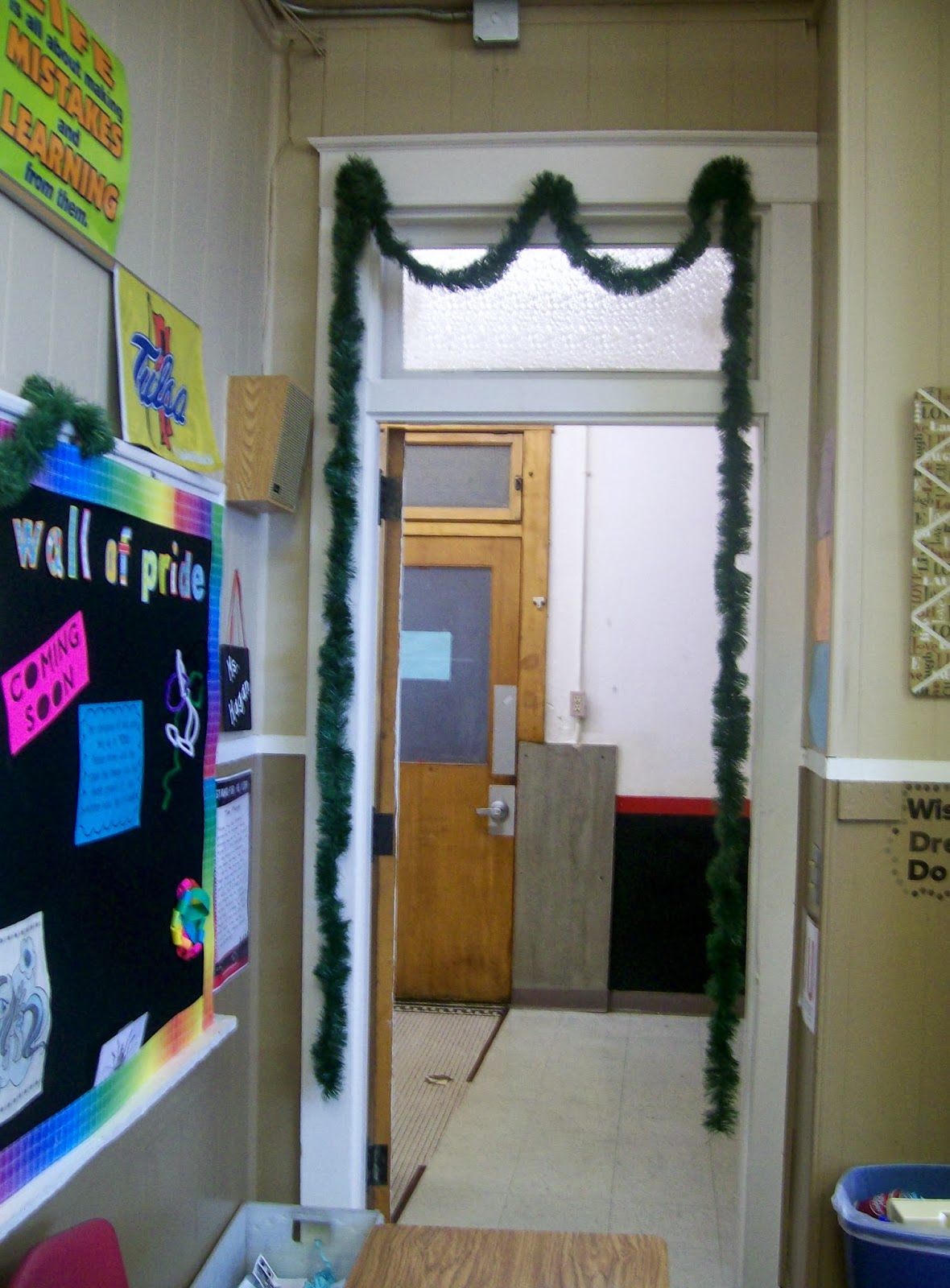
You cant see them that well in this picture, but I put Christmas lights around my bulletin board. Sometimes, I plug these in and they blink. Sometimes, I plug them in and they don’t blink. I have yet to figure them out.
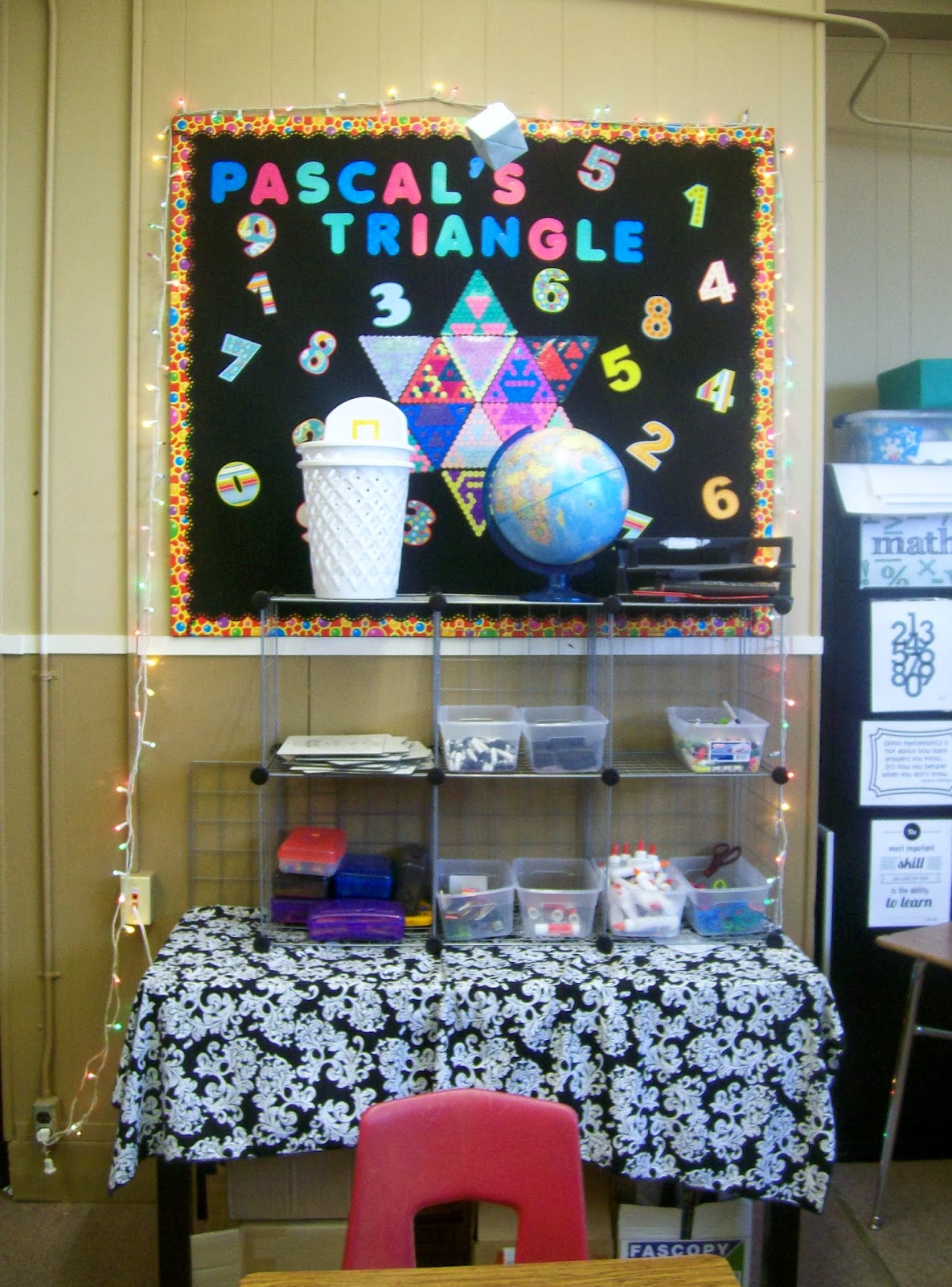
Tiny snowflakes adorn my bulletin board of calculator posters.
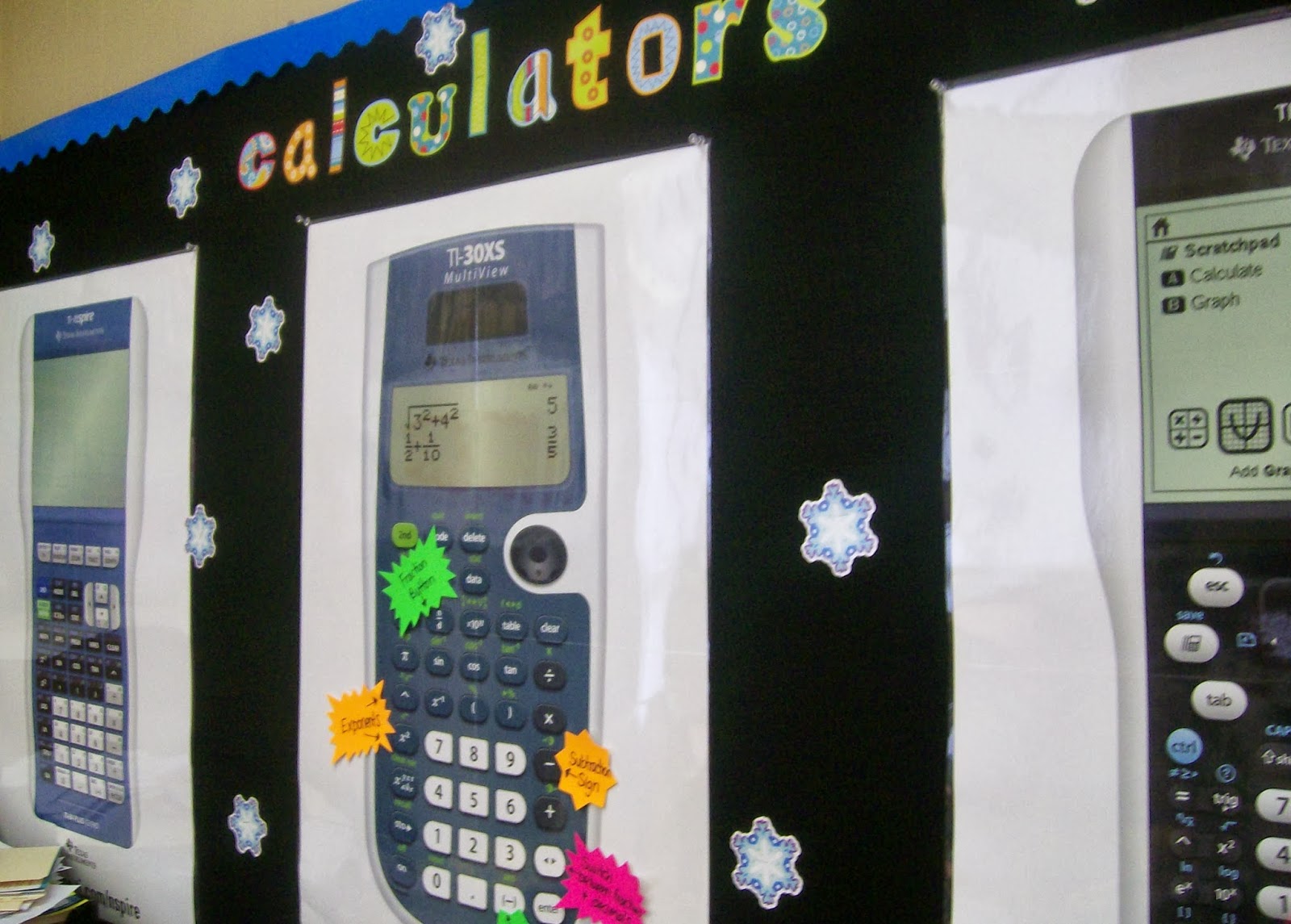
Last year, my sister decided I needed a Charlie Brown Christmas Tree for my classroom. She bought me one on Christmas clearance. My kids all in two groups. There are the kids who have seen A Charlie Brown Christmas. They proclaim that my tree is “cute” or “adorable.” Then, there are the kids who have never seen A Charlie Brown Christmas. “You need a better tree.” “What’s wrong with your tree?” “You need to get some more ornaments for your tree.” “I’m sorry, but that’s a wimpy tree.” “Your tree has problems.” I’m pretty sure my tree is going to have a complex by the time this holiday season is over. I love it, though.
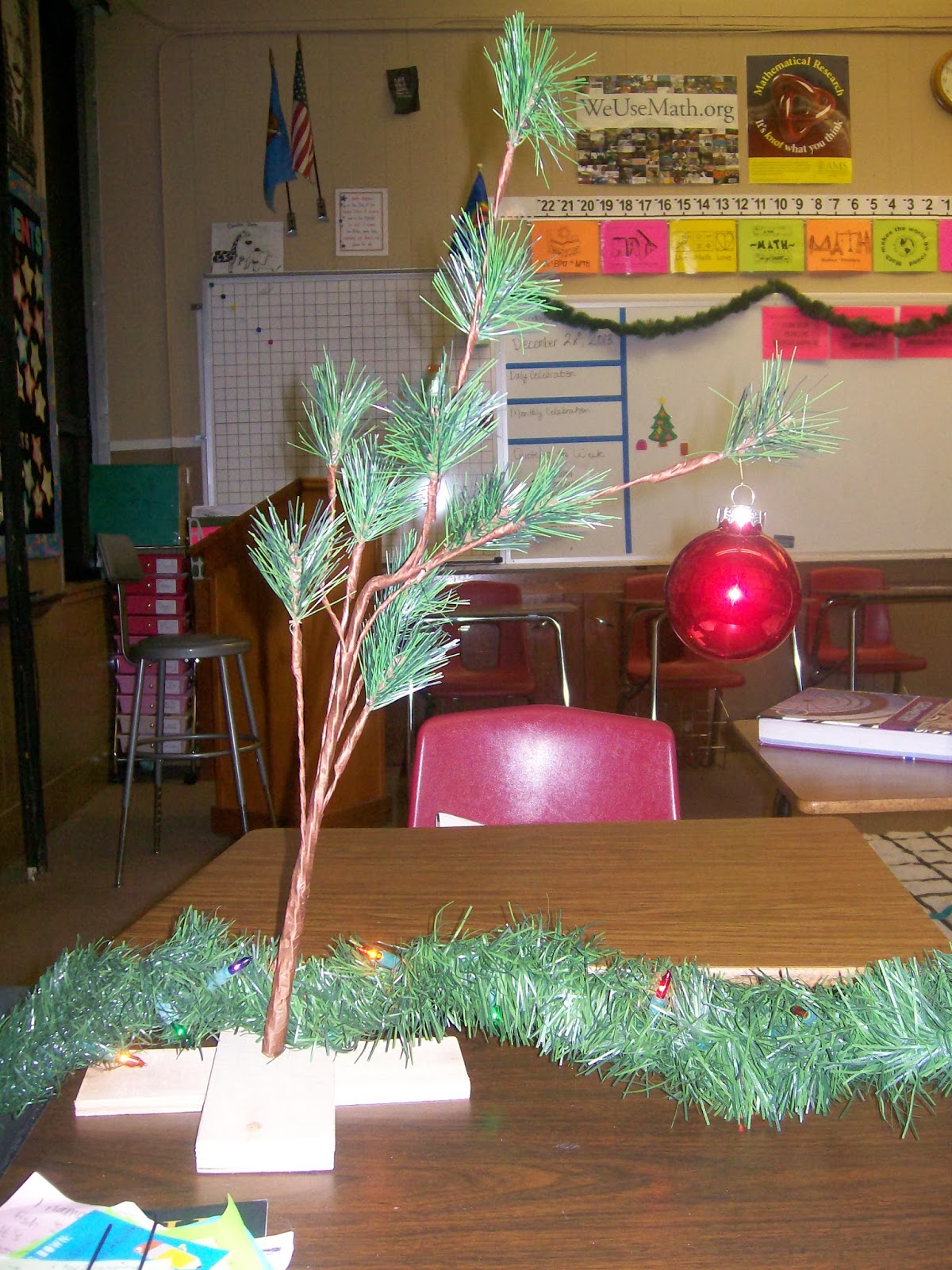
I wrapped more garland with lights around the edge of my desk.
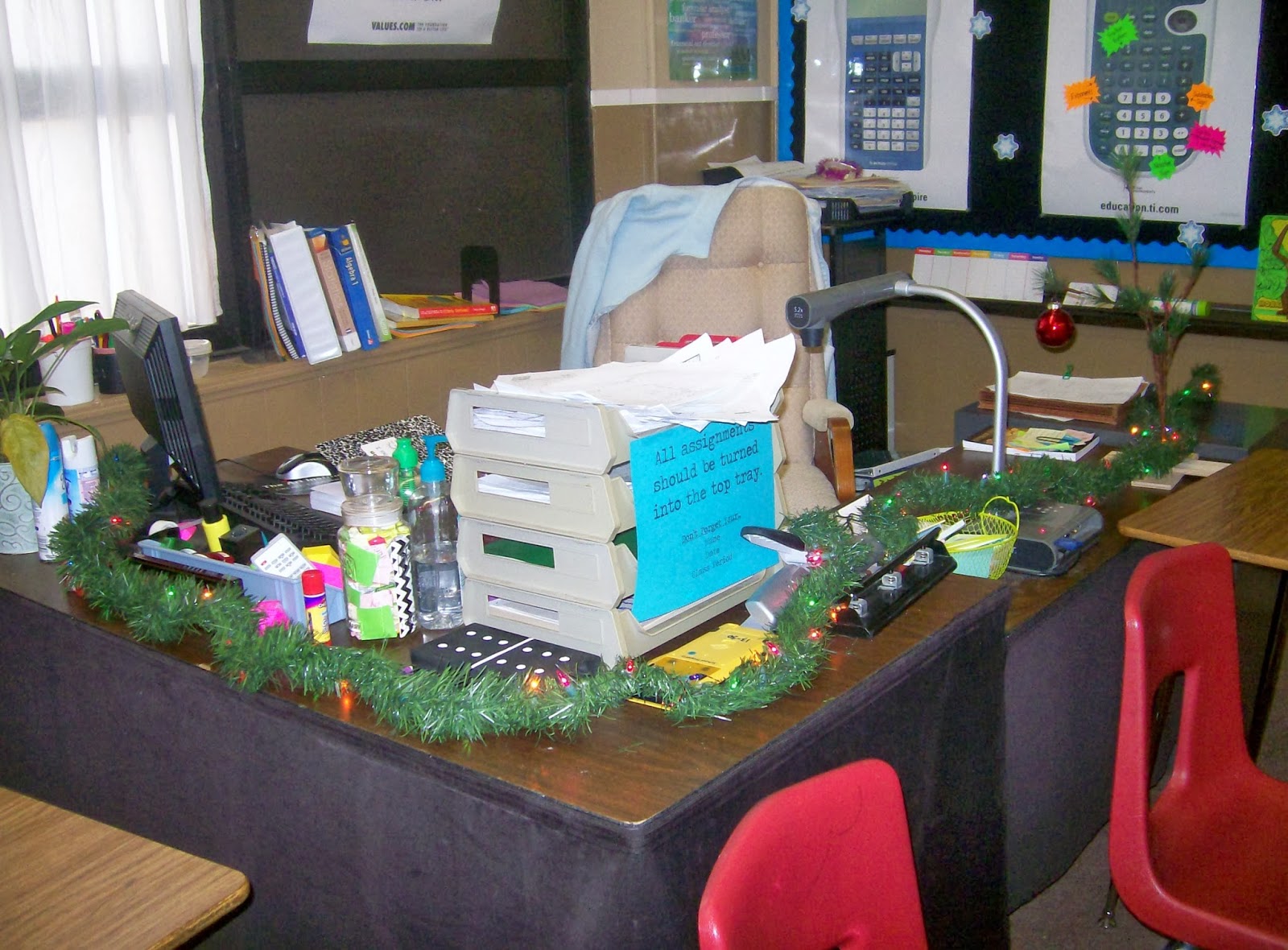
I still have snowflake window clings and giant plastic snowflakes to hang, but those require a ladder to be hung. And, I have yet to find the time to tote a ladder up the stairs and risk my life in order to bring Christmas cheer to all. It will happen, though.
I’ve been playing Christmas music, too. I just love this season! My classroom is WAY more decorated than my house. But, I guess this is where I spend most of my time…
December 9, 2013 – Things Teenagers Say Volume 4
Join me today for Volume 4 of Things Teenagers Say. This is my regular round-up of the crazy and memorable things I hear my students say in class.

Me: You may use your notebook on this quiz. You may not use a friend on this quiz.
Student: What if my notebook is my friend?
Best Interactive Notebook Compliment Ever. End of Story.
—
Me: What did you have for breakfast?
Student: Oatmeal.
Me: I had Cheerios. I know you were wondering.
Student: What did you have for breakfast?
Me: I just told you. I had Cheerios. Were you not listening to me?
Student: I heard you. I just thought it would be impolite to not ask you since you asked me.
—
Student: You seem like the type of person who would have a guy trapped in their basement.
Creepiest Comment Ever. Do I really give off these vibes?!?!
A week later:
Me: He’s not my boyfriend.
Student: Yeah, he’s your hostage.
—
A student said something rude to me, and his punishment was to say two nice things about me in return.
“You have nice cheekbones.”
How many teenage boys comment on people’s cheekbones???
—
What did the dinosaur get when it jumped in the pool?
Wet.
—
What did the robot say to the centipede?
Stop being a centipede.
I think my students take after me in the joke department.
—
Student: Are you positive?
Me: Yes.
Student: What are you having?
Another Student: Who is the daddy?
Yet Another Student: Don’t you know you’re never supposed to say yes if someone asks if you are positive?
All I could do was shake my head and try to move on with the lesson…
—
Student: What’s your favorite movie?
Me: It’s a toss-up between Sweet Home Alabama and How To Lose A Guy in 10 Days.
<Hysterical Laughter from Multiple Students>
Me: Guys, what’s so funny?
Student: What was the name of that second movie?
Me: How to Lose A Guy in 10 Days
<More Hysterical Laughter>
Student: Isn’t that a movie about how to avoid stalkers? Why would that be your favorite movie?
Me: You’ve never seen How to Lose A Guy in 10 Days, have you?
Student: Why would I watch a movie about avoiding stalkers?
Finally, another student spoke up and agreed with me that it was a really good movie that was NOT about avoiding stalkers.
December 10, 2013 – Those Students…
As a teacher, I know I’m not supposed to have favorites. But, there are those students who go out of their way just to make you smile. There are those students who notice the extra things that you do. There are those students who ask you how your day is and truly take the time to listen. There are the students who bring you cake on your birthday. There are the students who laugh at your jokes and tell you new jokes. There are the students who put forth effort on every assignment, who ask for help when they need it. There are the students who come to visit you just to say hi. There are the students who invade your classroom before school, at lunch, and after school to talk, to listen, and to be heard. There are the students who come to you for hugs, band-aids, and advice for their future.
I love all my students, but there are some who have earned a special place in my heart. These are the students I will remember always. These are the students who are more than my students. They have become my friends.
Yes, I know they taught me in college to never become friends with my students. There is supposed to be that clear line between teacher and student. But, they weren’t exactly honest with me in college. They didn’t tell me how hard teaching was going to be. They didn’t tell me about the politics that come with working in a school. They didn’t tell me about the drama. They didn’t tell me how much my life would be impacted by high stakes testing and teacher evaluation programs. They didn’t tell me about how much I would grow to care for the students that call me Ms. Hagan. They didn’t tell me that some days there would be more important things than achieving the objective that I spelled out on my lesson plan. They didn’t tell me how emotional teaching was. They didn’t tell me what it would feel like to constantly give of yourself, with no guarantee of anything in return.
So, maybe I am breaking the rules. Maybe I will regret this some day. But, then again, maybe not.
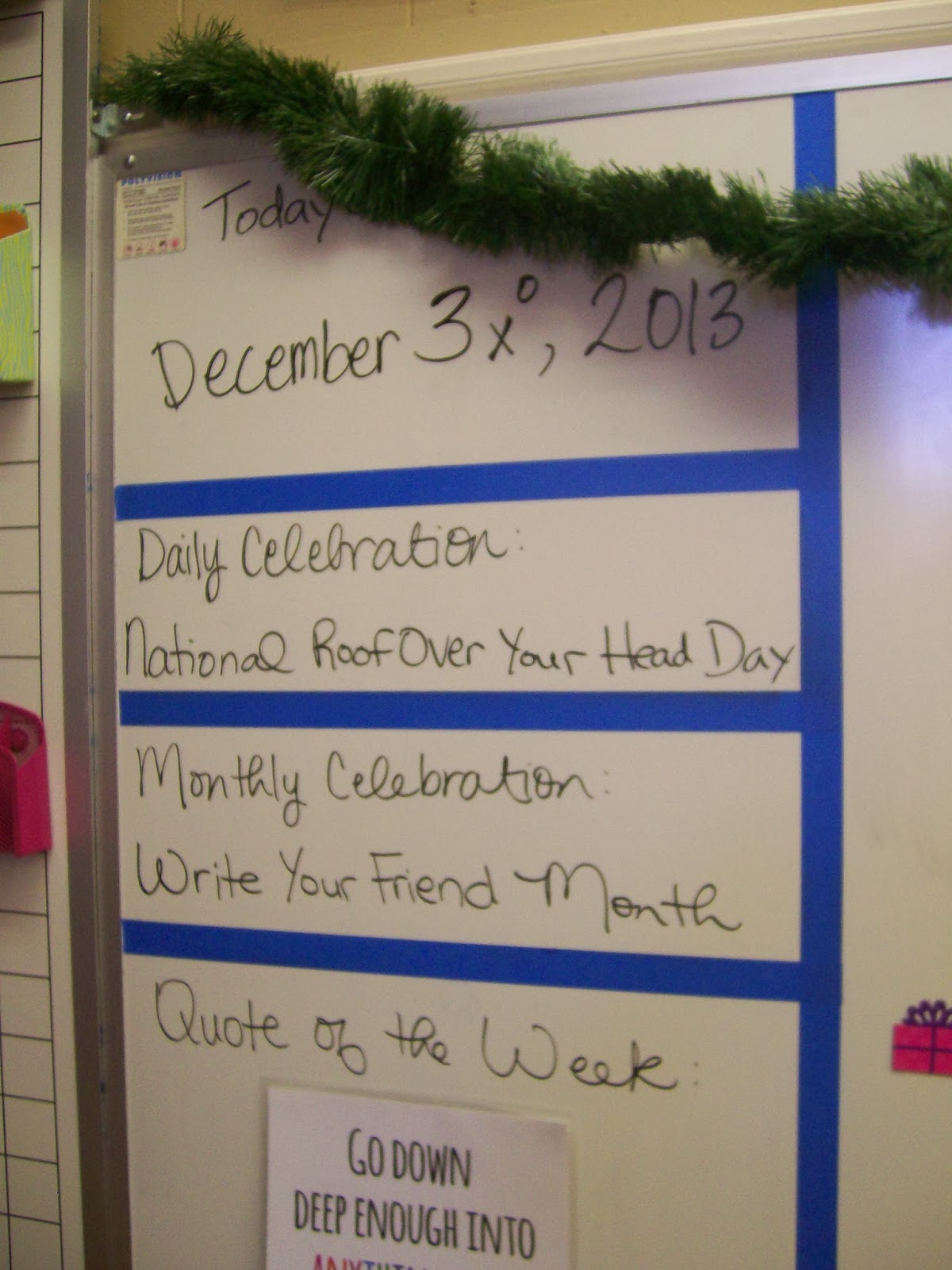
Most days, the holiday I research and write up on the board goes largely unnoticed. But, some days, my students surprise me. This was one of those days:
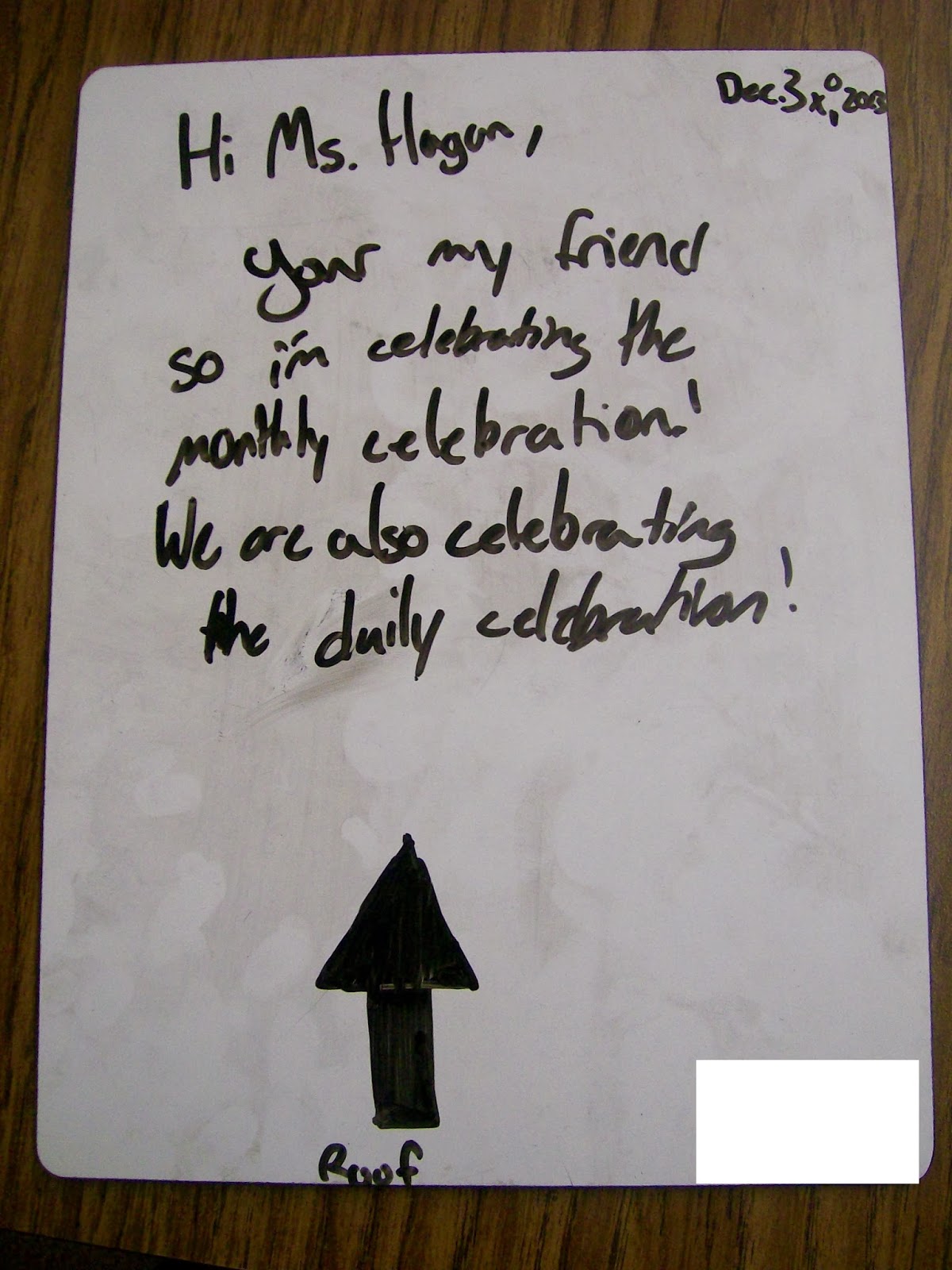
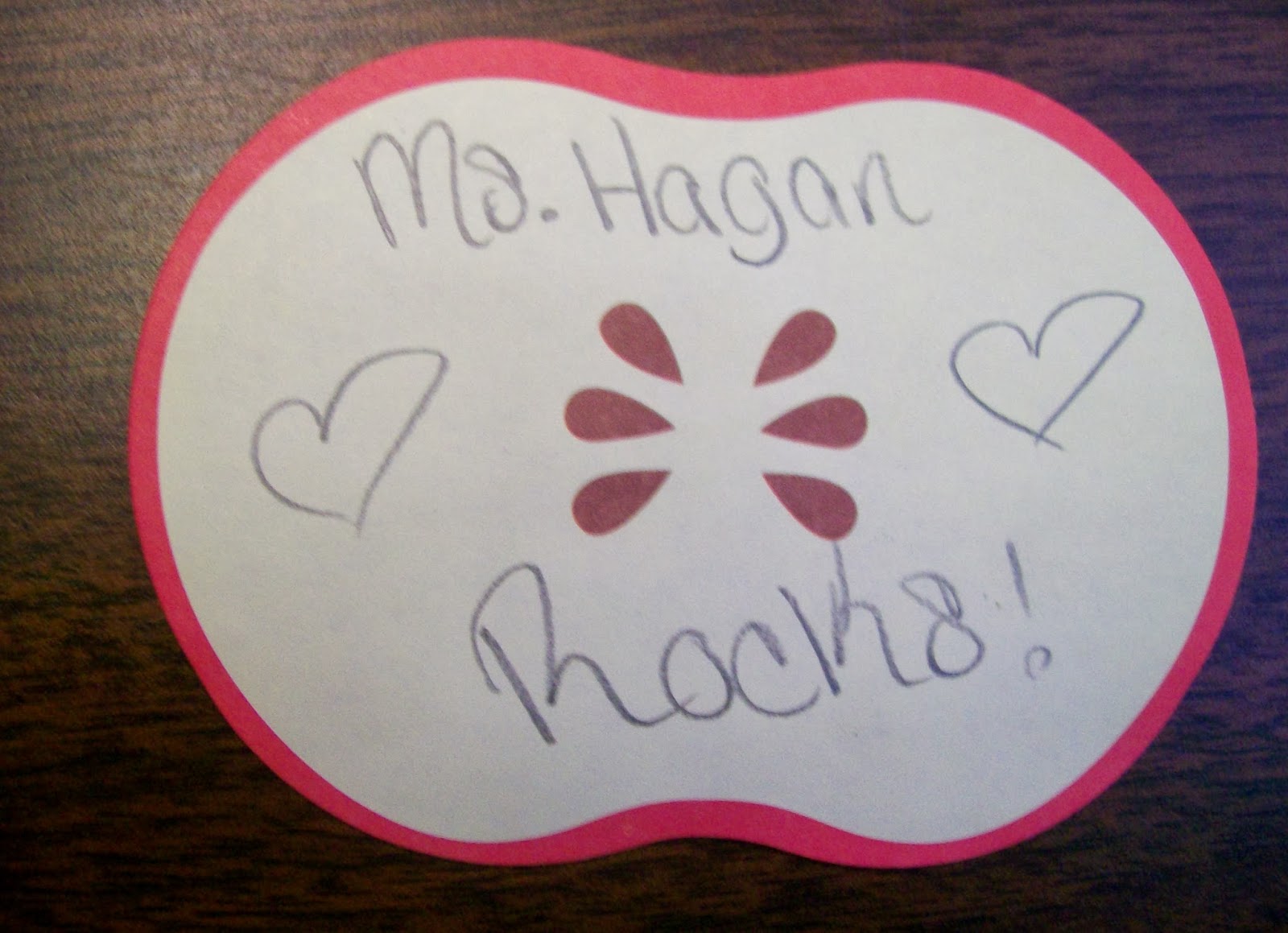
December 12, 2013 – Blogging has changed me.
Blogging has changed me. I do things in my classroom, and I want to share them. I want to share them with the world. I want to have a bigger impact than the 85 students I see on a daily basis. I learn from others. I take from others. I am a better teacher because of blogs and twitter and the #MTBOS.
Blogging has raised the standards I have for myself. I don’t want to just teach the way I was taught. I don’t want to lecture at students who really aren’t listening. I don’t want to be content with the way I taught something before. It has opened my eyes to the various tricks I was taught in school that do a disservice to my students.
Blogging connects me. I get e-mails and comments and messages from people, sharing a wealth of knowledge. I’m the only Algebra 2 teacher in my school district. But, I am not alone. I am not alone in this quest to make math fun and exciting and doable. I am not alone in my struggles. I am inspired by others. I am inspired to be better. I am inspired to do more. I am inspired to focus on what is truly important.
The more I take from this community, the more I want to give back. I give because others have already given so much to me. I give because I don’t feel like any of this is 100% mine. I read the ideas of others. And, my subconscious rearranges the ideas into something that I *think* might work for my students. Sometimes, it does. Sometimes, it doesn’t. When I think I do have an original idea, I usually later find something somewhere on the Internet that I hadn’t realized had inspired me. So, I share what I create, and I try to link back to those who inspired me (when I remember who they are.)
I take pictures of everything. My students (except for maybe three or four) still don’t know about my blog. I’m not quite sure what they think when they see me snapping pictures of activities with my camera. Okay. I guess that’s why I always try to take my pictures when nobody else is around. I’ve been known to shut the door of my classroom when I’m working in there after school so no one notices the flash of my camera. I only made it public knowledge to my facebook friends that I have a blog a couple of weeks ago. It’s just not something that I go around telling people. I don’t introduce myself as “Sarah Hagan, high school math blogger.” I’m definitely the only teacher in my district who blogs.
One of my students did find me on twitter the other day, though. “Ms. Hagan! You’re on twitter?!?!? How in the world do you have 695 followers? I’m an officer in a national organization, and I don’t even have that many followers!” I just laughed and said, “What? You didn’t know I’m famous?”
A few months ago, I was driving down the road on my way home. I take the same way home 99.9998% of the time. One day, I noticed something new: an American flag sculpture made out of some type of bark or driftwood. After driving past it five days a week for several weeks, I decided I needed to take a picture of it. My sister is an art major, and I thought I would share the picture with her. Now, deciding to take a picture and actually doing it are different things. You see, this beautiful piece of artwork is at the corner of an intersection. So, I would need to sort of stop my car in the intersection to take the picture. I do live in a small, small town, so that’s not that big of a deal. But, then I started thinking, “What will people think if they see me taking a picture of this?” I didn’t want people to think I was crazy. (That’s kinda funny because I don’t care if my students think I’m crazy. In fact, if my students don’t think I’m crazy, I haven’t done my job!) So, I would make sure I had my camera out and ready. If I saw anybody nearby, I would chicken out. Finally, I decided the coast was clear one day, and I took this picture.
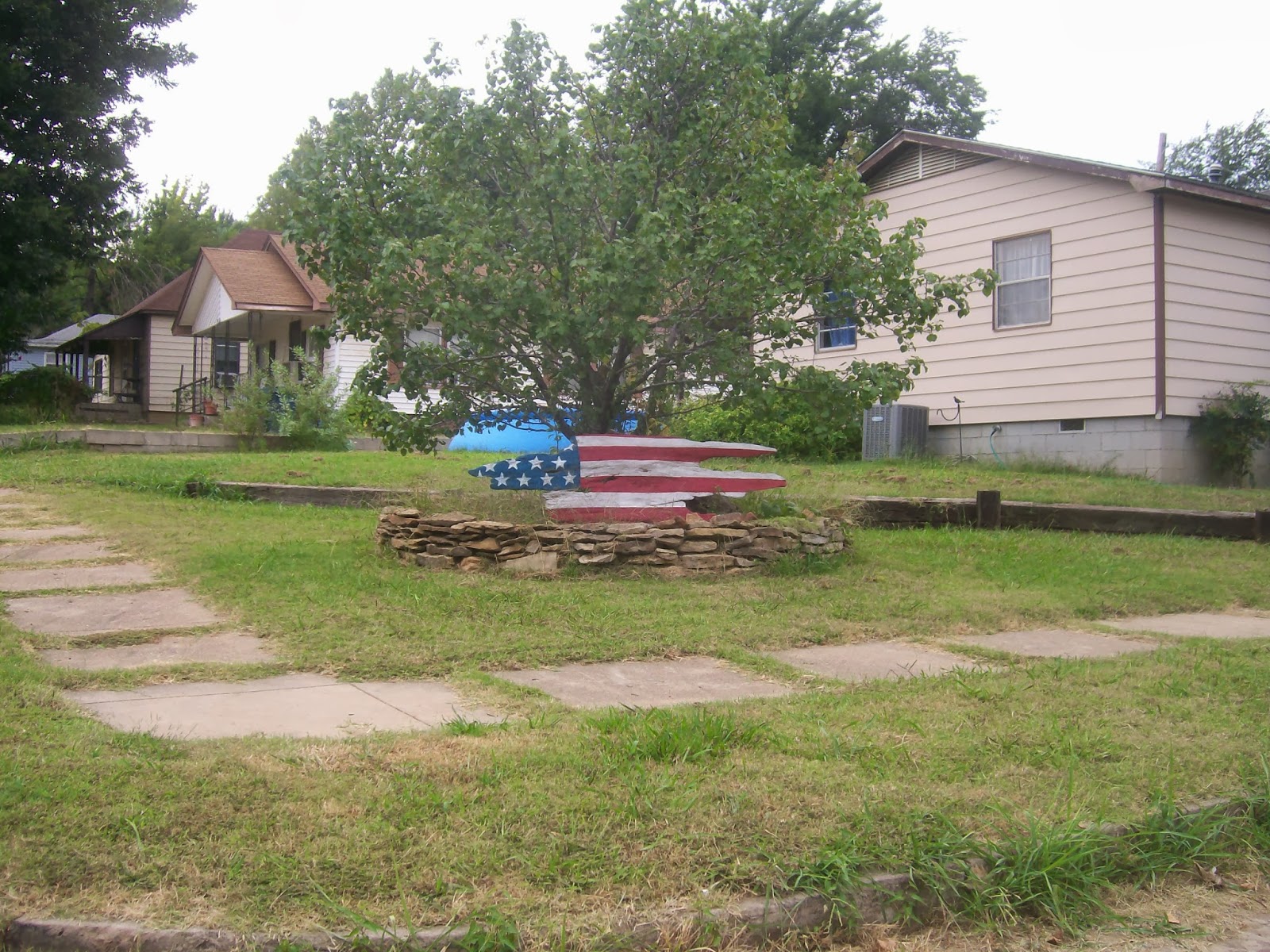
This picture is a reflection of my blogging journey. I used to fear putting myself out there for the world to see. I feared that I wasn’t good enough. I feared my inadequacy. After all, I’m only part way through my second year of teaching. I’m still figuring things out. I am a work in progress. And, there are days when blogging isn’t so fun. There are the comments that are cruel. There are the blog posts that I have ran across that criticize my approach to teaching. But, I’ve decided I don’t care. I’m not blogging for you. I’m blogging for me. I’m blogging because I feel like I need to give something back. If you choose to use something in your classroom, that’s great. I’d love to hear about it. If you disagree with what you read, that’s okay, too. I have still achieved my purpose. I have shared. And, I have been changed in the process.
December 13, 2013 – Pin the Index on the Radical
Do you ever have an idea and fail to follow through on it?
Remember my birthday a few weeks ago? I had grand plans. I was going to plan mathematically-themed birthday party games. I don’t ever really remember having a birthday party when growing up. Sure, there were the family parties when I was a toddler. And, my parents always did something to celebrate my birthday. But, I never got to invite my friends over for cake and games and party favors. I guess part of me was wanting to recreate this experience that I feel like I missed out on.

Thanks to my students, we did end up having cake, but I failed to follow through on the party games. Instead, we just went ahead with the planned lessons. Yes, I made my students do math on my birthday. Yes, I love them that much.
My Algebra 2 students were studying radical functions at the time, though. And, I’m really starting to wish I had taken five or so minutes out of class to play a game of “Pin the Index on the Radical.” It would have been like “Pin the Tail on the Donkey.” Except, we would have had a giant radical sign on the board, complete with a radicand that corresponded to my age or the day of my birthday or something equally cool.
A student would be blind-folded, spun around x times, handed an index (maybe on an INDEX card!), and instructed to pin the index on the radical. Yes, the variable is intentional. I have no clue how many times you are supposed to spin someone around.
Points would be awarded based on the proximity of the index to its correct place on the radical symbol.
Or, what if the radicand was decided after the person was blind folded? An appropriate index was placed in their hand. And, after they pinned the index on the radical, they had to simplify the radical as much as possible as quickly as possible?
Hmmm… Maybe next year…
December 14, 2013 – Things Teenagers Say Volume 5
Join me today for Volume 5 of Things Teenagers Say. This is my regular round-up of the crazy and memorable things I hear my students say in class.

Student: Do you believe in ghosts?
Me: No
Student: You know this school is haunted, right?
Me: We need to move on with our lesson. If it was Halloween, I would be more than happy to talk about ghosts. Sadly, it’s Christmas. And, Christmas has nothing to do with ghosts.
Student: What about the ghosts of Christmas past, present, and future?
Me: Well…you’ve got me there. We still have to get back to our lesson, though.
Another Student: You just got boomeranged!
Apparently, one of our English teachers calls it boomeranging someone when you prove them wrong. I guess they did boomerang me…
—
Me: Put up your phone.
Student: Okay. <Two minutes later>
Me: I can see that. Put up your phone.
Student: Oh, I really thought you weren’t going to see me that time.
Me: Don’t you know I have an all-seeing eye?
Student: What?
Me: I have an all-seeing eye.
Student: You have an ulcer in your eye?
Me: No…
—
I don’t know why I’m like this today. Usually, everything you say is NOT funny to me.. But, today everything you say is funny. I guess it’s the Christmas spirit inside of me or something.
—
<While discussing a future relationship situation that I might find myself in someday. For this to make sense, you do have to know that I’m a vegetarian.>
He’ll be eating a 48 ounce steak, and you’ll be eating a 48 ounce salad.
—
While making an ordered pair foldable:
Me: When you open up the outside flaps of the foldable, you will find another foldable inside. Isn’t it just adorable?
Student: I see what you did there.
<Laughter>
Me: I don’t get it.
Student: A”door”able
Me: Pun unintended. That time. It will be definitely intended, though, for the rest of the day!
—
Me: Can you believe that tomorrow is November?
Student: No. What month comes next? January?
—
Student: Why do we have to go to school on Halloween?
Me: Because it’s not a National holiday.
Student: But, they celebrate it all across the US. Doesn’t that make it national?
—
After telling students a joke that a kid at my church shared with me:
“That’s so funny I fell off my pet dinosaur.”
“That’s so funny I have tears running down my leg.”
—
I named my fish “Smithy.” It’s actually short for “Will Smith.” I named him that because he’s my only black fish.
—
So, you drive a grandma car, you own a bunch of cats, and you have a box of barbies in your cabinet. I’m worried about you.
My students make me feel so loved. And, for the record, I do not own a cat. And, I don’t think I drive a grandma car. I do have a box of barbies, however. How else could we do Barbie Bungee later in the year???
—
One day, I didn’t notice the lights flicker. This led to this proclamation:
“Either we’re all on meth and you’re not, or you’re on meth.”
—
Ms. Hagan, I have something I need to get off my chest. My cousin thinks you’re cute, and he wants me to ask you out for him…but he’s kind of a blank space…
—
Me: Why does everybody keep commenting on my hair?
Student: Well, it does look like you just woke up.
Another Student: Have you been outside recently?
Me: No.
Yet Another Student: Maybe you’ve stood by an open window recently? (I think this girl was really trying to make it better…)
Me: No.
—
Me: If you can’t be kind, be quiet.
Student: Wait! I thought it was if you can’t be kind, say two nice things.
—
I saw hexaflexagons in my dream last night.
—
Student: Ms. Hagan, can I come in here at lunch?
Me: Yes. You can always come in my room at lunch.
Student: I have black contacts in. No one has noticed my different eye color all day.
—
While going to the water fountain to refill my water bottle:
Student: What’s the name of your bottle?
Me: George
Student: Mine is named Franklin.
And, for the record, his bottle was ghost-shaped because it was one of those Halloween party favors. And, I actually don’t refer to my bottle as George. I made up a name on the spot just to see how my student would respond.
—
Student: What day do we get out for Christmas Break?
Me: December 20th
Student: You mean they’re making us come to school on Christmas Eve?!?
Me: No, we don’t have school on Christmas Eve.
Student: What day is Christmas?
Me: What day do you think Christmas is?
Student: Well, I thought it was on the 21st, but that would make Christmas Eve on the 20th. And, you said we didn’t have school on Christmas Eve.
—
Student: Are you Amish?
Me: No
Another Student: Just to be honest, you do look Amish. You have an Amish haircut.
—
Student: I’m so excited. The Dallas Cowboys are going to be playing the Green Bakers.
Me: Who are they going to be playing?
Student: The Green Bakers.
Me: Are you sure they’re going to be playing The Green Bakers?
Student: Yeah.
Me: I don’t know a lot about football, but I’m pretty sure they’re going to be playing The Green Bay Packers.
Student: That’s what I said.
December 30, 2013 – Things Teenagers Say Volume 6
Join me today for Volume 6 of Things Teenagers Say. This is my regular round-up of the crazy and memorable things I hear my students say in class.

Me: You must show your work. No work equals no grade.
Student: But, Jesus didn’t have to show his work when he built the ark!
Me: Nice try, but Jesus didn’t build the ark.
Student: Oh, I meant Moses didn’t have to show his work when he built the ark.
Me: Yeah, Moses didn’t build the ark either.
Student: I really thought Joseph was the one who built the ark.
Me: You said Jesus earlier, not Joseph. But, Joseph didn’t build the ark either.
Student: Okay. Last try. Marco Polo is the one who built the ark.
Yeah… I guess I should be impressed that they have heard of Marco Polo.
—
I always have a tray of loose leaf notebook paper for students to use if they need it. Some of it is a little old. But, it still works.
Student: Can I use this prehistoric paper?
—
Me: Please stop pulling out other people’s hair.
Student: Well, she pulled a hair out of my face, so I had to pull out one of her hairs.
No words.
—
A lady at my church asked me to give my students some Family Feud style questions for a Christmas party she was planning. This was one of the questions.
Me: Name an animal you would find in the desert.
Student: A cactus.
Me: A cactus is not an animal.
Student: Yes it is. They move.
Me: Cacti do not move.
Student: Yes they do. I saw it in a movie. If it wasn’t true, they wouldn’t have put it in the movie.
—
Me: I went to the zoo this weekend.
Student: Did you see your cousins?
Me: No.
—
Student: Your legs look nice. Oh, you’re wearing panty hose. That’s why. I’m going to have to get me some panty hose so my legs look nice.
Me: And, that’s not awkward at all.
Student: It’s only awkward because you just made it awkward.
No, I’m still pretty sure it was just awkward to begin with.
—
One of my student’s theory on my future:
First, he buys you flowers. Then, he buys you chocolate. Then, he buys you jewelry. Then, he proposes. Then, you get married. Then, you have kids. Then, you start fighting. Then, you get a divorce. Then, you die alone, surrounded by your cats.
—
Math is so terrifying. It shows me how big and scary the world really is.
—
Student: Have you ever had your house egged?
Me: No.
<Laughter>
And, this is why my students do not and should not know where I live!
—
Me: Today, we’re going to calculate the probability of winning the game of craps.
Student: Don’t you mean the game of crabs?
Another Student: Yeah, I’m pretty sure the game is called crabs.
Me: No, actually it’s called craps.
January 7, 2014 – 2013: The Year in Review
Well, considering it is now well into January, I guess I need to finish reflecting on 2013. I’ve come to the conclusion that if I don’t do it in the next day or two, it probably won’t happen. Last year, I summarized 2012 and my first experiences with student teaching and teaching in my very own classroom. It was fun to read back over what I had considered to be the most important and life-changing experiences of that year. If 2012 was the year of new experiences, then 2013 was the year that trying and challenging experiences that forced me to grow in ways that I never dreamed possible. I think one of the reasons I’ve been putting off this post is that 2013 wasn’t a fun year. A lot of things happened that I haven’t talked about on this blog thus far. Well, that’s about to change. If it seems like I’m speaking very vaguely about something, it’s probably intentional. 🙂
Let’s review…
January
January 2013 started off with the celebration of Universal Letter Writing Week. One of the first things my students realize about me is that I don’t believe in showing movies or giving them free days. We do math every single day. Throughout the year, though, I will occasionally take a day or part of a day where we pause our curriculum and create something I deem worthwhile. Writing letters of appreciation to teachers and staff members in our building and folding them up as origami letters is one of these. Origami cubes, hexaflexagons, and mobius strip hearts would also fall into this category. Algebra is important, but saying thanks every once in a while is important, too.
Towards the end of January, I had a life-changing experience in my classroom. It involved a student and a weapon. Nobody was hurt, but it’s something that I will never forget. This situation and its aftermath turned my life upside down for months. Frustrations with my job and how certain things were working out had been growing for months by this time. And, this situation brought them all out in the open. There were confrontations. I cried, I yelled, I said some things that I probably shouldn’t have, and I cried some more.
In retrospect, there were many positives that resulted from this terrible situation. But, it took me a few months to see those positives. Those were dark months, but through them, I made some amazing friendships with coworkers. Up until this point in my first year of teaching, I had been trying to go it alone. I thought that asking for help from others was a sign of weakness. I thought my principal would think less of me as a teacher if I admitted that I didn’t have everything under control in my classroom. I couldn’t have been more wrong. January was a month where I learned to communicate. I learned to accept help. I learned that teaching was a lot more enjoyable of an experience when I shared my journey, my triumphs, and my failures with coworkers. January was both a month of pain and friendship.
February
February was a month of reflection. I relived the events of late January so many times that I almost made myself sick. February was a month where I had to choose what was most important on a daily basis: my feelings or my students. As much as I was in pain over the things that were happening that I couldn’t control, I knew my students needed me. They needed 100% of me. I poured myself back into my classroom and my lessons. This time, however, I decided that the world wasn’t going to come to an end if I went home before all my papers were graded or every single copy was made for the next day. And, the world didn’t come to an end. My early mornings and first-hour planning period were busier, but I was happier.
March
March brought with it Spring Break and a MUCH needed break from school! My sister celebrated her 20th birthday. I spent almost all of Spring Break sleeping and recovering from a terrible stomach bug that landed me in the emergency room on Pi Day after five hours in urgent care. I took an 11-day break from the Internet over the break, and it was refreshing. After returning from Spring Break, my students jumped immediately into EOI review for the upcoming state tests.
April
April was the month of state testing. I was a NERVOUS WRECK. The morning of the Algebra 2 test, I was pacing and giving my students last minute pointers, and I made them even more nervous as a result. 100% of my Algebra 2 students passed their EOI. And, my Algebra 1 pass rate, if I remember correctly, was in the low 80’s. The results were good. My counselor and principal were THRILLED!
April also went down in the record books as the month I finally took down my Christmas tree! After I got back from spending Christmas Break at my parents’ house, I decided to leave my tree up for another week or so in order to enjoy it. Well, you already read about what happened in January. Needless to say, I didn’t exactly feel like taking it down in February. And, by the time March rolls around, what’s another month of leaving your tree up? By April, I did force myself to take it down. I decided that there was no way that I was still going to have a tree up come summer vacation.
May
May marked the end of my first year of teaching. I even wrote a reflection piece on 50 things I learned during my first year of teaching. I took down all of my decorations off the walls. This led to rumors that I was leaving. I wasn’t. I watched my first group of students walk across the stage to receive their diplomas. I only new about 5-6 of our 32 graduating seniors, so the graduation was not as emotional of an experience as it could have been.
June
I might have overbooked myself for the Summer of 2013. I attended my first OCTM Annual Summer Conference. It was a blast! I served as director for my church’s Vacation Bible School. We wrote our own curriculum that led our students through a Kingdom Adventure. Probably the best week of my summer was the week I spent in Edmond at the Oklahoma Geometry and Algebra Project (OGAP). It was an amazing week of Common Core Training! At the beginning of the week, most of us knew next to nothing about what CCSS truly meant. By the end of the week, I felt like the other teachers in the training were part of my family. None of us wanted to leave! And, we left with the confidence that we could tackle Common Core. We knew we had a lot of work in front of us, but we had been equipped with tools and support like we had never imagined possible.
July
July was a flurry of last-minute preparations for my classroom. I spent a week serving as a sponsor at church camp. Every summer, my church takes a group of 3rd-6th graders to the Kiamichi Mountains in Talihina, OK. I went three years as a camper (4th-6th grade), and I’ve been going back as a helper for the last ten years. This was my 13th week spent in those mountains in July, and it was amazing as usual. I also attended an AP Statistics week-long conference in Tulsa and a 4-day Pre-AP High School Math training in Tulsa. At the Pre-AP training, I was able to reconnect with the middle school teacher that I had done my student teaching with. I was busy, busy, busy!
August
I attended my first tweet-up. It was a blast to meet other local math teachers that I had been talking to via twitter! And, I went to my first minor league baseball game with a friend. (I did go to part of a game in the fifth grade on a field trip, but I don’t count that.) Later in the month, I was able to catch up with a group of friends who I hadn’t seen in over a year. While student teaching, we formed a sort of support group that met once a week for dinner and lots of venting. This was our opportunity to talk about the things we were too scared to bring up in our weekly seminar meetings.
School started early in August. Students claimed that my classroom was more colorful than ever before, something they had previously deemed impossible. I had a blast watching my students participate in The Marshmallow Challenge. I started teaching a new prep (statistics) in addition to my regular load of Algebra 1 and Algebra 2.
September
I made my Algebra 1 students take an oath. And, I started posting all the crazy things that my students say on my blog. Good Things became a Monday staple in my classroom. The stress of homecoming was very real. Student council is in charge of selling homecoming t-shirts as a fundraiser. I am in charge of student council. Therefore, I was in charge of all things t-shirt related. I took a group of students to a Chad Cargill ACT Workshop. I learned a few things from the workshop myself, but I never got around to blogging about the experience. Oops…
October
I went to my first Math Teachers’ Circle with the lovely @druinok. Student Council attended our first District Meeting of the school year. We had parent/teacher conferences. The school I work at is notorious for low to no parental involvement. Last year, I had 6 parents (out of 65 parents) come for conferences. And, 3 of those parents are employees of the school district. This year, I had 51 parents! (And, I only have 85 students.) What changed? My principal mandated that each teacher give extra credit points to each student whose parents come to conferences. It looks like it worked! I’ve never talked to so many parents in my life! I talked to a lot of the other teachers, and they only had 20-30 parents show up. Apparently, a lot of students decided my class was the only one they needed extra credit in. I hosted an Algebra Bootcamp for students who failed the EOI last year in order to help the prepare for the PLAN test. Turnout was extremely low. But, I hope it helped some of my students.
November
In November, I celebrated my 24th birthday in style. My students brought me cake. We did math. It was fabulous. Over Thanksgiving Break, I made a giant coordinate plane for my classroom out of a shower curtain and electrical tape with the help of my mom and sister. I’m seriously proud of this thing. There was no way it wasn’t make it in the year-end review!
I attended my second Math Teachers’ Circle. Student Council helped put on a Veterans Day Assembly. I played bunco for only the second time in my life. I even won the prize for losing the most! I worked the basketball concession stand twice which turned out to be a lot of fun.
December
December was cold. We suffered the wrath of Cleon. We were out of school for three days. Some districts in this area of the state were out of school for five days. Including the weekend, we were out of school for five days. Since I live alone, that means I went five days and fifteen hours without seeing another human. So, in other words, December was the month I almost went insane. On the first Saturday of break, an ice storm hit the area. I spent Christmas with my parents and sister. It was fun! I spent a lot of time playing KenKen puzzles and reading. Relaxation at its finest!
January 8, 2014 – Christmas Presents
I’m not quite sure what I did differently this year than last, but I found myself showered with presents and Christmas cards from my students. They made me feel so special and loved. I don’t think I got a single card or gift last year.
I love to read, so this beautiful bookmark was the perfect gift! It’s currently living in one of my novels.
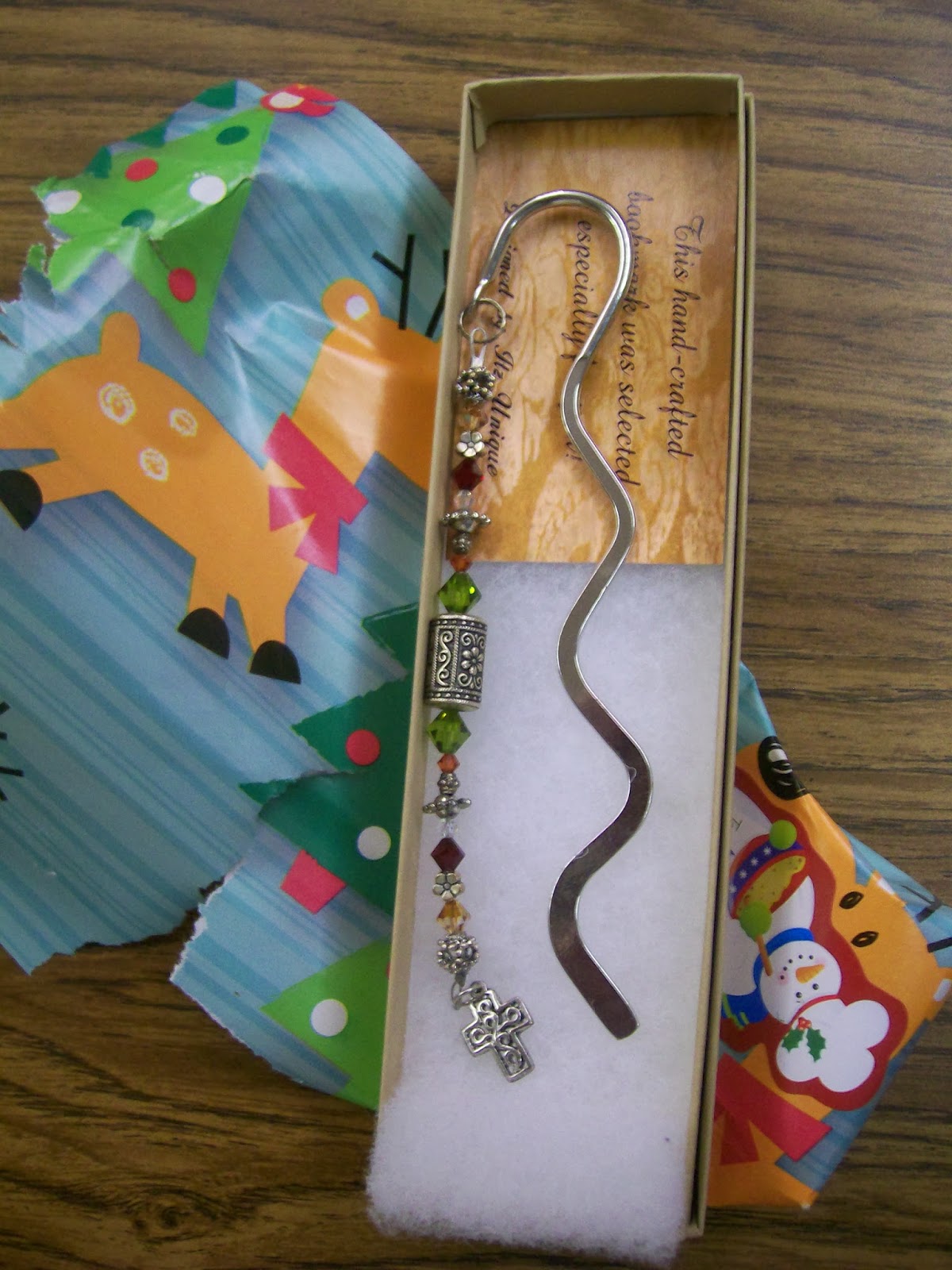
Another student brought me some blonde brownie mix. I baked the brownies over Christmas Break, and they were delicious!

Our FACS class made yummy treats for all of the teachers. Isn’t that the most adorable marshmallow snowman?
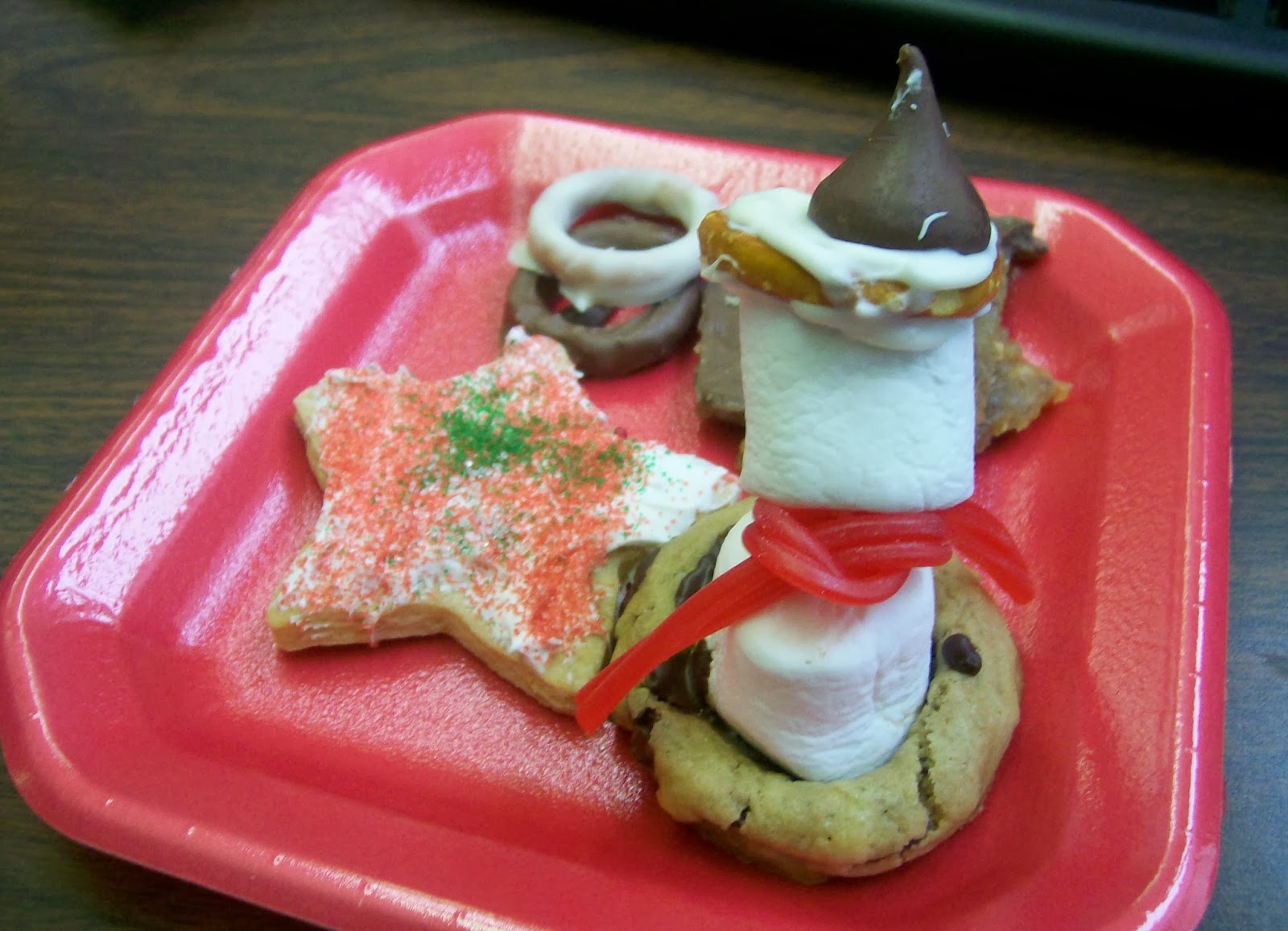
And, I had two separate students bring me a cupcake for Christmas!

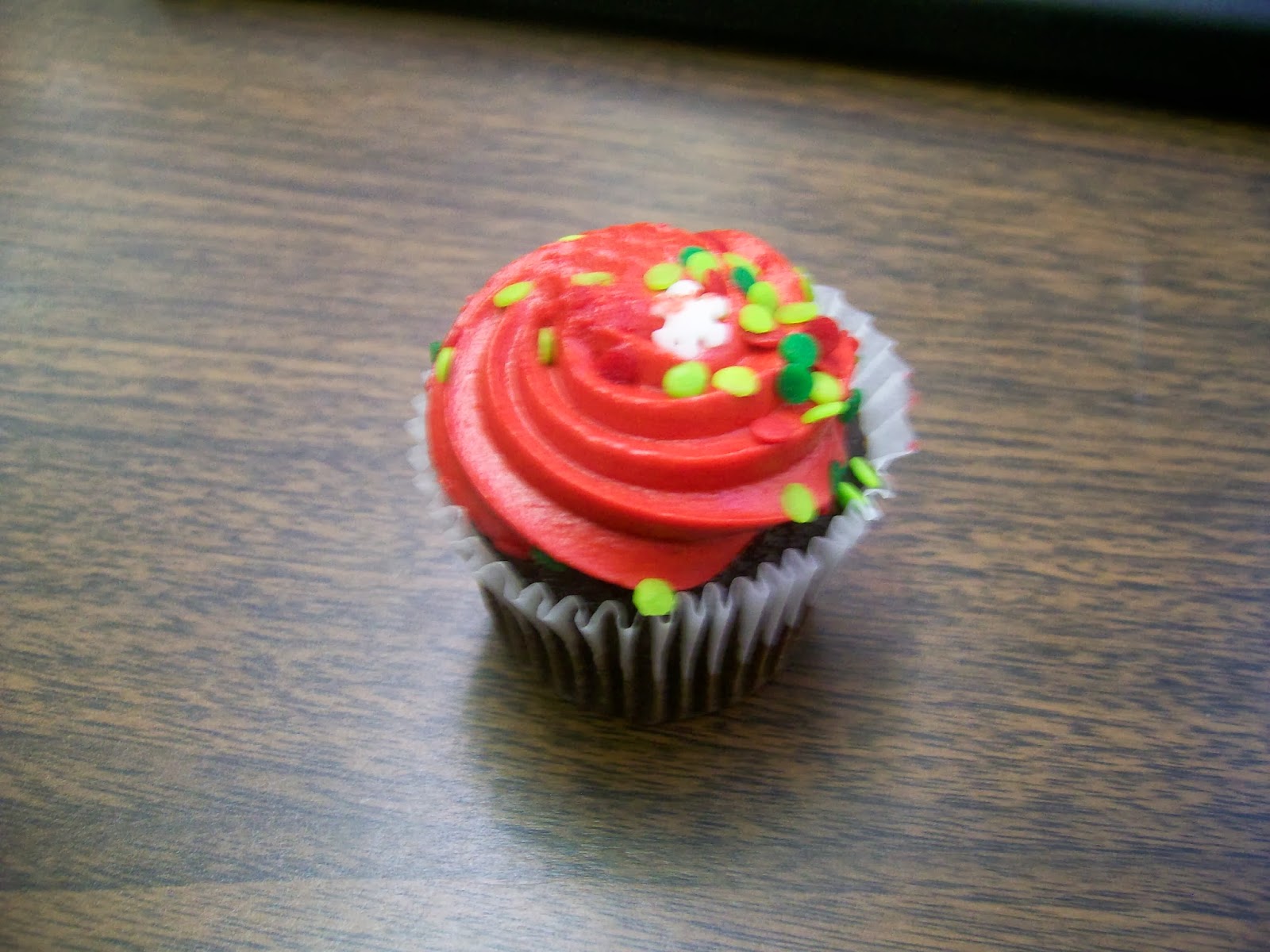
I received way too many cards to post pictures of them all. But, I thought this one was super cool because my student made it herself! She is currently taking a digital printing class at our local career tech center, and I’m assuming one of their assignments was to design their own Christmas card. She brought me one, and I found the gesture to be extremely thoughtful!

January 9, 2014 – What day of the week were you born on?
Do you know what day of the week you were born on? Do your students know what day of the week they were born on?
Yes, I know there’s an app for that. But, did you know that there is a mathematical formula that will tell you what day of the week you were born on? If you were like me up until several weeks ago, the answer to that last question is a no.
So, how did I discover this? I recently started a new classroom tradition. Since September, we’ve been doing Good Things every Monday. Sometime in October, I introduced Friday Funnies. I stole this amazing idea from Lisa Henry. I share jokes, comics, videos, or other random things that I found funny. Yes, I torture my students with mathematical jokes sometimes. They like to make fun of my jokes. Apparently, I don’t have a funny bone in my body. But, if I forget that to do Friday Funnies, you would think that I had forgotten the password to the computer that has the capability of saving the world from destruction. Okay, maybe I exaggerate a little. My latest addition is Weird and Wacky Wednesday. This is a chance to share something interesting and usually educational or inspiring with my students that they wouldn’t otherwise be exposed to.
The Wednesday before Christmas Break, I was feeling uninspired regarding what I should share. So, I googled “fun math facts” for inspiration. After following a few links, I discovered a formula that can be used to determine what day of the week you were born on. I already know that I was born on a Saturday, but I had to try out the formula to see if it worked. And, it did! It was magic; it was math! I decided this would be the PERFECT thing to share with my kiddos.
It took a lot longer than I anticipated. It’s not that it’s hard. It’s actually rather simple if you know how to do long division AND read directions.
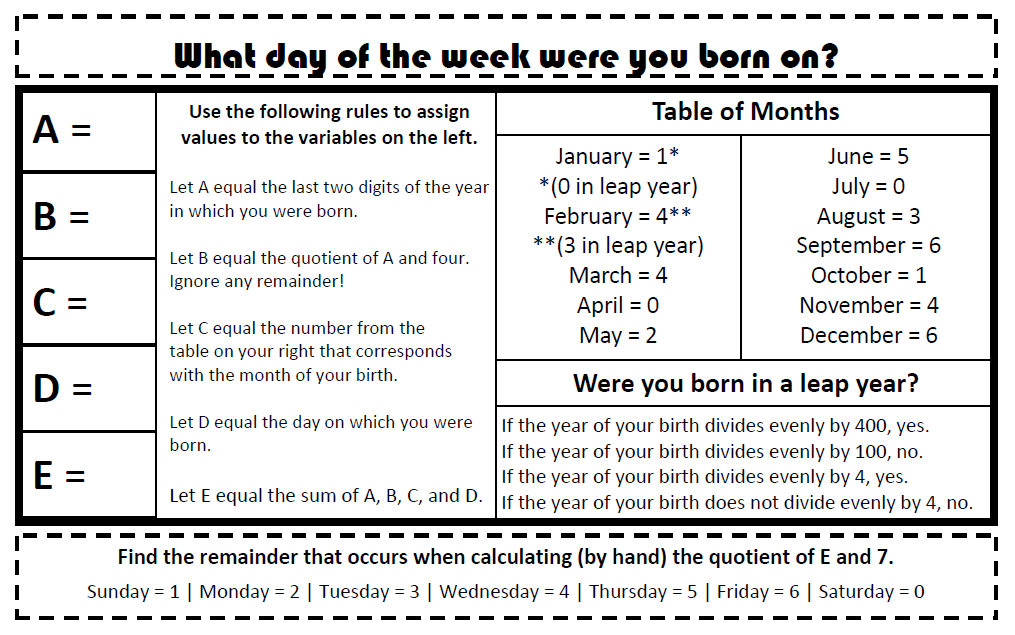
I’ve decided that next year, I am going to save this activity for right before my Algebra 2 students jump into polynomial long division. I always have to spend a good chunk of a class period reviewing long division with my students before we can even start to tackle long division with polynomials. This activity provides the perfect reason for practicing long division. You can’t use a calculator for this because we are interested in the remainder.
I typed up the steps, but these steps only work for birthdays in the 1900s. There is a modification to the formula (follow the link above and scroll down) that allows you to calculate the day of the week for dates in any century, but I have yet to experiment with it. When I typed this up, I chose to use as much mathematical vocabulary as possible. Vocabulary is one of the things I am really working on with my students this year.
Feel free to use this to amaze your students (if they were born in the 1900s) or try it out yourself just for fun!
After finding everybody’s day of birth, we checked some of the dates using Wolfram Alpha to prove to students that the formula was true. Much to my students’ surprise, they were! And, they had to admit. It was pretty cool that you could figure it out using math!
January 10, 2014 – The Aftermath of Cleon
(This blog post has been setting in my drafts for a while. We’ve had multiple snow and ice adventures since I started writing this!)
I can’t believe I still haven’t written about our recent snow and ice adventure here in Oklahoma. This was all thanks to winter storm Cleon. Have they been naming winter storms forever, or is this something new? Because I don’t recall ever hearing the meteorologist refer to a winter storm by name before.
I’m not sure how much snow we got here in Drumright, but it was enough to cover the ground in a beautiful layer of white. Here’s what it looked like in my backyard.
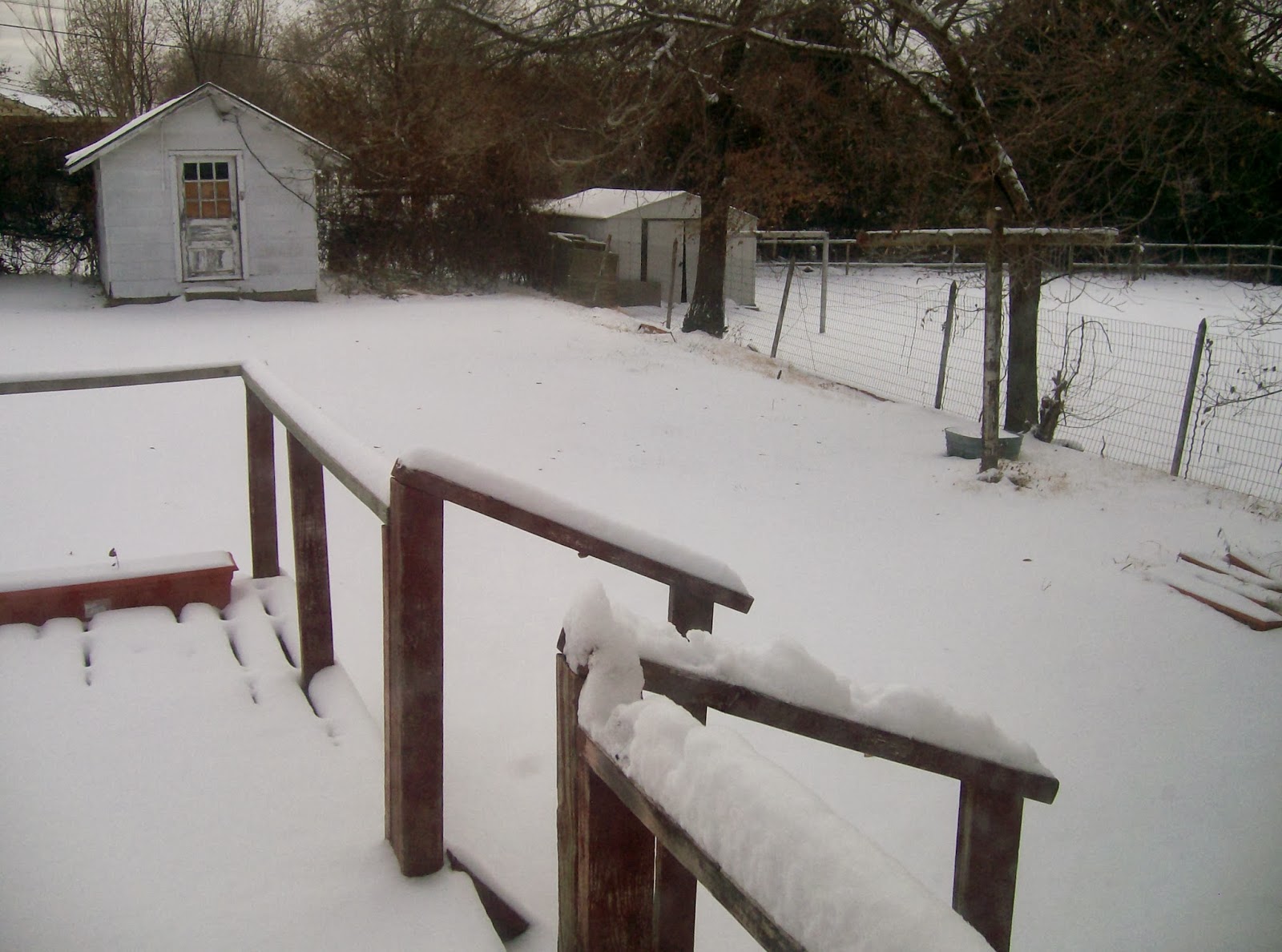
We ended up missing three days of school. It started sleeting Thursday afternoon. By the time I left work on Thursday, the windshield of my car had started to ice over. And, there was white stuff falling from the sky. We were out of school Friday. Saturday night, it snowed some more. And, we were out Monday and Tuesday. Some school districts in this area of the state missed five or six days.
When it started to melt, this gigantic icicle formed outside my back door. I was so impressed with its size that I had to take a picture.

Honestly, I was ready for a snow day. I just needed a few days off from school for rest and relaxation. My snow break actually started off productive. I laminated some posters that I printed off way back in August…
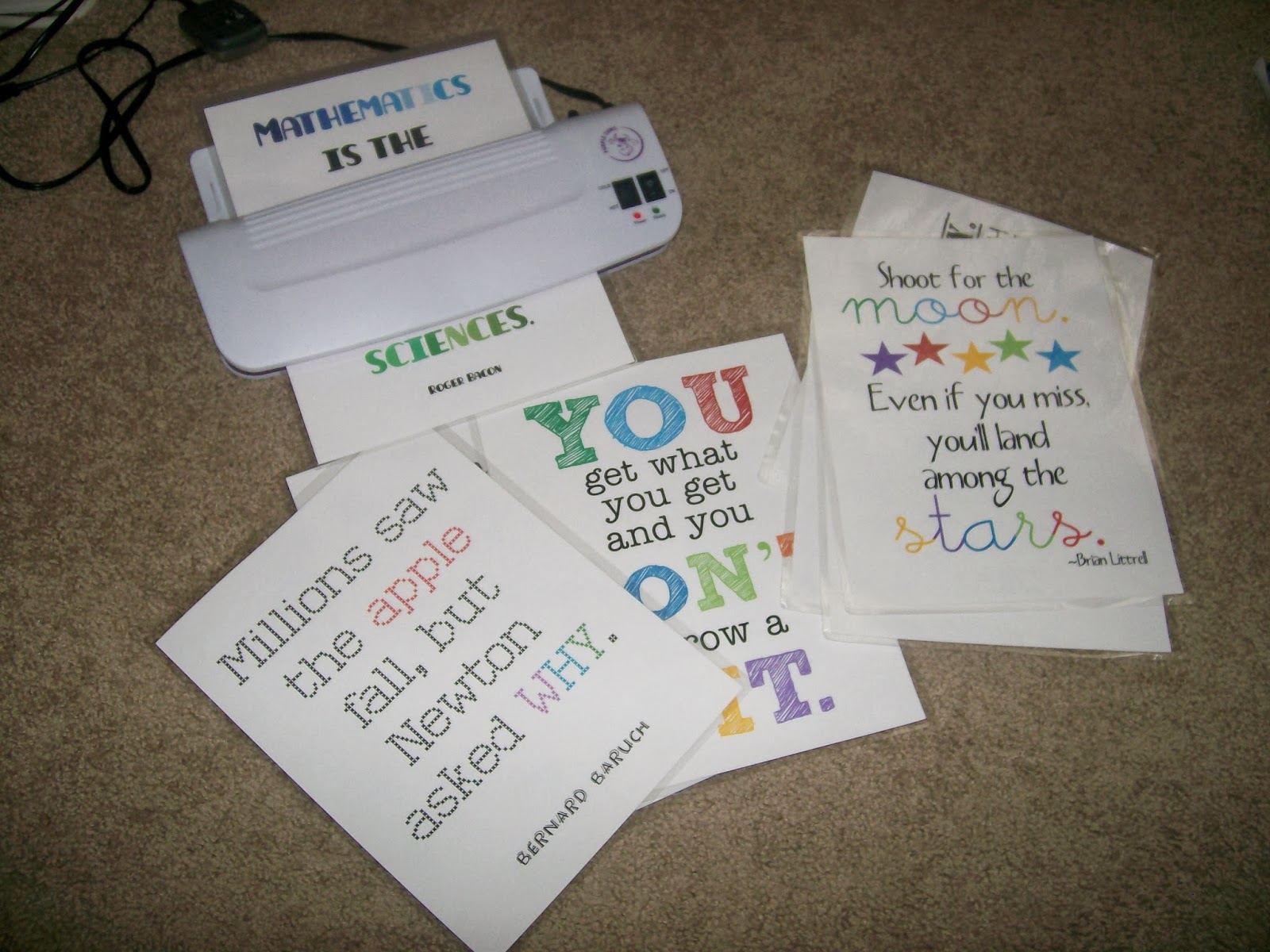
I also thought ahead and brought home my grading to do. I had planned on getting caught up on my grading over Thanksgiving Break, but that didn’t end up working out. I thought I would go up to school on Black Friday to pick up my grading. Well, the janitors thought it would be the perfect time to re-wax the second floor. So, my classroom was off-limits. Though I wanted to get caught up, I wasn’t too heart-broken.
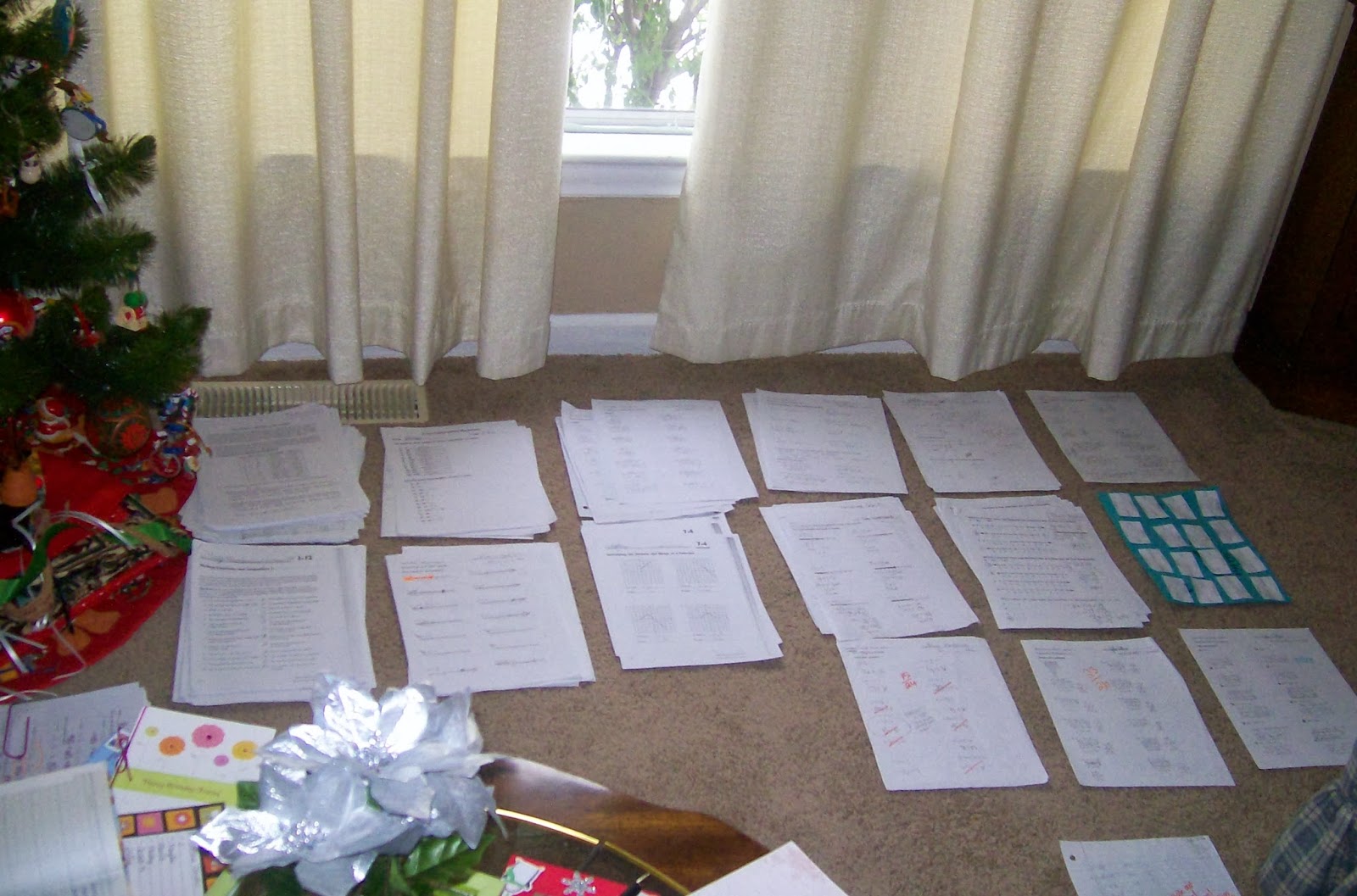
I was able to enjoy my Christmas tree while grading papers. I don’t have a big Christmas tree, but I love it. It’s actually a vintage Christmas tree from the sixties. I made the angel tree topper when I was in kindergarten
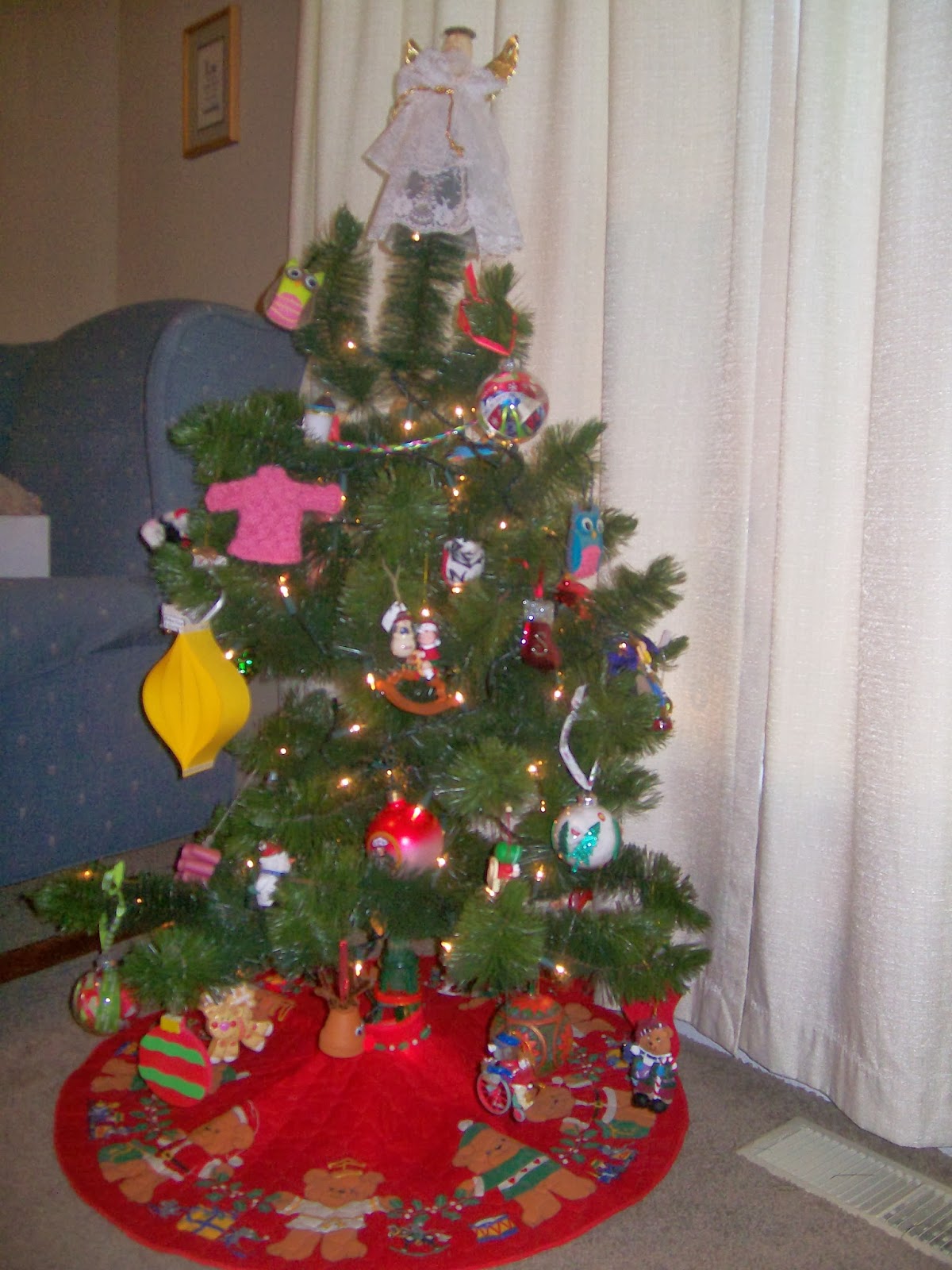
After a while, I started having withdrawals from school, math, and society in general. By the time we returned to school, I had spent 5 days and 15 hours trapped in my house without face-to-face contact with another human being. That’s enough to make you insane. Or, make you take all the clothes out of your closet and sort them by sleeve length and then color. Or, make you reorganize your bookshelves so all the math books are on one bookshelf. Or, make you start drawing pi symbols on your toaster strudel with the icing.
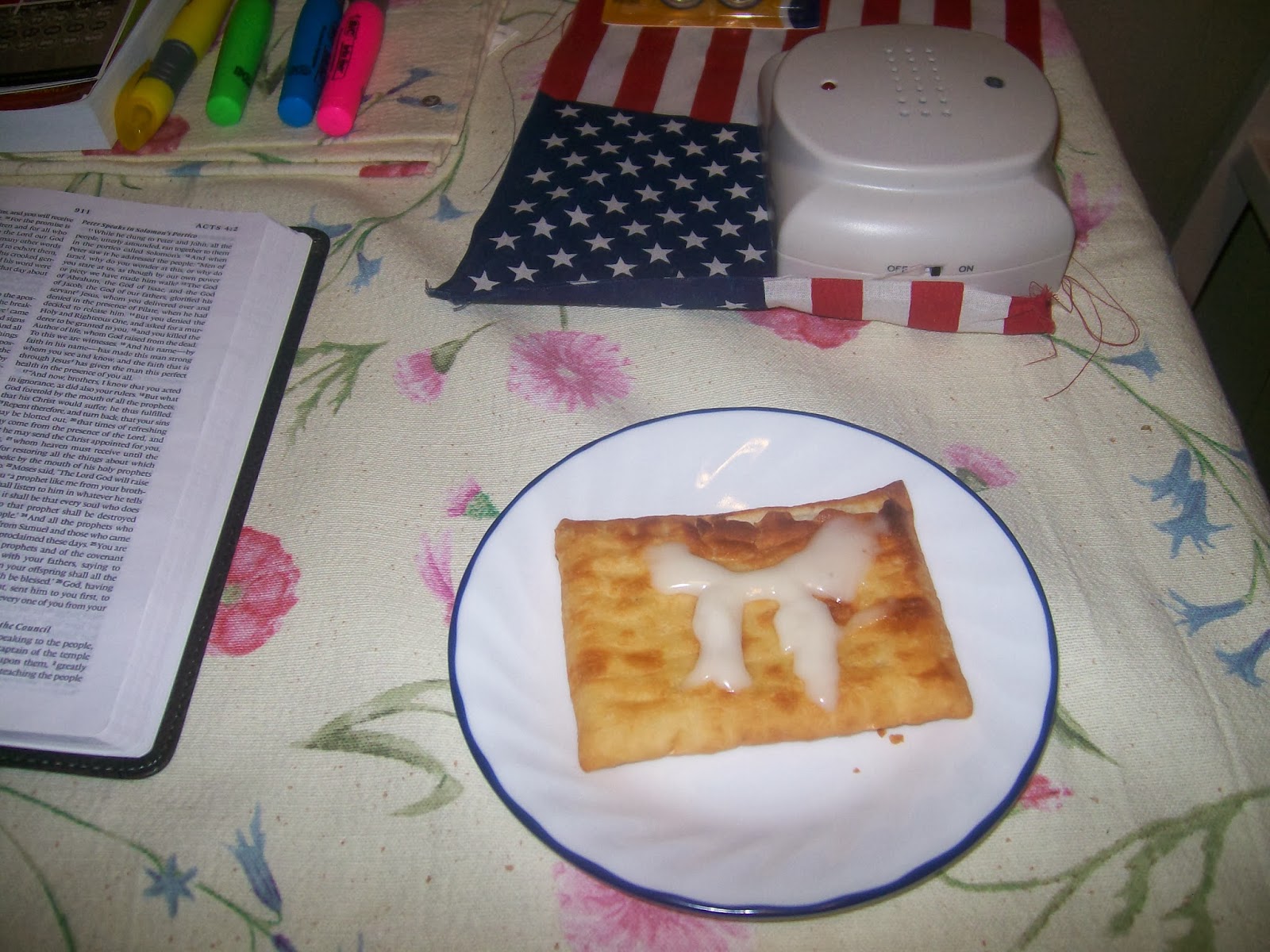
January 13, 2014 – A Bellwork Addition
Every once in a while, I am just struck by how crazy of a profession this is that I have chosen to dedicate my life to. Okay, that sounds a little extreme. I’m 24. I’ve been teaching for 1.5 years. As of now, I don’t have any plans to leave the classroom. Twenty years from now, I see myself still teaching, still learning, still tweaking how I do things. This is a job I will never master. I will never teach a perfect lesson. There will always be room for improvement. And, I guess I’m thankful for this. It means that this job will never become boring.
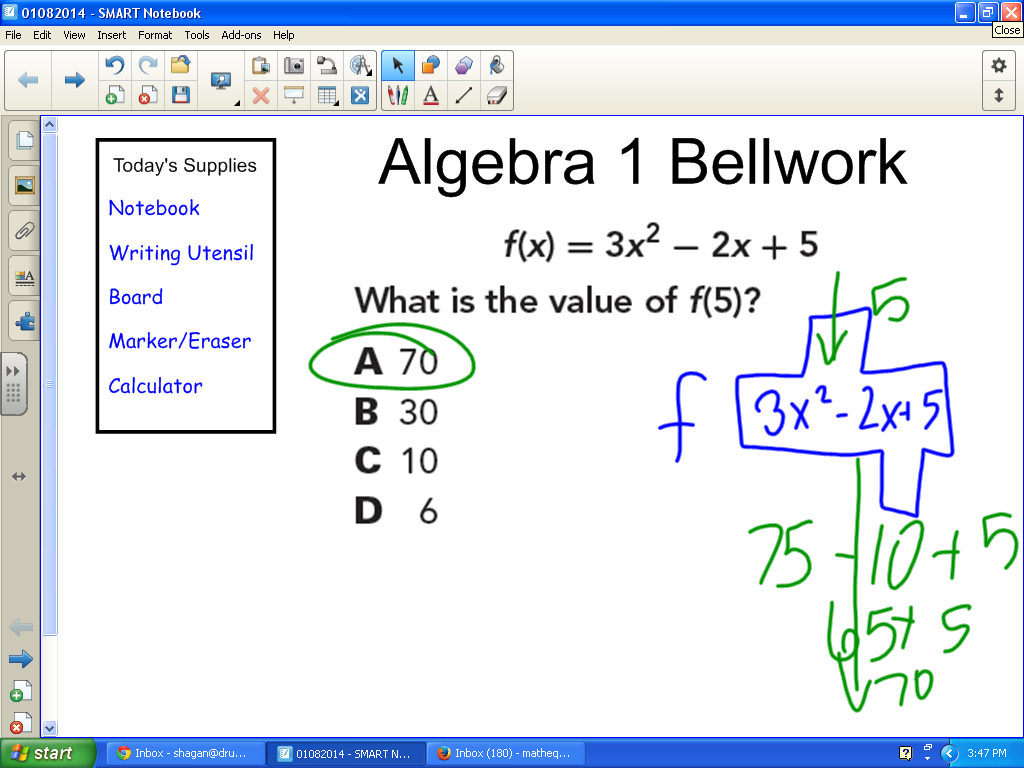
Just before Christmas Break, I made a tiny addition to our bellwork routine in Algebra 1 and Algebra 2. When students walk in my classroom, there is always a bellwork problem projected on the Smart Board. I take these questions from the test and item specifications for our end of year state test. I do this for several reasons. My students become accustomed to what format the questions on the state test will be in. I continually have my students review concepts from months ago. It allows me to spread the test review over the course of the entire year instead of cramming it in the week before the state test.
And, surprisingly, my students love the bellwork. Students from last year often pop their head in during the passing period to try their hand at the projected question. Students compete against each other to see who can solve the problem the quickest. Bragging rights are earned among one’s friends by correctly solving the bellwork question.
So, what was the addition? It’s the box in the upper left hand corner of the screen. I started writing out exactly what supplies my students need that day. Why didn’t I think of this sooner? The idea came to me out of frustration. I would ask my students to get out their notebooks. Three hands would shoot up. Mine’s in my locker. Mine’s in my car. Can I go get mine from so-and-so’s room? Ugh. Wasted learning time.
Then, there was all the time we wasted going to the back of the room to get scissors or glue or rulers or whatever was needed when I asked students to complete a task involving any of these. Some days, students would go ahead and get scissors when we didn’t need them. I would look up to see these scissors being swung around their pencils when they got bored. Seriously? Yes, I promise I teach high school. My students just don’t always (or ever?) act their age.
My students now have no excuse for not being prepared for class. And, you know what? My students LOVE this. They love knowing exactly what they need. I am empowering my students. I am helping set them up for success. No, I am helping them set themselves up for success. And, it’s something that takes me 30 seconds out of my day to do.
I became convinced of the power of this last week when I overheard one of my special education students talking to herself before class started. She is one of the sweetest girls you could ever meet. Math just doesn’t come easily for her at all. But, she tries so hard. Here’s what I overheard:
Notebook? Check!
Writing Utensil? Check!
Dry Erase Board? Check!
Marker? Check!
Eraser? Check!
Calculator? Check!
I’m on top of it today!
I’m less frustrated. My students are less frustrated. We’re using time more wisely in class. I just can’t figure out why I didn’t think of this earlier. Did I expect students to read my mind? I don’t know what I thought. But, I guess it doesn’t matter now. This is going to become a permanent part of how I run my classroom from now on.
January 14, 2014 – What My Classroom Really Looks Like
This weekend, I spent a good chunk of time cleaning at my inbox. Notice, I didn’t say cleaning out my inbox. Despite spending 6+ hours organizing and writing replies, I still have 205 or so e-mails that require some type of action or response. This is what I get for putting off answering e-mails for pretty much the entire first semester. Oops…
Anywho, in one of those e-mail replies I was writing, I found myself saying something to this extent: I strive to be an honest person, and I want my blog to reflect that honesty. Someone had thanked me for the fact that I still blogged about ideas even when they didn’t exactly work out as I would have hoped in my classroom. Yes, we all have our lessons that flop. And, I feel like I have to blog about those lessons in order to learn from them. Learning through reflecting on my blog almost sort of redeems the flopped lesson. After all, if you learn something from it, it must have been worthwhile.
The rest of this post will be me trying to be honest. The idea has been on my mind since August. At the beginning of every school year, we fix up our classrooms and take pictures to post on the Internet. Everything is in its perfect place. Shelves are organized. Desks are gleaming. (Of course, my classroom is never quite perfect. There always seems to be that pile of posters I haven’t gotten around to laminating and hanging or something…)
At the beginning of the school year, my room looked like this. This is not me. This is not reality. I wish this was reality. In reality, I’m incredibly disorganized. It’s bad. When I was in school, I would secretly judge my teachers for their messy desks. Now, I’m the one with the messy desk. Yeah. I told a student one day that I really just needed a secretary or assistant. Her reply? “You know, Ms. Hagan. Every other teacher has the exact same amount of time in their day as you do. And, none of their desks look like yours!” Ouch.
So, are you ready to see what my classroom really looks like? Now, these pictures were taken on our first day back from Christmas Break. It was a professional day without the kids, so I had time to clean my room up and get first semester grades finalized.
Disorganized Calculators and Christmas Decor That Never Got Hung Up
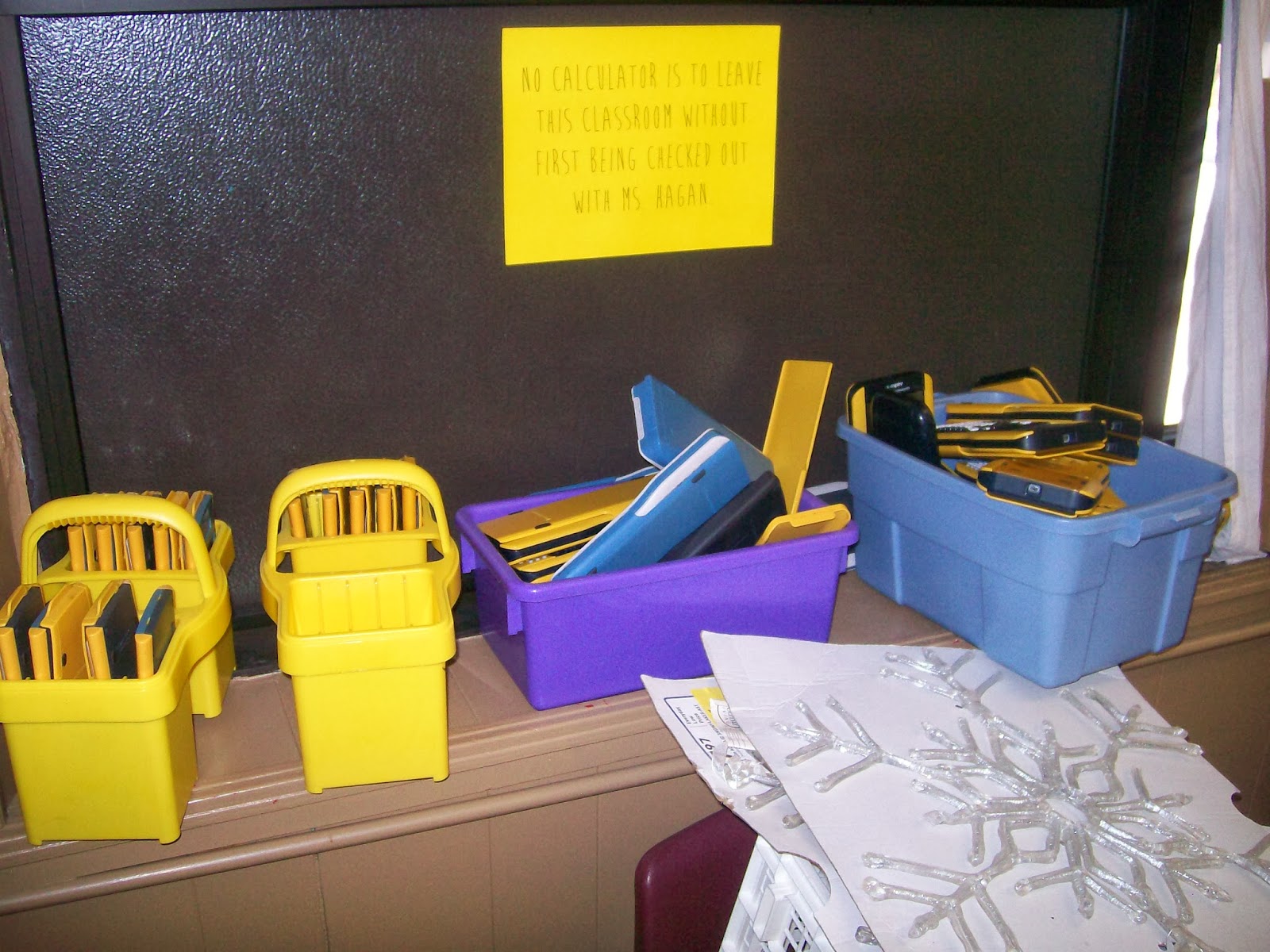
The (Very Disorganized) Back Table of Supplies
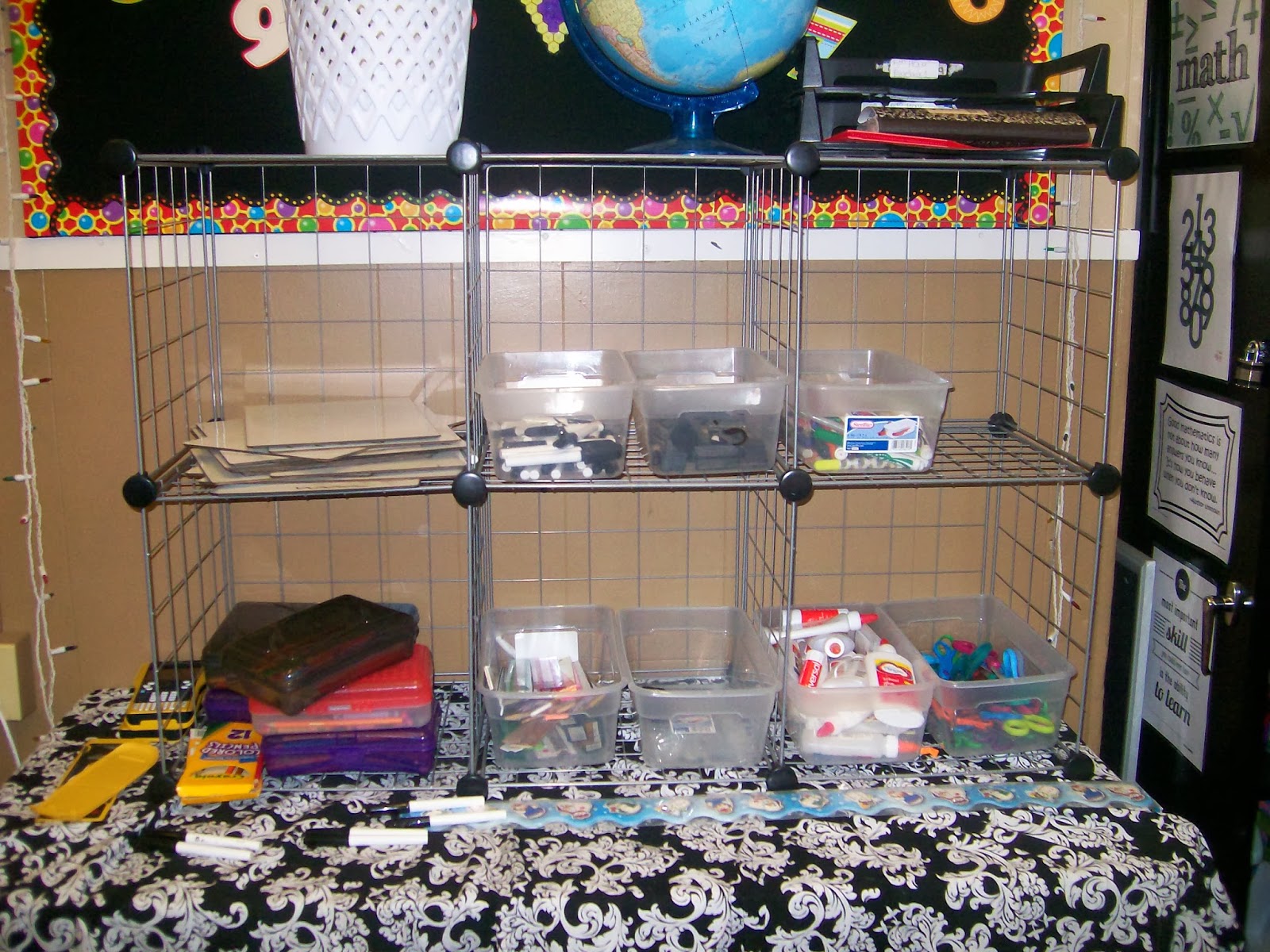
The View From The Door
(If you couldn’t tell – we spent the last day of the semester playing board games.)
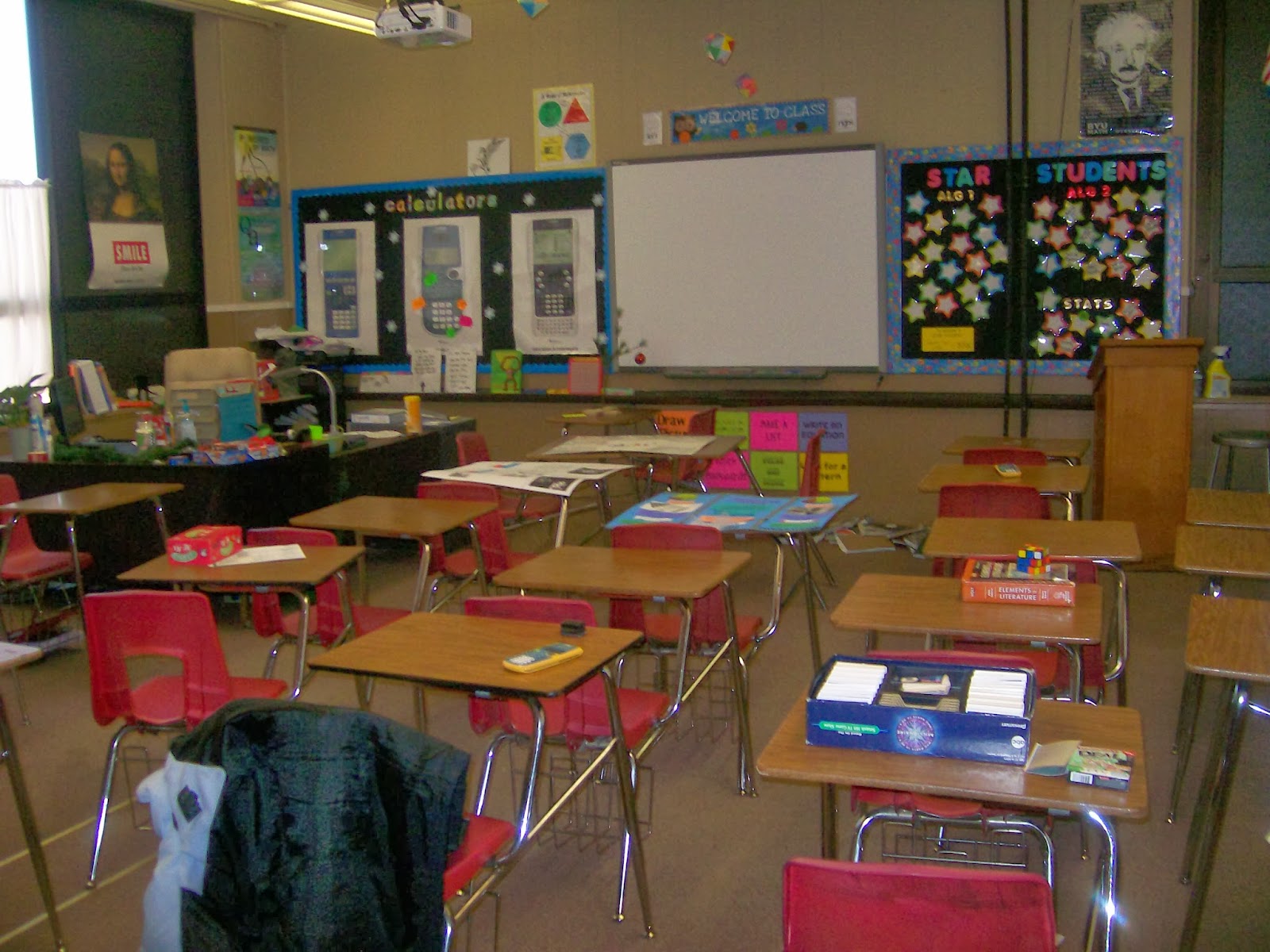
North Side of Classroom
(I’m not going to tell you how long it took me to figure out which cardinal direction to type…)
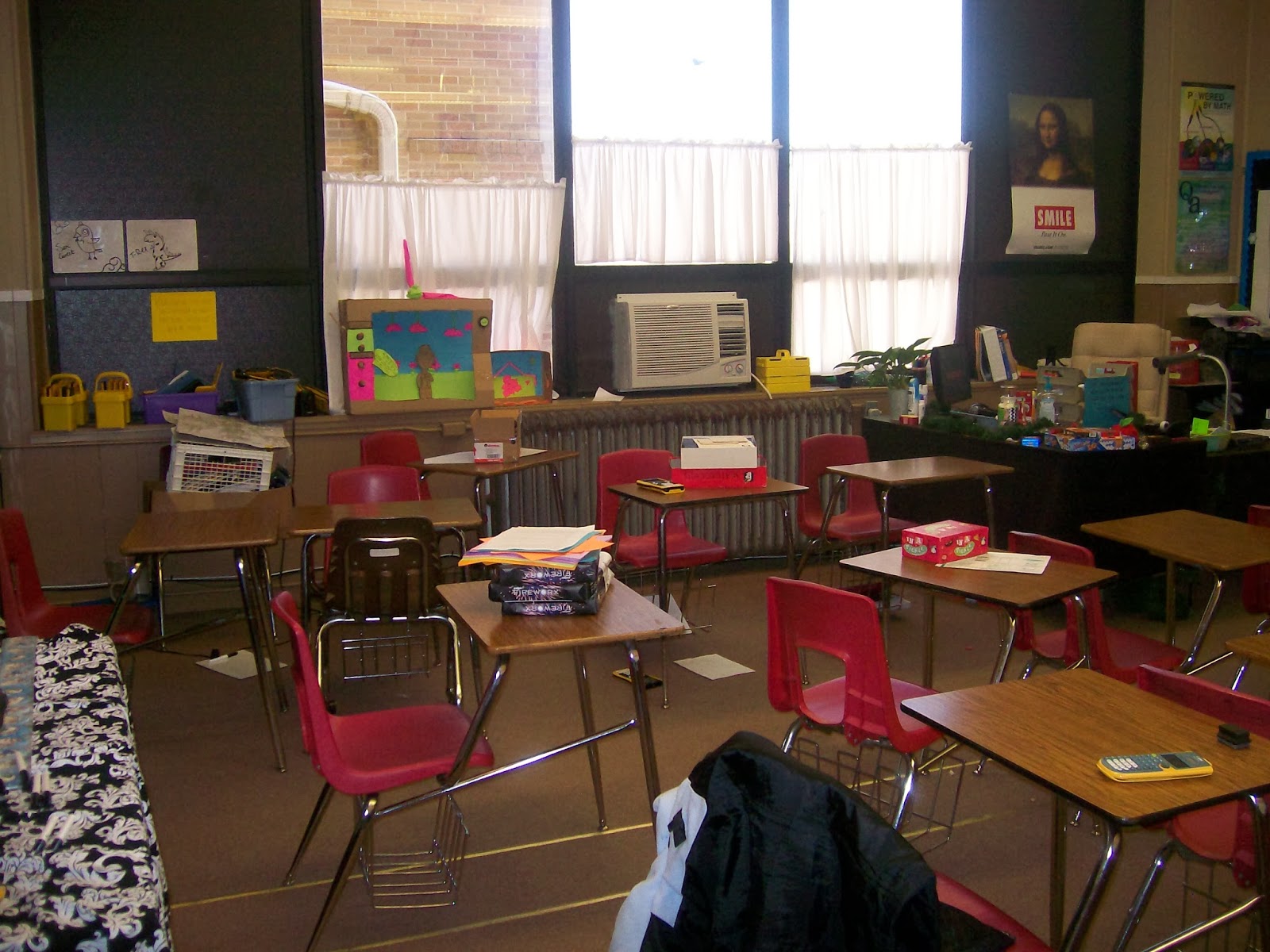
This brown cabinet collects stuff. I hate it.
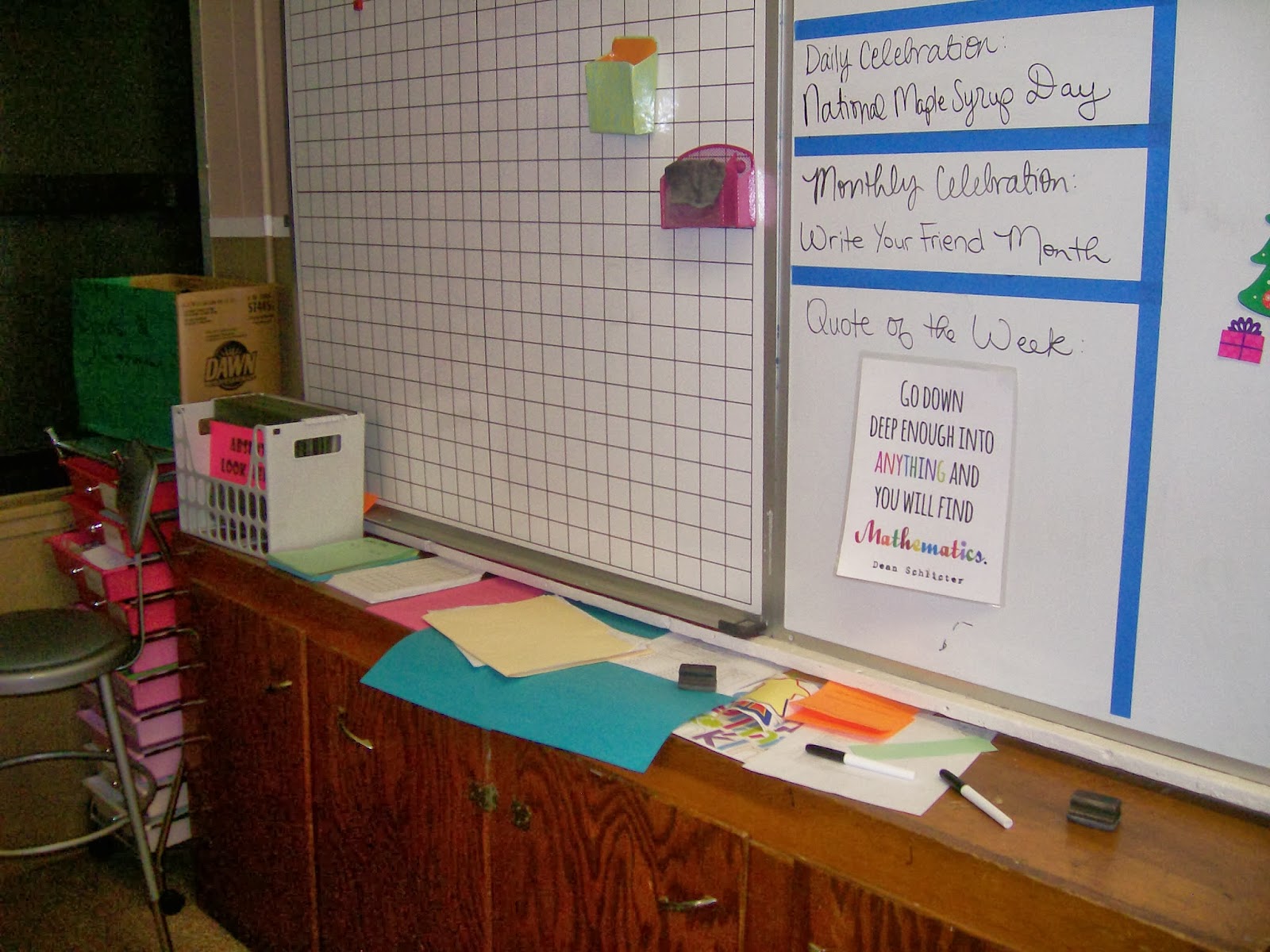
Graded notebooks
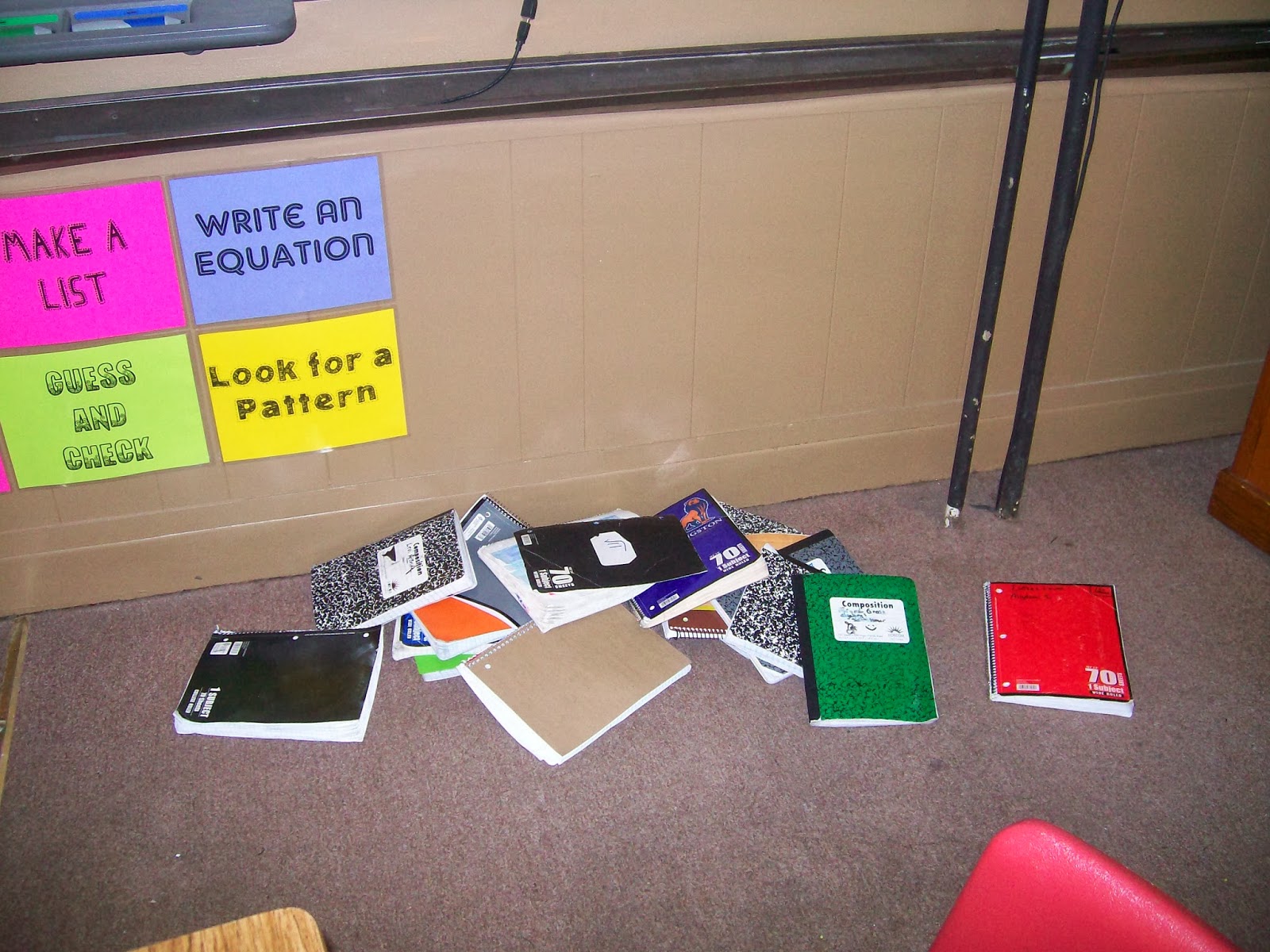
My Desk
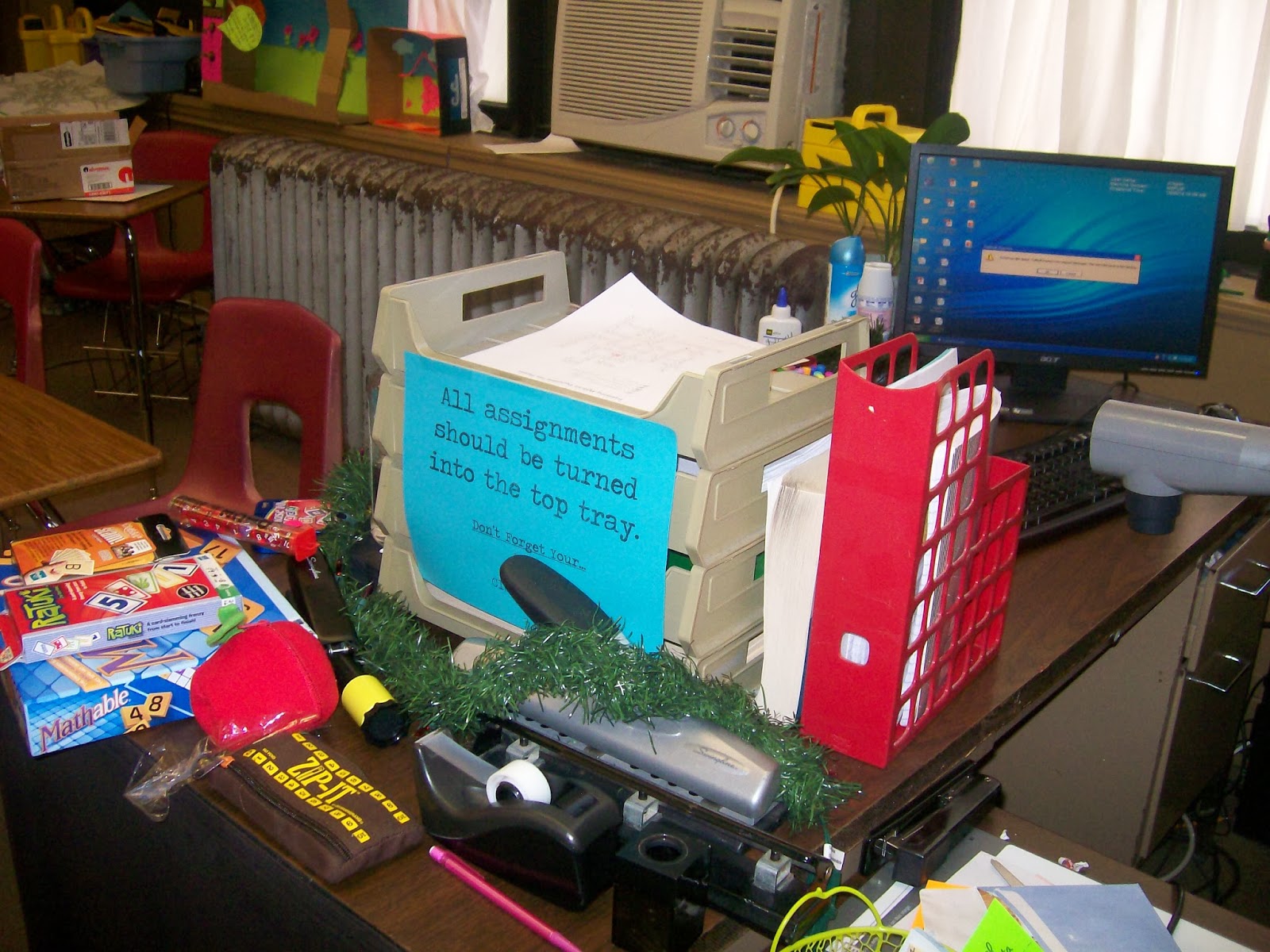

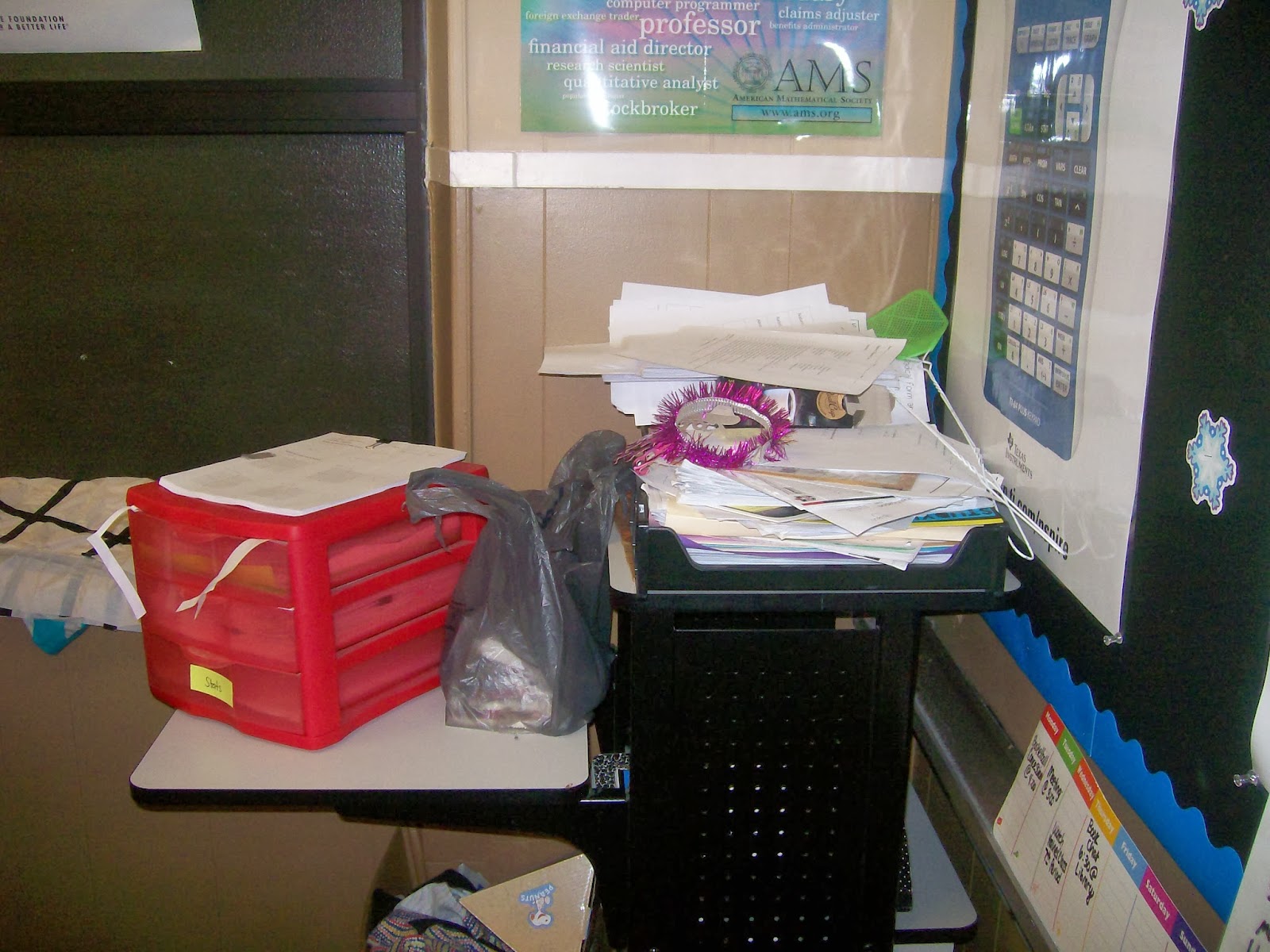
Hope I haven’t scarred you for life.
January 15, 2014 – Christmas Cookies
On Christmas Eve, my sister and I started a new tradition this year of making cut-out cookies. And, we did this while wearing matching aprons, of course! We tried a new recipe for chocolate chip cut-out cookies. They weren’t super sweet, but we enjoyed them.
Can you tell which cookie was my favorite? My sister cut it out using a knife. There are definite benefits to having a sister who is an art major!

Can you tell which cookie was my favorite?
January 17, 2014 – Talk of the School
I’ve lately become the talk of the school. Why? My cell phone tally. My school has a cell phone policy that allows students to have their phones out at lunch and during passing periods. They are not allowed to have them out in class, though.
In the past, I’ve always just asked students to put their cell phones away whenever I saw them out. Occasionally, I would take one away for the rest of the class period. One of my new year resolutions, however, was to stop tolerating cell phones. Most of my students can control their cell phone usage. Most. I’ve just gotten tired of not having my students’ full attention when I am trying to teach. It’s disrespectful, and I deserve to be respected.
If I catch a student with their cell phone out in class, I now confiscate the phone for the rest of the day and call the students’ parents. This is how I show my students that I mean business:
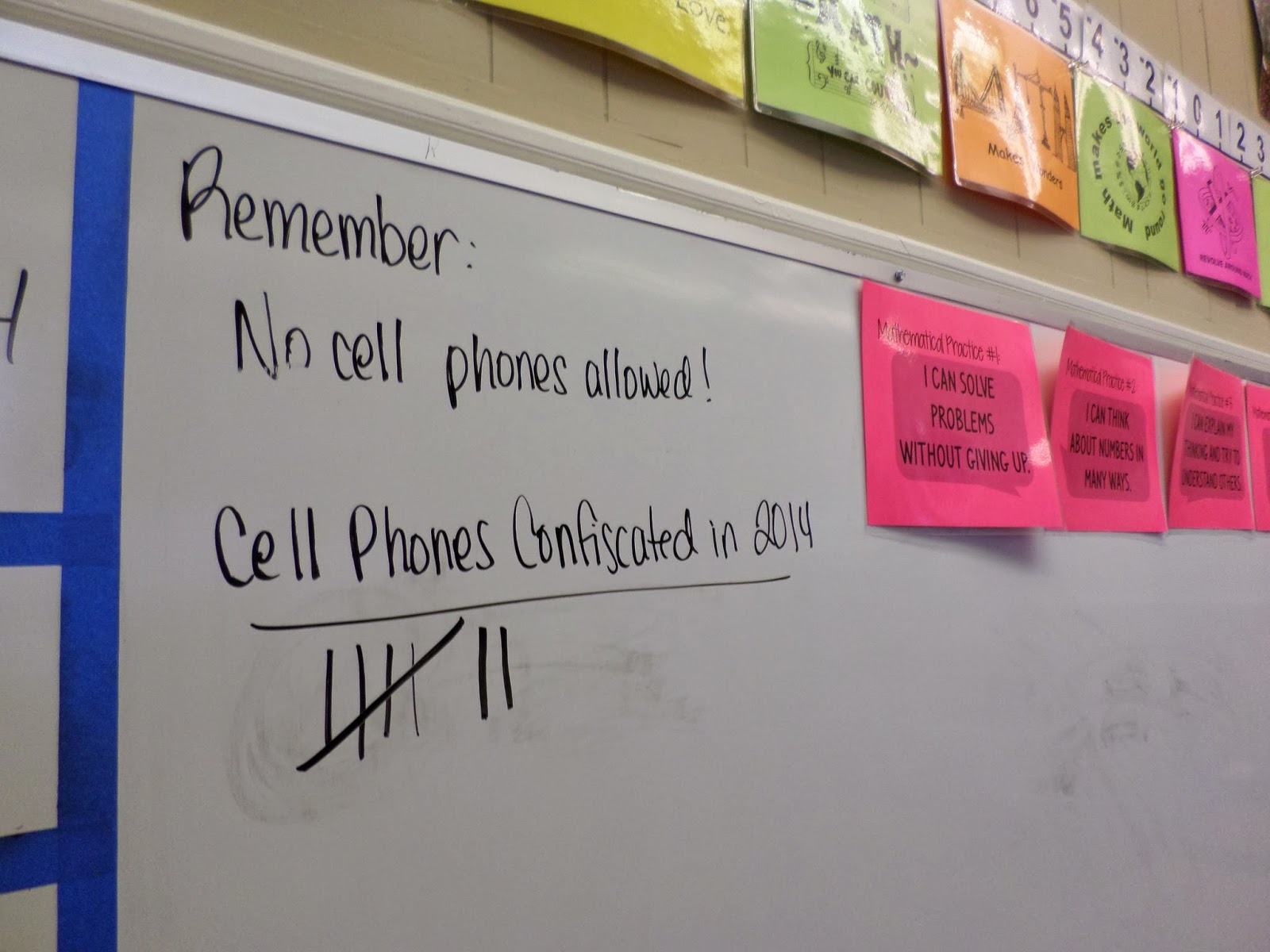
Guess what? I’ve become the talk of the school. My students have made it their goal to know exactly whose cell phone is represented by each tally mark on the board. I guess this is a result of teaching in a very small school. Everybody knows everybody. And, the students who get their phones taken away are typically very angry at me for it. They’ll tell almost anyone who will listen about how much they hate me for taking away their phone. So, I guess it wouldn’t really be that hard to know whose phone has been taken away.
I really do think that my being strict when it comes to cell phones has made my classes easier to manage. I’ve still got a long way to go in the area of classroom management, but I’m making progress.
January 19, 2014 – Math is Everywhere!
Over Christmas Break, we were lucky to enjoy some pretty warm days here in Oklahoma. I spent all of the holiday at my parents’ house. I live about 60 miles away from them, so I don’t always get to see them as often as I would like. I do go to church and have lunch with my parents and sister every Sunday.
We took advantage of a warmer than normal Saturday to take a short day trip down historic Route 66. We started in Tulsa and ended up in Oklahoma City. As I was looking through the pictures I took that day, I couldn’t help but see math in so many of the pictures.
My students often argue that math has no place in real life. I would beg to differ. Math is all around us if we take the time to notice.
The Route 66 Bridge in Tulsa got me to thinking. What type of function would best model this bridge? Is this a parabola? Or something else?

In Tulsa, there is also a small park that has a train exhibit. The wheels on the steam engine were HUGE. For reference, I’m 5’7”. Or, 5’6”. I can’t really remember.
I can see using this as a geometry problem. What is the area of the wheel? What is the circumference of the wheel?


There was also an Oklahoma shaped flower bed. Wait. Can you call it a flower bed if it doesn’t have flowers in it? Rock bed? Well, I’m not quite sure what to call this thing. But, my inquiring mind is curious about whether the is truly proportional to the state of Oklahoma. Does the stone that the plaque is resting on represent a county? Is it proportional? What about the star that represents Tulsa? Is it proportional?
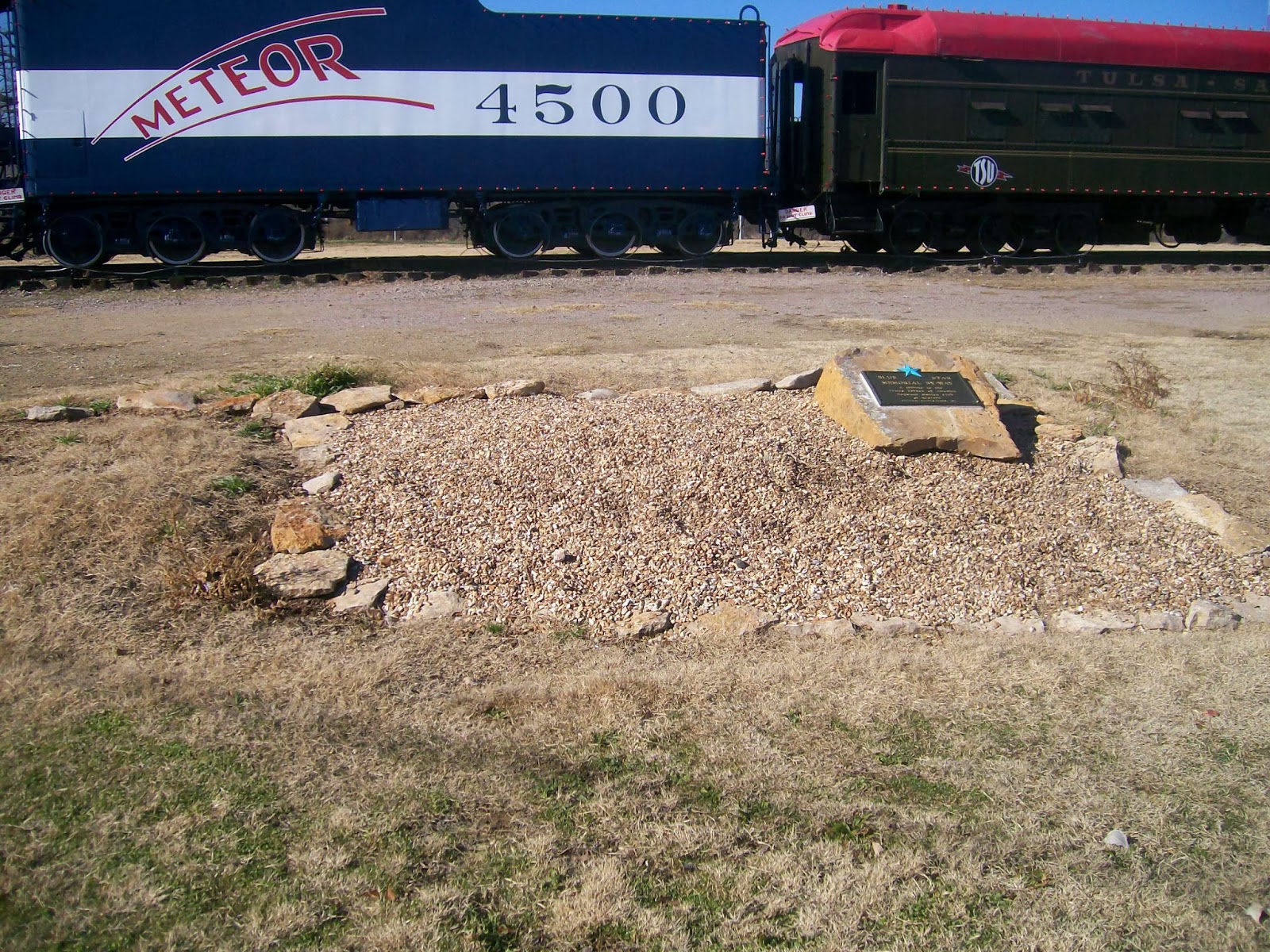
In Sapulpa, there is a display featuring a Frankhoma Pottery plate and a giant glass bottle. Frankhoma Pottery is very popular in this part of the country. This also screams proportions to me. How much does the large plate weigh? Could you figure it out by weighing a normal dinner plate? Were the plate and the bottle increased at the same scale?
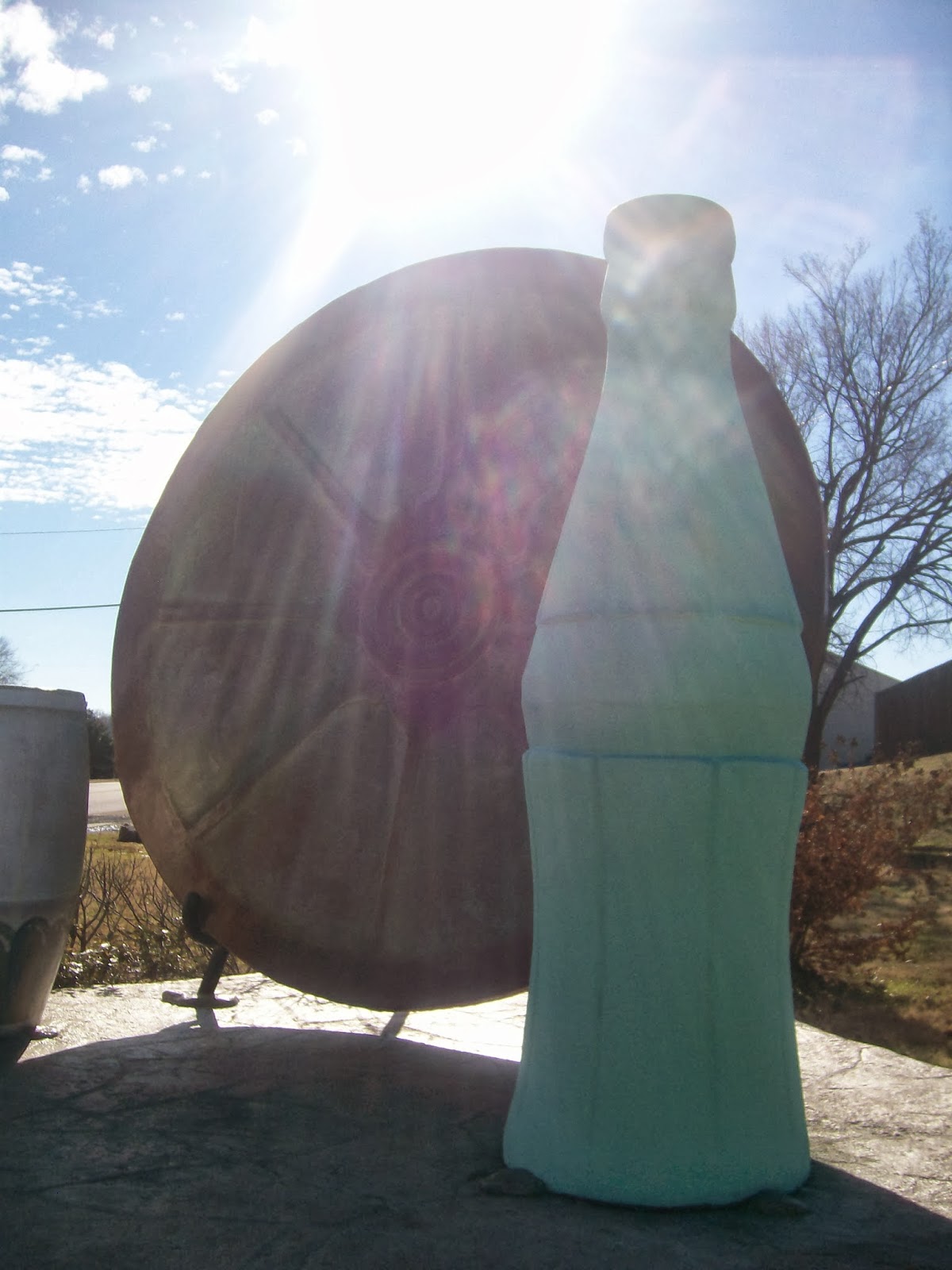
Our next to last stop was the Round Barn in Arcadia, OK. It is the only round barn left in the state of Oklahoma. It was built in 1898! How much paint would it take to repaint the Round Barn? The top loft is rented out for parties and events. When people are planning weddings, square footage can be very important. How many square feet would this venue provide? When we were there, there was actually a wedding going on upstairs. You could hear the people walking around upstairs.

The first floor of the Round Barn is a gift shop and museum. All around the room, there are these handmade posters. I took a picture of one of them. Even though the punchline is at the bottom of the paper, I didn’t understand the joke. This was about 3 p.m. Around 10 p.m. that night, I was looking through all of the pictures I had taken. I read the joke again, and I finally understood it! It only took me 7 hours…
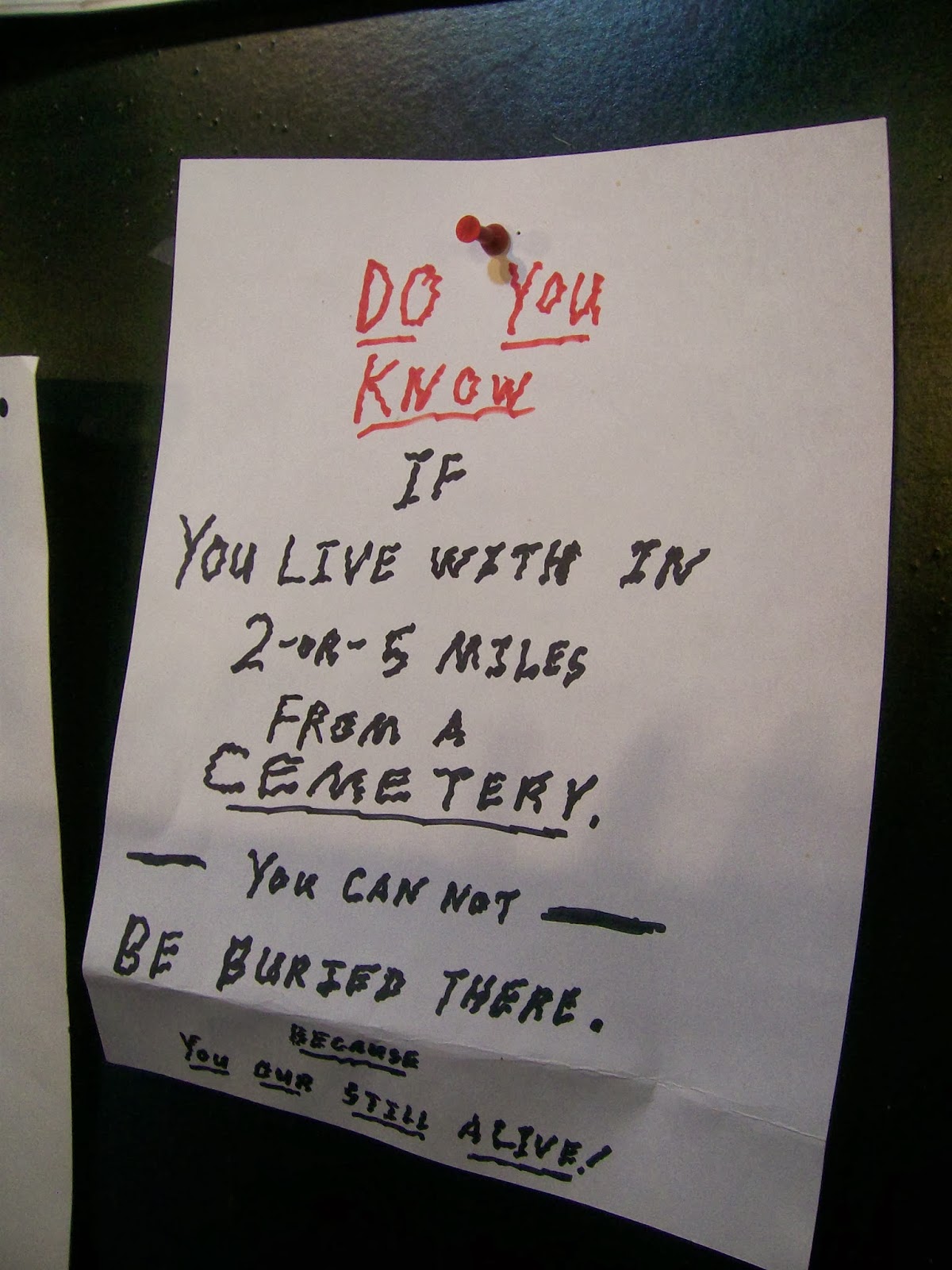
I think this last one might be my favorite math question. POPS is a new(ish) landmark on Route 66. It’s part restaurant. Part pop shop. Part gas station. There is a giant pop bottle statue out in front. According to the POPS website, the giant pop bottle stands 66 feet tall. I guess that’s fitting since it’s on Route 66. It also weighs over 4 tons!

Inside POPS, you can purchase over 650 different kinds of soda pop. They are supposed to have over 60 different varieties of root bear and over 40 different varieties of cream soda. Here’s my math question – if you poured every bottle of pop from POPS into the large sculpture (assuming it wouldn’t leak out by some type of magic!), how full would the bottle be?
We offer an Oklahoma tourism class at my school, and they actually stopped at POPS on a field trip. Students from that class could give us information on how many bottles of each flavor of pop are typically on the shelves at POPS. Students could actually call the store with further questions. How many of each flavor do they typically stock?
Maybe one day I will get to the point in my teaching career that I don’t feel so constricted by the curriculum I am supposed to be teaching. There are amazing math problems out there in the world, just waiting to be solved. Some day, I will make time for them.
January 21, 2014 – The #EmptyShelf Challenge
I LOVE challenges. I’m just a naturally competitive person. No matter what I’m doing, I have a desire to be the best at it.
I also LOVE to read. As a child, I can remember going to the library once a week during the summer. I would leave with 7-8 chapter books which I would promptly devour. My favorites included Nancy Drew, Little House On The Prairie, The Babysitters Club, The Boxcar Children, Sweet Valley High, The Bobbsey Twins, the Anne of Green Gables series, and anything by Judy Blume. In high school, I became obsessed with classic literature, and I amassed so many classics that my bookshelves look like they should belong to an English teacher.
Then came college. Instead of reading for pleasure, I found myself reading for school. My pile of books to read kept growing, and my time to read kept shrinking. Since starting teaching, I’ve found myself with even less time to read. I still love to read. But, I have limited time. In order to make time to read, I have to chose not to do certain other things.
This year, I’ve decided I want to read more. My sister also loves to read. So, I decided the best way to get myself to read more was to turn it into a competition. My sister is super competitive and loves to read, too. So, I think it’s a good pairing. Who can read the most books before the end of the year?
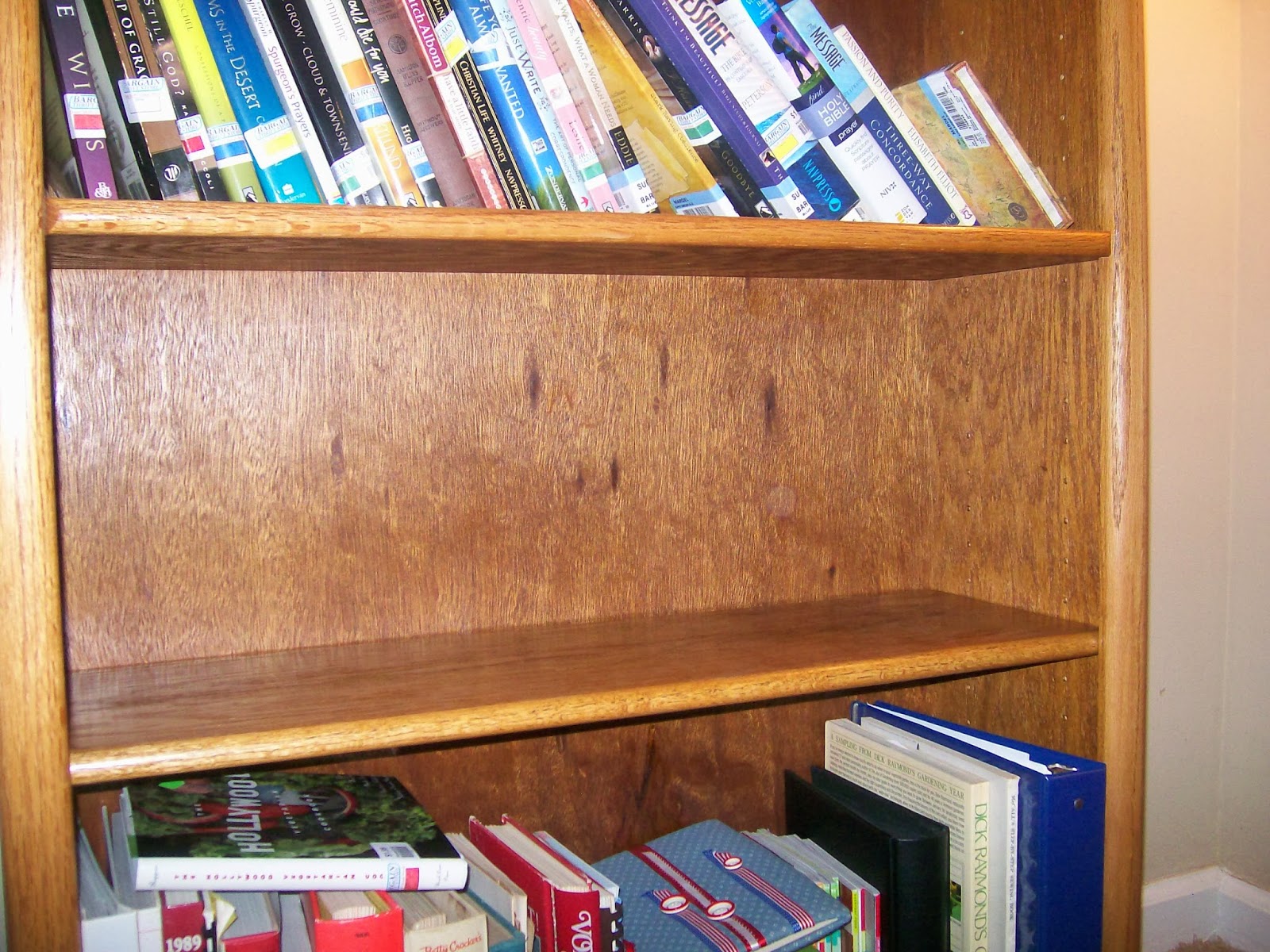
On December 27th, we started The Empty Shelf Challenge. I read about the #EmptyShelf challenge on the blog of Jon Acuff. The premise is simple. Empty off one of your shelves. For every book you finish from then until December 31, 2014, place the book on the shelf. Amaze yourself by just how many books you read in the next year.
We’re over half-way through January, and I’ve already read more books than I probably read in the entirety of 2013. Okay, maybe that’s a slight exaggeration. But, I’ve definitely been reading a lot more. I don’t know how much to attribute to this challenge, but this challenge certainly isn’t hurting me.
I’m thinking that I will post an update of books read at the end of each month here on my blog. (And, for the record, I think I may be in the lead right now. Of course, my sister didn’t start counting the books she had read until the first of January. It’s not my fault she gave me a bit of an early start, though.)
I’m hoping to tackle some math books this year, too. One of the first I want to revisit is Isaac Asimov’s Realm of Algebra. I read it a few years ago, and I was so impressed with his explanation of algebra in everyday language. Now that I’m working on finishing my second year of teaching, I think I could learn a lot from revisiting it and comparing his explanations to my own.
Don’t even get me started on all the teaching books I want to reread…
January 22, 2014 – Life by the Timer
I’ve already written about my new semester resolutions. In real life, I’ve never actually kept a new year’s resolution. Ever. This semester, so far, it’s been different. First, I didn’t make these resolutions on January 1st. I think I made them on January 6th. The perfectionist in me hates this. But, it’s okay. I’m fighting against those perfectionistic tendencies.
I’ll post more about how my resolutions are going later. But, today, I wanted to talk about a little change I made to help me achieve one of my goals: Start Demanding Respect From My Students.
Interactive notebooks are time consuming. There. I said it. I love them, though. And, every second spent on them is worth it. Some days, though, my students have a tendency to dawdle. They take forever to get their notebooks out. They expect me to move at their pace of choice. And, that pace is incredibly slow. Frustratingly slow!
I mean, if you already have a glue stick and your notebook on your desk, and I pass out a sheet of paper for you to glue in, it should take you no more than 1 minute to label the page and glue in the paper. One minute.
Part of respecting me includes respecting my time. I only get 50 minutes a day with my students. And, I need to make sure every single one of those 50 minutes counts! So, I’ve started setting expectations of how long it should take my students to get certain tasks done. When they walk in the room, there is a box on the Smart Board that tells them all the supplies they need for the day. It is there job to get their supplies and get seated BEFORE the bell rings. I’m saving time there.
Recently, my Algebra 1 students started Unit 6 – Linear Functions. I handed out a table of contents to be glued on page 57. Students were responsible or labeling their table of contents with the unit number and title and gluing this page in their notebooks. I set a timer for 1 minute.
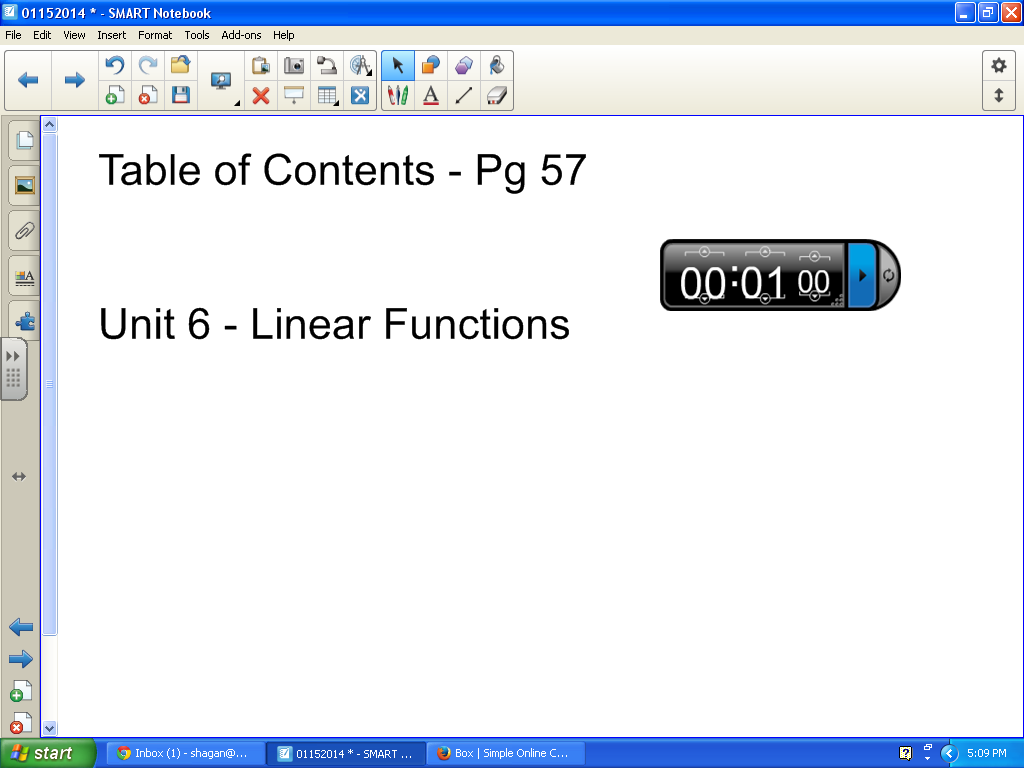
Panic ensued. We can’t possibly get this done in one minute. Actually, I think you can. I believe in you. You already have your supplies out. If you use your time wisely, I think you will be able to get done in time.
A few students didn’t finish in time. Usually, I would pause and wait for them. This time, I didn’t. If I wait until every single student finishes, the timer will become meaningless. Instead, I went directly to the next slide. When students protested, I told them that those around them had written down the title already. They were going to have to get the title from somebody else. Harsh? Maybe. But, I’ve got to teach my students to value my time. I have to teach them that actions have consequences. I think maybe that’s what I’ve been missing in how I run my classroom. Consequences.
On the second and third days that we celebrated Universal Letter Writing Week, I gave students five minutes to compose their letters. If I let them, letter writing would consume the entire class period. As important as letter writing is, my main job is to teach math. So, I must prioritize my time accordingly. When the timer went off, I gave them one additional minute to fold their letters while I passed out materials for the day. Those who were not done would have to finish their letters on their own sometime during the class period if time allowed.
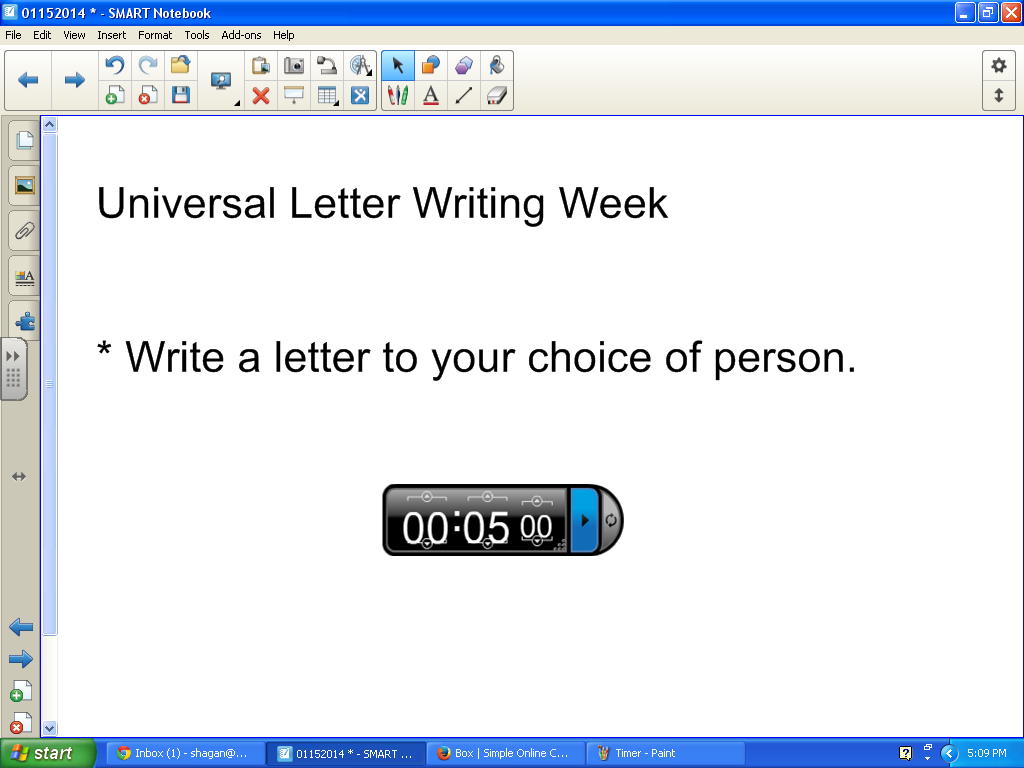
My Algebra 1 students have actually done remarkably well with the timer. They don’t complain much. They just get to work. My Algebra 2 students, however, are a completely different story. You would think having a timer on the screen was the equivalent of me performing the most heinous crime against them. They complain. And, they complain loudly.
I am good friends with our school counselor, and her son is in my Algebra 2 class. Last week, I was sitting in her office, and we were talking about how our days had gone. Suddenly, she asked, “What is this that I hear about you and a timer? My son keeps complaining that you set a timer for EVERYTHING.” I had to laugh. I told her and the other teacher in the office about my new semester resolutions.
After explaining how I set the timer for how long it should take students to complete a task, and I move on to the next task when the timer goes off, they thought it was a brilliant idea! It keeps me on track. It keeps the class focused. It lets students know exactly what I expect of them. The other teacher expressed interest in using the strategy in her own classroom. And, the counselor? She told me to use the timer every single day. I was doing a good thing by timing my students, no matter what they thought. It reminded her of the parenting strategy of “If you’re not in the car in 5 minutes, I’m leaving without you.”
I never thought such a tiny timer would create such an uproar. I’m learning, though, that respect is something my students must be taught. They don’t enter my classroom knowing how to respect me. I’ve got to teach them respect. Eventually, respect should become internalized. But, until then, I will teach it.
All those teaching books I read before I started teaching are starting to make complete sense…
January 25, 2014 – Ice Storm 2013
Christmas Break started off with a bang! Bad weather was supposed to be moving in, so I headed for my parents’ house soon after school let out on Friday. It was a good thing, too, because we woke up to no electricity. An ice storm had hit.
Growing up in Oklahoma, I am no stranger to ice storms. I was so thankful I was staying at my parents’ house, though, because I’ve never been by myself when the power is out. My parents are prepared people. We soon had oil lamps burning throughout the house.
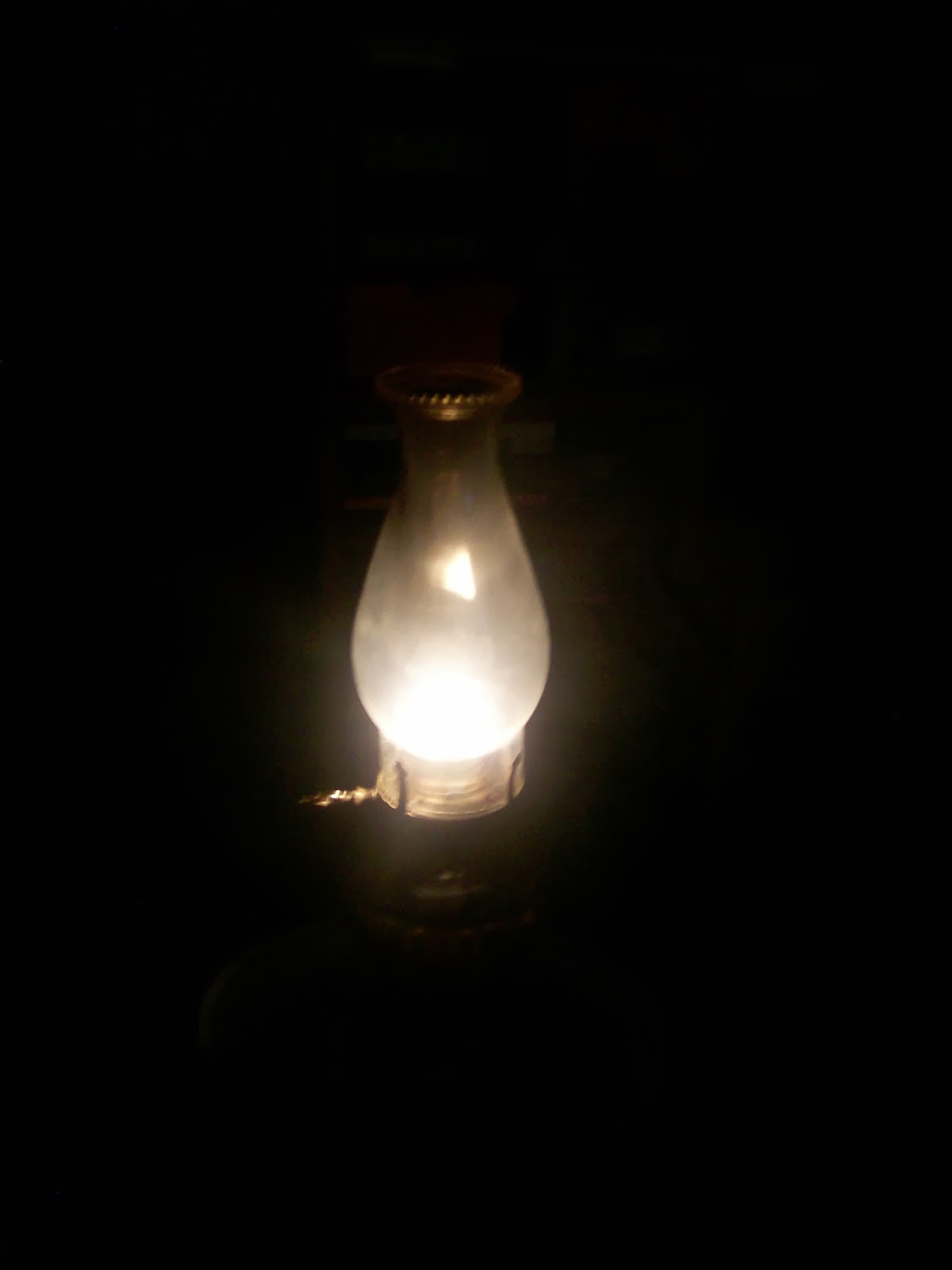
My mom’s plans to make pancakes and hot chocolate were not derailed. She just put the griddle on top of the wood burning stove. The pancakes took FOREVER to cook, but they were delicious!

I felt like we were channeling Little House On The Prairie. I always wished I could have lived the life of Laura Ingalls Wilder. It just seemed so romantic. The power (thankfully) finally came back on around 3 pm. Of course, this was just minutes before my parents finished hooking up the generator.
My sister and I spent the day reading and playing mathematical games like Set and Swish. I’m so lucky to have a sister who will play games like that with me!
The ice coated trees were beautiful!

Isn’t it crazy how you can still have some green grass at the same time as an ice storm?

January 26, 2014 – Things Teenagers Say Volume 7
Join me today for Volume 7 of Things Teenagers Say. This is my regular round-up of the crazy and memorable things I hear my students say in class.

Over Christmas Break, I let the hair stylist talk me into highlights. This was the first time I’d ever done anything like that to my hair. The change was pretty drastic, but I love it! On the first day back from break, it seemed like every single student had something to say about my hair.
If I was bald, I would be jealous of your hair.
—
Freshman Boy (to me): You got streaks in your hair!
Freshman Girl: They’re called highlights.
Freshman Boy: I may not know what they are called, but at least I noticed them.
Another Freshman Boy: I noticed them too, but I wasn’t going to say anything about them.
—
Student 1: I got my hair cut over break, too.
Student 2: It’s not your time to shine. It’s Ms. Hagan’s time to shine.
Student 1: It’s ALWAYS Ms. Hagan’s time to shine!
—
Me: It’s crunch time.
Student 1: What?
Me: It’s crunch time.
Student 1: Don’t you mean it’s cram time? I’ve never heard of crunch time. I think it’s called cram time.
Me: No, its crunch time.
Student 2: That sounds like a brand of cereal. Are you hungry, Ms. Hagan?
Student 3: No, wait. Isn’t that a candy bar? Are you sure you aren’t hungry?
Me: You’ve seriously never heard of crunch time?!? Crunch time means we’re running out of time, and we need to get serious.
—
Student: What do you call people that don’t celebrate Christmas?
Me: Atheists???
Student: No, Ms. Hagan!!! Atheists don’t believe in God. I mean people that don’t celebrate Christmas!
Me: Well, I don’t know then.
Student: You know, like [a certain teacher.]
Me: Oh, you mean Jehovah Witnesses.
Student: Yeah, that’s it. I don’t like Christmas anymore. I’m going to become a Jehovah Witness. Wait… Are you allowed to be a Jehovah Witness if you weren’t in the Holocaust?
The ENTIRE rest of the class: Jehovah Witnesses weren’t in the Holocaust! That was the Jews. Didn’t you pay attention any in class?!?!
—
Apparently, not all of my students enjoyed our last Algebra 2 unit on logarithms.
I wish we had beavers that could eat all our logs.
—
I’m just going to take one bite of this. I want to see what it tastes like.
What was this student wanting to taste? A piece of pizza that had been sitting in their locker since lunch the previous day. Ewww…
—
While solving a multiple choice bellwork question:
Student: Did you meet a guy whose name starts with a D?
Me: No… Why?
Student: Well, D has been the answer to our bellwork problems a lot lately. I thought you might have been picking it because you met a guy whose name starts with D.
Me: No…
Student: Oh, is your boyfriend 63, then? (The answer to D was 63)
—
We don’t want to make Ms. Hagan puke. She’s an awesome teacher.
—
One of my students shared this as his good thing on a Monday:
Student: I got a side by side this weekend.
Me: You sound really excited about a refrigerator.
Student: It’s not a refrigerator.
Me: Oh…
—
I also had to make a new rule that I never envisioned myself making.
Me: No lassoing things!
January 29, 2014 – 6 Time-Saving Teacher Hacks
The more I teach, the more I look for time savers or teacher hacks. There is just not enough time in the day to do everything I want to. So, any time saving measure I can implement allows me more time to get my work done and still try to have a life outside of school.
Occasionally, I will admit to my students that I didn’t grade their quizzes or homework or something else that they expected me to do. I usually apologize and try to make it into a joke. “Sorry, but you know I like to have a life sometimes, too.” They usually follow this up with something like this: “Oh, did you go clubbing last night?” “Uh…no. Actually, I was asleep before 9 pm.” I guess my definition of having a life and theirs varies greatly.
So, here are some ways that I try to save myself and my students time.
Make Copies of Frequently Used Interactive Notebook Forms
It’s no secret that I love the Frayer Model for Vocabulary. I usually print 50-100 of these at a time and chop them in half. I keep them in a file folder labeled “Frayer Model.” Whenever I want to use a Frayer Model with my students, I just pull out the file, and I’m ready to go without having to make copies.
I also run off our Unit Table of Contents pages in bulk. We put one of these table of contents forms at the beginning of every unit in our interactive notebooks. I also print 50-100 of these at a time and chop them in half. They are kept in a file folder labeled “Table of Contents.” I always know where they are at, and it’s nice to not have to make copies every time we go to put one of these in our notebooks!
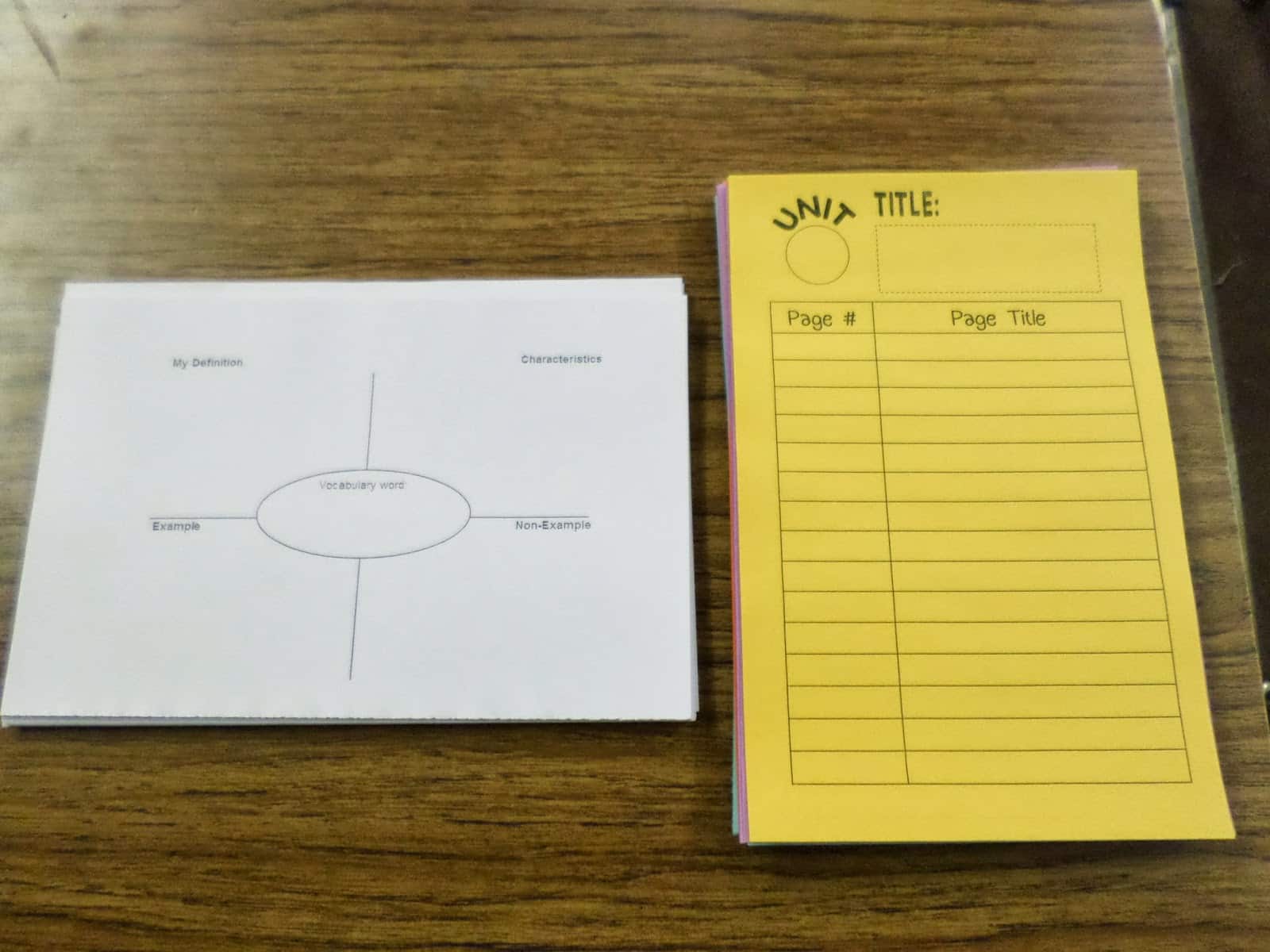
Make Copies of Frequently Used Tables/Reference Sheets on Colored Paper
The next idea is something that probably saves my students more time than it does me. In Statistics, we are working with the Normal Distribution Model. Our textbook has tables in the back, but they are kind of inconvenient to use and find. Students quickly tire of flipping back and forth, back and forth, back and forth. So, I ran off copies of these tables, double-sided, on colored paper. I keep them in a folder at my desk. Whenever we are working on problems that require the use of these tables, I set out the folder. Students grab a table from the folder and return it when they are done. These have been a giant time saver!
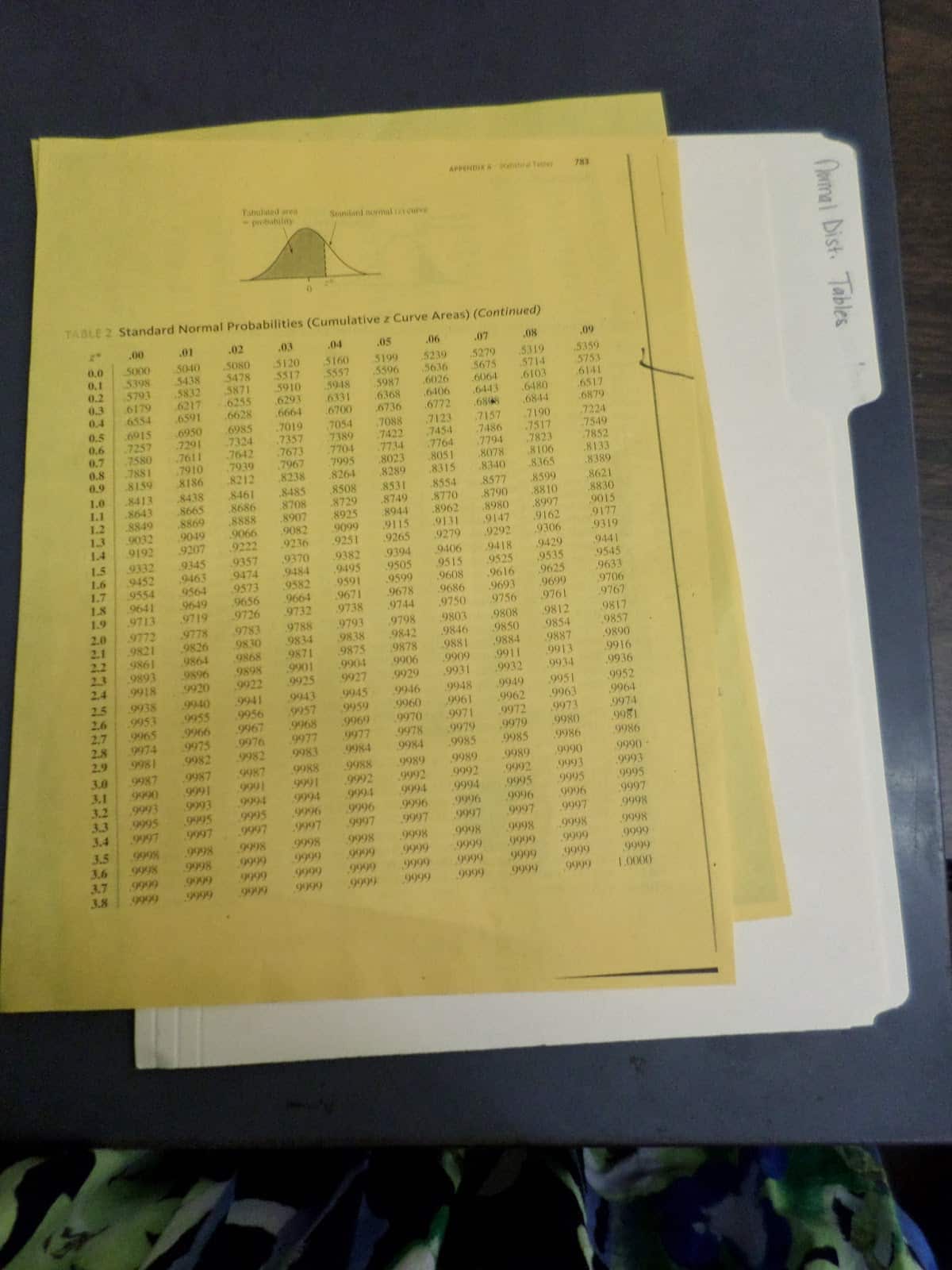
Laminate stuff so it lasts!
My Algebra 2 students and I LOVE conic cards. I will continue writing about conic cards until the entire world knows about their greatness! 🙂 I’ve learned the hard way that simply printing activities on card stock is not enough if I want to reuse them the next year. Laminating stuff and cutting them out is time consuming. But, having to recreate the same activities year after year is also time consuming. I’ve found it’s better to take a little extra time and laminate stuff in the first place so I don’t have to spend time the next year recreating it. I also laminated the answer sheets to my conic cards. The fact that they are laminated and color-coded makes it much easier for me to find my answer sheets.
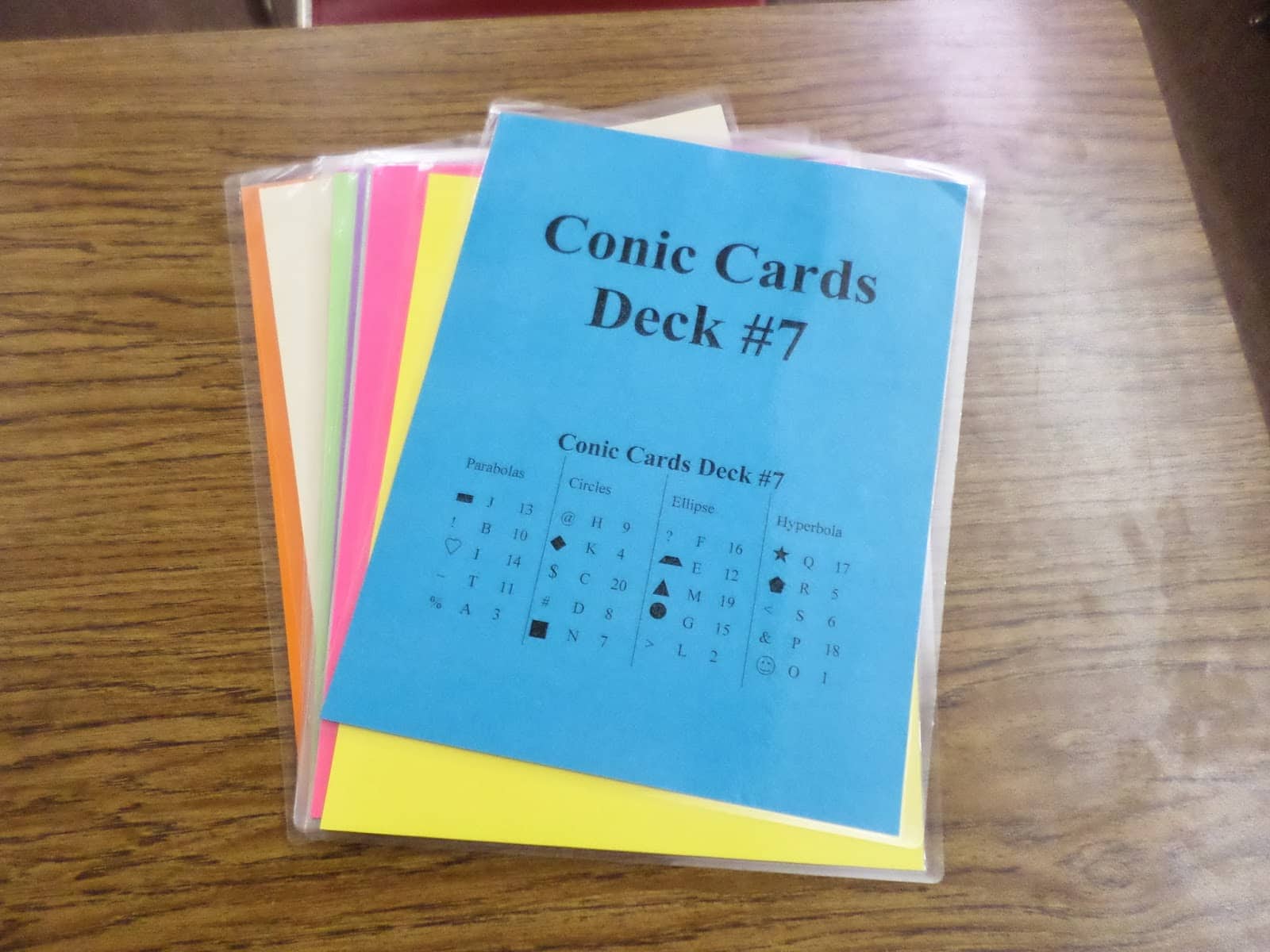
Keep Track of Future Changes This Year
Recently, I had an epiphany in regards to interactive notebooks. Every year’s interactive notebooks are different. I’m continually trying new strategies to engage my students. From year-to-year, I keep the best pages and strategies from the previous year, and I try new things in an attempt to give my students the best education possible. Sometimes, I have a brilliant idea AFTER we create a page. Or, I find after teaching something for the third time that day, I decide that there has to be a better way to word something.
This summer, I picked up some light bulb post-it notes at Target in the Dollar Spot. I’ve started marking things that I want to change or did change with a light bulb note. This way, next year, I will be able to remember what did and did not work well with my students.
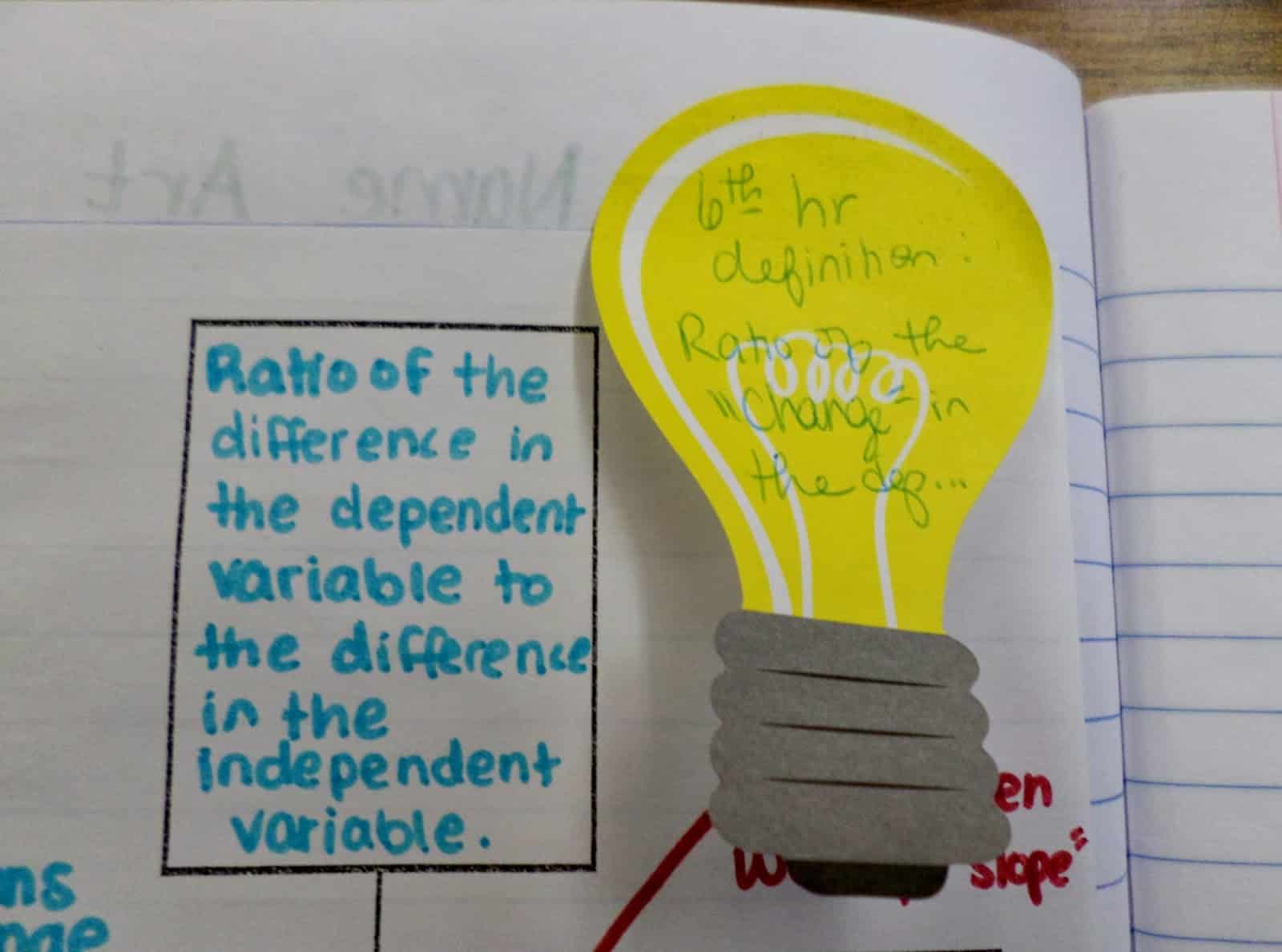
Make SBG Quizzes Easier to Write
I haven’t written about it a lot, but I’m kinda sorta trying out SBG with my Algebra 2 classes. This means I’ve been writing more quizzes lately than I’ve ever written in my life. Quizzes can be time-consuming things to write if I let them. In college, I remember thinking poorly of professors for hand-writing their tests and quizzes. For some reason, I thought that if they really cared, they would type everything. Well, I’m coming around and seeing things differently.
I can hand write a quiz in about a third of the time that it takes to type a quiz. Let’s be real. Equation editors are nice. But, it takes forever to input all of the various equations needed for a quiz. Recently, I decided to steal Dan Meyer’s blank SBG test (at the bottom of his page before the comments) and use it to write my quizzes. I’ve made 15 or so copies of this that I keep in a file. When it is time to write a quiz, I pull out a blank copy, write my quiz, and make copies.
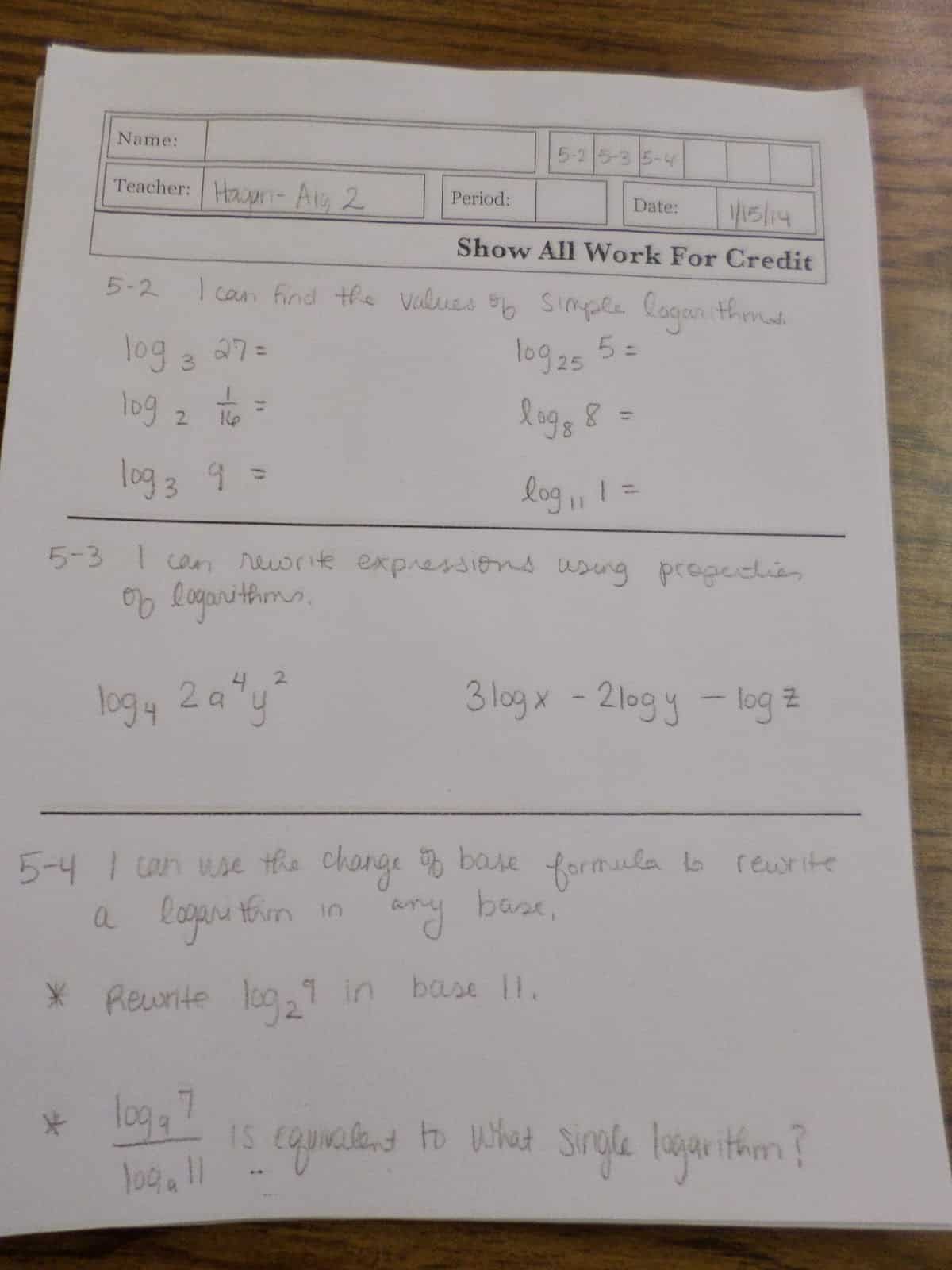
Split Up Calculators
To save my students’ time, I have recently placed my calculators in two different locations in my room. This was actually a suggestion of one of my students. Now, students who sit toward the front of the classroom can pick up a calculator from the front of the classroom. Students who sit toward the back of the classroom can pick up a calculator from the back of the classroom. I’d like to think that this also makes students more likely to put up their calculators when leaving the classroom.
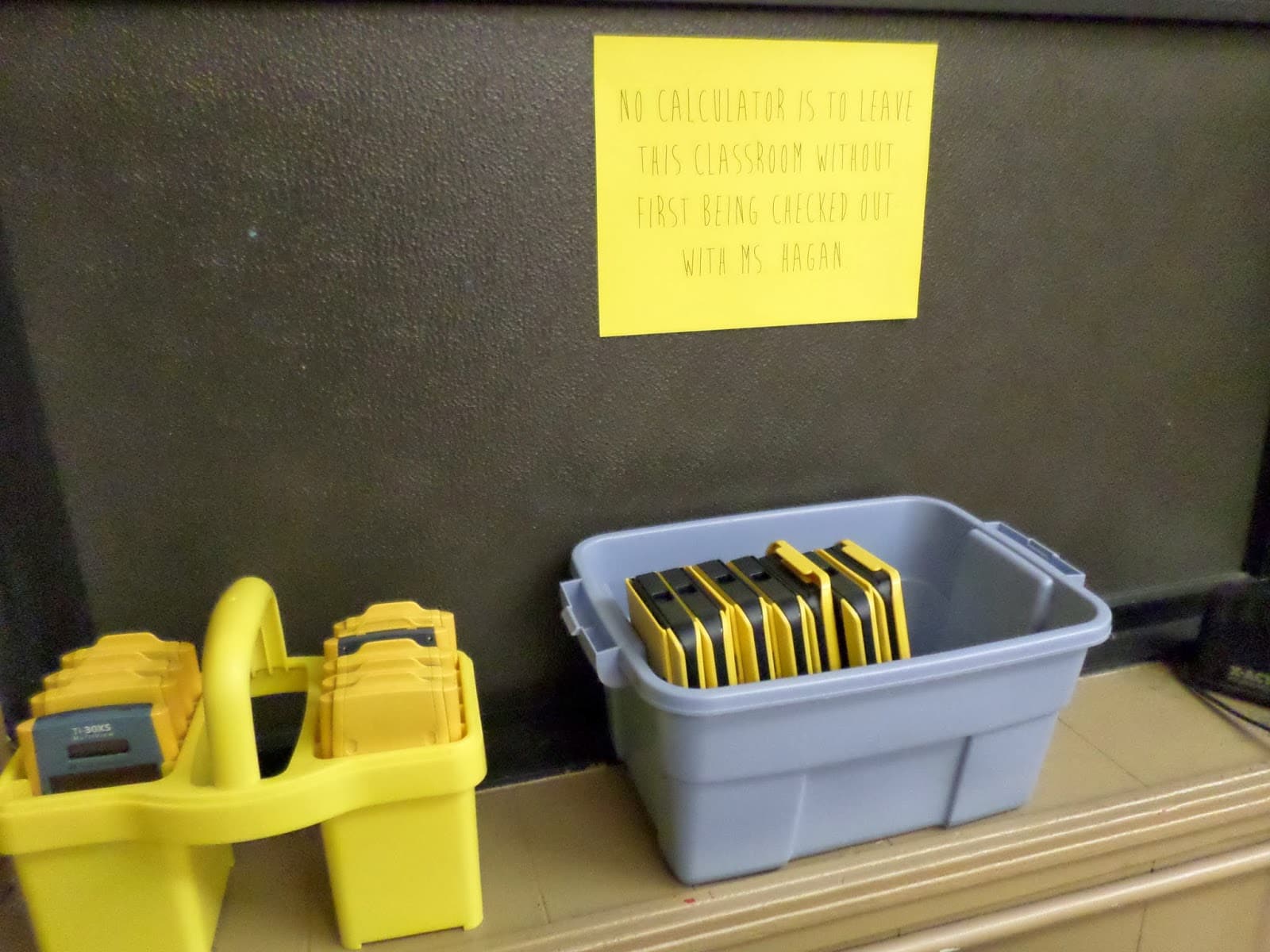
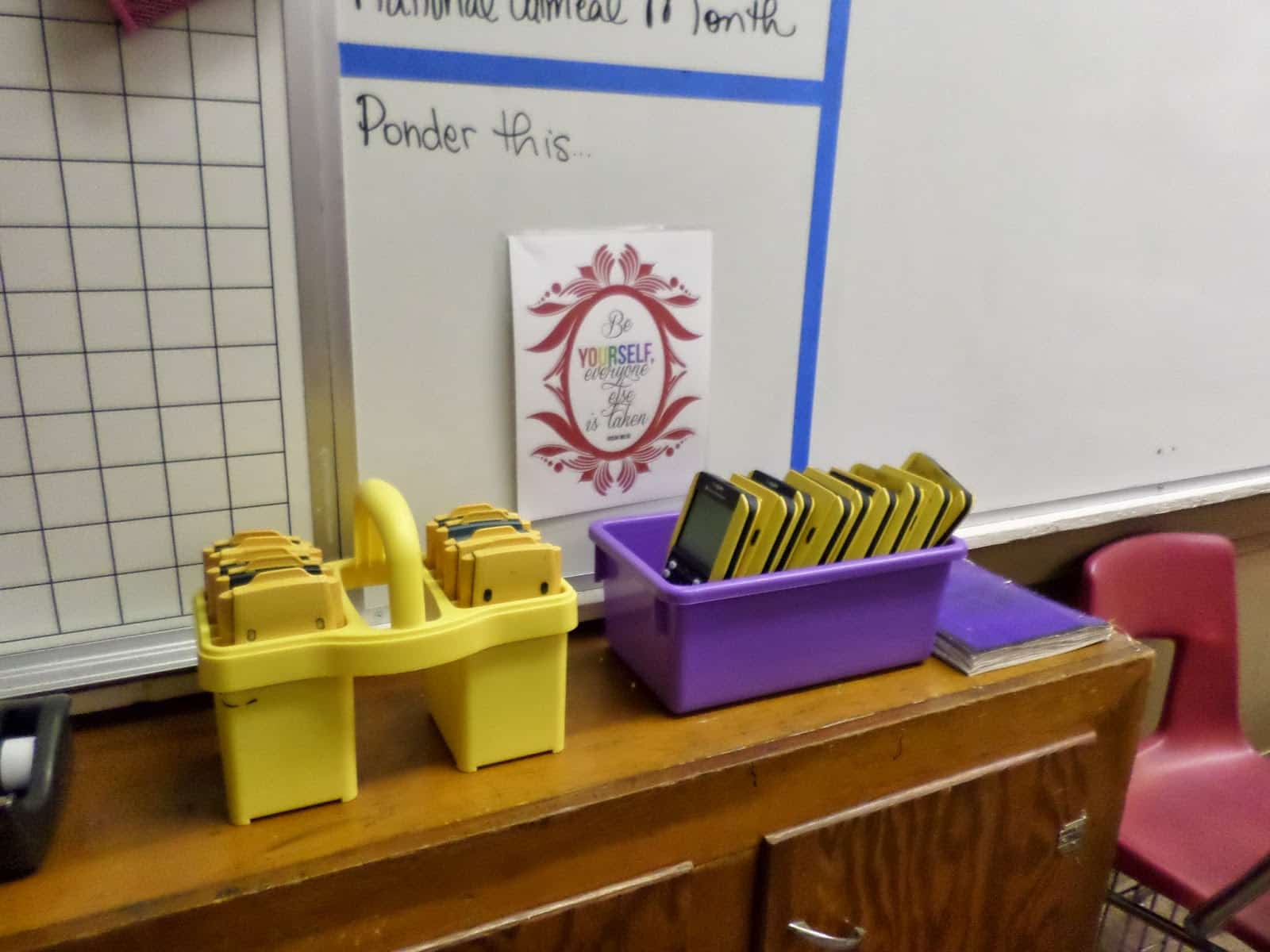
January 31, 2014 – Things I Never Thought I’d Do As A Teacher
These past couple of weeks have been interesting. I present to you: Things I Never Thought I’d Do As A Teacher.
I never thought I’d help a student fix the zipper on her jeans. Don’t worry. She wasn’t wearing them. And, she was fully clothed. I’m pretty sure the only reason she brought them to me to fix was because our FACS teacher had already gone home for the day. And, I was one of only two teachers left in the school building.
I just hope this doesn’t become a regular thing. The next day, the student announced to the class, “Hey everybody! If you have any jeans where the zipper is messed up, bring them to Ms. Hagan. She is a miracle worker when it comes to fixing jeans!”
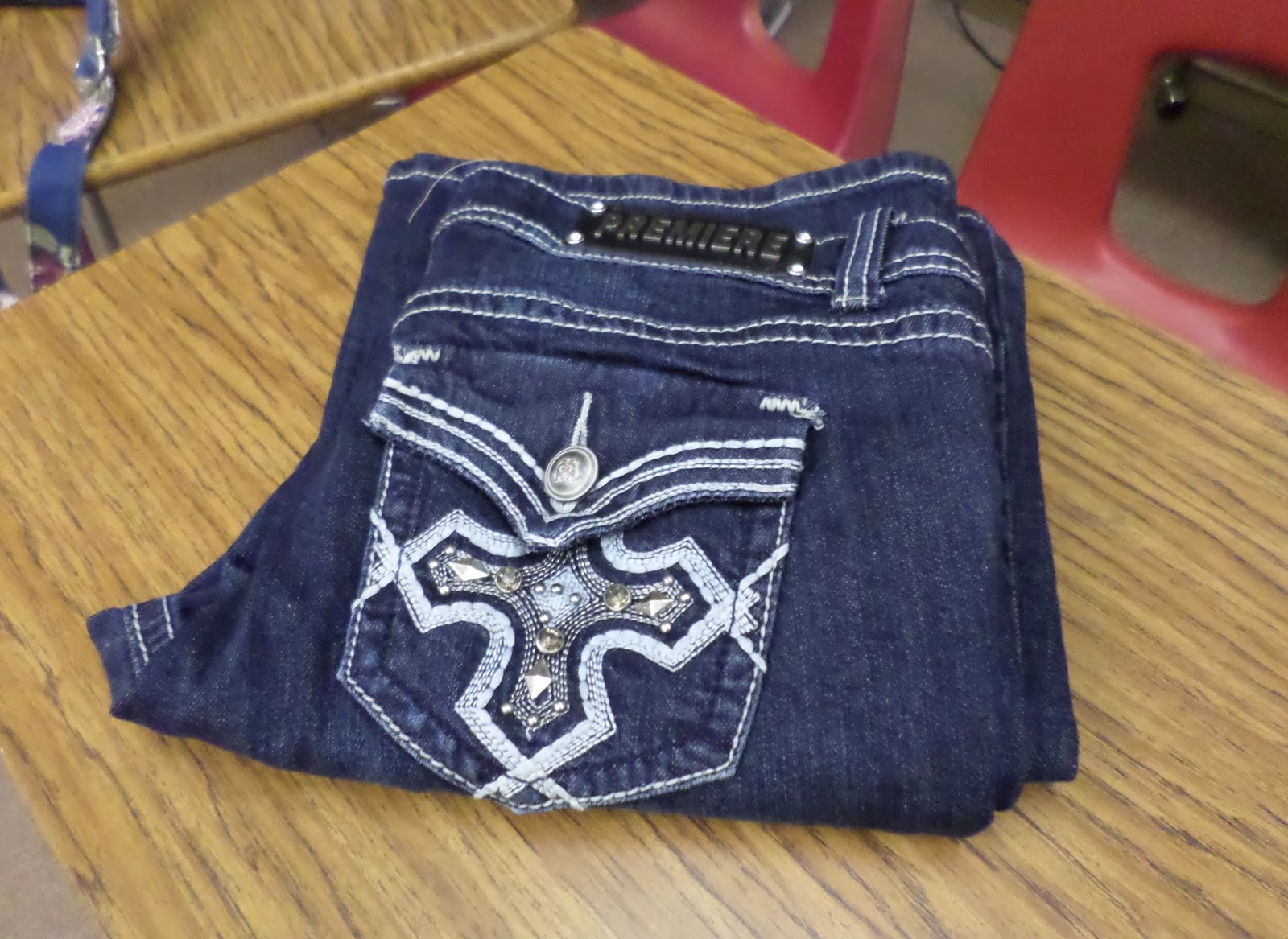
I also never thought I’d teach a lesson while students were holding infant simulators. As part of our FACS I curriculum, students have to care for a baby from 4 p.m. to 8 a.m. I had two male students in my 6th hour class bring their babies to class with them. The babies had yet to turn on, but my female students were instantly drawn to the babies. The insisted on taking them out of their carriers and holding them for the ENTIRE class period. They managed to get all their work done, so I didn’t mind.
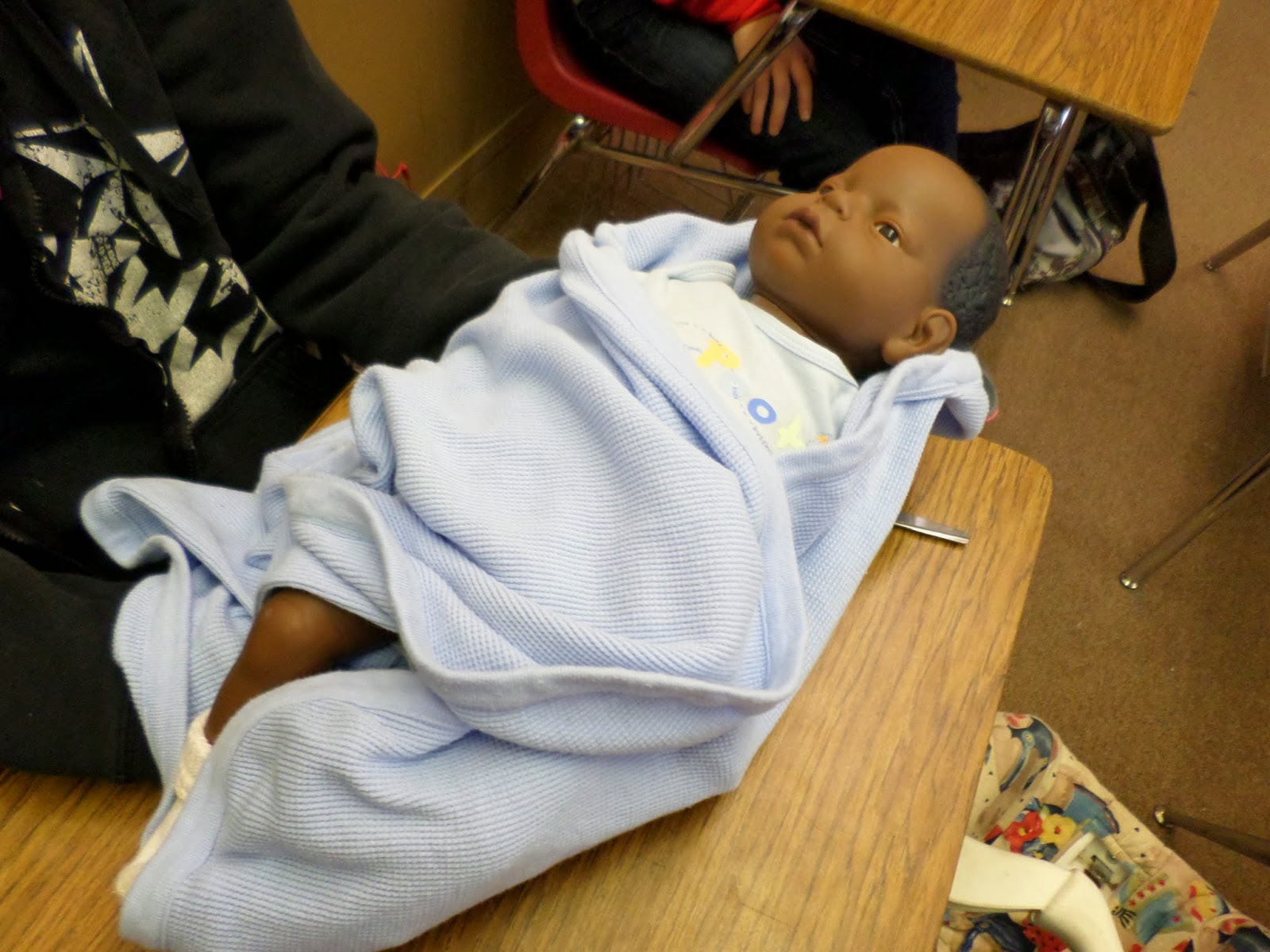
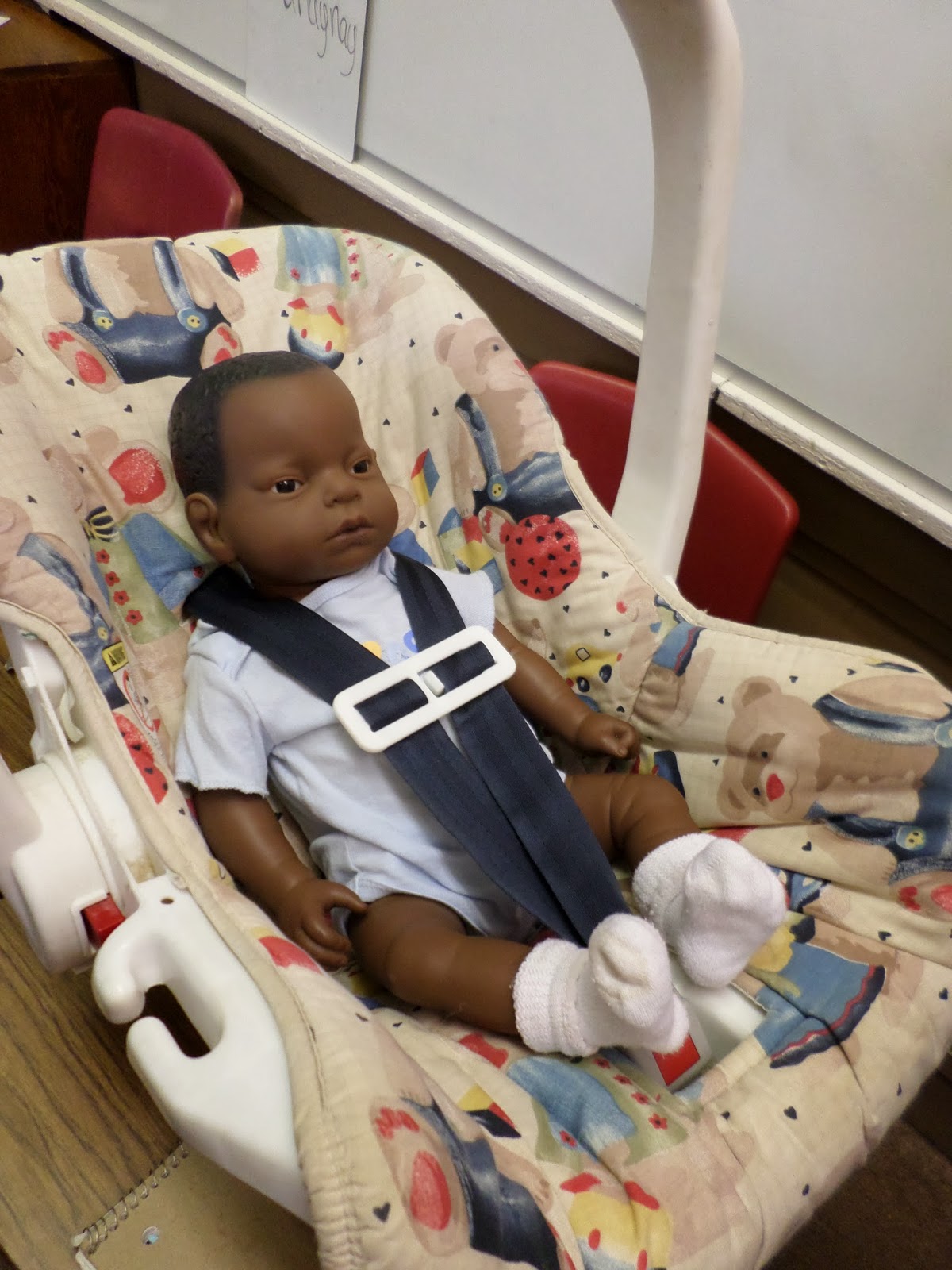
I never got a picture of the other infant because he was continually in someone’s arms. But, here is his carrier and his diaper bag.
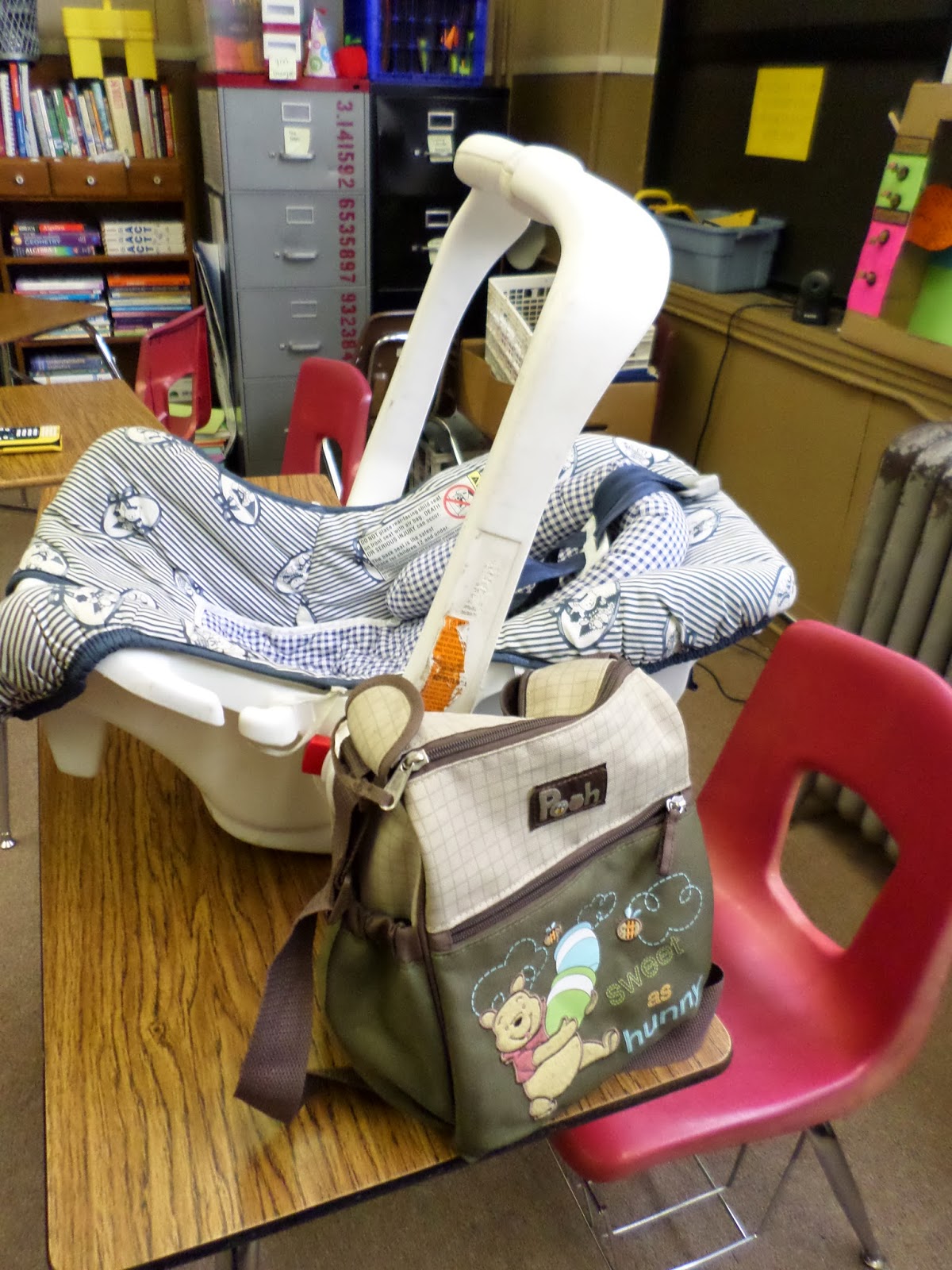
February 1, 2014 – My New Classroom Addition
This post is going to be short and sweet. I just had to share a picture of my new (to me) podium that has found a home in my classroom. My mom picked it up for me at a thrift shop because she decided every teacher needs a podium in their classroom.
I haven’t stood behind it and taught. That’s just not my style. Actually, one of my 3rd period students has actually claimed it as his desk. He sits there every single day.
The main thing I love about my podium is that it has three shelves of storage space underneath! And, storage space is something that is definitely lacking in my classroom. Plus, it gives me a place to set handouts and miscellaneous stuff while I’m teaching.
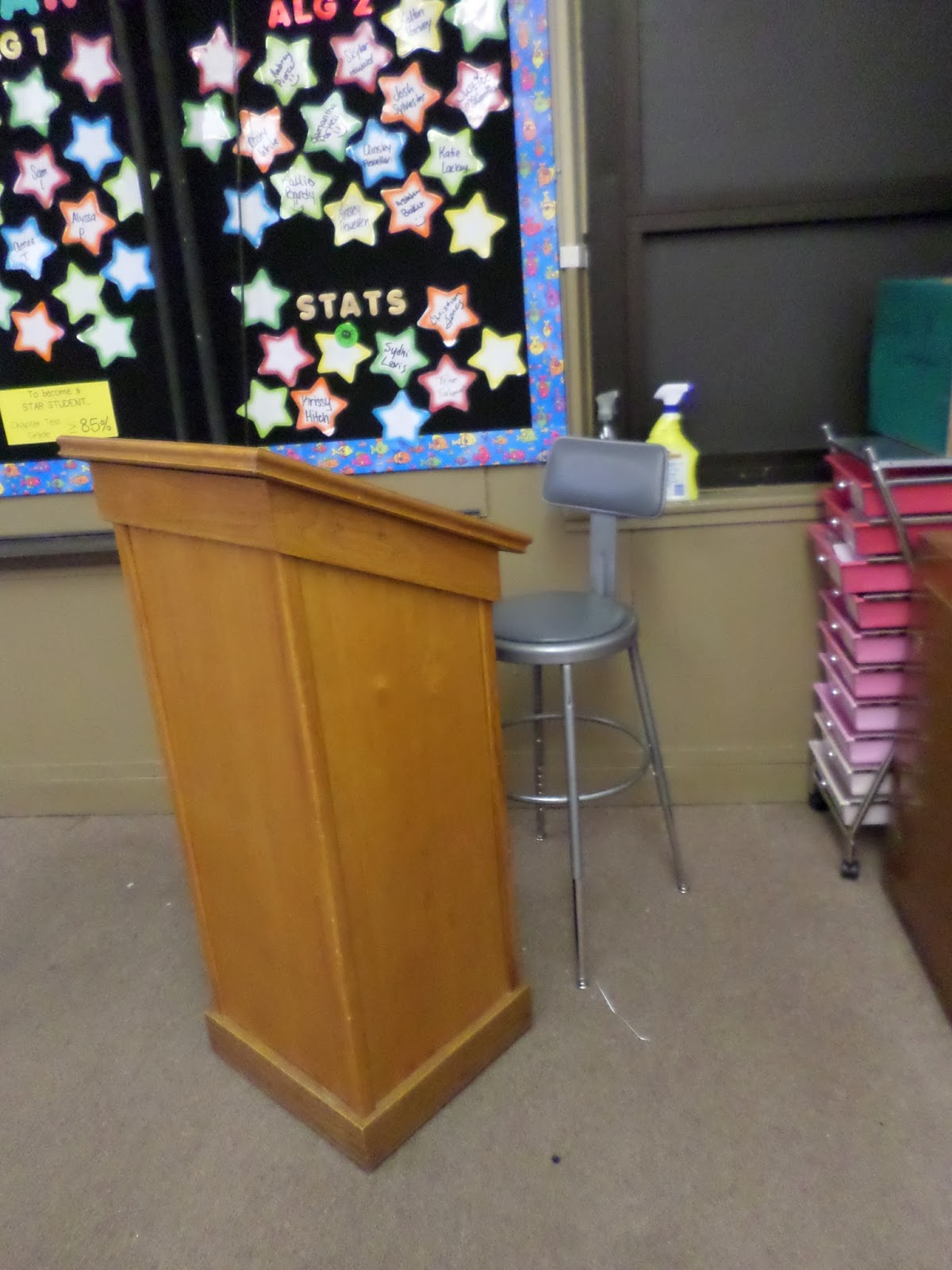
February 2, 2014 – EmptyShelf Challenge: January Recap
Today is February 1st. To be honest, I’m so glad that January is over. After much reflection, I am going to say that January is my least favorite month of the year. It starts out so promising. We make goals. We resolve that this year is going to be different. And, for a few days (or hours), it is. Then, Christmas Break ends, and reality returns. Life soon becomes overwhelming again. And, our resolutions are quickly forgotten. Instead of looking for ways to thrive, our focus becomes mere survival.
January is gone. Christmas Break is now but a distant memory. Spring Break looms too far in the future. And, I feel like maybe I’m finally getting back in the groove. Every day, I get out of bed and go to a job that I love. I get to spend my days educating others about something I’m passionate about. When life gets busy (read: insane), I need to take the time to remind myself just how lucky I am. I get paid to do a job I love. I chose the name of this blog for a reason. I love math. And, I love teaching it to students even more. There are so many people out there in the world who hate going to work in the morning. Their job is a result of someone else’s passion, not their own. I am beyond blessed, and I need to remember that no matter what month of the year it is.
I’m about to do something I’ve never done before. When this blog started, I wrote solely about my student teaching experiences. The blog was anonymous because I wasn’t sure how my college/cooperating teachers would respond to my honesty. When I landed my first teaching job, I kept the blog anonymous. Part of the way through my first year, things started to change. I proudly put my name on my blog and took ownership of my ideas, my struggles, my successes, and my failures as a result of the PSA of a certain somebody you are almost all familiar with. The more I blog, the more I count my readers as friends. So, friend, thanks for reading my blog! I know I haven’t met most of you, but, let’s be honest. I’ve shared a lot of personal stuff on this blog. And, if you weren’t my friends, that would be just plain creepy that you knew so much about me without having ever met me.
One of the most personal things you can know about somebody, I think, is the books that they read. I think books are a window into both who a person is and who they want to be. I know that when I visit a person’s house for the first time, I am almost always drawn to their bookshelves. I want to see what they are reading/have read. I’m on the lookout for books that we have in common. It’s an amazing conversation starter. I almost always learn something about the person that normally wouldn’t have come up in conversation.
Back in late, late December, my sister and I embarked on the #EmptyShelf Challenge. We are challenging each other to see who can read the most books by December 31, 2014. I actually started on December 27, 2013, but my sister chose to not start until January 1st. Despite the five day head start, she is beating me. Here’s the scary part. I’m about to show you my January reads. The books I read this month had nothing to do with math or teaching. Instead, they are a peek into my life outside of school. (Many of my books are a reflection of the importance of faith in my life. If this is something you are not interested in, feel free to stop back by tomorrow for a post full of math, foldables, and fun.)
The month started with an empty bookshelf. I wanted a visual reminder of my reading progress.

Now, one month into the challenge, my shelf looks like this. I’ve also started utilizing the public library in town, so the notepad and pen are there to remind me to write down what library books I have enjoyed.
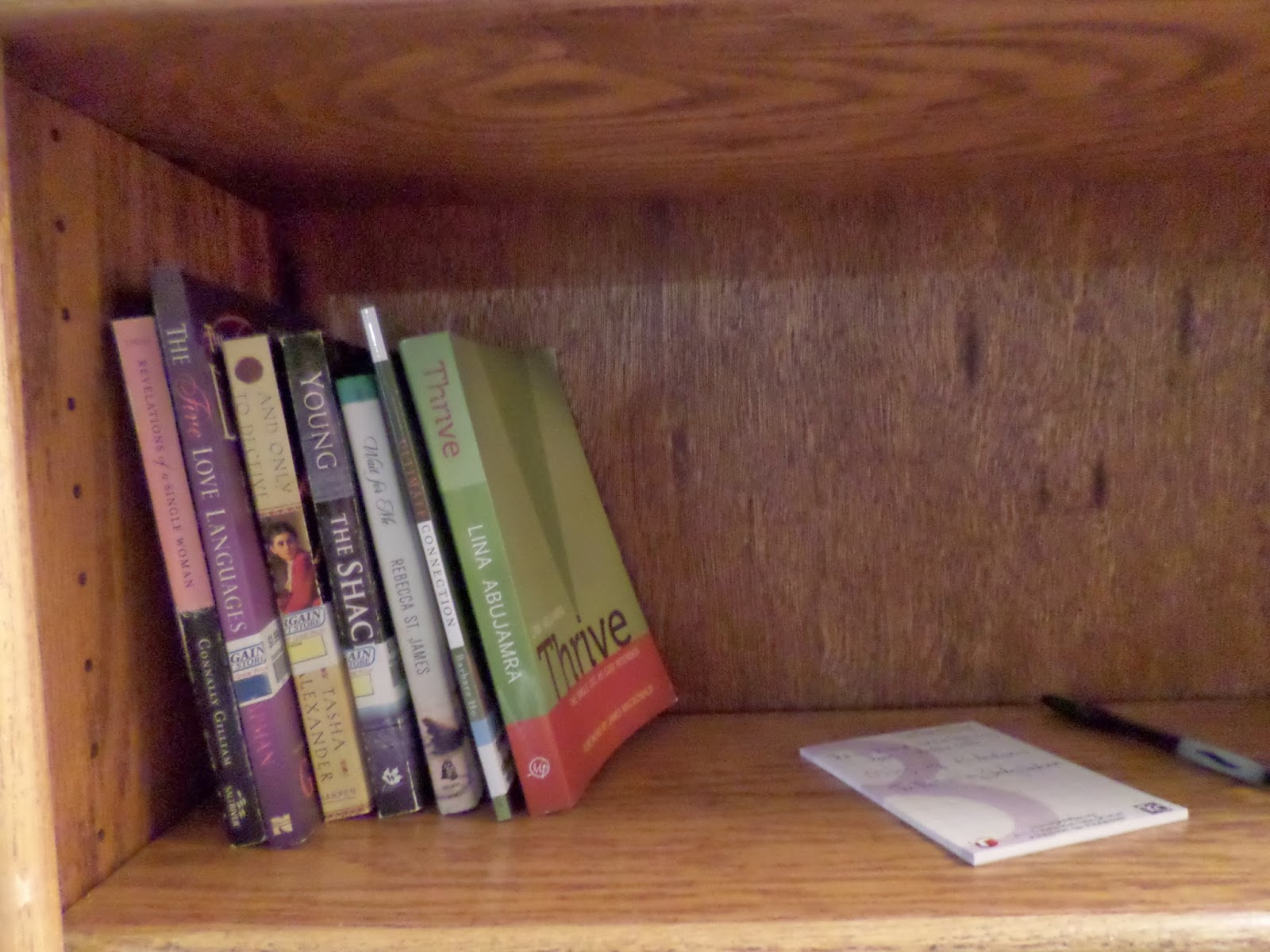
Here are the books I read out of my own collection:

Revelations of a Single Woman: Loving the Life I Didn’t Expect by Connally Gilliam
This is a book that I bought and started in college, but it’s been setting on my shelf, partially read, for the last few years. At 24, I’m much younger than the author, but I found a lot of things in the book that I could relate to. I am definitely living a life that I didn’t expect. While still in high school, I planned out my life. I was going to go to college, meet a guy, fall madly in love, get engaged, graduate, get married, and live happily ever after in that order. I always assumed I would find a teaching job close to wherever my husband found a job. Well, here I am, over 1.5 years into my teaching career, and I’m still unmarried. I’ve picked up my life and moved to an entirely new town where I didn’t know a single person. This has certainly been an adventure. I know this is all part of God’s plans for my life He knows exactly what He is doing. And, I can’t wait to see how He works all these things I never expected to experience so that they contribute to His glory.
The Five Love Languages by Gary Chapman
So, this book probably seems out of place on this list because I just made it very clear that I’m NOT married. So, why am I reading a book that was written to help married people build a marriage that lasts? That is a very good question! A few months ago, I was listening to a podcast about love languages. The speaker talked about how understanding your love language could help you in all relationships – not just romantic ones. On a whim, I decided to take an online quiz to determine exactly what my love language was. My result? My primary love language is Words of Affirmation. My secondary love language is Quality Time. Once reading the descriptions of these, I knew without a doubt that these were definitely the ways in which I receive love. When people say kind things about me or my work, it lifts me up. When I feel like I deserve praise but receive nothing, I feel defeated, unloved. Looking back over my life, I can see how many of the arguments I have found myself in have stemmed from my not feeling loved. I never really stopped to think about how different people require different things to feel loved. Since reading about the five different love languages, I feel like I see the world and my interactions with others differently. Part of me wonders how I can apply this to my classroom.
And Only To Deceive by Tasha Alexander
This was my first fiction read of 2014. I picked it up at my favorite thrift store based on its title and cover. Yes, I admit it. I judge books by their covers. This was historical fiction, and it allowed me the chance to escape into Victorian England. It was one of those novels where not everything was as it seemed. It’s the first book in a series, but I have yet to take the time to hunt down the sequel. It was an enjoyable read that kept me on my toes.
The Shack by William Young
This is another book that has been sitting on my shelf for a while. I tried to read it a couple of years ago, but I never got past the first three pages or so. I remembered reading a lot of glowing reviews when it first came out, so I decided to give it another shot. Somehow, I didn’t exactly know what the premise of the story was, so I was shocked to find that this man was going to a shack to meet God, Jesus, and The Holy Spirit The Trinity was not represented as I expected. Though, I’m not sure what I expected at all. It was an interesting read, for sure. This is one of those books where I’m not quite sure how I feel about it after reading it. Did I like it? I just don’t know. I spent most of the book in shock, but at the same time, it was one of those books that I just couldn’t put down. I just had to see what happened next.
Wait for Me by Rebecca St. James
I picked this book up at the thrift store because I was semi-familiar with the author. It was a short, quick read. I think I only paid 25 cents for the book, so I didn’t really look much into it before purchasing it. In retrospect, I think this book was intended for high school students. Still, there were several chapters towards the end that really spoke to me.
Ultimate Connection by Barbara Ho
I picked up this short book in the Bargain Books section of Mardel back in October, I think. My prayer life is an area where I’ve always struggled, so I welcomed the opportunity to learn several principles I could apply to my prayer life. I also really enjoy hearing other people talk about what their prayer life is like. This book opened my eyes to some concepts I had never been exposed to before. I enjoyed this quick read, and I would like to think that it has made a difference in my life.
Thrive: The Single Life as God Intended by Lina Abujamra
This book was my first reread of the year. I first read this book last summer. The focus of this book is how to thrive despite your relationship status. It is an inspirational read, and it is chock full of lots of good advice and thought-provoking discussion. I attacked this book with highlighters this time around, and there are few pages that are unharmed by my colorful markers. I’m not quite sure I am living a thriving life yet, so I could probably stand to reread this book five or six more times!
These books are not pictured above because I checked them out of the local library.
The Honk and Holler Opening Soon by Billie Letts
This was my first book ever to check out of the public library in Drumright. I feel really bad about the fact that I lived in this town for over a year and a half before venturing into the library. My landlord recommended this book and author, so I decided to take a chance on it. I love reading fictional books that are set in Oklahoma because I recognize the names of the towns that the characters visit. This book was no exception! This was a quick, humorous read. And, I look forward to checking out more books by this author.
Misty by V.C. Andrews
Do you ever check out a book without knowing what it’s about? This was one of those books. I’d never heard of the author or the book, but I decided to take a chance anyway. After all, it was a library book. So, if I didn’t like it, I could easily return it. When I checked this book out, I thought it was either a romance or a mystery. I was wrong on both counts. This was the first book in a series that focused on a group of teenage girls in group therapy. Each book focuses on the decisions/circumstances that led each girl to end up in therapy. Had I known what the books were about, I likely wouldn’t have picked up the series. But, I actually enjoyed the first book.
The Noticer by Andy Andrews
First off, I checked out this book because it had a cool title. I wondered, “What is a noticer?” This was a short and inspirational read. As I read this book, I found myself thinking that I could apply some of the advice given in the book to my own life. One of the main ideas in the book was that whatever we focus on increases. If we focus on the bad things in our lives, our lives will tend to get worse. When we choose to focus on positive things, we tend to notice even more positive things, and we make choices that lead to further good things in our lives. When I focus on how stressed out I am with my job, I notice more things I should be stressed out about. When I take the time to find the good (and there’s lots of it!) in my job, I am happier. And, a happier me equals happier students.
That puts me at 10 books for the year! I’m already well-ahead of where I was last year. Now, I just need to catch up with my sister…
February 3, 2014 – My CLEAN(er) Desk
Two weekends ago, I spent 11 hours at school, working in my classroom. Why? I was so behind that I felt like I was going to lose my mind. Did I want to spend my weekend at school? Definitely not. I would have much rather spent my weekend reading or catching up on Downton Abbey or even grocery shopping.
My goal for that weekend was to get everything completely done and ready for Monday – Wednesday so this past week wouldn’t be as stressful. To motivate myself, I wrote out my to-do list on the dry erase board. My students enjoy doing math a lot more on our dry erase boards, so I figured I would have more fun tackling my to do list if it was on the dry erase board.
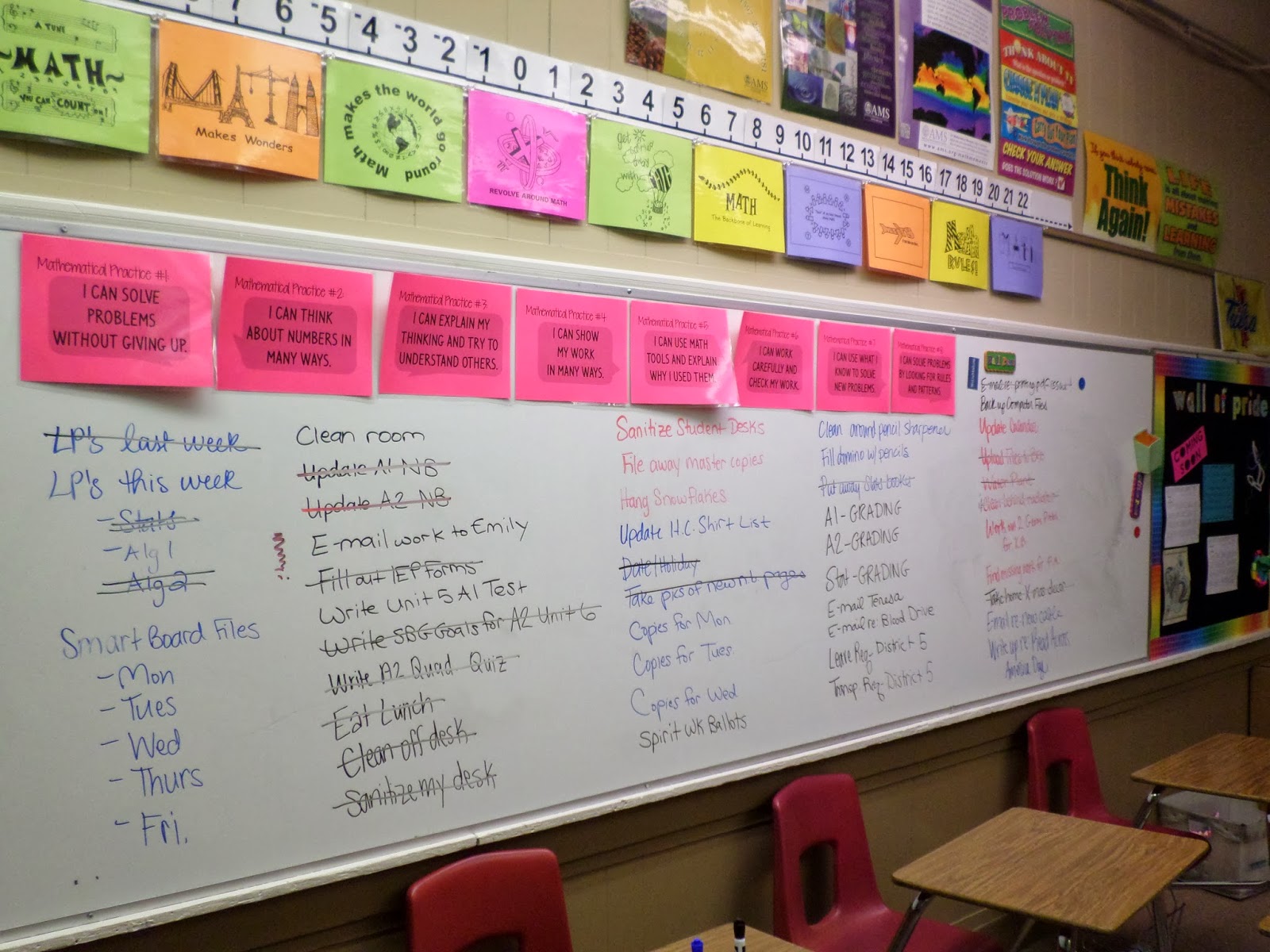
Everything in the picture is what I crossed off after a 7 hour session on Saturday. After 4 more hours on Sunday, a lot of stuff was marked off. Still, some things remained. And, in fact, I still haven’t done some of the things on the list. I just need more hours in the day. I need more time to do everything to my standard.
One thing I did was to clean off my desk. My desk and I are constantly at battle. I want to have a clean desk. I really do. But, flat surfaces have a tendency to not remain so empty in my classroom.
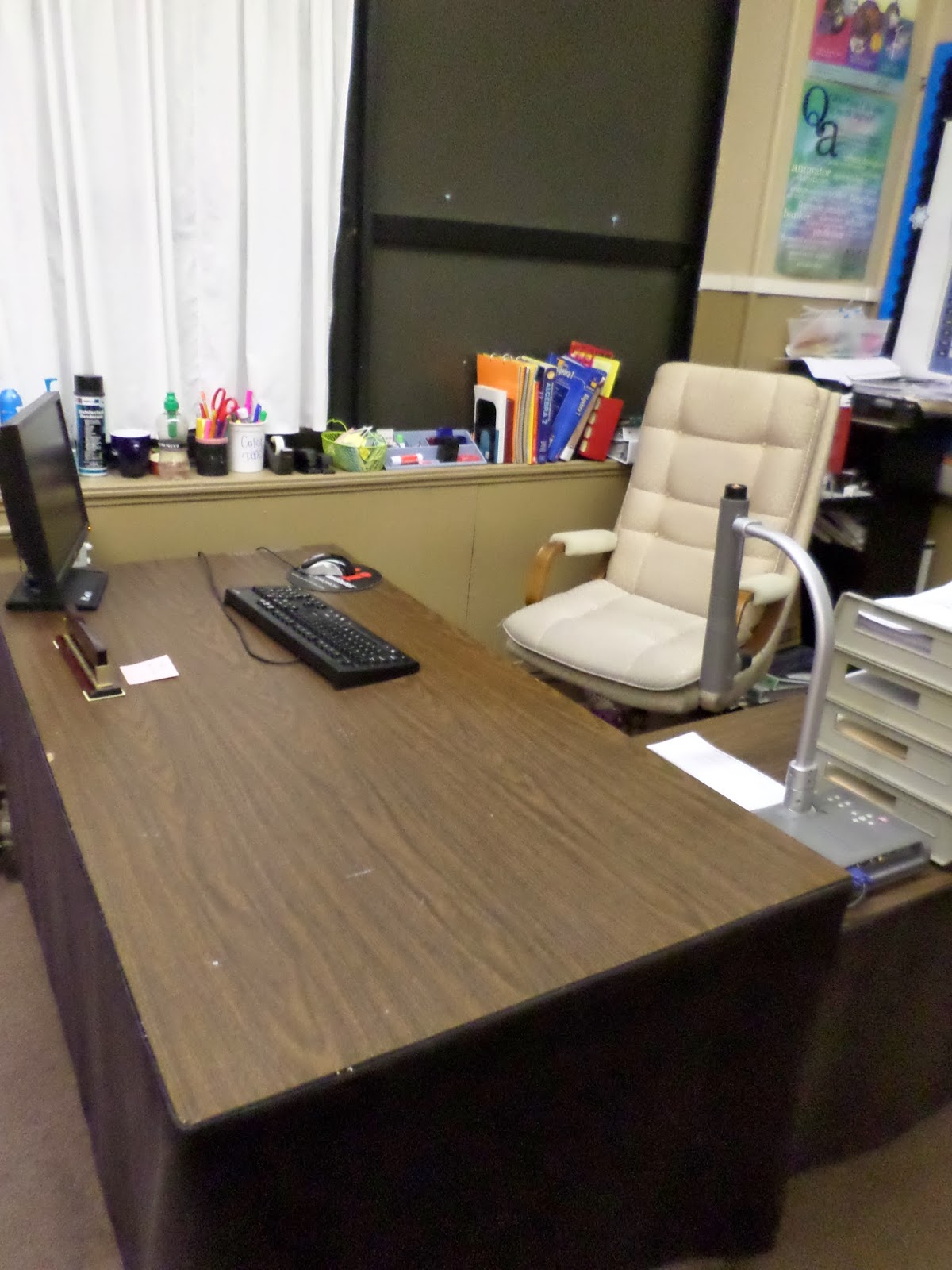
While working on cleaning my desk, I had an epiphany. Maybe if I had less stuff on my desk, it would be easier to keep clean. It sounded like a good idea, but what should I do about all the stuff I use regularly? I didn’t really want to put my stapler and tape dispenser in a drawer. My first epiphany was followed by a more minor epiphany. Hello, Sarah! You have an entire wall of windows in your classroom. And, there is a ledge in front of the windows. Why don’t you put the stuff you use all the time on the ledge instead of your desk?
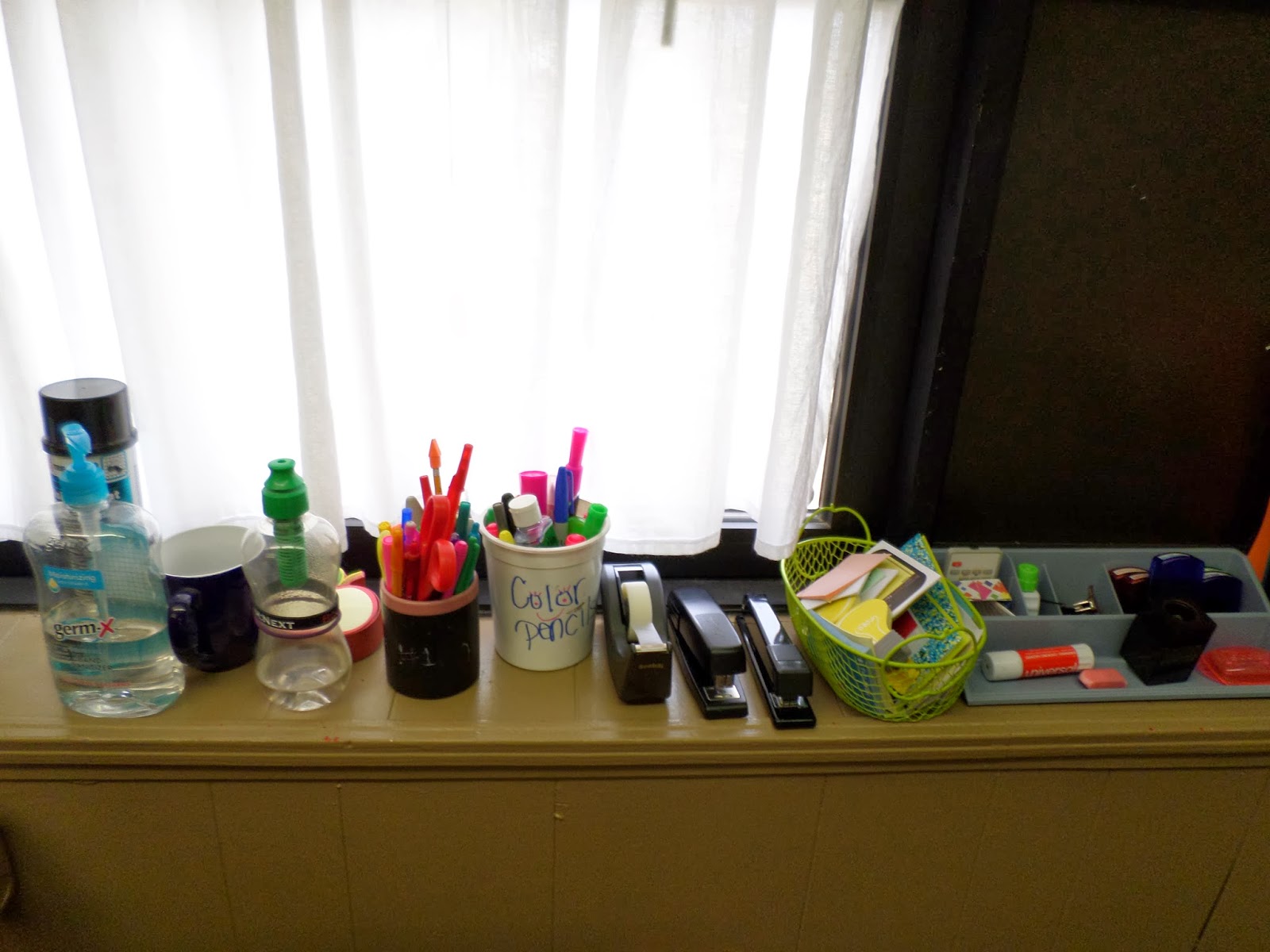
The comments made by students and other teachers were priceless.
Student: WOAH! You cleaned your desk!
Me: Yes, I did. Are you impressed?
Student: Yes. Now, I’ll really freak out if you have ALL of our papers graded!
—
Student: Hello, Ms. “Finally Cleaned Your Desk.”
Me: Hi!
Student: That’s what I’m going to start calling you.
—
Another Teacher: There’s something missing here. What used to sit here? I know there used to be something here! Where’d it go?
Me: I cleaned my desk off this weekend.
Teacher: Oh, that’s it. That explains it.
—
Student: You rearranged your desk. Is that so you can have a longer cocaine line?
—
If you want to see why this is such a big deal, let’s flash back to a few weeks ago.


I think those pictures are worth a thousand words.
February 4, 2014 – We don’t want the world to explode…
My students are listening to me, even when it sometimes seems like they aren’t.
For example, I make a really big deal in my classroom about the fact that we cannot divide by zero. We talk about how if I had 10 pieces of candy, there is no way that I can divide them between 0 people. It’s just not possible. I guess I tend toward the dramatic side. “Guys, if we divide by zero, the world will explode!” Now, we don’t want the world to explode, so we will never divide by zero, right?
At this point, one student usually raises their hand to ask if the world will *really* explode. This is usually the point in the conversation where I ask them to type 10/0 in their calculators. Half the class is usually convinced that 10/0 is actually 0. They type it in, press enter, and stare at a lovely error message.
Wait! My calculator says error. Mine, too! Guys, remember what I told you? If we divide by zero, the world will explode. Our calculators are smart. They know this. They don’t want the world to explode, so they give us an error message instead of performing the calculation that we asked them to.
I remind them of what Slope Dude says when he skis off the cliff: UNDEFIIIIIIIINNNNNNED! The cliff has rise but no run. Therefore, the run is zero. He tries to divide by zero, and he dies in the process.
After again acting out Slope Dude’s demise, a student raises their hand and kindly asks me to watch my language. “Ms. Hagan, is that language really necessary?” Oh, wait. I guess “undefined” is the worst curse word ever in math and in algebra.
Of course, I still have tons of students who rewrite anything divided by zero as zero. But, some students do listen. I was reminded of this fact when grading papers recently.
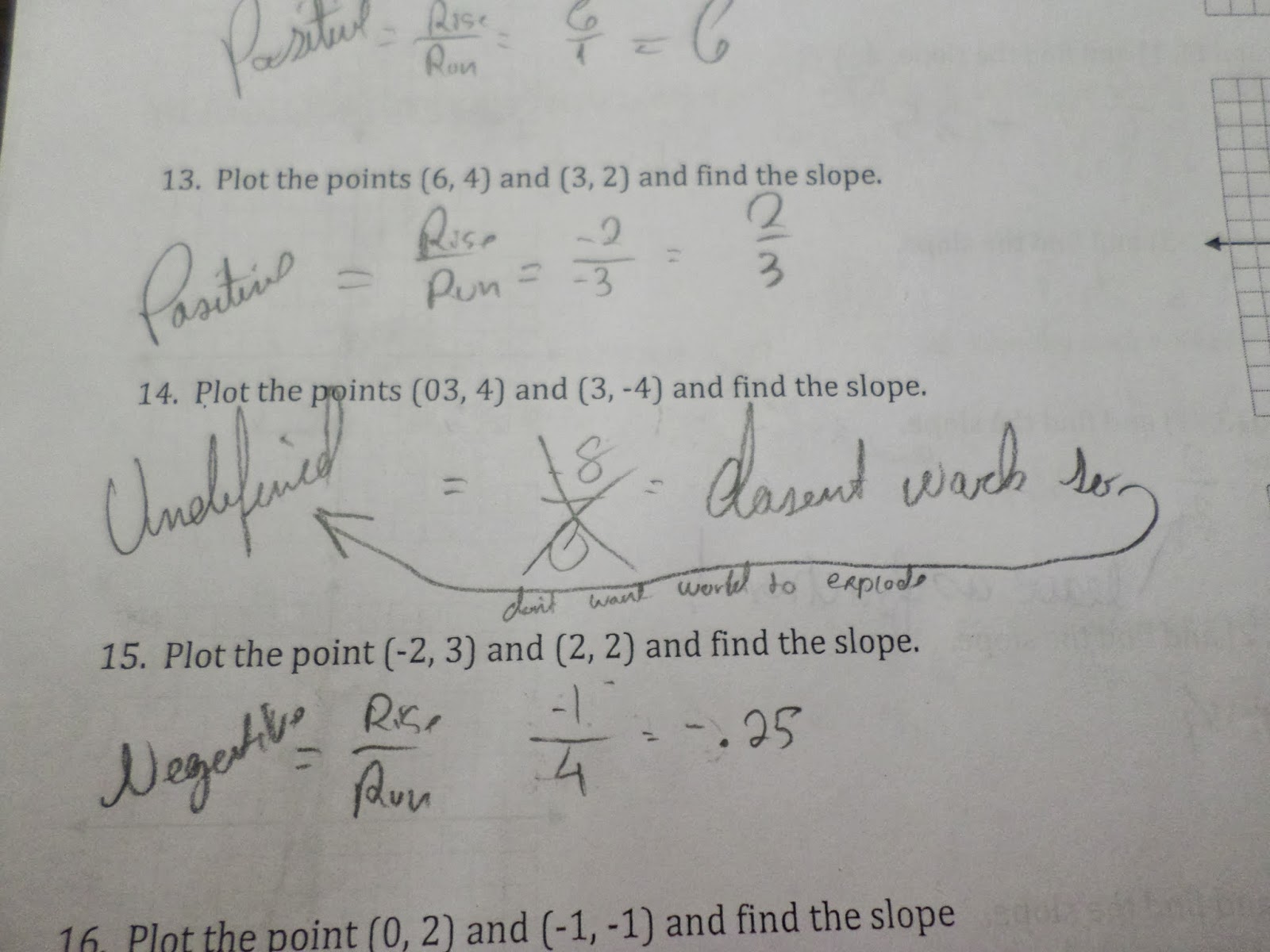
February 5, 2014 – Creative Minds
I teach some creative minds. Evidence below.
While grading notebooks, I ran across this title: “vaostgaotvyasfotssotes”
It was in the notebook of one of my eighth graders. And, his sister is one of my statistics students. Curious, I asked her about it. “Does your brother speak any other languages?” “No, why?” “Well, I found this cryptic word in his notebook, and I’ve been trying to decipher it.” She took a look at it, and she was as confused as I was. Curiosity piqued, she took a picture of the page to ask her brother about.
Mystery solved. My student took the first letter from each word on one page of our notebook and used those letters to create a new “word.” That’s something I would never have thought of doing!
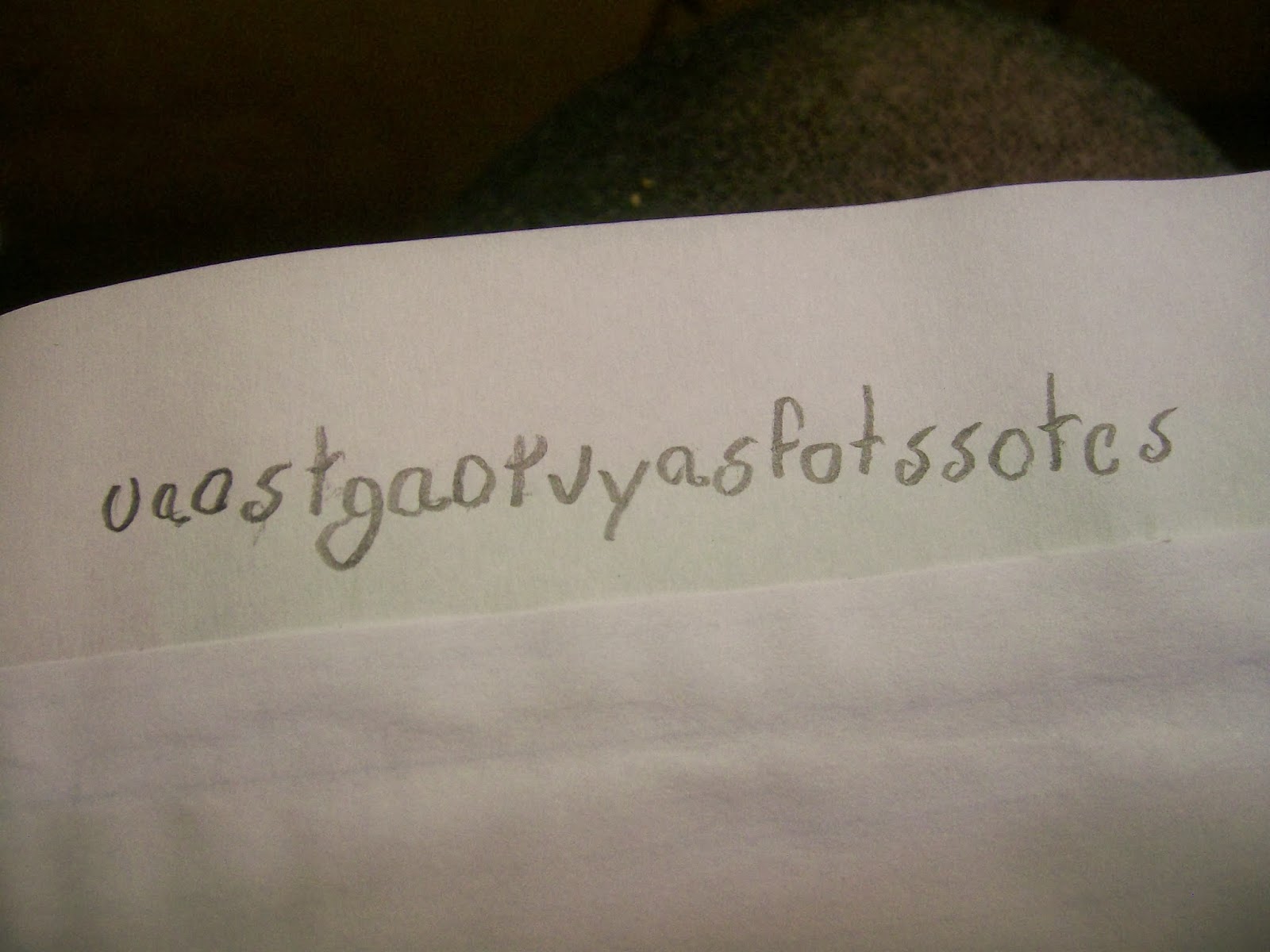
Another one of my eighth grade Algebra 1 students came up with a creative way to raise her hand:
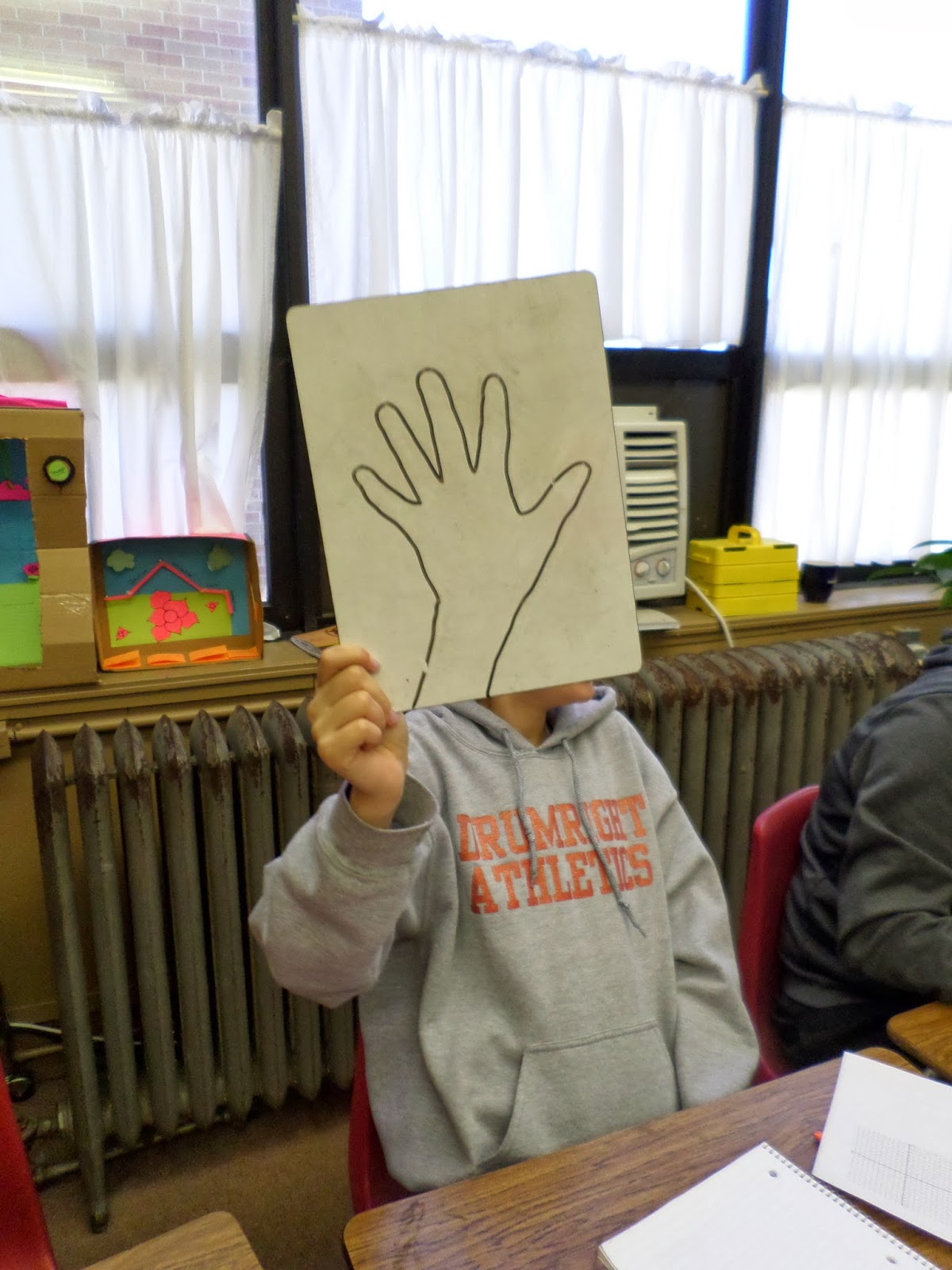
If you’ve been around my blog much at all, you know that we do a lot of cutting, gluing, folding, and coloring. One day, I was going around the room and picking up paper scraps while my students were working. One of my students was quite adamant that I was not allowed to throw away her paper scraps? Why? Because she was saving them for a special project.
A couple of weeks ago, she finished this special project. She saved her paper scraps all first semester, and she used those scraps to fashion a hat. I cropped down the picture to protect the identity of my student, but I hope this gives you an idea of what it looked like. I was most impressed! She wore her hat around the school proudly for the entire day!
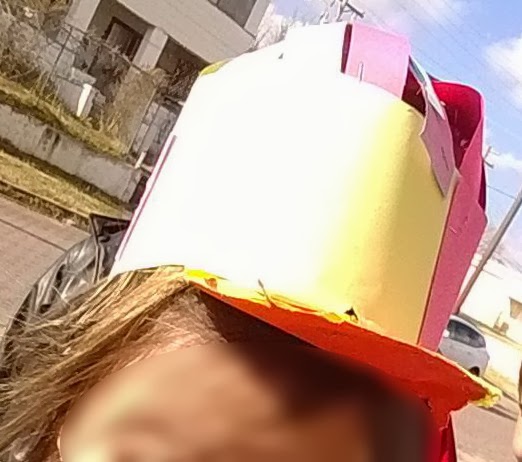
Last week, I had a student come in my classroom carrying this box. Can I leave this box in your room? Sure.
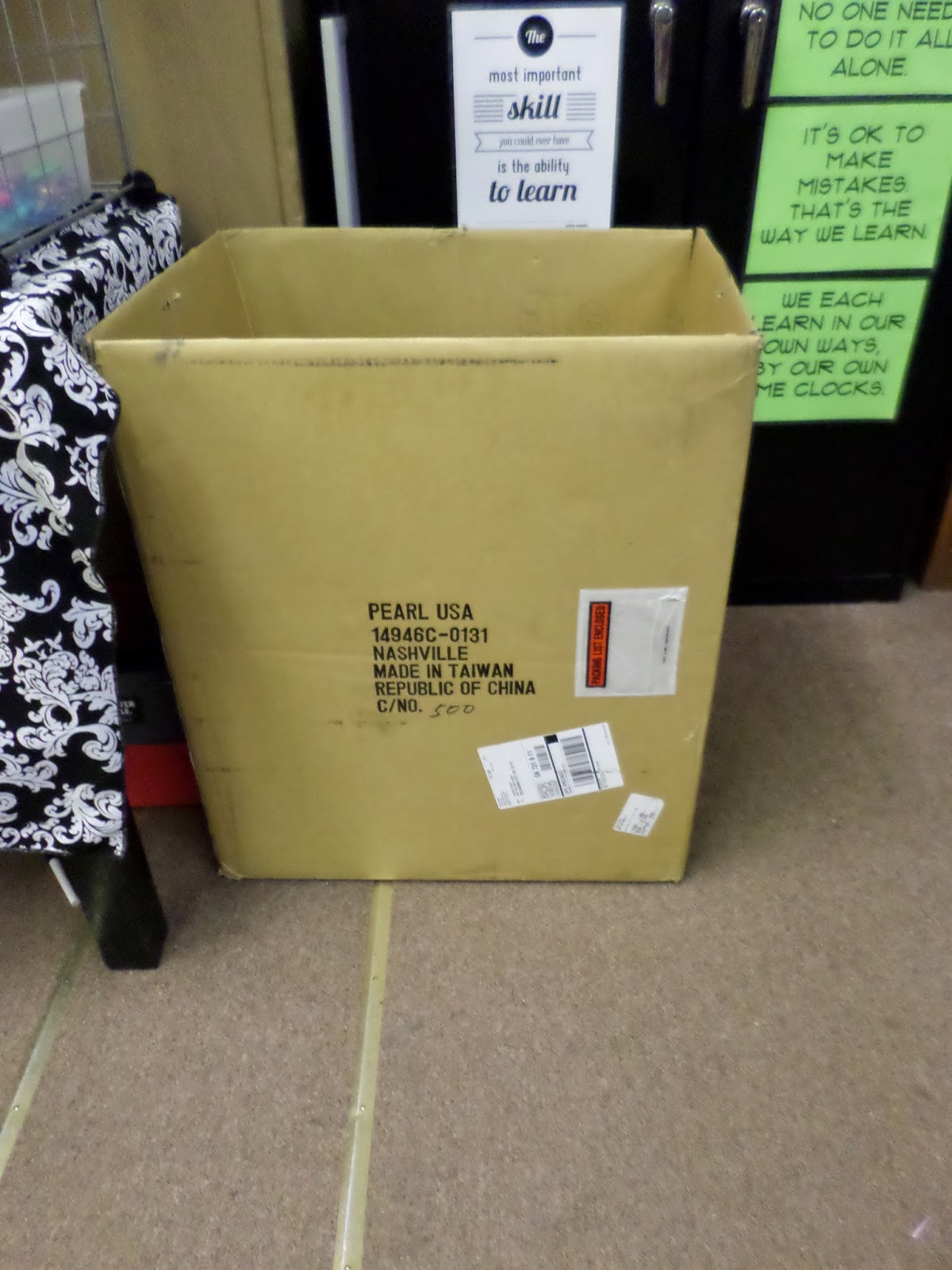
Curious, I waited to see what would become of this box. None of my theories were correct.
The box was soon spotted walking down the hall. I had to stop and take a picture.
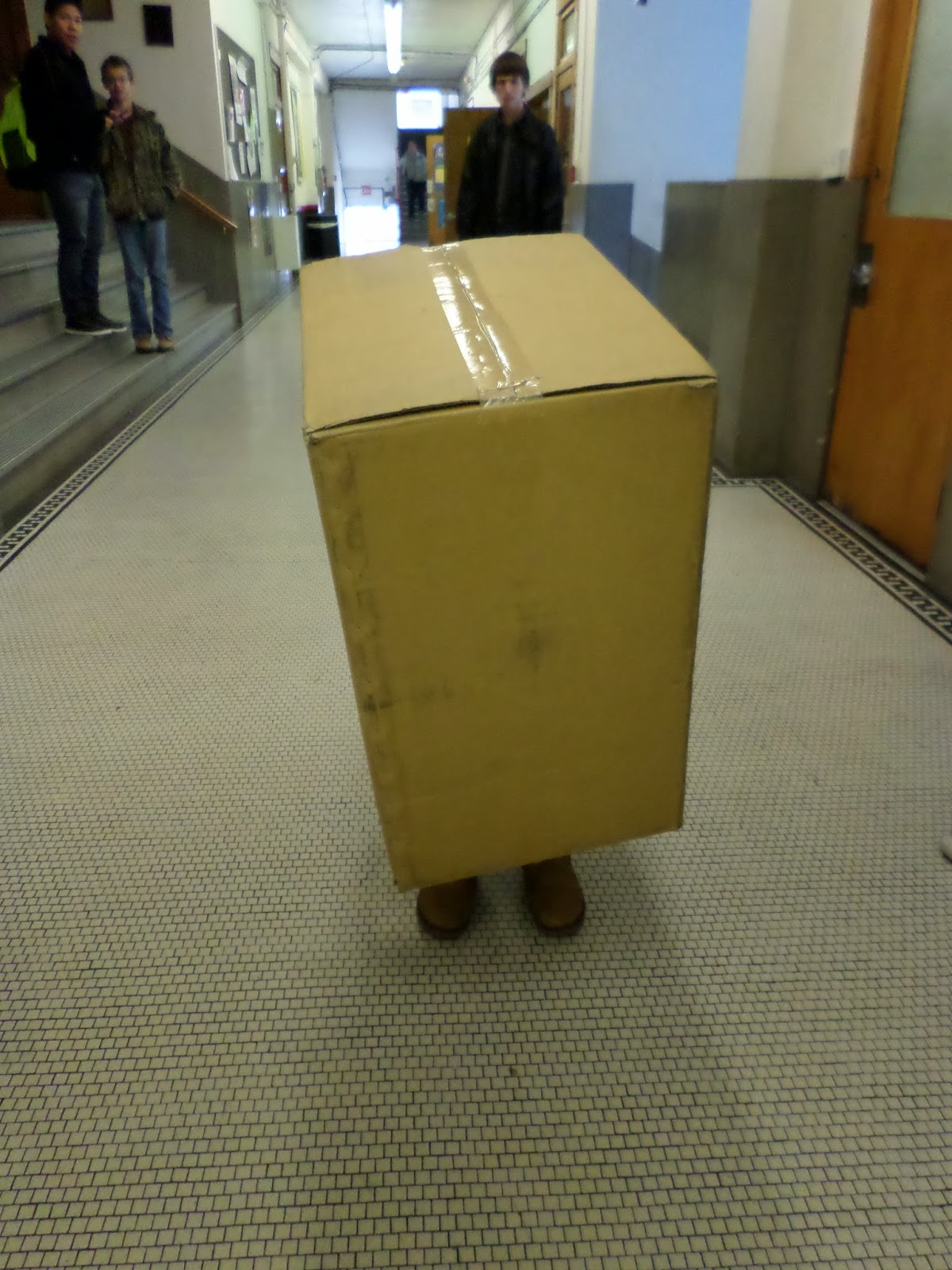
Thanks to the guidance and directions of a friend, the box made its way downstairs to the cafeteria.
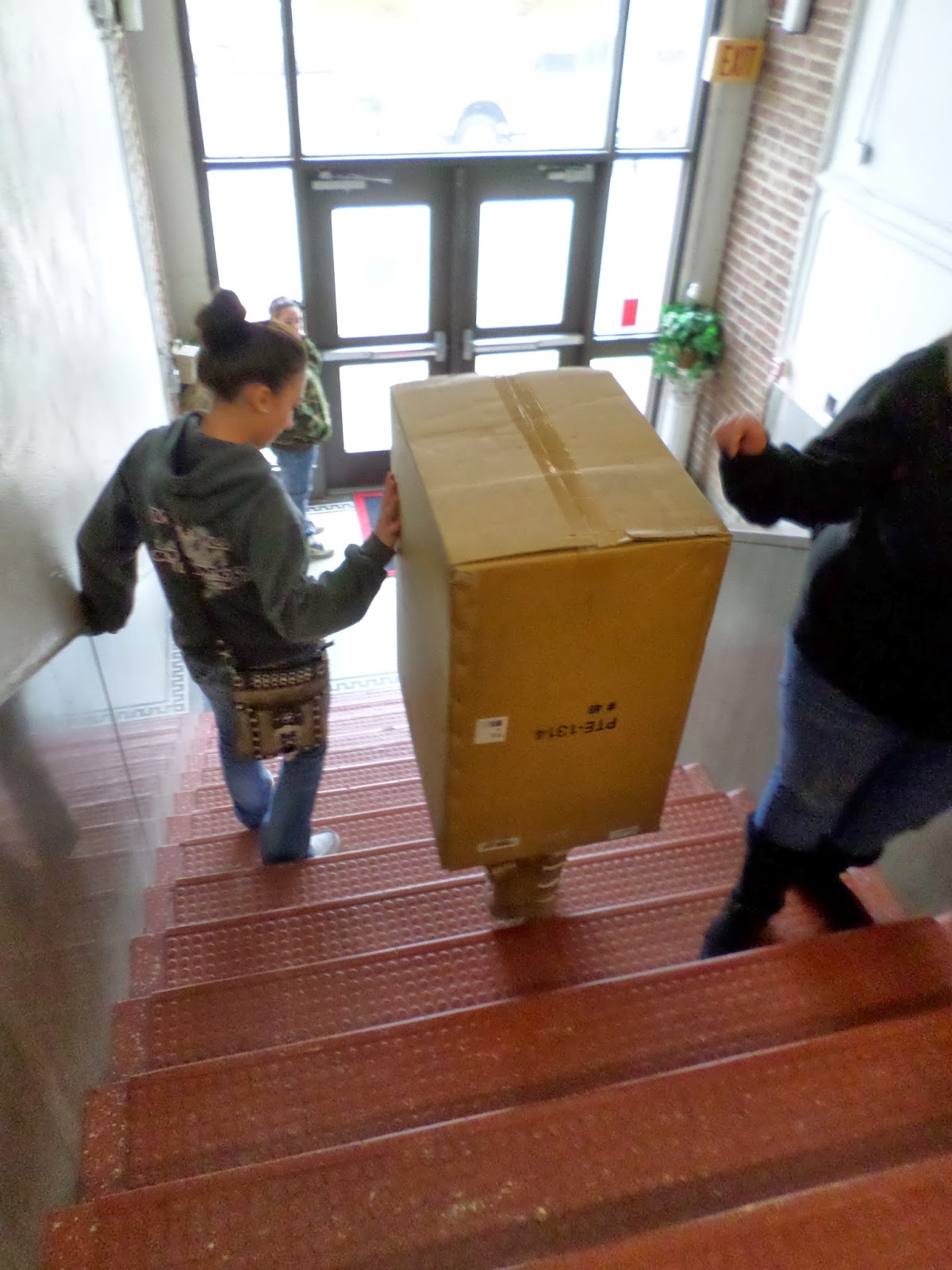
Soon after its departure, the box made its way back to my room for some modifications: eye holes! A face was drawn on the box before it departed once again for the cafeteria.
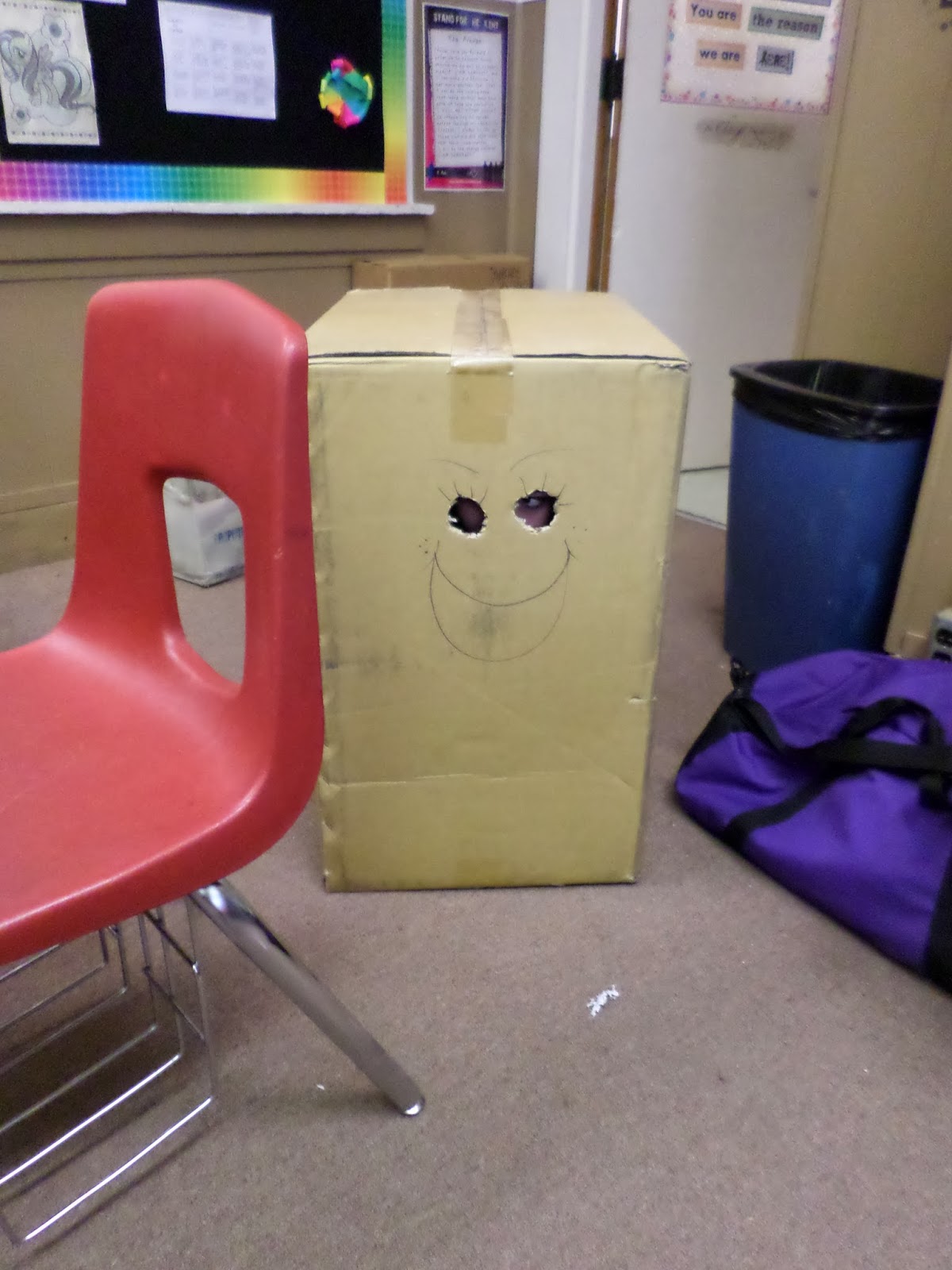
On our last Algebra 1 test, students were asked to draw a mapping diagram that was not a function. Then, they were to explain WHY their mapping diagram was not a function. I had several students draw mapping diagrams that were definitely not functions. But, they wrote no explanation at all, so I had to count them wrong.
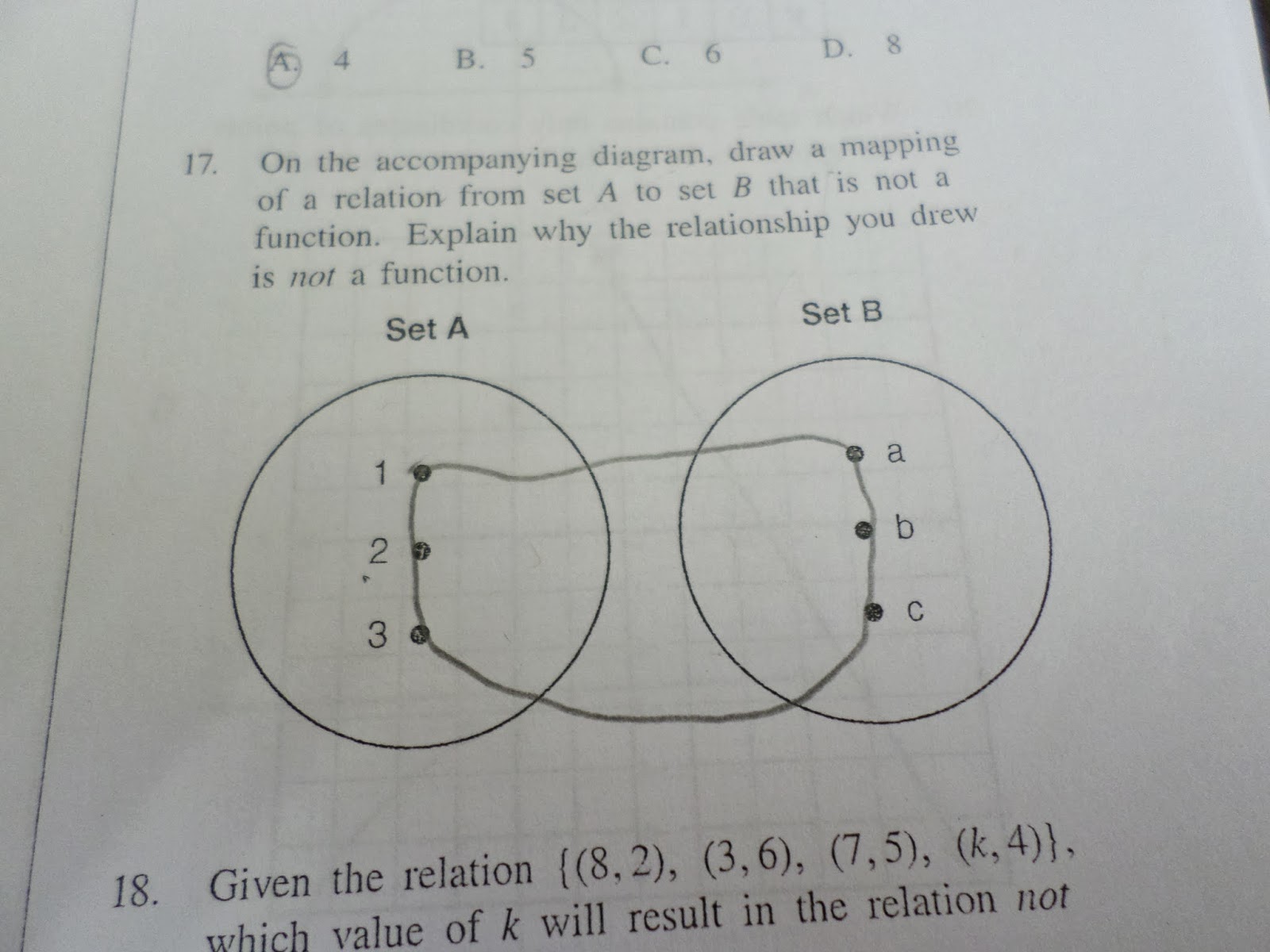
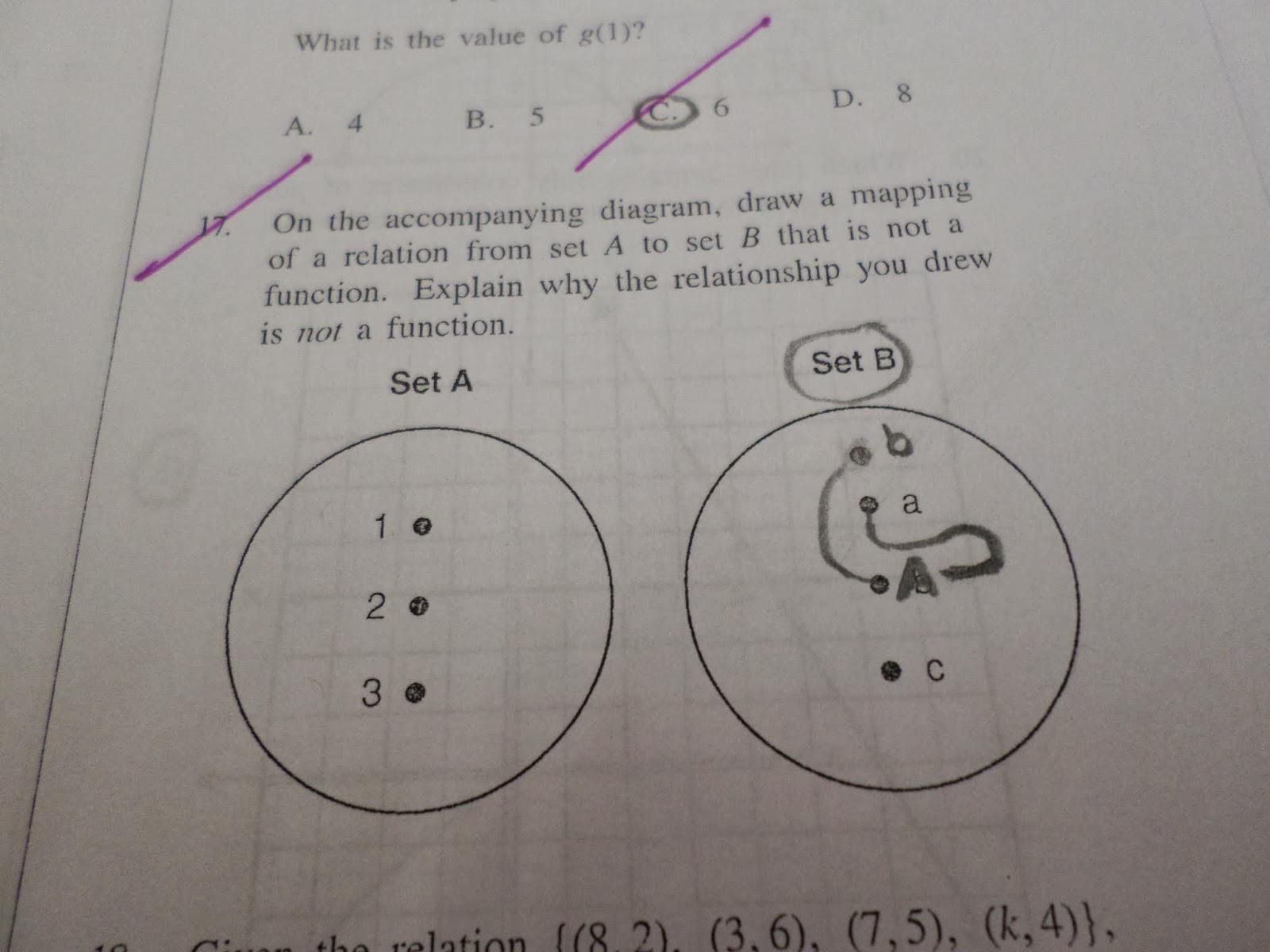
One of my favorite parts of being is a teacher is that I never know what to expect from my students. These past few weeks have been no exception!
February 6, 2014 – Spirit Week
Spirit Week is upon us. One of my big tasks as Student Council Adviser is coordinating Spirit Week.
I was the type of student in high school who NEVER dressed up for Spirit Week. I guess I just wasn’t that spirited. LOL
My Student Council kiddos get to pick the dress-up days for Spirit Week. And, every time, it seems like half the student body HATES the days that were chosen. This semester, I decided to take a slightly different approach.
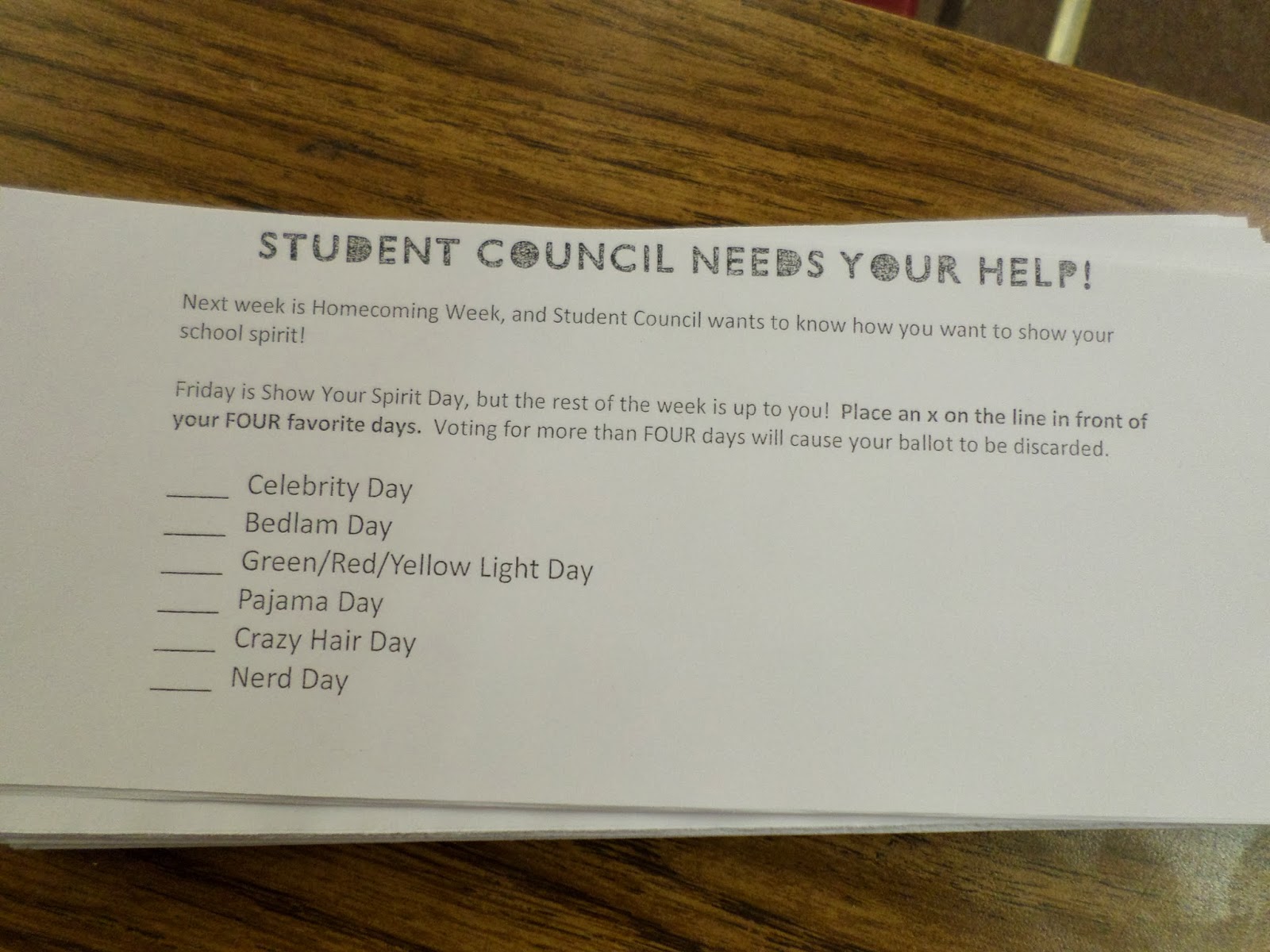
I had my StuCo kids make a list of days to choose from. Then, we had the student body decide which four days they wanted to celebrate. I reasoned that if students had a say in how they dressed up, they would complain less and participate more.
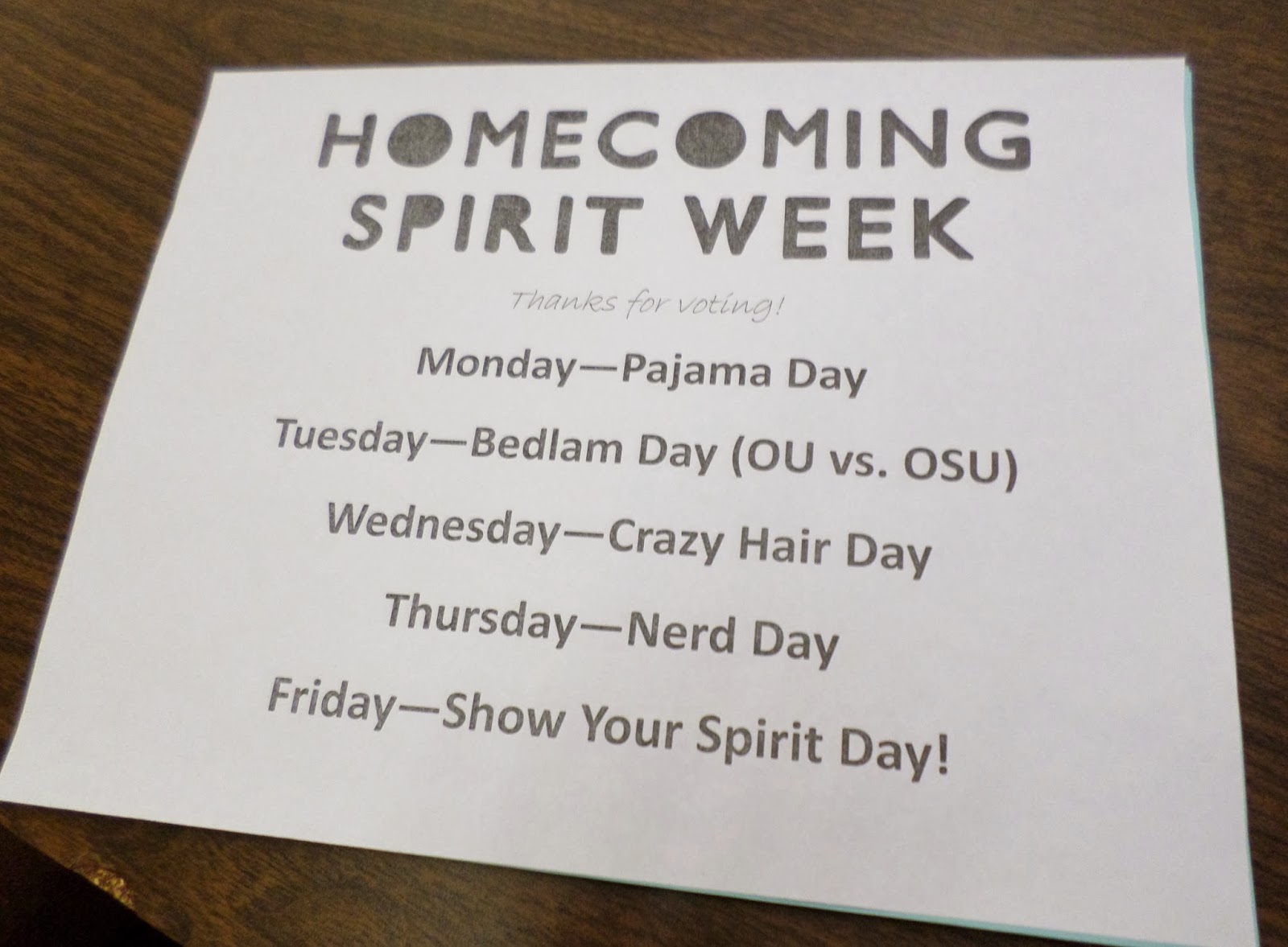
Of course, this did not work out perfectly. Half of my student council members are currently mad at me because our Spirit Week turned out to be “too juvenile.” I’m trying to not let it bother me. As my mom told me on the phone the other day, five years from now, these students will not remember any of the dress up days.
February 7, 2014 – Things Teenagers Say Volume 8
Join me today for Volume 8 of Things Teenagers Say. This is my regular round-up of the crazy and memorable things I hear my students say in class.

Did you know that if you google logarithms your picture comes up? And, if you keep scrolling, pictures of your classroom come up! It’s creepy.
—
A student brought her 9 year old brother into my classroom.
Student: One day you’re going to have Ms. Hagan for Algebra 1.
Brother of Student: By then, she’ll have wrinkles.
Me: [Aghast Look]
Brother of Student: (to me) Wait, you already have wrinkles!
—
So-and-so didn’t know who Martin Luther King, Jr was. She thought he was the one who pulled the sword out of the stone!
—
Me: It’s National Nothing Day!
Student: So, that means we don’t have to do anything today. Right?
Me: Ha ha. No.
Student: Somebody isn’t in the holiday spirit!
—
After a three day weekend, my students start discussing what slope videos they want to watch in class today.
Me: How many of you looked up slope videos on YouTube over your three day weekend?
Four hands shoot up. Yes!
—
Remember my new cell phone policy?
Student: Ms. Hagan! Look at what people are doing because of you!
<Shows me picture on her phone where somebody tagged her in a picture of her sleeping in another class.>
Student: If I had my phone, I would have been awake! This is all your fault!
Me: If you hadn’t had your phone out in class, I wouldn’t have taken it away…
—
At lunch, I saw this cat. So, I picked it up and decided to keep it. Somebody told me that I should give it to you because you love cats. I told them I didn’t think you did. You don’t even own a cat. But, they said that you have like a thousand cats.
For the record, I do not own a cat. Despite the rumors going around the school, I am NOT a crazy cat lady.
February 8, 2014 – Snow Day #4
It’s been a cold and snowy week in Oklahoma! Many schools were out on Monday and Tuesday. I really thought that we would be out on Tuesday since I had to drive to school while it was sleeting. Based on the number of absences we had, a lot of parents and students thought we should have been out, too.
Still, school carried on whether the students and teachers thought we should be there or not. I made the mistake of going to visit my parents last Sunday morning. I knew the weather was supposed to get bad, but I went anyway. When I saw the first snow plow that was parked on the side of the turnpike, just waiting for the storm to hit, I knew I probably shouldn’t be out driving. The second, third, and fourth snow plows, idling on the side of the highway were further signs that the weather was about to become VERY nasty. Still, I drove on. After spending less than an hour at my parents’ house, church had been cancelled and multiple inches of snow had fell. The drive back to my house was tedious. Cars were slipping and sliding. Tires were spinning. The roads were covered. It normally takes an hour and fifteen minutes to drive home from my parents’ house. With the snow, it took two terrifying hours. Let’s just say I was not meant to drive in winter weather!
At least the snow was pretty!

I braved the elements for a minute or two in an attempt to capture a decent picture of myself. My sister took the picture, and it seems like she usually takes better pictures when she tilts the camera. I’m not sure why that is, but I guess I’ll live with it. 🙂

Thursday brought with it MORE snow. And, I was pleasantly surprised to find out that we would finally get a snow day. We did have three snow days in December, so I haven’t been totally deprived. But, this was our first snow day of the new semester. I spent most of the day reading. After all, I’ve got to find some way to catch up with my sister in the #EmptyShelf Challenge. I managed to finish two books I had started and read two other books in their entirety. I was pretty proud of myself!
I think I was more proud of myself, though, for taking down my Christmas Tree. Yes, I realize it’s February. My tree and Christmas decor should have been taken down long ago. But, considering the fact that I didn’t get my tree taken down until April last year, I am considering this a HUGE accomplishment! Maybe next year, I’ll get it taken down by January…
Having a snow day on Thursday made for a very weird Friday. After a day off, it felt like Monday! I’m not going to complain, though. Another huge storm is supposed to be moving in early next week. We’ll see. I’m definitely ready for spring, though. Specifically, I’m ready for Spring Break.
February is going to be a busy, busy month for me. I’ve got some exciting announcements in the next couple of days that are going to involve me stepping WAY out of my comfort zone!
February 9, 2014 – Stepping Out of my Comfort Zone
Yes, I know the end of yesterdays post was a tease. Sorry about that!
I’ve got two announcements!
First off, I will be presenting at the Global Math Department this Tuesday, February 11th at 8:00 (CST). I’ll be speaking about teaching math through motion. The presentation is inspired by a post I wrote about Rock, Paper, Scissors Math. And, I can’t wait to share some creative (I think) ways to use this game to review and practice various mathematical concepts. I’ll also share other ideas I have to get your students moving in the math classroom. If you plan on listening in, be sure to RSVP at the above link. If you can’t attend but would love to hear what I had to say, I will be sure to post a link to the recorded video after the event!
Secondly, I submitted a proposal to present at Twitter Math Camp this summer, and it was accepted! I’ll be presenting on Saturday regarding Inspiring Mathematical Curiosity Through Hands-On Activities. As TMC approaches, I will post more details about this! I’m very excited about getting to meet all of my favorite bloggers in person!
I don’t know if you realize this or not, but these are both kind of a BIG deal for me. For those of you who have never met me in person, I haven’t always been the most outgoing person. I used to hate talking in front of large (or small) groups of people. Giving my valedictorian speech was one of the most nerve-wracking things I have ever done. My sister recorded that speech, but I’ve never had the courage to watch it. My voice faltered. I was the antithesis of calm. There were so many people listening, and I kind of let that get to me.
Yet, I decided to go into teaching. I still remember my high school counselor questioning that decision. She was convinced that there was no way I was going to be able to pick up a phone and call the parents of my students. For some reason, I just assumed that my shyness would disappear when I stepped in front of my students. That’s not exactly the way it worked. Somewhere along the way in college, I started coming out of my shell. It was a slow and tough process. I feel terrible for that group of students who had to witness my first attempts at teaching. I had no clue what I was doing, and it showed. But, the more I stood up in front of a classroom and taught, the more confidence I found.
I have a theory. If you can stand up in front of a roomful of teenagers and teach them algebra, you can talk in front of anybody. Last year, as a first year teacher, I was asked to lead a professional development session for the faculty of my high school on how to make learning more interactive and hands-on. I was scared, but my presentation ended up going well. A great conversation among our faculty was sparked, and many coworkers stopped me to tell me what a great job I had done with my presentation. One of our other teachers is trying out interactive notebooks this year, and I’d like to think that maybe my presentation had a part in that.
This blog has given me a place to develop my voice. When I started this blog, I had no clue that it would bring me here. So often, I think that I should have nothing to share. After all, this is only my second year of teaching. But, that is destructive thinking. I have so much to share. It doesn’t matter that so much of what I share is adapted from an idea that I stole from someone else. My sharing leads to my growth. It leads to my students’ growth. And, it leads to the growth of other educators. In turn, their growth leads to the growth of their students. It’s a never-ending cycle that I am proud to be a part of. So, I proudly steal the ideas of others, tweak them, mix in some of my own ideas, teach them, take pictures of them, reflect on them, and press the “Publish” button. My blog is a result of that progress.
Finding my voice in blogging and in my classroom has led to other exciting opportunities. For the past two summers, I have served as my church’s Vacation Bible School (VBS) Director. Last year, our theme was Kingdom Adventure. On our Family Night, I stood in front of over a hundred people, dressed in a pink cape and shiny crown, and shared with parents and family members what we had been learning that week. Just a few years ago, I was the volunteer that hated to even stand up and be recognized as a volunteer. Now, I’m the one recognizing the other volunteers.
Though I have come so far, there are still the voices in my head that I’ll never be brave enough/confident enough to do certain things. For me, blogging is safe. It comes naturally. It’s time for me to stop hiding behind a blog post and do more.
A couple of months ago, Kate invited me to present at the Global Math Department. I’ve attended the Global Math Department before, but I never saw myself as a presenter. That’s about to change!
Submitting a proposal to TMC is something I almost didn’t do. At the last minute, I did. And, I’m so glad I made that decision. Now, my attitude about this may be a little different come July!
I’ve also submitted a proposal to speak at my state math teacher conference. I don’t think I will hear about whether my proposal was accepted or not until the end of this month.
Exciting changes are ahead for me, and I invite you to join me if possible!
February 10, 2014 – Rulers and My Sanity
Remember how I said my students weren’t really in the mood to be at school last week since all the schools around us were out for the snow? Well, maybe it wasn’t the best day to decide that my freshmen Algebra 1 students needed to use rulers to complete their assignments.
You see, we’ve been working on linear functions. Lately, we’ve been graphing points and determining the equation of the line. Since my students draw like I do, it is usually best to use a ruler to connect the points. This lets us see EXACTLY where the line crosses the y-axis.
Monday, I asked students to get a ruler right when they walked in my classroom. I didn’t want to waste valuable class time getting up from our seats to retrieve rulers. However, they could not put their rulers down during bellwork and a slope music video.
One of the rulers in my box is a folding yardstick. My kids are AMAZED by this thing! One of my students impressed herself and the rest of the class (and me!) by making the yardstick resemble the journey of Slope Dude.
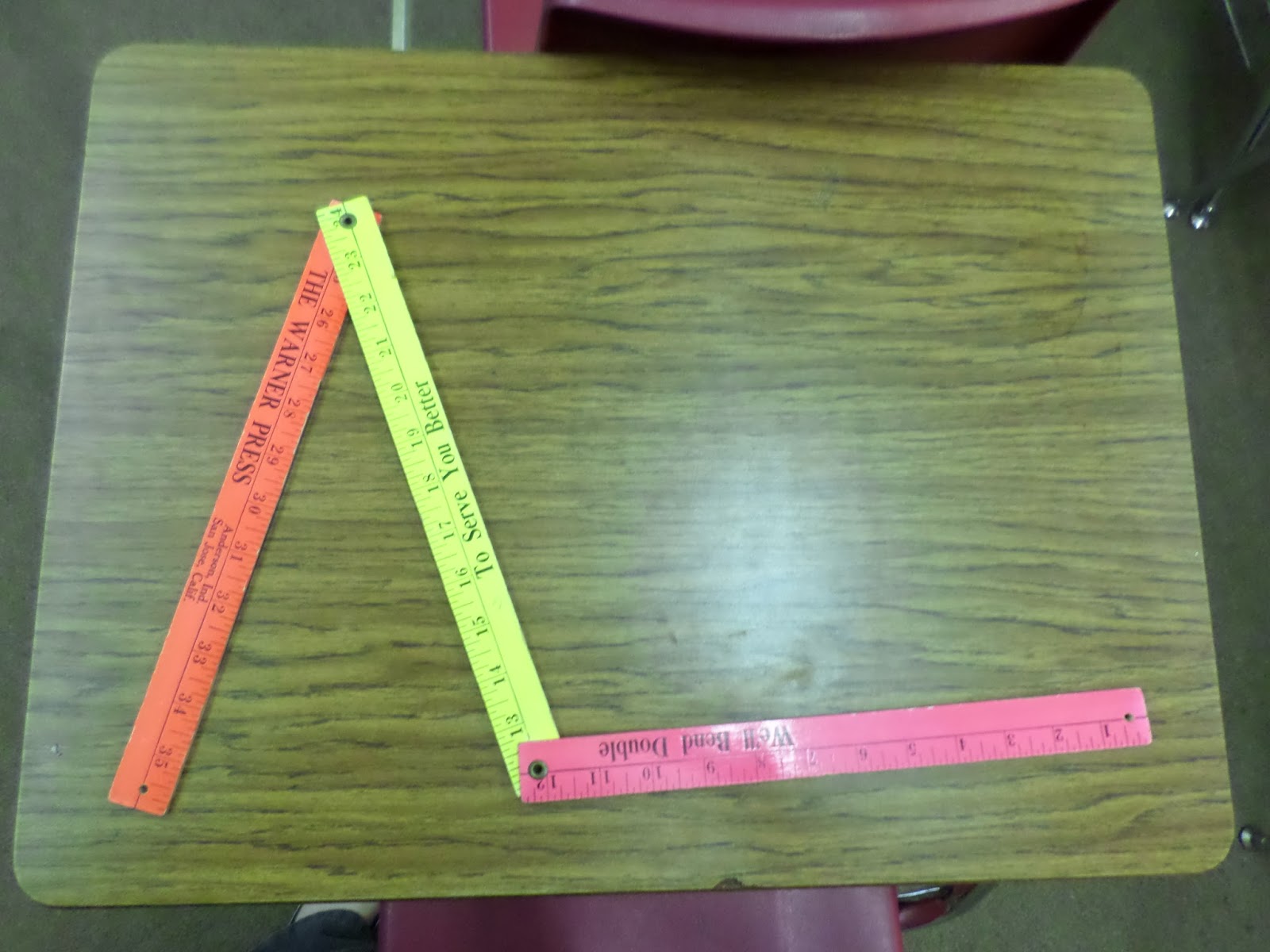
It ended up leading to a great conversation between two students because the part of the ruler that represents a positive slope looks like it represents a negative slope if looked at from the opposite side of the ruler. It depends on which side of the ruler you are facing, and some of my students failed to realize this.
I spent so much of my day saying things like:
Stop hitting each other with your rulers.
Please put your ruler down while we watch this video.
Your hands should not be touching your ruler.
Please stop balancing your ruler on your nose.
Look guys, I know I specifically said that your hands should not be touching your ruler. But, that does not mean it is okay for you to touch your hands to your pencil and then use your pencil to play with your ruler.
Some days, it seriously seems like I am teaching first grade
Then, one of my students lost his ruler. We had just finished watching our song over slope when one of my students announced that he couldn’t find his ruler. How does one even go about losing a ruler while sitting at their desk?!?
Other students quickly chimed in with advice for finding the missing ruler. Did you put it in your backpack? Is it in your notebook? Did it fall on the floor? Did you throw it behind the radiator? Did you put the ruler down your pants? (I promise. I can’t make this stuff up. It was Pajama Day, but I don’t know if that makes it any better or even worse. What’s even more alarming is that my student ran his hands up and down his legs to see if the ruler was in his pants.)
Finally, the ruler was found! Hallelujah! “Where was it?”, you ask. Well, he had found a way to wedge the ruler between the bottom of his desk and the pipes that are attached to the legs of the desk. Then, he had forgotten about putting his ruler there.
I present to you: the missing ruler. This missing ruler was such an ordeal that I insisted on taking a picture of it before moving on with class.
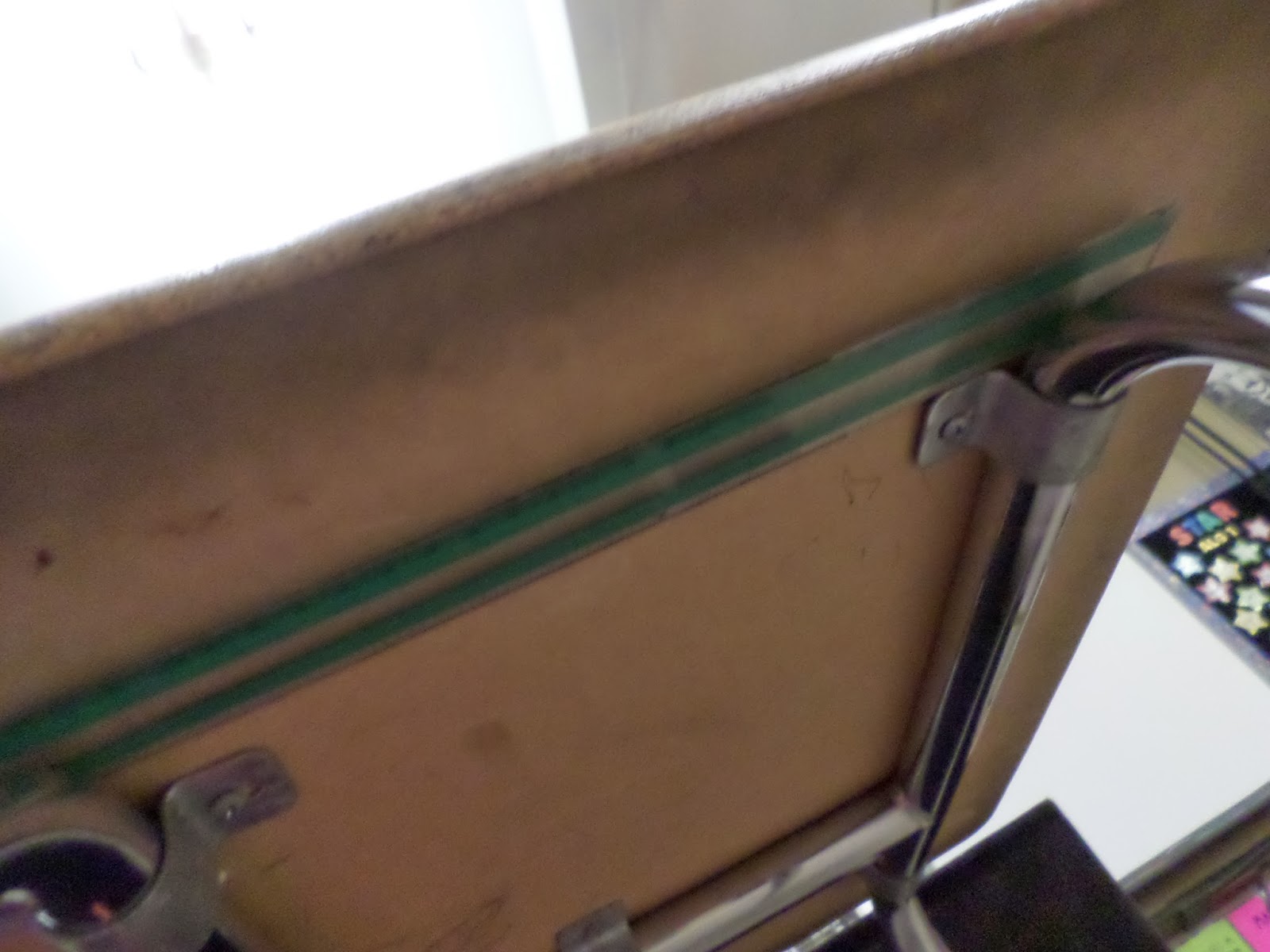
Lesson learned. Maybe I should pass out the rulers right before students need them. This will help avoid wasting class time AND maybe save my sanity! 🙂
February 12, 2014 – Basketball Homecoming 2014
Last week was Homecoming Week, and I’m so thankful it’s over! Most of the work of Homecoming is carried out by our cheerleading coach and her cheerleaders. But, there are a few responsibilities that fall on me as student council sponsor. Homecoming T-Shirts and Spirit Week.
I already blogged about Spirit Week. We ended up not celebrating Nerd Day due to a Snow Day. The days with the most participation were probably Pajama Day and Spirit Day. Very few students celebrated Crazy Hair Day.
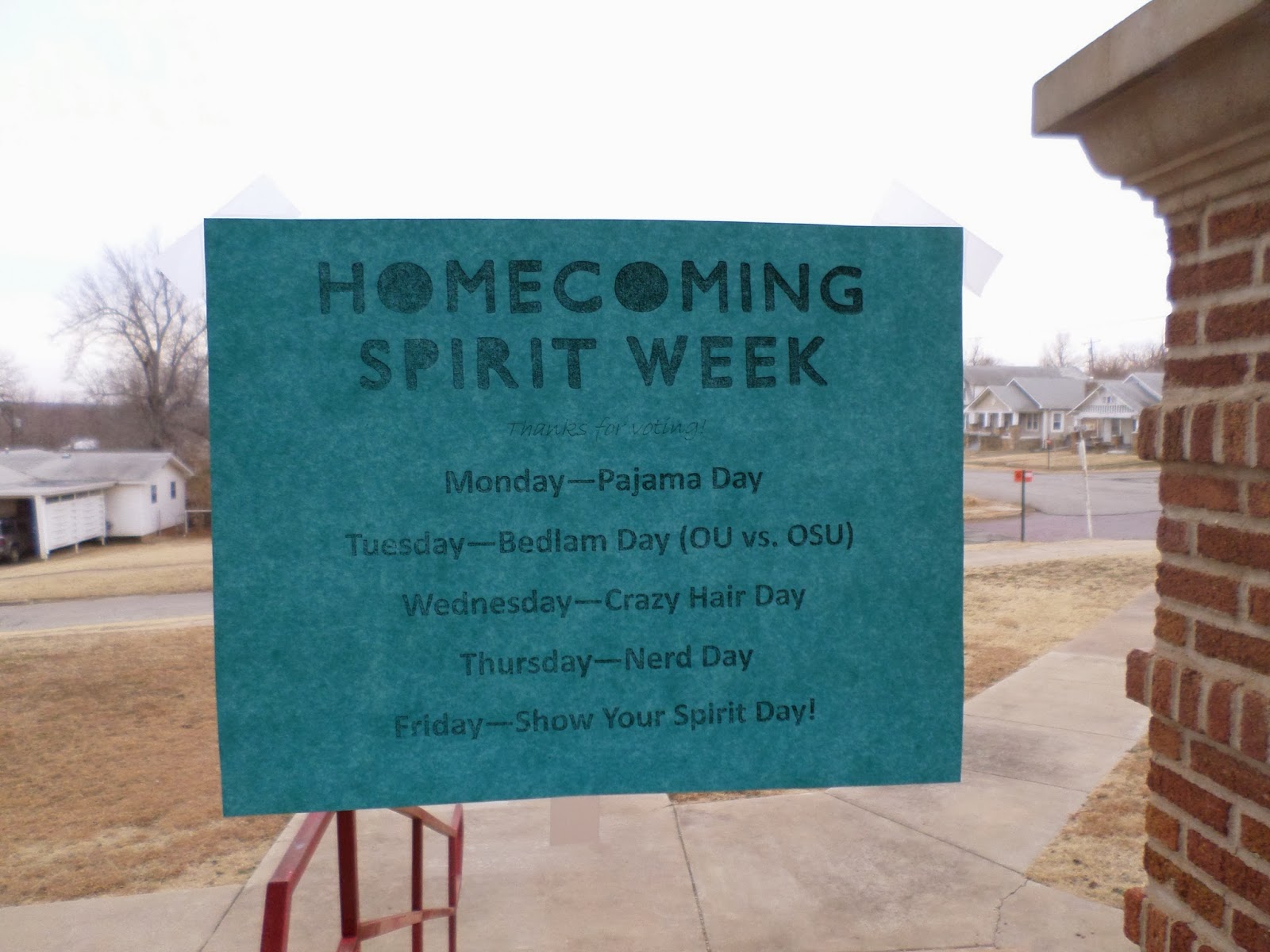
Homecoming T-Shirts are always one of the most stressful times of the year for me. It always seems like there is never enough time to get the shirts designed, make sure all the names are spelled correctly in the rosters on the back of the shirts, take orders, deliver the design to the screen printing company one town over, wait for the shirts to be printed, pick up the shirts, distribute the shirts, and make sure everybody pays me for the shirts. Homecoming shirts are the main fundraiser for Student Council. It’s a lot of work, but we usually make at least two hundred dollars.
Here is this year’s design for the front. (The back features the roster of the boys’ team, girls’ team, and the cheerleaders.)

The shirts were printed on Wednesday, and I was able to pick them up at lunch. I planned on distributing them on Thursday for Friday’s game. Well, Thursday was a snow day which meant I had to distribute them on the day of the game. Not fun!
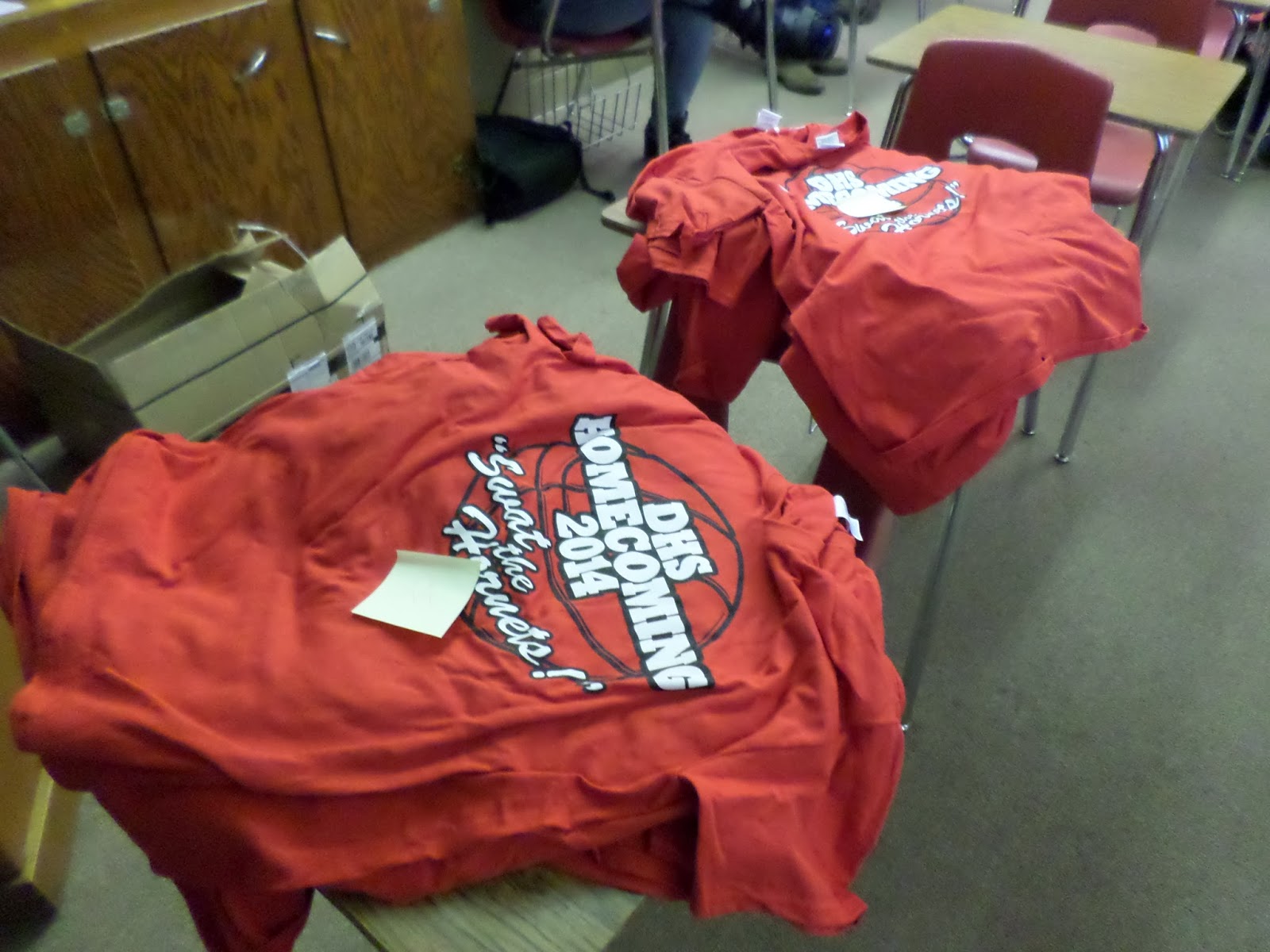
Friday, we had a Pep Assembly in the gym to get the students excited for Homecoming.
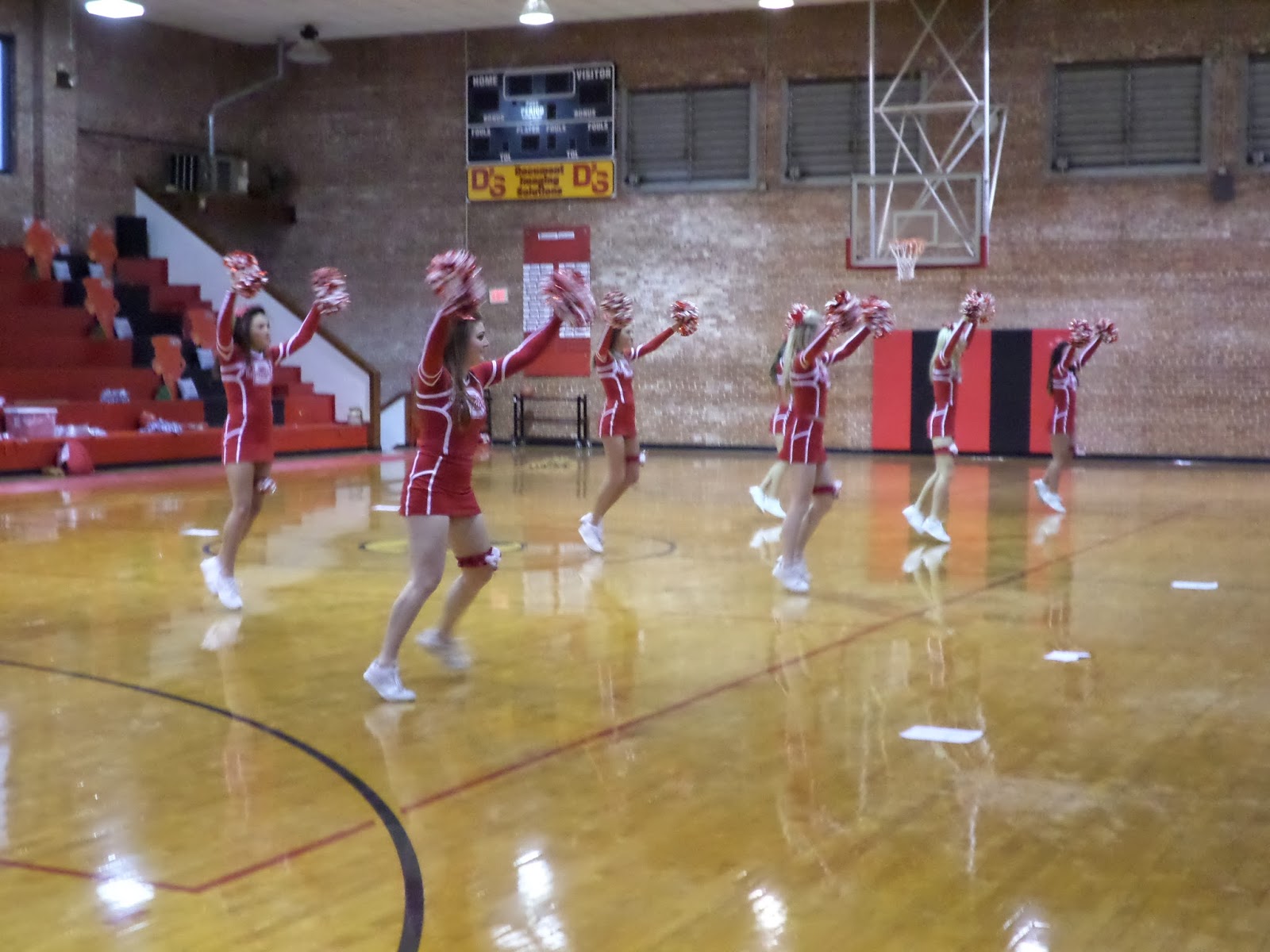
We also had a tug of war competition between the different grade levels. Freshmen competed against Juniors. Sophomores against Seniors. The winner of each ended up competing against each other. It ended up Freshmen (our largest class of almost 60) versus Seniors (our smallest class of under 30). Once the seniors figured out they could not win, they decided to all let go of the rope at once so the freshmen went tumbling backwards.
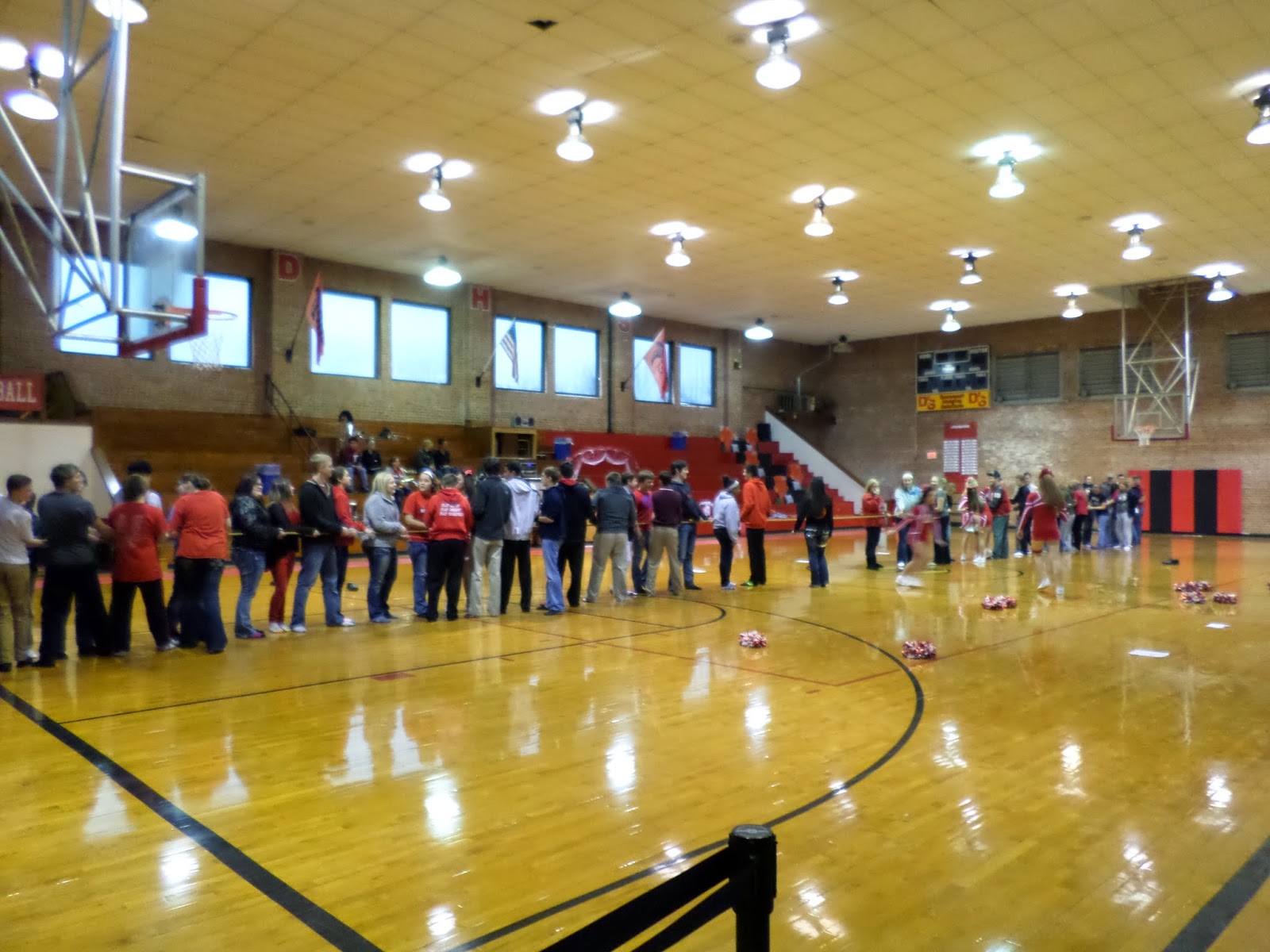
I decided I really should go to at least one basketball game this year. Last year, I went to a few football games and worked the concession stand at two basketball games. This year, I went to a few more football games and again worked the concession stand for two basketball games. Several of my students were part of the Homecoming Court, so I stayed for the Coronation and the first game of the night.
This was my FIRST EVER basketball game! (Working concession at a game doesn’t count because you can’t see the game from the concession stand…) Our boys ended up losing 24-54, but I had a lot of fun. Basketball is a lot easier for me to follow than football! I definitely want to make sure I check out more games next year!
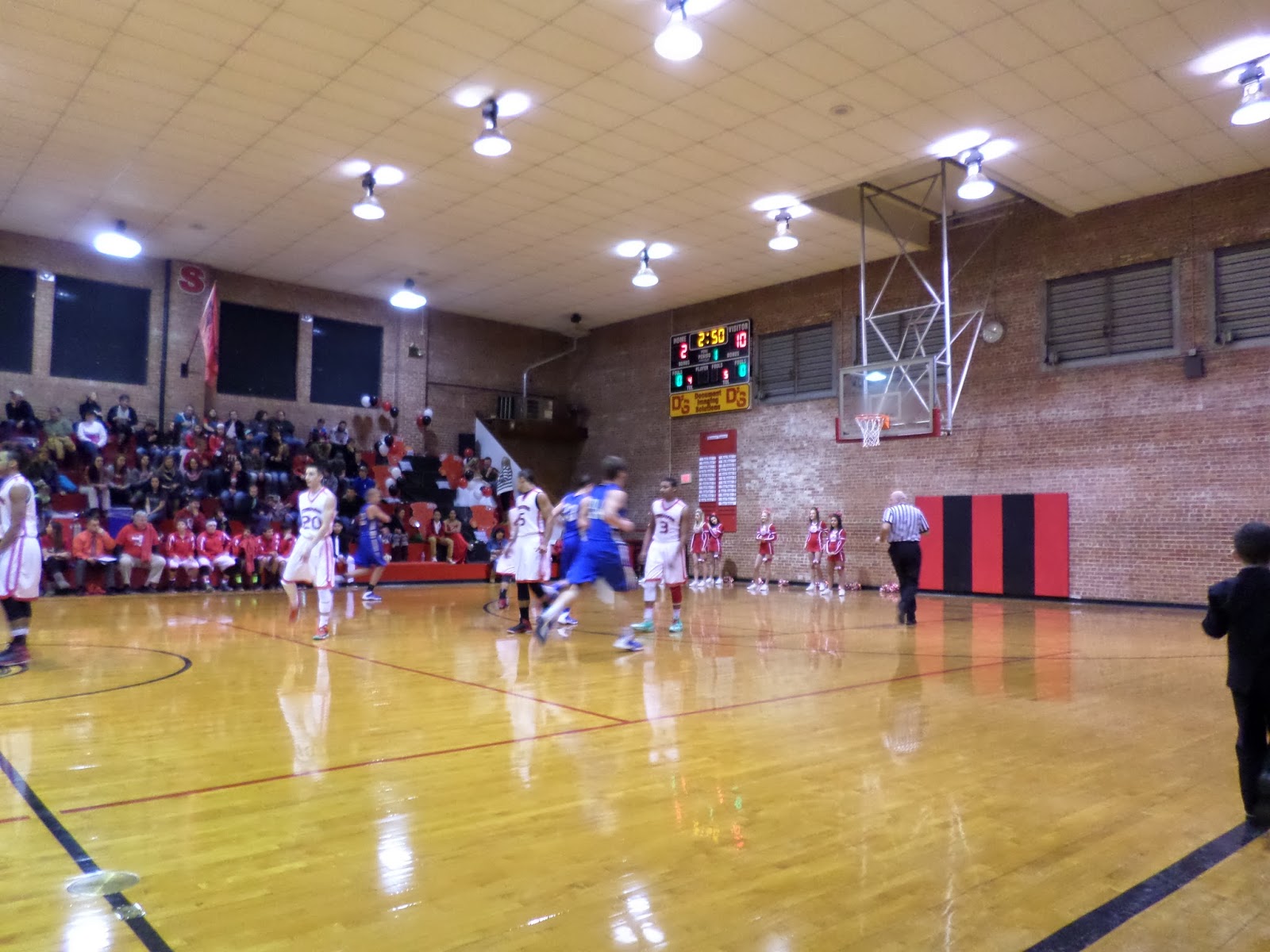
February 13, 2014 – What Were You Doing? Reflection Form for Classroom Management
I’m sharing a “What Were You Doing?” Reflection Form I use as part of my classroom management system.
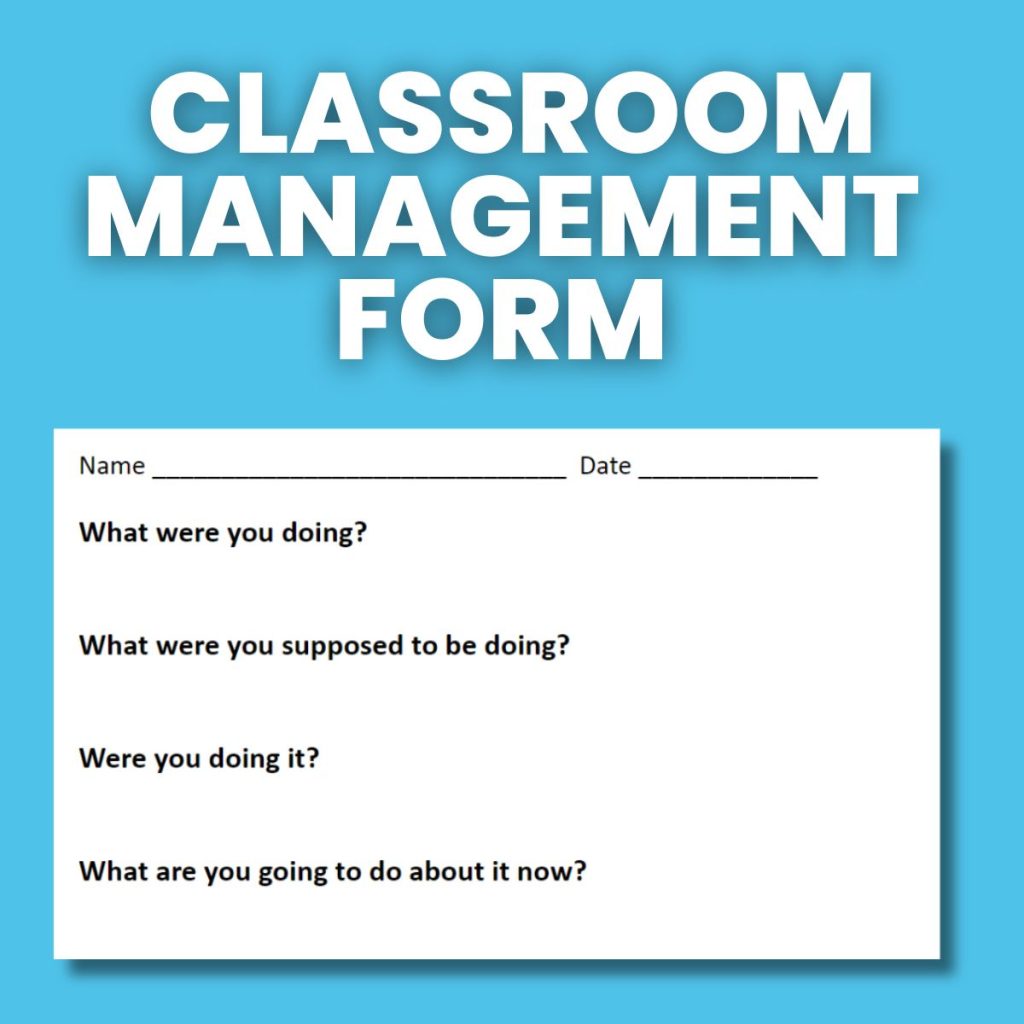
One of my New Year’s Resolutions for teaching was to demand respect from my students. I’m just tired of fighting and arguing with students over whether their behavior is appropriate or not. Now, when students disrespect me, I hand them a form to fill out and send them to the hall. After they have reflected on their actions and made a plan to move forward, they are free to come back in my classroom and get to work.
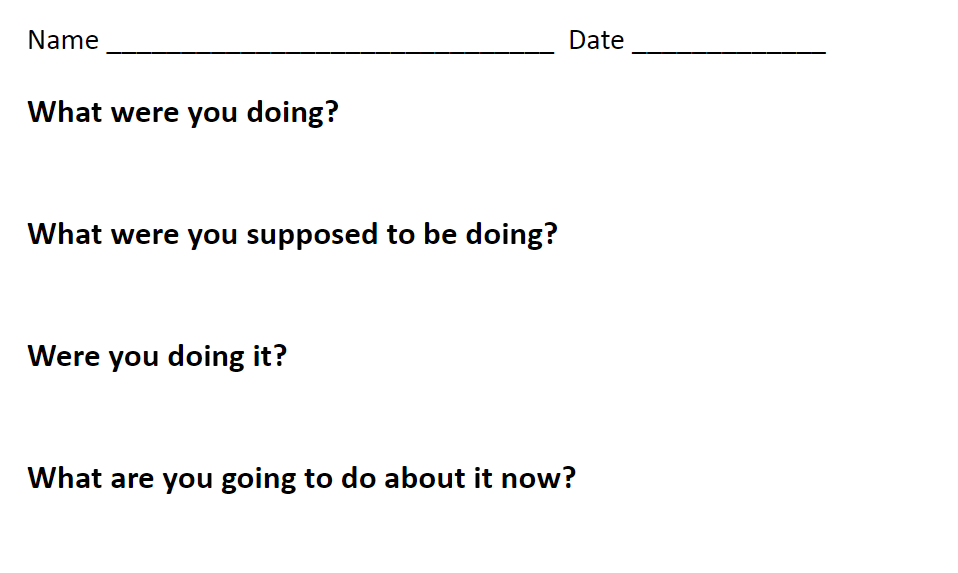
The other day, I got to flipping through these forms, and I decided they needed to be shared! I tried to order these from funniest to most mundane. I have a few habitually tardy students, and I’ve started making them fill out a form every time they are tardy. If you look at these closely, you should notice the same handwriting repeated over and over.
I saw a picture on another blog of a teacher who also used forms that students had to fill out. She kept these on a clipboard by the door. And, there was a pen attached to the clipboard. I think that’s a brilliant idea, and I definitely plan on implementing that next year. That will free up space on my desk, and I won’t have to worry if students have a writing utensil or not!
What I like about these is that it gives me the student’s side of the story in their own handwriting. Come time for parent teacher conferences, I will be able to pull these out if students ask me how their child has been behaving. Then, it will be the child telling their parents about their behavior instead of me telling the parents about their child’s behavior.
What Were You Doing Form
Click here to SAVE the file to your device.
What Were You Doing Form (PDF)
2409 saves – 99.19 KB
Want more classroom forms?
My Experiences
(Originally Published January 23, 2014)
I’ve been reflecting on my new semester resolutions. I wrote about my resolutions here. And, I’ve already posted about confiscating cell phones and timing my students like their lives depended on it.
To refresh your memory, here are my resolutions as I presented them to my students on the first day of our second semester.
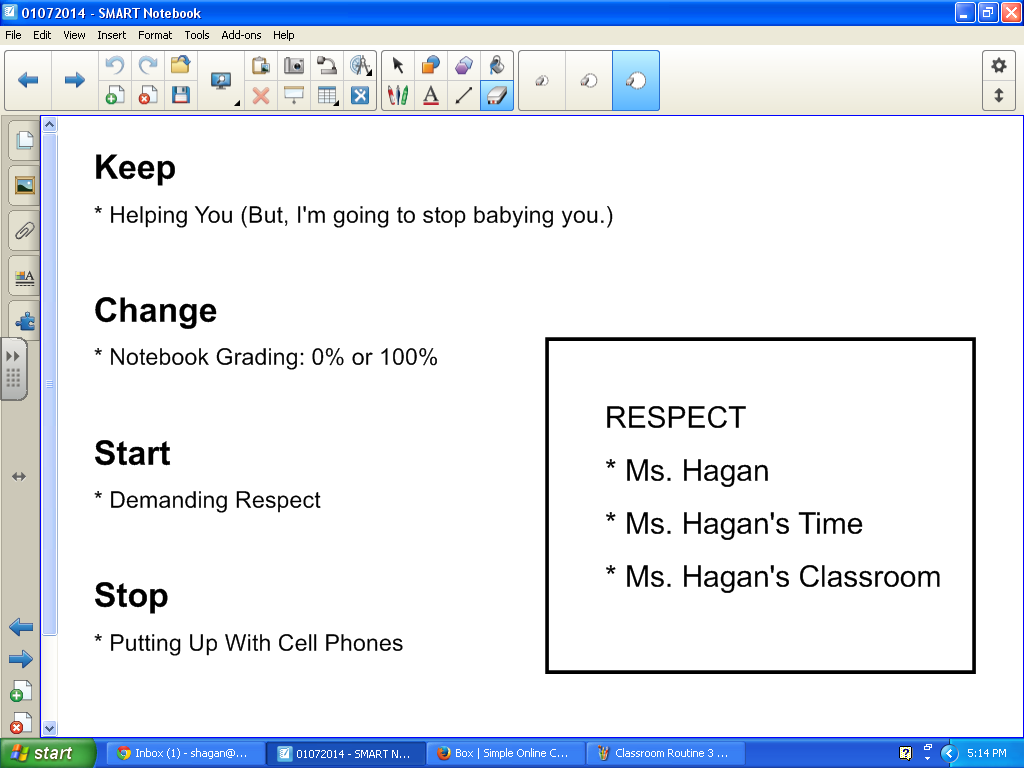
Our first week back, I kept a sort of diary regarding my experiences with carrying out these resolutions in my classroom. Enjoy!
So, I told my students today about my Keep/Change/Start/Stop Resolutions. I let them fill out their reflection forms first. Then, I told them of the changes I was going to make. They were less than excited. They immediately wanted their reflection forms back so they could tell me that they didn’t like my changes. Others questioned why I asked them for feedback if I was going to decide what changes to make on my own anyway.
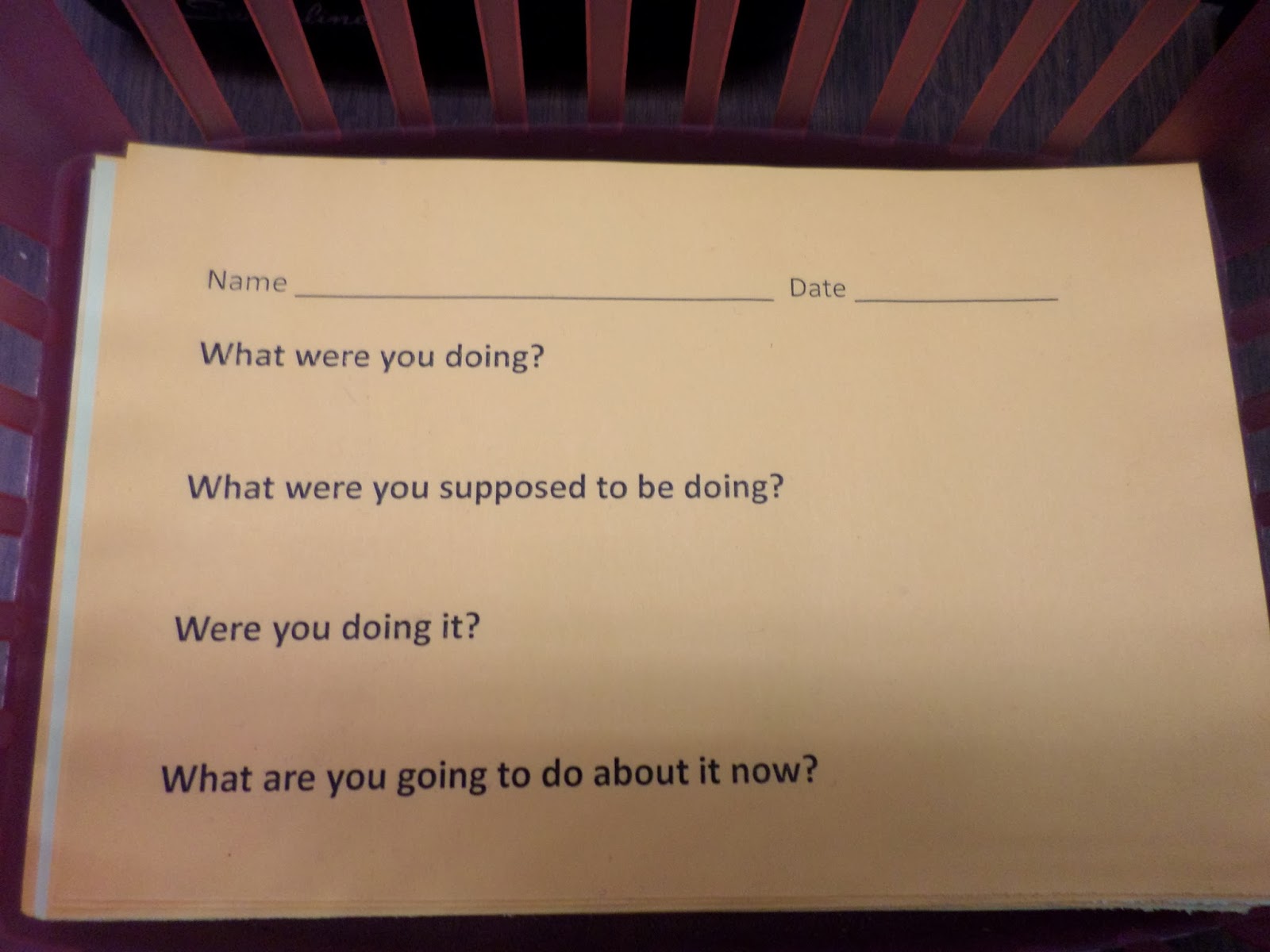
Day 1
I only handed out one Respect Form today. One of my students who is notorious for talking at the wrong time (and spends a lot of time out in the hall) was talking when I was trying to talk. I hadn’t
explained the form to my students. I just asked him to stand up, grab his pencil, and fill out the form I was going to hand him. When he was done, he was to return to the classroom, put the form in my tray, and get back to work.
He wasn’t gone very long. His answers:
What were you doing? Being stupid
What were you supposed to be doing? Taking notes
Were you doing it? Yes
What are you going to do about it now? Shut up and do my work
I like the process. I didn’t argue with the student. He had an opportunity to tell his side of the story. He was taking notes. But, he was also given the opportunity to own up for his actions. He
wrote out his plan of action. And, that’s something I can hold my students to. If a student continues to misbehave/disrespect me, then I can show them in their own handwriting what they should be doing. I can also show their parents what the students told me they were going to do (in their own handwriting) if the misbehavior persists!
Quote of the Day: “I don’t think I like the new Ms. Hagan.”
Day 2
Today, I gave students a “friendly reminder” about my new cell phone policy right as the bell rang and class began. I also posted a reminder on the dry erase board. I didn’t see ANY phones until
6th hour. I felt kinda bad for taking the student’s phone because I could tell that he really was “just checking the time.” But, a rule is a rule. And, if I’m not consistent, my students are going to run right over me. I took his phone. And, I called and left a message for his parents. I’m not making the parents come up to retrieve the phone (yet) because that seems like such a hassle.
One of my students today said that their new year’s resolution is to make me decide to stop enforcing my new year’s resolutions.
My Algebra 2 classes are still chatty when I’m trying to teach, and it’s driving me CRAZY. I haven’t handed out the 4 question forms that I made for disrespect because I would have to hand it to like half the class. But, tomorrow I just may. If I make an example of a few students, then the rest should see just how serious I am and fall in line.
I need to just stop letting my students get to me. I don’t know if I’m worried about hurting their feelings or what? Why is it so hard for me to discipline my students? I’m just too nice of a person,
or something.
A coworker suggested once that I consider getting my master’s in Educational Administration. I just don’t think I would make a very good disciplinarian in a school setting if I can’t control my students in my very own classroom. Plus, there’s the fact that I can’t picture myself ever leaving the classroom at this point in time. I think my heart is with students in the classroom.
I think things are going better. But, maybe this is just another honey moon period like we had at the very beginning of the school year. I have got to become tougher. I’ve got to grow tougher skin.
Day 3
I think my students are definitely noticing a change in me.
Students asked me several questions today:
“Did you maybe decide to stop taking your medicine over Christmas Break? Because you’ve been different ever since we came back.”
“Did your meth lab get busted?”
Yeah. I don’t quite have a response for these questions. Either my students think that my former classroom management style was a result of drugs or…
Day 4
Apparently, my taking cell phones away has become a topic of conversation in other classes. They try to know the names of all the people represented by a tally on my board.
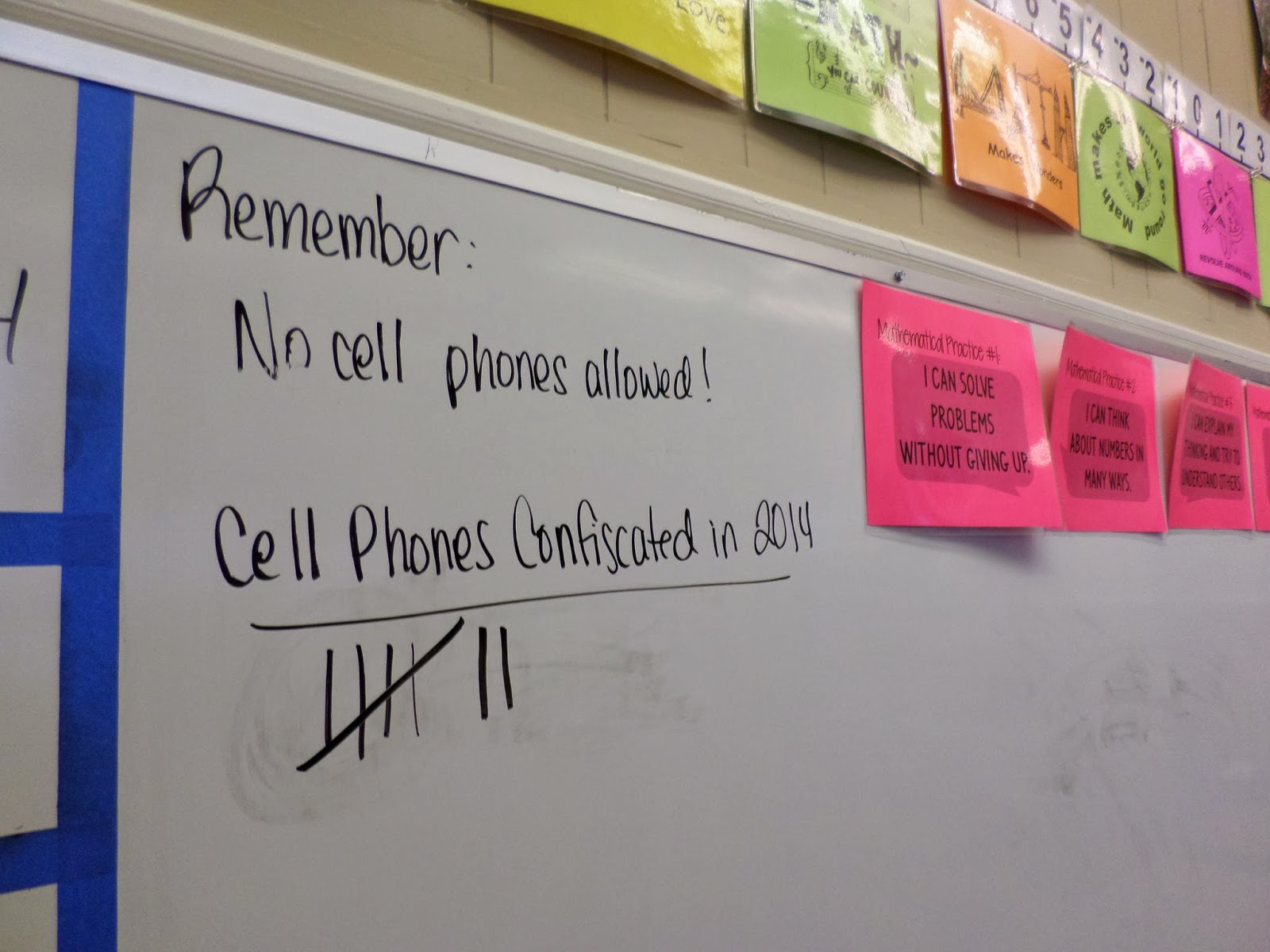
I wish I had gotten more serious about cell phones sooner. I think that my looking the other way when students had cell phones out caused a lot of my problems. After all, if I will look the other way regarding cell phones, students probably assumed that I would look the other way regarding other rules.
I’ve still got to get tougher. This is a good start. But, I’m still letting my Algebra 2 classes walk all over me. My Algebra 1 classes have fell in line, for the most part. I would fully expect it to be the other way around. Hmm…
Example Student Responses to What Were You Doing Form
If you wonder why I sometimes doubt that I actually teach high school, this is why…
What were you doing? Being Stupid.
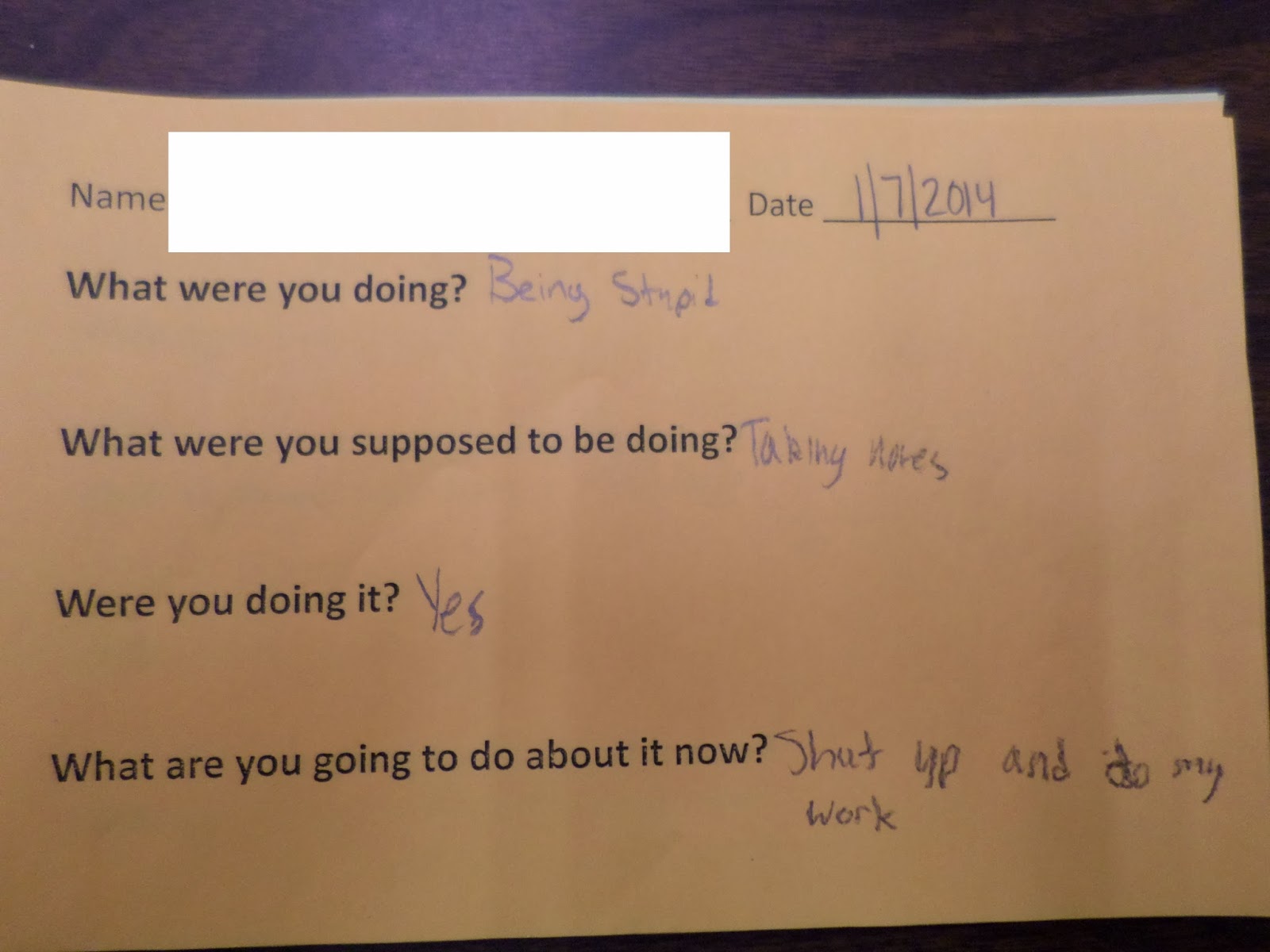
What were you doing? Hitting my chest.
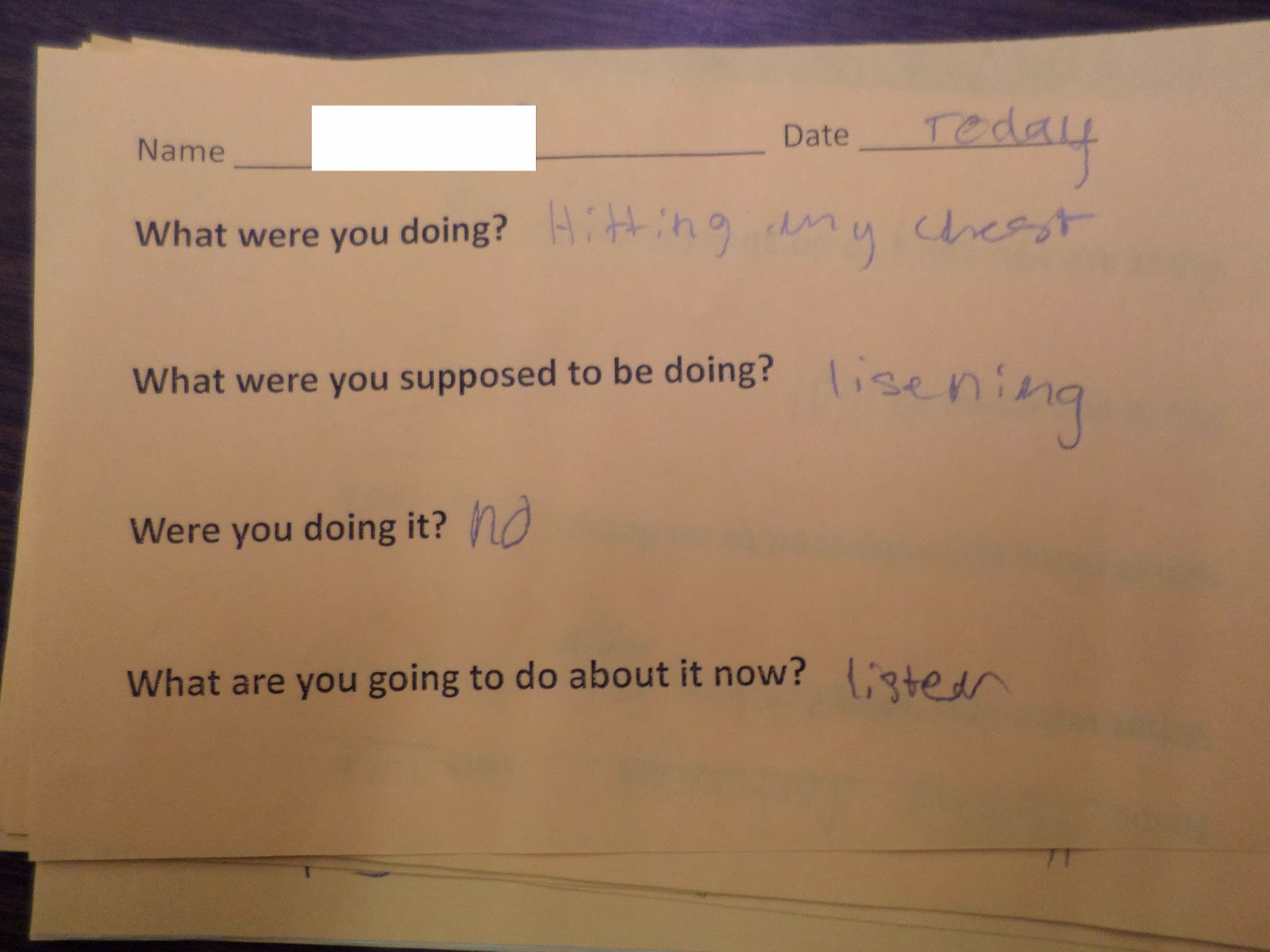
What were you supposed to be doing? “Sorting awsome cards that the best math teacher prepared for are Algebra II class.”
Were you doing it? “Beside [another student] my best friend.”
What are you going to do about it now? “I will go back to class and strive to be a better student to contribute to the nations economy.”
This student was so mad at me when I would not read his reflection form immediately upon his return. I placed it on my desk to look at later. He really wanted me to read it aloud to the class. The whole idea of these forms is that it takes away the audience. Reading this form to my class would give my student an audience for his disrespectful behavior. The awesome cards he is speaking of are Cindy Johnson’s Conic Cards. Of course, he was sitting and doing nothing instead of sorting the cards. That’s the reason he got sent out in the hall. And, I think he must have thought the third question was “Where were you doing it?” instead of “Were you doing it?”
The next day, he again asked me if I had read what he had written on his form. I told him that I had. I also told him that I had spoken to his mother about it. Again, I refused to share his form with his classmates. After this refusal, he pulled his cell phone out to show the class a picture of the form he had taken before turning it in. This led to me confiscating his cell phone and having ANOTHER conversation with his mother!
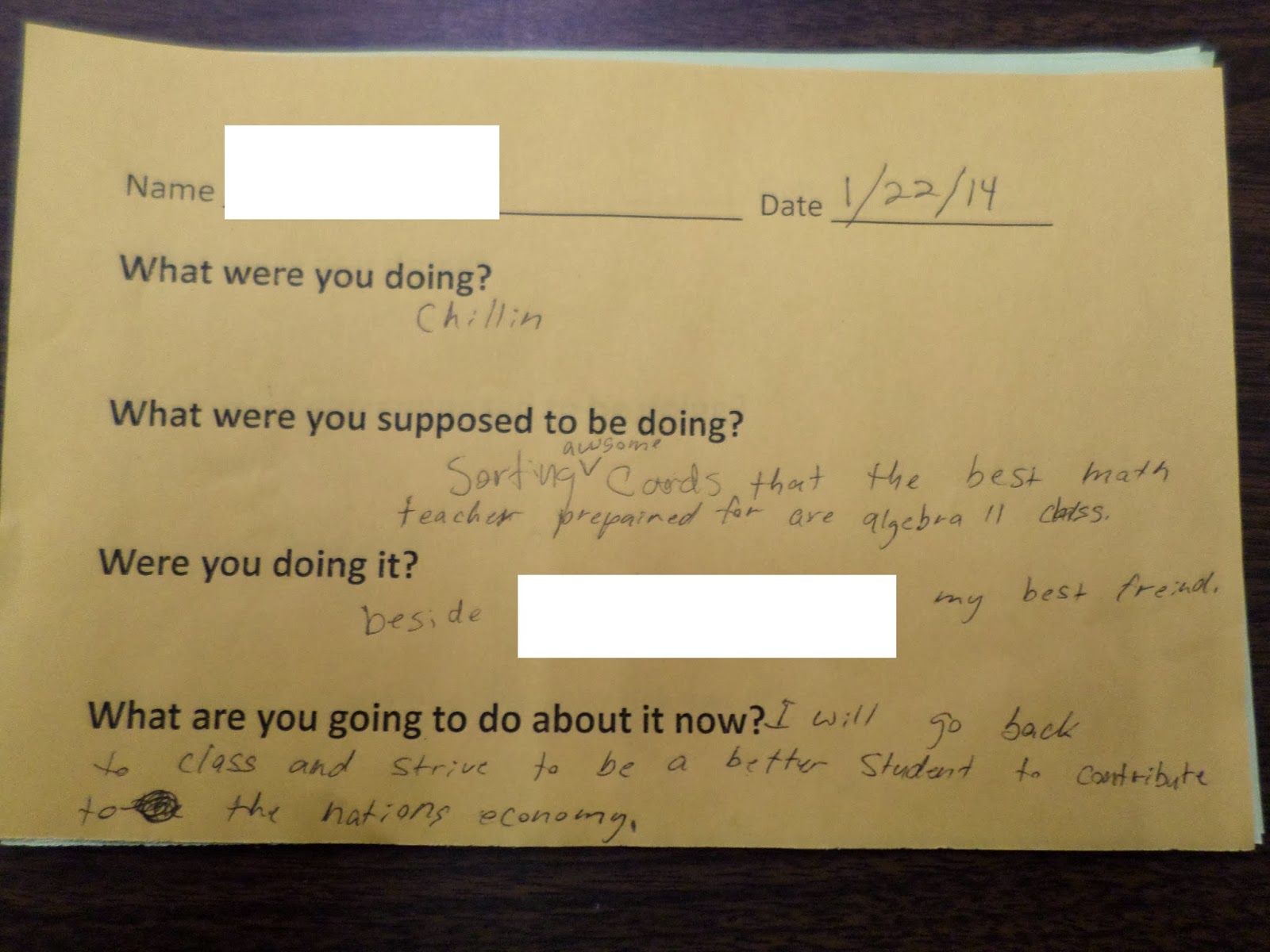
What were you doing? “Puttin Elmers Shool Glue on [Another Student.]
I cannot make this stuff up, guys. I seriously have some students with maturity issues. We are in high school. Under no circumstances should you be squirting glue on the back of the person’s head in front of you.
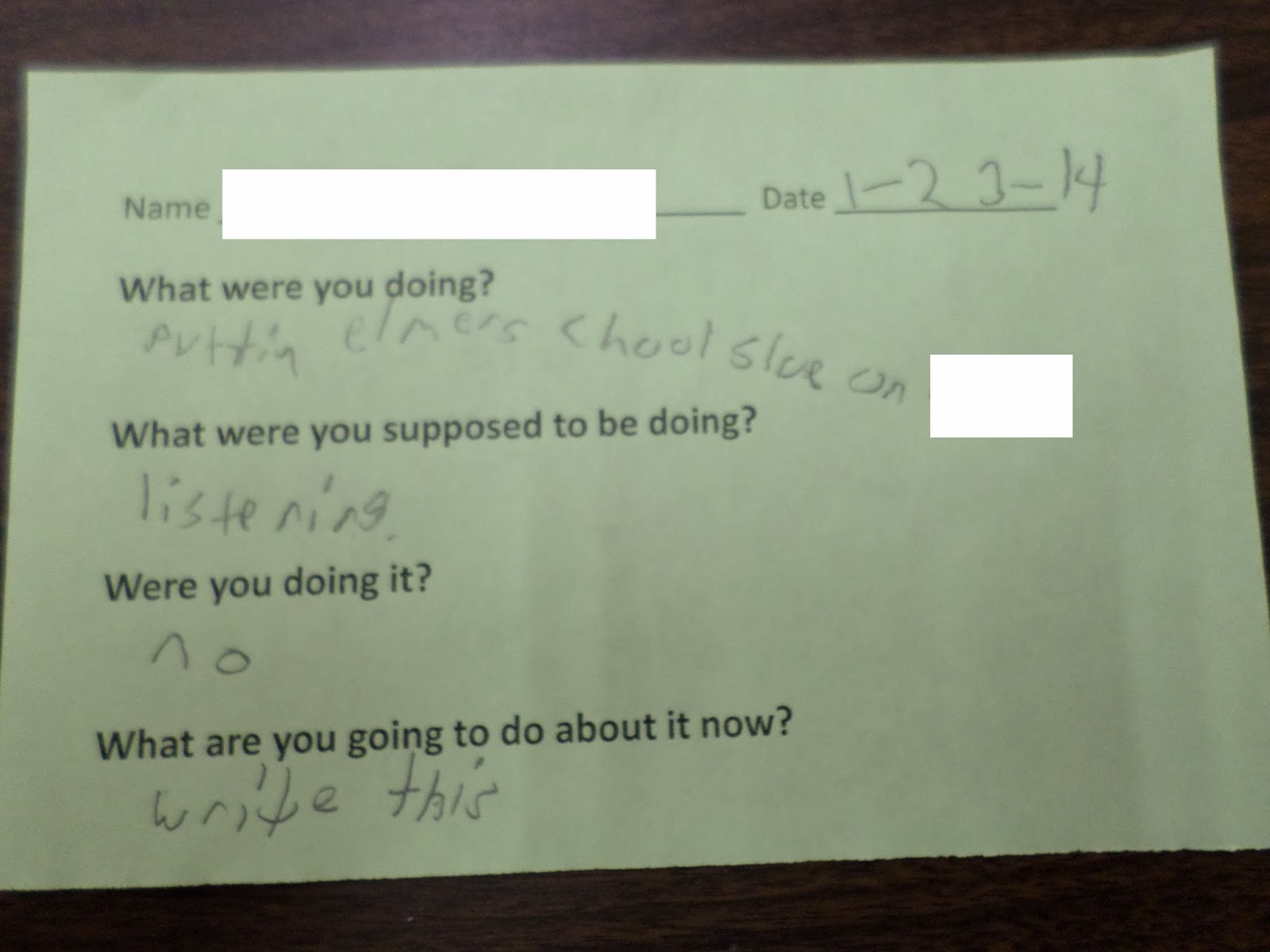
What were you doing? Singing Math Songs
I have no problem with singing math songs. We sing lots of them in my classroom. But, a problem arises when you break out into song while I am trying to explain something at the front of the classroom.
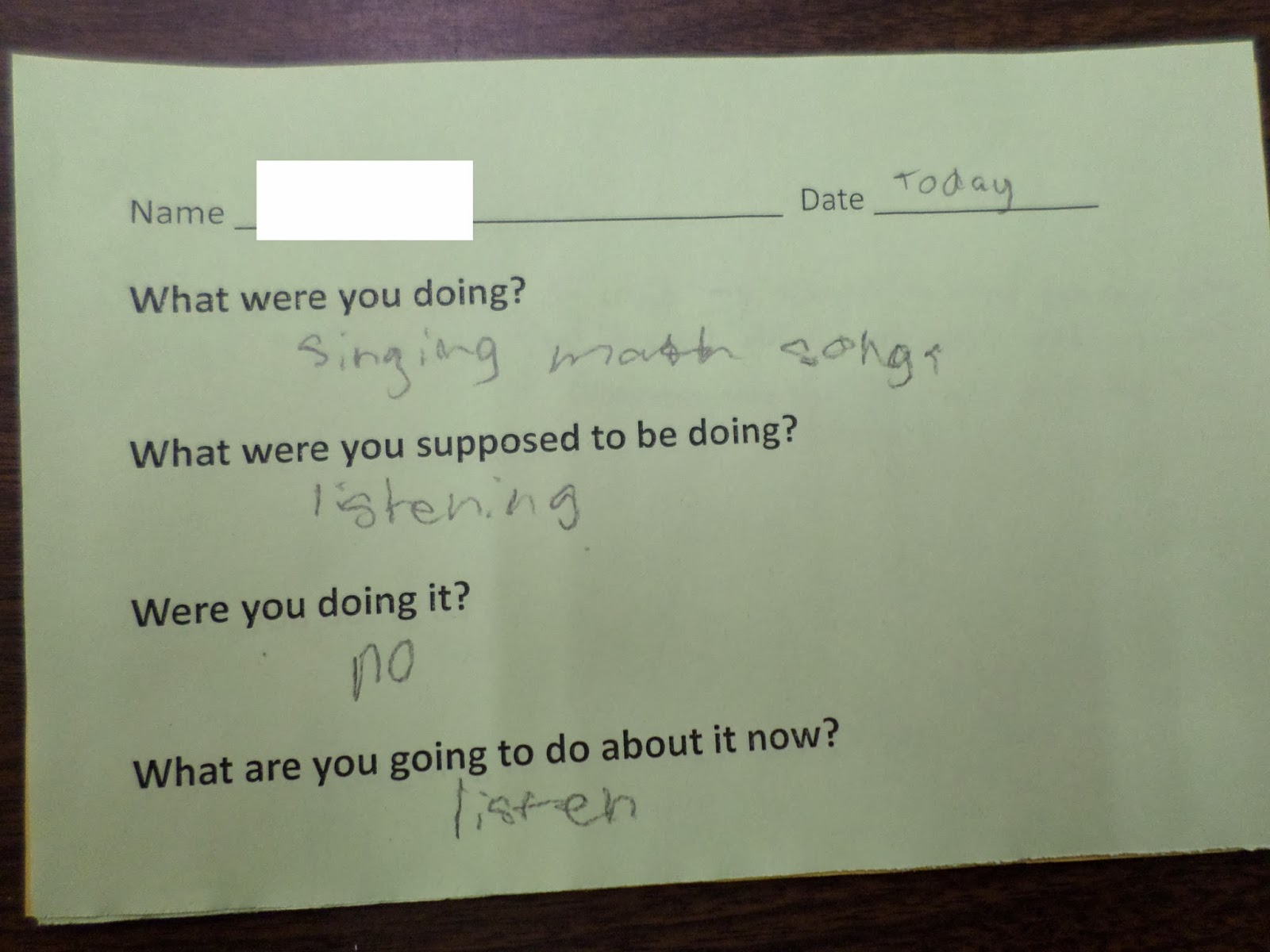
What were you doing? “I used my scissors to cut [another student’s] glue and it went off of his desk and it went Ooooooooooooooooooooohhhhhhhhhhh and hit the floor LOL.”
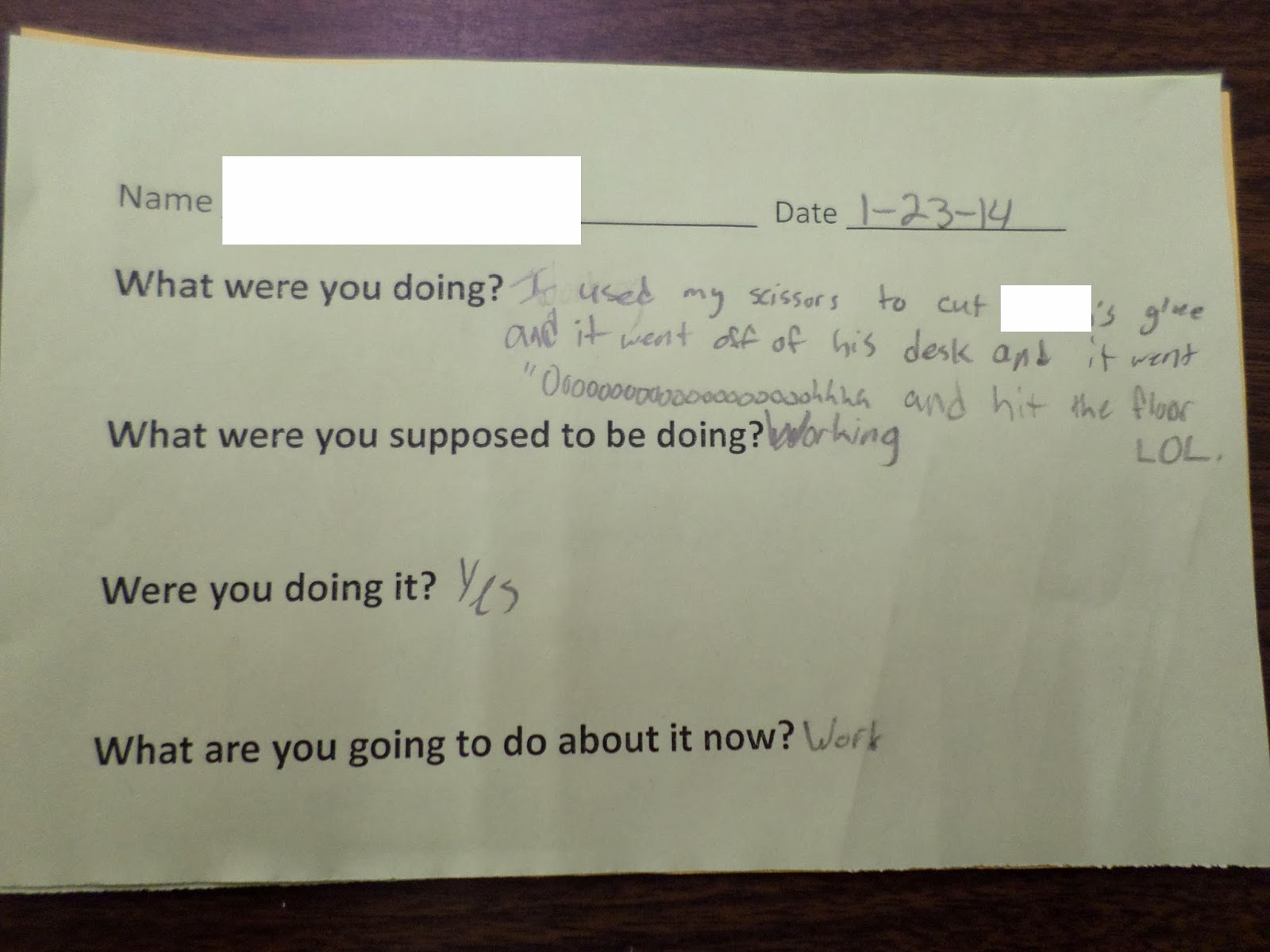
This next form is stapled to my bulletin board. It was not filled out by a student in trouble. Instead, it was filled out by one of my top students who comes in sometimes during her free period to work on making her interactive notebook a true work of art. She decided to fill this out as a joke.
What were you doing? “Sitting quietly, loving math”
What are you going to do about it now? “Love math because it makes people cry.”
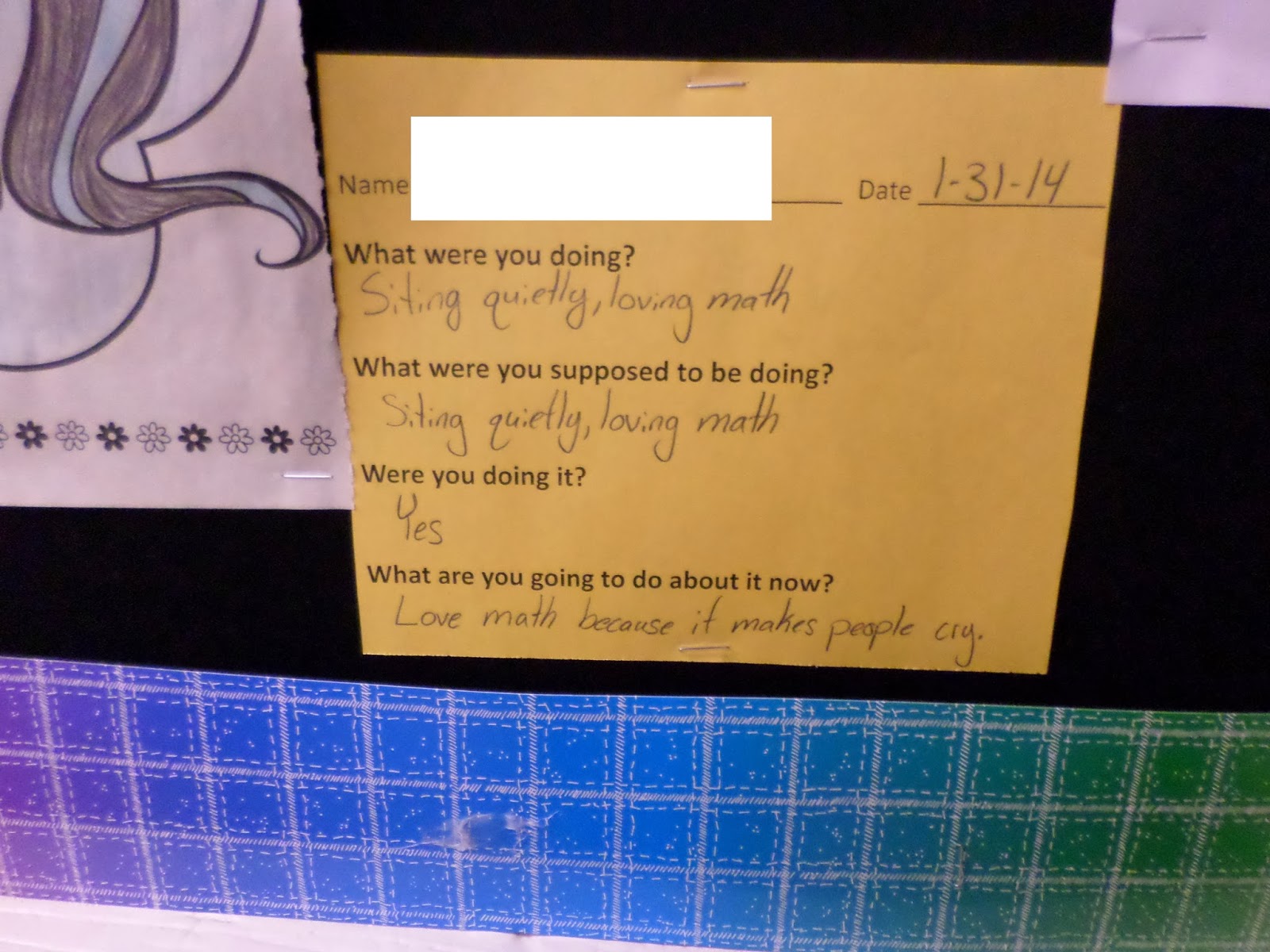
What were you doing? “Singing my favorite song”
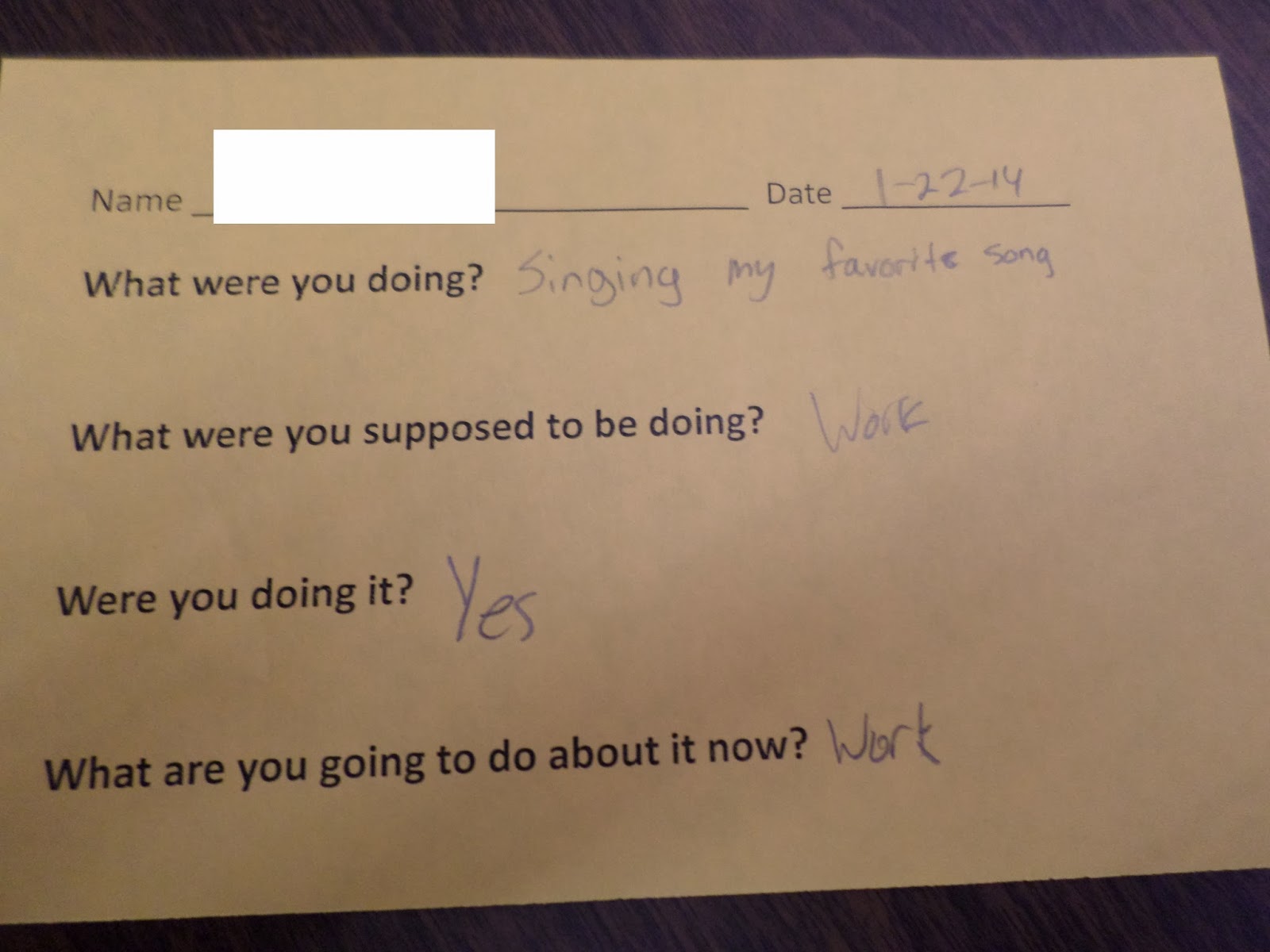
The rest of the forms are below. I don’t want you to think that all of the answers I get are noteworthy. Many of these below are for tardies. You will notice that some students (like above) will write a lot, and some students will do the bare minimum amount of writing
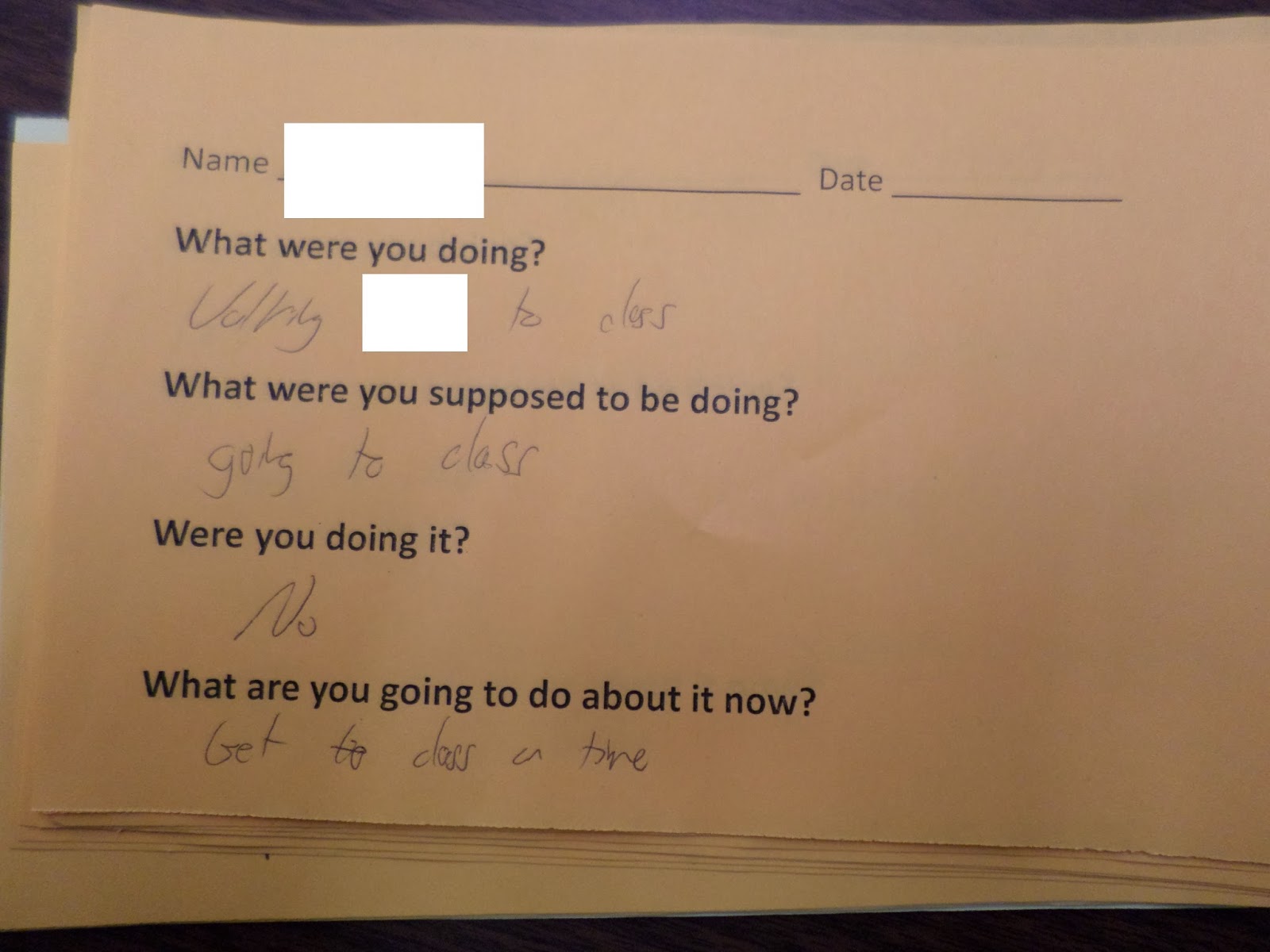
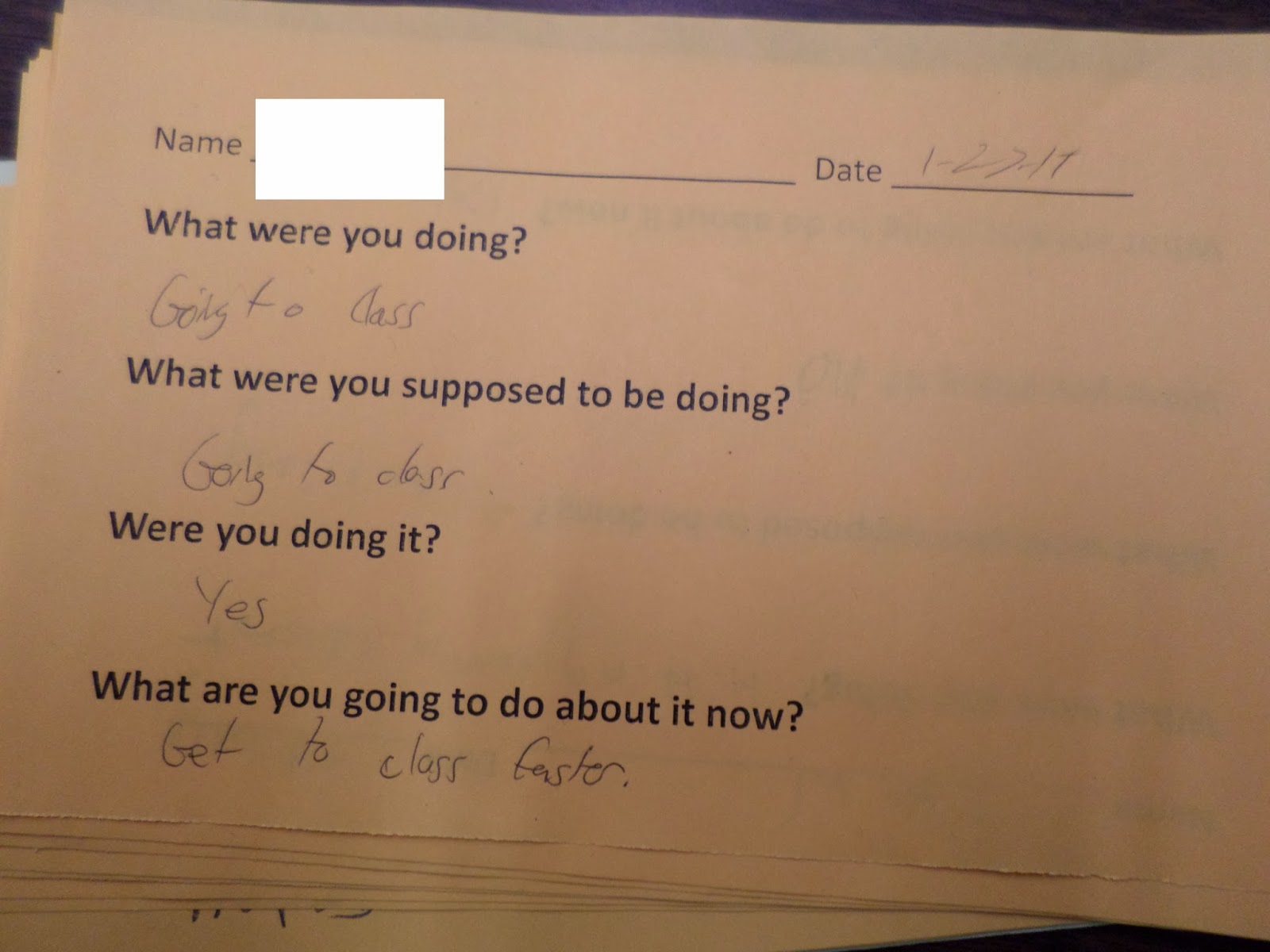
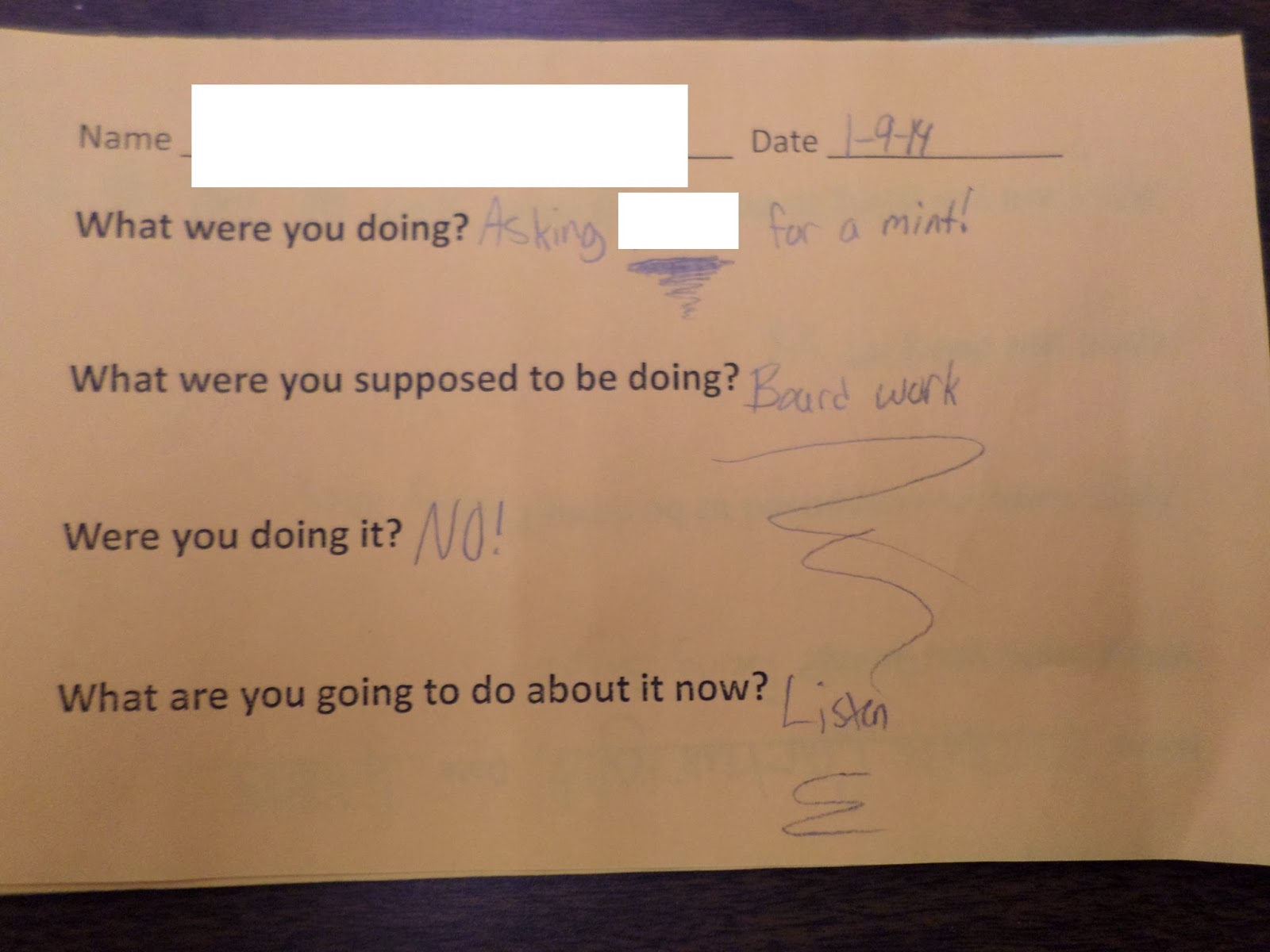
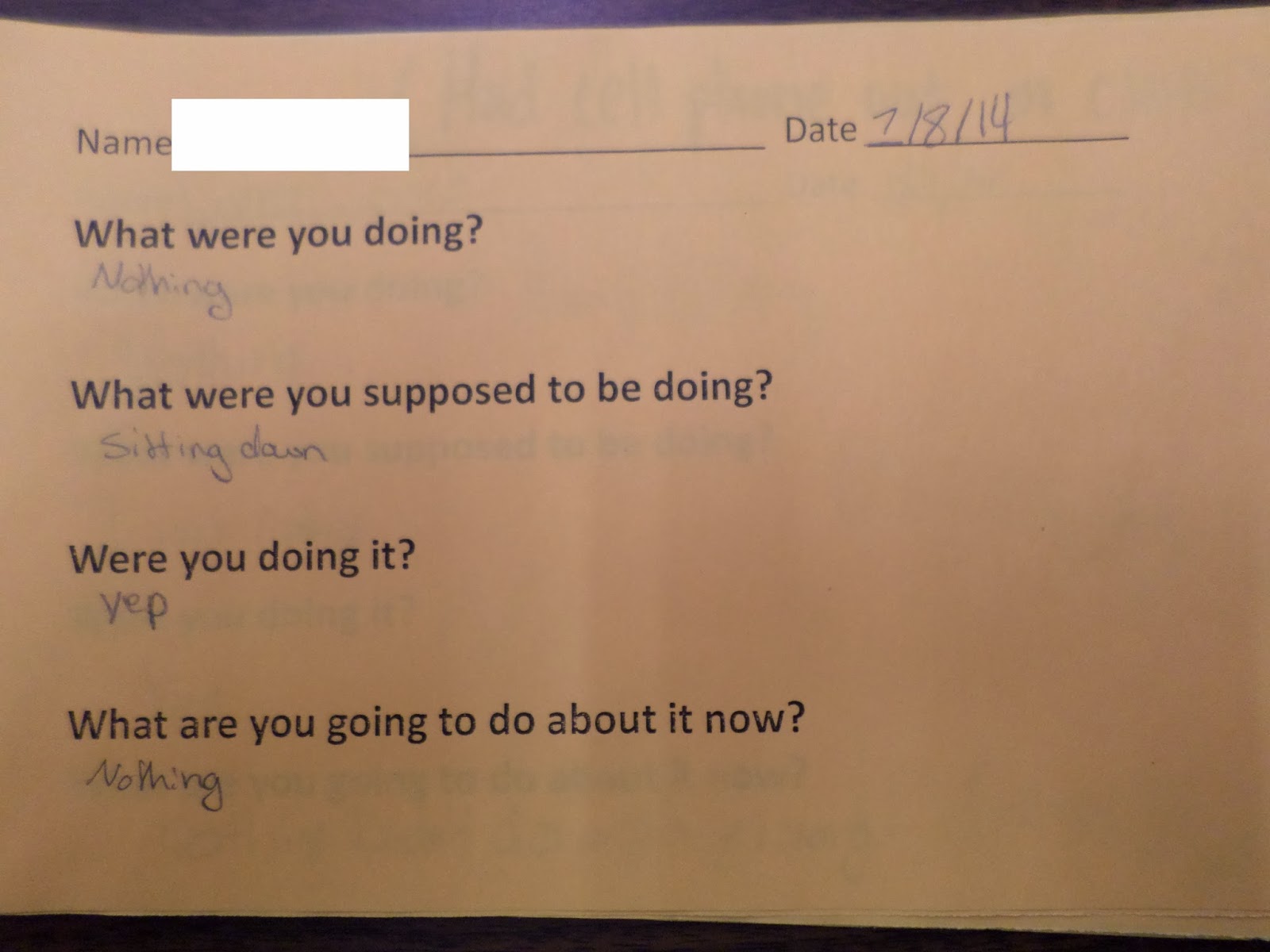
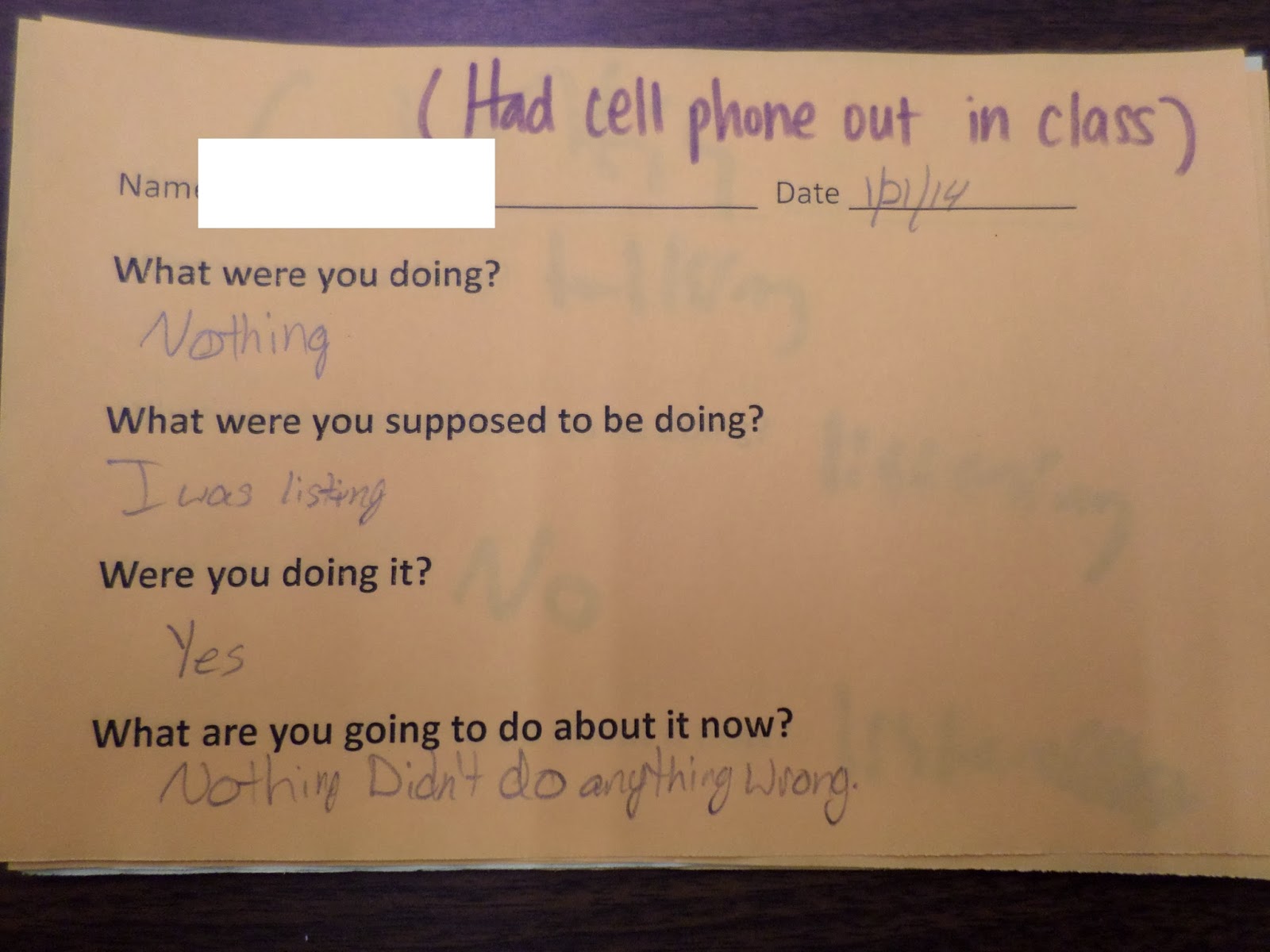
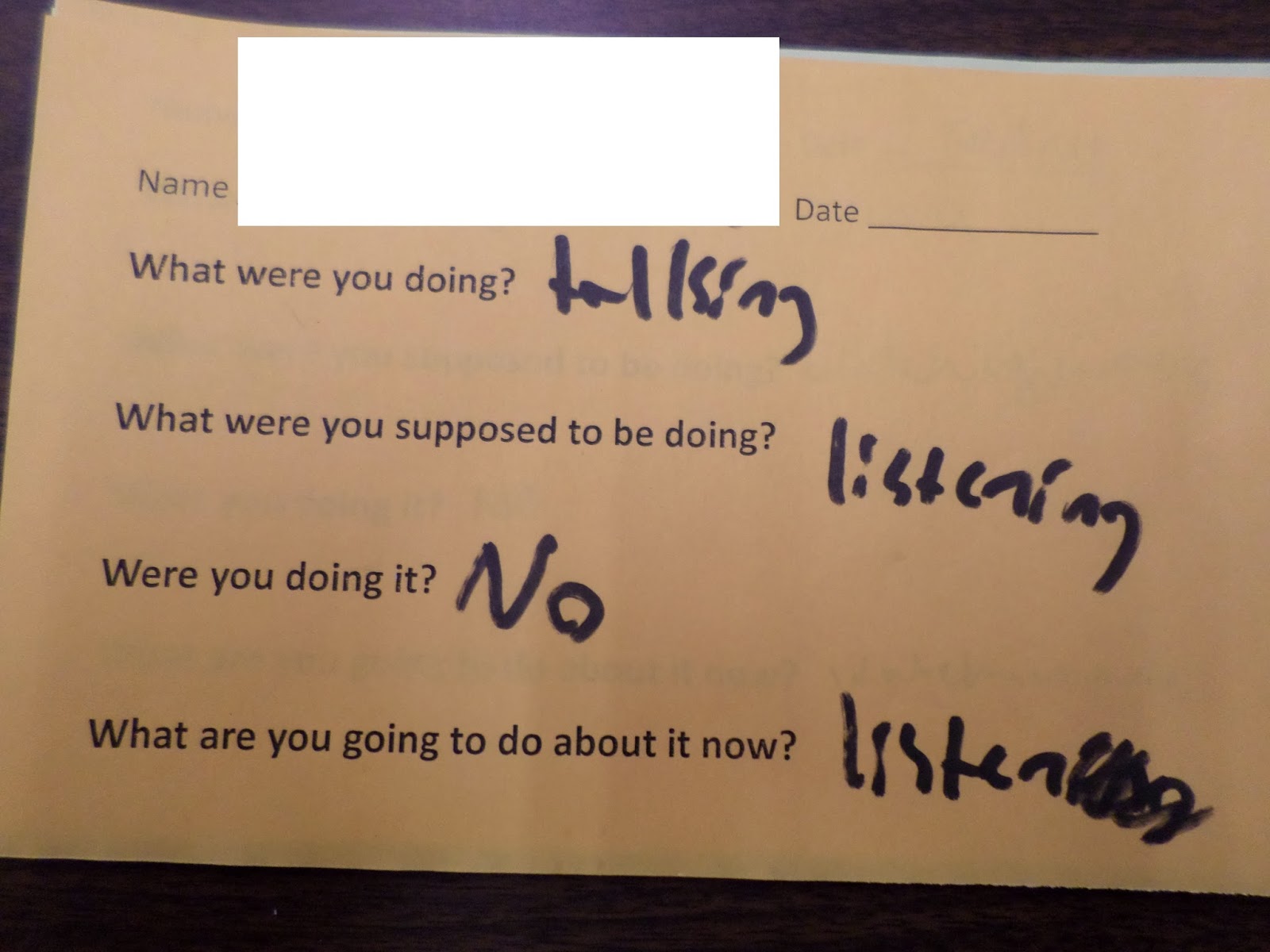
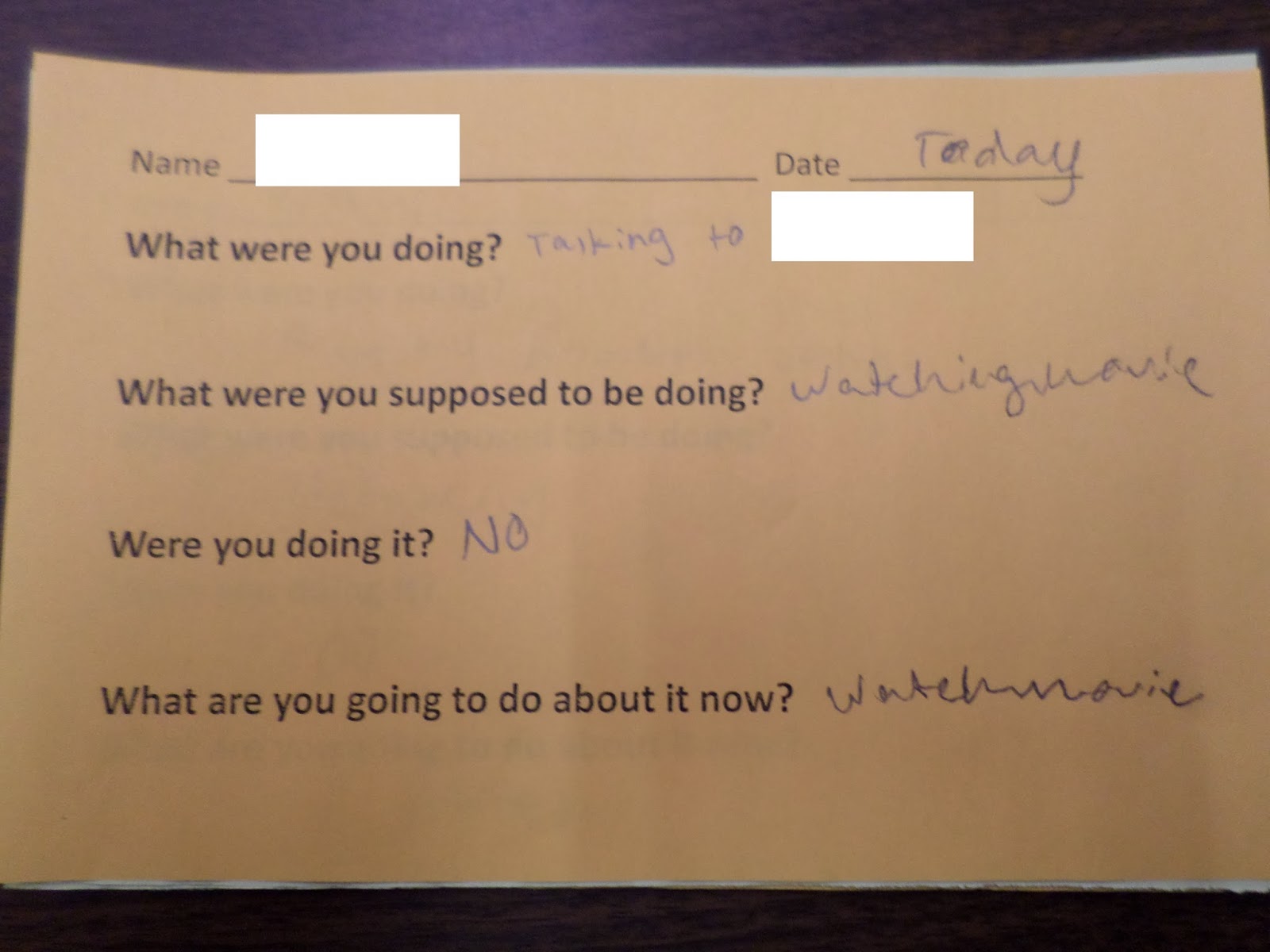
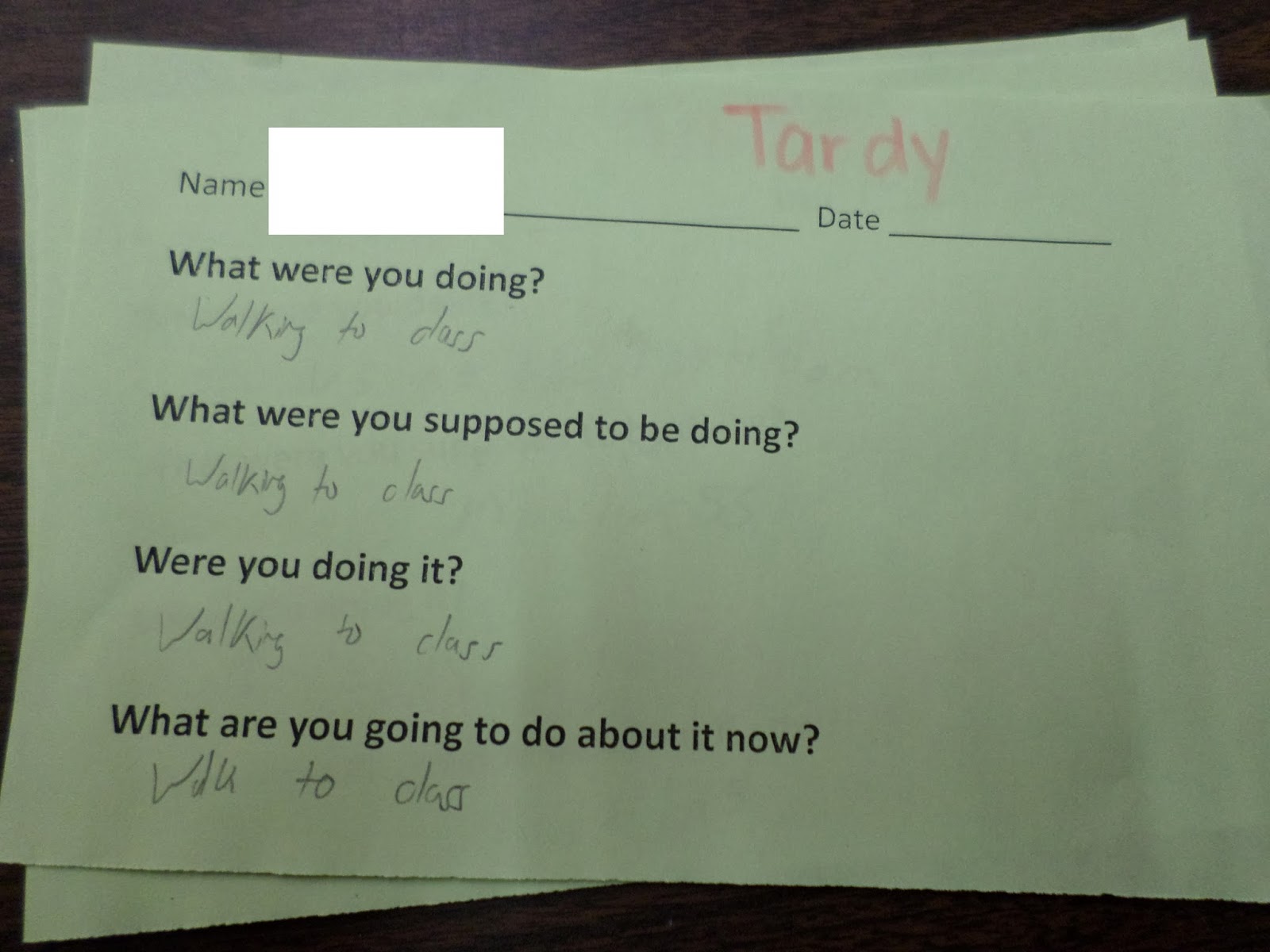
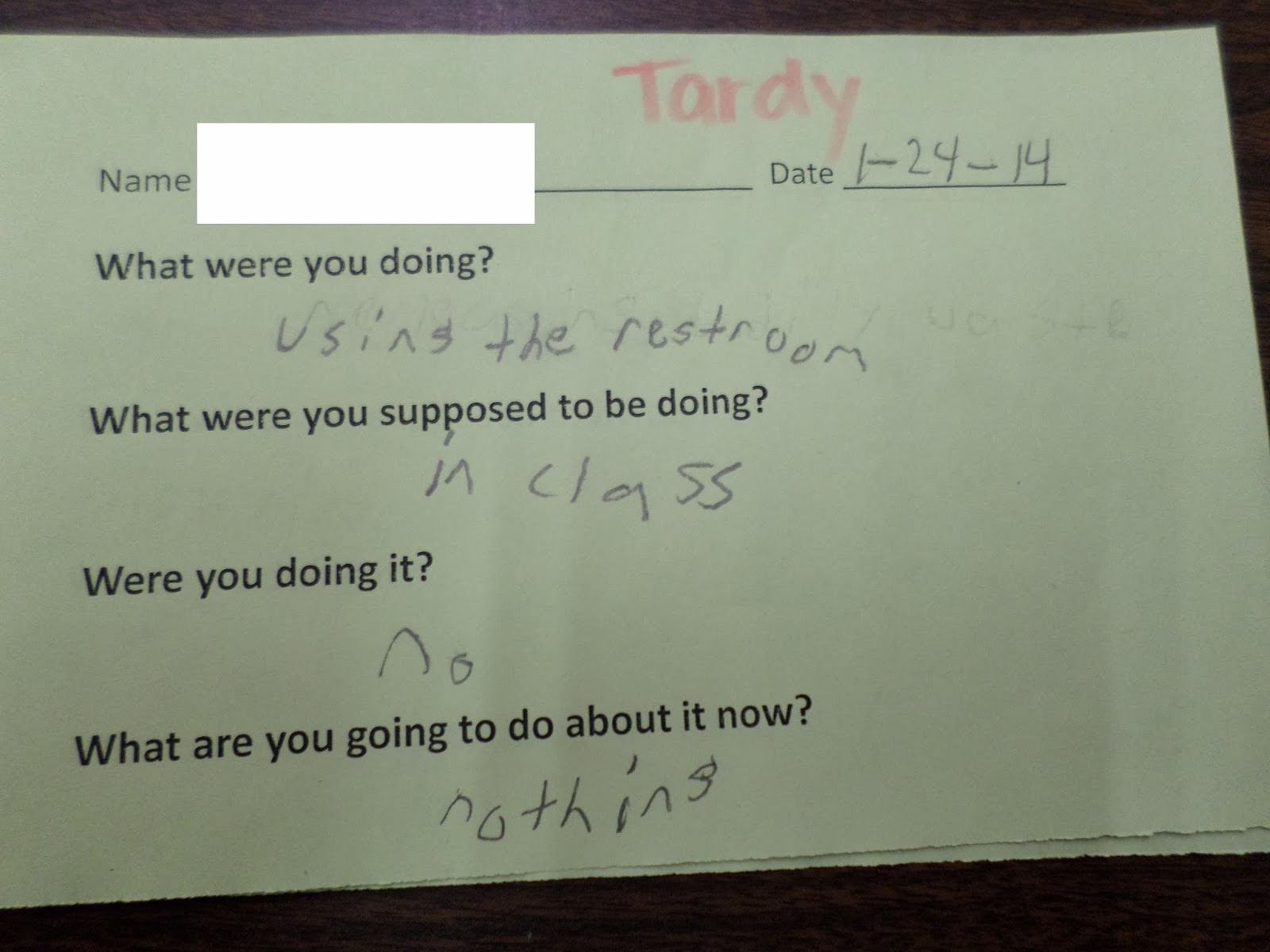
February 14, 2014 – Valentine’s Day
Well, I had big plans for today. I planned to show you the Valentine’s cards that I made for my students. But, plans are just that. Today was a reminder that life just doesn’t always go as planned.
I woke up at midnight, feeling terrible. Nausea. Vomiting. It wasn’t a pretty sight. I went back to bed, only to wake up an hour later with more of the same. A few hours later, I was up again.
So, this morning, I did something I’ve never done before. I called in sick. I hate, hate, hate missing school. But, I figured that I would be doing myself and everybody around me a disservice by going into work when I had a fever and was throwing up.
After spending most of the day asleep, I am feeling better! Luckily, I still have a three-day weekend to get over whatever this is. I’m really hoping it’s just a 24-hour stomach bug.
I probably jinxed myself because I was just congratulating myself earlier this week on having an awesome immune system. I hadn’t been sick once all year.
So, on Tuesday, I will share pictures of my Valentine’s cards. Better late than never, right? Until then, I’ll leave you with a picture of some hearts I found in my classroom yesterday.
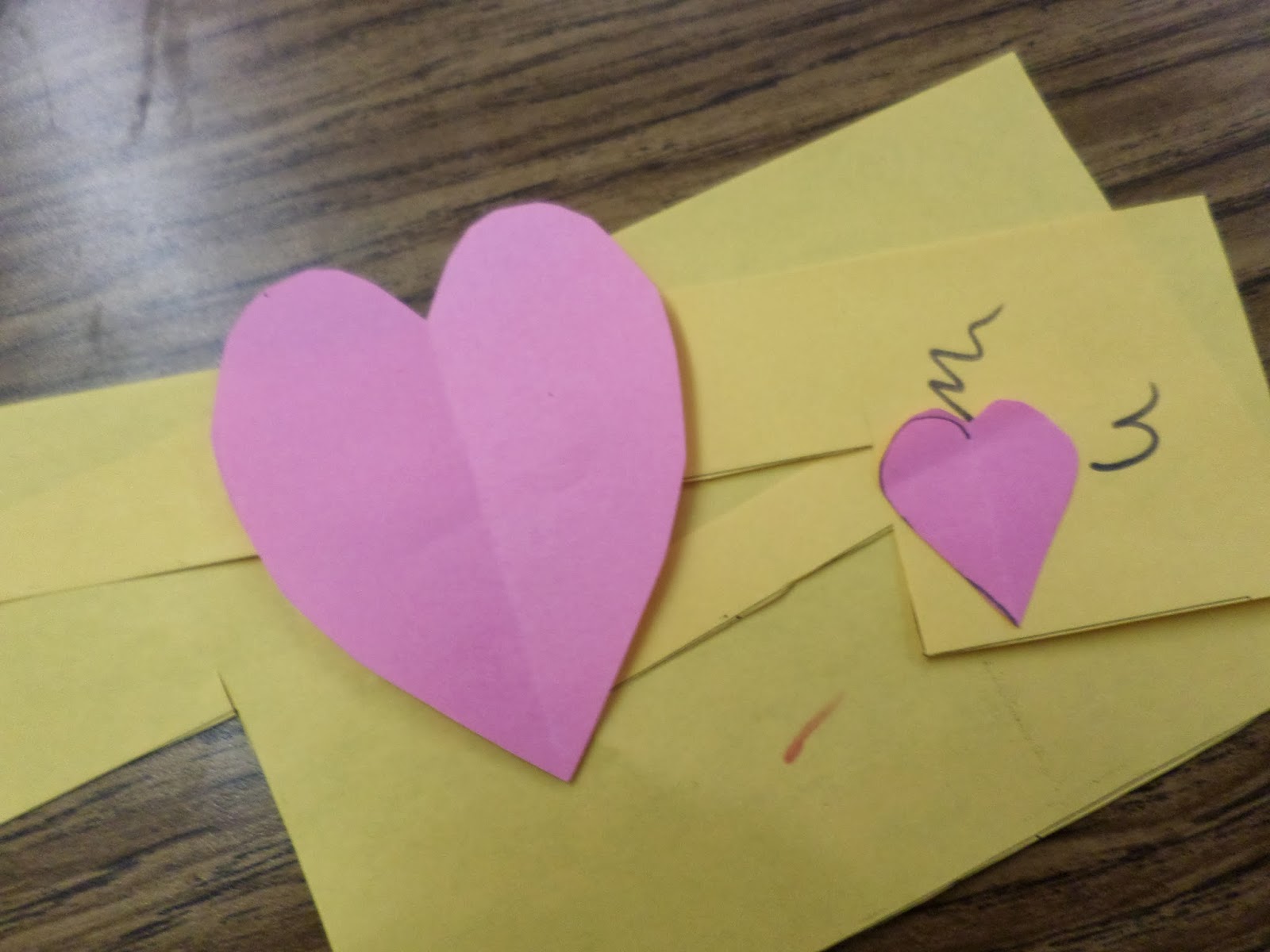
Oh, and I have to mention the list that started circulating my school yesterday. I only got a glance of it, but it was entitled something along the lines of “Top 100 Reasons Why Ms. Hagan and [The Science Teacher] Should Date.” It made me laugh. A lot.
Of course, when I saw the list, they had only made it up to Reason #29. My favorite reasons from the list?
They both drive. Why, yes, we both do. Of course, most people in Oklahoma do drive.
They both have eyebrows. I don’t even know what to say about this one.
They both loved the fake love letters that were written to them last year from each other.
Remember this one?
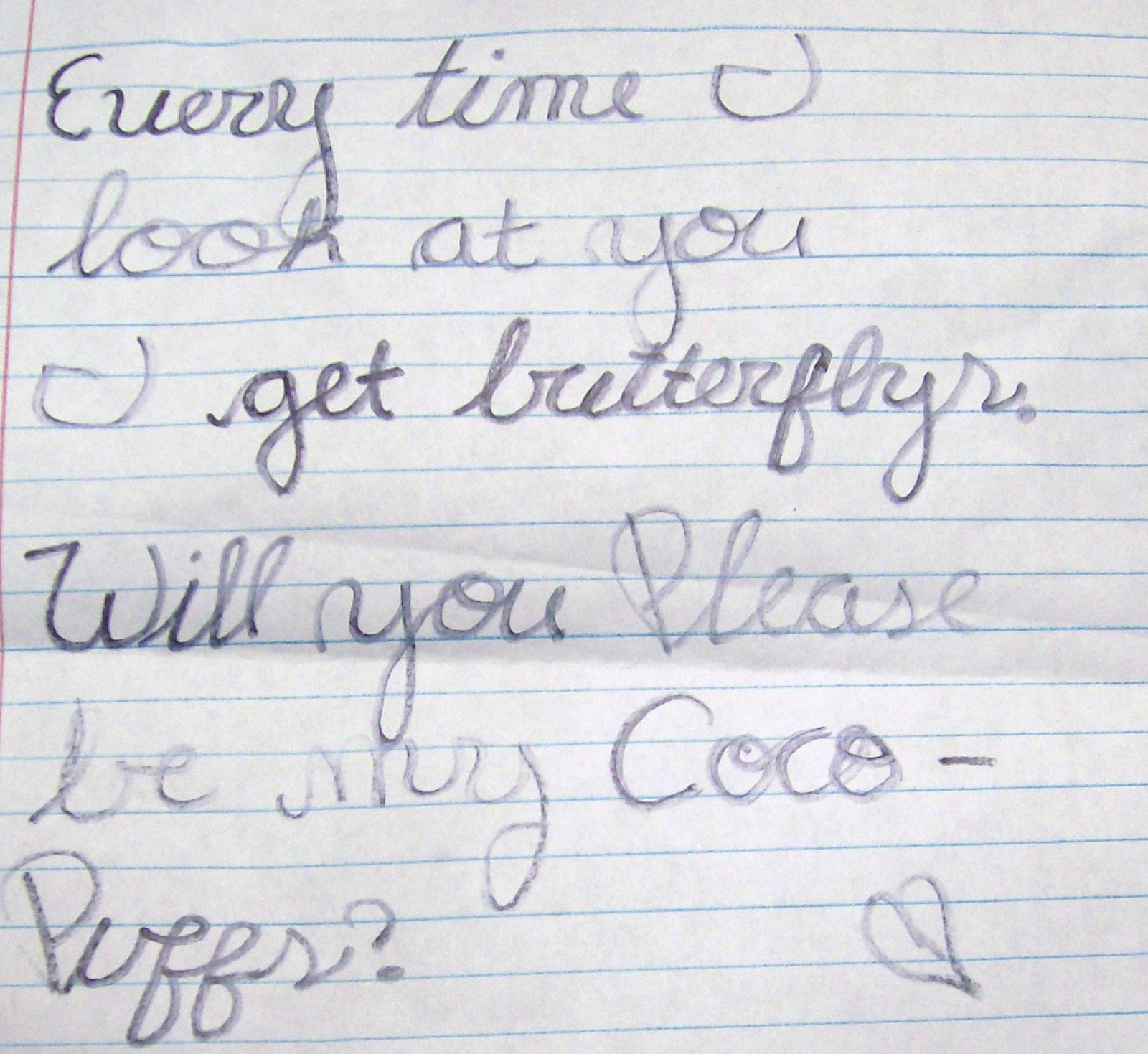
Let’s just say my life is never dull!
Happy Valentine’s Day!
February 15, 2014 – I bring out the math in people…
I love math. Okay, let’s be honest. I’m obsessed with math. Given the title of my blog, that should not come as a surprise.
Lately, though, I’ve been noticing something. My love of mathematics may not make those around me love math. (I wish it did!) But, I do think it has made those around me more aware of the power, beauty, and utility of math.
Three Examples.
A few weeks ago, I was talking on the phone with my friend who teaches high school English. I can’t quite remember our exact topic of conversation, but I do remember her exclaiming, “Look! I just used math!”
Wednesday, I received this text from my sister, an art education major:
Used math and fractions to divide my picture up. Also used a ruler and measured in 1/16ths. #soproud
One day last week, I woke up to find the ground covered in snow. When my phone started chiming at 6:33 a.m., I assumed it was someone texting me to let me know that school was cancelled. No, it was my mom.
Math problem which is best deal 30 percent off purchase or buy one get one half off had to use math this morning imagine that
So, I’ve decided that I bring out the math in people.
February 18, 2014 – Awesome, New Math Bloggers to Check Out!
Today, I’m going to try something a little different. Instead of sharing what I’ve been up to in my own classroom, I want to point you toward some awesome, new math teacher bloggers and what they’ve been up to.
Prepare yourselves to be amazed! These new (and new-to-me) bloggers have been absolutely blowing me away with their creative and thoughtful posts of late.
First up, Type-A Mathland. Anna Hester is up to some amazing stuff! What am I in love with about her blog right now? Pretty much every single post. It’s hard, but I guess I’ll pick out a few favorites to highlight. I can’t wait to try this idea that uses index cards rolling dice to help students practice graphing linear functions. She also wrote a great post full of tips on getting started with interactive notebooks. If you are using inbs or thinking about using inbs, I’d definitely recommend reading this post! I LOVE seeing how other math teachers have decorated their rooms. Anna’s classroom is gorgeous and definitely worth your time to check out! She also might be the most organized person I’ve ever came across. If I haven’t convinced you by now, please take some time, check out her blog, and leave her some encouraging comments!
You also need to get to know Jan Lichtenberger from Equation Freak. She teaches 8th grade pre-algebra and algebra in Chicago, and she’s started posting lots of interactive notebook ideas on her blog! She is the type of teacher I wish I taught across the hall from. I know she has a ton to share, and I can’t wait to take it all in! I absolutely loved her post on Geometric Art. I’m going to try my hardest to fit this in after state testing is finished. I also adore this slope foldable that she created. I think making the foldable out of graph paper was simply brilliant! I’m incredibly intrigued by the idea of having students create reflective portfolios of their work. You should definitely set aside some time to check out Jan’s blog and leave her some blog love!
Another newcomer to the blogging world is Everthing Math! Mrs. P has been on a roll lately with all of her interactive notebook and class activity posts! Her first post that caught my eye was making Christmas cards using ONLY quadrilaterals. You have to follow this link and see the amazing creations her students came up with! I’m loving the pockets she made for students to sort equations into based on their number of solutions. I can’t wait to try out this Round Robin activity with my students. Since we’ve already covered solving equations, I’m going to have to find a different topic to use it with. But, I think this is a very versatile activity. I can’t wait to add it to my “bag of tricks.” She has tons more interactive notebook pages and foldables that I didn’t link to. So, be sure to check out her blog and thank her for taking the time to share her resources with us!
This last blog has been around a little while longer than the others, but I only recently ran across it thanks to Pinterest. Janelle Graham blogs at The Dog Days of Math, and her blog is a must-see! I’m super-excited to try out this idea of giving students the answer and having them come up with a question that correctly corresponds with it. I’ve seen this idea used in elementary classrooms before, but this was the first time I’ve seen it in a secondary classroom. Very exciting! And, stellated icosahedrons made out of straws? (Link Updated 5/2020) I need these for my classroom. ASAP. Her classroom is beautiful. I’m definitely going to have to make my own version of the banner that adorns her walls. And, her posts are also filled with precious pictures of her pups. What’s not to love? She’s got a ton of posts to look through, so be sure to set aside a chunk of time to check out her blog!
Do you know of any other new bloggers that we should know about? Have you just started a blog and want the feedback of others? Leave a link in the comments so we can visit!
February 19, 2014 – Belated Valentine’s Day
I’m happy to report that I am feeling much, much better! I’m finally over the stomach bug that’s been going around town, and it is great to be back among the living! The only good thing that came out of being sick was that I was able to read four books. My sister is still ahead by 9 books for the year, but I haven’t given up hope yet.
We were out of school Monday for President’s Day, so yesterday was my first day with my kiddos since last Thursday. I hate missing work, and it seems like my students hated the fact that I missed school on Friday. Okay. Maybe it wasn’t that they missed me. But, because I wasn’t there, my students had an interesting experience with the substitute teacher.
Students eagerly greeted me and couldn’t wait to tell me the story of the terrible things they had to go through on Valentine’s Day.
Student: Ms. Hagan! Ms. Hagan! Ms. Hagan! I’m so glad you’re here today. You’ll never guess what the sub did on Friday.
Me: I don’t know. What did he do?
Student: He gave us the talk.
Me: The talk?
Student: You know. The birds and the bees talk.
Me: The substitute did WHAT?!?!?
Once I heard the entire story, I wasn’t quite as alarmed. I’m still not quite sure why this was even a topic of discussion, but the substitute made a point of telling one of my classes that they needed to practice abstinence until marriage. And, from what I was told, it wasn’t a single remark. He kept going on and on and on about how great things were going to be for my students if they saved themselves for marriage. I agree with him wholeheartedly, but I’m not sure if this was the proper setting for the conversation. The things that happen when you’re gone…
In my mailbox, I was surprised to find a Valentine’s Day gift. Our FCCLA sells “crushes” as a fundraiser. Students can send candy, a Crush pop, and/or a stuffed animal to anybody in the school for a small fee.
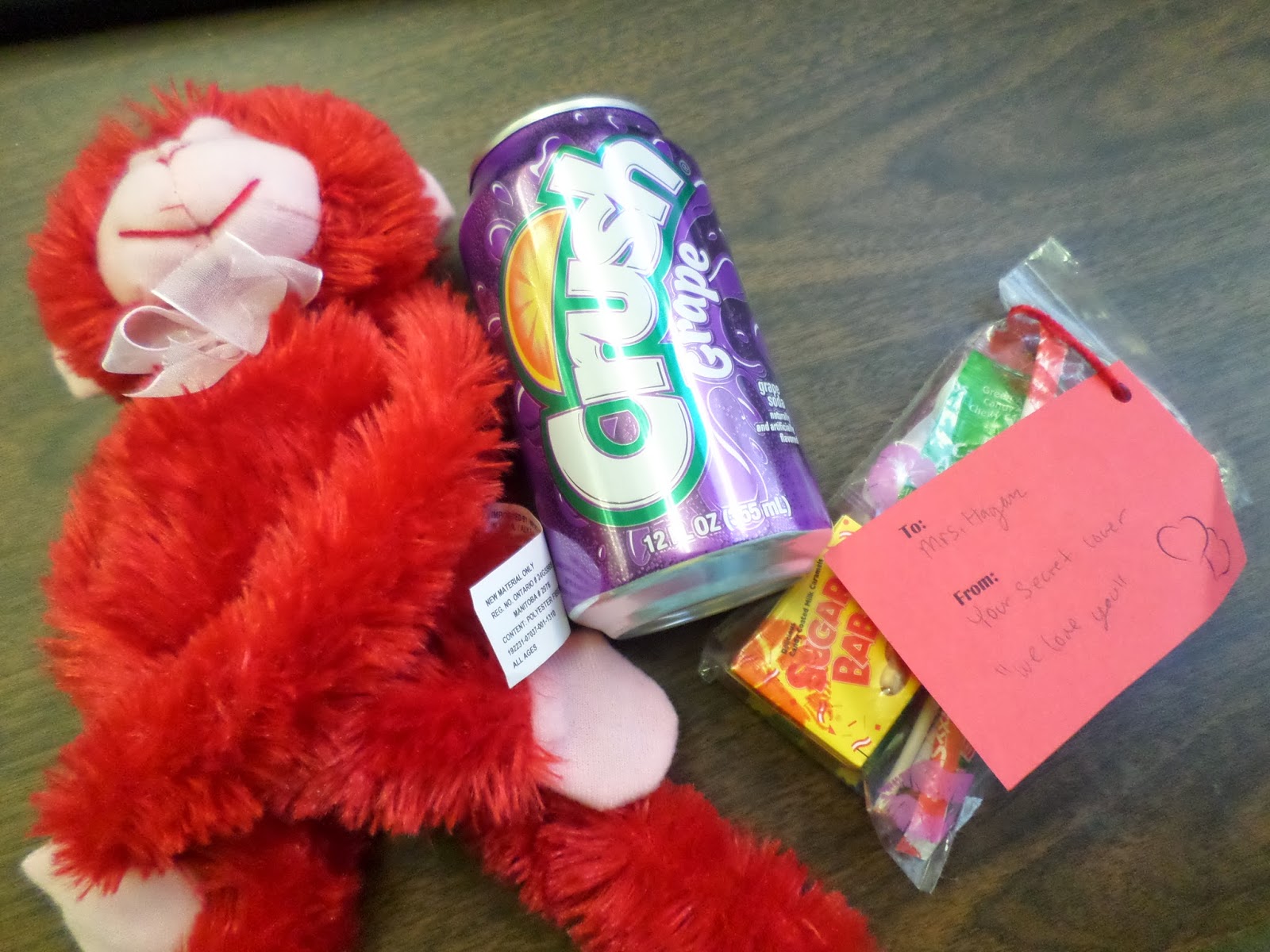
I wasn’t expecting this, so I instantly began to check out the attached note to see who it was from.
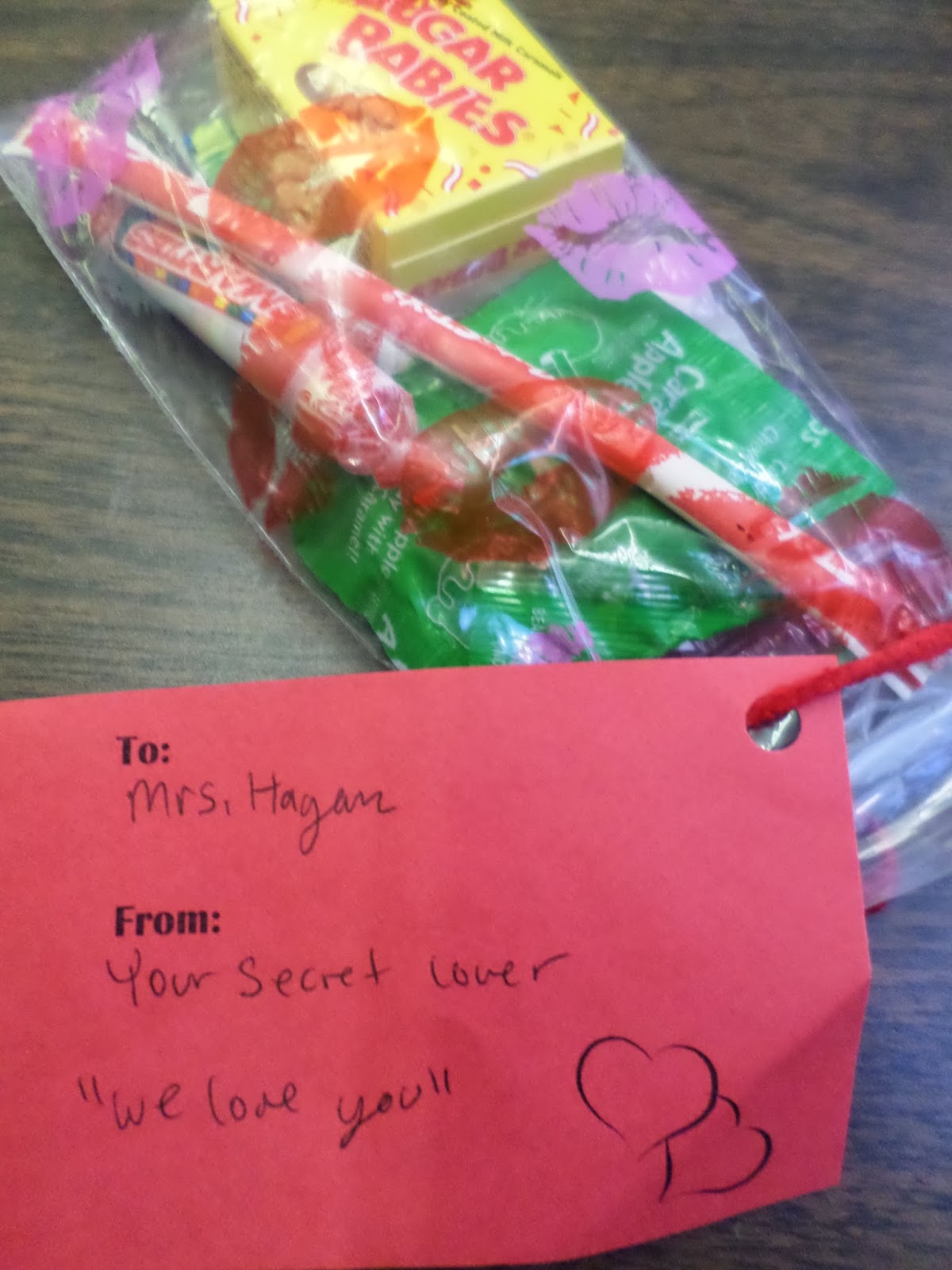
To: Mrs. Hagan
From: Your Secret Lover
My Secret Lover? Really? Then, to make it somewhat more and less mysterious at the same time, the bottom of the card read, “We love you.”
I knew it must be from some students, but I couldn’t figure out who. Luckily, it didn’t take long for one of them to spill the beans and ask me if I liked they and another student had gotten me.
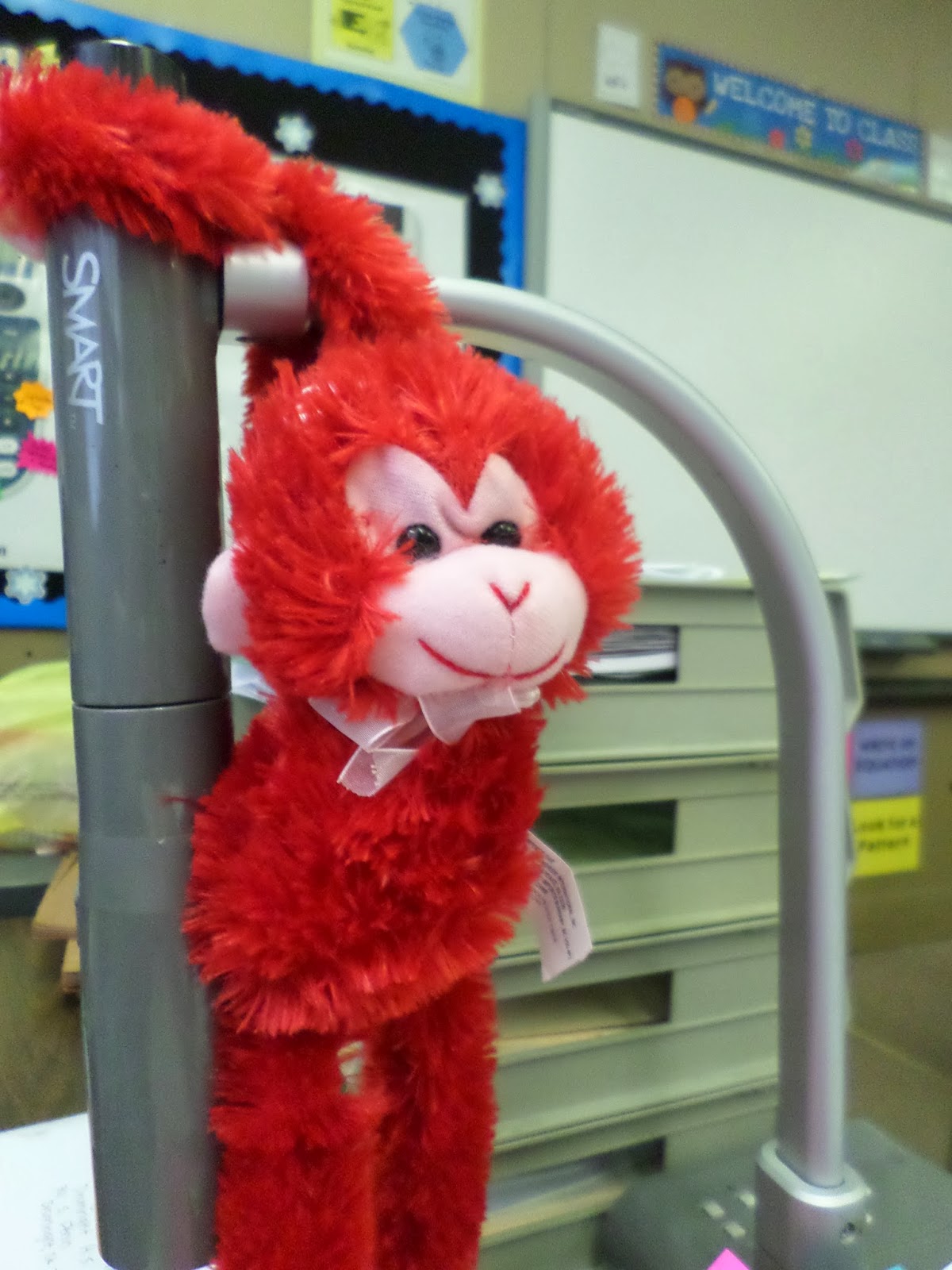
This little guy doesn’t have a name yet, but he’s found a new home on my document camera.
I wished my students a belated Valentine’s Day. And, I had to explain what belated meant way more times than I expected. Why did you call it belated? Why didn’t you just say Happy Late Valentine’s Day?

I passed out my Valentine’s that I made for my students.
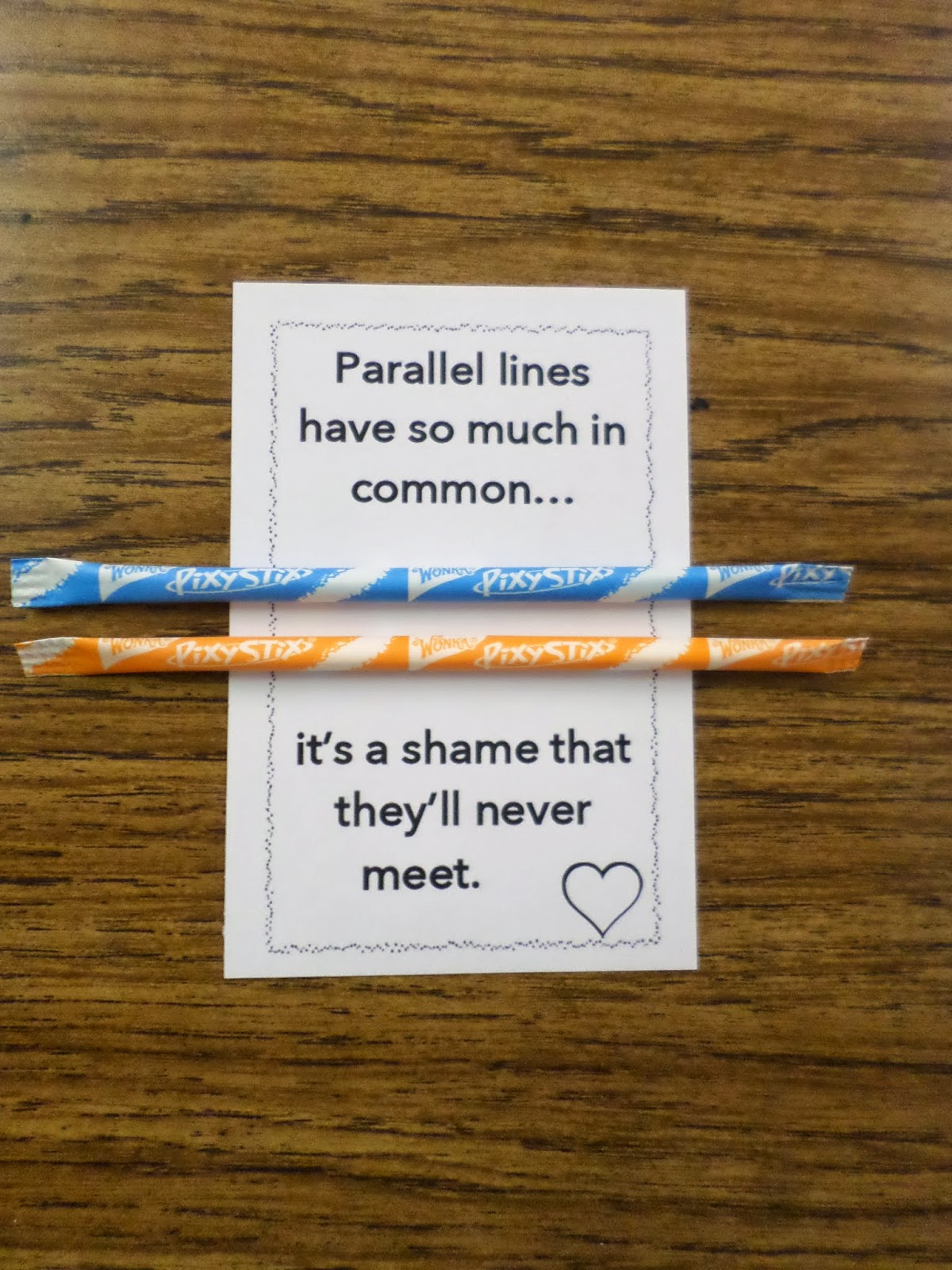
I found the card online via Pinterest. You can print your own copy of the card at love2learn2day. I downsized them to be closer to the size of a typical valentine. Thanks to my paper chopper, I was able to put these cards together for my students in a relatively short amount of time.
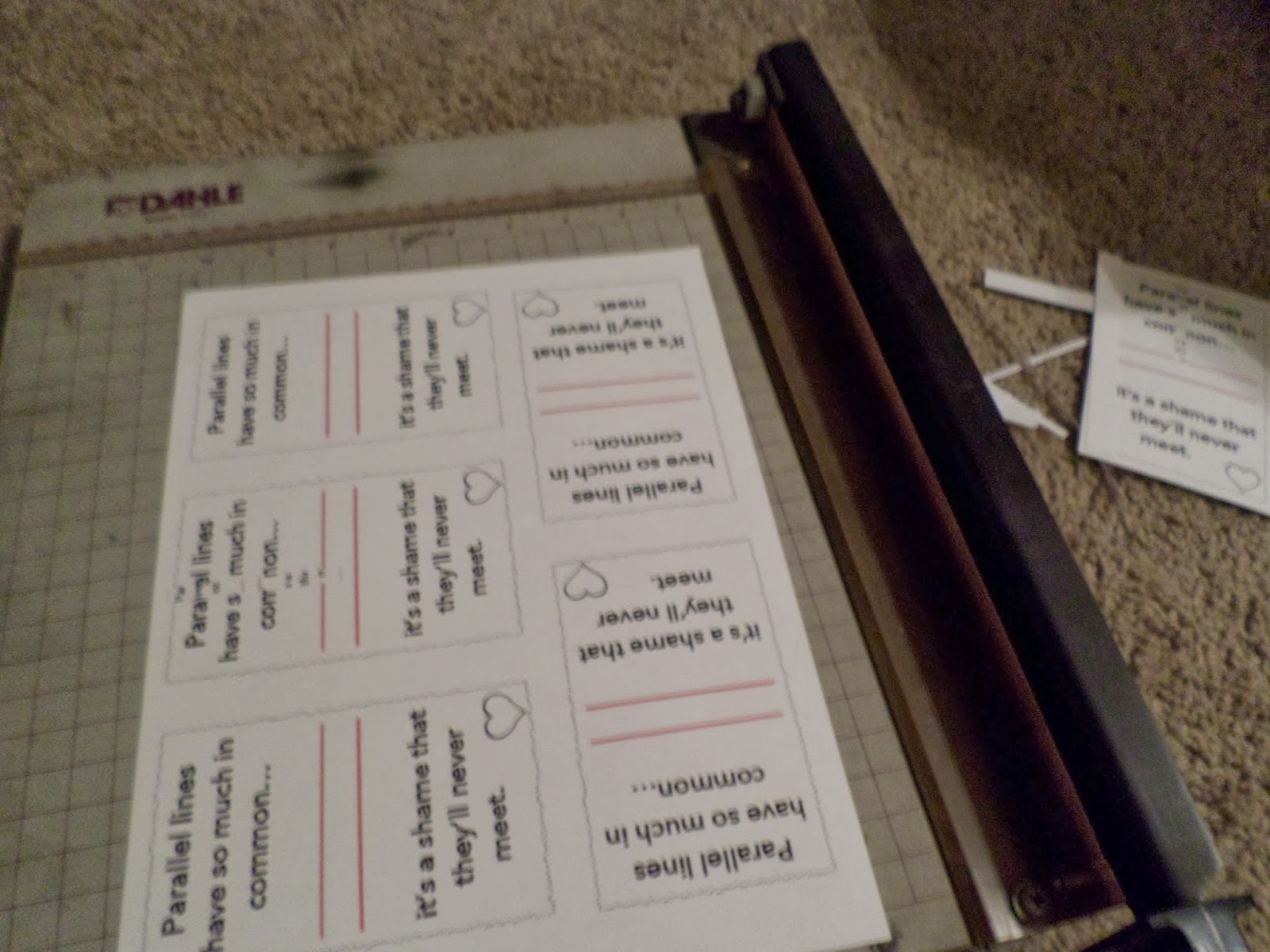
I taped on the Pixy Sticks, and the cards were ready to hand out to my students. I had to go to three different stores to buy Pixy Sticks. First, I went to my local Wal-Mart. No Pixy Sticks. I decided that must be because I live in the middle of nowhere. So, I went to another Wal-Mart. Again, no Pixy Sticks. Finally, I found them at Dollar General. I guess Pixy Sticks aren’t as popular as they once were…
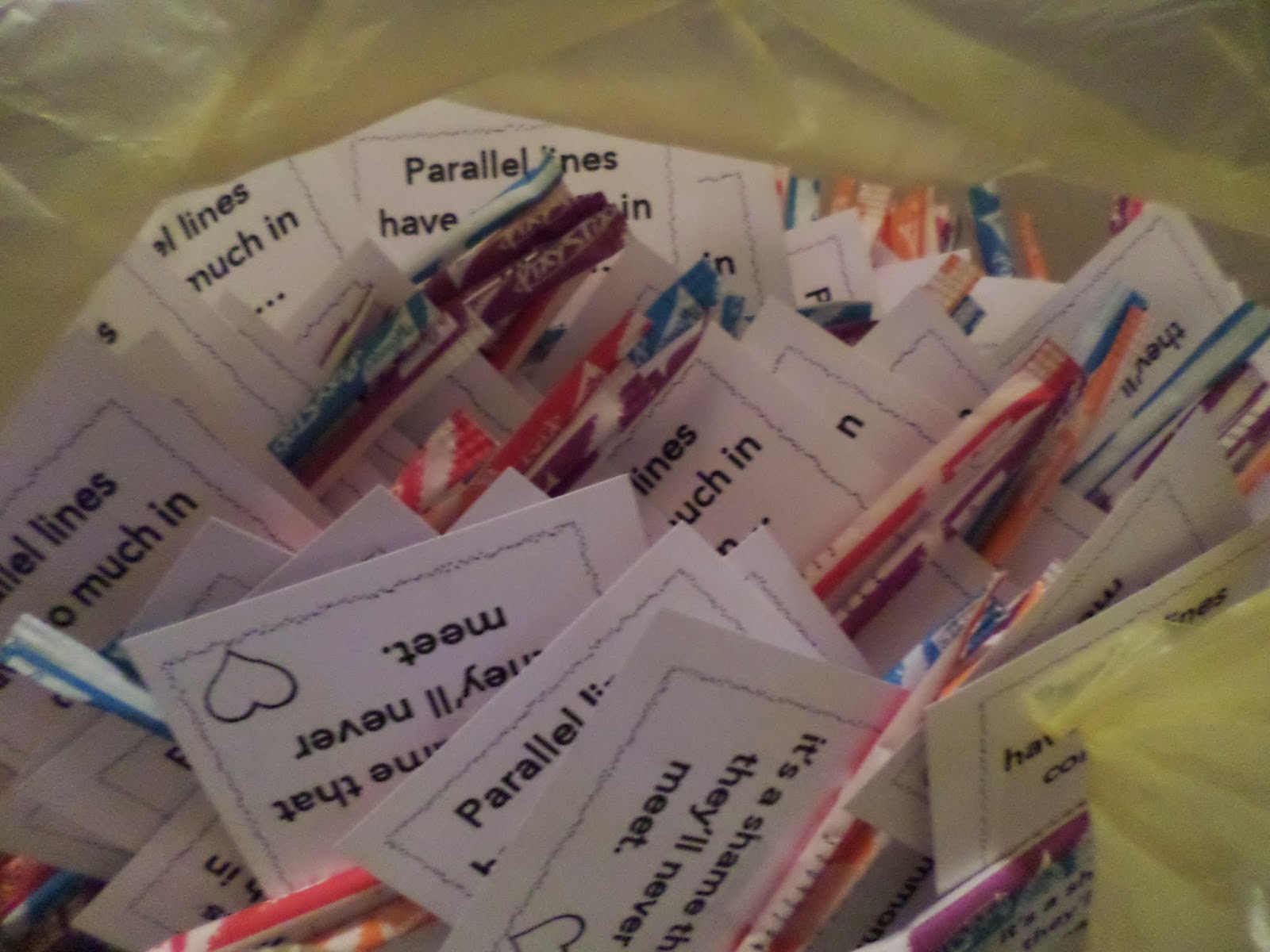
The most common response? “Oh my goodness! Ms. Hagan, you would give us a mathematical valentine!” Quite a few laughed.
Another popular response: “Will I get my phone taken away if I get it out to take a picture of this?”
Most were just excited about the candy.
We’re not going to talk about how one of my students decided to snort a pixy stick today during class. I think he learned his lesson. He ran out of class, almost crying. When he did return from the bathroom, he was in so much pain that he could barely focus on the day’s lesson.
One of my 8th graders surprised me with chocolate. It turned out to be a very good day!

February 28, 2014 – Surprise! A bat?!?
Teaching is full of surprises. My kids are always keeping me on my toes. They’re not always to blame, though.
For those of you who don’t know, Drumright is a boom town. Oil was hit in 1912, and the town was born. The high school I teach at opened its doors in 1919! Recently, our local historical society posted a picture of the school from 1919 on their facebook page. I decided to take my own picture, just to compare.
Here’s my school, soon after it was opened. My classroom is the closest classroom to you on the second floor on your left.

Image Courtesy Drumright Historical Society Museum
And, here’s what my school looks like now.

The North addition was added to make the school handicap accessible. It houses an elevator and bathrooms on each floor.
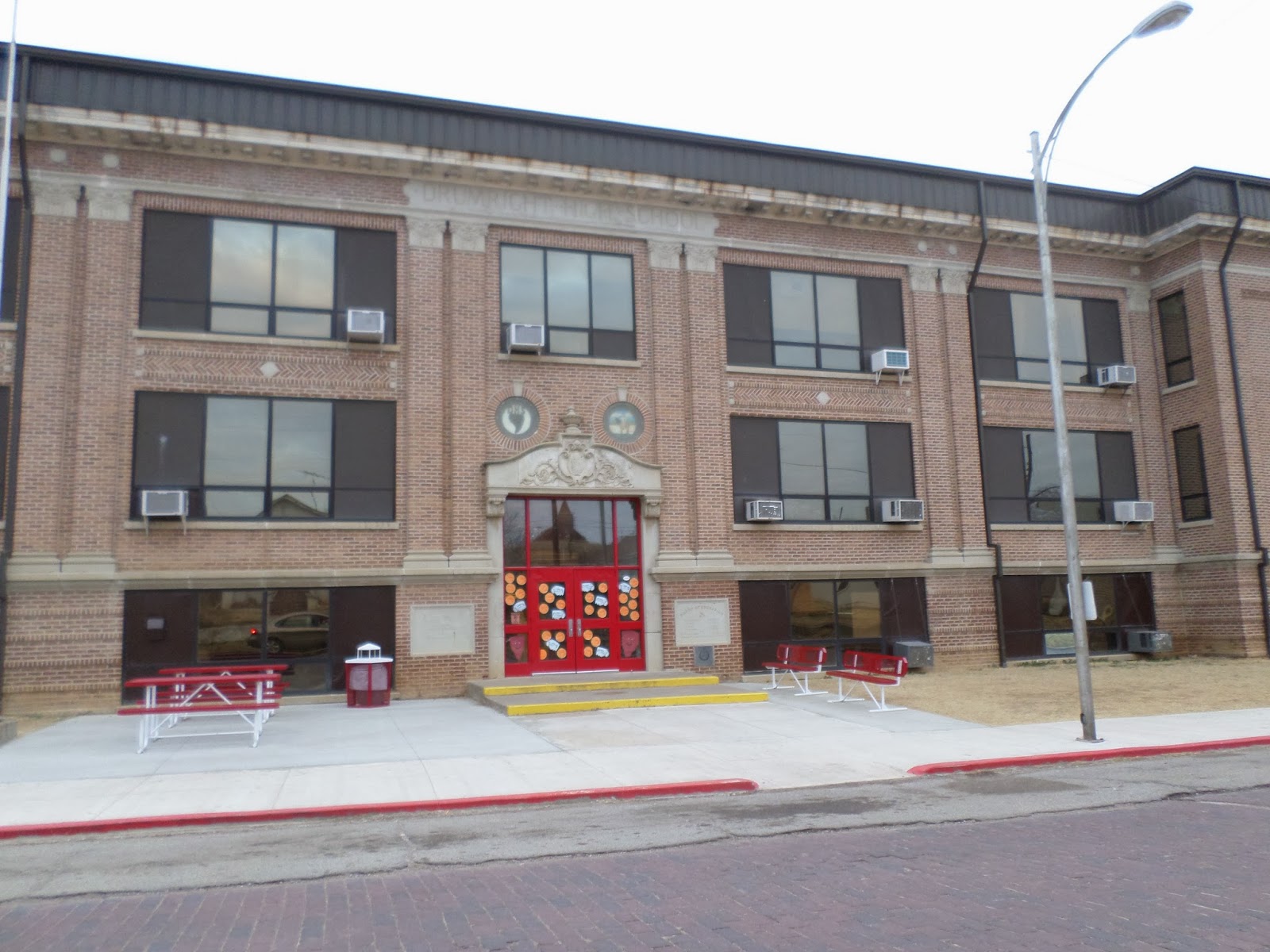
Why am I showing you pictures of the building I work in? I’m hoping it will explain what I’m about to show you. Remember how I said teaching is full of surprises? Old buildings are especially full of surprises!
I had one of those experiences today. I was sitting at my desk, grading papers. It was late, and I was getting ready to head home. The history teacher from across the hall came over to tell me something. I stood up, and my eyes were drawn to a stain on the carpet. Except, it wasn’t a stain. It was something that was alive. It was a BAT!!!
Now, I’ve known that my school had bats since I started working here. When the counselor gave me keys to my room, she warned me to beware of the bats that lived in the school. Twenty-one months after hearing about the bats for the first time, I finally saw one. In my classroom!
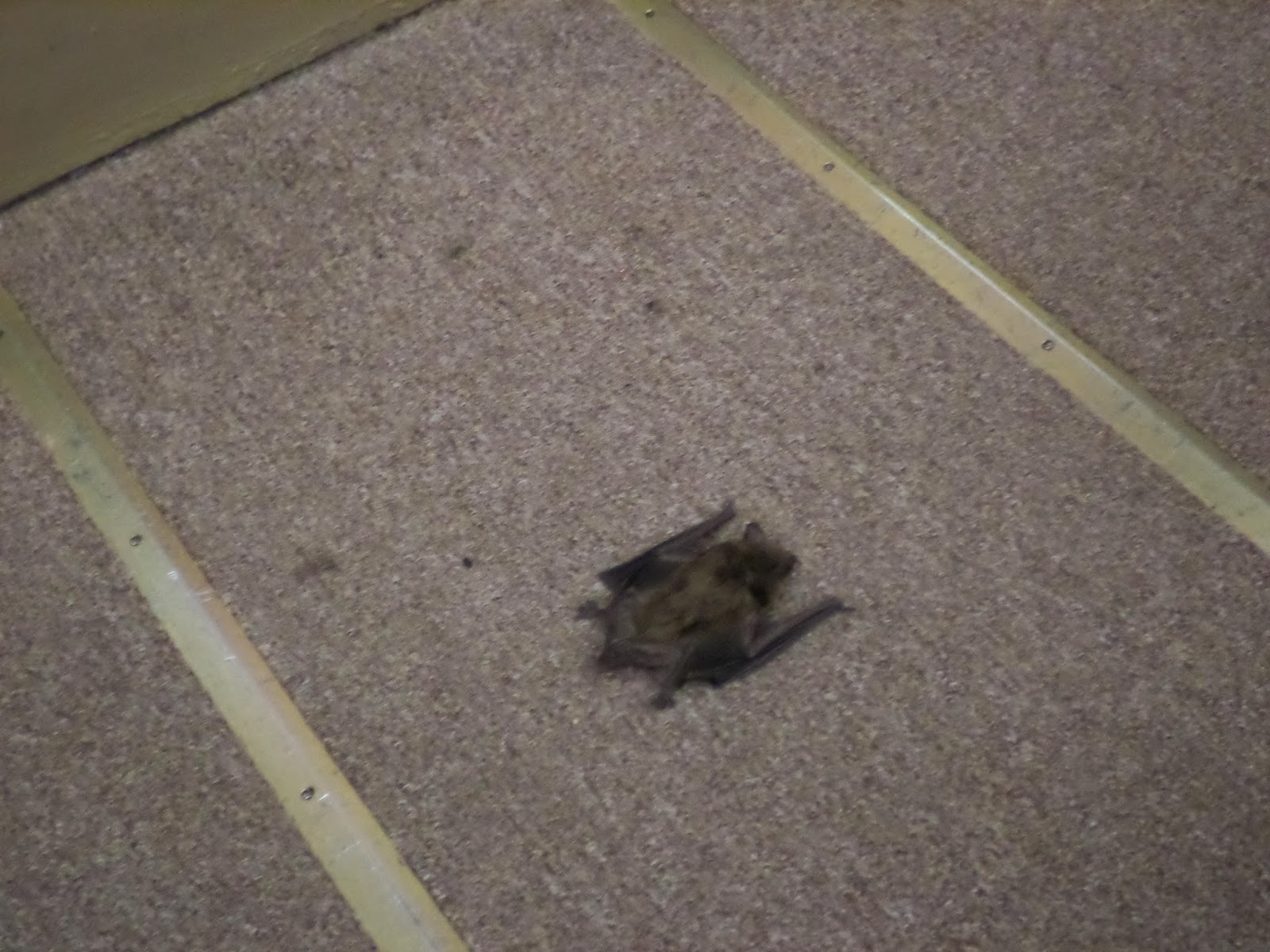
This is not okay. Bats do not belong in my classroom. They belong in caves. I think the only time I’ve actually ever seen a bat in real life before was in Marvel Cave at Silver Dollar City in Branson, MO.
Thankfully, the history teacher stepped into action. He got a broom, and used it to poke the bat. Nothing happened, though. It just continued laying there. I know the bat isn’t dead, because it moves its head every once in a while. I think that it may be sick and/or dying. Why else wouldn’t it move when it got poked by a broom? I also know that I do not want to get bit and have to go get a rabies shot!
I left my door open. We’ll see if the bat is still there in the morning. I’m hoping that he will have disappeared by morning. If not, I’ll definitely be covering him with a bucket or trash can until the custodian or anybody but me can come and transport it from my classroom.
I just don’t understand why the bat had to pick my room. The light was on when it came in. Don’t bats like the dark? As I wrote on facebook, my teacher preparation courses didn’t teach me how to deal with a scenario like this. Our faculty handbook doesn’t have a procedure for bat removal. I’m in uncharted territory here. Oh, the things they don’t teach you in college…
Don’t worry. I’ll keep you updated on the bat saga! We’ll have to see what tomorrow brings…
March 1, 2014 – EmptyShelf Challenge: February 2014 Reads
Well, the second month of my #EmptyShelf Challenge has passed. The premise is simple. Clear off a bookshelf. Every time you read a book, put the book on the bookshelf. Be amazed at the number of books you read in 2014. Well, my competitive nature encouraged me to get my sister involved, too. We’re both avid readers. I’m still not sure convincing her to join me was the best or worst idea ever.
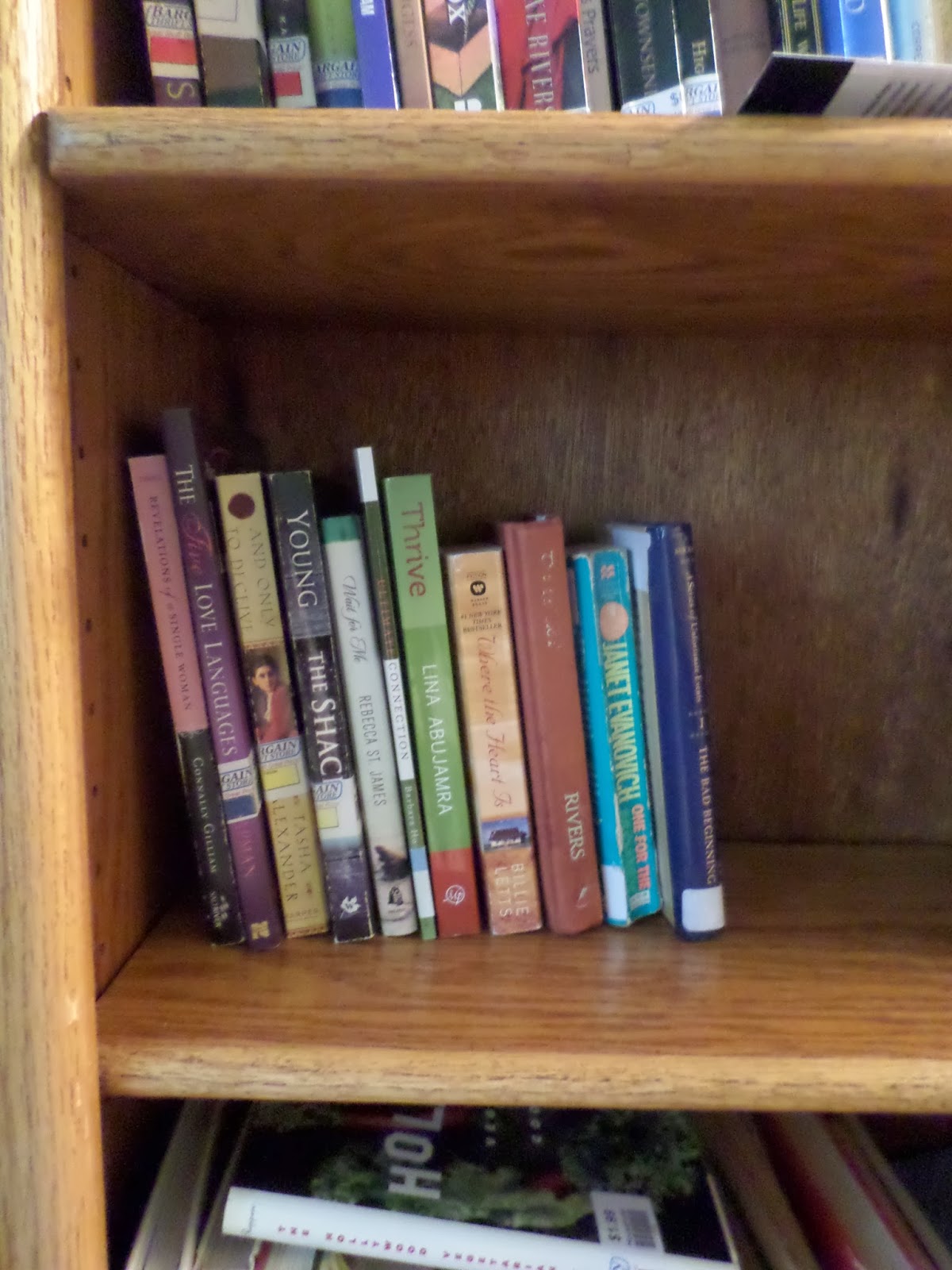
You see, I read 10 books in February. Add that to the 10 books I read in January, and I’m at 20 books for the year! Now, I didn’t keep track of how many books I read in 2013, but it might have been 20 for the entire year. The busyness of my first/second year of teaching prevented me from reading as much as I would have liked. I should be proud of those 20 books. But, my sister has read 34 books. 34 books! How does a college student have time to read 34 books?!? I started out the year ahead of her, but I’ve been getting further and further and further behind.
I get a friendly text message from her every time she finishes a new book. Usually, it goes like this: I just read another book. #34strong. I’ve taken to replying with a hashtag of my own: #20AndIStillHaveALife. We’re not competitive at all. 🙂 It’s discouraging to know I’m losing, but I also know that I’ve probably read a lot more books than I normally would have as a result of the competition.
I’m having fun, and I’m reading a lot. So, I guess that’s all that really matters.
Just like for January, I thought I’d provide a short recap of each book I enjoyed in February. I’ll link to the book on Amazon in case you’re interested in learning more.
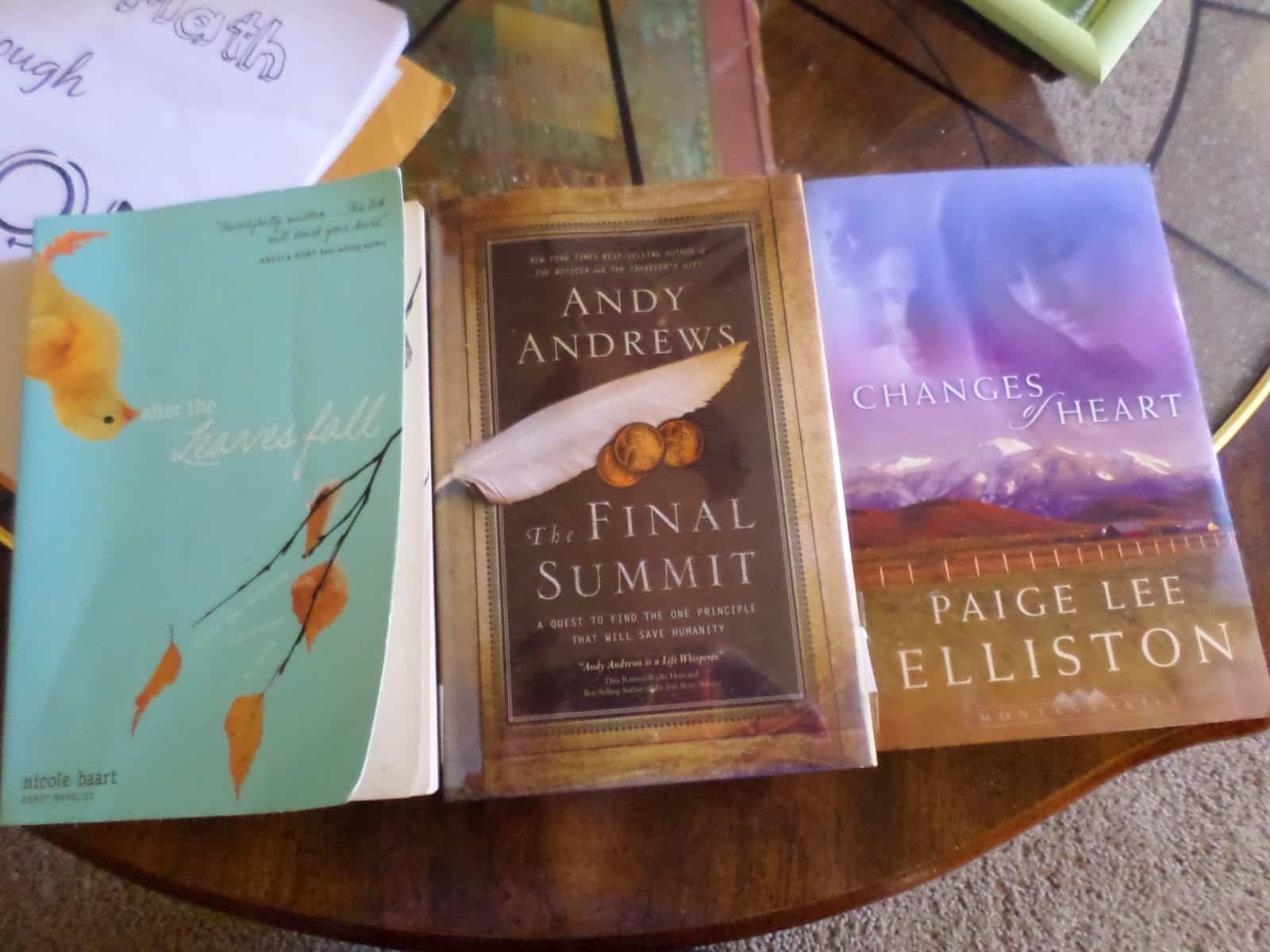
After the Leaves Fall by Nicole Baart
I checked this book out of the library because it had a title that caught my eye and a pretty cover. Yes, I’m that type of reader. I thought this was going to be a romance novel, but I was wrong. There was some romance involved, but it was more of a coming of age novel. It follows a young woman through childhood and into college. The book dealt a lot with loss, faith, and the consequences that result from decisions and shape our lives. There is a sequel to the book, but I was disappointed to discover that my local library didn’t have it. Even though it wasn’t what I expected, I enjoyed the book and was quickly sucked into the story.
The Final Summit by Andy Andrews
This was my second Andy Andrews book. Last month, I read The Noticer. This is another book that I checked out of the library, not knowing really what to expect. This is a sequel to another book, and it probably would have been better for me to read the other book first. Oh, well. I am not a fan of science fiction/unrealistic books. There’s a reason why I can’t stand to watch things like Star Wars or Dr. Who. This is a book about a man who has traveled through time. Time travel is usually the point in which I put a book down. But, I tried to keep an open mind because the time traveling had actually happened in the previous book. I read on as the main character met up with Gabriel, Abraham Lincoln, George Washington Carver, Joan of Arc, Winston Churchill, and others in an attempt to save humanity. It was an inspirational read, filled with tidbits about these historical figures that I had never heard before. I’m not one to normally read biographies, but I think that might be something I might enjoy now since I enjoyed learning about these figures’ backgrounds.
The Bad Beginning (Book 1 in A Series of Unfortunate Events) by Lemony Snicket
I am definitely not the intended audience for the book. According to Amazon, the book is meant for ages 9 and up. At age 24, I still enjoyed this quick read. I remember seeing the movie version of this book in junior high, but this was my first time to read any of the books in this series. This is despite the fact that the book series premiered when I was in 4th grade. I especially liked how the narrator introduced some quite advanced vocabulary throughout the book. He would stop to explain what the word meant and then move on. It was a reminder to me that there is no need to shy away from academic vocabulary in my classroom if I take the time to explain what a word means. I am doing my students a disservice if I do not introduce them to the vocabulary of mathematicians.
Where The Heart Is by Billie Letts
Last month, I read my first Billie Letts novel, The Honk and Holler Opening Soon. This month, I read my second. Years ago, I watched the movie version of Where The Heart Is. All I really remembered about the movie was that a young woman had a baby in Wal-Mart. As I read the book, I realized there was so much more to the story. I think one of the reasons I really enjoyed this book is that it’s set in Oklahoma. I love being familiar with the areas written about in the book. Now that I’ve read the book, I’d love to go back and watch the movie to see how it was the same/different.
The Time Keeper by Mitch Albom
I read my first Mitch Albom book, Tuesdays With Morrie, during my senior year of high school. I was instantly a fan of his inspirational writing style. This was a quick read that kept me on the edge of my seat. It tells the story of three individuals that seem to have nothing in common. The book weaves back and forth between each of their stories. With each page turn, I kept wondering: how in the world are each of these stories going to tie together? They did tie together in the end, and I was not disappointed!
Star by V.C. Andrews
As I write out these short recaps, I’m noticing a theme. This month, four of the books I read have been books by authors that I first read last month. This is the second book in the Wildflowers Series that focuses on four teenagers in court-appointed therapy. Each book focuses on a different teenage girl and how her background and decisions led to her ending up in therapy. Like I said last month, this is definitely not the type of book I would normally read, but there’s just something about these stories that draws me back to this series. Maybe it’s the fact that I teach teenagers, and I wish to understand them better. This is a series that I definitely plan on finishing this year.
The Priest by Francine Rivers
You can’t really see it, but there’s another book below my copy of Star above. I bought my copy of The Priest at a thrift store, and it’s missing the dust jacket. The solid front cover isn’t much to look at, so you’re not missing much. This is a pretty short book, but it was not a quick read for me. Francine Rivers is one of my favorite authors. I think the best book I’ve ever read, hands-down, is Redeeming Love. In this book, Ms. Rivers retells the story of Aaron, the brother of Moses, in a way you’ve never heard it before. She takes the biblical account and brings it to life. This book made me look at the story in ways I never had before. And, I don’t think I’ll ever be able to look at the biblical account in the same way again. It was an inspiring and emotional read.
Vision in White by Nora Roberts
Last month, I tried to read my first Nora Roberts novel. My mom has read Nora Roberts. My sister has read Nora Roberts. I went to the library and checked out my first Nora Roberts novel. A third of the way through The Dark Witch, I had to stop. I just couldn’t continue. Based on the title, I should have known it would be about witchcraft. As much as I tried to will myself to like it, I couldn’t. This month, I decided to try my hand at a different Nora Roberts novel. This book, which focuses on a group of friends who run their own wedding planning business, was much more up my alley. This was a fun, romantic read. And, I’ll probably look into finishing the rest of the series in the near future if my library has the other books.
One for the Money by Janet Evanovich
This was my first ever Janet Evanovich novel. It was recommended to me by my landlord, actually. She is an avid reader, and she has gotten me involved with both a monthly Book Chat and the newly-formed Friends of the Library. Actually, if it wasn’t for my landlord, I probably wouldn’t have ever set foot in the Drumright Public Library! This is not my normal type of novel to read. I grew up in a very conservative and Christian home. So, the I didn’t read many books with explicit language in them while growing up. Though it had more language than I was accustomed to, it was still a fun, comical read. I don’t know if I’ll continue reading the series, or not.
So, those are my reads for February. Hopefully, I’ll make up some reading ground in March and surprise my sister!
March 2, 2014 – Bat Situation Update
Before I forget, I’ve got to update you on the whole bat situation. Last Thursday, I found a bat in my classroom while grading papers after school. It was barely moving at all, and I assumed it was sick. I didn’t get too close because I did not want to end up with rabies. I left my classroom door open and turned off the light, hoping the bat would leave of its own accord.
Friday morning, I turned on the light in my classroom and crept into it. I felt a little like Indiana Jones. I knew the bat could fly at me from anywhere. I’m sure I would have been quite a site if somebody had been watching me creep slowly into my classroom. I snuck up to the front of the room to where I had left the bat the night before. Nothing. But, that didn’t mean I was free and clear. The bat could be anywhere.
The custodian was at school, unlocking doors and emptying trash cans. I stopped her to explain why I had left my door open. She’s had a lot of experience with bats in our 1919 school, but she said she was surprised that one had been spotted so early. Usually, they don’t come out until summer. She did another check of my classroom to make sure the bat wasn’t hiding anywhere. By the time she left, I was pretty confident that my room was bat-less.
We have a faculty meeting every Friday morning at 7:30. I showed up a few minutes early and filled my principal in on the bat situation. Another teacher arrived. She had found a sick bat laying outside the door to the principal’s office. (I’m 99.7% sure it had to be the exact same bat.) She had called the science teacher to pick up the bat and take care of it. People, this is why I do not teach science. Our science teachers are continually being brought random animals that students find around campus. Turtles. Rabbits. Frogs. Kittens. And, now, bats. You could not pay me enough to attempt to nurse a sick bat back to health in a box in my classroom. The last I heard, the bat was on its death bed, and they were trying to feed it a slice of apple. I think I’ll gladly stick with my numbers. Numbers don’t need their cages to be cleaned out. Numbers can’t give you rabies. Numbers don’t need to be taken home and cared for over extended school breaks.
One of my students drew a picture of the bat to commemorate my experience. I like the looks of her bat a lot more than the bat I found lying on the floor of my classroom!
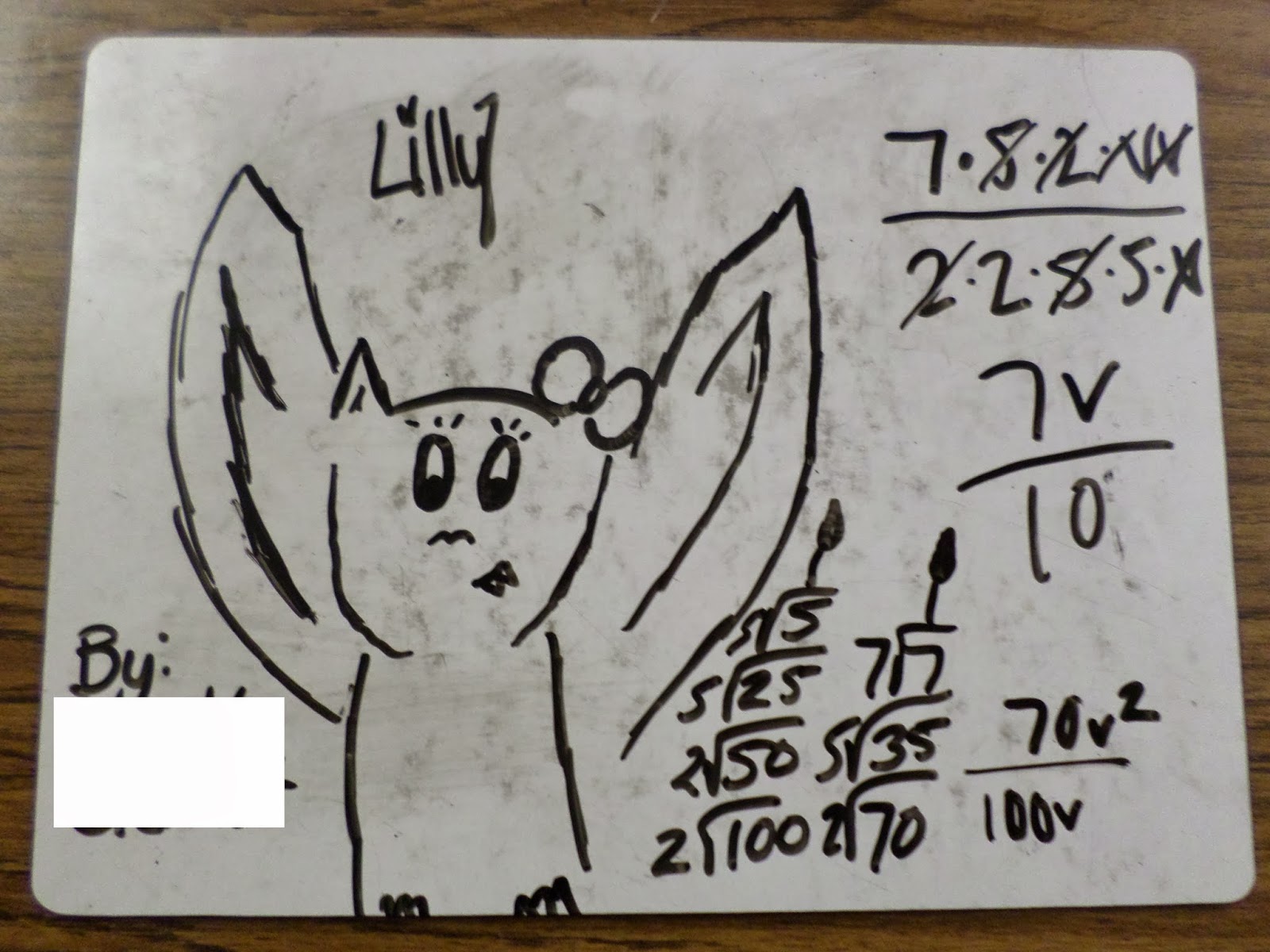
March 3, 2014 – The Power Of A Note
In elementary school and middle school, my teachers loved to have us write poems about ourselves. They would give us templates, and we would have to fill in the templates with adjectives to describe ourselves. I hated these assignments because I could never come up with adjectives to describe myself on my own. I usually ended up enlisting the help of my mom and sister to write these poems. Usually, these poems ended up focusing on the fact that I was shy, quiet, kind, thoughtful, intelligent, honest, etc. There were a lot of words I never even considered. A lot of times, I focused more on what I wasn’t than what I was. I dreamed of being more outgoing. I dreamed of having more of an influence. But, nobody would have ever known that from my actions. I never spoke up. I never wanted to be the center of attention. I hated it when people said I was “smart.” In fact, I would argue with them. “I’m not smart. I just work hard. Anybody could achieve what I have done if they worked hard.” My goal was to blend in, to fit in.
There are words I never would have chosen for myself. Powerful is one that comes to mind. Confident is another.
In our teacher’s lounge/workroom, there is a poster that I see every time I go to make a copy. It shouts: “Somebody Needs You!” And, it features a quote from Larry Bell: “On your worst day on the job, you are still some child’s best hope.”
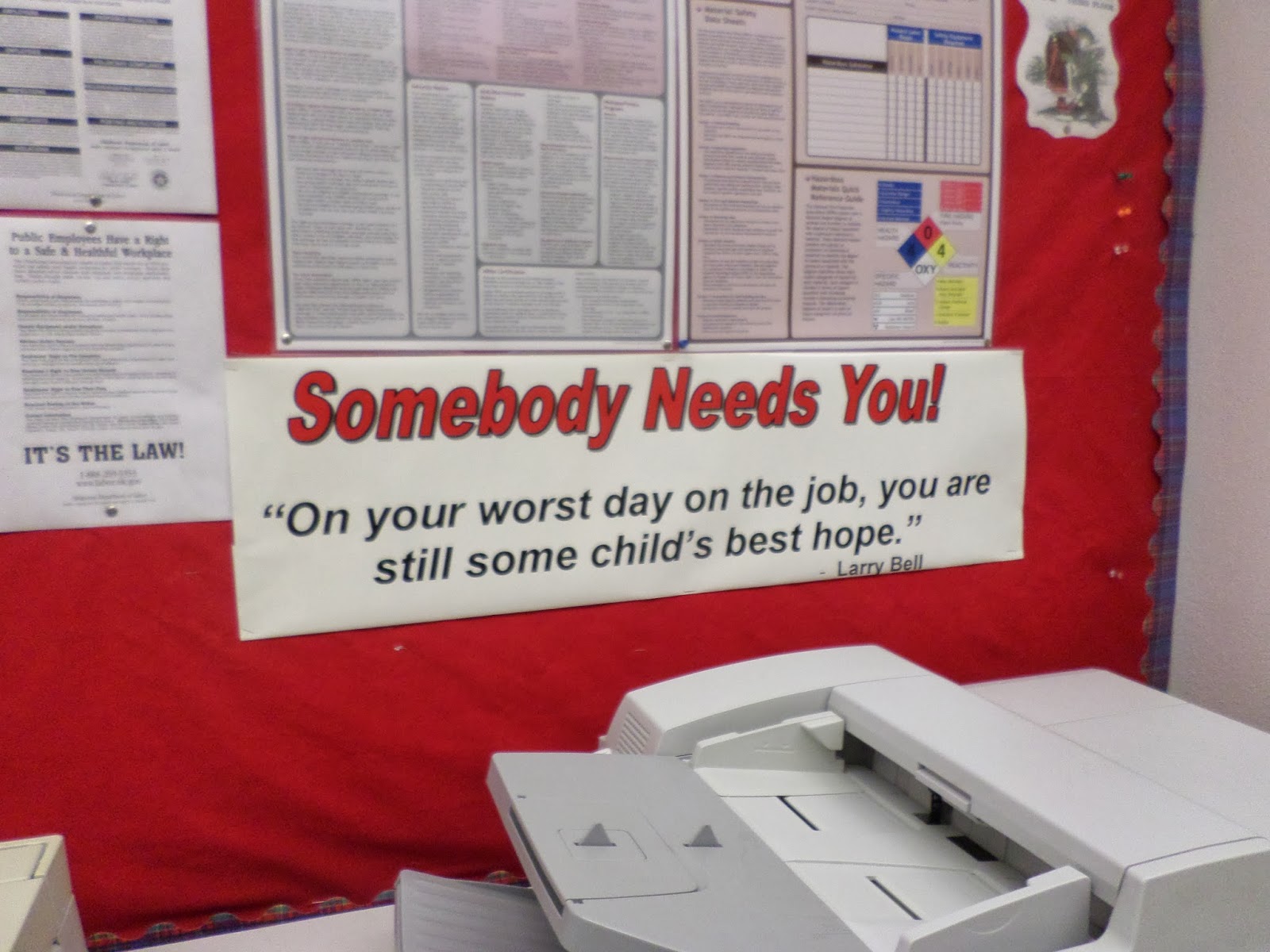
I have the power to change a student’s life. Let me rephrase that. I have the power to change a student’s day, to make it better or worse. And, the sum of those days forms a students’ life. So, my every decision changes lives. I teach in a small, rural school district, but, with the exception of gangs, we face most of the same obstacles faced by inner-city schools. Drugs. Lack of parental involvement. Students living with and being raised by people who aren’t even related to them. Most of their parents didn’t go to college. Many didn’t even graduate from high school. Many students have one or both of their parents incarcerated. I sit in meetings, and I hear the heartbreaking stories of the things they have had to go through. Abuse. Abandonment. Things I could never imagine going through.
And, it hurts. I want to be able to change things for them. But, I can’t erase their pasts. And, I can’t change the situations they find themselves in currently. I get overwhelmed by all that I can’t do. Sometimes I forget that there are things I can do. They are small things. But, they are powerful things.
Lately, I’ve been finding myself writing a lot of notes. It started after my birthday. I wrote a short thank you note to all of the students who brought me cake or cupcakes or a card. These thank you notes were meant to be a private thing, a small token of my gratitude. But, they were a bigger thing to my students than I realized. To me, it was just a note. To my students, it was tangible proof of their worth and value. I mentioned something to our special ed teacher one day about one of her students surprising me with a gift. She replied, “I know. She was so proud of that thank you note you wrote her. She had to show it to me.”
Then, Christmas came. Christmas gifts from students meant more thank you notes. After all, my mom raised me to send a thank you note after receiving any gift. I passed out thank you notes. And, I had students thanking me for their thank you notes. “Your note almost made me cry. I’m going to keep it forever.” When I heard this, I felt bad. I couldn’t have told you what I had written in the note. To me, it was just a note; I was fulfilling a societal expectation. To them, it was so much more.
While my students were taking semester tests, I set out to write some Christmas cards. One student stayed after school to work on bringing his grade up to passing. He saw my pile of Christmas cards that I had written to various family members, friends from college, and people from church. Unashamedly, he asked me where his Christmas card was. I tried not to act shocked. “Would you like me to write you a Christmas card?” He replied with a simple, “Yes.” Then, he stood at my desk and waited while I removed a card from the box and wrote a short note. I wrote the note, stuffed the card in the envelope, and scrawled his name on the outside. I handed it to him, and he walked away, satisfied.
A day or two later, I was once again talking to the special ed teacher. We were going through the list of IEP students in my classes and their current grades. When the conversation turned to the student who had been working in my room after school, the teacher told me how nice it had been of me to write him a card. “He’s been carrying that card around in his pocket all day and showing it to everybody! He’s so proud of it!” I filled her in on just how he came to have a Christmas card from me in his possession.
To me, if I had to ask somebody to write me a card, it would diminish the value of it. But, I forget that I grew up in a different world than most of my students. I grew up with two parents who are still married to each other to this day. I grew up, surrounded by people who told me how much I mattered to them. I never doubted that I was loved and would be cared for. I never wondered where my next meal would come from or who would pick me up from school that day. I had a life of constancy. I had a life of stability. I had a support system that I felt like I could truly depend on. These are luxuries that many of my students lack. I didn’t need a piece of paper to remind me that I was valued. But, what if my life didn’t look the way it did? I can imagine that having something tangible to hold onto would be a most meaningful thing.
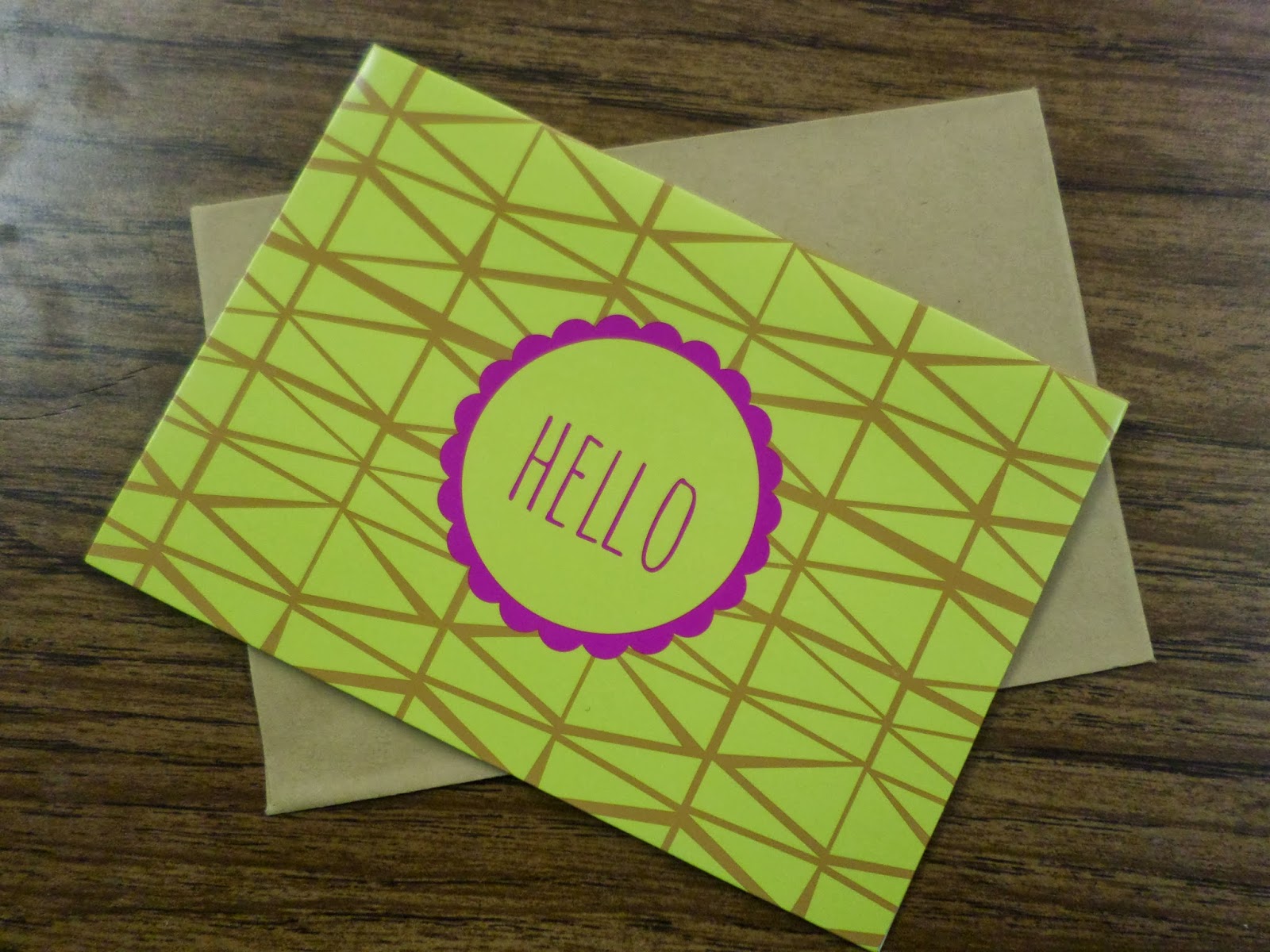
Most recently, Valentine’s Day brought the opportunity to write more thank you notes. I wrote cards to the three students who got me candy. But, I didn’t stop there this time. I wrote a note to a student who often comes in during her free period to help straighten up my classroom. I wrote a note of thanks to a student who stepped up and led the class when a fluke left me in a meeting and my class without a sub.
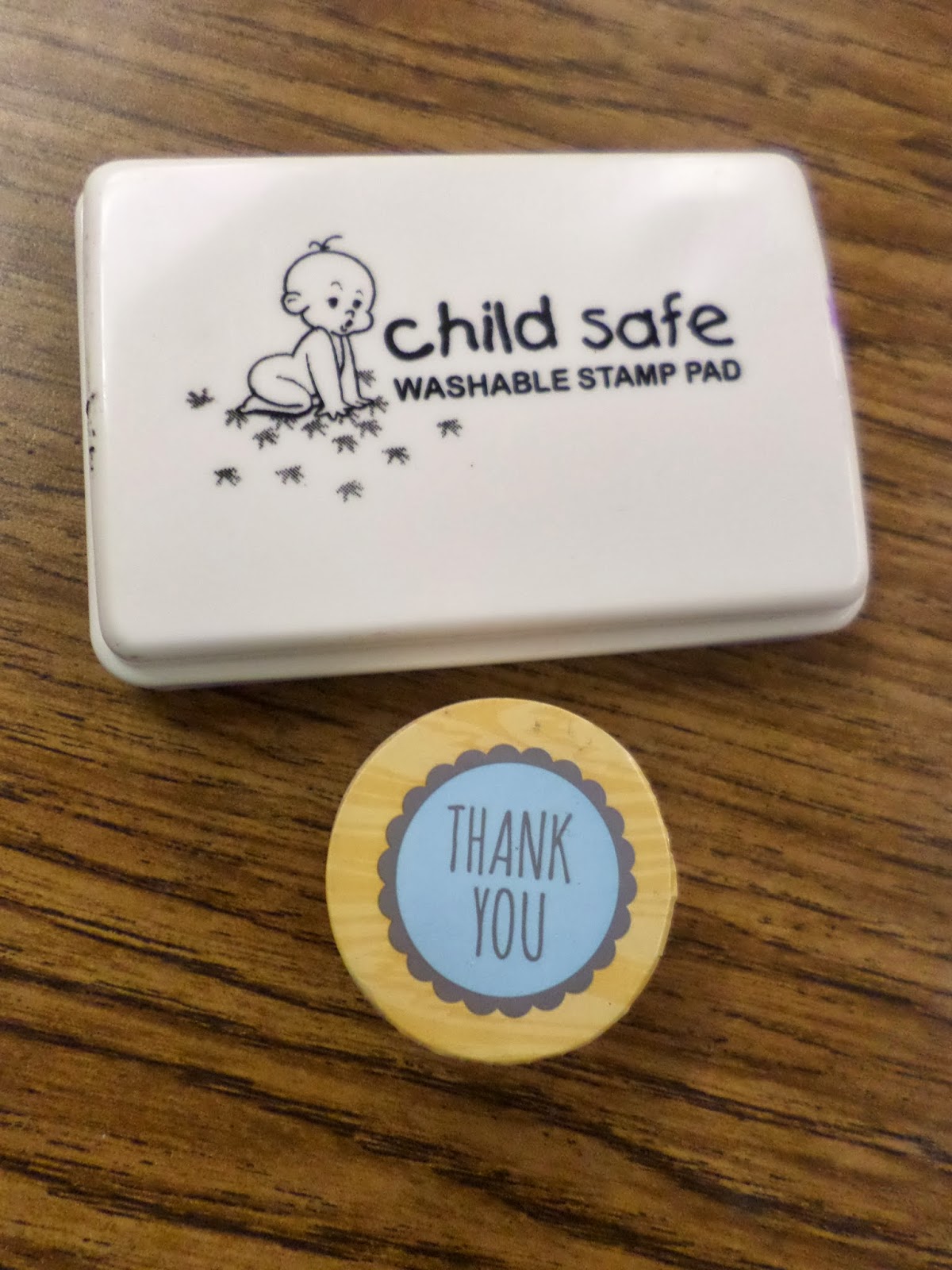
These notes cost me little to write. I buy packs of 8-10 cards for a dollar at Target or Dollar Tree. I picked up a cute “Thank You” stamp this summer from the Dollar Spot at Target. But, by now, I know just how much these notes mean to my students. As I was passing out some of these most recent thank you notes, one of my students questioned me: “Where’s my note? Why don’t I have a note in the pile? You should write me a note!” I wasn’t prepared for this question/demand. This student is an especially sweet one. She often comes in my room before school or at lunch to just talk. She is always leaving me sweet notes on the board, thanking me for being her teacher. Why shouldn’t I write her a thank you note?
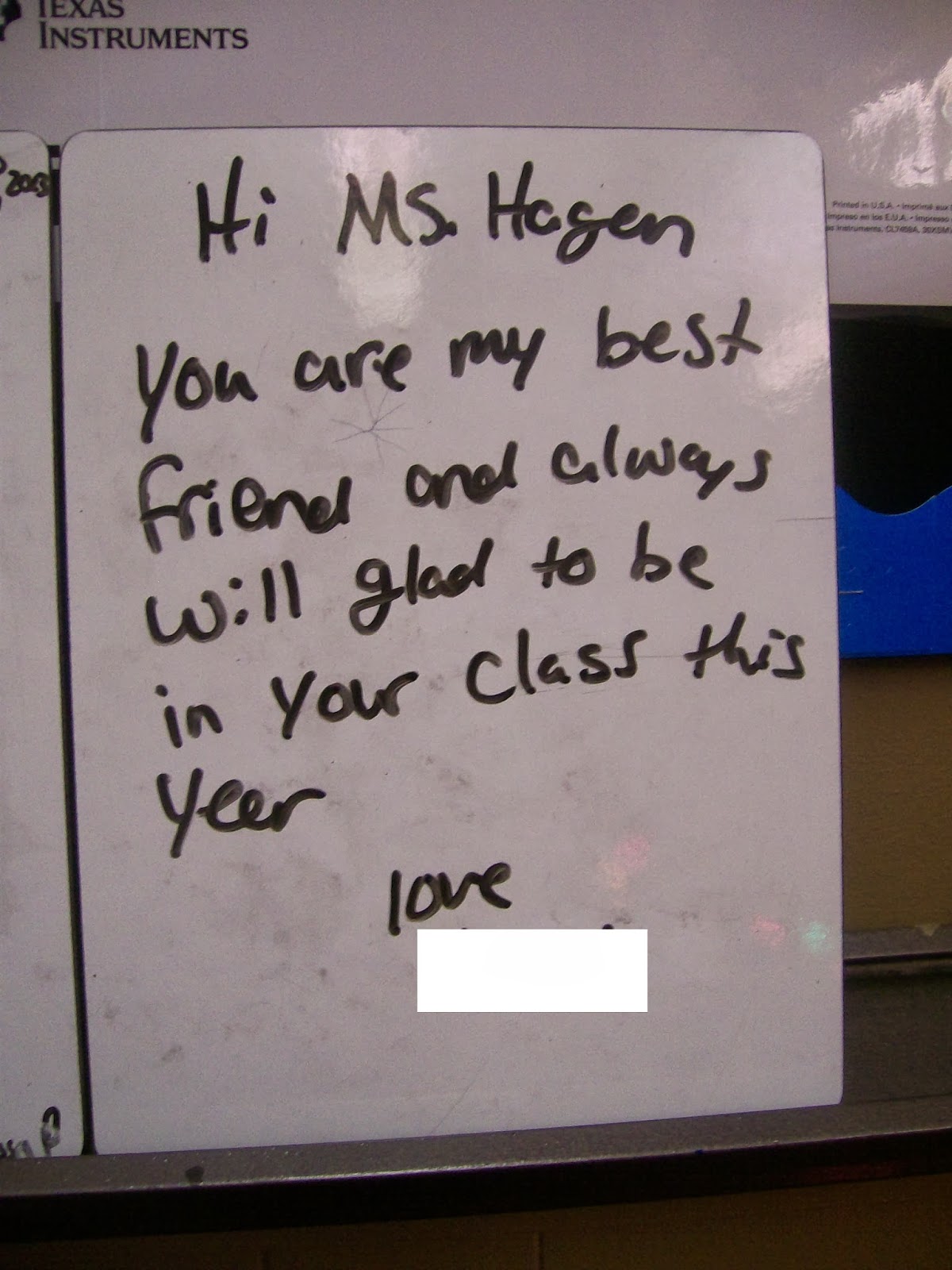
So, I sat down and penned her a note. I also penned a note to the other girl who was sitting in my room at the time. She often arrives early and comes to hang out in my room. We talk about movies and the best youtube videos. She tells me about getting her nails or hair done. It’s nothing deep, but I love that she feels like I am someone she can talk to. The bell rang to start the day before I could give either student their note. I gave one student her note when she came into my room for lunch. She excitedly read it and thanked me for her thank you note. I didn’t get a chance to give my note to the student who had requested one until that afternoon when I had her in class. After reading her note, she came up behind me, smiled, and said “Thanks! I love you, too, Ms. Hagan!”
Why have I focused so long on the things I can’t change for my students instead of things I can do? Maybe it’s the math teacher inside of me. I see the problems they face. I see what little I can do. The inequality is apparent. The problems my students face > What little I can do. That’s no excuse, though. If I can do something, no matter how little, I need to be doing it. I need to look at the inequality like this: The problems my students face > What little I can do > Zero/Nothing. A positive difference is exactly that. It’s positive. It’s greater than zero.
As this school year starts to wind to a close, I want to make sure every student gets at least one handwritten note from me. Will some throw them away without a second thought? Certainly. Will some thank me profusely? Yes. And, I’ll probably never get quite used to being thanked for a thank you note. I’ll never know the true impact of these notes. But, I’m not going to let that stop me. These students deserve this much from me. They deserve to be reminded that someone cares. They deserve something tangible that communicates the fact that they matter.
I’m inspired by Rebecka Peterson’s recent post on One Good Thing. Every Friday, students are allowed to write her letters about anything they wish. On Mondays, she presents them with a letter in response. How simple and yet amazing is this idea? How many students do I have who would write something in a letter that they would never be brave enough to ask me in person? So much of my time is spent managing the students who are loud, the students who misbehave. I end up missing forming connections with the students who are quiet, who always do their work, who never ask questions. They slip through the cracks, and this is not okay.
I realize this school year is almost over, but I’m going to give this a try. Next year, I want a mailbox to set by my desk. I want a physical reminder to students that they can talk to me about anything. If they’re too scared or shy to talk to me about it in person, they can write me a letter. And, I’ll write them back. I love opening my mailbox to find a letter or a card. I think all of us do.
If I was to write a poem about myself now-a-days, it would probably differ vastly from the ones I wrote in school. Adjectives that come to mind? Teacher. Life-impacter. World-changer. Difference-maker. Inspiring. Powerful.
I have no doubt. I am in the correct profession. This profession has empowered me to become the person I always knew I was meant to be. From here on out, I’m going to set out to not only changes the adjectives that come to mind when I think of myself, but I’m going to change the adjectives that come to my students’ minds when they think of themselves, too.
March 4, 2014 – Rational Functions And Killing Kittens
Did I get your attention with the title of my post? Before you call PETA on me, please read the rest of the post. I don’t want to kill kittens. You could say I’m in the saving kittens business. Confused? Let me explain.
My Algebra 2 students just started one of our last units on rational functions. We’re working on simplifying rational functions You know, factor everything. Cancel out factors, not terms. My students love, love, love to cancel out terms. Last year, I preached and preached about the difference between factors and terms. But, it didn’t seem to do much good.
This year, I decided to take a different approach. I gave my normal spiel. Okay guys. Today, we’re learning something new. Well, actually it’s not entirely new. We’re going to combine lots of stuff we’ve done before to do something we’ve never done before. Now, before we start, I want to warn you of an important rule. You can only cancel out factors. Factors are things that are being multiplied. You may never cancel out terms. Terms are things that are being added.
By this time, the eyes of almost everybody in class have glazed over. Or, they’re talking to their neighbors. Or, they’re trying to text somebody without me noticing. I realize they haven’t heard a word that I’ve said. That’s okay. I expected this. I was prepared for this.
Cue the next slide in my SMART Board file.
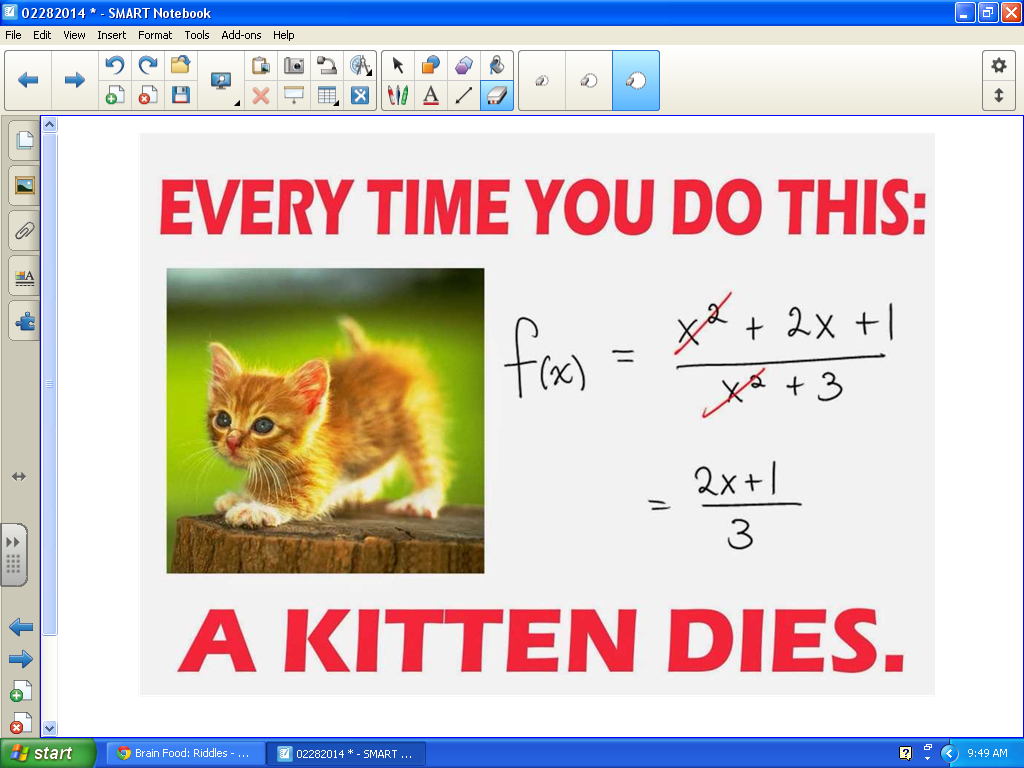
All of a sudden, I have the attention of my class. There is an audible gasp. Comments are made about how horrible of a person I am for wanting to kill a kitten. Eventually, a student asks, “Why would doing that cause a kitten to die?” Oh, I’m so glad that you asked! I hit the back button to return to my slide that talks about the difference between factors and terms. I once again remind them that they are only allowed to cancel out factors, not terms. We return to the slide with the adorable kitten. Are the x squared terms factors or terms? They are being added, so they are terms. And, we never, ever, ever cancel out terms!
Want a copy of this image or others to use with your students? I found this from Math Curmudgeon.
Some of the shock wears off. A few students nod their heads as if they understand. One student asks if she can take a picture of the screen before we move on. Sure!
And, this is how I became Insta/facebook famous. I love the hashtag. #savekittens
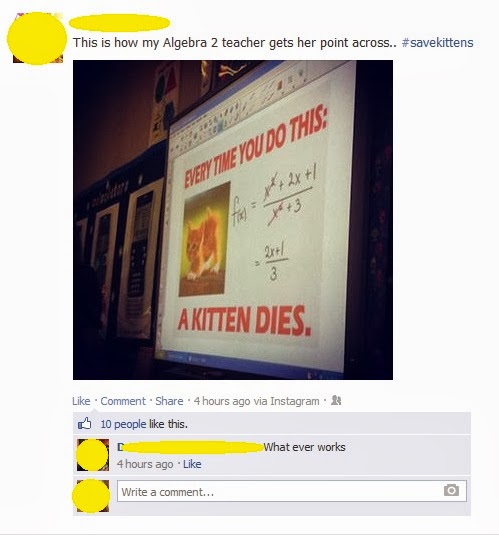
Students posting about math on social media? I can handle this.
We move on to practice problems. I put up a rational expression on the SMART Board. Students attempt to simplify it on their mini dry erase boards. They hold up their work for instant feedback. I continually warn them. Factor everything first. This allows you to cancel factors! Please, please, please don’t try to cancel out terms. Remember, every time you cancel terms, a kitten dies. And, if you try to cancel out terms, I will be forced to draw a dead kitten on the board.
We do well until we get to this problem: (35x-35) / (25x – 40). With some prompting, the students successfully factor out a five from the numerator and denominator and cancel them out. Then, another student suggests that we cancel out the x’s.
Oh no!!!!! You just killed a kitten. The x’s are terms, not factors. Oh no!!!!!!! Now, I’m going to have to draw a dead kitten on the board. I warned you this would happen. You should have been more careful.
By this point in the year, my students are very well aware of the fact that I cannot draw. So, they are eagerly awaiting to see what this dead cat will look like. I hadn’t exactly planned this far ahead, so I’m eager to find out what my drawing will look like, too.
After I draw the cat, I have a dilemma. How in the world am I going to make this a dead cat?!? I don’t want to do something too gruesome. Eventually, I settle on a red x through my cat. That should get the point across. My students are pleasantly surprised with how good my cat turned out. Though, they protest that the cat shouldn’t be smiling since it’s dead. I’m sorry. I’ve never drawn a dead cat before. And, this is the only way I know to draw a mouth on a cat.
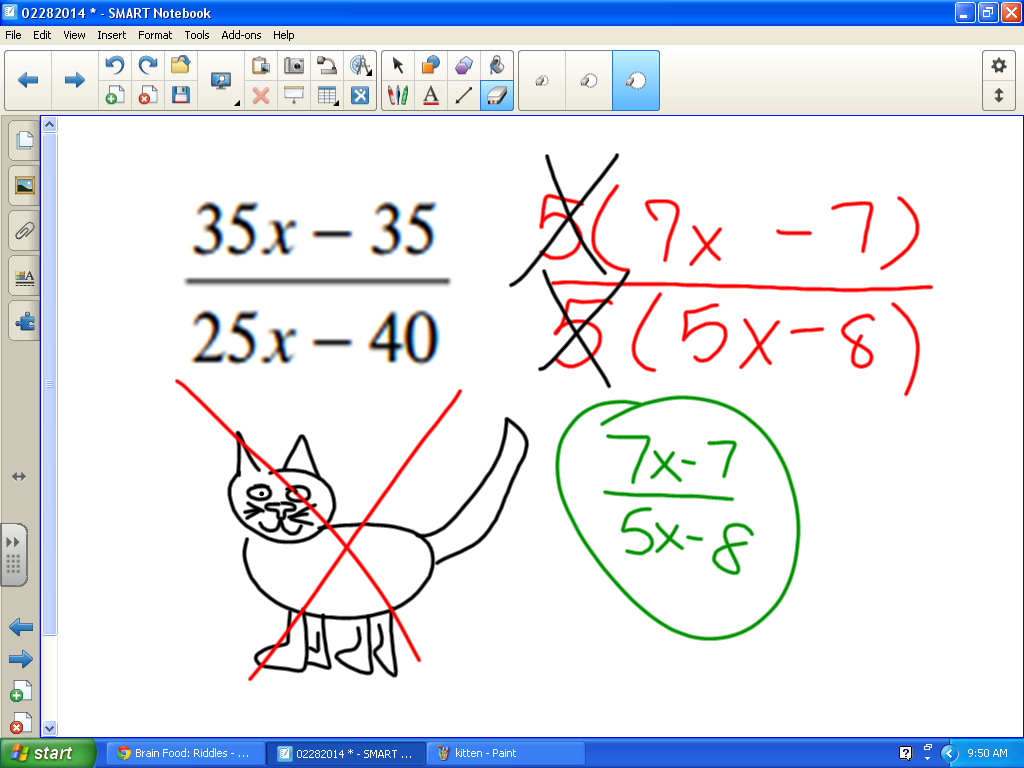
Another student decides we need a more permanent memorial to the cat our class has sacrificed today with our carelessness. She draws a cat and balances the dry erase board above my bulletin board. She even gives it a name. Pablo. Died February 28, 2014.
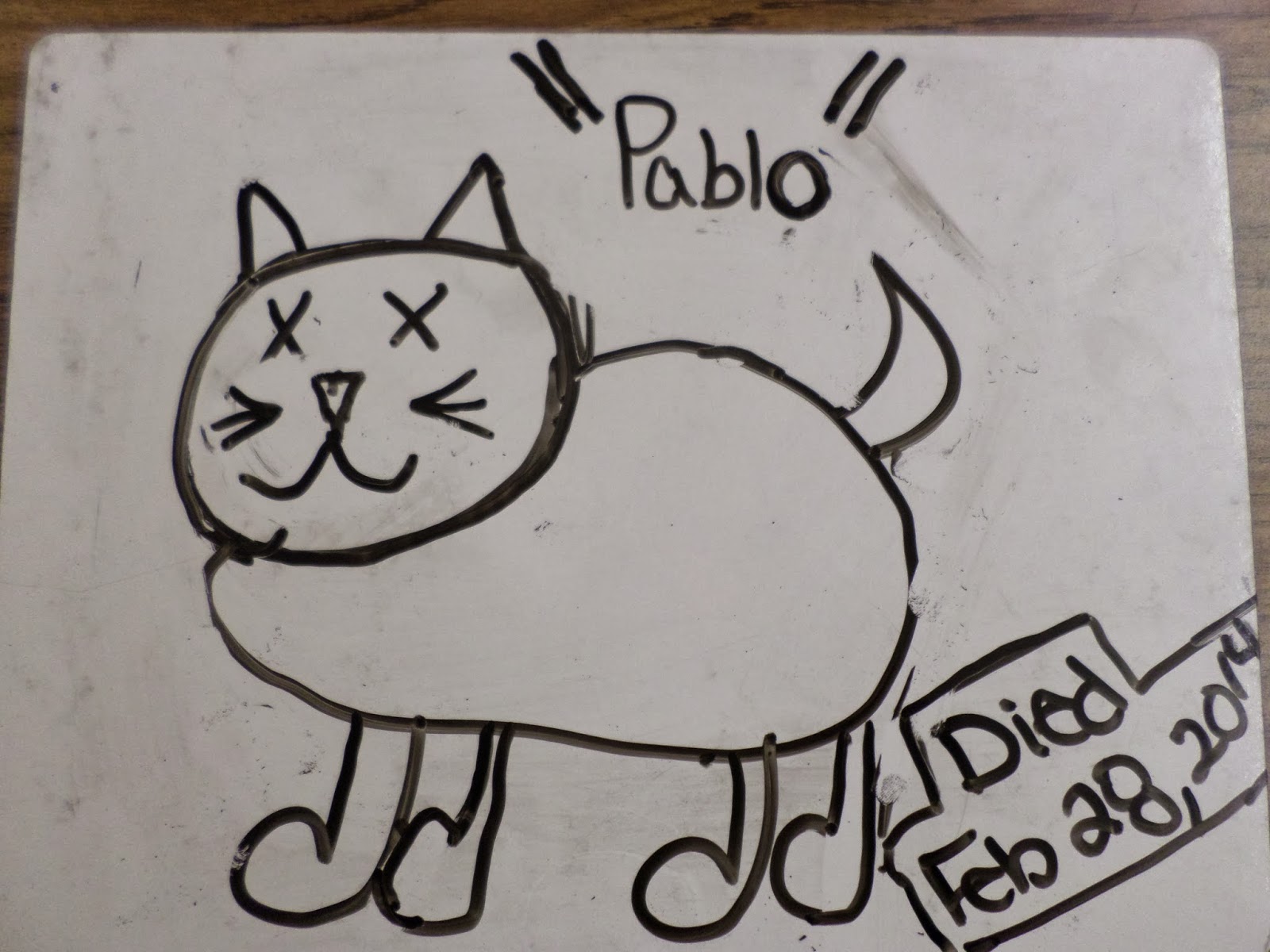
My afternoon Algebra 2 class comes in. Why is there a cat on the wall? You’ll find out. I give them an even more impassioned plea. 2nd hour killed a kitten. They killed a cat! Can you believe it? I was forced to draw a dead cat on the board as a result. Please don’t make me go through that nightmare again! Please, don’t kill a cat. Only cancel factors, not terms. My fifth hour is much more careful of their canceling. No kittens were killed during our first 50 minutes of simplifying. I can only hope that streak continues.
March 5, 2014 – Snow Days Number Five and Six
Oklahoma weather is crazy. There, I said it. Now, don’t get me wrong. There are a ton of things to love about this state that I call home. We’ve got the most beautiful sunsets in the world. Okay, I might be just a tad bit biased. But, seriously, our skies are gorgeous. And, the people here are the epitome of friendly. I grew up in a rural, small-ish suburb of Tulsa where waving at every passing car is an expectation. Now, I’m living in a true small town with population 2,909. It’s the type of place where your neighbor shows up at your school to offer you a couch. (I declined the offer. Apparently, someone had told him that I didn’t have enough furniture. That’s probably because I moved in over the span of a week, just a few pieces of furniture at a time. Don’t worry. My living room is nicely outfitted.) This is the same neighbor who stops by every six months or so to remind you where the closest storm cellars are. This past Friday, he stopped me while I was checking my mailbox to tell me that our local bank had been bought out by another bank. I needn’t worry, though, because the employees would stay the same. The name would be the only thing that would change. And, they would soon be issuing us new debit cards and checks. I didn’t have the heart to tell him that I actually banked with the bank that had bought out our local bank so none of this would affect me.
Yeah, there are some downsides to Oklahoma. Tornadoes are a major one. Drumright has been hit twice by tornadoes, once in the 50’s and once in the 70’s. They’re a way of life here. We’ve made them our school mascot. At times, it seems a bit disrespectful. We yell, “Go Tornadoes!” at sporting events. Maybe it’s not disrespectful. Maybe it’s more of a homage to the fact that this town sticks together and rebuilds in the face of adversity. Thankfully, I’ve never needed to seek out shelter in one on of my neighbors’ storm cellars since moving here. But, I have seen this town come together and rally when wildfires forced a city-wide evacuation. I witnessed families helping other families rebuild. Money, possessions, homes, hope. They were all shared.
Now that I’ve gone off on a sentimental tangent, let’s get back to the present. For the past couple of weeks, the weather has alternated between divine and downright chilly. One day, it’s warm enough to go out for a run. The next day, I’m wishing for my parka. Saturday, my sister called me to remind me that a snowstorm was headed in. And, like all Oklahomans do, I should probably go to the store to stock up on milk and bread. The weather was actually pretty nice. I didn’t even wear a jacket to the store. I stocked up on some essentials. Milk. Tortilla Chips. Cheerios. That’s what you’d stock up on too, right?
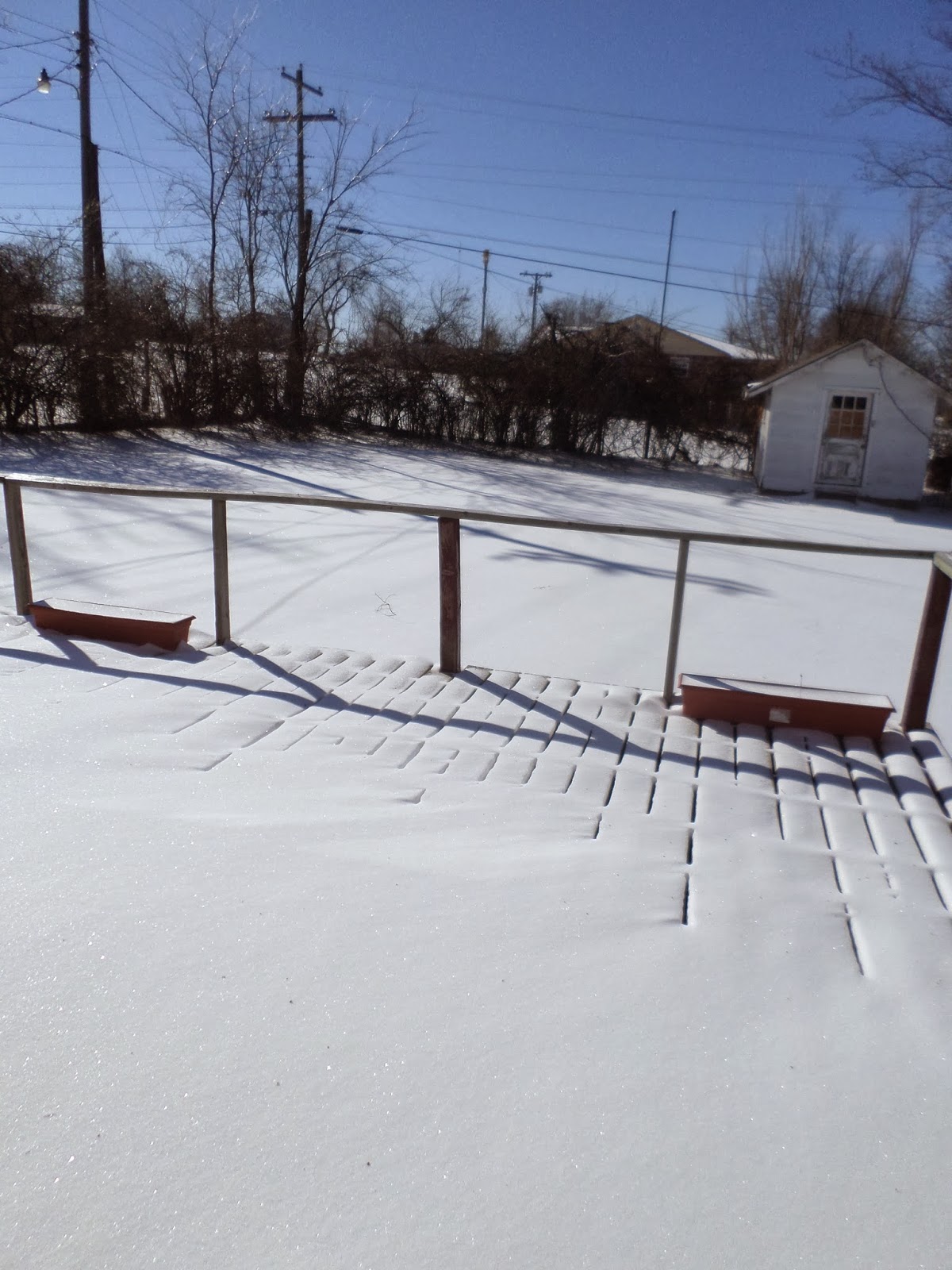
The snow came Sunday morning. Sunday afternoon, it snowed and sleeted and thundered all at the same time. Thunder Sleet. That’s what they called it. All, I know is that it was a weird sensation. Sunday afternoon, I got the call that school would be cancelled Monday. That would be Snow Day #5. It was a good thing, too. You couldn’t see the road in front of my house. On top of that, it felt like it was fifteen below zero. What did I do with my snow day? I read. I baked some cookies. I read some more. I stared out the window at the tracks filling my yard. That was a mistake. The snow was so bright that it made my eyes hurt.
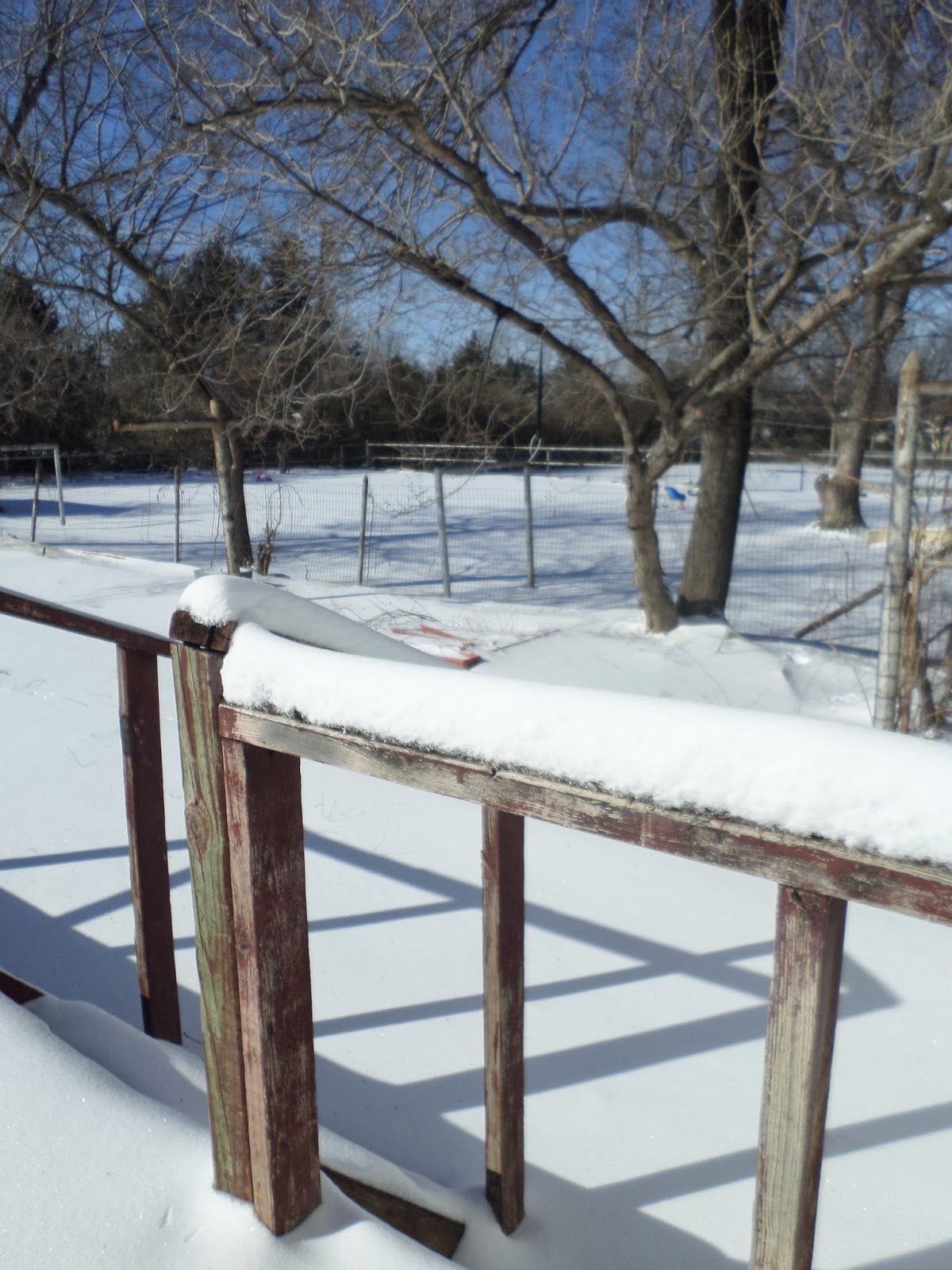
Yesterday was Snow Day #6. I read. I baked more cookies. I napped. I read some more. I browsed math teacher blogs. By the afternoon, the snow had finally melted enough to see pavement!
As much as I’ve enjoyed this unexpected time off to read and relax, I’m ready to be back at school. I’ve got too much to do in the next couple of weeks. Last year, we only had one snow day. So, having 6+ this year has been quite an adjustment.
Since this post is already a random hodgepodge, here are two other pictures I took last week.
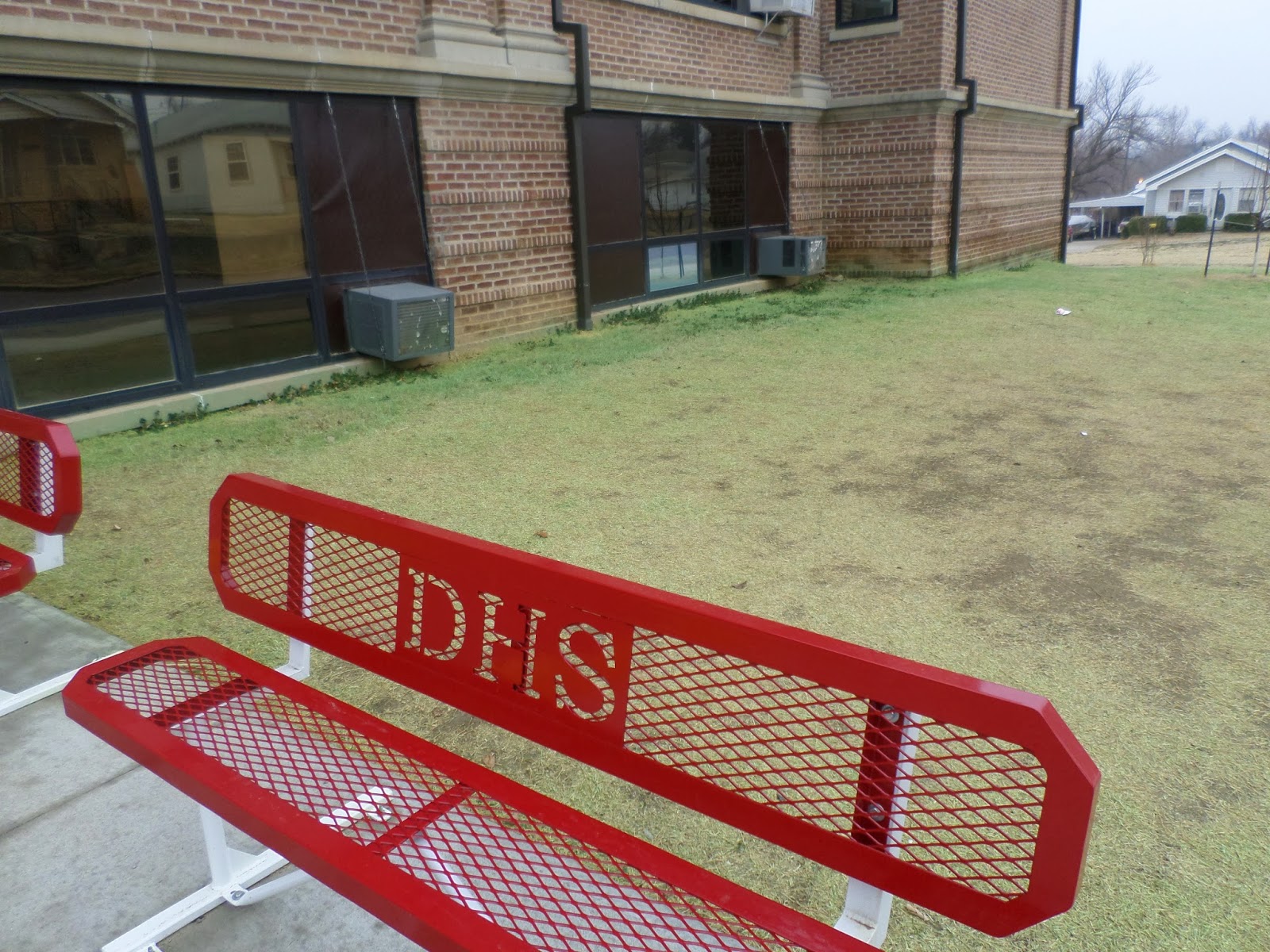
Last week, the school put down some type of fertilizer on the grass in front of the building. You know, the type that turns the grass an artificial green color. One day before school, one of my students came rushing up to me. “Ms. Hagan! Did you see the vandalism outside the school?!? Somebody spray painted the grass!” I hadn’t noticed any vandalism when I had came in the front doors that morning, but I walked to the front doors to have a look. “Why would someone spray paint the grass green? That doesn’t make any sense!” I had to stifle back a laugh. That’s not vandalism, and it’s not spray paint. It’s fertilizer. “Why would they make the fertilizer look like green spray paint?” Well, they do that so they can see where they’ve sprayed the fertilizer. This seemed to satisfy my student’s curiosity. I’m not sure I will ever look at this artificial green application of fertilizer quite the same after this conversation!
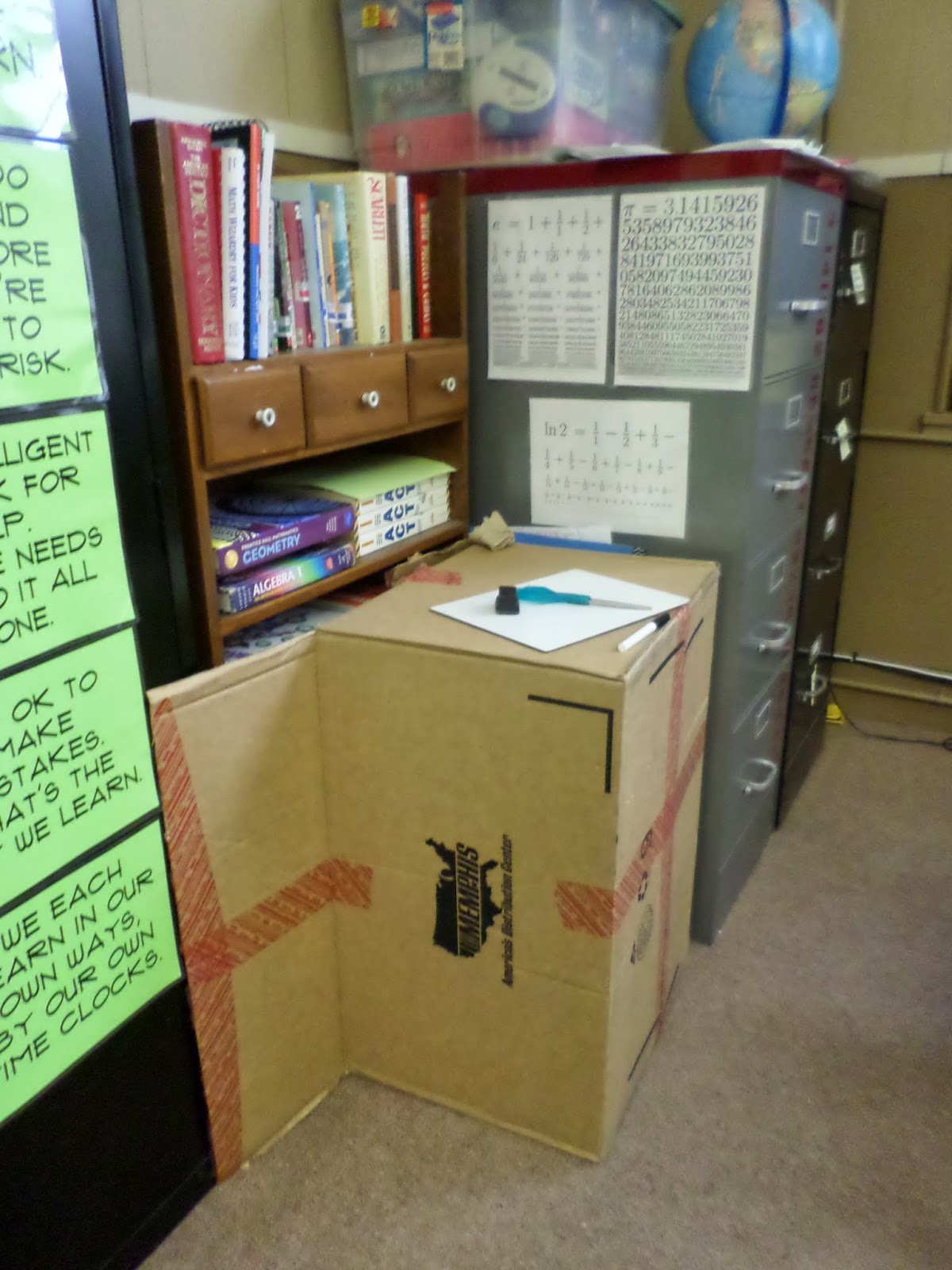
And, a short rant. Why do students feel compelled to rescue cardboard boxes that are going to be thrown away and store them in my classroom?!? I don’t have enough room in my classroom for all the stuff I have in there right now. Yet, the cardboard boxes keep showing up. And, I keep sending them back out. Unless, of course, I can come up with a math project to use this box for…
March 6, 2014 – Winding Down
As this school year starts to come to a close, I’m reflecting on what worked and what didn’t work. Yes, I realize it’s only the beginning of March. We haven’t even had Spring Break yet. But, I’ve woken up to the realization that I have 20 school days left with my students before end-of-instruction testing begins. 20 days. 20 days! I did this counting on Friday when our counselor e-mailed out the standardized testing schedule. I pulled out my calendar and counted. 23 days. Then, we had two snow days. Awesome.
I’m currently working on a plan to figure out how to tie up all the lose ends before testing. My Algebra 2 students have yet to do polynomial long division, solving rational equations, composition of functions, or operations with functions. My Algebra 1 students still need to learn solving systems by substitution, solving systems by elimination, graphing linear inequalities, graphing absolute value graphs, and simplifying radicals. My, oh my! It is going to be a sprint to the finish!
You could say I’m in panic mode. Want to see where my priorities are, y’all? I’m even more panicked than I felt when I saw this a few weeks ago. There’s nothing like a facebook app telling you that you have 23 days left to get married. I took a screenshot of this, hoping to spark a good conversation with my statistics students. Why is or is not this a representative sample of my facebook friends? What are the dangers of drawing conclusions from this? I still need to get around to this…
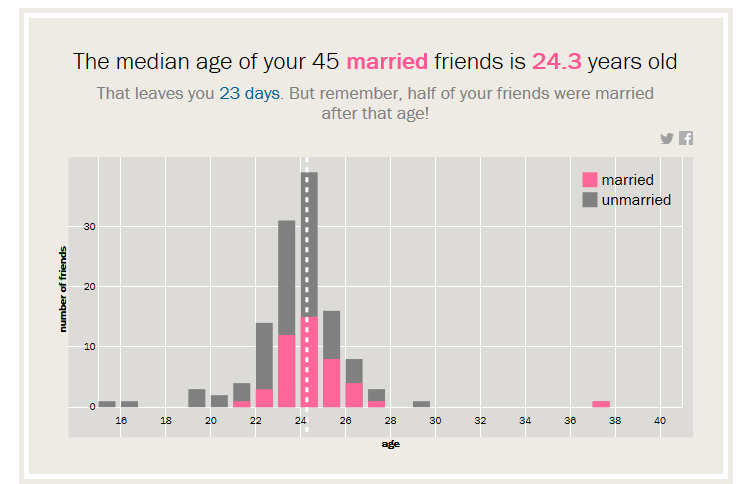
March 7, 2014 – Student Council District V Meeting
So, even after writing 273 blog posts, I’m still not exactly sure what people want to read about. If y’all haven’t noticed, I just tend to write about everything. Foldables. Games. Lessons that didn’t go quite as planned. Books I’m reading. Funny things my students say. Student council projects. Commentary on the weather.
Last Wednesday, I took a group of six student council members to our district meeting in Ponca City. If you’re unfamiliar with your Oklahoma geography, Ponca City is practically in Kansas. As you drive north to Ponca City, the highway signs read: “Ponca City X miles; State Line Y miles.” District meetings are an opportunity for students from various student councils across our region of the state to come together to listen to a speaker and complete a service project.
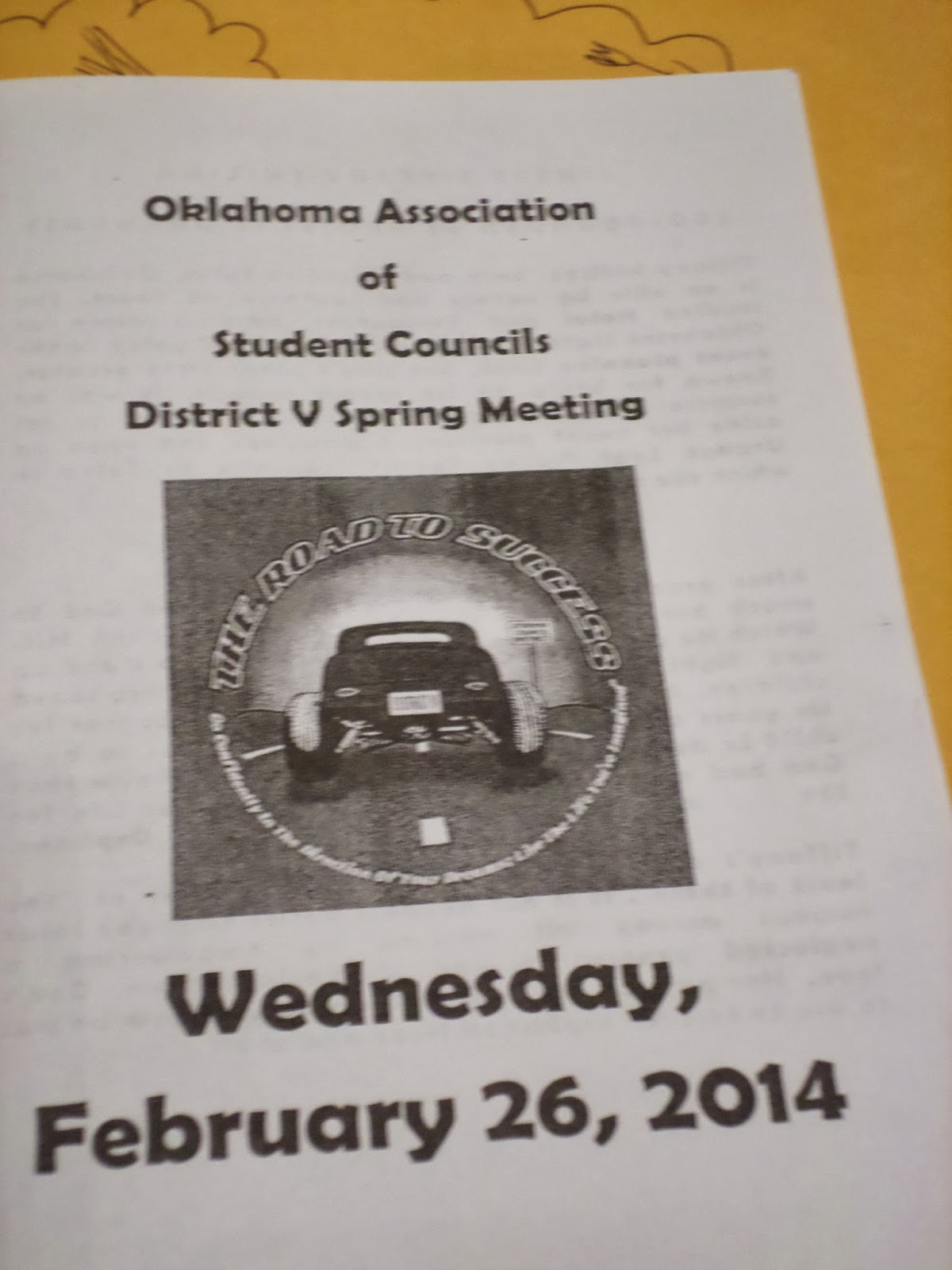
The theme for our meeting was “The Road to Success.”
The Ponca City High School Student Council did a great job with the decorations!
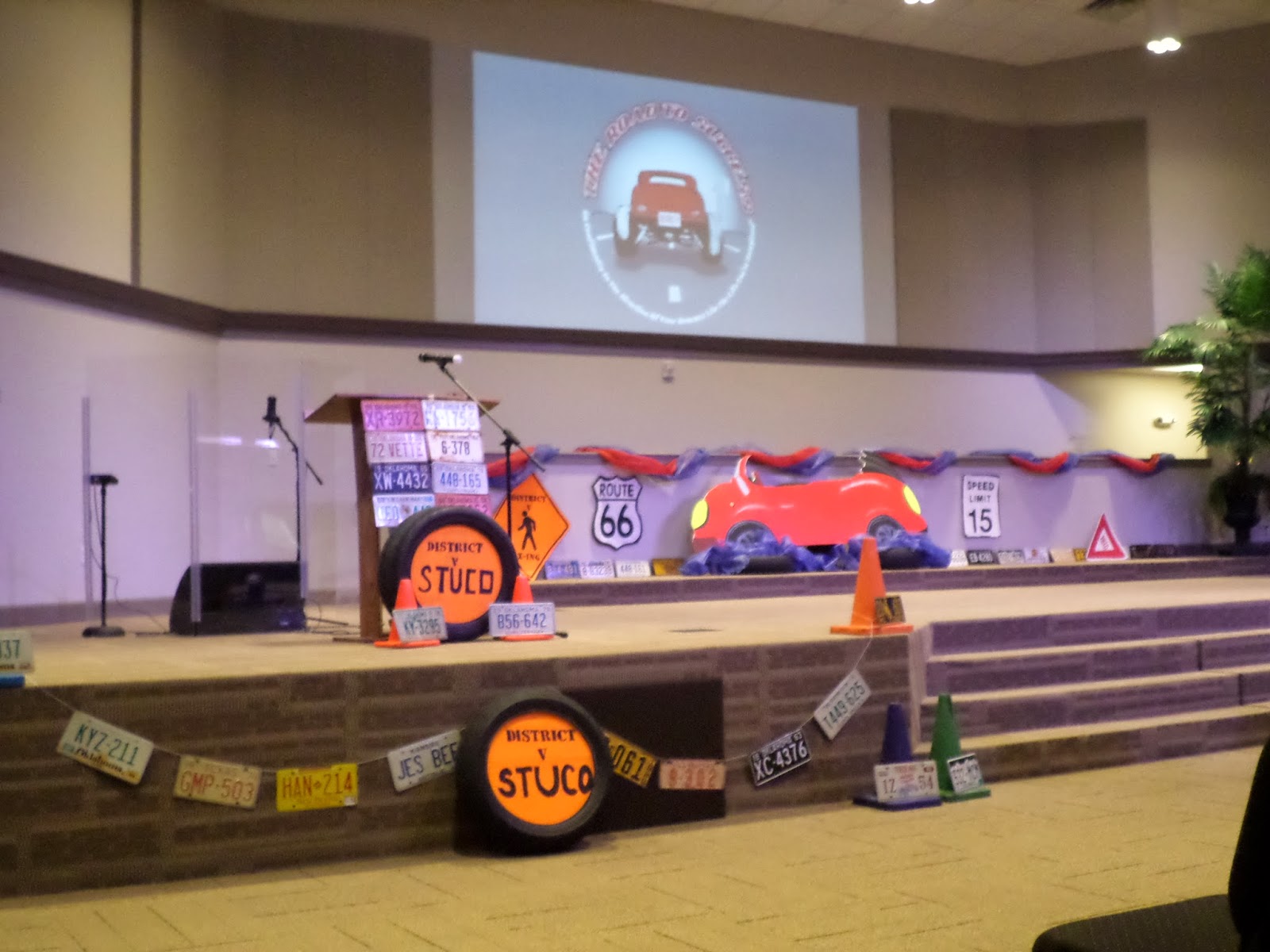
While waiting for the program to start, we enjoyed muffins and donuts. I took this time to draw a picture on the back of our envelope of registration materials. Keep in mind that I am not an artist.
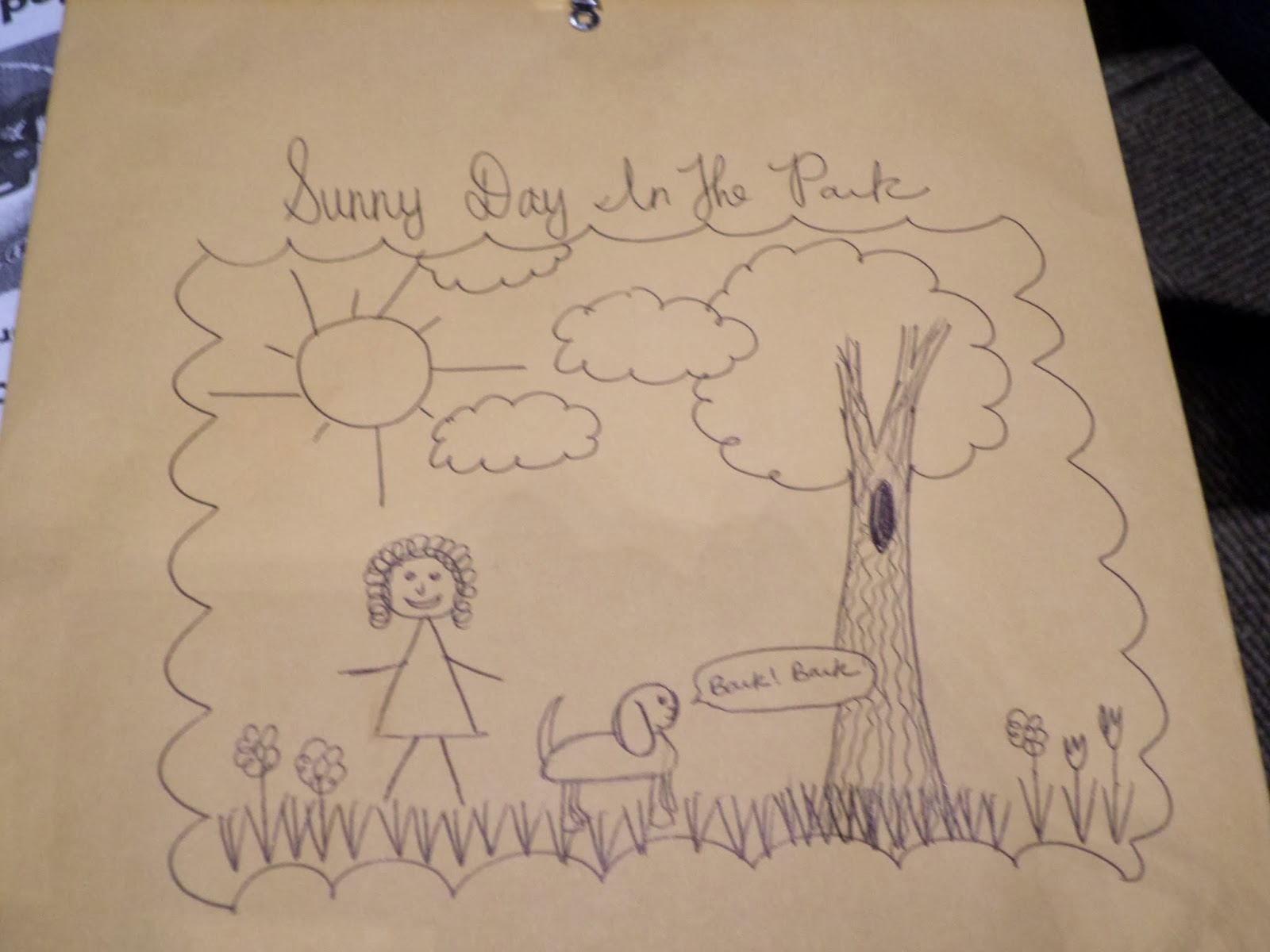
Yeah, I think I’ll stick with teaching math.
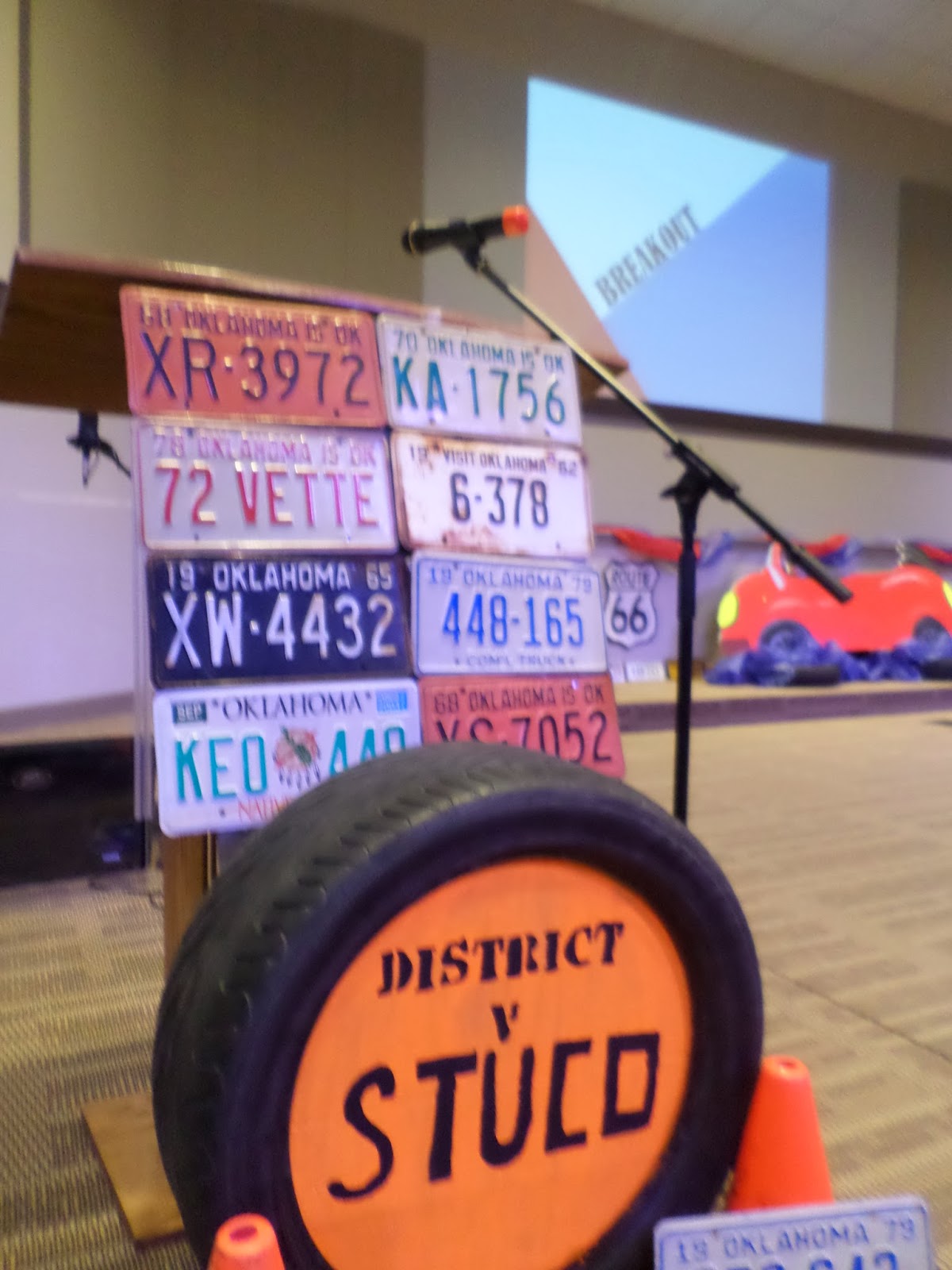
I love how they used the old license plates to decorate with!
The highlight of our trip was the speaker, Tiffany Smiling. Tiffany is an entrepreneur and founder of Project Orphans. Project Orphans is a charity that was created to build and staff homes for orphans in Uganda, Jamaica, Burma, and Haiti.
Tiffany was a powerful speaker with a powerful story. If you have time today, I would suggest that you spend some of it listening to Tiffany tell her story of overcoming a childhood diagnosis of a rare form of brain cancer and doing what others deemed impossible. It’s not quite twelve minutes long, and I think it will be well worth your time. My students left inspired, and they couldn’t quit talking about how touched they were by her story.
If you can’t see the video embedded below, follow this link to youtube. Warning, you might want to make sure you have a kleenex handy.
March 8, 2014 – Blood Drive
One of the things that has been keeping me busy for the past couple of weeks is getting everything ready for our blood drive at school. Student Council was volunteered to help run the blood drive, and I’m in charge of Student Council. So, it’s only naturally that I’m now semi-in-charge of the blood drive.
Have I mentioned that I know nothing about coordinating a blood drive? I’ve never even donated blood before. I’ve always had trouble getting blood drawn, so I’ve always assumed I would have trouble donating blood. Seriously, I’m that patient that goes to Urgent Care and leaves with the nickname of Pin Cushion because it takes 2 nurses and 2 doctors to finally draw blood. It’s not a good sign when the doctor says, “Wow! I’ve never seen anybody with veins quite like yours before. I give up. I’m not poking you again. Somebody else will have to draw your blood.”
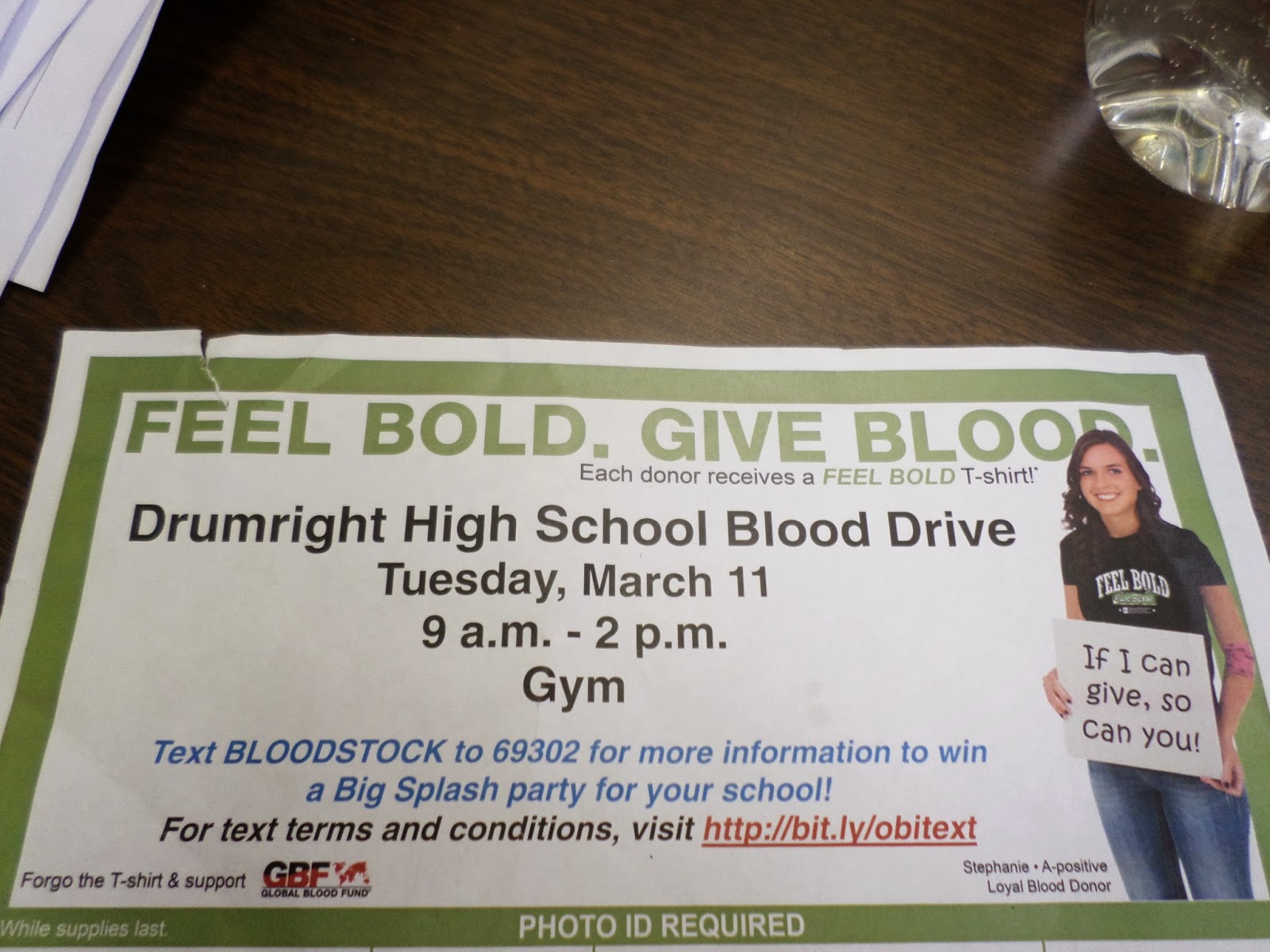
I kind of took over the trophy case with blood drive reminders. I hung up a poster, a sample of the t-shirt people will get for donating, a poster with QR codes that can be scanned for more information, and a gigantic sign-up sheet.
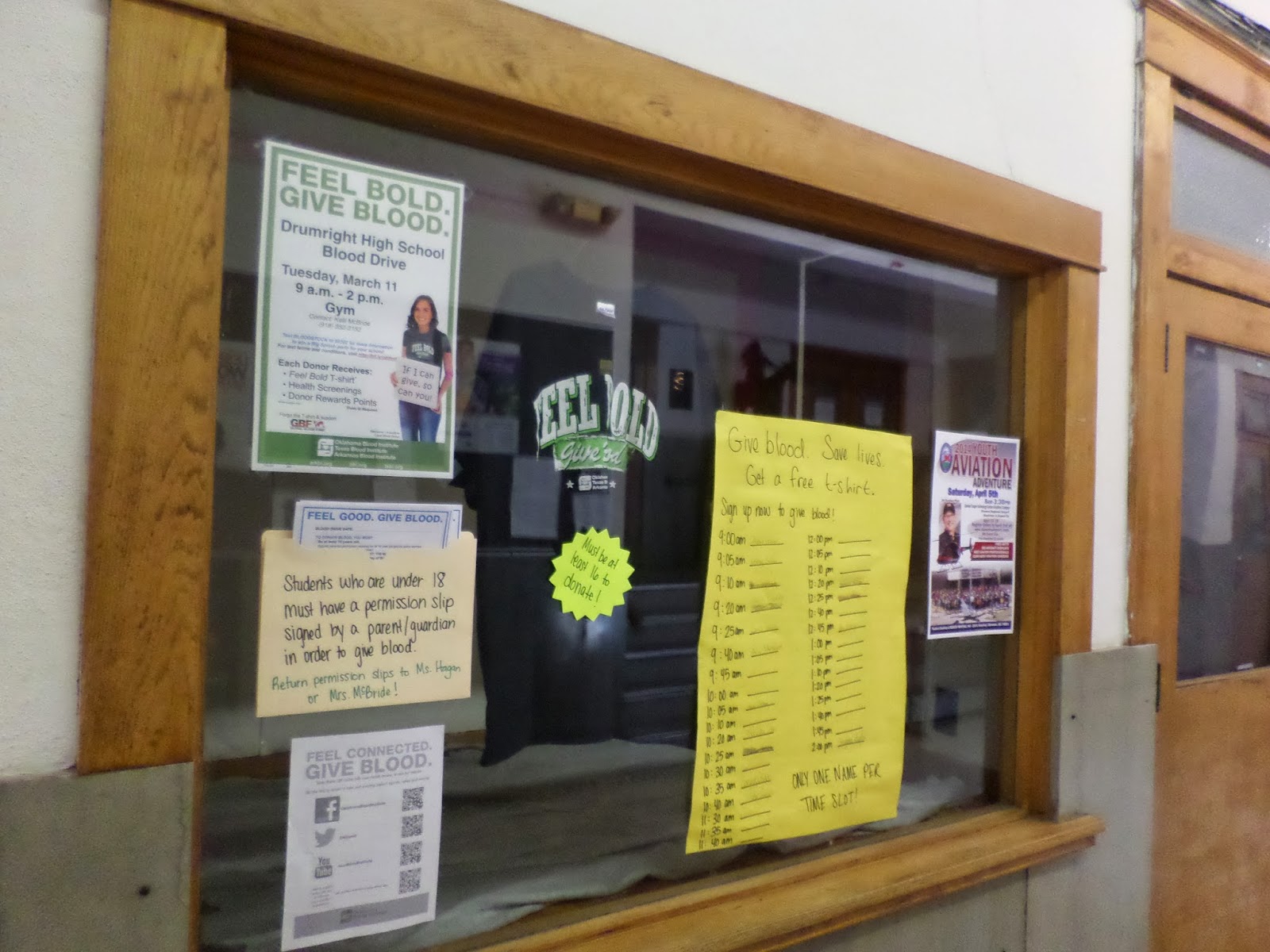
I’m hoping our turnout is good for this blood drive. Thanks to our recent snow storm, the Oklahoma Blood Institute had to cancel multiple blood drives. So, they are relying on our blood drive to have a good turnout in order to hopefully avoid shortages.
Anyone have any advice to offer a first time blood drive coordinator? I definitely need it!
March 11, 2014 – Math + Art = A Beautiful Thing
Happy Monday!
After over thirteen hours at school today, I’m happy that Monday is almost over! We had parent/teacher conferences this evening from 3:30-6:30, and we’ll do the same tomorrow night. That makes for a very long day, but I guess we do get out of school on Friday to make up for it. Of course, that means my Pi Day celebration has been thrown off once again. One day, I will actually celebrate Pi Day with my students on Pi Day!
Spring Break is coming, though! 3 more days. 1 blood drive. 1 more night of parent/teacher conferences. 1 STEM Day Engineering and Math Contest. Yup. It’s going to be a busy, busy week! I guess it will just make Spring Break that much more sweet…
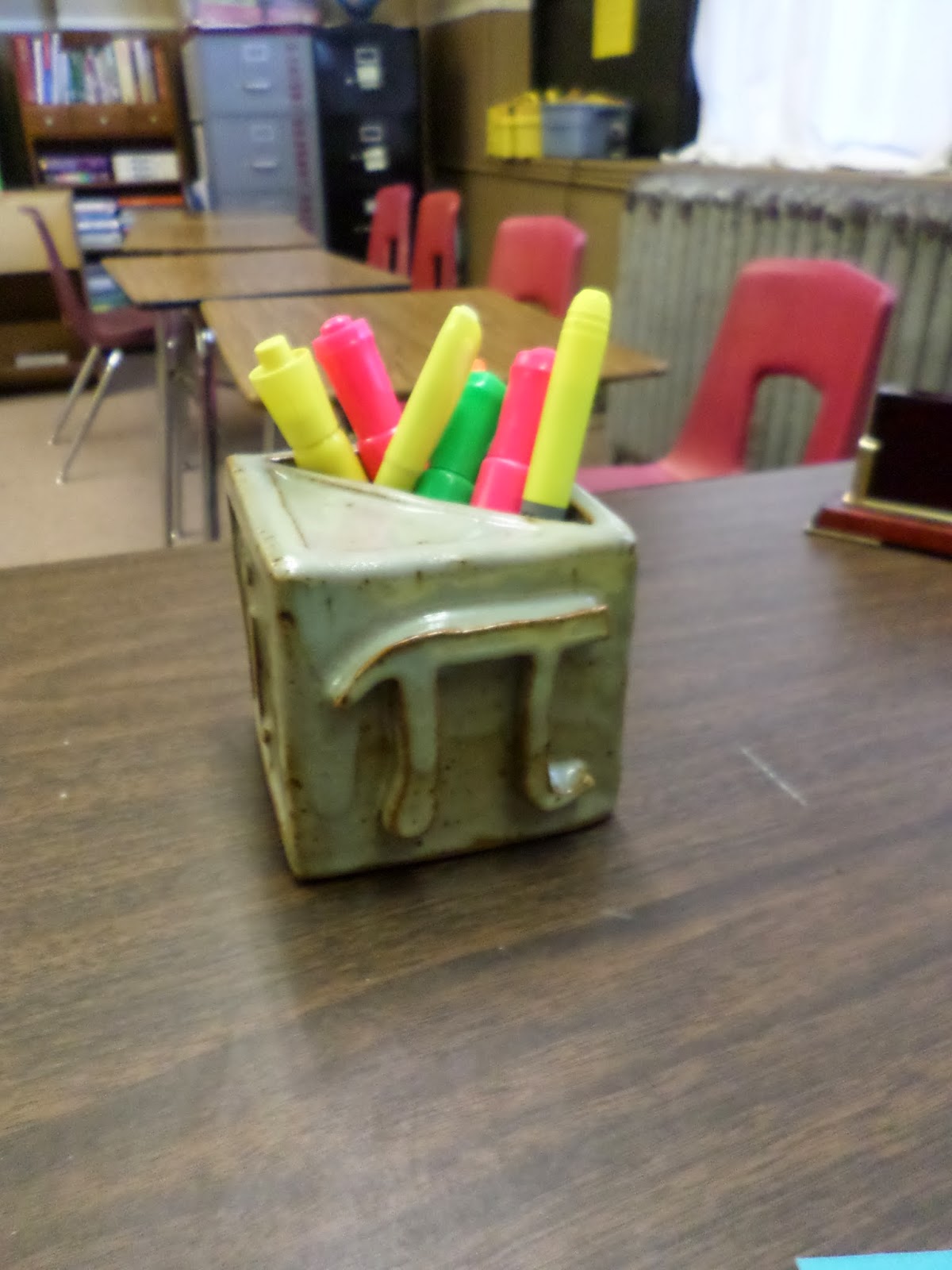
In other news, I got a new desk decoration that I haven’t been able to take my eyes off of today. It’s beautiful, it’s mathematical, and it’s courtesy of my amazing, artistic sister. She made this last semester as one of her pottery projects. Then, she fired it and glazed it. I LOVE it! It fits my personality perfectly. And, it definitely reminds me of Frankoma Pottery.
Each of the four sides features a different mathematical symbol.
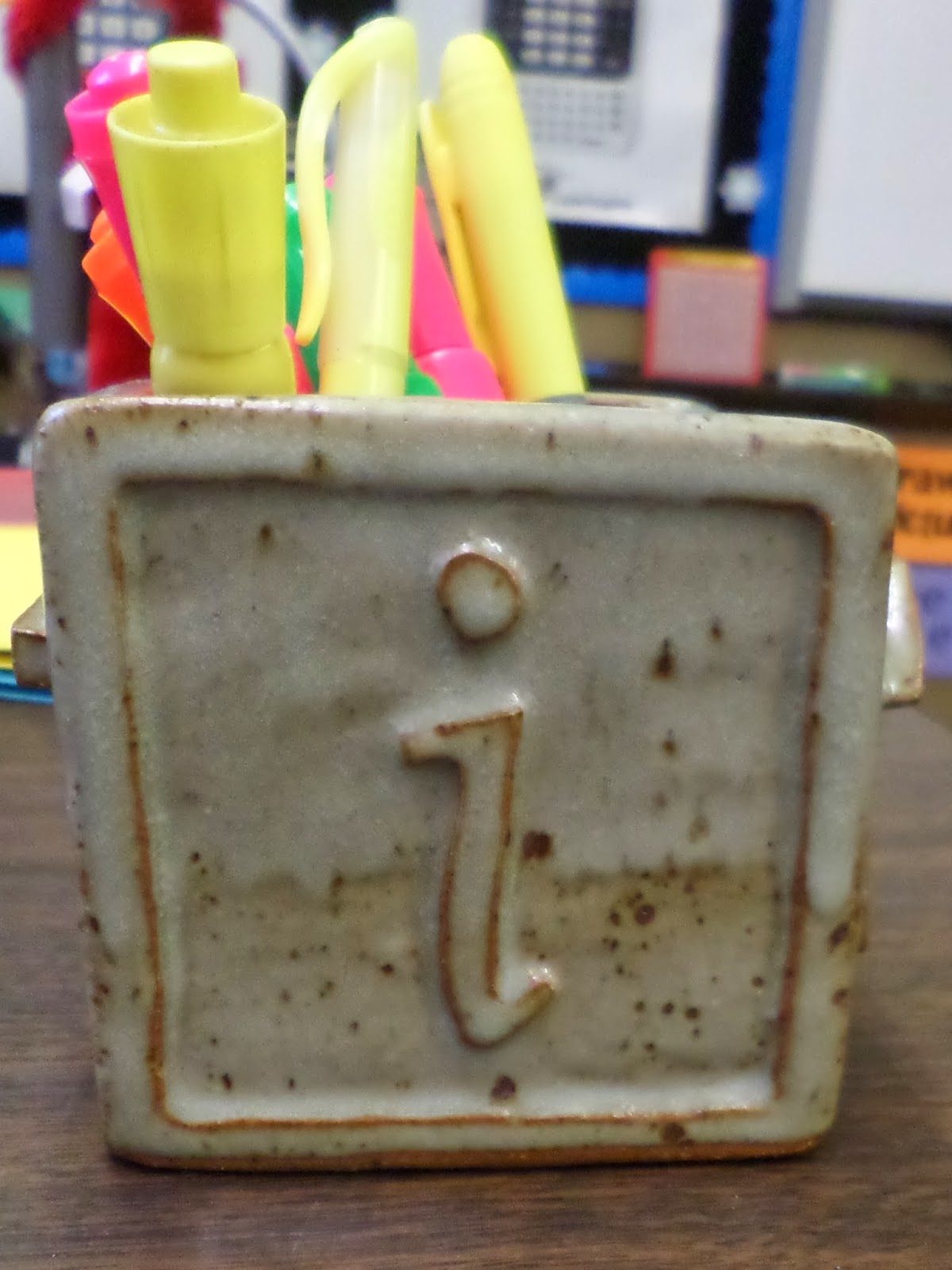
Today, I had a student stay to complete some missing assignments during parent/teacher conference time. This student’s sister, a 7th grader, was stuck in my room for 2+ hours. She looked at all my posters, played with my various mathematical toys, and spent a good chunk of time trying to solve my Rubik’s cube. One of the first thing that caught her eye was my new pencil/highlighter holder. Oooh! That’s the pi symbol. And, it has a square root symbol on this side. And, this means infinity. Then, she got to the side featuring i. What is this? Her brother quickly piped up that i is the square root of negative one. I could see the wheels inside her head turning as she tried to figure out the square root of negative one. That’s negative one, right? What’s negative one times negative one? Positive one. So, that means negative one cannot be the square root of negative one. The next thing I know, her brother and I are discussing where i would be on the number line. These are the types of conversations that I LOVE!
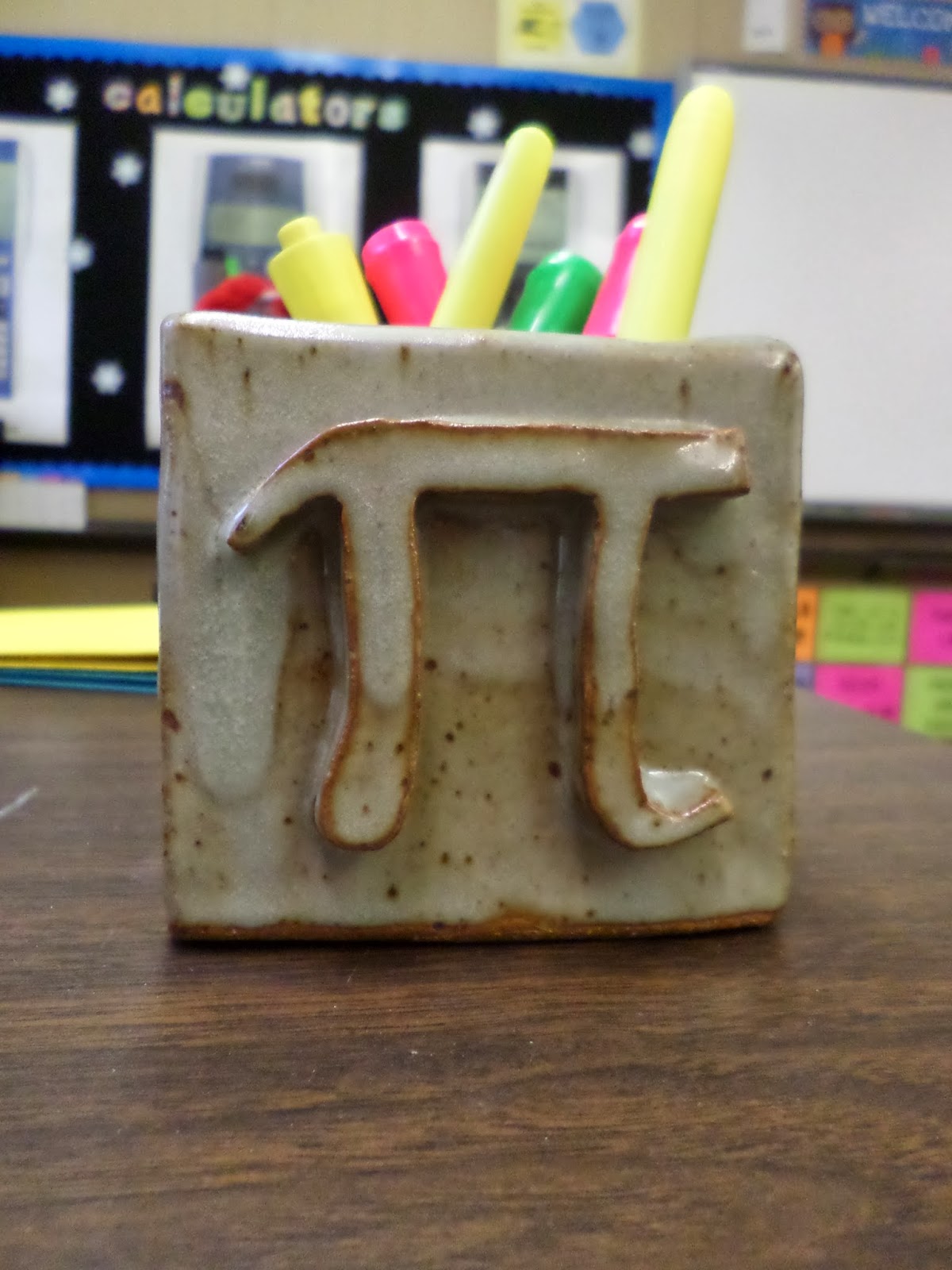
We discussed the number pi and how it goes on forever. I have issued a challenge to my students to memorize as many digits of pi as possible for our early Pi Day celebration on Wednesday. Today, I handed out slips of paper to my students with the first 1000 digits of pi. One student immediately asked, “Where’s the pattern?” There is no pattern. Pi never repeats. That’s why it’s irrational. “Oh man! That was how I was going to win. I was just going to memorize up until the point that it started repeating…”
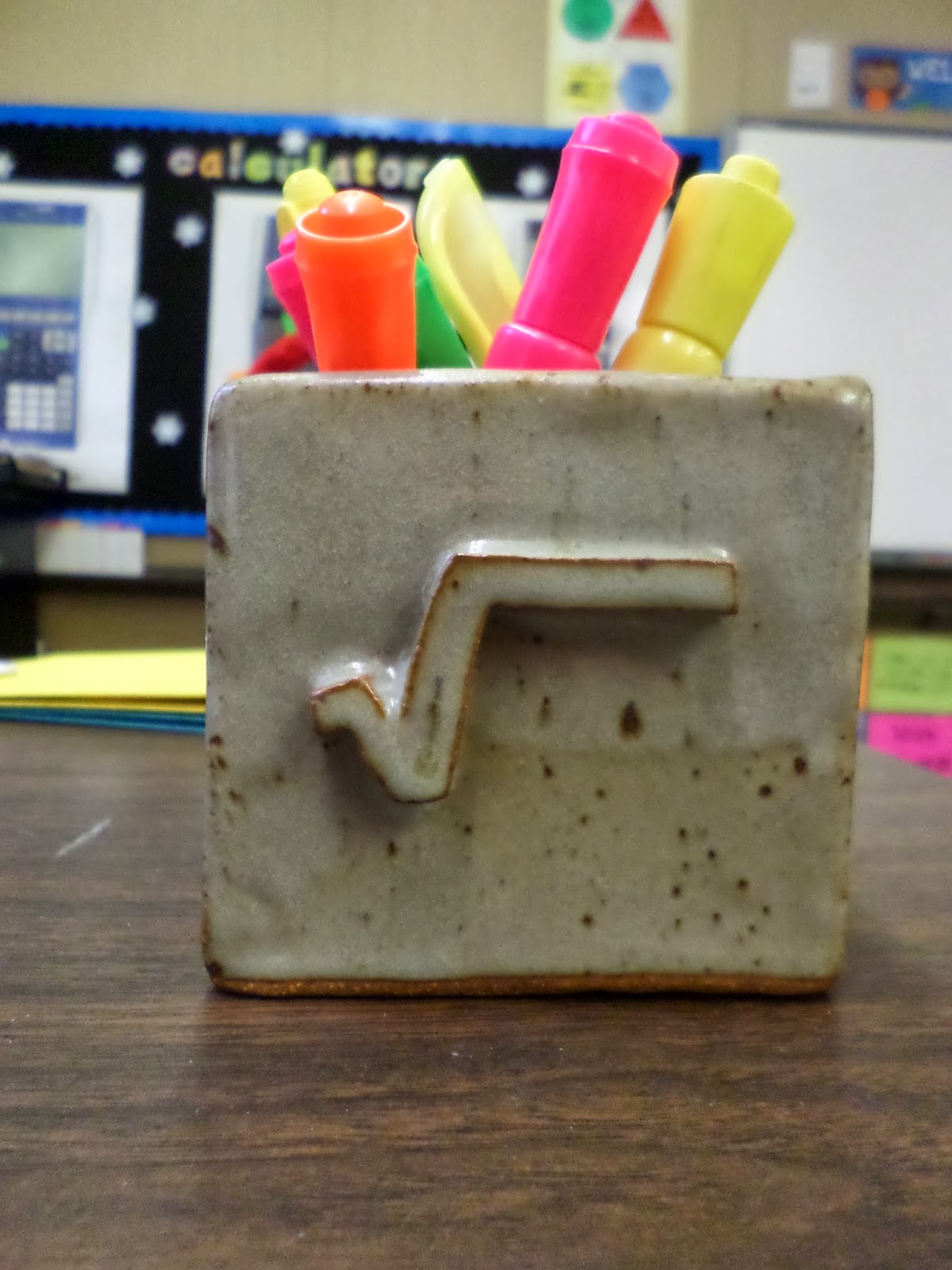
Art that sparks mathematical conversations? Yeah, I’ll take that any day!
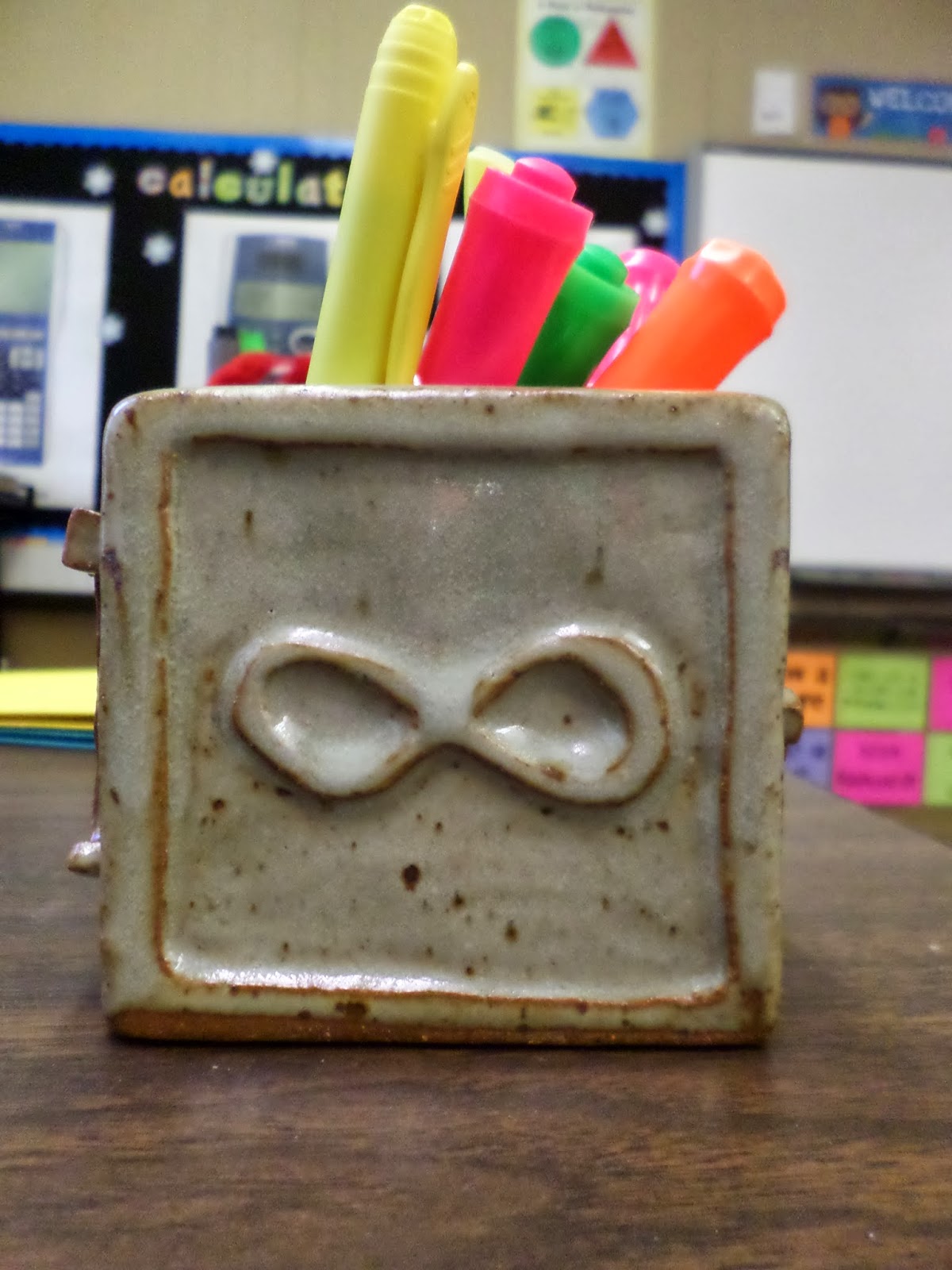
March 11, 2014 – Things Teenagers Say Volume 9
Join me today for Volume 9 of Things Teenagers Say. This is my regular round-up of the crazy and memorable things I hear my students say in class. It’s been a little while since my last edition of Things Teenagers Say.

You look like you’re dead.
Thanks! I blame the document camera.
—
Student A: You’re 23, right?
Me: No, I’m 24.
Student B: Of course she’s 24. We’ve only been talking about it ALL year.
—
Student: Your legs are so tan!
Me: It’s called panty hose.
Student: I know. I just can’t stop looking at your legs.
—
Me: And, we know that the slope of every vertical line is undefined.
Student: Is that language really necessary?
Oh no! I just used the worst curse word ever in math and in algebra in class!
—
There are 51 states, right?
—
You say “Uno” when you have two cards left, right?
—
Me: Unless you are texting someone that today is your math teacher’s birthday, your phone should NOT be out!
—
What do you get when you combine nutella and salmon?
Salmonella
—
Student: I’m glad you didn’t give us a test today. We’ve had like 8 tests today.
Me: It’s only 6th hour.
—
While doing a worksheet that asks students to write an inequality symbol that correctly compares two students.
Student: I need some help.
Me: Okay. Which problem are you on?
Student: Number of inches in a yard.
Me: And, what’s your question?
Student: How am I supposed to know how big their backyard is?
Me: [The look]
Student: Oh, that kind of yard.
—
There are definitely more oceans than continents.
—
Your Z’s look like the Hitler symbol.
—
Student A: Don’t so-and-so and so-and-so look alike?
Student B: They’re twins!
Student C: They don’t look exactly alike.
Student B: They’re fraternity twins!
March 28, 2014 – Things I Love: Math + Jewelry + Mail
I’m back! I actually didn’t intend on taking a break from blogging. But, Spring Break ended up being the perfect time to take a break from the Internet and focus on myself. Spring Break has sadly come and gone, though.
The day before Spring Break, I stopped in the teacher’s lounge to check my mailbox. In the middle of a pile of mostly junk mail and forms to fill out for the special education teacher, I found a padded envelope. It was addressed to me, and I didn’t recognize the name on the return address. Intrigued, I turned it over to open it and saw a message in Sharpie: Happy Pi Day!
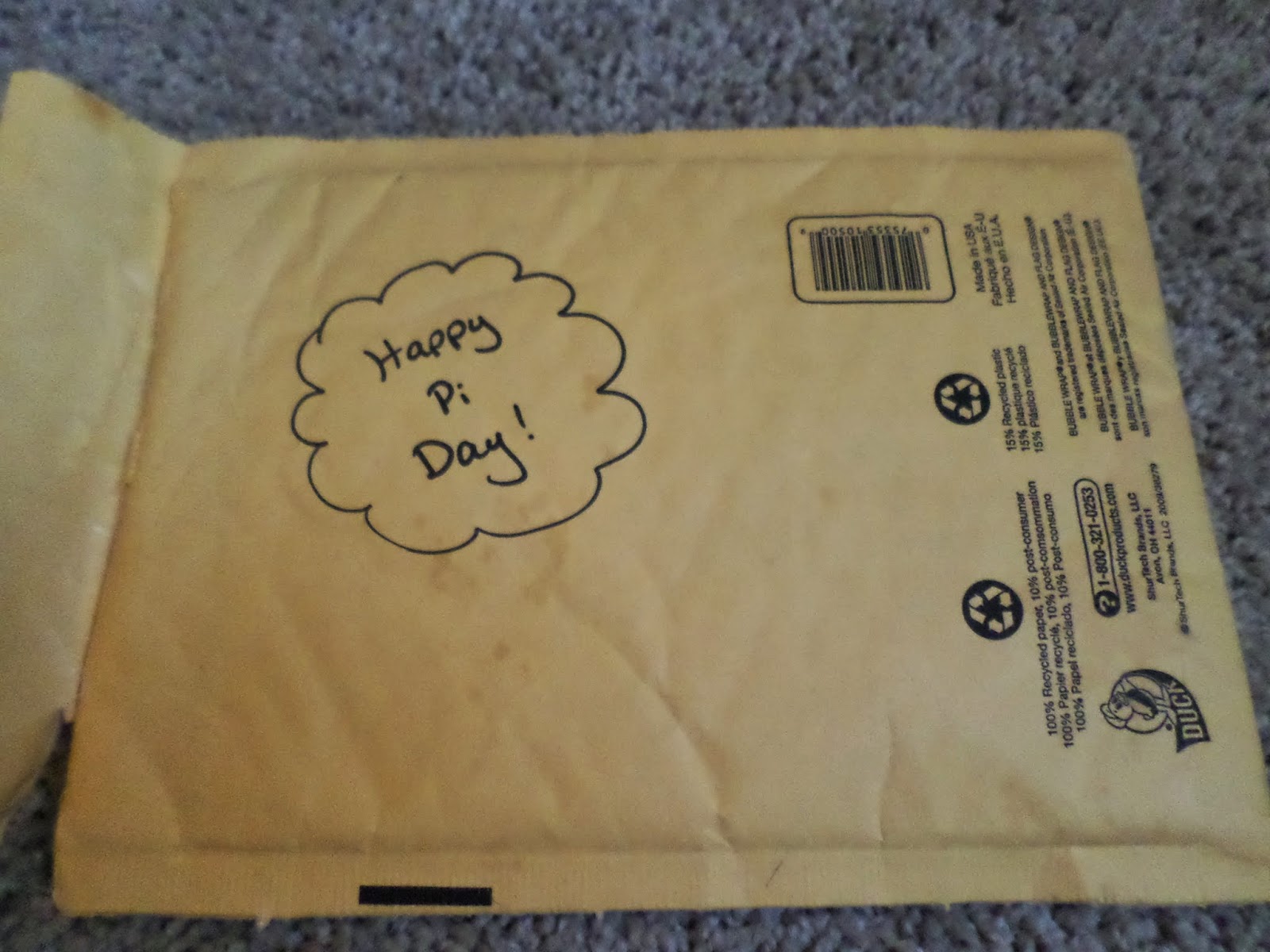
I wasn’t sure what I would find inside, but I was definitely excited! You see, Pi Day and I don’t have the best track record. This year, I was determined to have an amazing Pi Day! Last year, I ended up in the emergency room on Pi Day. A couple of months ago, I was super excited to get a free Pi Day pencil sample in the mail.

Want to know what I found when I opened up the envelope?
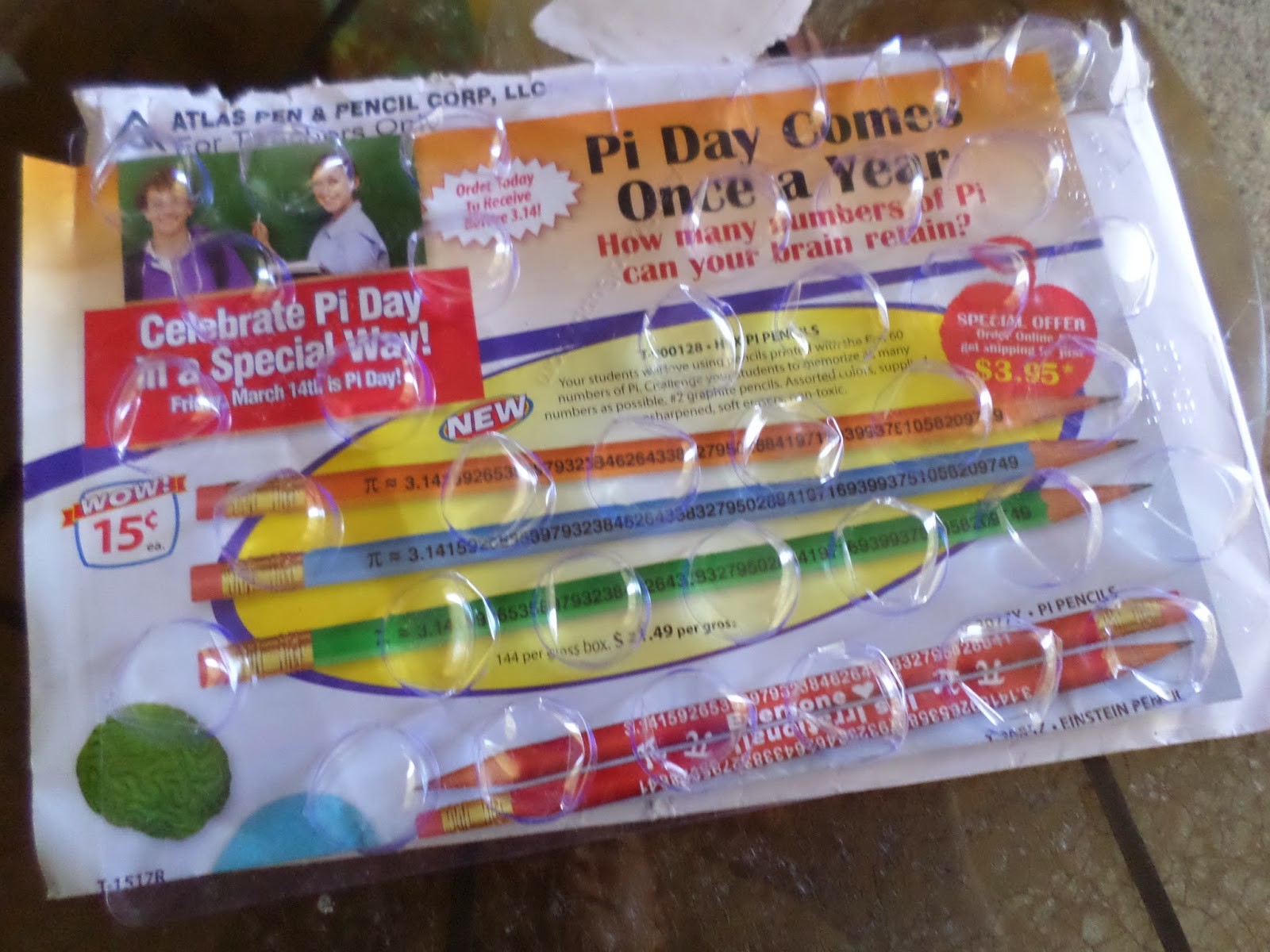
An advertisement, plastic bubble packaging, and nothing else. I’m pretty sure some postal employee somewhere is enjoying my Pi Day pencil. Needless to say, I did not end up purchasing Pi Day pencils for my students. We did celebrate however in grand style, but you’ll have to wait for another post to read about that. This post isn’t about Pi Day; it’s about my mystery envelope.
I LOVE getting mail! There’s nothing quite like a handwritten card letter or a package in the mail to cheer you up!
The first thing I pulled out of the envelope was another envelope.
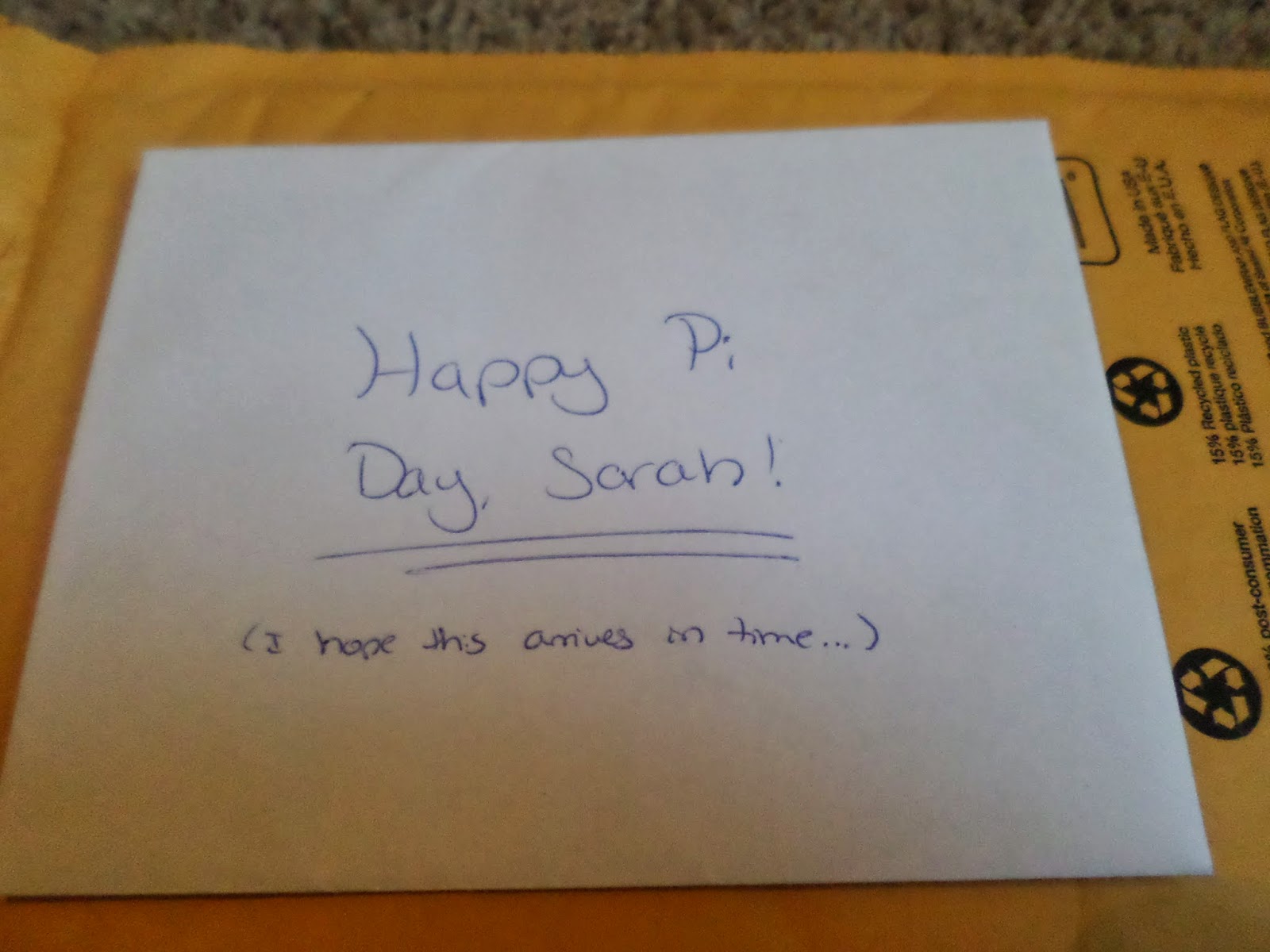
It did arrive on time for Pi Day! Pi Day was Friday, and it came in the mail on Thursday. That couldn’t have been more perfect because we were actually out of school on Friday. (Yes, I was forced to celebrate Pi Day with my students on a day that wasn’t actually Pi Day. Pi(e) was still had, though!)
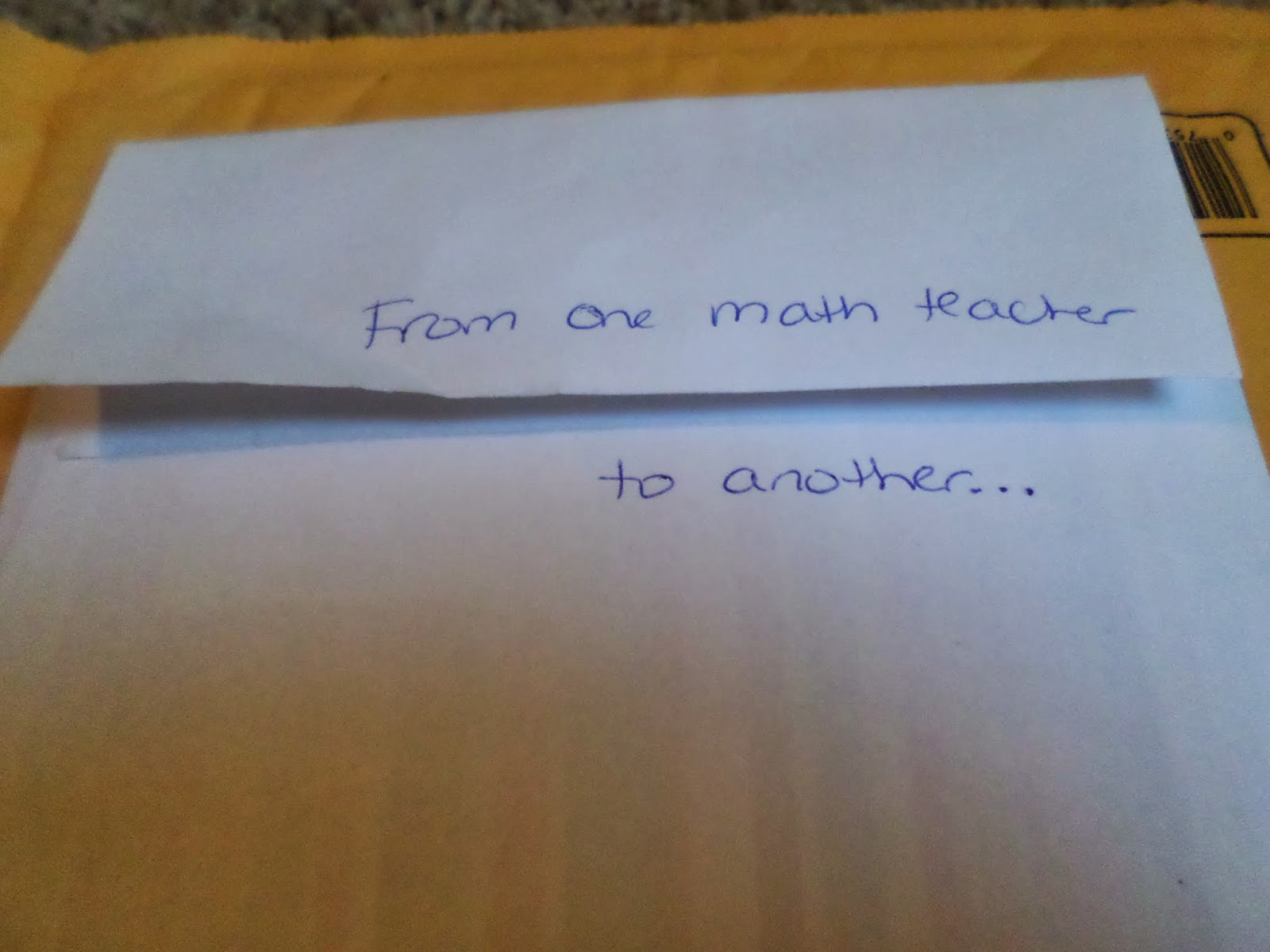
Mail from another math teacher. What could this be???
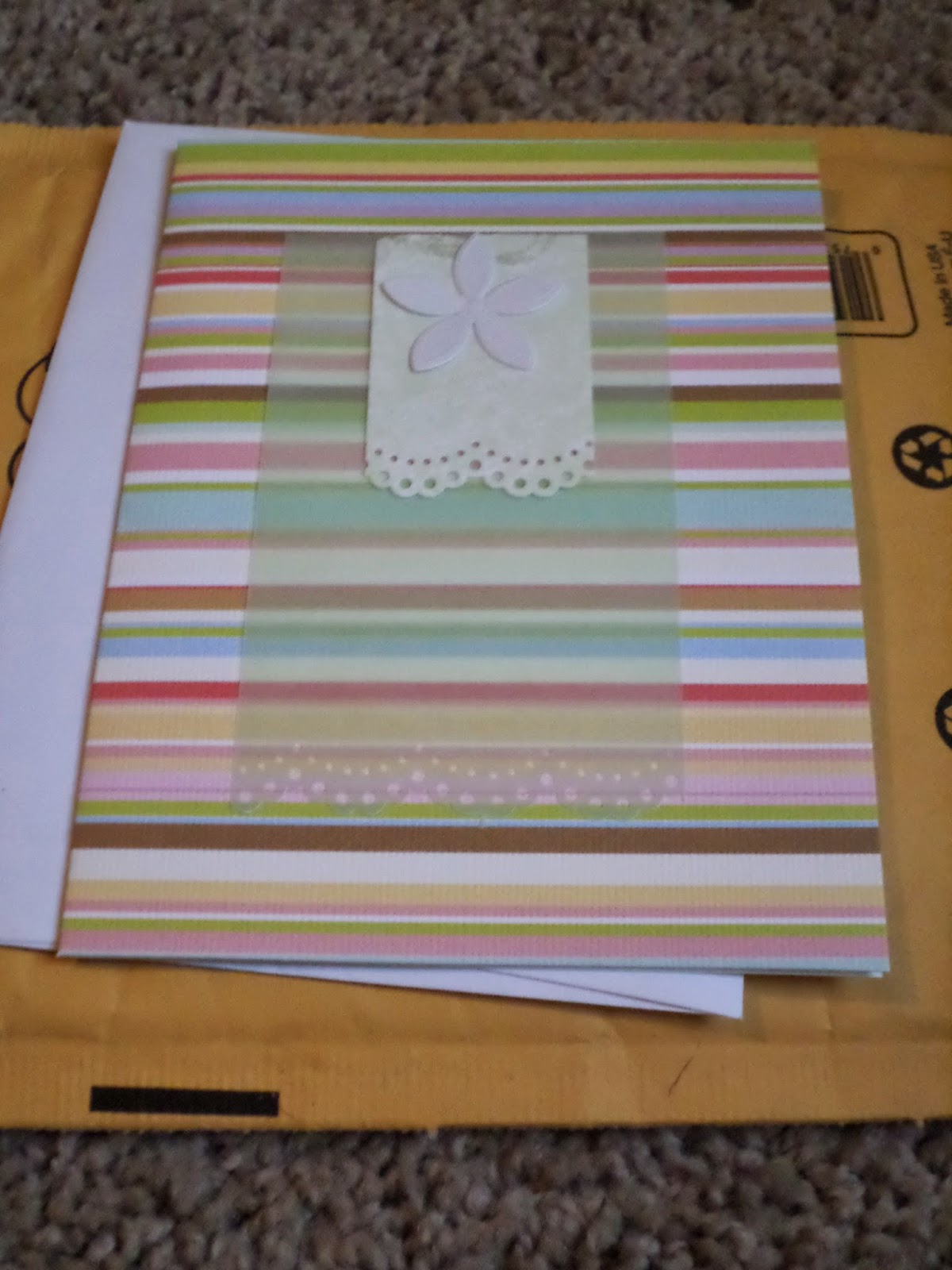
Inside was a sweet, beautiful card from Jackie, a faithful blog reader and fellow math teacher. Jackie’s husband, Jeff, is a jewelry designer. And, he has designed a line of mathematical jewelry. Jackie was nice enough to send some along to say thanks for my blog. Thanks Jackie for taking the time to read my blog! And, I absolutely LOVE the jewelry! Thank you, thank you, thank you!
The day I got this package in the mail, I was so excited that I had to show it to EVERYBODY! I actually opened the envelope while standing in the office at school. So, I had to show all the math jewelry to the secretary. Then, I had to show it off to my students in my last hour class. Later that evening, I was talking to my landlord, and I had to take it out of the envelope and show it to her. (And today, I’m so excited that I have to share it with you, too!)
Want to see? I received a sterling silver pi pendant. It’s hanging, here, on my bulletin board of jewelry. I kinda have a LOT of jewelry. I hang all of my necklaces from thumbtacks on a giant bulletin board to keep them from getting tangled. It also helps me to easily see all of my choices when I am getting ready in the morning.

I picked up a chain to wear it on from Hobby Lobby, and I’ve been wearing it everywhere. It even sparked an awesome conversation about pi and math and such with my optometrist. Multiple students have noticed my pi necklace this week and complimented me on it, too.

Also in the pouch were infinity symbol earrings and an infinity symbol bracelet. They are beautiful!

I took some pictures of the bracelet while wearing it the other day. Let’s just say I do not have a future as a hand or jewelry model. Though my modeling skills are lacking, the bracelet is simply gorgeous!
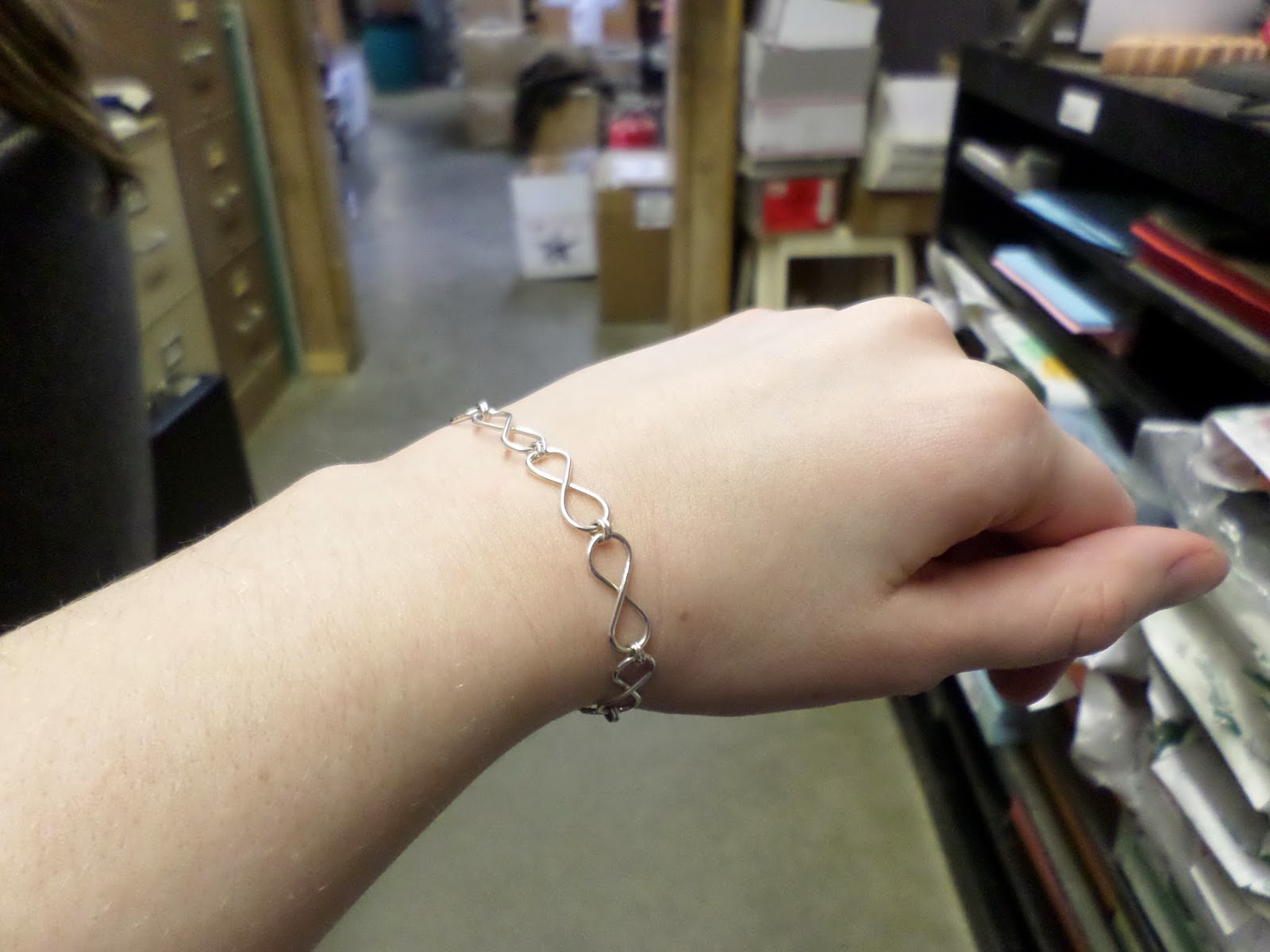
I absolutely adore the clasp on this bracelet. I’ve never had a bracelet that clasps this way, and I just think it’s beautiful.
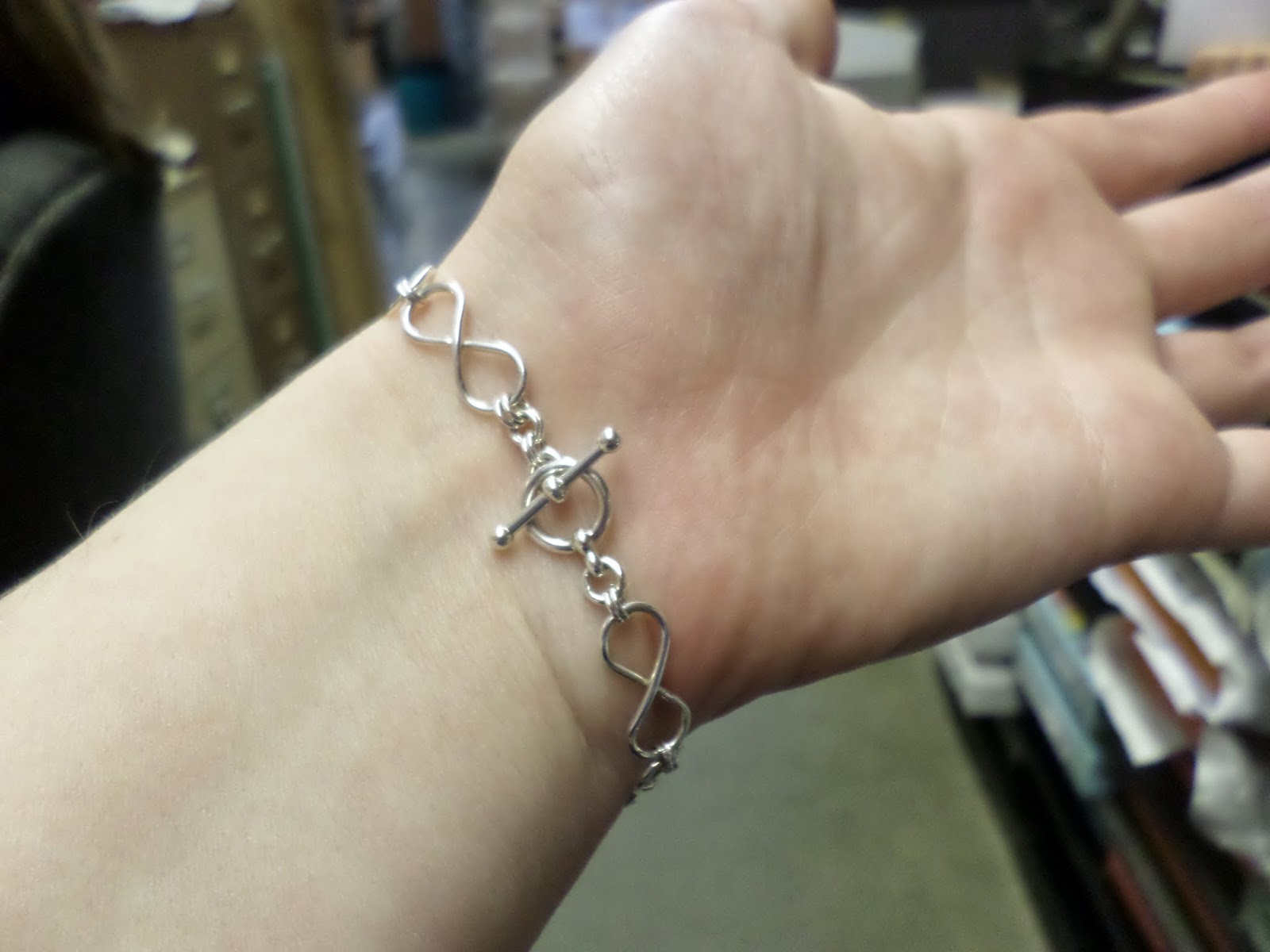
I haven’t had a chance to wear the earrings yet. Actually, to tell the truth I just got my ears pierced so I could wear these. I’ve wanted to get my ears pierced for years, but I just never did anything about it. I decided Spring Break was the perfect time to remedy this. Besides, what better motivator could there be than precious infinity symbol earrings? Now, I just have to wait 6 weeks until I can take out the earrings they used to pierce my ears with. You can count on the fact that I’ll be rocking these infinity symbols this summer!

All of Jeff’s jewelry is handcrafted from Argentium sterling silver.

Jeff and Jackie didn’t ask me to write this post or link to his Etsy store. That’s all my doing. I can’t express enough just how impressed I am with the quality and creativity of the jewelry they surprised me with. If pi and infinity aren’t exactly your thing (though, I’m not sure how that’s even possible!), there are tons more mathematically inspired pieces to choose from! And, the pictures are so much better than mine!

Click the image above or follow this link to see all of Jeff’s amazing mathematical pieces in his Etsy store, OrionSilverworks! The jewelry is beautiful, creative, and of the highest quality. I’m so impressed and thankful for the pieces I received. And, I know you’ll be impressed, too!
April 3, 2014 – edcampTULSA 2014 Reflection
Okay. It’s time to post about my first EdCamp experience. Warning: lots of pictures below!
#edcampTULSA was hosted at the Jenks High School Math and Science Center. This building is 3 years old, and it’s amazing. Do you see that dome on the third floor? It’s a planetarium! I think there might have been more tweets about the planetarium during #edcampTULSA than anything else!

After checking in at the registration table, I was directed to the third floor.
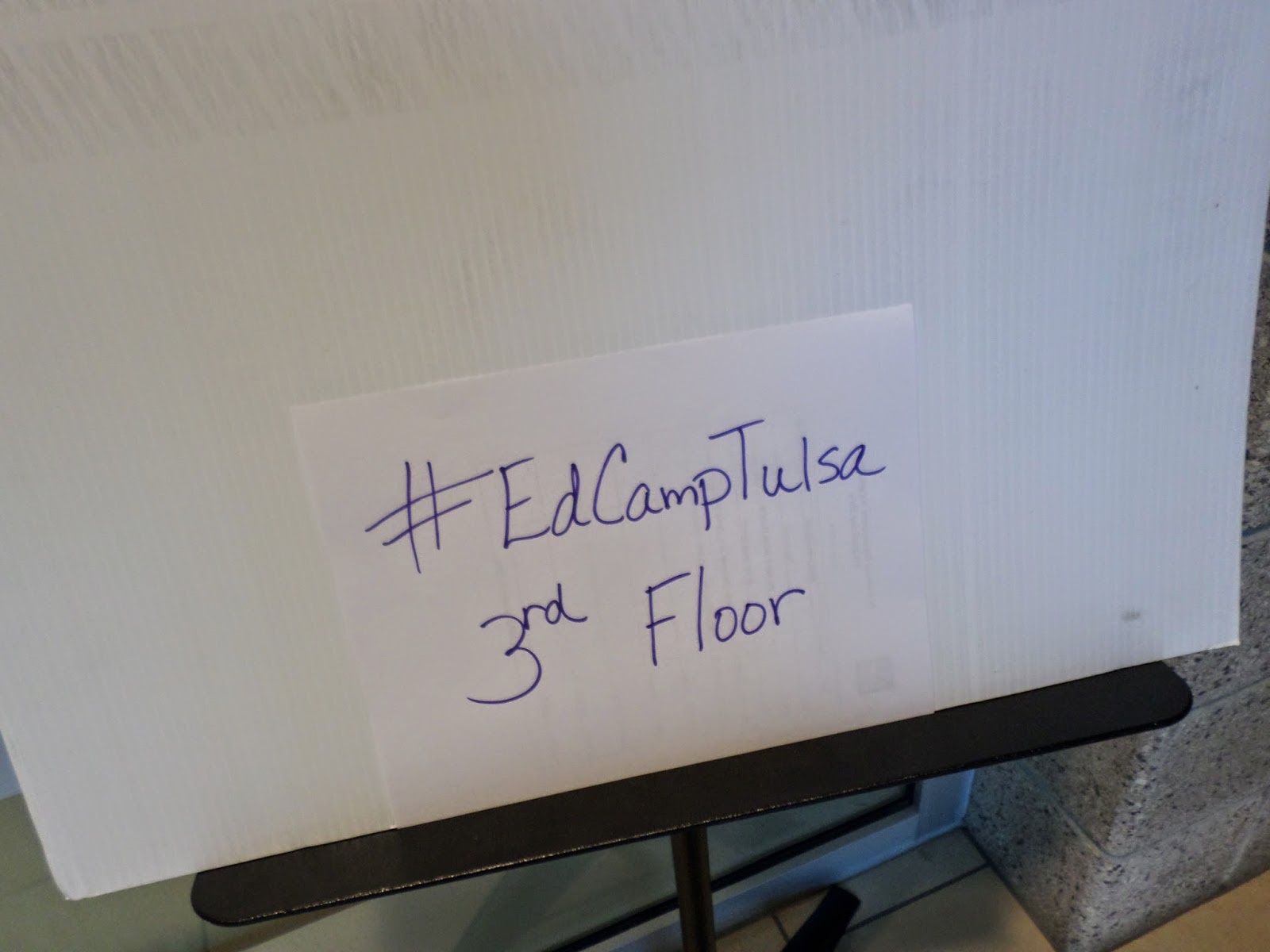
Did I mention that this building is amazing? When you walk in, you are greeted by giant multi-story math and science displays.
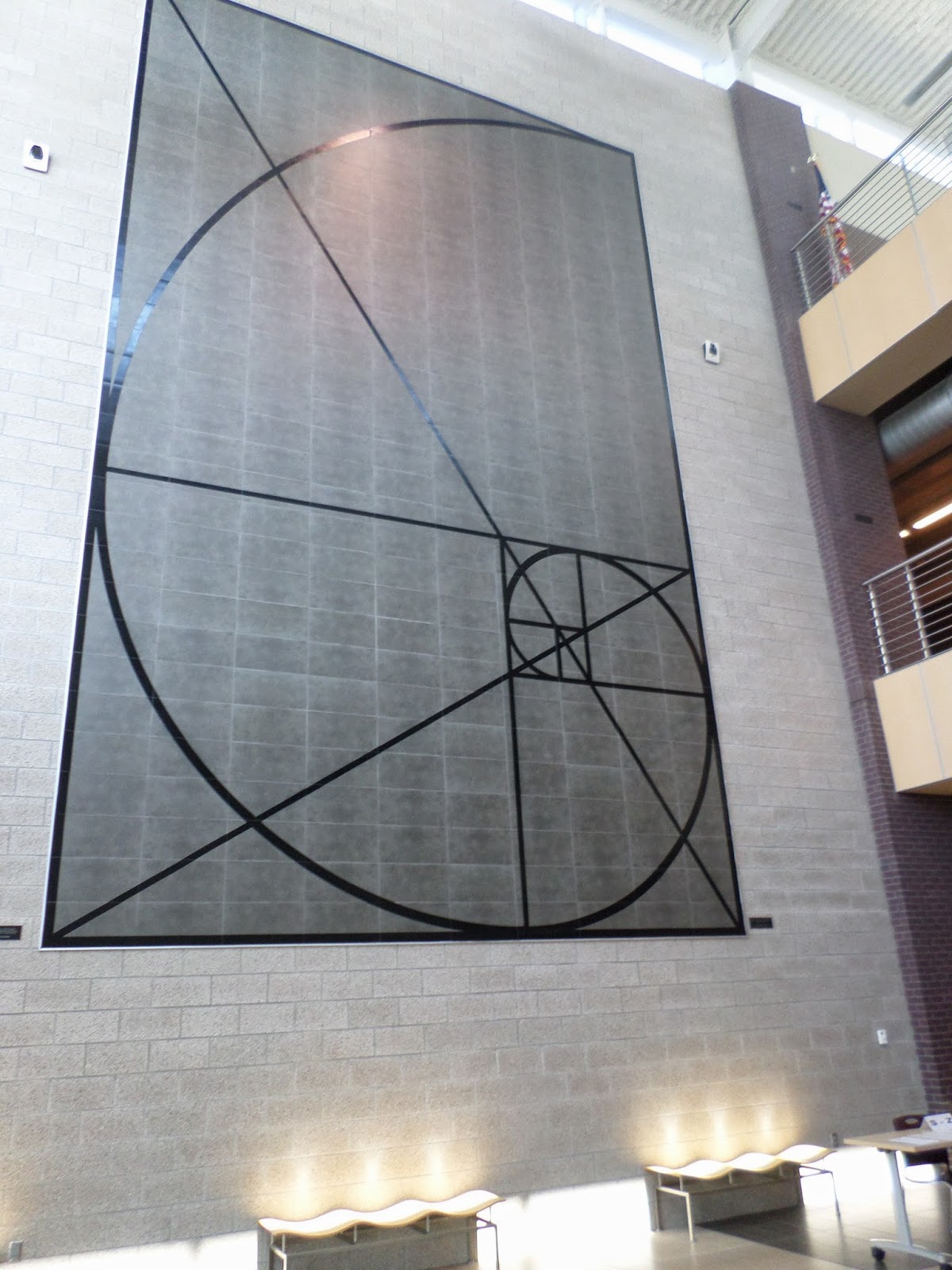
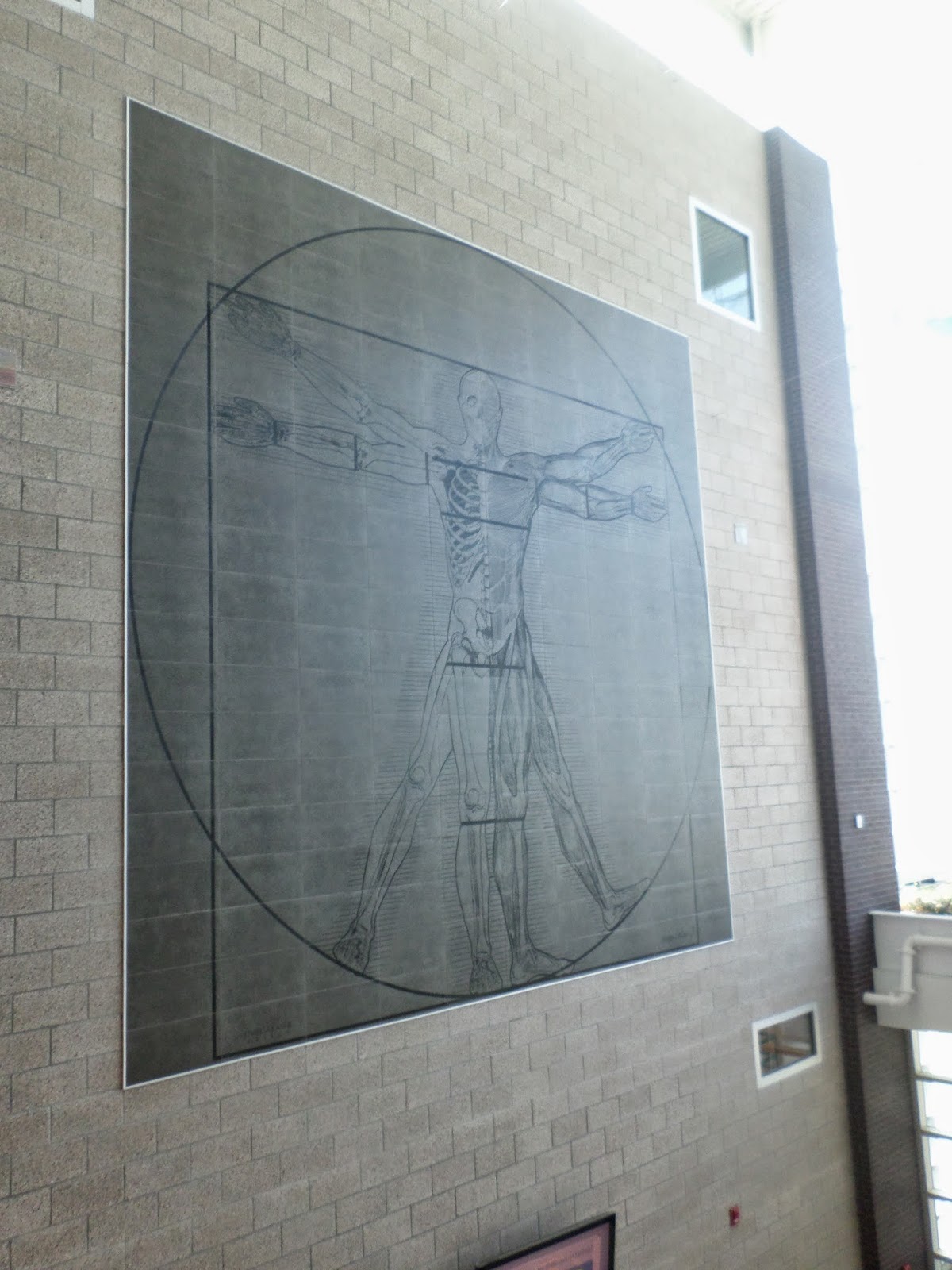
There are even constellations hanging from the ceiling!
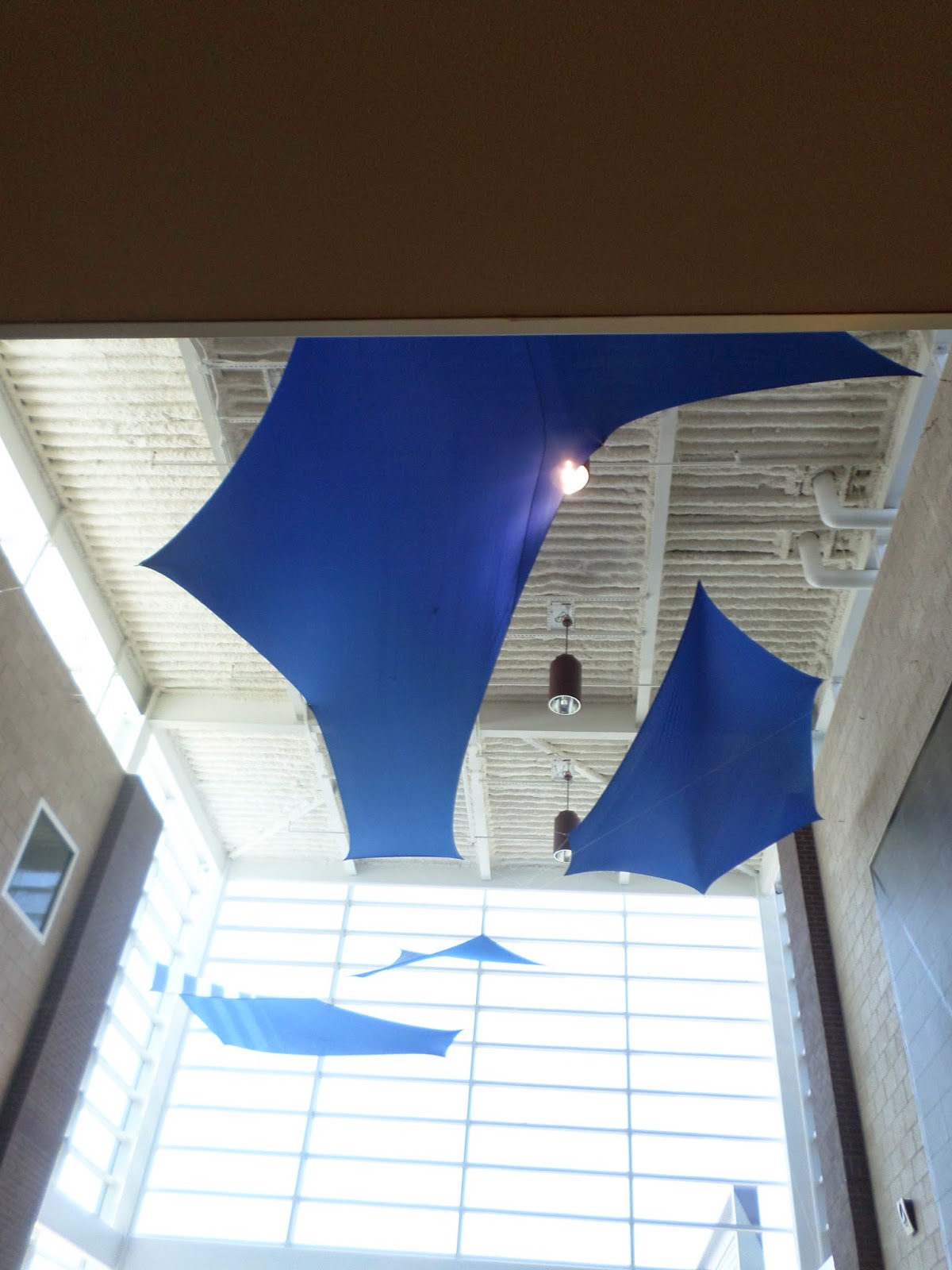
I’m pretty sure that people probably thought I was crazy for taking this next picture, but I was super impressed with the trash and recycling bins.
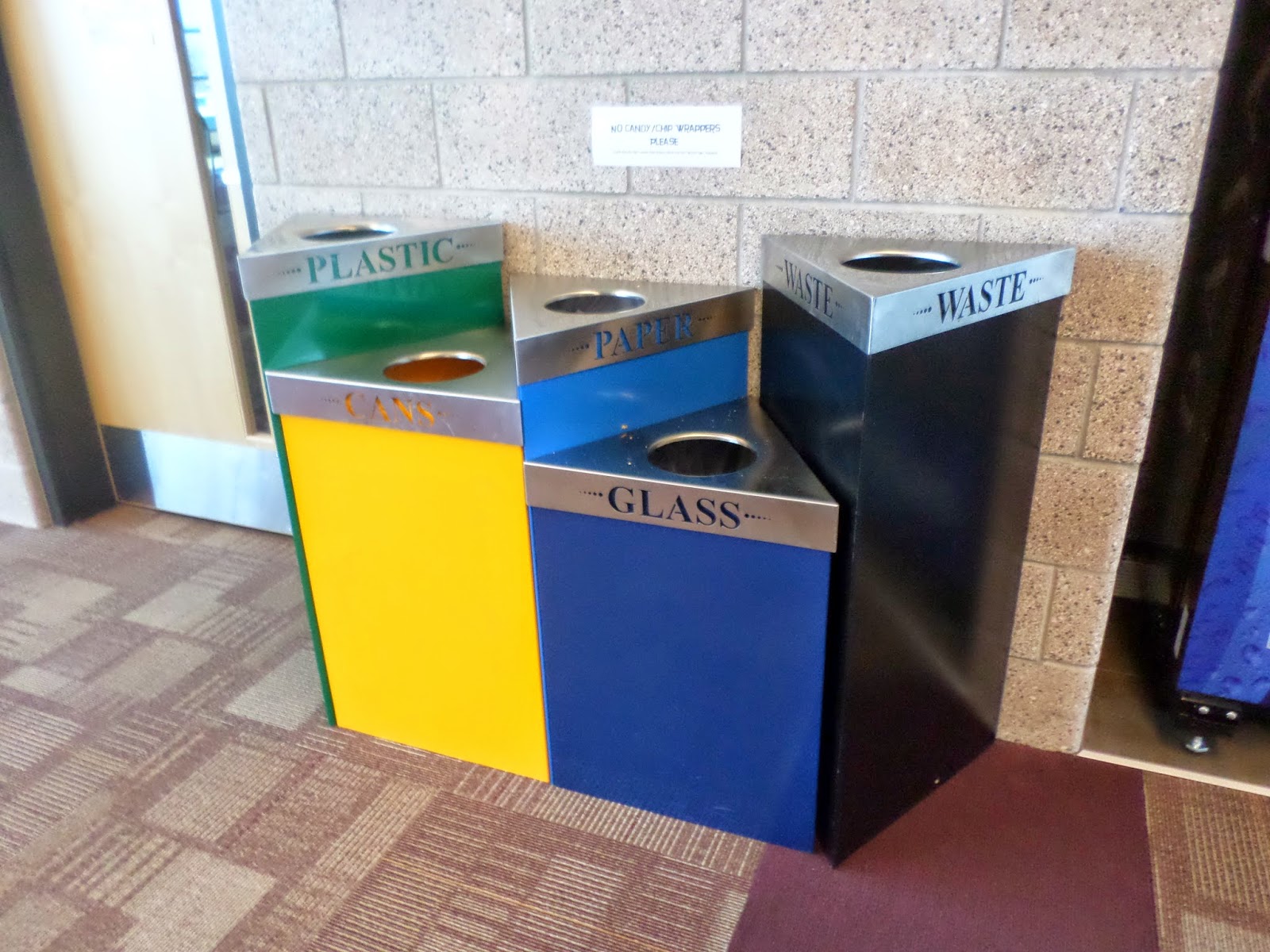
On the third floor, I was greeted by donuts. Lots and lots of donuts.

We were instructed to grab breakfast and mingle while waiting for everyone to arrive and check in. Soon, the people who had attended an EdCamp before were asked to disperse around the room and start group conversations with those who had never attended.
There were posters to tell us newbies about the basics of EdCamp. I present to you EdCamp 101:
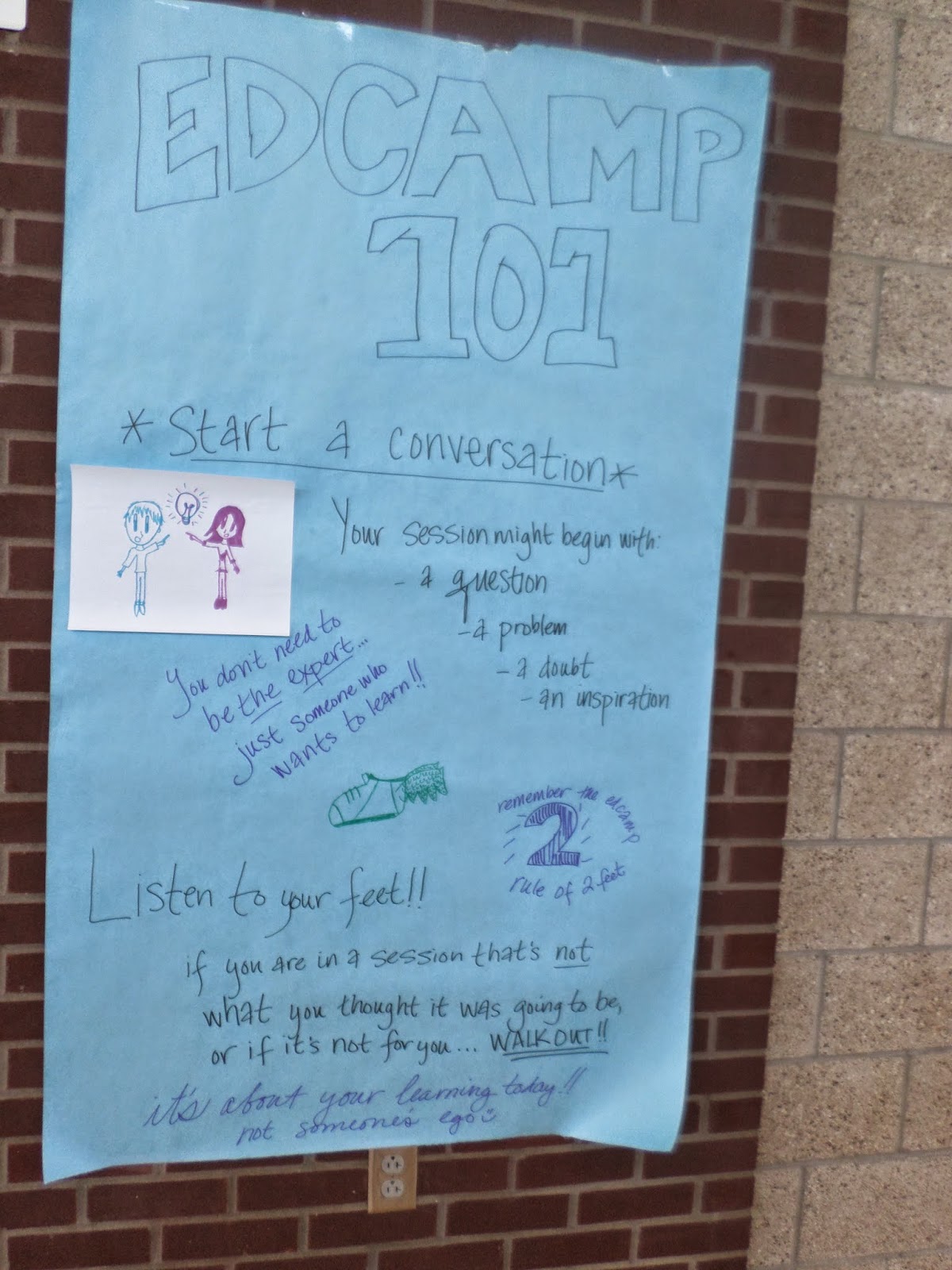
And, EdCamp 201:
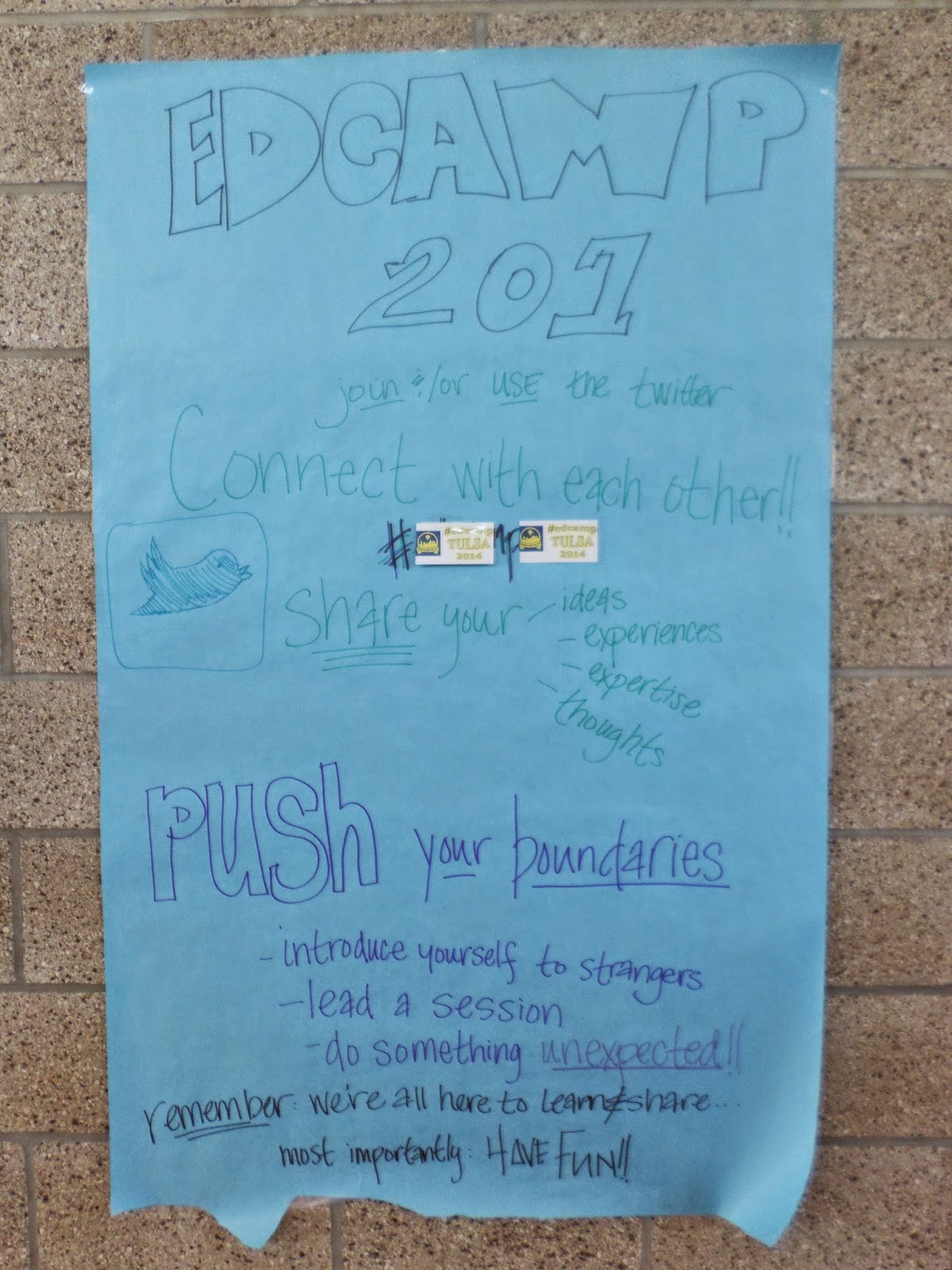
This was my first EdCamp. And, my group just happened to be adopted by perhaps the most experienced EdCamper in the world, Toby Brown (@tbbrwn). Seriously, #edcampTULSA was his 18.5th EdCamp.
Here’s a picture of the group I was in:
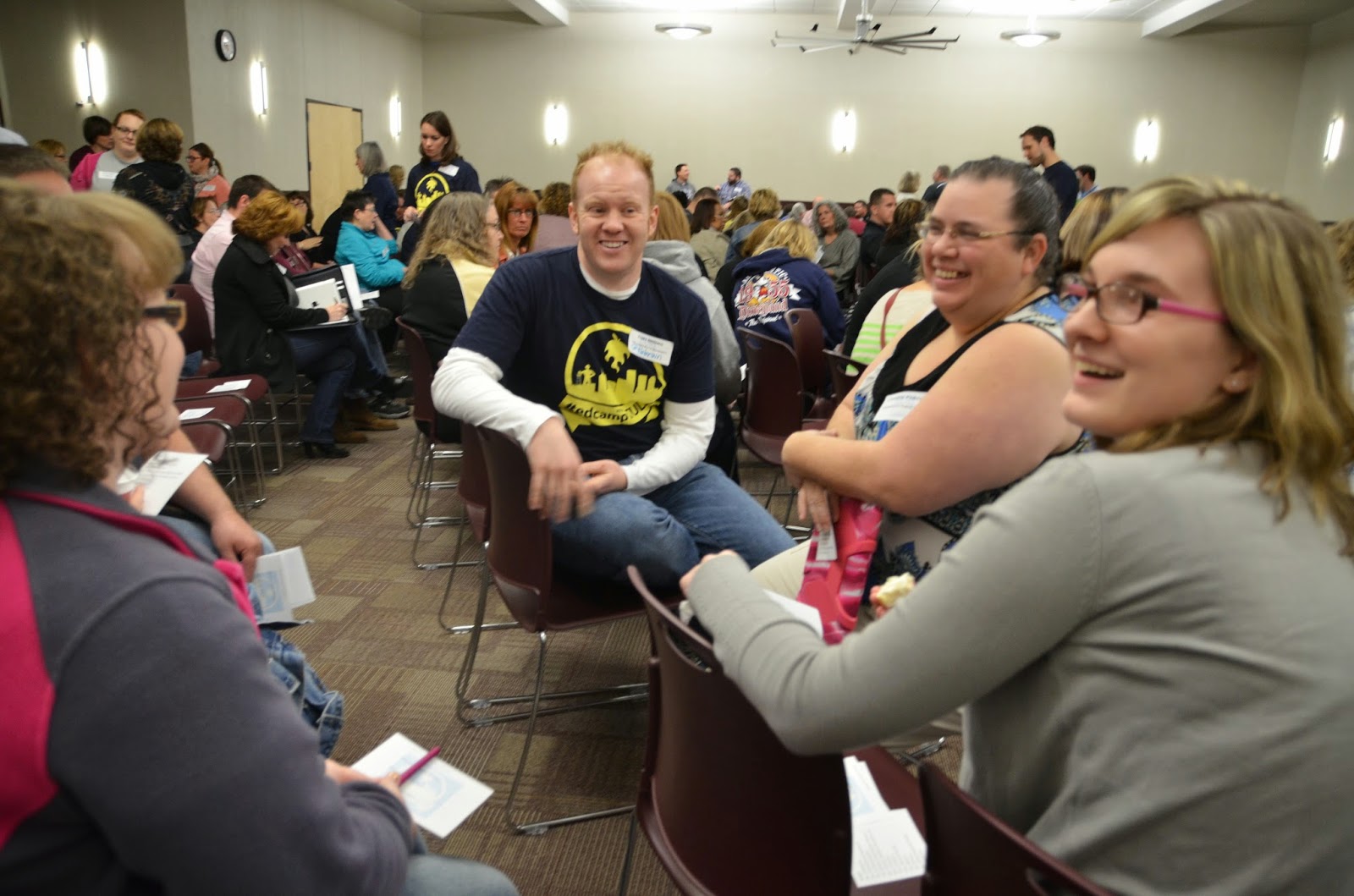
In our groups, we shared things we were interested in or wanted to know more about. When it was my turn, I mentioned that I wanted to know more about how to effectively manage group work in my classroom. Every year, I seem to start out the year with intentions of having students work together in groups. And, every year, it goes great for the first few weeks. Then, the honeymoon period ends, and I discover that I can’t manage my students when they work in groups. So, I move them back to rows and things go a little better. But, I miss the amazing problem solving and helping one another that naturally happens in groups. So, I try groups again. And, as soon as I do, I remember why I did away with groups in the first place.
EdCamp is different from traditional professional development workshops in several ways. First, the PD is not professional development. It’s passion development. If the topic in the room is not something you’re passionate about, you are expected to follow the rule of two feet. Get up and walk out of the room. Try a different room and a different conversation. Keep moving until you find something that you are passionate about. There are no presenters. There are only facilitators. One way EdCamp was described to me was “selfish PD.” You don’t have to be an expert at something to facilitate a session on it. You only have to want to know more about it.
After our groups broke apart, we were invited to fill out cards to agree to facilitate a session. I am naturally an introvert. I’m not the type to volunteer for things. And, I’m slowly working on changing that. I’m working on putting myself out there more. Because I do have something valuable to share with the world. I’ve led professional development for my district. I did a Global Math Department Presentation. This summer, I’m presenting at Twitter Math Camp and the Oklahoma Council of Teachers of Mathematics Summer Conference.
And, last Saturday, I facilitated a session at #edcampTULSA. Read that again. I, Sarah Hagan, facilitated a session! I still can’t quite believe it myself. When they were asking for volunteers to facilitate sessions, Toby came over to me and literally lifted up my hand to force me to volunteer myself. As a result, I was given a card to write down what type of session I wanted to facilitate. At first, I just smiled and tried to pretend that it hadn’t happened. Then, I started wondering, “Why not? Why shouldn’t I step out of my comfort zone and facilitate a session?”
Maybe I was feeling inspired by the bottom of the EdCamp 201 sign?
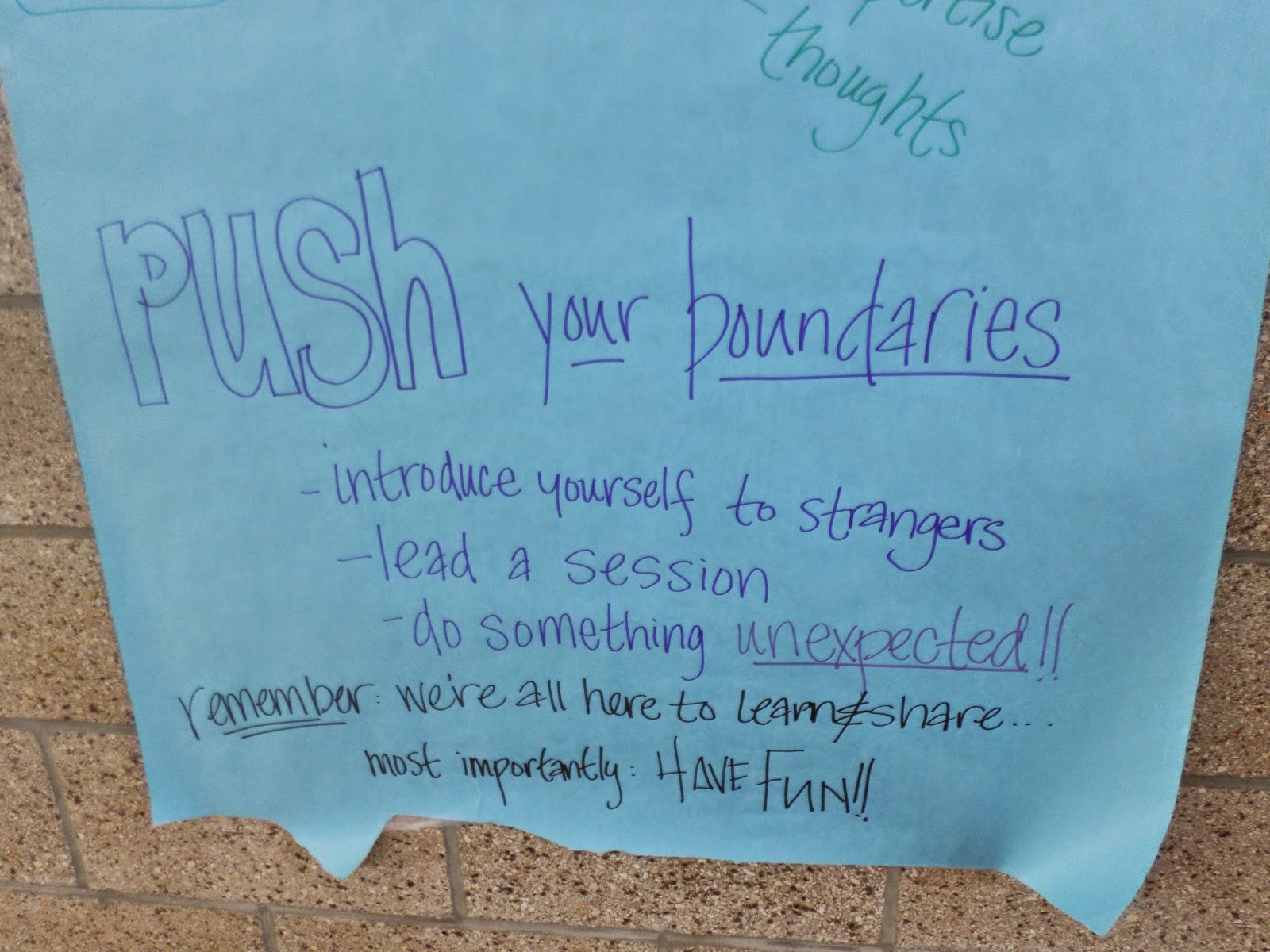
So, I did something crazy. I filled out the card, AND I actually turned it in. I titled my session “Making Group Work Work.” Thanks Toby for encouraging me to step out of my comfort zone. It was totally worth it. And, I’m pretty sure my EdCamp experience was 5 times better as a result of your encouragement.
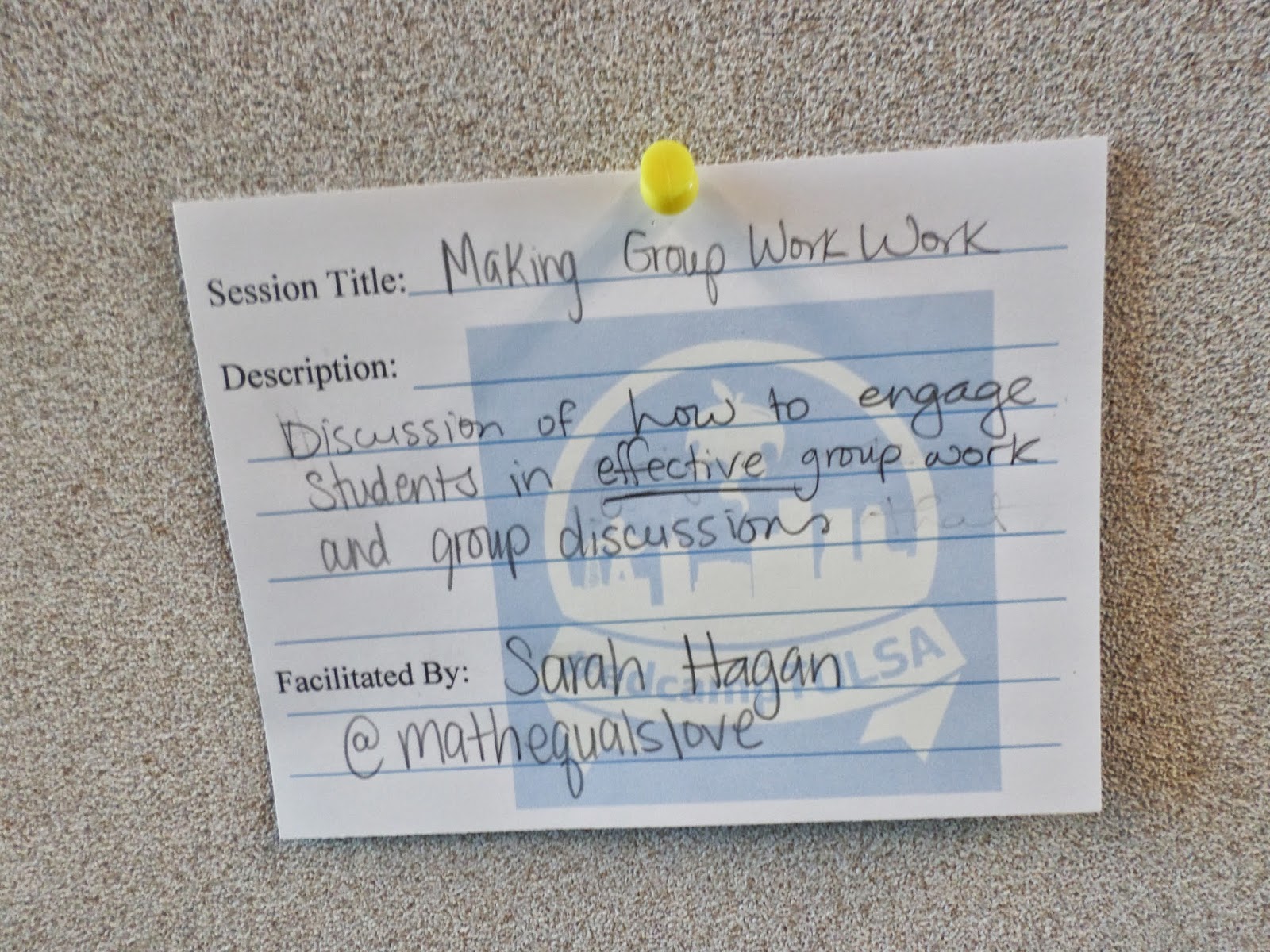
All of the sessions that were submitted were posted on rolling boards and on a google spreadsheet.
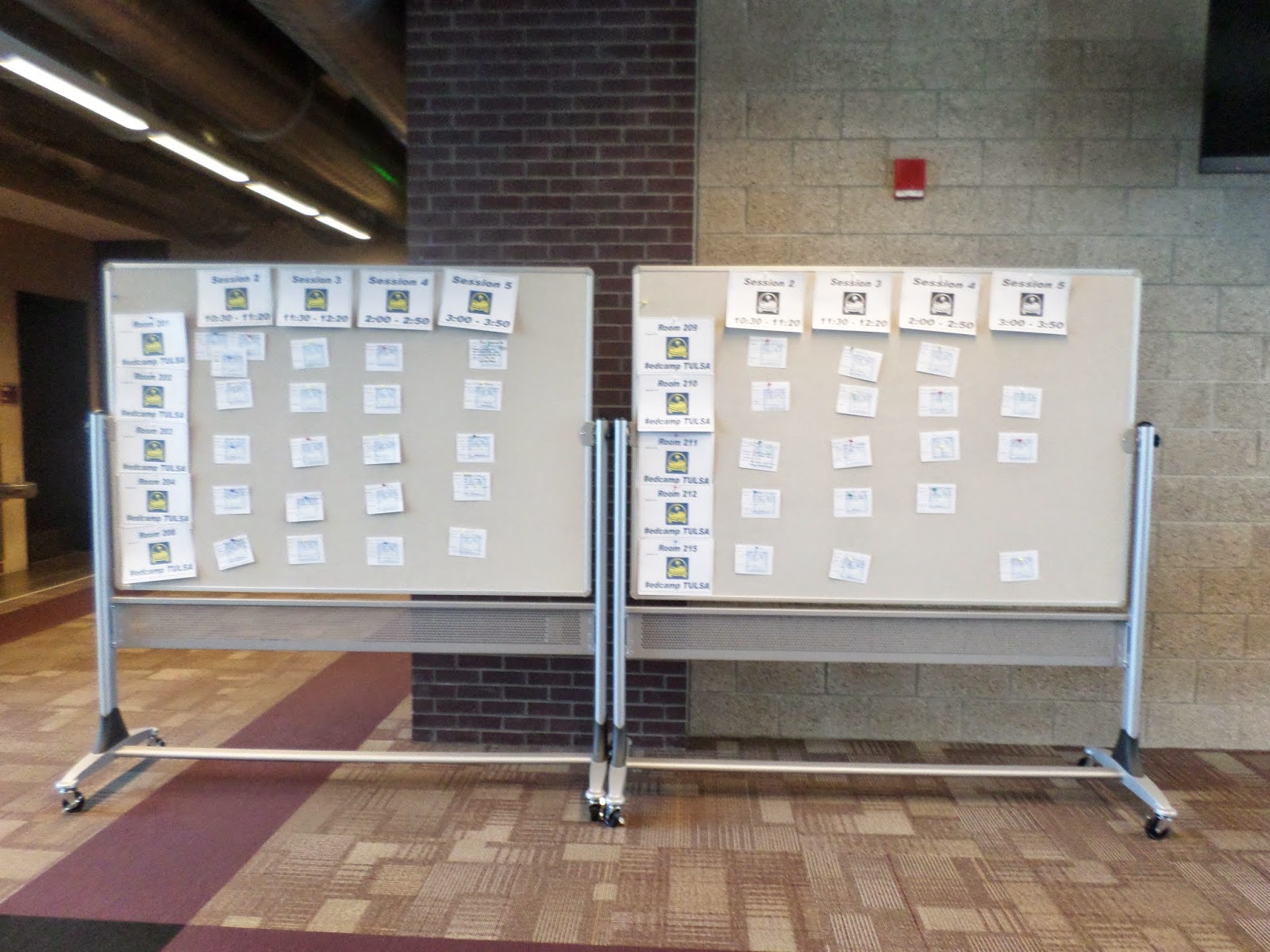
EdCamp was the perfect opportunity to try out my latest piece of technology: a Samsung Galaxy Tab 3 tablet. As someone who still doesn’t own a smartphone, this has a definite learning curve. But, I’m enjoying the learning process. I loved being able to pull up the schedule on my tablet and keep up with the twitter feed throughout the day!
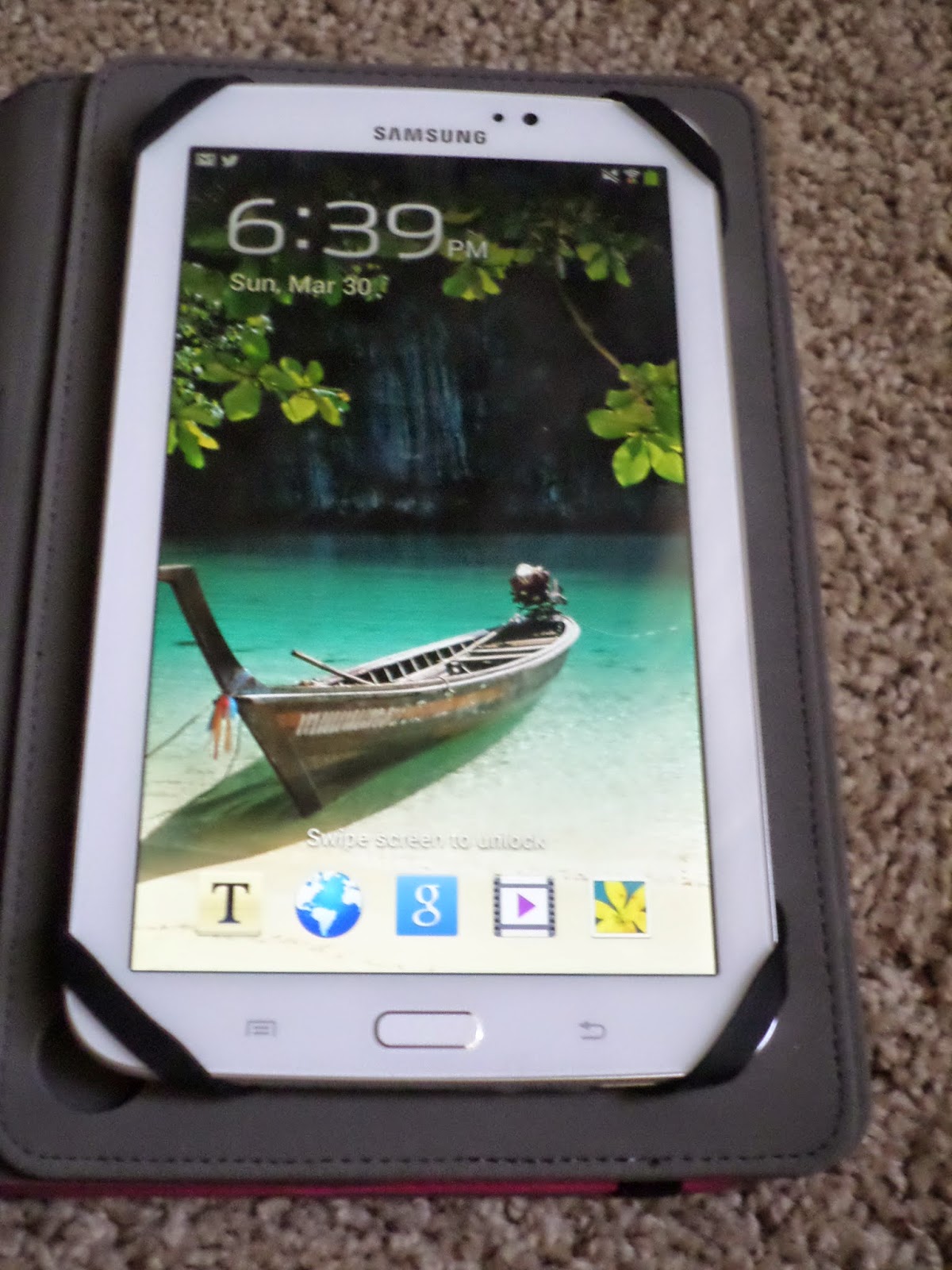
For Session 1a, I attended a planetarium show. I can’t say enough awesome things about the Jenks Planetarium. They use their planetarium to teach many different subjects other than the obvious astronomy. The planetarium director showed us examples of how math teachers used the planetarium to find the area of various constellations with their students. History teachers used the planetarium because it allowed them to show maps that match the curve of the earth. This shows how far apart places truly are. For example, I never quite realized just how far it was from Japan to Pearl Harbor until seeing the map on the planetarium screen. I was probably most impressed by how art teachers used the planetarium. Can you imagine seeing the ceiling of the Sistine Chapel above you on the planetarium screen? Talk about amazing! I’d show you a picture I took myself, but let’s just say I had yet to figure out the camera on my tablet at the time. So, you’ll have to put up with looking at someone else’s tweet and photo. Sorry!
This planetarium @JPS_Trojans‘ Math & Science Center is ridiculous. Yes. That’s the Sistine Chapel. #edcampTulsa pic.twitter.com/7UmaCVZDek
— Dan Krutka, PhD (@dankrutka) March 29, 2014
My sister is an art education major, and I’ve already told her that we are going to have to go check out one of the full length art shows at the planetarium this summer! Here’s a link to the Tulsa World write-up of the show. Though, based on this photo, my sister and I might not be the target audience.
After the planetarium show, I had a choice between Twitter 101 and an App Smackdown. I’ve been on twitter for several years now, so I decided to forego Twitter 101. I don’t feel like I got much out of the App Smackdown, though. That was probably a result of only just now getting a tablet. When I see others talk about all the uses for tablets and especially ipads in their schools, I realize just how little technology we have at Drumright. Maybe someday…
For session 2, I attended Sucks vs. Rocks. I didn’t quite know what this was, but none of the other sessions during this time seemed to be a good fit for me. A topic would be written on the board. One side of the room represented “rocks.” And, the other side of the room represented “sucks.” We had to physically move to the side of the room that represented our feelings on the subject. Topics included homework, Common Core, computer labs, interactive whiteboards, student teachers, and internet filters. Discussion was pretty heated. I felt like a lot of my opinions were based on my specific teaching scenario. My view of technology coming from a small, rural school looks a lot different than a teacher at a large, urban school. It was kinda fun, but I’m not sure I walked away from the session knowing anything I didn’t know before. Actually, I take that back. I did learn a lot of things. I learned how I feel about homework, Common Core, computer labs, SMART Boards, etc. You’re probably thinking, “How did you not know how you feel about those already?!?” Well, it’s simple. If you asked me how I felt about homework, I would probably ramble on about something about how it was good in some aspects and how I hated other parts of it. But, there is a complete difference between a rambling response and saying “Homework rocks” or “Homework sucks.” No middle ground. No rambling. No justifying. Rocks or sucks? This session forced me to think about what I believe and why I believe it, and that’s an awesome thing.
For session 3, I chose a session on building school culture. In retrospect, this was not the right session for me. And, I probably should have exercised my right to walk out and join a different session. I was one of only two teachers in the room. Everyone else in the room was an administrator. And, I worked at the smallest district, by far, in the room. The majority of our conversation focused on how to build a school culture in a large district. For example, how do you get your teachers to interact with teachers who do not teach the same subject or in the same hall? This is not a problem at my school because we are so small. When you have 2 math teachers, 2 science teachers, 2 history teachers, 2 English teachers, 1 FACS teacher, 1 agriculture teacher, 1 computer teacher, and 1 special ed teacher, you get to know each other quite well. I can add in our principal, secretary, counselor, librarian, football coach, custodian, and two lunch ladies and still only have 20 people. One thing I’m interested in is how can I help build a school culture when I am not in an administrative role in my school. Should I take some of these ideas to my administration? Or should I just try to carry them out on my own?
Session 4 was my session – Making Group Work Work. I was a little terrified about leading my own session. What if nobody shows up? What if everybody exercises their right to walk out? At the beginning of the session, there was me and about four people. Not many at all. Still, I started talking about why I had proposed this session. I briefly mentioned my struggles with group work, and I asked the others in attendance for their suggestions. Pretty soon, a good conversation got going. People started sharing things they had tried that had worked and things that hadn’t worked. More people started coming in. And, the conversation developed more and more. We talked about different ways of grouping students, the importance of giving group-worthy tasks, cues to get students back on task, methods to keep everyone in the group accountable, etc. @druinok shared about her red/yellow/green cup strategy, and that was a big hit! I’ve even got red/yellow/green cups on my shopping list now. It was a GREAT conversation. I left with book recommendations, ideas to implement, and lots of thought-provoking comments. Only two people exercised their right to walk out. And, many more walked in and stayed! So, that fear ended up being unrealized.
There was even a tweet about my session, so that was good!
Lots of great ideas in room 203 about how to make group work work. Classroom-tested ideas include fun identities, stations, etc #edcampTulsa
— Dan Krutka, PhD (@dankrutka) March 29, 2014
I’m thankful that I did decide to take the plunge and propose my own session. It’s the session that I got the most out of because it’s the session that I needed to be a part of. Had I not proposed the session, it wouldn’t have happened. What if more teachers stepped up and said, “I need help with this topic. Help me.”? How many things have I missed out on learning before because I was too afraid to step up and admit that I needed help? That I didn’t have everything figured out?
For Session 5, I attended a session on using brain breaks and play in the classroom. Again, I didn’t quite fit in with the other teachers in the classroom. I was the only high school teacher in a room full of elementary school teachers. Many of the ideas didn’t apply to teaching teenagers, but I did find a few takeaways that made the session worth it. I learned a new way to play spoons in class without making decks of cards. I can’t wait to try that out. I’m inspired to come up with a list of appropriate brain breaks for the high school classroom. I love the idea of giving out tickets for brain breaks as rewards. Students can then cash in their ticket whenever they wish.
Here’s a picture of the session on brain breaks. I’m sitting in the first row. 🙂
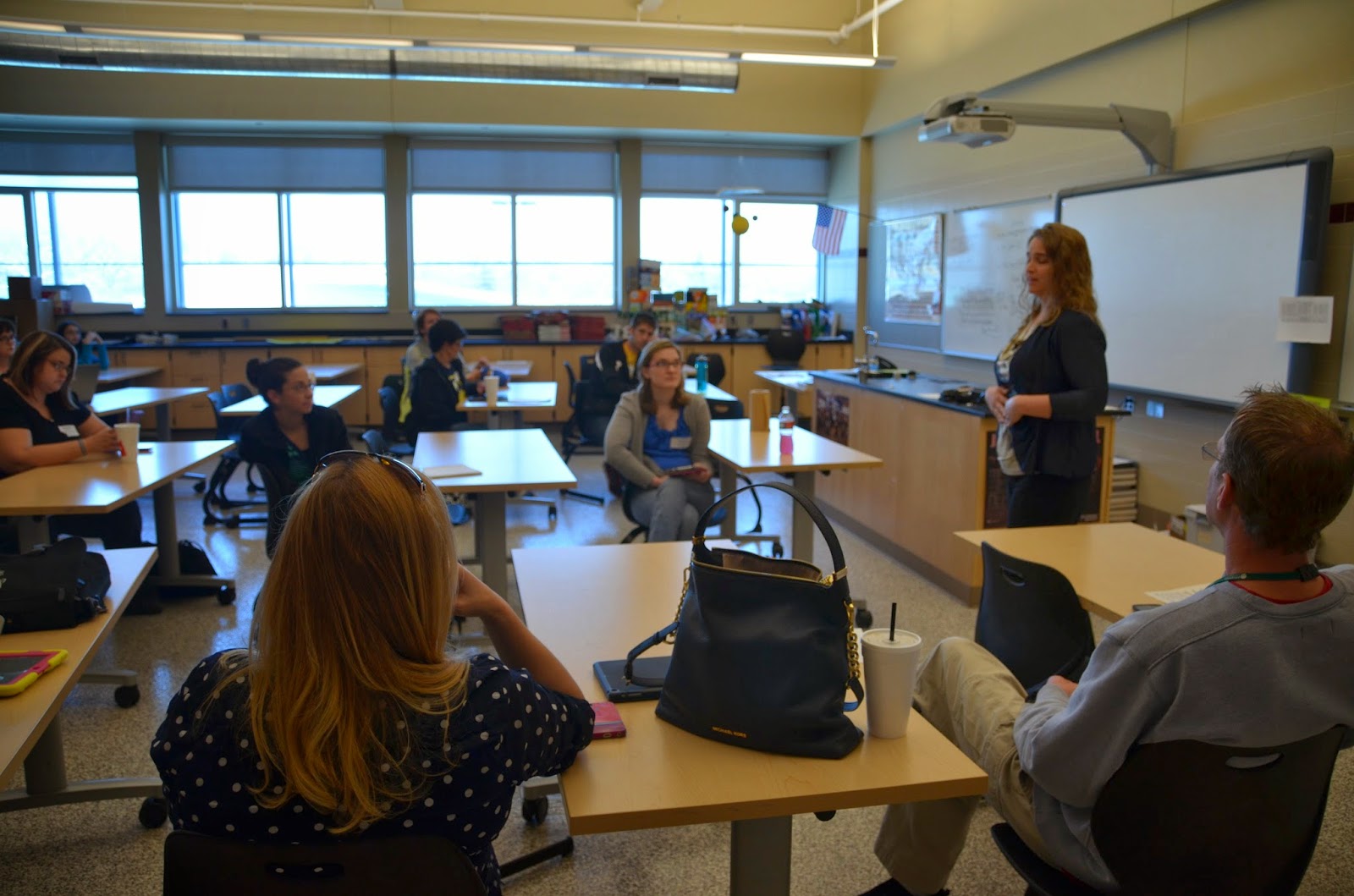
After the fifth session, we once again joined together as a group. There was a video camera drone demonstration that was pretty cool!
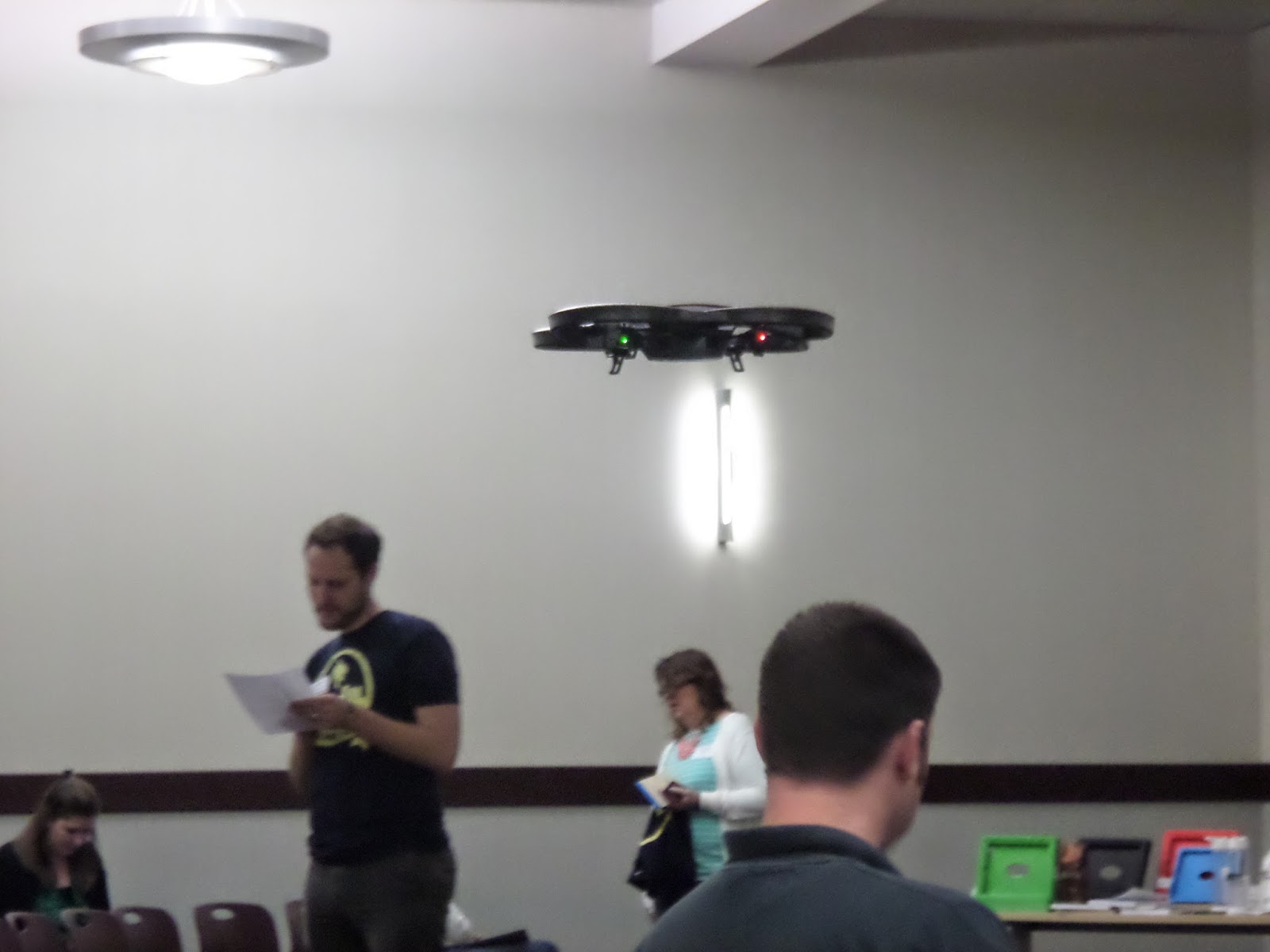
Door prizes were given. Closing words were spoken. And, I was a little sad for it to be over. Thankfully, other edcamps have been planned in Oklahoma in the future. And, I plan on inviting other people from my school to go with me next time. It’s time for me to share my new-found love for EdCamps with others!
I was inspired by the decorations of the classrooms we were in for the sessions.
One thing that struck me was that the thing I was drawn to the most in these classrooms was student work. Yet, I have a classroom where no student work is displayed. This needs to change. When an outsider walks in my classroom, they need to see more than just cute posters. They need to be able to see evidence of student learning. I have two small spaces of wall that were left blank this year in my classroom. Last year, they held word walls for Algebra 1 and 2. I planned on redesigning my word walls this year, but that never happened. They just stayed empty. Next year, I want to dedicate that space to displaying work.
April 5, 2014 – Inspiring Math Classroom Decorations
I took plenty of inspiration from the math classroom decorations at #edcampTULSA, too! If you’ve been following along with my last few posts, you know that I took some time to photograph pictures of inspiring ideas I found in the classrooms at EdCamp.
Calculus Projects
I found these projects posted in a calculus classroom. I’m not sure exactly what the assignment was, though. But, I was inspired by the color, neatness, and organization of the work. If anyone knows what these students were solving for, please share!
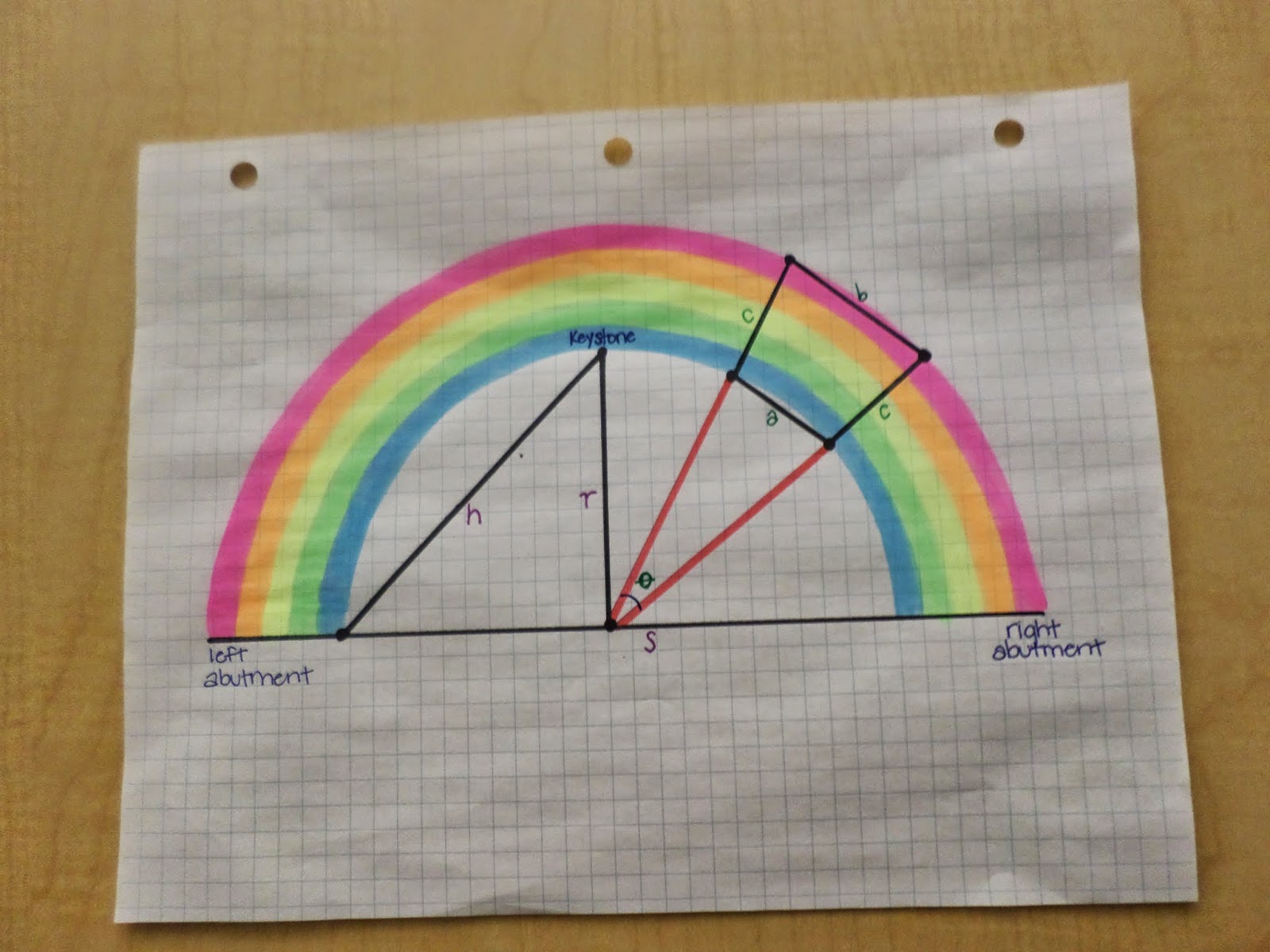
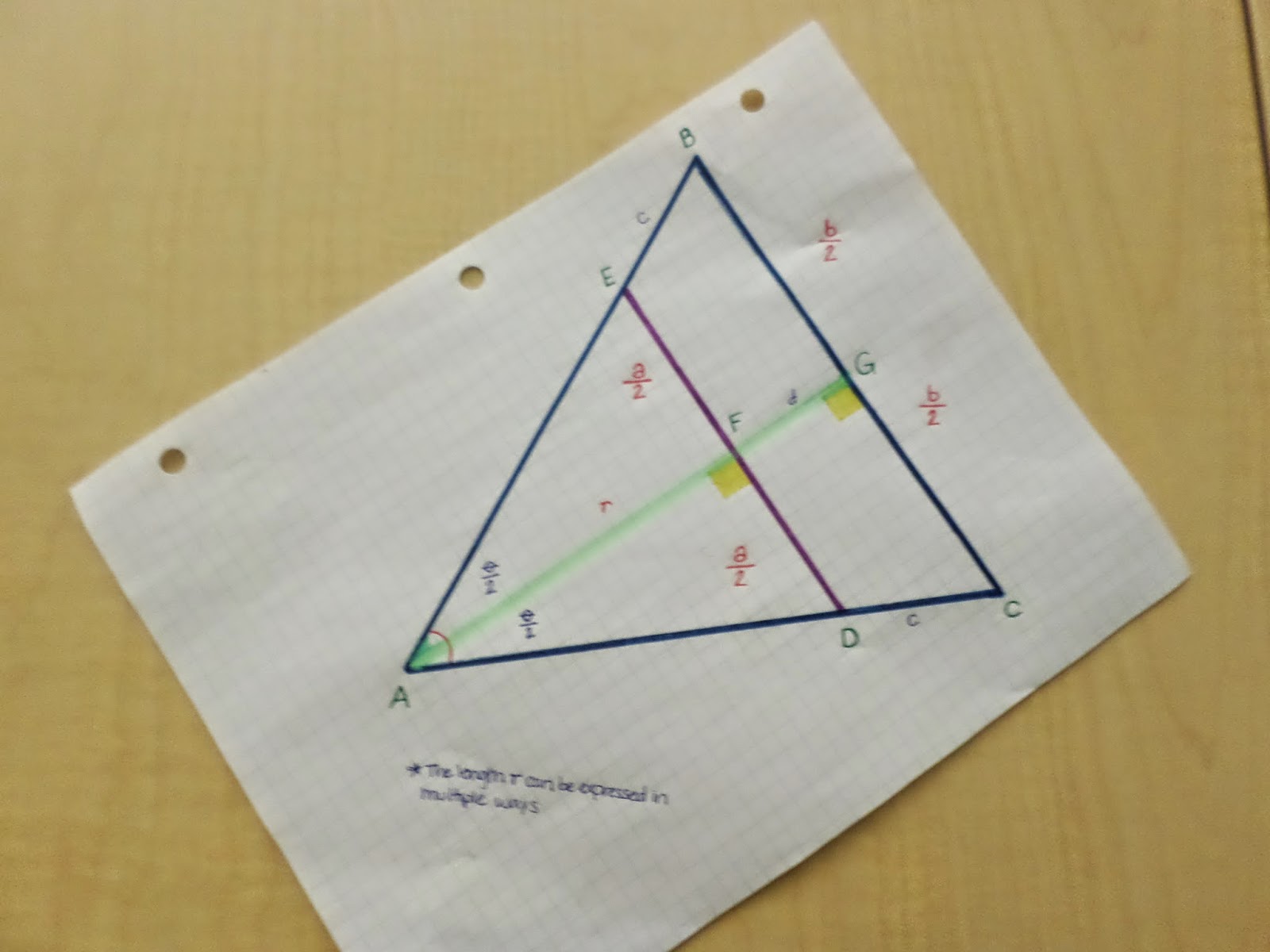
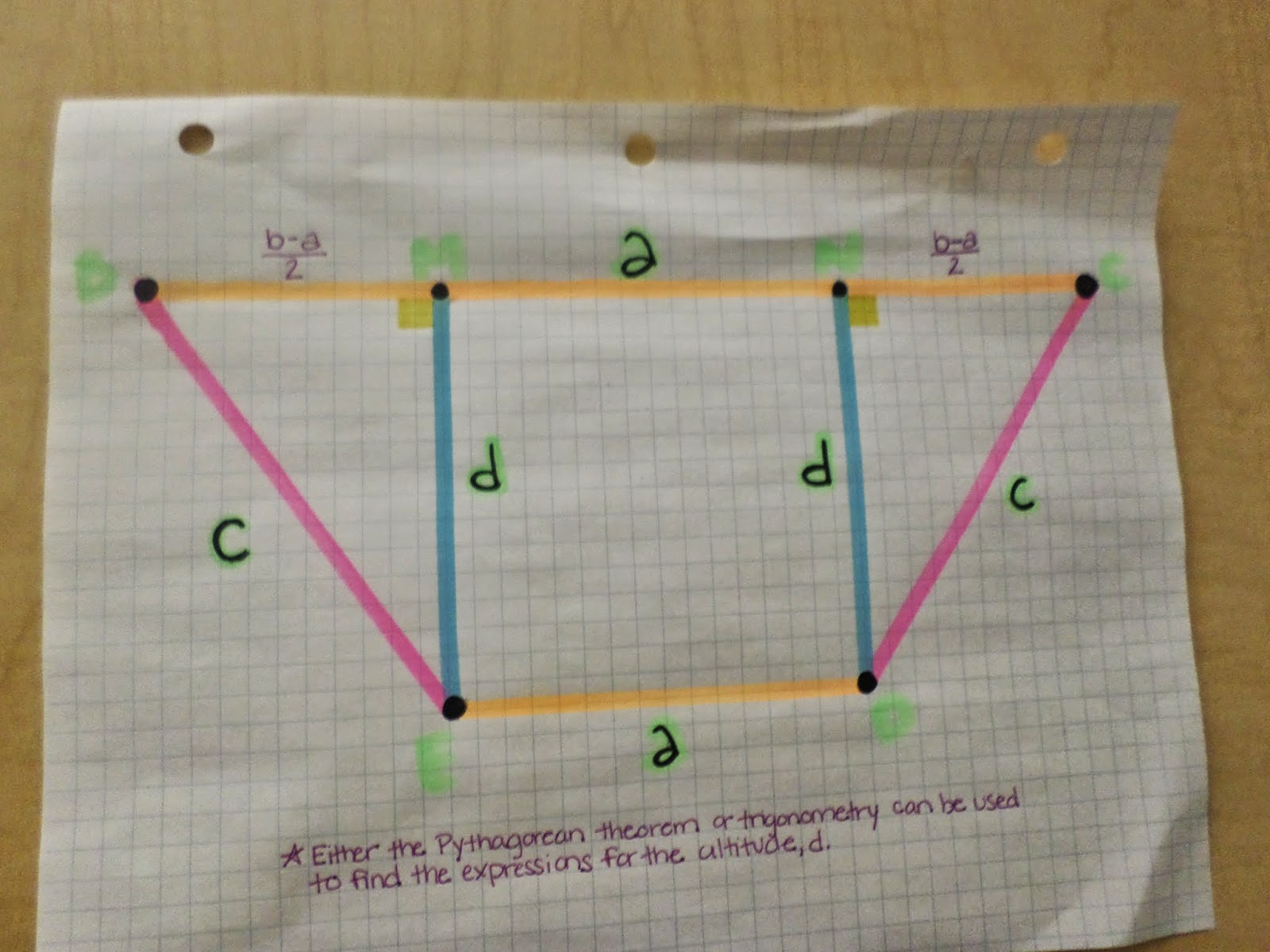
Unit Circle
Since I’m going to be teaching trigonometry and pre-calculus next year for the first time ever, I love that these students constructed their own unit circles instead of simply filling in the values.
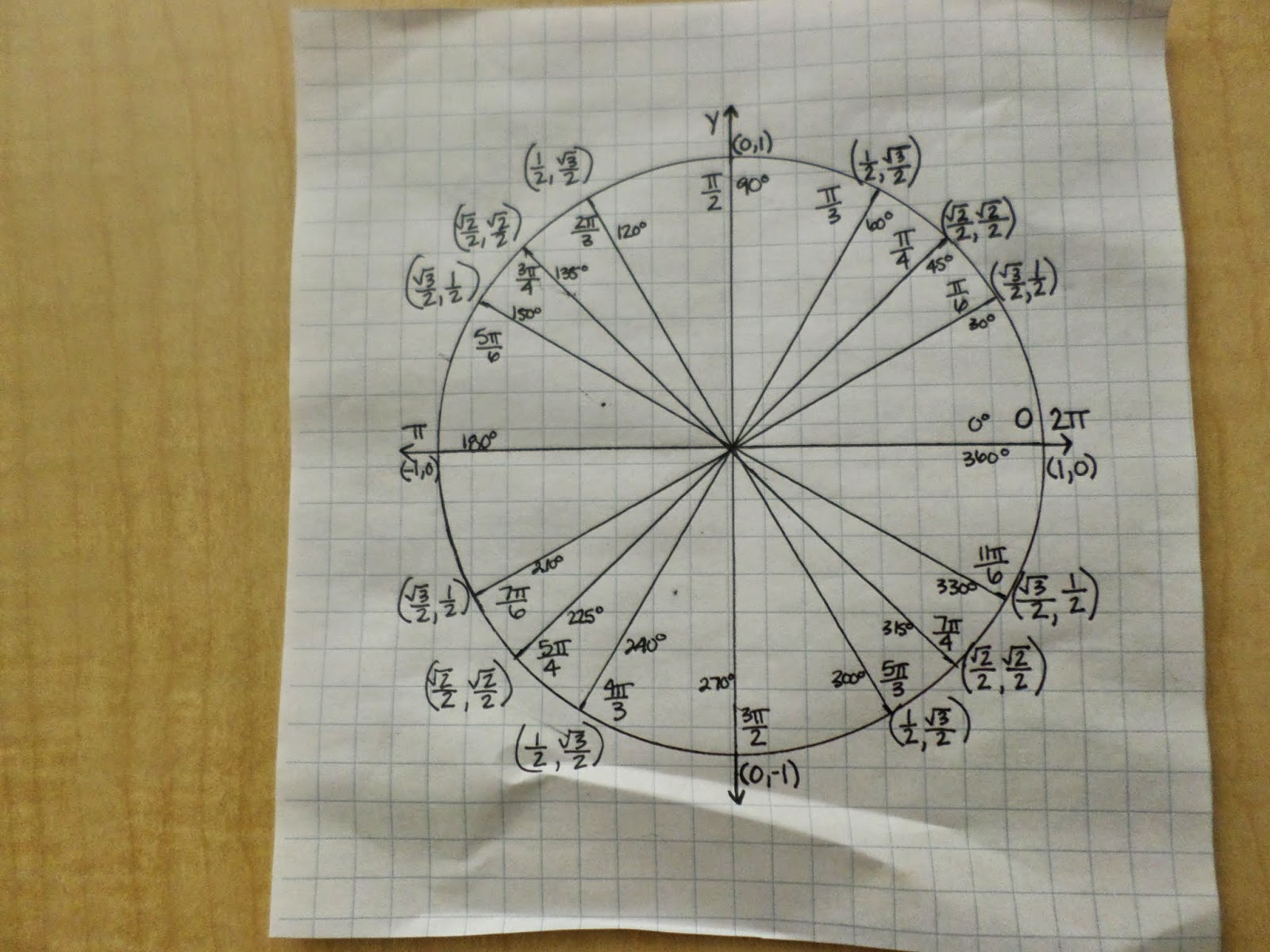
Trashketball?
Who wants to bet on whether this teacher plays trashketball with his students?
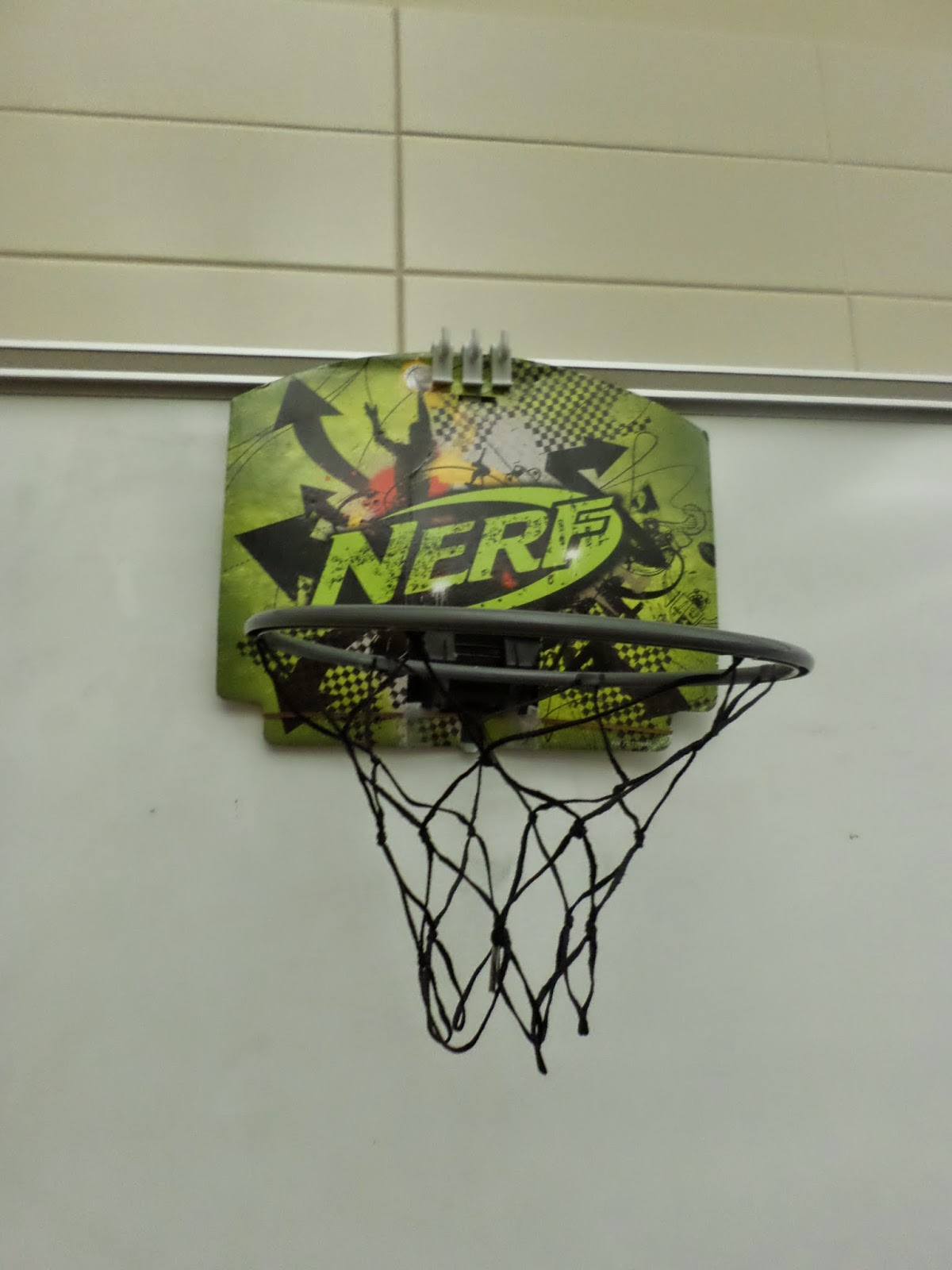
Whiteboard Presentation
I’m totally jealous of this whiteboard presentation. When I write on the whiteboard it looks SLOPPY.
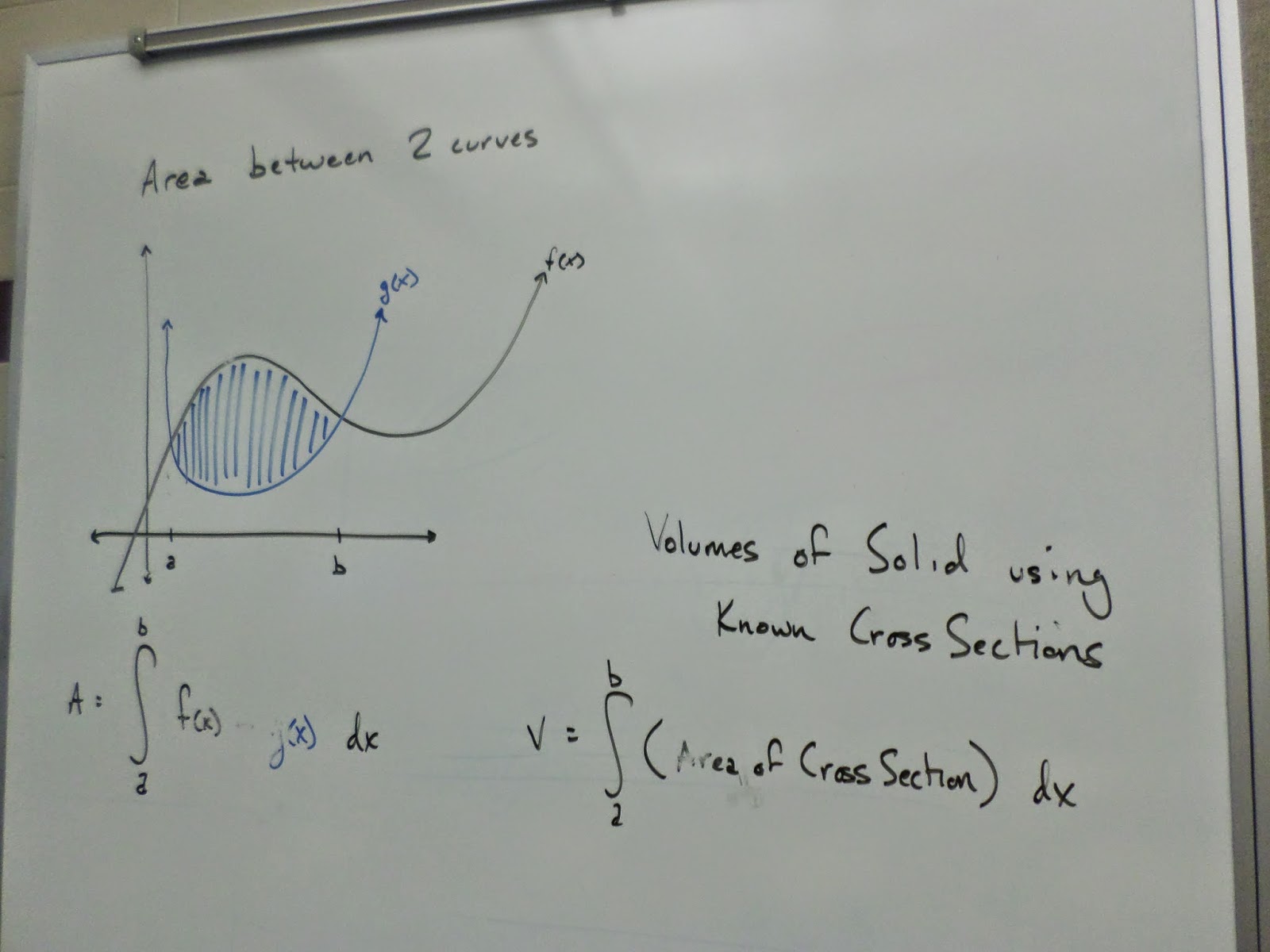
Bulletin Board for Organization
I also like this use of a bulletin board to organize papers. If I only had one prep, this would be perfect. But, I don’t think I could justify using three bulletin boards for my three preps. Still, I’m always on the lookout for ways to become more organized. Trust me; I need it!
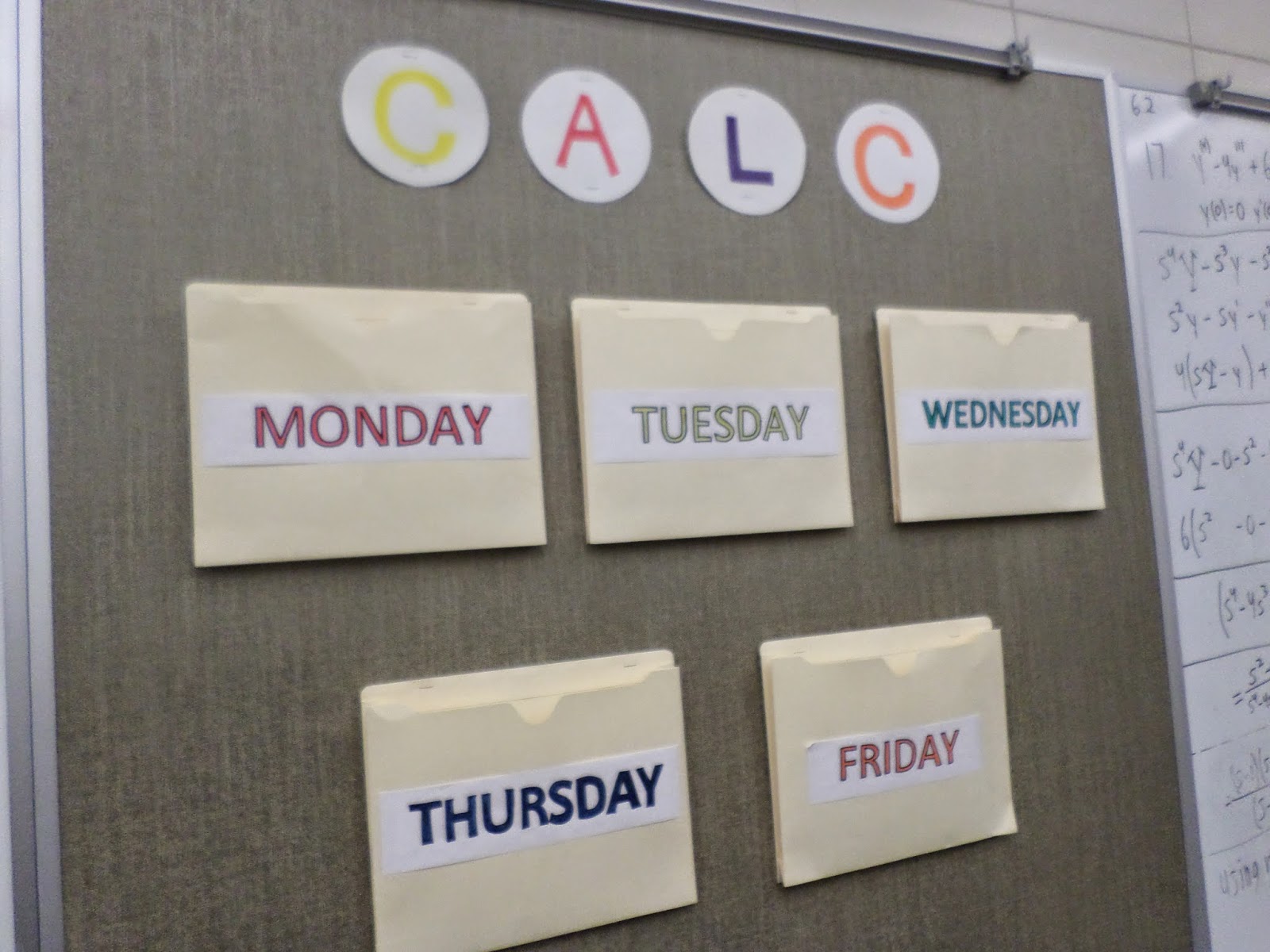
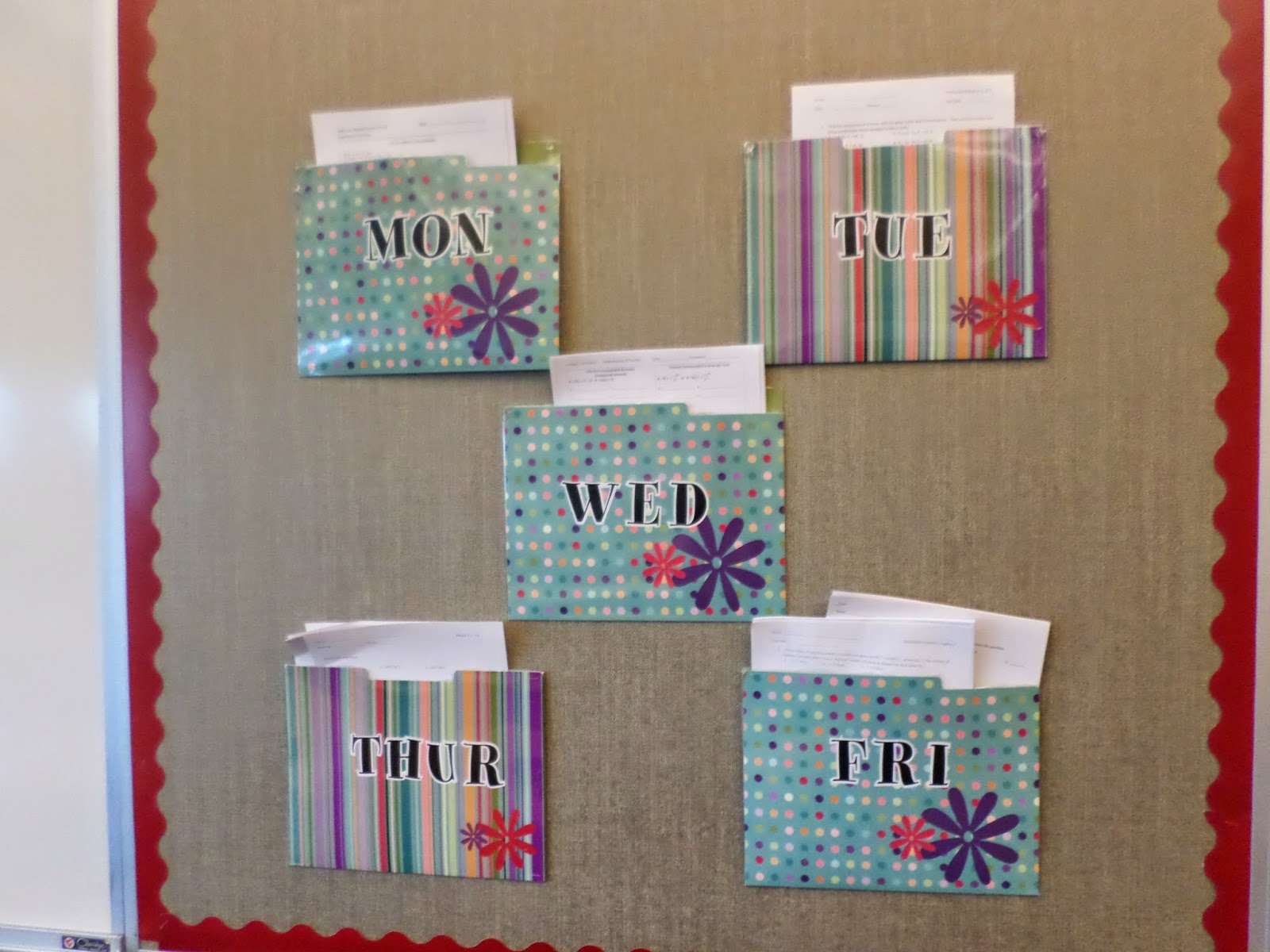
Mini Math Art Posters
I think these two mini posters are beautiful! It would be fun to have students create one of these at the end of the year with all the things they deemed important from that course. Then, you could post them at the beginning of the next year to show students all that they were going to learn!
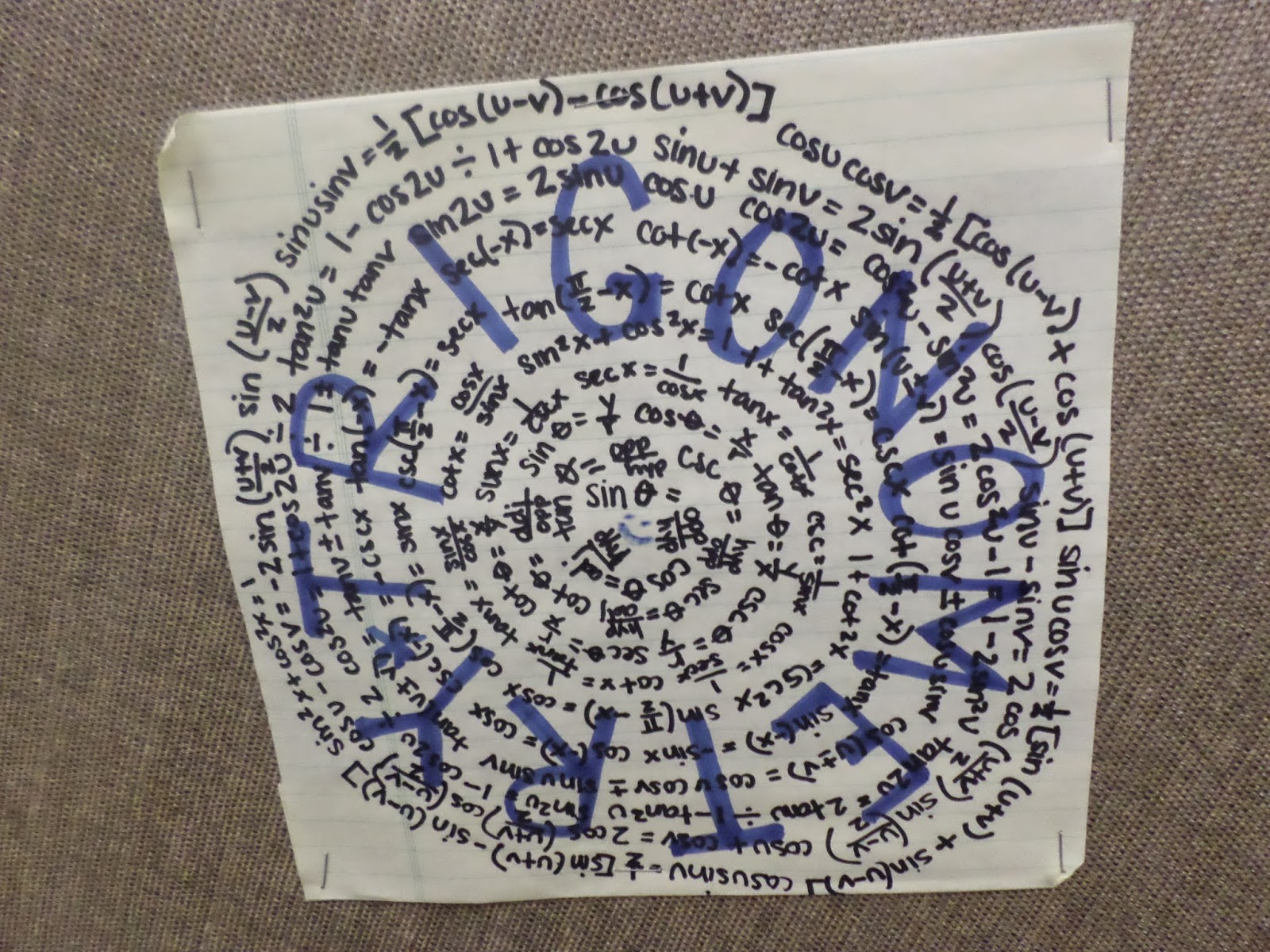
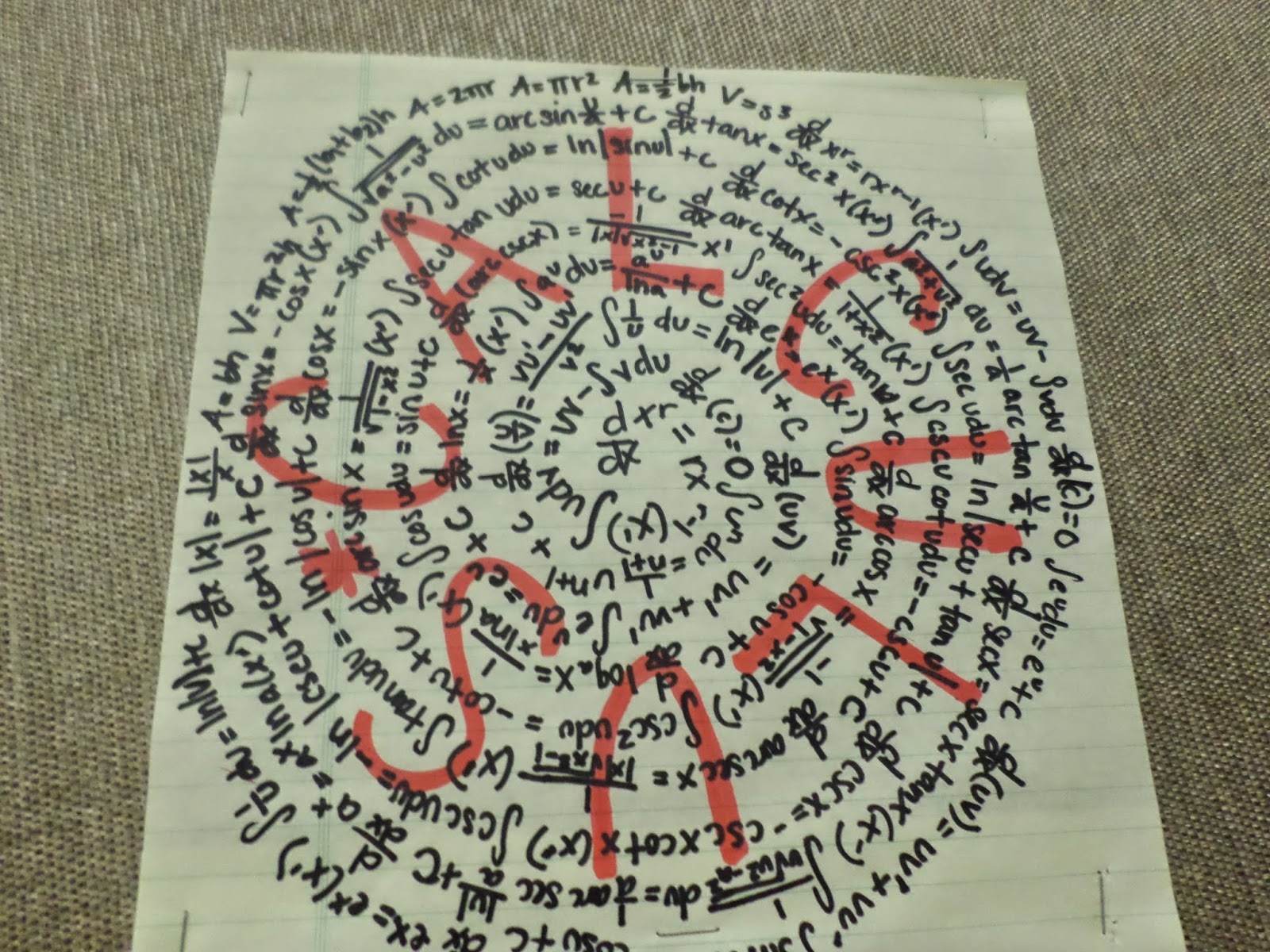
Quotes
In one classroom, the teacher had taken quotes and wrapped them around the ENTIRE room. I only took pictures of two of the quotes, but they covered the other walls as well.
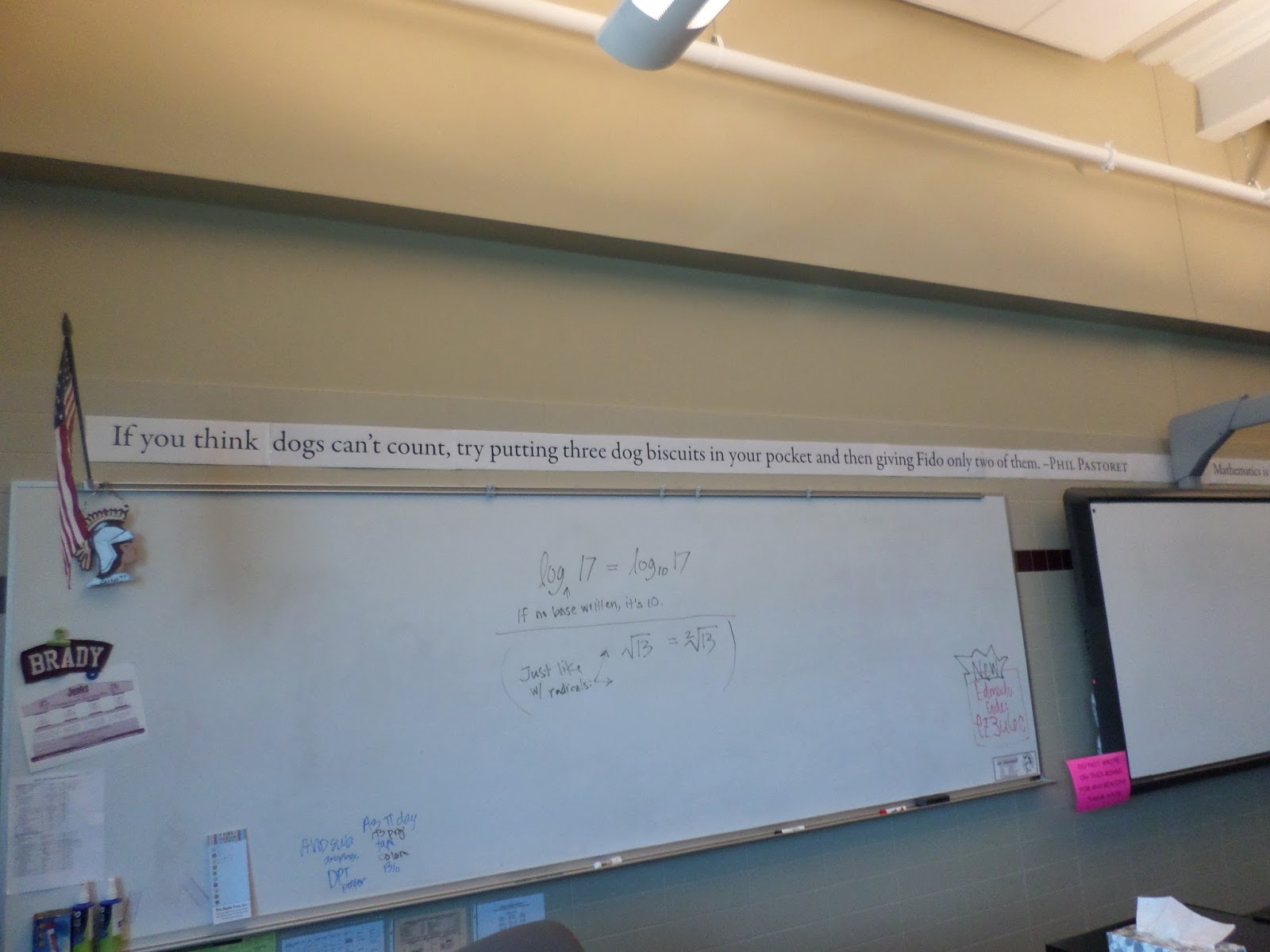
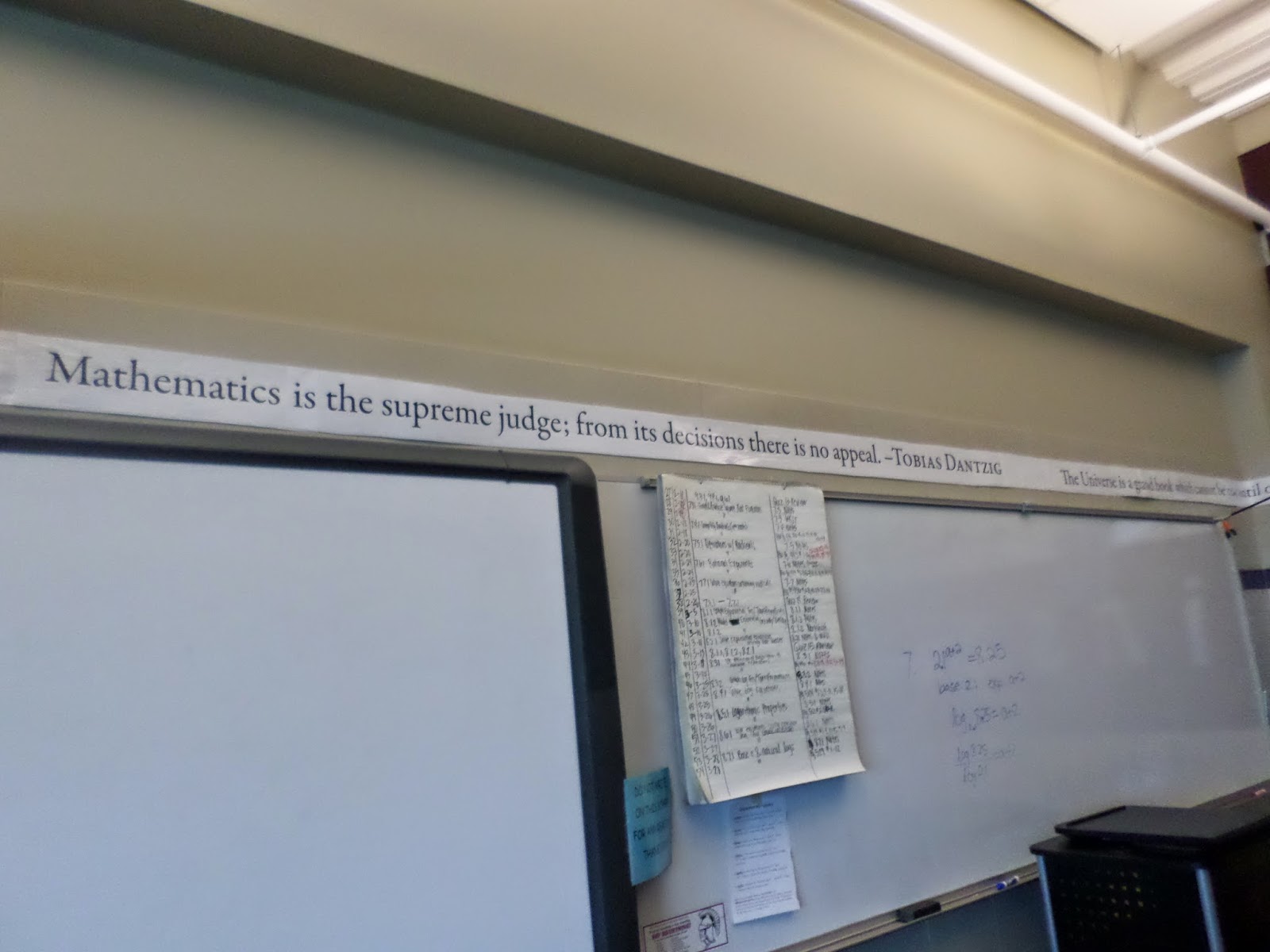
Insπre Wall Hanging
Making an Insπre poster or wall-hanging for my classroom is definitely going on my summer to-do list! One of the perks of working in an ancient building is that we have really high ceilings. So, I’m thinking I want to orient the words vertically.
(I also probably need to designate a lost and found place in my classroom as well!)
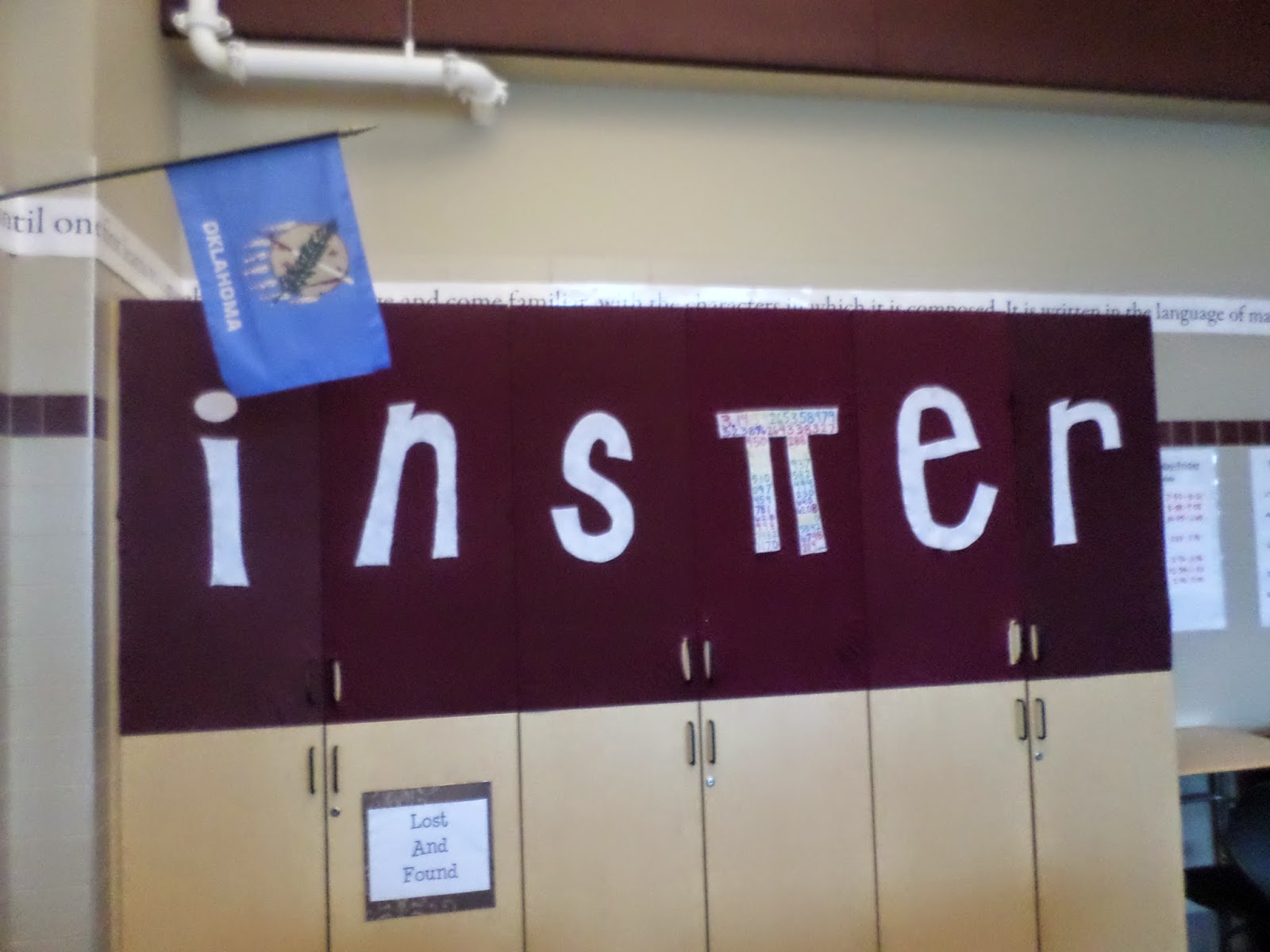
My favorite part was probably the pi symbol that featured the first so many digits of pi. This will go perfectly with my pi filing cabinet!
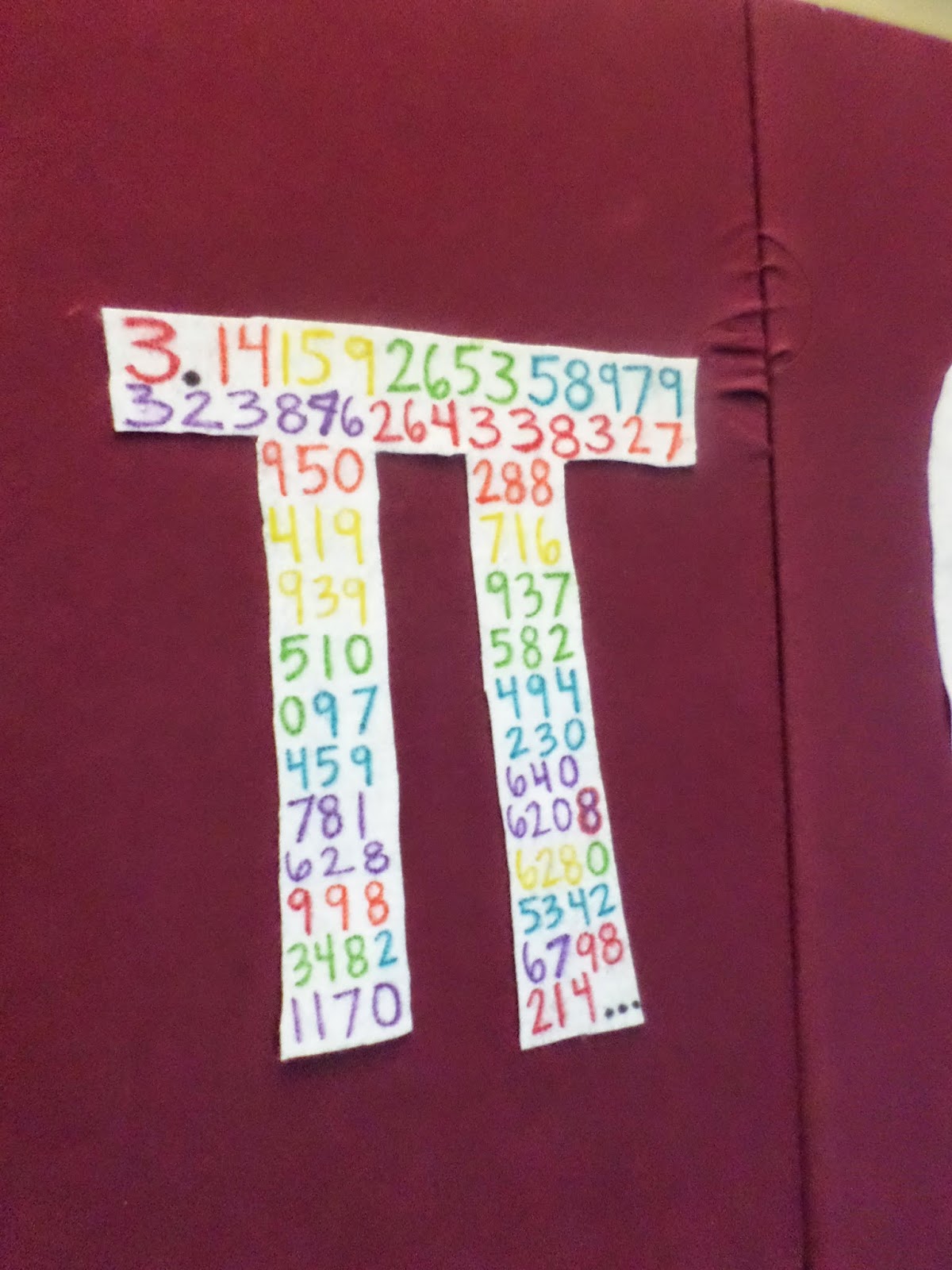
Radians and Degrees Beach Ball
This ball with radian and angle measurements will definitely be making an appearance in my trig class next year! I can only guess what the teacher used it for. I’m picturing my students in a circle. They toss the ball from one to another. If their right thumb lands on a radian measurement, they must convert it to degrees. If their right thumb lands on a measurement in degrees, they must convert it to radians. If they cannot do it correctly in the allotted time, they are out. I could also see tossing the ball around the room to generate random trig problems.
Does anybody use something like this in their classroom? I’d love to hear about it!
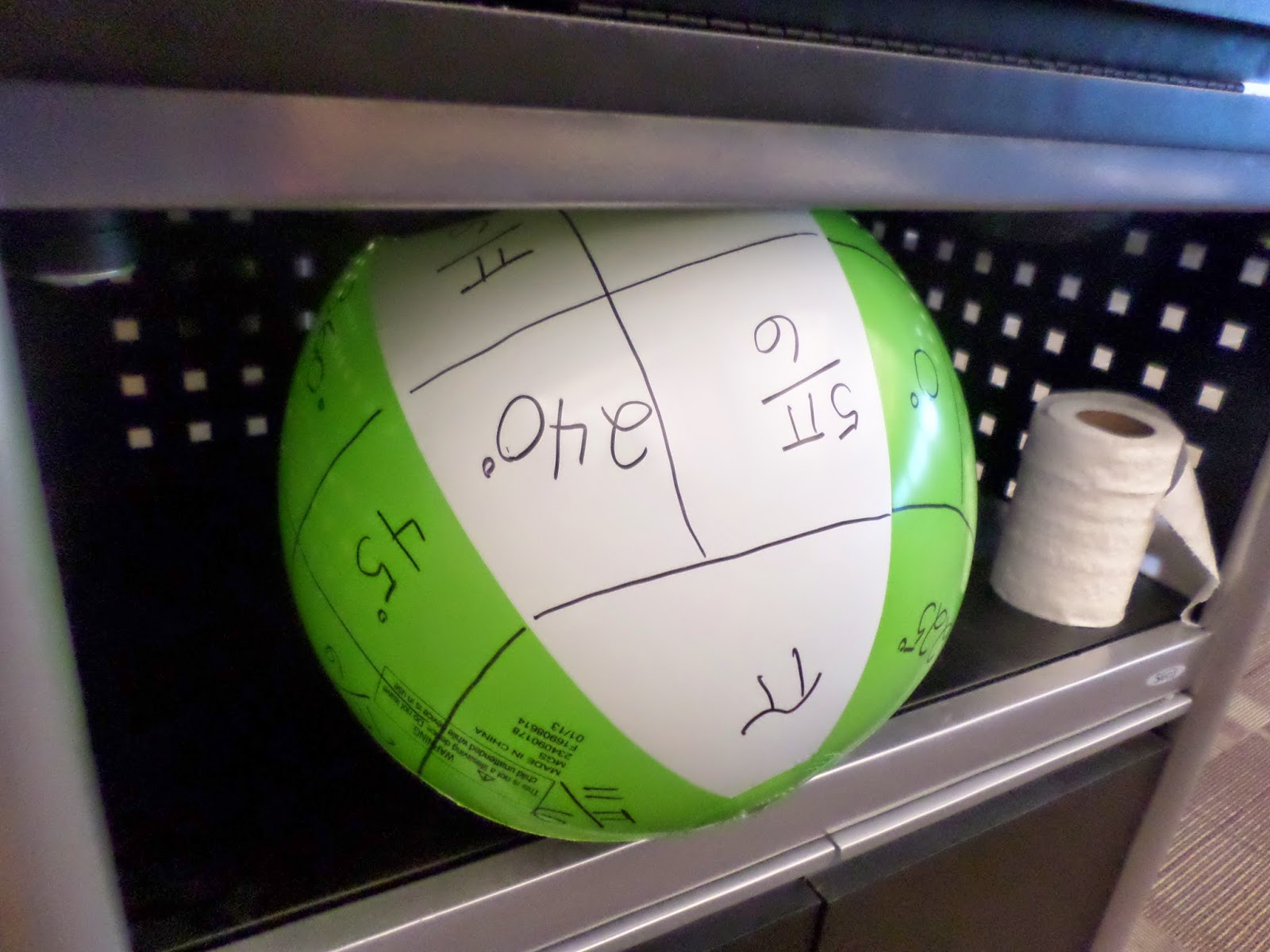
Paper Plate Unit Circles
I also can’t wait to make paper plate unit circles in trig next year! Can you tell that I’m super excited about teaching trig?!?
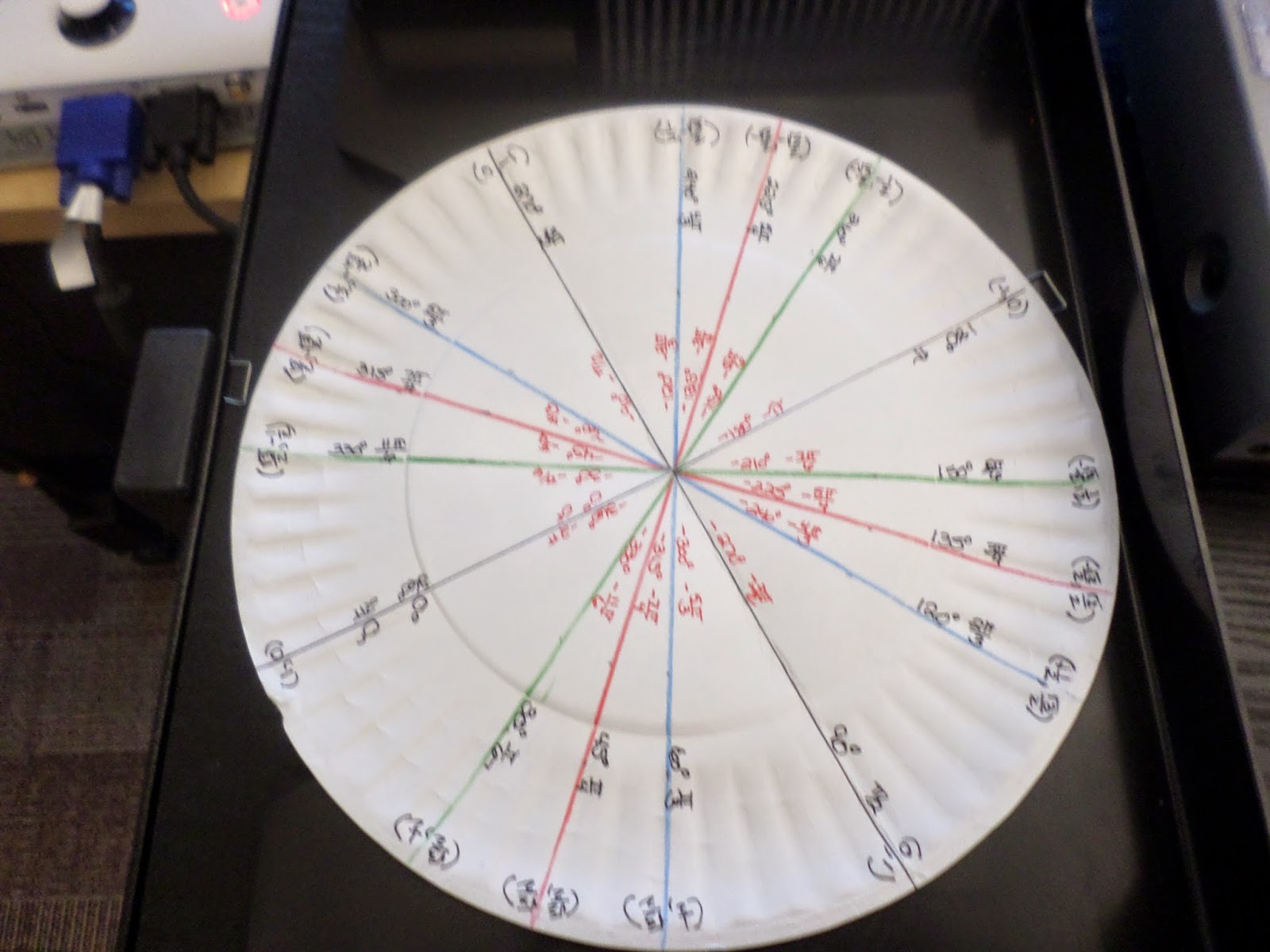
Classroom Parking Lot
My first experience with a parking lot in the classroom was at an OGAP conference last summer. Every table was given pads of sticky notes. And, we were told that we could post any questions, comments, or concerns that we had on the parking lot. And, the coordinators would make sure that they were covered or taken care of. I don’t think anybody used it at all. That doesn’t make it a good idea at all.
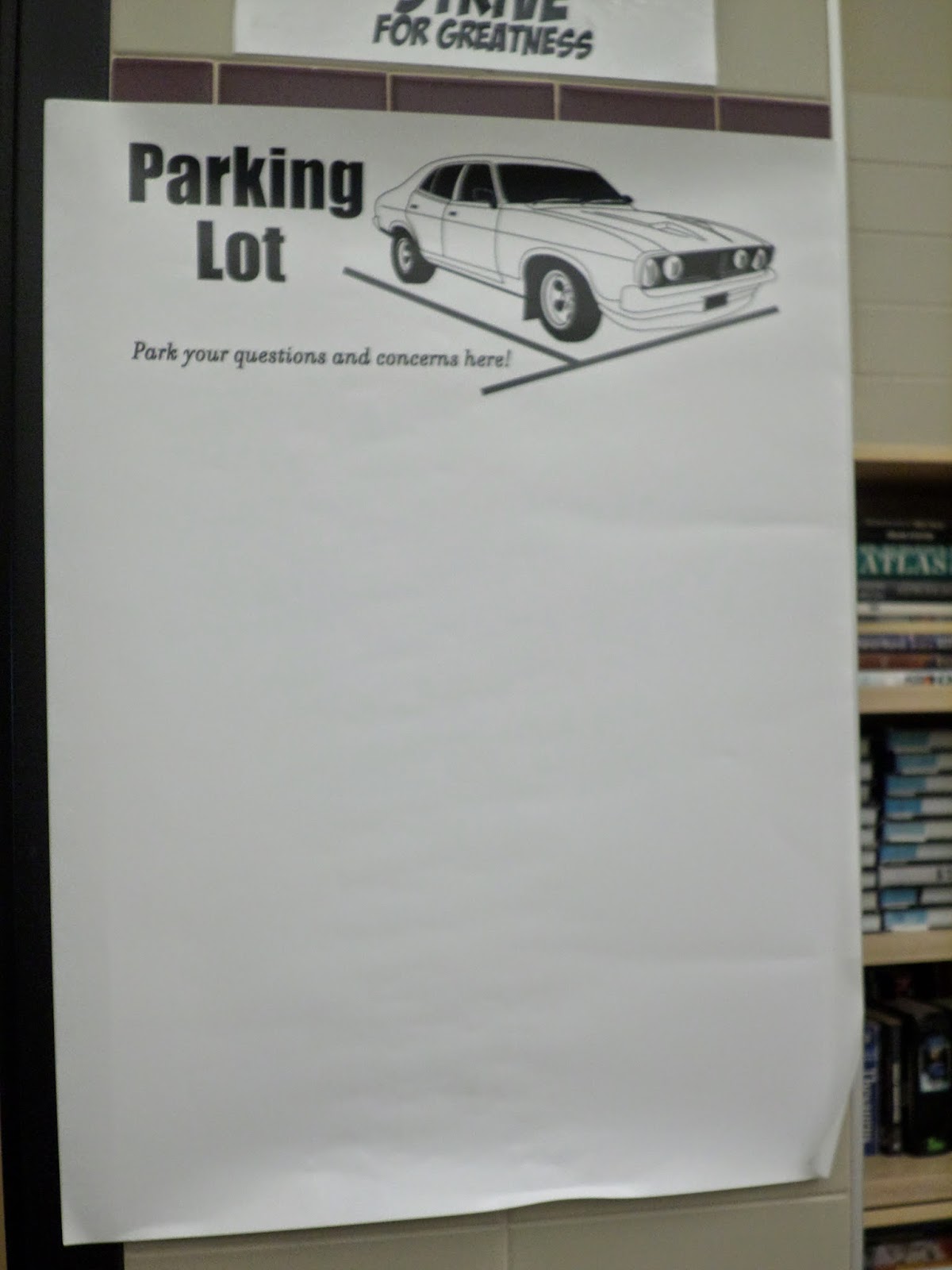
Procedures Poster
One of my main goals for this summer is to work on my classroom management strategies. I’m going to be really honest. Classroom management is probably my weakest area in the classroom. I need to make some major changes. I went into teaching assuming that high school students were capable of knowing when it was appropriate and inappropriate to do certain things. For example, when I’m working a problem out on the SMART Board, it is inappropriate to have a conversation with your neighbor. But, you wouldn’t know that by looking at my students. I’m getting sick and tired of hearing myself say “You should not be talking right now. You should not be talking right now.” After two years, I’ve learned that going in without a plan does not lend to a well-managed classroom. So, next year is going to be different. I’m finally seeing the importance of procedures and everything else that I read about before I started teaching.
I’m thinking that if I can train my students to use the parking lot from the very beginning of the school year, it could be very beneficial. It’s going to take training and practice, though.
If I am going to have more procedures, I am going to need to find a way to communicate those procedures to my students. I liked this procedure sign that I found in one classroom.
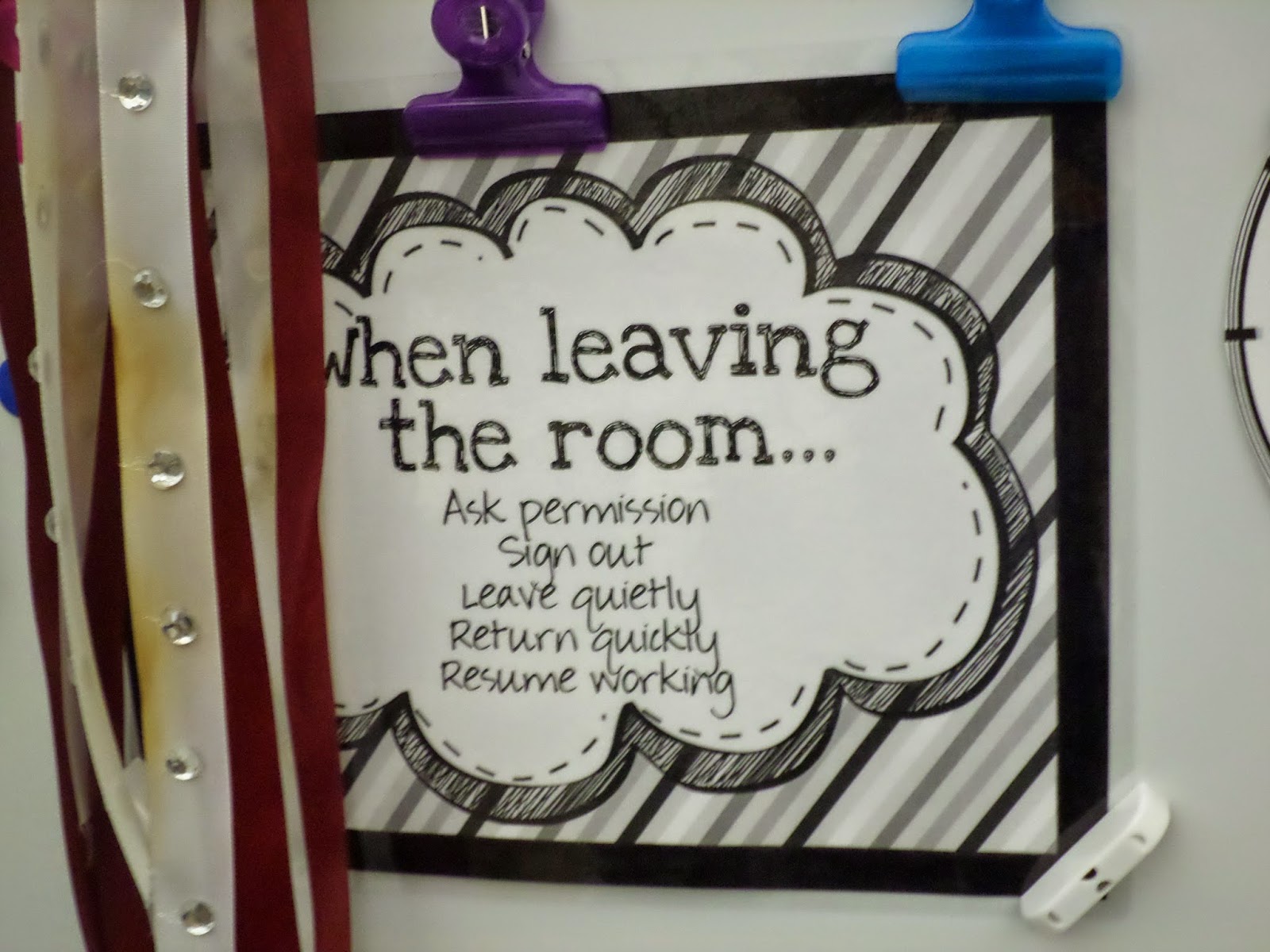
Book / Brain / Beyond Posters
I liked these Book / Brain / Beyond posters that I saw posted in several classrooms. I know I need to ask my students to do a lot more tasks involving #2 and #3.
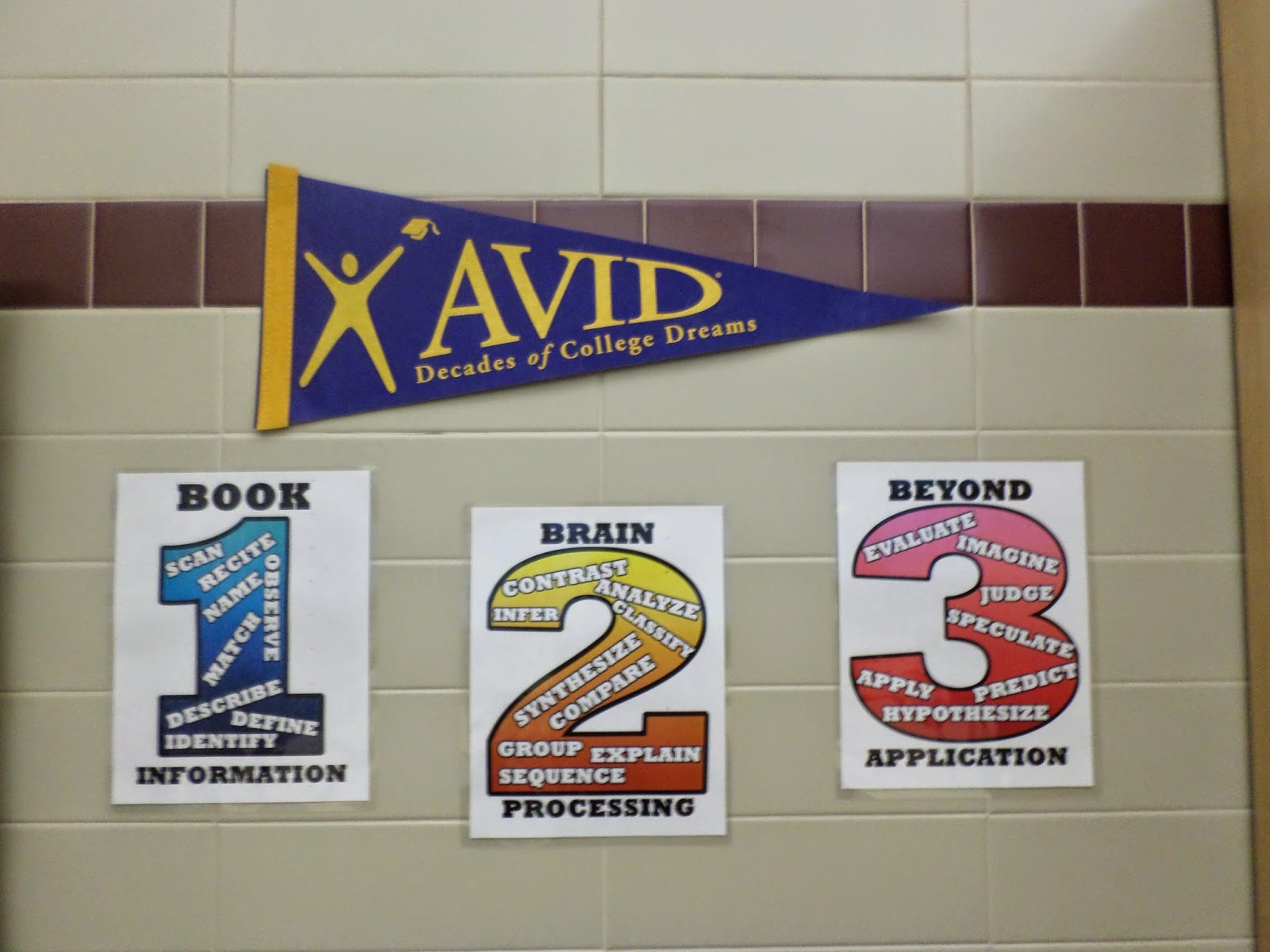
Using Dry Erase Pockets for Organization
I have a box of these clear plastic dry erase pockets in my cabinet. I used them a lot last year, but this year I’ve been using double sided dry erase boards that my school purchased for me. I liked the idea of storing papers in these pockets for student access. This teacher used the pocket to hold talent show applications. But, I could store anything in them. Since they are see-through, students could easily see what they were accessing.
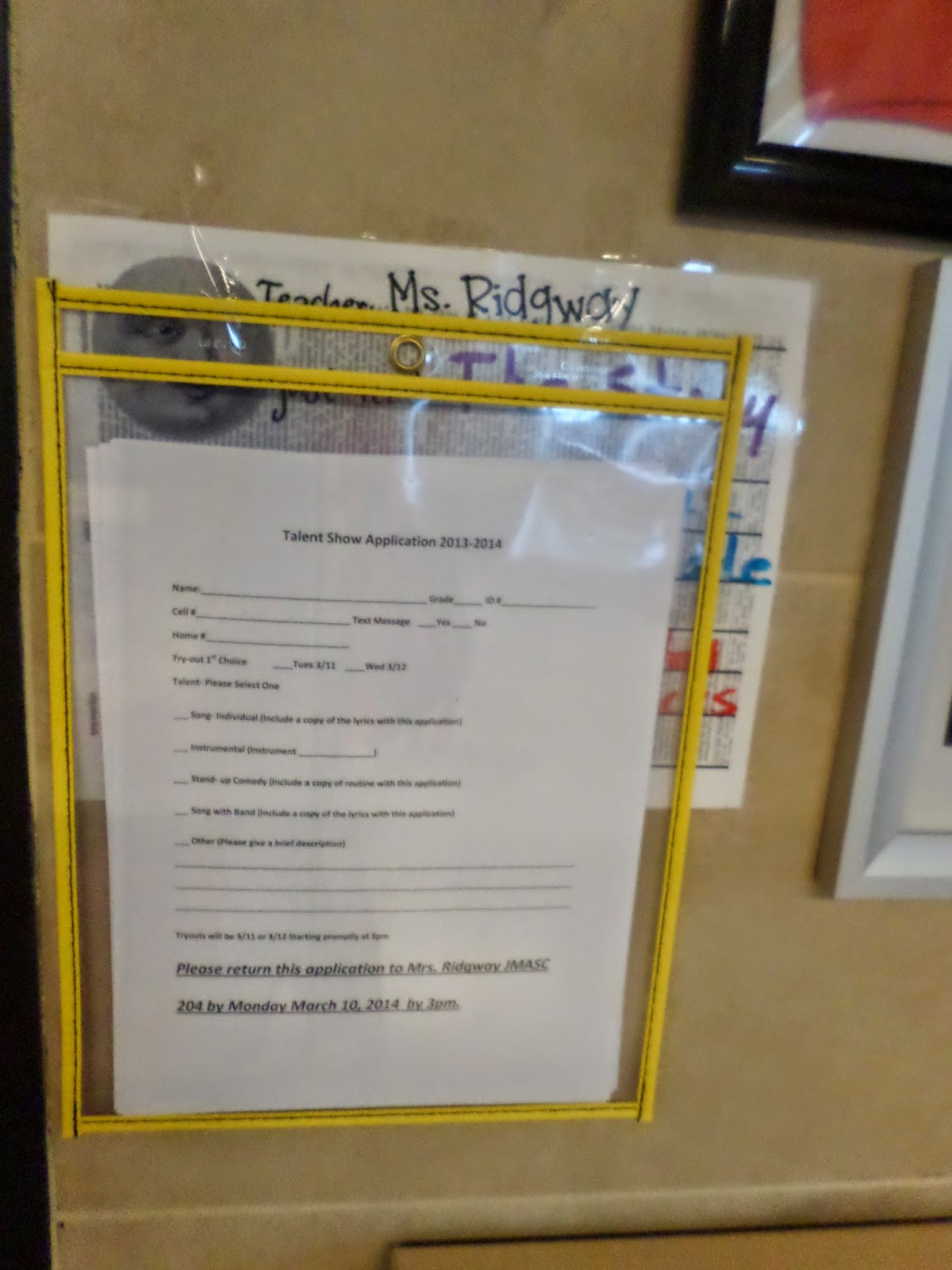
Inviting Questions About College
Outside one classroom, the teacher had a frame that invited students to ask them about their college experiences at Oklahoma State University and The University of Tulsa. As a Tulsa grad myself, I was excited to see someone else repping the Golden Hurricanes. It made me realize, though, that I’m not quite sure I’ve ever asked my students to ask me about my college experience. I’ve got a couple of TU flags hanging my classroom, and I’ll gladly answer questions. But, I’ve never really sought out their questions. I teach in a community where the majority of our students do not go on to higher education. Some do, and hopefully more will in the future. In the mean time, I need to make sure that my students know that I am more than willing to sit down with them and talk about what college is like.
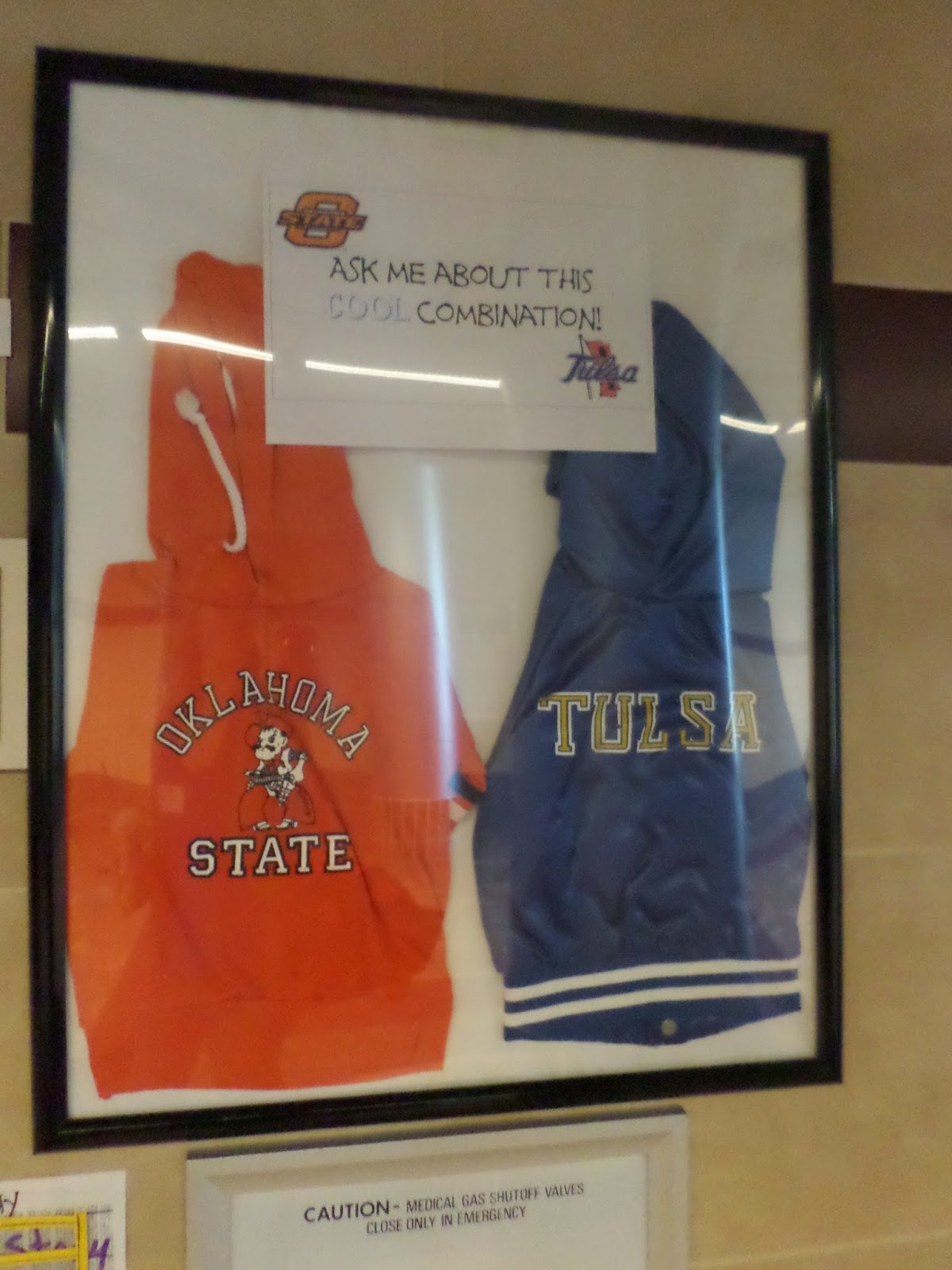
Displaying Senior Pictures
In one classroom, I saw a teacher use baseball card holder pages to display senior pictures. I thought this was a brilliant idea! Of course, it’s not quite feasible for my classroom and situation. In two years of teaching, I’ve been given one senior picture. ONE. Maybe I’ll be able to collect this many senior pictures by the time I retire…
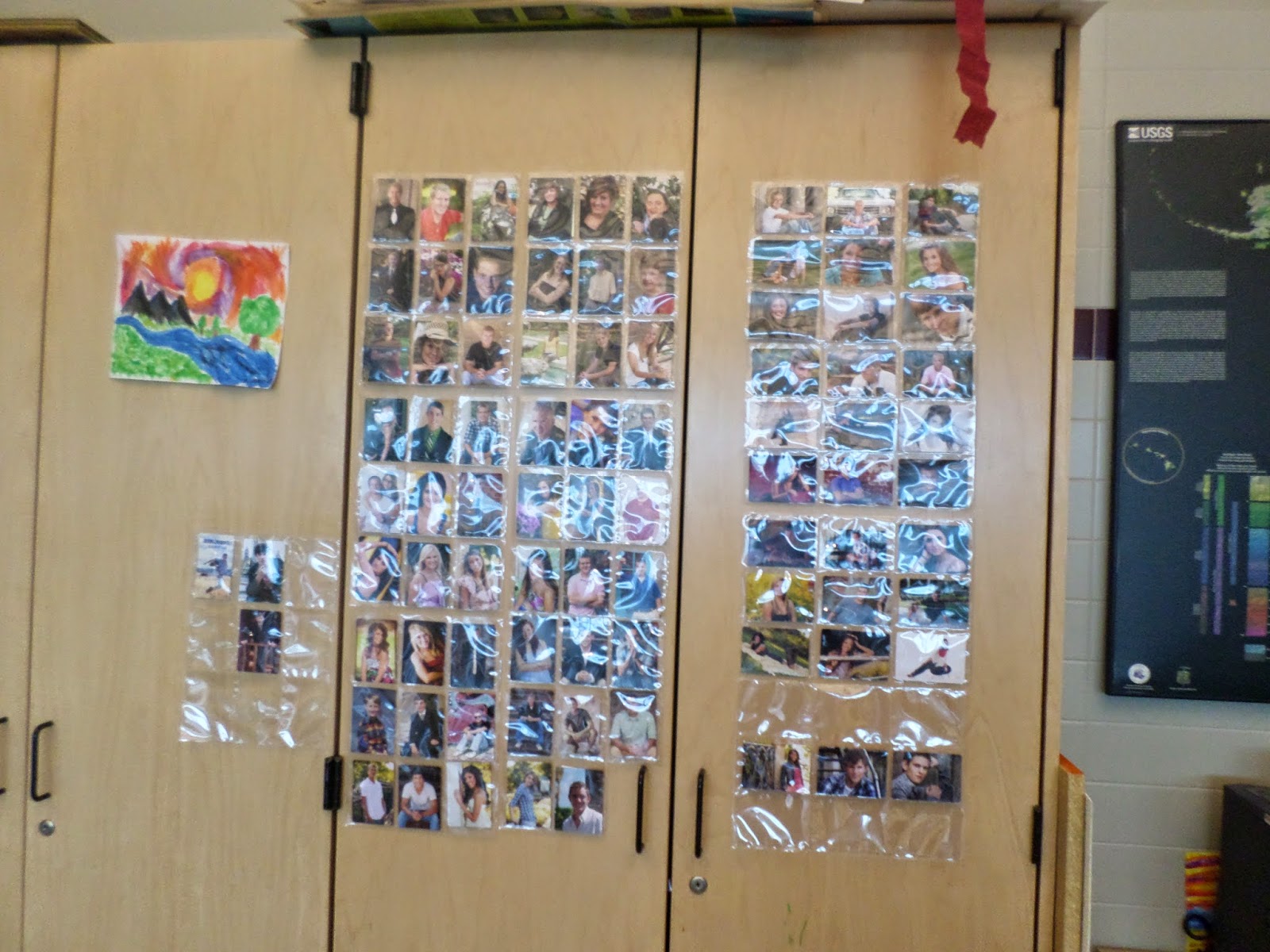
Turn In Trays
For the past two years, I’ve had all of my students turn their papers into the same tray. Next year, I think I’m finally going to make trays for each class. This should save me time and frustration in grading. Now, I just have to find a place in my classroom to put six different trays. This should be interesting…
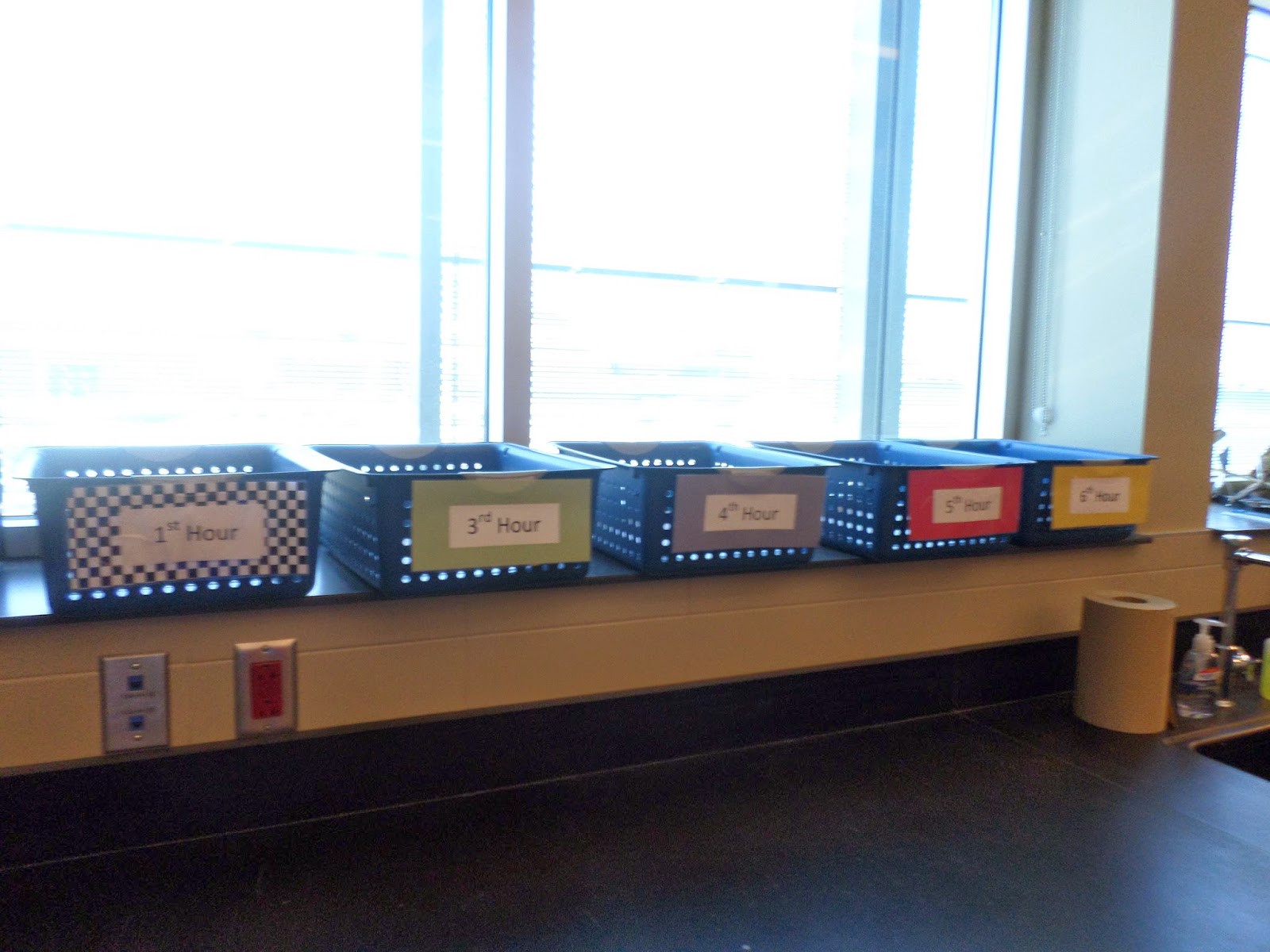
I’m also in love with this turn in tray. It’s just a cardboard cover for a stacking paper tray. But, it prevents students from retrieving papers after turning them in or looking at other people’s papers. Plus, I love that the make-up papers have to go in a separate tray. I’m thinking about changing my policy on late work for next year, so having a dedicated tray for that would be especially useful!
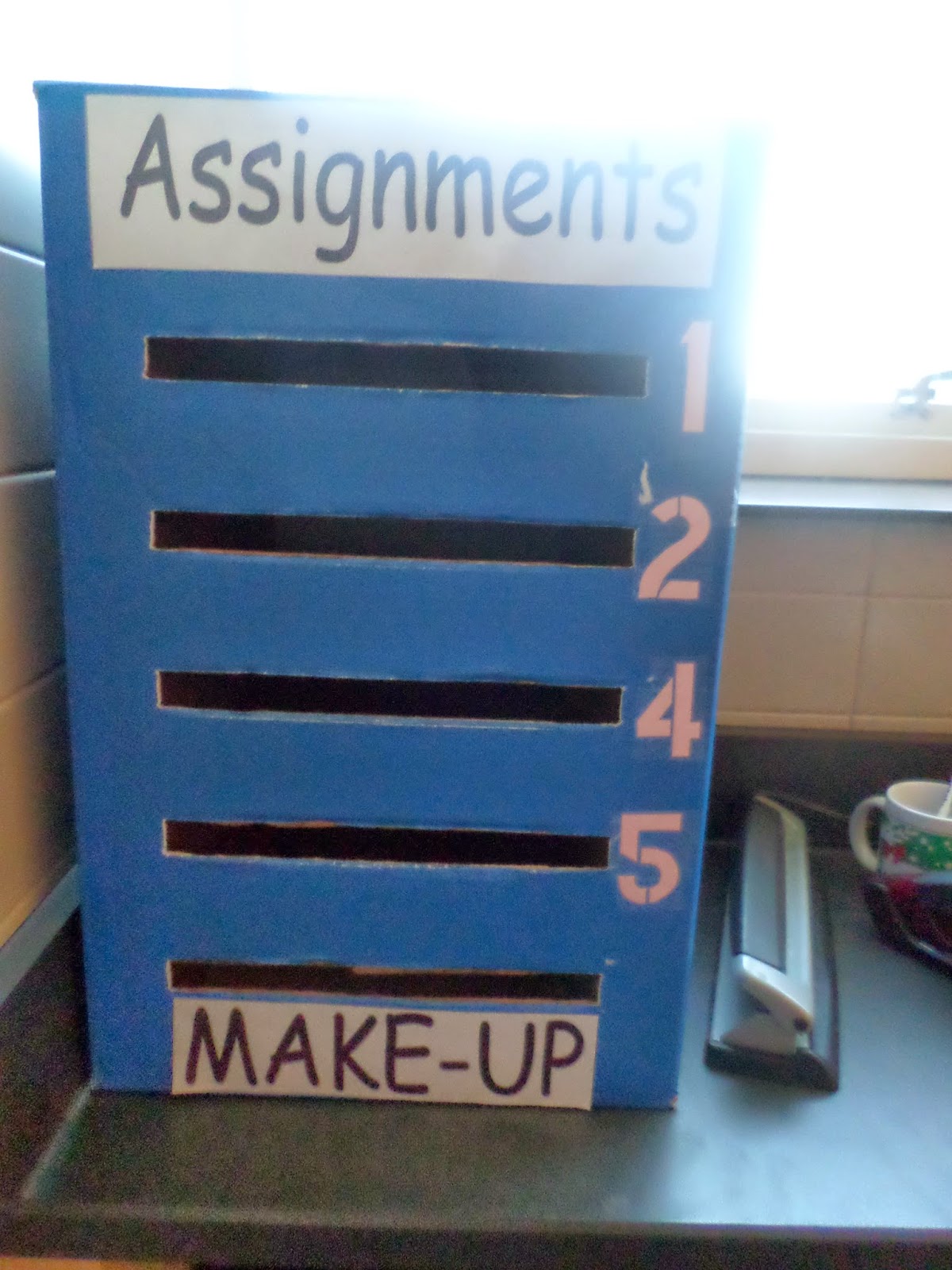
Dry Erase Grid
I’m also starting to think about how I want to grid my dry erase board next year. I’ve taught for two years and done it two different ways so far. I kind of like the idea of showing a whole week at once. But, I’ve never done it this way. And, I’m not sure if it would make it harder or easier to maintain.
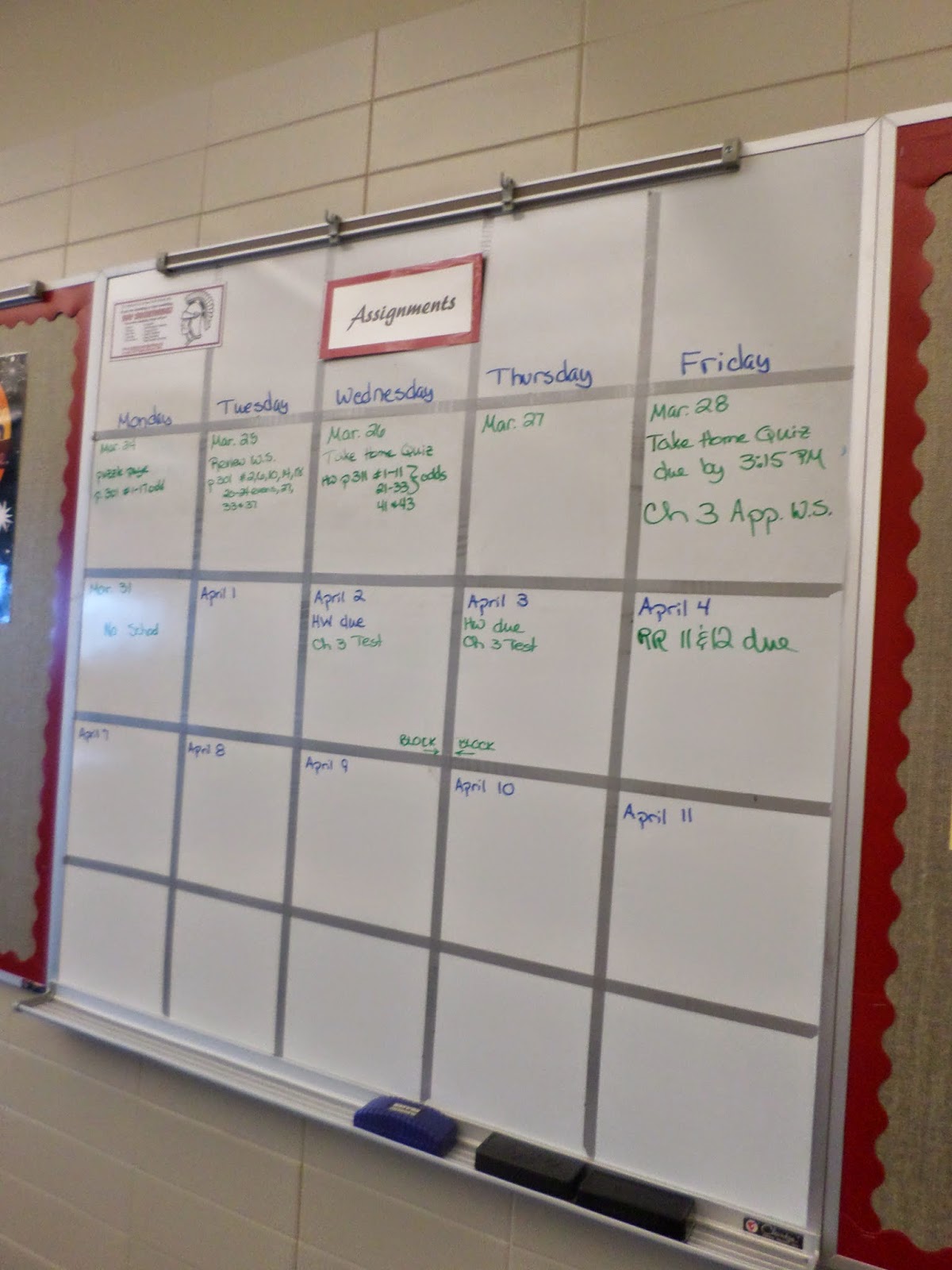
Bulletin Board to Highlight Students
Isn’t this bulletin board adorable? The teacher took a picture of each class period that she teaches. Every week, she selects a student from each class to fill out a survey about themselves. Their answers are displayed next to the picture of that class inside a picture frame. The board is labeled as Gents and Ladies. I’m thinking of doing this next year to replace my Star Students Board.
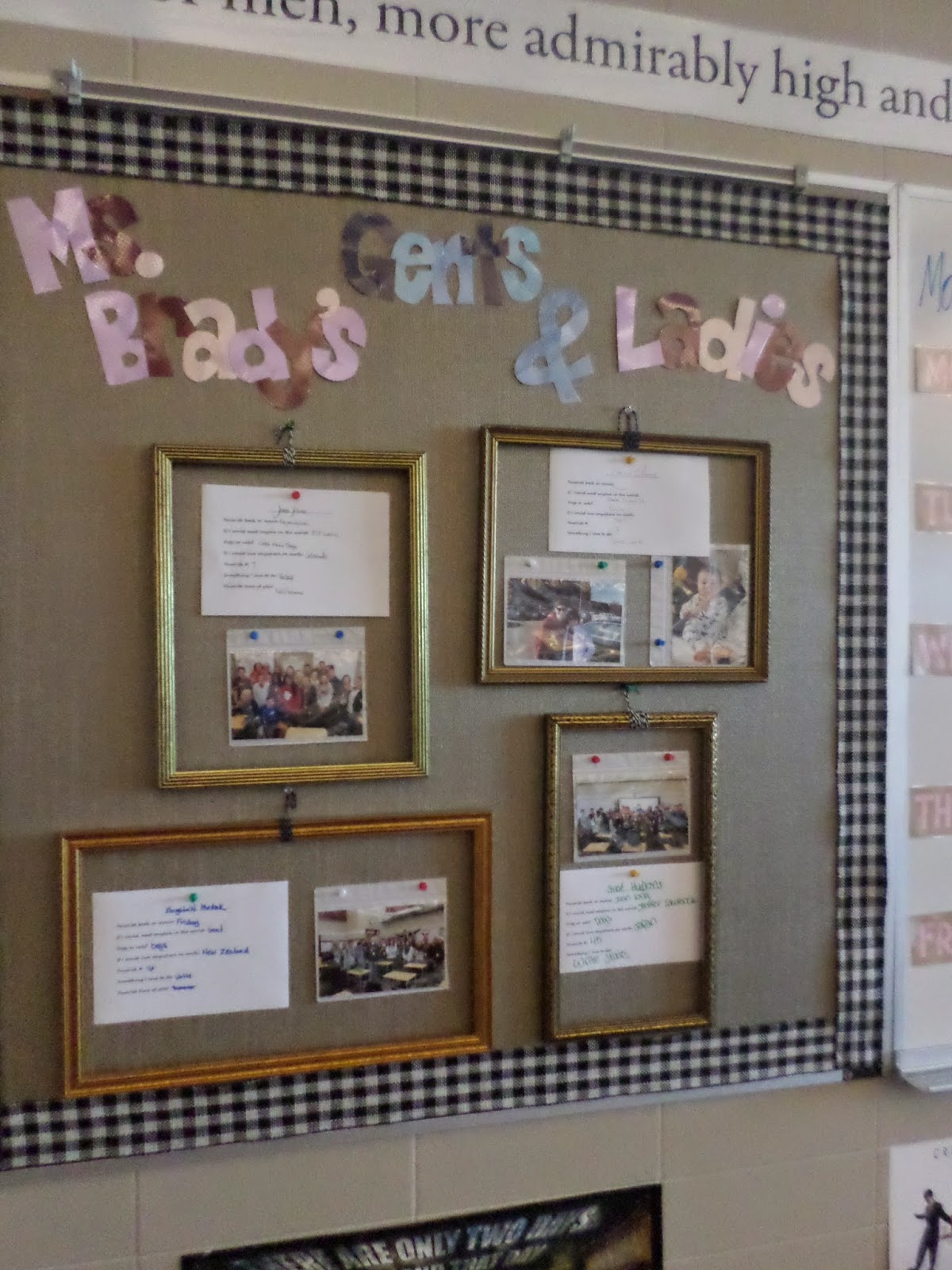
Reading Poster
Outside of each classroom, each teacher posts what book they are reading, what book they just read, and what book they want to read. I would love to see this happen at my school. What would happen if I just made these signs and hung them up outside each classroom? Do you think teachers would just start using them? It couldn’t hurt, right???
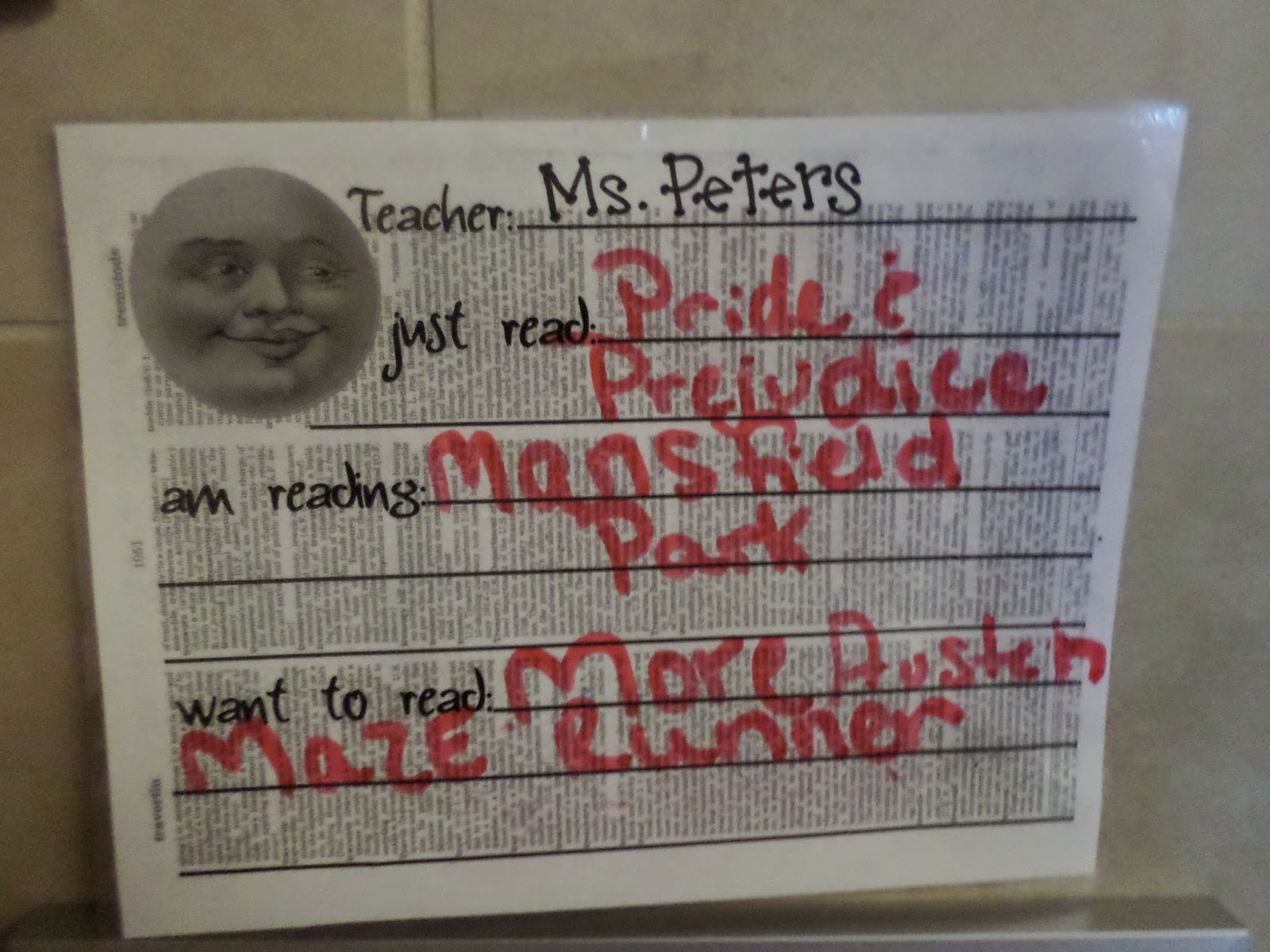
Time to Be Kind
I saw these “Time to be Kind” clocks in several classrooms. One of these clocks was distributed to every teacher to post in their classroom. I’m thinking that this could be a student council initiative next year. We could have a week that focused on random acts of kindness. And, these could be posted around the school as a reminder.
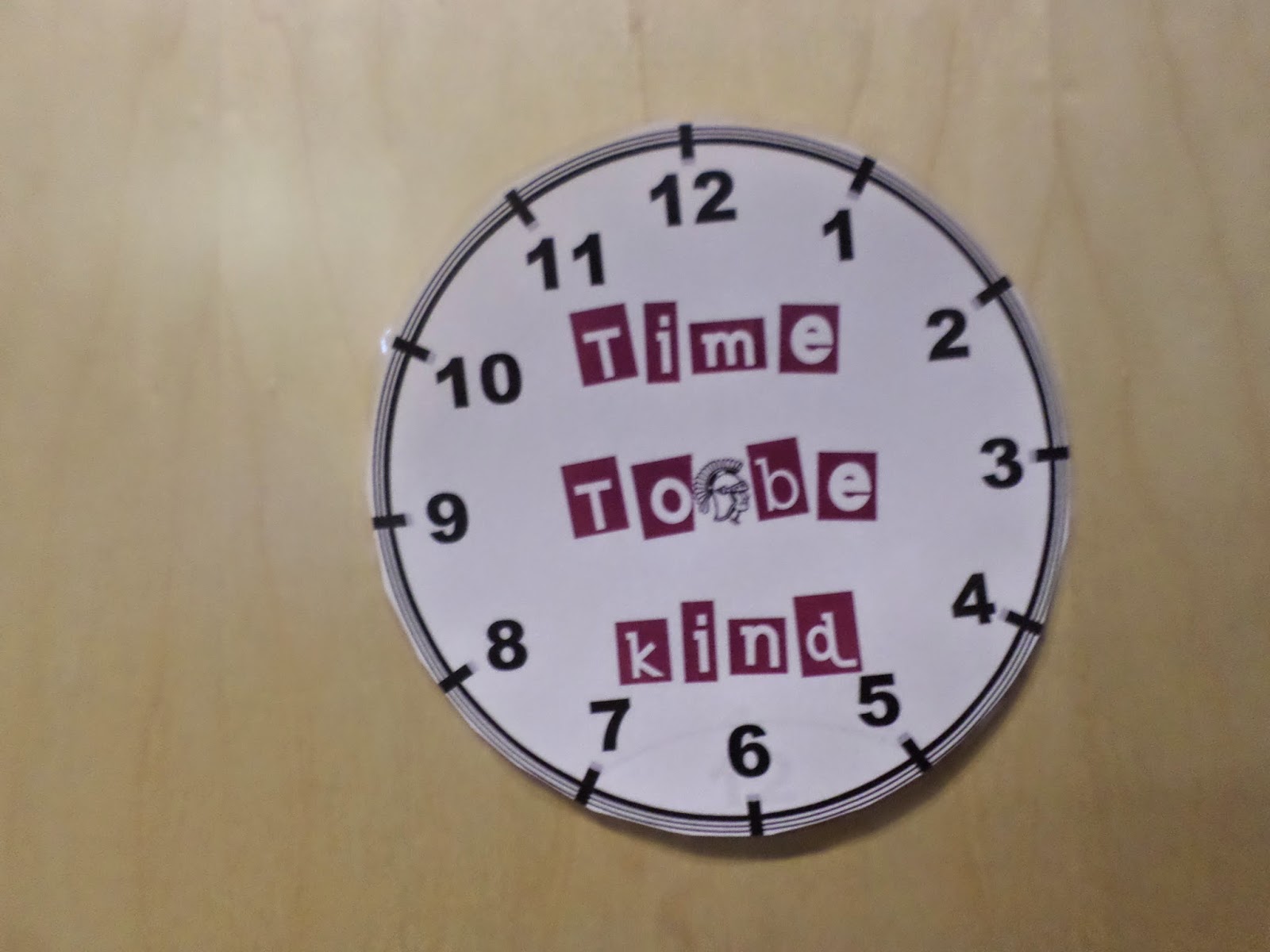
April 7, 2014 – Punk Rocker Chick
Have you ever wondered, “Hey, what would Ms. Hagan look like if she was a punk rocker chick?” Yeah, me neither. But, apparently one of my students has wondered that.
So, I present to you: Ms. Hagan, Punk Rocker Chick.

I tell you, teaching high school is NEVER dull!
April 8, 2014 – STEM Day 2014
The day before Spring Break, I had the privilege of taking a group of students to STEM Day, a morning of science, math, and engineering competitions at Central Tech, our local regional technology center. This was my first year to attend because I ended up having to miss it last year due to the stomach bug.
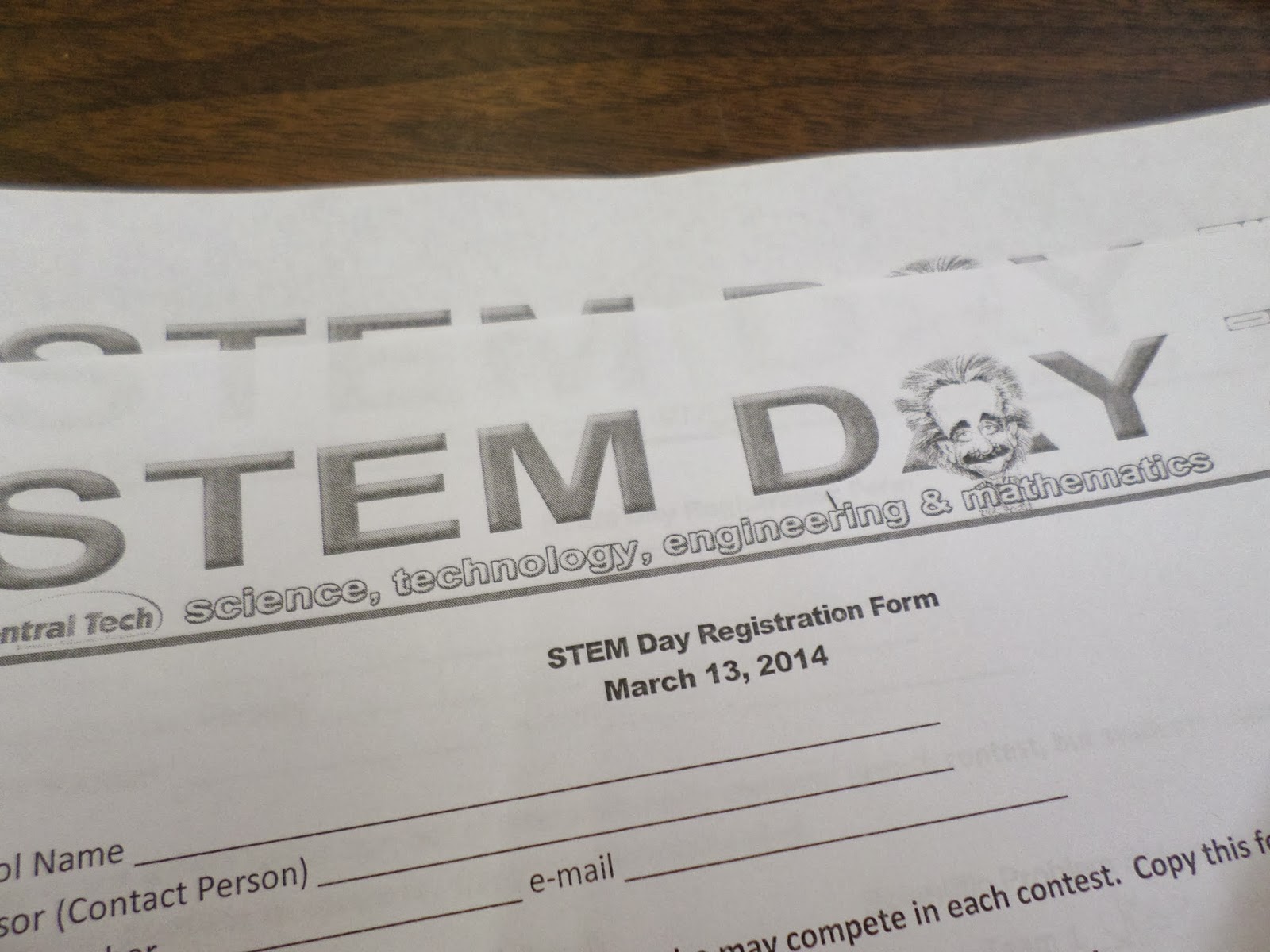
There were written math tests in Middle School Math, Algebra 1, Geometry, Algebra 2, and Advanced Math. Students could also enter a Paper Airplane Competition, Scientific Problem Solving Competition, or Ping Pong Launcher Competition.
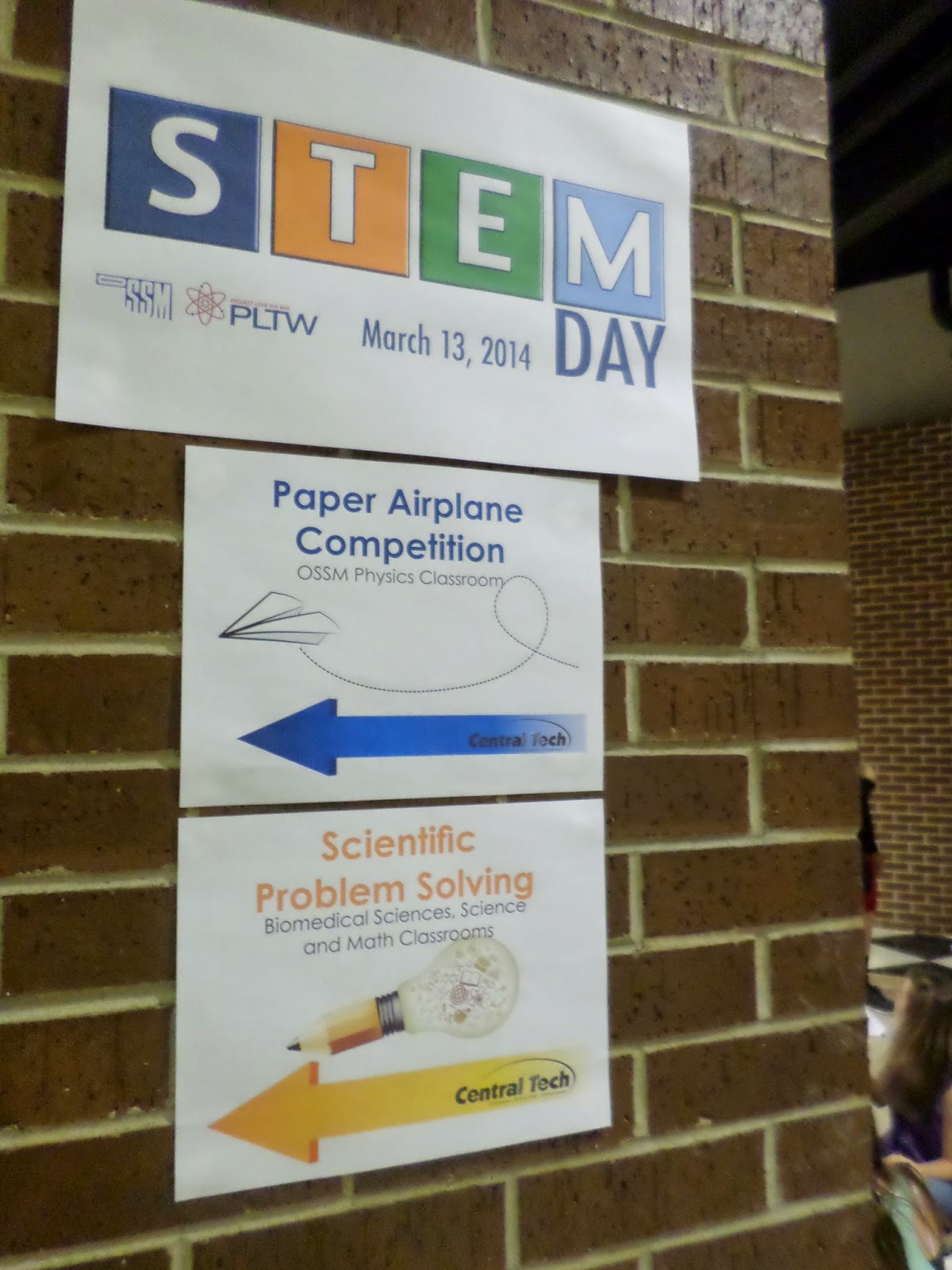
Almost 800 students were in attendance!
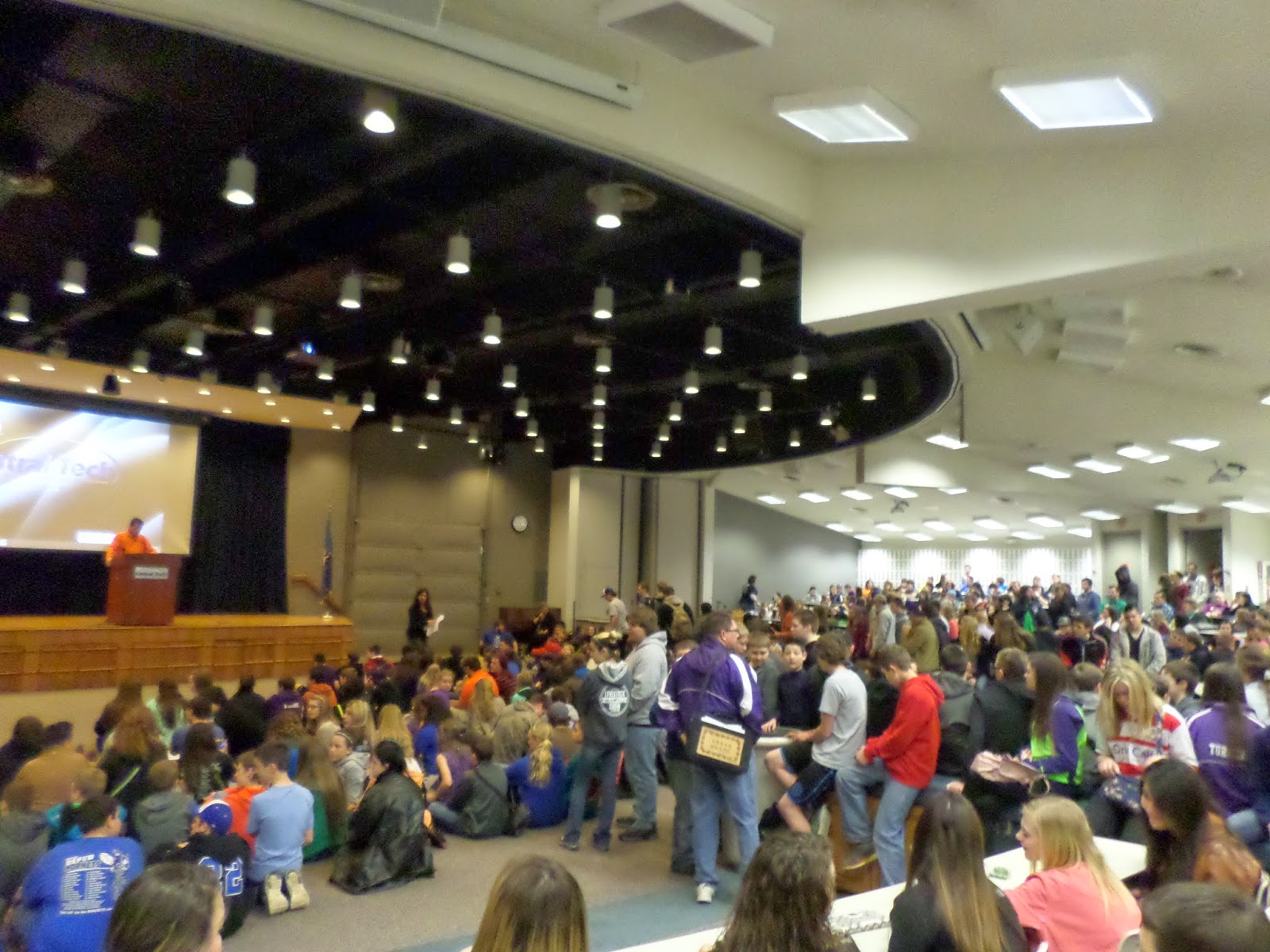
Tables were set up by local colleges and groups to entertain the students who were not competing at the moment.
There were dry ice cheese balls that I did not try. It was fun to watch kids try to eat them with their mouths open to let the steam escape!
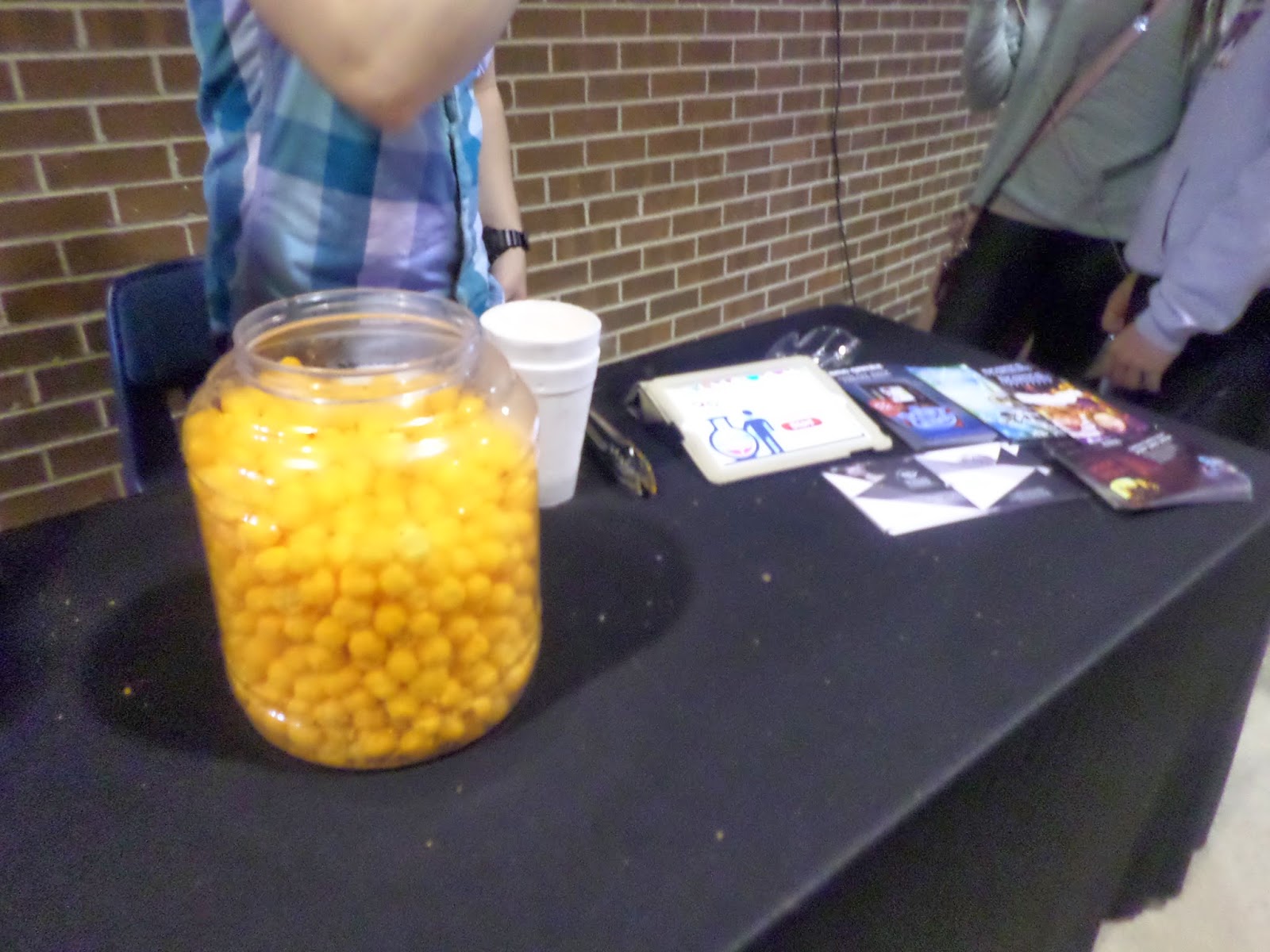
Students could try their hand at operating a robotic arm. It was harder than it looked!
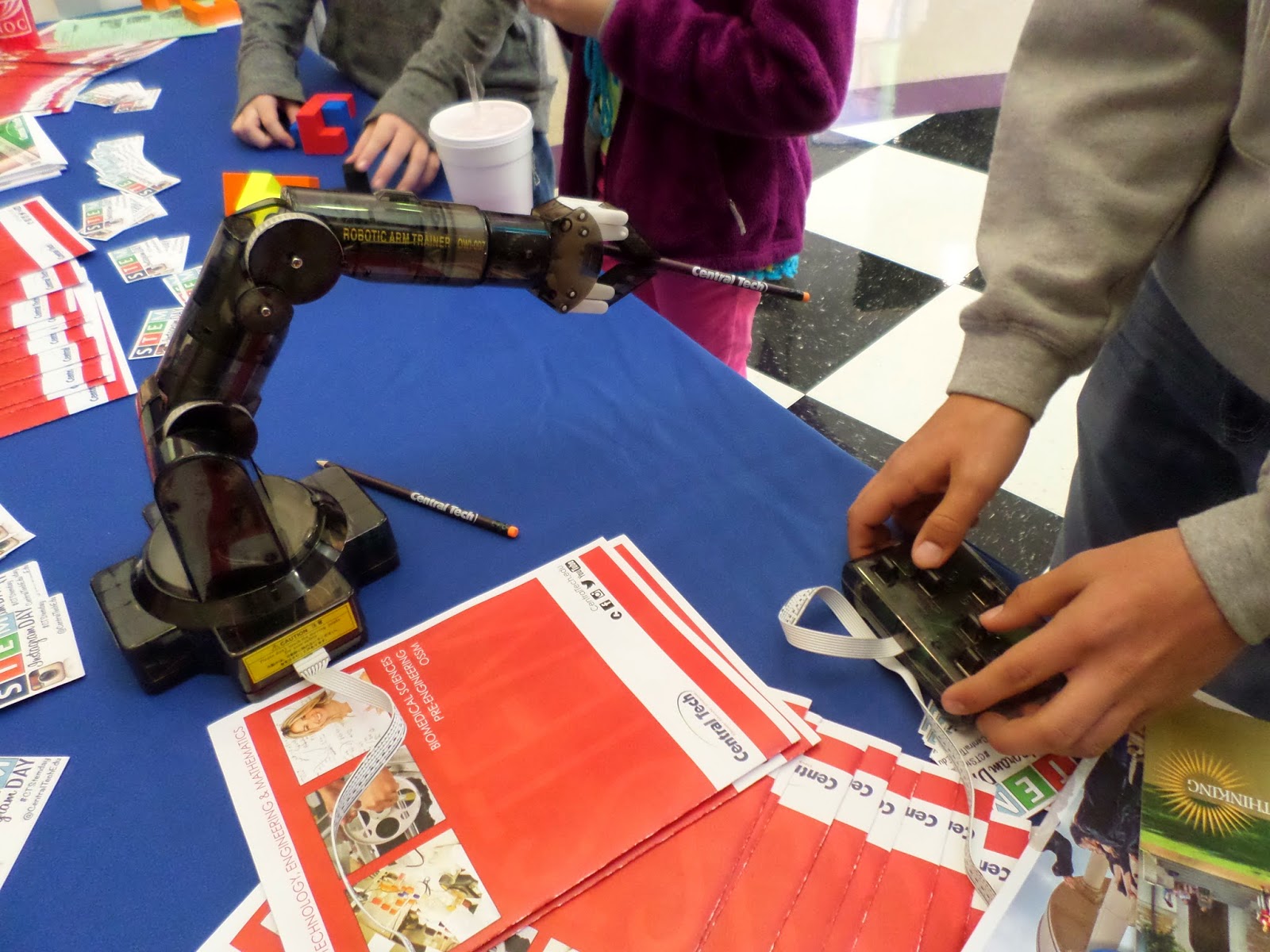
Robotic cars were on display.
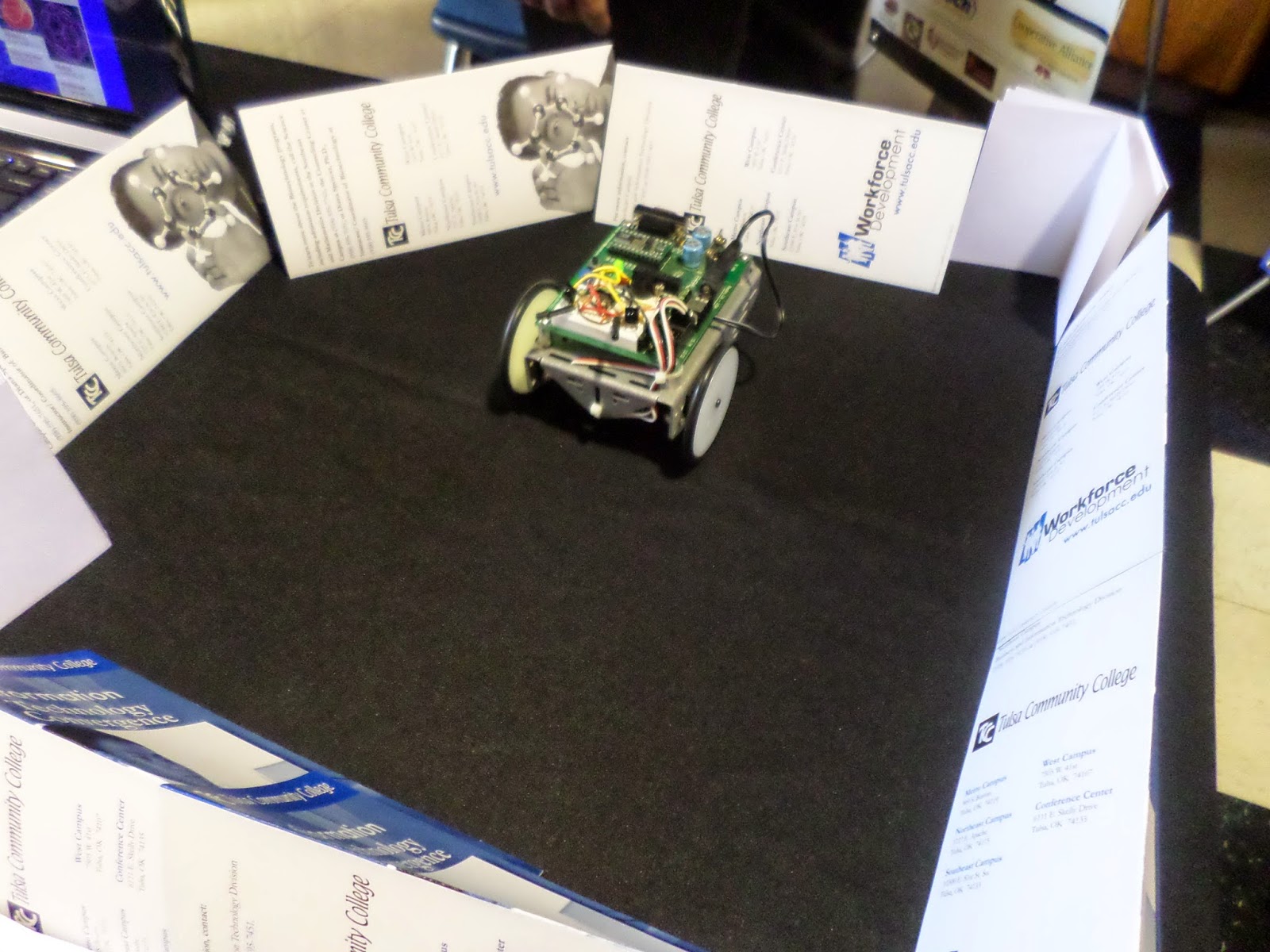
This Vortex Cannon could shoot smoke rings across the room. Very cool!
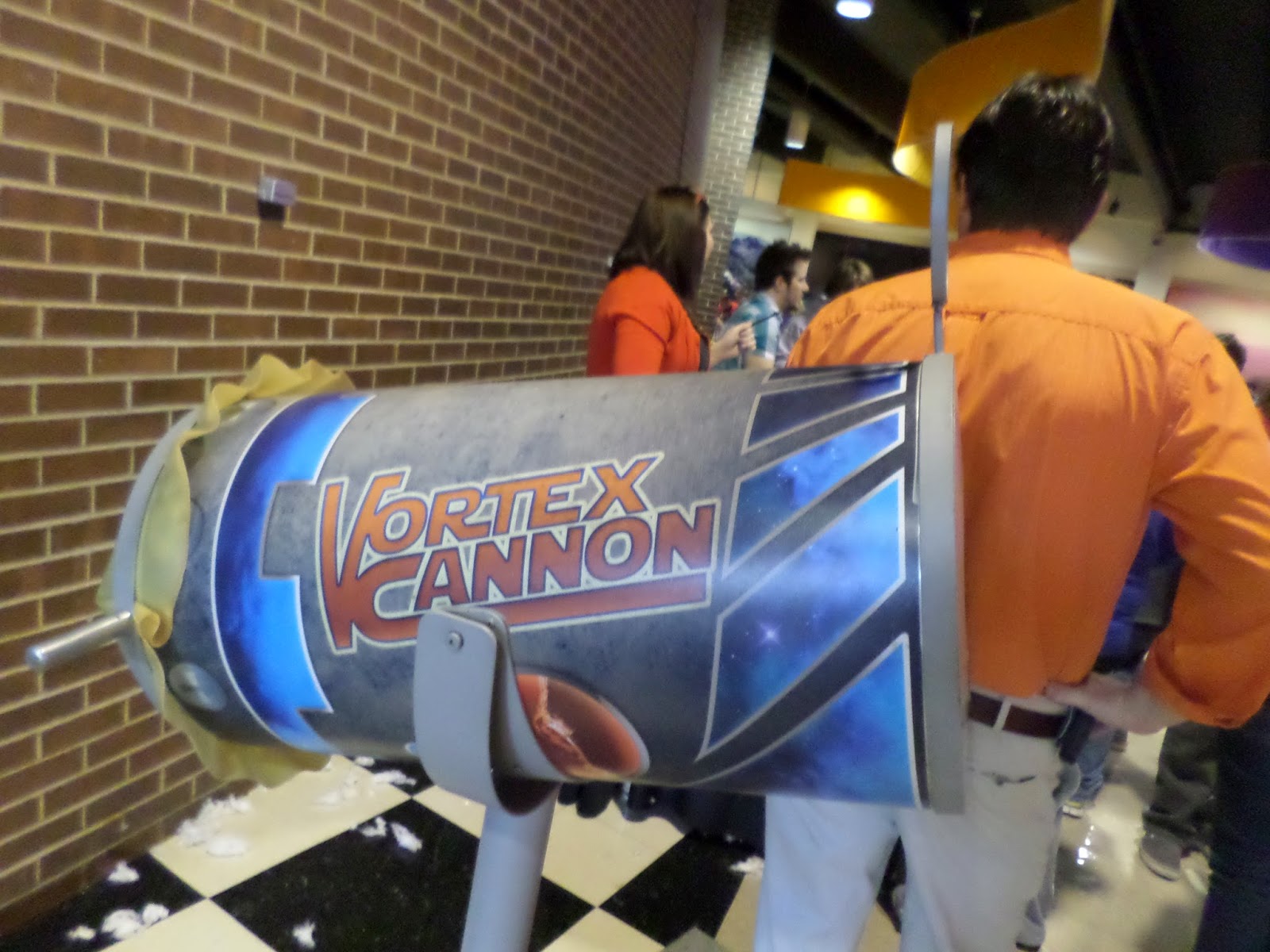
I’m not sure what this was called, but students stood on a special plate and touched the large ball while it charged. Then, if they placed their hand near the small ball, it would force it to move.
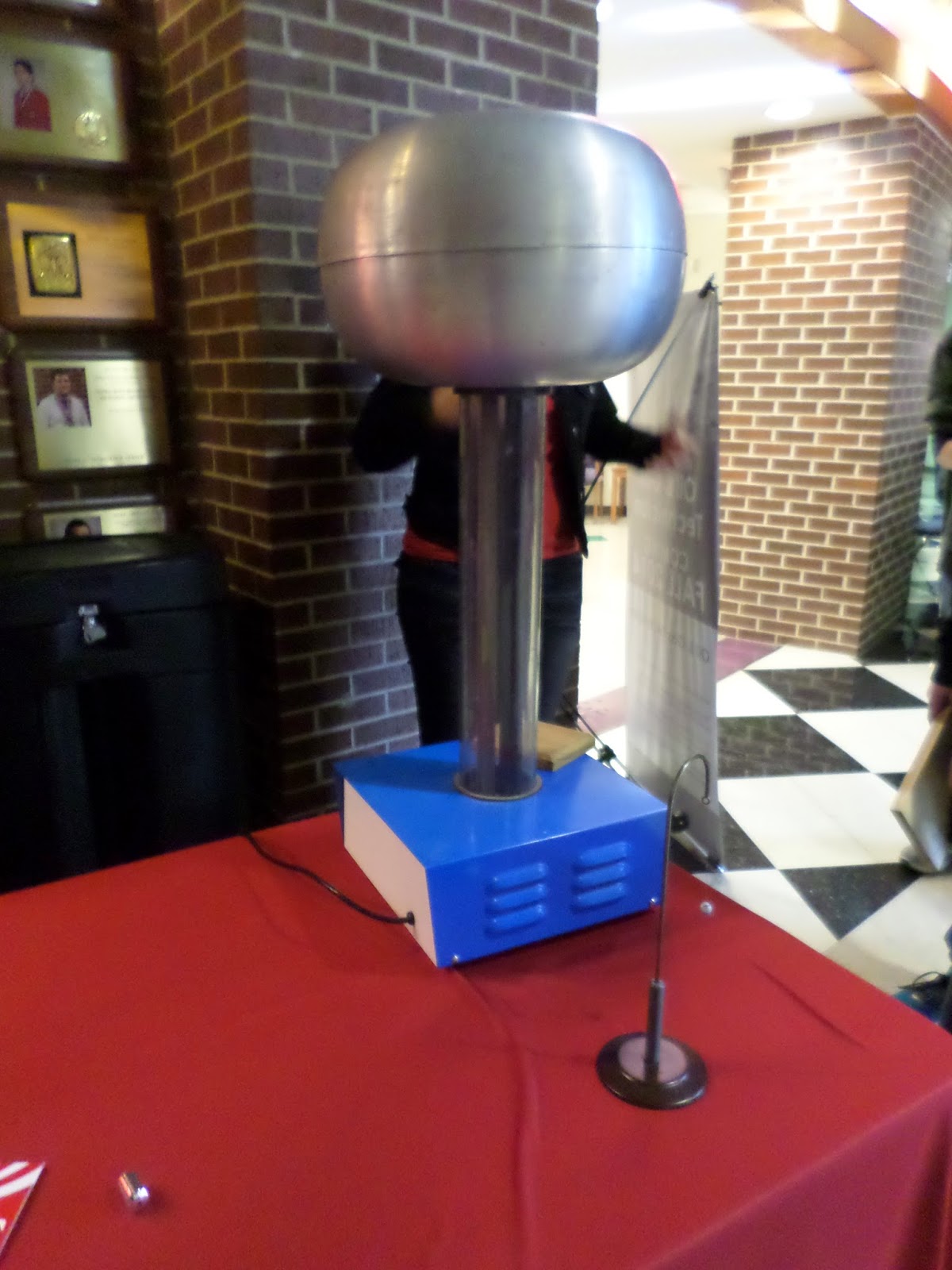
Here are some of the airplanes that my students ended up creating for the paper airplane contest. Students were given 10 minutes to create an airplane out of 3-20 sheets of paper and 3 paper clips. Students were not allowed to cut or tear the paper in any way.
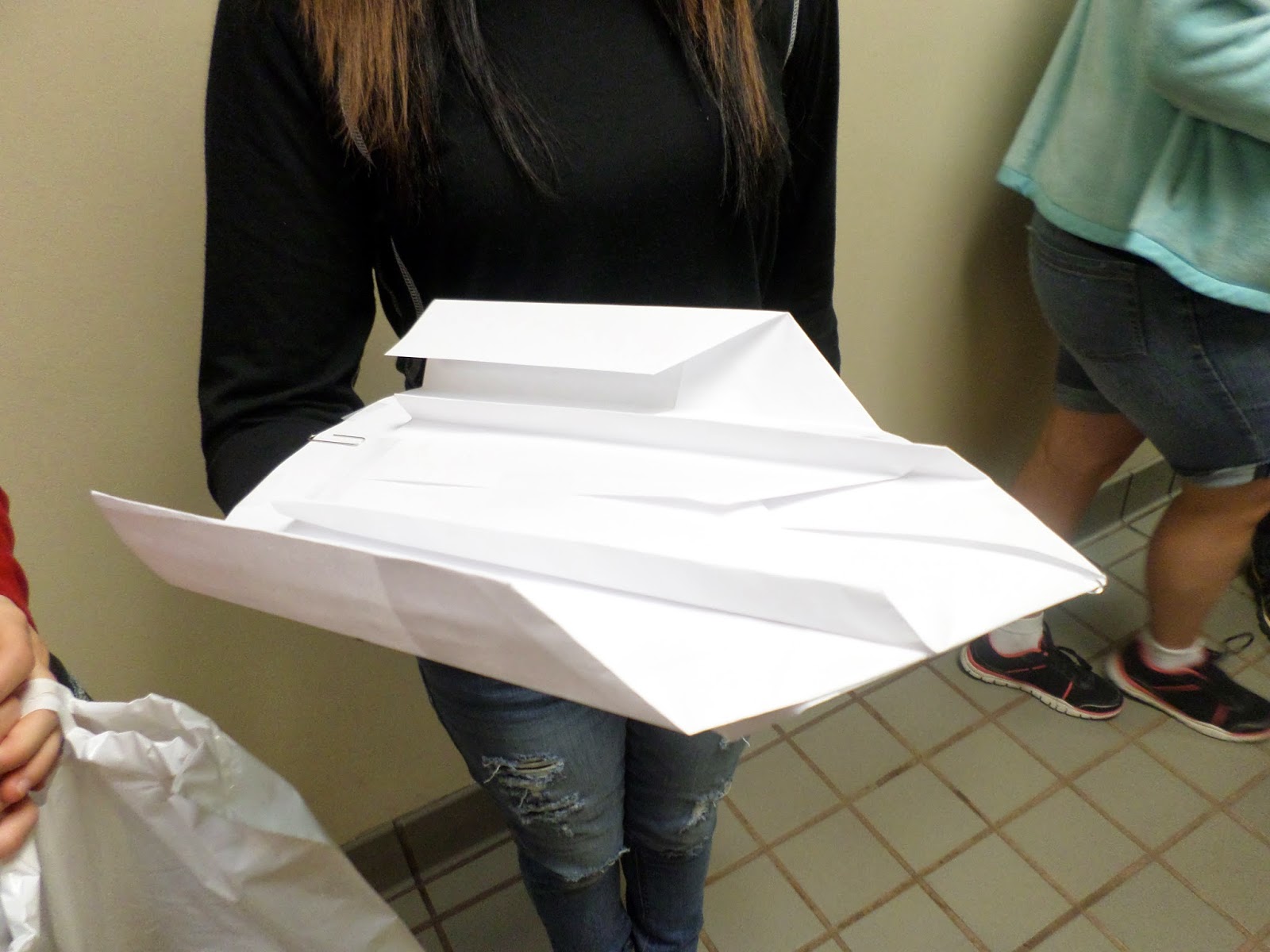
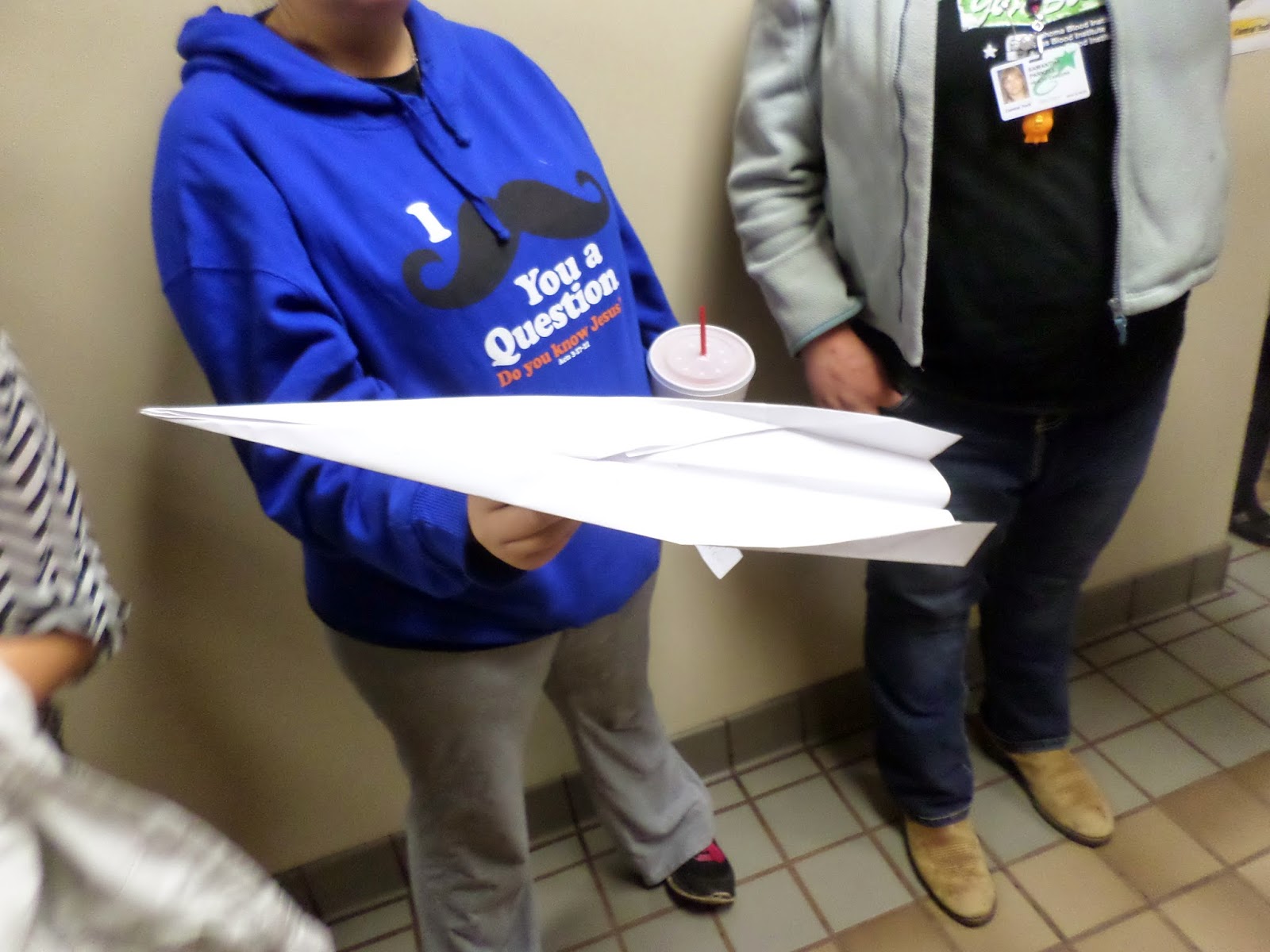
Mini rockets were constructed out of straws and paper.
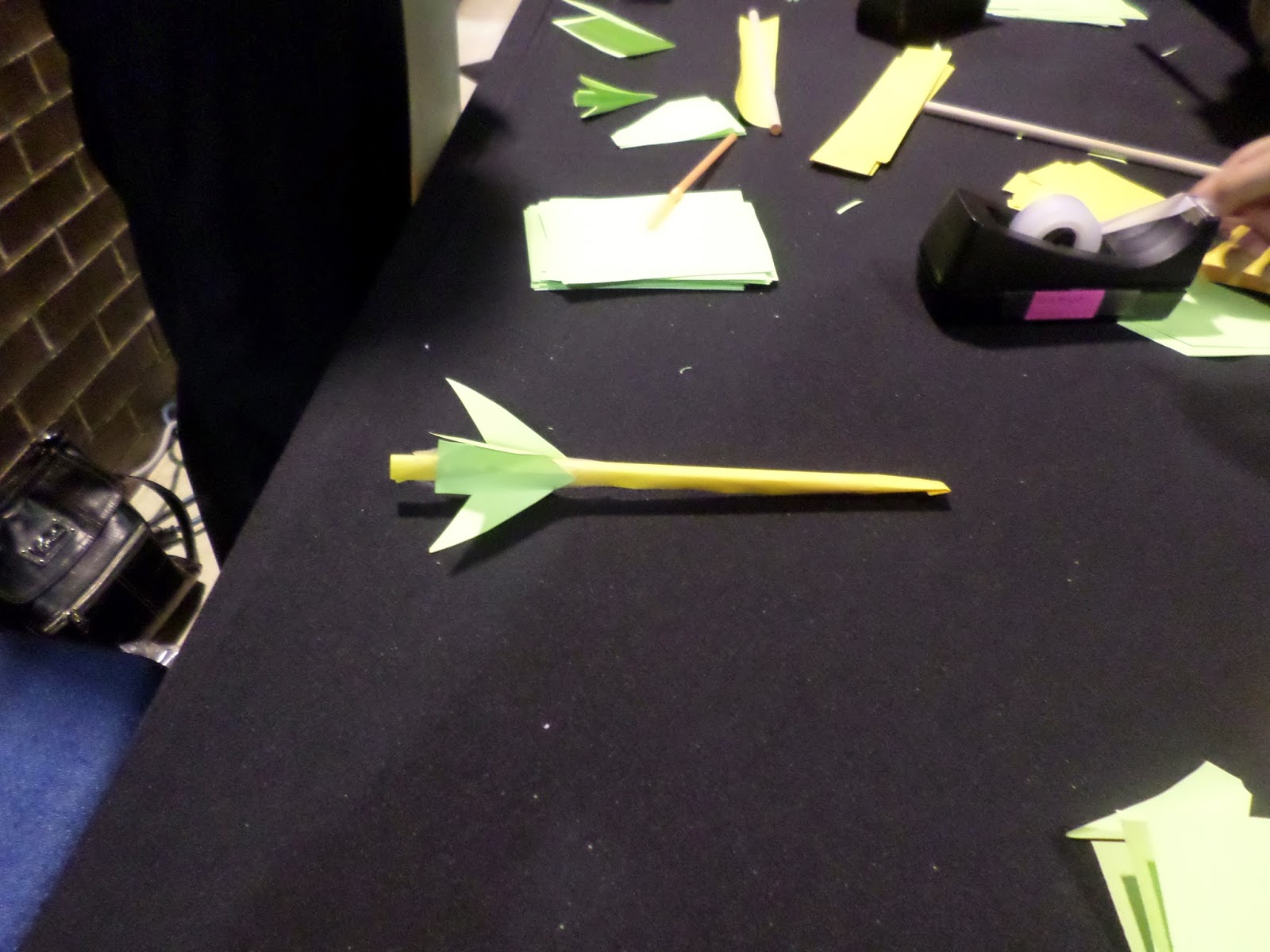
All in all, it was a fun and informative morning. Only one student ended up taking home a medal, but I’m thankful that my students were able to have this experience. As a school that offers very little in the way of upper level math and science courses, this may be the only exposure that some of my students get to the world of STEM. Plus, it was a great way for my students to see the opportunities they have to explore STEM careers through our local tech center.
April 9, 2014 – Things Teenagers Say Volume 10
Join me today for Volume 10 of Things Teenagers Say. This is my regular round-up of the crazy and memorable things I hear my students say in class.

Things Teenagers Say
What starts with an m, ends with an h, and makes children cry?
Math
One of my Algebra 2 students came up with this joke on his own. I didn’t find it very amusing, but I could tell by the laughing that the rest of my class could relate. If I remember correctly, this was said on our first day of polynomial long division…
—
Mentally, I’m in the 2020’s. But, physically, I’m in 2014.
—
I killed the cat, and I don’t know how to fix it. Help!
—
You’ve got to follow the rule of math: Please excuse my something something something.
—
My graph is so cute!
—
My arteries hurt because of you.
—
Some of my ellipses look like drunken, squished soldiers.
—
You’re weird, Ms. Hagan. But, that’s okay. I love weird teachers. Weird teachers are more fun.
—
Can you smell the number nine?
—
Student: It smells like burning wood in here.
Me: What?
Student: Sometimes I set pencils on fire in my bedroom, and your classroom smells exactly like that.
—
Me: I need a week off.
Student: Why? So you can spend it with your cats?
—
Tomorrow, I’m going to have the X-Box flu.
—
Me: What does the word linear remind you of?
Student: My mom.
Me: Why would the word linear make you think of your mom?
Student: My mom gave birth to me. Everything makes me think of her.
—
Somewhere along the way, I started putting lines through my z’s without realizing it.
—
Student: I was explaining the quadratic formula to my family.
Me: Oh, and what did they think?
Student: Their brains were hurting just like mine.
April 14, 2014 – Off to Battle…
Since I started teaching at Drumright, there has been this poem written on the chalk board in the teacher’s lounge. One can’t help but look at it while making copies. I’ve googled phrases from it and found nothing, so I’m guessing it’s an original poem.
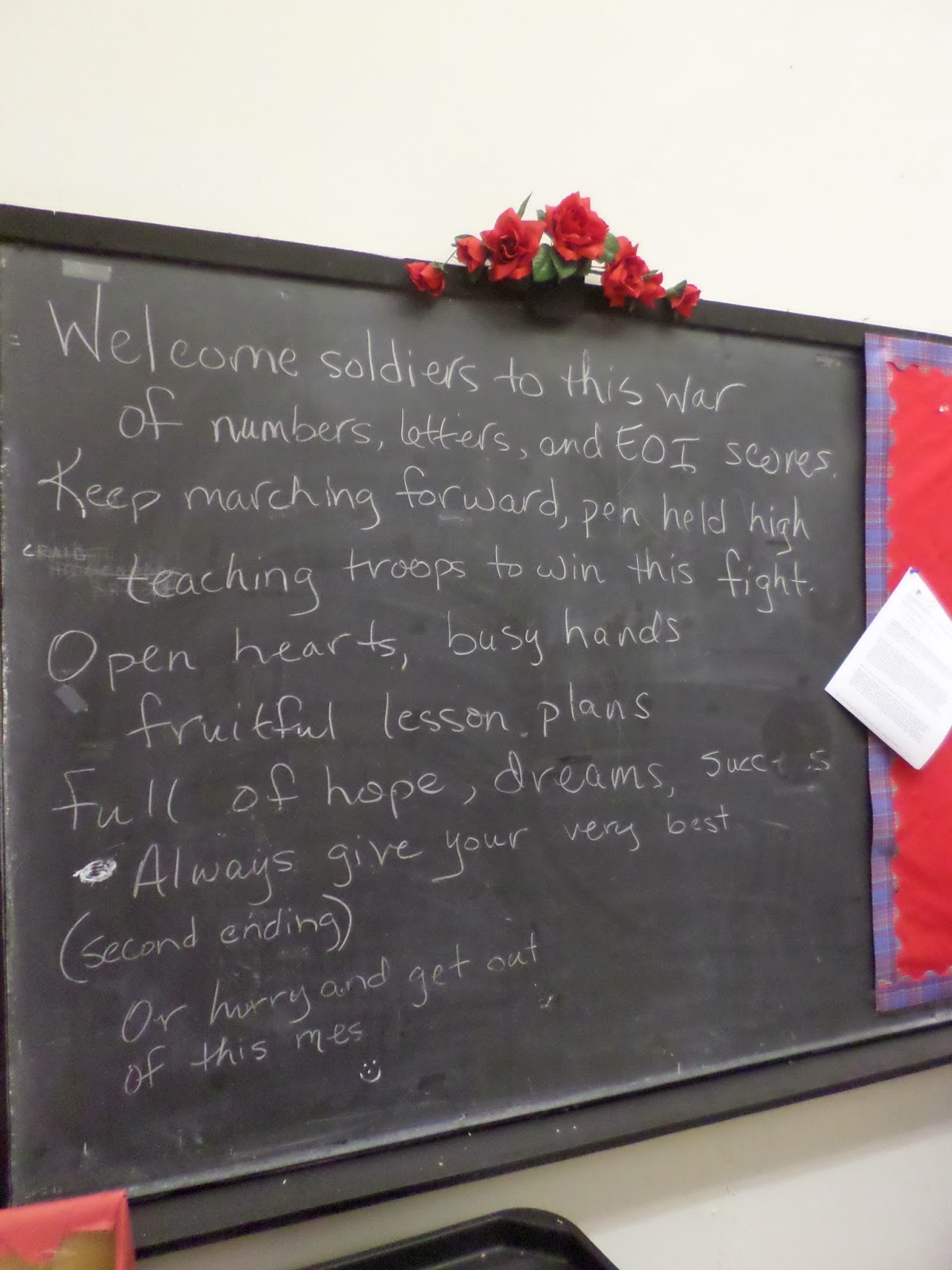
My school starts state testing Monday. And, my Algebra 1 students will be the first students to test. I actually asked for Algebra 1 to test first. That sounds like an insane thing to do, but once testing starts, it is possible to go a week or more without seeing certain students. I wanted there to be as little time as possible for students to forget what we have learned between the last time I see them and the time they test.
I am fighting a “war of numbers, letters, and EOI scores.” As panic and dread start to set in on my part, I have to remind myself that I’ve done my very best. As my mother often tells me, “If you’ve done your best, that’s all you can do.” I can’t tell you how many times she repeated that to me when I was in high school and college. And, it didn’t stop after I walked across that stage and received my diploma. She still has to remind me that if I’ve given my best, then there’s nothing more that I can do. Stressing over what may or may not happen after that is just torturing yourself.
I’ve done my best. I’ve taught my heart out this year. And, I certainly hope my test scores reflect that.
Last year, 12/12 (100%) of my Algebra 2 students passed their EOI exam.
Last year, 35/41 (85%) of my Algebra 1 students passed their EOI exam.
I fear that this year’s scores will compare poorly to last year’s scores. There is no doubt in my mind that my Algebra 2 pass rate this year will drop severely. But, I don’t think that’s necessarily a bad thing. Oh, I’m sure some people will look at it and think that I dropped the ball, that I didn’t do my job this year. But, a pass rate doesn’t tell the whole story. Our math program is slowly improving after being neglected for many years. We had a 167% increase in the number of students taking Algebra 2 in one year. That’s major. Major. That means more students are passing Algebra 1 and Geometry. Yes, many have struggled this year. They’ve struggled greatly. Probably over half of my Algebra 2 students lack a strong Algebra 1 foundation. I can’t do anything about the past, though. I wasn’t here then, and the math program lacked rigor. The Algebra 2 pass rate before I came here hovered between 39 and 43 percent.
More and more, I’m realizing that test scores don’t tell the whole story. Pass rates don’t tell the whole story. They are simply part of the story. The EOI is a battle. But, it isn’t the war. The war is greater than a single test. What is the war? Getting students to graduate? Is that my end-goal? Shouldn’t it be something loftier? Preparing them for higher education? College and career readiness? Creating productive citizens? In college, one of our assignments was to write our Philosophy of Education. Looking back over mine, it seems all over the place. I wrote about habits of mind, encouraging teamwork, inspiring lifelong learning, character development, and how teaching should be like teaching a living language. Now that I’ve taught for almost two years, maybe it’s time I revisit my Philosophy of Education. What exactly am I trying to do? Am I actually doing it? Alas, I’ll have to find time for that later. For the next two weeks, my focus is on a battle, not the war.
April 18, 2014 – Tales from the Battlefront (EOI Testing Day 1)
Last week, I finally took down the snowflakes that have been decorating my bulletin board for months. After all, it was post-Spring Break. It was April. Leaving them up would be just asking for it to snow.
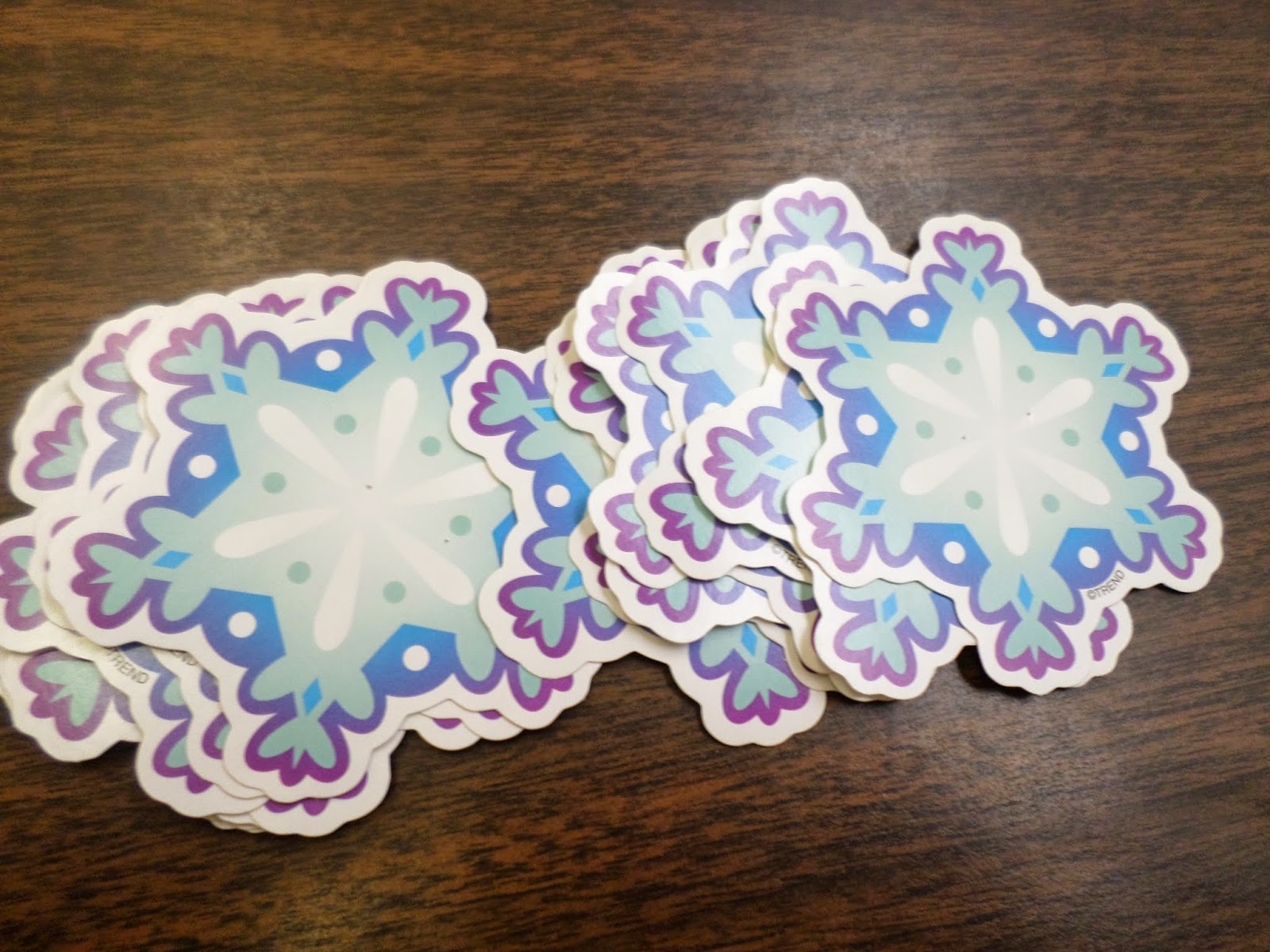
Apparently, Mother Nature didn’t get the memo. I guess she didn’t realize that I took down my snowflakes. Last weekend, it was 80 degrees. This Monday, it snowed. And, I’m not just talking a flurry or two. It snowed for two-three solid hours! It melted on contact, but still – snow in mid-April?!? Craziness!
Just last weekend, I was taking pictures of all the beautiful spring flowers at my parents’ house.

How did I know it was snowing? Because I got to watch it snow for hours. When you’re administering a state test from 8:30-11:30 or so, there are only so many things to look at. I took students by bus to test at our middle school’s library, and the back of our lab looked outside. The snow flurries were a beautiful sight, but I’m ready for the warmer weather to return!
Can you tell what these are?
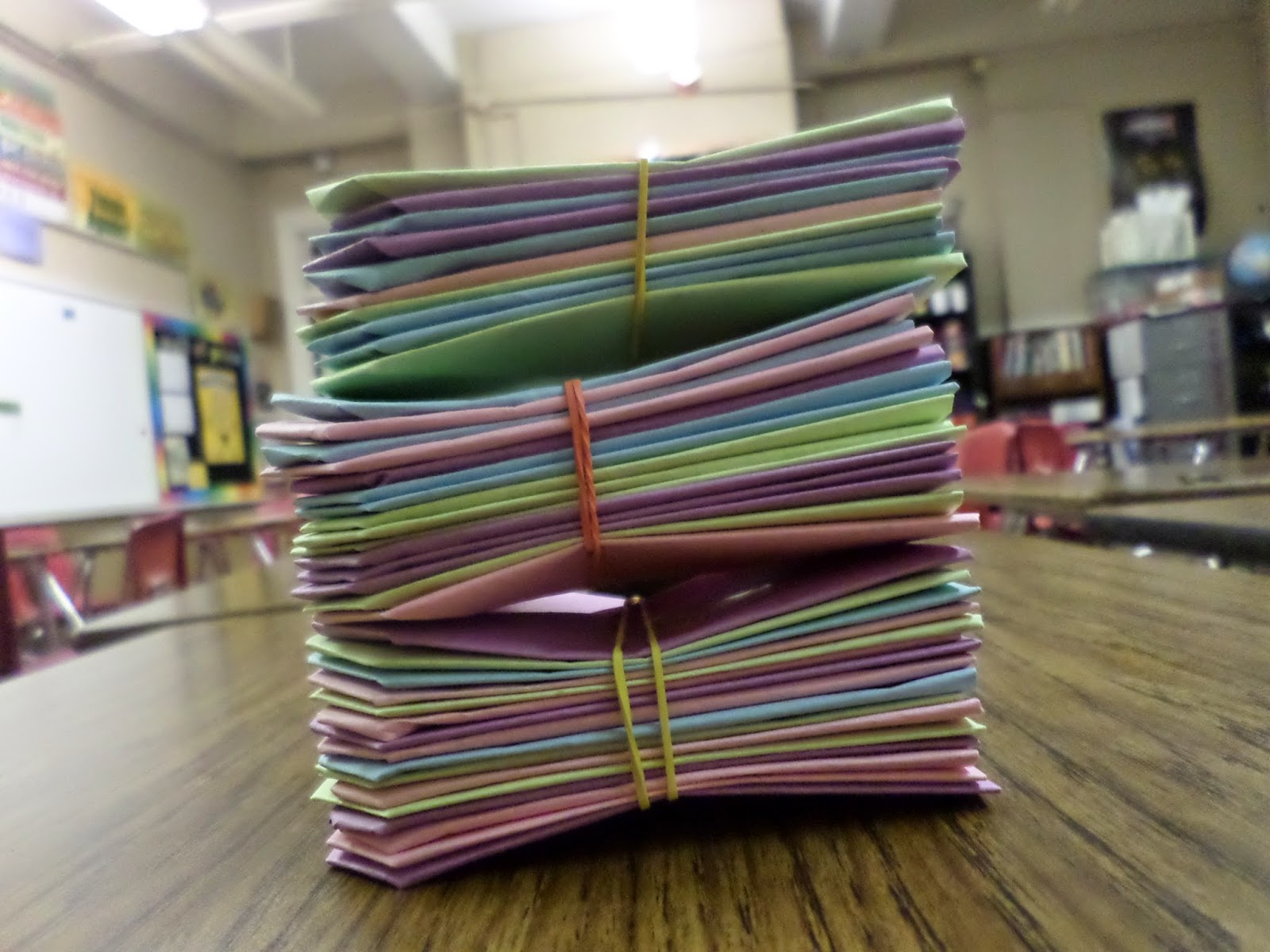
They are origami, Easter egg colored, letters. Every January, I have my students celebrate Universal Letter Writing Week. I’ve blogged about it before, and it’s one of my favorite projects. I truly believe there is power to a written note.
Since my Algebra 1 students were testing, I decided to write a note to each one of them – all 41 of them. To make life slightly easier on me, I wrote each letter on a half-sheet of paper. This made it easier to write a note to fill up the paper, but it made it a tad trickier to fold the note.
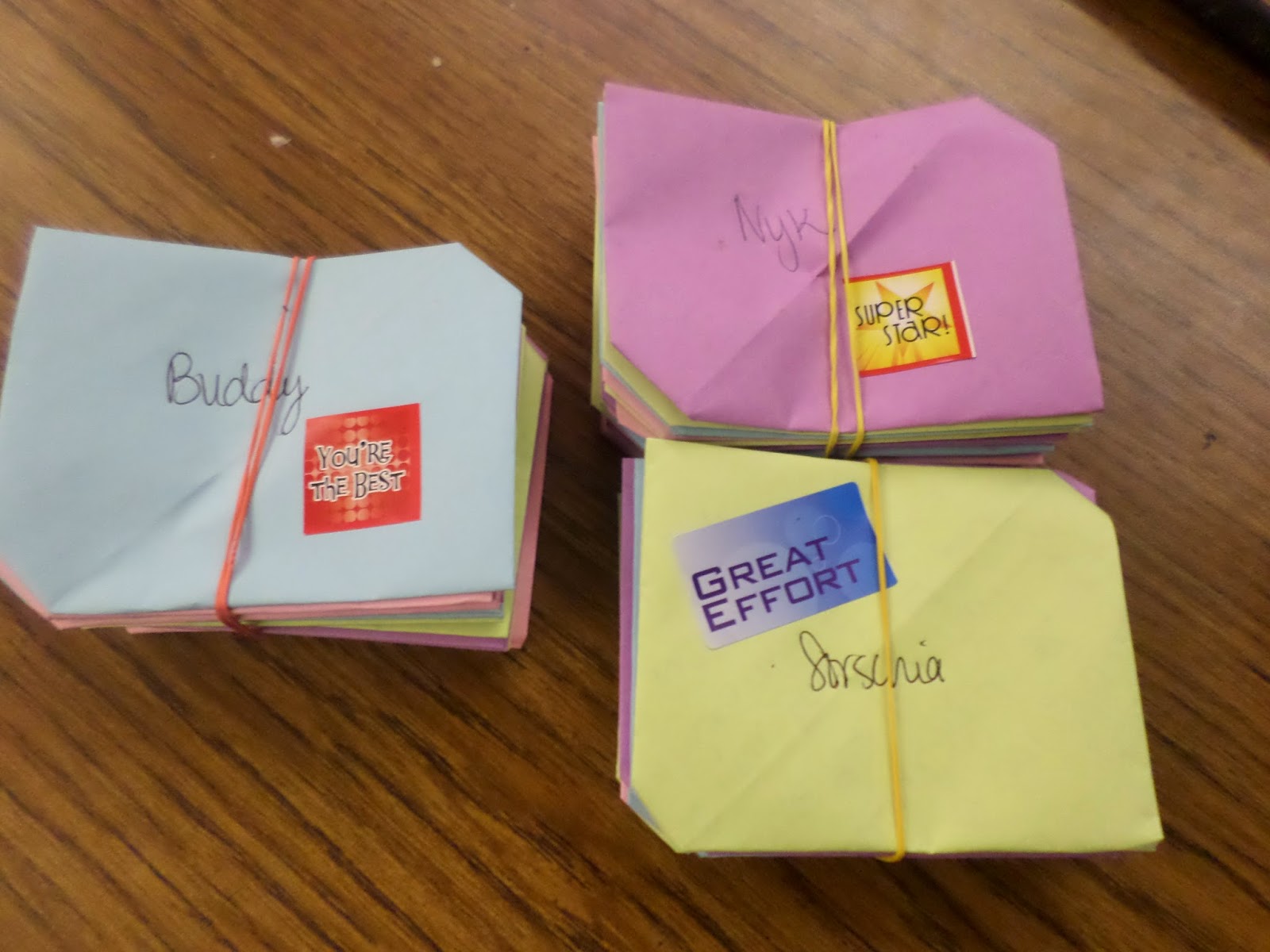
I didn’t time the project exactly, but it took me between 4-5 hours to write and fold and address and pick out stickers to place on each letter. I watched live tornado coverage, a special on the Boston Marathon Bombing, The Amazing Race, The Good Wife, and an episode of M*A*S*H in the time it took me to write a note to each student. By the end of my marathon writing session, my hand was about to fall off! I had to alternate between writing letters and folding letters since they used different muscles. (I also shouldn’t have waited to write these Sunday night for Monday morning’s test!)
Since I would only be administering the test to one group of students, I wanted to be able to give a pep talk to all of my students right before they tested. I’ve yet to master the art of cloning myself to be in three places at once, so I decided to write letters that could be handed out by the test administrator right before they tested. This allowed me to be there and encourage them without physically being there.
After all, who doesn’t like to receive a letter? I know I love getting letters and mail. I got the sweetest letter from a student earlier this month. It’s now hanging on my wall as a daily reminder. I doubt my students realize this, but I keep all the letters they write me. When I’m having a bad day, it’s an awesome thing to be able to be reminded of the positive difference you have made in the lives of your students. So many of them wrote me letters in January. It was time for me to write letters in return.
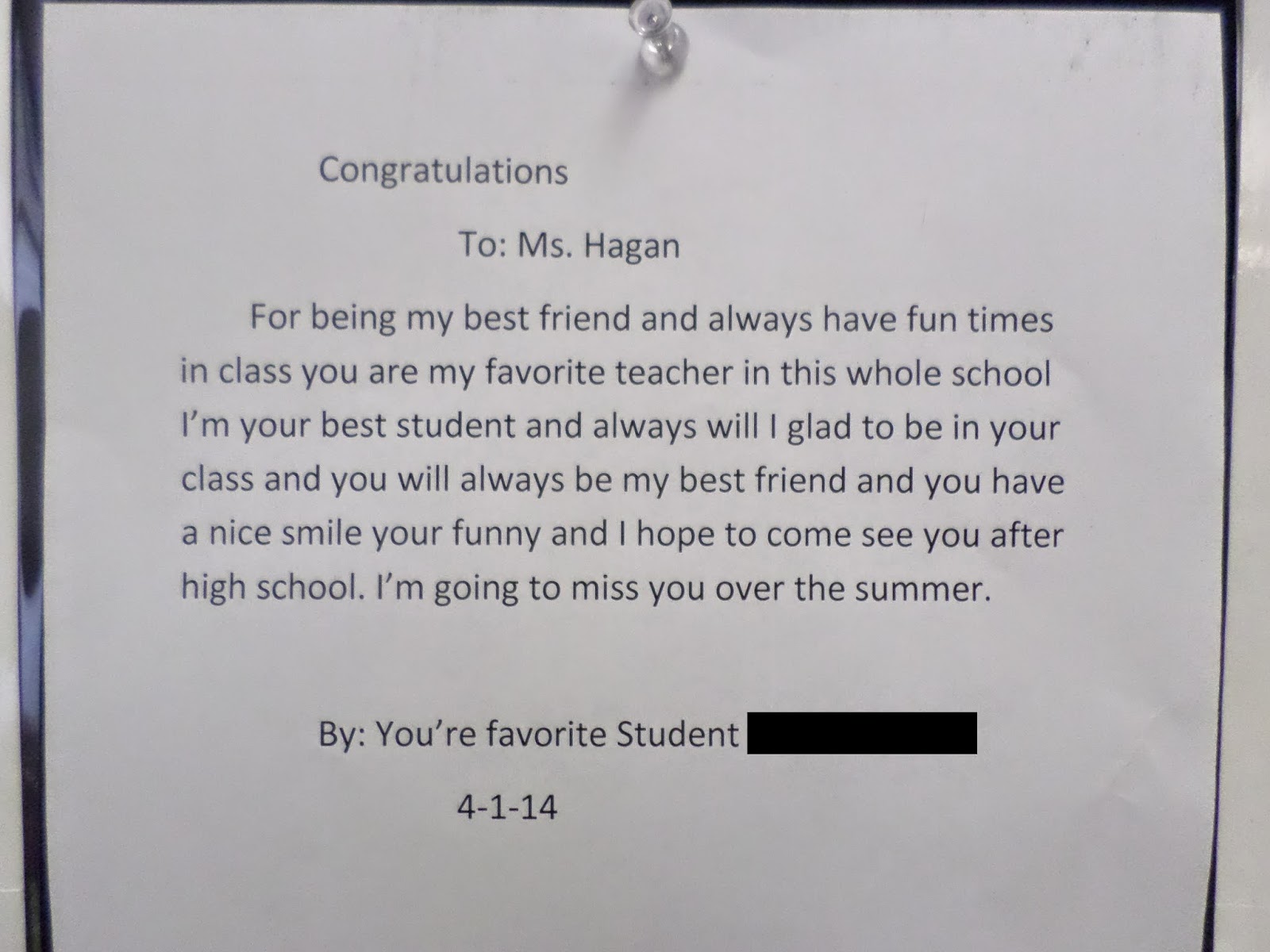
I love that she’s a freshman, and she’s already thinking about coming to visit me after she graduates!
My students LOVED the letters! Earlier this semester, I posted about how I felt convicted to write more notes to my students. I had the best of intentions, but life soon got busy. And, my never-ending to-do list became my priority. Most students were shocked to see that I had written them a letter. You mean, you wrote this? Of course, they wanted to know if all the letters said the same thing. No, I wrote you each a personal letter. Though, some were a lot more personalized than others. To the student who had to reschedule getting their driving pemit to take their EOI, I ended the letter with “Good luck on your test today! I know you’d rather be taking your driving test, but I’m confident that you are going to rock your EOI today!” To the student who thought it would be funny to throw a cricket at me back at the beginning of the year, I wrote, “I’ve enjoyed having you in class this year. But, I’m still not sure if I’ve entirely forgiven you for the cricket incident! :)”
Note to self: when a student tells you that they ate cricket pizza at the state fair, don’t mention that you hate crickets. Two of your freshman boys will fill an empty water bottle with bugs. You will get an e-mail from the science teacher warning you about said water bottle. You will think to yourself, it’s okay. I know the bugs are coming. They’re in a water bottle. These boys think they are going to scare me. But, it’s going to be okay. The bugs are in plastic. They can’t hurt me in plastic. (Can you tell I HATE bugs?!?) When they come in your room at lunch, you will remain calm. And, you’ll stay calm until the lid comes off the water bottle. One minute, you’re sitting at your computer, minding your own business. The next minute, there is a cricket in your face. Then, it’s in your lap. Then, you’re standing up. You’re screaming and hysterical. The students eating lunch in your classroom find this whole thing hilarious. You are being videotaped as you threaten the student that he better remove the crickets from your room if he wants to remain living. He eventually acquiesces. The bugs are rebottled. The bottle and the freshman boys leave your room. The video is dubbed as hilarious and shown by this one student to every other student in the school who will take the time to watch their math teacher scream and go into a tizzy over a cricket. You hope that the video doesn’t get posted on the Internet. After all, you did threaten the student. But, then again, he did shove a cricket in your face and drop it on your lap. Later in the year, you will laugh at this incident. But, it will take a while.
As I wrote the letters, it became clear to me that there were a number of students that I never formed that personal connection with this year. And, that’s sad. Their letters were kinda generic, and they could tell. To all my students, their letters contained a variant of the following: “Good luck on your Algebra 1 EOI today! You’ve worked hard this year, and I am positive that you are going to rock this test! Take your time on the test. Answer every single question! Pay special attention to your positives and negatives! Check and double check your work! I’ve enjoyed having you in class this year. Now, go and show this test who’s boss!” For some students, I would add reminders of things they often struggled with. For example, I have a few students who have a terrible time remembering the formula for point-slope form. So, I added a reminder of that in their letter.
The students in my testing session thanked me for the letters right away. I could really tell that my gesture meant a lot to them. Others who had other testing sessions hunted me down later in the day to tell me how much they appreciated the note. One student stopped by my room and said, “I didn’t think I was going to be able to pass my EOI, then I read the letter you wrote me. And, I knew that I could pass the test after reading it. Thanks for the letter!” Then, the same student thanked me again when his class period came around. My kiddos deserve to know how proud I am of them! And, I need to make an effort to tell them that more often! Letters truly do make a difference!
I also treated my kiddos to peppermints and a last minute pep-talk before the test.
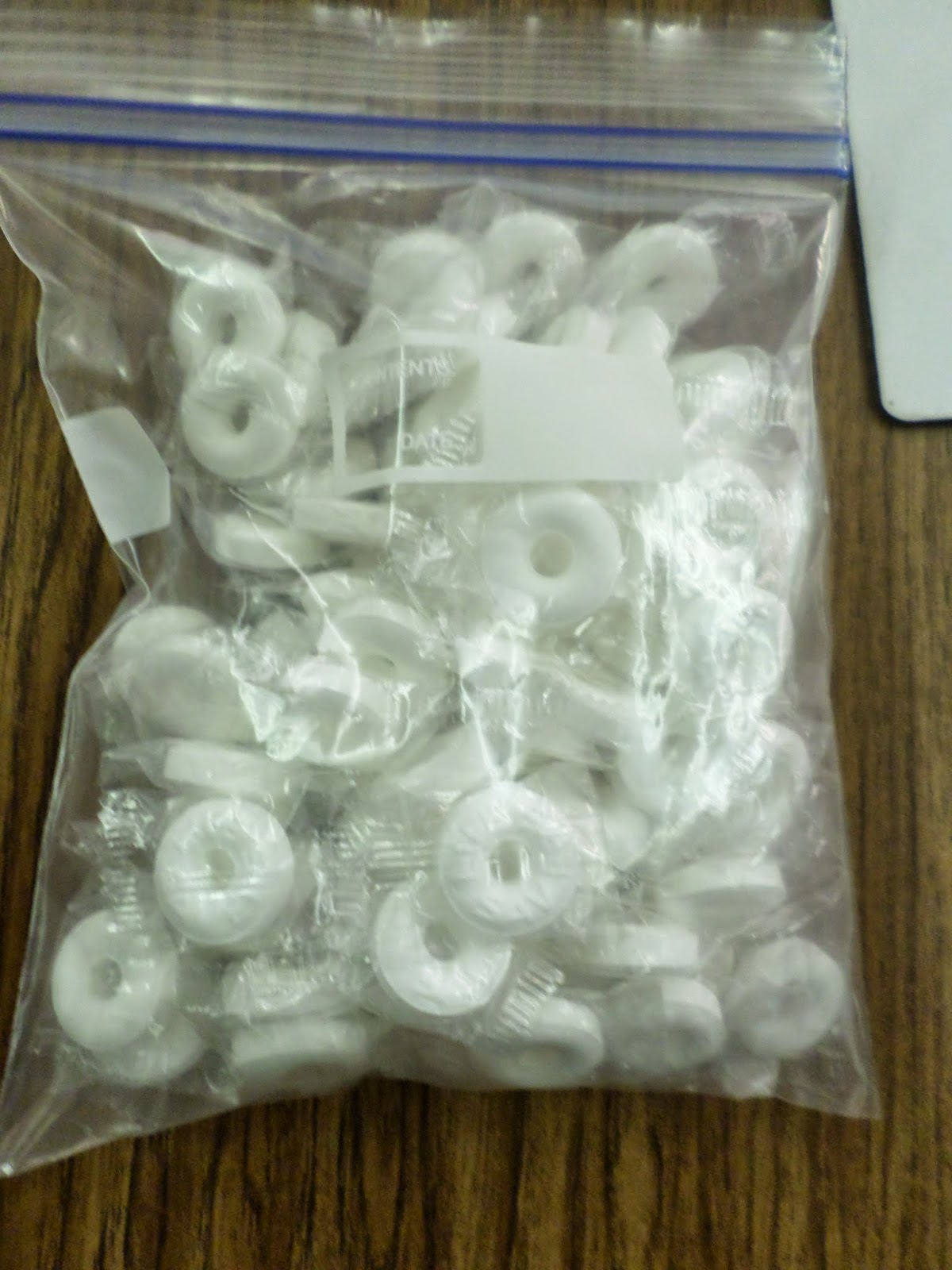
Maybe pep-talk isn’t the best description for what went down before we started testing. I explained that a standardized test means standardized instructions. Once I start reading out of the green book, I can’t deviate from the script. So, anything they want to know or discuss has to happen well before the book is opened and anything is passed out. Take your time. This is not a timed test. Do not leave any questions blank. If you leave a question blank, I will kill you. Yes, I threatened my students, but I did it out of love. Apparently, I threaten my students quite frequently. Deal with it. A few students asked last minute math questions. What’s point-slope form again? How do I know if I should use an open circle or a closed circle?
I could tell that they were stressed. Algebra 1 is their first high-stakes standardized test. The state of Oklahoma says that they must pass the Algebra 1 test to graduate. They’ve been taking standardized tests since third grade, but this is the first one that really and truly counts. Though, if they can’t get a driver’s license without passing their 8th grade reading test. So, that’s a pretty important test for them, too. I was stressed, too, but I tried to hide it. I’m not sure how great of a job I did of that.
Since I was administering a test all morning, my morning classes had to report to the gym. They were excited for this, but after a week of testing, hanging out in the gym has lots its appeal.
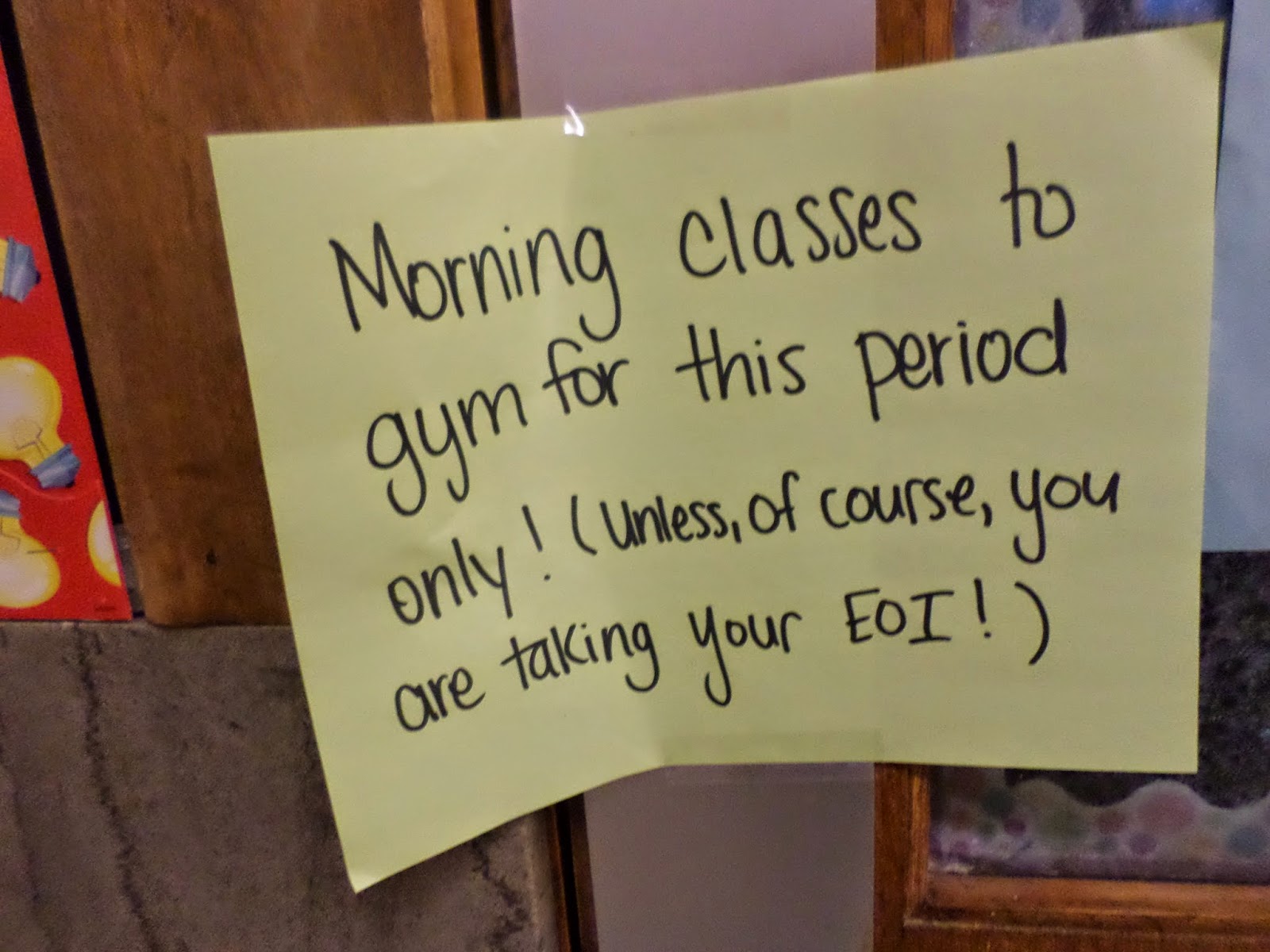
Earlier this week, I wrote that pass rates don’t tell the whole story. So, I’m going to share my Algebra 1 pass rate this year, and then I’m going to try to share the amazing stories that the pass rate doesn’t communicate.
I have 26 regular education and 15 special education students in 3 sections of Algebra 1. All of my regular education students tested on Monday. Some of my special education students have tested, and others won’t test until next week. What I’m about to write applies only to my regular education students. I have yet to get scores for my special education students. I teach in a school district that does not have the manpower or resources to offer remediation classes. Every 9th grader is automatically enrolled in Algebra 1. There is no Remedial Algebra 1. There is no Honors Algebra 1. We have no Pre-AP classes. There is no Pre-Algebra. There is no Algebra Concepts. There is no extra Math Lab. We simply have Algebra 1. If a student failed 8th grade math, they take Algebra 1. If they made a 100% in 8th grade math, they still take Algebra 1. If a student isn’t prepared for Algebra 1, there’s no class to send them to. They get to stay. If I could change things at my school, this would be among the first of my changes.
22 out of 26 passed. Of course the math teacher in me has to convert that to a percent. 85% of my students passed. Last year, 90% of my regular education students passed. So. that hurts. One student missed passing by one question. One more question right would have changed his label from “Limited Knowledge” to “Proficient.” That hurts. Another student who didn’t pass missed 9 weeks of school. Still, I feel like I could have and should have done more to help her.
One of my students who didn’t pass was the one I was hoping more than anybody else would pass. She moved into the district part-way through the year last year. She was in my Algebra 1 class. She tried to follow along with what we were doing, but she was so far behind that she never could quite catch up. She scored “unsatisfactory” on the EOI, answering only a fourth of the questions correctly. This year, she retook Algebra 1. She had our other math teacher for the first semester, but she ended up transferring into my class second semester. She still struggled greatly, but I could see glimpses of understanding. She worked hard. She asked a ton of questions. And, she decided, I think, to take charge of her own learning. When we were reviewing point-slope form, she would ask for more and more practice questions. The expression on her face when she got the equation correct was PRICELESS! I can remember thinking, “This is why I teach. These moments are the reason why I put up with all the not-so-nice things that come with teaching.”
She worked hard during the EOI. She took her time. She did everything I asked her to do. When her score came up on the screen at the end of the test, she covered it with her hands because she was too afraid to look. I pulled her hands back to take a peek; I was ready to congratulate her on passing. The number on the screen made my heart sink. She had gotten just under half the questions right. The screen said “Limited Knowledge.” She was oh so close to passing. Yes, I share in her disappointment. But, more than that, I am incredibly proud of her. Our instinct is to look at the score and say she failed. We should be looking at the fact that her score almost doubled in one year. Doubled! That’s something we should be jumping up and down about. That deserves to be celebrated!
Instead of looking at my pass rate, I will picture the face of my student who went from Unsatisfactory to Limited Knowledge in one year. I think about another student who scored Unsatisfactory on her 8th grade math test. This week, she surprised herself by scoring Advanced on her Algebra 1 EOI. That calls for a happy dance! Her hard work paid off big time! This student and I started out the year as enemies. It was a hassle to get her to do anything. She would much rather talk to her friends and play on her phone than do algebra. And, we battled over this daily. She made it clear that she didn’t think she was good at math, and apparently I wasn’t a very good teacher because she still didn’t understand. I bit my tongue and held back words so many times. Then, something happened, and she started participating. She started asking questions. She changed seats to get away from people who distracted her. She started pairing up with the students who excelled in class. Instead of copying their work, she would pick their brains and ask for help. Our relationship took a complete 180. When I would unsuccessfully try to quiet the class (something I’m working on!), she would yell at the class to be quiet so we could learn. Somehow, they would always listen to her. I can’t tell you how many times I’ve heard her say, “Guys! We’re trying to learn!” And, learn she did! (She also had my back when other students would say not so nice things about me. “Ms. Hagan, someone said you were a snob, but I stood up for you and told them that you were not a snob!” I kinda doubt that my students even really know what it means to be a snob…) Though, she still makes it clear that my jokes are NOT funny. That itself is funny because I have her sister in Algebra 2, and her sister thinks my jokes are hilarious! I also can’t help but picture the three students who scored Limited Knowledge on their 8th grade math test and pulled off a Proficient this year in Algebra 1. They worked hard this year, and they passed. I’m so happy for them! And, I can’t forget the six students who scored Proficient in 8th grade math and scored Advanced in Algebra 1. Growth happens when you push students beyond what they think is possible.
It’s been a year with a lot of success stories. My freshman have matured so much over the course of this year. I was worried earlier this year that I hadn’t made the type of connections with them that I made with my freshman last year. But, the connections and relationships came.
I’m already looking forward to next year. I’m thinking about things to change. Things to keep. Things to do differently. Things to stop doing altogether. As the rest of the year winds to a close (less than a month left!), I’ll be sure to blog about my reflections and ideas for next year.
Thanks for reading this! And, thanks for giving me an opportunity to share the stories behind the testing. It means a lot to me. My students are more than the label given to them by the test, and, as a teacher, I am more than my pass rate.
April 20, 2014 – 2048 Addiction
Signs that you are addicted to 2048
- You play 2048 during your lunch break at school.
- You play 2048 during your planning period at school.
- You have convinced multiple students that they should try their hand at playing the most addicting game on the planet.
- You gush about the game to your coworkers until they start playing.
- You convince your sister that she should start playing 2048 so you will have someone to discuss strategy with.
- You take screen shots of your new high score to send to your sister. Subject of E-mail: “Too bad the game isn’t called 1024” She replies with, “You spend too much time playing this game.”
- You create a 2048 paper grading strategy. It goes a little like this:
- Decide to grade papers.
- Start playing 2048.
- Spend way too much time playing 2048.
- Realize that your papers are not getting graded.
- Continue playing 2048 while pondering possible solutions.
- Decide that you would grade more papers if grading papers was as fun as playing 2048.
- Play 2048 some more.
- Create the 2048 paper grading strategy.
- Play another game of 2048 before employing the strategy.
- Sort your papers to be graded into piles.
- Celebrate your hard work by playing a game of 2048.
- Grade a pile of papers.
- Play a game of 2048.
- Grade another pile of papers.
- Play another game of 2048.
- Continue alternating between 2048 and grading papers. I promise; it works! (Of course, just grading your papers and getting them over with would be a much more efficient use of time…)
- You love 2048 so much that you try your hand at Flappy 2048 even though your Flappy Bird high score was 1. On the other hand, my Flappy 2048 high score is 3. That’s progress, people!
- You write a blog post telling everybody how amazingly addicted 2048 is.
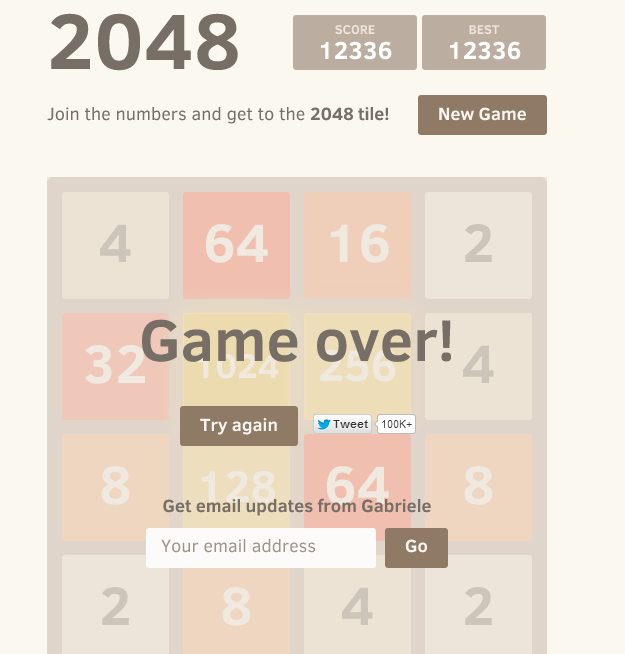
In other news, I still haven’t beat this game. The largest tile I have been able to get up to is 1024. I’m a math teacher. This is a number game. I should be able to beat this! In fact, I’m afraid I’m getting worse at the game the more I play. I haven’t increased my score in 10 days. Yes, I keep track of these things…
April 21, 2014 – The Long Wait for Origami is Over!
I love origami. Am I the best at it? Definitely not! But, I find it to be fun and relaxing (except when it’s frustrating and makes you want to pull your hair out!)
If you were to walk in my classroom, one of the first things that would catch your eye would be the colorful origami that is hanging from my ceiling.
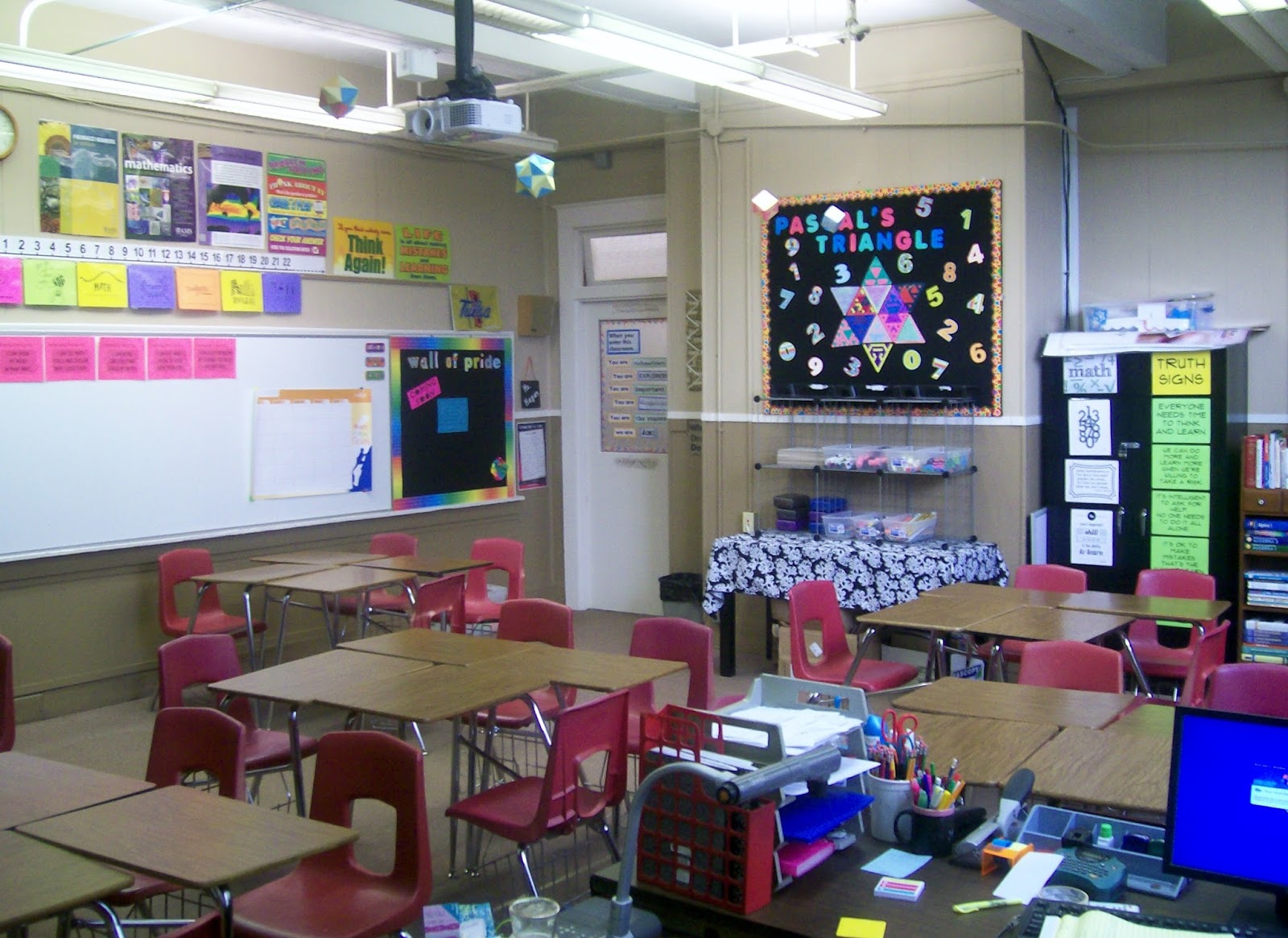
During the first week of school, my freshman wanted to know: “Are we going to learn how to make those? When are we going to make those?” And, I’ve been telling them all year long that we will do origami AFTER state testing. Still, every few months, they would ask, “Are we ever going to get to origami? We’ve waited for so long! I want to know how to make a cube!” Well, my Algebra 1 students have finished with their state testing, so it was time to pull out the origami paper this past week!
I have copies of instructions for making a basic sonobe unit from the book Unfolding Mathematics with Unit Origami. Yes, I could show them how to do the folds step-by-step, but I want to give them practice following written directions. (I do show them how to assemble the units, though.) It’s the top-left book in the picture below. For students who want to make other creations, I have these other books available in my classroom for inspiration.
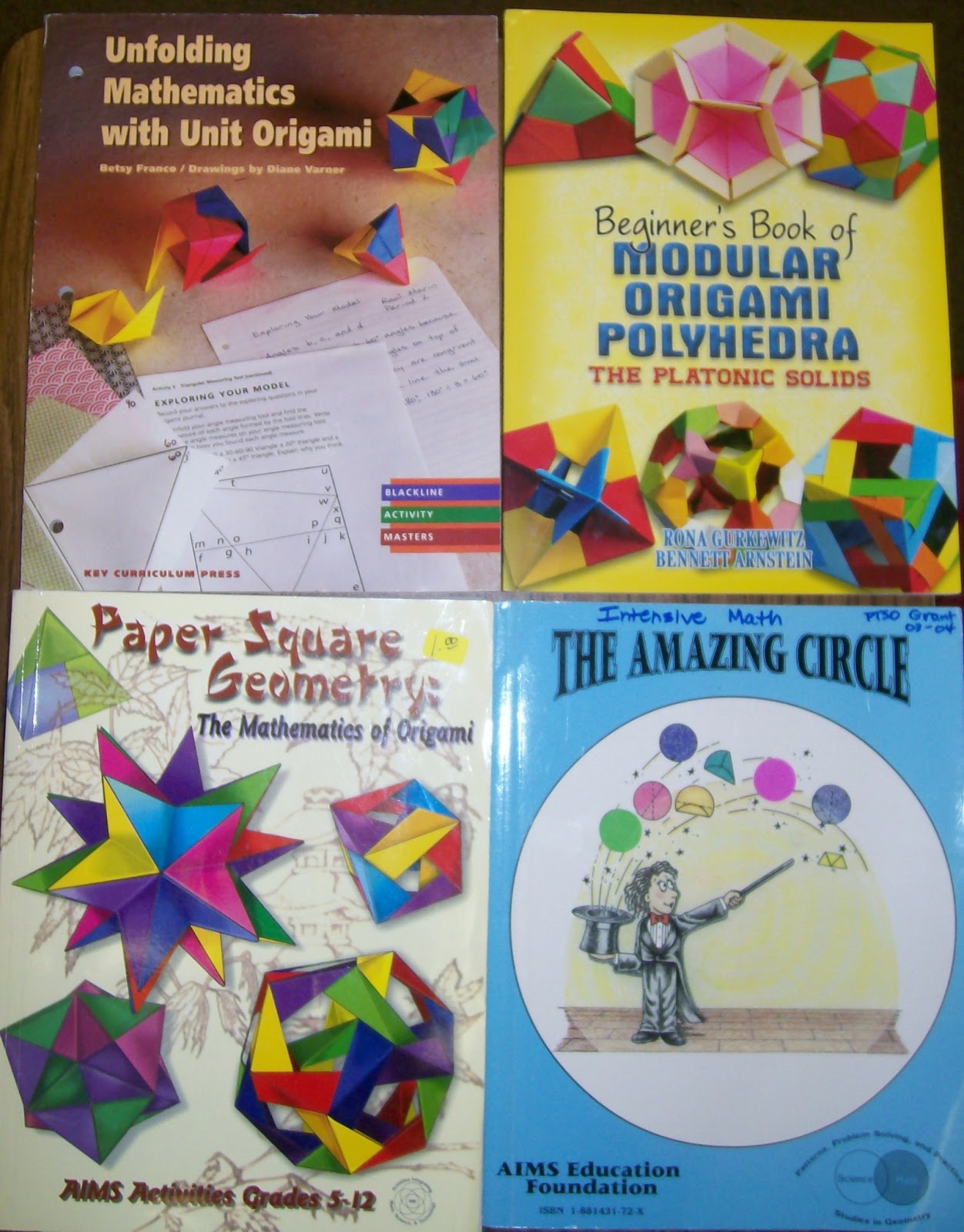
I bought all of these books used off of Amazon. I have had several students make things from the Beginner’s Book of Modular Origami Polyhedra, but it’s not the most user-friendly book. The two books on the left are made for teachers and feature worksheets and activities to go along with each origami project. I have never actually used these worksheets with my students. I think it would be a blast, though, to teach an origami based course.
I also purchased my origami paper (6 inch square paper) from Amazon.
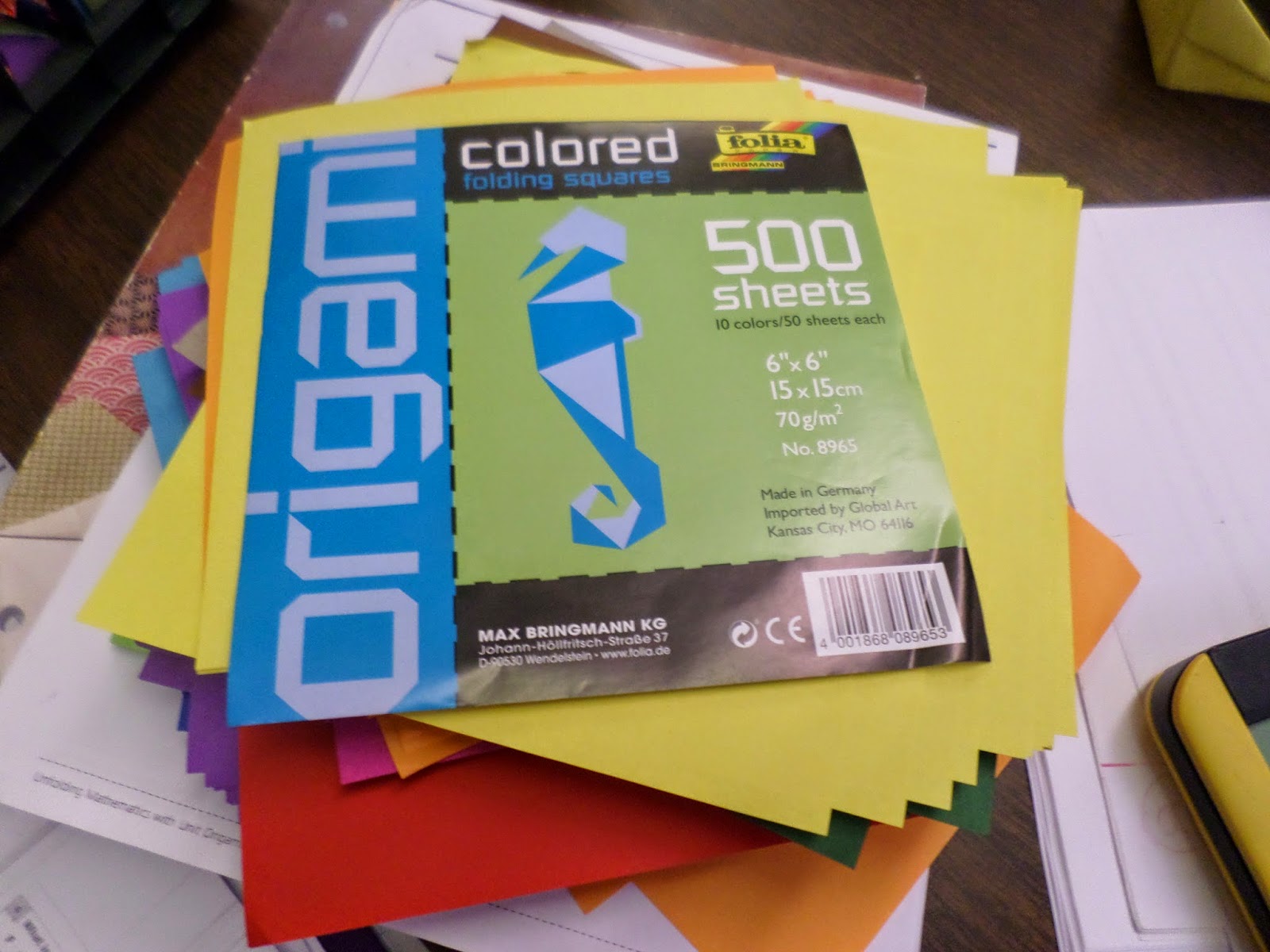
Want to see what my desk looks like during origami season? It’s scary! (Actually, my desk is always scary. It’s just usually not covered in sonobe units!)
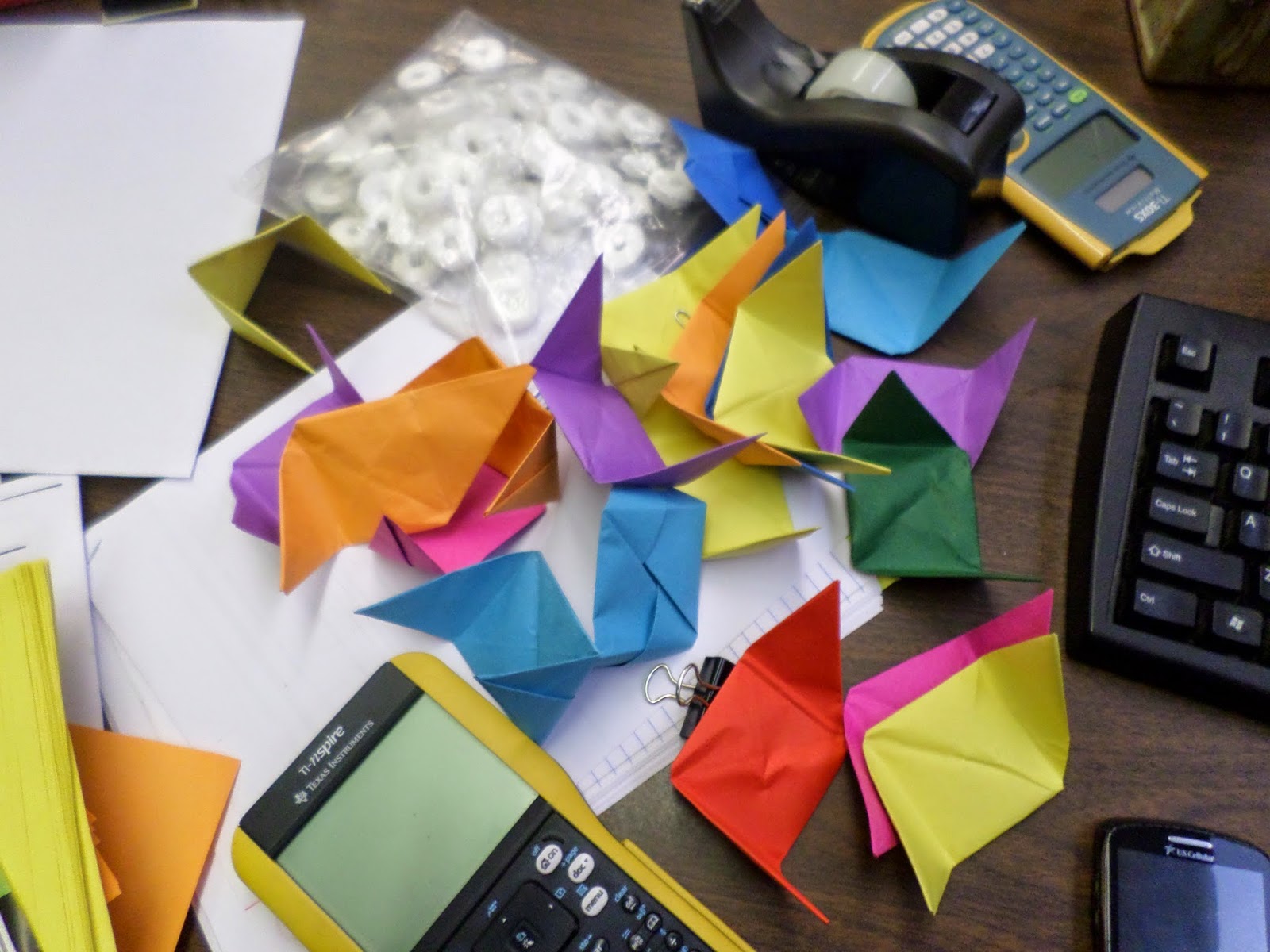
Every year, I have some students who build a cube or triangular hexahedron and leave it behind in my classroom. I decided to take these apart and make a giant 24-piece cube out of them. This is the largest piece of modular origami I have ever created. It’s not the tightest construction because a lot of the pieces were less than perfect. I guess the kids who take their time and make all their folds perfectly tend to take their origami home with them. This took a good 20-30 minutes to put together, and I almost gave up multiple times.
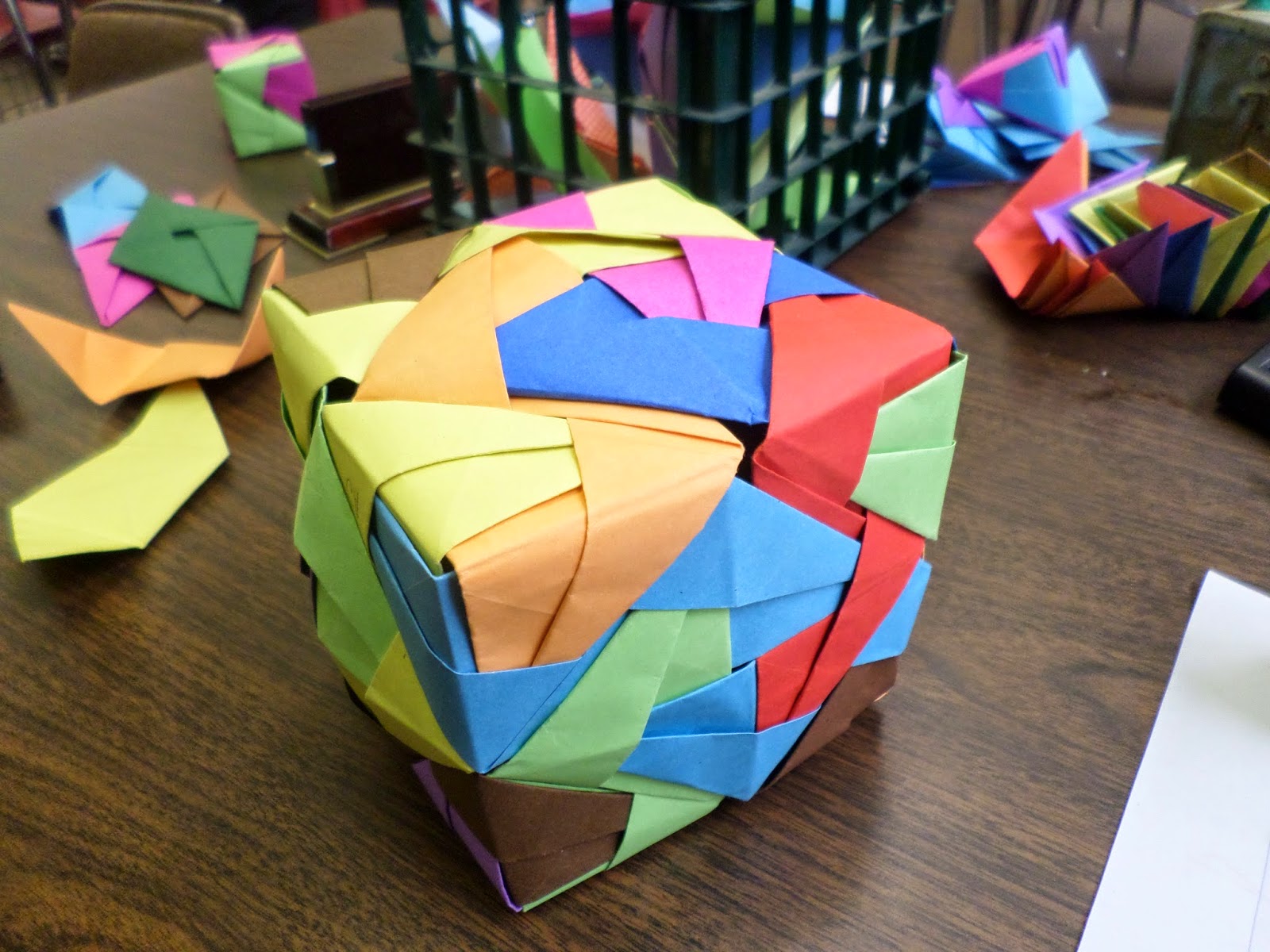
One of my students made a very nice stellated octahedron from copy paper! He came in at lunch one day to get help assembling it. It had been a year since I had put one of these together, so I had to turn to the internet for a quick refresher!
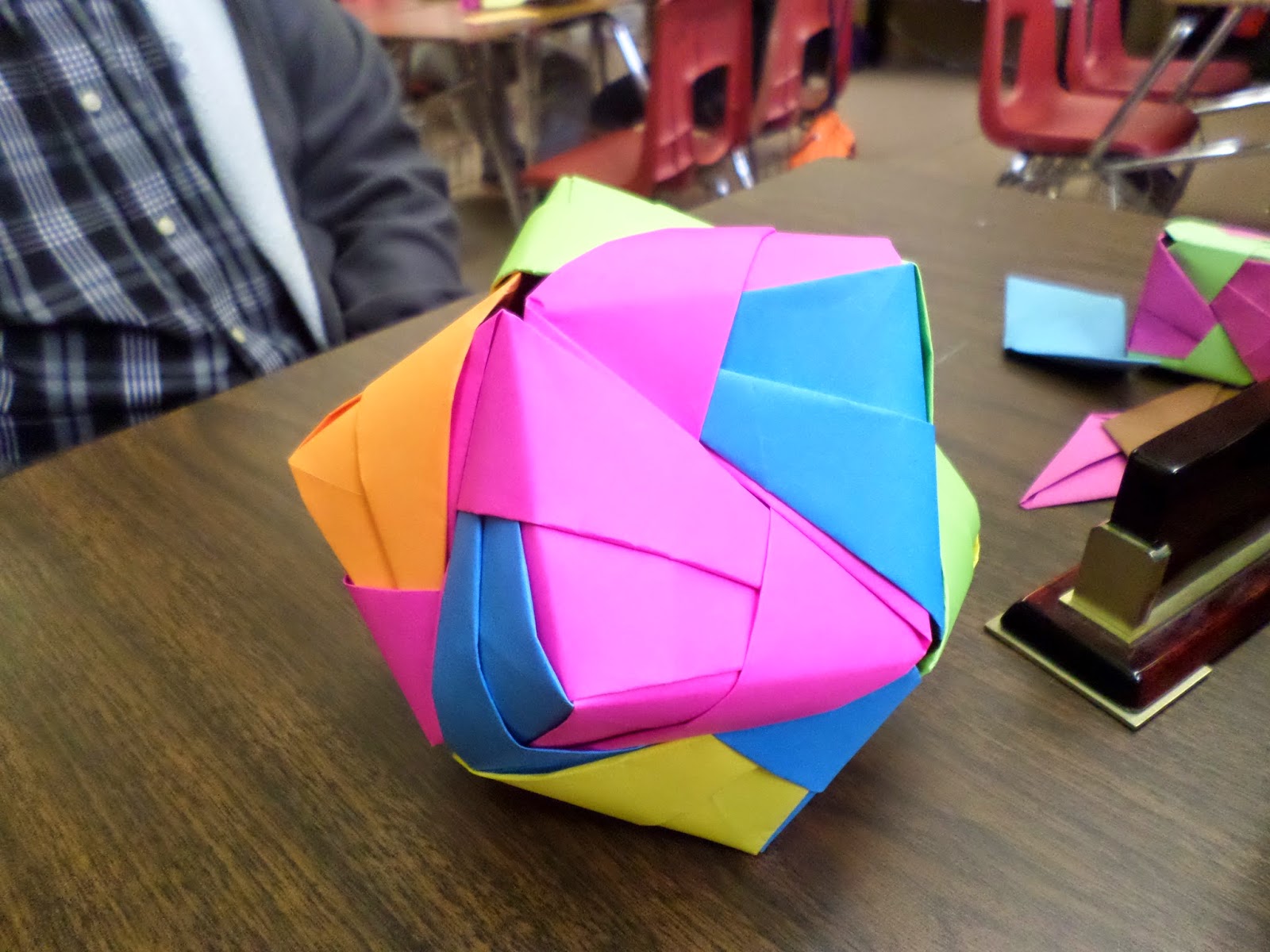
One day I had five kids come in my classroom at lunch to just hang out and do origami. It was a beautiful sight!
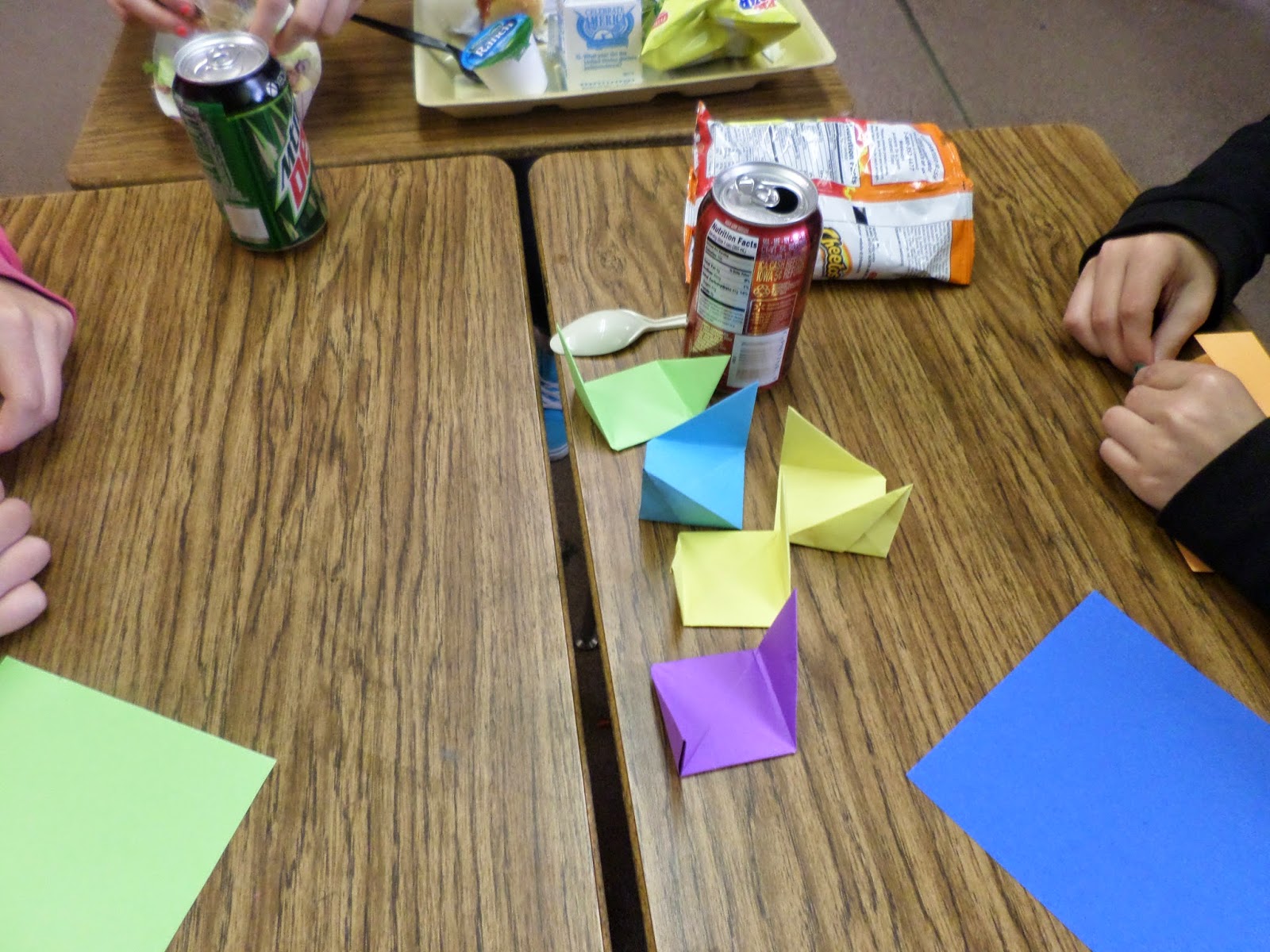
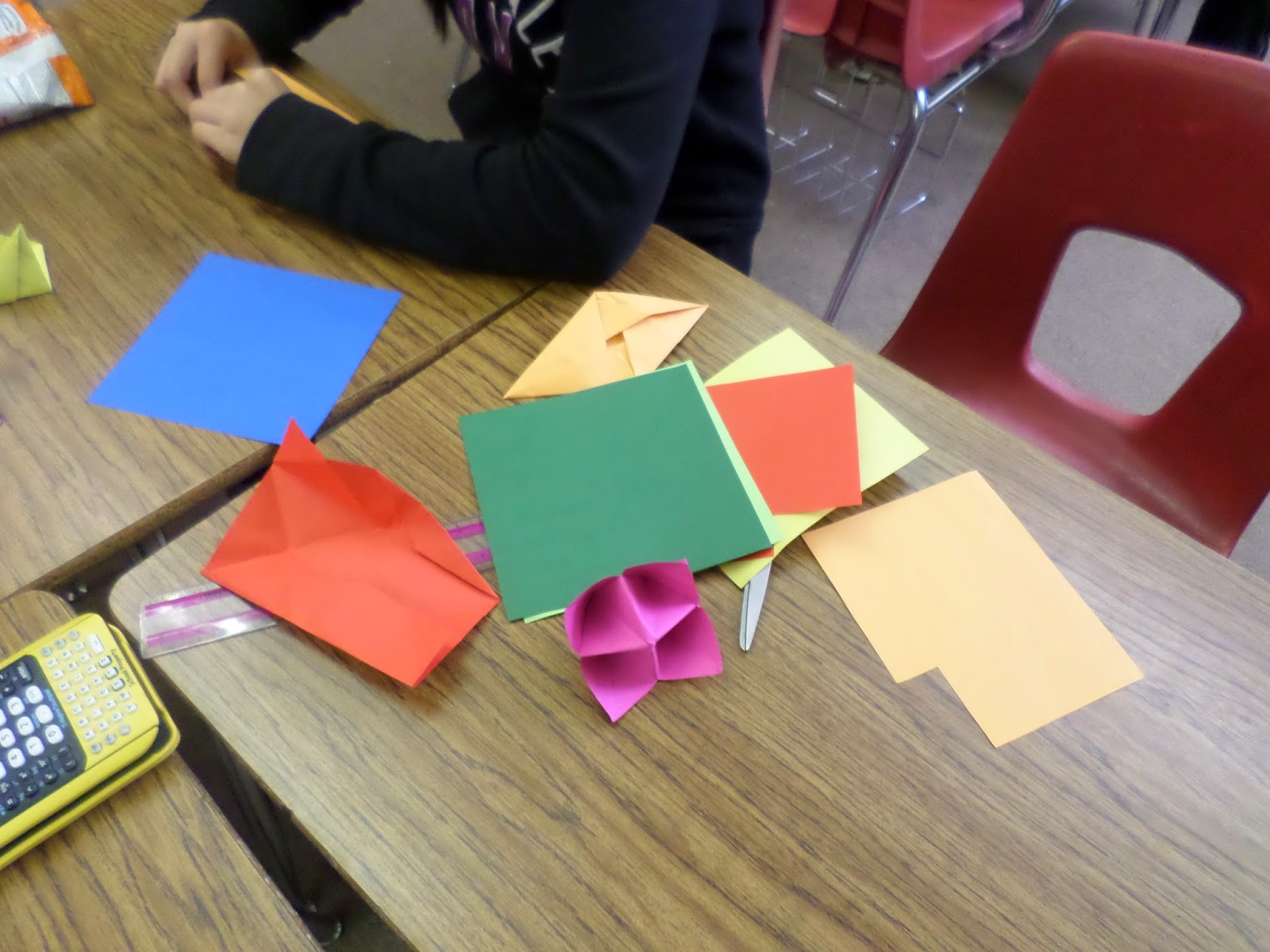
This student has caught onto modular origami very quickly! She put together her stellated octahedron with zero help from me or a book. She didn’t even look it up on the Internet. Instead, she just put it together intuitively. I’m impressed. Here, she’s trying to make a stellated icosahedron. I’ve never even made one of these before!
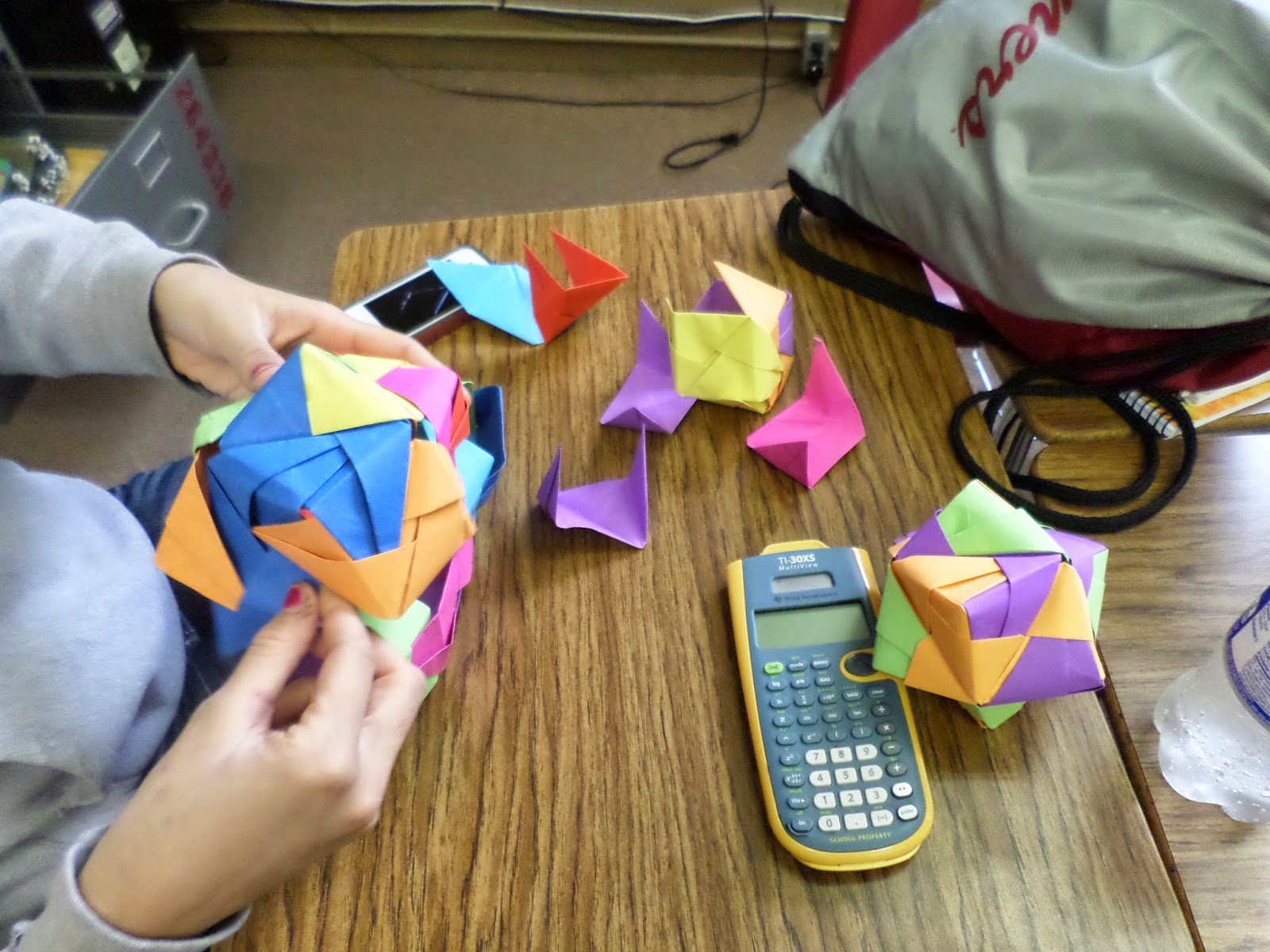
The only thing I don’t like about origami is that it tends to leave my room a mess! I’m pretty sure the janitor loves me right now. The other day, one of my students made an origami envelope, labeled it “origami,” and left it behind in my classroom. While cleaning up my room later, I found the origami envelope with an added message. It now read “Origami is the bomb.com”. Yes, I do think my students love origami!
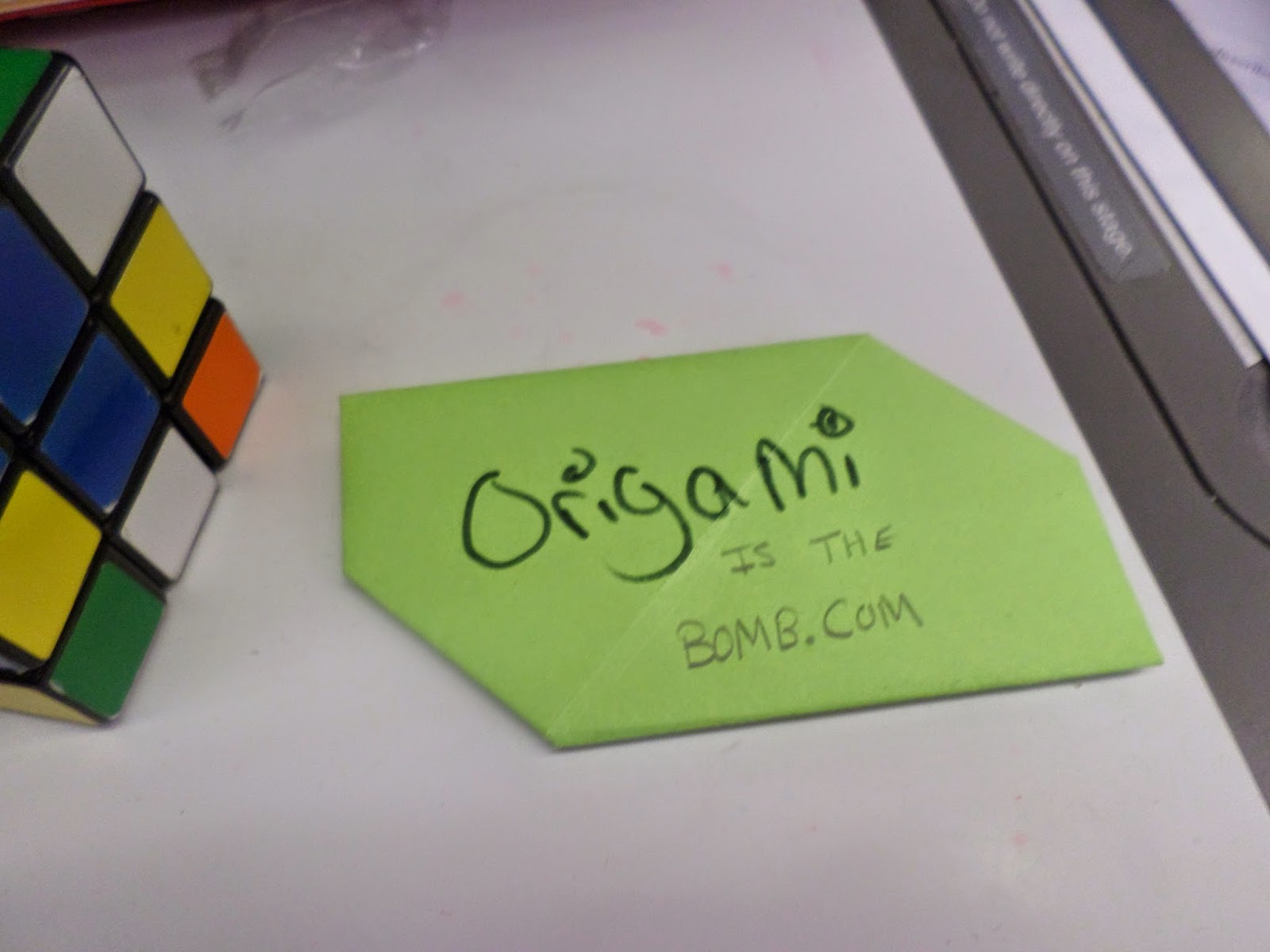
My kids laugh at how many math terms I try to fit into my origami instructions. When teaching students how to assemble the corner of their cube or triangular hexahedron, I tell students to hold one of their sonobe units vertically. Next, they are going to place their second sonobe unit so it is perpendicular to the first sonobe unit. The third sonobe unit needs to be perpendicular to the second sonobe unit and parallel to the first sonobe unit. They always laugh over how I can turn anything into a math lesson!
Once students make a cube or triangular hexahedron, I give them permission to try their hand at other origami projects. They can use their phones or tablets to look up step-by-step origami instructions online. I’ve had students make origami hats, origami hearts, origami cats, origami diamonds, and so much more. It’s fun to see them accessing the creative side of their brain.
April 23, 2014 – Drawing Pictures: Reflections on Problem Solving
The more I teach, the more I learn. Eventually, I’m going to become pretty great at this job.
The summer before my first year of teaching, I made a set of problem solving strategy posters to hang on the wall. My first year of teaching, these posters had an entire bulletin board dedicated to them. I would occasionally reference them in class, but I didn’t really do anything substantial with them.
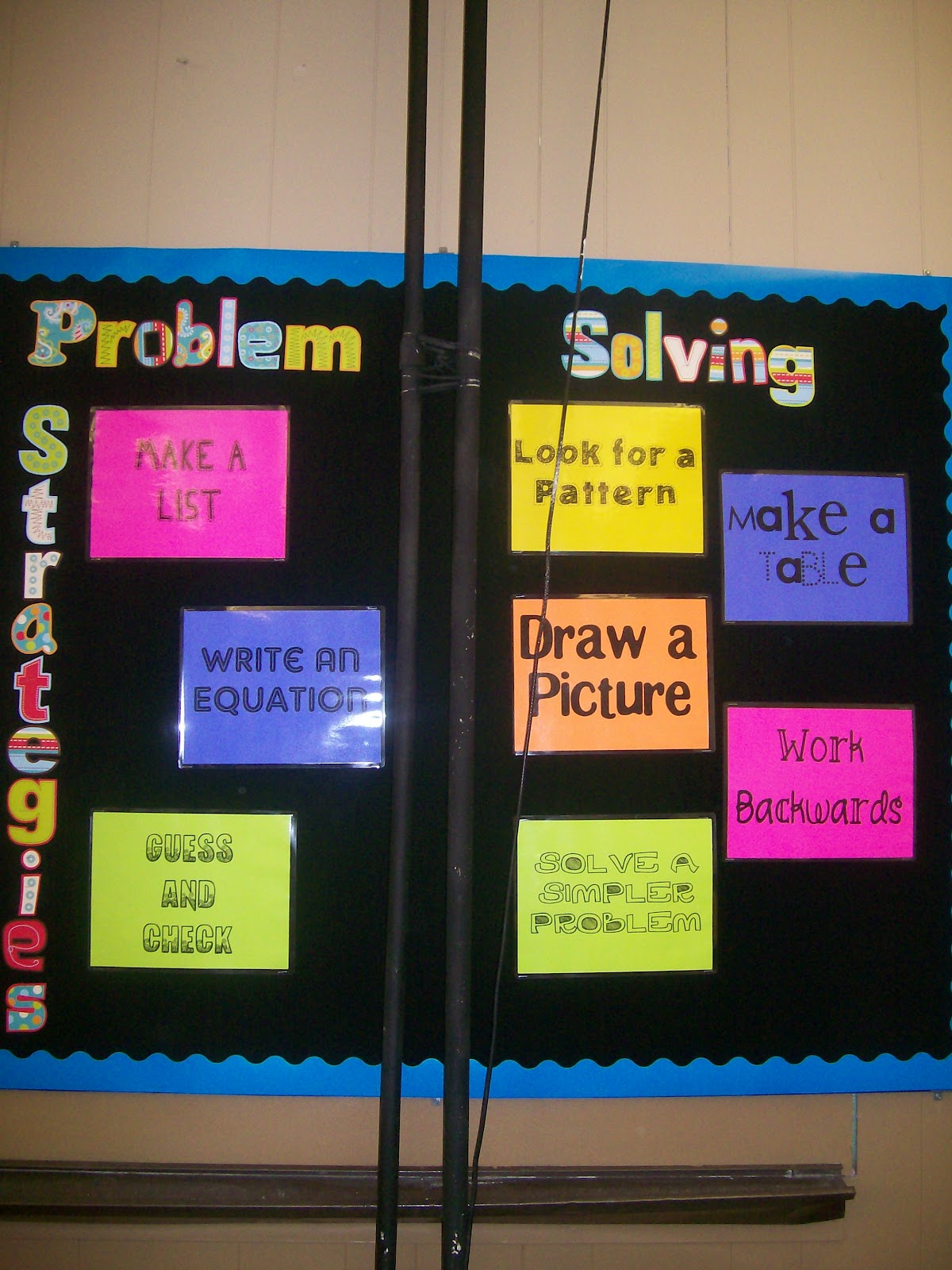
This summer, I redecorated and rearranged my classroom. In order to make room for a Star Student bulletin board, I moved the problem solving strategies to a new home underneath my SMART Board.
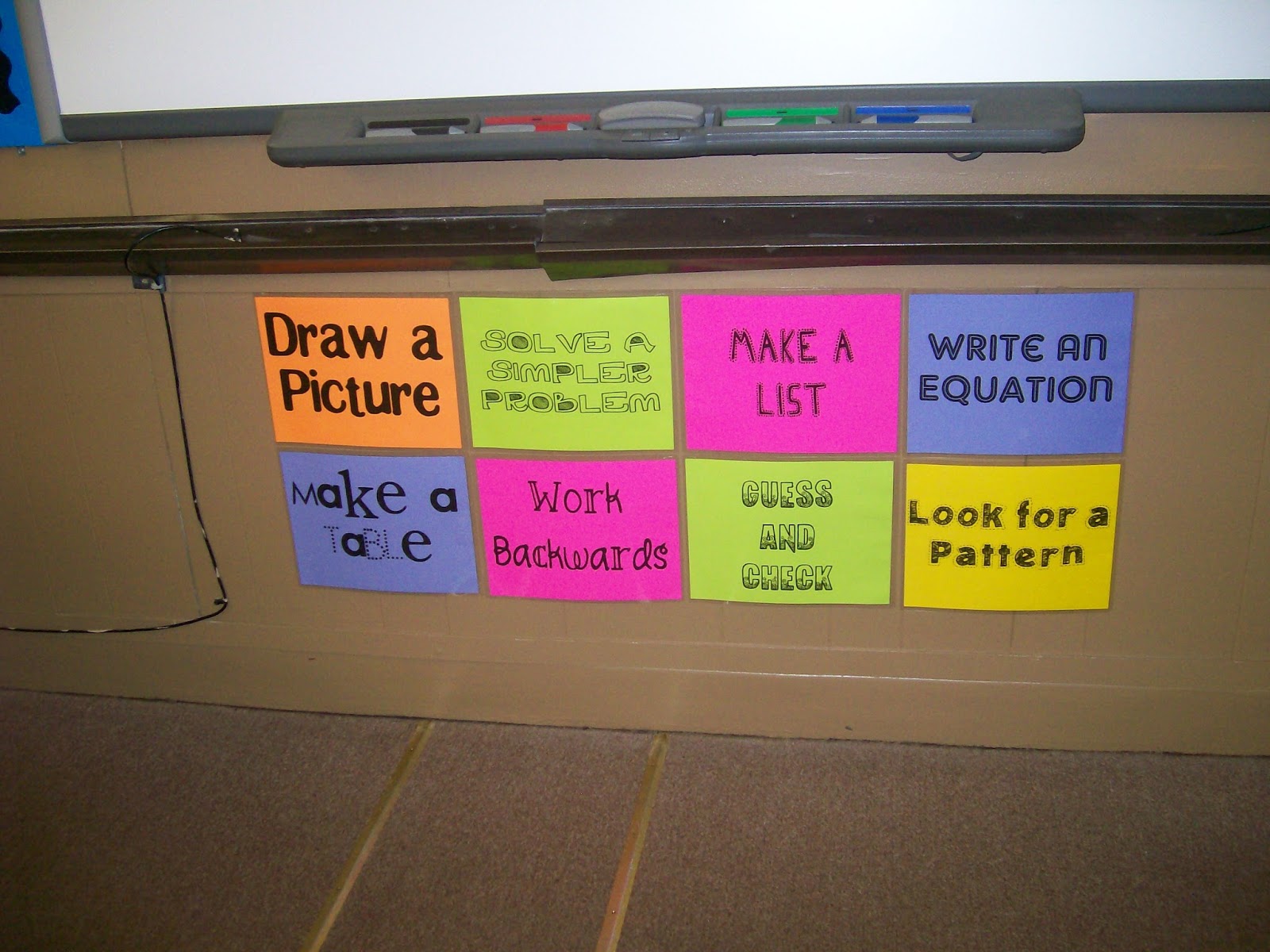
I don’t even think most of my students ever even noticed that they were there. Again, I did nothing more than post them on the wall.
If I really and truly want my students to develop their problem solving skills, I have to do more than just post the strategies. I have to make them do the strategies. I have to make them practice the strategies. I have to remind them of the strategies. But, it’s more than that. I have to give them challenging problems that will force them to utilize the strategies. If I’m not challenging them, if I’m not holding to them to a high standard, then it’s pointless to even post the strategies.
This year, I opted to skip the unit on ratios and proportions in Algebra 1. Under Common Core, ratios and proportions will be a middle school unit. And, I knew that my students had seen these types of problems in middle school. Since this is the last year of testing our old standards in Oklahoma, students were asked several problems involving ratios, proportions, and percents on their end-of-instruction exam. During our few weeks of EOI test review, I threw these ratio/proportion problems up on the board to see how my students would handle them.
Here’s one of the problems I chose from questions released by the Oklahoma Department of Education:
At a candle store, the ratio of green candles to red candles is 2 to 5. The store has 4,900 candles. How many candles are red?
This is a tricky question. When students see that 2 and 5, their gut instinct is to make a ratio out of them and then form a proportion. 4,900 isn’t the number of green or red candles, though. It’s the total number of candles. So, we need a ratio that deals with the total number of candles. We must represent the ratio of red candles to total candles as 5/(2+5).
Knowing that students were likely to be tripped up by this problem, I urged them to draw a picture before performing any calculations. It was a simple request. It was a request that I should make more often.
Draw me a picture.
A.K.A. Use a problem solving strategy!
And, don’t just use it. Use it, and then show the class how you used it.
Oh, you used a strategy but ended up doing something incorrectly? Awesome! You just provided me with insight to your thought process, and it’s an excellent learning experience for the class.
I didn’t realize just how powerful that question would be until students started holding up their dry erase boards with their pictures.
Let’s just say that the way I approached this problem and the way many of my students approached this problem was differently. When I asked for a picture, I had a certain picture already drawn in my mind. So, when students started holding up pictures that were unlike what I expected, it was an awesome experience. I had to grab my camera and document this experience!
I wasn’t expecting a circle graph. But, it works! And, I almost wish I had thought of drawing my picture like this.
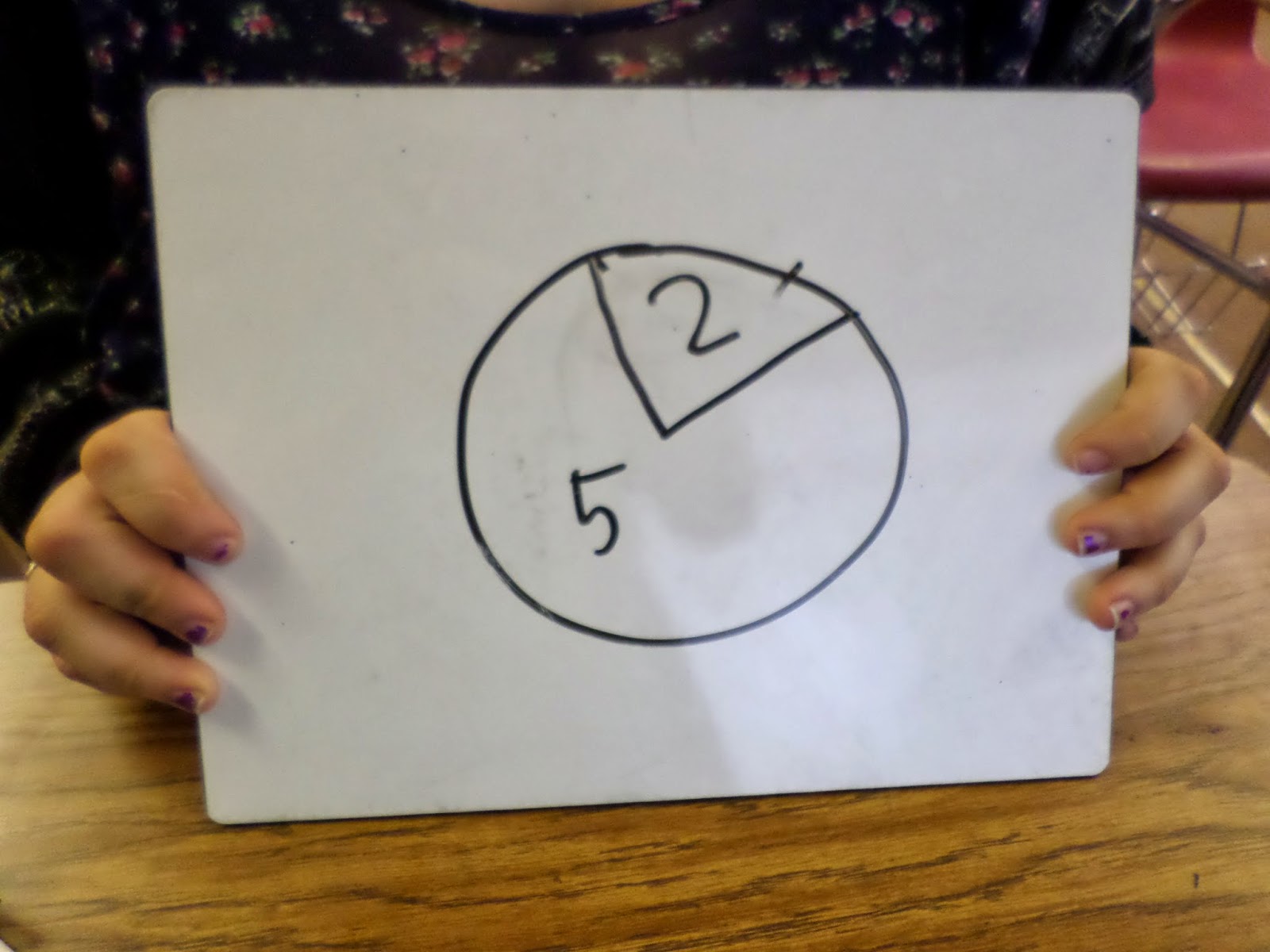
Another student thought in terms of writing the ratio using a colon. Many students in the class could relate to this. Again, it wasn’t what I was going for. But, that doesn’t make it a viable picture.
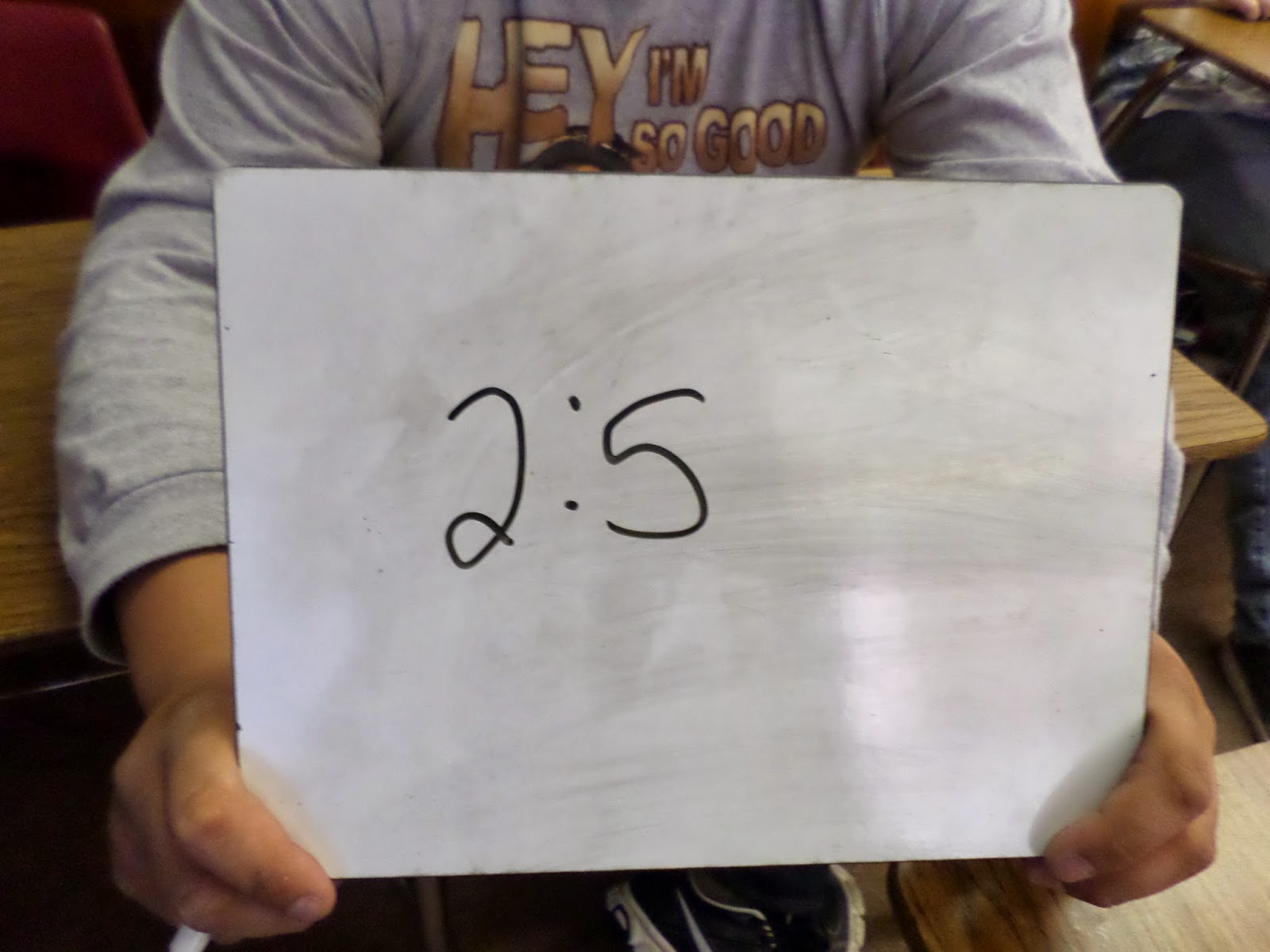
This student also used the colon format to write their ratios. She has made the common error that I predicted upon picking out this problem.
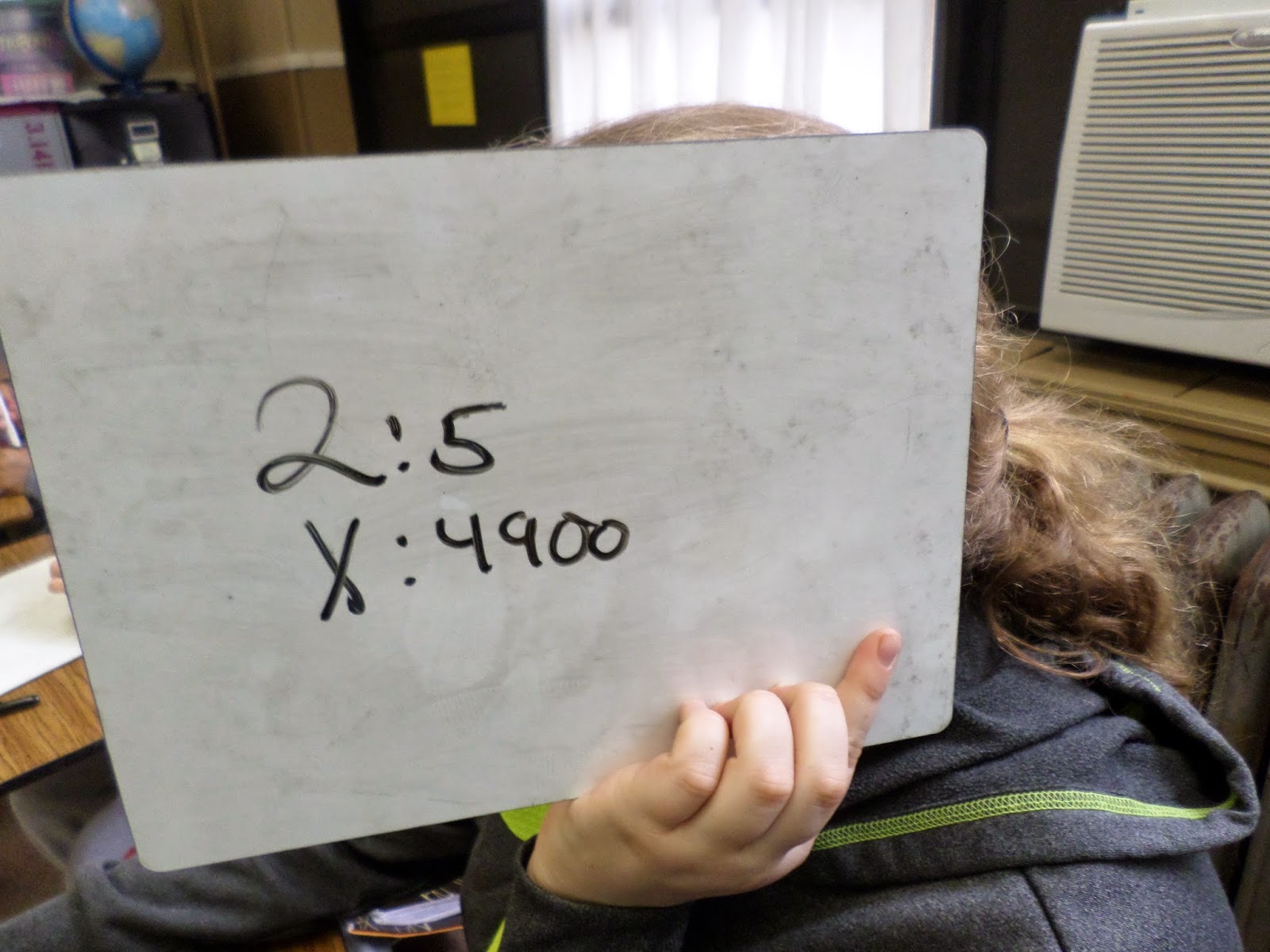
Of course, some students drew pictures that were creative but not exactly mathematical.
I present to you: Sherrie’s Candle Store
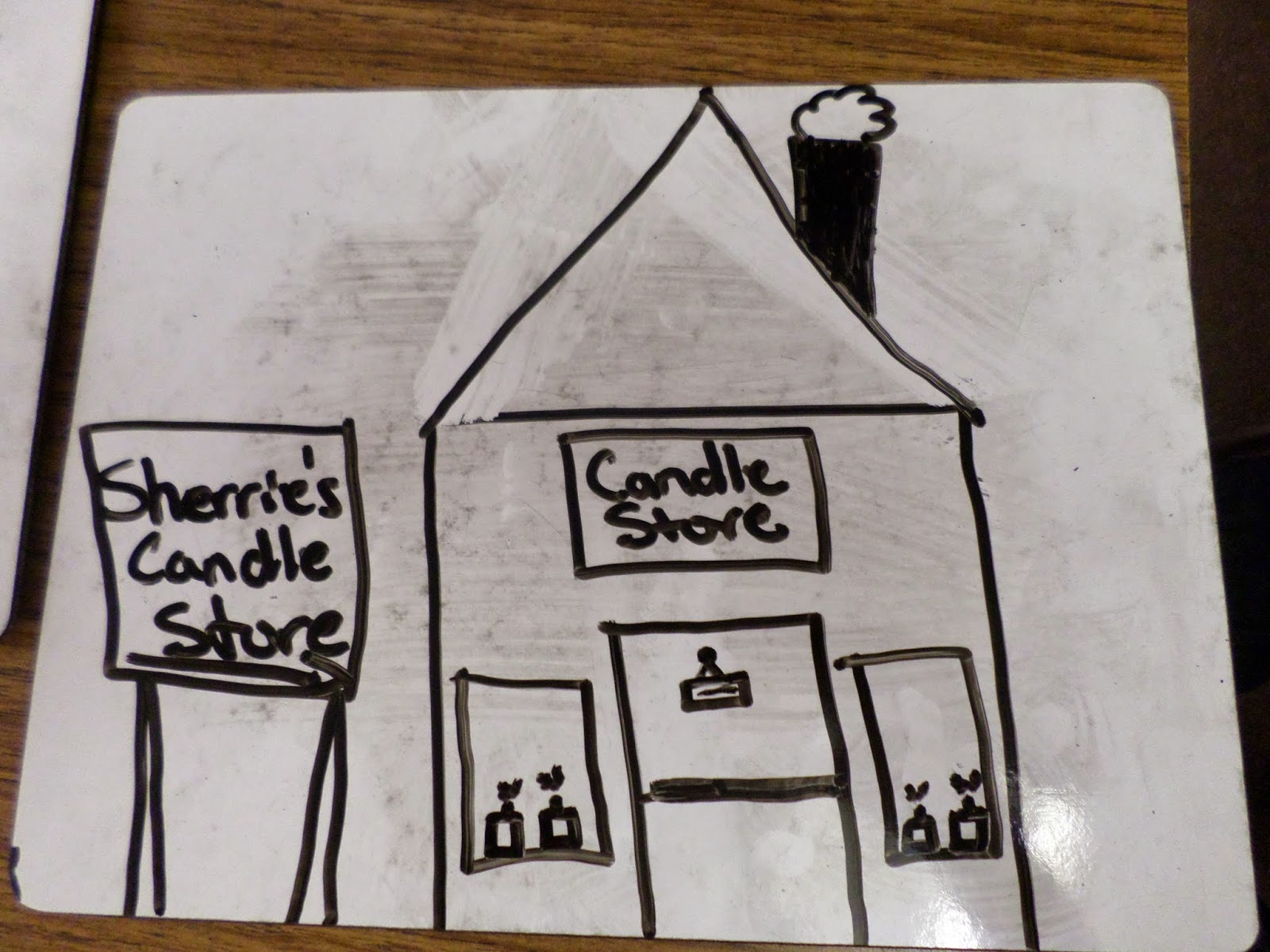
When I drew my picture on the board, I drew two green candles and five red candles inside a lovely store. (You can tell me just how awesome of an artist I am in the comments!) Realizing that red and green candles were the color of Christmas candles, I changed the name of my store to the “Christmas Candle Store.”
Next, I drew the sideways squiggly bracket, and I asked students how many candles were represented by the picture I drew. 4900 candles. How many candles did I draw? 7 candles. So, how many actual candles must each drawn candle represent? 700 candles! Once this discovery was made, my students were quick to point out that the correct answer was (d) 3,500 red candles. Why? After a satisfactory answer was given, I drew the circle graph that one of my students had drawn on their board on the SMART Board.
What if your picture looked like this? What would you do next? We walked through the same solution process using a different picture.
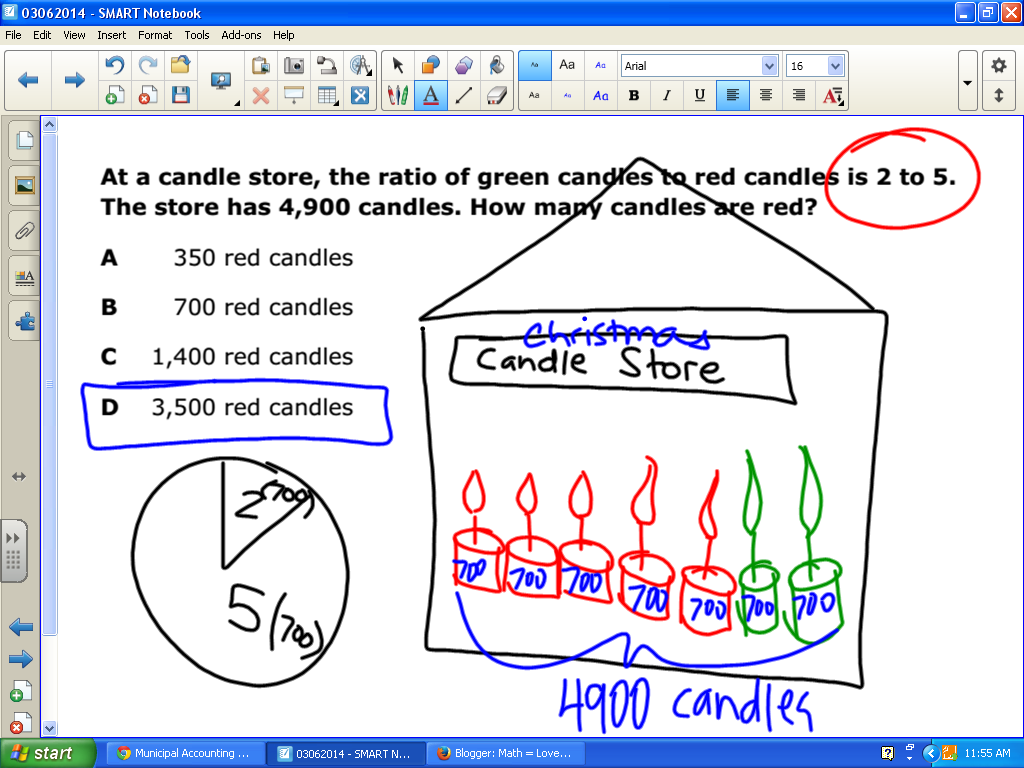
Why have I never done this before? I draw pictures on the board all the time. But, I don’t have my students do the same. I’ve been cheating them out of a learning experience by drawing the picture for them. I’ve been cheating myself out of a learning experience by not letting them draw their own pictures. I guess I’ve always been afraid that their pictures would be wrong. I’ve been afraid that they would make mistakes.
This stops now. Will they make mistakes? Certainly. Mistakes are how we learn. I’ve always thought that, but my actions haven’t been reflecting that in my classroom.
I’m currently reading a book on how to organize my house/life by setting up daily/weekly/monthly routines. Maybe the best thing to come out of this book was a quote from the author’s husband’s geometry teacher: “Anything worth doing is worth doing wrong.”
Do I really believe that? Do I teach like that is true? Because it definitely is. And, I need to make this my mantra. If a problem is truly worth doing, then it is worth it for my students to do it wrong. There is something to be gleaned in the process of analyzing errors.
To try next year:
Problem Solving Strategy Gallery Walk
1. Pick an awesome, thought-provoking problem for which the answer is not immediately apparent.
2. List various (applicable) problem-solving strategies on strips of paper.
3. Let each student draw a strip of paper. Give them 3/5/10 minutes to apply that strategy to the problem.
4. On a sheet of paper, they must illustrate how the strategy can be used. However, they CANNOT solve the problem. They should draw the picture, make the table, write the equation. They should not answer the question. That will come later.
5. Hang the papers around the classroom.
6. Give each student 3/4/5 post-it notes.
7. Students must walk around the room and leave constructive feedback on the strategies employed by their classmates.
8. Once feedback has been given, group students by strategy. All of the students who drew a picture sit together. All of the students who made a table sit together. All of the students who wrote an equation sit together.
9. Each group takes the feedback provided by their classmates and works the problem together, coming to a singular solution. (Students may work problems individually first and then come together for a group solution.)
10. Each group presents their solution and explains how they used their problem solving strategy.
Why I think I will like this:
* Emphasis on multiple avenues available to solve a problem
* Students giving students feedback – there’s not enough of this in my classroom
* It will force me to ask more deeper, more complex, more thought-provoking questions
Thoughts? Feedback?
I realize that problems are going to take longer this way. We might spend an entire 50-minute period on one question. But, is that a bad thing? I’ve spent the last two years rushing through class period after class period to make sure I “cover” everything. No wonder they forget everything from the first semester by the time the end of year test comes around. Students learn and internalize what we dwell on. And, problem solving strategies is something I need to dwell on. Few of my students will ever factor polynomials or graph exponentials as part of their daily lives. But, they will all face problems that need to be solved, and they will need tools to help them sort through the many options available to them. If they leave my classroom as critical thinkers and problem solvers who persevere until a solution is found, I have done my job.
April 24, 2014 – The #1 Thing I Won’t Teach Next Year: Integer Operations
I realize it’s still April. Our last day of school is May 14th. But, I’m already thinking about next year. In fact, I’m thinking a lot about next year. Things I want to do. Things I don’t want to do. Things I need to do. Things I should think about doing.
Here’s the deal. Oklahoma is changing standards next year. Originally, we were a PARCC state. Next year is supposed to be our first year of full implementation of Common Core. Except, we decided to not call it Common Core. We’re calling them the Oklahoma Academic Standards (OAS). I referred to them as Common Core the other day in the presence of our elementary principal, and I got yelled at. I’m sorry. Changing the name does not change what they are.
Then, Oklahoma decided that we don’t have the necessary technology infrastructure for PARCC testing. So, we will write our own test that aligns with PARCC and CCSS/OAS. All was fine and well. Then, this month, the Oklahoma senate approved a repeal of Common Core. Instead of teaching CCSS/OAS, Oklahoma is supposedly going to write their own standards that are more rigorous than Common Core. As a teacher, this is frustrating. I just want to know what I’m supposed to be teaching. Will we teach/test CCSS for a few years while writing our own standards? Or will we jump directly into new standards that haven’t even been written yet? I doubt we will go back to our old PASS standards, but it seems like anything can happen lately. How can I prepare to provide the best education possible to my students when we keep changing our minds?!?
So, I tell you all this to say, I’m still not exactly sure what I’m teaching next year. I’m teaching Algebra 1, Algebra 2, and Trig/Pre-Calculus. But, exactly what those classes will consist of is still up in the air. I may not have a for-sure set of standards for next year, but I do know this:
Next year, I will NOT spend class time teaching integer operations.
I teach in a school with a history of poor academic achievement. For the past two years, I have spent at least a week in Algebra 1 on adding, subtracting, multiplying, and dividing integers. And, I’m sick of it. This is one of those concepts that is first introduced in 6th or 7th grade in Oklahoma. I should not have to teach it in high school. This year, I gave my Algebra 1 kiddos integer speed tests. 64 questions. 4 minutes. I told them that they were going to take one every day until they passed. After a week, I gave up. Not a single student could even finish the test in 4 minutes.
I’ve got to raise the bar. Every day in my class is valuable. And, I could teach so much more if I can regain that week of review. Because let’s face it: reviewing integers is the biggest waste of time. They’ve heard the explanation a million times before. The ones who need the most help are the quickest ones to tune me out. After all, a negative and a negative make a positive. Somehow they missed out on the fact that it only works that way when you are multiplying or dividing. -3 – 7 does not equal positive 10!
This year, I attempted to go back to the basics. We did exploratory activities with algebra tiles. I saw a few light bulbs go off, but there was not enough light put off to justify the insane amount of time that was spent learning how to use the algebra tiles. Last year, I made foldables and taught my students memorization tricks. That didn’t work any better.
Over the course of the year, most of my students seem to (finally!) internalize the rules for integers. Maybe it was my incessant singing of “Same signs add and keep. Different signs subtract. Keep the sign of the bigger number. Then, you’ll be exact” every time someone made a mistake with adding/subtracting integers this year that helped???
When I took Calculus I in college, we had two gateway exams that were in addition to our 3 regular exams. One gateway exam was over differentiation, and the other gateway exam was over integration. If I remember correctly, there were 20 questions, and you were required to get 18 or more correct to pass. Each gateway exam was taken for the first time in class. If you passed, you were done! If you did not pass, you were allowed up to four additional chances to take and pass the exam. These had to be done outside of class time, and they were scheduled with the professor or TA. If you could not pass the gateway exam, your final grade would automatically be dropped one letter grade.
I want to take the strategy and apply it to integer operations. I will give the first integer operations test in class. The tests will be graded and passed back to the students. Students who score below a 90% must re-test. Re-tests must happen on their own time. And, there will be a set date that students must demonstrate mastery of integer operations by. Ideally, I want 100% of my students to demonstrate mastery of integer operations by the beginning of September. We start school in mid-August. This means I will have to get on this ASAP!
Students who make less than a 90% on their integer operations test will be provided with a list of websites, online games, flash cards, etc. that they can use to practice with. I will also be available to help them before school, after school, or at lunch. Students who have not demonstrated integer mastery by the beginning of September will be required to log 1 hour of integer practice in my classroom each week until they pass. This time can be spent before school, during lunch, or after school. This is going to be absolutely 100% non-negotiable. Students who do not log their hour of practice in my classroom will be given mandatory lunch detention until mastery is achieved.
This accomplishes multiple things. It communicates to students that integer operations are an important concept for algebra success. It communicates that this is something that students should have learned in middle school. It also communicates that if they didn’t learn it in middle school, then I am here to help them. I care so much about their success that I am willing to inconvenience myself to help them master their integer operations. I am identifying a weakness that I see in the students at my school as a whole. And, instead of lamenting the weakness, I’m acknowledging it and providing practice opportunities and support.
I want students to take control of their own learning before that first gateway exam. I will provide them study materials, practice tests, and links to online resources. They can assess their own needs. My students are capable of so much more than I give them credit for. It’s time I let them show me what they can achieve when they set their mind to it.
For my Algebra 2 students, I think their gateway exam needs to cover exponent rules. I should not have to spend a week reteaching exponent rules to Algebra 2 students.
Have you ever done anything like this with your students? Do you see any changes I need to make? I’m very open to constructive feedback. My teaching style is slowly morphing, and I think it’s a good change!
P.S. This blog post did not go where I planned for it go at all. I started writing this post to tell you about an awesome new game I learned about at my last Math Teachers’ Circle meeting. I will be using it to emphasize integer operations and the order of operations. That’ll have to wait until tomorrow, though!
April 26, 2014 – Books Read in March 2014
March was a month for reading! In January, I managed to read 10 books. In February, I read another 10 books. But, in March, I was able to add 17 books to my list of books read! 17! And, these were all read either before or during Spring Break. I didn’t read a single book after Spring Break. That wasn’t intentional. March is just a crazy month!
(And, obviously, April has been a crazy month, too. Don’t believe me? April is almost over, and I’m just now getting around to posting what I read way back in March!)
As before, here are short summaries of each book I read last month.
Killing Floor by Lee Child
For the past two years, one of my coworkers has been recommending that I check out the writing of Lee Child. I finally decided to make it happen. Thanks to the help of my friendly local librarian, I was able to figure out which novel was the first in the Jack Reacher series. This was a murder investigation novel that instantly pulled me in. I wasn’t sure if I was going to like it, but I really did. I got kinda attached to the characters, and the novel definitely kept me guessing. Of course, I’m the type that never solves the mystery before the investigator. So, all mystery novels keep me guessing.
Heaven is for Real by Todd Burpo
In college, one of my mentors recommended this book to me. I’ll admit that I was a tad skeptical about the book. Did the little boy really visit heaven? Or is this just a publicity stunt? A few weeks ago, I saw that my library had a copy, so I decided to give it a shot. This was a quick, heartwarming read. I enjoyed reading about the family’s experiences. And, I found myself drawn to the childlike faith and trust demonstrated by the young child. I especially liked the inclusion of the discussion of what Jesus looked like. I enjoyed this book, and I’d recommend it to others.
Catching Fire by Suzanne Collins
I read The Hunger Games in college. And, I watched The Hunger Games movie a year or so ago. After hearing so many of my students discuss the Catching Fire movie, I decided that I really needed to get around to reading the second book in the series before I saw the second movie. Since it had been so long since I read the first book, I had a little trouble getting into the second. But, once I was in, I was hooked. The second book went a place I did not expect. After finishing the first book, I had wondered how the story could continue. Well, now I know! My only complaint? The ending. Let’s talk about the book ending with a cliffhanger! I now must read the third book to find out what happens. The only problem is that someone currently has the third book checked out. Eventually, I will finish!
Front Page Love by Paige Lee Elliston
I’ve been trying to go back and finish series that I’ve started while I still semi-remember what the series is about. Last month, I read my first Paige Lee Elliston book, Changes of Heart. This book followed the same recipe as its predecessor. One girl + Two guys + One Heart-Wrenching Decision = True Love. I was rooting for the guy who didn’t get picked in the last book. But, I won’t ruin the ending for you in case you want to check it out for yourself. There’s one more book in the series, but my library doesn’t have it. So, I’ll be stopping here. I did enjoy reading about The Oklahoma Dust Bowl in this book. It was set in Montana during an epic drought. The main character is a newspaper reporter who is tasked with writing about the impact of the drought on the community. As part of her research, she interviewed a survivor of the Dust Bowl. I learned several new things about the Dust Bowl as a result which was pretty cool.
The Traveler’s Gift by Andy Andrews
I read the sequel to this book last month. I enjoyed the sequel so much that I ended up checking the first book out of the library. My favorite thing about this book was its biographical nature. I learned all kinds of fun and interesting facts about Anne Frank, Harry Truman, Christopher Columbus, Abraham Lincoln, and more. This book had a really inspiring message, and it was quite an enjoyable read. So far, I’ve enjoyed everything I’ve read by Andy Andrews.
Fearlessly Feminine by Jani Ortlund
I picked up this book at a thrift store probably a year of so ago. And, it’s sat on my bookshelf since then. Over Spring Break, I was wanting a short break from the massive amounts of fiction that I had been consuming. So, I picked up this book about “Boldly Living God’s Plan for Womanhood.” I wasn’t quite sure what to expect, but I thought I’d give it a try. I figured if I didn’t like it, I could always donate it back to charity. This was a book that forced me to ask a lot of questions of myself. In college, I remember being asked once if I was a feminist. I don’t exactly remember what I said because I wasn’t really even sure what feminism was. This book is definitely anti-feminist. As I read it, I had to decide how I actually felt about certain things I had never given much thought to before. For example, the author of this book recognizes that many women must work outside the home. But, she asks the reader to ask themselves if this is really for the best. If you are financially capable of staying at home with your kids, should you work outside the home? I’ve always assumed that I will put my children in day care and continue working and teaching. (Of course – this is a long, long way off! I’ve got to check the whole getting married thing checked off my to-do list first!) After all, my own mother has worked full-time my entire life. Is this really for the best, though? When the time comes, will I be able to hand my own children over to a stranger in order to spend my days teaching the children of strangers? I’m going to admit right now that I don’t have any answers. I’ve just got a ton of questions.
Lost December by Richard Paul Evans
I am a huge Richard Paul Evans fan. I was first introduced to him through The Christmas Box trilogy. Recently, I asked the librarian for a book recommendation, and she recommended Evans. Since that recommendation, I’ve been reading as many of his books as possible. This was a book of second chances, a book of redemption, a book of hope. It was a sweet, slightly suspenseful book that I simply couldn’t put down. This book opened my eyes to some of the realities that come with being homeless. This is a novel that I definitely recommend. It’s a re-telling of the story of the prodigal son and so much more at the same time.
Until Proven Guilty by J.A. Jance
The same coworker who recommended that I read Lee Child brought me this murder mystery to read. I picked it up over Spring Break, and I couldn’t put it down! I was forcing myself to alternate between reading a chapter in a book and grading a stack of papers. Soon, the papers were set aside as I immersed myself in the book. It was that good! J.A. Jance is a new author to me, but these books have been around longer than I’ve been alive. Murder. Mystery. Intrigue. Romance. A Cult. This book had it all. And, it’s probably one of the most memorable endings to a book I’ve ever read. After I raved to my coworker about how much I enjoyed this book, she brought me the next 6 books in the series to read!
Jade by V.C. Andrews
I’m still working my way through The Wildflowers series. There are five books in the series. And, so far, I’m averaging one book a month. I’m not entirely sure who these books were marketed towards. The characters are teenagers. But, the topics discussed in them are kinda dark. This series has covered divorce, rape, kidnapping, incest, and more. Part of me wonders why I keep reading them. It’s probably because I think these stories are pretty close to the actual lives led by my students. This is not a series I would recommend. But, I think it’s still a series that I will finish. After all, I’ve got to find out why all of the girls ended up in court-appointed therapy. And, I’m hoping that the last book will tell about what ends up happening to the characters.
Crewel World by Monica Ferris
Remember my coworker who loves to read? This is another novel that she loaned me. It’s a murder mystery that is set in a needlepoint store. First off, I didn’t know there was such a thing as a needlepoint store. I know how to knit. I can sew. I can crochet. But, I’ve never had any desire to do needlepoint. I think that I would have enjoyed this book more if I had a passion for the subject. It was an okay book. But, I didn’t really find myself sucked into the story. It seemed to take me forever to make it through this book which is strange for me. If you love needlepoint or want to know more about needlepoint, I’d recommend this book. Otherwise, there are more intriguing mysteries out there.
Water for Elephants by Sara Gruen
Once a month, I am part of a book chat at our public library in town. A book chat is kinda like a book club, but everybody reads whatever they want to read. We get together to discuss our latest reads, talk about what we want to read next, eat yummy snacks, and just enjoy a couple of hours of company together. I started going in January, and it’s one of the highlights of my month. At February’s book chat, somebody mentioned the book, Water for Elephants. Everybody else at the table started raving over it. Pretty soon, all eyes were on me. “Sarah, what did you think of the book?” “Well, I’ve never actually read it.” “You haven’t read it? How is that even possible? You MUST read this book!” When I realized that every single other person at book chat had read this book and loved it, I decided I must add it to my must-read list. I read the description on the back of the cover, and it did nothing for me. But, I decided that the book must have merit if everyone else was raving about it. I started it and quickly fell in love with the characters. After reading this book, the circus life is entirely unappealing to me. It was an amazing story with an amazing ending, and it was one of those books that I didn’t want to end. I love, love, love this book! So, if you haven’t read it, I’m looking at you now and asking, “Why haven’t you read this book yet?!?”
The Looking Glass by Richard Paul Evans
Remember how I told you I was on a Richard Paul Evans kick of late? Here’s further proof. I read three of his books this month! One of my favorite time periods to read from is the days of the Gold Rush. There’s just something about that time period that is so romantic to me. I know that it was actually a really harsh, unforgiving time period in history, but I prefer the romanticized version found in books. 🙂 I absolutely fell in love with the characters in this story. They stole a piece of my heart. Then, the ending of the book ripped my heart out and left me sobbing. If you love a tearjerker, I’d definitely recommend this book. If you’re looking for a happy ending, stay away!
The Sunflower by Richard Paul Evans
This was a sweet, heart-tugging romance set in the Peruvian jungle. It’s more than a love story, though. It’s an adventure. In a way, it’s two love stories or almost-love stories in one. This novel is a fast-paced, character-driven story. One of my favorite aspects of Richard Pauls Evans’ books is the inclusion of quotes from the main character’s diary before each chapter. I love reading these snippets and trying to predict what will happen in the chapter based on the quote. I have to say that none of my journal entries are anywhere near as profound and reflective as those belonging to the fictional characters in his books, though.
Christmas at Harrington’s by Melody Carlson
Yes, I realize that most people don’t read Christmas novels in March. But, I’m not most people. I’m also not the type of person who restricts Christmas music from the day after Thanksgiving to New Year’s. If I want to listen to Christmas music, I think I should be able to listen to Christmas music! My absolute favorite music to play on the piano? Christmas music. If you ask me my favorite movie, I will break it down by genre. Favorite chick flick: tie between Sweet Home Alabama and How To Lose A Guy in 10 Days. Favorite action movie: Top Gun. Favorite Christmas movie: The Christmas Card. Favorite inspirational movie: The Ultimate Gift. Favorite classic movie: North by Northwest. Yes, Christmas movies get their own category. I also love Christmas books. But, it seems like there’s never enough time to read Christmas books and watch all my favorite Christmas movies and spend time with family and finish my Christmas shopping and do all the other things that get relegated to Christmas Break. So, I decided to make up for it by reading my Christmas books during a more leisurely time of year. March it is! It was a story of second chances, romance, and the spirit of Christmas. My only complaint was that the book wasn’t long enough! I wanted so much more!
O Little Town by Don Reid
Still in the mood for more Christmas stories, I read O Little Town in e-book form. I picked this book based off of the title alone, and it’s one of the best Christmas novels I’ve ever read. Seriously, I LOVED this book. It’s one of those books that spans multiple generations. It’s constantly going back and forth between 1904 and 1958. It’s also one of those books where it seems like none of the chapters are connected. Each new chapter brings new characters. Eventually, all the characters are woven together into one beautiful, touching story. This was definitely a tearjerker, but I loved every minute of it!
Mennonite in a Little Black Dress by Rhoda Janzen
Confession: I know next to nothing about the Mennonite faith. Second confession: I bought this book because it had an intriguing title. Third confession: I bought this book thinking that it was fiction. It’s not. It’s actually a memoir. Still, I stuck with it, and I learned quite a bit about the Mennonite community. It took me a while to make my way through this book. And, I’m not sure if I gained anything from reading it. There were definitely some enjoyable parts and funny stories. I don’t think I’ll be re-reading it anytime soon, though.
Passion & Purity by Elisabeth Elliot
This is a book that I first read in college at the urging of a friend in a bible study group. She had read the book and said it changed her life. I remember reading the book and loving it. I really do think it changed the way that I looked and thought about romance and moving towards marriage in a way that honors God. The book tells the rather unique love story of Elisabeth and Jim Eliot – missionaries in Ecuador. Though they met and fell in love in college, they held off on marrying until they were 100% sure that it was God’s will and timing. Sadly, not long after their marriage, Jim was killed on the mission field. I picked this book up again because I feel like I am in such a different place in my life right now than when I first read the book. I felt like I could relate a lot to Elisabeth’s experiences about waiting and wondering about what God’s perfect plan for her life was. This book continues to touch my heart and shape my thought processes.
April 28, 2014 – My Humble Garden
My parents love to garden. My sister loves to garden. My grandparents on both sides love to garden. And, they’re all really good at it. I, on the other hand, am not good at gardening. I’m pretty sure the green thumb skipped a generation or something.
Last spring/summer, I set out to plant my own garden. I didn’t know if I would be staying in Drumright or not, so I made it a container garden on my back deck. I planted a ridiculous number of herbs and flowers. The seeds sprouted. I watered them. Then, they quickly met their demise. I began again. More herb seeds. More flower seeds. Again, they grew. And, again, they withered. It probably didn’t help that I spent a large portion of my summer away from home at workshops and conferences. The plants that did survive up to that point did not handle the lack of watering very well.
My grandparents came to visit me over Labor Day weekend. I proudly showed them my few remaining plants on my back deck. I remember saying, “I’m not exactly sure what these are, but I didn’t kill these!” My grandma took one look at the plants in the planter and said, “Honey, these are cottonwood trees. You need to get rid of these!” Oops…
I have a tendency to spend my time doing things I’m good at. I’m a good reader, so I read voraciously. I loved school, so I became a teacher. Solving equations is the equivalent of a puzzle to me, so I teach algebra. I love logic puzzles. I love to make things from yarn and fabric.
Gardening does not come easily to me. In fact, I’m terrible at it. When I look at an equation, I know exactly what to do. I know what order to do everything in. I manipulate the variables and constants precisely to isolate the variable. When I look at a plant, I’m unsure what to do. The leaves are a little yellow. Does it need more water? Or have I been watering it too much? I’m so thankful for the ability to send pictures of plants to my mom to get her advice.
It’s good to be reminded what it feels like to persevere in doing something that doesn’t come naturally to you. It’s something I ask of my students every single day.
This year, I’m trying again. Except, I’m starting with plants that somebody else has already started. I’ll have to work my way up to growing things from seeds.
Here’s my current humble attempt at growing things. Or, maybe I should say keeping things that other people have grown alive! I’ve got aloe vera, a pineapple plant, daisies, some type of ground cover, petunias, and a plant that I think my mom called a Wandering Jew.
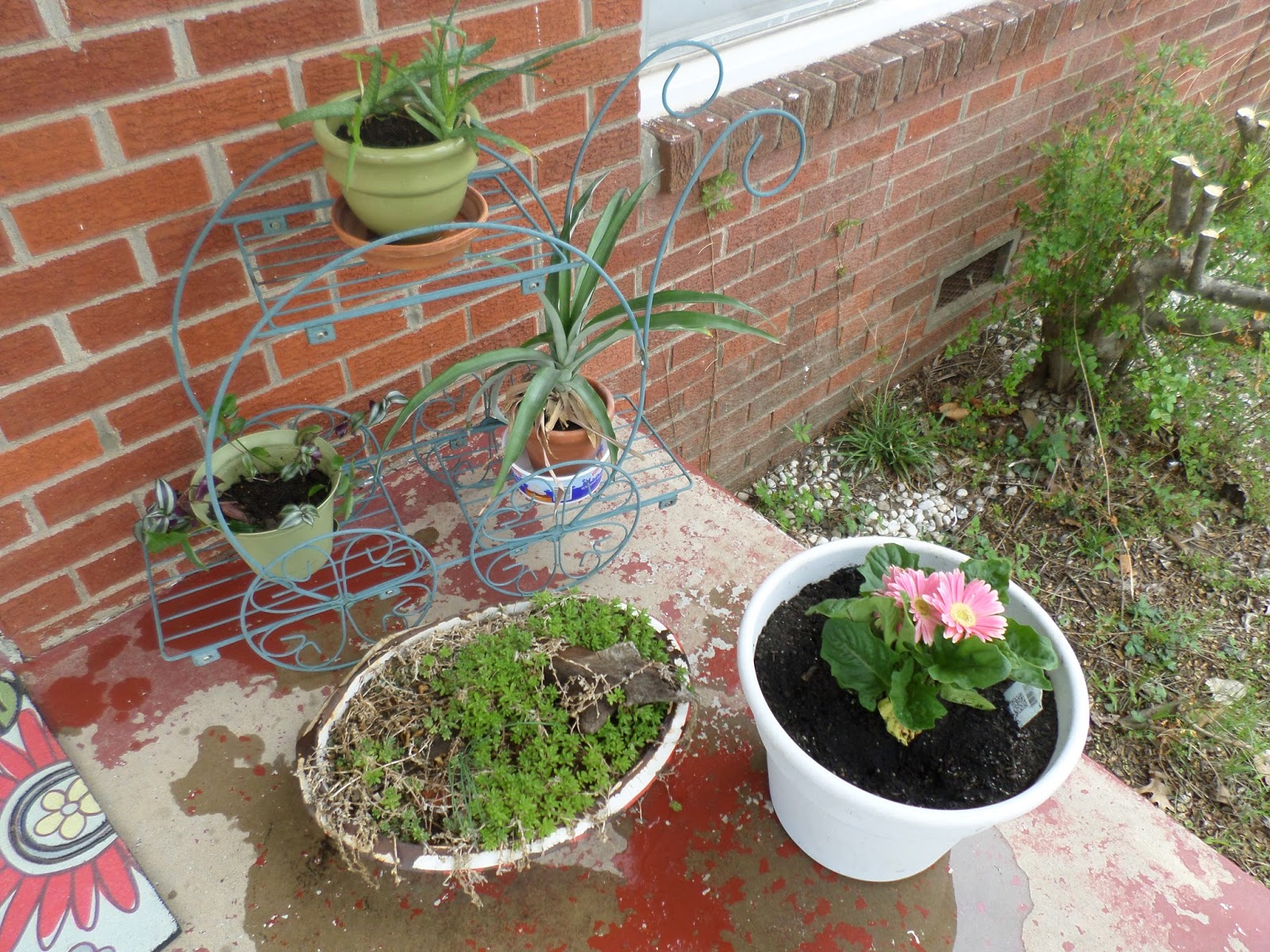

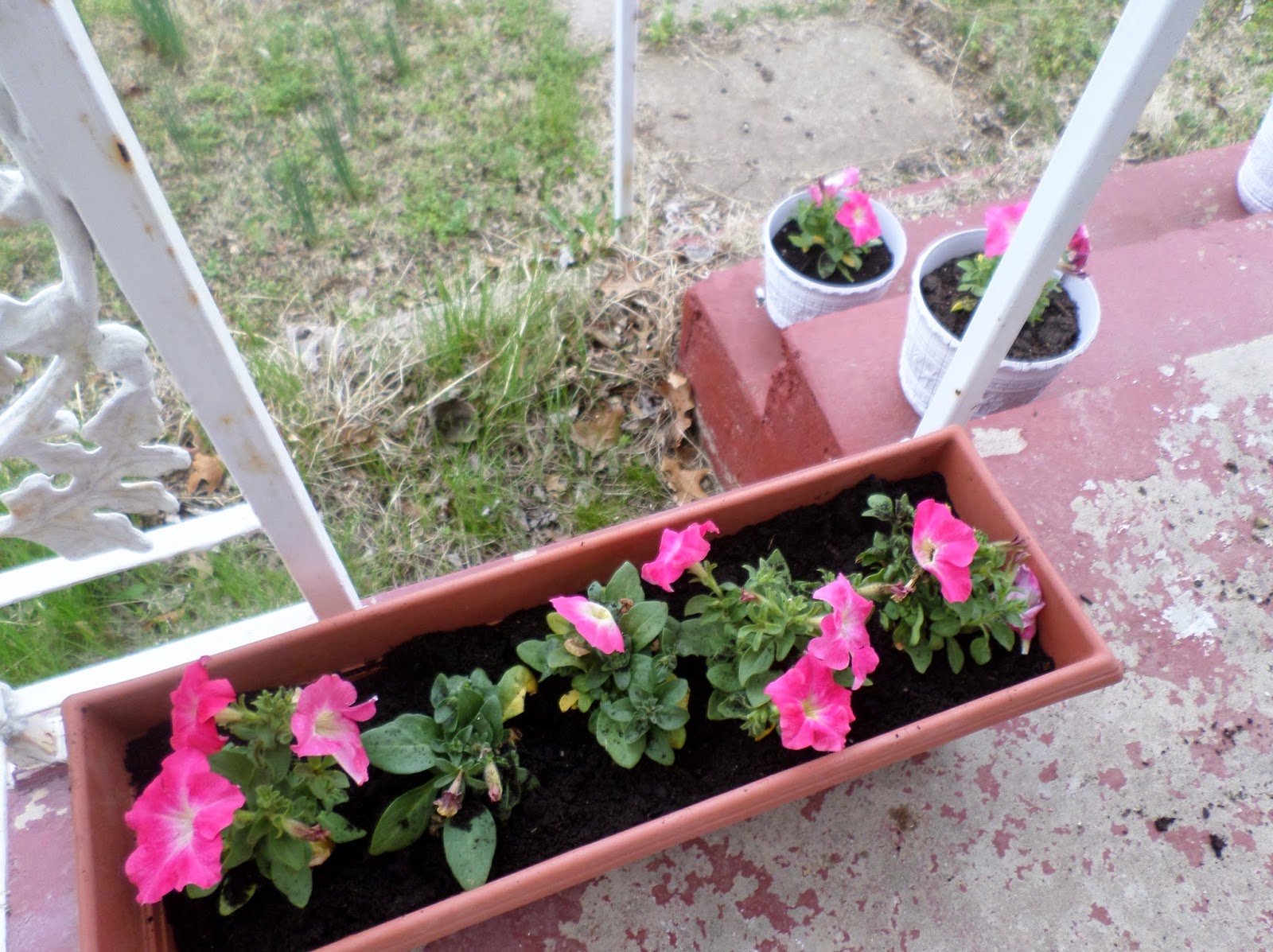


Happy Spring, y’all!
April 29, 2014 – Tidbits
This is going to be the most random post ever. This is a collection of all the things that have happened lately that aren’t quite enough for a blog post of their own. There will be no cohesive theme. You have been warned!

I finally beat 2048. Thanks for all your lovely advice. I finally found a strategy that worked for me. Pick a corner. And, make sure your highest tile stays in that corner. It’s a lot harder than it sounds. I’ve tried to beat it again to prove that my one win wasn’t a fluke. Yeah, that hasn’t happened yet. My sister said this doesn’t count as proof of winning because I didn’t screenshot the “You win!” screen. But, if you look closely, you can see my 2048 tile below the “Try again” button!
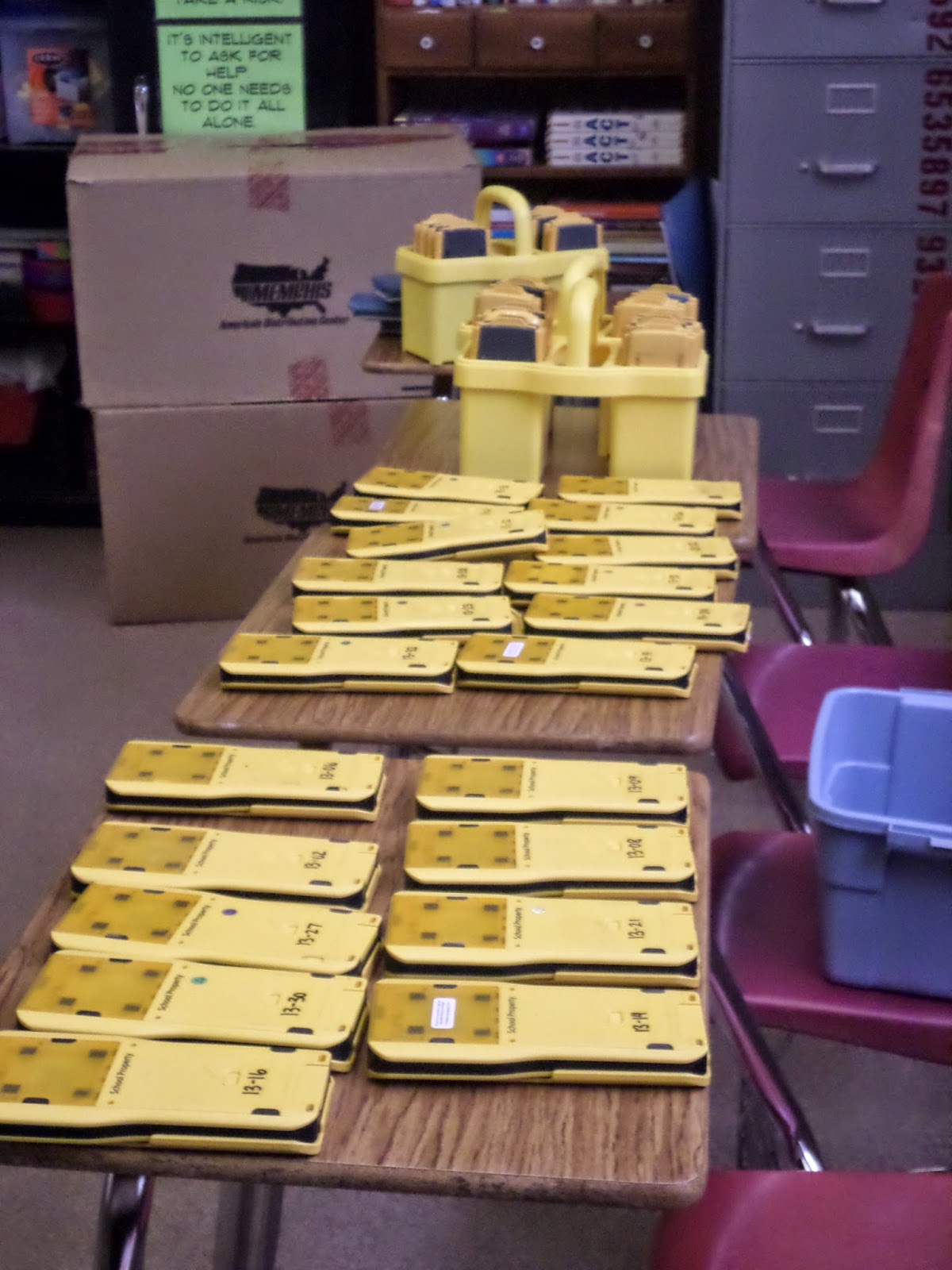
The Great Calculator Round-Up has begun. Keeping up with calculators is one of my least favorite parts of this job. I feel like I’m always changing batteries and checking them in and out and in and out. I guess I shouldn’t complain too much, though. I am blessed to have calculators.
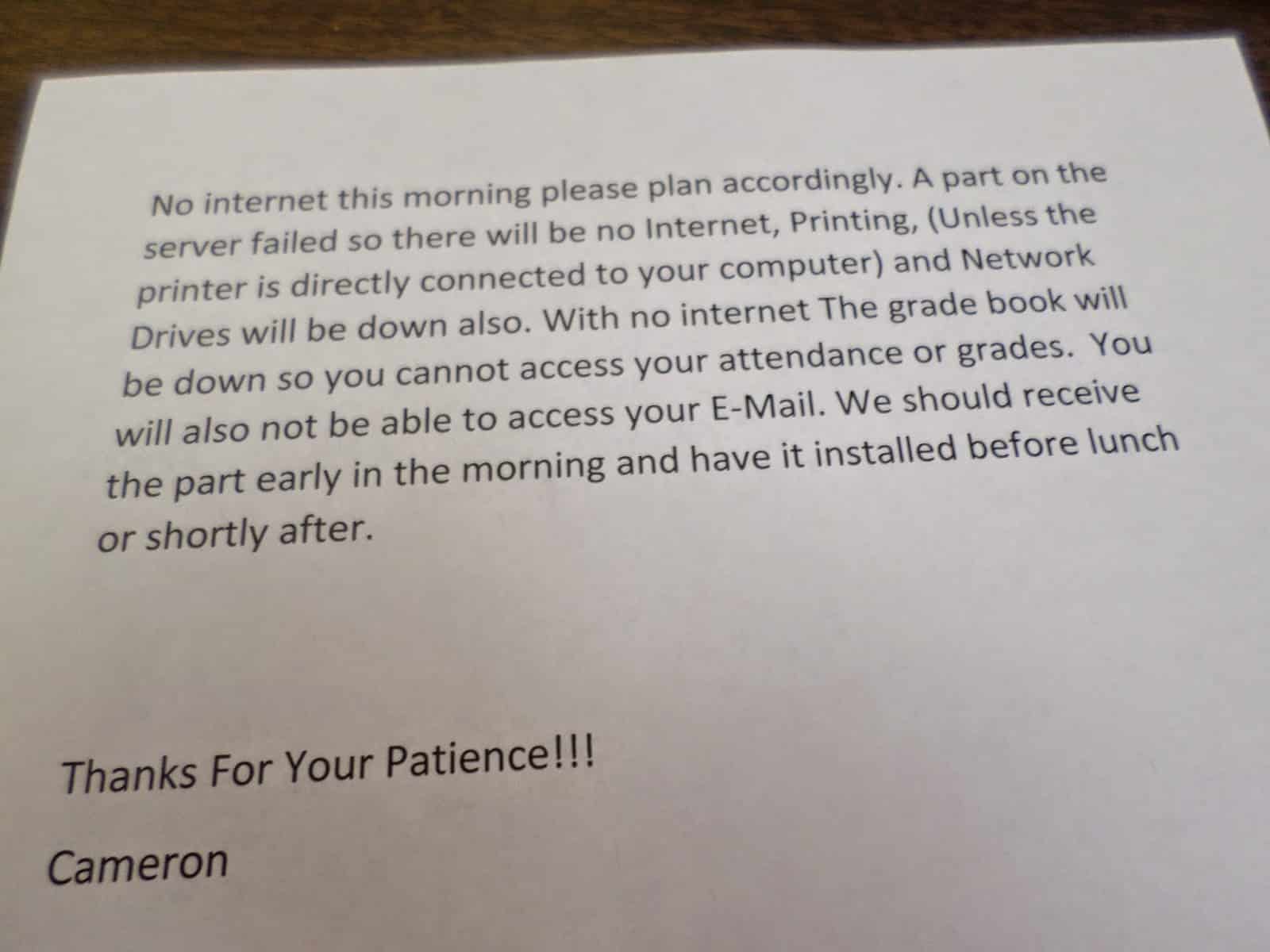
School without the Internet is chaos. After Spring Break, we returned to our classrooms to find this note. One morning without Internet. That’s doable. No e-mail. No printing. No gradebook. It’s inconvenient, but I can survive. Monday afternoon arrives, and still no Internet. It turns out the part is still sitting in Atlanta. Wednesday, the part is delivered. The server is fixed. Life is good once again. For days, we have reminisced about the things we used to be able to do. Thursday morning, something happens. We once again have no internet. And, it wasn’t restored until Friday afternoon. You don’t realize just how many of the things you do rely on the Internet. Thankfully, everything seems to have been working well of late!
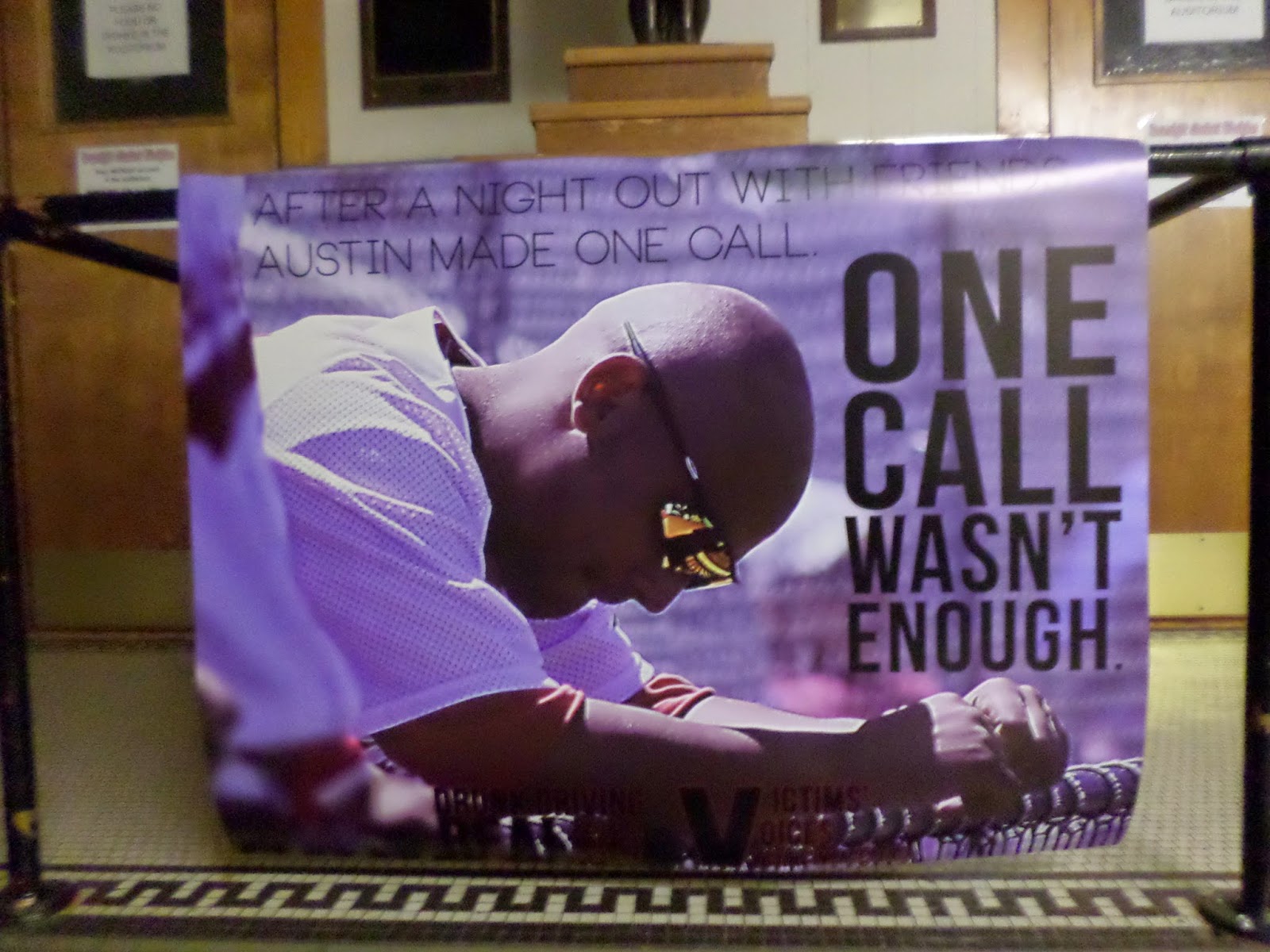
It’s April, and I’ve already cried my quota of tears for the entire year. A couple of weeks ago, we had a drunk driving assembly at school. It actually began outside the school. After first hour, there was an announcement that everybody needed to report to the northeast side of the school. Upon going outside, we noticed that there was a wrecked car in the road. Two of our seniors were in the car, made up to look like they were injured/dead. As the students form a group outside, sirens are heard. Multiple police cars come racing to the scene. Police officers get out and check the pulses of the students in the car. Not before long, we hear the honk of the fire truck as it comes racing to the scene. Soon, the firemen have the jaws of life out, and they begin their slow extrication of the students. One student leaves the car alive. He is taken aside by a police officer and tested to see if he has been driving under the influence. The other student is extricated from the car and confirmed dead.
I look up the road and see a hearse pulling up. When the people that organized this demonstration told the student volunteers about what was going to happen, they neglected to tell the student that she was going to be strapped down to a stretcher and placed in a hearse. Needless to say, she suddenly became VERY uncomfortable with the entire situation. As she told me later in class, “I rode in the same car that dead people ride in!” As she is wheeled into the hearse and it drives away, the other student is handcuffed and placed in a police car which also drives away.
Next, the wrecker service shows up to load up the wrecked car. After the car is hauled away, the entire student body reports to the auditorium for the remainder of the assembly. The assembly is put on by an organization called Victims’ Voices. The organization was started by one of our school board members. Shortly before graduating from college, her twin sister was killed by a drunk driver. She made a promise to never stop talking about her twin. And, she keeps this promise by speaking to groups of students, community members, and DUI offenders. Though I’ve known her for two years and taught her son last year, I quickly realized that I knew very little of her story. Another member of the panel that told her story was also from the Drumright area. Because students were very familiar with 2 of the 3 speakers, it made the assembly extremely emotional.
I have a tendency to cry a lot. I cry when I read books. I cry when I watch movies. And, I cry when we have sad assemblies. I hope our students take the message of the assembly to heart and make wise decisions.
One of my main takeaways from the assembly was a quote that said something along the lines of: “We aren’t born winners or losers. We are born choosers. Every choice we make has good and bad consequences.’ I need to make a poster that says this to hang on my wall for next year!
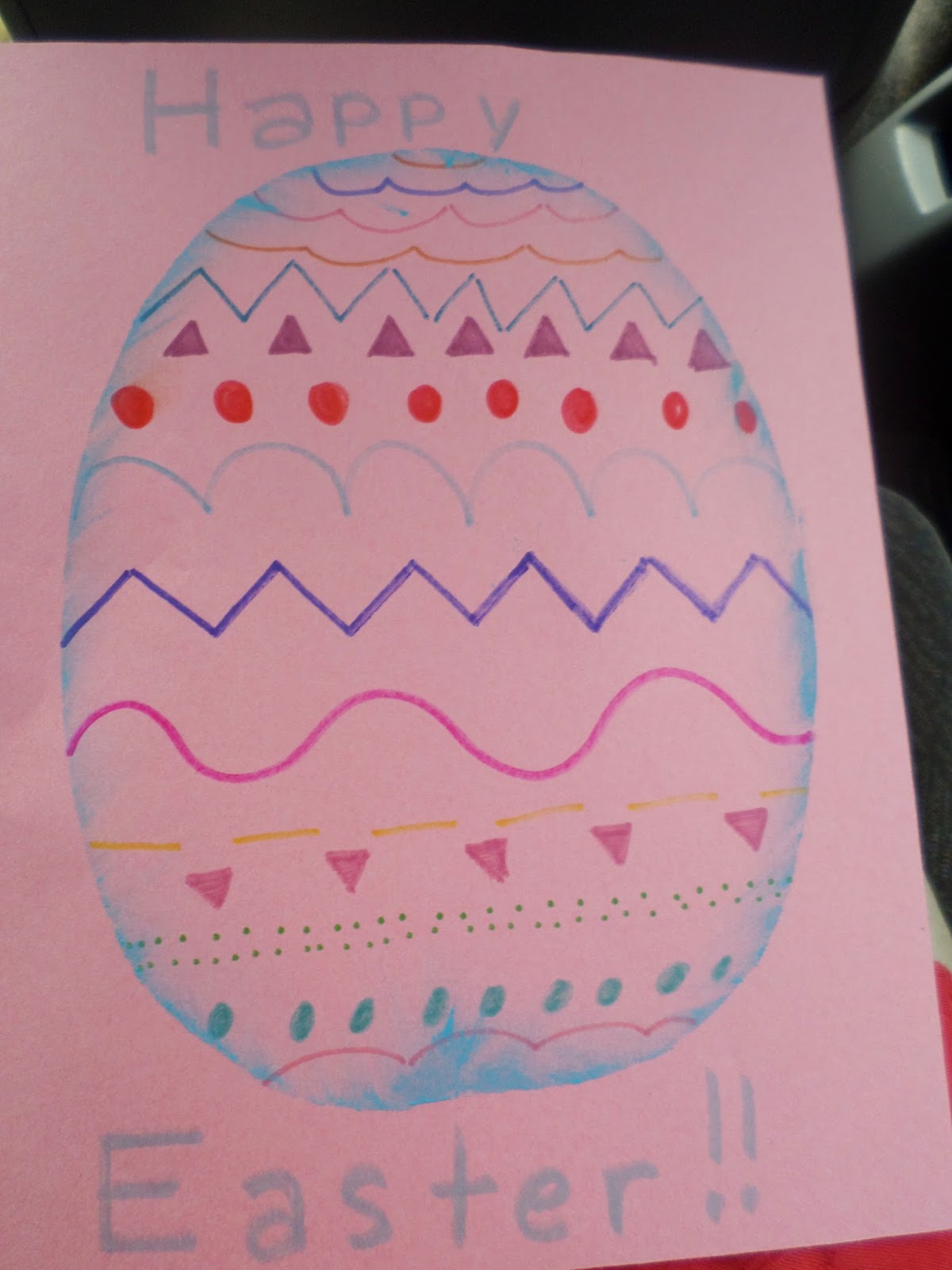
I hope you all had a happy Easter! My sister drew this Easter egg for me at church on Sunday. 🙂

My classroom is turning into a zoo. We do “Good Things” on Mondays. To spice things up, I added a clip-art camel to the slide. Students protested that I wasn’t allowed to include a camel because it wasn’t Hump Day (Wednesday).
While practicing drawing ellipses, one of my students noted that the ordered pair (0, 0) looks like an owl. I put my amazing(ly bad) artistic skills to good use and drew an owl, using the ordered pair as eyes. I’m actually pretty proud of this owl!
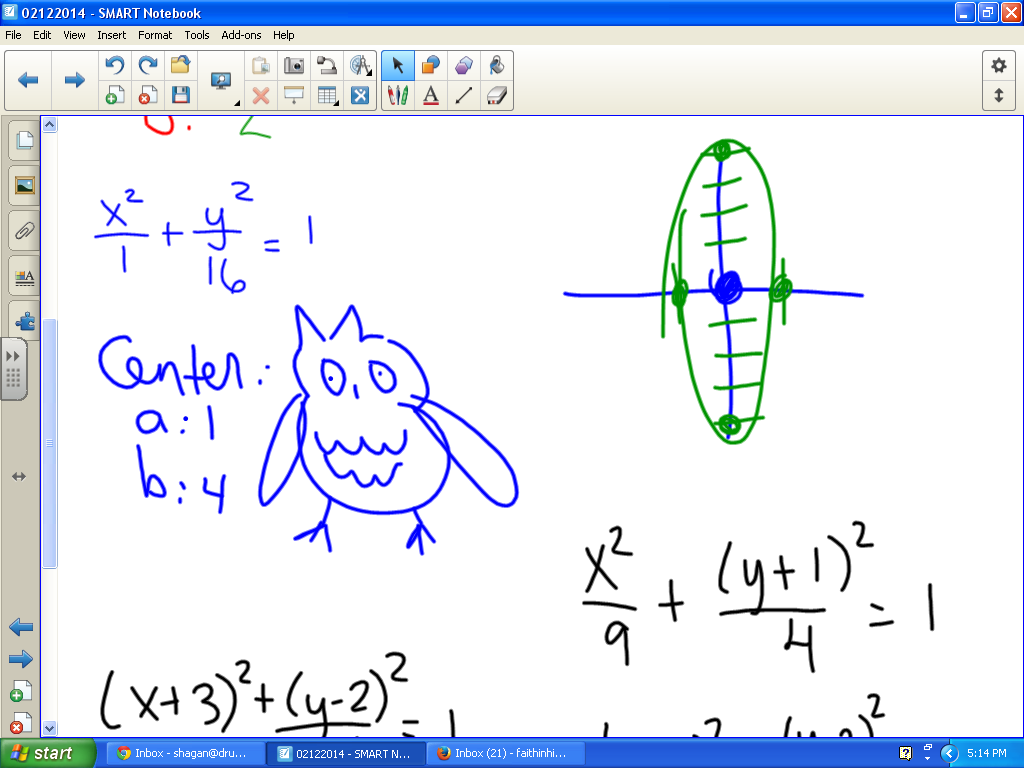
These basketball homecoming decorations made me smile. Tornadoes can be cute. Very cute!
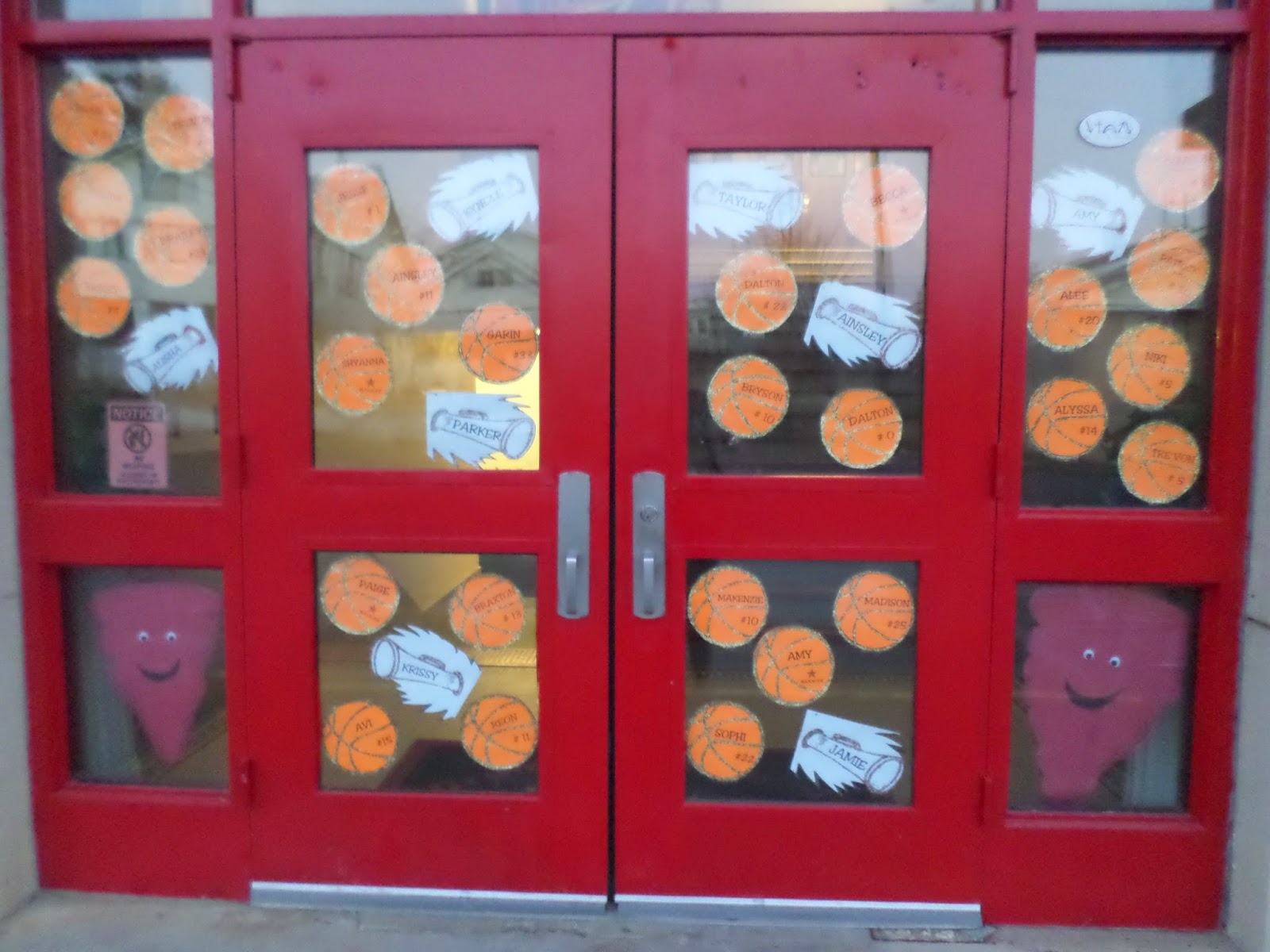
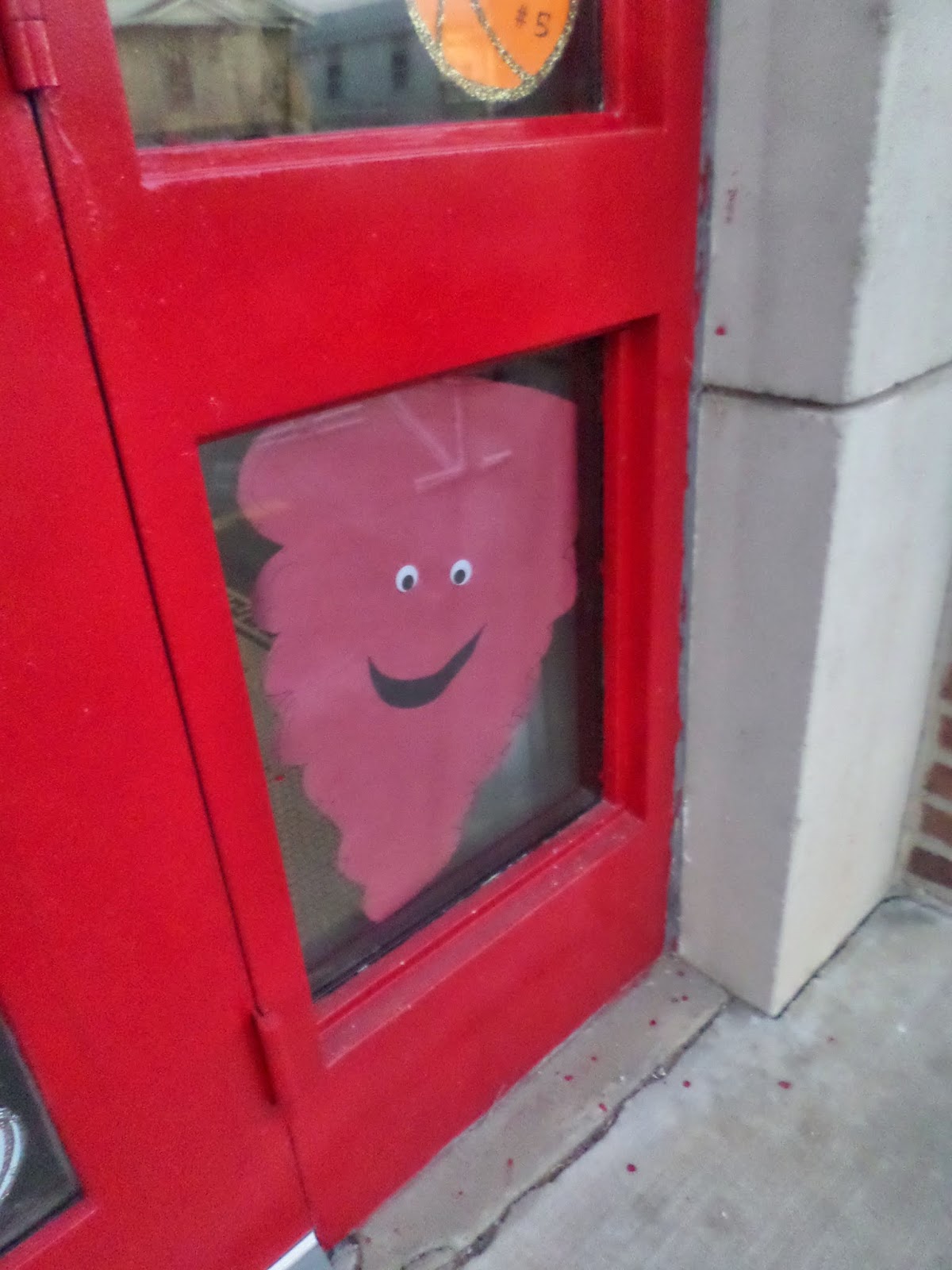
I may have a slight addiction to stickers. I’ve got a 3-inch thick file folder of them. But, you can never have enough stickers, right?
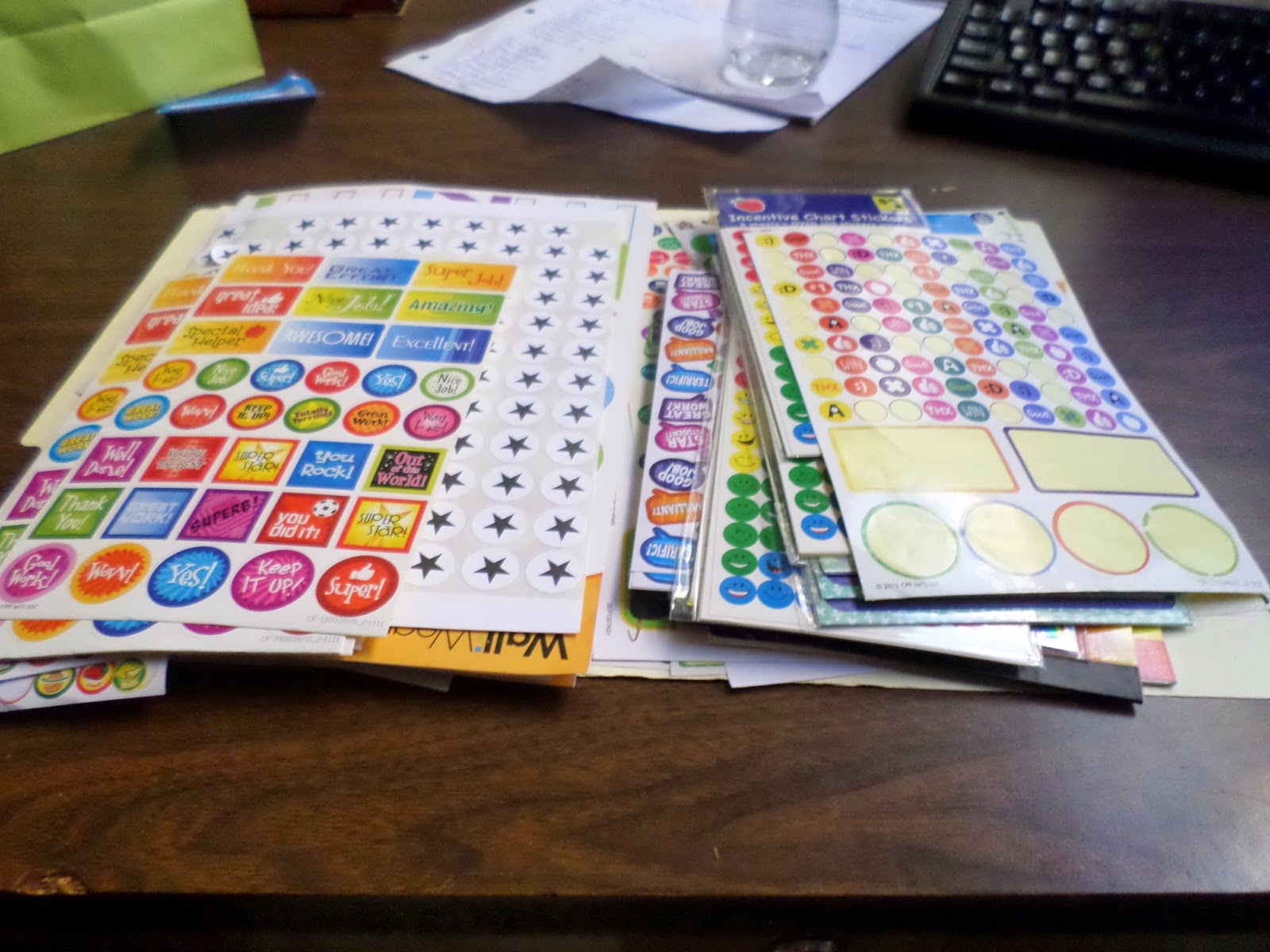
April is Math Awareness Month. I got this free poster in the mail, but I haven’t really done anything with my students to celebrate. At my school, April is standardized testing month. I’d have much rather spent this month focusing on mathematics, magic, and mystery!
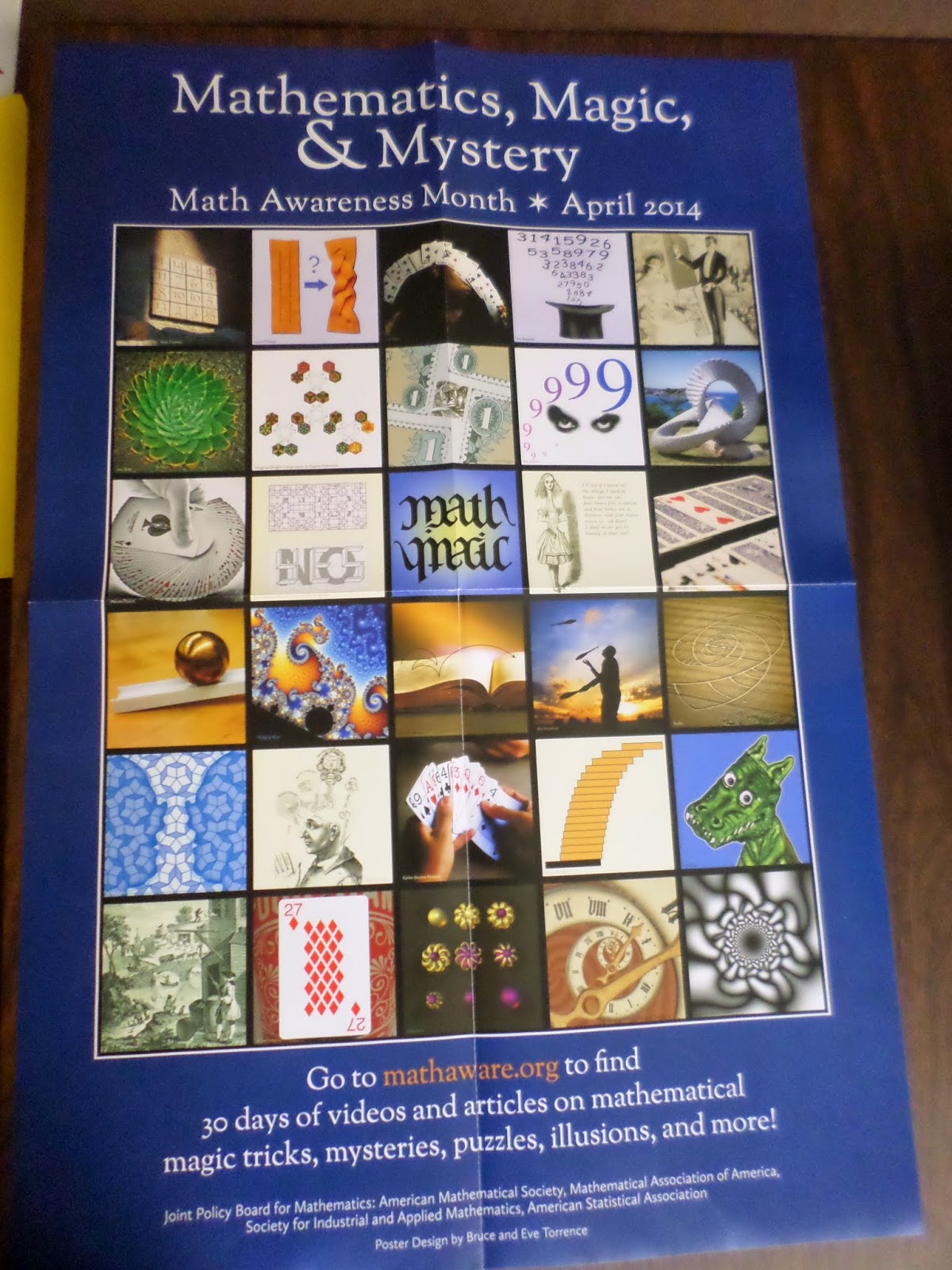
I’m especially intrigued by this fancy piece of felt. This is going on my summer to do list!
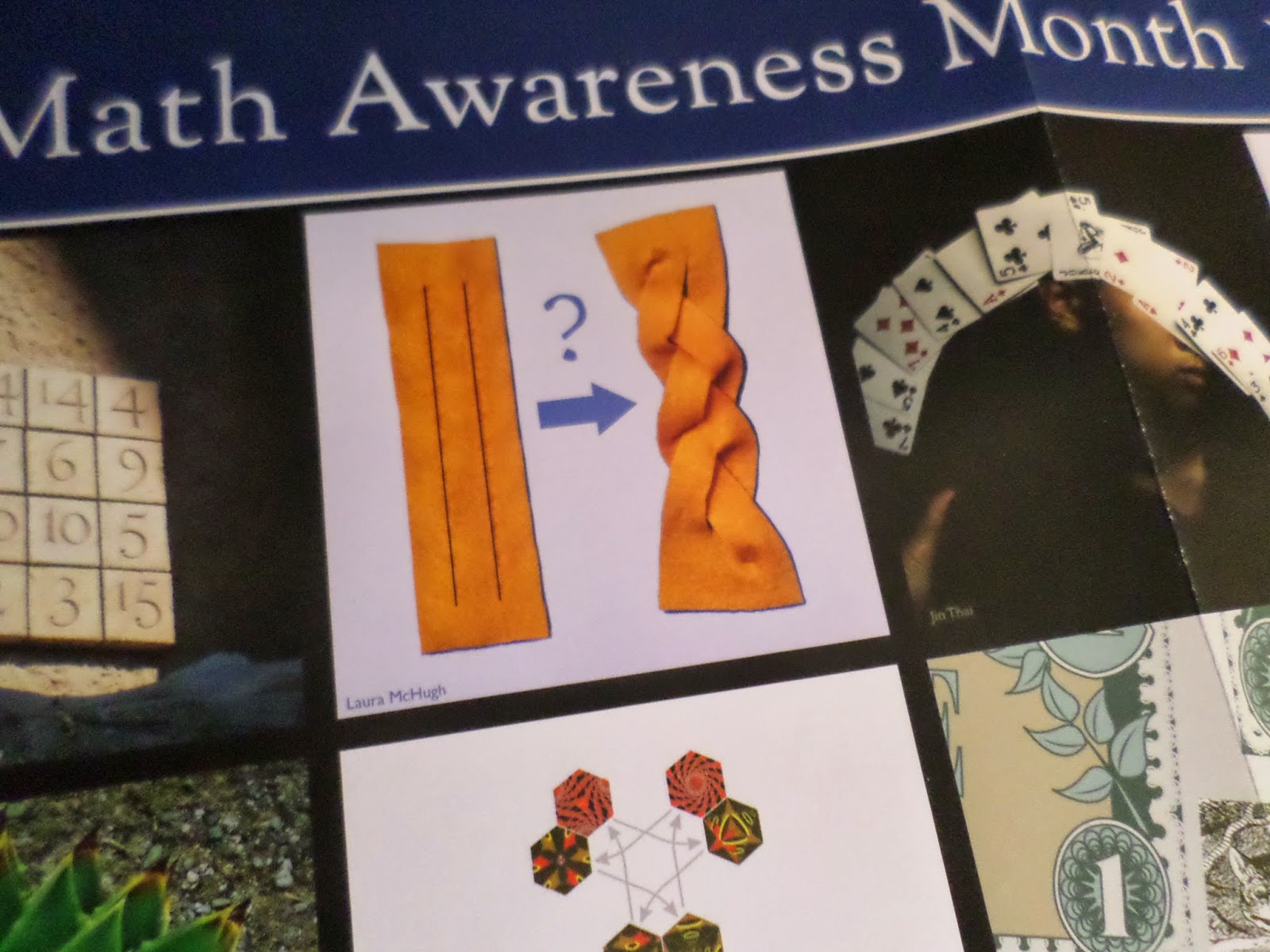
Student Council’s Blood Drive was a success. I learned a lot this year. And, I know next year’s blood drive will be even better.
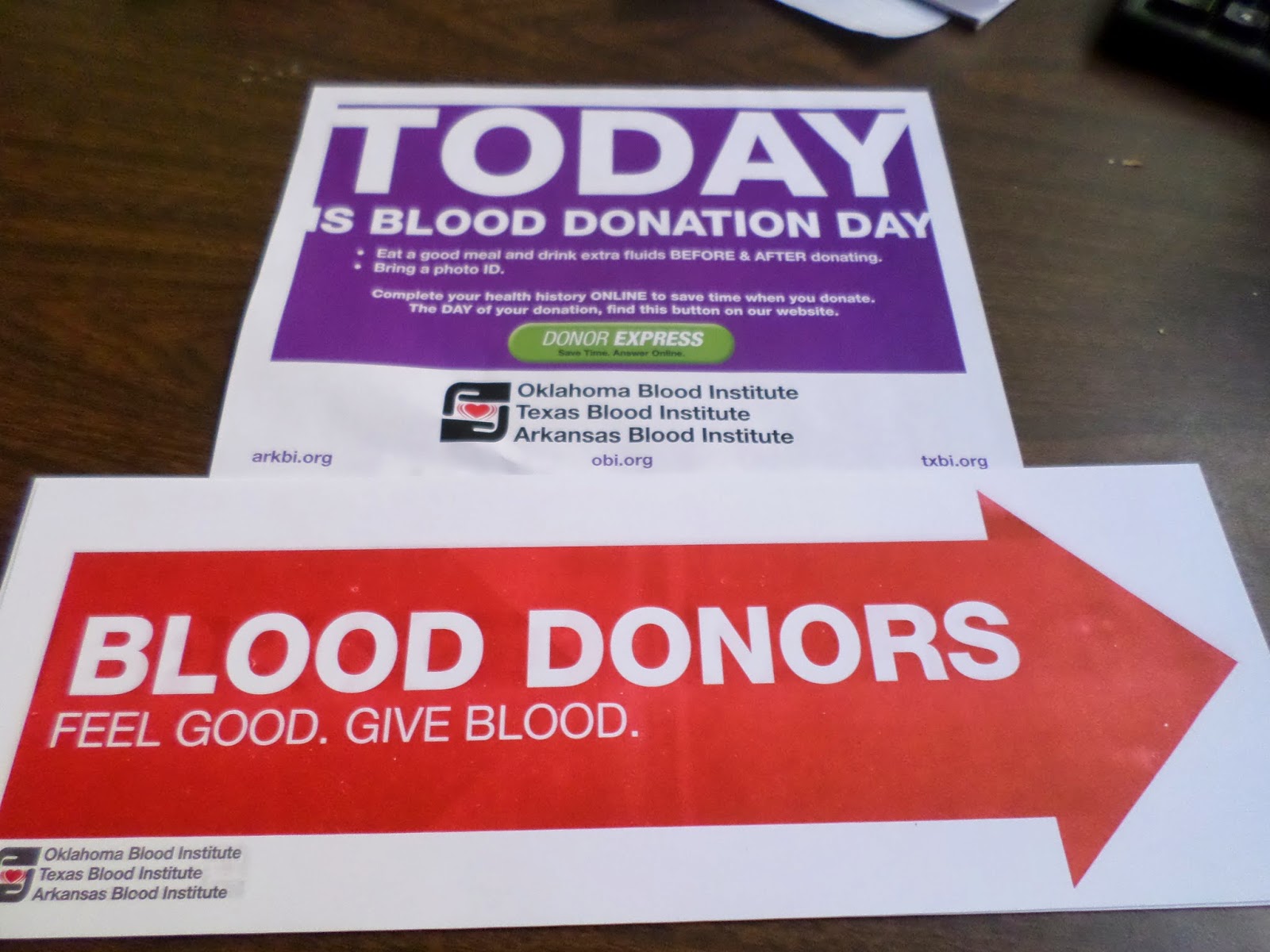
I was told by a coworker that I have the handwriting of an elementary school teacher. Hmmm…
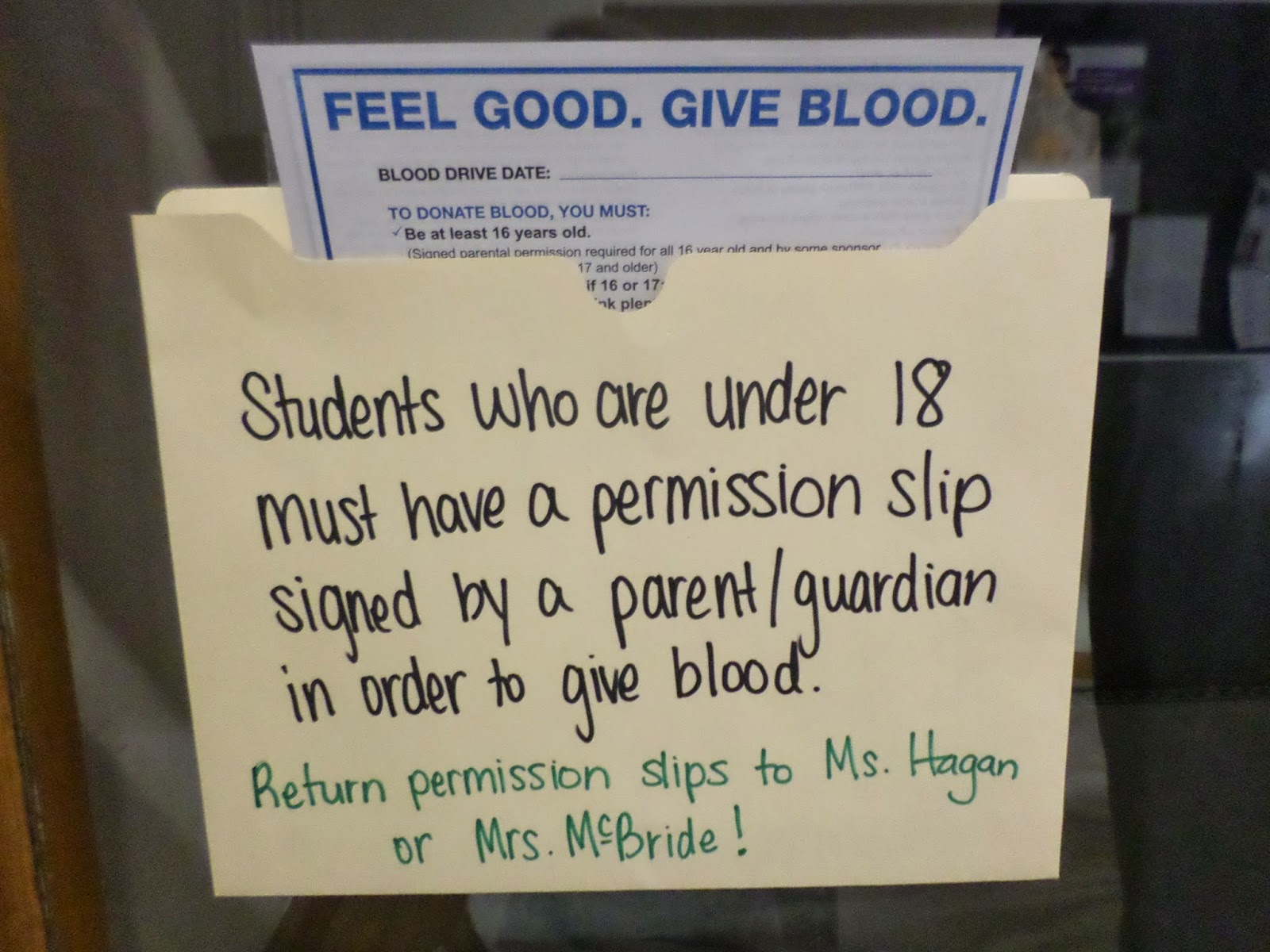
A couple of months ago, I got the chance to play detective. One of my students noticed a pill laying on the floor during class. I immediately went into teacher/detective mode and confiscated the pill. It sat on my monitor until the end of the day. Sure that I was about to uncover a drug distribution ring that would make the town’s weekly newspaper, I entered the code from the pill into the computer to identify what type of drug it was. I was very disappointed to find out that it was only Midol…
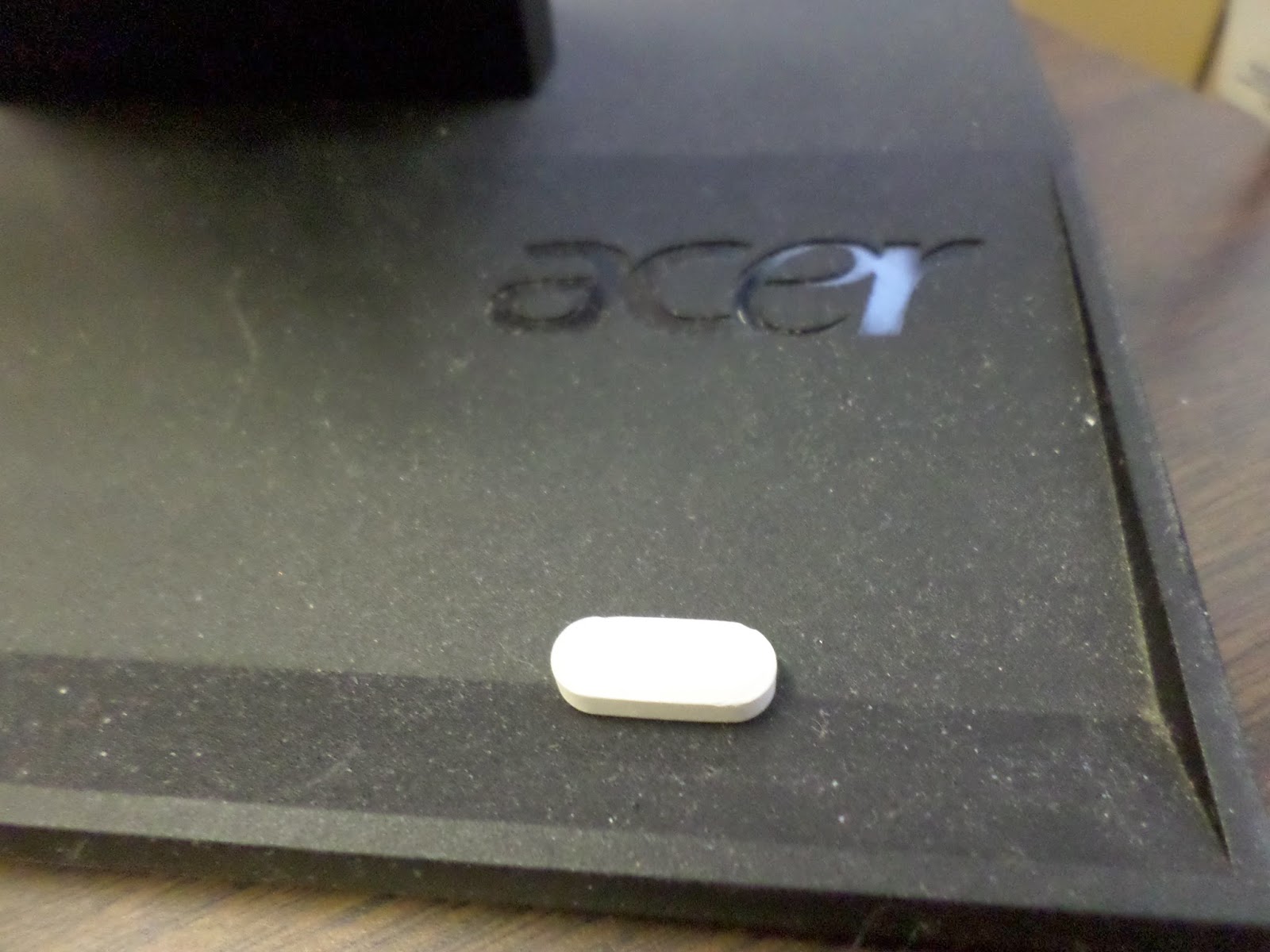
Hats On Day was less of a success. We made less than $20. Depressing…
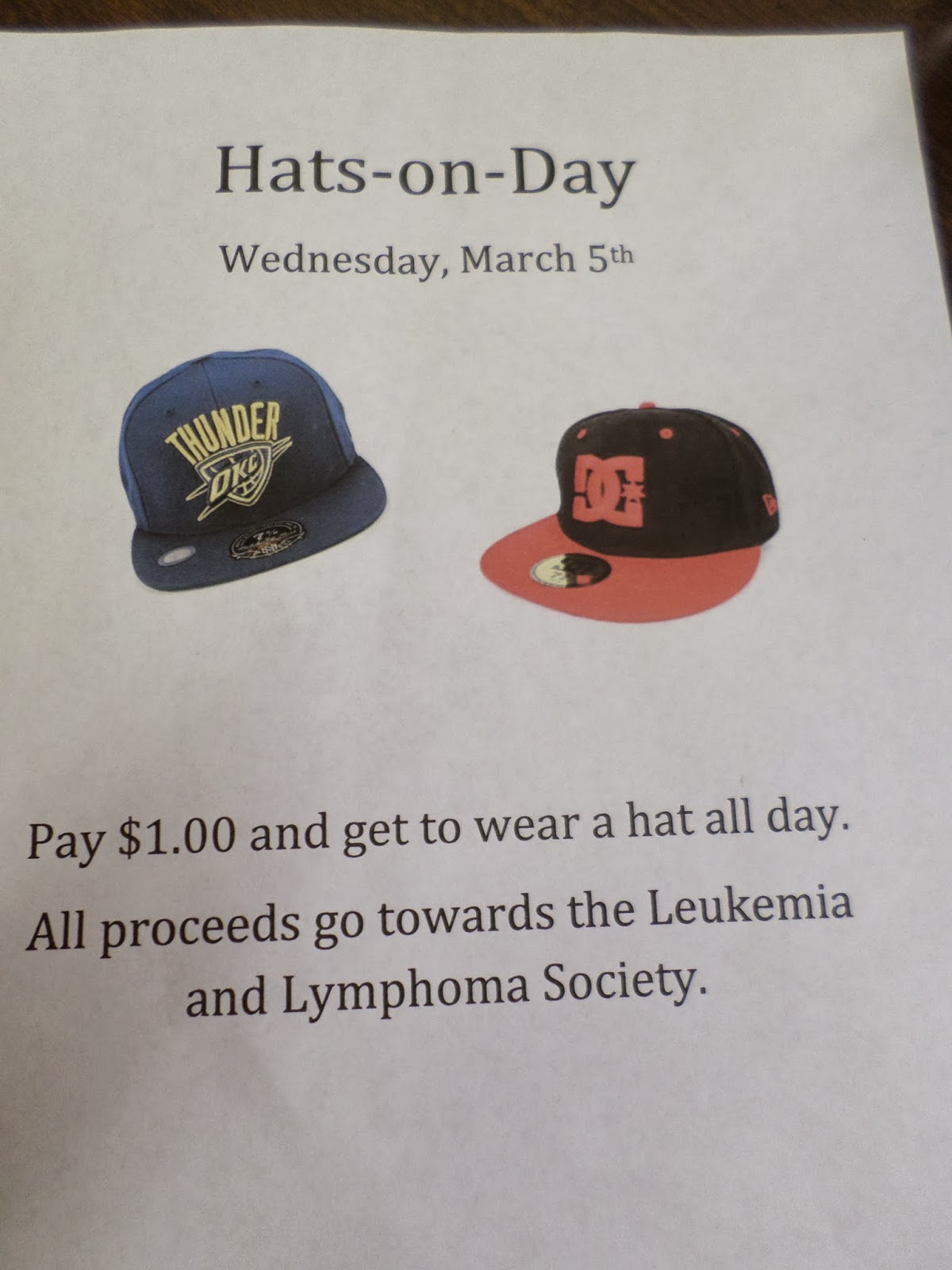
Okay, I think that’s enough randomness for today. If you made it to the bottom of this post, I’m impressed!
April 30, 2014 – Things Teenagers Say Volume 11
Join me today for Volume 11 of Things Teenagers Say. This is my regular round-up of the crazy and memorable things I hear my students say in class.

It’s hard to believe that I’ve already made it to Volume 11 of Things Teenagers Say! I love teaching teenagers because you never know what they are going to say. Sure, they can be silly. And, sometimes inappropriate. But, they can also be thoughtful and profound.
—
Student: Do you know what Victoria Secret is?
Me: Yes, it’s a lingerie store.
Student: No, it’s not. They sell underwear, too!
Me: Ummm… That’s what lingerie is.
—
Do you know what’s sad, Ms. Hagan? You have more friends than I do. There’s always people in your room before school and at lunch!
—
Me: Class, it is never appropriate to get out of your seat during a lesson, pick up a desk, and threaten to throw it at a student.
Student: But, he was calling me names!
—
Student: Have you ever seen Madea Goes to Jail?
Me: No, I’ve never seen any of the Madea movies.
Student: Then, have you seen Madea’s Family Reunion?
Me: No.
Student: What about A Madea Christmas?
Me: Nope. I haven’t seen that one either.
Student: When I get older and it’s more appropriate, I’m going to take you to a Madea movie!
—
Student: You have a facebook account?!?!?
Me: Yeah. Is that so hard to believe?
Student: Yes.
Me: You do realize that I was a college student less than two years ago. Most college students have a facebook account.
Student: Well, we forget how young you actually are because you’re just an old soul.
—
I overheard this conversation while two students were walking into my classroom…
Student 1: Is this yours? Do you want it back?
Student 2: It’s not mine. I don’t want it!
Me: (jokingly) It’s mine. I’ll take it back.
Student 1: Okay. It’s yours.
The next thing I know, a tampon comes whizzing across the room and lands in my lap. Thankfully, it was new and unopened. But, I learned a lesson that day. Never joke about something being yours unless you know what it is! The male student who threw it at me did come and retrieve it. He took it back out in the hall to give it to somebody else. I don’t even want to know…
—
Student: Did you bring a pistol to school today?
Me: No! Why would you ever think that I would do something like that ?!?
Student: Well, yesterday was National Tortilla Chip Day.
Me: And???
Student: And, you had tortilla chips behind your desk. Today is Pistol Patent Day. So, I thought that you might have brought a pistol with you today.
Me: No…
—
Student: Is it okay if I tell you something?
Me: Sure!
Student: What if it makes you mad? Do you still want me to tell it to you?
Me: Why not?
Student: Okay, don’t be mad at me for saying this, but you’ve been a lot meaner since we came back from Christmas Break!
—
Me: Does anybody else have a good thing to share from this weekend?
Student: I made $60 from stripping… …wire.
—
How did this get here?
Said after a student randomly pulled a milk bone out of his backpack while looking for his homework…
—
After dropping my SMART Board marker for the second time in one class period:
Student: Did you eat popcorn for lunch?
Me: No, why would you think that?
Student: Well, you’ve got butter fingers. And, you usually get those from eating popcorn.
—
Students are examining equations to determine if they are parallel, perpendicular, or intersecting but not perpendicular.
Student: I’m in a pickle here!
Me: Yes, you’re right! Those lines are perpendicular because their slopes are opposite reciprocals.
Student: Wait. I never answered.
Me: Yes, you did. You said they were perpendicular!
Student: No, I said, “I’m in a pickle here.”
Me: Oops…
In my defense, I’m in a pickle here sounds a lot like perpendicular!
—
Me: Who can give me an example of parallel lines that you might encounter in real life?
Student: Crack lines are often parallel.
Me: Yes, that wasn’t exactly what I was going for. I was thinking something more along the lines of train tracks.
—
Do you want to see a picture of my wisdom teeth?
I’ve never seen a student carry around an x-ray of their teeth in the front pocket of their binder before…
—
Watch your mouth! I’m Catholic!
—
Student: If it wasn’t for bananas, we would be dead.
Me: Why?
Student: Monkeys would go crazy without bananas, and then they would kill us.
—
Me: I was feeling nice, so I typed out all the steps for you.
Student: You need to feel nice more often!
May 6, 2014 – SBG Score Tracking Sheets in INB
This year was my first foray into Standards Based Grading (SBG). I did this only with my Algebra 2 students. We began SBG in Unit 4. And, I required them to track their scores on each learning goal for Units 4-6. Units 7-8 were rushed due to impending state testing, and I didn’t do as good of a job with them as I should have.
For Unit 4 and 5, I required students to write out the learning goals for themselves. For Unit 6, I typed out the learning goals for them, and they only had to fill in their scores.
When I made the transition in January to 0 or 100 grading on the INBs, it was partially out of my frustration of students not keeping track of their scores as they should. When I only knocked 10 points off their grade for not filling out the sheet, most students didn’t fill out the sheet. When I gave them a 0 for their notebook grade until the sheet was filled out, students actually started keeping up with their scores!
There is a story and a student behind each and every one of these score tracking sheets. I’m not sure if these will be of interest to anybody but myself, but I present to you a sampling of SBG tracking sheets.
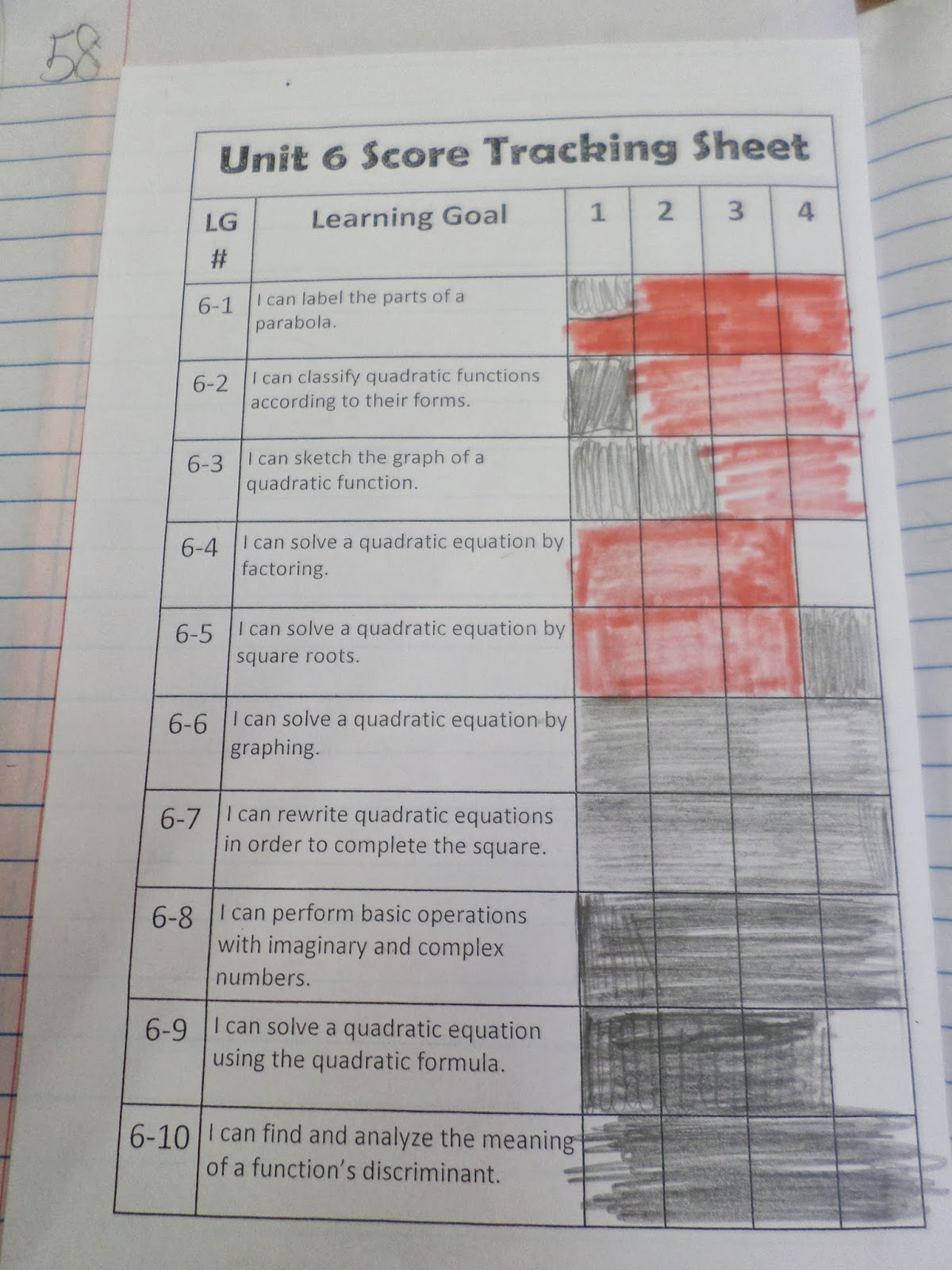
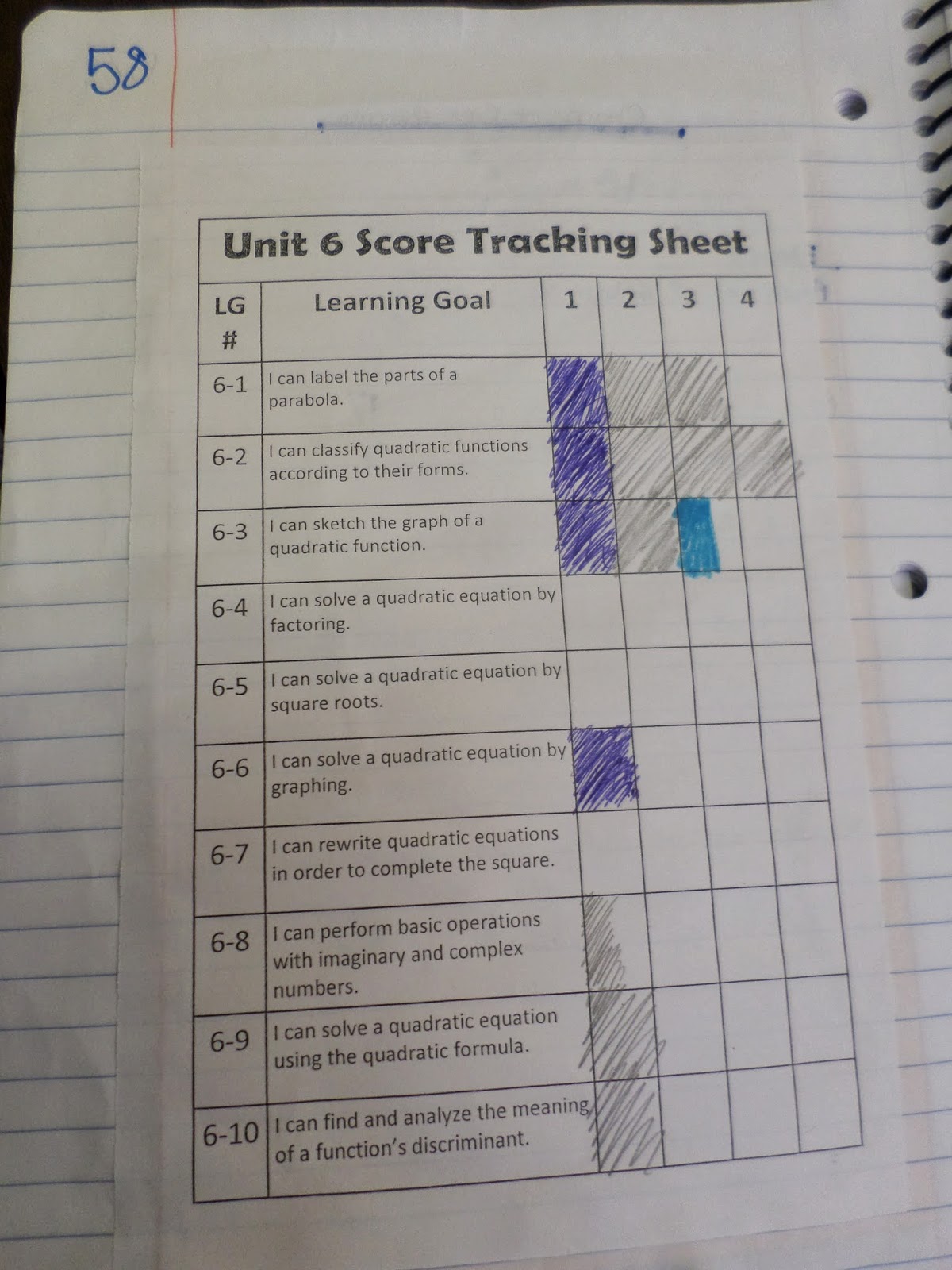
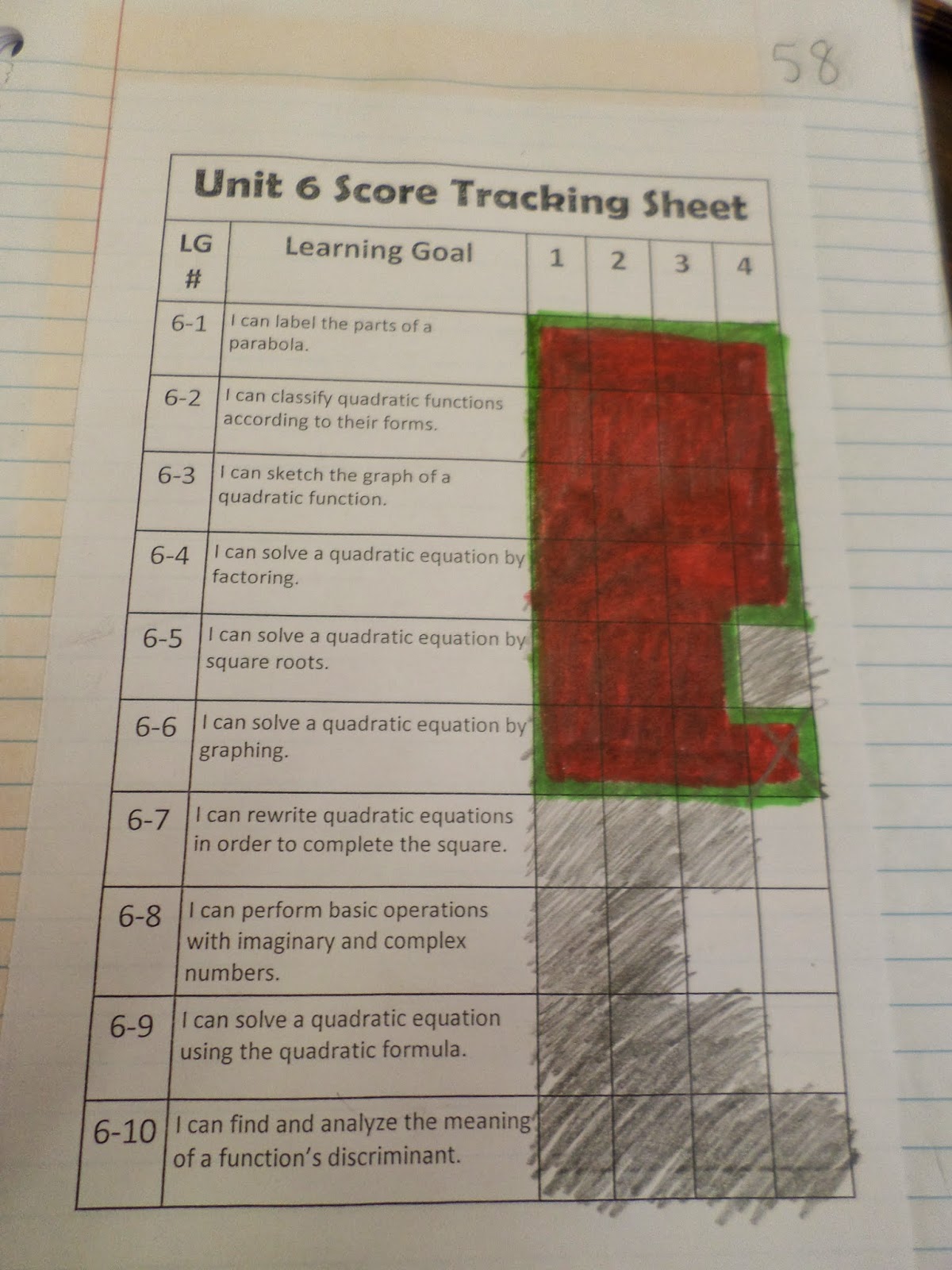
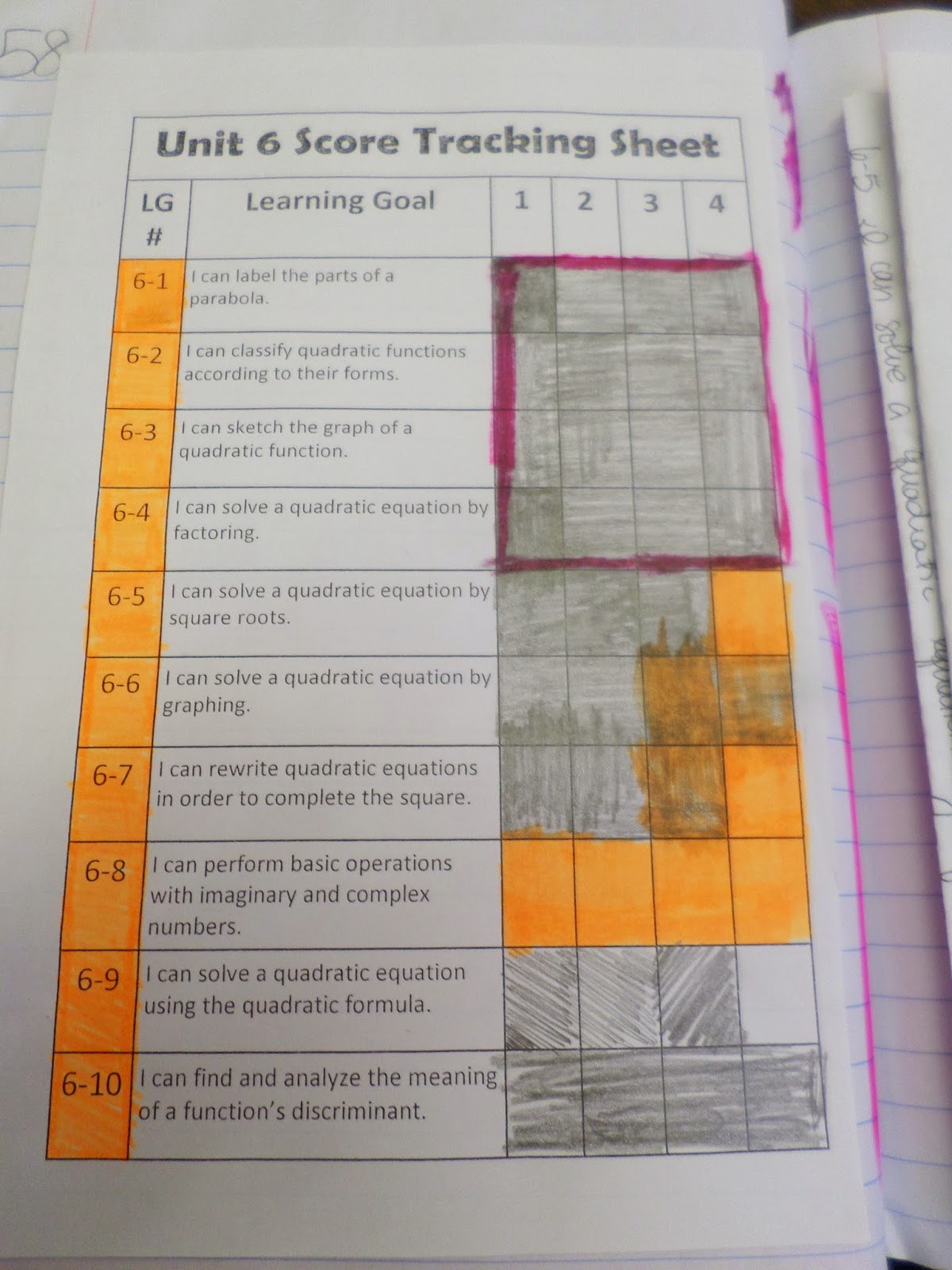
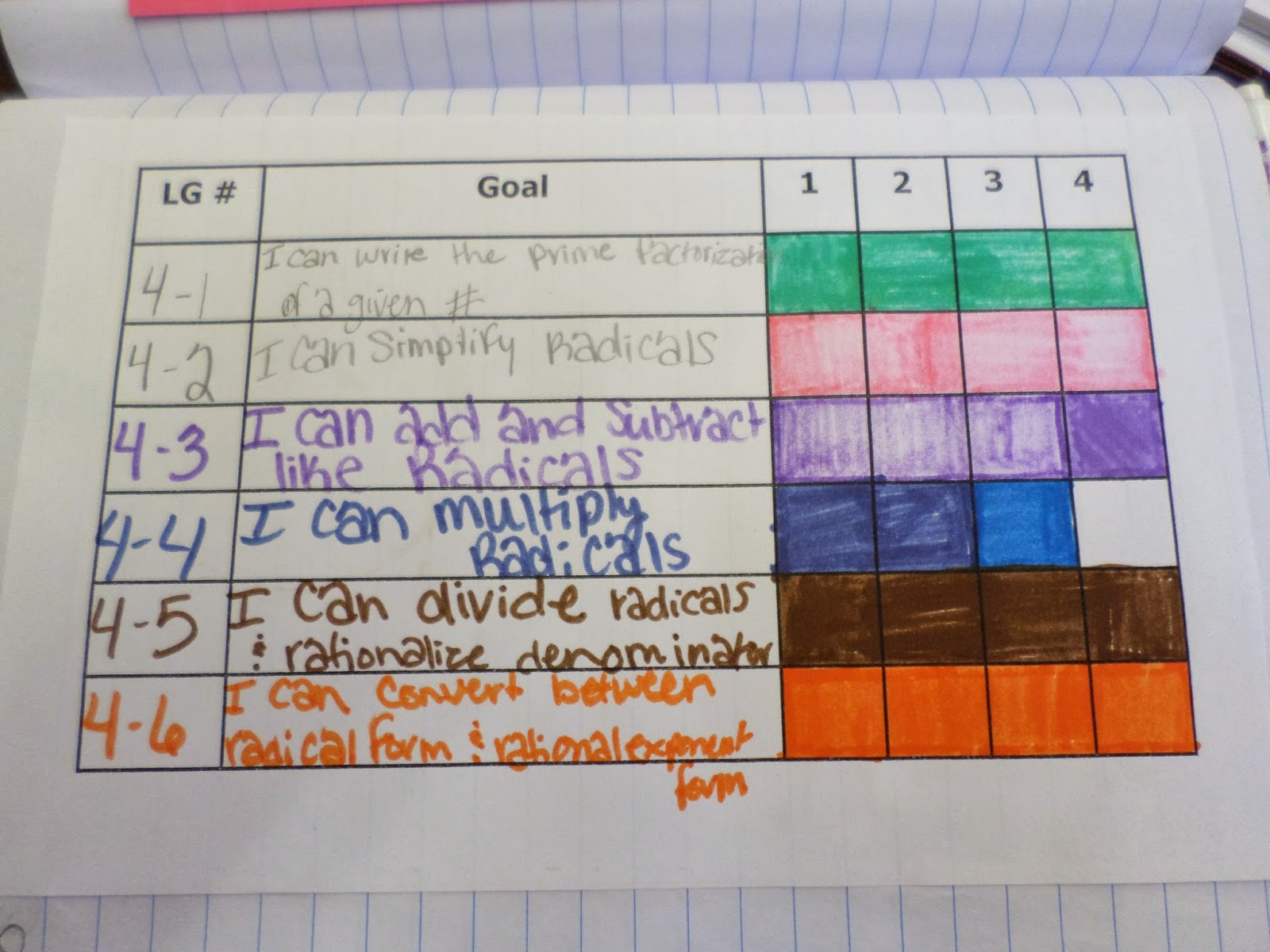
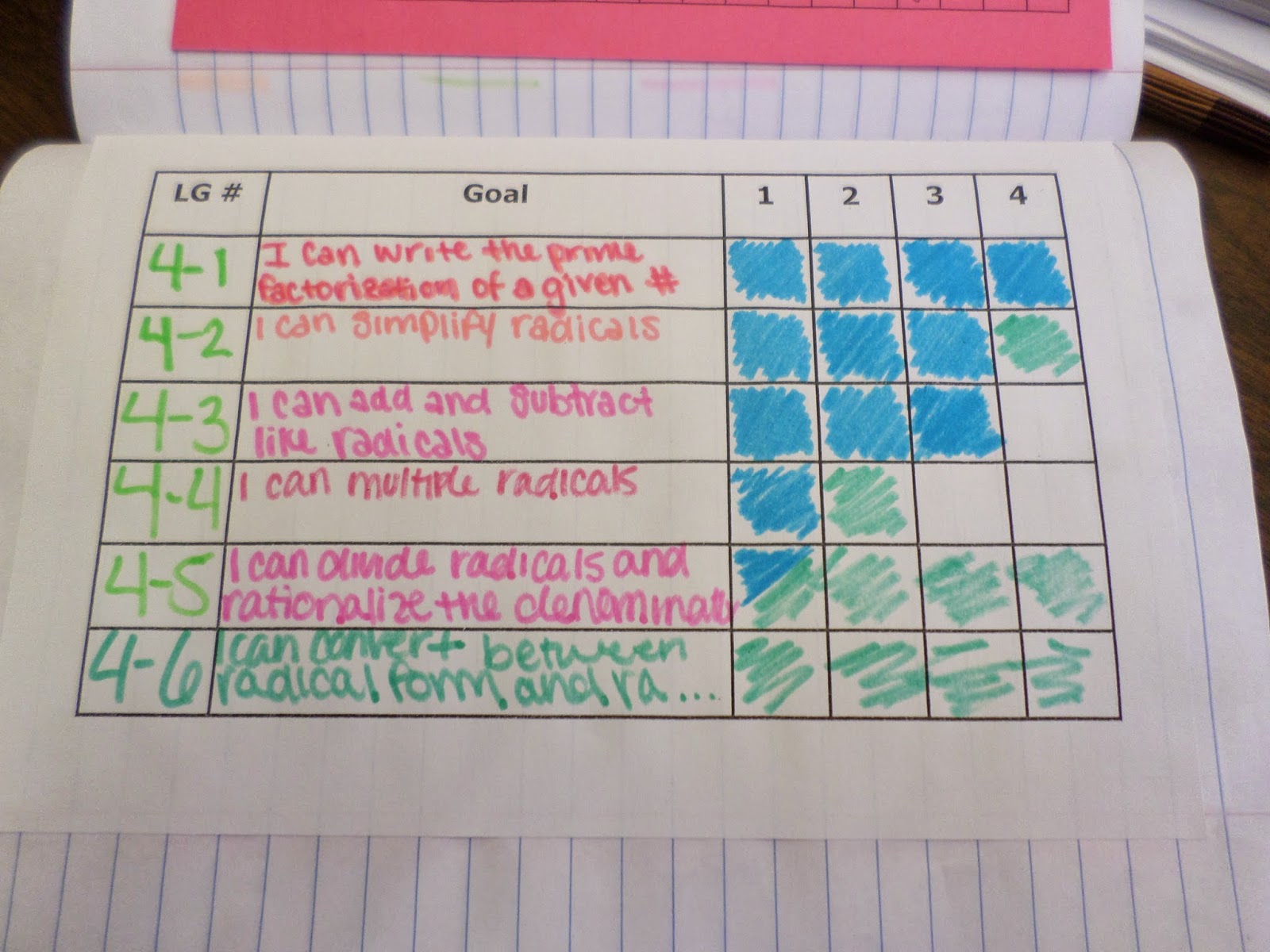
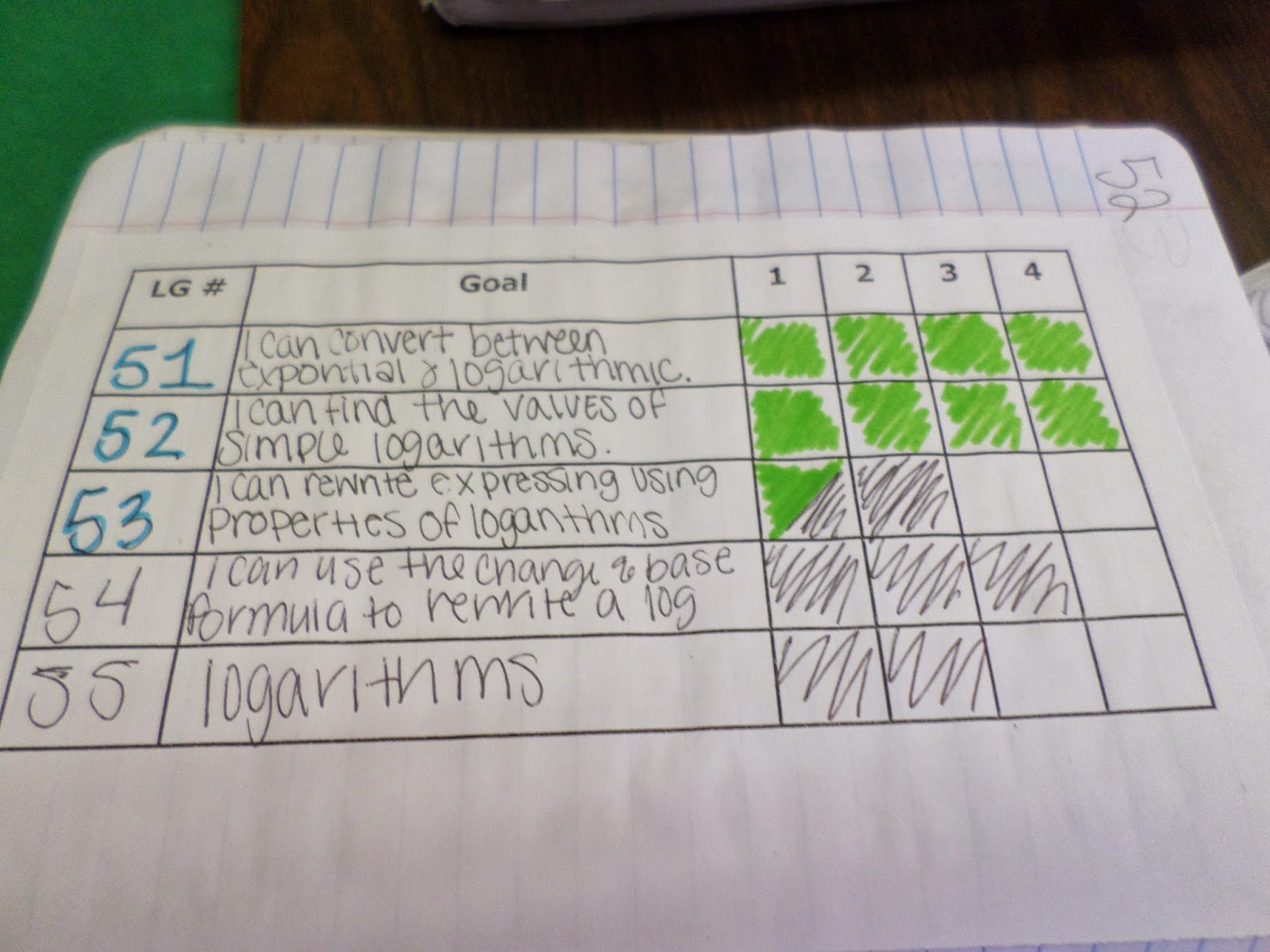
May 8, 2014 – April 2014 Reads
It seems like I just reviewed the books I read back in March. Oh wait. I did. April and the craziness of testing and the absence of Spring Break left me with much less time to consume literature. I somehow still managed to read 10 books during the month to bring my total of books read during 2014 to 47.
Back in January, I emptied off a shelf on a bookshelf to house the books I read this year. That shelf is no longer empty! It’s not too full either. That’s what I get for utilizing my public library. Here are the books I have read this year that I own copies of.
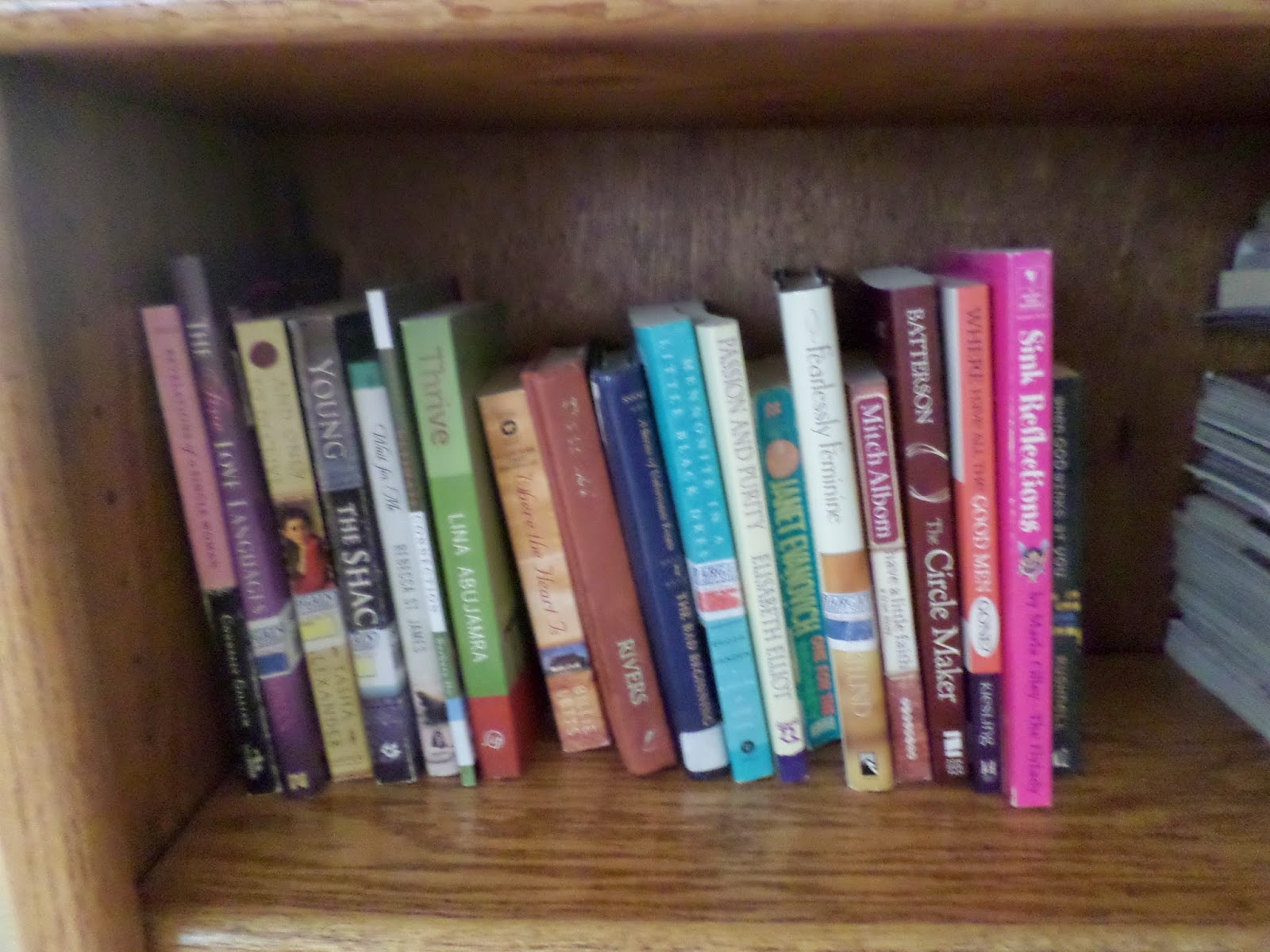
Technically, I shouldn’t even need to visit the library. I have plenty of my own books to read. I currently have three bookshelves at my house, one rather large bookshelf at my parents’ house, and a bookshelf in my classroom. Yes, I may have a slight addiction to books. My family has joked about this obsession of mine since I was a kid. My dad has always said that when I move, I’m going to need an entire U-Haul trailer just to carry my books. And, my mom has advised that I marry a carpenter so that he can build me bookshelves.
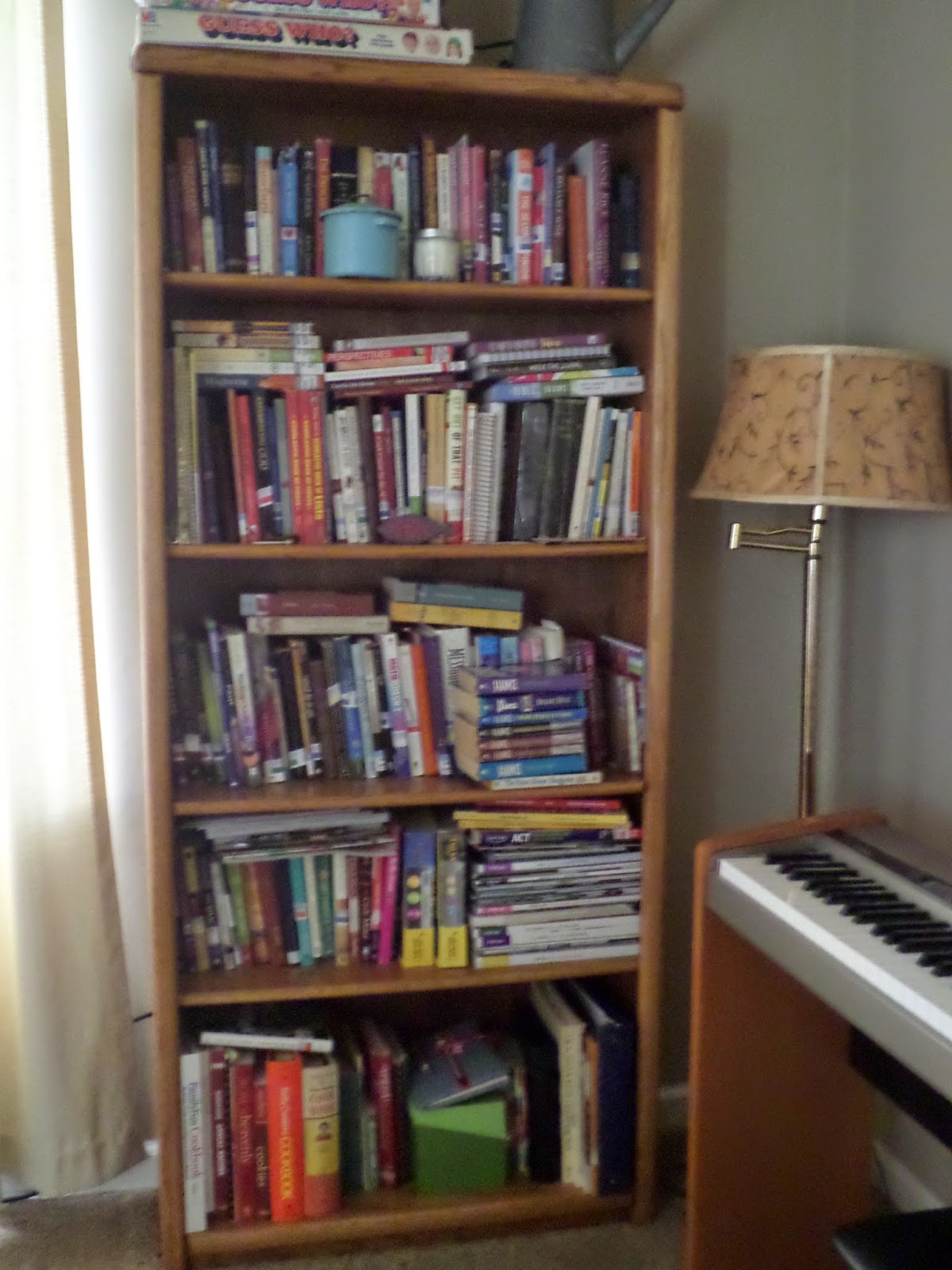
Lock and Key by Sarah Dessen
I started off the month by picking up a young adult novel at the library. One of my students recommended this author to me last year. While meandering down the library shelves, I found this young adult book stuck in among the adult fiction. Recognizing the author from student recommendation, I decided it was a sign that I needed to read this book! This was a fairly quick read. It tells the story of Ruby, a high school student who is abandoned by her mother. She tries and fails to survive on her own. And, she soon finds herself with a new school, new town, and new family. It was interesting to read about the high school experience now that I am a high school teacher.
The Locket by Richard Paul Evans
Technically, I read the sequel to this book last month. But, I actually read them in chronological order, so I don’t think it really mattered. This is the second Richard Paul Evans novel I have read that is set partially in a nursing home. As the novel progresses, the reader uncovers the story of Michael and his relationship that is complicated by money and social standing and the story of Esther, his patient, who is full of regret over her past decisions. The story was beautiful and heartbreaking. It was definitely a tear jerker.
Have a Little Faith by Mitch Albom
I actually started this book last year, but it got put down and forgotten about. It had been so long since I started it that I had to start back over from the very beginning. Oops… My senior students are currently reading Tuesdays With Morrie in their English class. I read that book my senior year, too. And, I can definitely see some parallels between the two. In a way, I think I might have liked this book even better than the former because the ending wasn’t quite as predictable. Plus, it’s one of those books that keeps you guessing for a good while as it tells you the story of a Jewish Rabbi and a drug addict and you can’t figure out how their stories will ever cross. I’d definitely recommend this book!
The Circle Maker by Mark Batterson
After reading great reviews of this book on several blogs, I had to pick it up after finding it for sale at Mardel for five dollars. The book begins with the story of Honi, a man who draws a circle in the ground and prays a life-changing prayer. Prayer is one of the Christian disciplines that I struggle with the most. It has never came easily to me, and my perfectionistic self can tend to give up on prayer because I feel like I must not be doing it right. This author of this book relates praying to marching around Jericho. And, this mental image has had an amazing impact on my prayer life. This book is truly changing how I pray, and I feel like God has done a major work in my life through this book. I’d definitely give this book five stars!
In retrospect, I should have just drenched this book in highlighter fluid from the start. It would have saved me a lot of time highlighting! 🙂 Almost every single page of my copy looks like this:
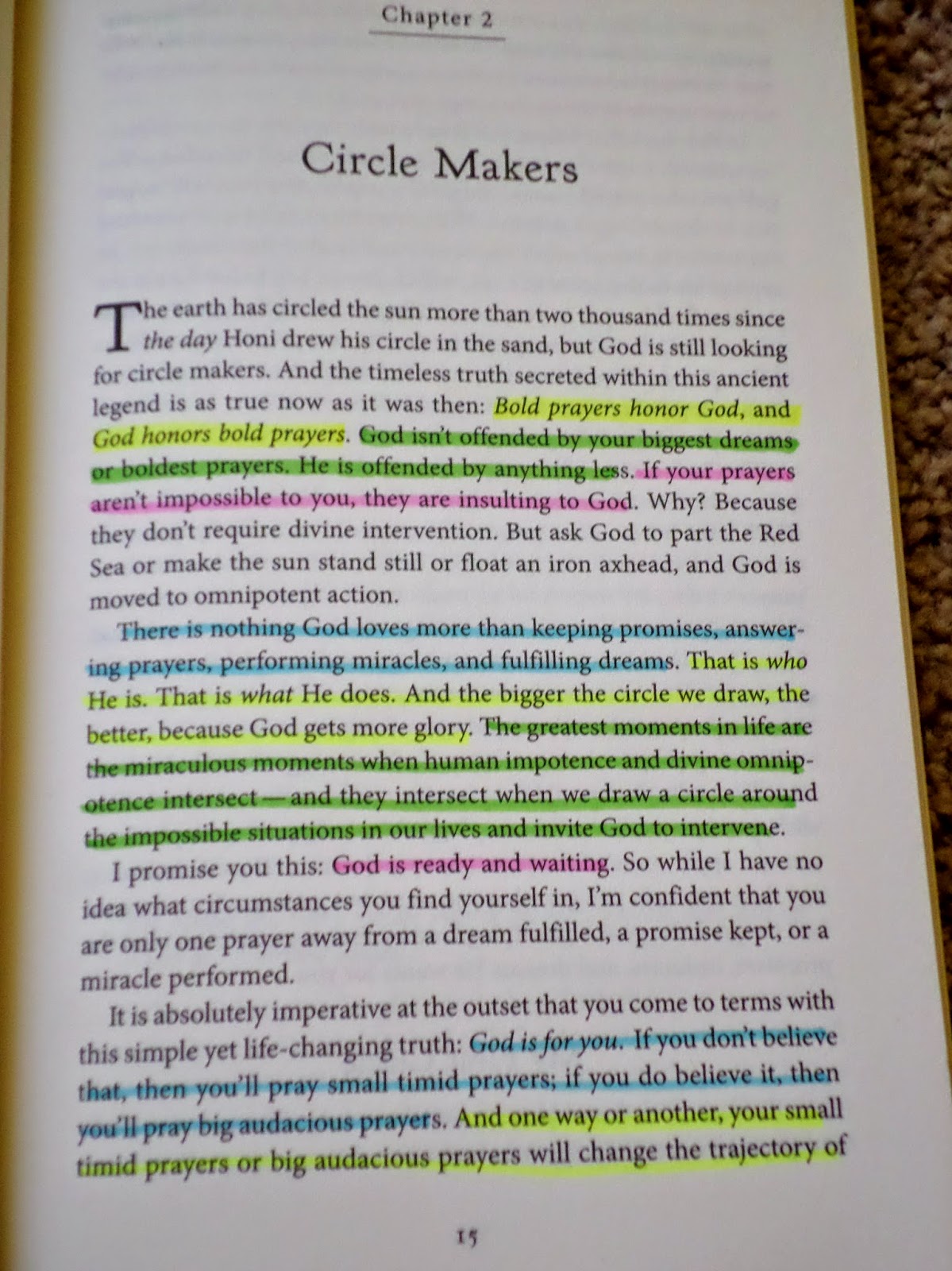
Where Have All the Good Men Gone? by A.J. Kiesling
This book wasn’t what I expected. My life hasn’t gone exactly how I expected, either. I always assumed I would go to college and leave with a teaching degree and a MRS degree. Only one of those came to pass. So, now I’m 24, unmarried, and living in a tiny town in rural Oklahoma that doesn’t even have a stoplight. This wasn’t my plan, but it’s God’s plan. And, I have to trust that he knows exactly what he’s doing. Over the past few months, my eyes have been opened to several things in my current life that wouldn’t have been possible had my plans succeeded. Though I’m living a life I didn’t expect, I’m also blessed beyond imagination. And, I need to focus on the latter instead of the former. Okay. Back to the book. I was expecting a book that told me how to prepare for marriage or how to put myself on the path to marriage. Instead, I found an analysis of a survey of singles that was completed by the author. Single men and women answered questions regarding what they were looking for in marriage and what they felt was holding them back from marriage. I found myself relating to much of it. And, I was surprised by the male perspective of certain actions by females. It was an interesting and informative read.
Sink Reflections by Marla Cilley
Confession time. I’m not the best housekeeper. I wait to do laundry until I’m almost out of bath towels. Sometimes, I don’t do dishes until I run out of spoons or forks. I make lots of excuses. When I come home from a long day of teaching, the last thing I want to do is laundry or dishes. So, instead, I end up spending most of my weekend doing what I have put off the previous week. Not smart. I know. This book is all about how to set up daily routines that allow you to keep your house clean during the week. Now that I’ve read the book, I need to actually start applying the principles to my life. This is an inspiring read. Now, I just need to follow its advice!
When God Winks at You by SQuire Rushnell
I picked up this book at Goodwill for a dollar. It’s a short book of stories of the amazing way that God can work through coincidences. This is a feel-good book. If you’re doubting that God cares or that God acts in the life of his people, read this book!
The Giver by Lois Lowry
If you would have asked me a couple of months ago, I would have told you that I read this book as a child. I recently learned that I actually didn’t. I did read Number The Stars, though, by the same author. So, how did I come to pick up this book? I’m glad you asked! It all starts with state standardized testing. During our planning periods, we were often called out to proctor tests for our special education students. During my first proctoring session, I grabbed a magazine off the table in the classroom. As I read the issue of Redbook, I found it interesting that the magazine was reviewing the movie Elizabethtown.
I asked myself, “Hasn’t that been out for a long time?” In the article on budgeting, the author recommended that the struggling couple cancel their cell phone to save money. At this point, I flipped to the front cover to realize that I was reading a magazine from 2005! 2005! I quickly vowed that I would bring my own reading material the next time I proctored.
Well, the next day I was scheduled to proctor, I almost forgot about it. By the time I remembered, I had to rush down to the special ed teacher’s room to relieve another proctor. Again, I found myself without anything to keep me occupied. After ruling out the outdated magazines, I turned to the shelf of textbooks. I grabbed a copy of The Giver and read the back cover. It didn’t seem familiar, so I sat down and dove in the book. I quickly found myself sucked into the story. I was almost sad when the student finished their test because it meant that I couldn’t stay and read anymore. The special ed teacher gladly allowed me to borrow the book. The book is set in an entirely different time and world, but you’re not told that from the beginning. Instead, you have to discover exactly how the world works and how it came to work that way for yourself. It’s been a long time since I was this sucked in by a book. My only complaint would the ending. I’m the type that loves a definitive ending plus an epilogue that updates me on what happens to the characters fifteen years down the road. Yeah, this book didn’t provide that… 🙁 But, I’d still recommend this book in a heartbeat!
When You Don’t See His Plan: The Nadine Hennesey Story
Maybe I should just call these posts confessionals instead of book reviews. Confession time. I judge books by their covers. If I love a book’s title, I’m much more apt to pick it up. This book’s title was yelling at me from the shelves at Goodwill. As I wrote above, I’m not exactly sure what God is doing during this season of singleness in my life. A lot of days, I don’t see his plan. Instead, I see how most of my friends from college have tied the knot and are starting to think about children. My facebook newsfeed is full of babies and wedding pictures, and I feel left out sometimes. Okay, a lot of times.
Yet, I know God is at work. I know God has a plan. I just can’t see his plan right now. Twenty or thirty years from now, I will be able to look back and smile because things will have happened that were only made possible through this current confusing season. This is the story of Nadine Hennesey. She met a guy in college, got married, and they decided to start a family. Before their daughter was born, he died suddenly. Her entire world was turned upside down. God used this tragedy to move her and her daughter overseas to work with orphaned children. And, they changed thousands of lives that would have never been impacted had her original plan for her life worked out. This book was a beautiful reminder that God knows what is best. He has a plan. And, that plan is more perfect and beautiful than we can ever realize.
Cat by V.C. Andrews
In the fourth month of the year, I read the fourth book in The Wildflowers series. If I read the last book in May, I will be done with this series forever! As I’ve written before, this is not a series I would recommend. But, I’ve invested so much time in reading them, I have to figure out what happens! These books reveal the personal lives and secrets of four teenagers who end up in court-appointed therapy. The themes in the books are dark and depressing. This book provided some hope and a more up-beat attitude towards the end. I hope that upbeat attitude is carried through to the last book in the series.
May 9, 2014 – Jumbo Origami
Happy Friday! This has officially been the longest week of my life. Tuesday felt like Friday. Wednesday felt like Friday. Thursday felt like Friday. It’s been the week that never ends!
Short post today. Just wanted to share an amazing discovery that everyone else probably already knows.
Square scrapbook paper makes jumbo origami projects!
I teach the 8th-12th grade Sunday School class at my church, and we’ve been spending the time after we finish our lessons talking about life and making origami.
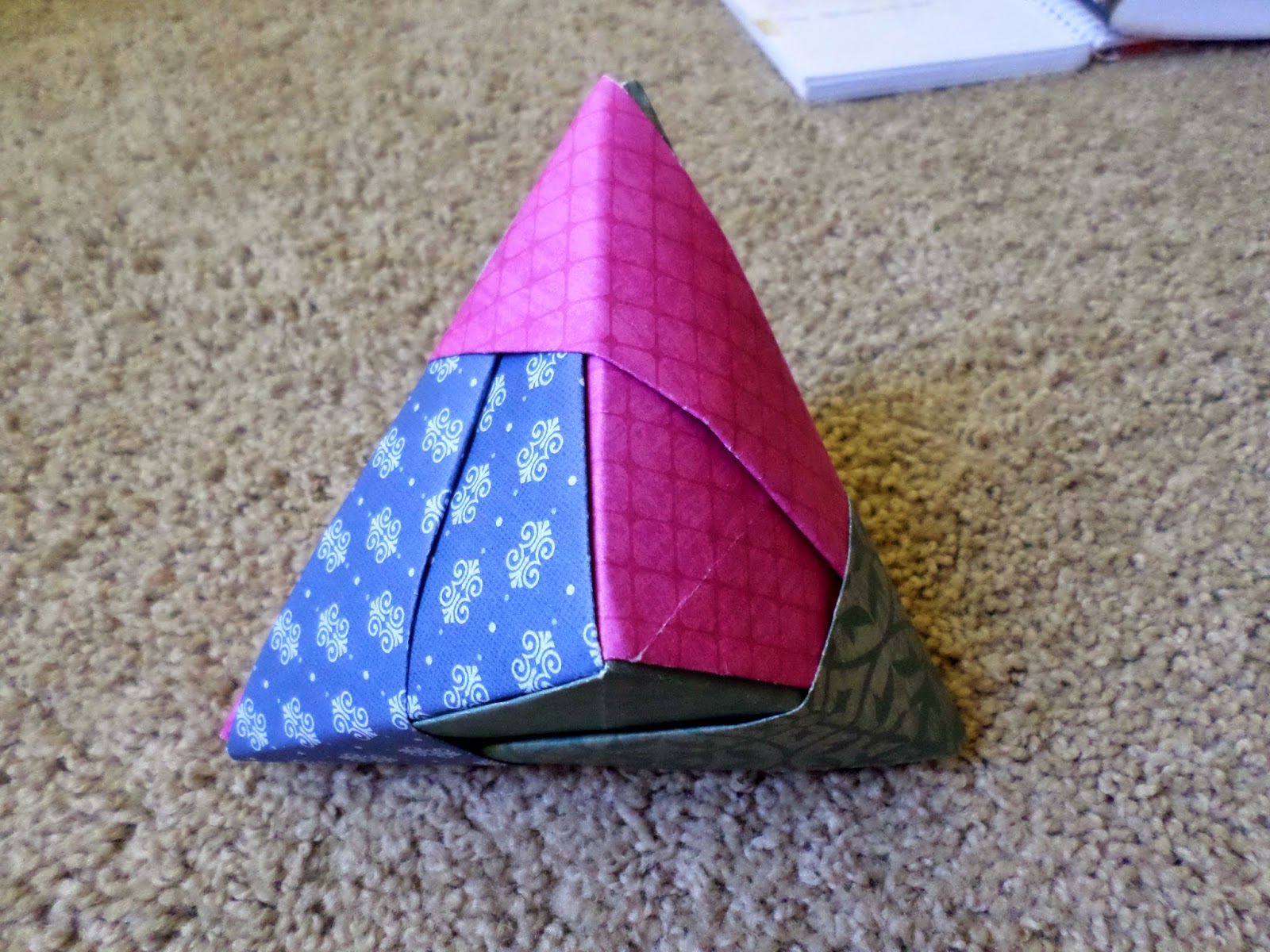
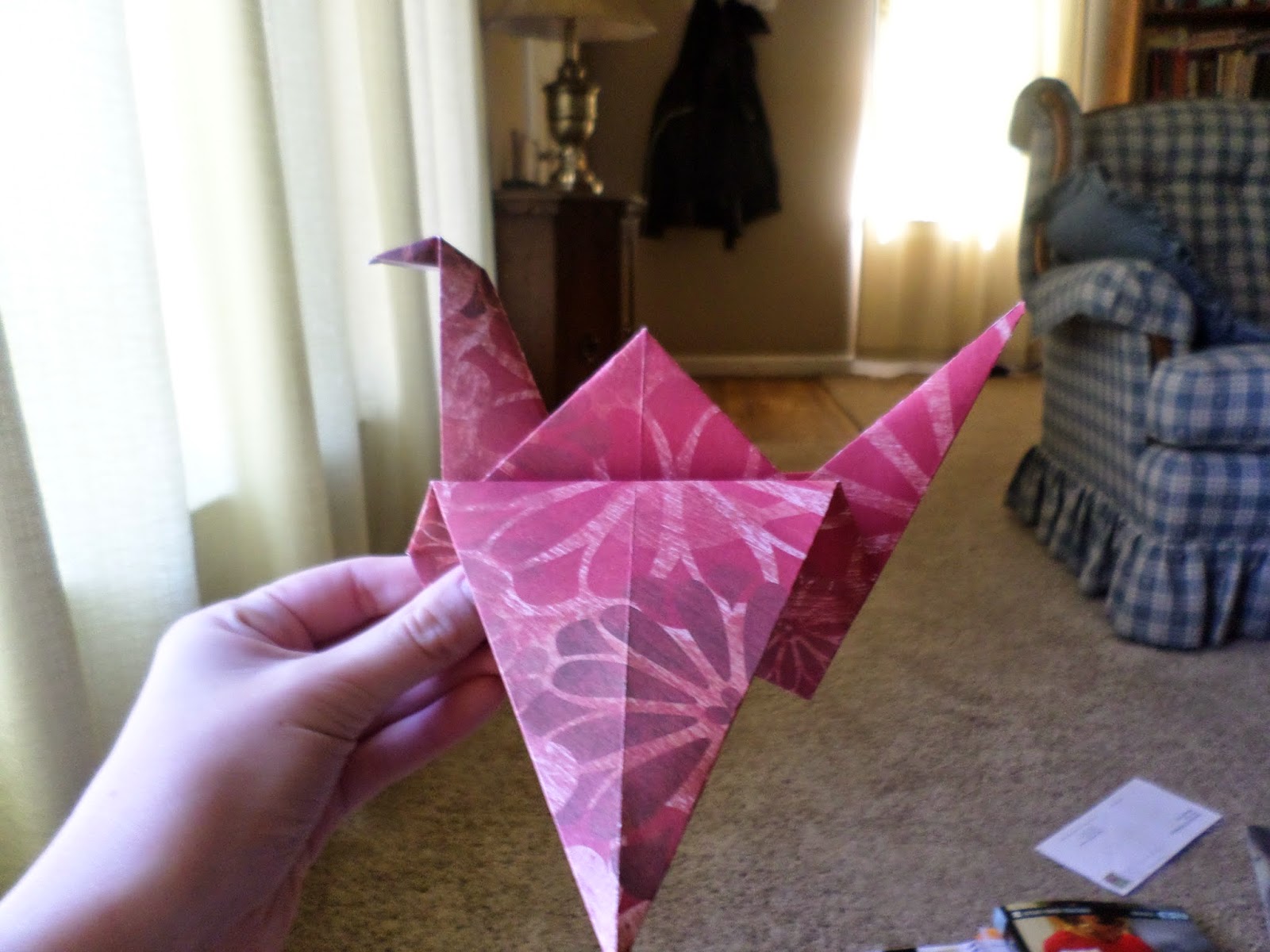
May 10, 2014 – What happens when you’re gone…
This is what happens when you’re gone.
In February, I took my student council students to our district meeting, and I left my students with a sub. Usually, I write the date as a math problem and update the daily celebration. But, I was busy and stressed and never got around to doing it that day.
I returned to school to find a math problem that correctly equaled the date and a newly invented holiday – Spongebob Squarepants Day.
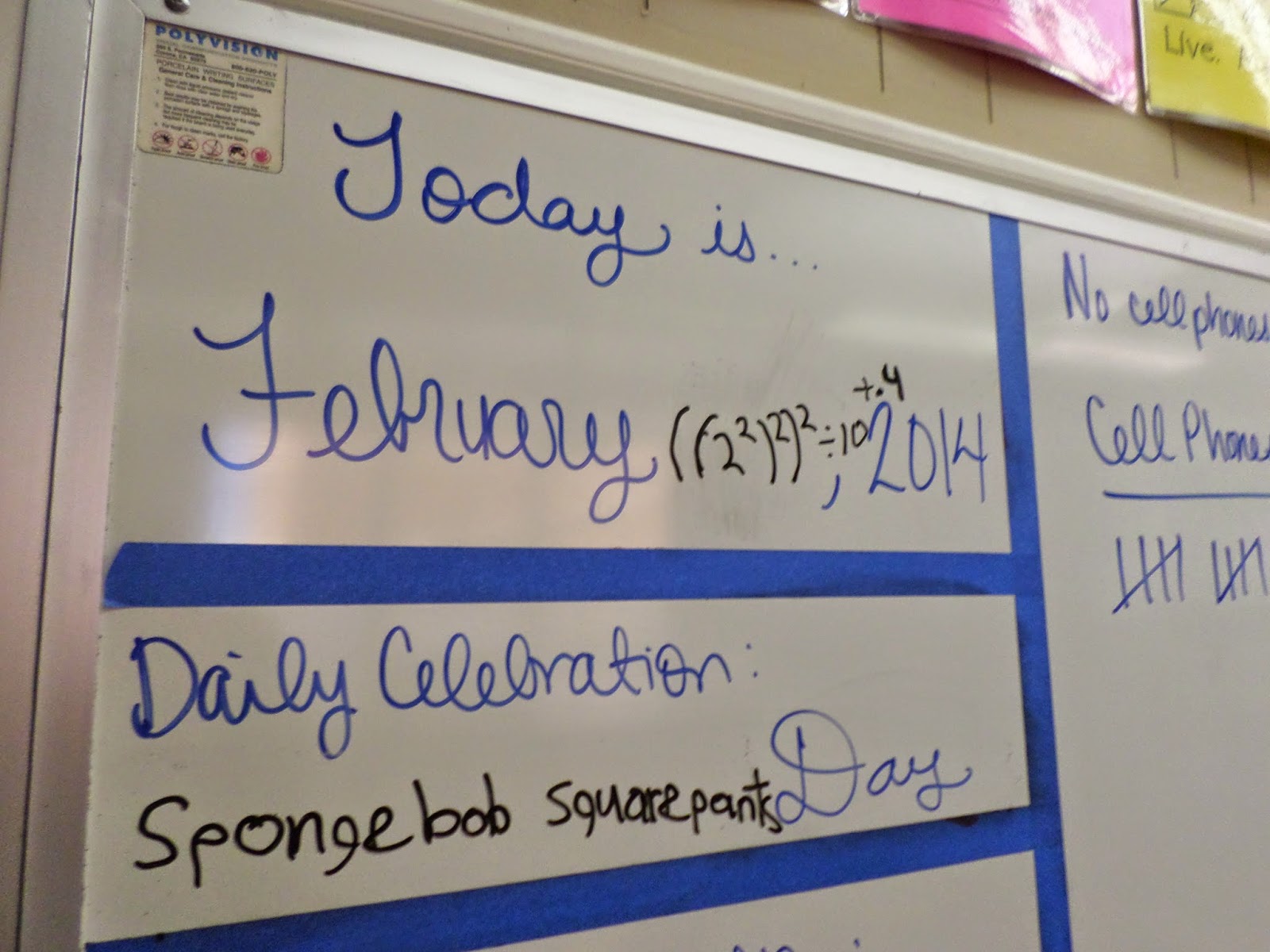
I guess students do pay attention to the date and holiday on the board!
May 11, 2014 – Things Teenagers Say Volume 12
Join me today for Volume 12 of Things Teenagers Say. This is my regular round-up of the crazy and memorable things I hear my students say in class.

This year, I’ve recorded a ton of funny things that students have said in my classroom. Several of you have told me that my Things Teenagers Say posts are your favorite posts to read. They’re one of my favorite posts to write, too.
My students keep me on my toes 24/7! I just never know what crazy things are going to come out of their mouths next! I started off the year keeping by writing these funny (and sometimes profound) statements on post-it notes and sticking them in my jar.
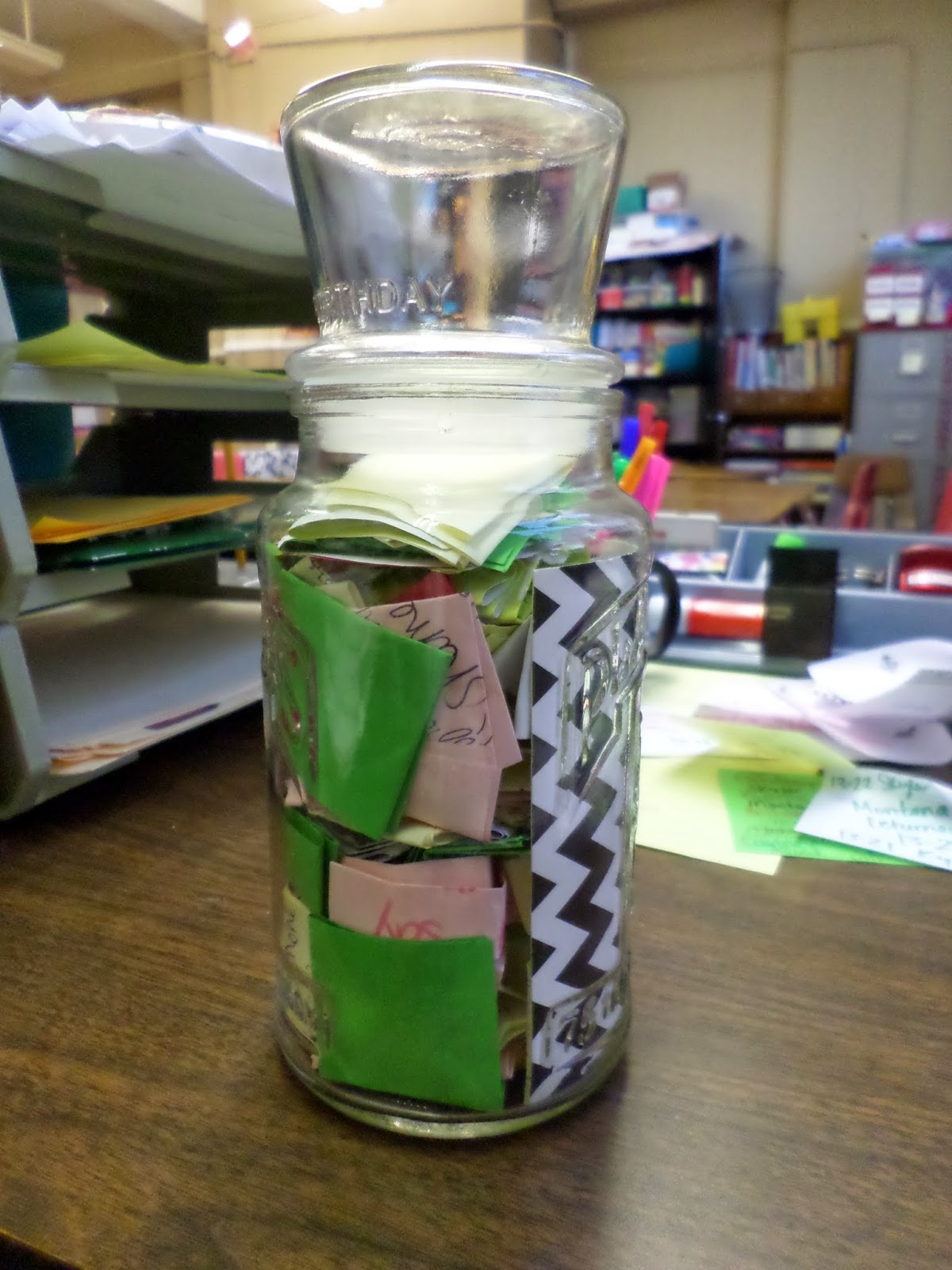
I soon outgrew my jar and had to start storing my post-it notes in my overflow location – a ziplock bag in my desk drawer.
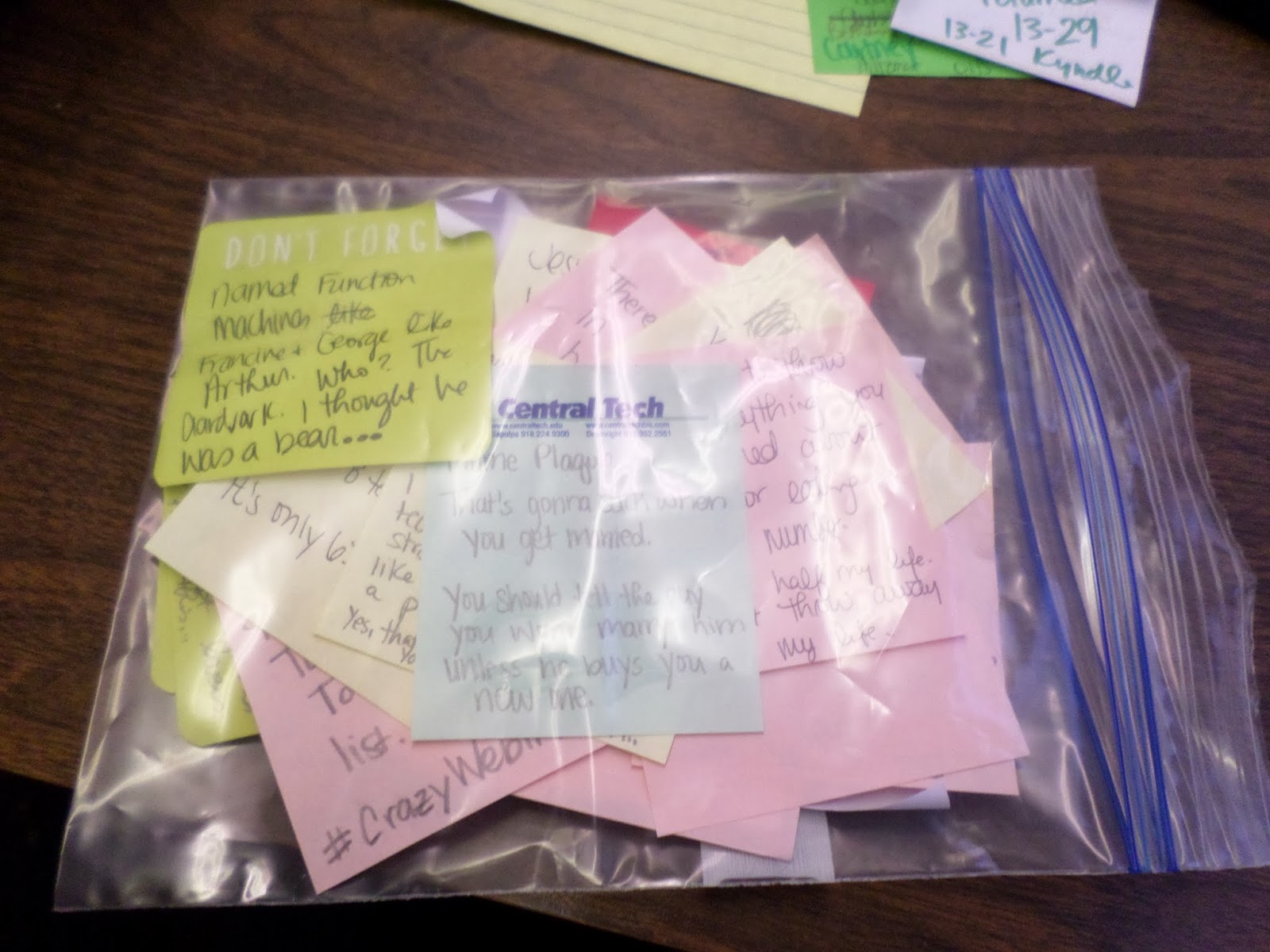
Student: Man! It’s really going to suck when you get married!
Me: Why?
Student: Your name is going to change, and you won’t be able to use your name plaque anymore.
Me: True, but…
Student: You should tell the guy that you won’t marry him unless he agrees to buy you a new one!
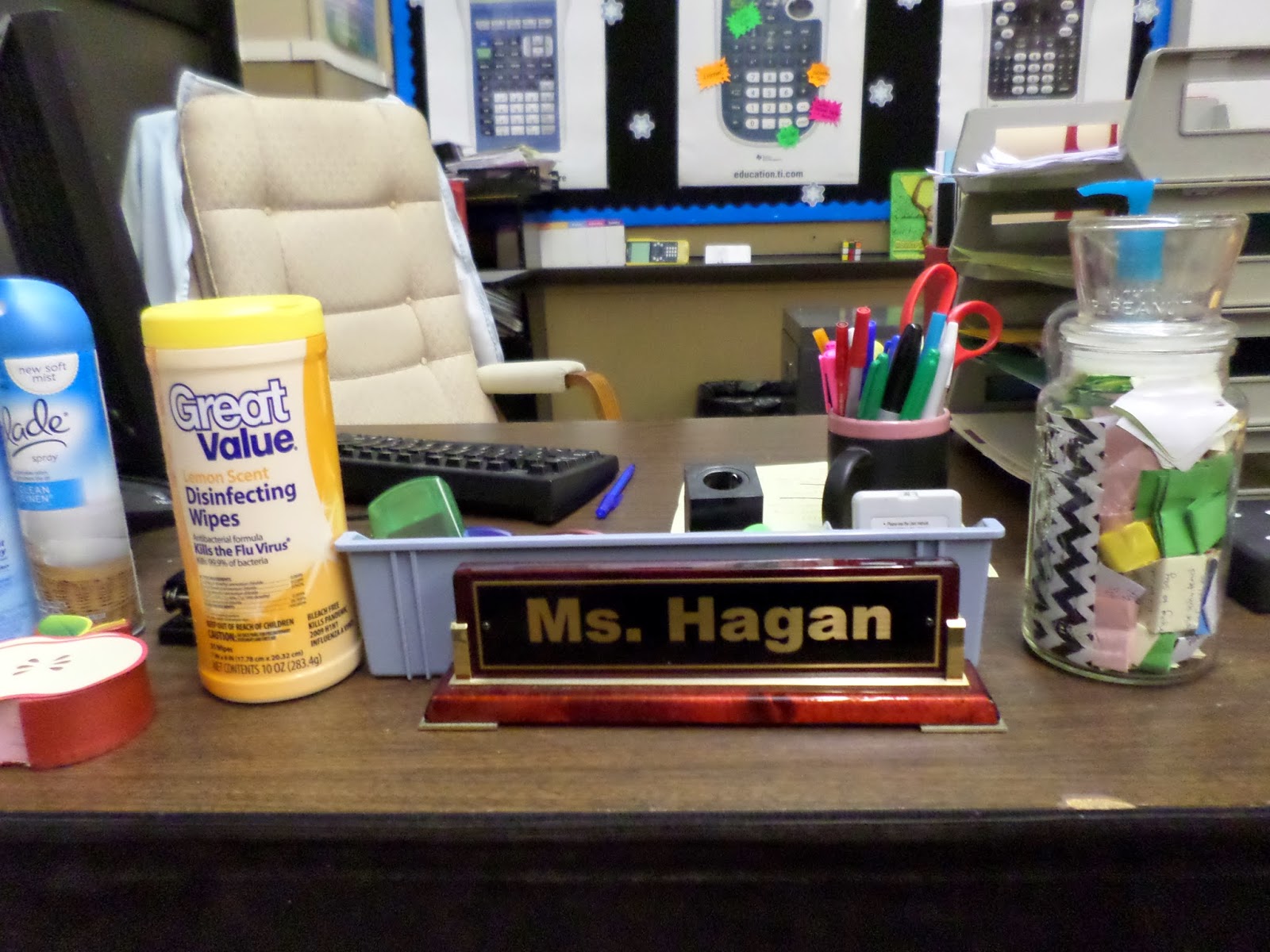
—
Me: So, does anybody have any suggestions for dress-up days during Sprit Week?
Student: We should definitely do birthday suit day.
Me: No. I don’t think so. I’m going to have to use my veto power on that suggestion.
—
Yay! I can use my journal today!
—
Ms. Hagan, I know what we should do today. We should find the end of pi.
—
I know a way we can remember what mode means. Most Often Digit Ever.
—
Oh, you’re wearing tights. I wondered why your ankles were so wrinkly.
—
Student: What type of car do you drive?
Me: A Ford Taurus. Why?
Student: So, that’s not your Smart Car parked in front of the school?
Me: Nope. That’s not my car.
Student: Oh, I really thought that was your car when I saw it.
Me: Do I seem like the type of person who would drive a Smart Car?
Student: Yes! I can totally see you pimping out your Smart Car to be a math car.
Me: Oh really?
Student: You would probably make it so your brake lights looked like plus signs.
—
That video replays in my head over and over and over. I won’t even be thinking about math, and I can just see that guy skiing.
—
When I play with Barbie dolls, it gets my day going!
This student really, really, really enjoyed our Barbie Bungee project!
—
Me: Who can tell me the most specific set of numbers that 2 belongs to?
Student: Isn’t 2 a normal number?
Me: Think about the sets of numbers that we have learned about. None of them were called normal numbers.
Student: I remember now! 2 is a solid number!
—
Student: Could you please call me Crisco today?
Me: Why?
Student: Well, the board says it’s Get A New Name Day. And, I want my new name to be Crisco.
By the end of the class period, the majority of my third period had adopted new names. That day, I taught Pablo, Chico, Jose, Crisco, Gary, Leonardo, Jade, and Sky in addition to my regularly named students. Every time I would call on a student, I would have to really concentrate on remembering to call them by their new name. When I would accidentally call a student by their actual name, they would get very, very angry at me. They take our celebration of crazy holidays very seriously.
—
Student: I think I’m going to become a vegetarian!
Me: Oh, what brought this change on?
Student: Well, I’ve been watching you all year, and you haven’t been sick once!
May 12, 2014 – Brain Busters Logic Puzzles
I love logic puzzles! I love puzzles that make me think, that challenge me. I want a puzzle that’s not impossible and not immediately solvable. It needs to be somewhere in the middle.
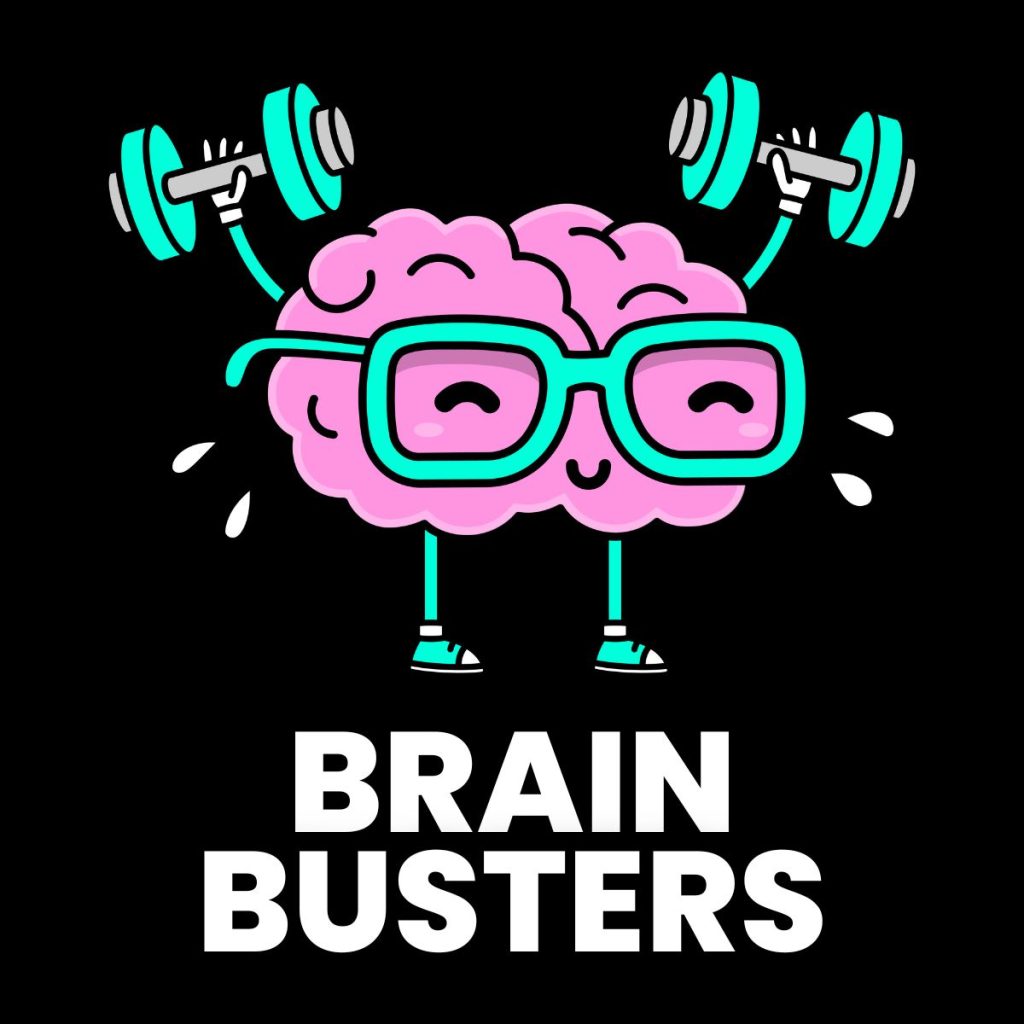
The other day, I was looking for some puzzles to keep my statistics students busy. I had been administering standardized tests all morning, and I was brain dead. It was Friday and they had just turned in their final projects. I was not in the mood to start something new. And, I certainly wasn’t going to give them a free period.

A quick google search for logic puzzles led me to a pdf file of Brain Busters. These puzzles are by Ed Pegg, Jr. And, they are fabulous! The puzzles were created for the Japan Airlines’ in-flight magazine.
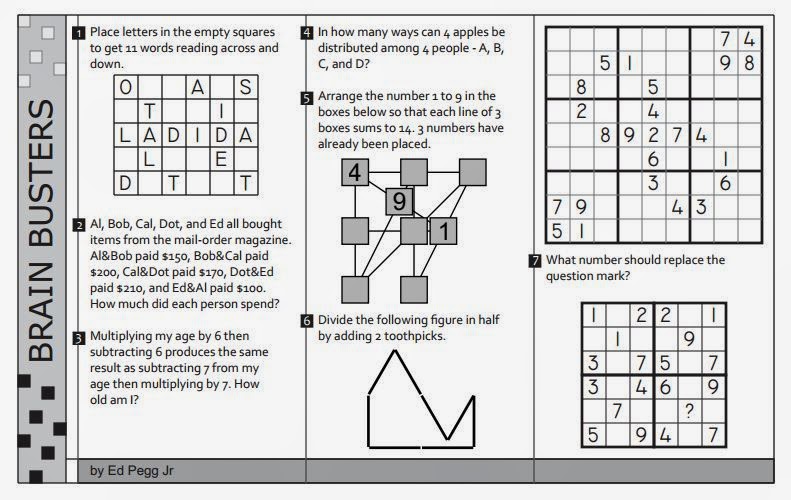
I assigned my students a page of 13 puzzles and challenged them to solve at least five of the puzzles before the end of the class period.
My students did a great job of working together without giving answers to one another. I even overheard a student say, “These are fun!” She kept working the puzzles even after completing her required five puzzles because she was enjoying the puzzle solving process.
Want even more puzzles? Check out my puzzles page!
May 13, 2014 – Origami Update
We had plenty of time following our EOIs to delve deep into the world of origami. And, my classroom definitely reflected that.
Here’s an origami crane that one of my students made for me. Once students mastered the sonobe cube, I gave them free reign to explore the origami models of their choosing. Many of my students turned to youtube to find video tutorials. He was so proud of his crane that he taped it to the top of my computer monitor and made me promise to leave it there.
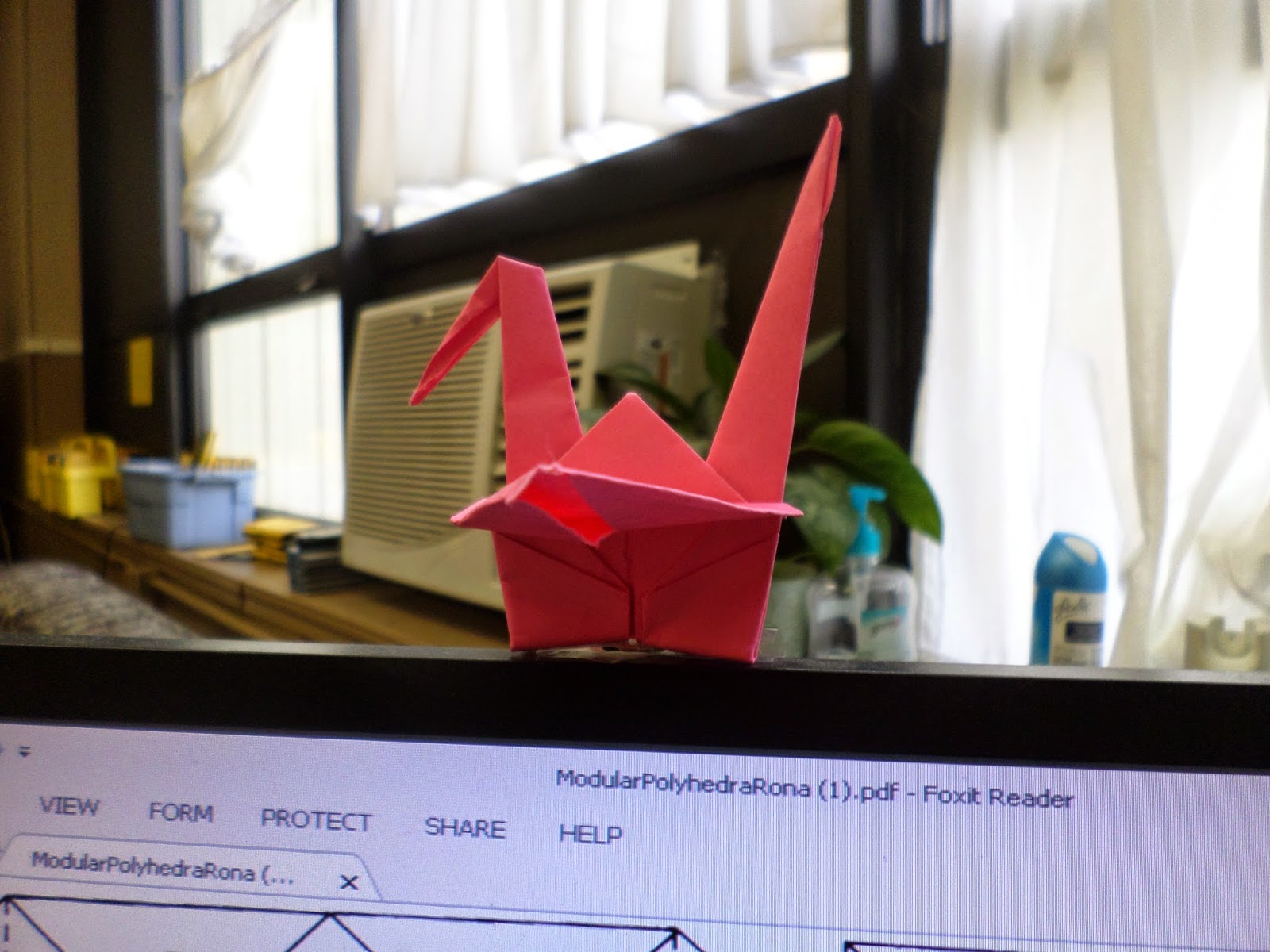
Last year, I had first learned to make a sonobe unit. This year, I’m exploring different styles of sonobe units. You could say I’m a little obsessed. These were made from paper scraps from my students’ origami projects.

Folded and ready to be assembled.
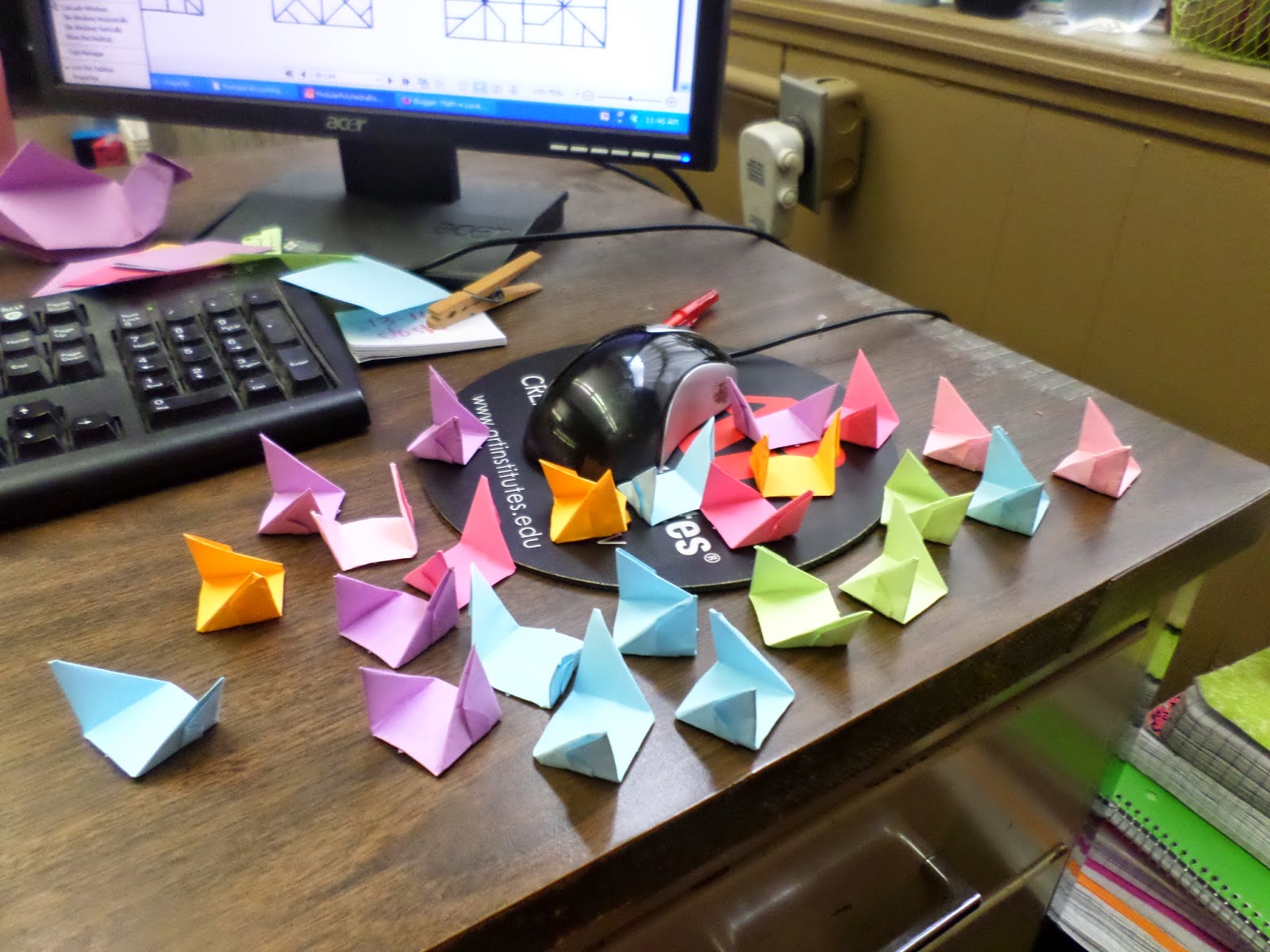
These were the trickiest pieces to put together! At one point, I resorted to paperclips and clothespins to keep my pieces from coming apart. The paper clips weren’t my brightest idea because I ended up having to take the pieces back apart to remove the paper clips. Oops…
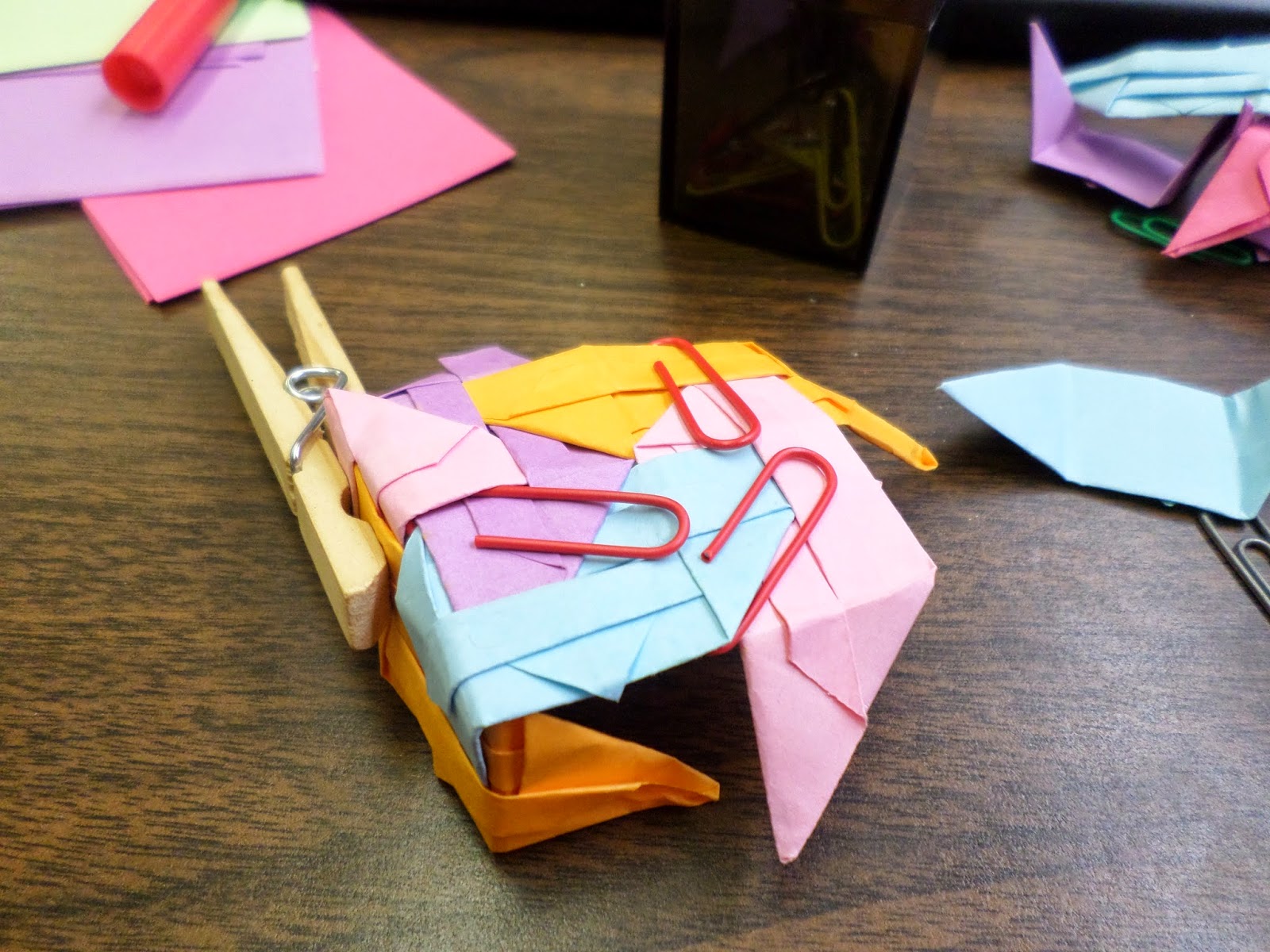
But, the finished project was totally worth it! Isn’t it the cutest 24-piece mini cube you’ve ever seen?
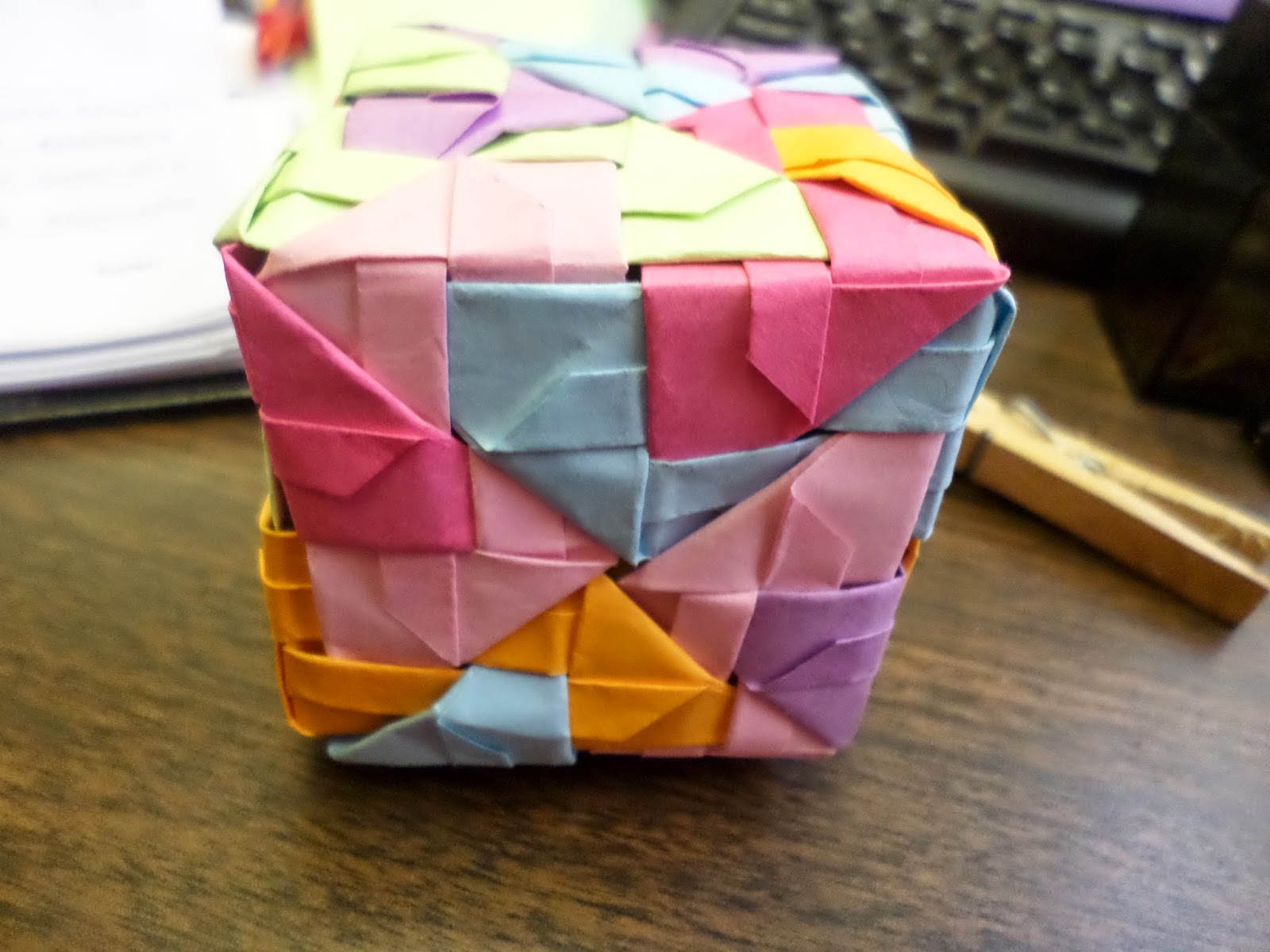
Here it is next to two other cubes made from other styles of sonobe units.
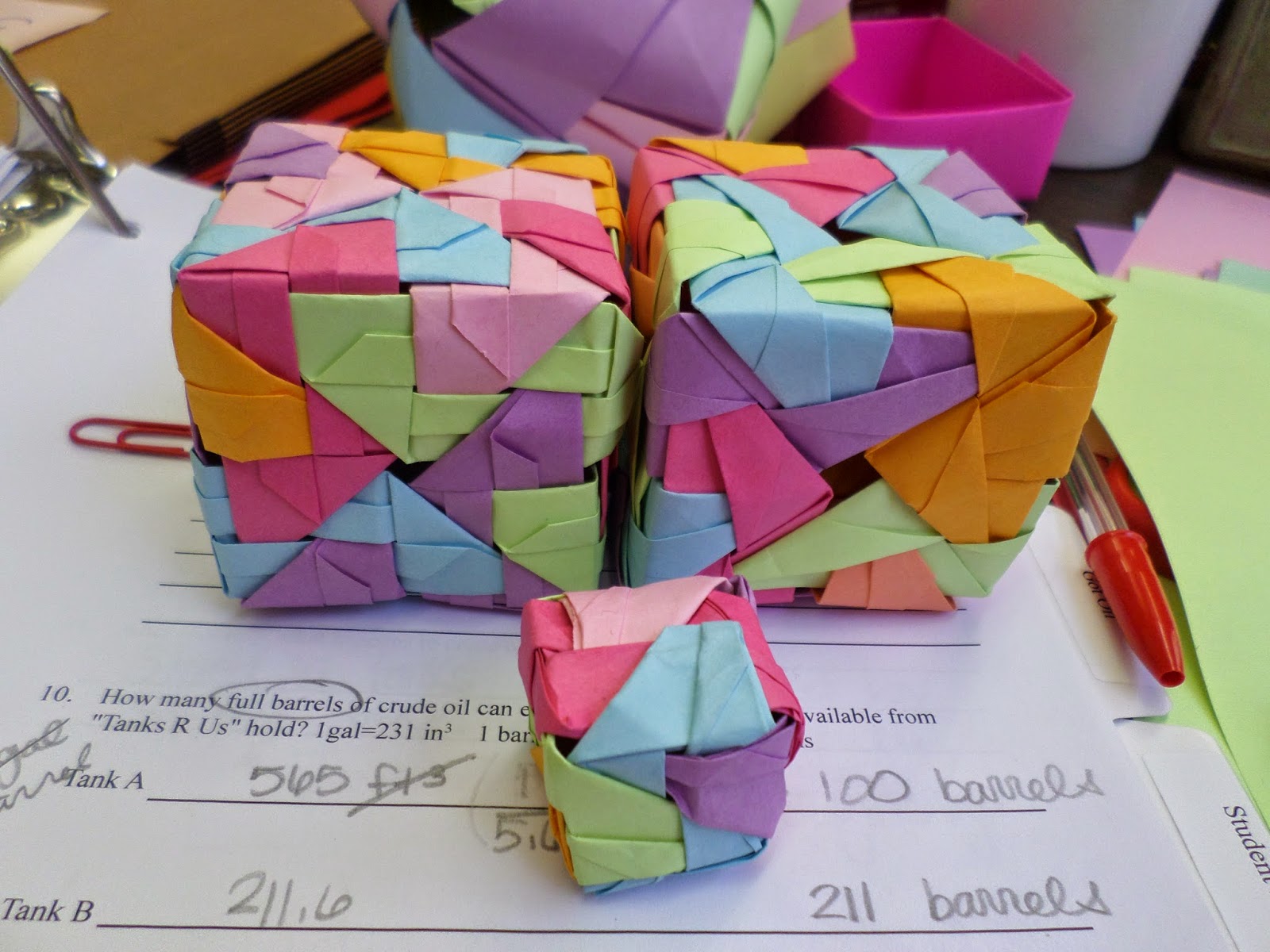
My desk has been taken over by origami!
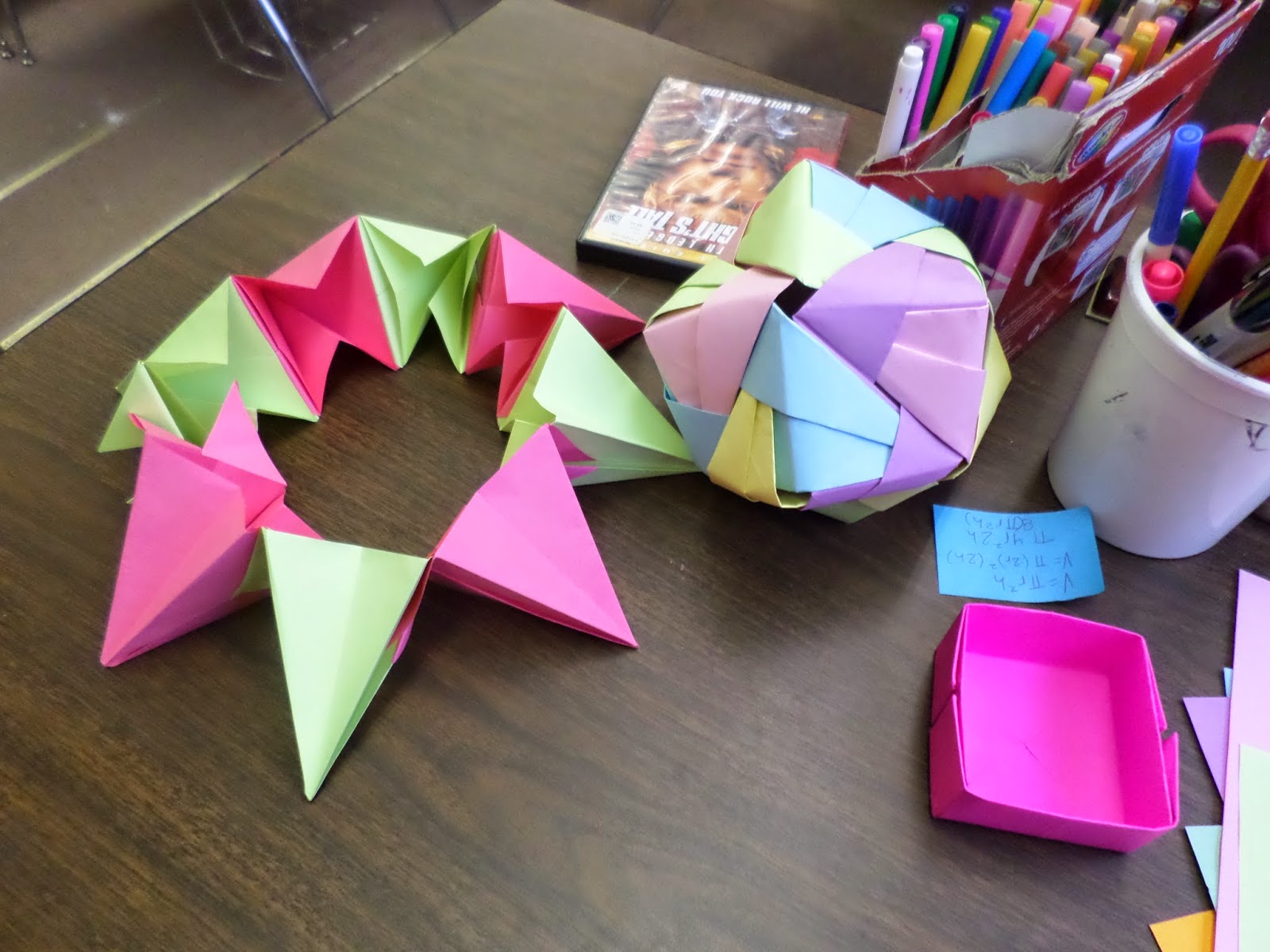
One of my students designed this origami bird herself. I was impressed!
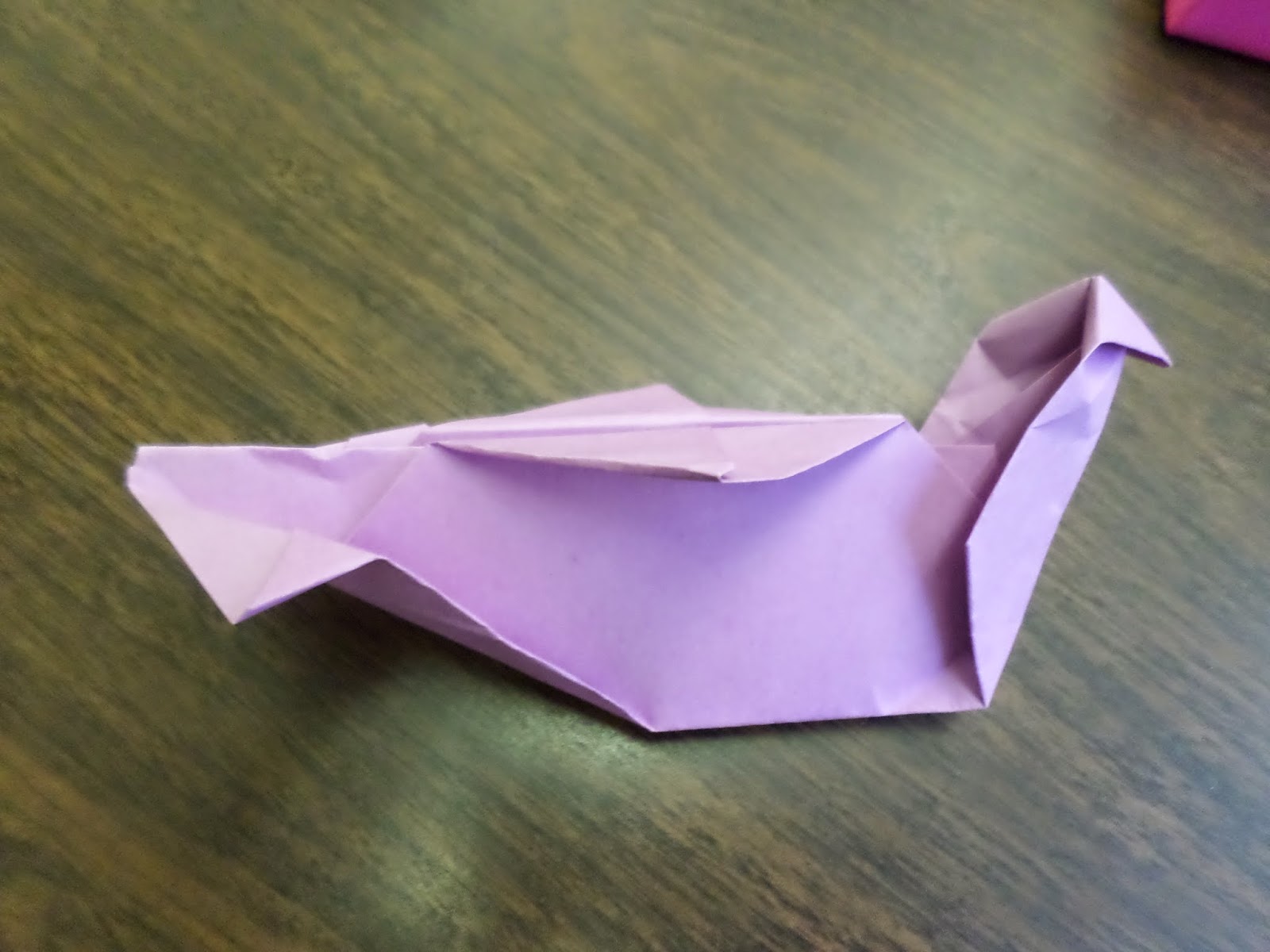
Finally, my giant stash of colored paper has paid off! My school only provides teachers with white copy paper. If we want colored paper, we have to buy it ourselves. I’m constantly watching sales online. Frequently, I can find it for $3-4 per ream. Yes, I’m obsessed! I mainly use the colored paper for foldables in our interactive notebooks. But, it has come in super handy for origami!
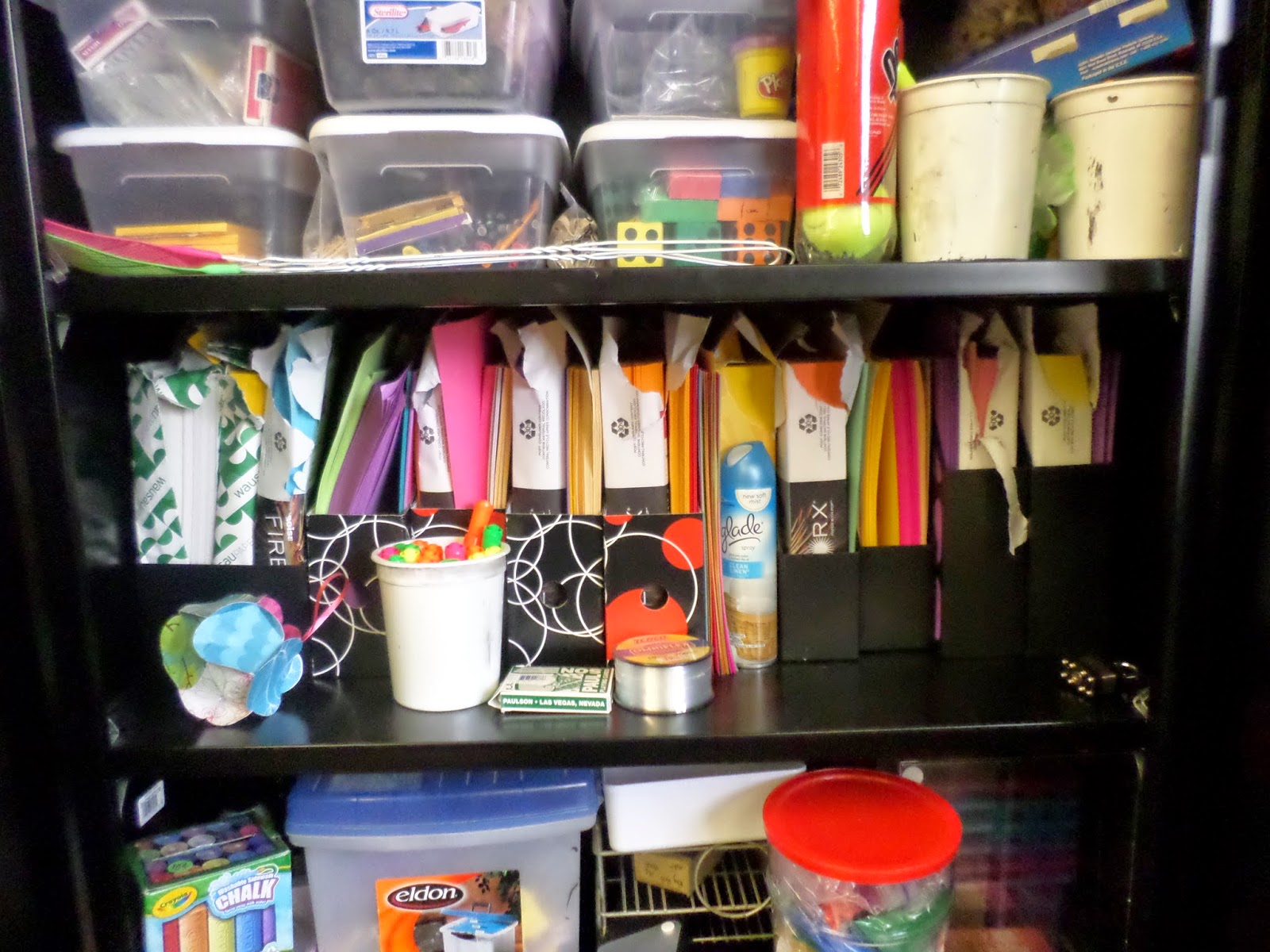
This was supposed to be a stellated dodecahedron, but it’s missing a few spikes. I’m still impressed with the incredible amount of hard work that went into creating this! I think one of my students spent at least 3-4 days on this project.
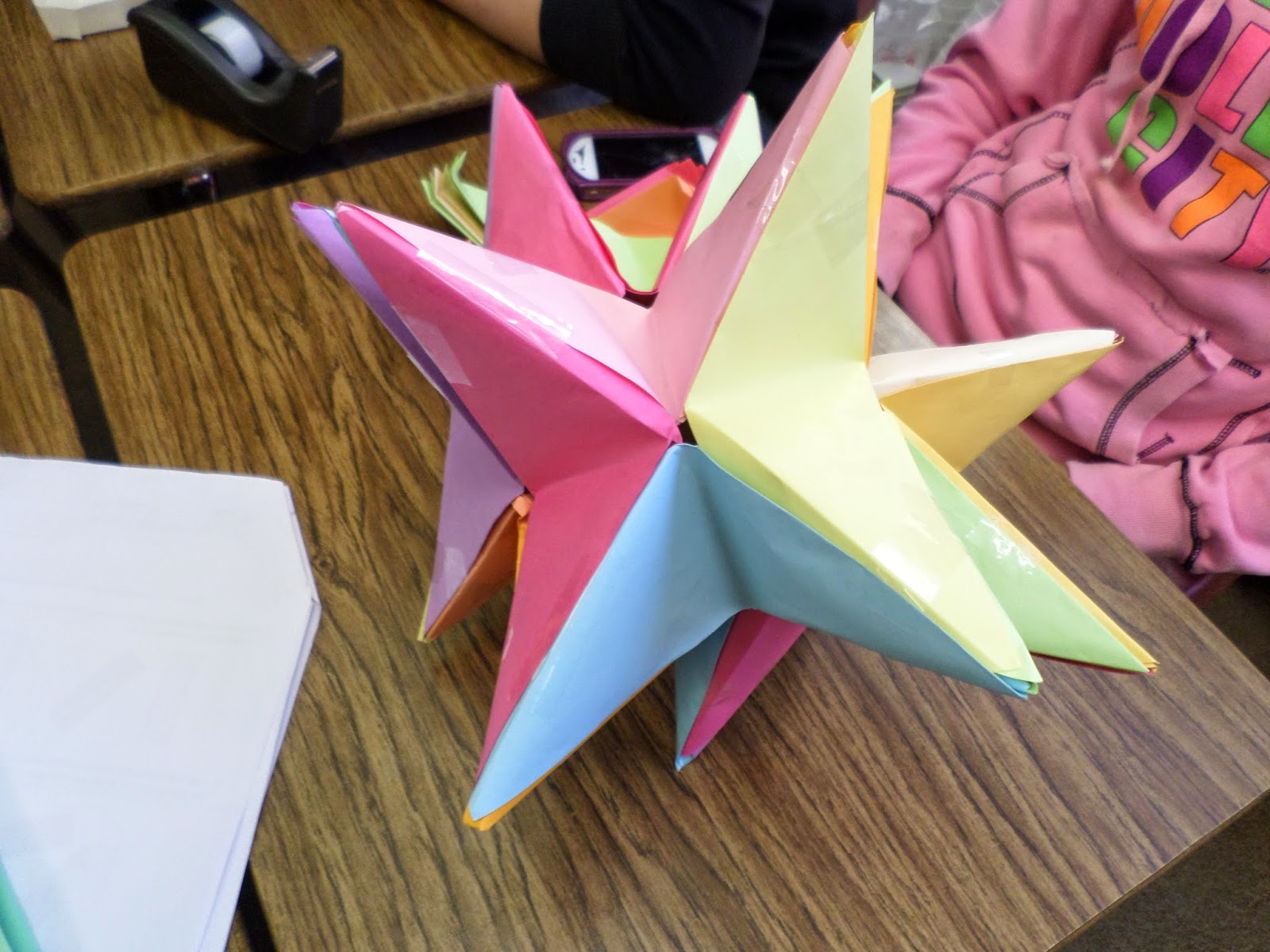
Several of my students have started trying out various sonobe variations. I printed 8 variations off the internet for students to reference.
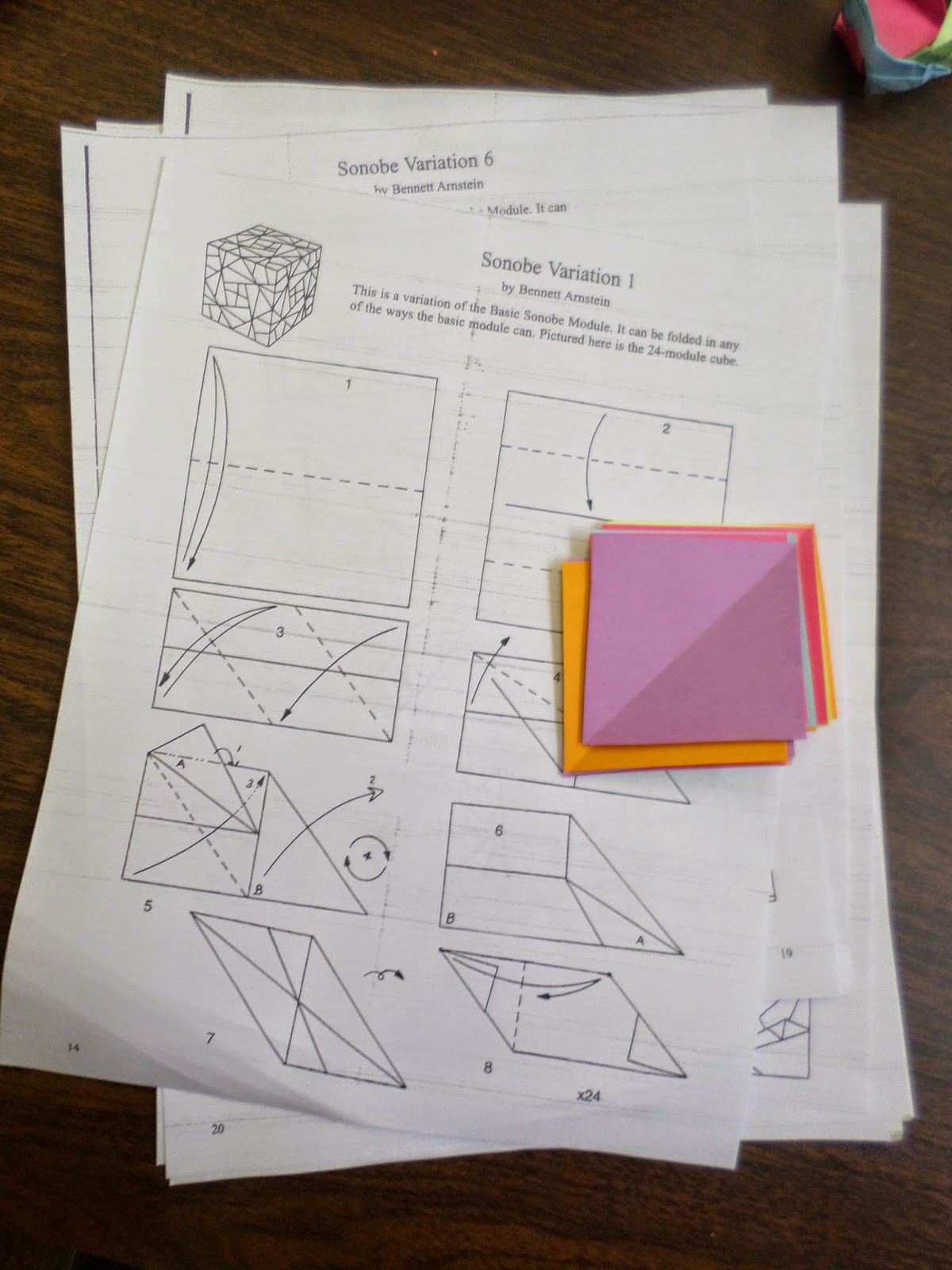
One of my students created a FlexaStar. This thing is AMAZING! There is not tape at all holding this together!
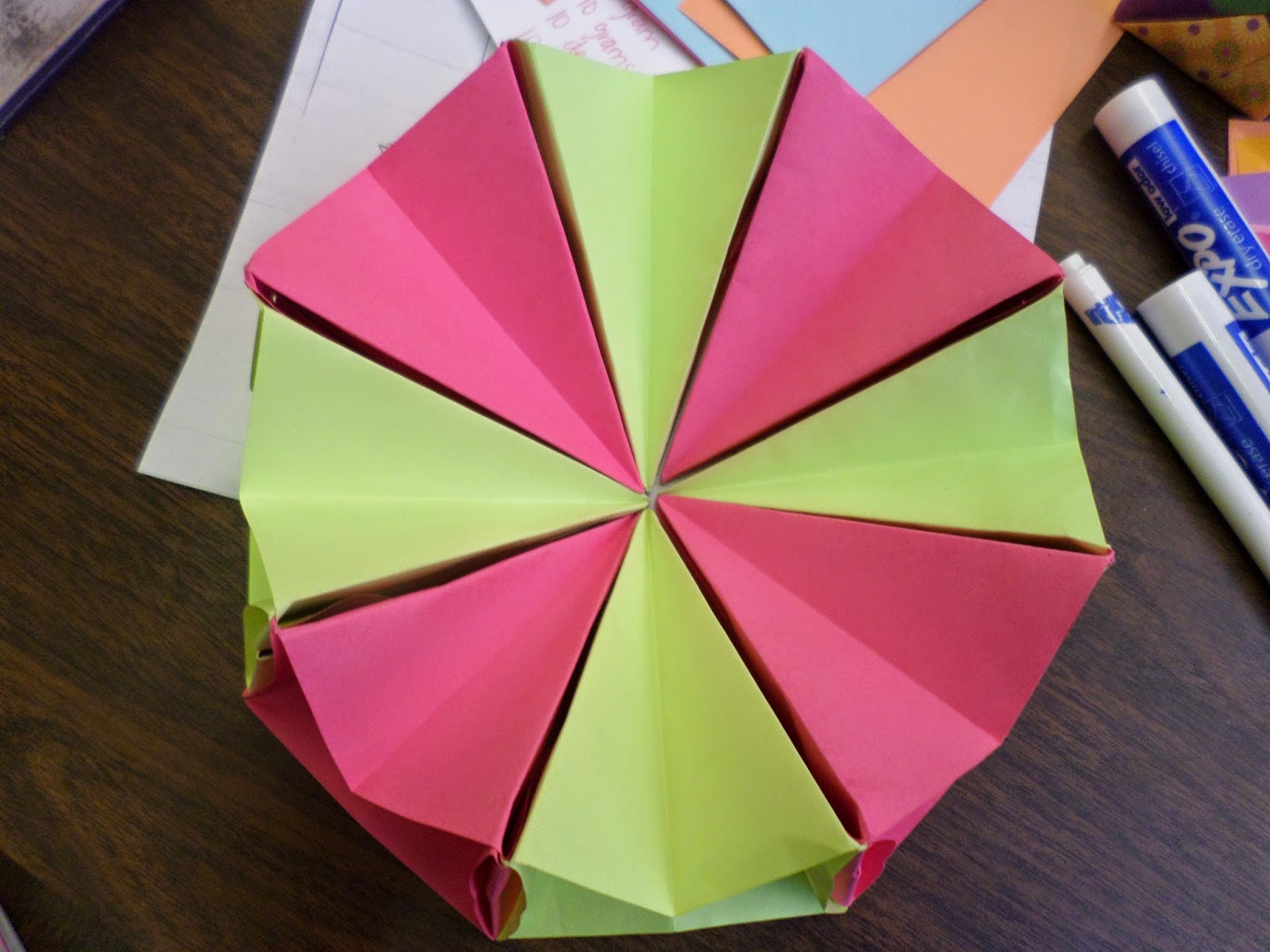
The pieces pivot out to make this star/flower shape.
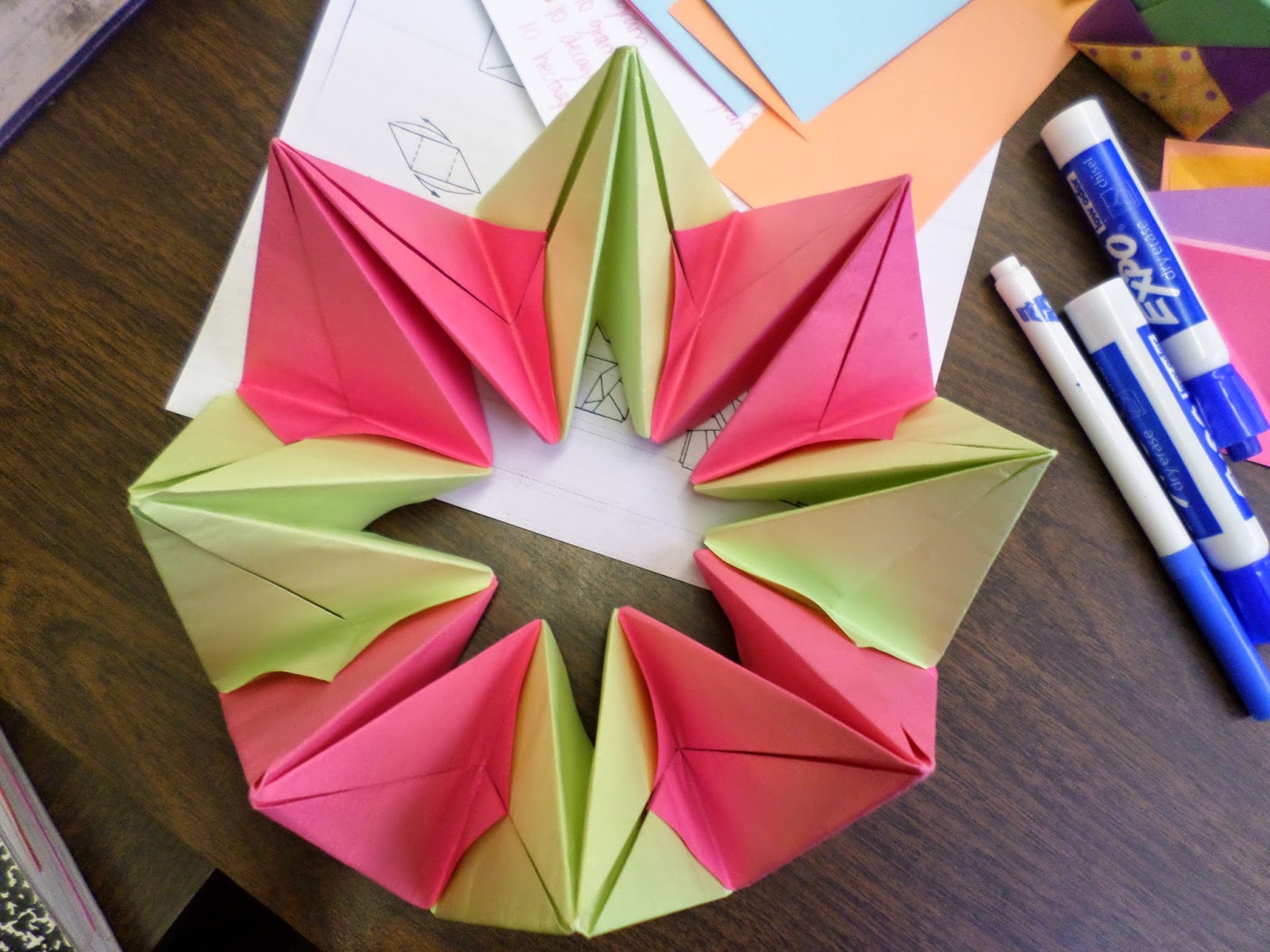
And, if you rotate it completely, it will return to its original state. Everybody who comes up to my desk can’t help but play with this amazing paper toy!
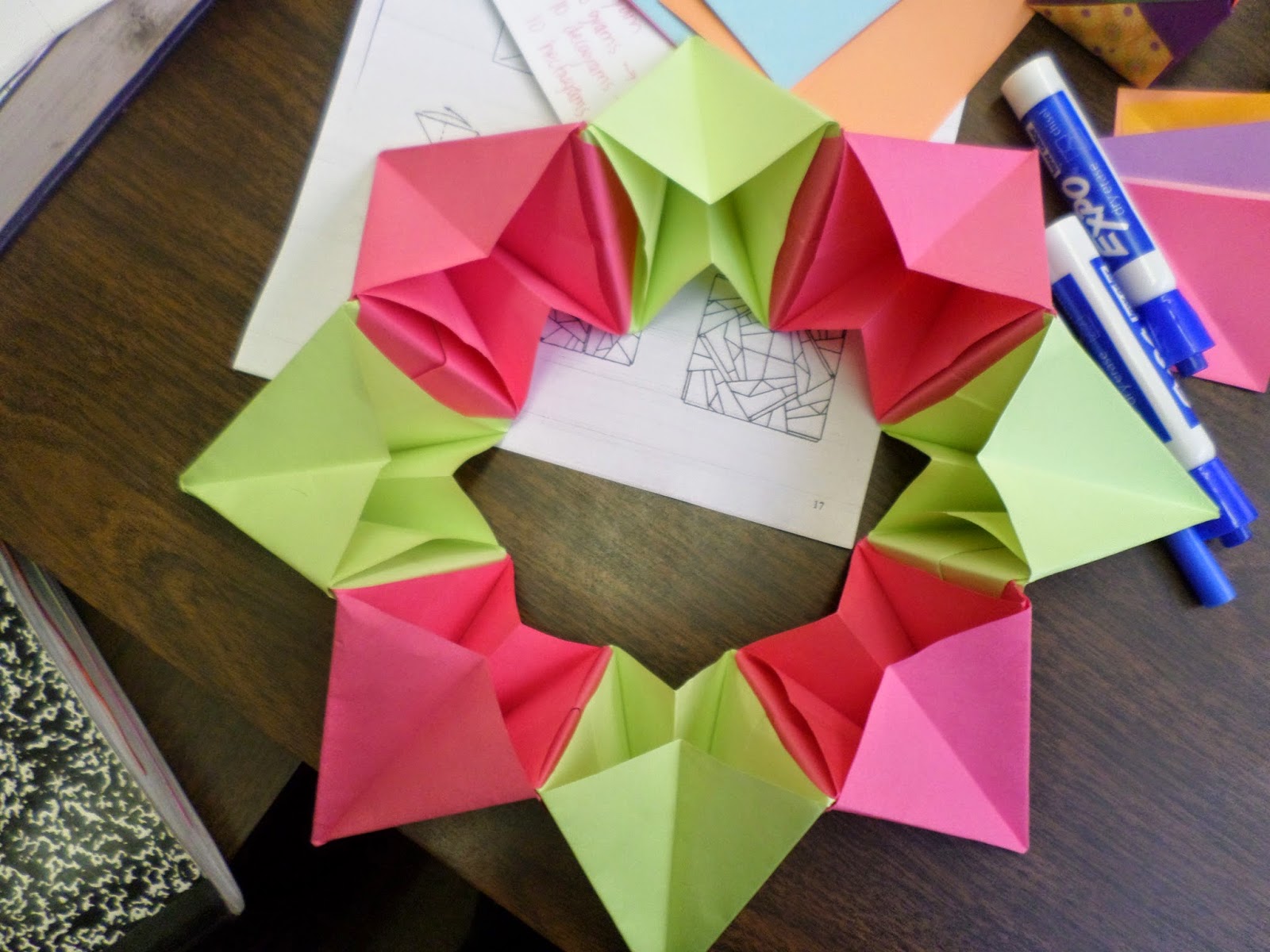
This isn’t origami, but some of my students decided to make a giant paper football. I remember my classmates playing football when I was in middle school, but I never learned the rules of the game. After watching two students play, I had to ask for a rundown of the rules. It’s certainly an interesting game.
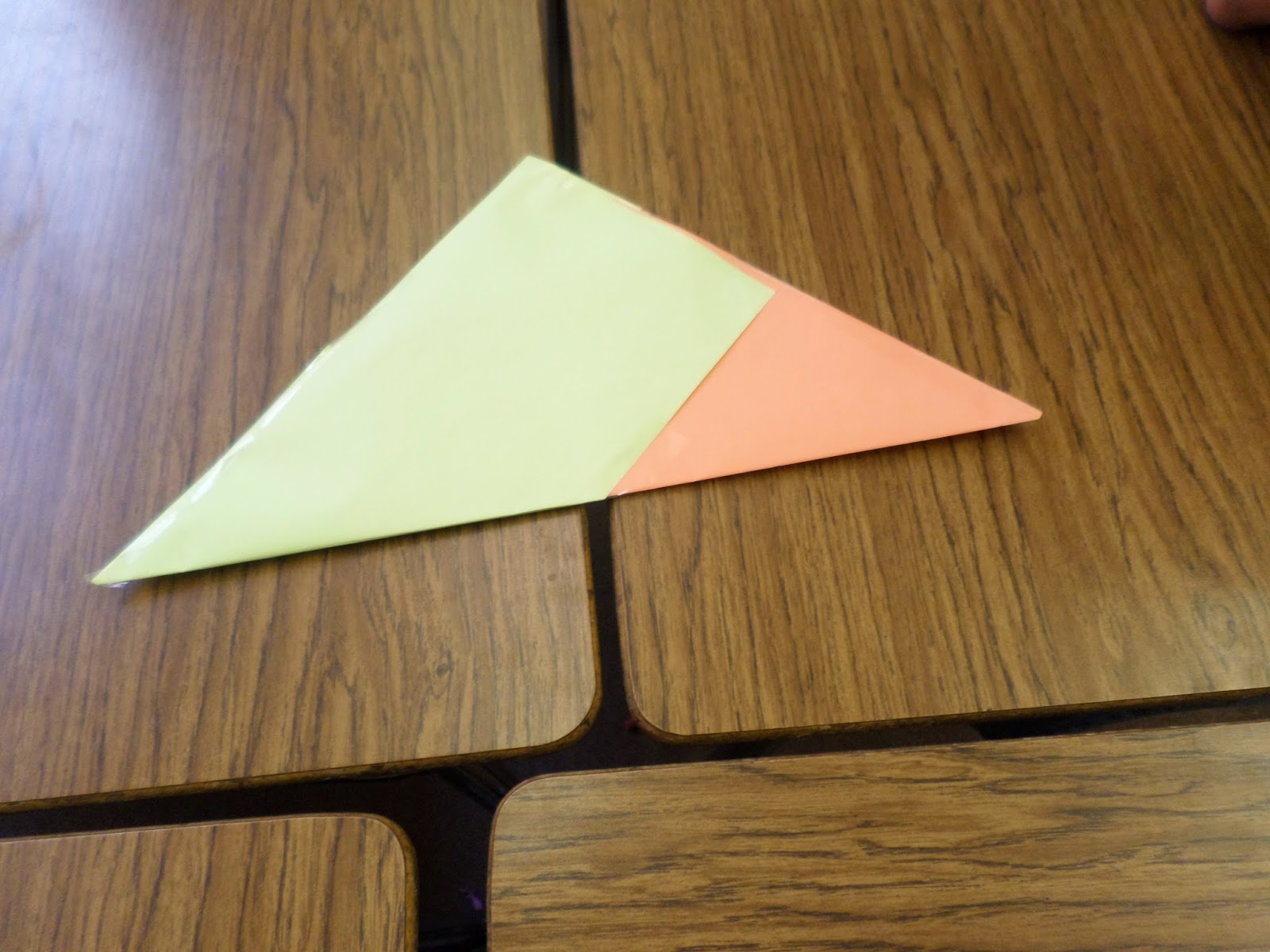
We’ve also assembled our sonobe units into colliding cubes. For some reason, I have a terrible time showing students how to assemble the colliding cubes.
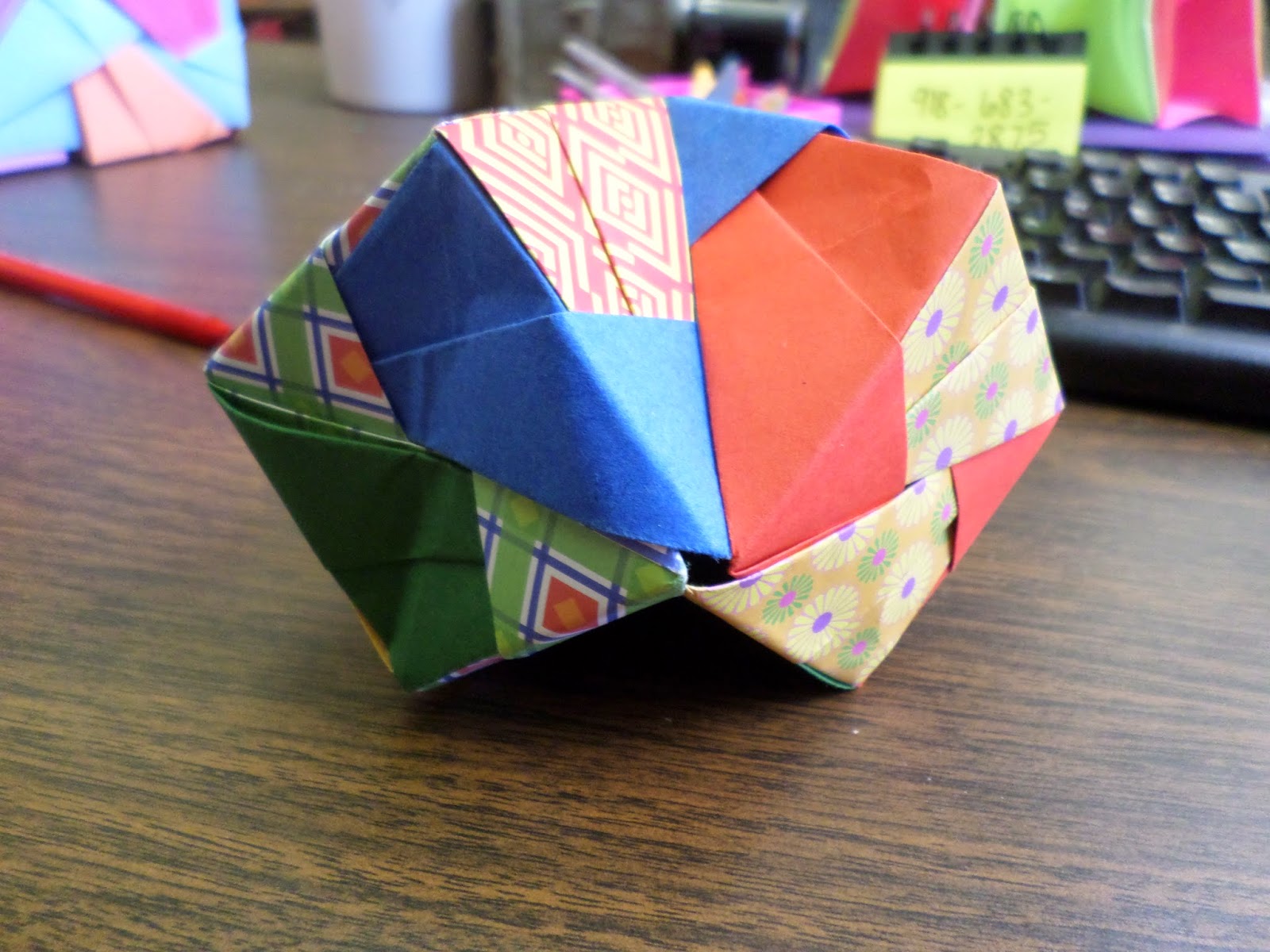
I guess you might call this a coliding cube and rectangle? One of my students was trying to put together a 12-piece stellated octahedron. But, she ended up making this out of 11 pieces It wasn’t what she was going for, but it was cool anyway. Does this have a name?
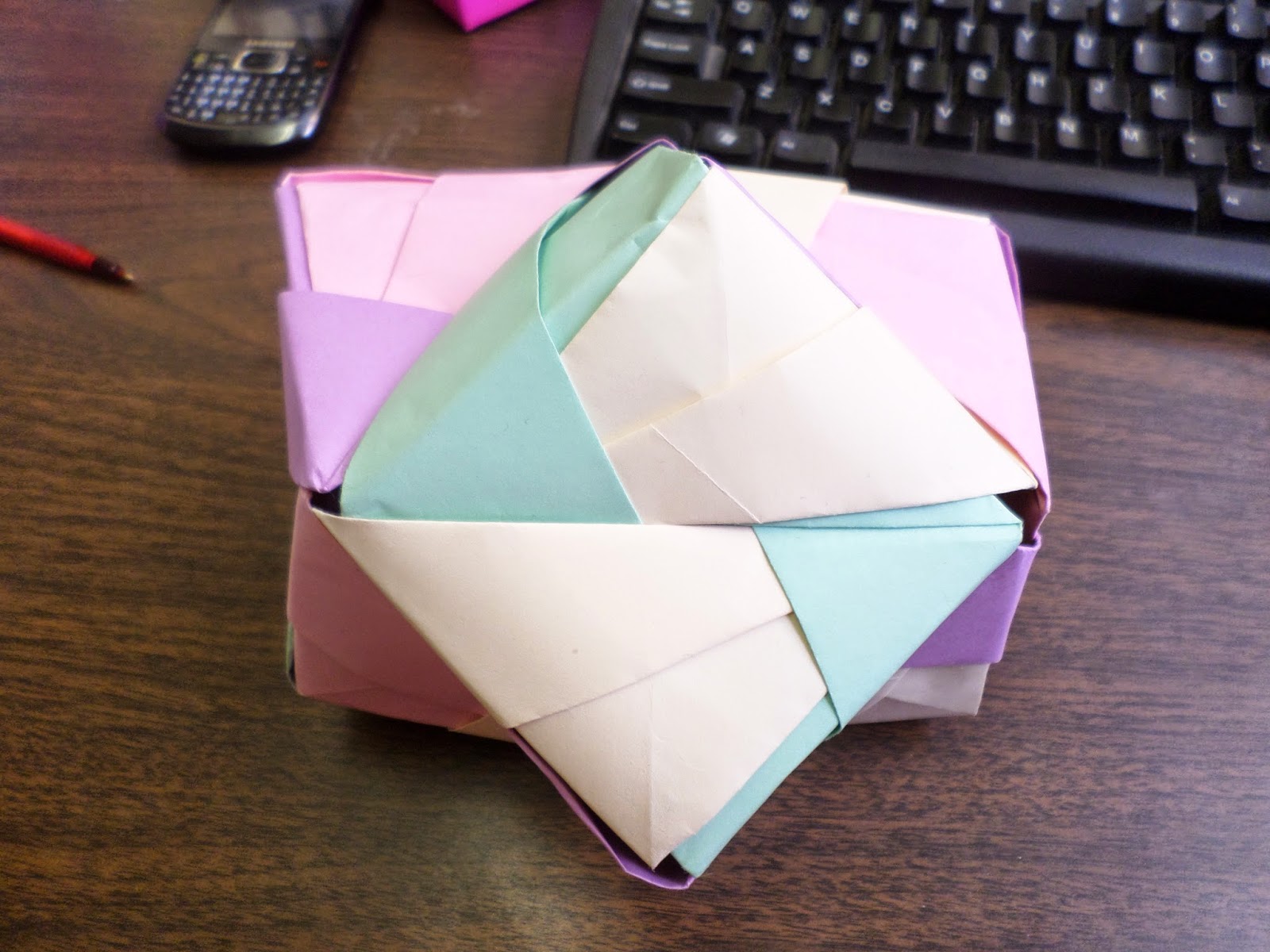
My stats class worked together one day to put together this giant sonobe cube. It’s made out of 24 pieces. The pieces do not form as tight of a cube as I would like. I would love to hang this from my ceiling with my other origami, but I think it would fall apart within minutes. Hmm…
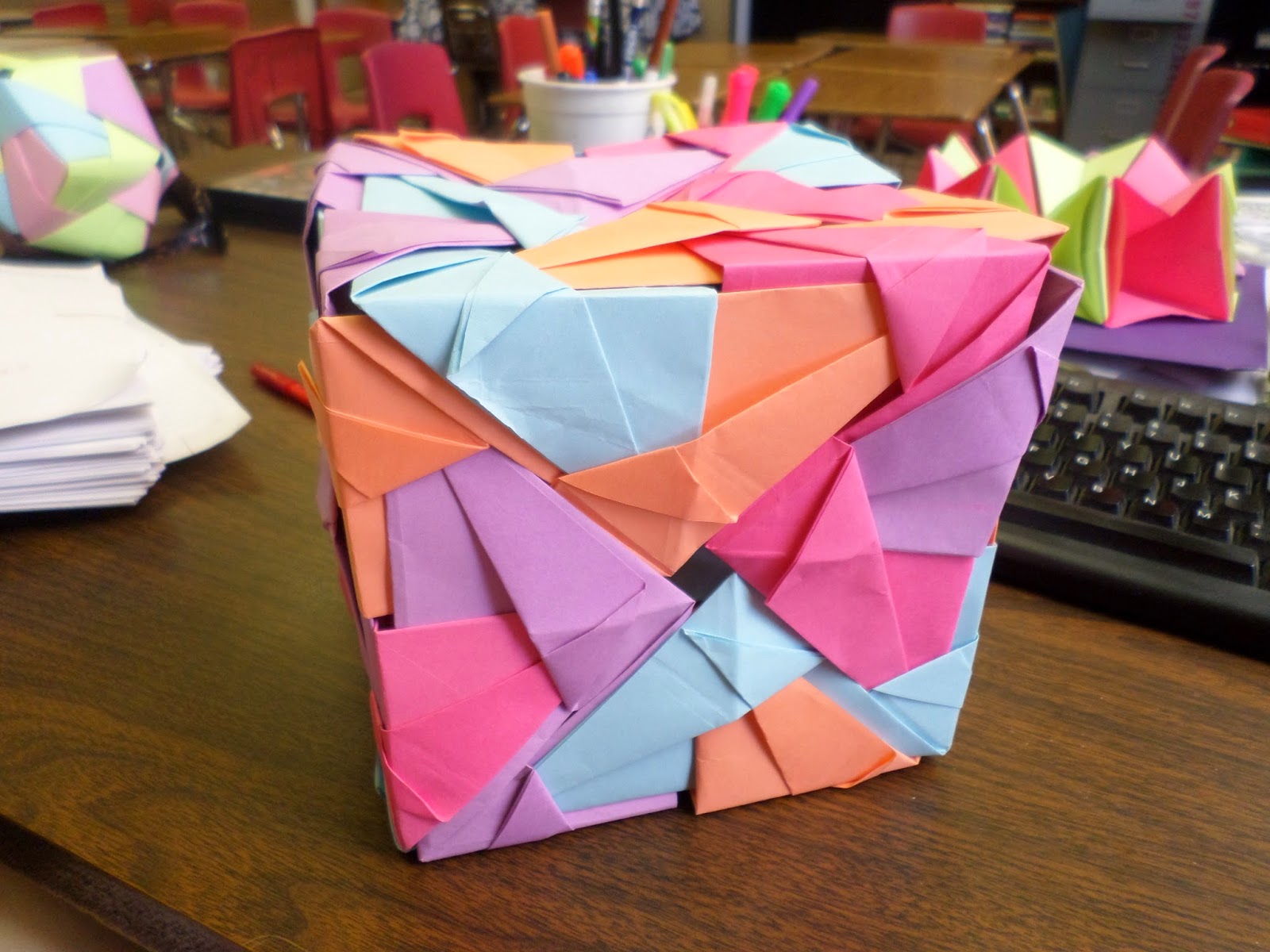
A flapping bird courtesy of one of my students.
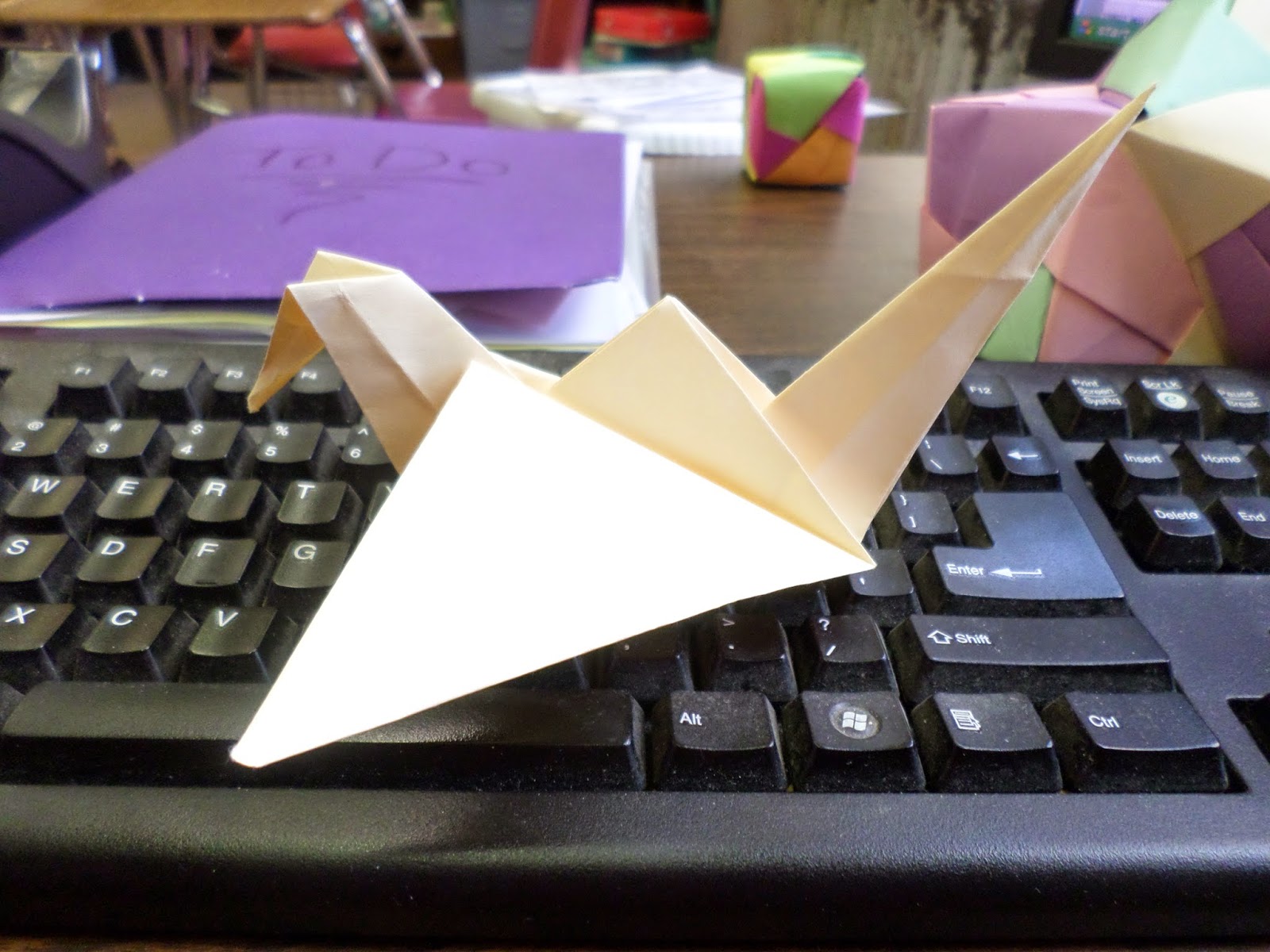
A tetrahedron made out of a single square of paper. Not as exciting as I thought it was going to be.
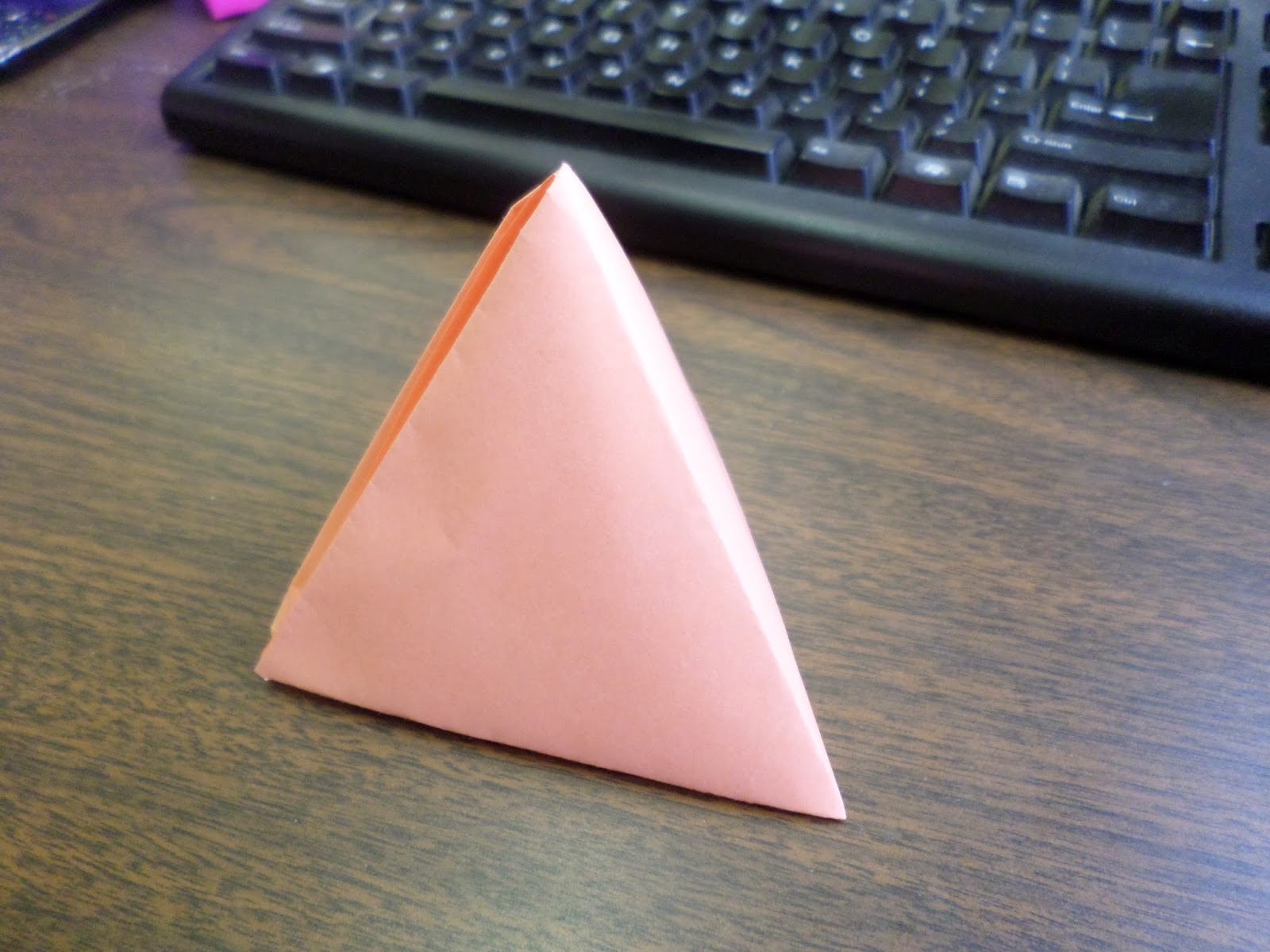
My love for origami grows every year! It’s fun to see my students excited about making and creating things. They are learning some valuable lessons in following instructions along the way, too! (And, these are just the origami projects left behind by my students. They’ve made all kinds of other cool projects and taken them with them.)
May 14, 2014 – Answers That Make Me Shake My Head
As the school year winds down, the attention and care that students give to their work decreases. These are some pictures of actual answers I found on homework during the last week of school
Do you ask your students to put the date on their assignments? Me too! This student took my date request a little differently than I intended.
I’m relieved to know that “we’re just friends,” and my student doesn’t want to date me! Phew!
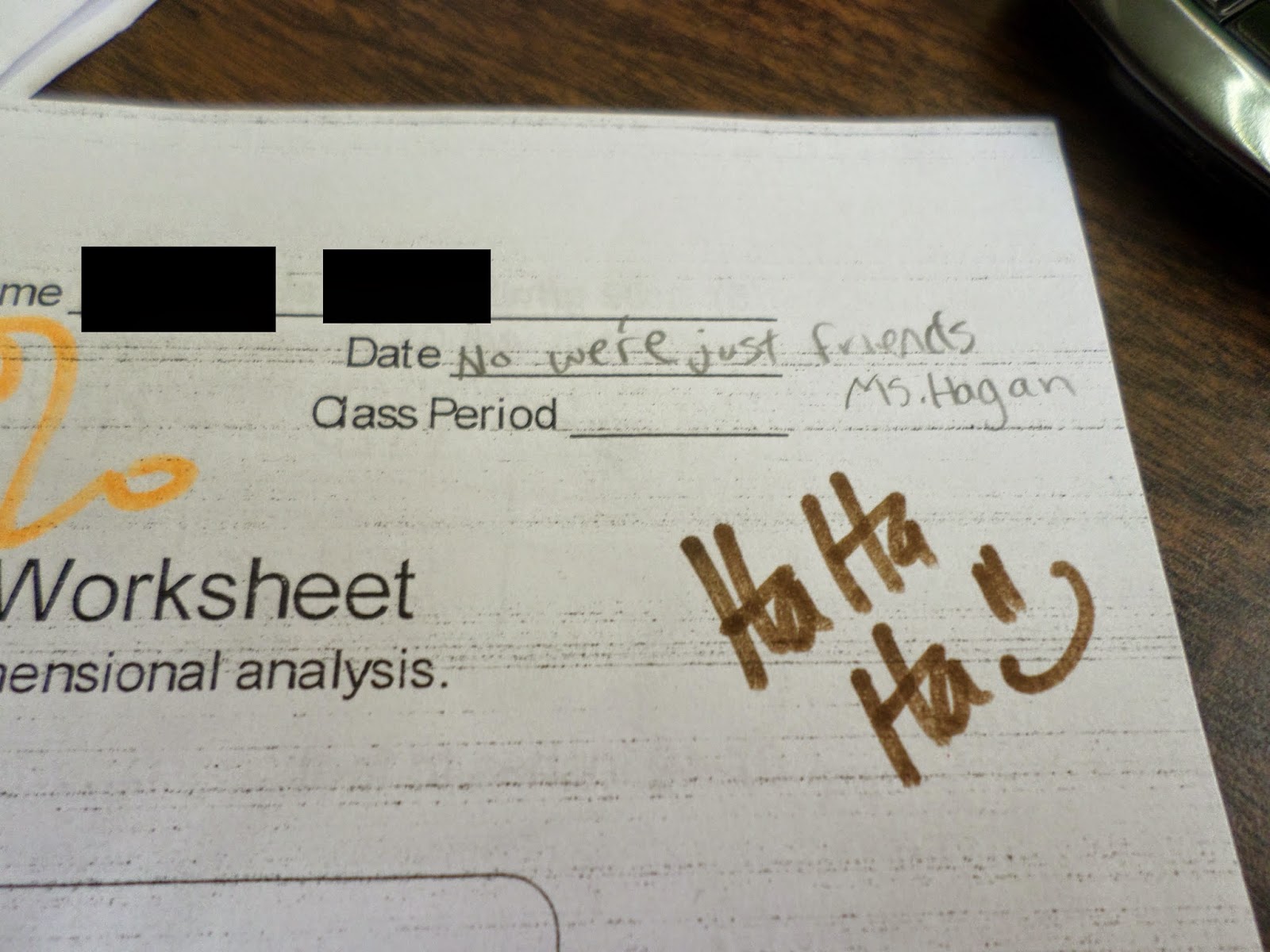
Okay, this one isn’t an answer, but a drawing below an answer. Let’s play a game. What’s wrong with this picture?
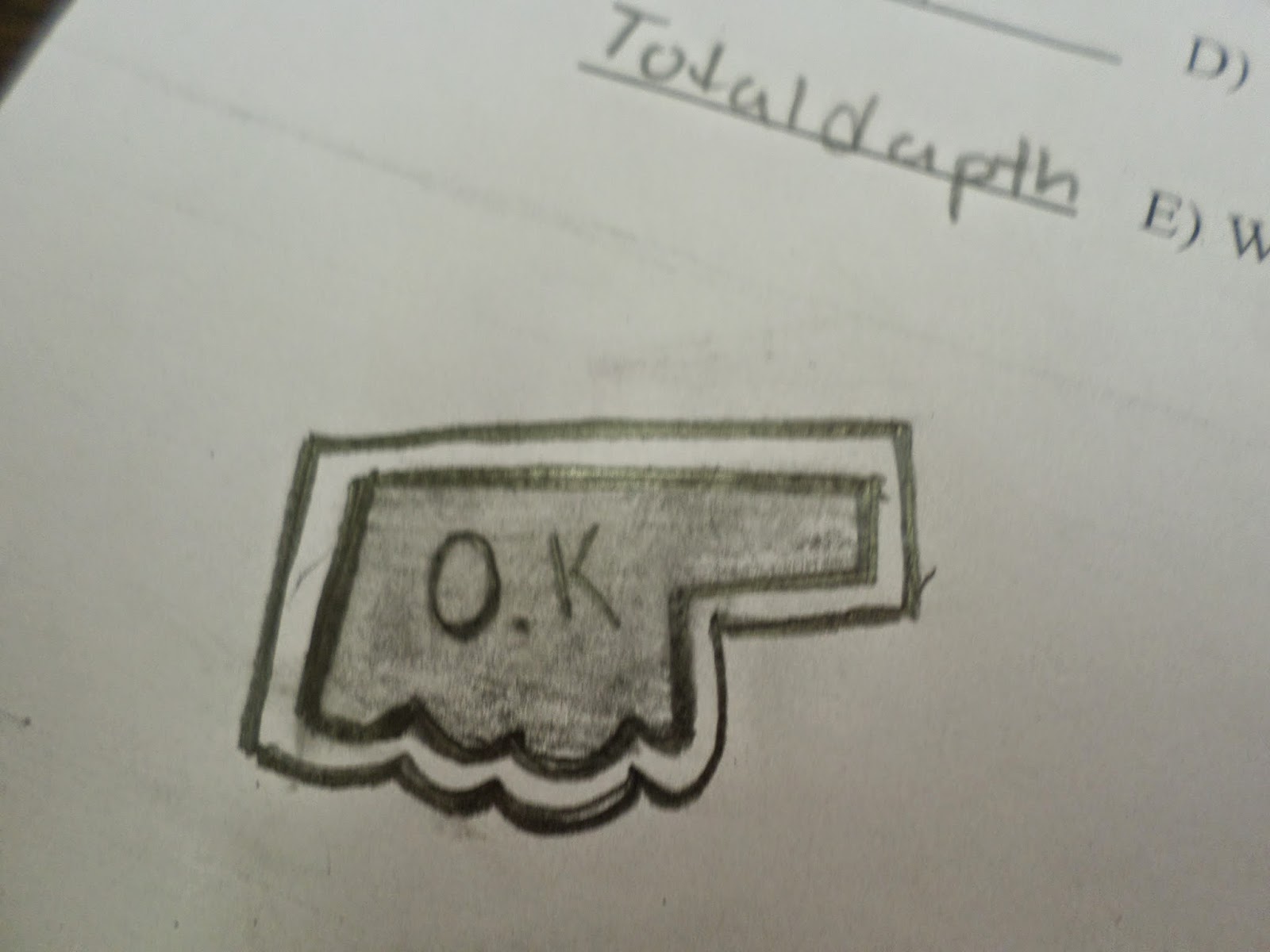
As part of the OGAP workshop I attended last summer and will attend this summer, I had to administer a pre- and post-test to my students. My students are done with their EOIs, and they knew I wasn’t going to be giving them a grade for this post-test based on accuracy. (This is our last year with our old standards, and this test is based on the new CCSS. Therefore, many of the questions covered things that are not currently included in our Algebra 2 class.) That shows in their answers!
Complex fraction woes.
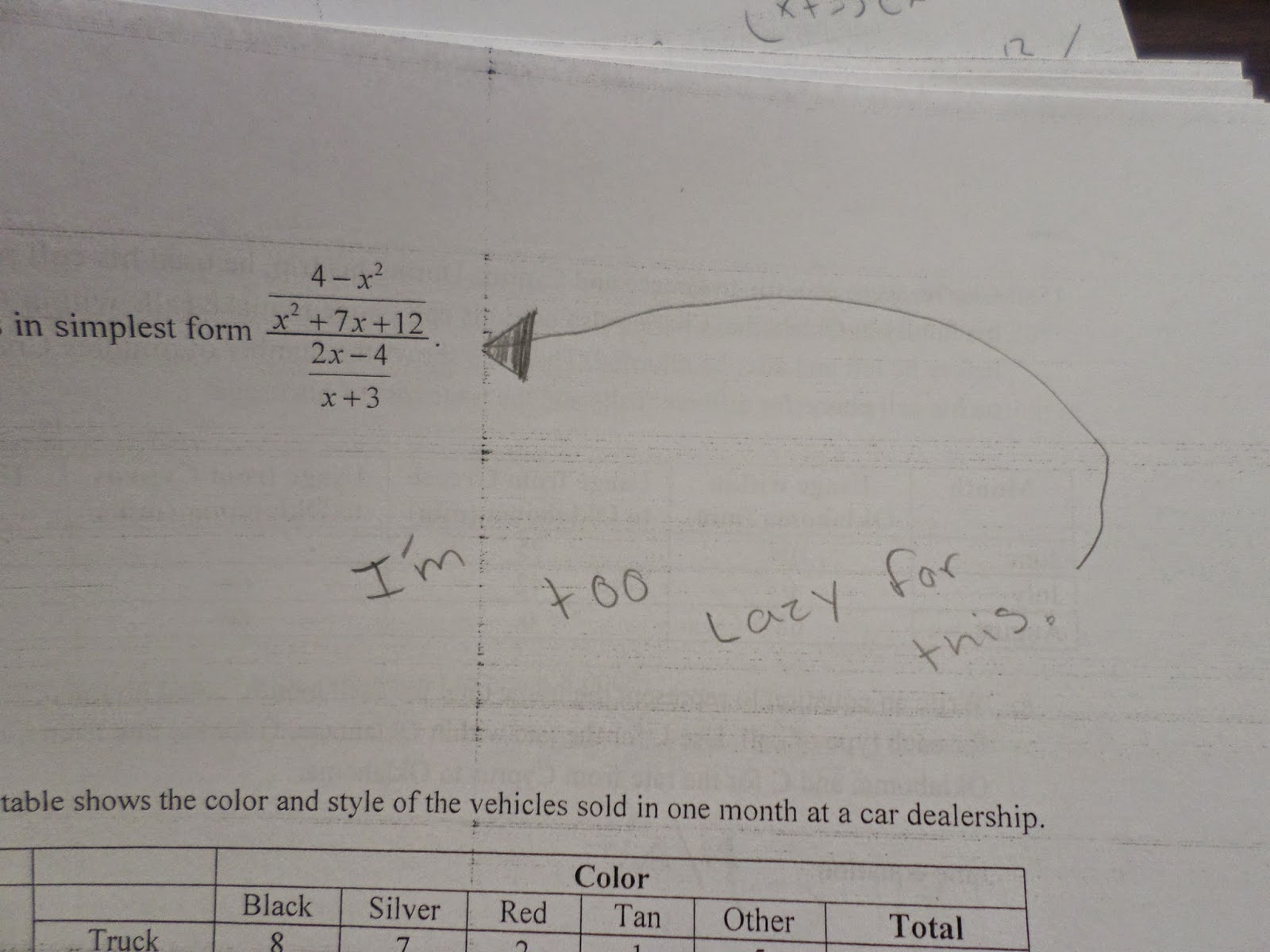
Rewriting the problem makes it look like you did something.
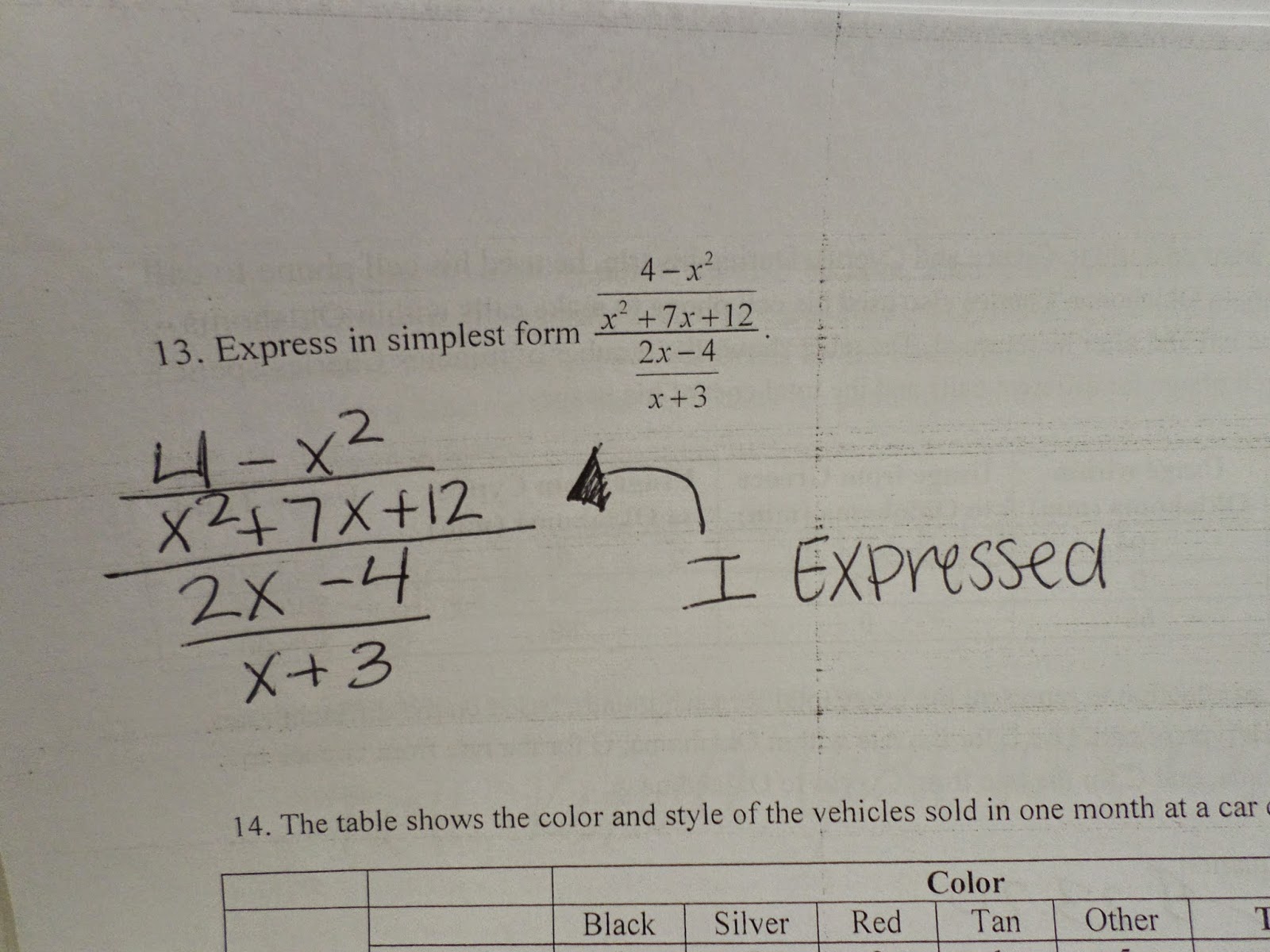
Apparently, people like red cars.
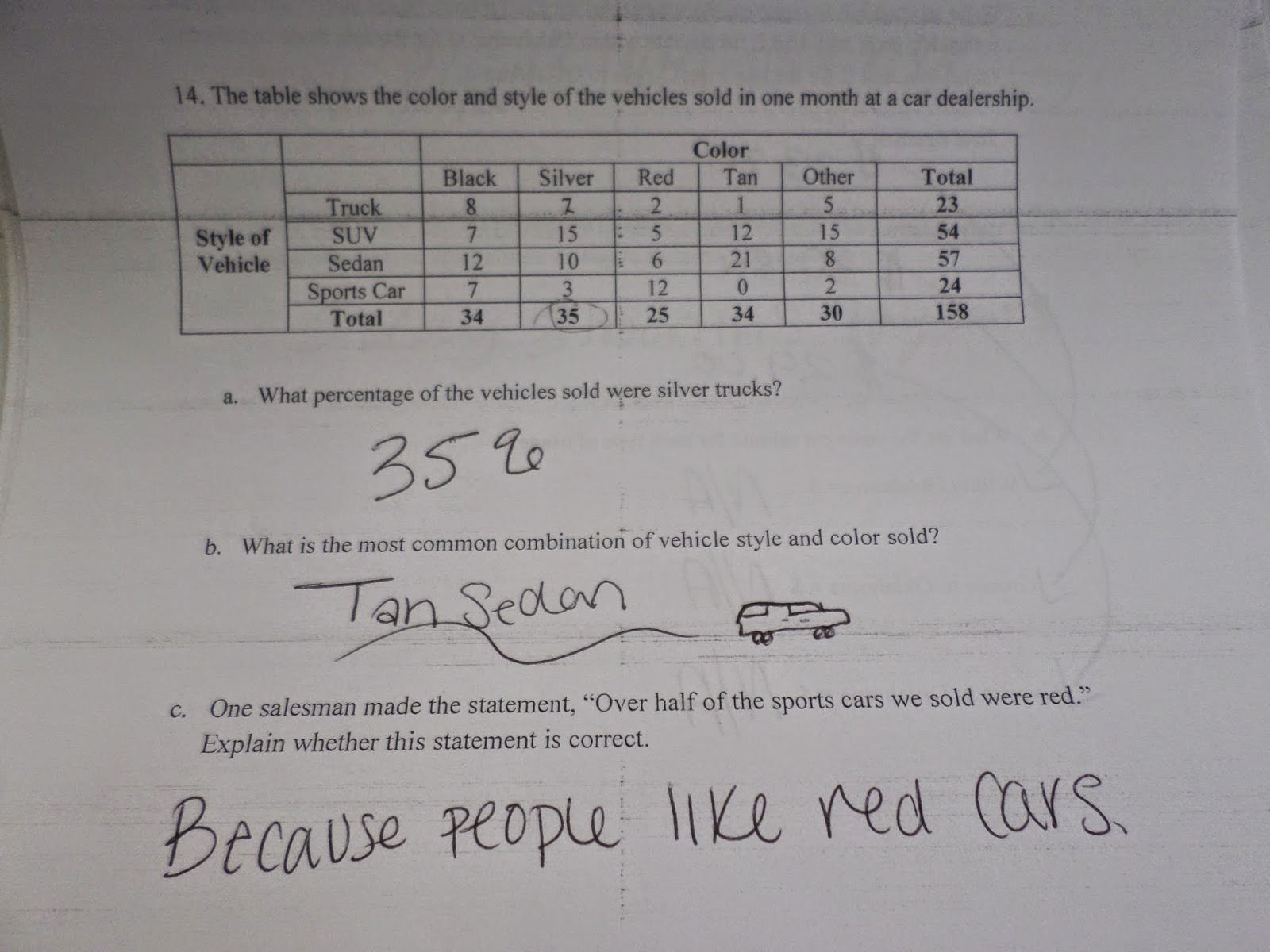
My least favorite three letters in the world: IDK.
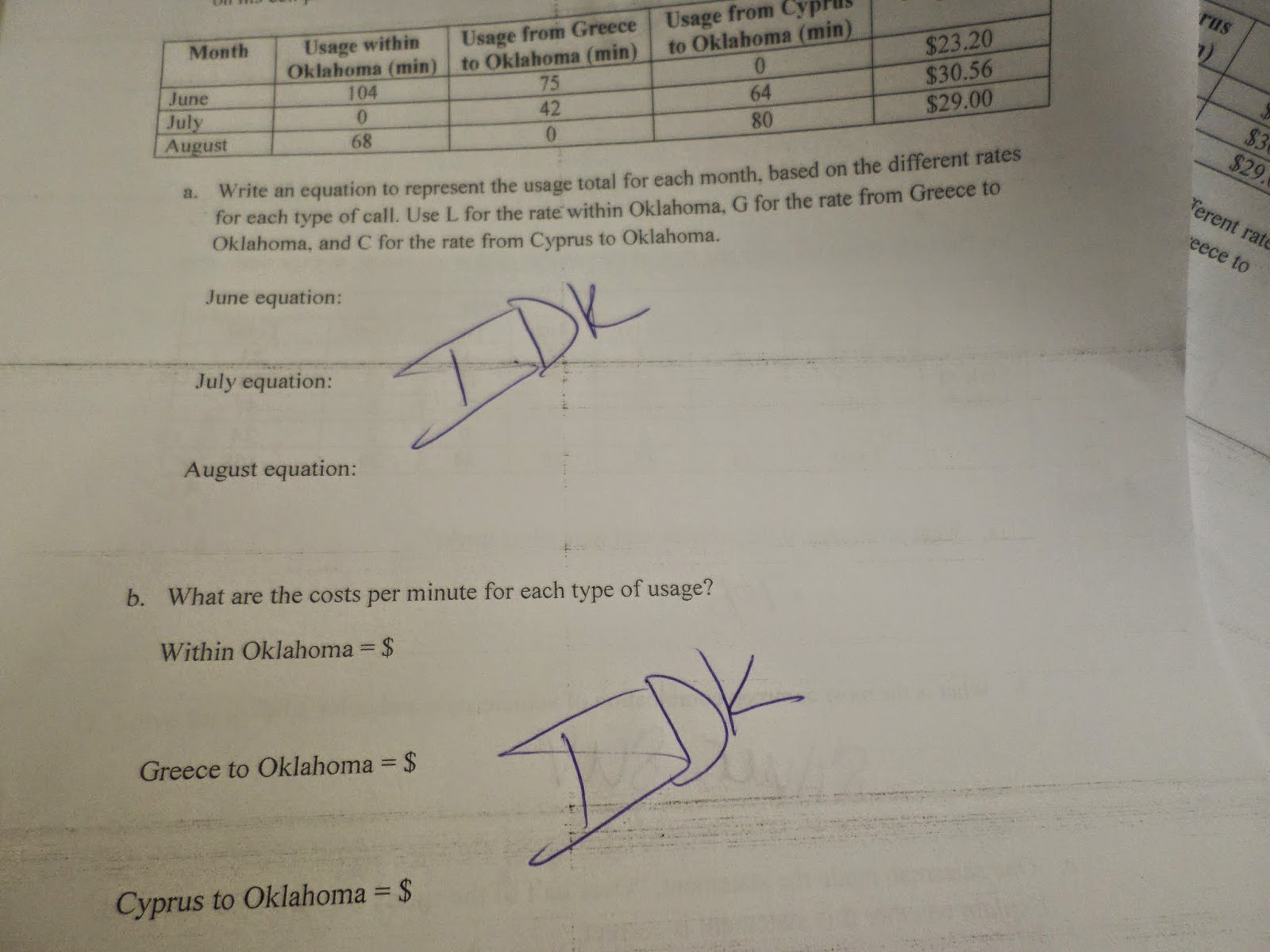
Light years and incorrect grammar. Oh my!
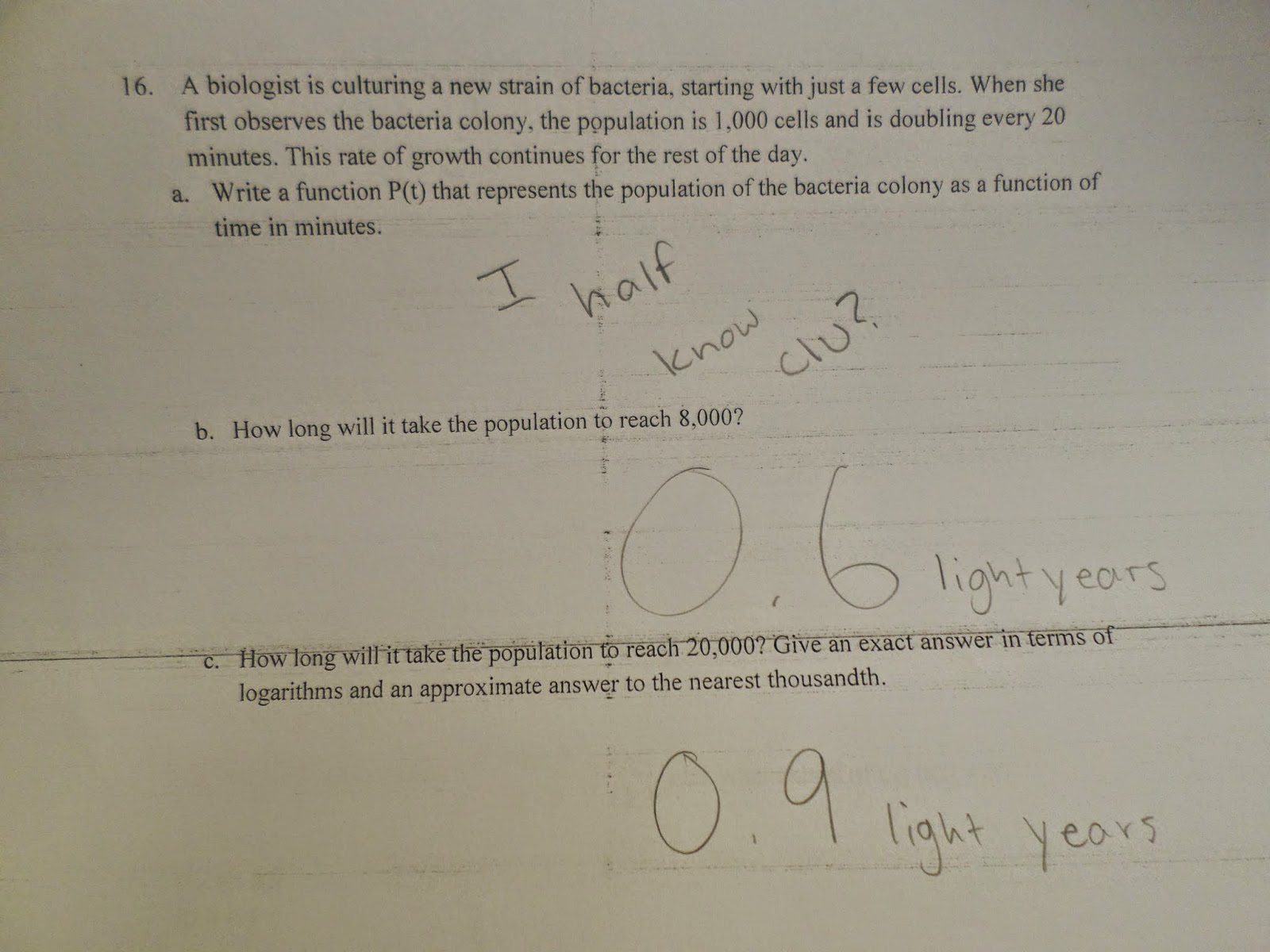
When all else fails, write random words in the answer blanks.
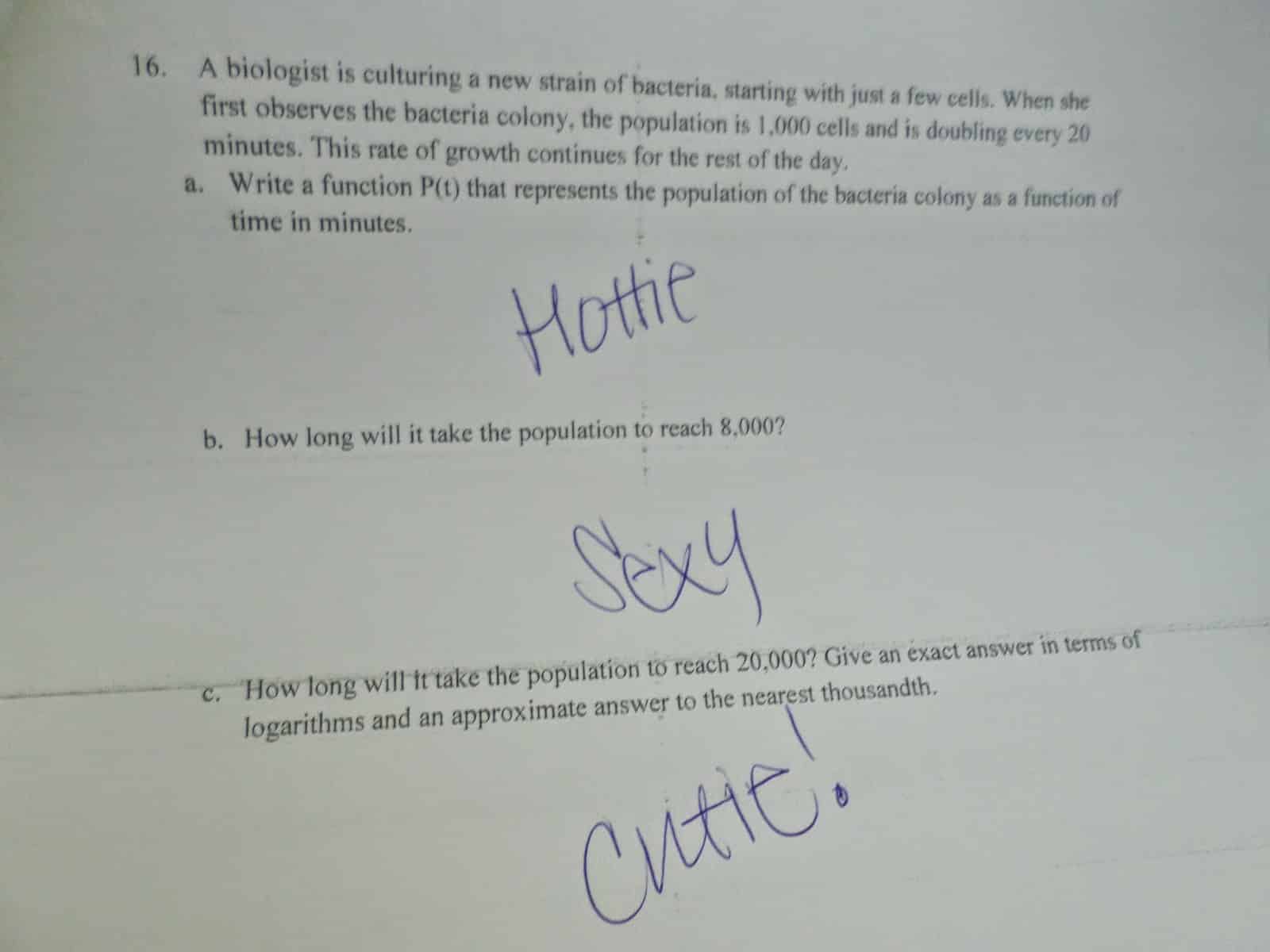
Or, draw a picture of your heartbeat upon seeing the problem.
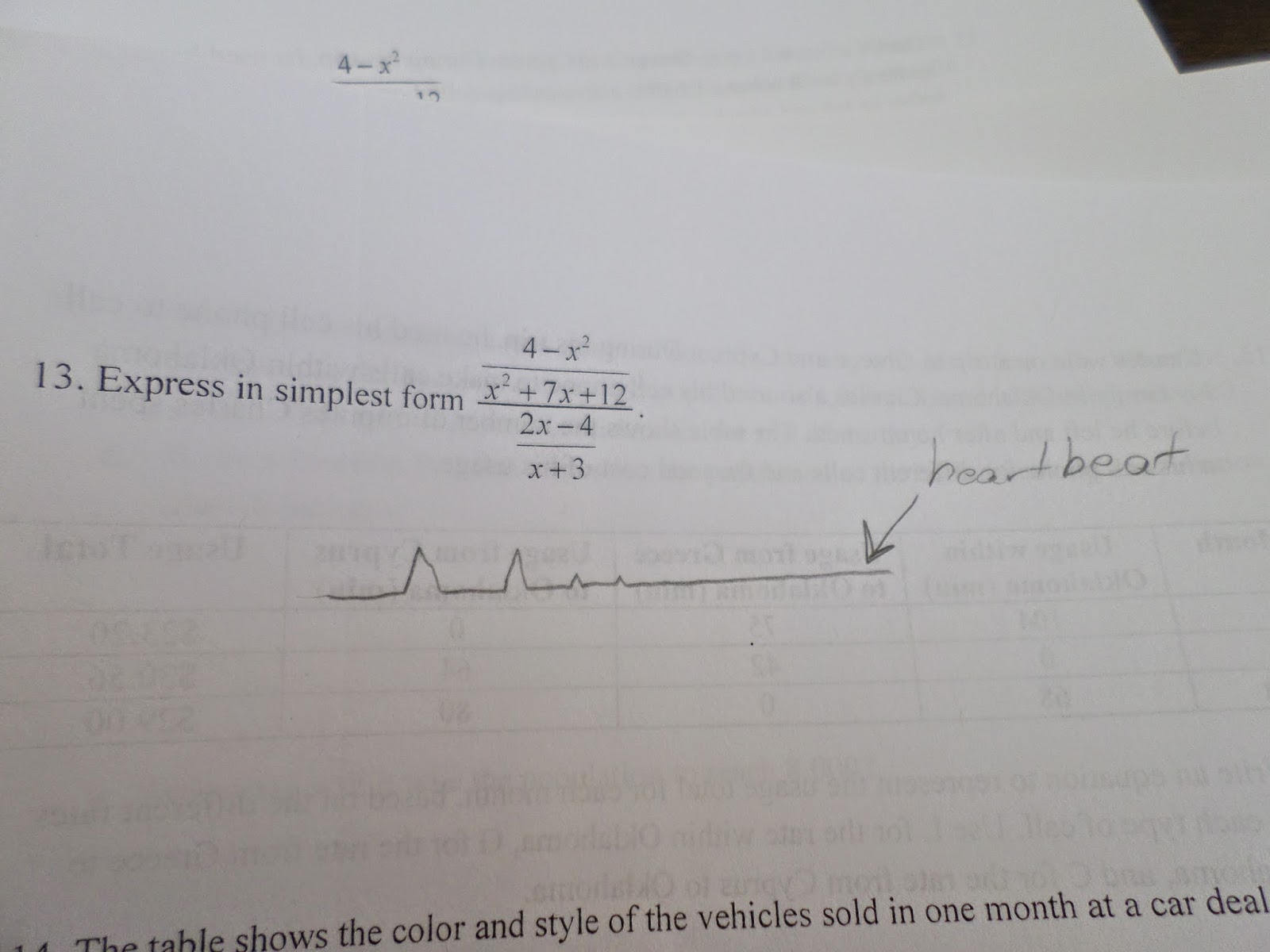
I’m so thankful that it is practically summer! My students need a break, and I need a break, too!
May 19, 2014 – Weekly Schedule
I’m really slow at catching onto things sometimes. Okay, a lot of times. I can hear a piece of advice or read it in a book a million times, but a lot of times I have to do just the opposite and learn the hard way.
Consistency is key. Students crave structures and routines. Yes, I heard this throughout college. Most books on classroom management and setting up your classroom give this advice. Yet, it’s something I’m still in the process of learning.
As I reflect on my second year of teaching, one of the best changes I made this year was to set a weekly schedule. Wait. Set isn’t the right word. That would imply that I planned this out from the beginning. I didn’t. Remember, I like to learn things the hard way. I ended up developing this weekly schedule over the course of this past year, and I can’t imagine going back now.
Mondays – Good Things
Wednesdays – Weird and Wacky Wednesdays
Fridays – Friday Funnies
Good Things
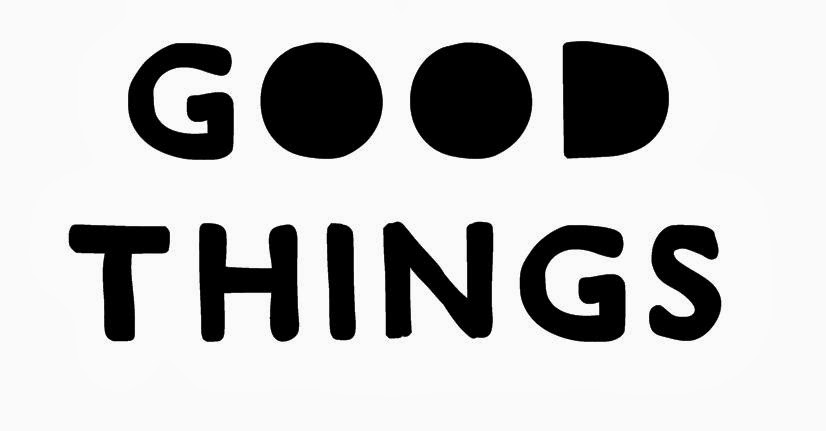
Let’s start with where this all started. Good Things Mondays. I’ve blogged about this before, but here’s the gist. Every class starts out with bellwork. After going over the bellwork, we spend a couple of minutes on something fun and totally non-math related if it is Monday/Wednesday/Friday.
On Mondays, students have the opportunity to share something good that has happened in their lives lately. I love this routine for several reasons. It gets some kids talking who are normally very quiet and shy in class. Students get a chance to share a piece of their lives with the class that I normally wouldn’t get a chance to be a part of. A good thing can be something huge like getting their driver’s license or something small like getting a chance to sleep in over the weekend. Students love to talk about the movies they saw, the fish they caught, or the places they went.
I try to keep it positive. I really do. But, my students love to share bad things, too. This year, I let them share basically anything that was school appropriate. But, I think I’m going to make it where I only allow good things on Mondays. Somehow, someway, I want to give students the chance to earn the opportunity to talk about Bad Things. I’m thinking about some sort of point structure where classes earn points for attendance, no tardies, 100% completion rate on homework, etc. Then, these points can be exchanged for Bad Things, Brain Breaks, Set, Witzzle, etc. Any ideas on this would be greatly appreciated!
Depending on how many students want to speak, Good Things usually takes 3-4 minutes. I have had to learn to set a limit on how many things students may share. I also always try to make a point to share a good thing of my own. Students want to know more about me outside of the classroom, and this is an opportunity to share some of my passions with them. Monday is usually a day that students (and sometimes teachers) dread. Good Things makes it better. I can’t tell you how many times I would hear one of my students proclaim, “It’s Monday. That means it’s time for Good Things!” They would not let me forget about Good Things. If we didn’t have school on Monday, they would insist on having Good Things on the first day we came back from the break.
I started Good Things in September after experiencing it at a professional development workshop that my district provided. The first couple of times that I did it with students, it felt kinda awkward. I think students just aren’t used to being asked to participating in this type of sharing in the classroom. But, they quickly warmed to the idea. As far as I know, I’m the only teacher in my building using this strategy. One thing I have worked on and need to continue to work on is making sure that the other students are politely listening and not talking while a student is sharing his or her good thing. My students get so excited about talking about their good things that they can’t stop. Their seatmates start asking them questions, and pretty soon half the room is talking. Maybe I could build this into the point structure. If students start talking during Good Things when it is not their turn, the entire class loses a point???
Friday Funnies
Due to the overwhelming popularity of Good Things Mondays, my students started requesting that we have other fun things on other days of the week. In October, Lisa Henry posted about doing Friday Funnies with her students. Every Friday, she shares a math-themed comic strip with her students. I loved this idea, and I thought my students would, too. I started the year off with math comic strips, but it quickly morphed into funny things in general. Knock Knock Jokes. Silly Jokes. Comics. Funny pictures off pinterest. These were only sometimes math related.
On some Fridays, I would give students a chance to tell their own (school appropriate!) jokes. One student was convinced that Friday Funnies were just like Good Things Mondays. So, he would raise his hand every Friday to share something funny that had happened to him that week. I never stopped him; it was always interesting to see what he deemed funny.
My students love to bash my jokes. I think they laugh more at their attempts to make fun of my jokes than my actual jokes. As bad as my jokes are, my students would riot if we didn’t have Friday Funnies. When I asked my Algebra 1 students to write letters of advice to future students, several students mentioned my jokes:
- Laugh at Ms. Hagan’s jokes to make her feel better.
- Miss Hagan is a really good teacher and I think you will like her class. Another thing you may like is her jokes even though they aren’t really funny.
- If you want Ms. Hagan to feel good and have a good day, tell her to tell jokes. Then, laugh even though they aren’t funny.
- Also, her jokes. Some are funny and some you’re just like “Miss Hagan!” And, that’s what makes you laugh.
- Hey, she always tells jokes so make sure you laugh. 🙂
Friday Funnies creates memories. And, even if they are laughing at my expense, I’m glad to see smiles on the faces of my students. I teach in a largely poor, rural school, and many of my students have seen and experienced things that I can’t even imagine. They are so young, yet their life stories are already filled with abandonment, rape, abuse, incarceration of one or both parents, neglect, and more. It’s a different world than the one I grew up in. Friday Funnies is a small thing I can give my students, but I believe that small things add up.
Weird & Wacky Wednesdays
The last and most poorly executed addition to our weekly schedule was Weird and Wacky Wednesdays. Do you ever hear an interesting story on the radio or visit an interesting link and want to share it with your students? This was my attempt at doing just that.
Here are some of the things we explored on Weird and Wacky Wednesdays:
What Day of the Week Were You Born On?
Food Art (Are you sensing a theme?)
Crazy Laws That Are Still on the Books
Man Sets World Record For Typing With Nose
Childhood Pictures of Myself Exploring Various Careers (Scanned and captioned by my mother!)
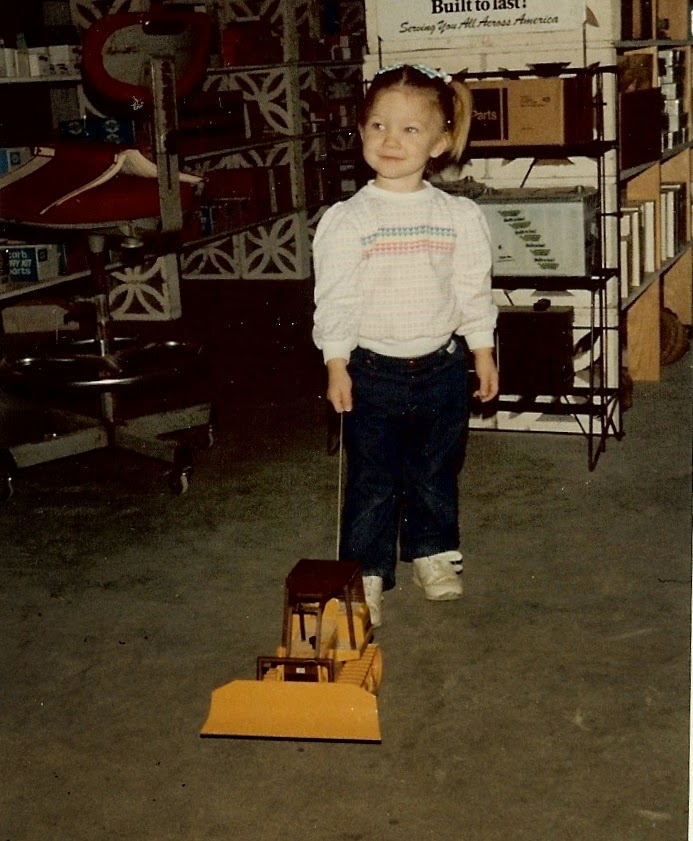
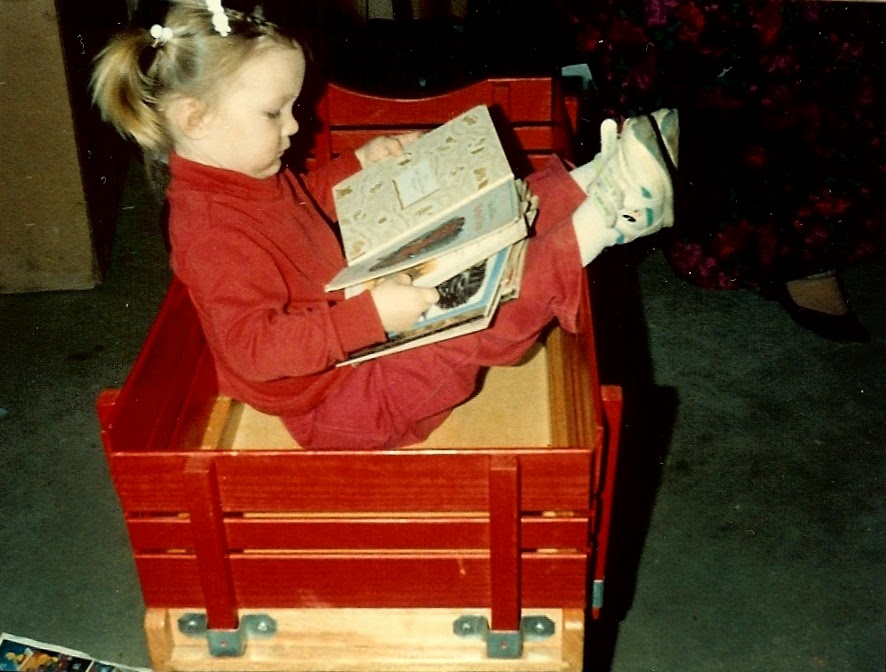
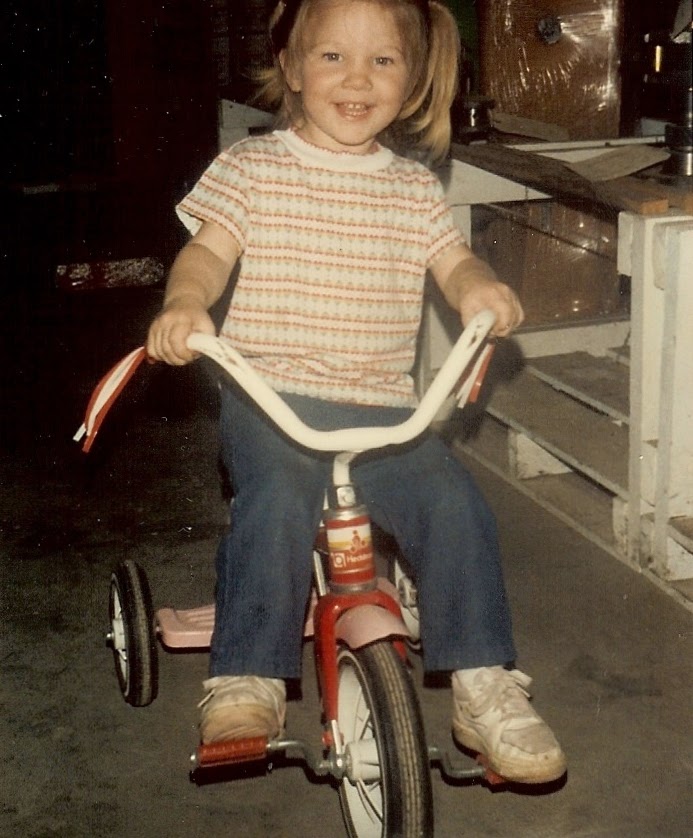

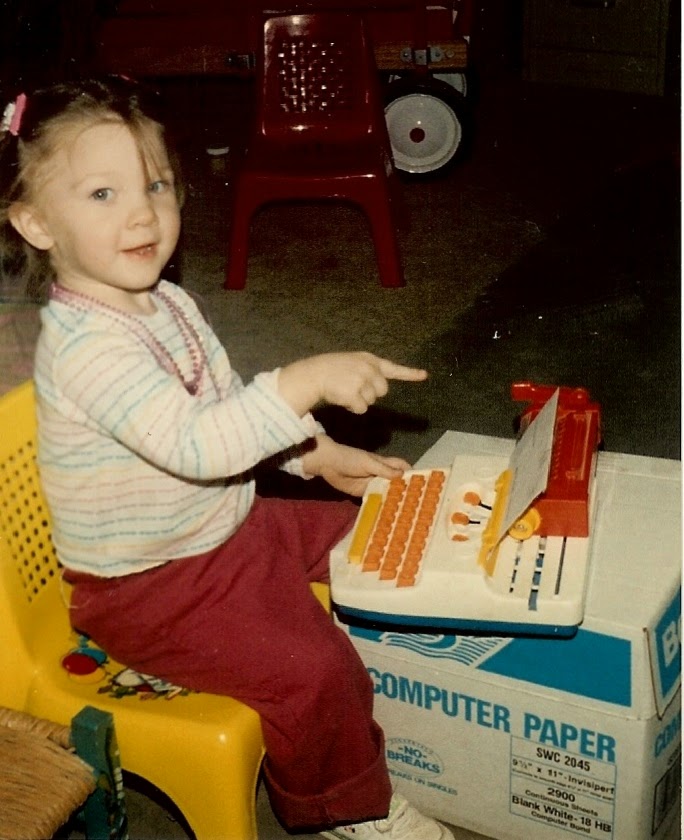
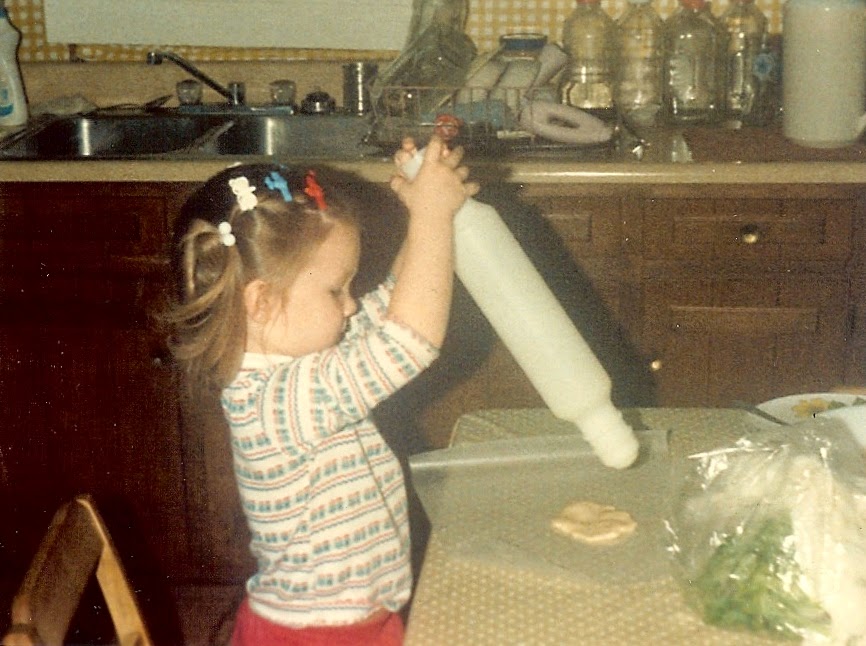
My students craved the consistency that this weekly schedule provided. If it was Monday, they wanted and expected to do Good Things. On Wednesday, they expected me to have something weird/interesting to share with them. And, on Fridays, they demanded jokes. Next year, I plan on revamping my weekly schedule.
My current brainstorm: (Subject to Change)
- Monday – Good Things + Mental Math Monday
- Tuesday – Trivia Tuesday
- Wednesday – Witzzle Wednesday
- Thursday – “Tease Your Brain” Thursday (Brainteasers)
- Friday – Friday Funnies
Next year, my aim is to have procedures and structures for EVERYTHING. I think it will help immensely with my classroom management.
I ended up writing out my weekly bellwork schedule for 2014-2015 here.
May 20, 2014 – Things Teenagers Say Volume 13

Me: More work and less selfies!
—
Algebra 2 is probably the math class I learned the most in. I love the notebooks. They were my favorite thing.
—
Me: I want to be a spy.
Student: You’d be a good one. No one would ever expect you would be a spy!
Was that a compliment or an insult?
—
While playing Taboo…
Student 1: This is what you call the person who comes into your house to put carpet down.
Student 2: Carpenter.
Student 1: Yes! Me: Hold up! A carpenter doesn’t install carpet. A carpenter is a skilled woodworker.
Student 1: It doesn’t matter if my clue was right. All that matters is that I got her to say the right word.
—
My sister said that I have to start calling her my cousin when we are out in public together. If I don’t greet her, “Hey Cousin!”, she said she was going to stop talking to me.
—
Student: Why was 6 afraid of 7?
Me: Because 7 8 9. (Seven Ate Nine)
Student: No. Because 7 was a registered sex offender.
—
I always make sure I ask a guy at least a few questions about himself before I agree to date him.
Yes, that would be wise!
—
Usually, I don’t eavesdrop too much on my students’ conversations. But every once in a while, there are those pieces of conversation that just jump out at you. And, you can’t help but listen.
Student 1: The store across the street turned out to be a lingerie store.
Student 2: A lingerie store?!?
Student 1: Yes Student 2: You mean a store with like brassieres and stuff?
Hearing a freshman boy use the word “brassiere” was almost too much for me. He said it like it was the most normal thing to say.
—
You have the cutest cough ever.
Thanks?
—
After getting my hair cut over Spring Break:
You don’t look like us anymore. You actually look like a teacher.
—
Student: Do you want to watch this video?
Me: No. Student: But, it’s sick!
Me: If it’s sick, I especially don’t want to watch it.
Student: You need to update yourself. Sick means cool and legit.
Me: Oh, so I need to update myself so I can understand your teenage lingo?
Student: Yes! You need to update to IOS7!
—
Me: How do people decide where to drill for oil?
Student: That’s easy. You just look for where the grass is really green!
Me: What?
Student: Good oil grows where the grass is green.
I’m pretty sure that’s NOT how it works…
—
After taking down all of my decorations and posters for the summer
Your room is naked! It needs to put some clothes on before it gets charged with indecent exposure!
—
Me: What comes to mind when you think of algebra?
Student: Nothing. Nothing comes to mind because algebra destroyed my mind!
—
Me: Would it be possible for a factory to produce negative bicycles?
Student: Yes, if the brand name of the bicycles was negative, a factory could produce negative bicycles.
Me: That’s not exactly what I meant, but touche.
—
How long would Ms. Hagan last in a pen with carnivorous pigs?
—
We’re not friends. We’re giggle buddies.
—
After wearing contacts for the first time:
Contacts make you look more serious.
You have blue eyes!
You don’t look as smart when you wear contacts.
—
Ms. Hagan has some smarticles.
May 20, 2014 – What’s On My Classroom Walls
So, we’re supposed to write a blog post about what’s on the walls of our classrooms. And when someone tells me to do something, I usually do it. Except when I don’t. Like when Kate asked us to post about why we blog. I meant to do that, but I never got around to it. Sorry Kate! And, I never did my Day In The Life post either. I wrote down everything I did for a day, but I’m pretty sure those notes are long gone… Or, back circa 2009, I got tagged in one of those 25 Random Things About Me posts on facebook. I was supposed to write my own list of random things. I put it on my to do list, but it’s 2014 and still undone. Oops… Maybe I should write a list of random things about myself to put on my About Me page. Adding to my to do list right now. Maybe it’ll get done within the decade. 🙂
Seeing as my summer has already started, my decorations are all taken down for the summer. I know some of you are still in school. Don’t hate me! I counted today, and I have 86 days left until school starts back up again on August 14th. And, I have so, so, so much to get done before then!
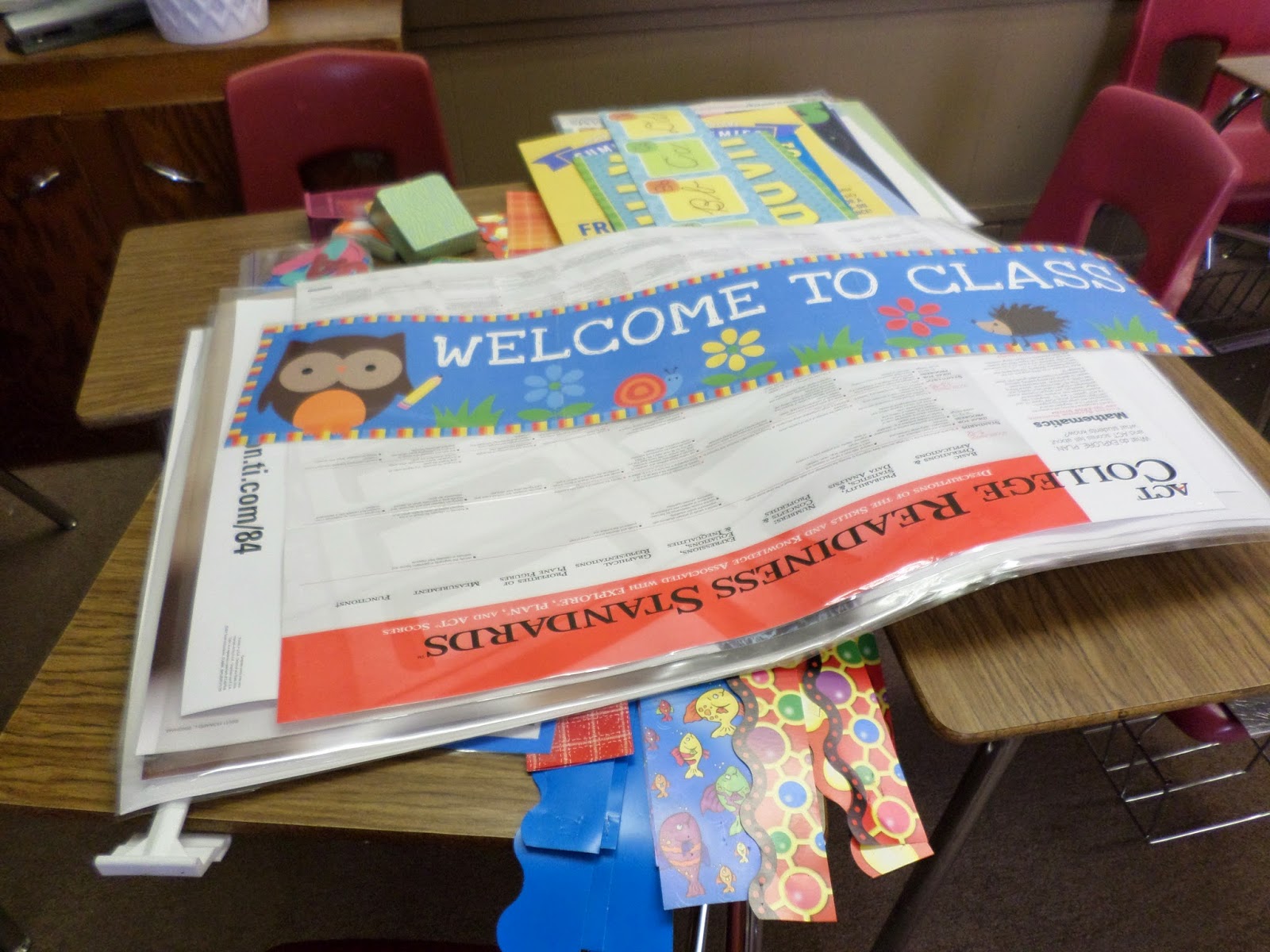
Though my decorations have been packed away, I did manage to find photos of most of my wall decorations to share.
The northwest corner of my classroom had two posters – Nelson Mandela and an aerial shot of a field that was cut/plowed/I don’t know what you call it to look like a vase of flowers. I picked up the aerial photograph poster at a garage sale for a quarter. The Nelson Mandela Poster was in a set of three free posters that I received from The Foundation For A Better Life. You can request your own set of three free posters and a dvd.
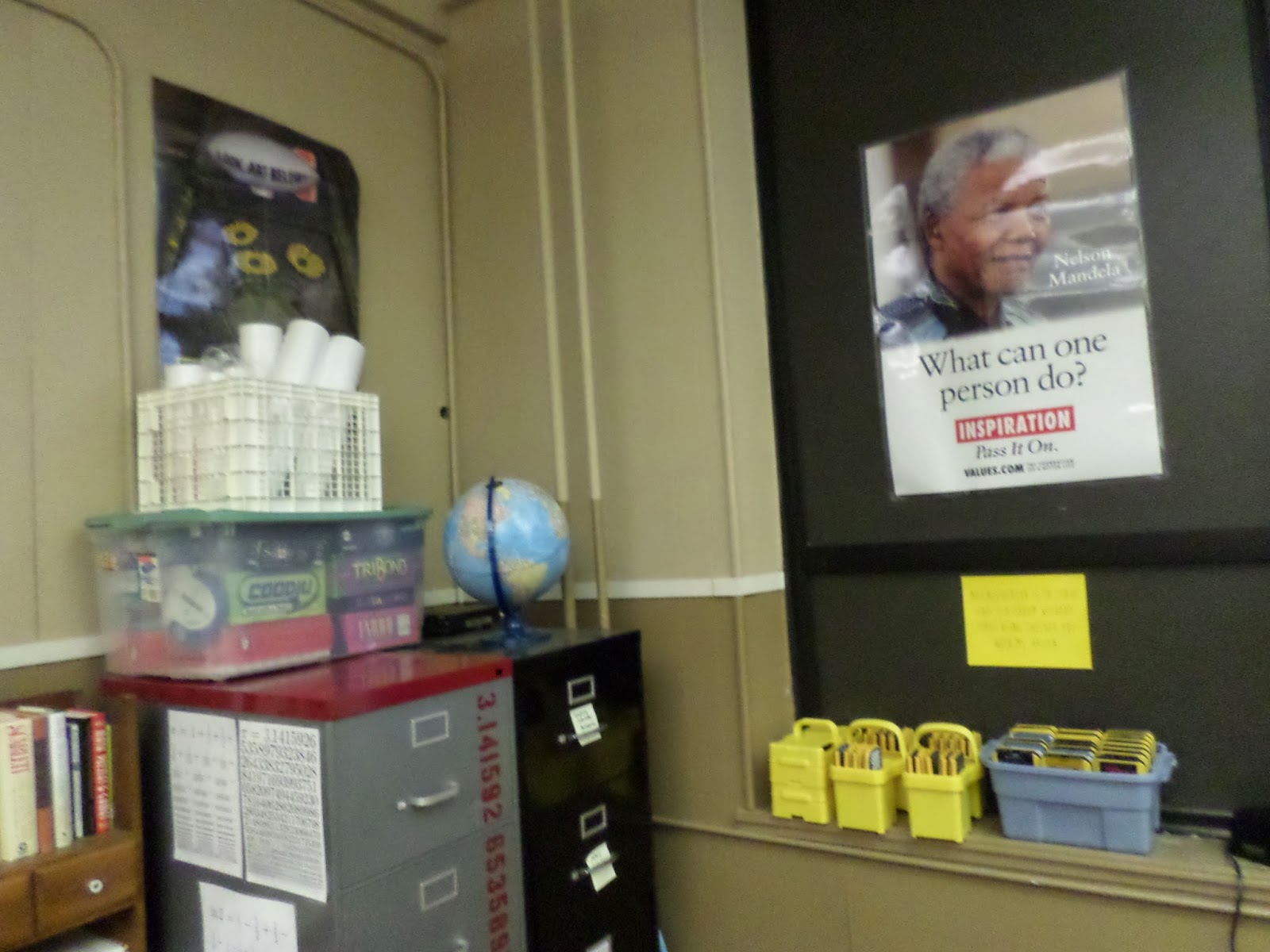
On my cabinet, I posted Truth Signs and various mathematical posters that I printed off the Internet.
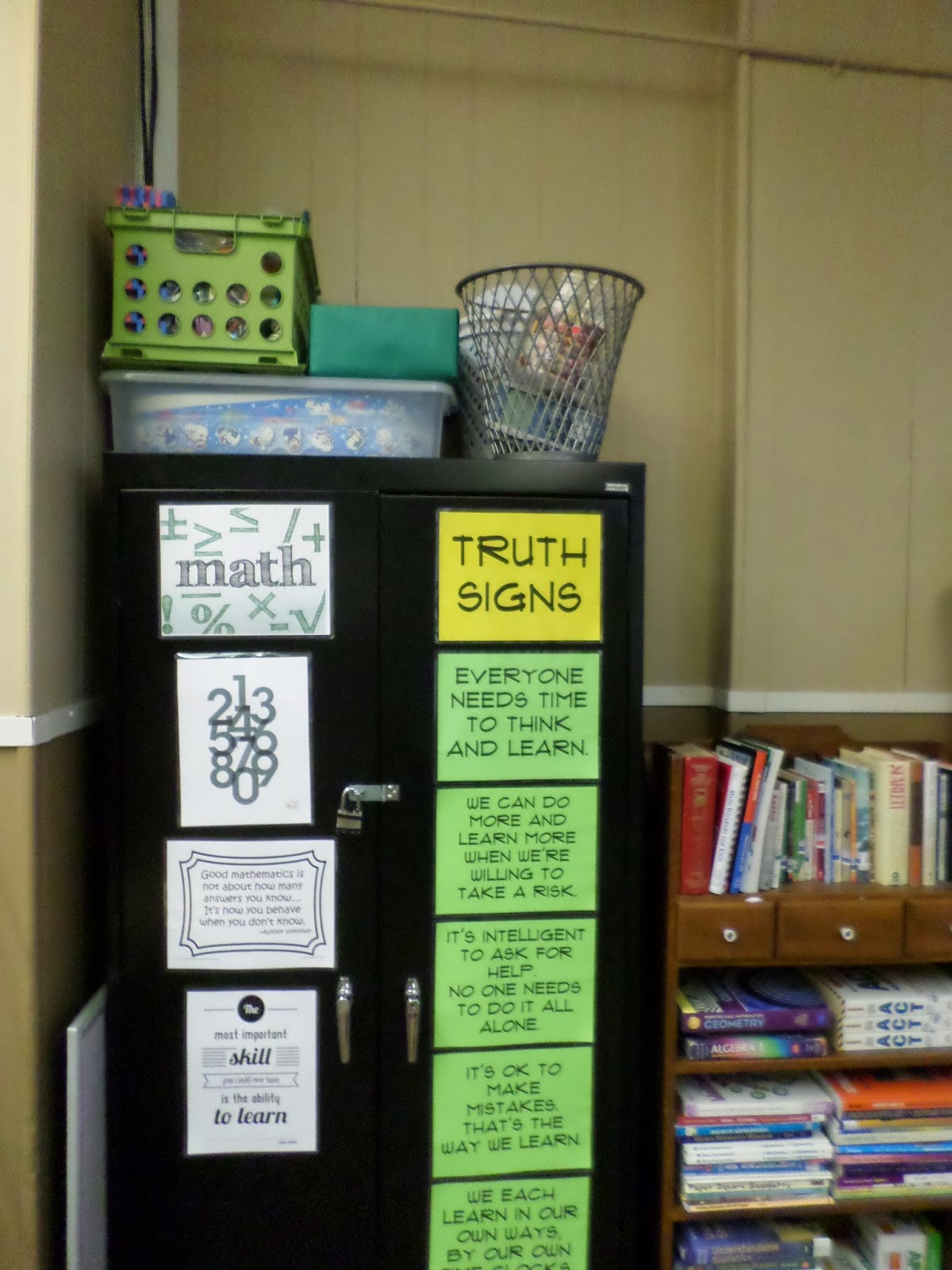
Along the top of my dry erase board, I posted the 8 Standards of Mathematical Practice in kid-friendly language. I got these from Everybody Is A Genius. Above those are posters I saved from NCCTM.
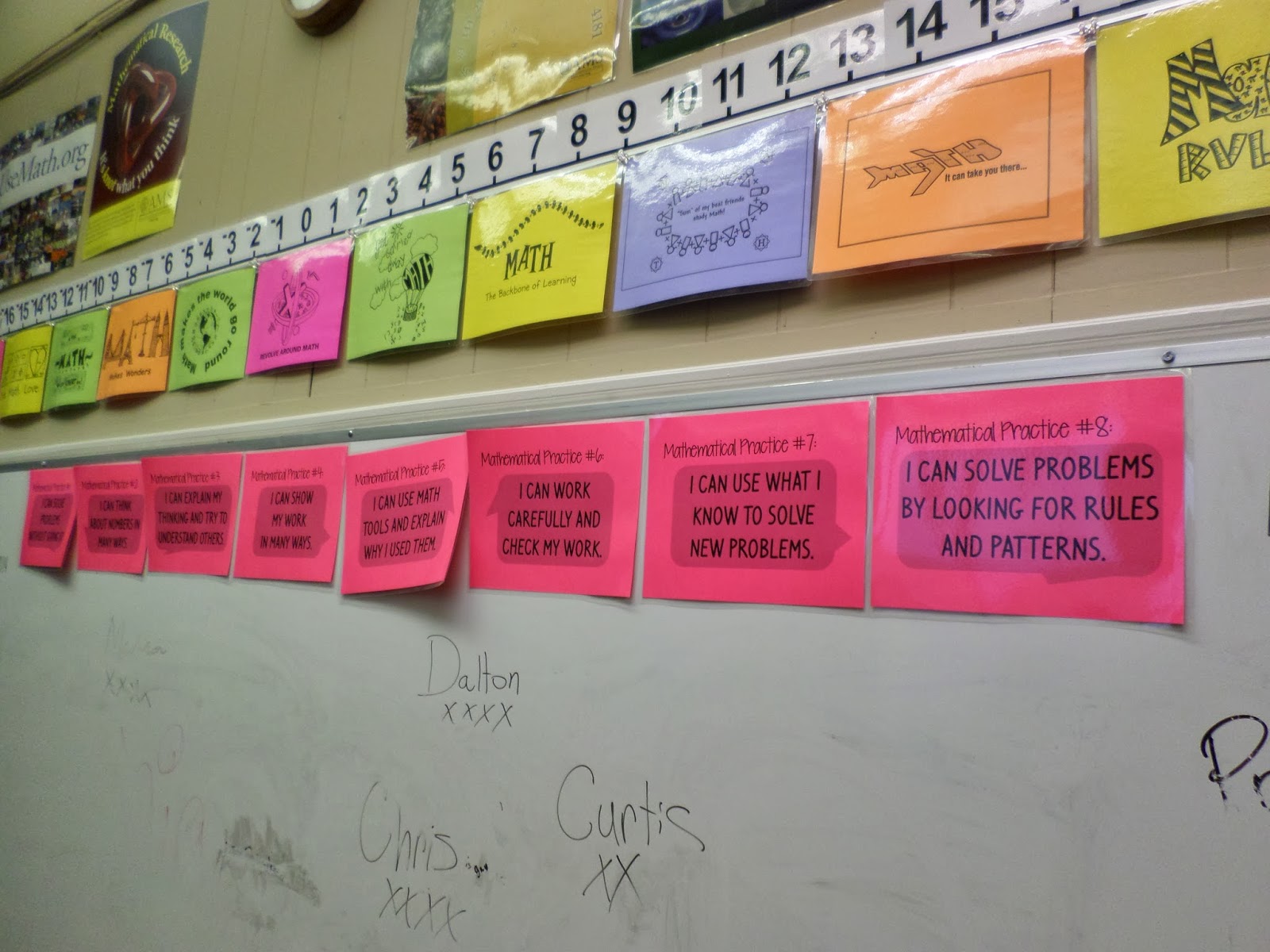
This year, I made one of my bulletin boards into a wall of pride. I wanted to create a place for students to post things they were proud of. I guess I didn’t do a very good job of explaining this because hardly anything got hung up there all year. It soon became more of a place to hang lunch menus and fliers. I did hang up a few things that students colored or made for me. And, during the last month of school, I did have a student make a snowflake and hang it up on the wall of pride. Yes, a snowflake in May.
I also have two flags in my classroom from my alma mater, The University of Tulsa! Go Golden Hurricane!
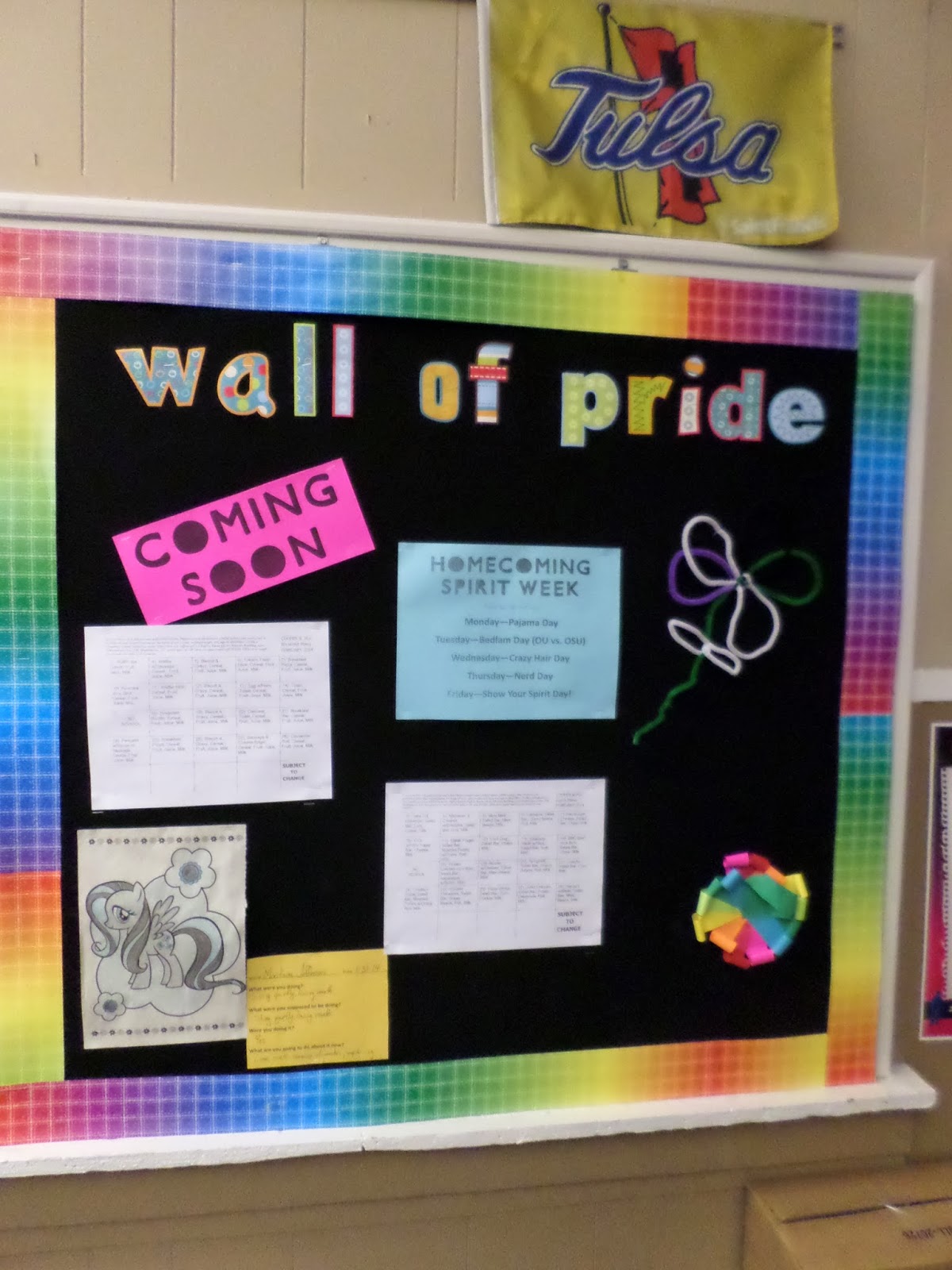
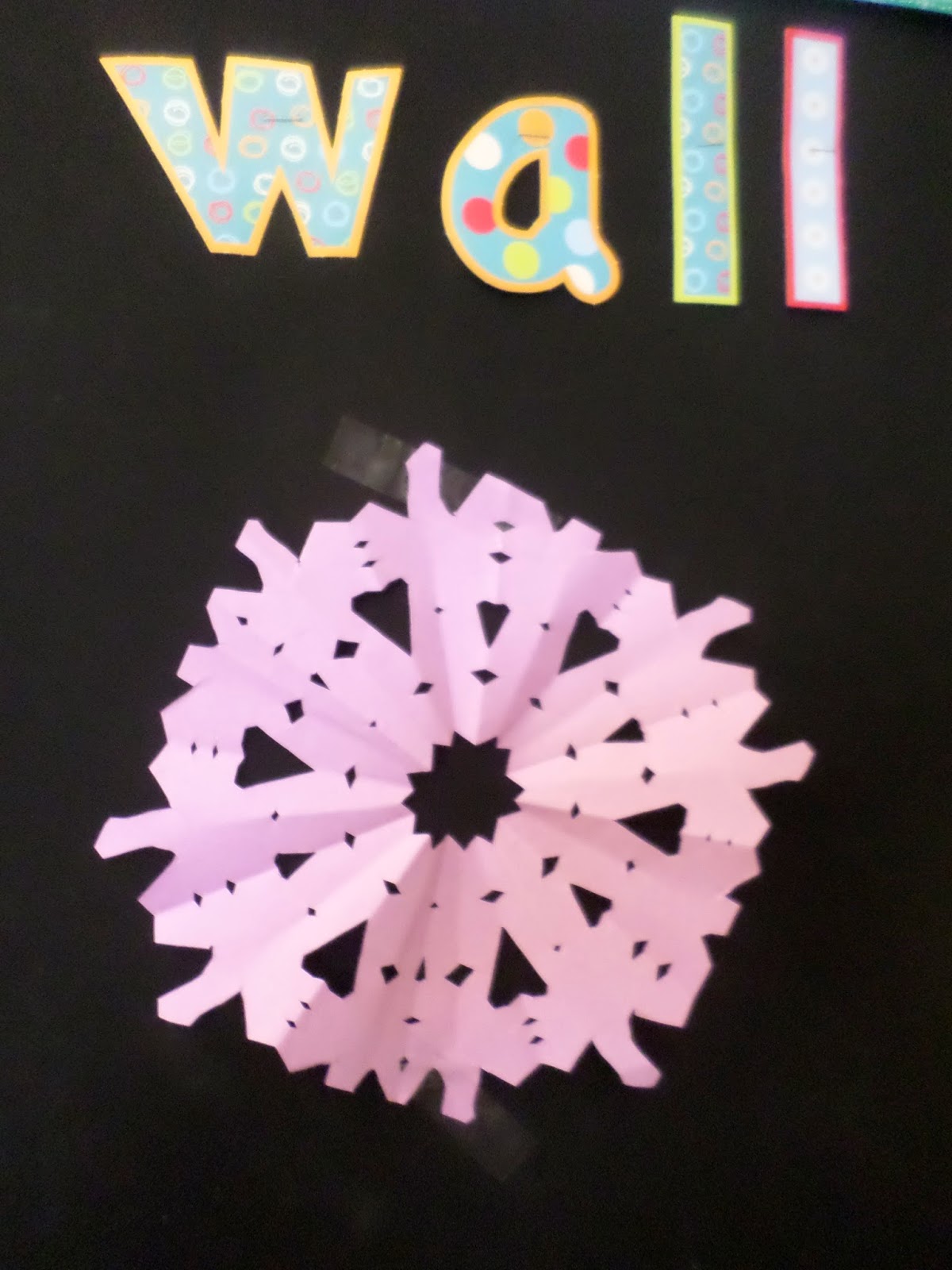
One of the first things students look at when they walk in my classroom is the daily and monthly celebrations that are posted below the date. I look up the crazy holiday celebrations here. The date is always written as a math problem. This drives my students insane. Some will ask me the date in an effort to get out of solving the problem on the board. When they do this, I will read the problem directly off the board in response to their question.

Below the date and holidays, I post a quote of the week. These consist of posters I have found on the Internet and posters of math quotes I have created myself. You can find the posters I created here.
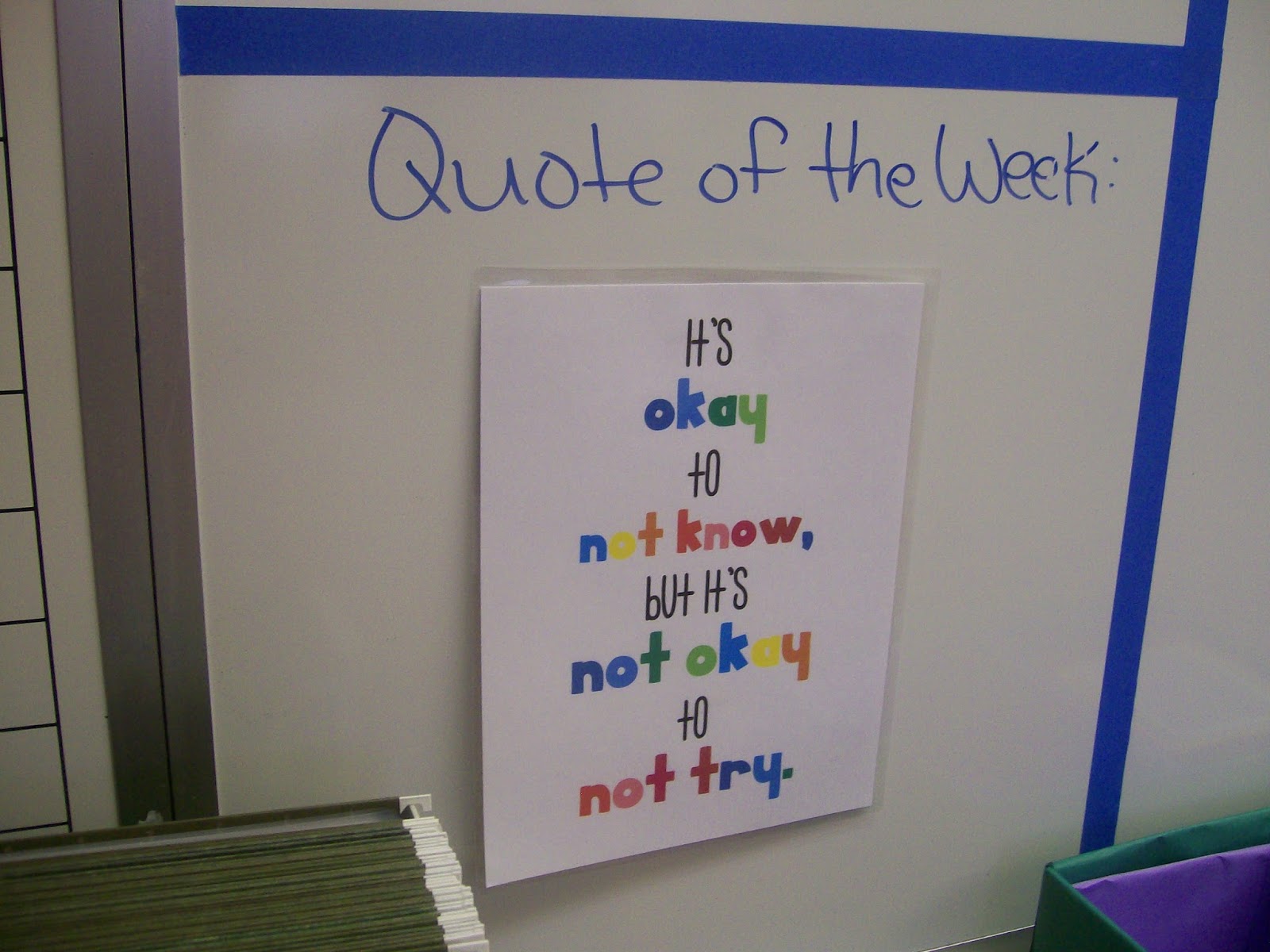
One of my bulletin boards is rather unfortunately placed behind two lovely pipes. It’s certainly not ideal, but you have to learn to live with things like this when you teach in a building that’s been around since 1919. This was a new addition for this year. Students earn their name on a star by scoring at least an 85% on a unit test. Since I’ve started dipping my toes into the waters of SBG, I’m not sure how to modify this or if I should even continue this. My students loved it. They love seeing their names up on the board. My students from my first year of teaching were really mad at me for introducing this because they never got to have their name up on a star when they were in my class.
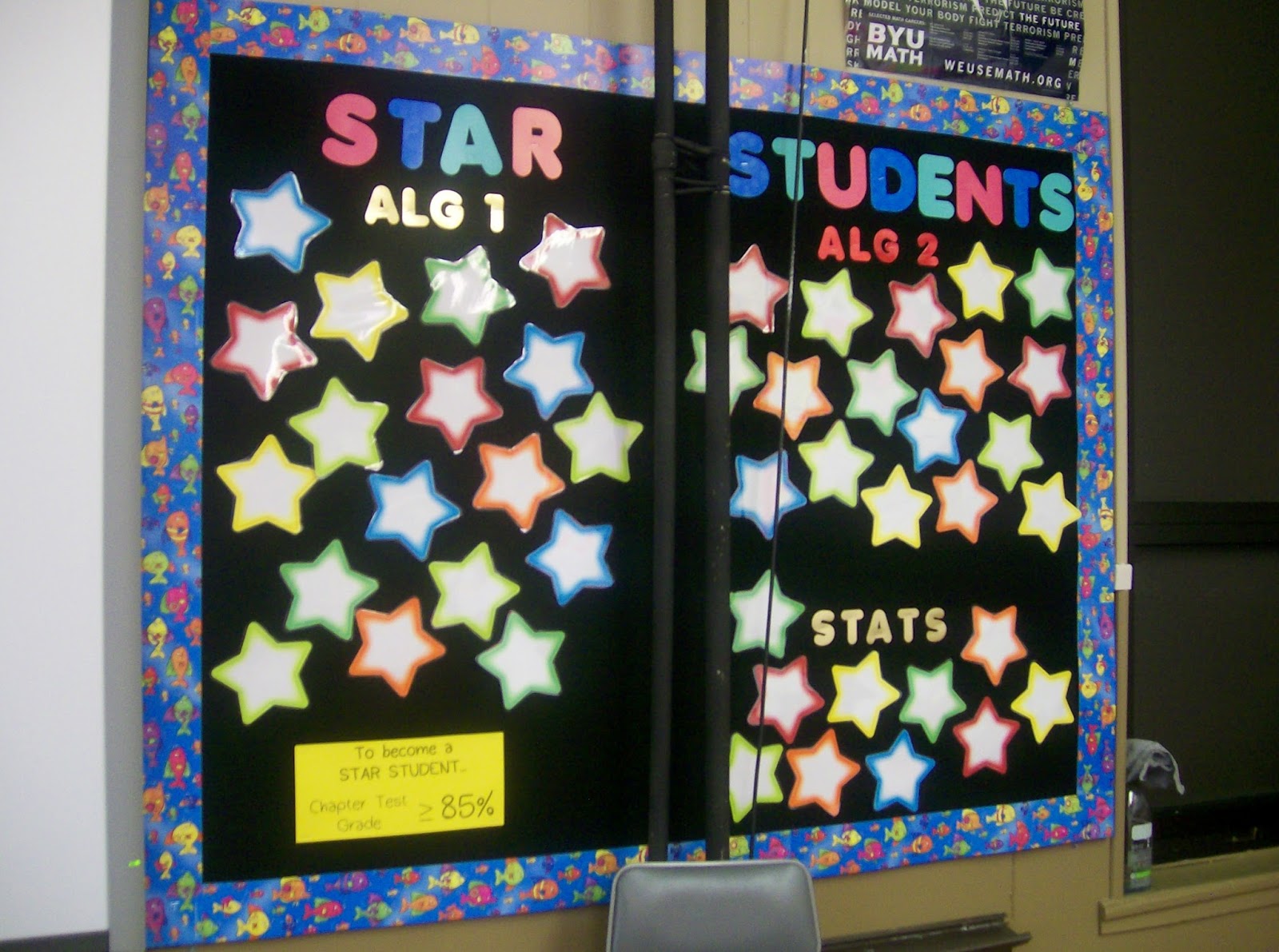
Above my SMART Board, I have a banner that reads, “Welcome to Class.” I picked it up at Wal-Mart in their $0.88 bin two years ago. This past year, I added left/right posters. I was shocked at how many of my high school students have trouble differentiating between left and right. Next year, I want to add cardinal direction posters as well. Our school likes to make announcements such as, “There will be a senior picture at 11:30 on the south steps.”
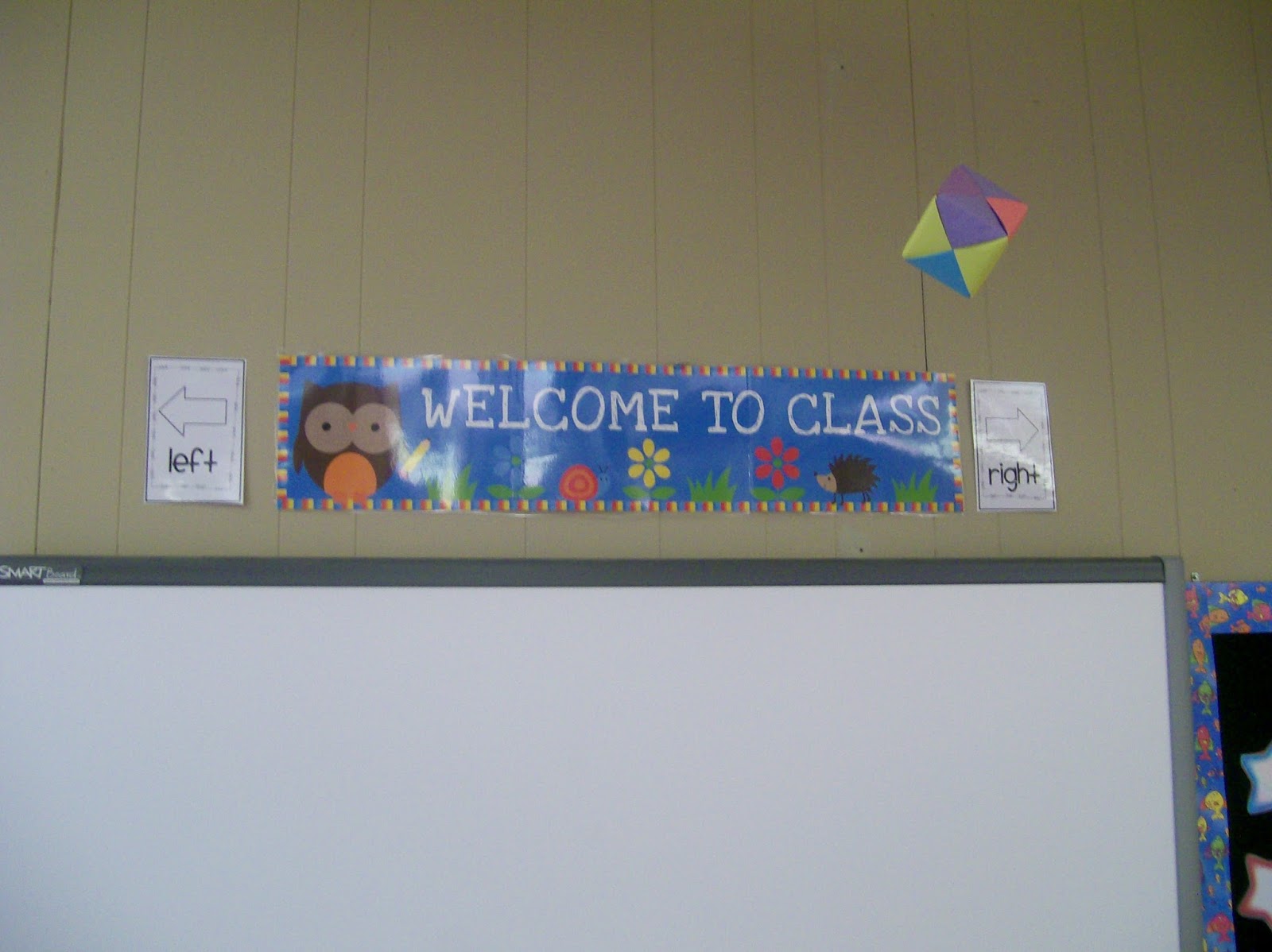
This year I took one of my bulletin boards and used it to post some free Texas Instrument calculator posters that I received at a workshop. Since my district doesn’t have TI Smart View, and I can’t use my Smart Board and my document camera at the same time, these come in handy to show students where various calculator buttons are.
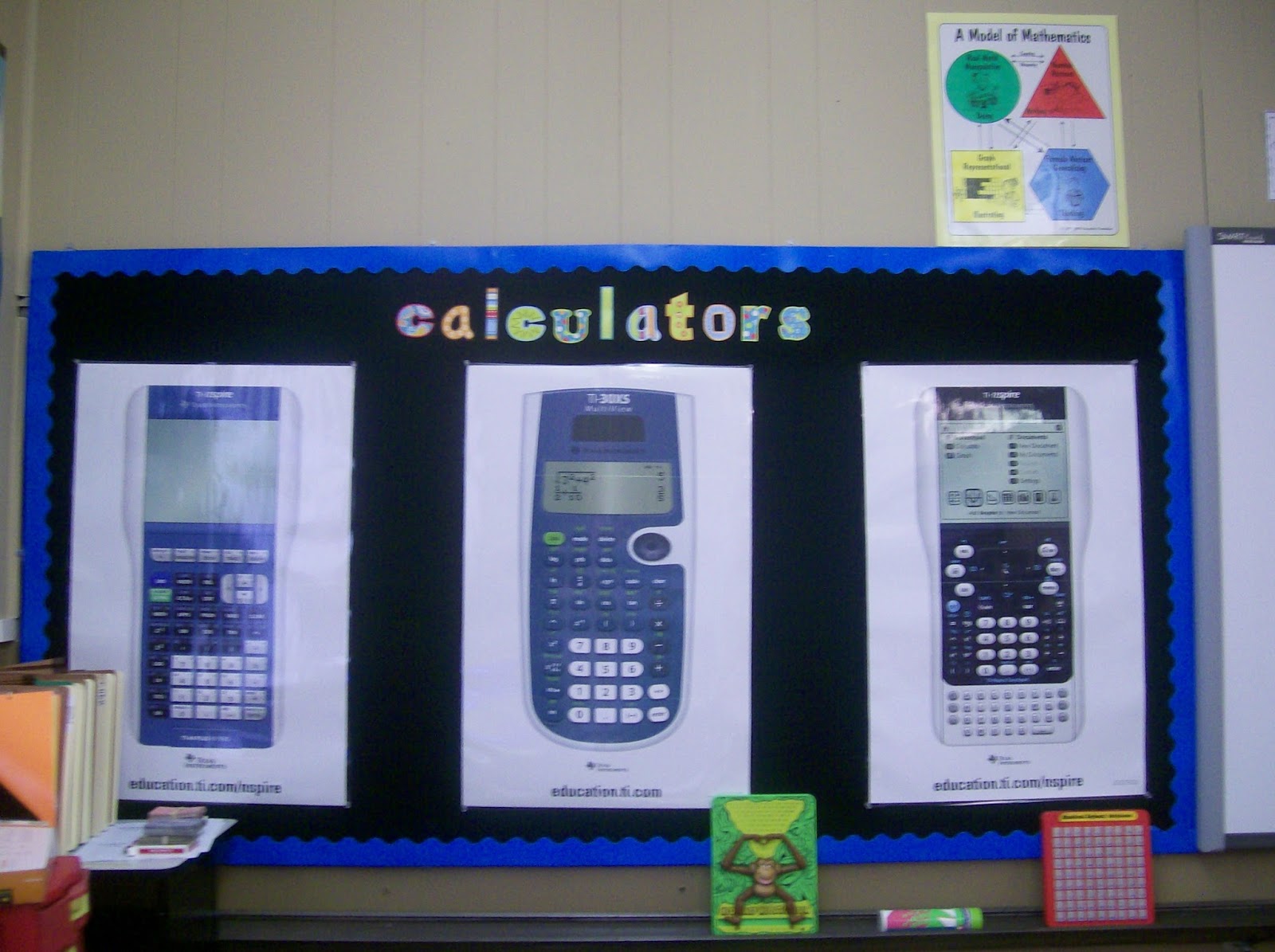
As the year progressed, I added friendly reminders for frequently used calculator buttons.

Behind my desk, I have several free posters that I received from the AMS. You can request free posters here.
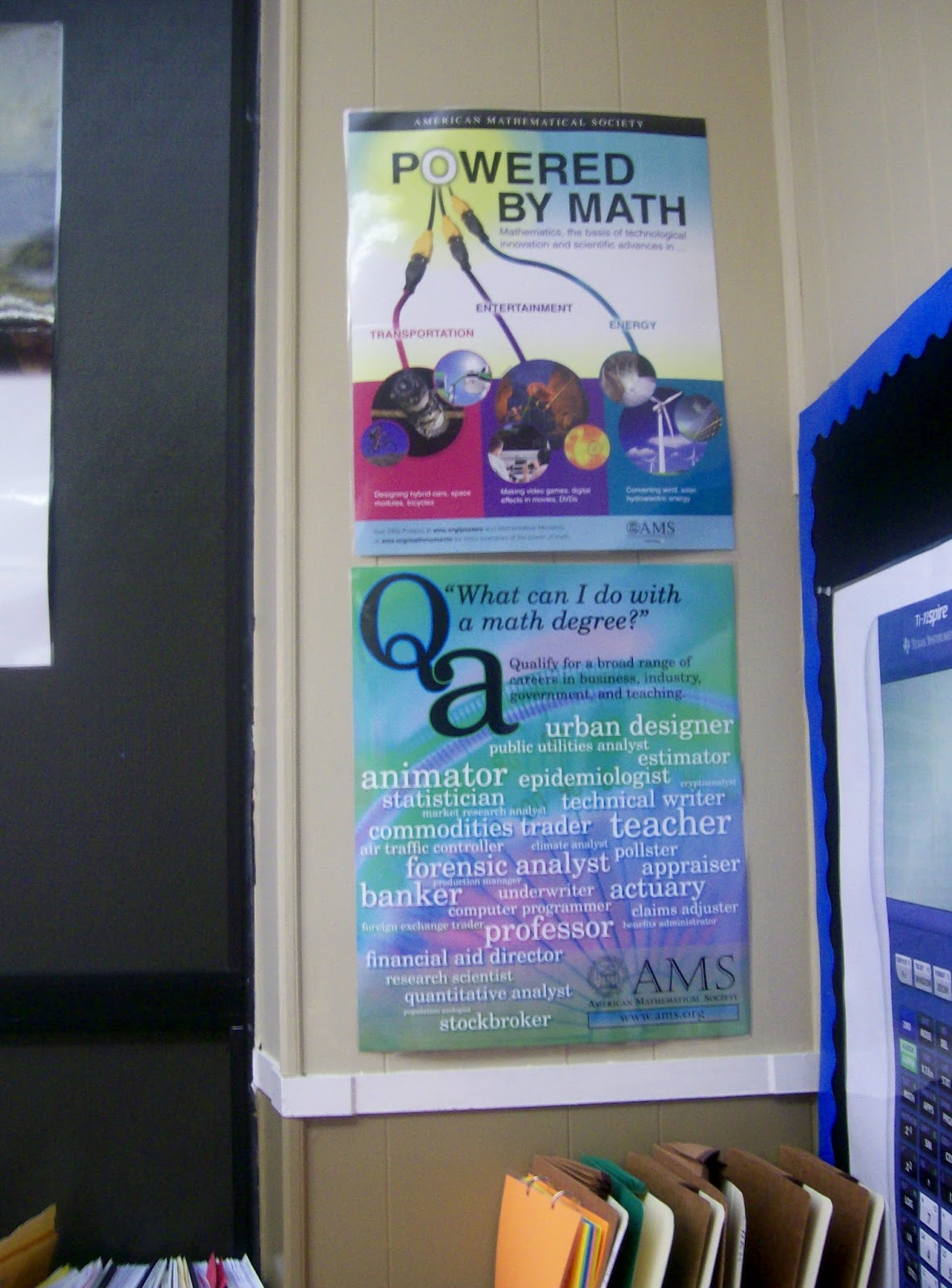
I also have a Mona Lisa poster behind my desk with a reminder to smile. Somedays, I really need this reminder!

At the back of my room, I have a bulletin board that I planned on changing out monthly. Well, I put up Pascal’s Triangle in August, and I took it down in May. So, that plan failed. Maybe next year…
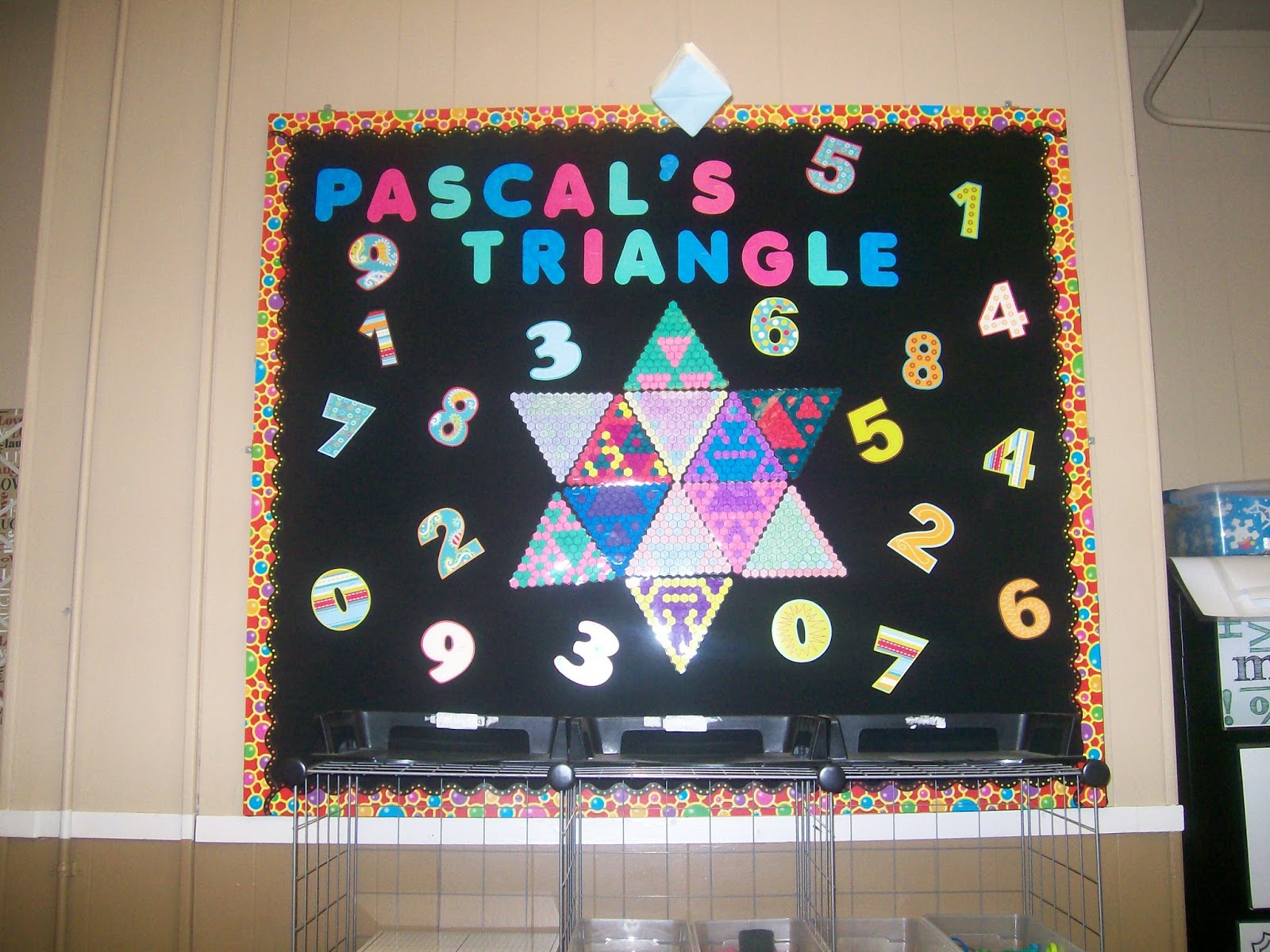
One of the best things I hung up in my classroom this year was a number line. It was a great help to me in my teaching and my students while they were working. For example, I taught slope as change in y over change in x. If the y value began as 3 and ended as -5, students could locate 3 and -5 on the number line and visually see that there was a decrease of 8. My students do not come to me in Algebra 1 with strong integer skills, so this number line is a lifesaver. My students have requested that I make them individual number lines next year to keep in their notebooks. My special education students especially need this because there is no number line available to them if they go and work in the resource room. Though, I guess I could print off another copy of the number line and gift it to our special education teacher. I may just do that! If you want to print your own number line poster, I wrote a post about it here.
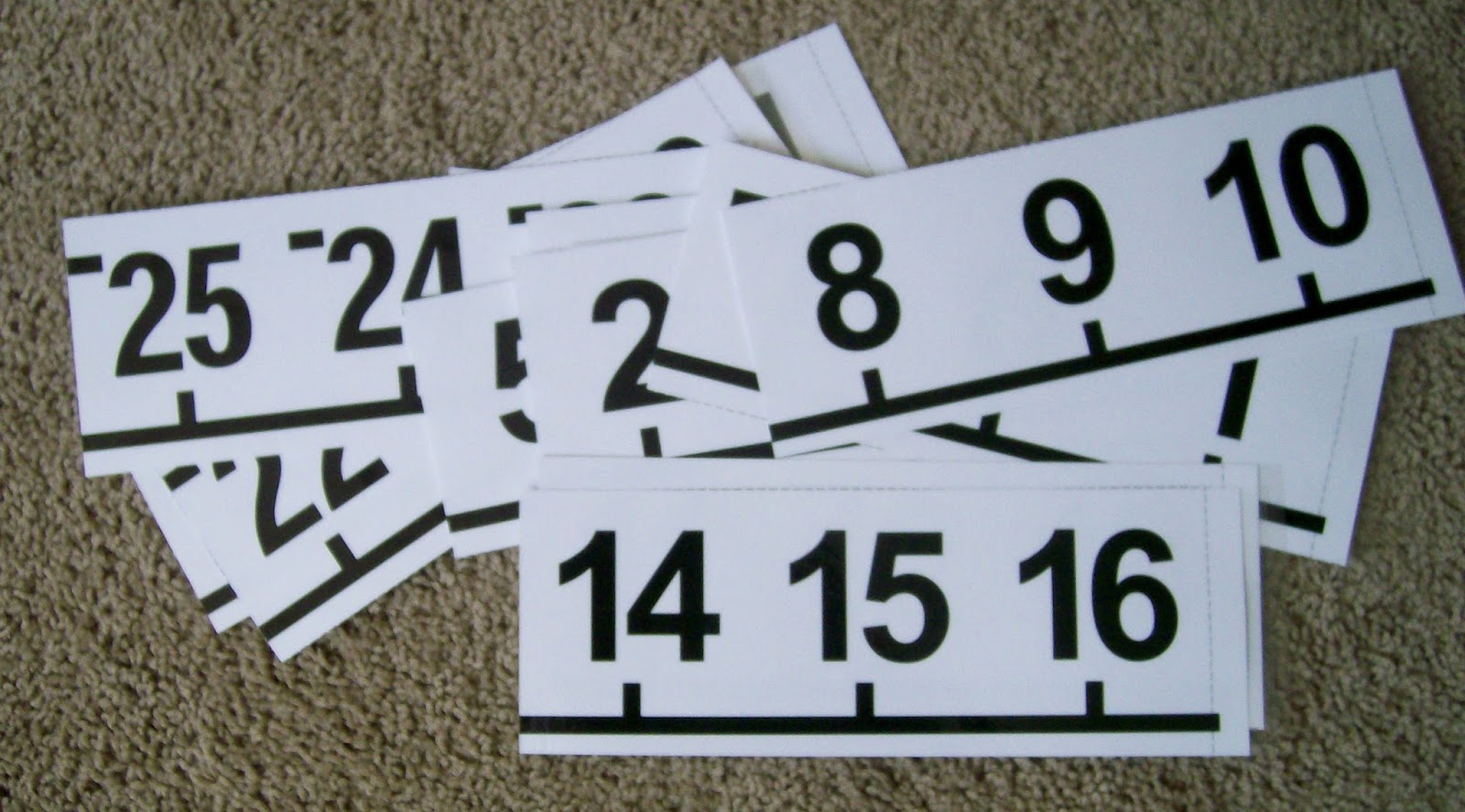
Here’s my number line up in action. With more free posters above it. Can you tell I love free posters? 🙂
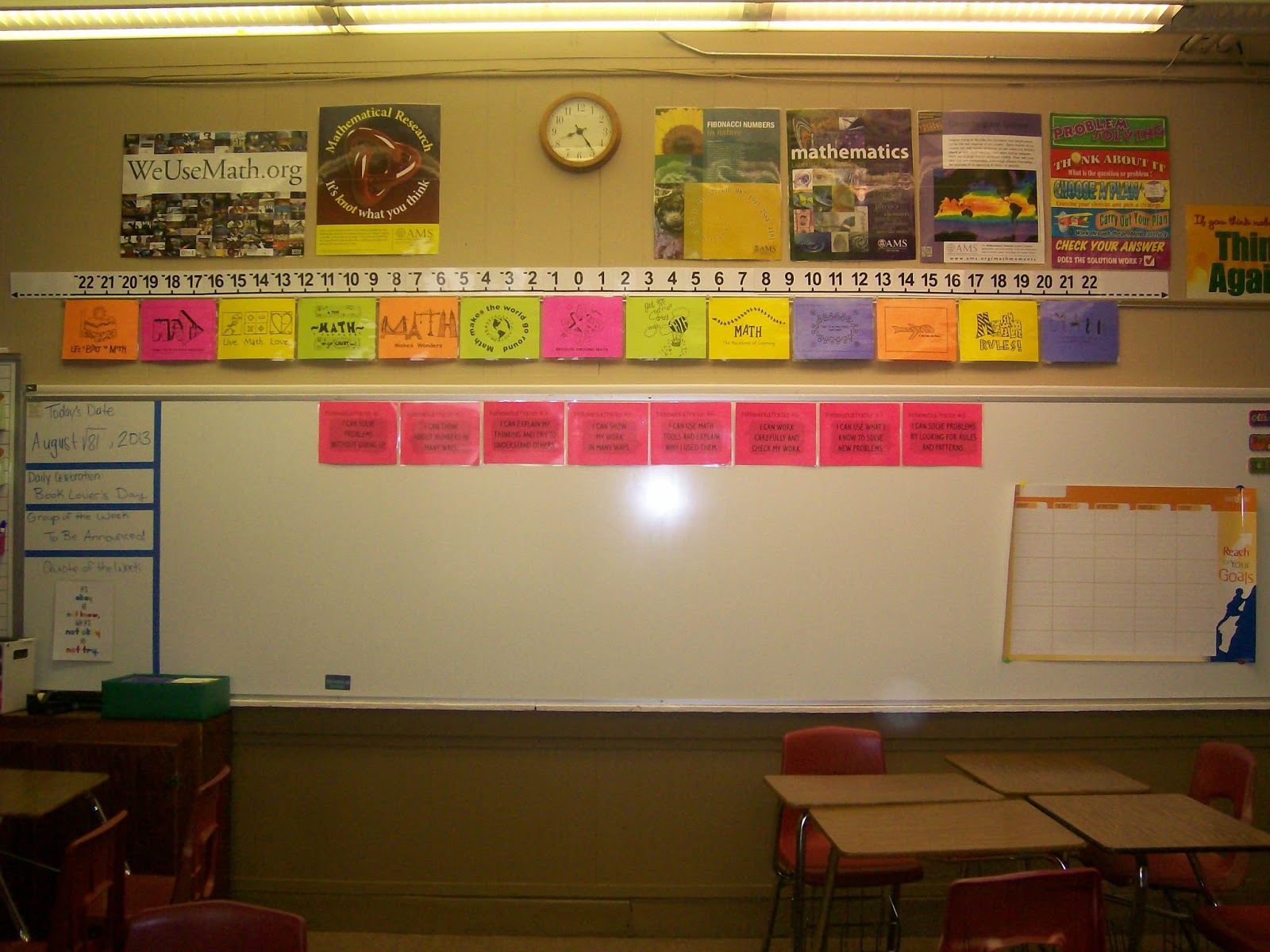
On my door is one of my favorite classroom decorations. I found this on pinterest, and I modified it to be about math instead of science. I have posted the file to make this here.
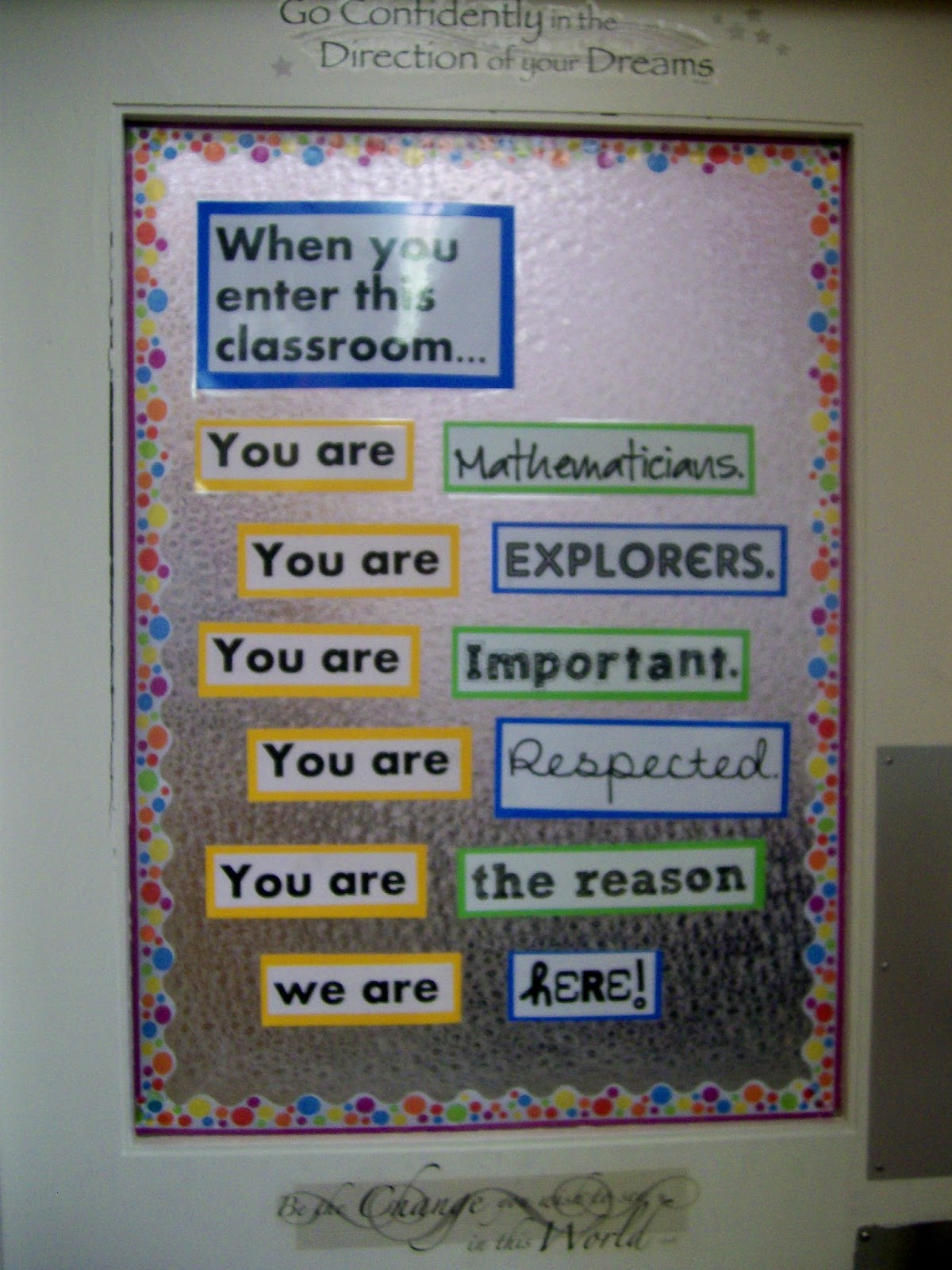
Below my SMART Board, I have various problem solving strategy posters displayed. I didn’t emphasize these as much as I should have this year. Problem solving strategies are going to be a major area of emphasis for me next year with the transition to Common Core, though.

Outside my classroom door, my parents built me a bulletin board to hang stuff on. They also built all the other bulletin boards in my classroom. Let’s just say my parents are super crafty, do-it-yourself people! Here, I post my name, room number, and subject taught. I also added math comics and a poster I picked up at Target, I think.
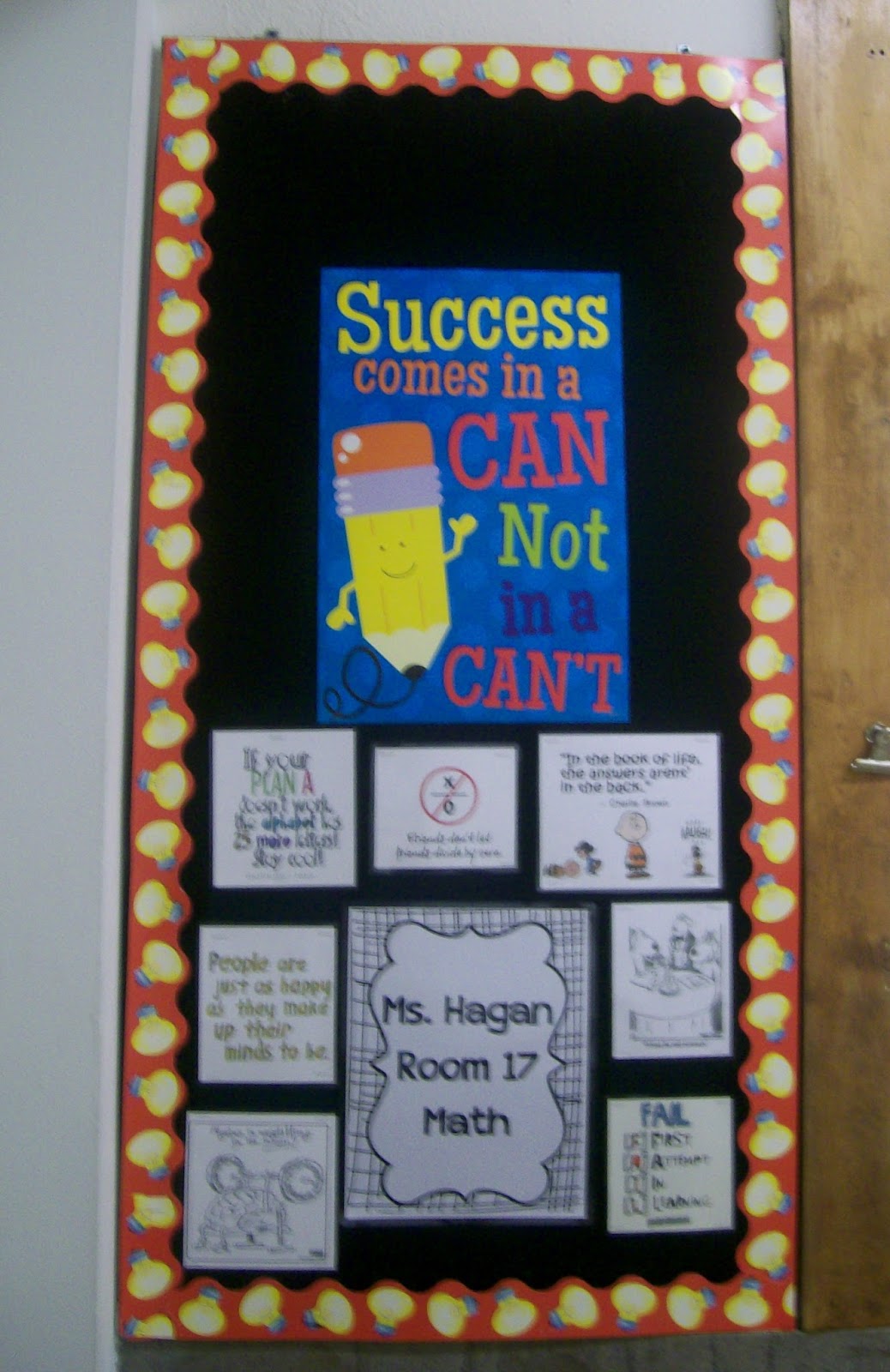
These posters are hung up on a wall that I amazingly never photographed in my classroom. I got them for free from WeUseMath.org.
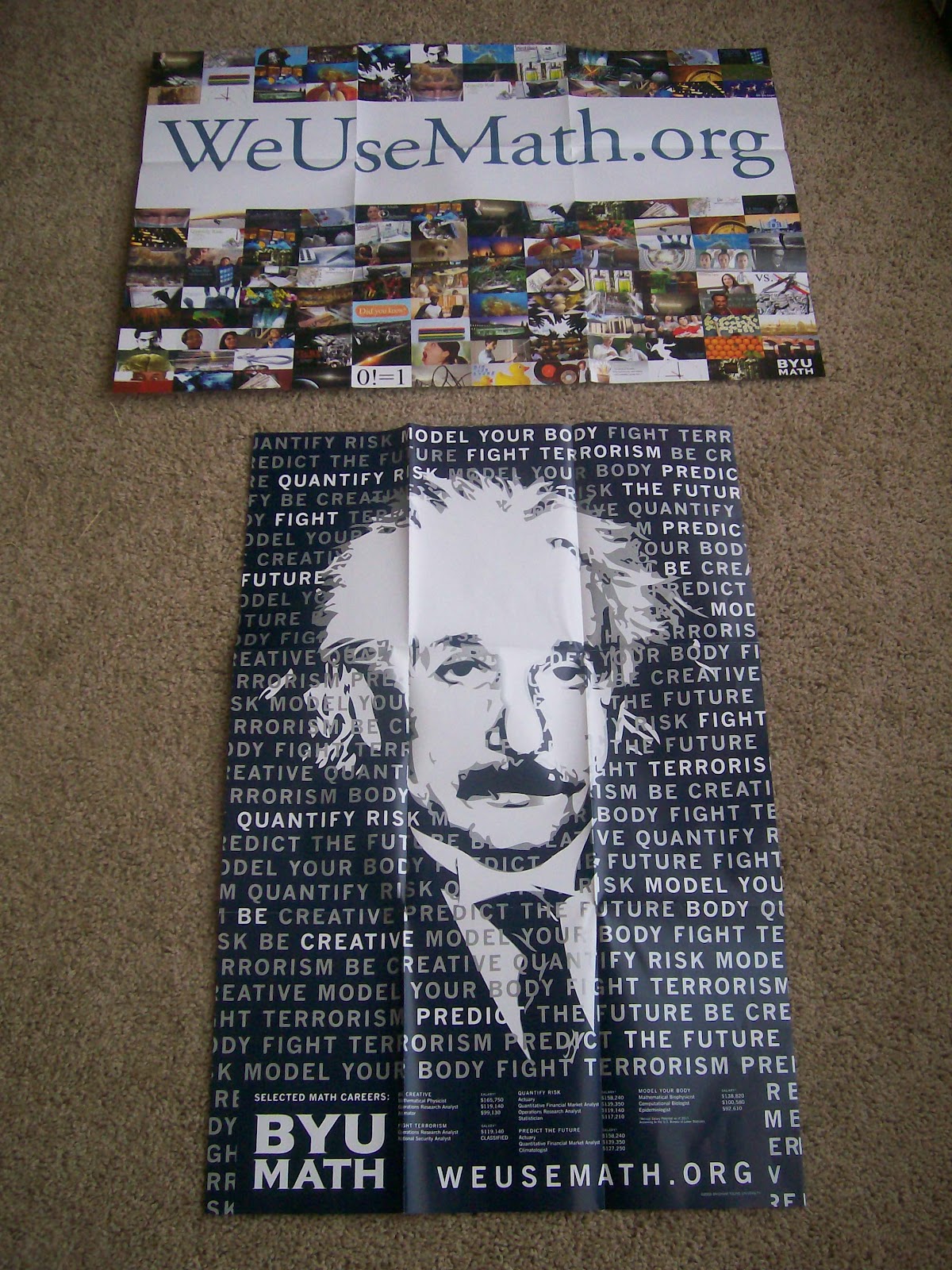
Hanging from my ceiling, I have modular origami made from sonobe units. By the end of the year, my students are always very excited to finally learn how to build their own origami projects.
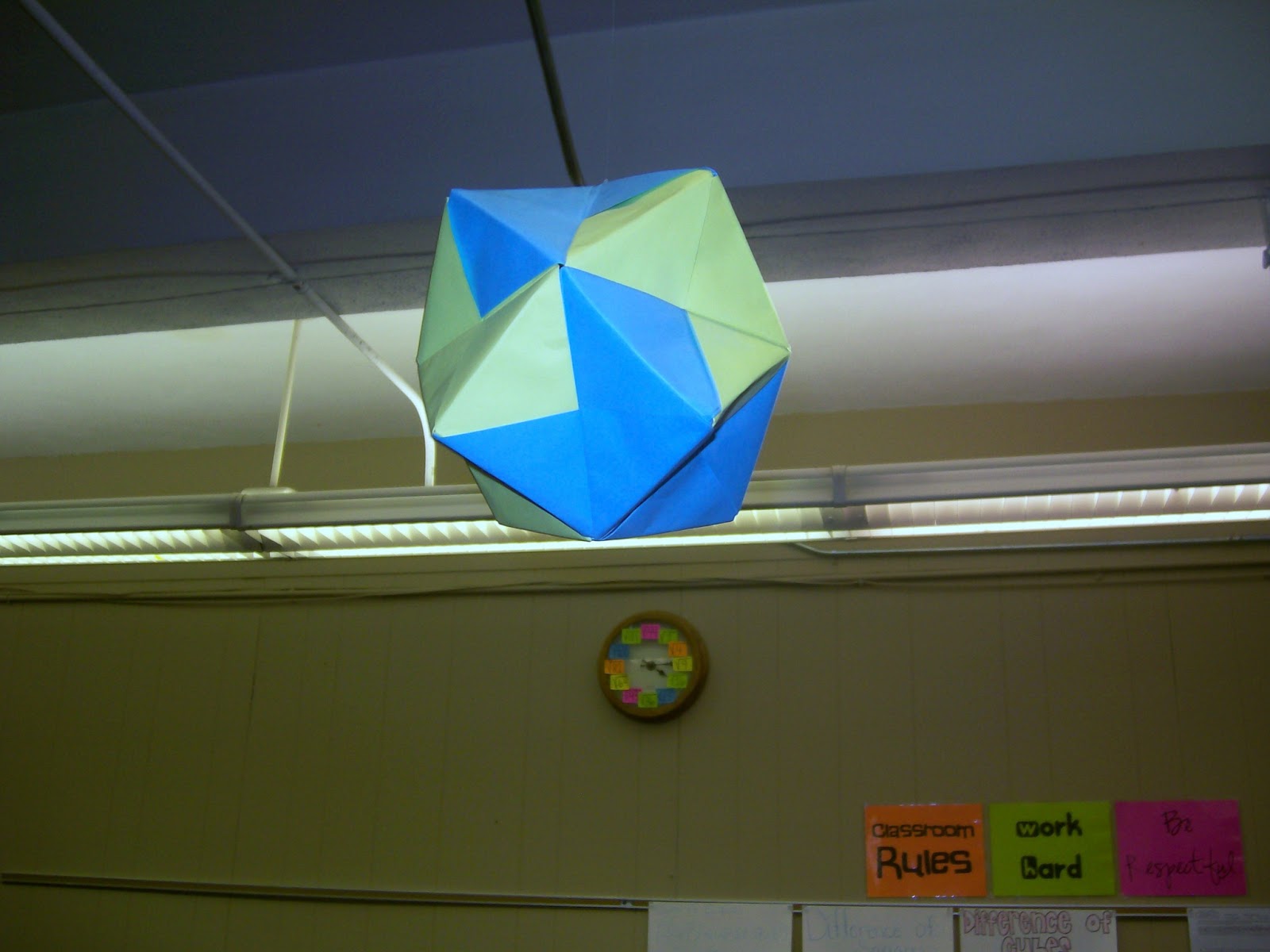
I try to display student work to inspire other students, but I haven’t done the best job of it. This was one of my student’s projects during my first year of teaching. My students this year loved looking at it and using the handles to make the reporter move. When students would ask where the pencil sharpener was, I would always explain that it was by the television. “But, but, but there’s not television in here!”
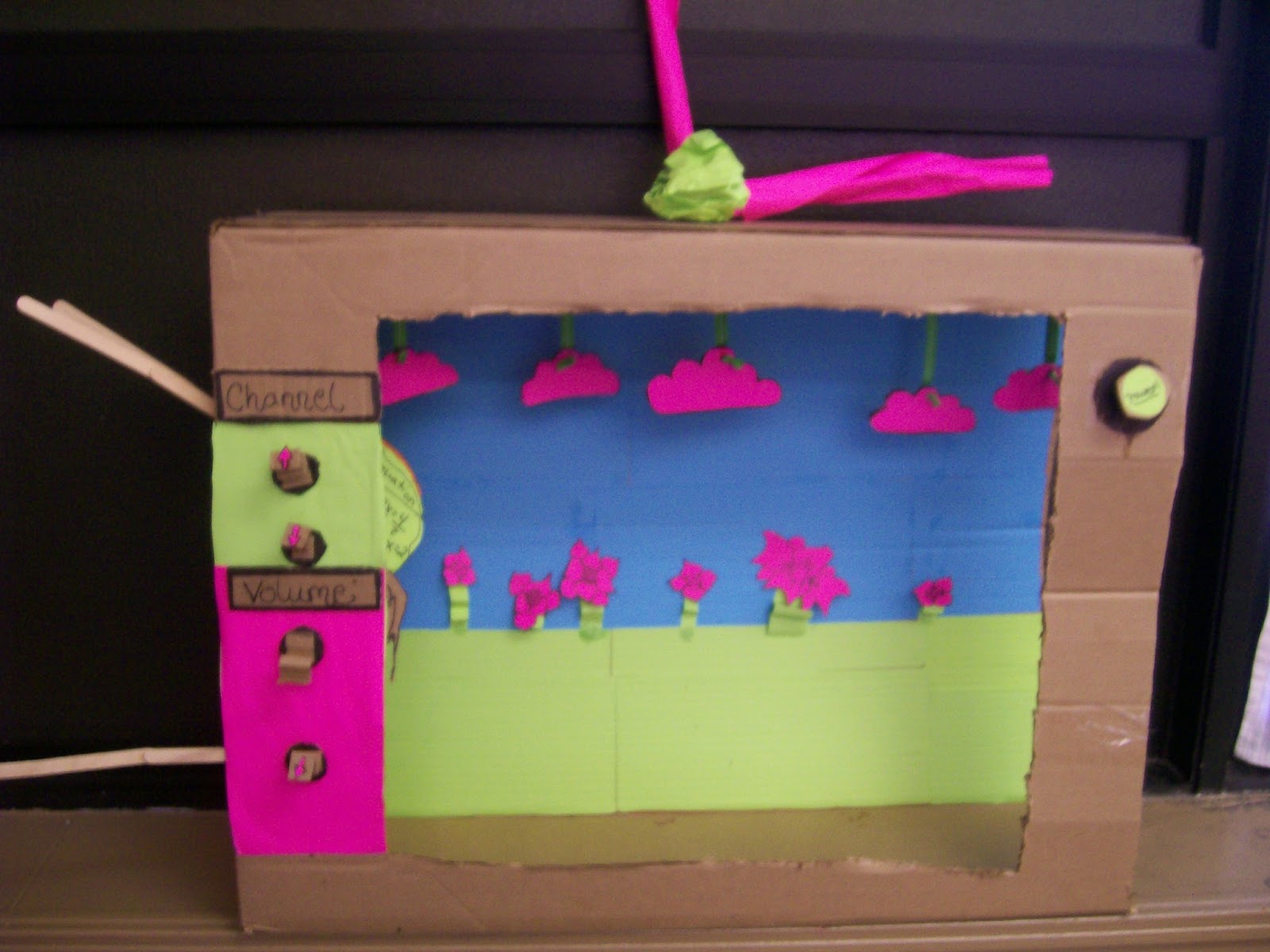
My aim is to have a classroom decor that is bright, colorful, inviting, and inspiring. My students notice what is on the walls. They see things and ask questions. Creating a beautiful classroom environment is just one way I can show my students how much I care. Our students come to use from a middle school that is less than five years old. When they come to our almost hundred year old building, the difference is evident. By taking the time to make my classroom a home of sorts, I am communicating the effort I am willing to put out and the effort I expect my students to put out. Plus, I spend 8-12 hours a day in this room. It needs to be a place that makes me smile!
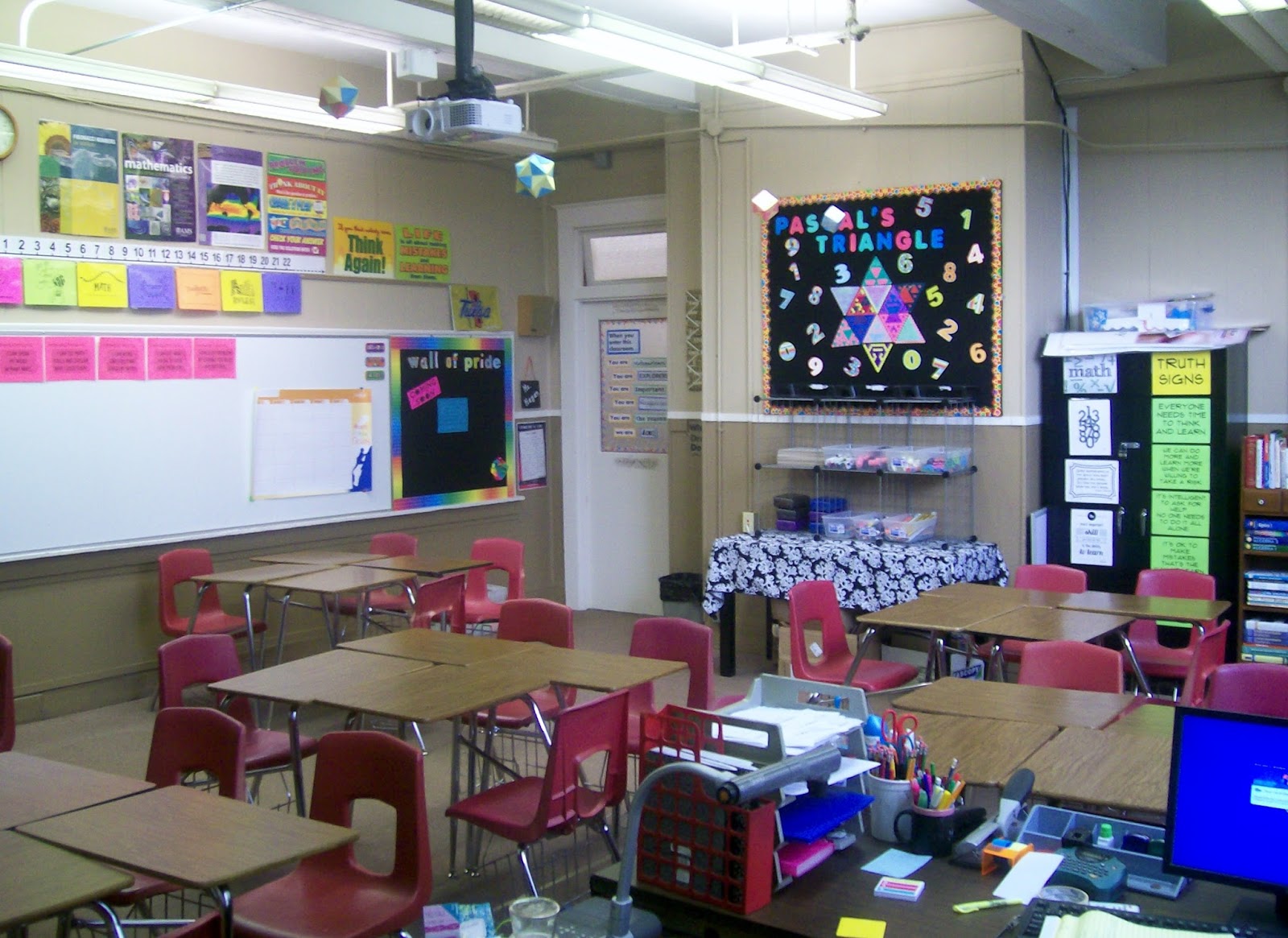
Over the course of the year, my students add their own touches to the decor. They love to draw pictures on the dry erase boards and post them for the other classes to see. Here are a few pictures of boards that have found a home in my classroom this year. I usually leave them up for a few weeks before erasing them. My students always get mad when I erase them, but if I didn’t, we wouldn’t have any boards left to solve problems on!

Since my classroom is small and has less wall space than I would like, I have also taken to hanging things on the wall outside my classroom. Here are some posters that my students made to review the process of factoring polynomials.
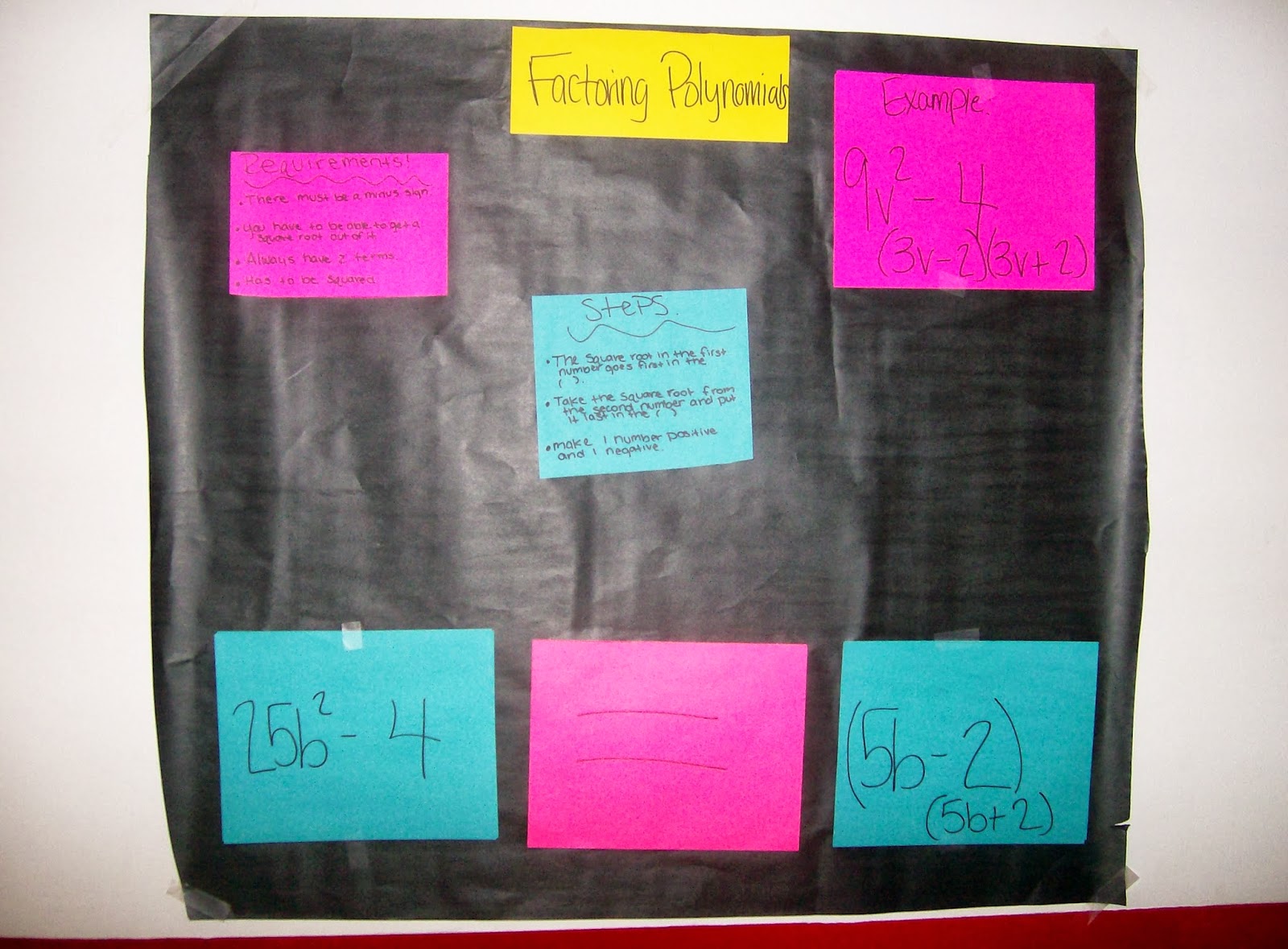
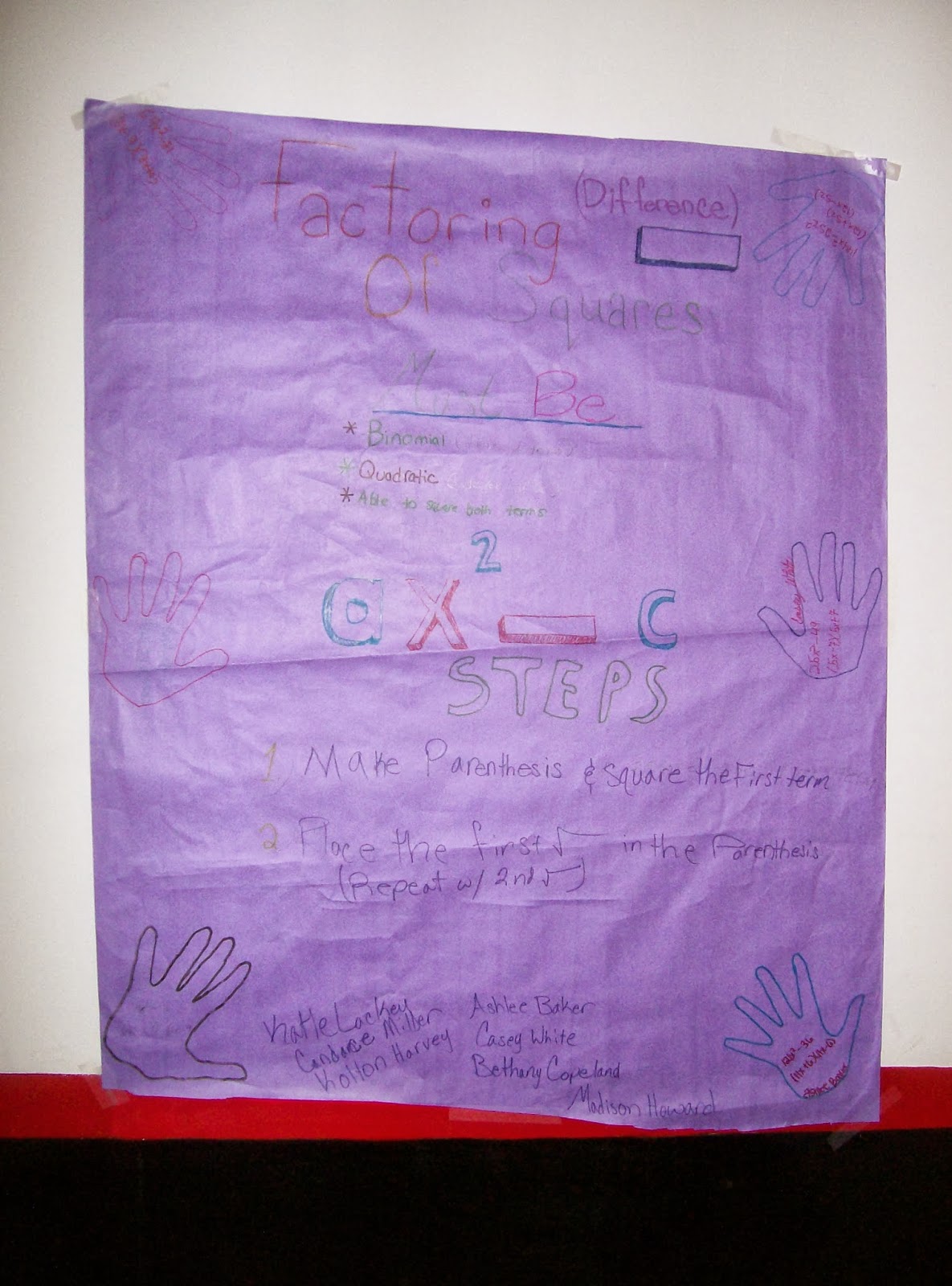
I also hung up my statistics semester projects on the wall outside my classroom.
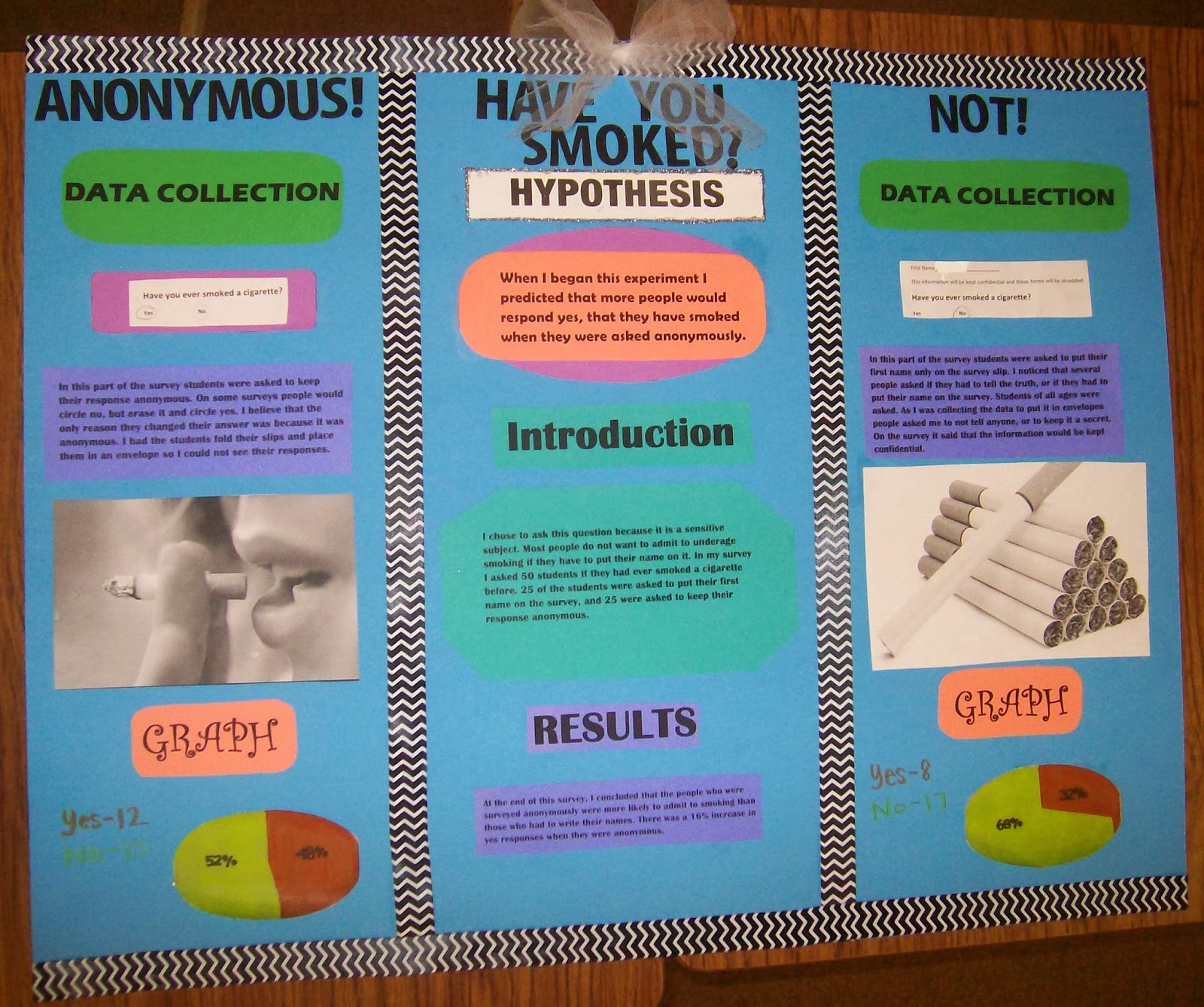
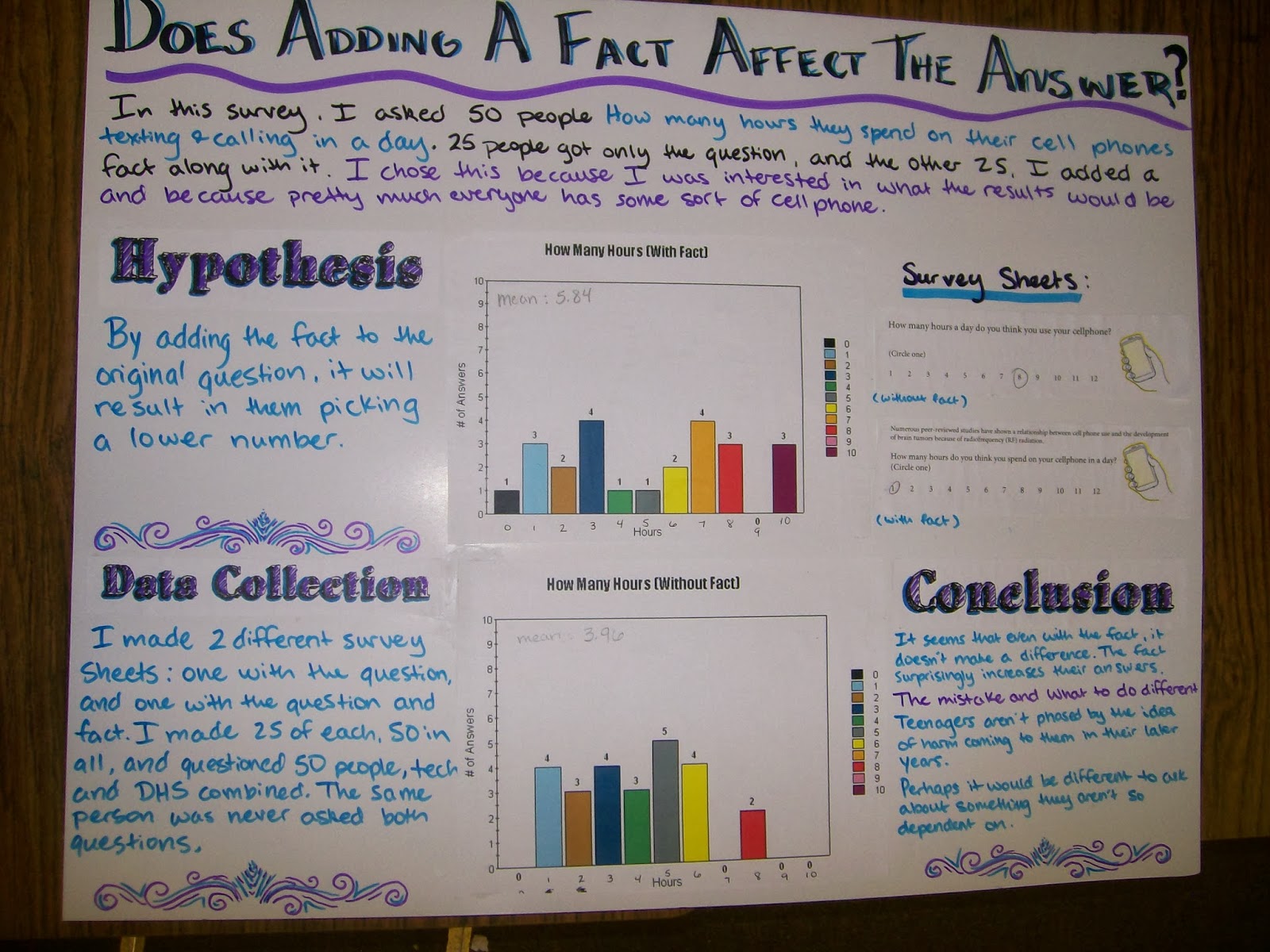
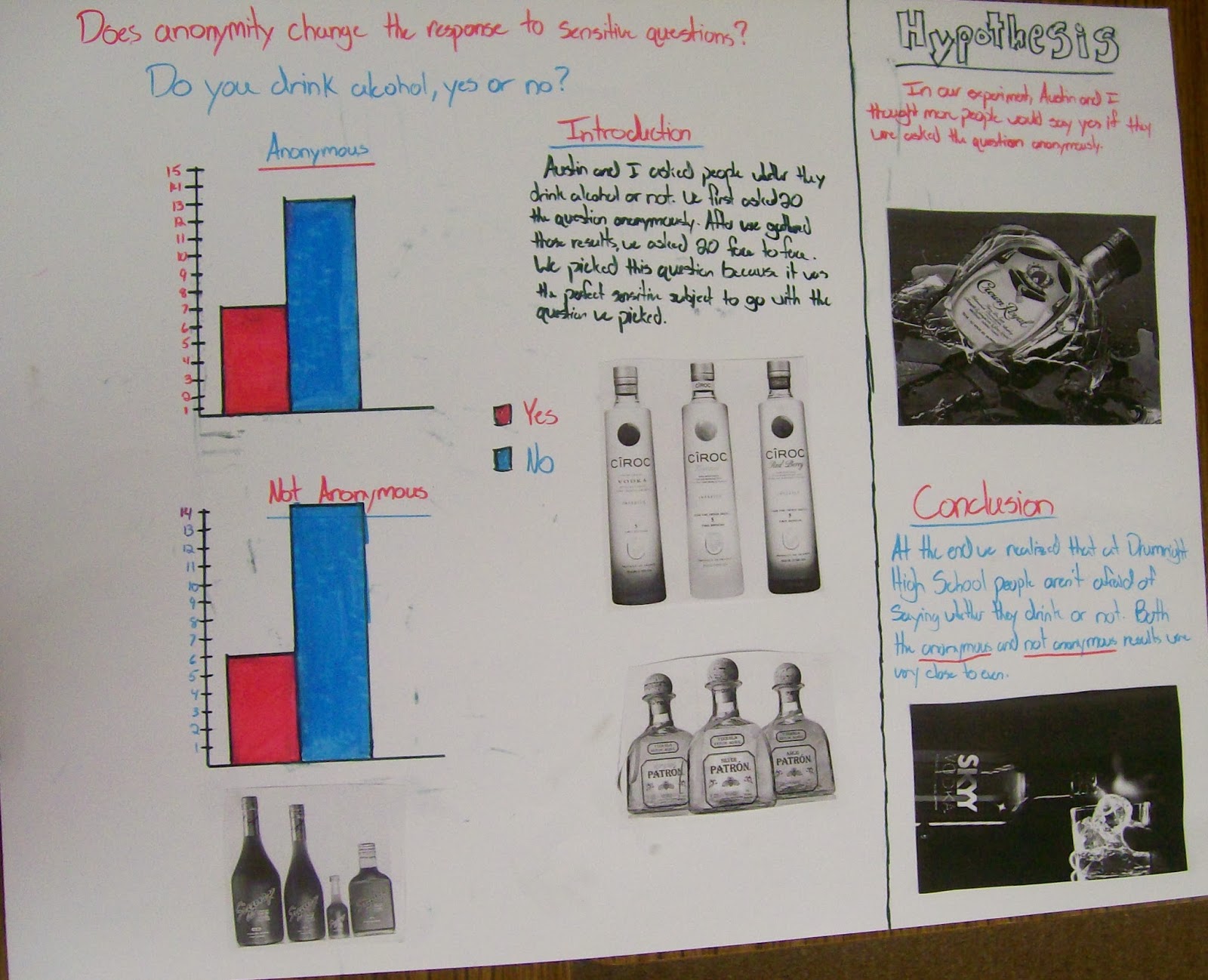
So, there you have it. This is what adorned the walls of my classroom this year. Could it be better? Of course! I’m already working on plans for next year’s classroom decor. I’ve bought some new posters. I also picked up the cursive alphabet to hang up. Hardly any of my students can write in cursive. It’s becoming a scary world out there! I’m also thinking about posting the greek alphabet. That would have come in super handy in statistics this past year. But, I figure we can find a way to use it in trig next year, too.
May 21, 2014 – Wedding Bells
On the next-to-last day of school, we celebrated with a wedding during first period in the auditorium.
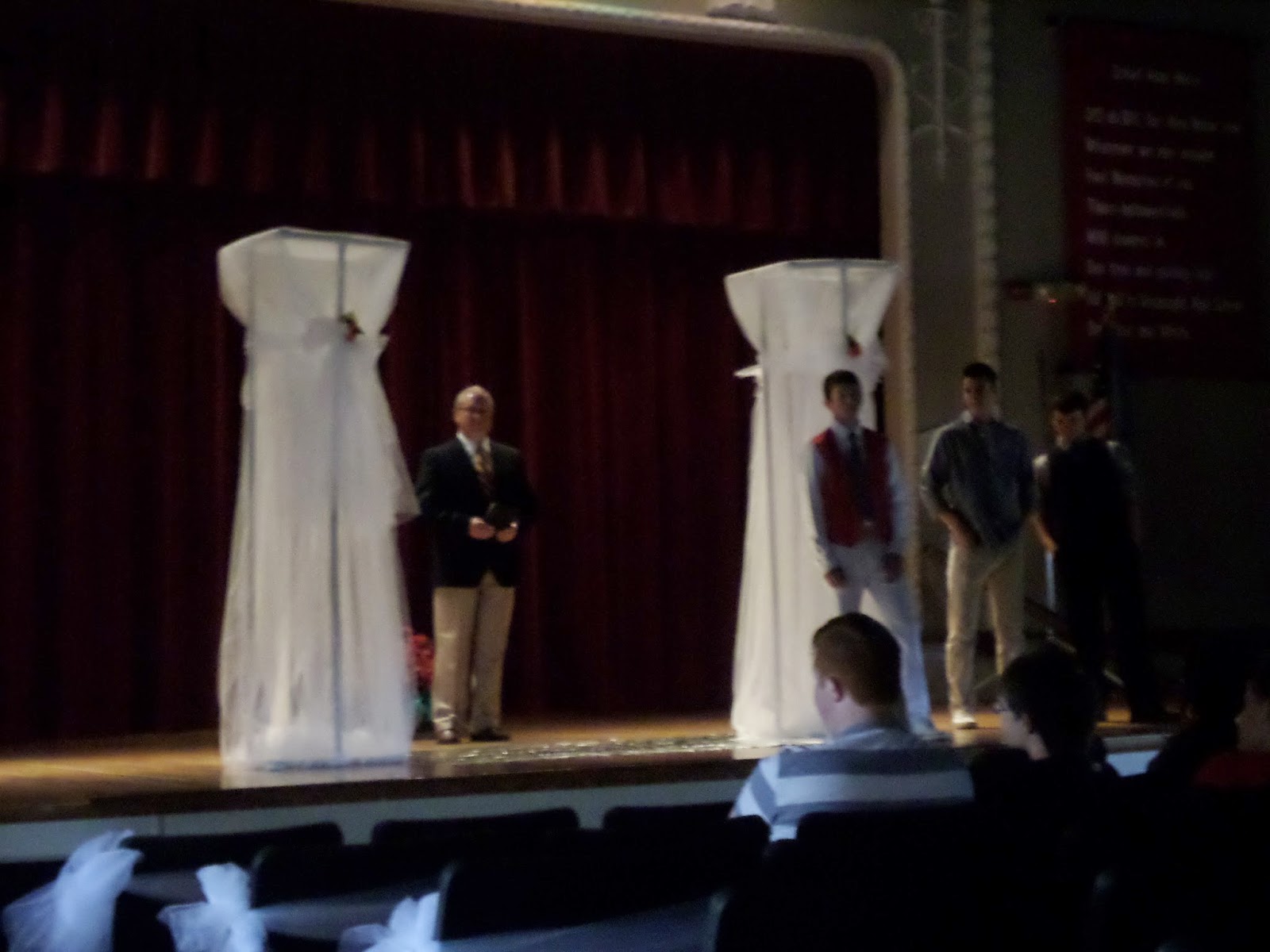
Okay, it wasn’t an actual wedding. It was a project put on by our Marriage & Family Class that is one of our FACS offerings. The students elected two of their classmates to be bride and groom. A decorating committee was formed. They had a cake committee, too. An actual pastor stood in to do the service. The bride’s dress was made out of trash bags. She was given away by our science teacher.
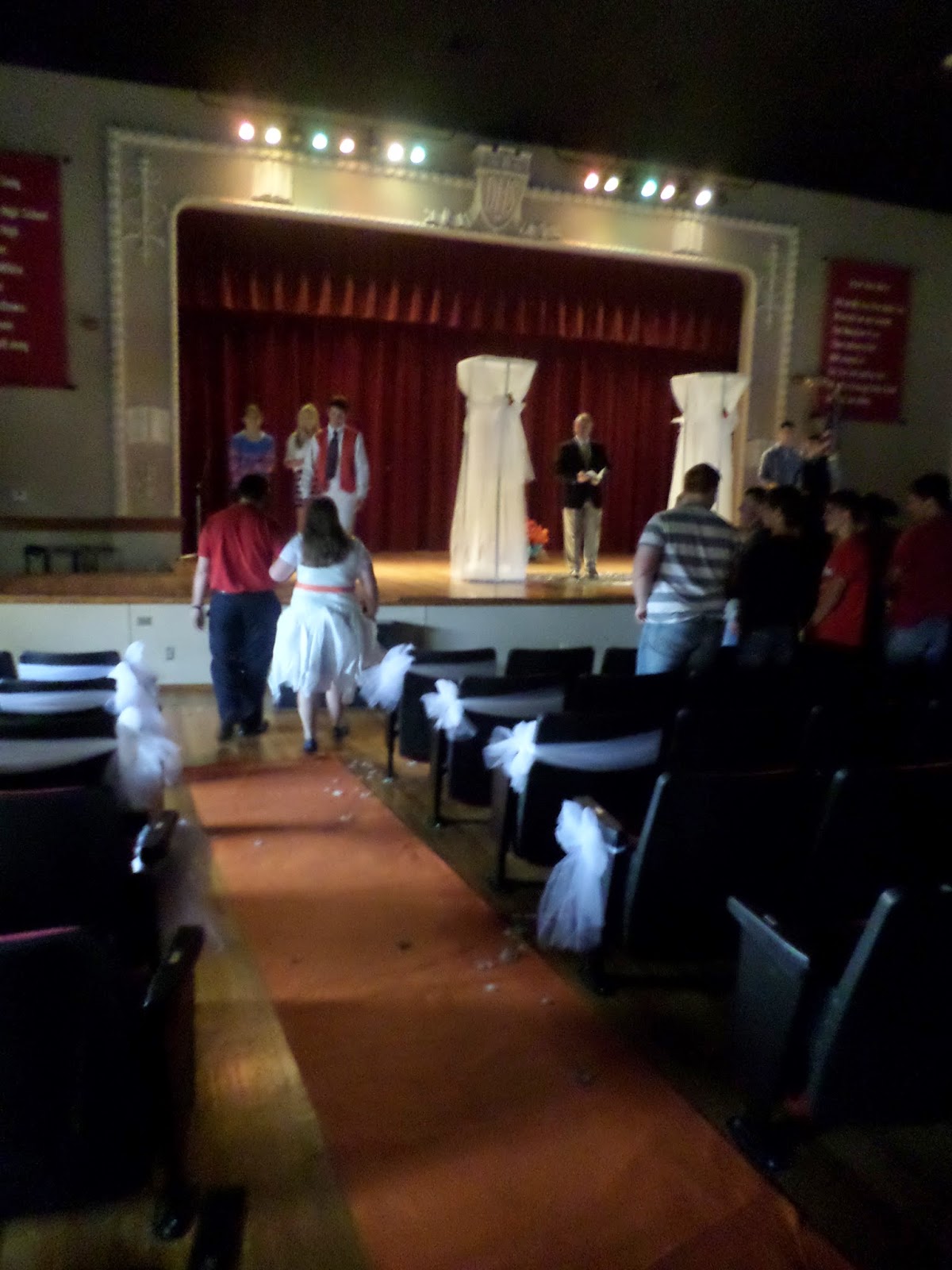
Other students stood in as bridesmaids and groomsmen. We had probably the oldest flower girl in the history of flower girls. And, the student running the sound lost track of what he was supposed to be doing a couple of times. But, this was more than a lesson; it was an experience.
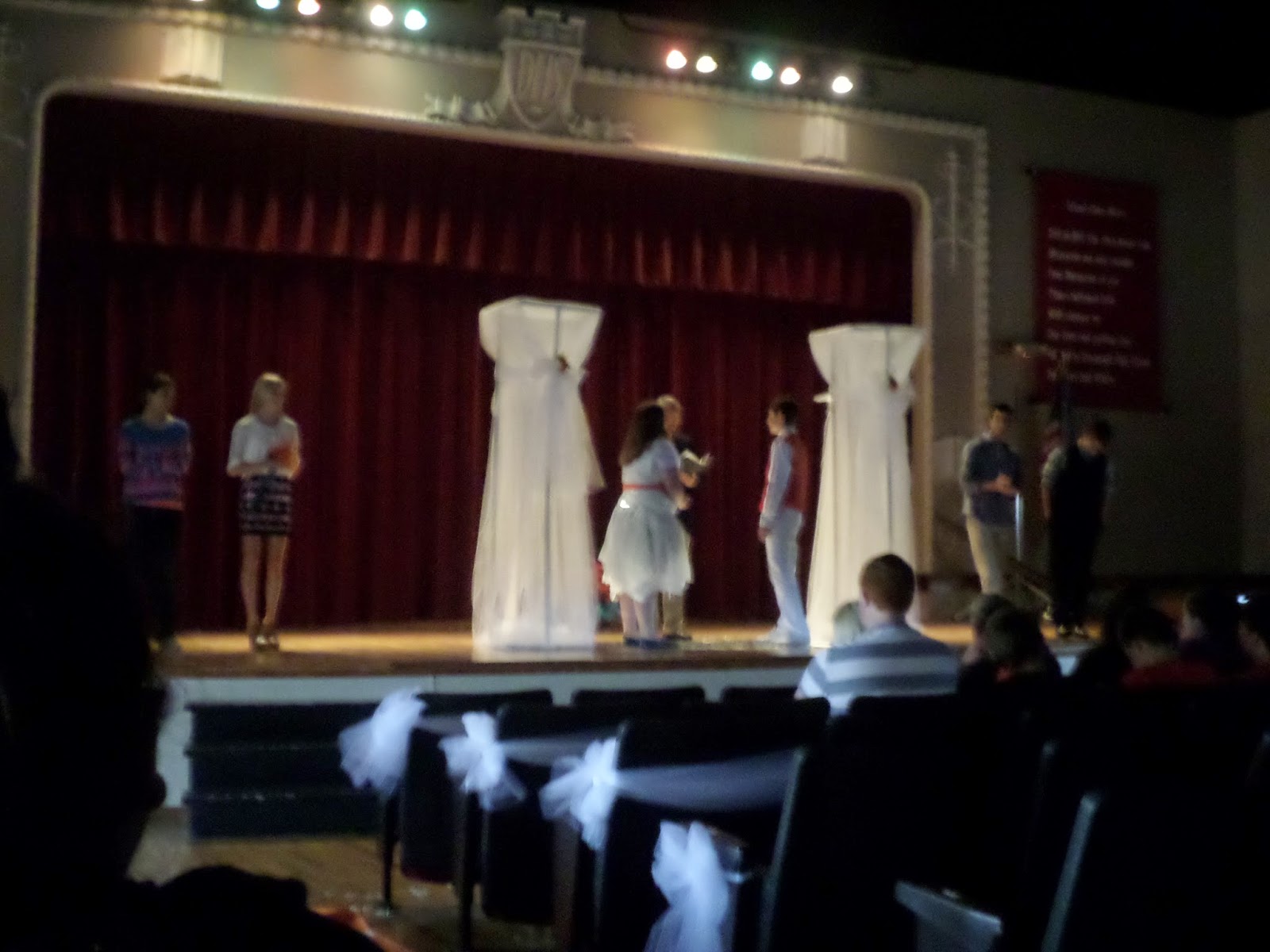
Last summer, I read Teach Like a Pirate, and I had all these grand ideas. But, I followed through on so few of them. It’s so easy to get into the routine of teaching things the way you’ve always taught them before. I want to do better next year. I want my lessons to not only teach but to create memories. Experiences. I don’t want my students to just do math. I want them to experience math.
May 22, 2014 – I heart pi.
(The title of this post was supposed to be I <3 pi. But, apparently, blogger things I am typing incorrect html as my title. Oops…)
I’m serious guys. I have the best sister ever. This past weekend, I went to visit my parents on Sunday, as always. And, my sister gave me a peek at her latest project. It’s a purple and white painted heart with a sparkly, glittery, purple pi symbol that is destined for my classroom!
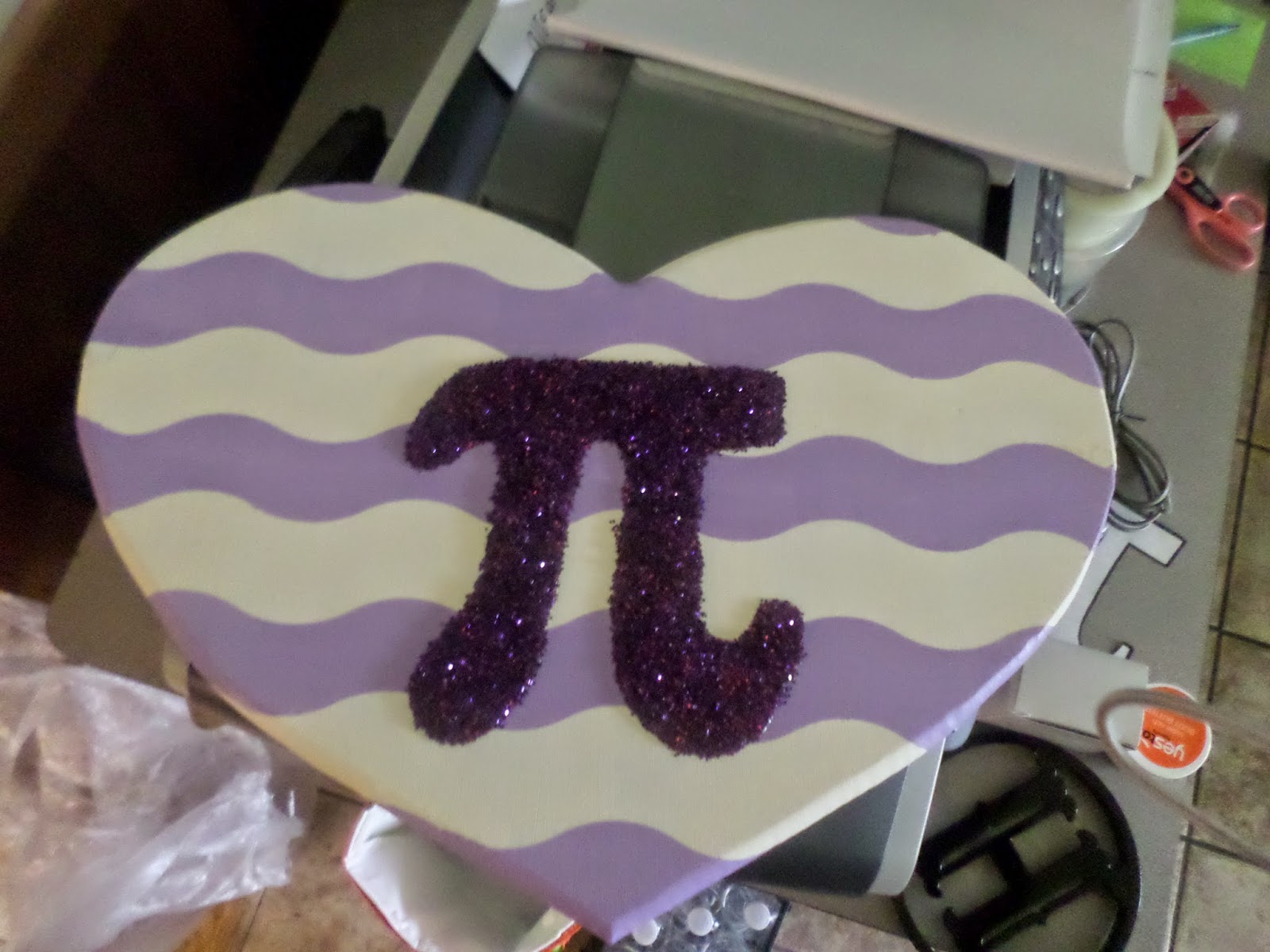
She still has to apply some type of sealant to seal the glitter, but it’s almost done! She used wavy painters tape to make the background. Let’s just say she’s way more crafty than I am!
A year from now, she will be graduating with her bachelor’s degree in art education. She has helped me with so much stuff for my classroom. She even helped paint the walls of my classroom. I can’t wait until I get to help her set up her own classroom!
May 23, 2014 – Kingdom Adventure – Castle Themed VBS Decorations
High school math teacher is just one of the growing number of hats that I wear. This will be the third year that I serve as Vacation Bible School Director (VBS) for my church. I guess it’s a role that I kinda grew into. I’ve been going to the same church since the summer after I completed the 4th grade. The first time my family visited this church was actually for VBS. That led to an invitation to church camp, and long story short, we never left. The summer after I finished the 7th grade, I started volunteering as a helper during VBS. And, my role has only grown since then. Now, I’m in charge of organizing volunteers, emceeing our programs, and making sure everything runs smoothly.
Since I attend a very small church, we have to make a lot of modifications to make purchased curriculum materials work for us. So, for the past few years, we have created our own curriculum.
Last year, our theme was Kingdom Adventure. And, we spent the week exploring the stories of various kings and queens in the bible. This year, our theme is River of Life. We will be studying four water-themed stories: Baby Moses, Crossing the Red Sea, The Woman at the Well, and Jesus’ Baptism. As I’ve been desperately searching Pinterest for river/water-themed decoration ideas, I realized that I should share the decorations we made last year with the world.
So, this isn’t math. But, this my blog. And, my life revolves around more than math (hard to believe, I know!), so it would make sense that this blog would, too. So, if you’re not in the mood to see our medieval / kingdom themed decorations, come back tomorrow for something different!
We taped flags to each post in the sanctuary. And, the walls were lined with shields made out of cardboard, aluminum foil, and shiny wrapping paper.
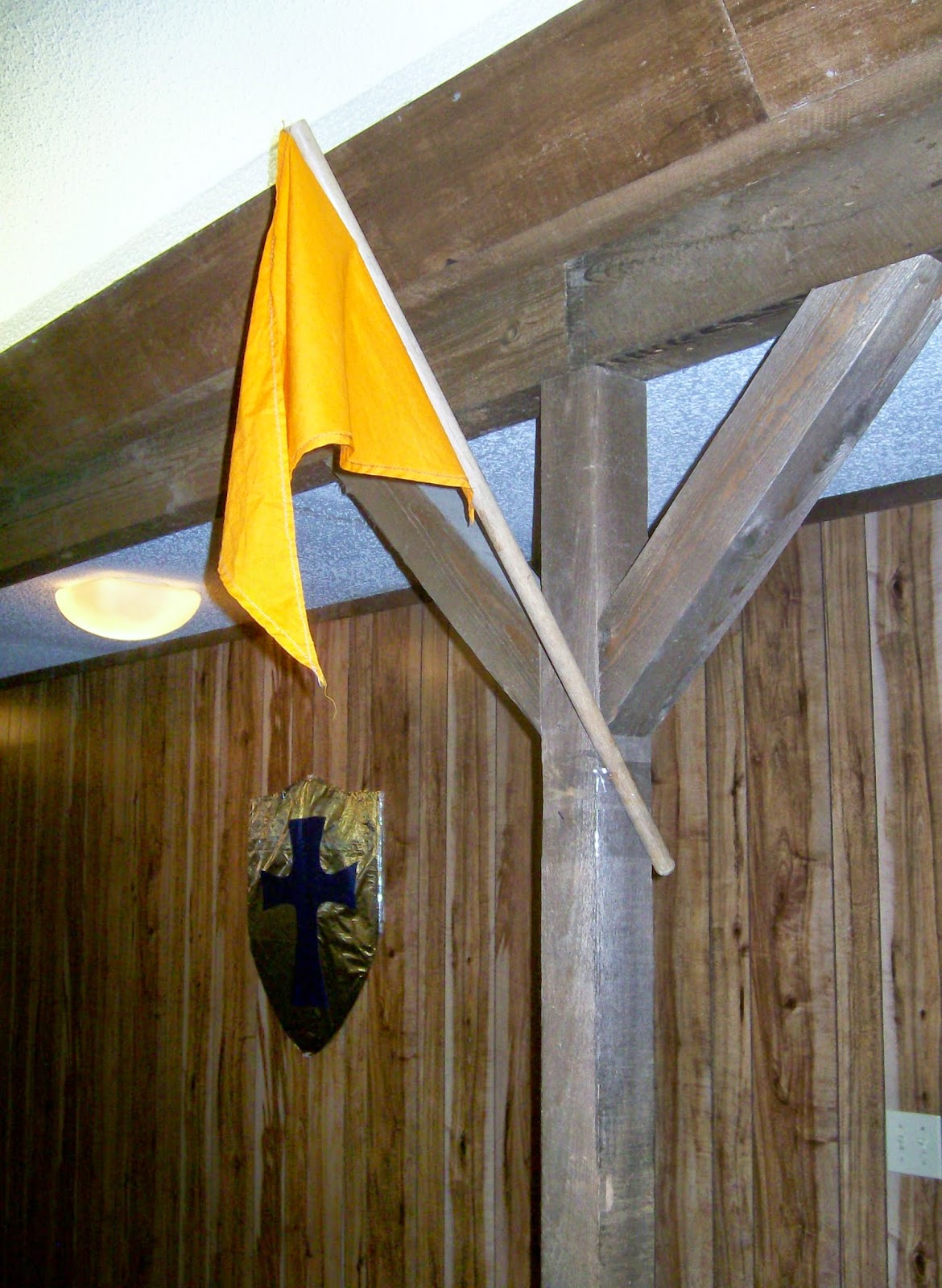
One of the volunteers made this piece of medieval weaponry to hang on the wall.

Here’s a close-up of one of our aluminum foil shields. We made quite a few of these because they were super fast and easy to make.

We made fake windows to hang in our craft room.
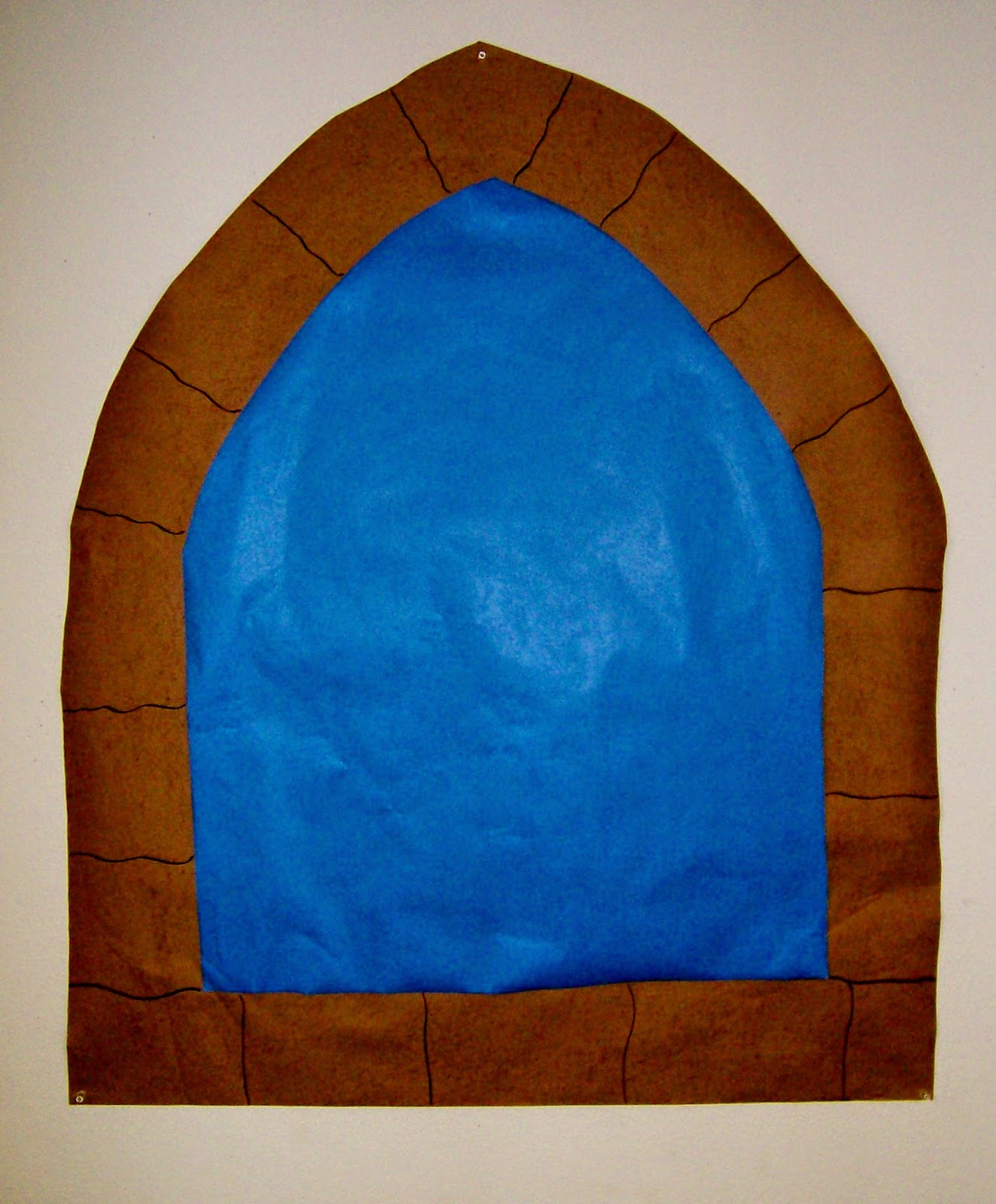
I think the windows helped spice up an otherwise drab room.
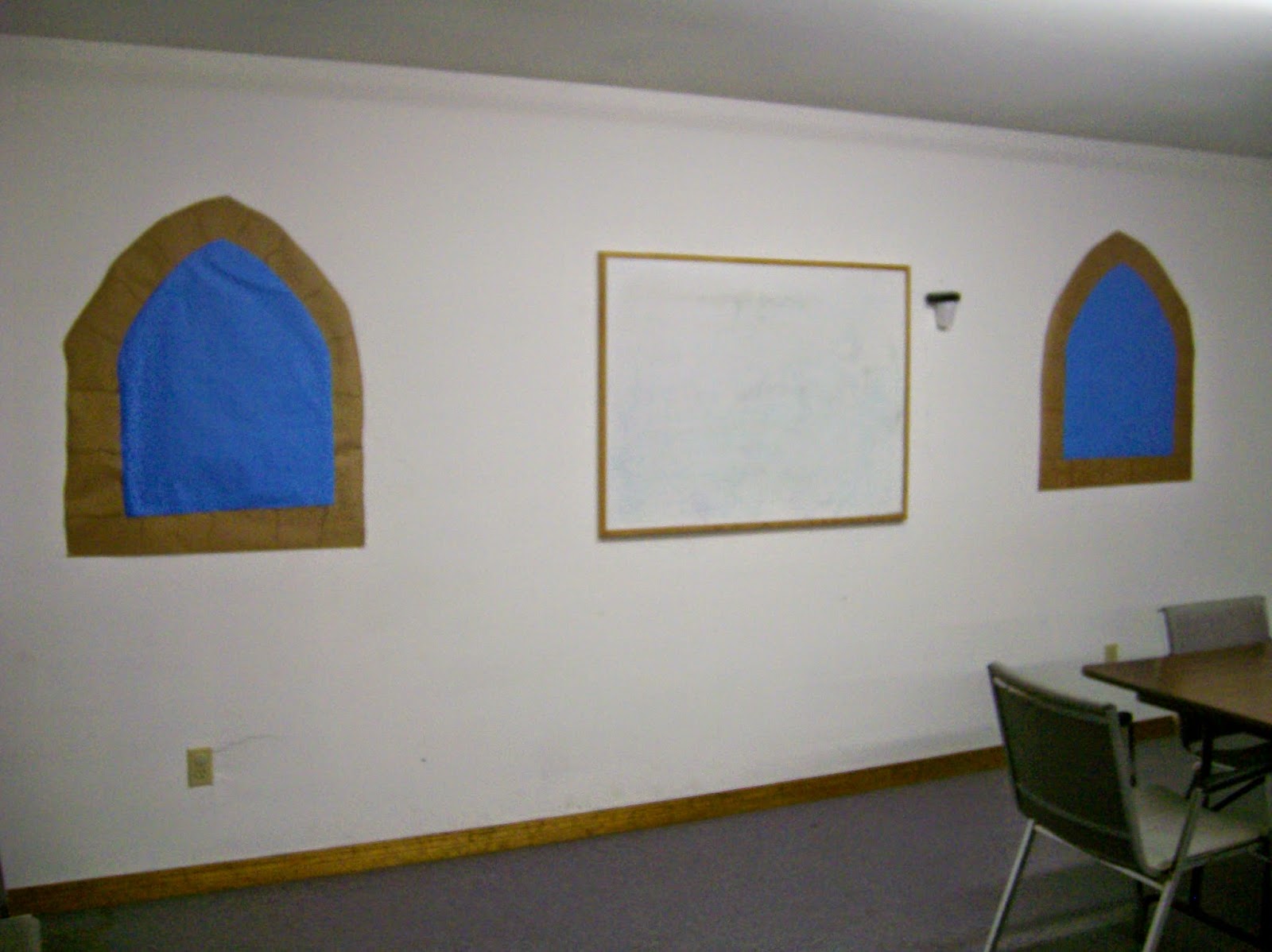
Scroll signs were made to hang on each classroom door. The arts and crafts room was known as the “Artisan’s Workshop.”
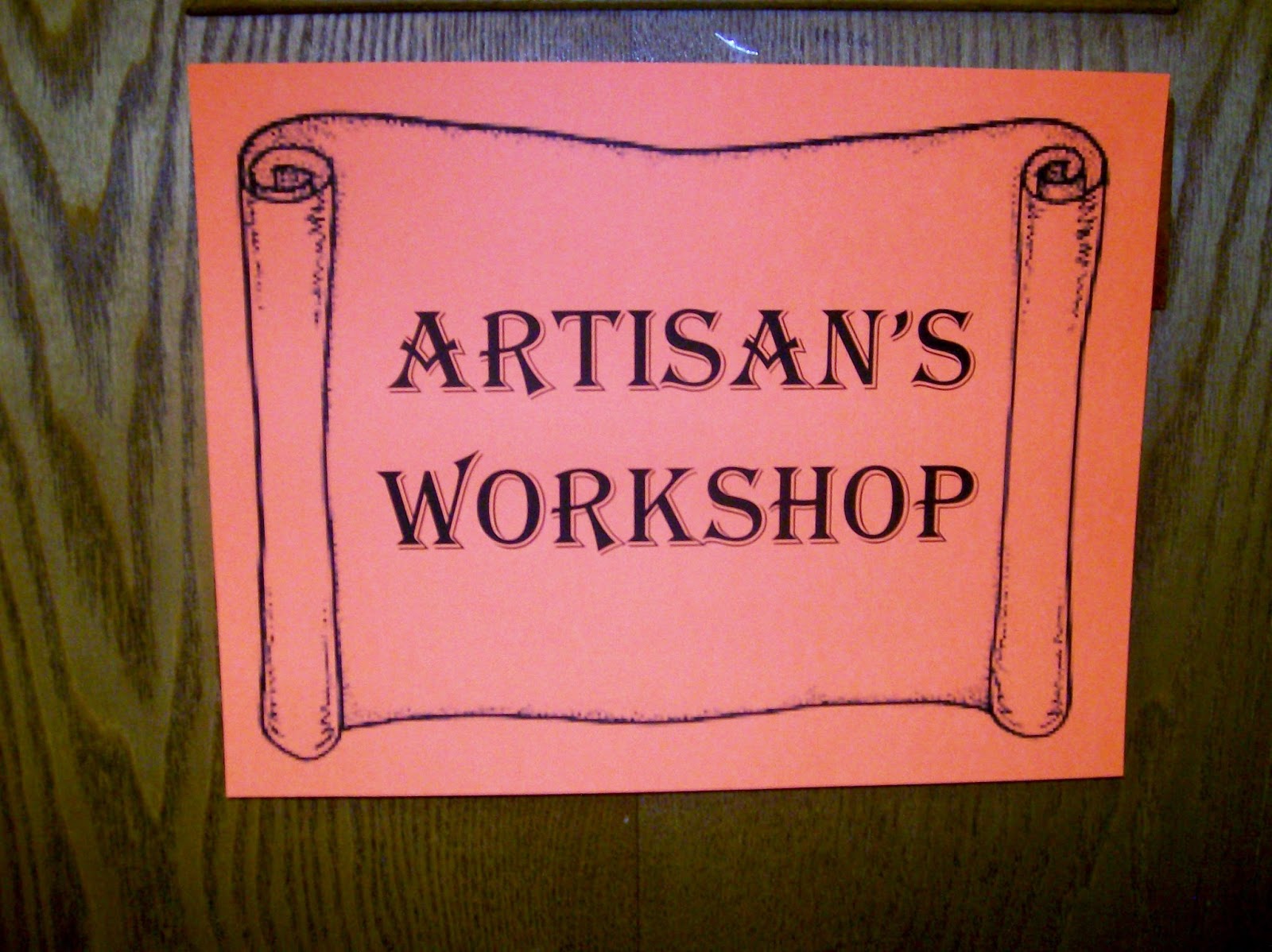
To keep kids out of the storage room, I called it the “Dungeon.”

Our office was dubbed the “Office Of The Scribe.”

Along one side of the hall, we made shields for every book of the bible. A scroll was hung above each section of books to classify them.
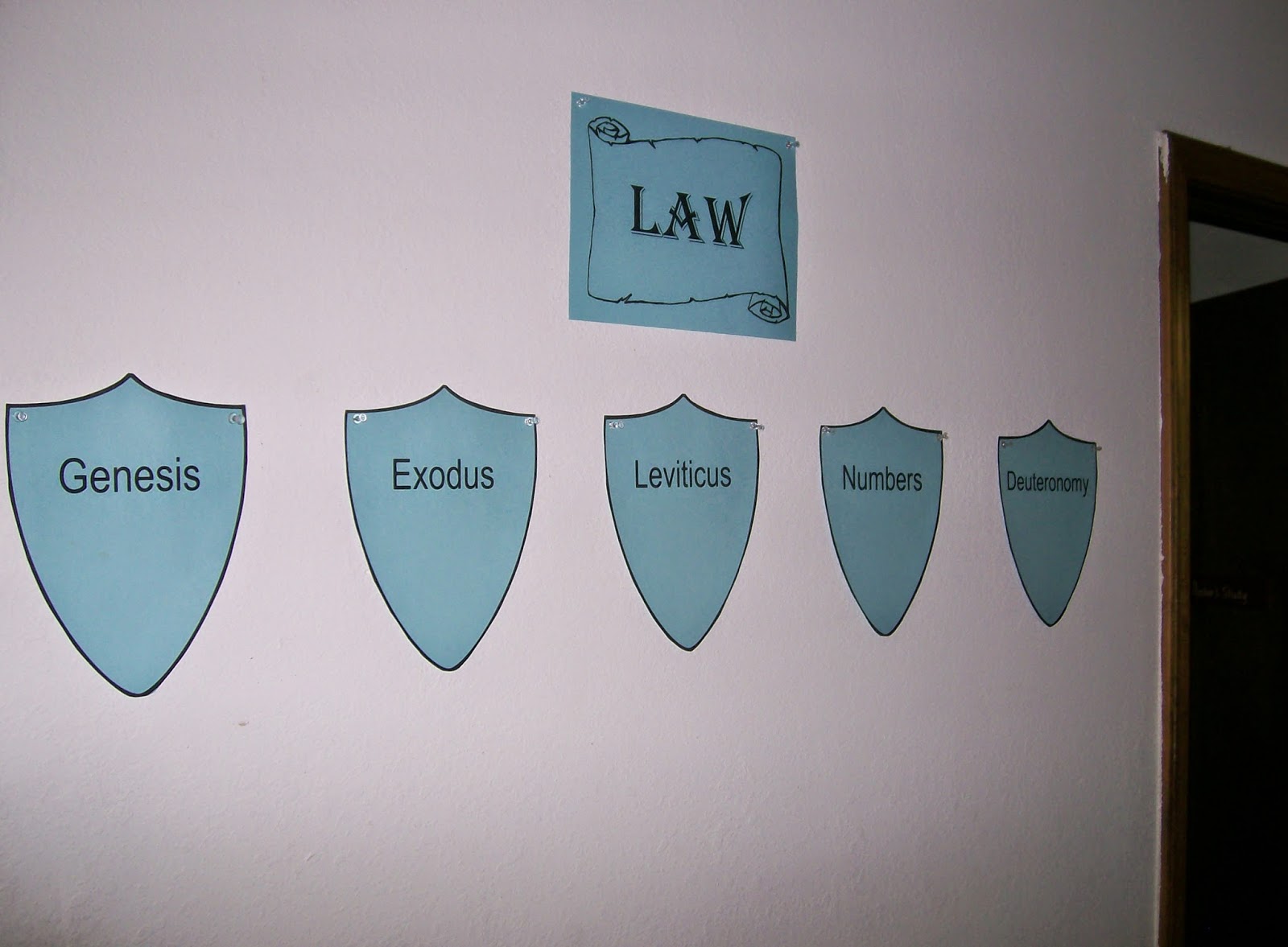
Snacks were served in the Feasting Hall.
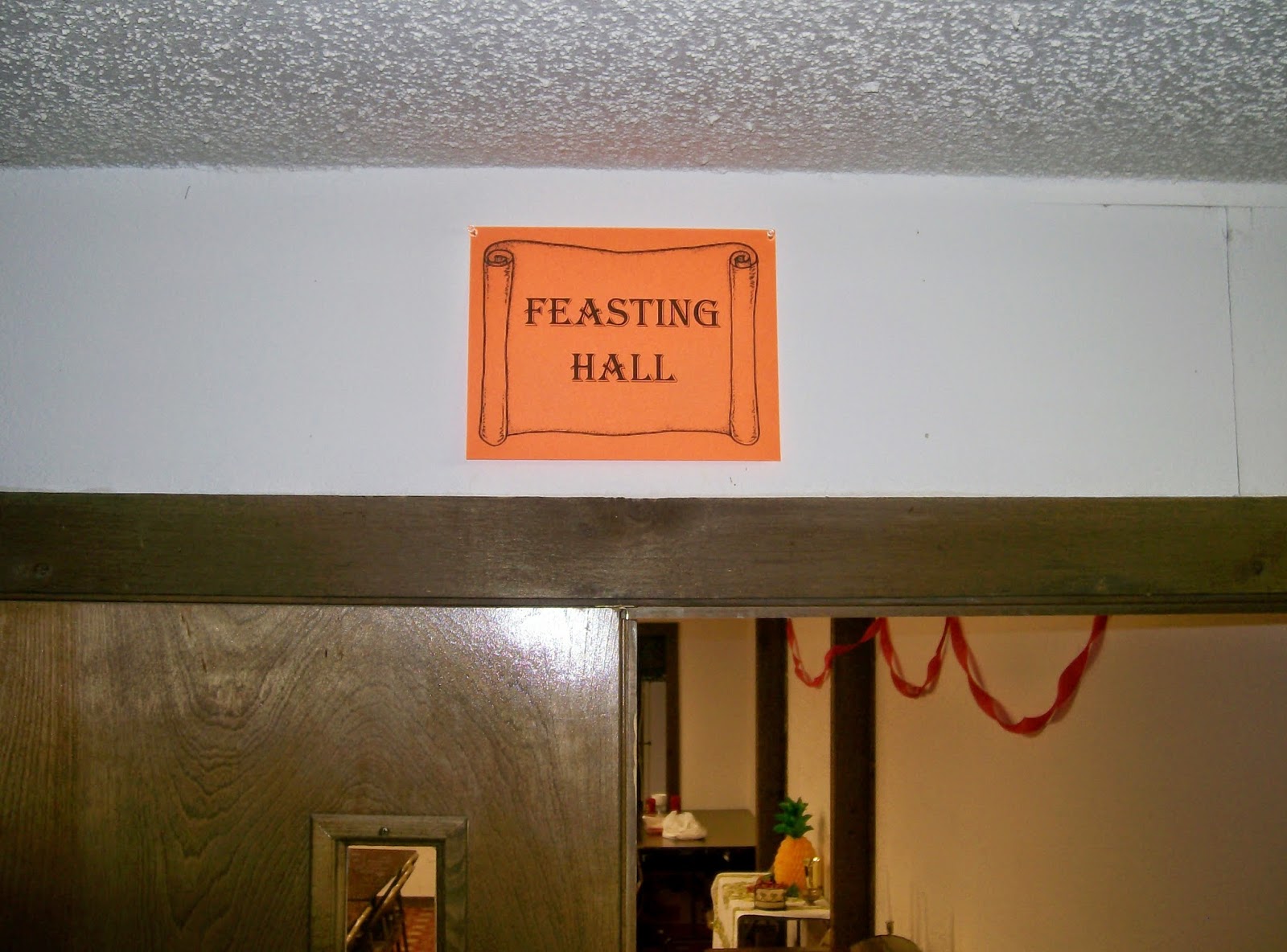
Cardboard boxes covered in brown paper made an awesome throne that you could actually sit in! My mom used some fabric to make a pillow and seat cover to complete the look. I printed VBS 2013 on a pennant banner to hang above the throne. I thought this would make a cool picture backdrop. I printed the banner off on parchment paper that was originally purchased for a 9th grade Shakespeare project. My mom keeps EVERYTHING! 🙂
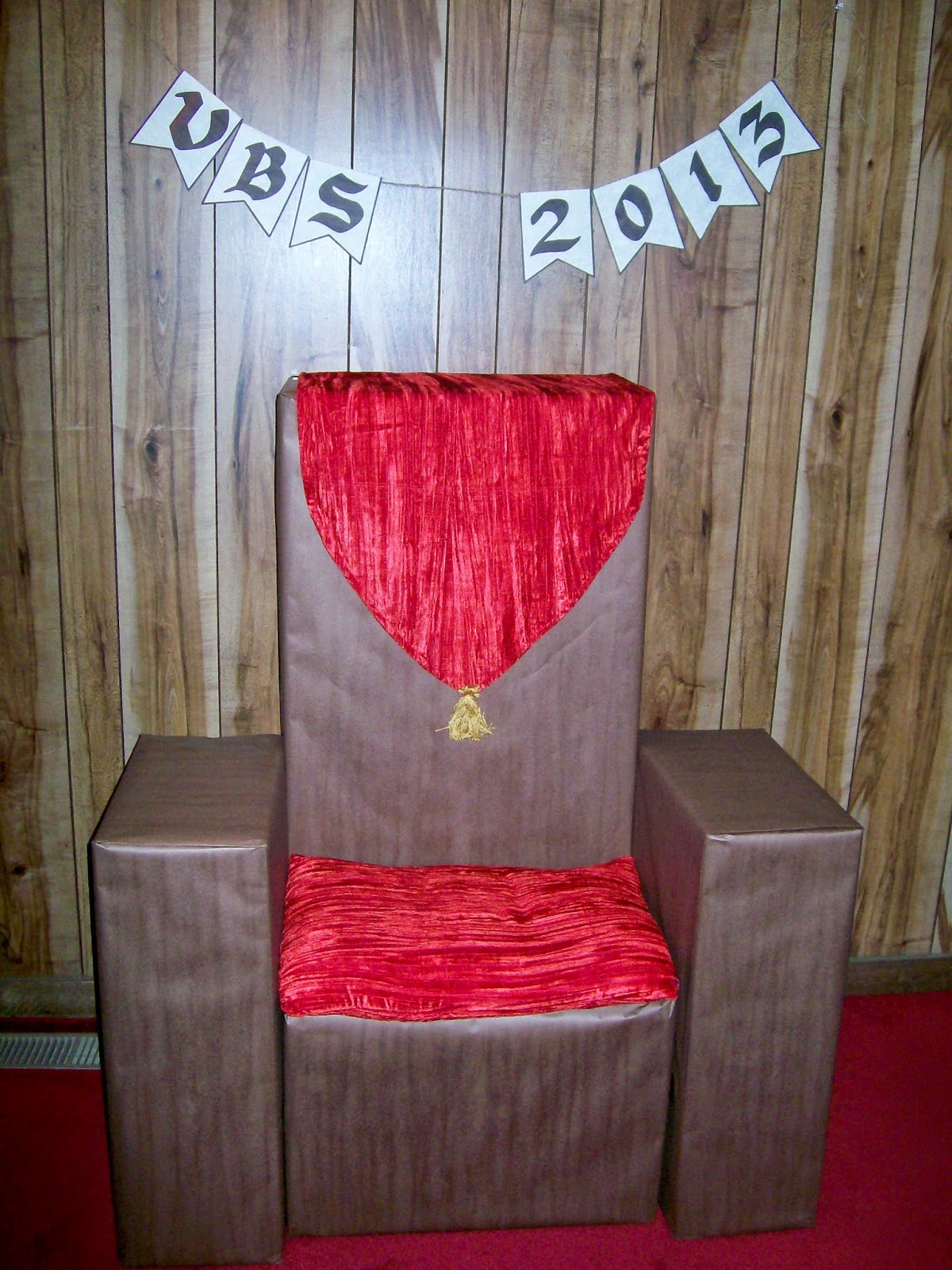
Our stage backdrop was covered in paper to look like a castle. I made more pennant letters to proclaim our VBS name, Kingdom Adventure.
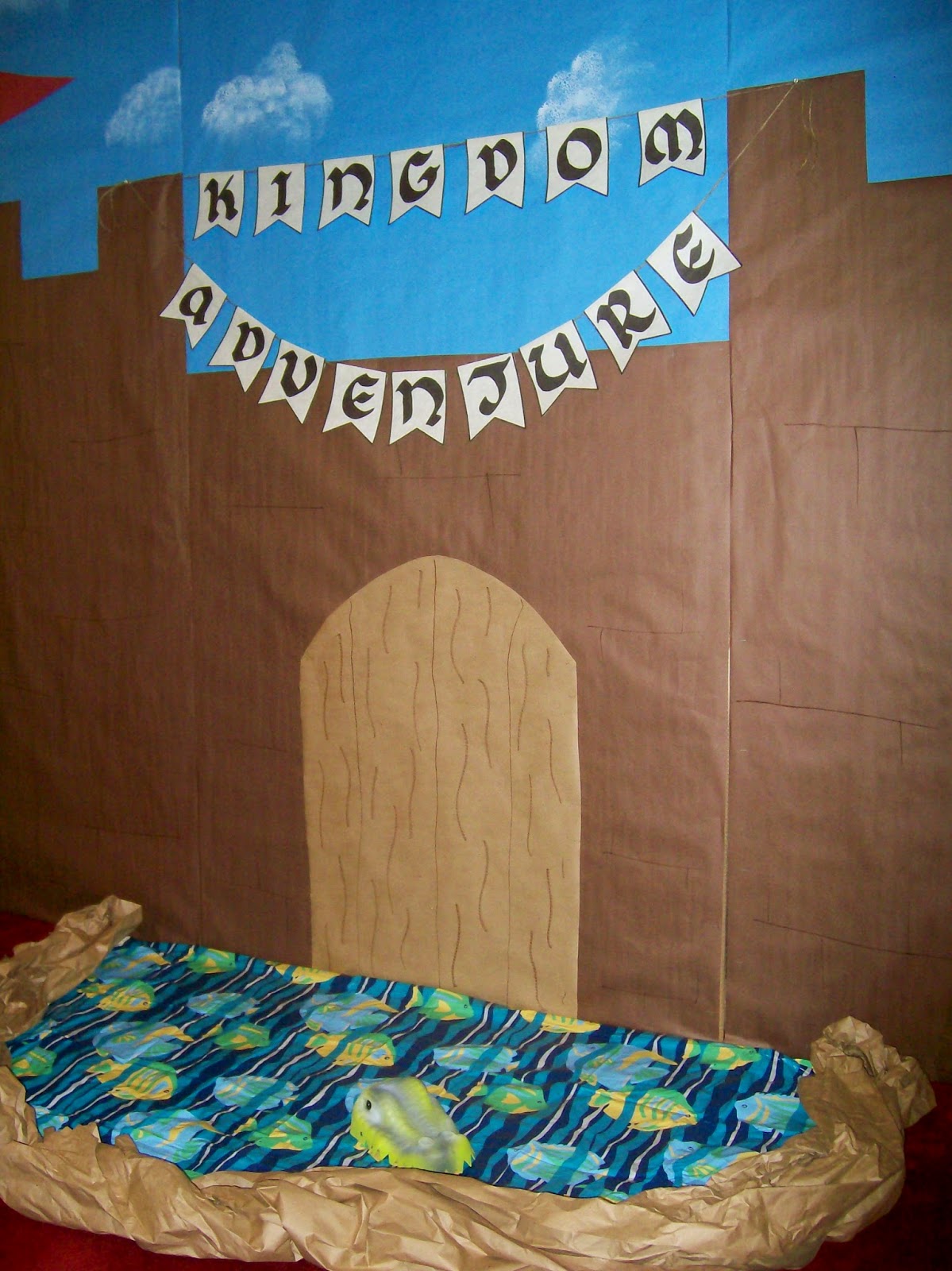
The moat around our castle even featured an alligator! A fish tablecloth formed the water of the moat. And, crumpled brown paper marked the moat’s boundaries. One of our volunteers picked up this alligator hat at Dollar Tree. We started decorating several days before VBS started. On Sunday morning, our preacher walked up to the pulpit not knowing that there was a fake alligator about three feet behind where he was standing. Let’s just say he got a little surprise!

Here’s another shield that we designed from cardboard and aluminum foil. The swords on each side of the shield were made out of painted paint sticks and craft sticks. The kids wanted to play with these swords so badly!
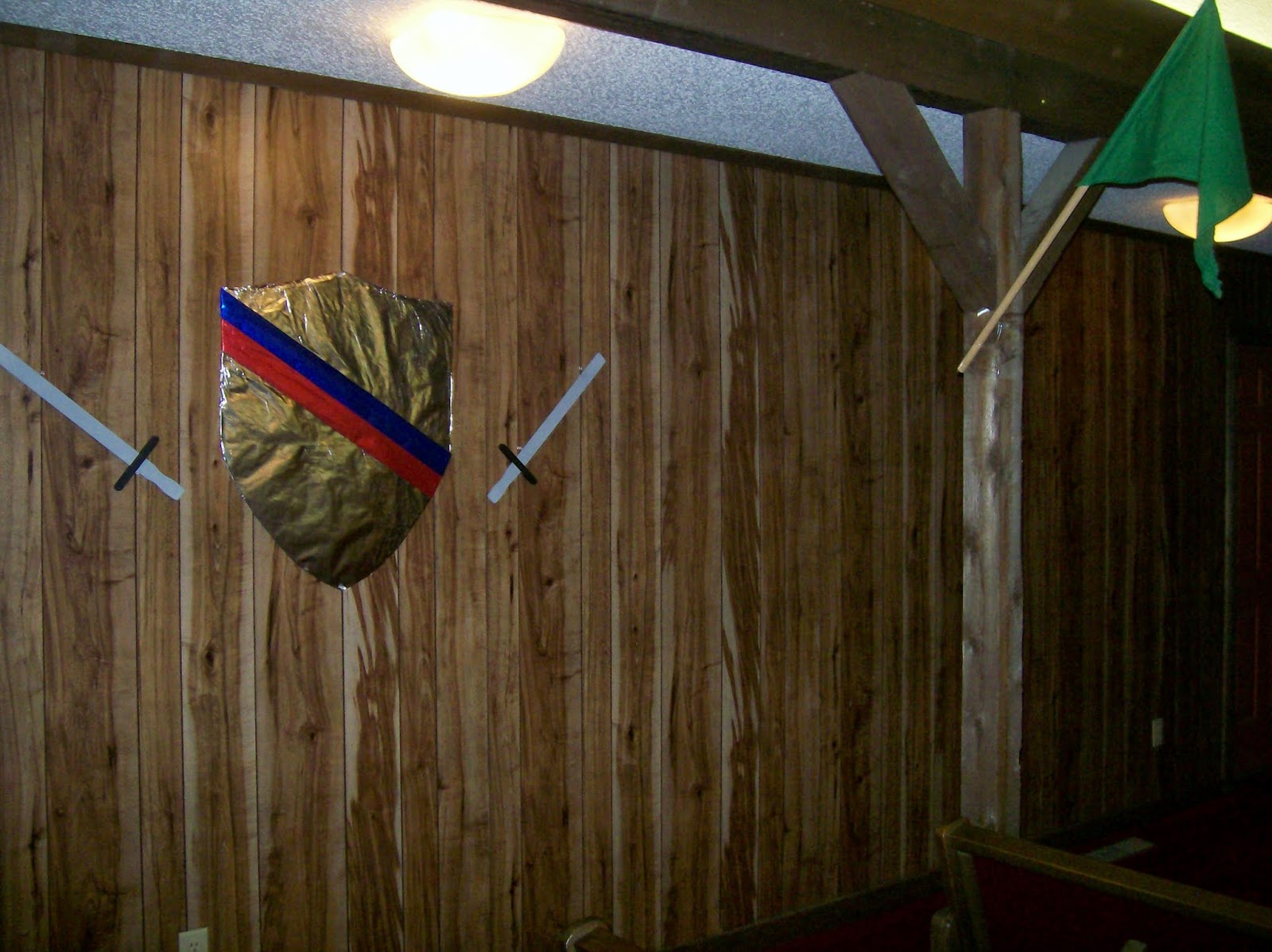
One of the ladies who used to serve as VBS director is super crafty! She made this coat of armor out of cardboard boxes, recycled food containers, and lots of duct tape! So cool!
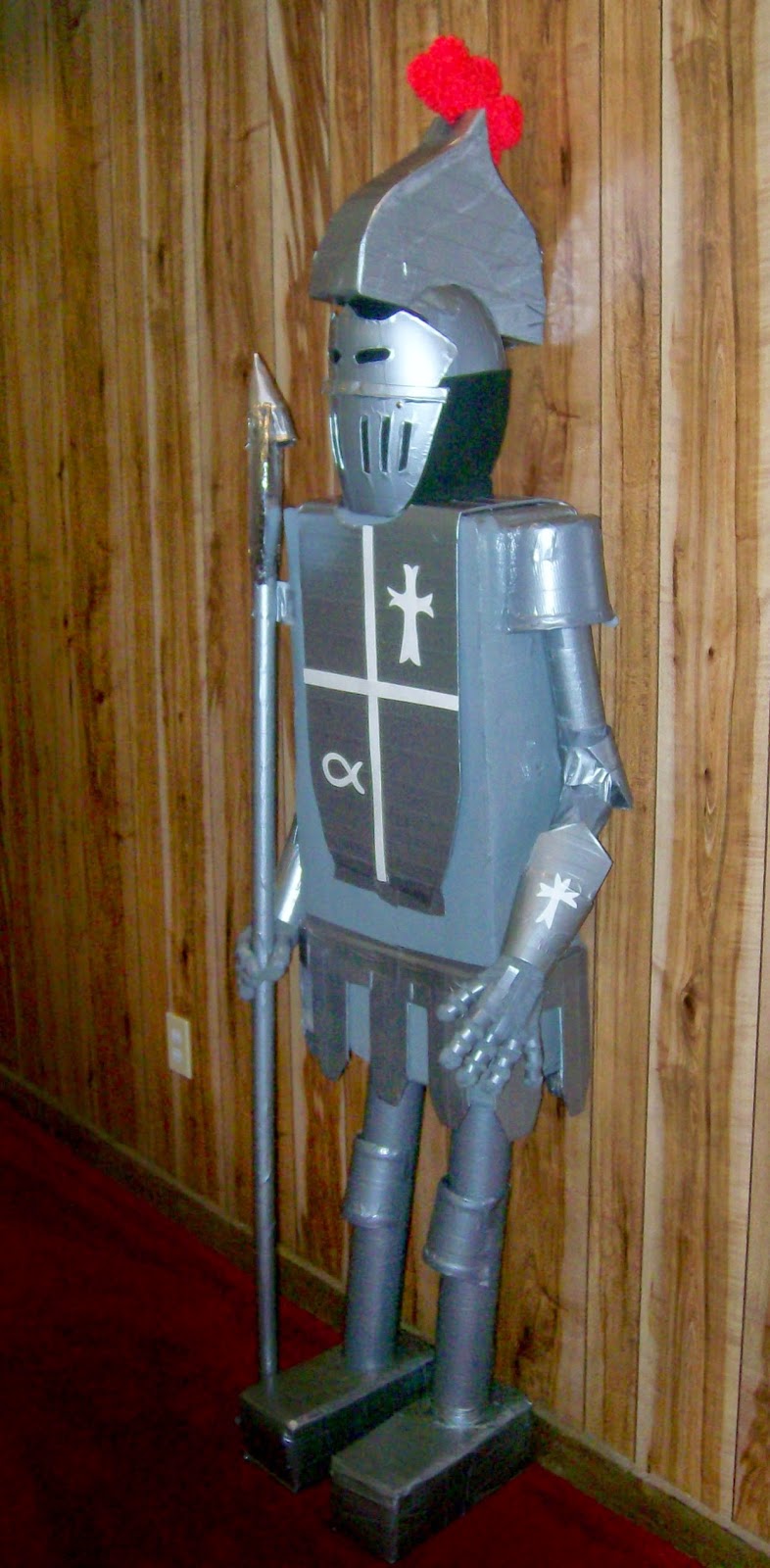
She also made this shield to hang in our feasting hall.

My mom picked up some candle holders at a thrift shop to add some flair to our feasting hall. After VBS was over, these candle holders made their way home with me to be hung up in my hall.

We draped some tulle to add a little flair to the kitchen area.
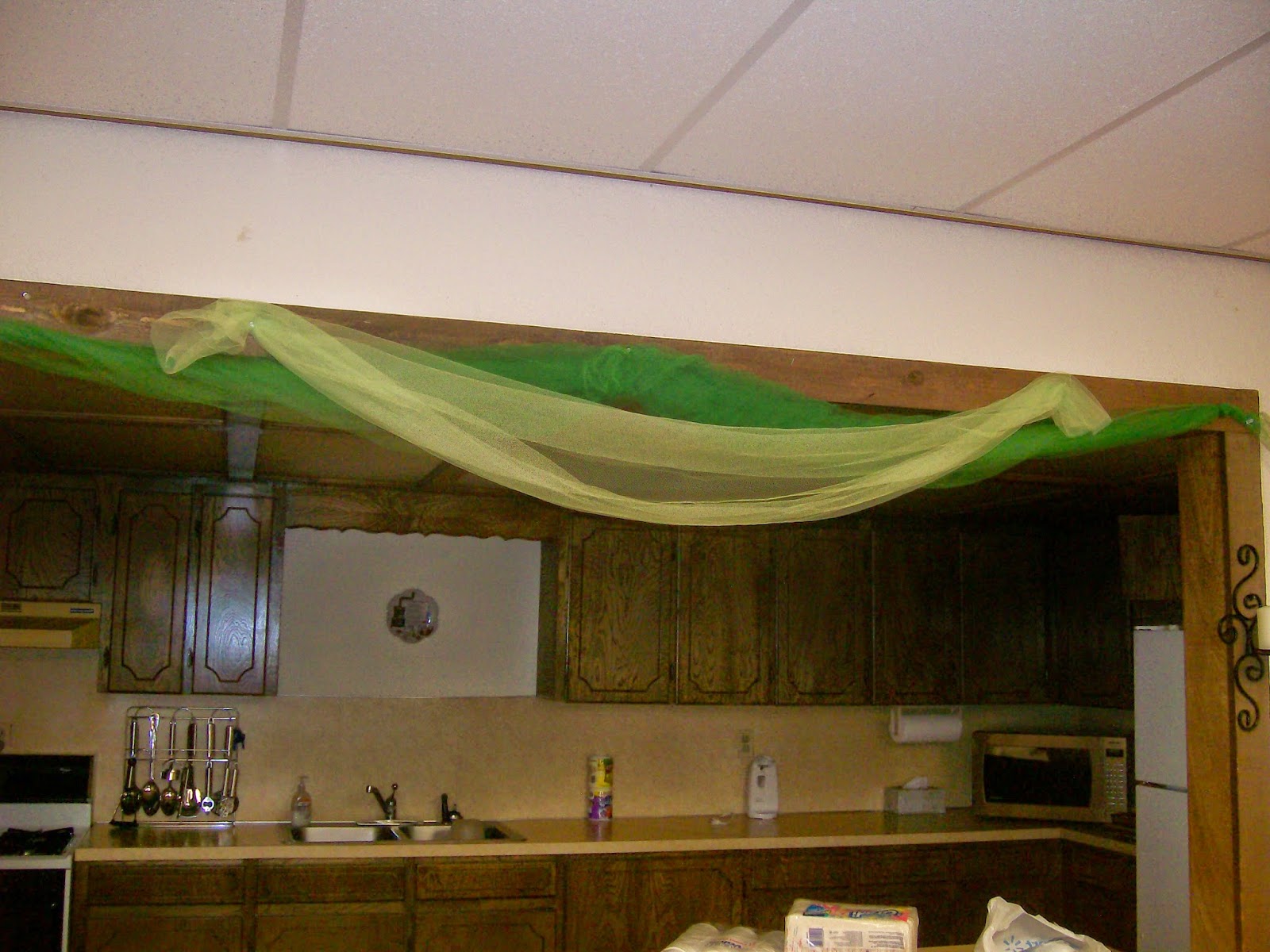
We each scoured our houses for decorations that could be used. Someone brought these fake grapes to display. They were perfect for the feasting hall.

A giant pineapple from a previous luau themed VBS found a new use. Those are some candles that I borrowed from one of the cabinets at church.
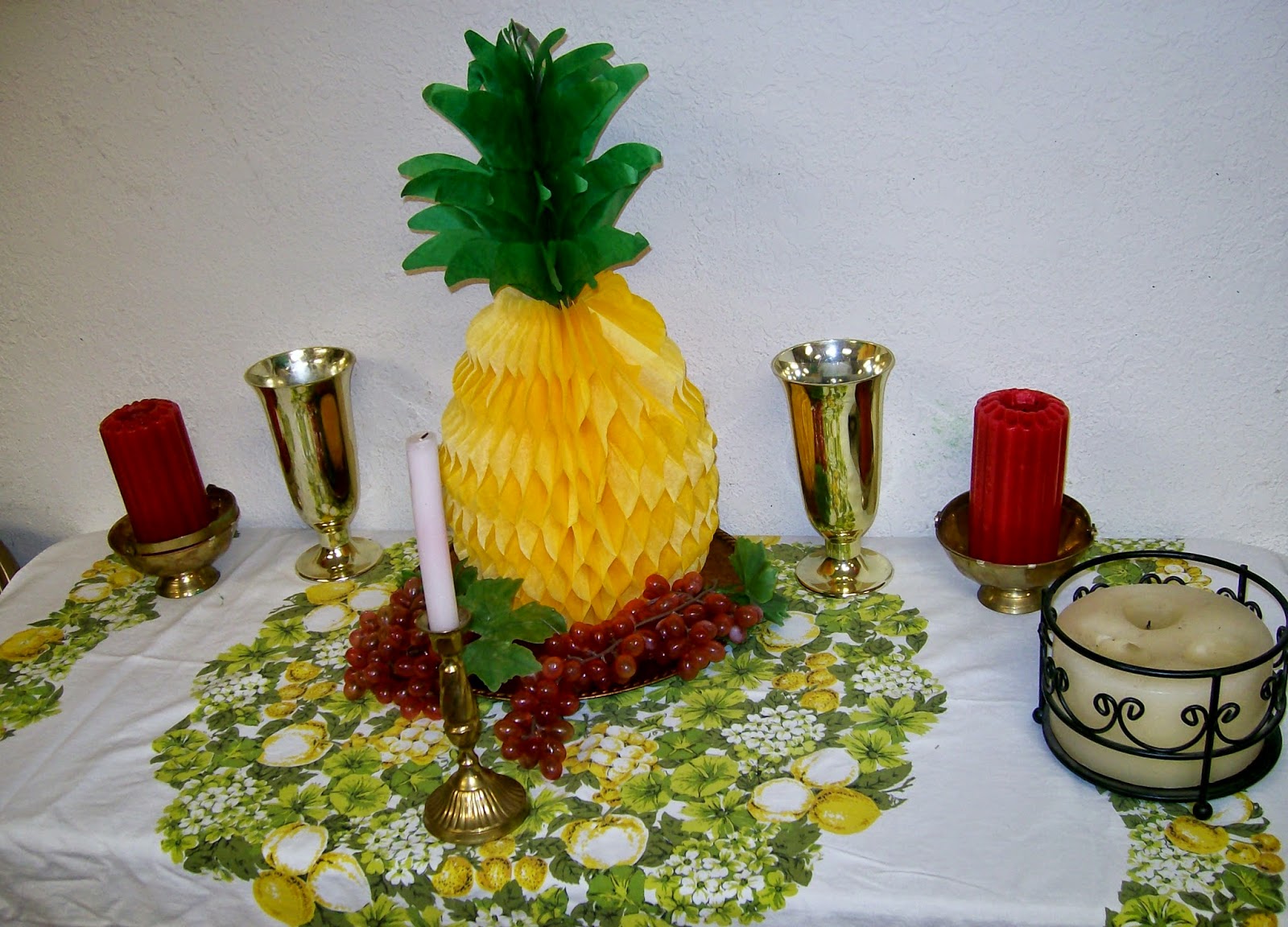
We made torches out of brown paper to line the hall. The flames were made out of yellow and red paper and/or cellophane.
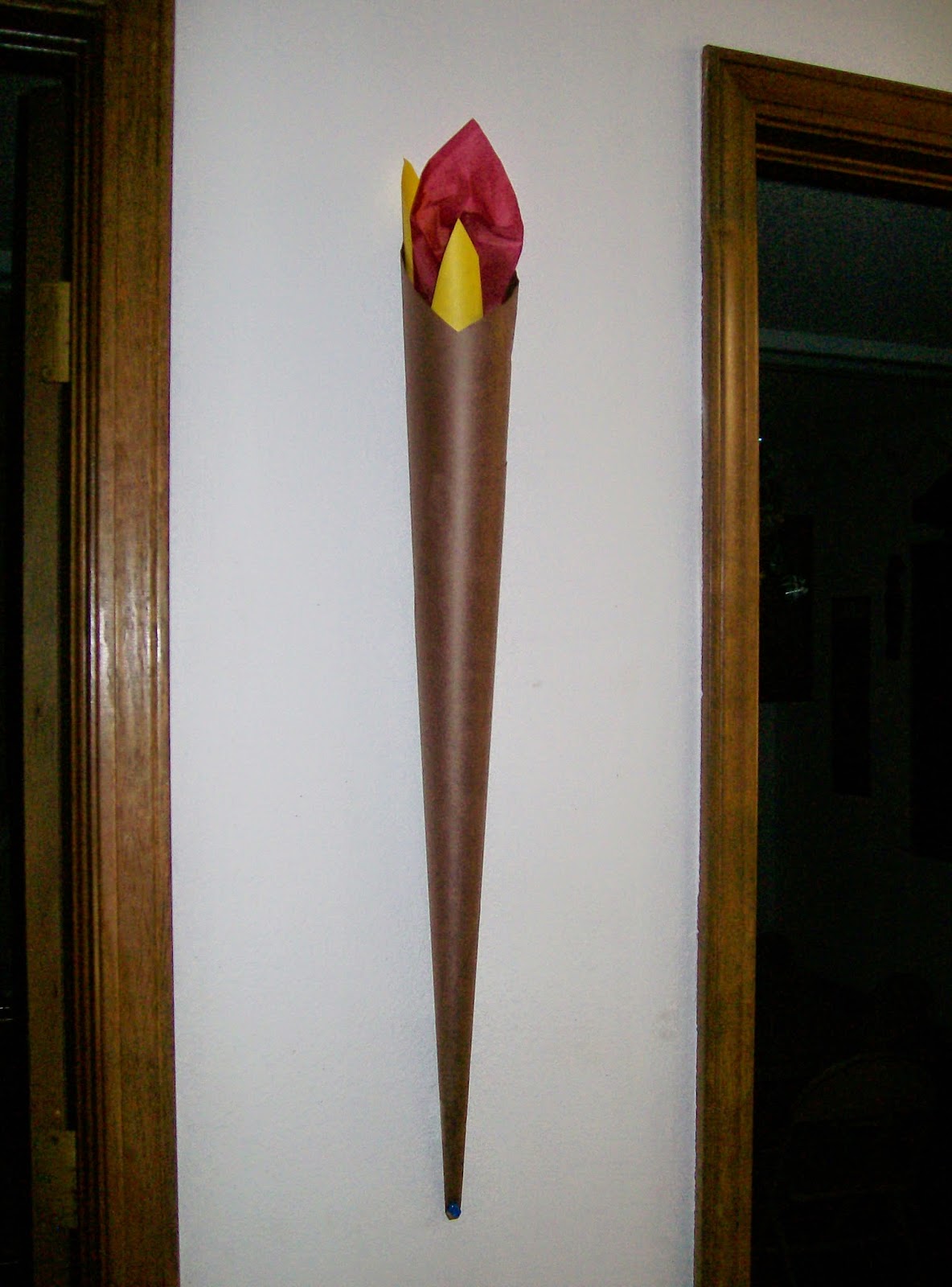
My sister made tiny golden crowns for the men’s and women’s restroom signs.

I thought this was so creative!

Along one of the halls, we made shields for each of the four stories we would be studying during VBS. Each shield featured a silhouette of the bible character they would be learning about. Around the outside of the shield were various clues. Children could lift up the crown to reveal the correct answer. These were a big hit!
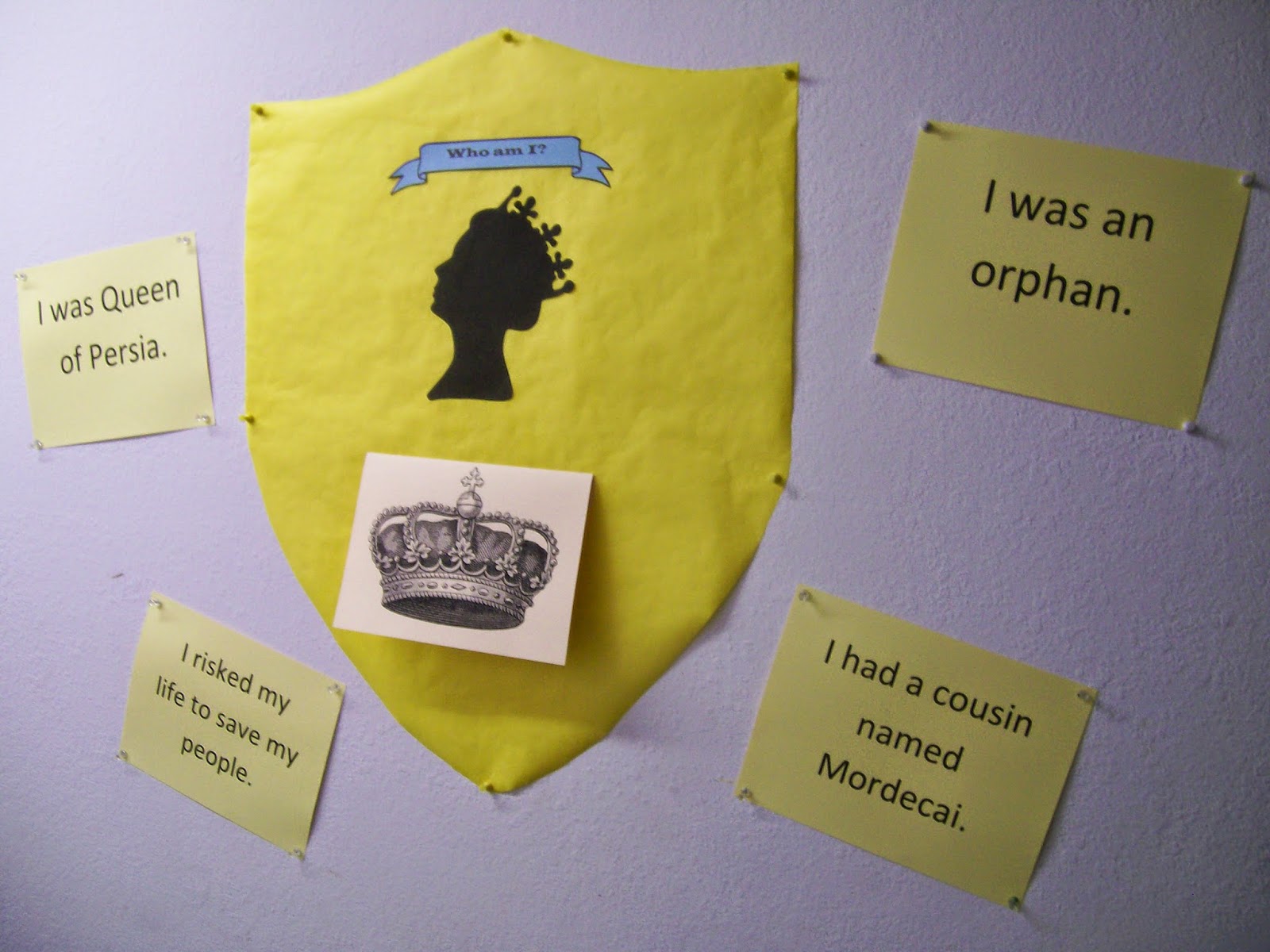
During the week, students memorized The Lord’s Prayer. My mom made this visual display of the different phrases that compose The Lord’s Prayer.
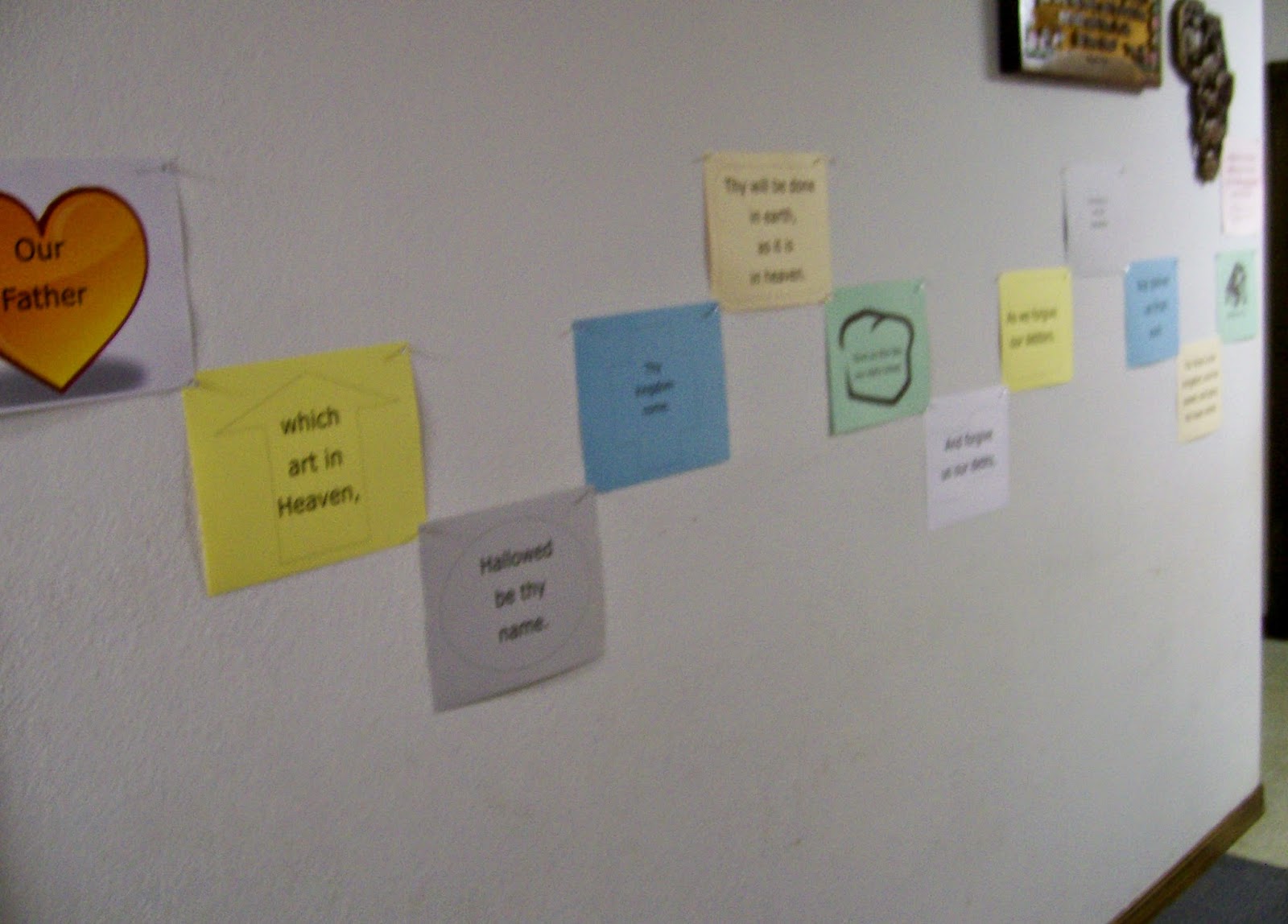
This table set in the back of our sanctuary.
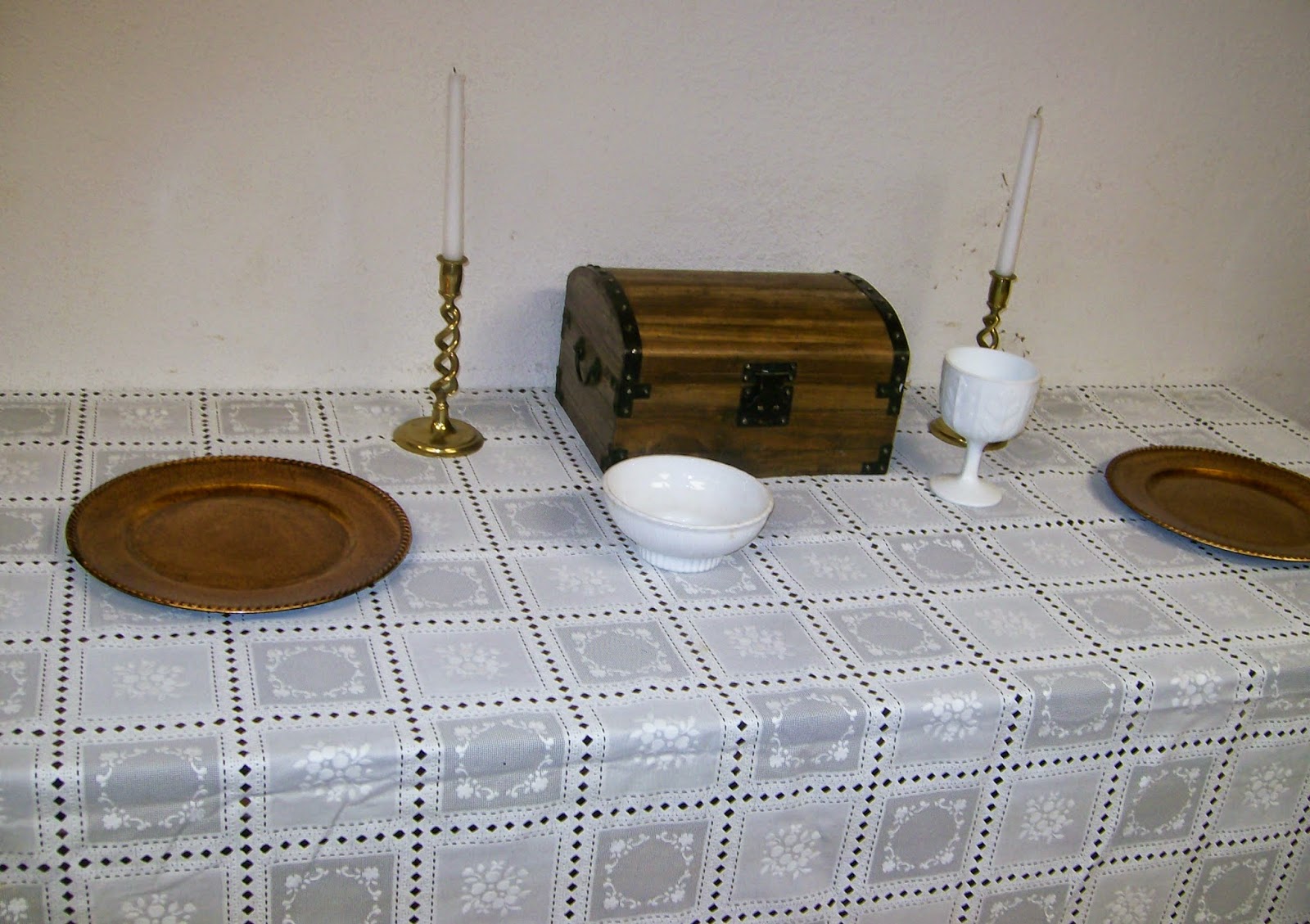
Another table was set with candles and pushed against the wall in our kitchen. We covered the table in paper and added a red cross for decoration.
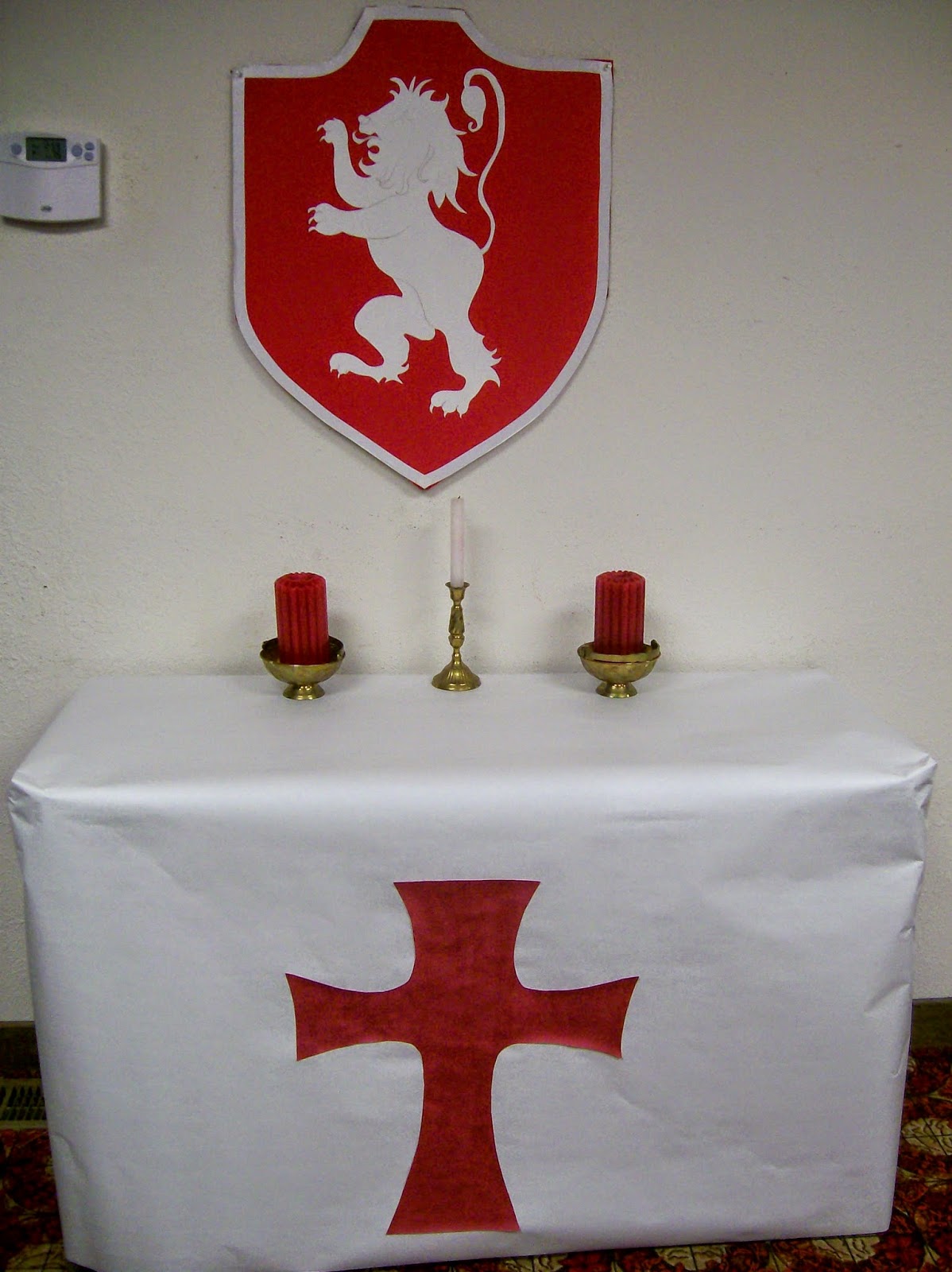
Online, I saw the idea of making metal bars out of duct tape. I guess that’s what they’re called. Oh well… These look easy to make, but they took FOREVER. They looked cool in the end, but I’m not sure they were worth the frustration.
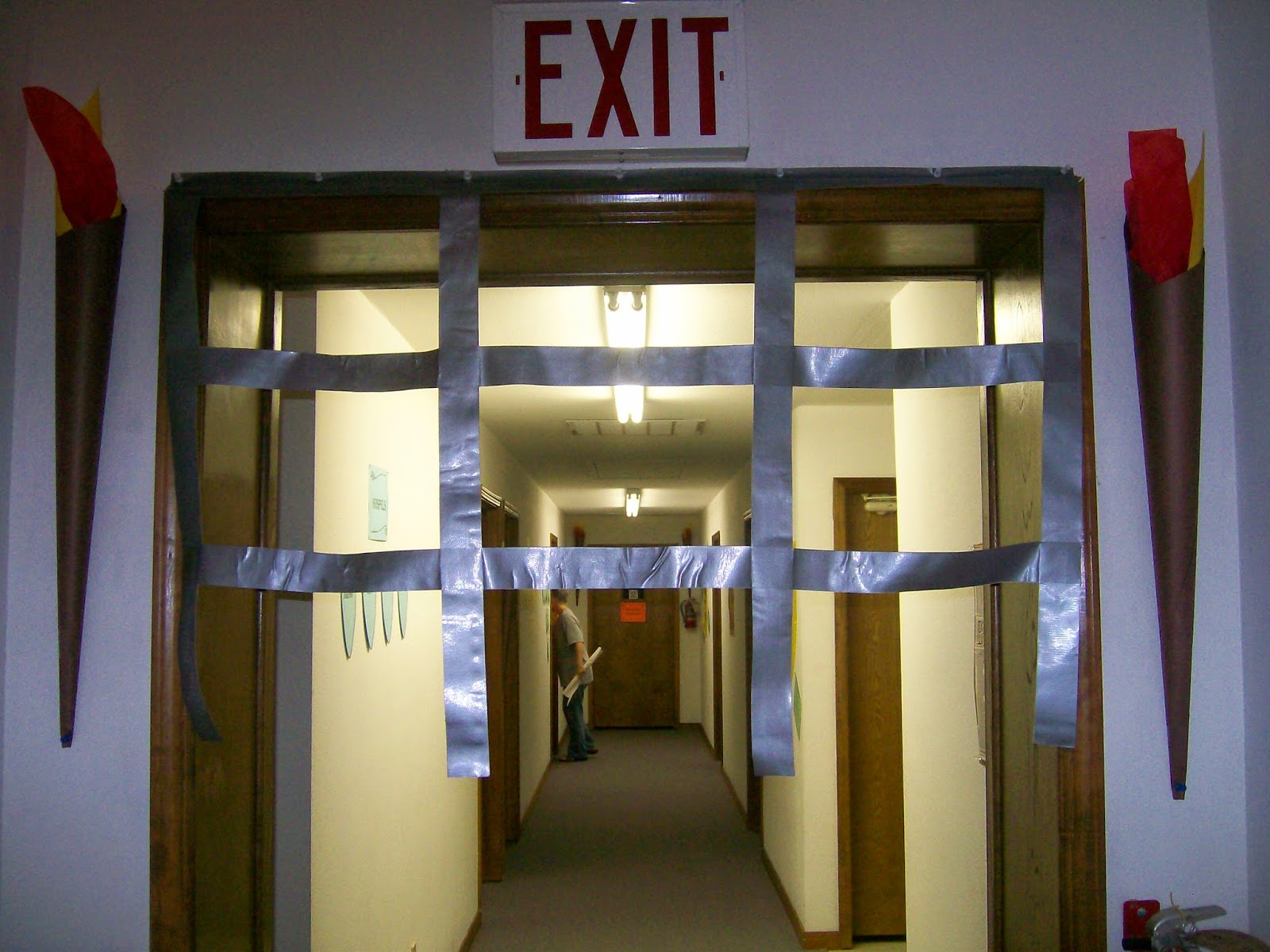
I found a roll of red paper ribbon in one of the cabinets. This was used to form a large shield shape in the hall. A poster about The Order of the Cross was hung inside the shield.
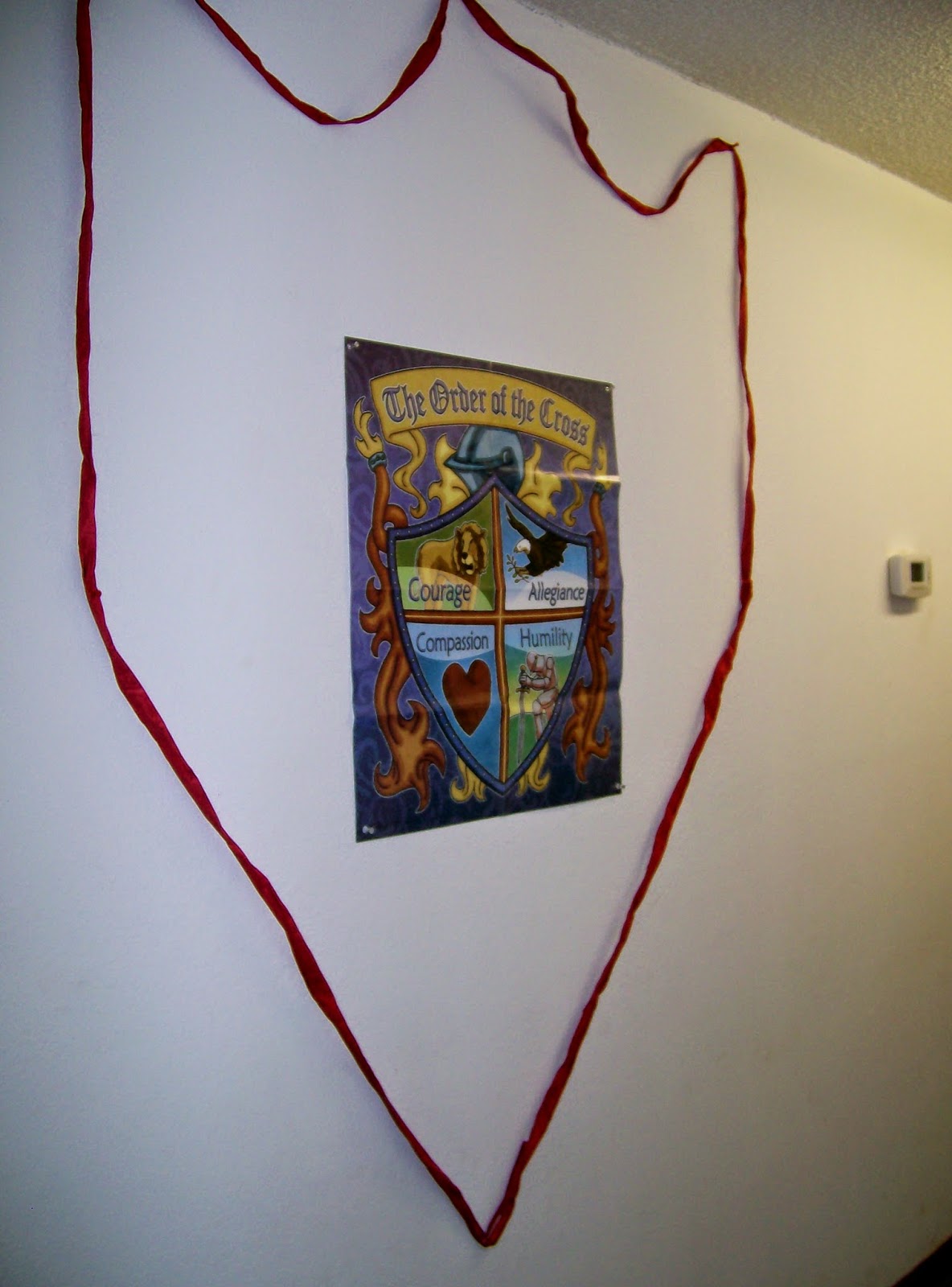
Remember that treasure box on the back table in the sanctuary?

Inside, I placed true treasure – a bible. I put a note on the bible that said, “True treasure is found in the Word of God.”
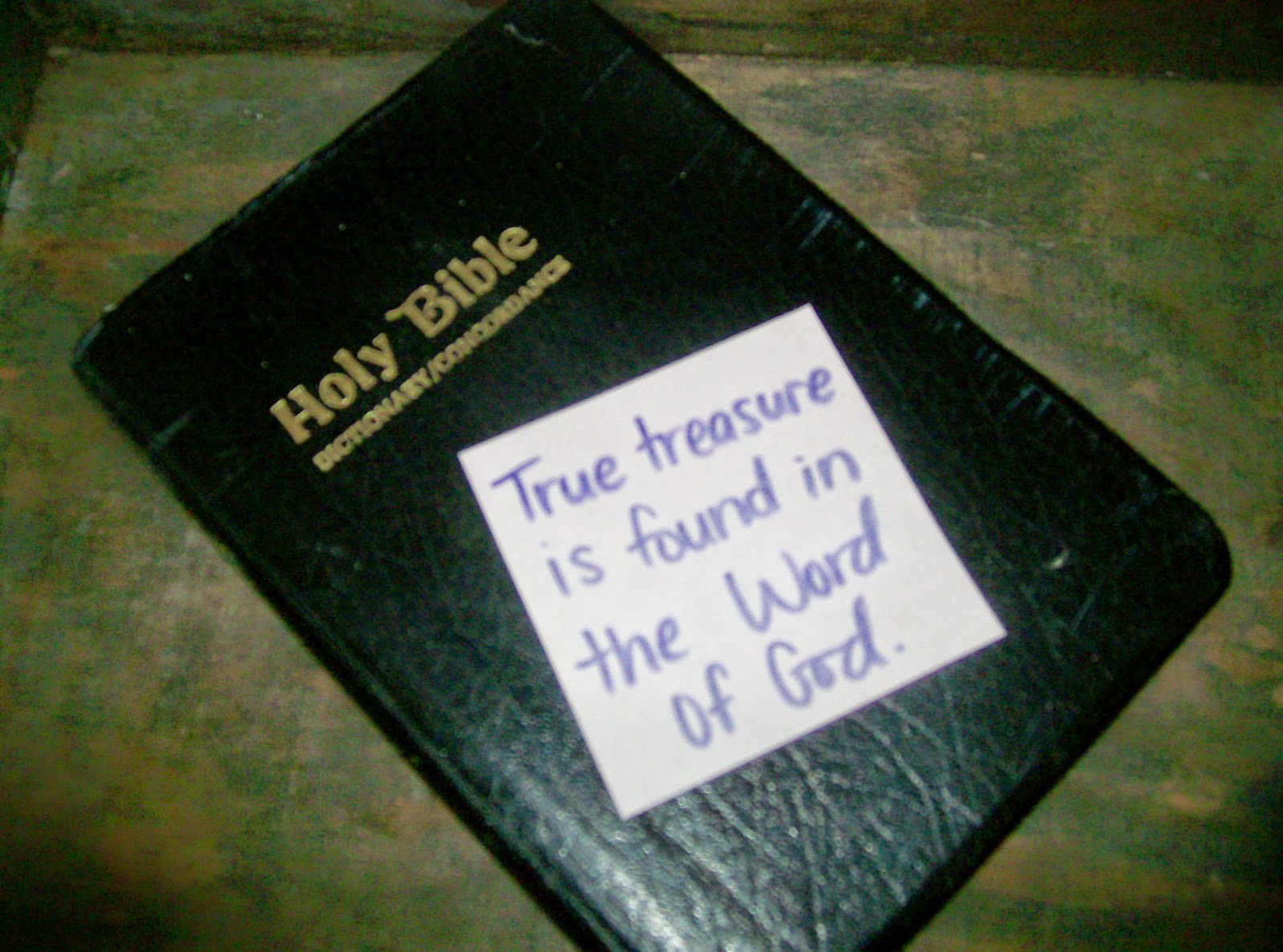
As you can tell, we used a lot of candles in our decorating! Don’t worry, we didn’t actually light any of them. That would be a major fire hazard. They were for looks only!
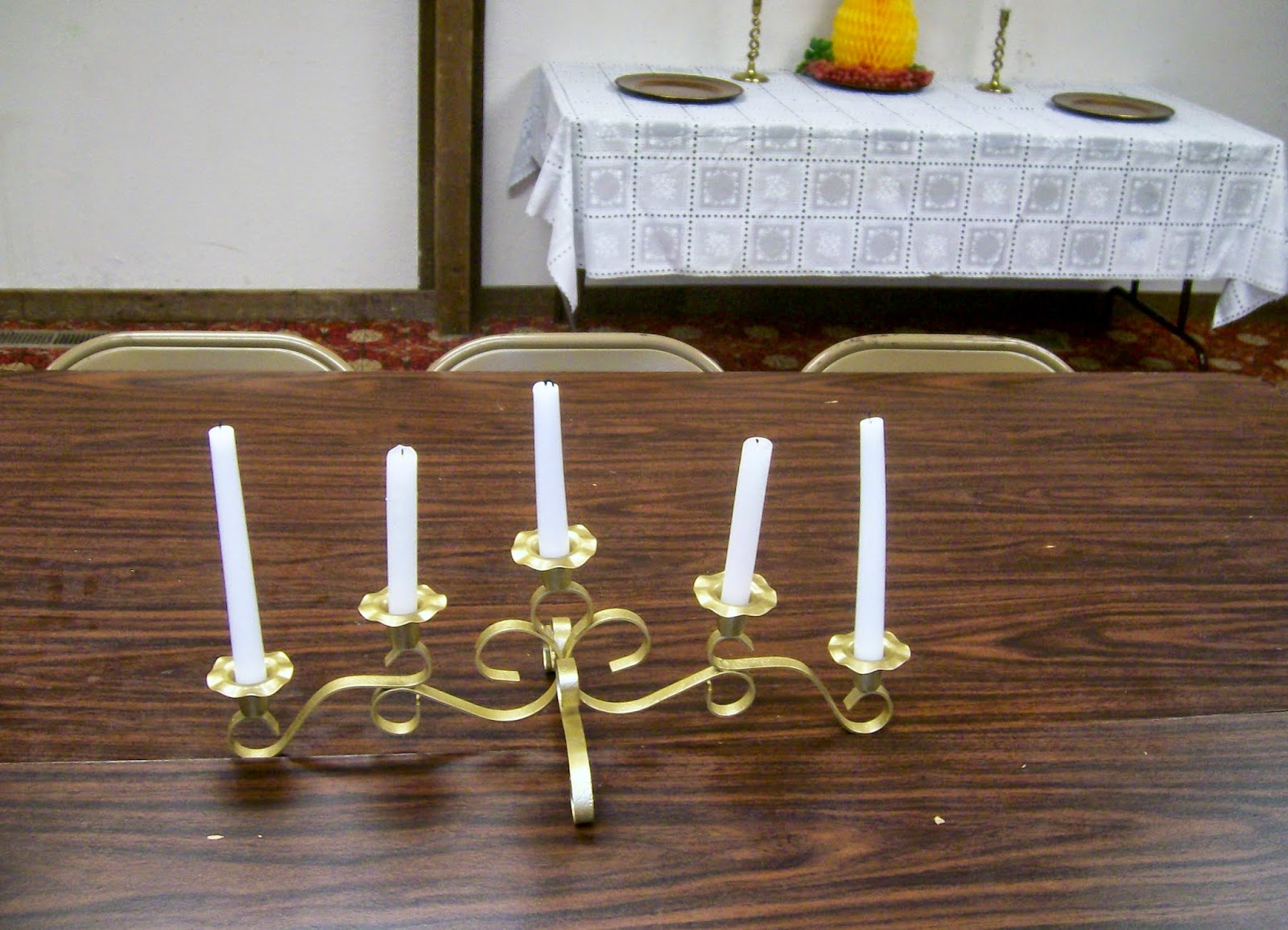
So, there you have it. A peek at last year’s decorations. I’m not sure how useful my regular readers will find this post, but I hope that it will help someone looking to decorate for a castle, kingdom, or medieval themed vacation bible school!
May 24, 2014 – Roses, Beautiful Roses
So, I realize yesterday’s post didn’t have anything to do with math. Today’s doesn’t either. Sorry! I have tons of lessons from this year that I still haven’t blogged about like cup stacking and barbie bungee and the function game and icosahedron ornament balls and pascal’s triangle and factoring and the quadratic formula and pi day and oil and natural gas math problems and tic tac toe and completing the square and complex numbers and systems of equations and slope and sampling distributions and the list goes on and on. I guess I need to get busy and get blogging!
But, today we’re going to look at pretty pictures of roses at the Tulsa Rose Garden because it’s summer, I love flowers, and this post is a lot easier to write than the posts I’ve been putting off for months. Hello, Sarah, do you realize that Pi Day was in March and it’s now almost June?!?! As long as I blog about it before next Pi Day, I’ll be okay, right?
So, last weekend, I met up with my friend Haley for dinner. We did our student teaching at the same time, and I was part of the student teaching support group that Haley formed to help save our sanity. She teaches English in a district that is a couple of hours away from me. But, we still get together every couple of months to hang out and share classroom and life experiences. After a yummy dinner at Genghis Grill, we hopped in the car and just started driving. We drove by the Tulsa Rose Garden and decided to stop and walk around and take lots of pictures.
I’d never been to the Rose Garden before. Honestly, I didn’t even know Tulsa had a Rose Garden. And, I’ve lived within 40 miles of Tulsa my entire life. I even lived in Tulsa for four years. According to Google Maps, I lived 2.6 miles away from the Rose Garden for four years and didn’t even know it was there. How sad is that?
According to some Internet research, the garden is made up of five separate terraces, and it was constructed as a WPA project in 1934-1935 using only hand labor and teams of horses! The garden normally features 5,000 rose bushes. But, they are currently experiencing a disease in the garden, and at least one of the terraces was completely empty of roses. It was still beautiful, though!
There were tons of people out taking pictures and enjoying the beautiful blooms. Here is just a sampling of the pictures I took at the park. So, take a break from what you’re doing, and enjoy some beautiful blooms. I only wish that you could smell their beautiful fragrance, too!












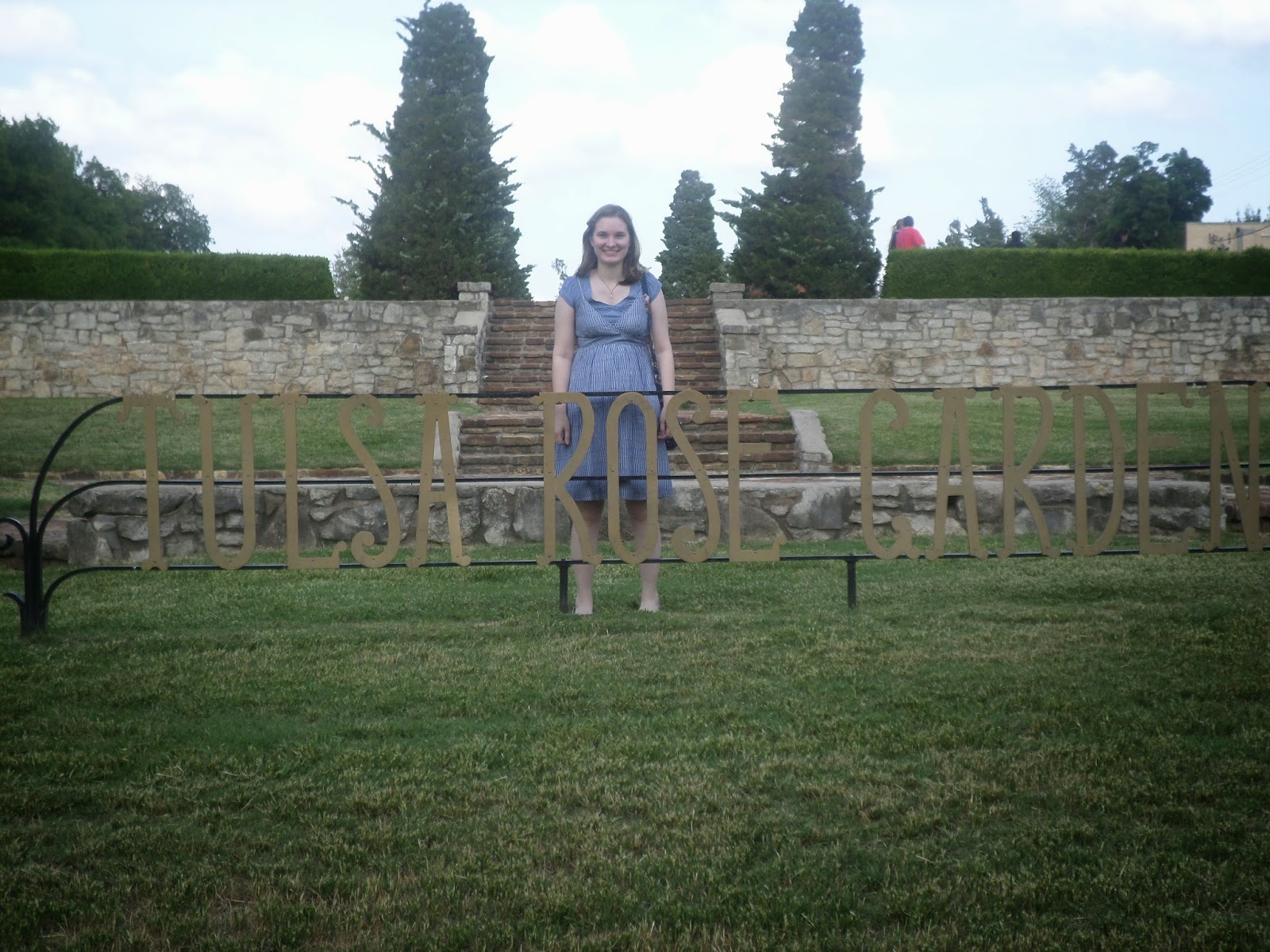



May 26, 2014 – Organizing My Colored Paper Obsession
I have a slight obsession with colored paper and card stock. My school only provides teachers with white copy paper, and let’s be honest. Foldables are so much prettier and more memorable when they are printed on colored paper. And, activities are so much more durable when printed on card stock and laminated.
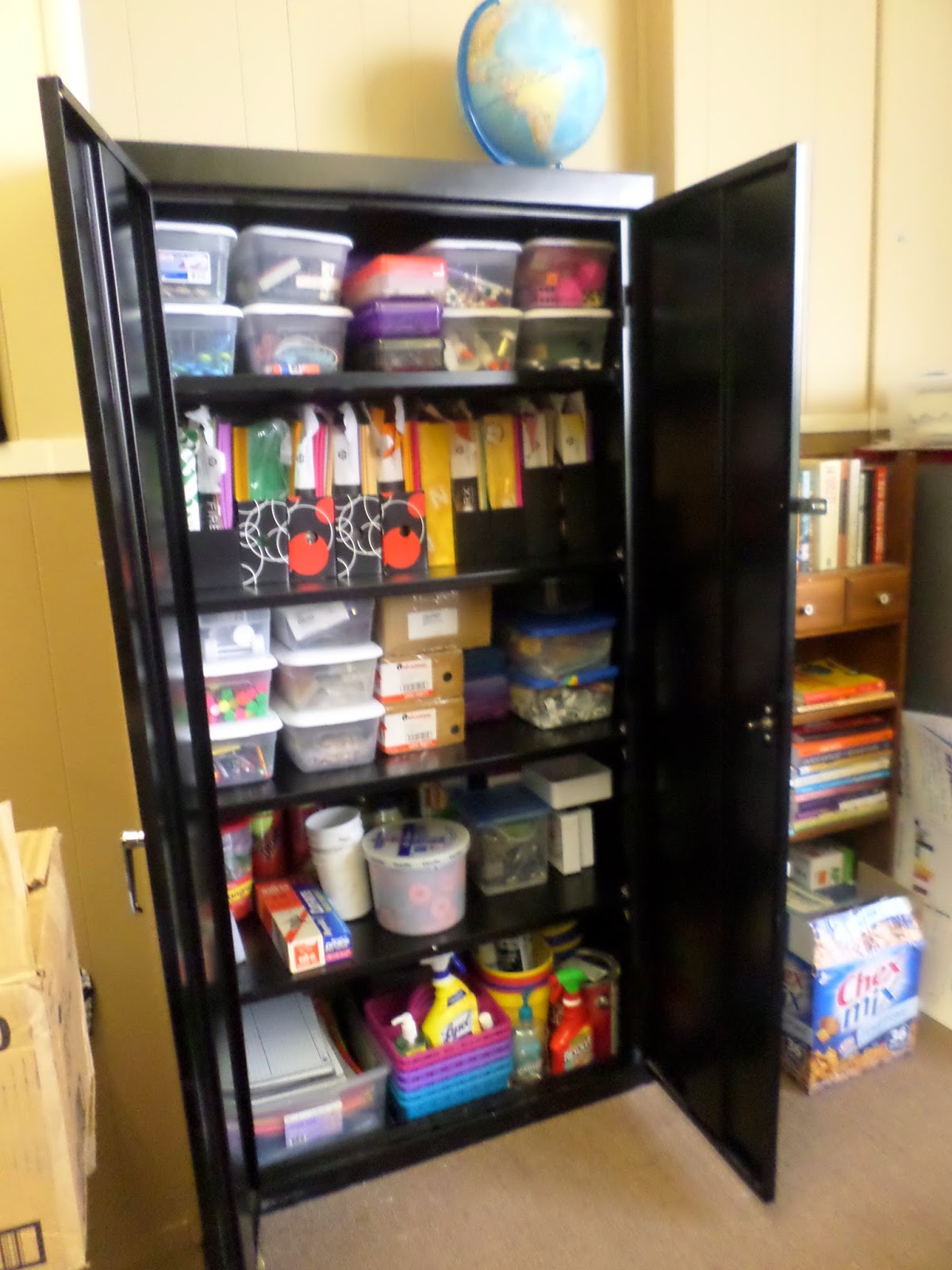
Colored paper makes me smile, so it’s a price I’m happy to pay.
For the past two years, my colored paper obsession has lived on the second shelf of my black storage cabinet. I stand the reams of paper up in cardboard and plastic magazine holders. This has worked fine, but I’ve sort of outgrown my space. I kept having to split up reams of paper into multiple holders to make it fit.
My students are allowed to get paper out of my cabinet to use for various school projects and origami. They weren’t always the best at putting up the paper that they pulled out that was the wrong color. And, pieces of paper would often end up crumpled and unusable. Plus, they had trouble differentiating between copy paper and card stock. “Why is this paper so thick?” Well, it’s called card stock. “Oh.”
The other day, I saw a picture on Pinterest that suggested storing colored paper in your filing cabinet with hanging file folders. I decided to give this a try while reorganizing my classroom the other day.
I put all of my card stock in one drawer of my filing cabinet. Note to self. Do not buy more yellow card stock this summer! You have plenty!
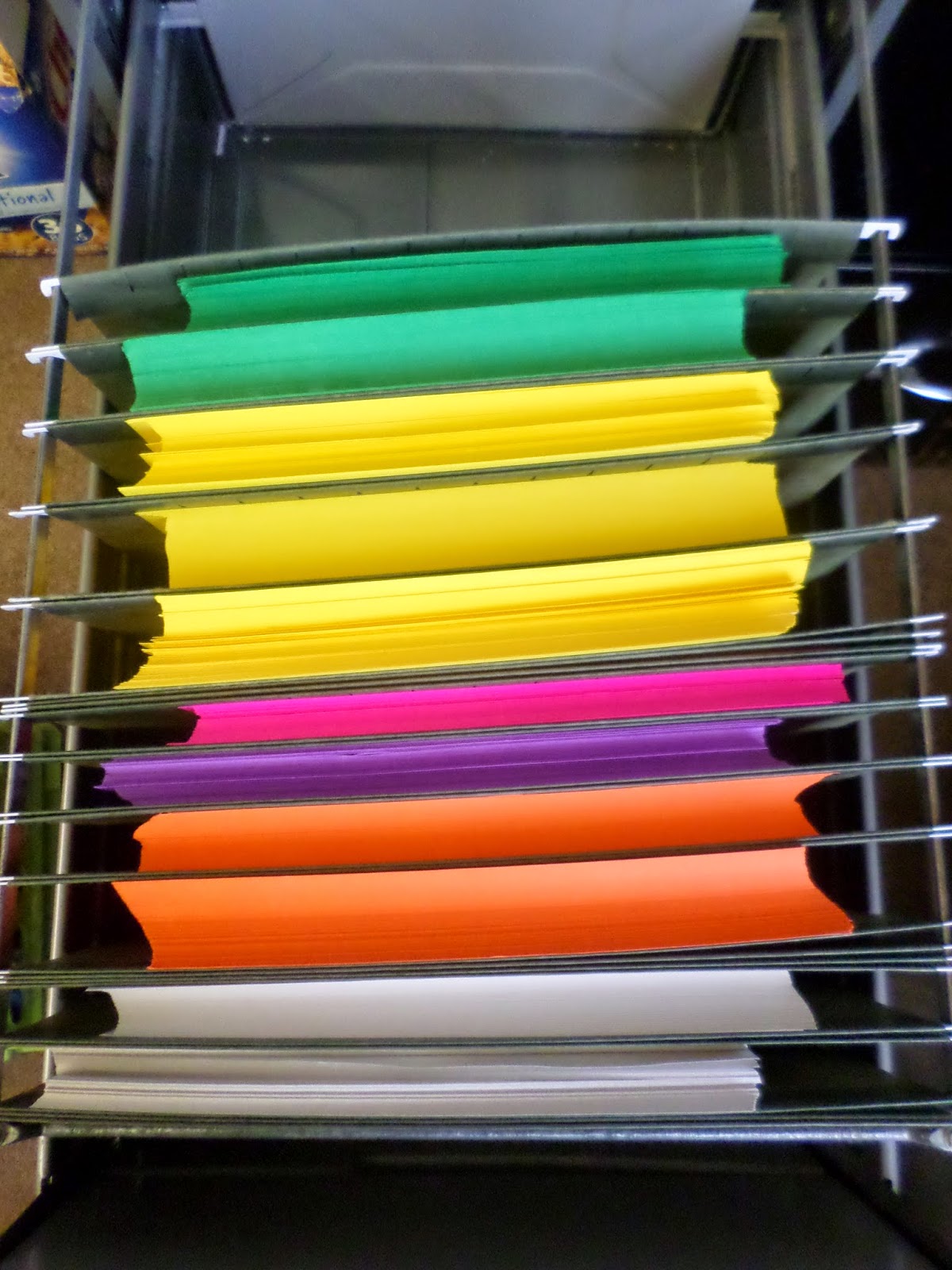
And, I put my colored copy paper in a separate drawer.
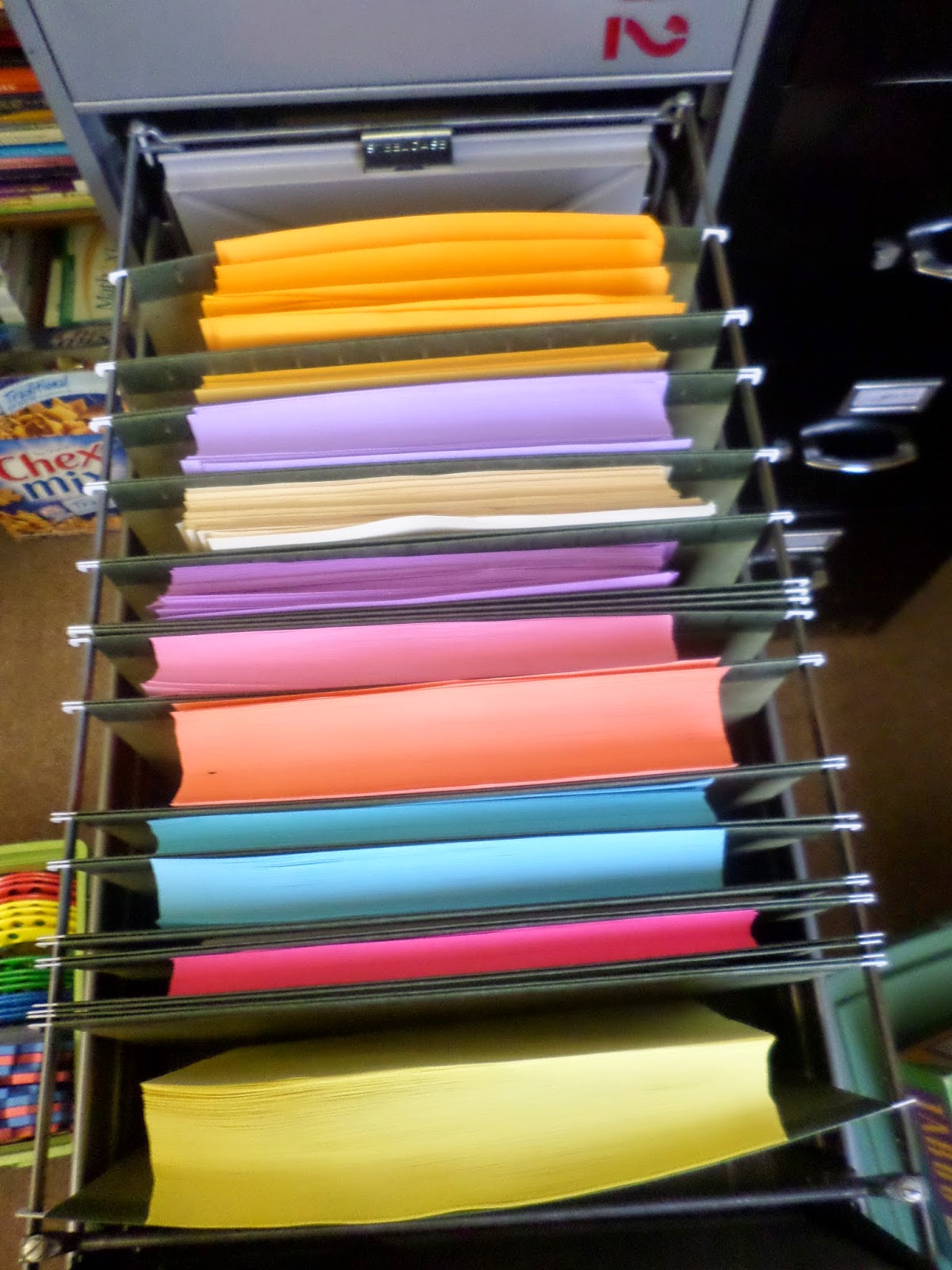
I like that the paper is organized by color now. And, if you pull out a piece that is the wrong color, it should be easy to see where it goes back. The files can easily be re-ordered and rearranged.
A big bonus is that it now clears up shelf space in my storage cabinet that is definitely needed! The bad thing is that I used the filing cabinet drawers that I allowed students to use this past year to store their interactive notebooks. Hmm… Must think up new solution for that. I guess I have all summer to come up with a new inb storage solution, though.
After moving my paper over to my filing cabinet, I found myself with all kinds of empty magazine holders. But, they quickly were repurposed to hold extra spiral notebooks, composition notebooks, and pocket folders for next year.
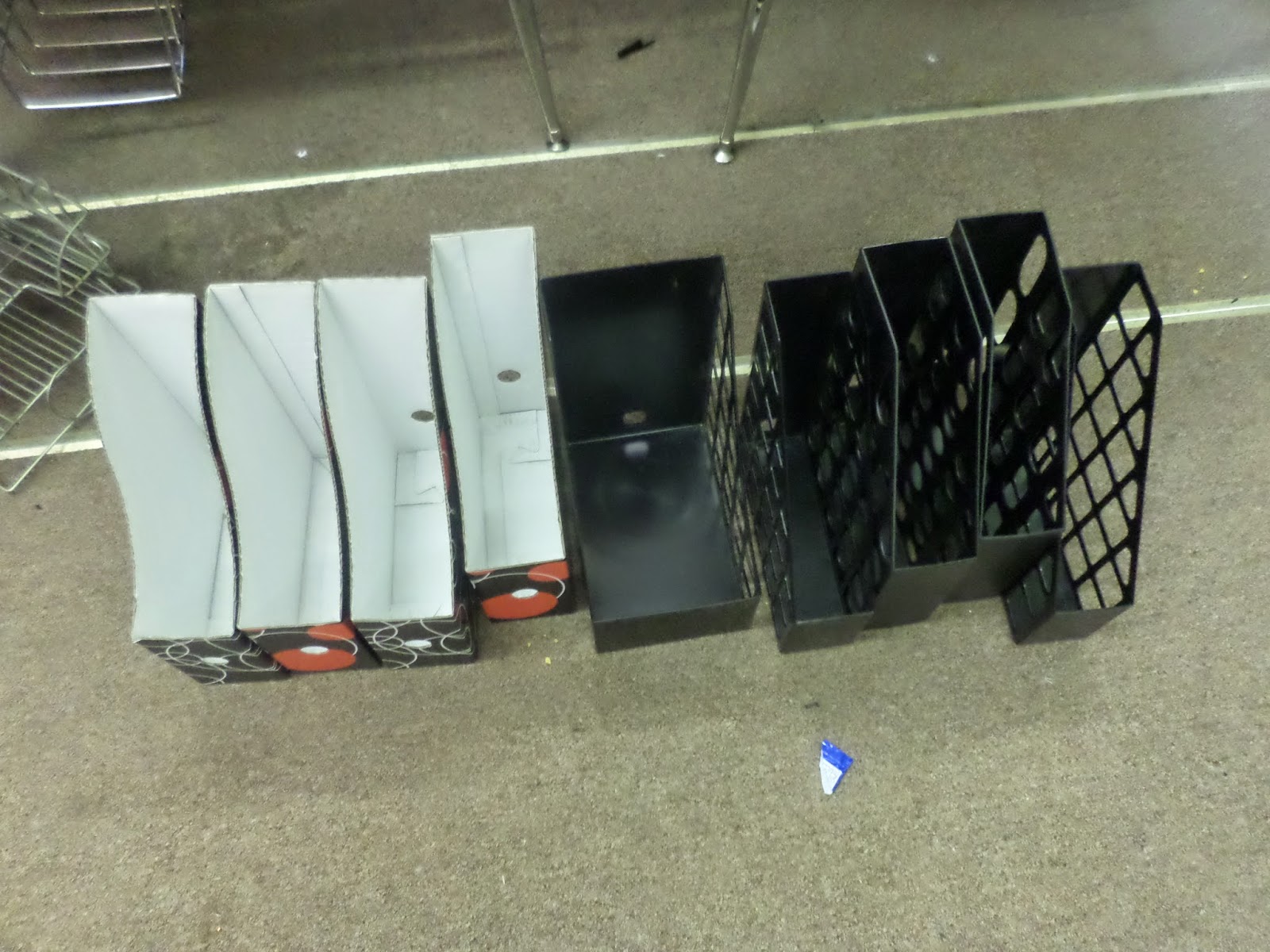
I have so much organizing left to do with my classroom. Once I get everything put away just like I want it for the summer, I’m going to do a post about everything in my storage cabinet. Prepare yourself. I’ve collected a lot of stuff in two short years of teaching!
May 27, 2014 – Asking Why
Can you guess what our lesson was a few weeks ago in children’s church?
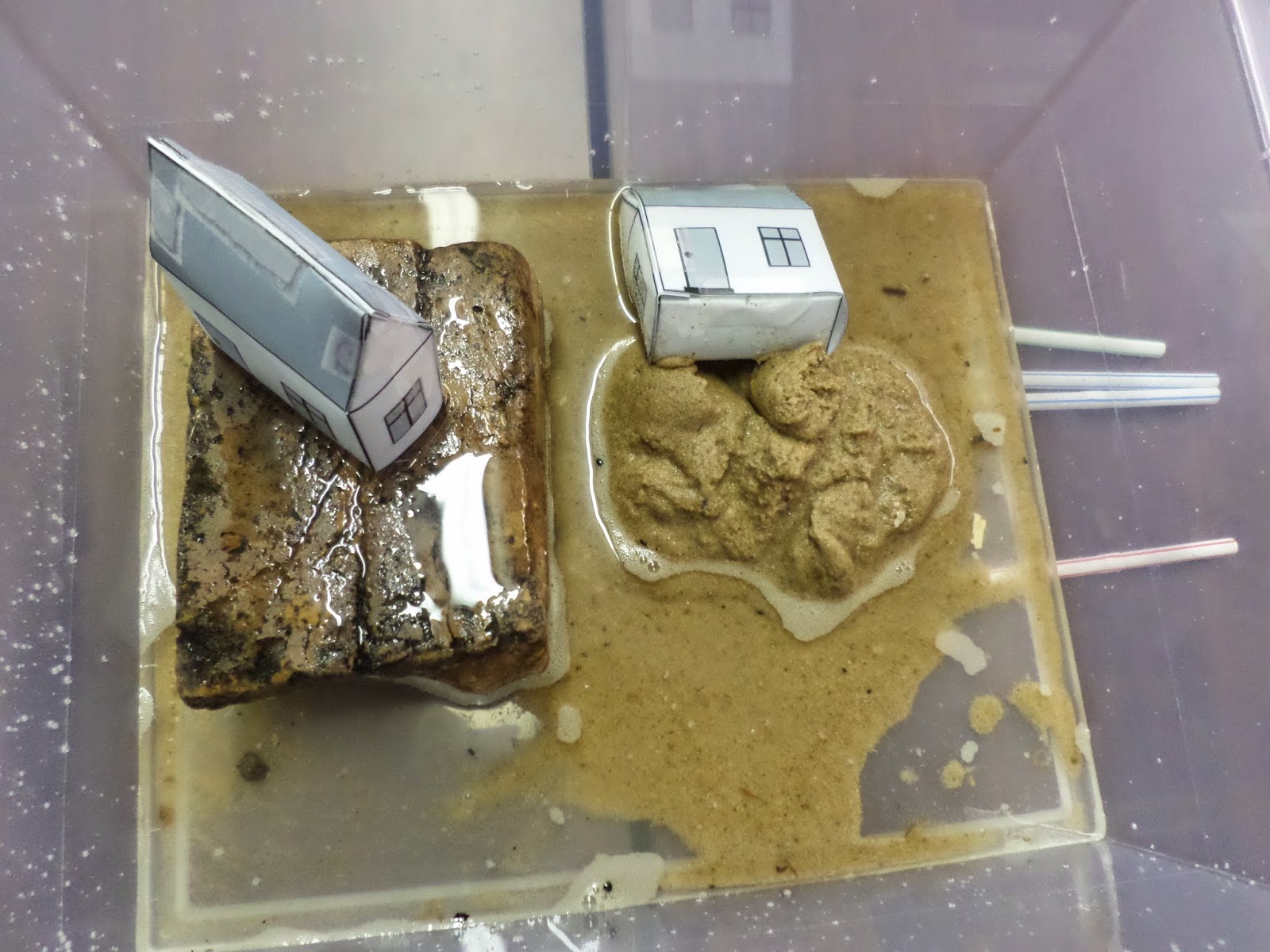
Yep. We studied the story of the wise man and the foolish man. The wise man built his house upon the rock. The foolish man built his house upon the sand. When the wind blew and the storms of life came up, the wise man’s house stood firm on it’s foundation, but the foolish man’s house was demolished.
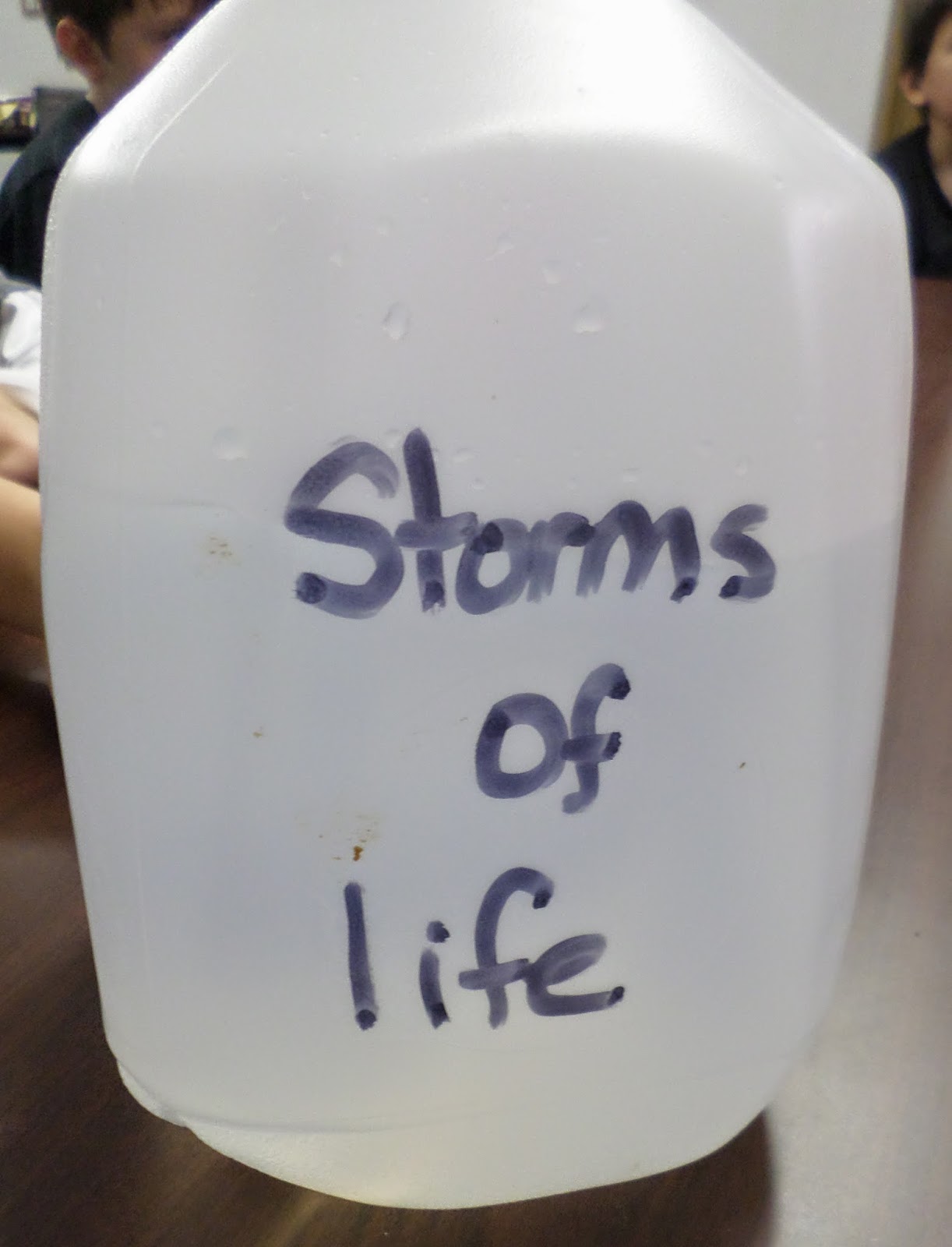
My mom found a template online to print off tiny houses for an object lesson. Each house was taped together and weighted down with a small rock inside. It was my job to tell the story and pour on the storms of life.
It was rather nerve-wracking because we did not practice this beforehand. I spent a lot of time asking the children what they thought was going to happen and why. What will happen when I pour the water on? Why will the house on the sand fall over? Why? Why will the house on the rock stay standing? Why? Why is the foundation important? What is the foundation made of? What is the foundation adhered to? Why would it be important to build your house right the first time? Which house would you want to spend a warm sunny day at? Why? Which house would you want to spend a stormy, tempestuous day at? Why?
Anticipation was building. The kids were expecting the house on the sand to fall and the house on the rock to stand. But, wouldn’t the stream of water from my milk jug knock over both houses? One girl thought that they were both going to fall over. Others were convinced only the house built on the sand would fall.
Nervously, I started with the house on the sand. A few moments after the water hit, the sand was soggy and the house was laying in the water. So far, so good. Now, the house on the rock. I tried my hardest to pour the water directly on the roof of the house. Amazingly, the house stood firm. I continued pouring the water, clearly shocked that the illustration had worked. My hands must not be the steadiest because eventually the house started sliding across the rock. But, it remained standing, and I quickly stopped pouring the water to avoid messing up my illustration.
So, what’s my takeaway from this? I need to ask my students “Why?” more often in math class. Why do you think that? Why will that happen? First, I need to start asking my students to make more predictions. What do you think will happen if we do this? Why? My students will be more engaged and learn more if they see cause and effect in action. Desmos will be perfect for this. What will happen if I change the sign of this number in the equation? Why? Demonstrate. Did it do what you expected? If yes, yay! Let’s explore what happens if we change something else. If not, why not? What would we have to do to the equation to bring about the change that you originally predicted?
I need to ask more questions. I need to have my students do more of the thinking. I need to have my students do all of the thinking. I get so caught up in trying to “cover” everything that they never grasp a full understanding of the basics. I do the thinking for them ahead of time and give them the cliffnotes version. But, they don’t get to experience the math for themselves. They don’t get to get their hands messy with math.
Next year, my students will explore more. Next year, my students will experience more. I just ordered Max Ray’s book on noticing and wondering, and I can’t wait for it to get here. This isn’t the way I was taught, and it’s going to take some getting used to. But, I’m excited about the changes that are to come in my classroom.
May 29, 2014 – OERB Workshop
Several months ago, I had the opportunity to attend a free OERB Energy Education Workshop at Ponca City High School in Ponca City, OK. This was my second OERB Workshop to attend. I attended my first OERB Workshop just a couple of weeks before I started my first year of teaching.
OERB stands for the Oklahoma Energy Resources Board. They are funded by a voluntary tax paid by oil and natural gas producers and energy owners. They are known across the state for cleaning up abandoned oil well sites at no charge to the landowner. They also seek to educate children about oil well safety. And, they provide a free curriculum to teachers that relates their subject matter to the oil and natural gas industry.
Oklahoma teachers can sign up to attend a free workshop here. They have workshops from pre-K through high school.

One of the first questions my workshop facilitator asked was, “What role does oil and natural gas currently play in your life? How much do you know about the oil and natural gas industry?”
To be honest, I spent many years of my life really not thinking about the oil and natural gas industry. Yes, I drive a car. And, I know it couldn’t run without petroleum products. But, I never gave much thought to how that oil gets to the store or the gasoline gets to the gas station.
Then, I moved to Drumright. You wouldn’t think that moving 60 miles west of the area I grew up in would make that big of a difference. But, a lot of days, it seems like I’m living in a whole different world. I grew up east of Tulsa. There are farms and ranches. But, most people work in either Tulsa or its suburbs. I don’t ever remember a single classmate announcing that they planned to go to work in the oil field.
Drumright began as an oil boomtown. Oil was struck in 1912, and the town sprang up overnight. It is impossible to spend anytime in this town and not realize just how important oil is to its existence. Our newspaper is called The Drumright Gusher. Our school yearbooks are also known as Gushers. Our community theater is the BoomTown Theater. Drumright is the smallest town in Oklahoma with a community theater group. You can spend the night at the BoomTown Inn. Our population is right around 3,000 people. We’re also a zero stop light town.
Even our town celebrations and festivals are centered on oil. You can attend Drumright Discovery Days every summer to celebrate the discovery of oil in Drumright. There’s an Oil Patch Jamboree in the fall. And, there’s a Summer Oil Patch Festival every Fourth of July.
Our high school was built in 1919 when oil production was high. At one point, the high school was graduating classes of 90-100 students. For the two years I have been there, we have graduated only around 32 or so. The town is very attached to this historic building.

The road in front of the high school is still covered in the original bricks.
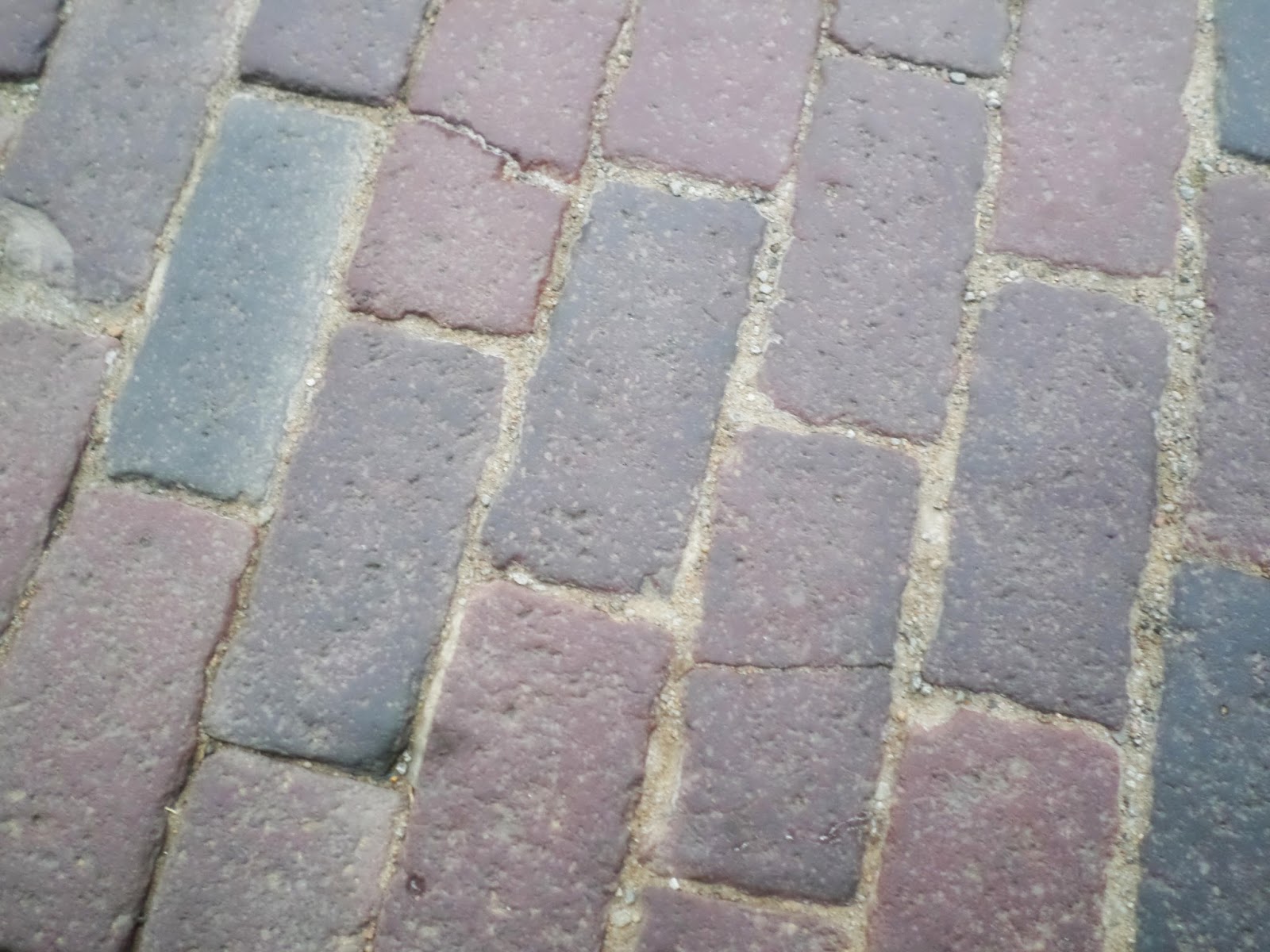
To celebrate the town’s centennial, an 84 foot tall oil derrick was dismantled, moved into town, and donated to the town’s museum.

This postcard from 1913 shows how the oil derricks used to dot the Drumright landscape.

It’s hard to drive anywhere in town without seeing a pumping oil well. This one is just a couple of hundred feet off of Main Street.

Additionally, we are less than ten miles from Cushing. Cushing is the Oil Pipeline Crossroads of the World. Cushing is also home to the world’s largest tank farm. They have the capacity to store over 66 million barrels of oil. President Obama even visited the town in 2012 to make a speech about the Keystone Pipeline.

Why am I telling you all this? Well, the oil and natural gas industry is a major part of the town I live in and teach in, and it’s a major part of my students’ lives. When I ask my students how many of them have at least one family member who works in the oil field, 90-95 percent of hands will go up. Oil is everything in this town.
A lot of days, I wish this wasn’t the case. So many of our students set their sights on working in the oil field. After all, that’s where their parents, aunts, uncles, and cousins work. It’s all they know. My heart breaks every time I hear a student tell me that they don’t even really need a high school diploma since they’re just going to work in the oil field. When colleges are a minimum of 45-60 minutes away and the oilfield is 5 minutes away, the oilfield seems to win out way more than it should.
I have had a coworker tell me that the students in this town don’t need Algebra 2 because their destiny is the oil field – not a job as a rocket scientist. Comments like this make me livid. I want my students to have a vision beyond the oil field. I want them to go to college and THEN decide if the oil field is the right fit for them. Oil field workers are important. But, I don’t want students thinking that is their only option.
The first time I attended an OERB Workshop, my main intention was to get free supplies for my classroom. This is how I got a free class set of 30 TI-30 Scientific Calculators. They’ve been used in my classroom almost every single day since I got them. This time, I was still eager to get free supplies. But, I’d also gained a new appreciation for the industry. I’d lived in Drumright for less than a week when I attended the first workshop. After living there for almost two years now, I have a greater understanding of the importance of oil to this area that I now call home.
The new Common Core aligned curriculum that they would provide me with would be applicable to my students. These lessons would give me a chance to show my students how math plays out in real life in an industry that they are almost all familiar with. The lessons weren’t fluff. They were relevant.
We each received a binder of curriculum materials. I attended a training that was specifically for high school math teachers.
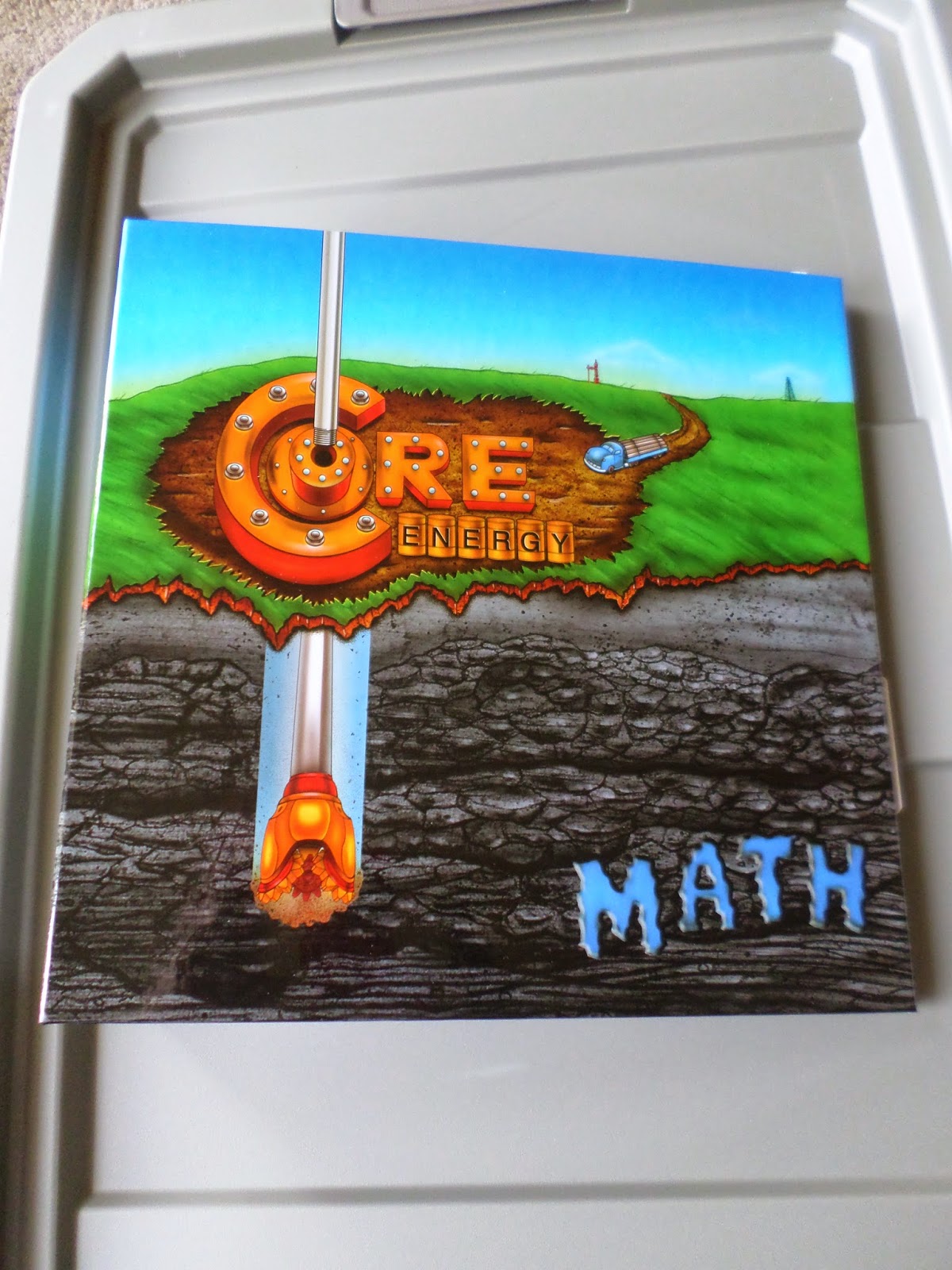
We worked through each of the lessons together. And, I fell in love with them. I could actually see myself using these lessons in my classroom.
We wrote systems of equations to compare the costs and profits of various oil wells.
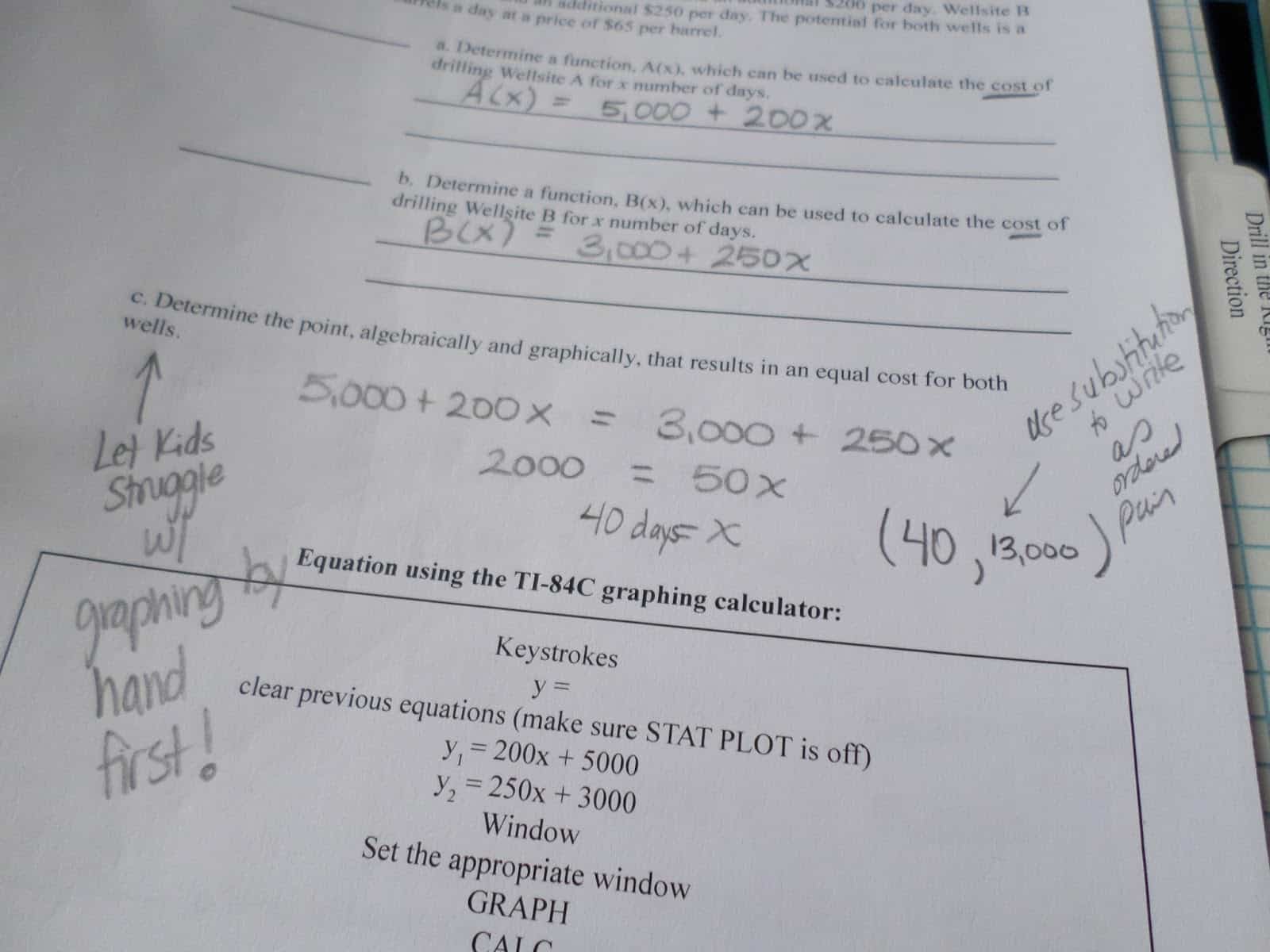
I solved the problem algebraically before solving it graphically. Then, I couldn’t get my graphical answer to match my algebraic answer. I wrote myself a reminder to let my students struggle with graphing the system by hand first before introducing them to the technology that can find the solution for them with a few keystrokes.
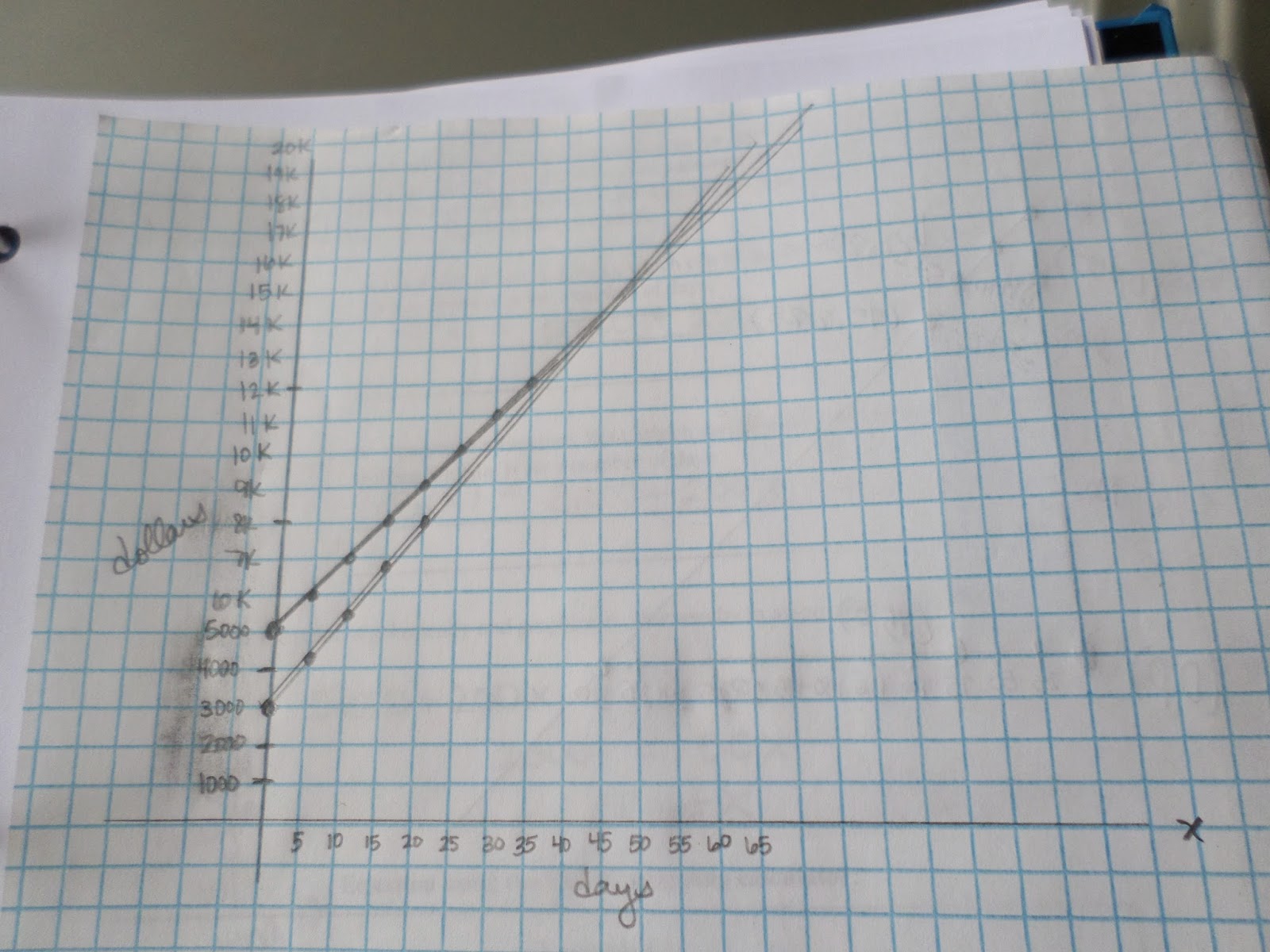
Another lesson had us performing linear programming. This is a topic that I’ve never actually taught before.
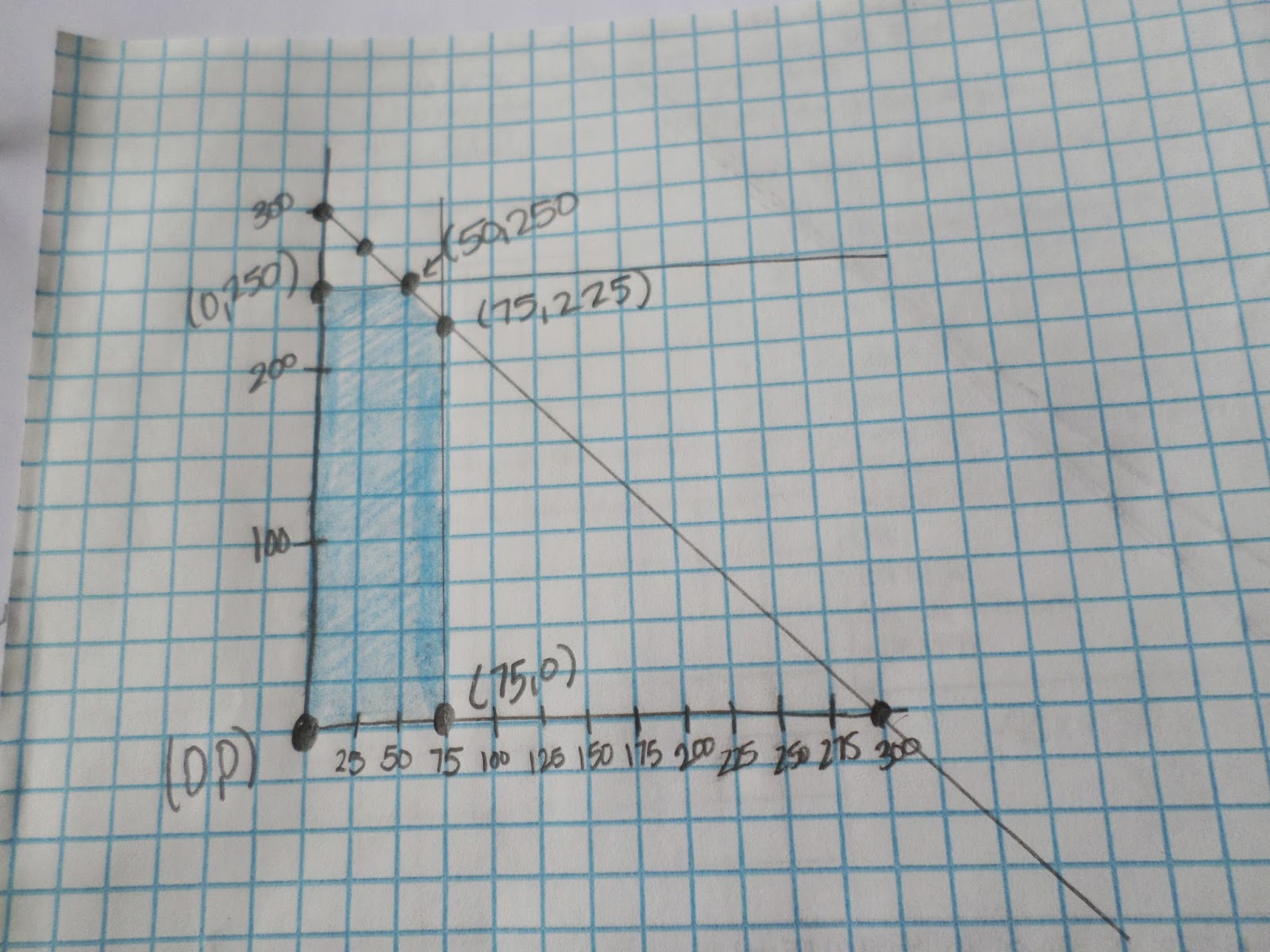
We used the pythagorean theorem and/or distance formula to calculate the cost of drilling.

We looked at a chart of Oklahoma Oil Production to identify areas that looked as if they could be modeled by quadratic, cubic, and quartic functions. Then, we used the data to perform the selected regression.
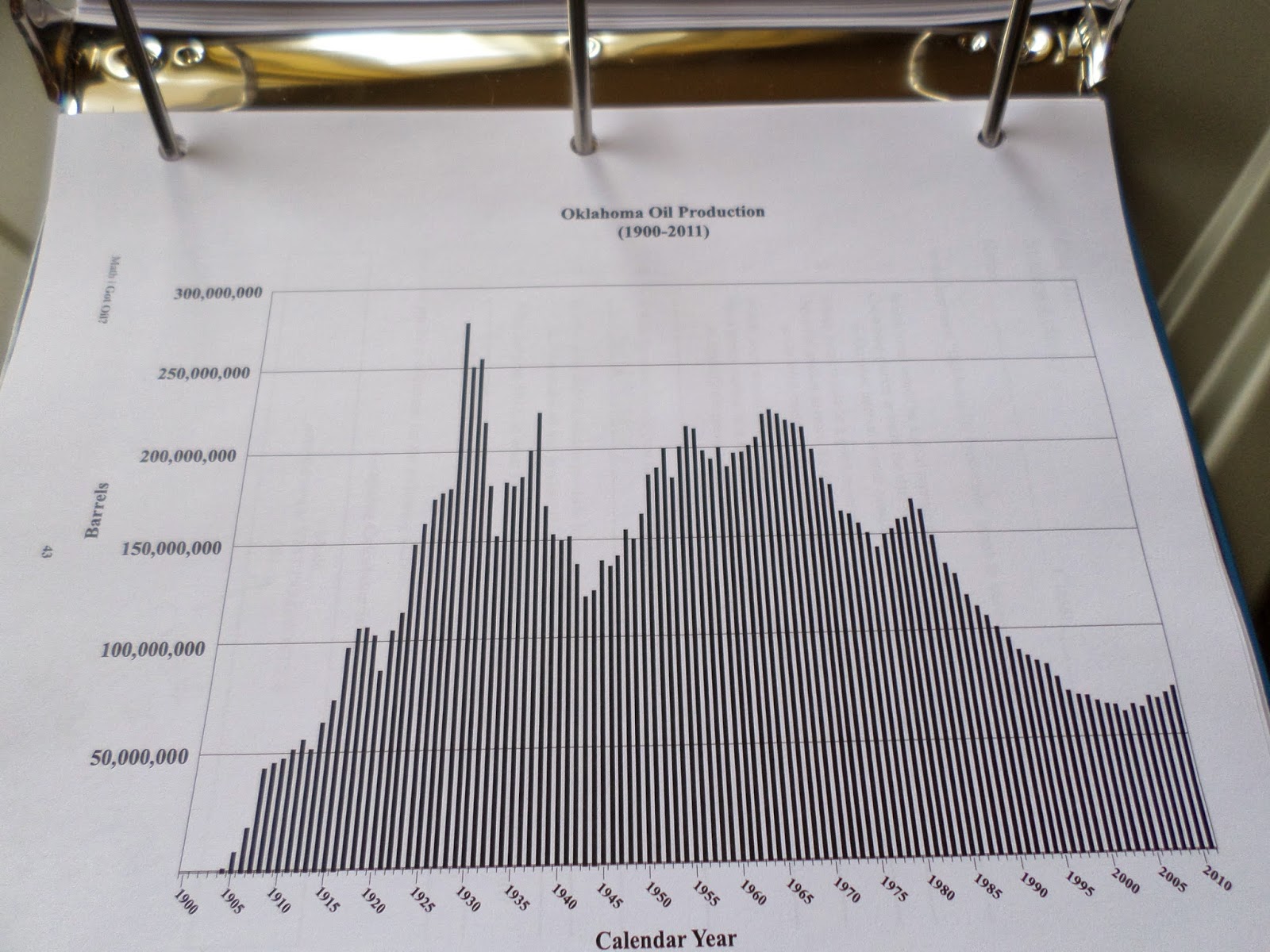
It was fun. It was hands-on. It was real life. I left the workshop excited to take these lessons and materials back to my students. I also left the workshop with a free tub of goodies! Let’s look inside…
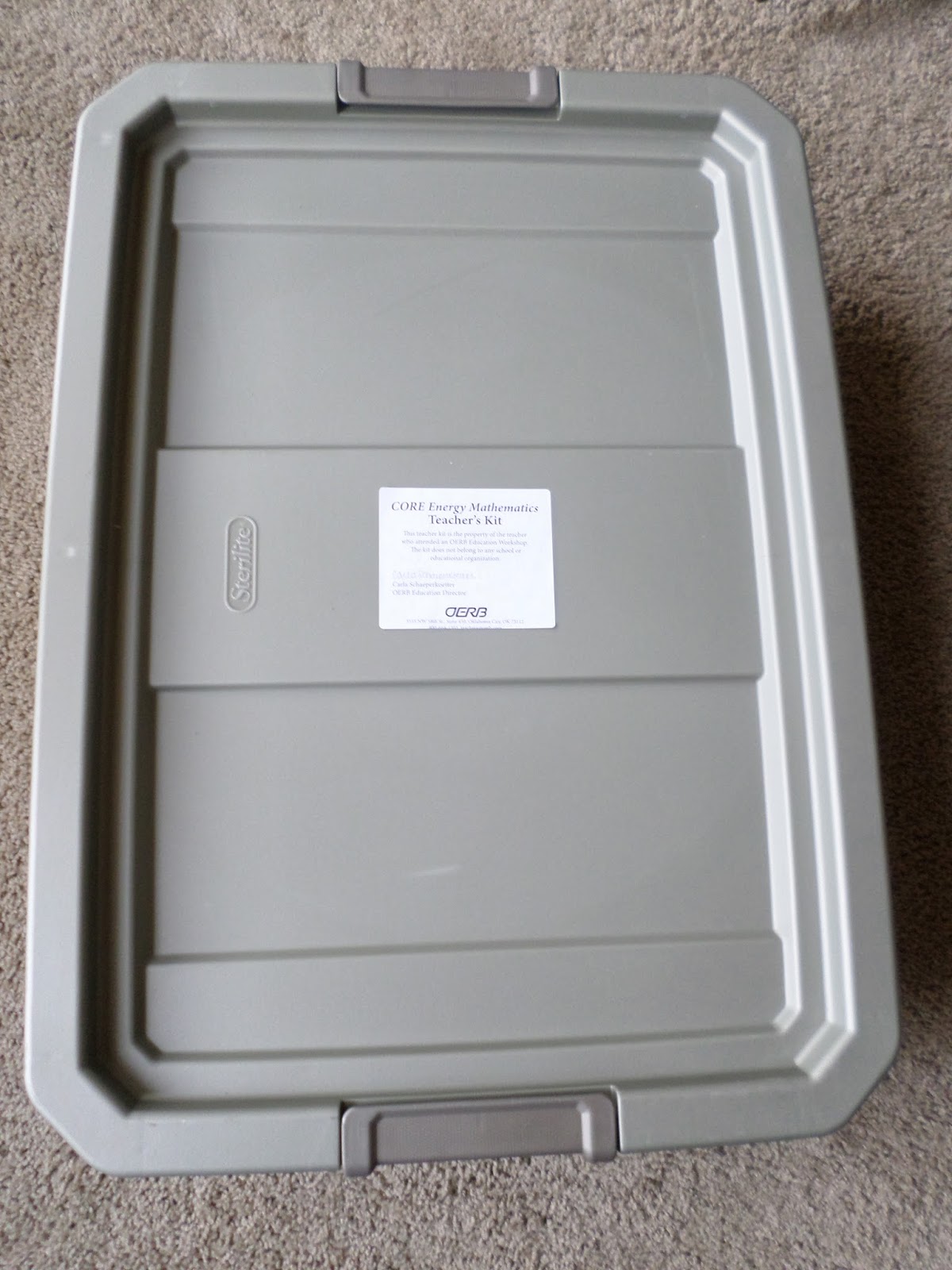
They emphasize that the supplies are our own personal property, not the property of our school districts. So, if I move, I get to take my calculators with me!
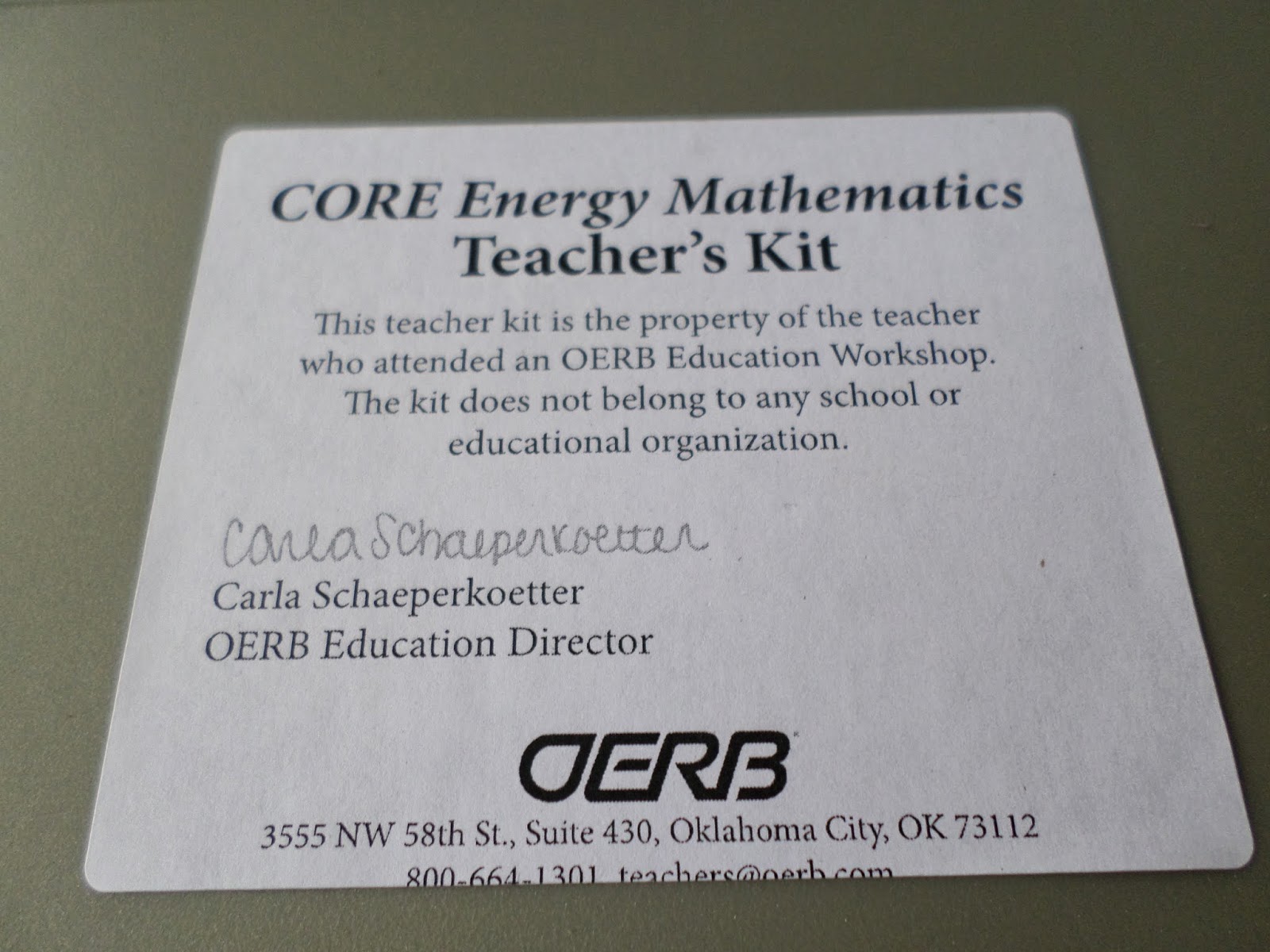
Laminated mats for some of the activities.
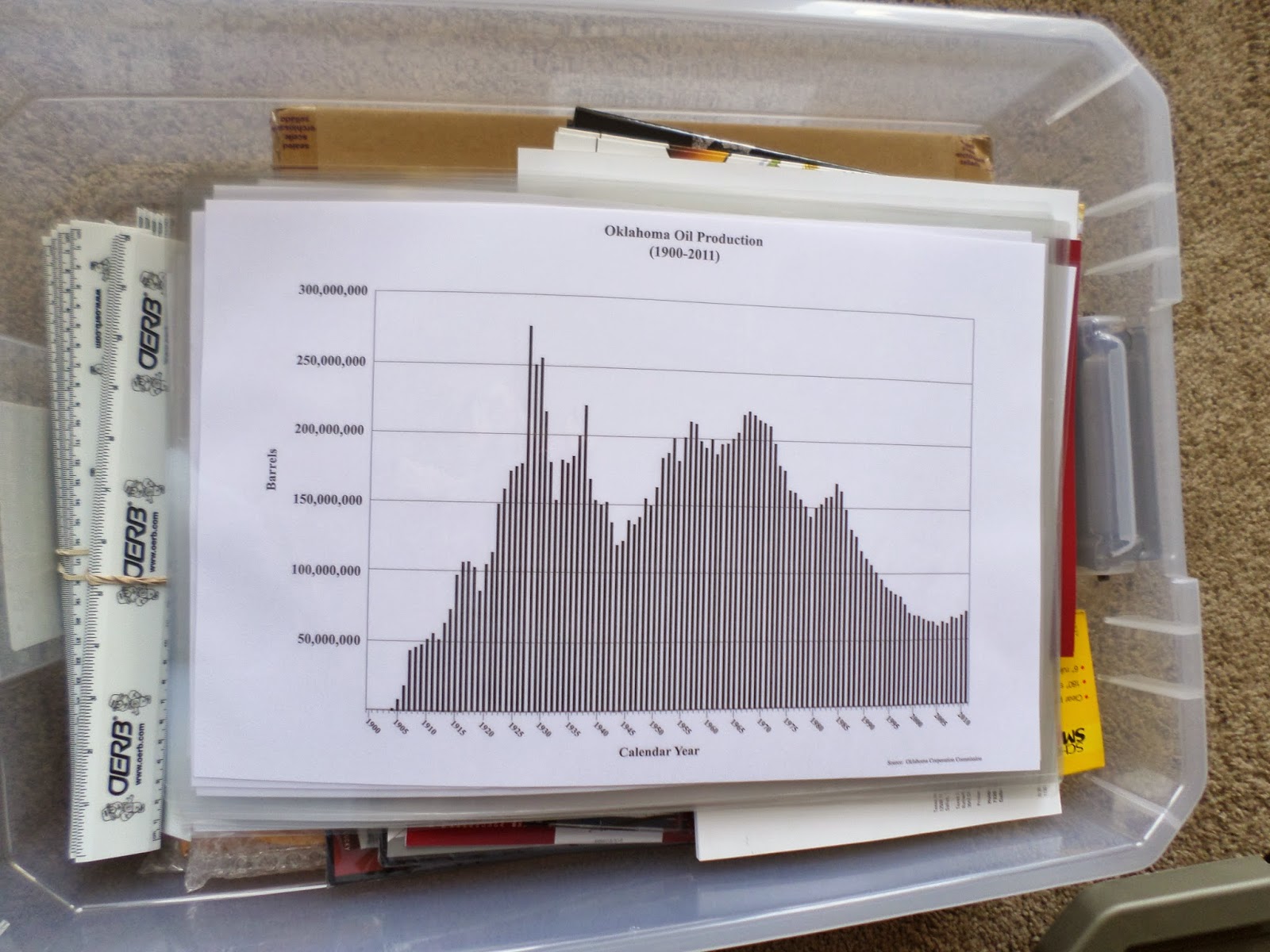
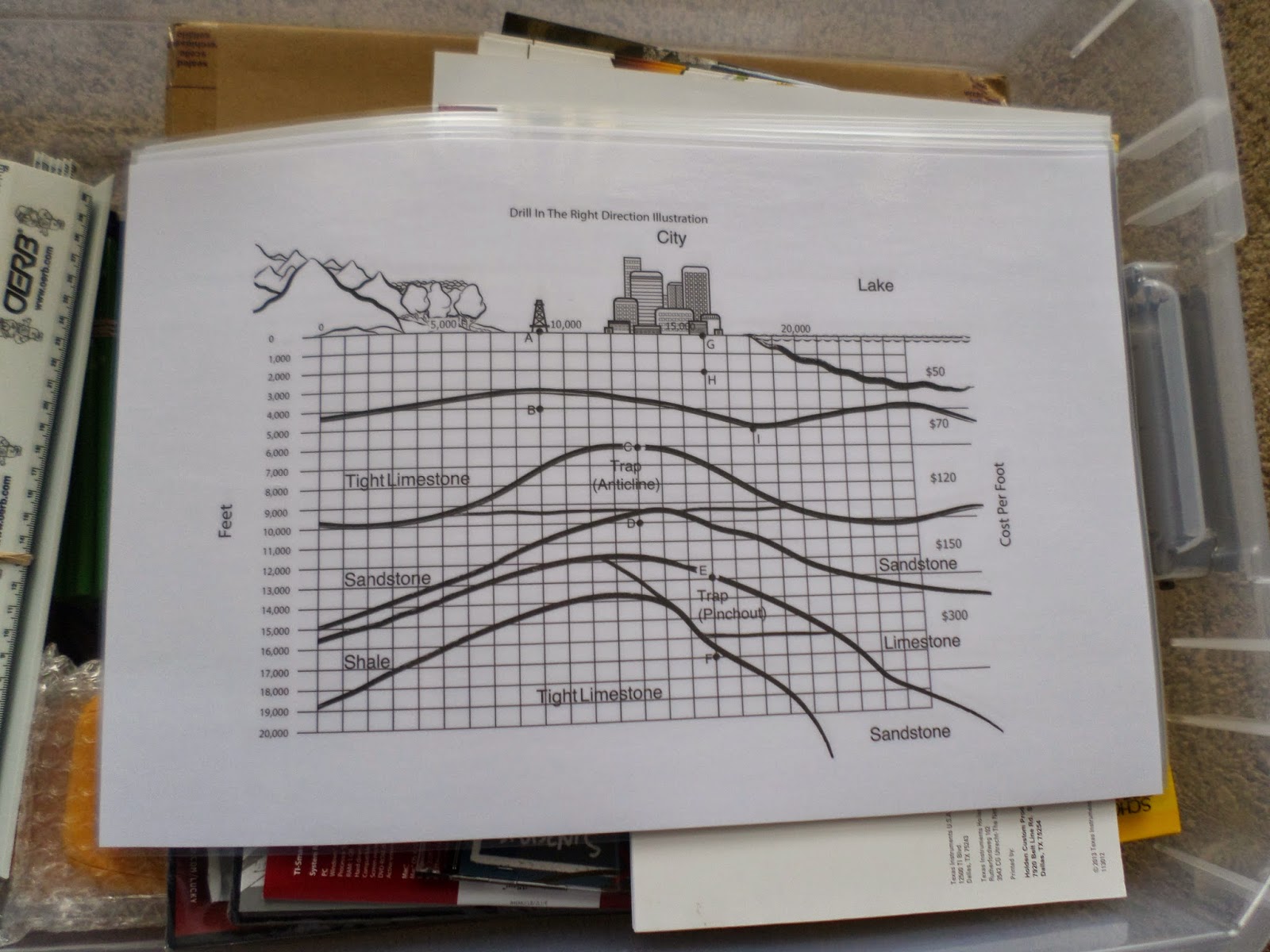
Vis a Vis markers to use to write on the laminated mats.
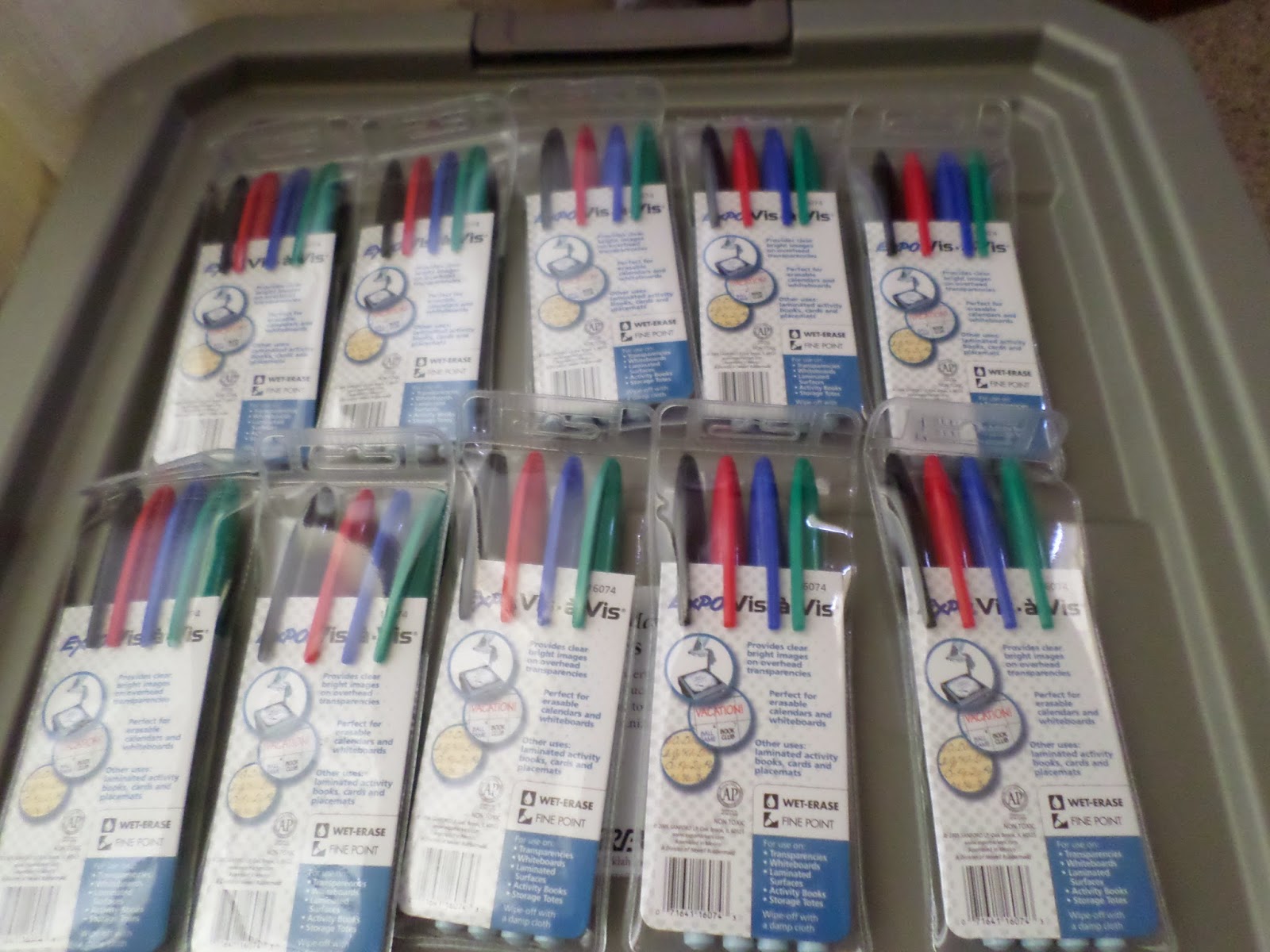
TI-SmartView. I’m almost persuaded to go back to using the TI-84 instead of the TI-nSpire just so I can use this. (I’ve got other reasons, too. I love the nSpire, but our standardized testing program gives students a TI-84 to use…)
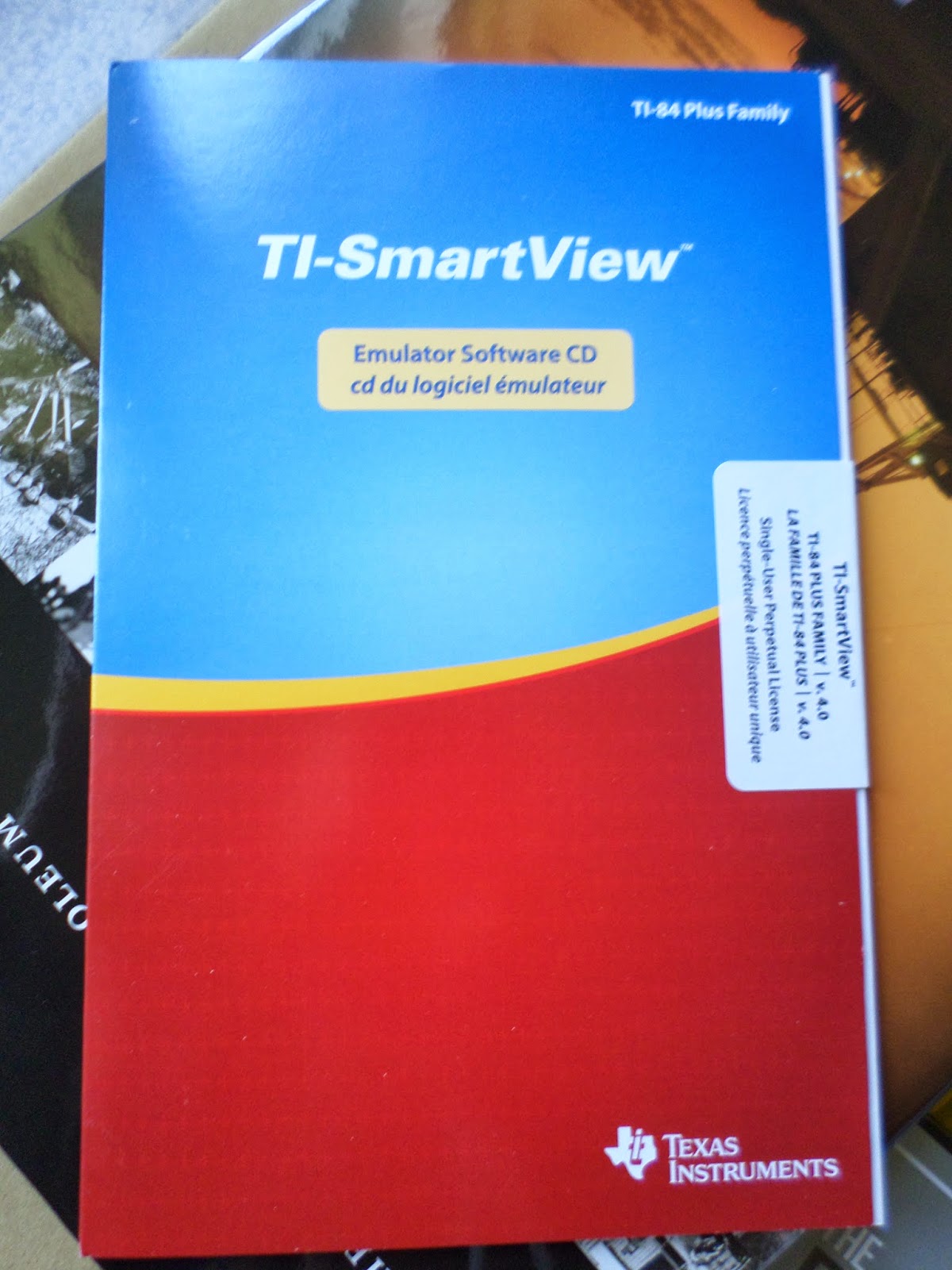
Books about the oil and natural gas industry.

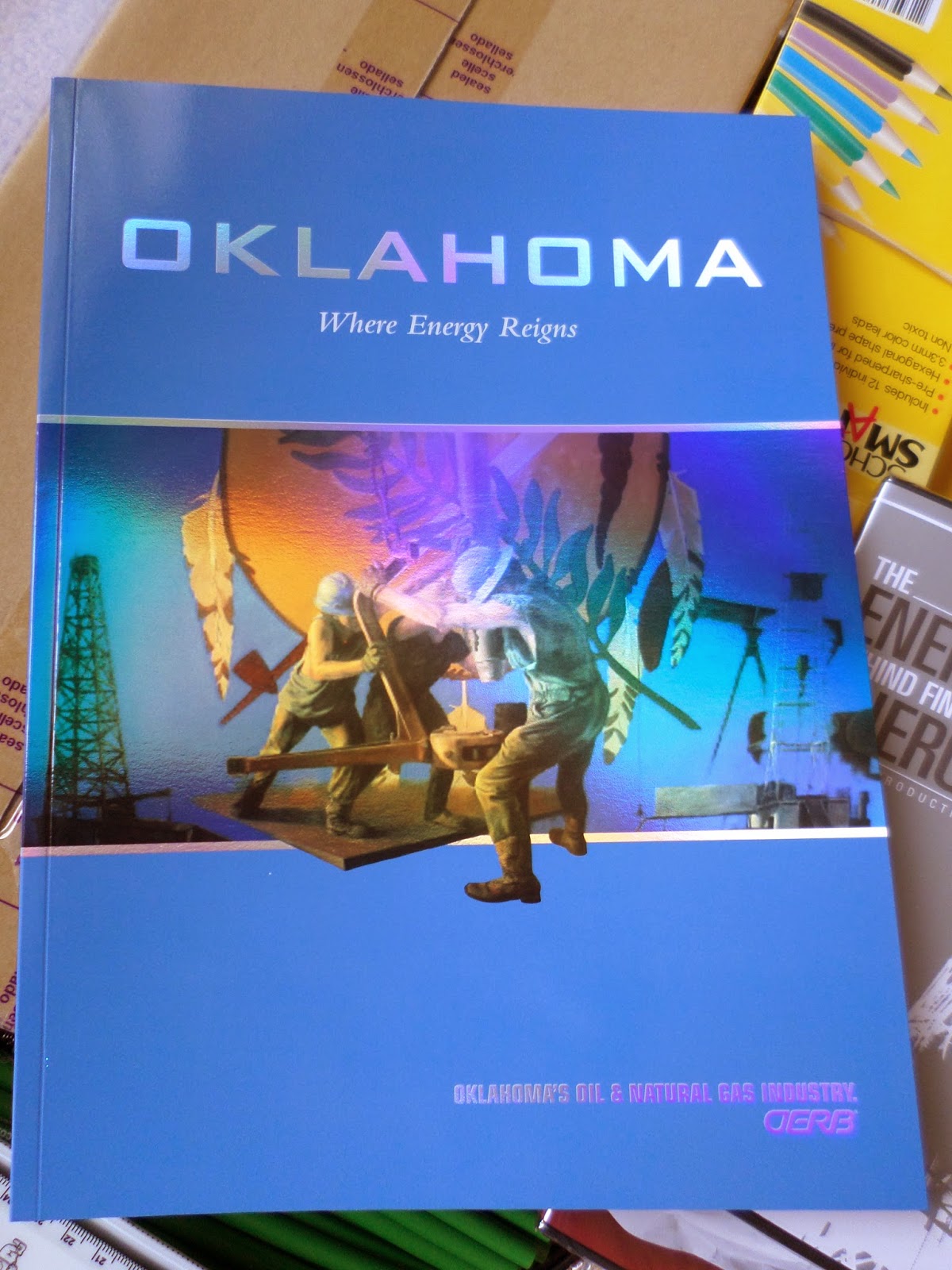
Dvd documentaries about the oil and natural gas industry.

Pencils. You can’t have enough of these!
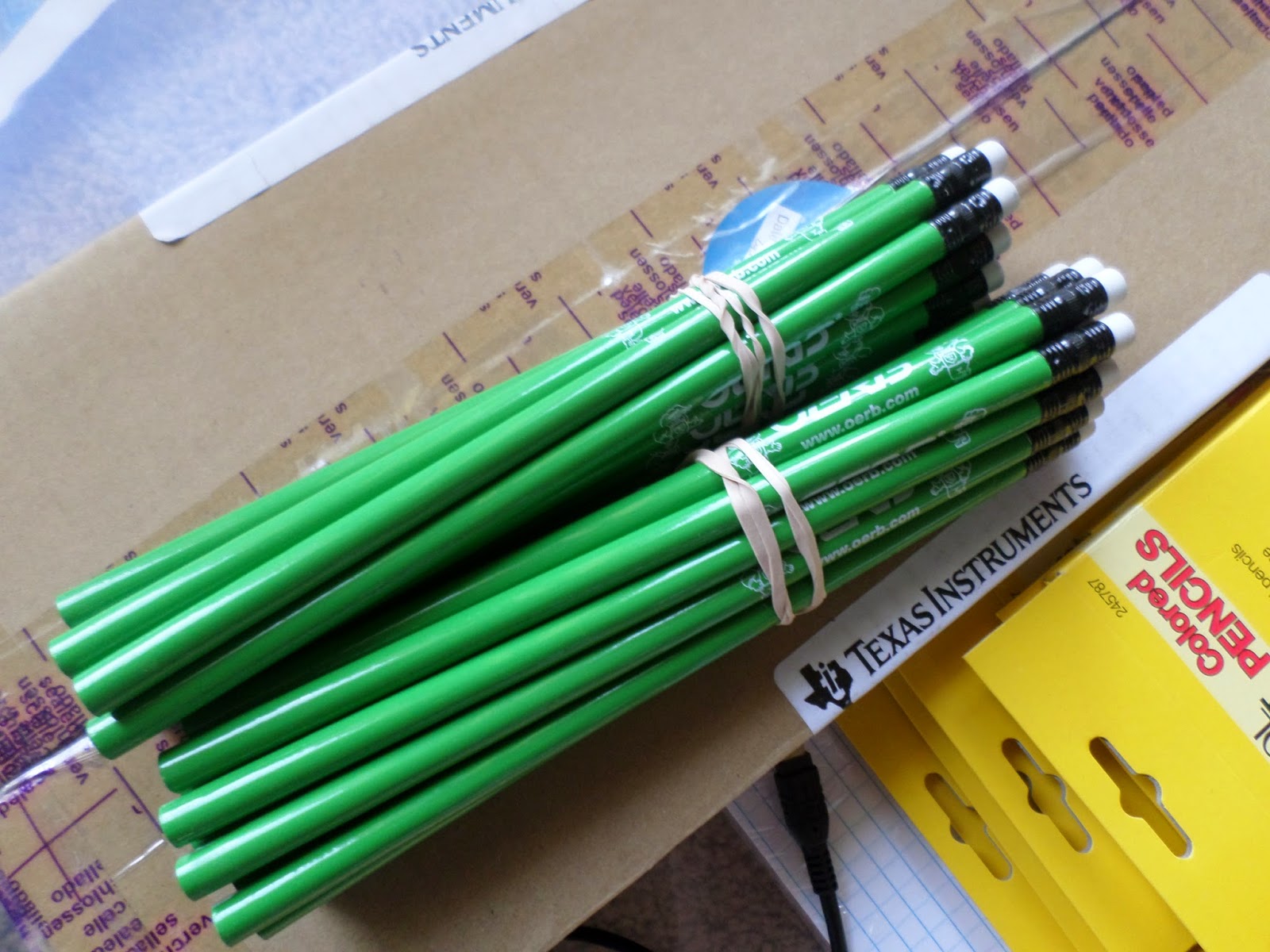
Colored pencils. Yay!
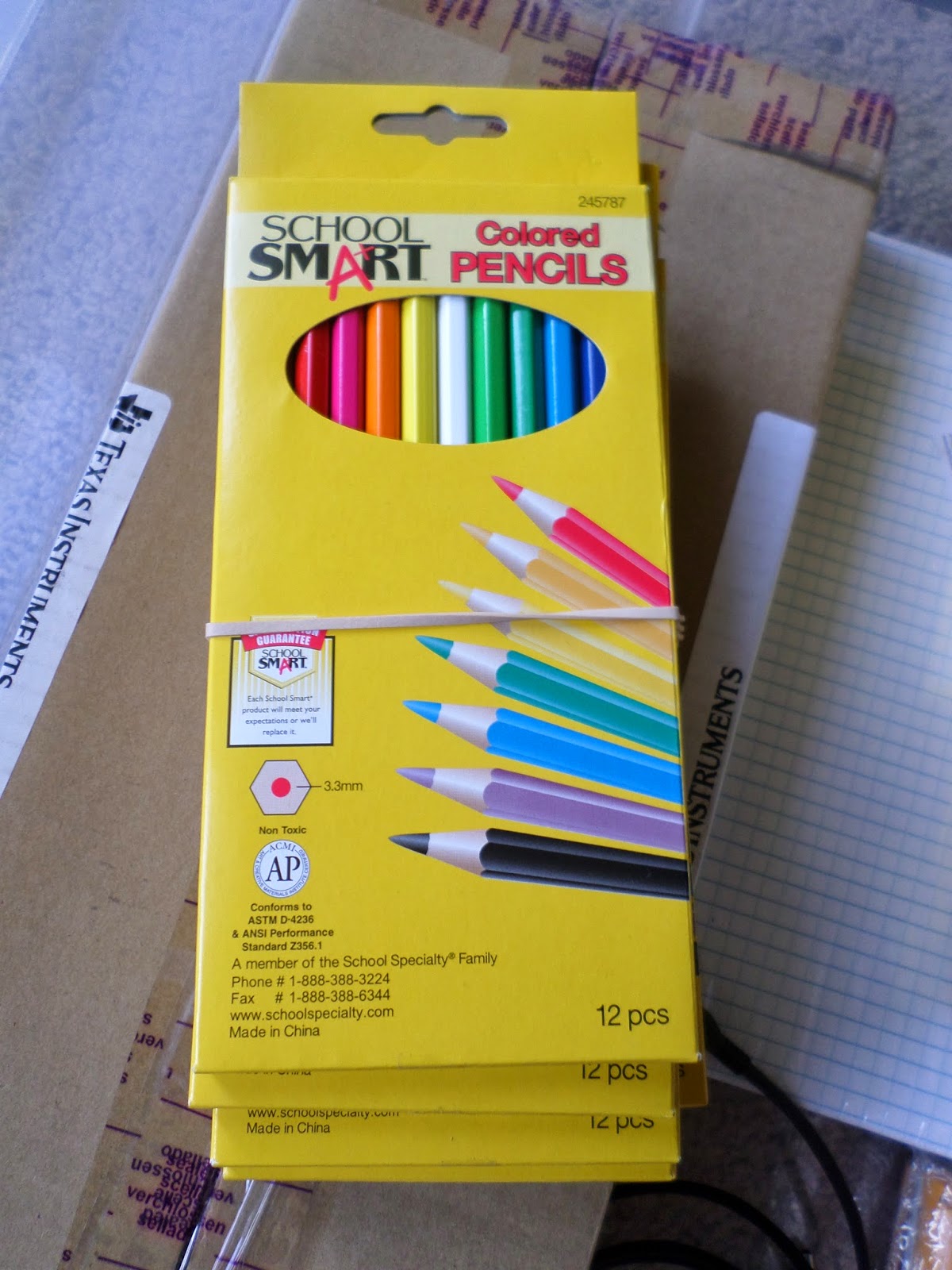
Protractors.
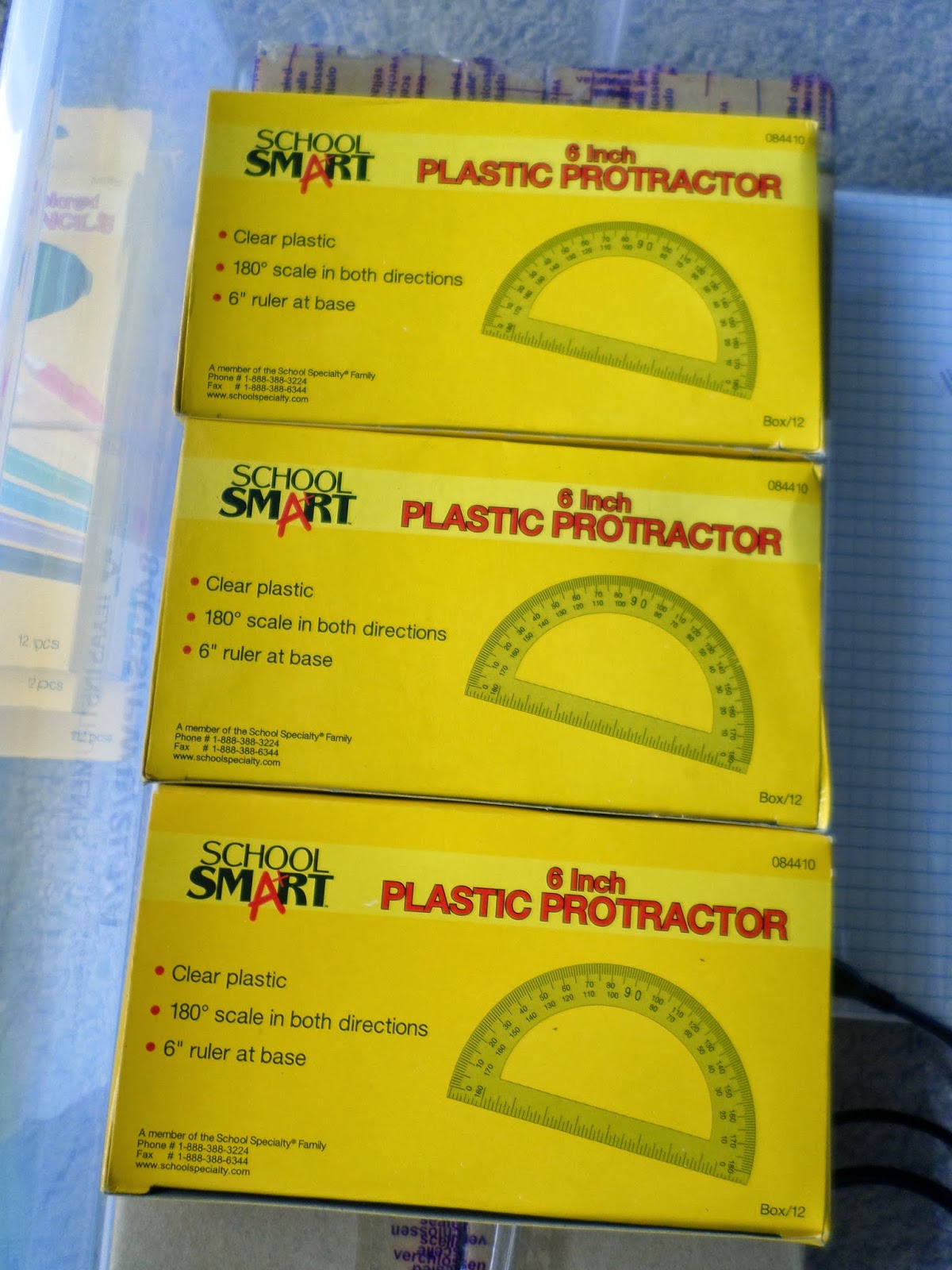
Rulers. My students have a bad habit of bending rulers and accidentally snapping them. These are much needed!
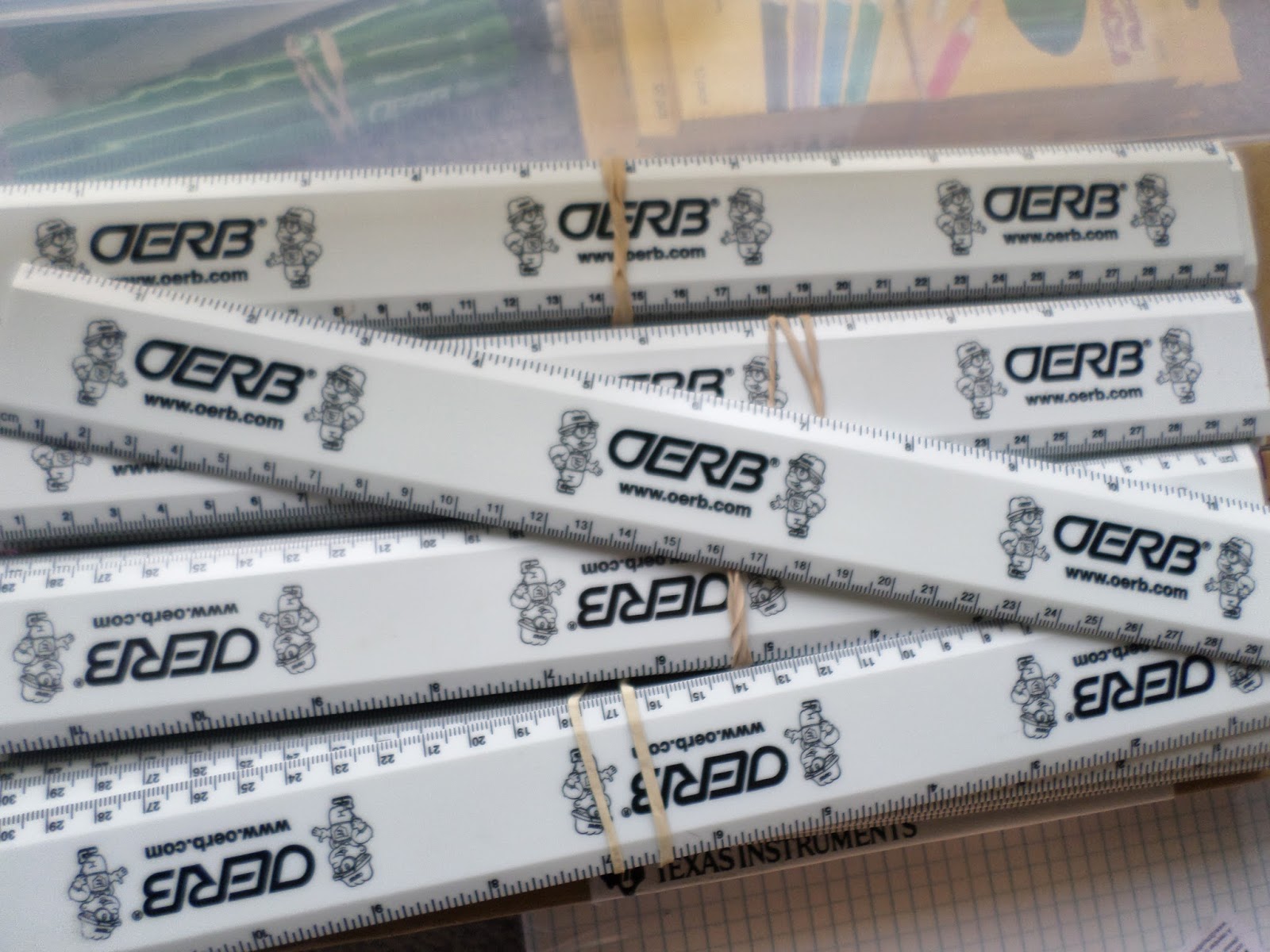
Graph Paper.
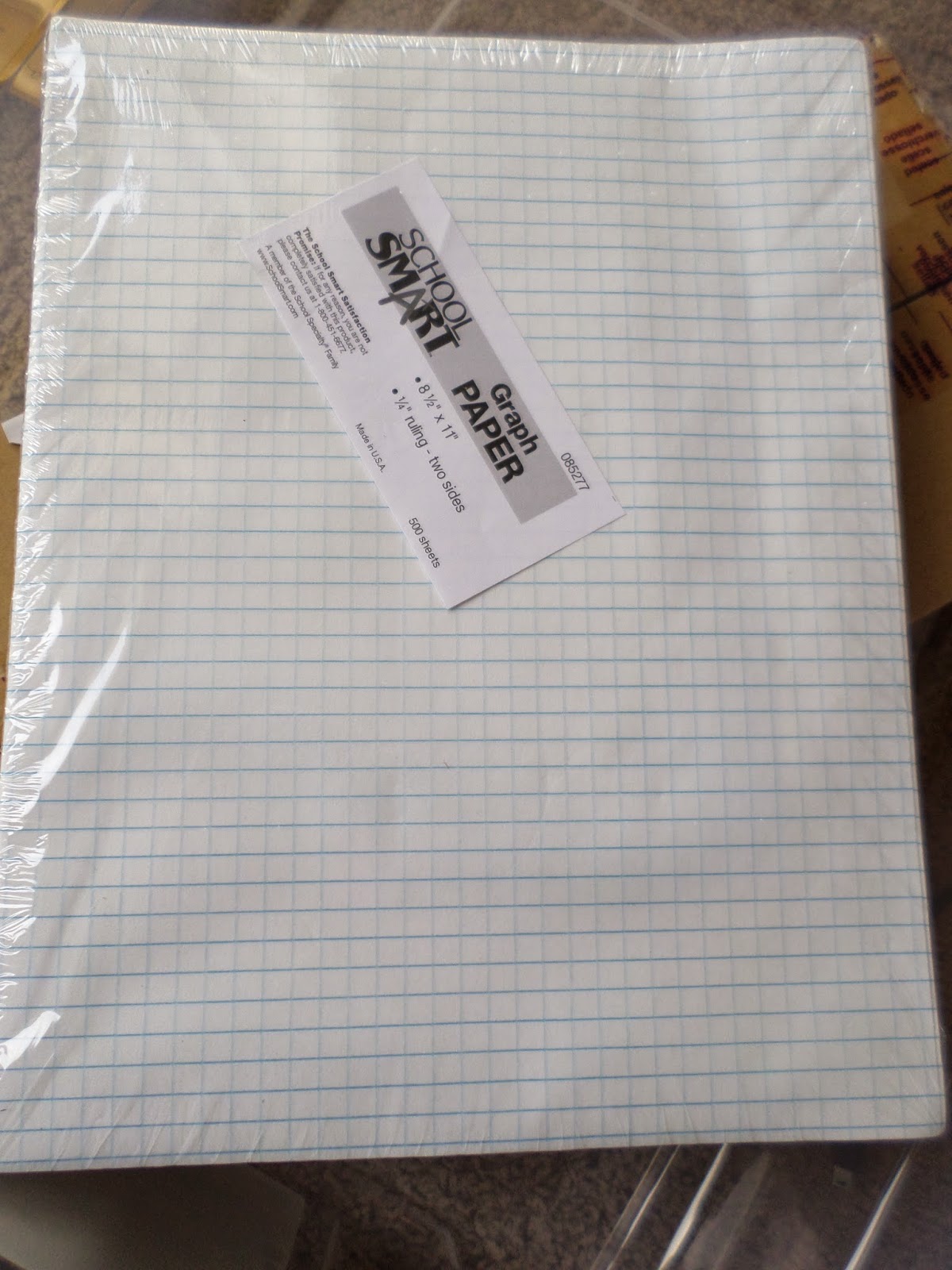
And the best part? Three TI-84 Plus Color Graphing Calculators and a Charging Station!
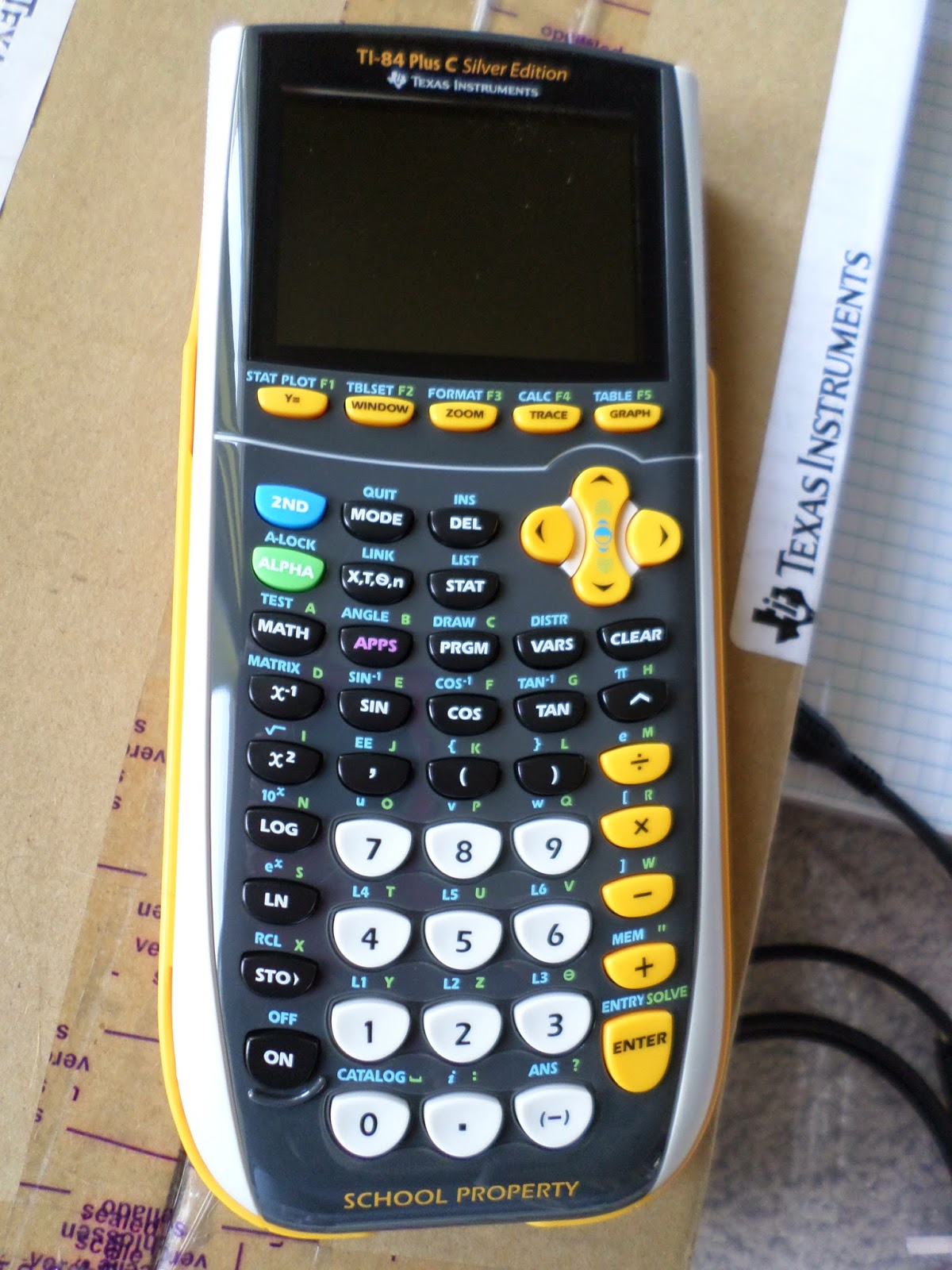
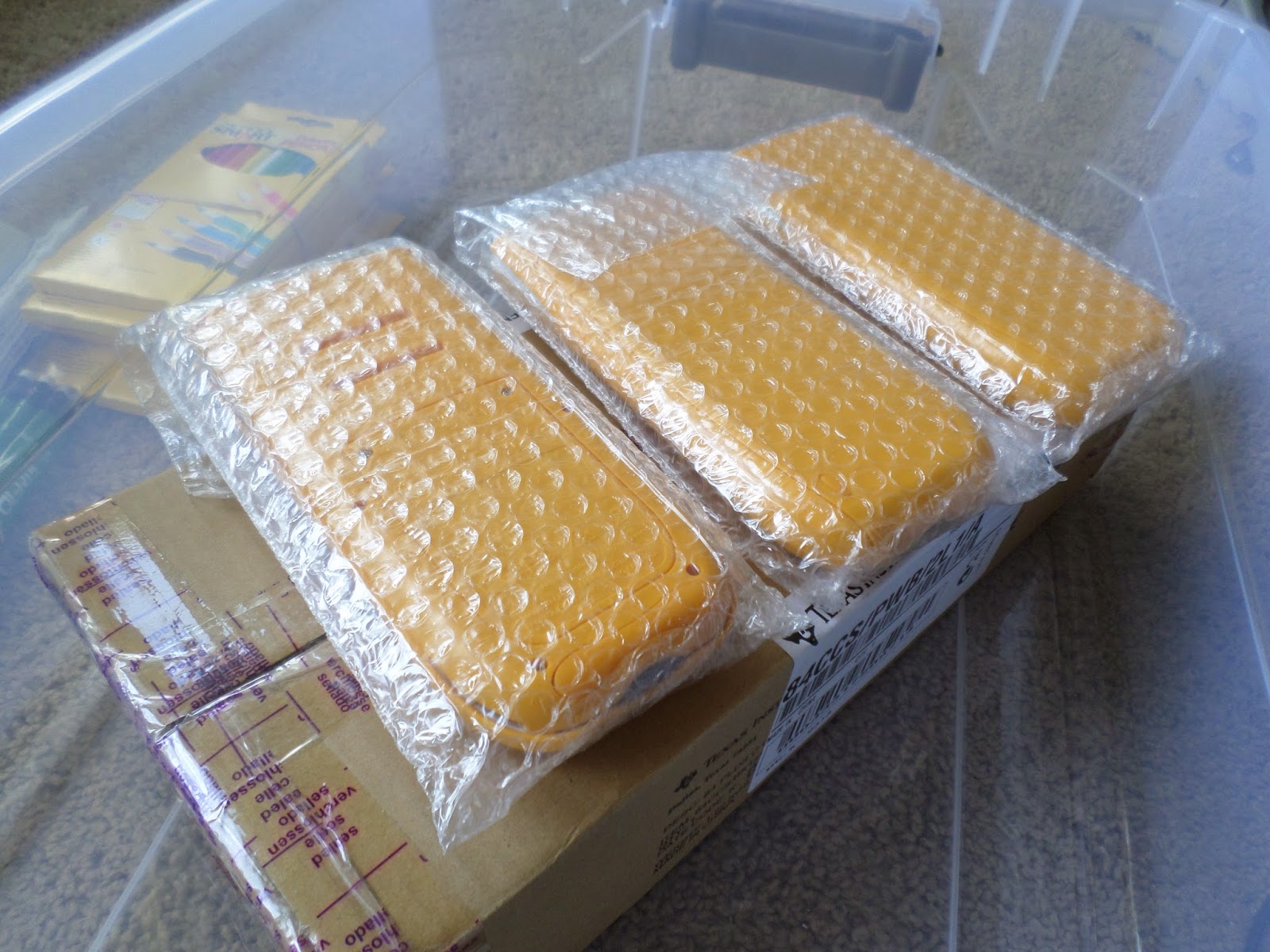
This box is just a little slice of math teacher heaven. Calculators. Pencils. Rulers. Protractors. Graphing Calculators. Graph paper. Dry erase markers. Colored pencils. A storage tub.
Since I’m writing this months later, I can say that I’ve used several of the OERB lessons with my students. More posts on that later, though.
To the OERB – thanks for the resources you have provided for my students. And, thank you for giving me the materials I need to show my students that math plays a role in the oil and natural gas industry!
May 30, 2014 – Oil and Natural Gas Production Profit Lesson
The first lesson I implemented from the OERB Core Energy Mathematics Workshop I attended was on Oil and Natural Gas Production Profit. I did this lesson with my Algebra 1 students as a review of writing equations based on a real-life situation and as an introduction to solving systems of equations.

I modified the worksheets we were given at the workshop to create two foldable booklets that could be glued in our interactive notebooks. I was hoping to get through both booklets in one 50-minute class period, but that was super optimistic. In reality, it took 1.5 class periods to complete these problems.
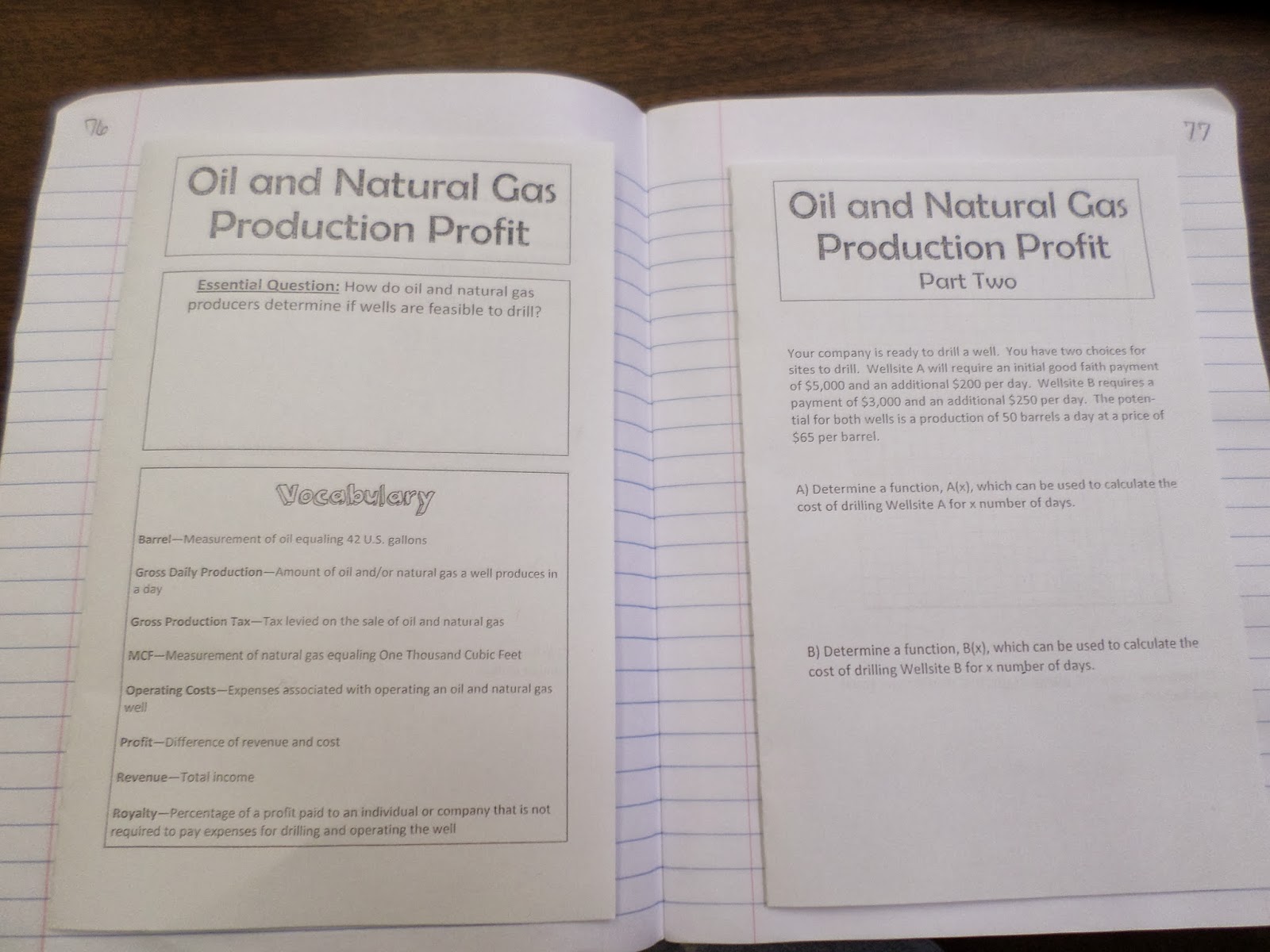
Before jumping into the lesson, we had a group/class discussion. What do you know about the oil and natural gas industry? I had students discuss their own personal knowledge in groups. Then, each group shared with the class. I really need to work on my discussion leading skills because the discussion was not as fruitful and productive as I would have liked. My students think they can get away with having their own conversations while other groups are presenting. And, I end up yelling a lot. But, it never seems to do any good. I think it’s because I’ve never taken the time to teach them the procedures of a class discussion. I need procedures. I need consequences. And, I need to be consistent about them from Day One.
I just ordered a book on orchestrating productive mathematics discussions (5 Practices for Orchestrating Productive Mathematics Discussions), so I’m hoping to learn from that this summer.
Some students offered insights into the oil and natural gas industry that were way over my head. They were throwing around jargon that meant nothing to me. These were the students who have actually spent time on rigs and worked out in the field alongside family members. Other students offered insights such as “Oil smells funny.” or “You put gas in your car.”
The Essential Question for this lesson was “How do oil and natural gas producers determine if wells are feasible to drill?” Students were to come back and answer this question AFTER completing the lesson.

We also needed to review some important vocabulary before beginning to work with numbers and equations.

As we worked through each of the questions together as a class, we would continually refer back to this vocabulary box. If a question mentioned profit, we would review the definition of profit before even attempting an answer to the question. These terms were new to almost all of my students. They had a really hard time differentiating between operating costs, profit, and revenue.
Day One focused on answering questions related to this data:

This could be updated to reflect the actual current selling price of a barrel of oil, but I just used the data that was provided at the workshop. Oil prices tend to fluctuate a lot.
Here’s the first batch of questions we explored together:
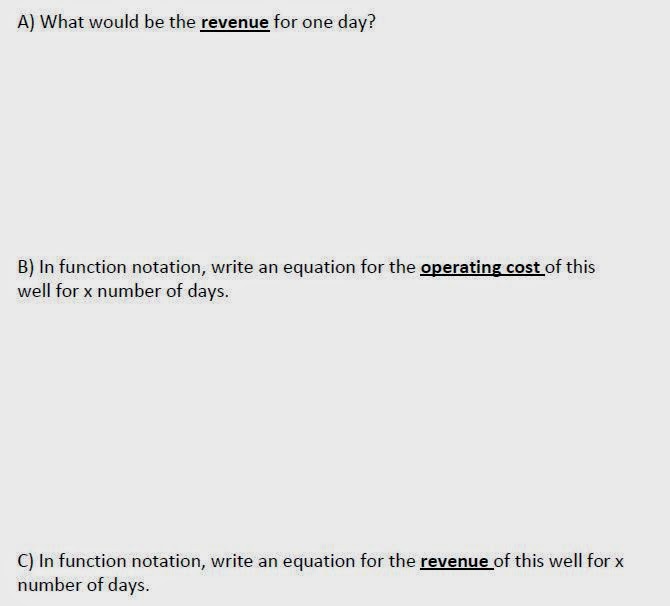
After reviewing the vocabulary, students were able to complete this section with relatively few problems. The function notation proved tricky for several of my lower level students. Many students would just wait until someone in the class provided the answer. I hate this, but I’m not sure what to do about it. I guess I could give everybody in the class a different set of data to work with, but that would probably drive me INSANE!
Having written functions for revenue and operating costs, students could now tackle the topic of profit.

This is where we ended Day One.
Day Two. Your company is now ready to drill a well!

Now, we’ve moved from discussing one wellsite to comparing two wellsites.
Again, we’re practicing function notation. This time, students are told what to name their functions.

Now comes the fun part. Graph the two functions. Figure out where they cross.
This was really hard for me to do, but I did it anyway. I didn’t tell my students how to number their axes. I let each class pick. I was risking that some classes might not find a graphical solution. Why do this? Well, this is math. This is real-life. In real-life, every decision has consequences. My students need to learn this. They need to learn that math isn’t always pretty. It can be messy. Sometimes you have to try multiple approaches to something before you find the way that works.
Handing my kids a graph with the axes already marked cheats them and me out of a learning experience. My kids need to see the consequences to their decisions. If I choose for them, I’m cheating them out of an opportunity to think critically. To be an effective teacher, I need to know what my students are thinking. I need to know how well they can think critically. If I choose for them, I’m cheating myself out of learning more about where my students are. The more I know about where my students are, the more I can help them get to where they need to be.
In this class period, students decided to let each line on the y-axis represent $1,000. And, each line on the x-axis represented 5 days. We started to graph A(x), the cost of drilling wellsite A for x days. My students quickly identified the y-intercept of the equation, and we marked that on our graphs. The slope was a little trickier. How in the world do you graph a slope of 200? First, I asked my students to rewrite 200 as a fraction. 200 was soon expressed as 200/1. The numerator of our slope represents the change in y of our function. What is the change in y of our y-axis? The distance between each line on our y-axis represents $1,000. The denominator of our slope represents the change in x of our function. What is the change in x on our x-axis? The distance between each line on our x-axis represents 5 days. Now, how can we “unreduce” our slope so that the numerator is a multiple of $1,000 and the denominator is a multiple of 5? Students soon realized that 200/1 is equivalent to 1000/5. Instead of spending a ton of time trying to estimate how to go up 200 dollars and over 1 day on the graph, we were able to quickly and efficiently move up 1000 dollars and over 5 days.
This is a strategy I learned at the OERB workshop. This was a completely new strategy to me, and I kinda sorta fell in love with it. We’re always asking our students to reduce the slope. But, I don’t think I’ve ever asked students to “unreduce” their slope before this lesson.

I let the students take more charge on graphing B(x). Again, we had to “unreduce” our slope of 250/1. This class ended up multiplying the numerator and denominator by 10. Going up 2500 dollars and over 10 days was a little trickier since every other dot was not on the intersection of two grid lines. In retrospect, we could have corrected this by multiplying the numerator and denominator by 20.
We found the point of intersection of the two graphs and wrote this solution to the system as an ordered pair.
Next, I asked students to algebraically determine the solution. Since we were only beginning our study of systems of equations, I had to basically set up this problem for my students. Once I set up the equation, they were able to easily manipulate the variables to solve for x. Finding the corresponding cost by substituting the found value of x into one of the cost functions did not occur to them.

Next, students were required to write exactly what this found ordered pair meant. My students struggled with the writing which is proof that I need to require a lot more writing in my classroom. With Common Core, my students need to get used to justifying their answers. Even more, they need to get used to writing in complete sentences. Always using units. Showing their work. We’ve got a lot of work to do!
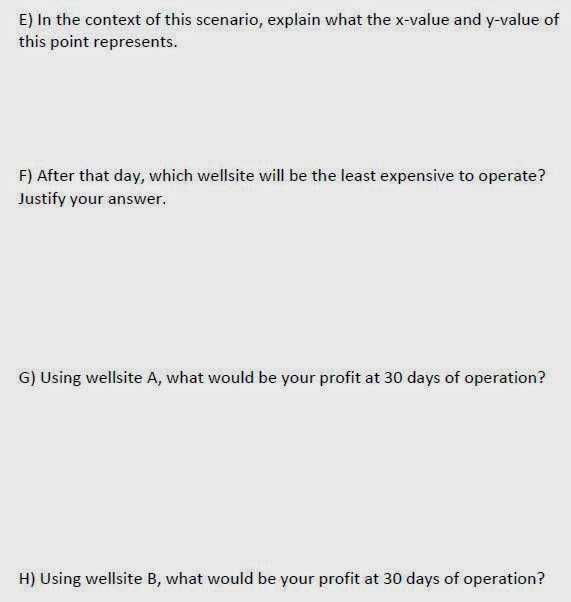
This is the first extended application problem that I have worked through with my students. I enjoyed the process, and I learned a lot. I hope my students learned a lot, too.
Their answers to the essential question were disappointing. But, I think that’s mostly my fault for just expecting them to write when I haven’t required that of them for the entire year. My students will rise toward my expectations. But, first I must set expectations. This is one of the major things I am working on for this summer. Procedures and expectations. Clearly spelled out. Practiced Daily.
Oil and Natural Gas Production Profit Lesson
Click here to SAVE the file to your device.
Oil Production Profit 1 (PDF)
1733 saves – 218.12 KB
Click here to SAVE the file to your device.
Oil Production Profit 2 (PDF)
1733 saves – 172.02 KB
Credit for the lesson goes to the OERB. I have slightly modified some of the wording and structure to make it work for my students.
May 30, 2014 – What I’m Up To This Summer
Summer is already in full swing. We’ve been out for a couple of weeks now. The end of May has been filled with VBS prep, Friends of the Library Meetings, prom fundraising, and time spent with family. Now that May is already over, I’m looking over my calendar to see just what I’m going to be busy with these next two months. School starts back August 14th with two professional days before that. But, I’ve got a ton to do before then!
June
* Vacation Bible School (5 Days) – This will be my 3rd year directing my church’s VBS. Our theme this year is River of Life. VBS is a huge undertaking, but I love getting to interact with the kids. Plus, I get to exercise my creative side with decorating and crafts.
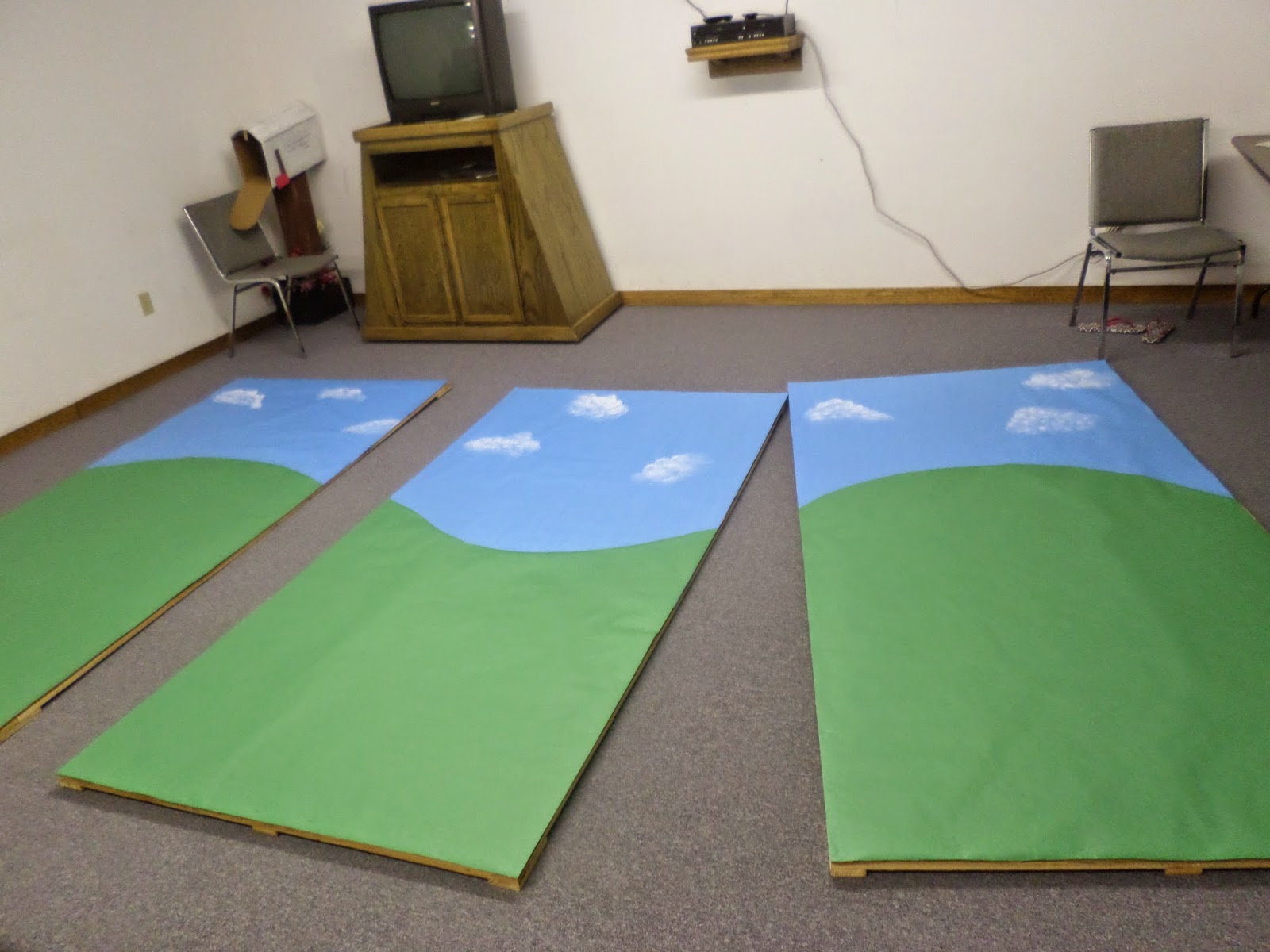
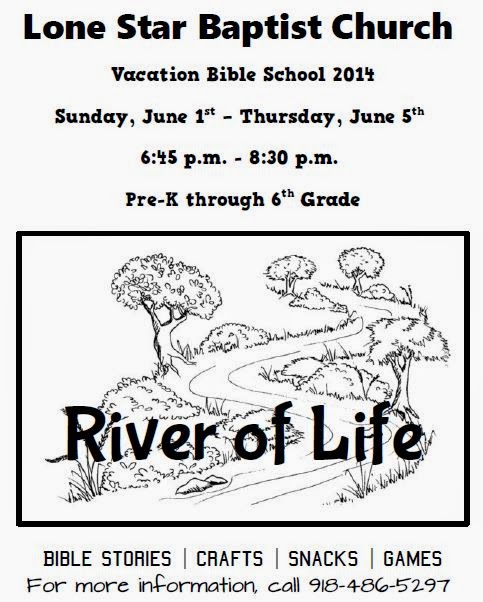
* Story Hour at the Drumright Public Library – I’m pretty sure this is proof that I’m crazy or I just can’t say no. Well, actually, I volunteered to run the very first story hour at our local public library. We’re going to be reading If You Give A Pig A Pancake and making a fun pig-themed craft.
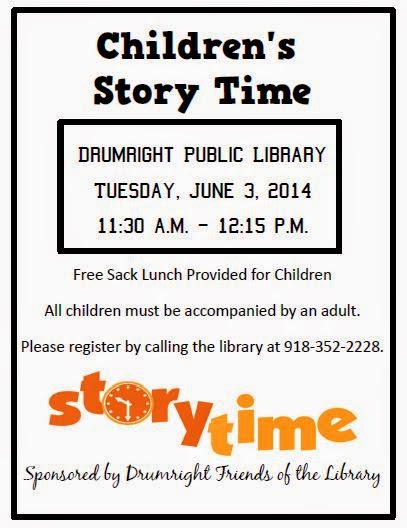
* TU School of Urban Education Breakfast and Brainstorming Session – My alma mater is inviting recent education graduates back for a breakfast to share our teaching experiences and insights on what works in our classrooms.
* Monthly Book Chat – My public library has a monthly book chat that is one of the highlights of my month. What could be better than spending an hour eating dessert and talking about the books we’ve been reading.
* Tulsa Math Teachers’ Circle Summer Immersion Program at Post Oak Lodge (3 Days) – I’m very excited for Math Teachers’ Circle Training this summer! It will be three jam-packed days of math problem solving, hiking, swimming, and hanging out with other math teachers! I’ve had a blast at the Math Teachers’ Circle Meetings I’ve attended this past school year, so I’m looking forward to the immersion program!
* Oklahoma Council of Teachers of Mathematics Summer Conference (1 Day) – This will be my second year attending this conference and my first year presenting! I’m excited to share with Oklahoma teachers about “Making Note-Taking Fun and Interactive: An Introduction to Interactive Notebooks.”
* Oklahoma Geometry and Algebra Project (OGAP) Workshop (5 Days) – Of all the workshops I attended last summer, OGAP was the one that I learned the most at and had the most fun at. After five days, none of us wanted to leave! We each made a two-year commitment to this workshop that focuses on preparing teachers to teach Common Core high school math courses. Last summer, I attended the Edmond Workshop. But, due to scheduling conflicts, I will be attending the Broken Arrow/Tulsa Workshop this summer. I’m going to miss getting to reconnect with the teachers from last year, but I’m excited to network and make new connections this summer! I’ve used so many ideas this past year from last summer’s workshop. I’m hoping to blog about more of the activities and workshop this summer.
* Friends of the Library Board Meeting – I’m Vice President of my local Friends of the Library Board of Directors. My landlord is the President, and she reached out to me to help form a Friends of the Library Group. We just started this year, and so far we’ve planned a monthly Senior Book Day and a bi-monthly Children’s Story Time.
July
* 4th of July Trip with my Family – I’m not sure where we’re going yet, but my parents are closing down their business for the 2nd – 4th for Independence Day. This gives us 5 days (including the weekend) to go somewhere. As small business owners, they have a terrible time taking off during the year. They’ve found that they only way to take a vacation is to just close the business down for a few days.
* Friends of the Library Board Meeting
* Church Camp at Kiamichi Baptist Assembly Campgrounds in Talihina, OK (5 Days) – This will be my 15th year to spend at a week at KBA. I went as a camper for the first time the summer after I finished the 4th grade. After three years as a camper, I started going as a junior sponsor and eventually a sponsor. This is a beautiful place that is very near and dear to my heart.

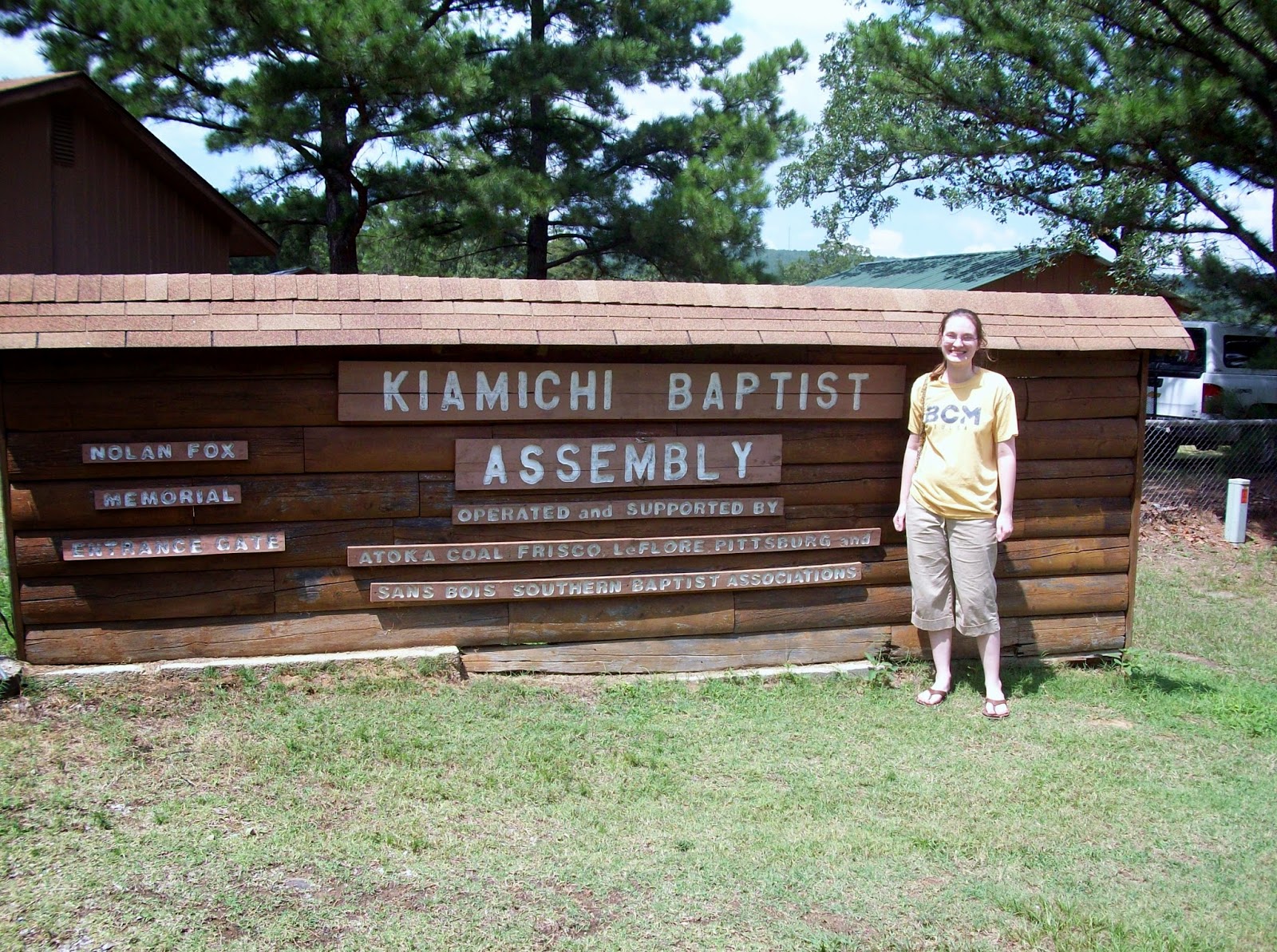
* Twitter Math Camp (4 Days) – I am so, so, so excited to finally get to attend TMC! After reading about it for the past two years, I’m ready to be part of the action! I’ll even be presenting a session!
* OK Math Convening (3 Days) – This will be a new experience for me. A group of math teachers from across Oklahoma will be convening in OKC to create tools and resources for all of Oklahoma’s teachers. We’re supposed to be thinking about what we want to create to share with others. I’ve got so many ideas. Hopefully, I’ll be able to narrow my focus by the end of July!
* Monthly Book Chat
As you can see, this is going to be a busy, busy summer! There were several workshops that I would have loved to participate in this summer, but I couldn’t due to schedule conflicts. I need a summer that is twice as long so I can fit in all the activities I want to participate in.
This post doesn’t even begin to touch all the things I’m planning on doing this summer outside of scheduled activities. But, that’s an entirely different post!
May 31, 2014 – Two Ms. Hagans?
My sister is studying to be an art teacher, and I know she is going to be a great one. Her college semester ended a few weeks before the end of our school year, so she took this as an opportunity to come and visit my classroom and my students.

My kids were amazed by my sister. The look on students’ faces as they walked in the room and saw my sister and me was priceless! Some even mistook her for me. Are you guys twins? Nope, we’re three years apart. This is so weird! You guys even sound the same! Though, one student said that my voice was a little higher than my sister’s. And, another student in a different hour claimed that our voices were almost the same, but my sister’s voice is a bit higher than mine. I’m not sure who to believe. We also heard from multiple students that we have the exact same laugh. That’s good to know. Another student claimed, in amazement, that we also dress alike.
The fact that they had to call us Ms. Hagan was almost too much to handle. One class decided to differentiate between us by calling me Ms. Hagan 1 and my sister Ms. Hagan 2. My sixth hour referred to my sister as Ms. Hagan and myself as Ms. Nagah (which is Hagan backwards, by the way!) My fifth hour wanted to refer to me as the original Ms. Hagan, but that implied that my sister was the imposter Ms. Hagan which did not go well. 🙂 Then, there was the student who decided they should just rename us Tweedledee and Tweedledum. When she suggested that I could be Tweedledum, I asked her what she was implying. Overall, it was fun to introduce them to my sister. Though, I’m pretty sure that they like her way better than they like me.
She didn’t just come and visit. She also brought a project to do with my kiddos.
While waiting for school to start, she made me several tiny origami flappy birds. Sadly, the wings of the tiny flappy birds barely flap. But, they were still cute!
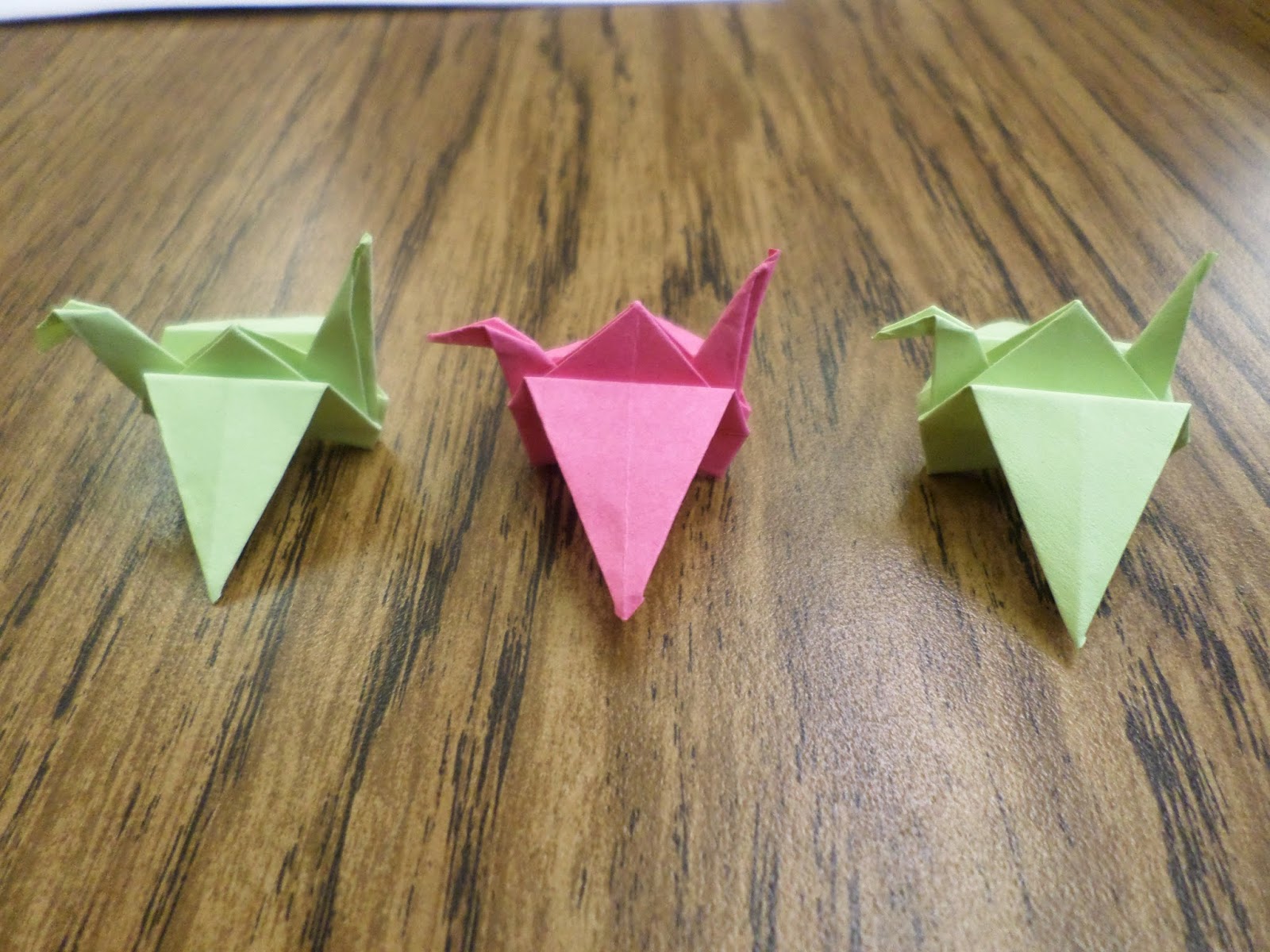
June 1, 2014 – Pi Day 2014 Celebration
Due to being out of school on Pi Day and attending STEM Day the day before, we had to celebrate an early Pi Day on March 12th. My students didn’t seem to care that we weren’t actually celebrating on March 14th. And, hopefully, you won’t care that I’m finally getting around to posting this MONTHS later.
Students entered the classroom to be wished a Happy (Early) Pi Day!

Several days before our celebration, I informed them of the upcoming holiday. Most of my students had never heard of pi day before. I invited students to enter Drumright High School’s First Annual Pi Recitation Contest. I told them about a website called Pi Trainer that will help them memorize the digits of pi, but I’m not sure if any of my students actually used it.
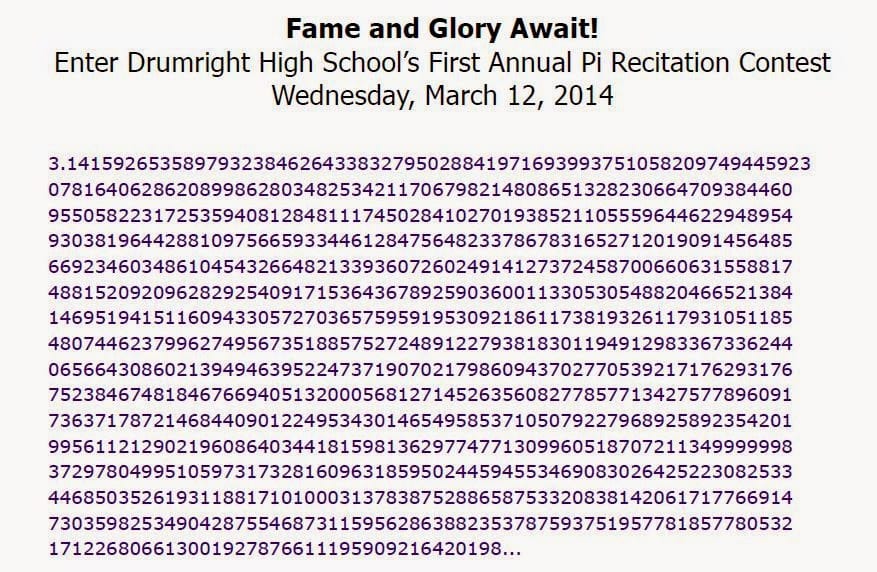
If I do say so myself, the prizes for the pi recitation contest were pretty awesome. The winner from each of my six class periods got their choice of a box of candy. Well, my sixth hour winner got what was left, but all my other winners got to pick.
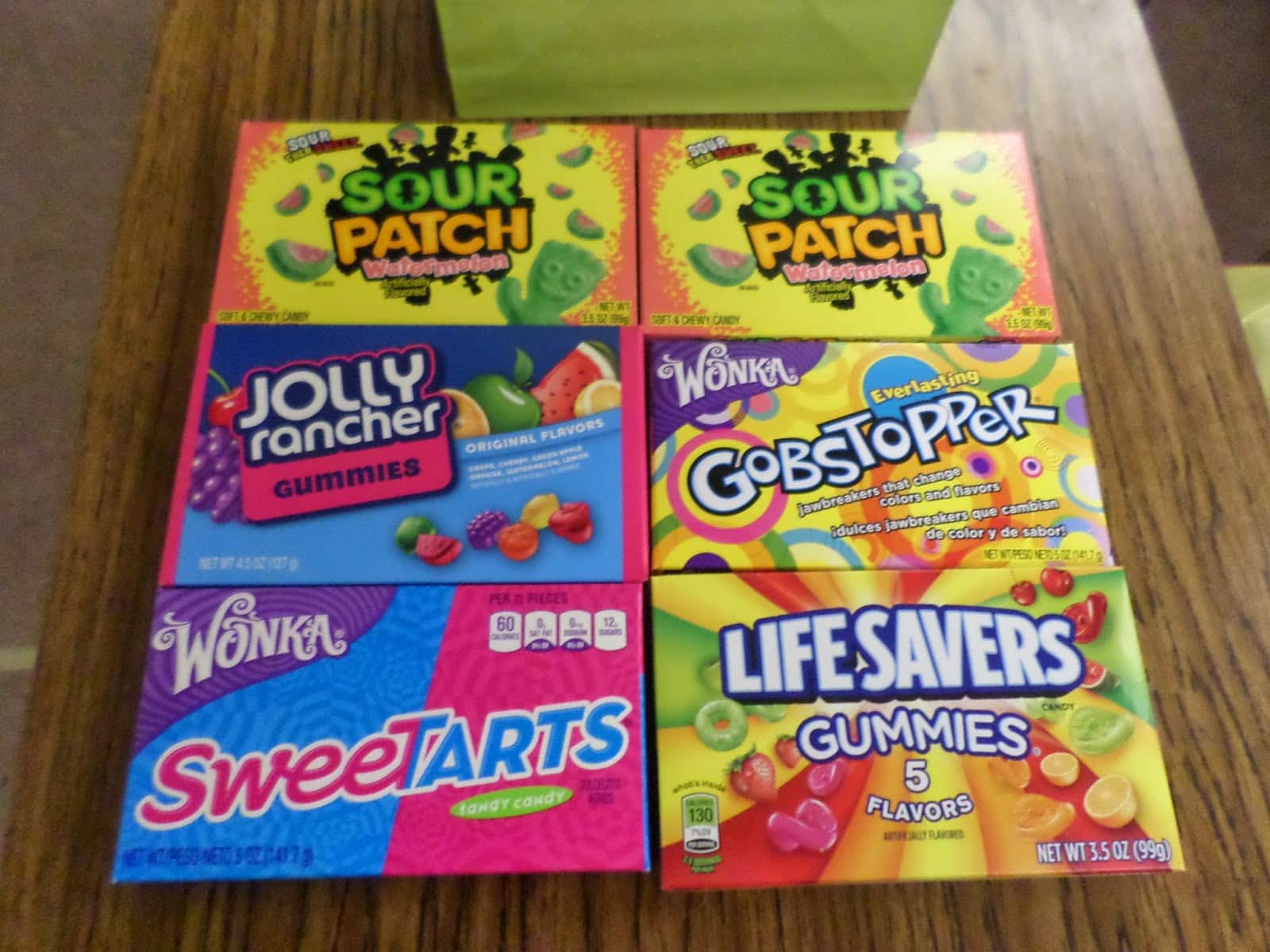
And, the student who memorized the most digits all day won the grand prize. All of the snacks in the grand prizes were circle shaped. Appropriate, right? 🙂
One of my students commented that this was “Diabetes in a bag.” I told them that if they won that they were welcome to share their goodies with a friend. They didn’t have to eat it all themselves! And, they especially didn’t need to to eat it all in one setting!
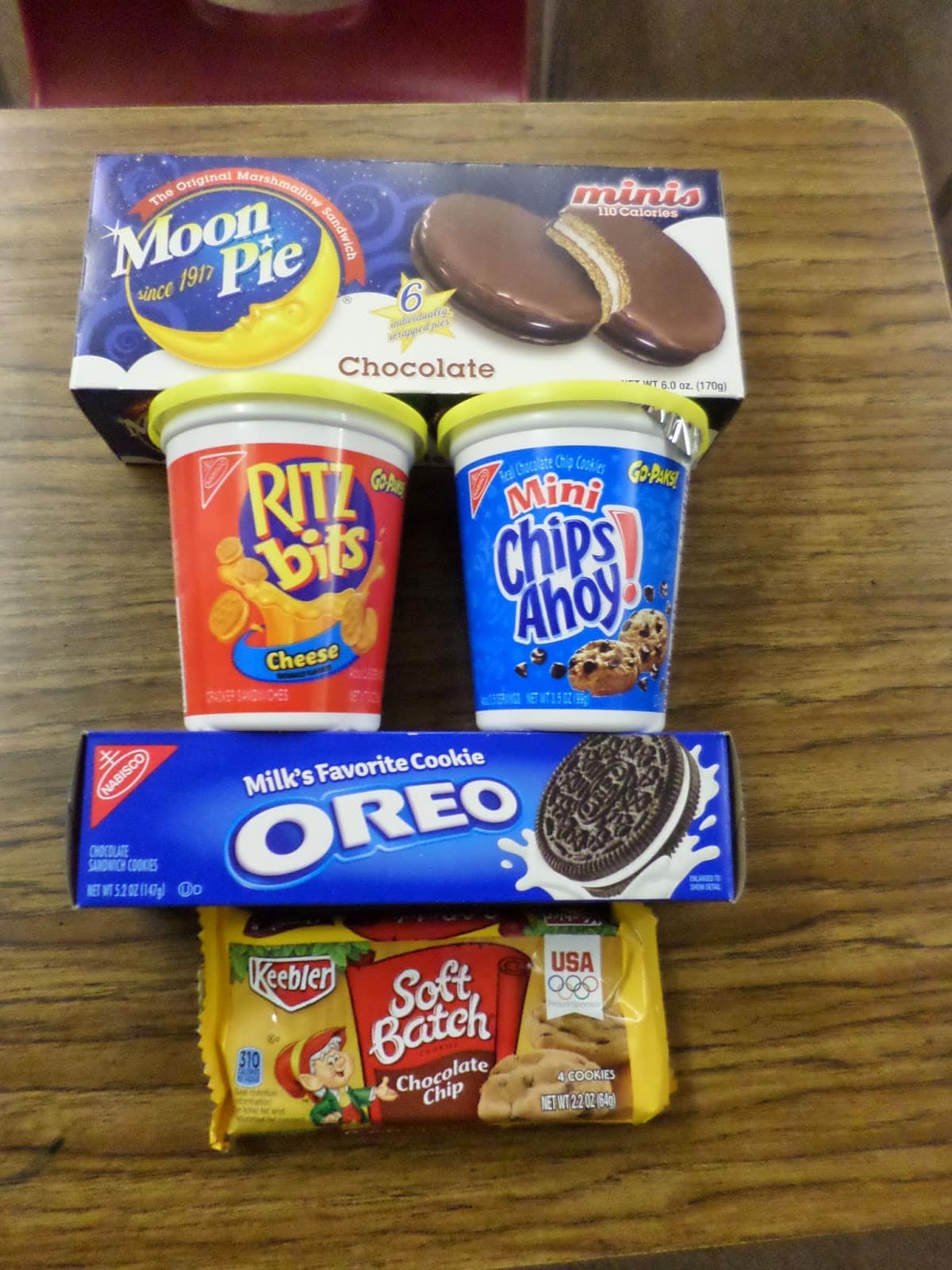
In my excitement of celebrating Pi Day in grand style for the first time, I planned way more activities than could be achieved in a 50-minute period. I ended up doing different activities with each of my classes.
Do you know what supplies you need for an awesome pi day celebration? String, toothpicks, and tennis balls. What do these have to do with pi? Read and see!
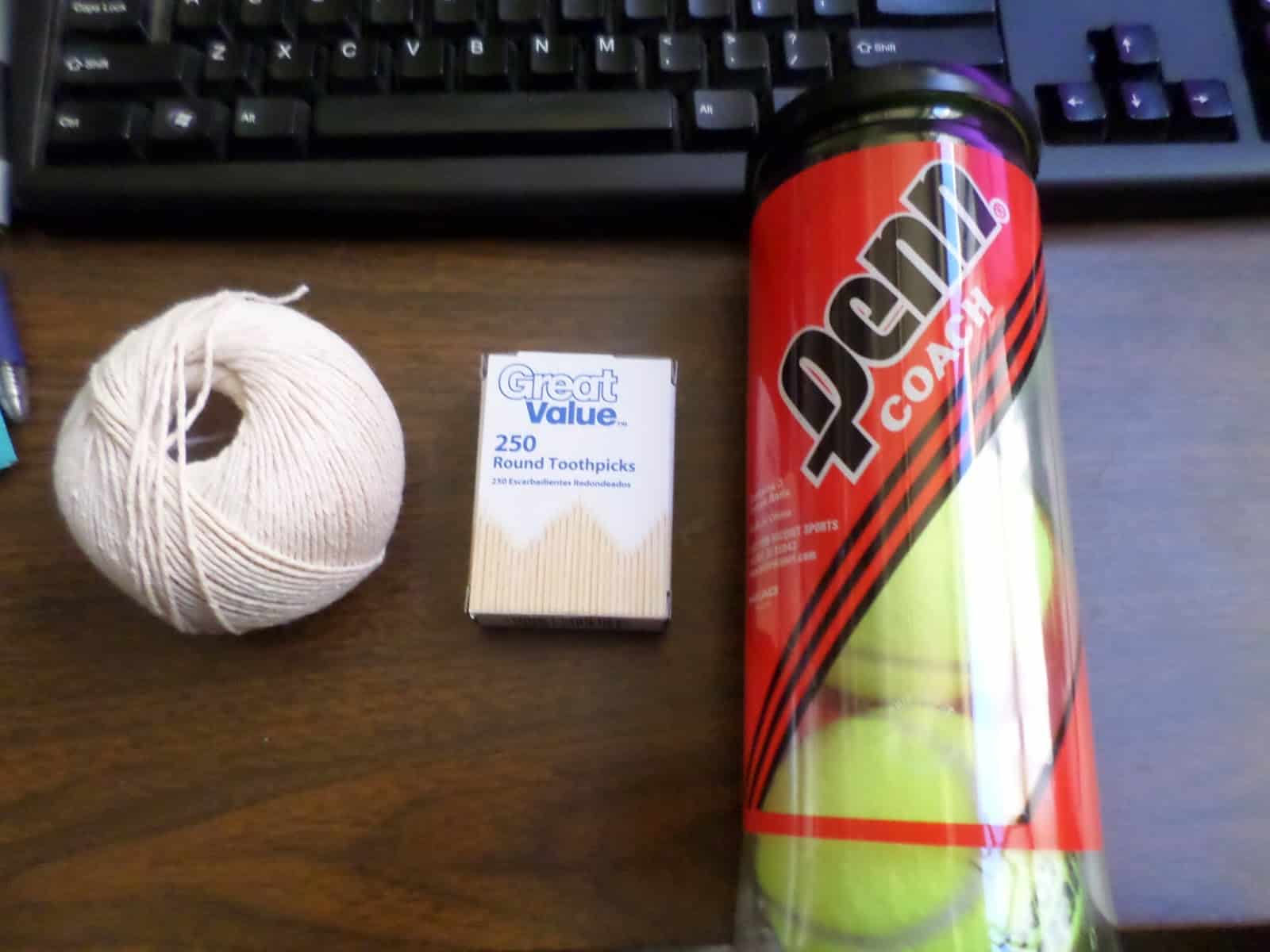
I stole all of my pi day activities from this link.
First hour, we did a cutting pi activity.
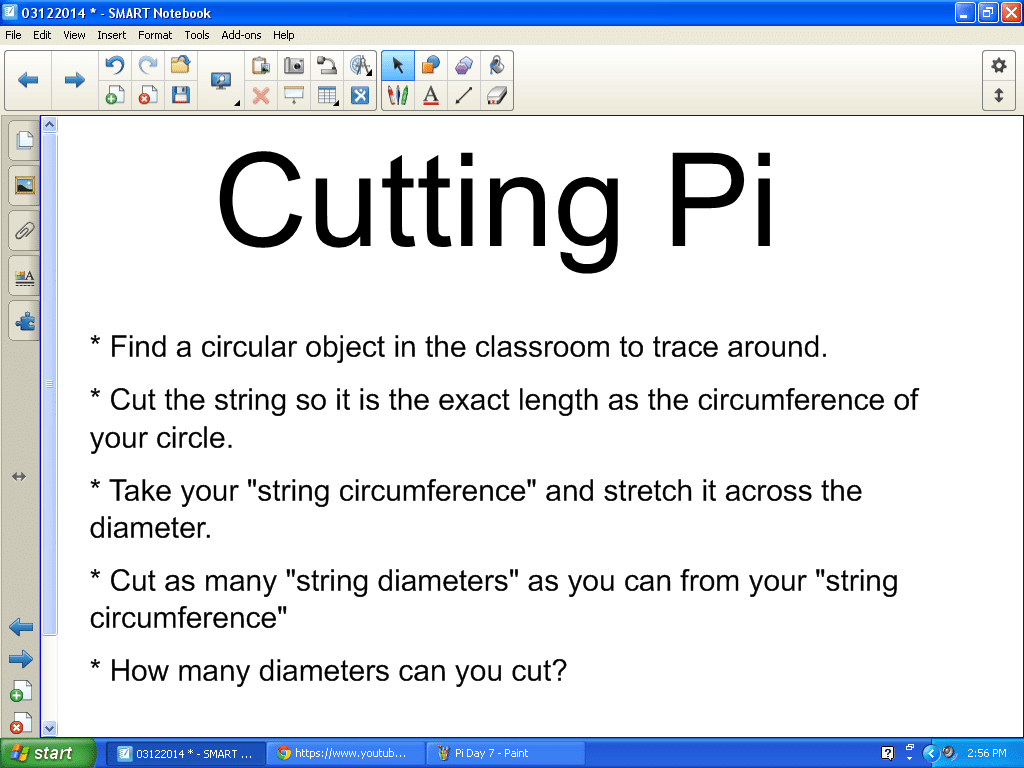
Students looked around the room to find circular objects to trace.
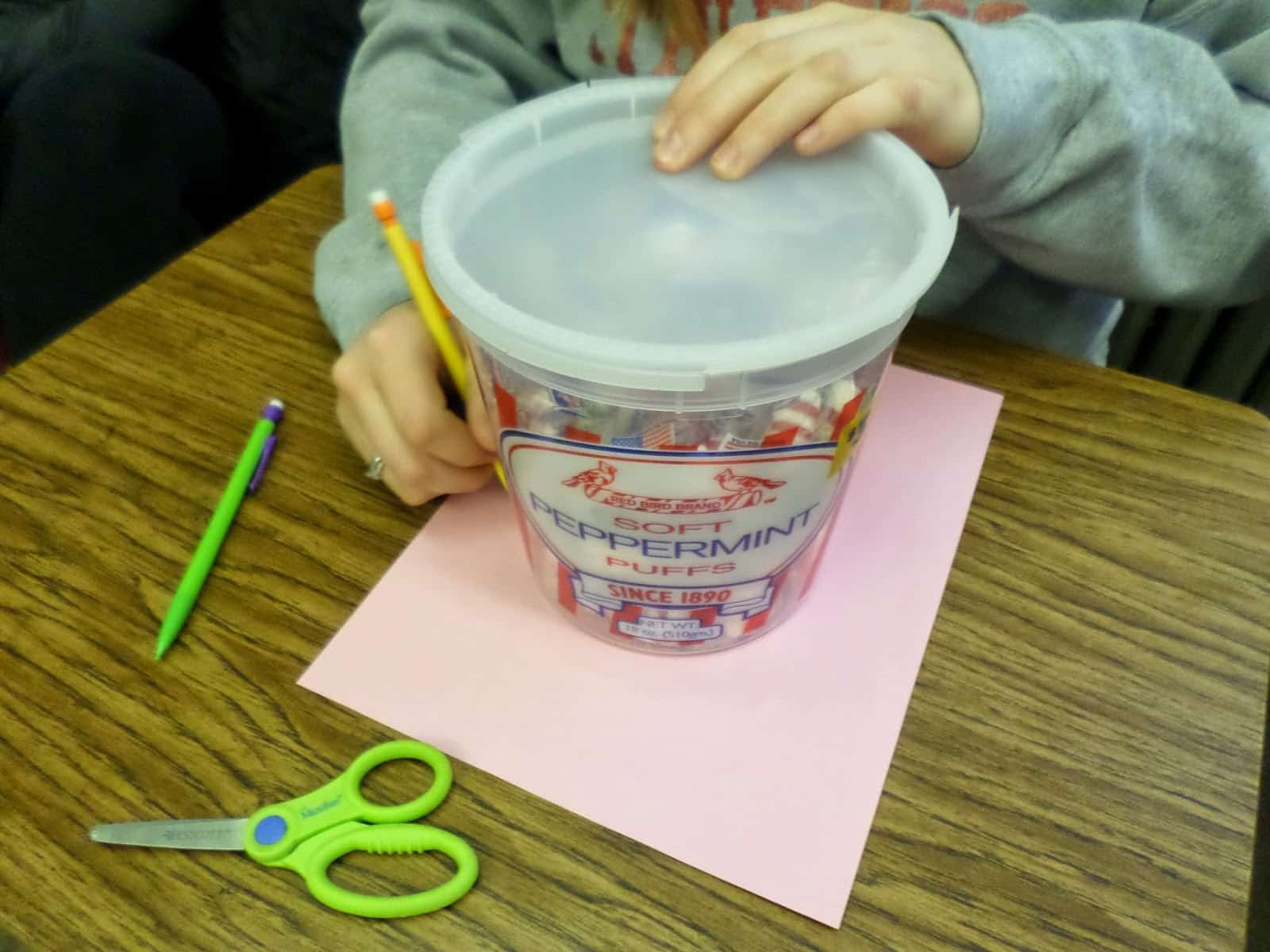
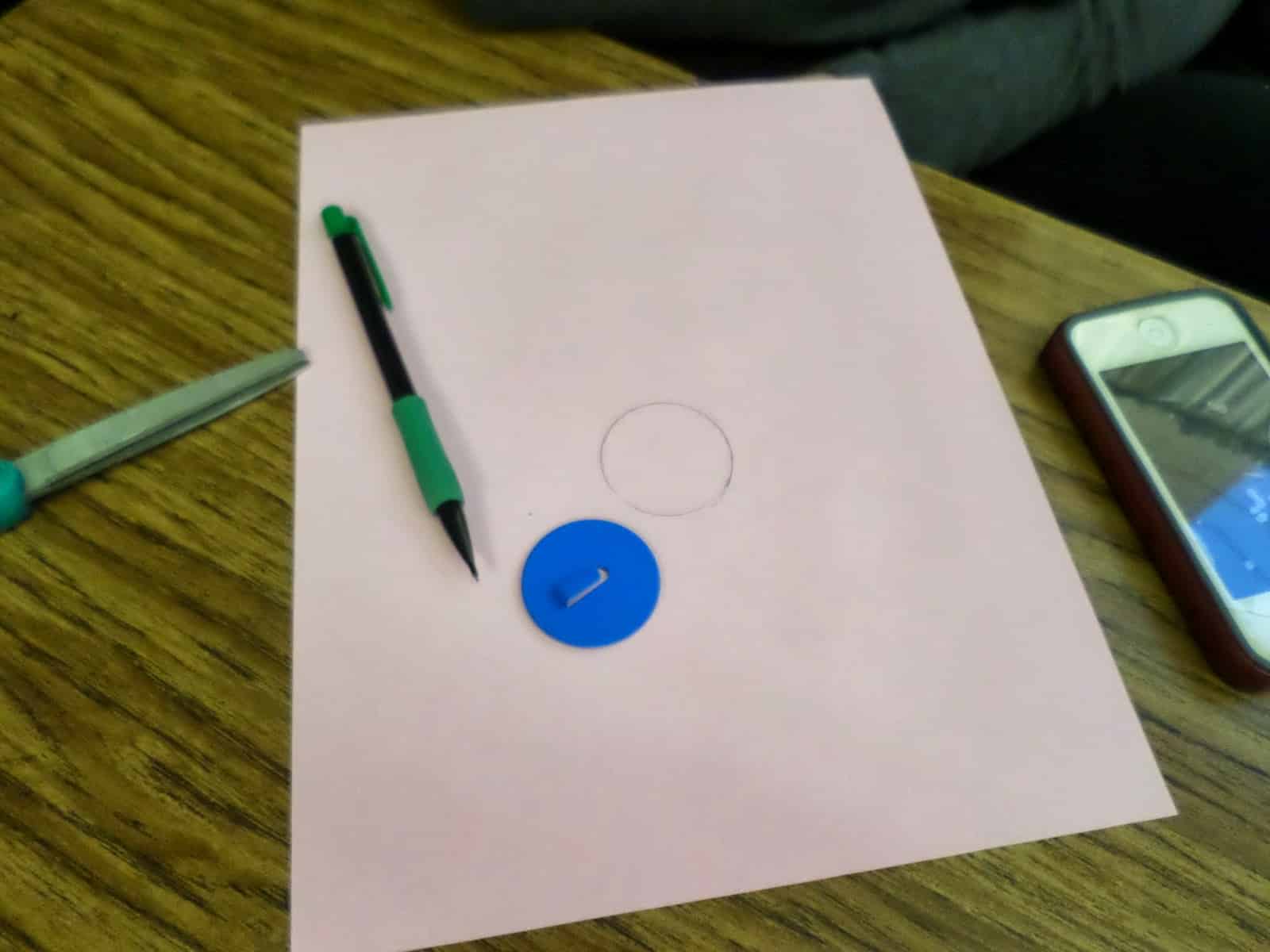
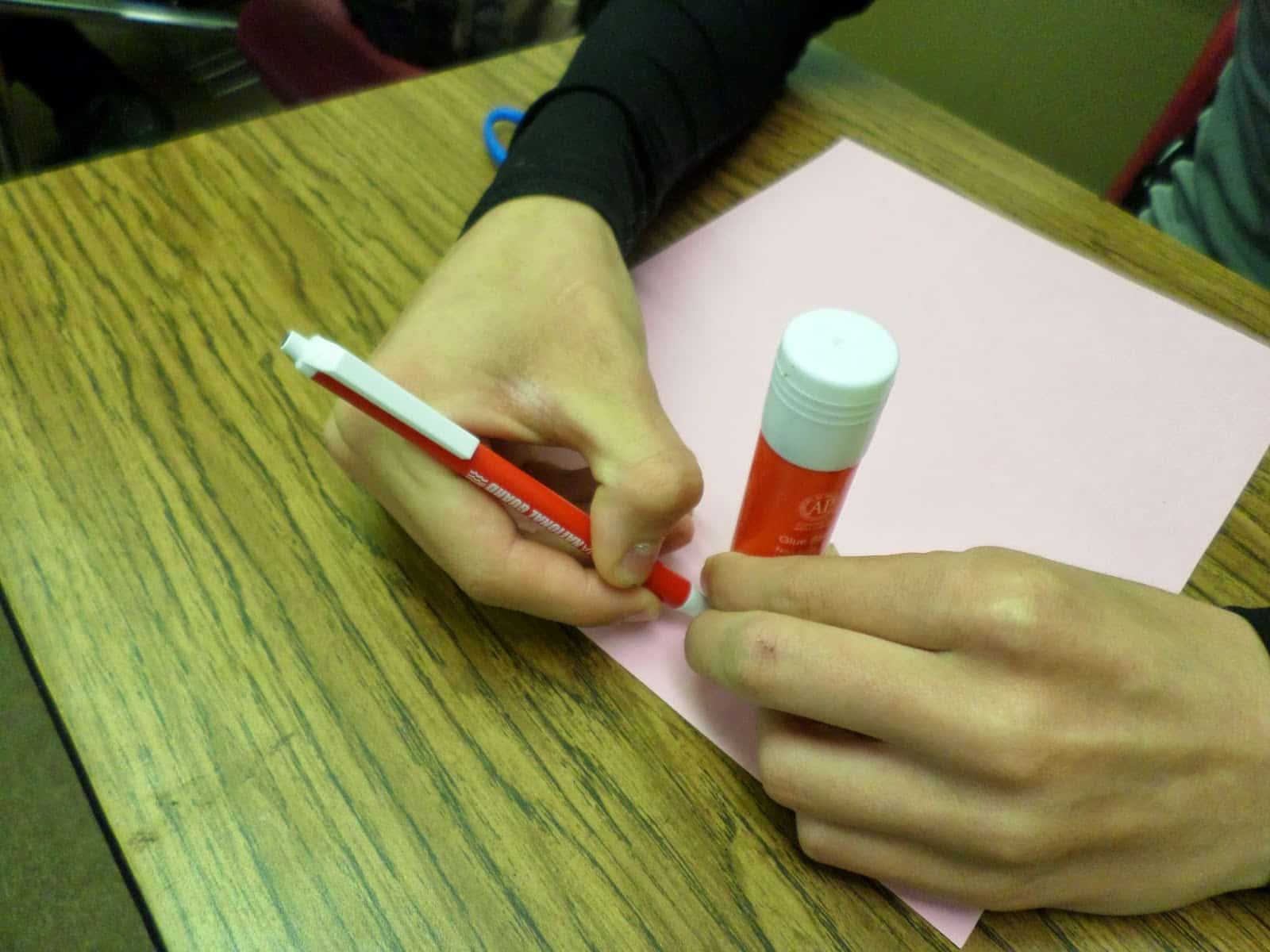
Then, they cut a piece of string equal to the circumference of their circle.
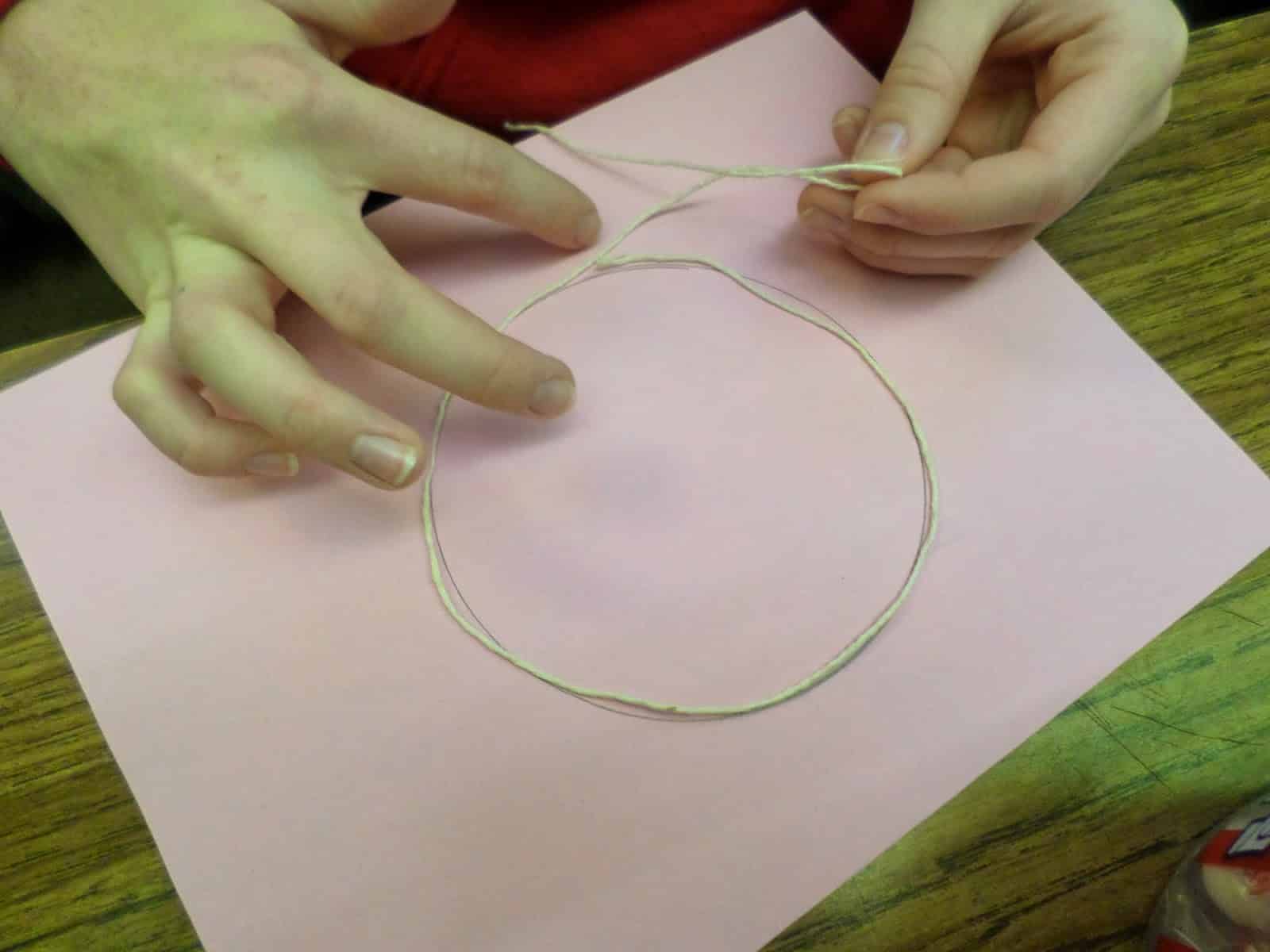
Next, they stretched the string across the diameter of their circle and cut it. Repeat. Repeat. Wait, my string now only goes across 14% of the diameter. Well, that’s what was supposed to happen. My students didn’t do the best job of measuring and cutting, so only one group ended up achieving pi pieces of string in the end.
I decided to skip this activity in my later hours and try something different. We tried tossing pi instead of cutting pi.
Here are the instructions:
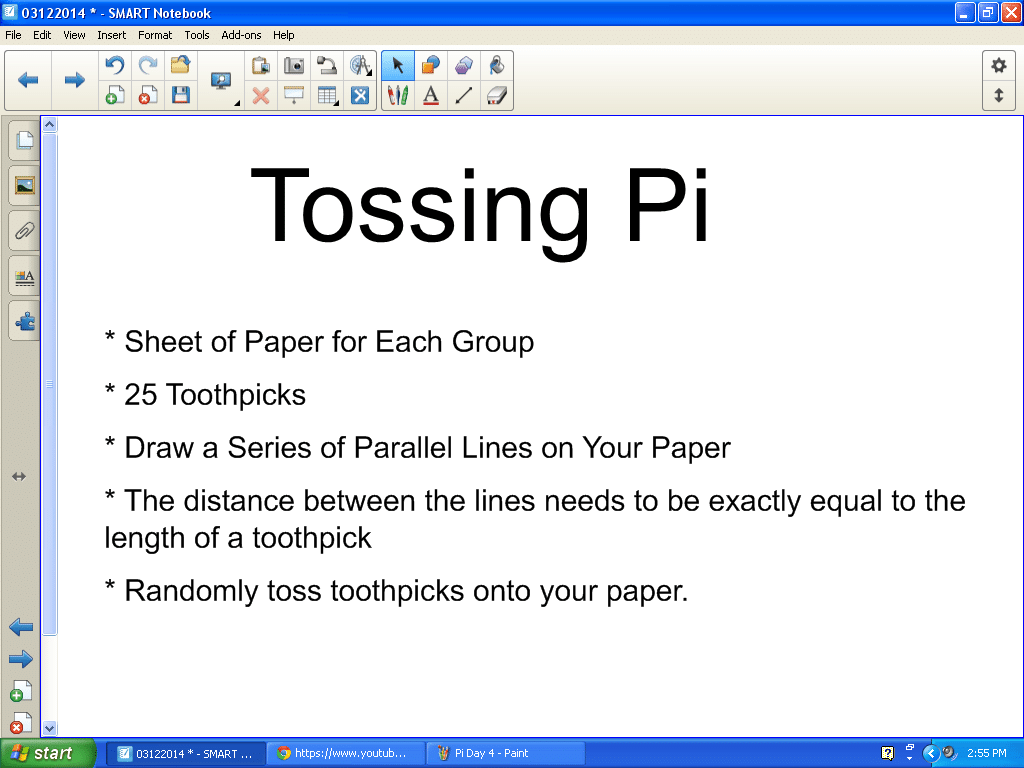
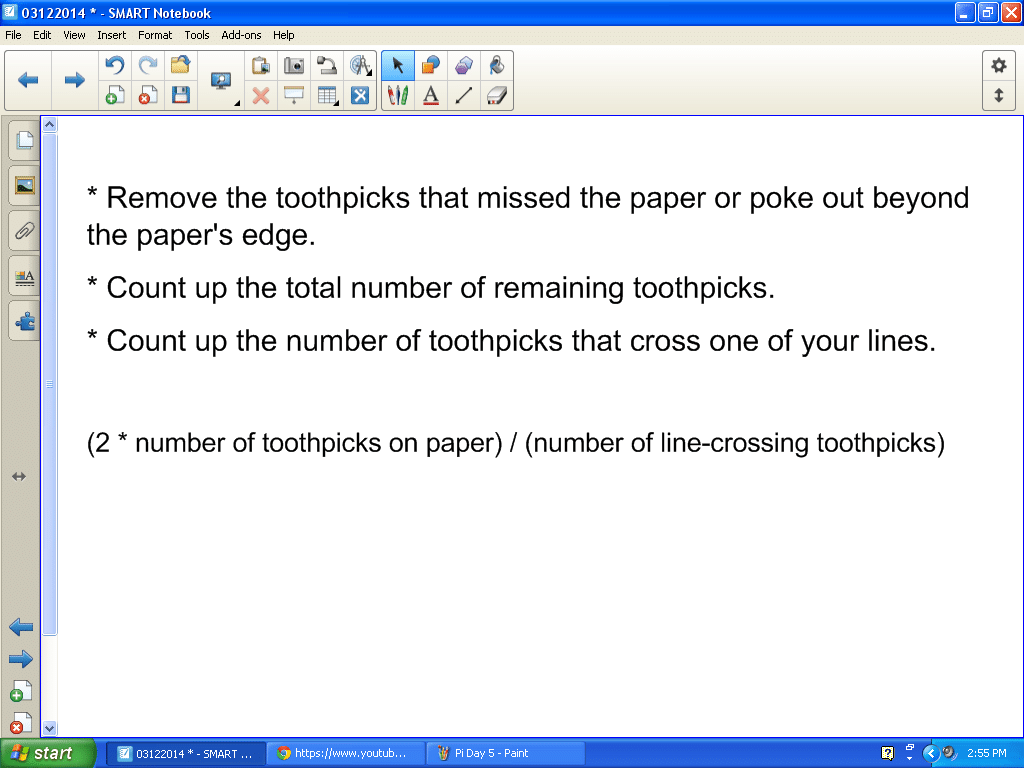
Ideally, this activity, also known as Buffon’s Needles, is used to reach an approximation of pi. Some of my group’s approximations were much more accurate than others.
Students had to work carefully to construct parallel lines whose distance apart was the exact length of a toothpick.
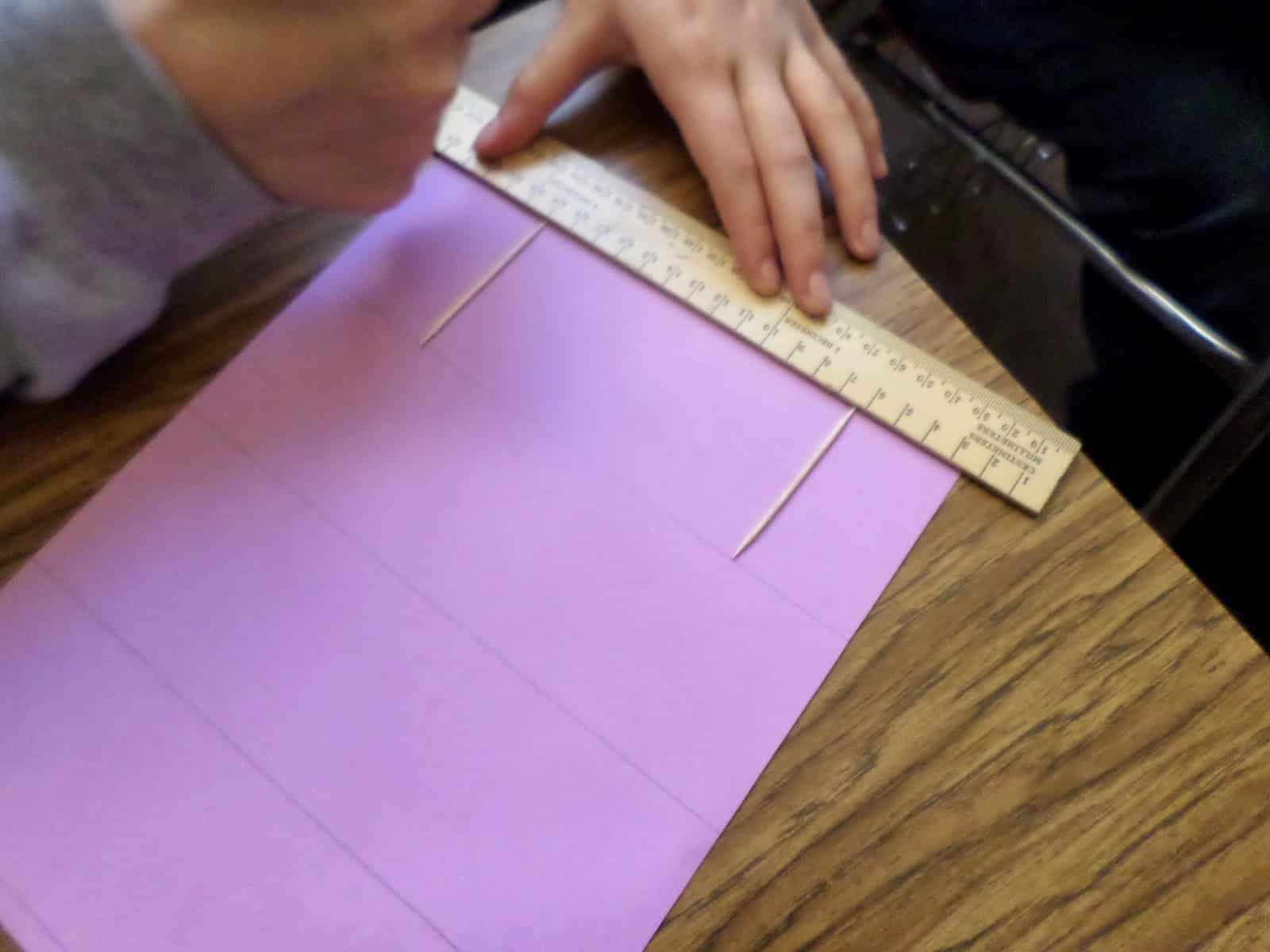
Giving students toothpicks often leads to unintended activities. One group decided to make pretty designs with their toothpicks.
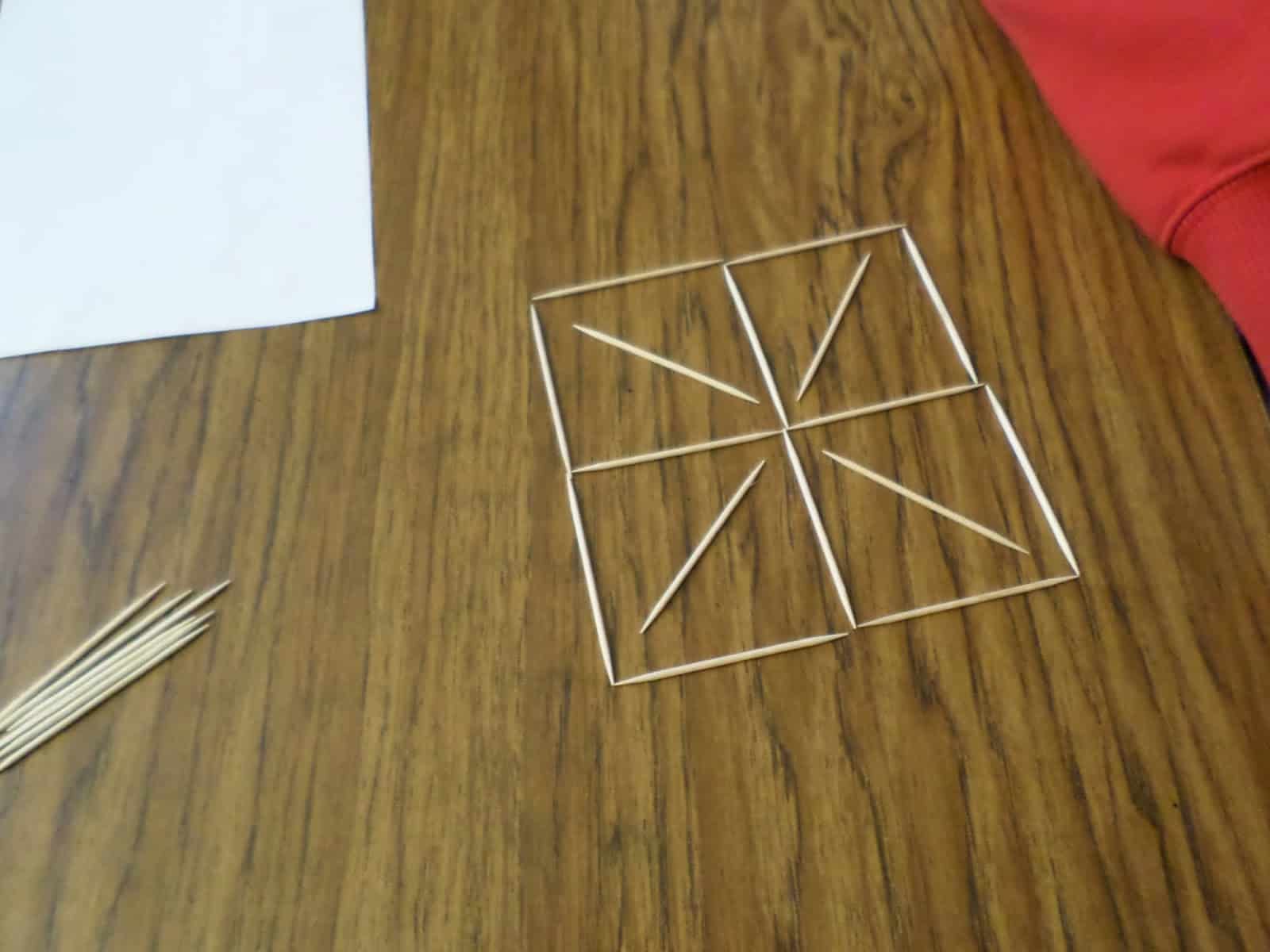
Another group was highly disappointed when I wouldn’t give them more toothpicks to continue building their toothpick tower.
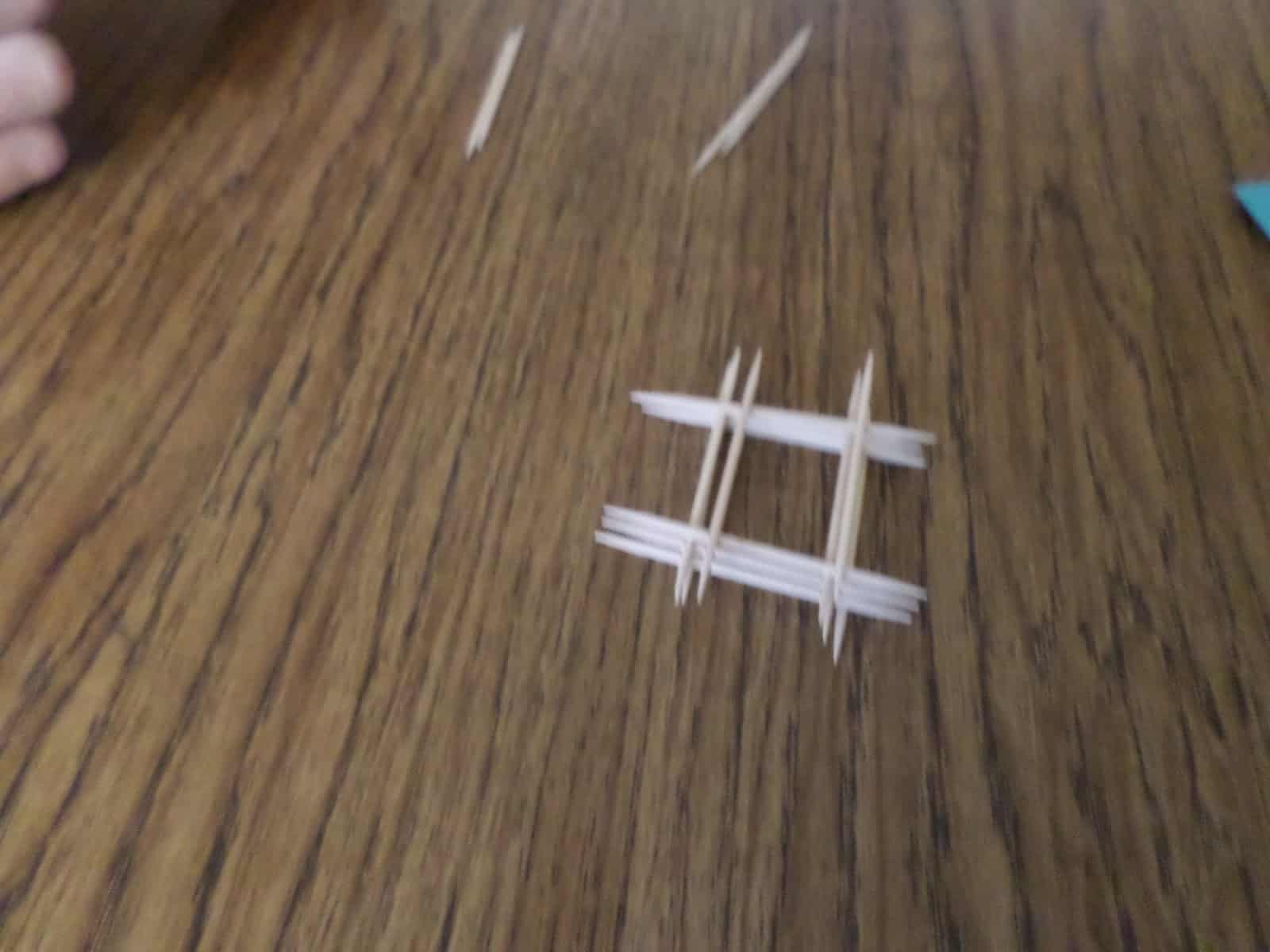
Students laid their papers on the floor and tossed the toothpicks from their desktops.
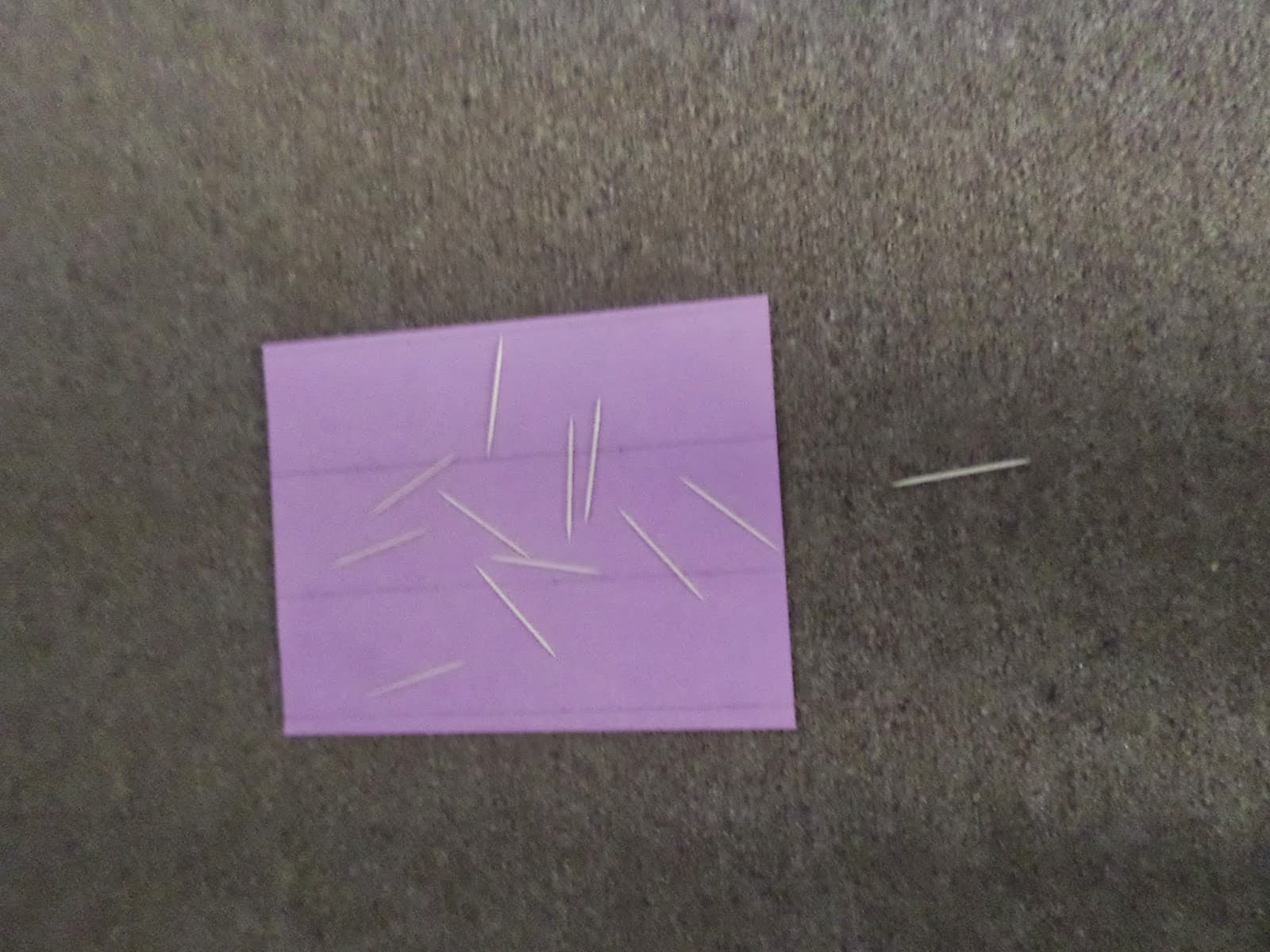
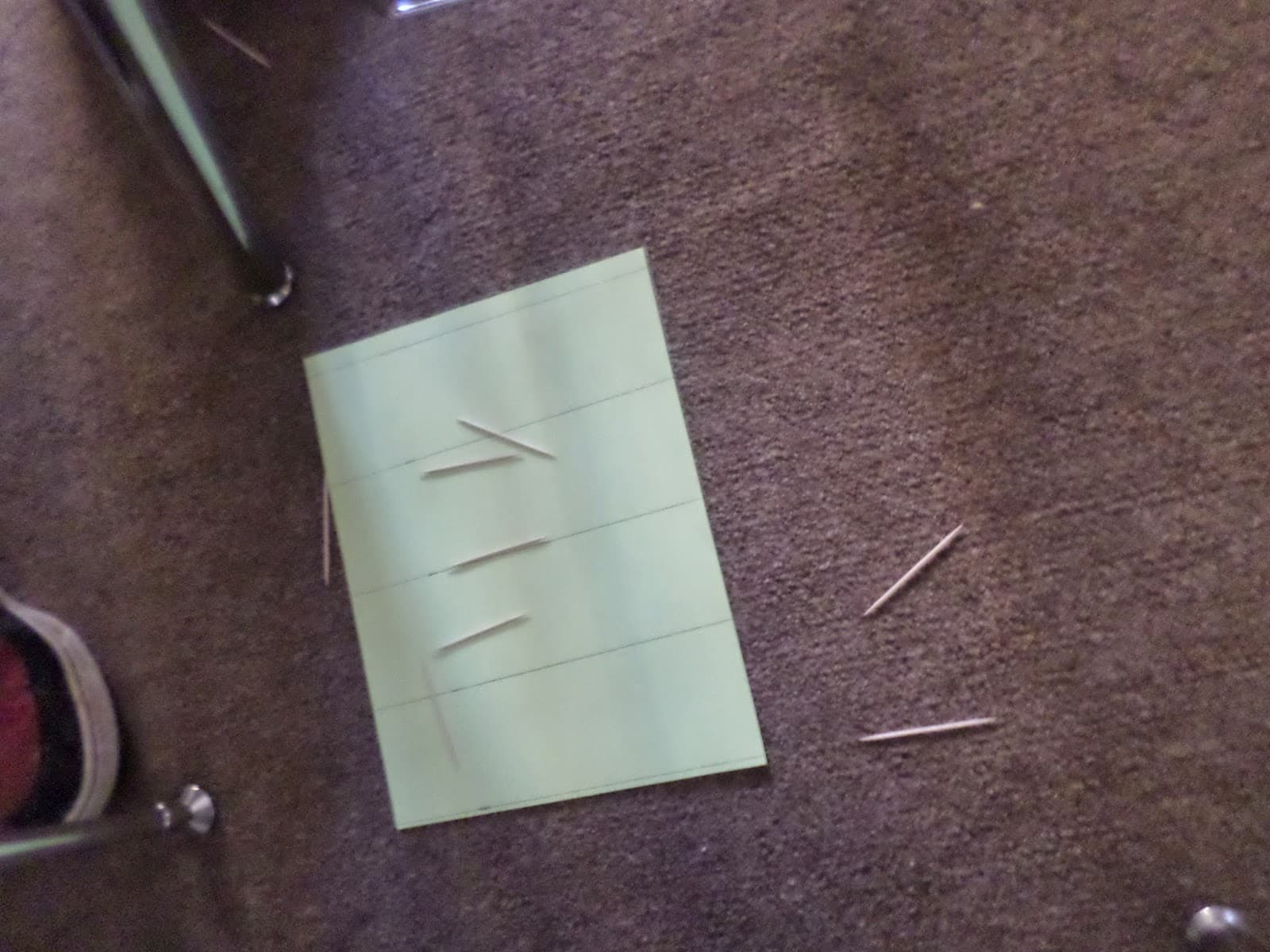
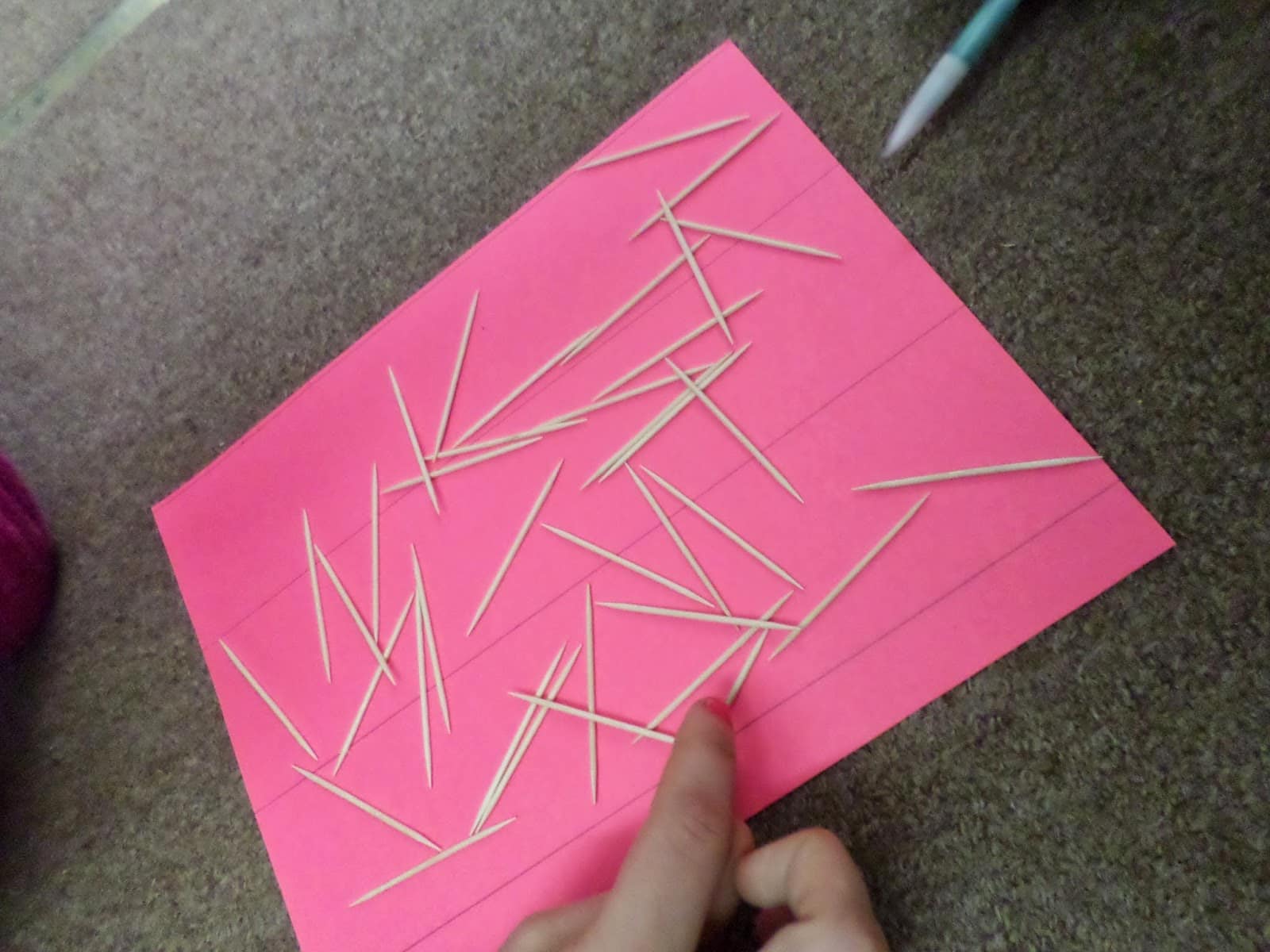
After tossing all of their toothpicks, they used the given formula to approximate pi. We didn’t really have much time to get into why exactly this process works.
After all, we had other things to do like eat pie!
Students asked if we could have pie on pi day. I told them we would gladly eat pie if they brought it.
My fifth and sixth hour classes each had a student bring a yummy pie to share with the class. The pie cutting and eating took up a chunk of time, and these classes ended up doing less activities than my morning classes. But, they got to eat pie, so I don’t think there was any complaining!
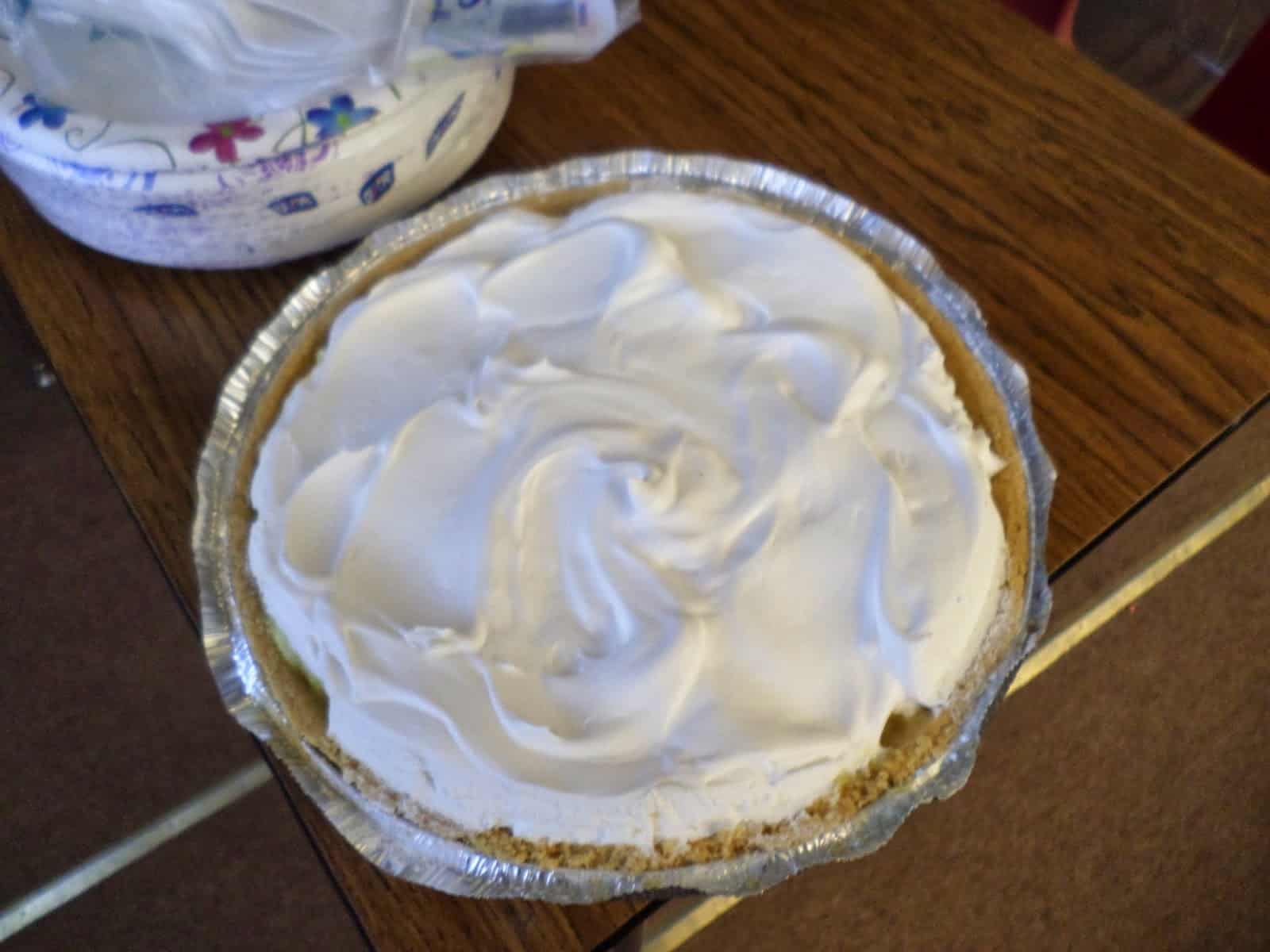
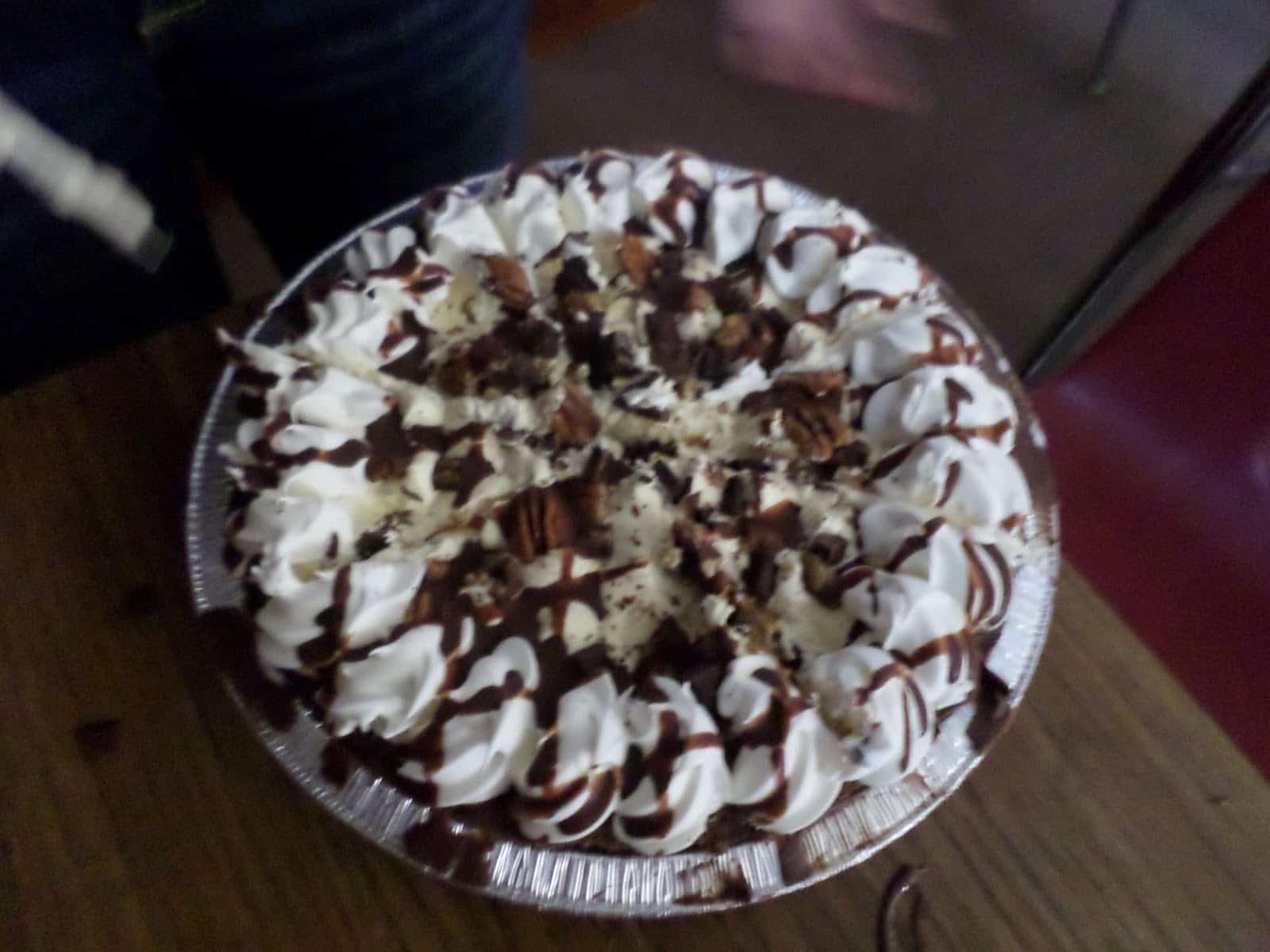
I love incorporating music and singing into my classroom even though I think I’m a pretty terrible singer. I sang a lot more this past year, and none of my students ever put their hands over their ears and screamed, so I guess I’m not too bad.
First hour, I gave my students the option of singing The Pi Song which is to the tune of “Are You Sleeping?” My students did not want to participate. So, I made a fool of myself and sang the song by myself. For the rest of the day, I didn’t give students the option of singing. I just announced, “Now, we are going to sing The Pi Song. It’s to the tune of “Are You Sleeping?” After singing a few bars of the original, I asked, “Are you ready? We’re going to sing together on the count of three.” And, all of my classes participated. My second period Algebra 2 class really got into the song, and they didn’t want to stop singing it.
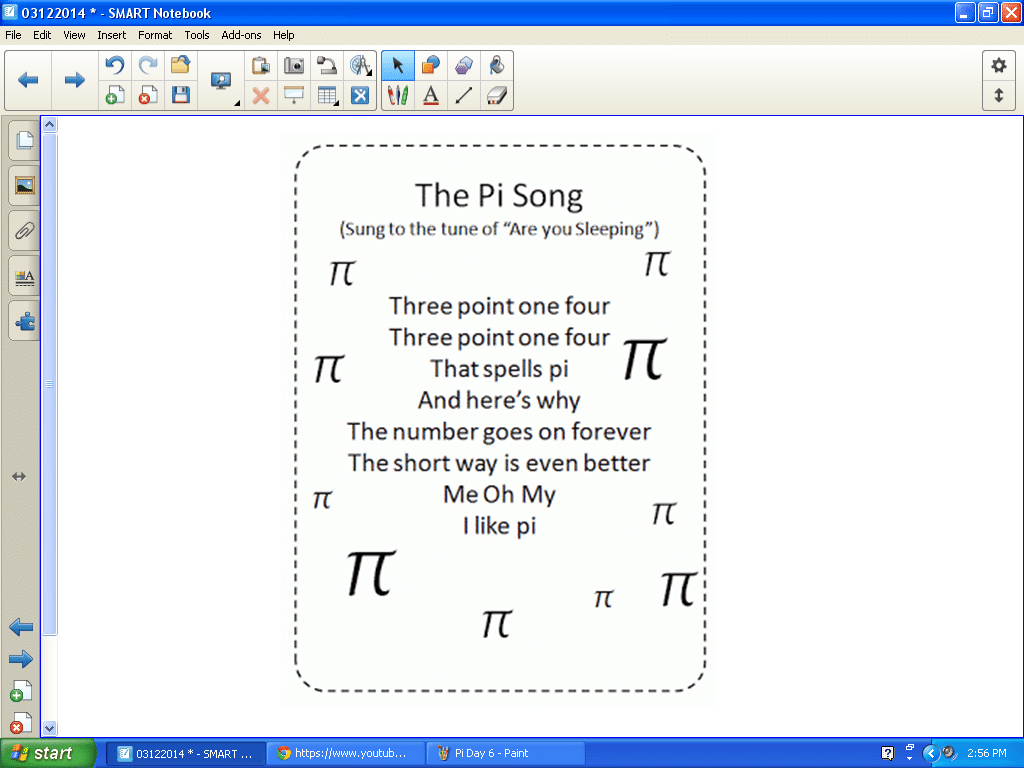
We sang the song at least twice in all of my later classes. The janitor came in the room to empty the trash during one of the songs, and I’m pretty sure that she thinks I’m crazy. Oh well…
We also took a little over three minutes to learn what pi sounds like. My band students found this video to be riveting! [Video embedded below. If you are reading this in your e-mail, you may need to click over to see the video!]
One of my students proclaimed, “This is proof that math can be beautiful! And, I didn’t think I would ever say that.”
The main event of the day was the first annual recitation contest. Most of my students had not practiced outside of class, so I agreed to set a timer for three minutes to give them some extra review time. One of my students countered that they deserved three minutes and fourteen seconds to practice. I agreed that this was fitting and gave him a piece of candy to reward his creative mind!
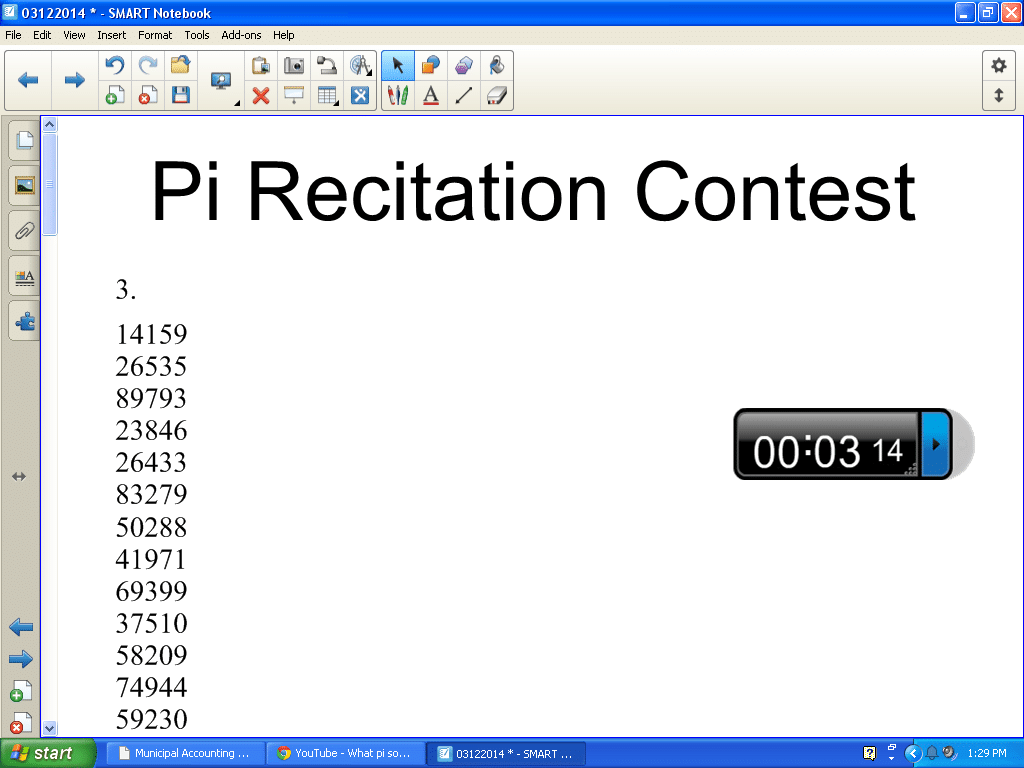
Since pi is was projected on the SMART Board and on my filing cabinet in the back of the room, I made students stand in the back corner of the room, facing the door, to recite their digits of pi.
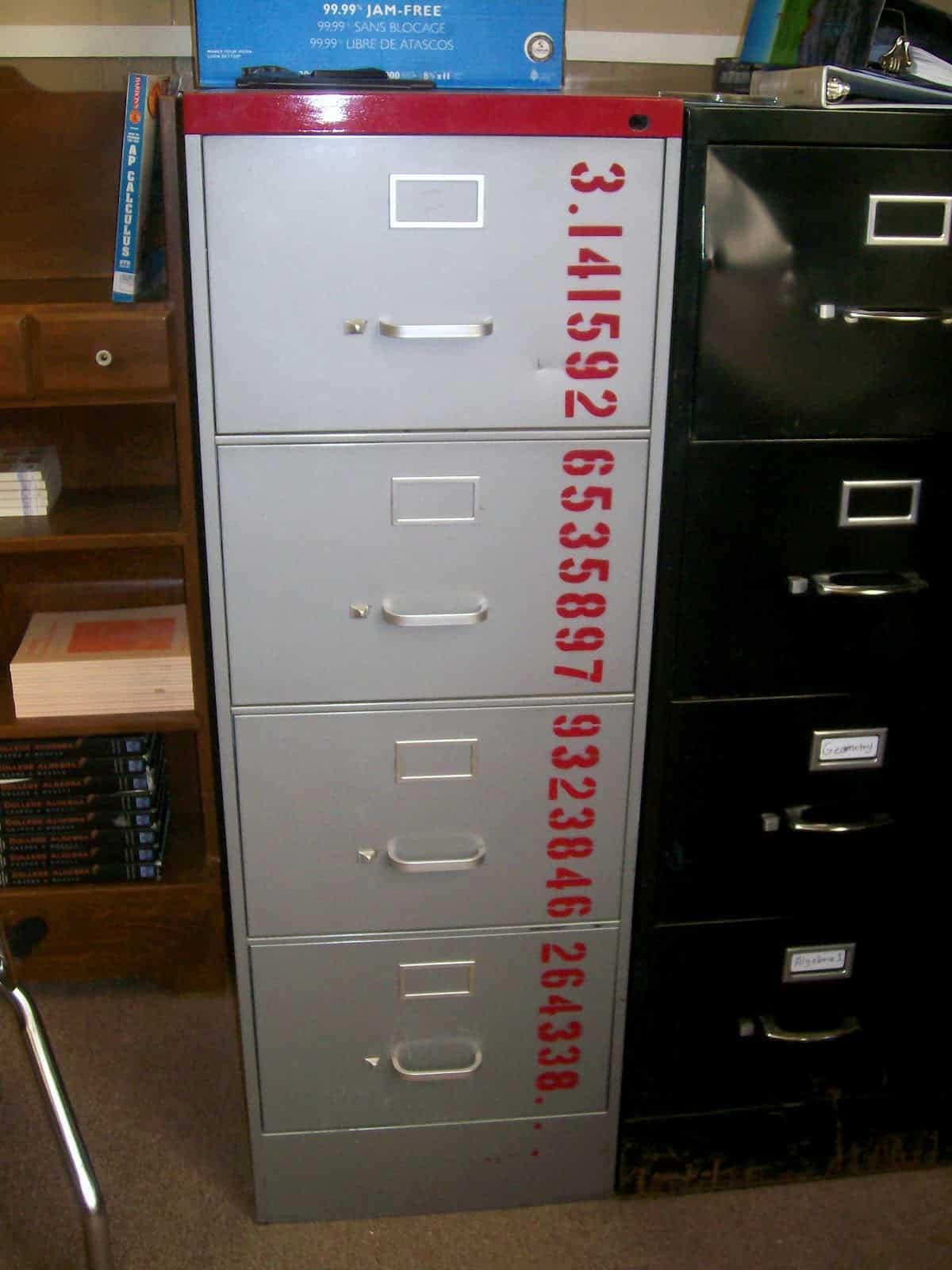
I projected the digits on the board in columns of five so students could easily follow along with the student who was reciting. This made calculating the number of digits they recited correctly much faster.
The winner, one of my 8th grade Algebra 1 students, memorized 43 digits of pi. Another 8th grader had memorized more digits, but he sadly made a mistake in his recitation. You could tell that he was heart broken.
I used plot.ly to make a beautiful box plot of the number of digits memorized by each student. This does not take into account the many students who did not participate in the memorization contest.
One of the awesome things about procrastinating in writing this blog post is that I only learned about plot.ly a few weeks ago. See, it pays to procrastinate sometimes!
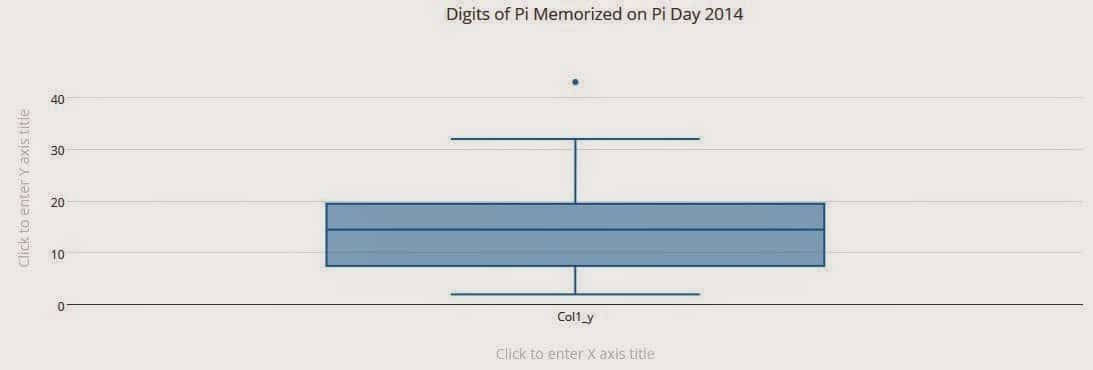
My mom picked up some boxes of nerds candy for me during Valentine’s clearance time, so I gave them away as prizes in the next contest. Unlike the pi recitation contest, this contest required no skill or effort.
We searched pi to find out whose birthday showed up the farthest in the digits of pi. The link we used to search pi was https://www.angio.net/pi/piquery
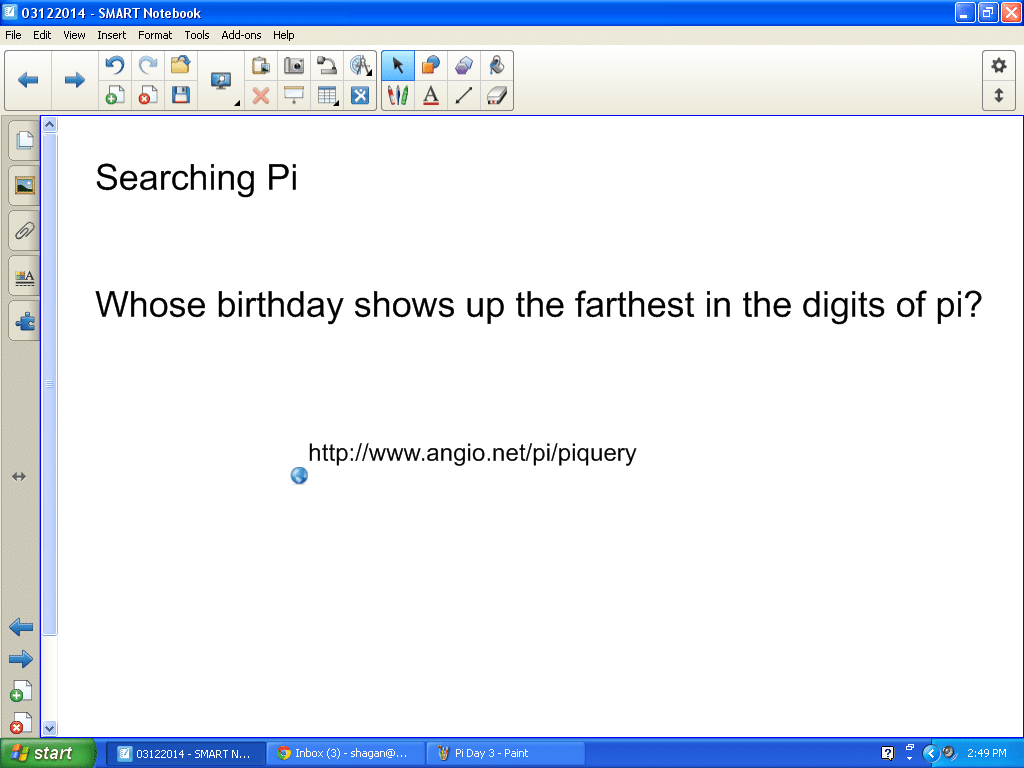
As we looked up each student’s birthday in pi, they wrote the digit location of their birthday on their dry erase boards. The student with the highest number won the candy!
Throughout the class period, I showed pi day comics between each of our activities. One of my favorite ones to show each class was this e-card.

I put it up on the board without explanation. When the students read it, I wish I had thought to take a picture of their confused expressions. What does this have to do with pi day? Is this a joke? I don’t get it! Why did you put this up there? Is it because she has cups in her hands and the top of the cup is round?
I assured them that it was related to pi day, and I had faith in them that they could figure it out if they put their minds to it. Eventually, the kids were begging and pleading with me to explain the joke. Tell us, please! We want to know!
I gave in and asked the class how many letters were in the first word in the sentence. 3. How many letters are in the second word? 1. What about the third word? 4. Light bulbs started coming on. My students admitted that it was pretty cool, but they were still a tad mad at me for “trying to trick [them]”.
I closed out each class period with an activity called Seeing Pi.
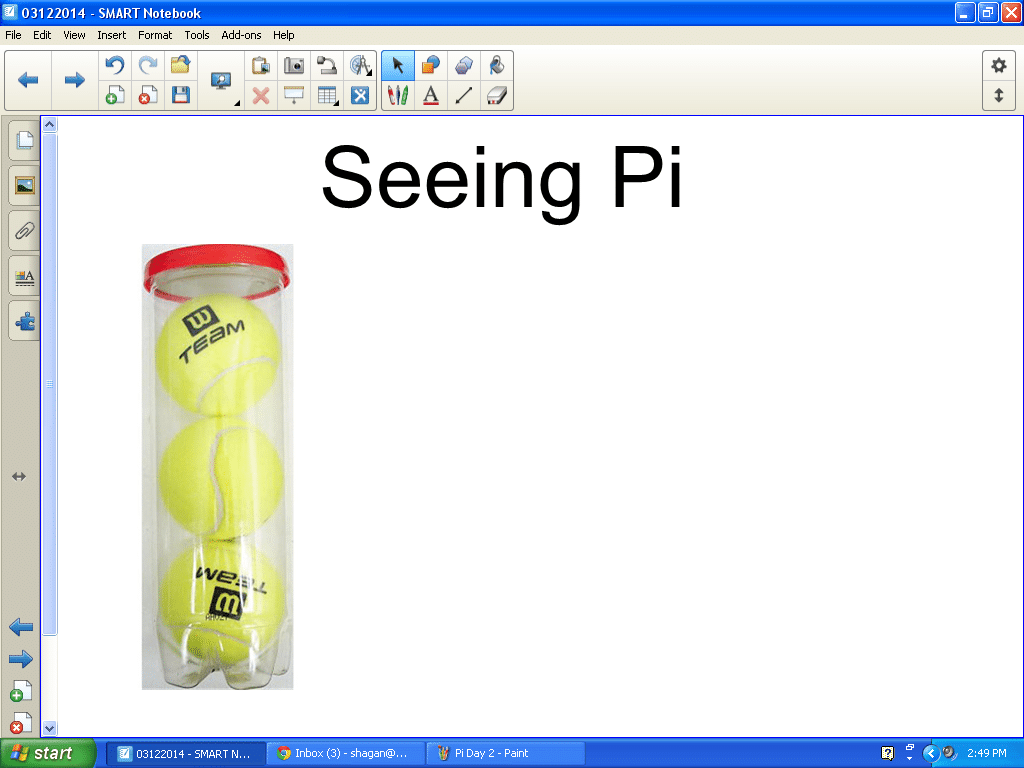
Seeing Pi asks a thought-provoking question. Which value is greater – the height of the can of tennis balls or the circumference of the can of tennis balls?
To me, the answer is obvious. But, my first instinct was wrong. Try writing out a mathematical expression for both. You might just be surprised, too!
In one of my classes, my students refused to believe the mathematics. We ended up cutting a piece of string the length of the circumference and holding it up to the tennis ball can. This made believers out of them!
I also had planned on showing some pi day youtube videos, but I showed up at school to realize that my school had decided to block youtube all of a sudden. So frustrating!
This video helps students memorize the first twenty-five digits of pi. It’s kinda catchy.
Another video I wished I had time to show my students was this Numberphile video on how pi was almost changed to 3.2. Interesting stuff!
So, there you have it. This is how we celebrated Pi Day in the tiny town of Drumright, Oklahoma. I’m hoping to make next year’s Pi Day celebration bigger and better. Is it bad that one of the first things I do when I get the school calendar for the next year is to check and see if we will be in school pin Pi Day? Sadly, Pi Day 2015 will be on a Saturday.
I’ve still got a ton of pi day activities and ideas that I haven’t got a chance to use yet. Good thing I’m not planning on quitting this profession any time soon!
June 3, 2014 – May 2014 Reads
May, with all of its end of year craziness, was not a month for a ton of reading. I read the least amount of books in a month that I’ve read all year – 8 books. And, three of those were audio books that I listened to while driving my car. Question – how has it taken me so long to think of trying audio books? I drive to see my parents on a weekly basis, and it’s a 75 minute drive each way. I can knock out two and a half hours of an audio book.
The only problem is that my daily commute is not exactly conducive to listening to audio books. I live five minutes away from school. So, I can listen to five minutes of the book during my morning commute. But, I usually use my afternoon commute as an opportunity to call my mom or sister. I get TERRIBLE cell phone reception at my house. Honestly, I’m surprised that people still call me sometimes. I can have 7-10 dropped calls in a single conversation. US Cellular informed me that my neighborhood is located in what is known as the drop-off zone. It’s half-way between the cell towers in Tulsa and OKC which means the service is spotty at best. And, there’s nothing they can do to help me. Once I find reception somewhere in my house, I can’t move my head a fraction of an inch in any direction unless I want my call to be dropped. Usually when I call people back after this happens, they’ll say something like, “You moved your head, didn’t you?” I don’t think they realize how difficult it is to hold your head perfectly still while talking on the phone!
So, I haven’t been able to finish an entire audio book in my car. Every single time, I end up bringing the cds in my house so I can finish the story. I’m the type of person that gets super invested in a book and has to figure out what happens right away!
I’ll write about the 3 audio books first, then I’ll tackle the 5 physical books I read this month.
(I mentioned the fact that I’ve been listening to audio books to some of my students while we were fundraising for prom the other day, and they told me that this wasn’t something I should admit aloud. Apparently, audio books are not cool…)
Miles to Go by Richard Paul Evans
My friendly public librarian recommended The Walk series by Richard Paul Evans to me several months ago. However, someone had checked out the first book in the series, The Walk, and kept it. She insisted that I needed to start at the beginning of the series to fully grasp its amazingness. So, I’ve been putting off reading this series until I can find a copy of the first book.
But, the other day, I was looking to check out an audio book. I’ve been a long-time fan of Richard Paul Evans, so I checked out one of his books to listen to. Once I had already left the library, I realized that I had just checked out the second book in The Walk series. You know, the same series that I had put off starting until I could read the second book. Well, I started the series in the middle, and I am in LOVE. The book kept me guessing the entire time. And, I literally found myself sitting in my garage with my car running because I couldn’t bear to stop until I got to the end of a chapter! And, then I simply had to take the cds inside to finish the book. So good! I can’t wait to read the next book in the series. At some point, I should probably go back and read the first book, too. Will he ever make it to Key West? Who will he meet next in his walking journey across the United States?
Two for the Dough by Janet Evanovich
This was my second ever Janet Evanovich novel. I’m pretty sure the town I live in is obsessed with Janet Evanovich. The librarian has recommended her books to me at least twice. My landlord has recommended her books to me. My principal’s wife who runs our school library has recommended I read her novels as well. I’ve decided that the Stephanie Plum novels are okay, but they’re really just not my cup of tea. As much as I love audio books, I had a really hard time staying focused on this book. I was trying to listen and multi-task at the same time, and I kept finding myself so confused with what was happening that I had to keep rewinding the book to figure it out. As someone who has spent most of their life reading either Christian fiction or classical literature, these novels are a tad bit too much on the trashy side for me.
Lavender Morning by Jude Deveraux
Of the three audio books I listened to this month, this was by far my favorite. I started listening to it on a drive to Tulsa. After an initial bit of confusion which was completely intentional by the author, I soon found myself sucked into the story. An elderly neighbor/friend leaves you a house in their will in a town named after them that they’ve never mentioned. And, they tell you to move to the town and to marry a certain person that you’ve never met before. Hello, I now have a ton of questions that I can’t wait to find the answers to! My mom and sister rode in the car with me the same day that I started this book, and I forced them to listen to the audio book with me. Having missed the first hour and a half, they were a tad confused. So many twists and turns. I loved it! Apparently, it’s the first in a series. And, I’m excited to see if my library has any more books in the series. This is my first time reading this author, and I’m definitely impressed!
Okay. On to the books I actually read myself.
Keep a Little Secret by Dorothy Garlock
Since Drumright’s library is so small, they have to come up with creative ways to stretch their limited budget. One of the ways the librarians do this is to lease a certain number of books instead of buying them. This is something I didn’t even know was possible! The rack of leased books is placed so you pass it right when you enter the library. They have special tags to let you know that they are leased books. This month, I checked out a leased book for the first time. I’ve been trying to expand my horizons by checking out new authors. I was first drawn to this book by its intriguing title. Next, I opened up the dust jacket to see that the book was about a teacher in Oklahoma. Seeing as I am a teacher in Oklahoma, I decided this book was meant to be. I’d never heard of Dorothy Garlock before, but the cover touted her as the premier writer of Americana romance.
While checking out my books, I told the librarian that I was trying out a new author. She said that most of her patrons either absolutely love this author’s books or absolutely hate them. She hoped that I would love them. I really liked the first 75% of this book. It had mystery. It had romance. It was set in my home state. But, the last quarter of the book left me unsatisfied. I can’t quite put my finger on what I didn’t like about it, though. Unlike some books, I’m not rushing to read the next book in the series.
Mockingjay by Suzanne Collins
So, I finally got around to finishing the Hunger Games trilogy! I really wish I had read this book right after finishing the second book, but someone had it checked out of the library at the time. I spent the first 10-15% of the book really confused because I couldn’t quite remember how the previous book had ended. This book made me so mad at times. Or, maybe I should say that the characters made me so mad. I would literally have to close the book and go do something else because I was so worried about the decisions they were making! After calming down, I would return to the book and read on. This is really a book that you have to read carefully (at least I do) or you can miss important details and end up super confused! I didn’t realize that one of the characters had died until they started mourning them. Oops… I’m so thankful that the end of the book left me with a sense of closure unlike some series. Overall, I really enjoyed this series!
Strength in Numbers: Collaborative Learning in Secondary Mathematics by Ilana Horn
I was lucky to receive this book for free as part of the Oklahoma Geometry and Algebra Project (OGAP). This workshop has been the best professional development workshop I’ve ever attended! I read the first two chapters right after receiving this book back in February, but the busyness of school meant that this book got laid aside. The goal of this book is to make you rethink how you structure cooperative learning in your classroom. Cooperative learning and groupwork is an area that I struggle greatly with! When I went to #edcampTULSA, I even moderated a session on it to try to learn more from others!
Now that school is out for summer (YAY!), I finally took the time to set down and finish the book. It was so good that I finished it in a single day. I couldn’t put it down. My copy is filled with highlighting and notes and underlining. Based on the information in the book, I’ve created some sets of posters featuring group work norms, sentence starters, and words I want my students to emphasize in my classroom like please, thank you, and yet. Hopefully, I’ll get a post up sharing these posters and new creations soon! If I don’t post them, bug me until I do!
I’m excited to start the new year with a new approach to collaborative learning. And, I’m ready to be on the lookout all summer for groupworthy tasks. I seriously can’t recommend this book enough!
Accessible Mathematics: Ten Instructional Shifts That Raise Student Achievement by Steve Leinwand
How can I sum this book up? I ordered it from Amazon, and I read it within 24 hours of receiving it in the mail. Some of the shifts seem like common sense at first, but I took away so many ideas that I plan on implementing in my classroom next year. My students struggle with number sense, and I spend a lot of time complaining about this. This book showed me that I should stop complaining about it and actually start doing something about it. Whether it is a standard that I “should” teach or not, I have to decide what is important for my students to know. And, it’s up to me to emphasize those things in my classroom. I’m also thinking of switching up my bellwork procedure with a procedure from this book on how to start class. I have so many ideas floating around in my head right now! I really want to go back through the notes I took while reading this book and reflect on them in a post. Awesome book!
The First Days of School: How to Be an Effective Teacher by Harry K. Wong
This book was first recommended to me by my first education professor in college. I bought a copy and read it before my first year of teaching. Then, I bought three or four other books on teaching and classroom management and read them, too. Every book took a different approach, and they all seemed to contradict one another. I became so overwhelmed and confused that I entered the classroom without a plan for classroom management. I thought I’d wing it, and I’ve been winging it for the past two years. They haven’t been super ugly, but they haven’t been pretty either.
If I was making a list of my weaknesses as a teacher, classroom management would be at the top of the list. I can’t quiet my class without raising my voice. Therefore, I spend a lot of time raising my voice. Afternoon classes will come in and make comments about how they knew my 2nd hour class was terrible today because they could hear me across the hall in their history class. I don’t want this to be the case. I spend way too much time trying to keep my students on task. I always thought that I would go to work in a school that had a clear set of rules and consequences. That isn’t the case. There is no punishment handed out for tardies. Rarely is truancy even punished. I’ve sent a student to the office for stealing my pencil sharpener. They got suspended. I’ve sent a student to the office for pulling out an open pocket knife in my class. I was told that was not a punishable offense. They were told to apologize.
I can’t rely on my administration to handle discipline. More often than not, students are simply told to apologize to their teacher. I need to make a plan of my own. I need to have a set of clear consequences that I hand out consistently. I’m also going to take the author’s advice and spend the first few days of school working on practicing procedures. I get so aggravated at my students when they don’t act the way I expect them to. But, what if they truly don’t know better? Next year, they won’t have an excuse because we will practice the proper way to do things from the start. I especially need to work on getting my students to transition between activities quickly and quietly. I think that if I can achieve this, it will more than make up for the few days we spend practicing at the beginning of the year.
My word for next year is going to be consistent. I am going to strive to be consistent in all that I do. My classroom should be a place where students know what to expect. I think this will make my year and their year much more enjoyable. Of course, they’re going to hate me at first, but I think they’ll come around eventually. The hardest thing will be that my Algebra 2 students will almost all be students that I first had in Algebra 1 two years ago. So, they’ve already experienced the first-year teacher version of me. Things are going to be different, and it’s going to be hard for me to not revert back to my old ways because that’s what I think my students will expect of me.
As I write this, I realize that I haven’t really talked much about the actual book. I’m assuming that most people reading this blog are familiar with it. The book focuses on how to start the school year so that students know exactly what you expect of them and exactly how you expect them to behave. It walks you step-by-step through how to write your own set of class rules and a discipline plan with consequences and rewards.
June 4, 2014 – Building the Class Culture You Really Want
These are notes I took at a professional development workshop hosted by my district back in September. I’m typing them up and publishing them here before I lose them.
Building the Class Culture You Really Want
Presenter: Brenda M. Davis
Principal, Arbor Grove Elementary, Putnam City
Trained and taught in New Zealand
Kids don’t care what you know if they don’t know that you care.
Good Things
Book Recommendation: The Leader in Me: How Schools and Parents Around the World Are Inspiring Greatness, One Child at a Time by Stephen R. Covey
Traffic Light Partner Share
- Students pair up. Each student writes down the name of the other student as their red partner.
- Students pair up with a different partner. This student is their green partner.
- Students pair up a third time. This will be their yellow partner.
- Have students keep these partner names somewhere safe.
- When you need students to pair up quickly for an activity, you can call out Red Partners or Green Partners. No thinking required. Students know exactly who to pair up with.
- You could assign students a partner at the same level for one color of partner, a student at the opposite level high/low for another color, and let them choose a friend for their third color.
Even the toughest, toughest kid has a way to be reached. We just have to figure out a way to do it.
Effective Classroom Management Results From:
- Building Relationships
- Student Engagement / Active Participation
- Clear, Consistent Procedures
What we’re trying to do: get the best out of every student every day.
Build relationships QUICK!
All people really want is to be noticed. – Oprah
Recommendation: Capturing Kids’ Hearts Training
2 x 10 Relationship Building
- Choose the student who needs you most
- 2 minutes a day
- 10 consecutive days
- Engage a student in personal conversation – something they are interested in, something not involving school
It takes 5 positive interactions with a student to make up for every 1 negative interaction
Four Questions to Ask Students Who Are Misbehaving:
What are you doing?
What are you supposed to be doing?
Are you doing it?
What are you going to do about it now?
(I printed these questions up on a handy dandy form to give to students who are misbehaving.)
June 5, 2014 – Pranks, Prom, and Shopping Carts
AKA More Random Stuff That Didn’t Justify A Full Blog Post
Read on to learn more about April Fool’s Day Pranks, the Senior Prank, Bunco, Prom, Artwork, and a Shopping Cart Stealing Adventure.
April Fool’s Day
I didn’t pull any pranks on my students this year. I’ve actually never pranked my students before. At #EdCampTULSA, an administrator in one session mentioned that she has her staff wear their crazy Christmas sweaters on April Fool’s Day. Whenever students mention the sweaters, the teachers act like they are wearing the most normal attire ever. Hmmm… Maybe next year!
Anywho, I did have several students try to pull pranks on me. First hour, one of my students came in my classroom and said, “Ms. Hagan, I saw one of your calculators out in the hall.” Now, I hold my calculators in a place very near and dear to my heart. Several calculators have gone missing this year, and that makes me so mad! So, I was very excited to rescue one of my calculators from its uncertain future in the hall. I walk out in the hall, and I don’t see my calculator. So, I start walking up and down the hall, looking for my calculator. It’s just nowhere to be seen. But, I look on because I WANT to find my calculator! Pretty soon students start giving me funny looks as I pace up and down the hall looking for the elusive calculator. Finally, curiosity gets the best of some of my students in the hall, and they ask, “Ms. Hagan, did you lose something?” To this, I said, “I can’t find my calculator! Somebody told me that one of my calculators was out in the hall, and I can’t find it!” It was at this point that I realized that it was April 1st, and I had been pranked. My students got a big laugh out of this.
Fourth hour rolls around, and I ask my statistics students if they’ve seen any good April Fool’s jokes. One student remarks that the identical twins who go to our school have traded places for the day. At this point, none of their teachers had caught on. I have one of the twins in my fifth hour, so I knew about the prank in advance. But, it wouldn’t have been too hard to catch on otherwise. At the end of lunch, the twin who is not enrolled in my Algebra 2 class walks in with a student who is enrolled in Algebra 2. Very conspicuously, he points to a seat and says, “You sit here!” Then, he proceeds to describe where everybody else sits and what supplies the student will need. All this is going on as I am sitting at my desk! Still, I pretend to be in my own world.
Class starts, and I go on like I don’t know anything is up. The twin raises his hand, participates, answers questions. He’s never used a graphing calculator in his life, so students at his table take him under his wing and show him how to complete the problems. Truth be told, this twin (who is enrolled in geometry) actually participated in class a lot more than his brother normally does! All the while, my students are trying to figure out if I know what’s going on. There are whispers and lots of pointing going on. Towards the end of class, I decide to write a note to the twin letting him know that I appreciate his participatory attitude even though he was only in my class for a day. I write this on a post-it note and lay the note on his desk as I walk by. Of course, I could have just announced it to the class because he has to let the entire class know that I had caught on to the prank. Only two teachers caught on to the prank. I wish I had been there to see one twin work on the other’s sewing project in FACS class!
Playing With Barbies
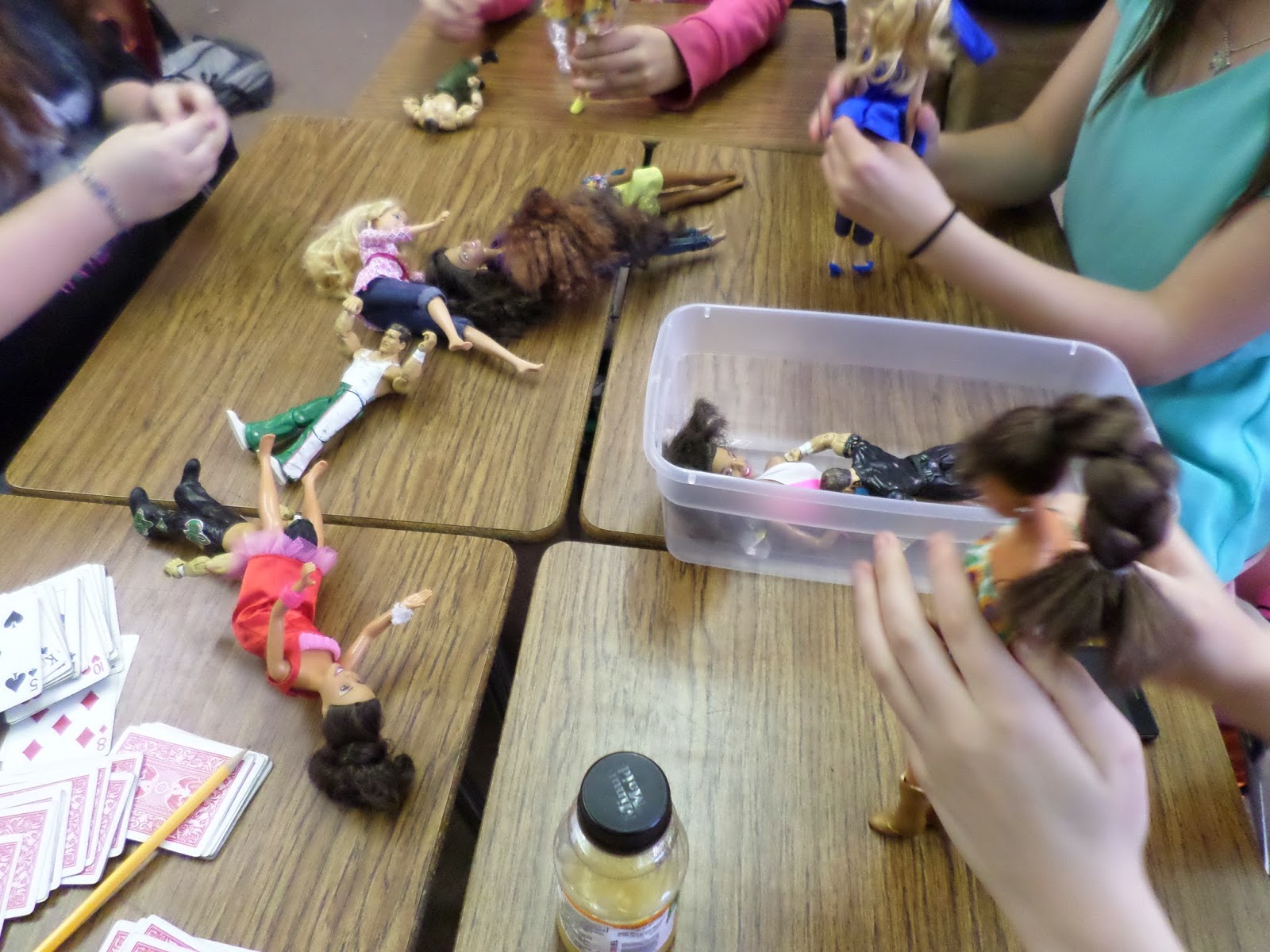
One afternoon during testing week, I walked in my classroom to find that a group of my students had gotten my box of barbies and wrestler dudes out of my cabinet to play with. I guess standardized testing is stressful, and playing with dolls helps?
Prom 2014
Prom 2014 was a success. As a sophomore class sponsor, I attended prom as a chaperone, but I didn’t have any prom-related duties. Next year, I will be a junior class sponsor, and that will make prom my responsibility. Yay?
This year, we had prom at the beautiful Wilderness Center in Stroud. This place is truly in the wilderness! We drove for miles and miles and miles to get there. All the time I was driving, I was thinking that *if* I believed in Big Foot, this is the type of place you would find him!
We had a beautiful view of Stroud Lake. And, did you know that you can purchase a disposable fountain? This thing was made out of cardboard!
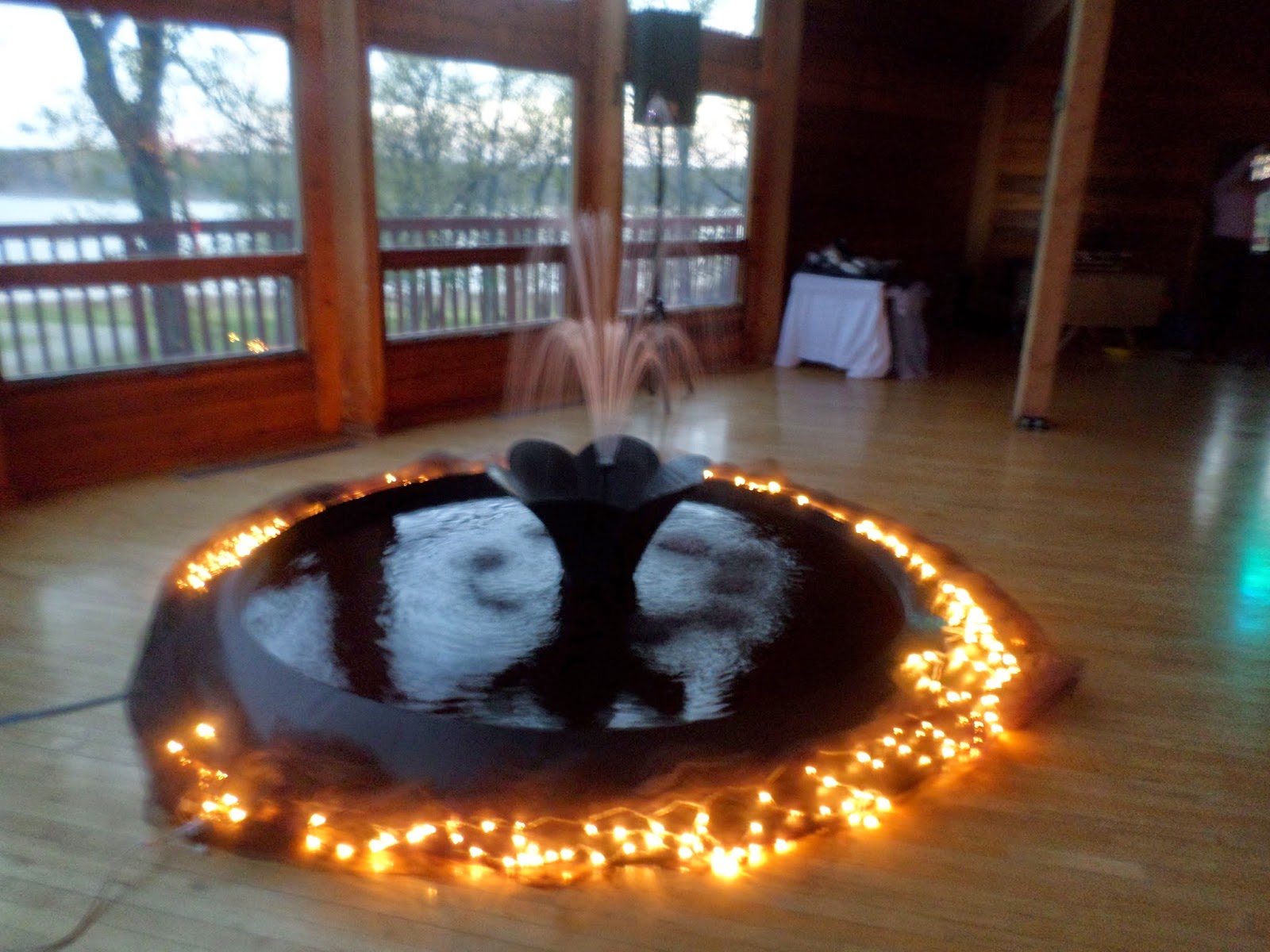
My action shots turned out a tad blurry. Sorry!


Prom planning has already started for next year. This is going to be a huge job!
Senior Prank
Our Seniors worked hard to pull of a most interesting senior prank. Each floor presented a different challenge. On the first floor, they spread out ten square bales of hay. On the second floor, they opened all of the lockers and threw trash all over the floor (not pictured.) On the third floor, they set out 400 cups of Kool-Aid.
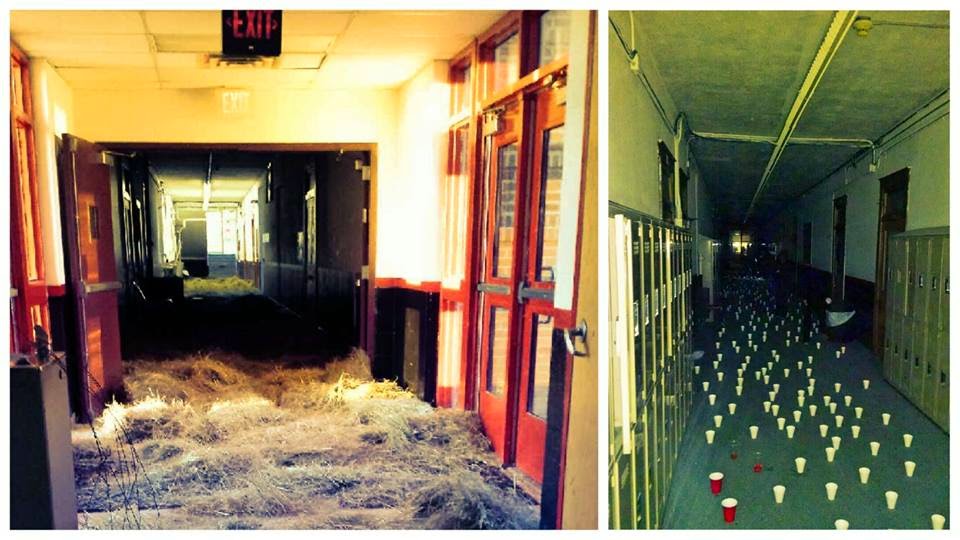
The teachers who had to clean up all three floors were NOT happy. The entire school smelled like hay. I texted my sister, “So I guess this is what it’s like to work in a horse stable.” Let’s just say that many of our students discovered that they were allergic to hay on this day when their allergies kicked in. Students were begging me for Benadryl. I didn’t have any, and even if I did, I couldn’t have given it to them.
New Artwork
Remember the pencil cup that my sister made me? She recently gifted me with this cool triangle paperweight. I’m so jealous of her amazing artistic ability. Thanks sis!
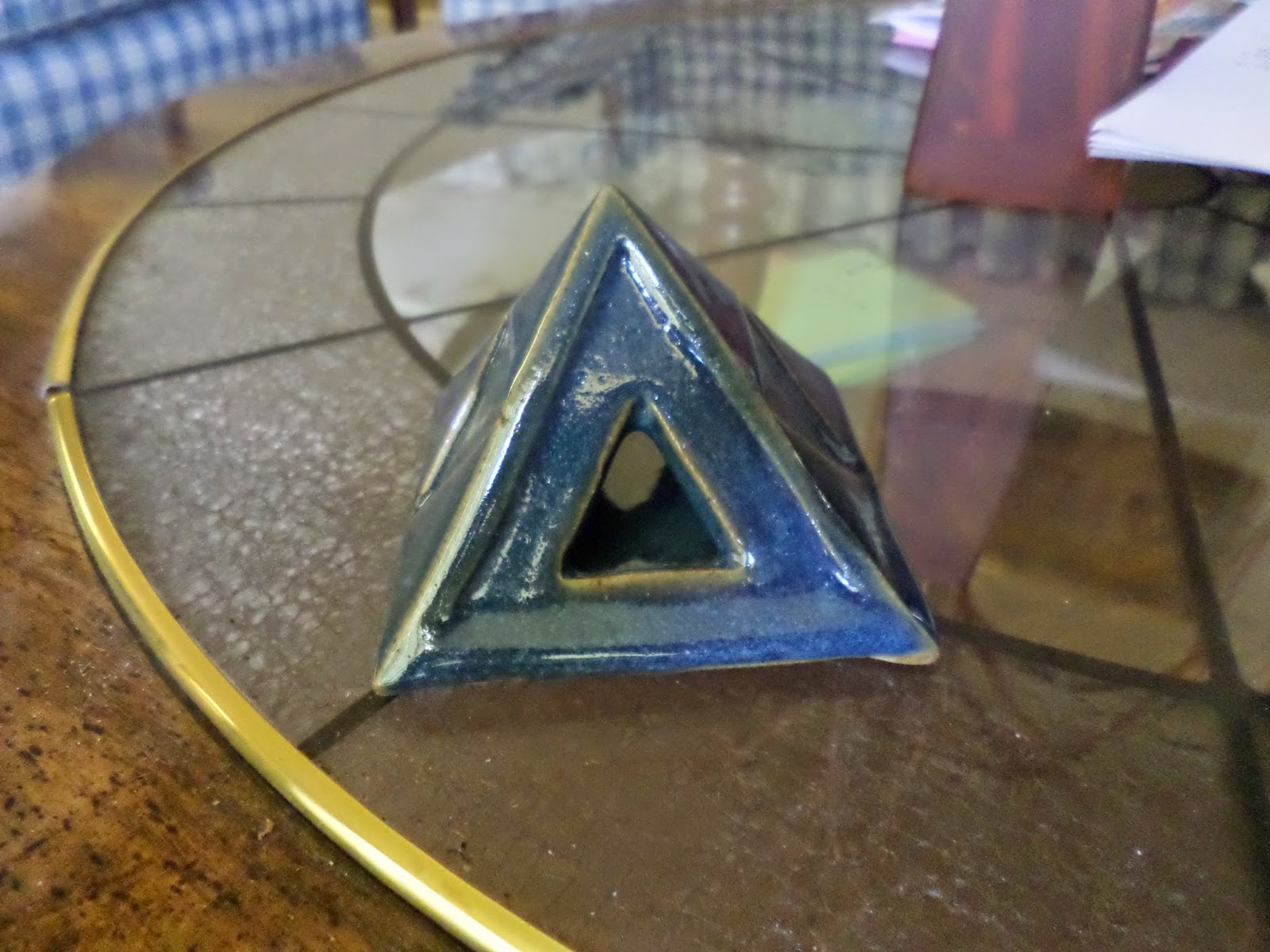
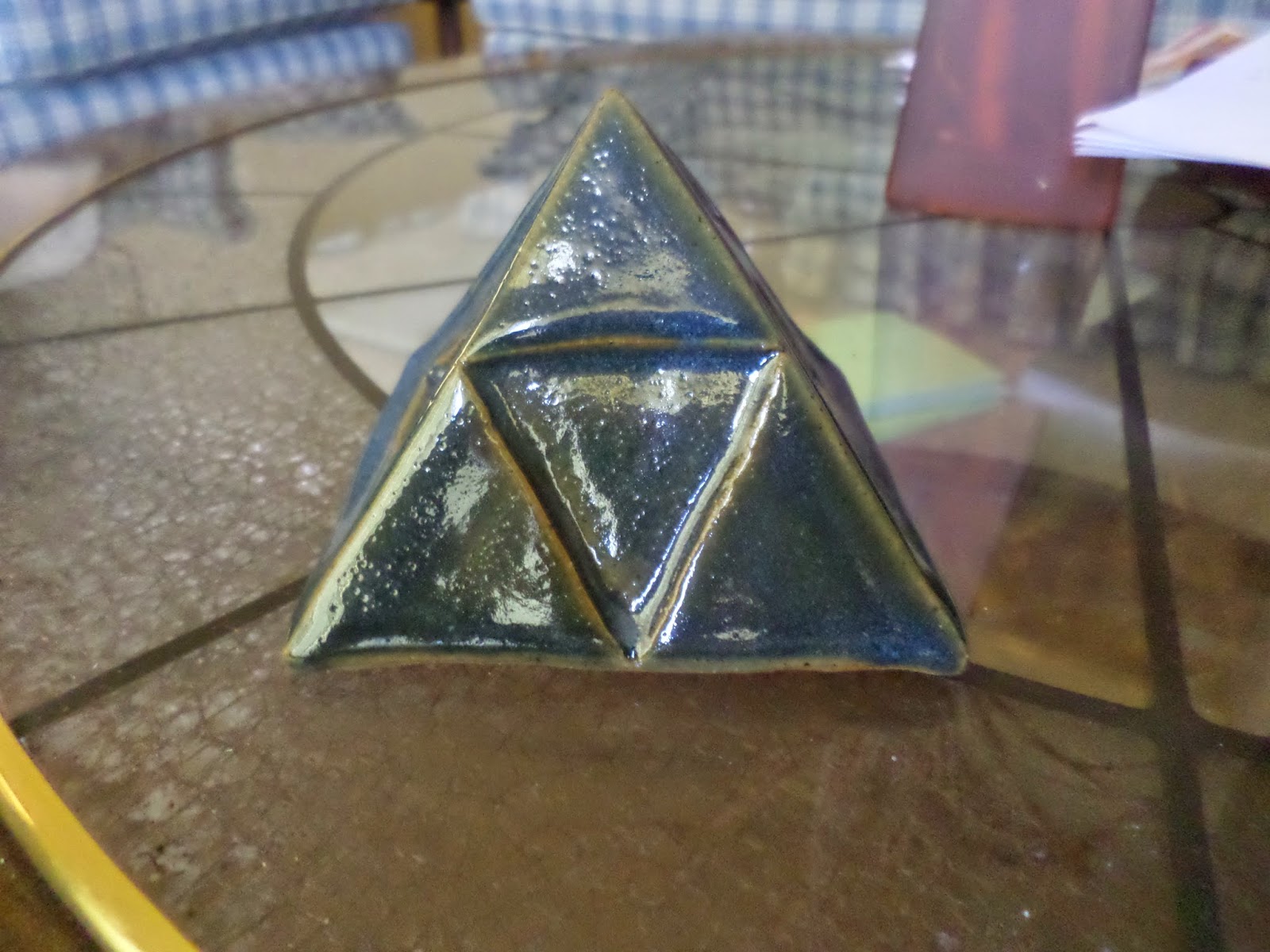
Bunco
I went and played bunco last month. I didn’t win enough games or lose enough games to win a prize, but one of my students who was at bunco won this prize. Since she doesn’t wear jewelry, she passed it on to me. How sweet!
And, I got my first bunco. And, my second bunco. It was an exciting night!

Shopping Cart Story

Yes, I’m that crazy person who had a shopping cart sitting in their dining room. Yes, I’m the crazy person that sees their neighbor has put a shopping cart on the curb to be picked up by the garbage truck and decides to rescue it. Yes, I’m the crazy person who waits until it is dark outside to take the shopping cart from my neighbor’s garbage because I don’t want anyone in my neighborhood to know that I’m the one who stole/rescued a shopping cart from the garbage.
June 6, 2014 – My Sister Knows Me Well!
A while back, my sister surprised me with an impromptu gift. It wasn’t Christmas. It wasn’t my birthday. She just wanted to get me something. I’ve decided that after 21 years of being my sister, she knows me quite well.
She picked me up a copy of Luanne Rice’s The Geometry of Sisters. I haven’t read it yet, but it’s in my pile of books to read this summer. How can you go wrong with a novel that has to do with math? Okay, I honestly have no idea if it has anything to do with math. I guess I’ll find out soon enough, though.
And, she got me a cute little book. What’s really cool, though, is the inside.
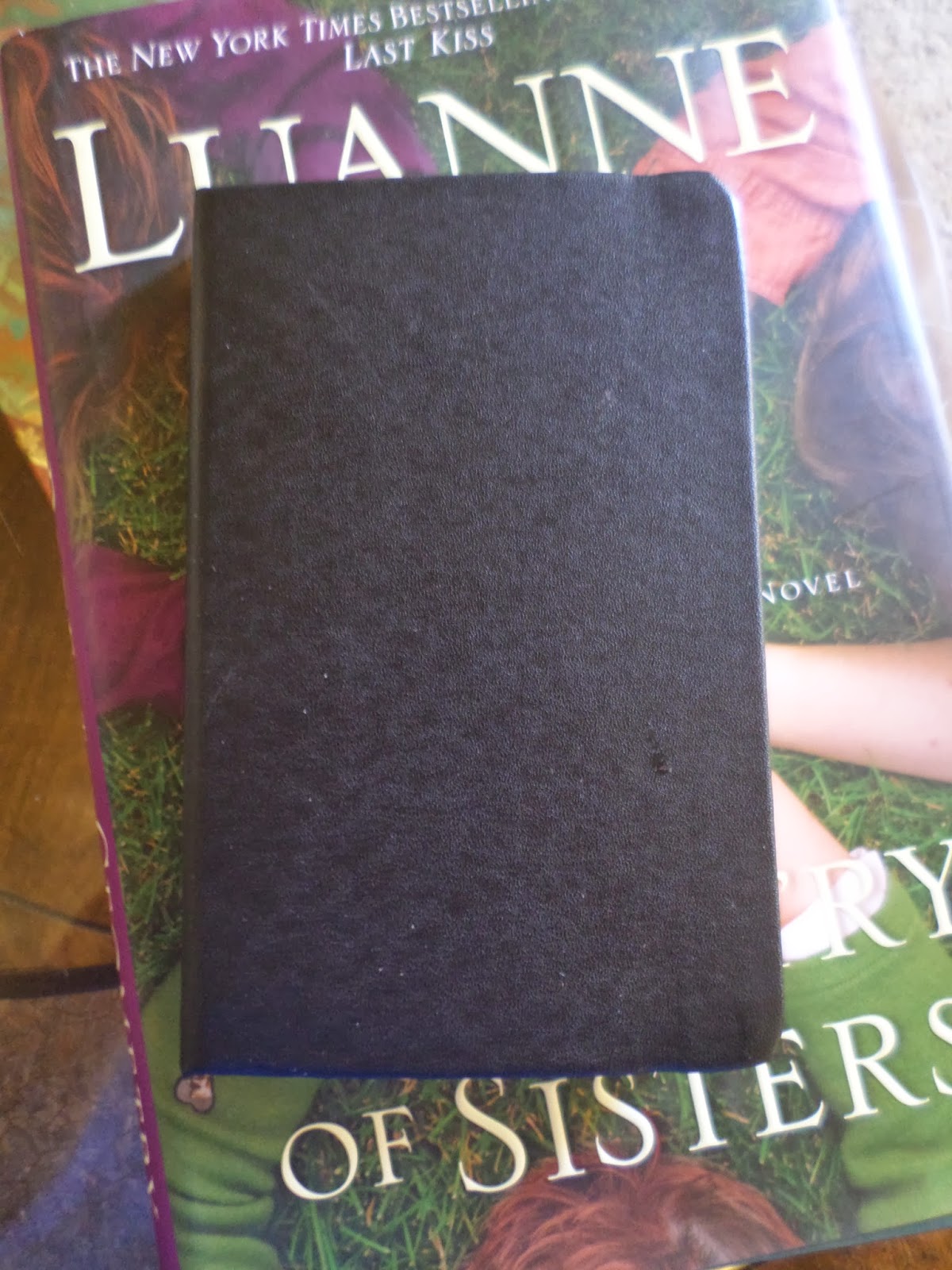
GRAPH PAPER! How can one not get excited over this?!?
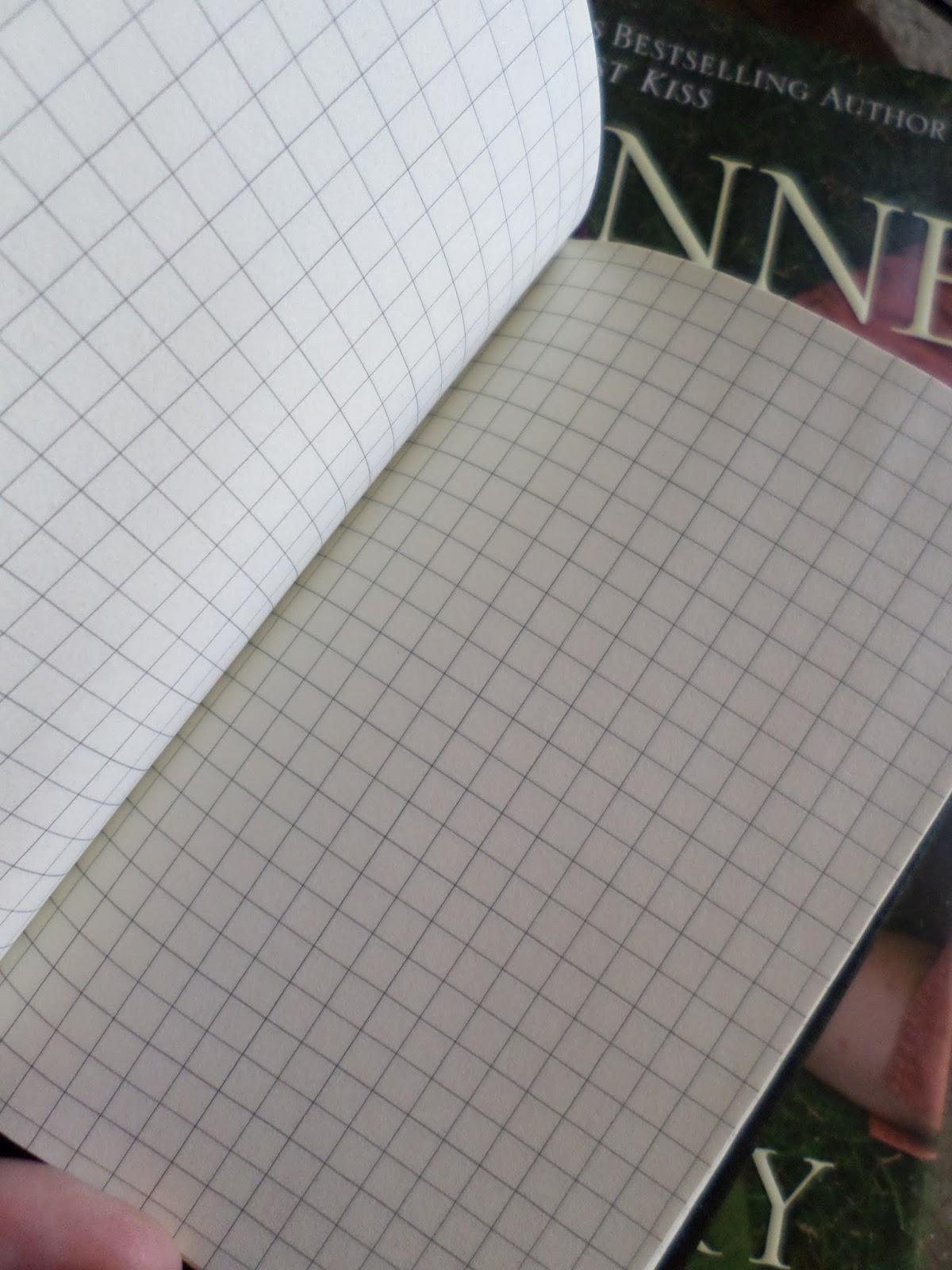
I’m thinking this would make the perfect book for doing The Feltron Project.
June 7, 2014 – What do you think it is?
As the school year was wrapping up and my students were working on their final projects of the year, I found myself asking a certain question a lot. I don’t know why I never thought to take advantage of this question before. But, the results were enlightening.
Since my students had already been tested a crazy amount, I elected to give them a project in lieu of a semester exam. Seriously, they took their EOI which is our state standardized test. Then, I gave them a practice Common Core test as a requirement of the OGAP Program I am involved in. Then, our school was randomly selected to test out field test questions for next year’s Common Core test. So, my students spent another day in the computer lab. There was no way I was going to subject my students to another test!
I pulled out the Road Trip Project I designed while student teaching to give to all six of my classes – Algebra 1, Algebra 2, and Statistics. The project was originally designed for 8th graders to emphasize proportional reasoning. Proportions are something that are no longer covered by high school standards, but my students still struggle with them. So, this was the perfect refresher/learning opportunity for my students. Plus, it shows them how math is used in real life.
After revisiting this project two years after creating it, I’ve got some ideas of changes I would like to make. Be on the lookout for a post regarding those changes soon! (And, by soon, I mean hopefully within the next year. I’m so behind on blogging!)
As students worked on planning their road trips, they were continually raising their hands to ask me questions like “What is the state abbreviation for Maine?” Instead of telling them, I responded to their question with a question.
Our conversations went like this:
What is the state abbreviation for Maine?
What do you think it is?
MA?
Nope. That’s Massachusetts.
MI?
That’s Michigan.
MN?
That would be Minnesota.
ME?
Yes!
Oh, so the abbreviation of a state is always the first and last letter of the state?
What’s the abbreviation for Oklahoma?
OK
So, does that follow that rule?
No. That would make our abbreviation OA.
Other times:
What is the abbreviation for Colorado?
What do you think it is?
CO?
Yes!
Asking “What do you think it is?” gives my students a chance to be successful when they don’t quite believe in themselves. If they get it right, they are proud of themselves for figuring it out on their own. If they get it wrong, it gives me insight into their thinking processes. And, I can better guide them in the future.
I started asking that question anytime I could.
What does MPG mean?
What do you think it means?
Miles Per Gauge?
It’s miles per something, but it’s not miles per gauge. Try again.
Miles Per Gallon?
Yes!
One of my goals for next year is to teach my students how to ask good questions. To ask good questions, I need to get them thinking more. Perhaps the way to achieve both of these is to start answering more questions with questions. When I just give my students the answer, I’m cheating us both.
June 8, 2014 – Summer Reading List
I’ve been hesitant to write out my summer reading list. Last year, I made an exhaustive list and read almost none of it. Okay, let’s be honest. I’m pretty sure I had plans of reading or rereading my entire bookshelf of teaching books last summer. Did not happen. Completely unrealistic!
This summer, I haven’t made a list, but I have been reading. What’s different? Maybe it’s the fact my sister and I are participating in the Empty Shelf Challenge to see who can read the most books in 2014. Maybe I’m just hungrier for new strategies to implement in my classroom? Or, maybe it’s because I tried to leave myself more breathing room this summer. I turned down the opportunity to go to several conferences this summer just so I could take some time for myself, too. I learned that the hard way last summer.
In the weeks that we’ve been out of school, I’ve managed to read 5 math/teaching books. And, I’m going to set myself a goal of reading 5 more by the end of summer. I’ve picked 5 books off my shelf, but I’m not going to hold myself to this list. If I happen to pick up a different book, that’ll be fine, too. Five should be a doable number for me without being too overwhelming.
Don’t worry. I’m going to supplement my reading diet this summer with lots of fiction, too! I’m currently in the middle of a Francine Rivers novel. I just checked the second book in The Giver series out of the library. And, I’m starting a new audiobook in my car.
Books I’ve Already Read This Summer
Strength in Numbers: Collaborative Learning in Secondary Mathematics
The First Days of School: How to Be an Effective Teacher
The Joy of x: A Guided Tour of Math, from One to Infinity
Accessible Mathematics: Ten Instructional Shifts That Raise Student Achievement
Teach Like a Pirate: Increase Student Engagement, Boost Your Creativity, and Transform Your Life as an Educator
Books I Want To Read This Summer
Mindset: The New Psychology of Success
Teach Like a Champion: 49 Techniques that Put Students on the Path to College (K-12) (Reread)
What’s Math Got to Do with It?: How Parents and Teachers Can Help Children Learn to Love Their Least Favorite Subject
5 Practices for Orchestrating Productive Mathematics Discussions [NCTM]
Powerful Problem Solving: Activities for Sense Making with the Mathematical Practices
What are you reading this summer?
June 9, 2014 – Story Time and Paper Plate Pigs
This past week I had the opportunity to lead the first ever story time at my local public library. A library in a nearby town used to offer a story time, but the librarian retired and no one took it over. Seeing a need, my landlord decided to form a Friends of the Library Group in our town to help promote the library and start offering programs. She got me involved in the group, and it’s been new experience after new experience for me. Our first program to implement was a Senior Citizen Book Day last month. This month, we are continuing the senior program and adding a bimonthly story time.
Because I’m slightly insane, I volunteered to be in charge of our first every story time. In a way, I’m extremely out of my element leading story time. After all, I’m a high school math teacher. But, I’ve been volunteering with kids at my church since junior high. I teach Sunday school, children’s church, volunteer at church camp, and direct VBS. So, I’m no stranger to working with kids. I’ve just never worked with them in a library setting.
My sister volunteers with a mentoring program at an elementary school. One of the activities they did was to read If You Give a Pig a Pancake and make paper plate pigs. Feeling uninspired, I decided to steal this idea and use it for our inaugural story time.
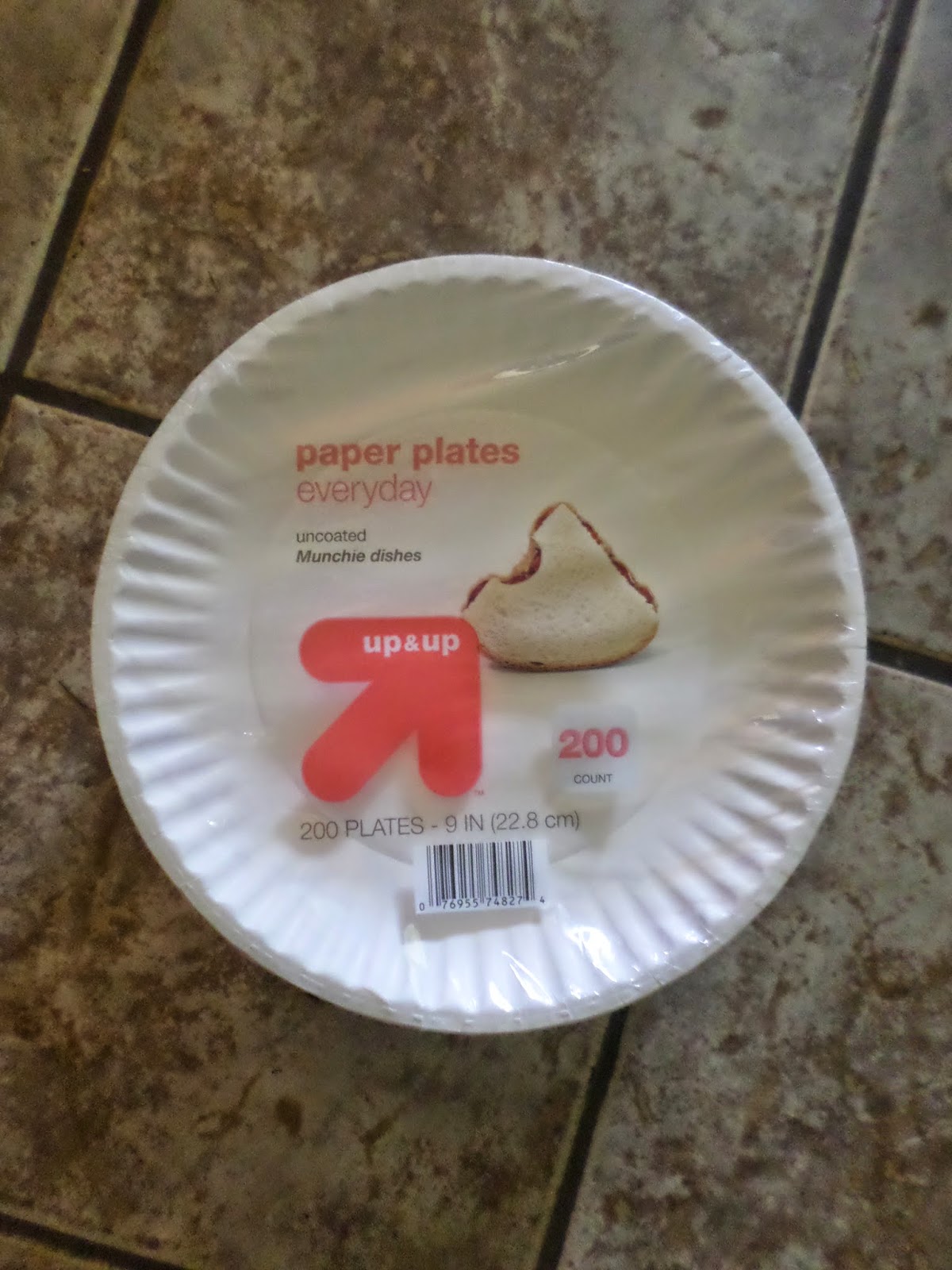
Since the library already had the book, all I needed to buy was some super cheap paper plates. The more expensive plates have a grease coating on them that keeps the crayons and markers from writing well on them. Cheap paper plates are the way to go for this activity! I will also be able to use these to make Paper Plate Unit Circles in Trig this year!
I went ahead and made a paper plate pig of my own to test out the process. I’m not exactly sure what I did to my pig, but it didn’t turn out quite as cute as I anticipated. Adding the bow helped a bit. Maybe it’s eyes and snout aren’t exactly proportional to the size of the plate???
Meet Bessie.
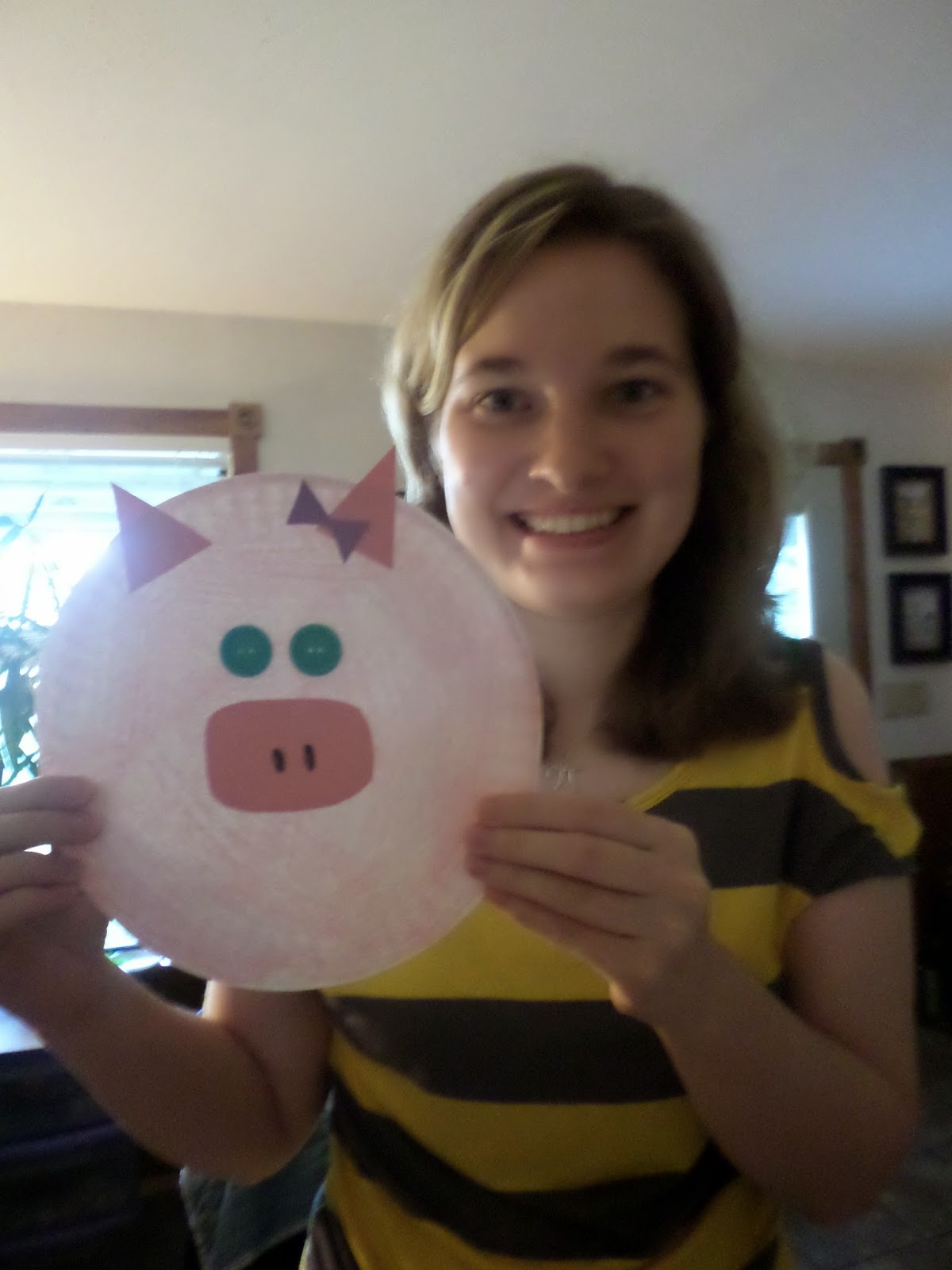
I got to the library early to set up our crafting supplies. Doing interactive notebooks has benefits. I was able to go up to the school and borrow tubs of scissors, crayons, glue sticks, markers, liquid glue, and various crafting supplies from my classroom. I added some buttons, stickers, curling ribbon, feathers, and googly eyes for students to use to decorate. I picked up a box of construction paper at a garage sale last week for fifty cents, so that went too. I also took a hot glue gun to glue on buttons and googly eyes. The kids were not allowed to to use the hot glue, though!
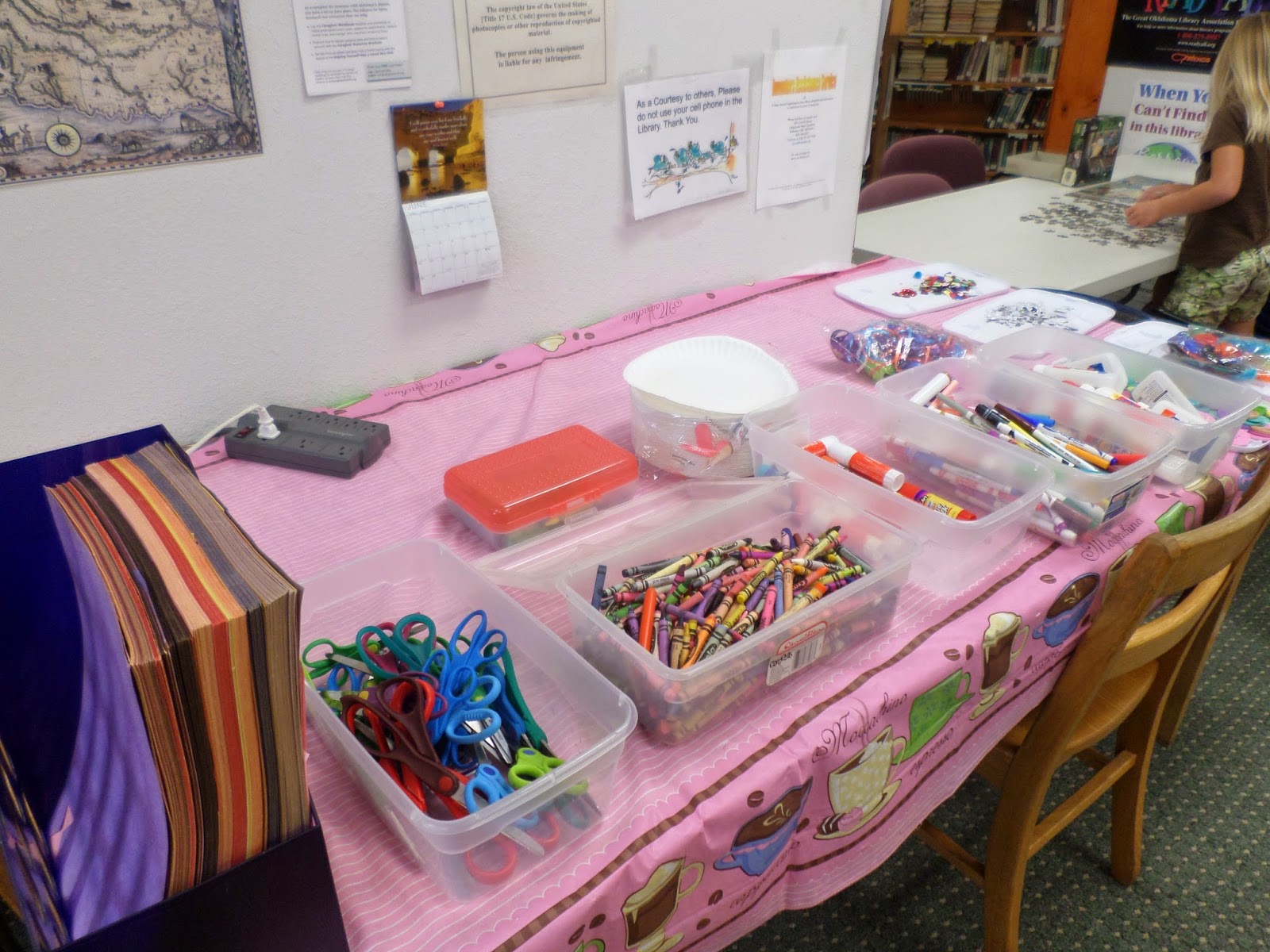
My landlord prepared sack lunches for all the kids to eat while listening to the story. Our menu consisted of peanut butter and jelly sandwiches, carrot sticks, chocolate chip cookies, and juice boxes.
I think most of the kids had already read or heard the story, but they still listened attentively. The majority of our time was spent making our own pigs. The kids were so creative when it came to making their own pigs. Some of the adults were a little stressed that the pigs were not all pink, but I enjoyed watching their minds at work! For example, I would have never thought of making a hat for my pig to wear!
I took a package of feathers to use for decorating even though my sister insisted that pigs did NOT have feathers. I think the feathers added a lovely touch to the pigs.
We ended up having 11 children for story time. I think this was a great turnout for our first time.
Of course, I had to take pictures of the most adorable creations:
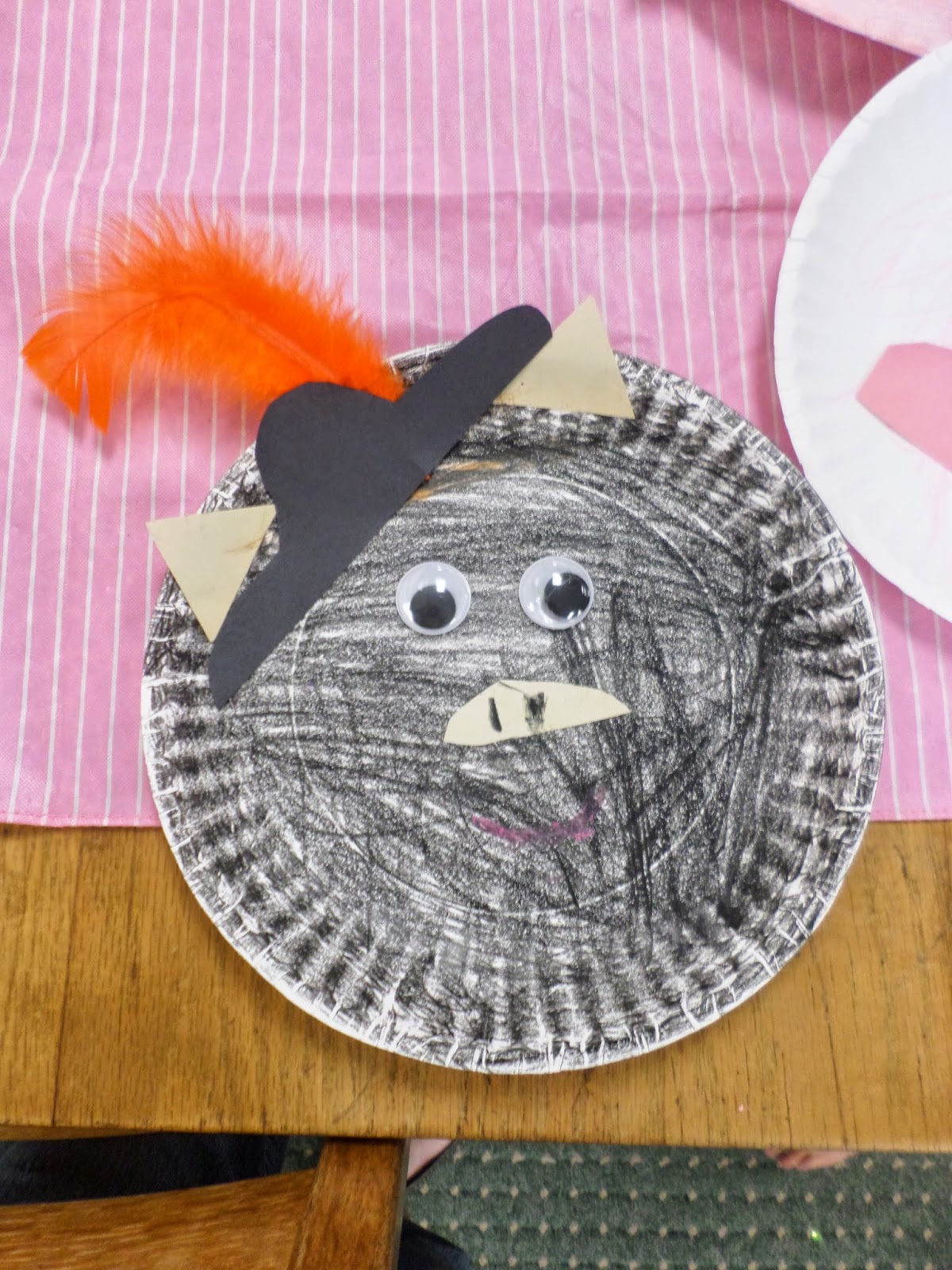
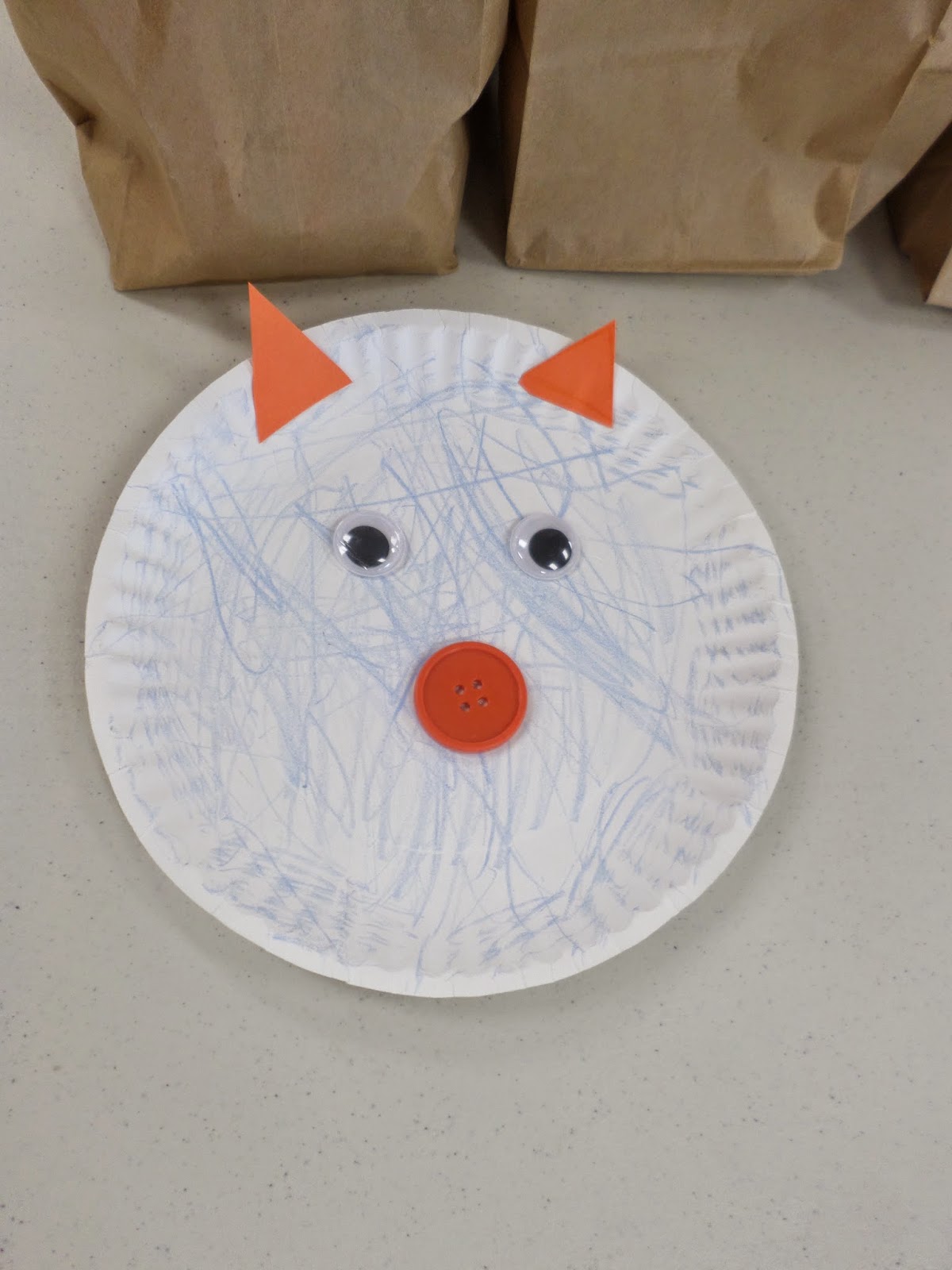
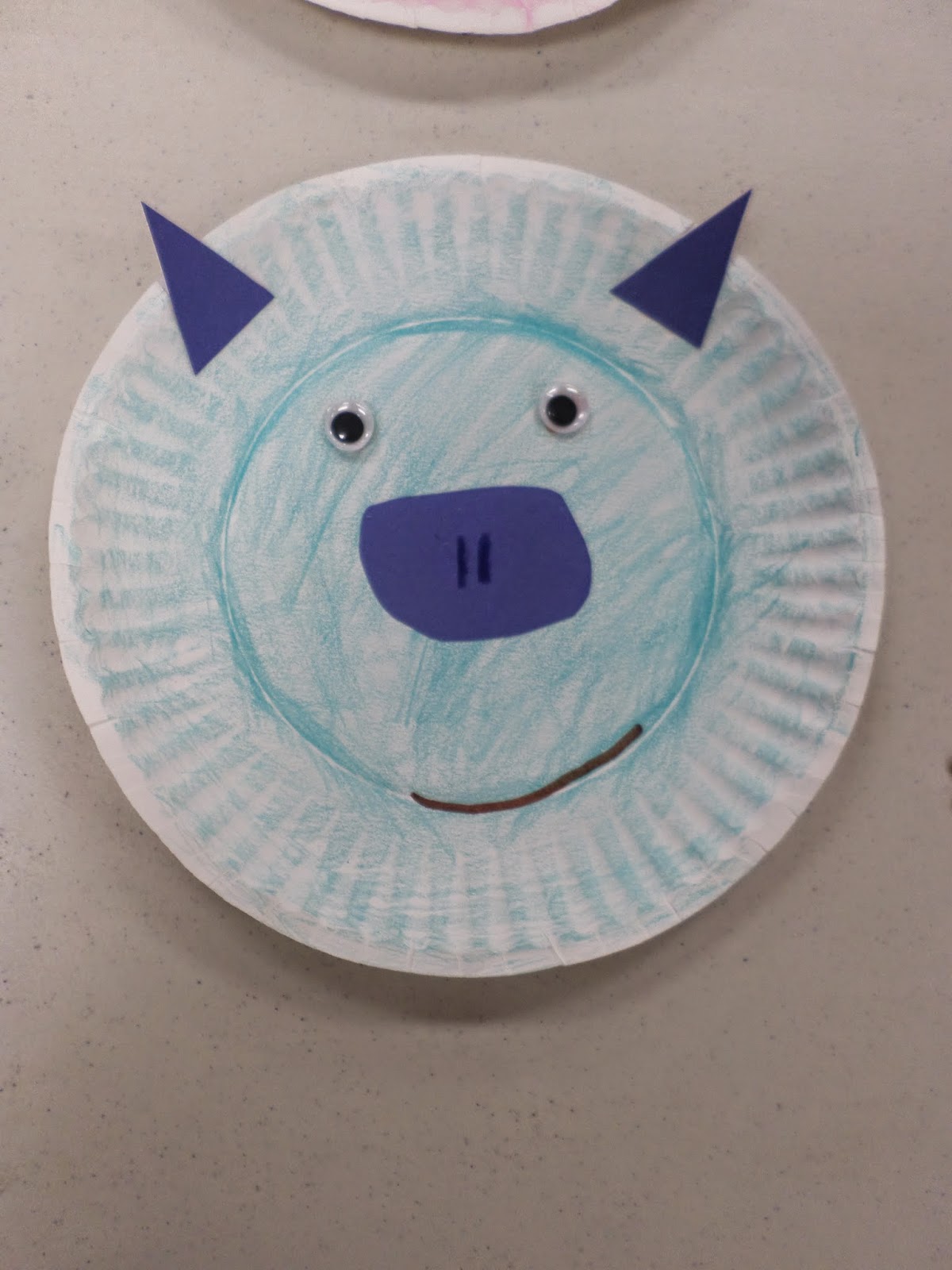
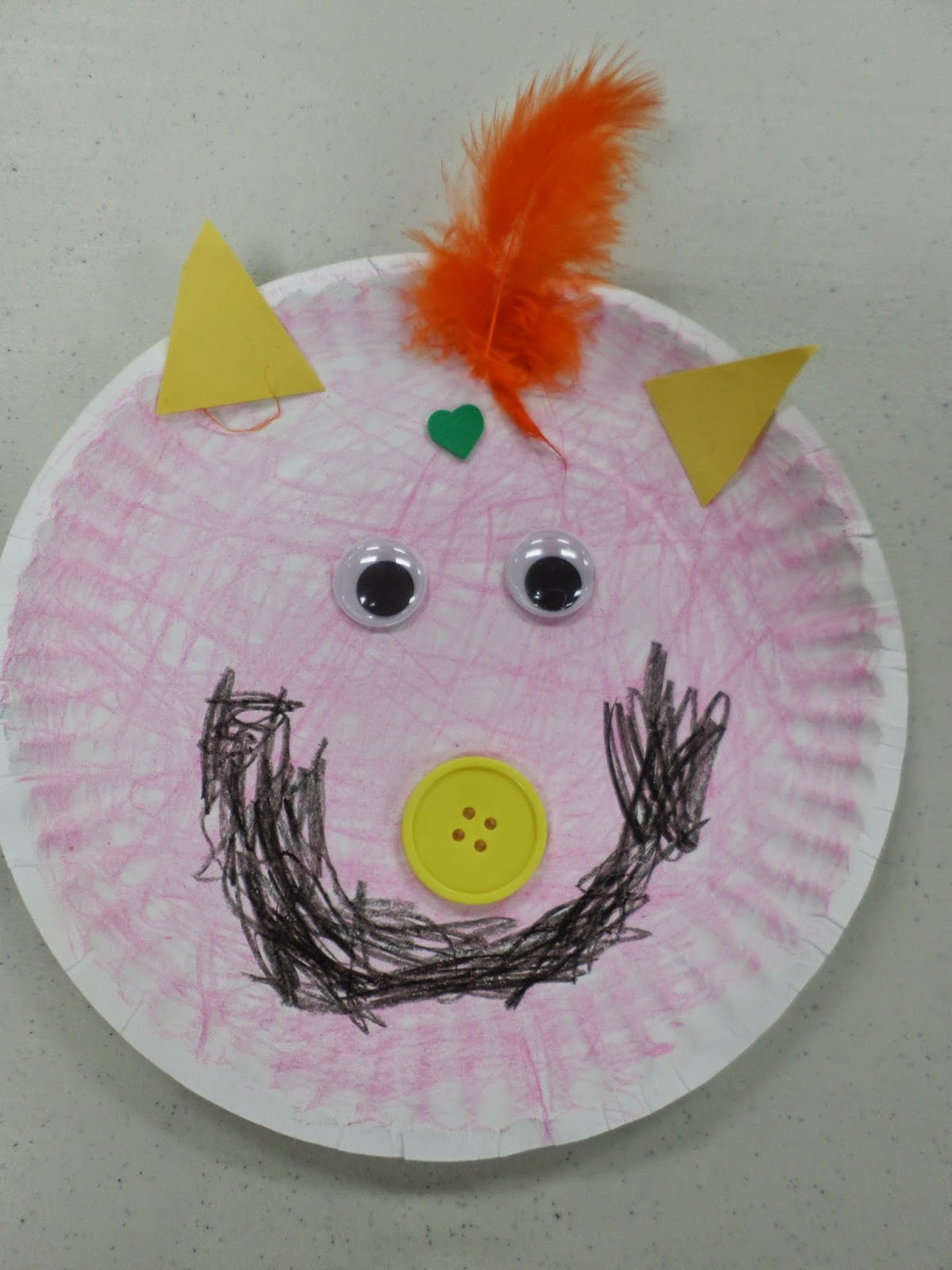
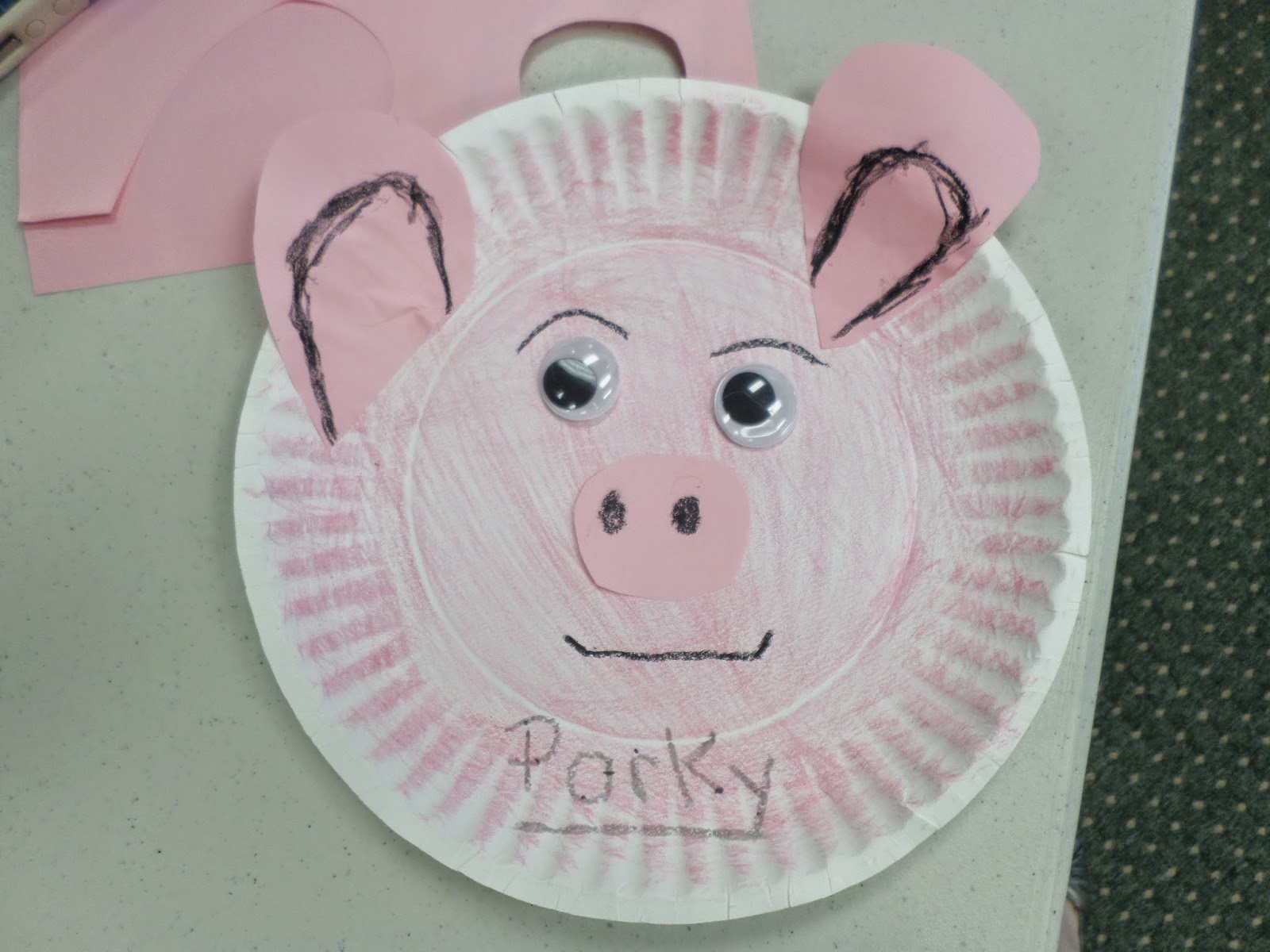
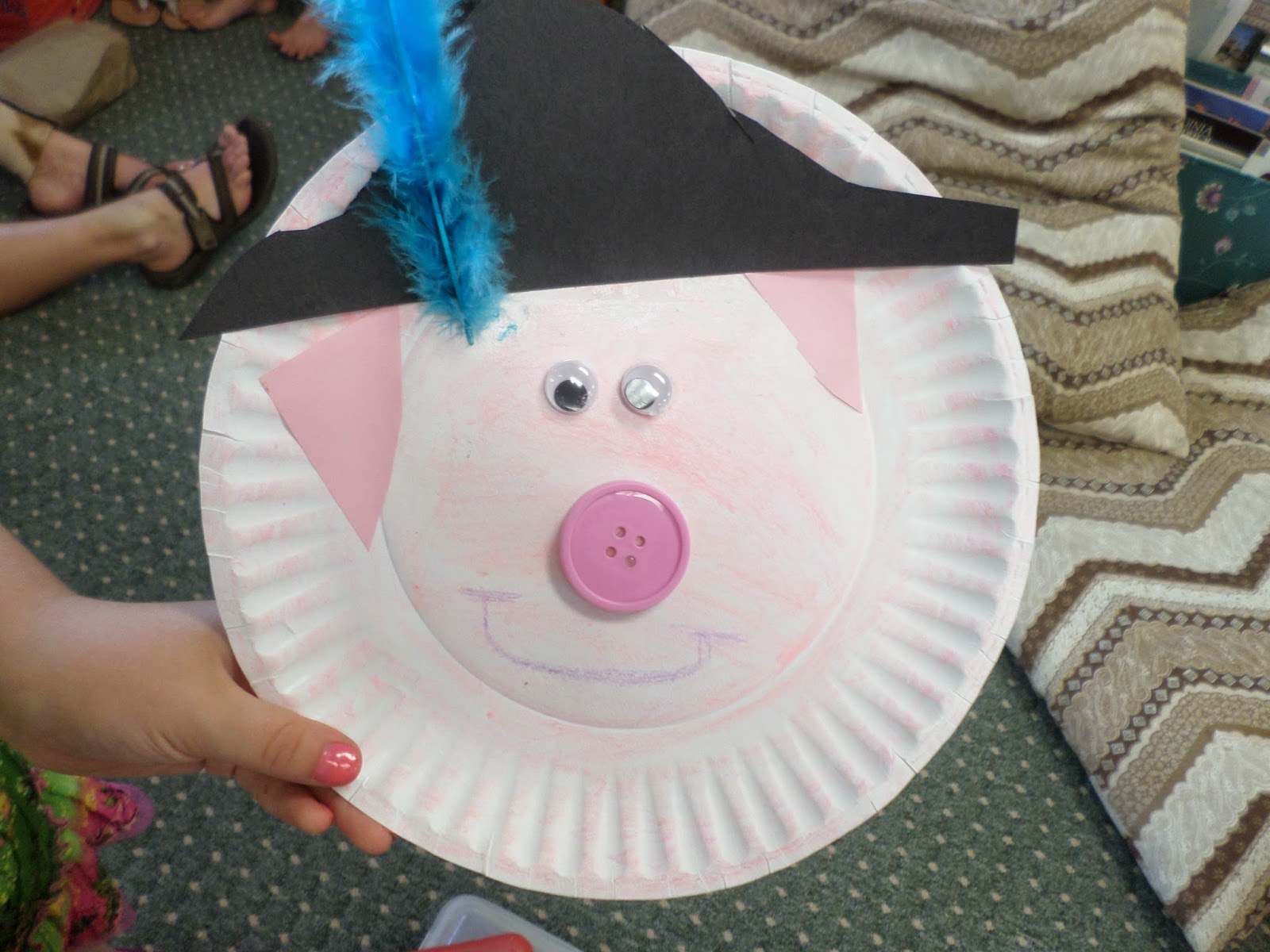
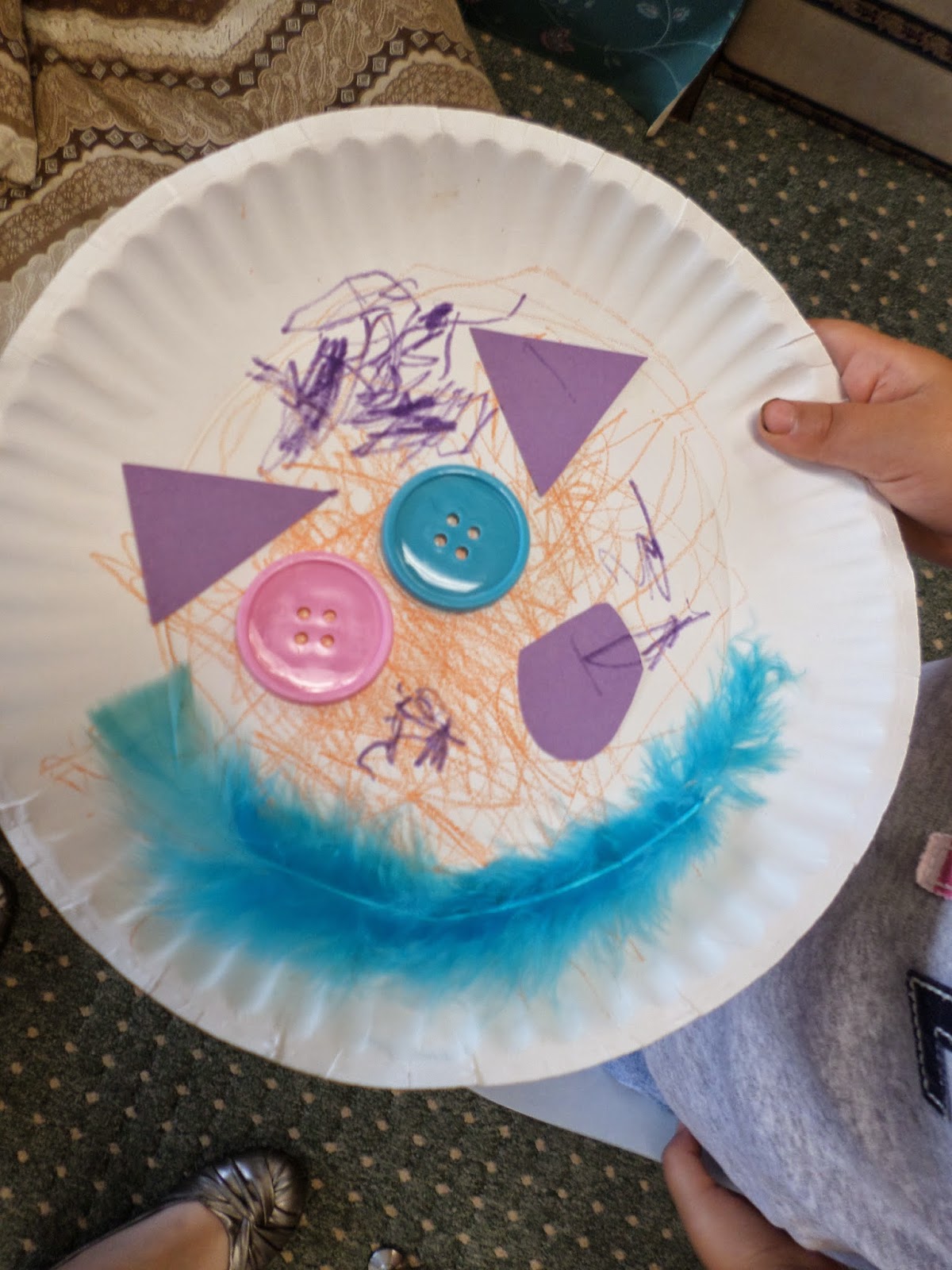
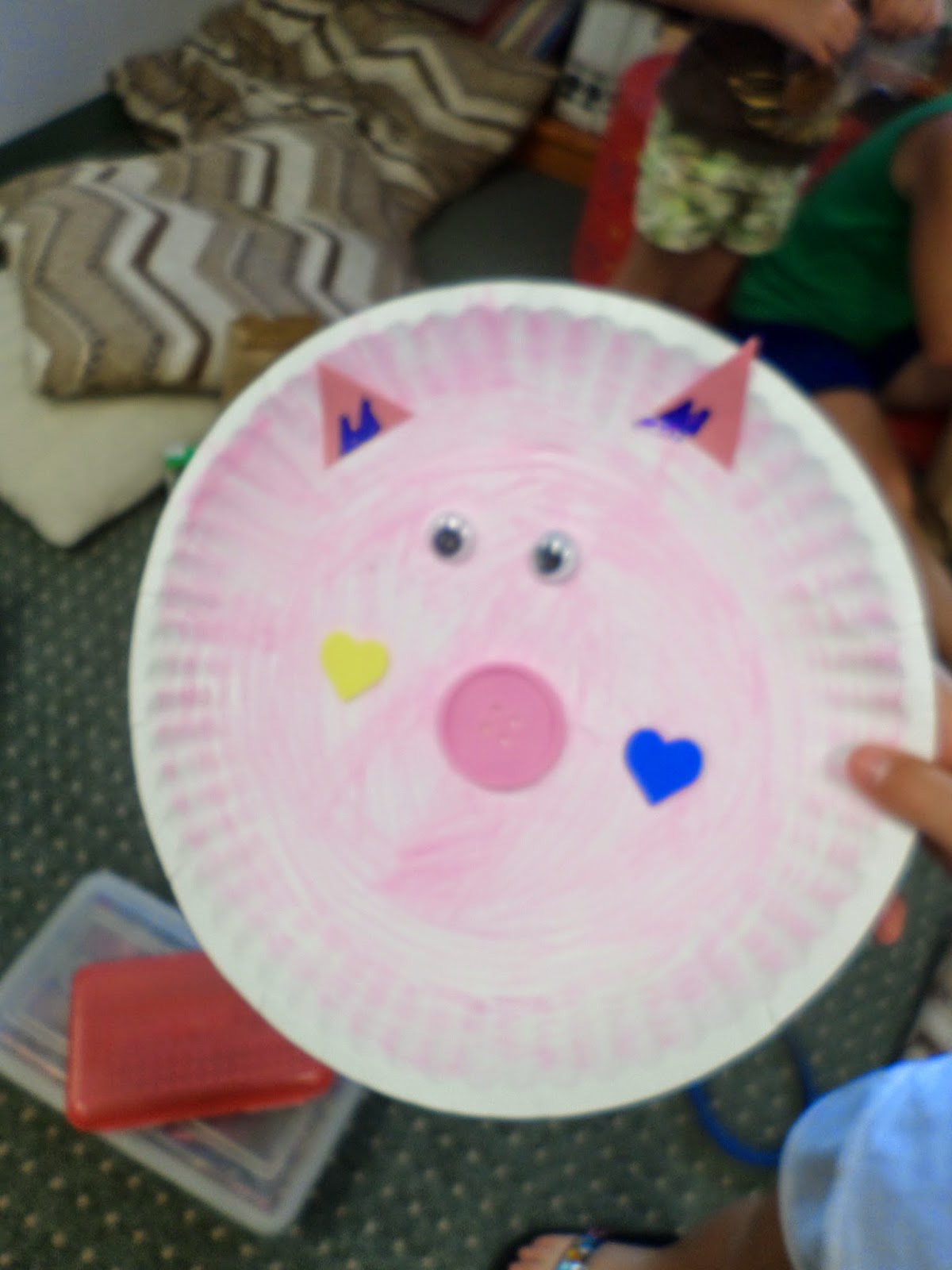
One of our participants spent a lot more time practicing his scissor skills than actually building his pig. 🙂
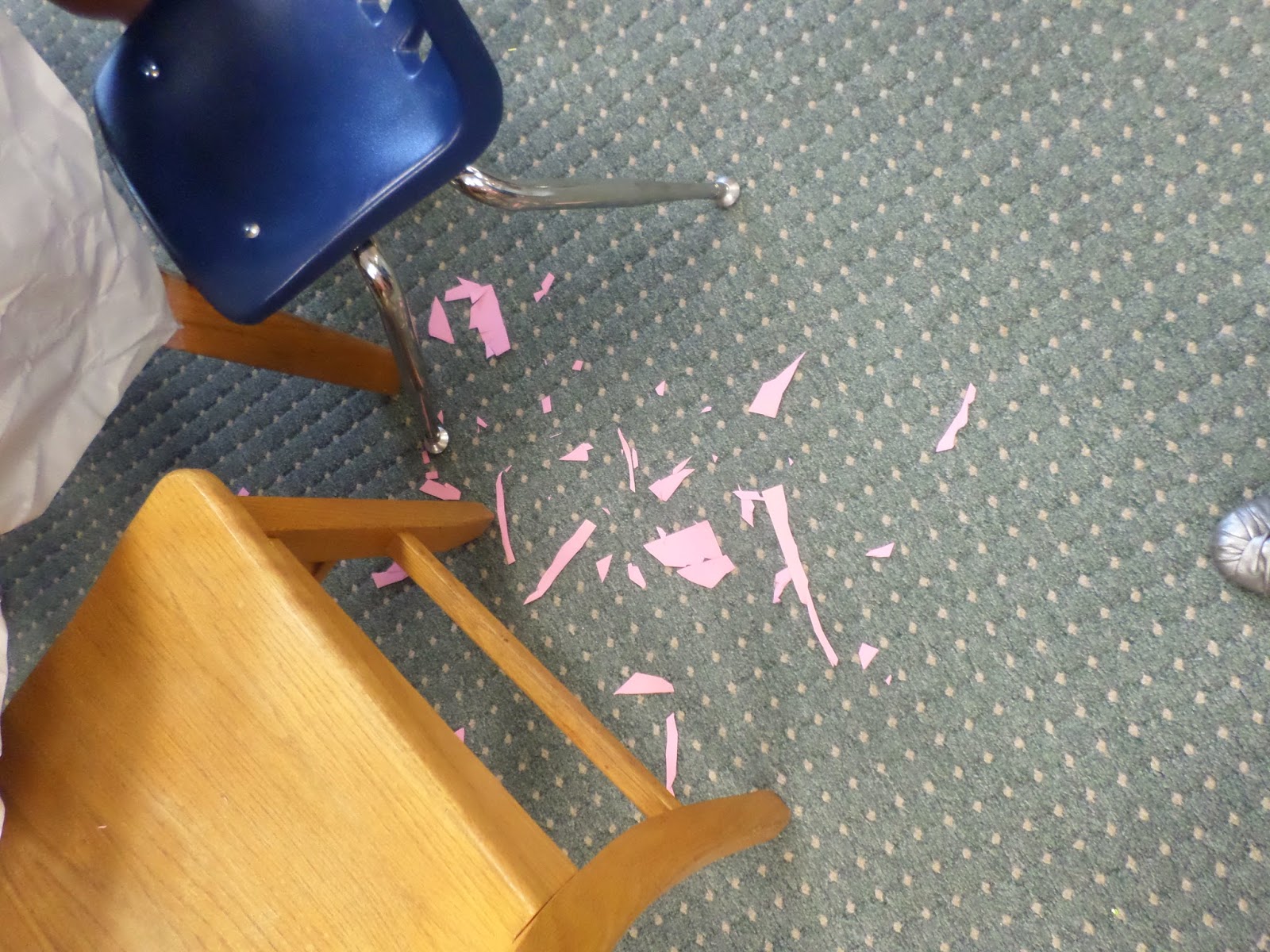
Eventually, he was able to finish his pig with the help of his mother. He insisted that he wanted his pig to have a Cat In The Hat hat. But, he ended up with more of an Abraham Lincoln hat. The yellow feather covered his pig’s ear, and he was in tears at one point because he thought his pig only had one ear.
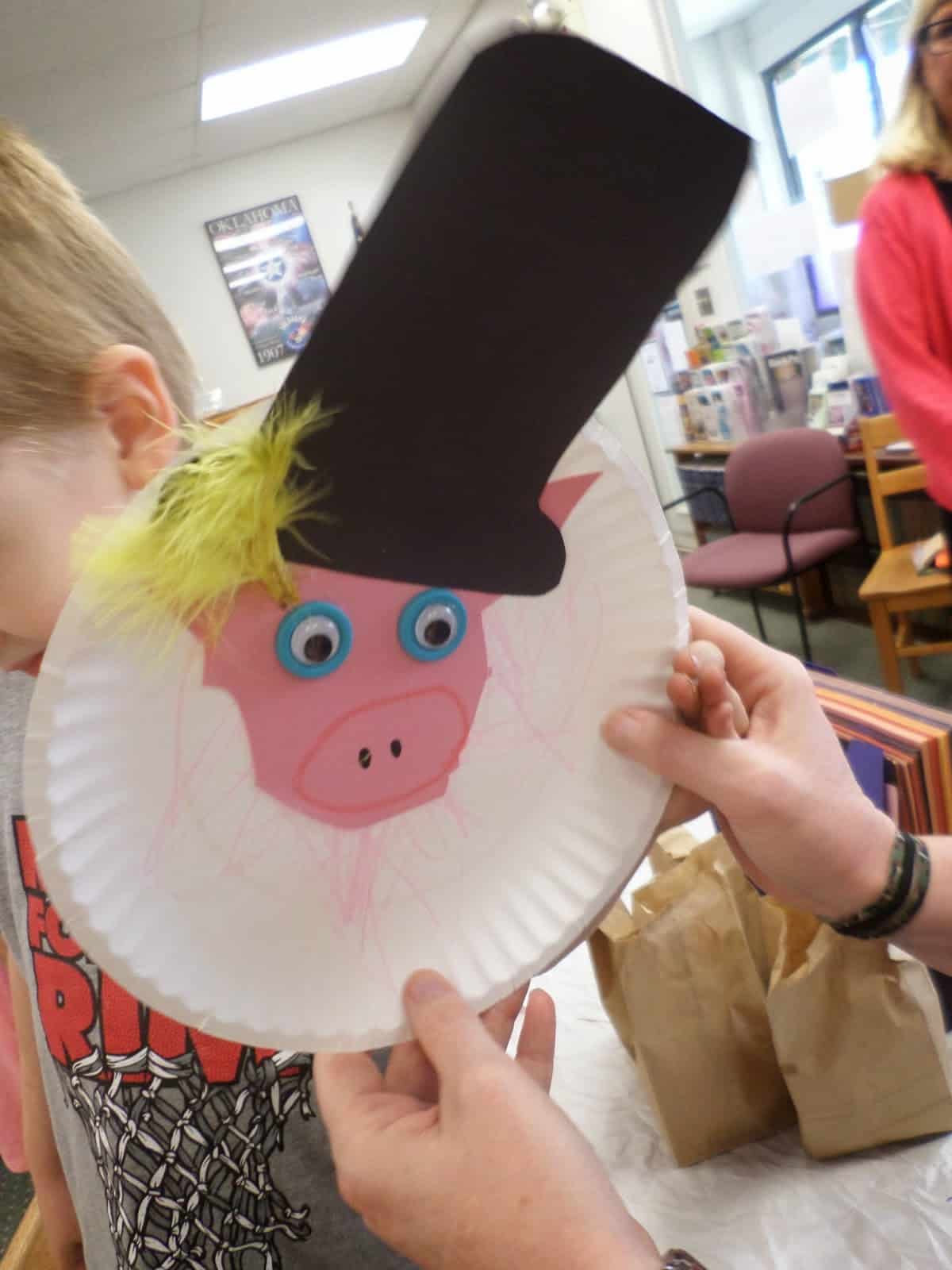
The little girl who made this pig insisted on picking the smallest wiggly eyes possible because she deemed the other sizes of wiggly eyes to be “creepy.”
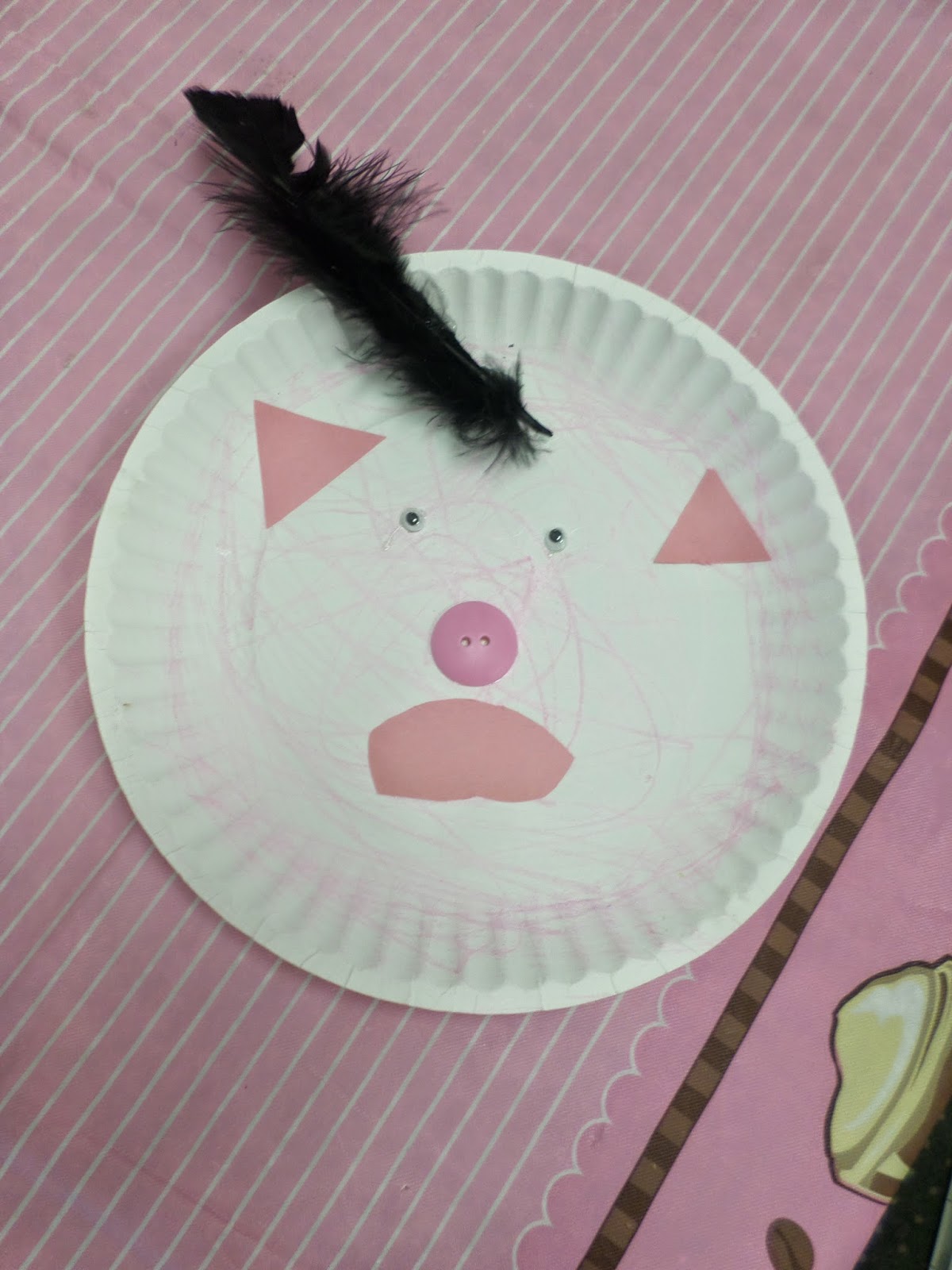
I had a blast hanging out with these kids for 45 minutes. It’s definitely something that I’d love to participate in again!
June 9, 2014 – One Million Hours
I missed a prime opportunity the other day, and I’m devastated over it. I was riding in the car with my mom and sister, and we were stopped at a red light. Looking out the window of the car, I read the advertisement on the truck in front of us aloud. The truck belonged to a company that specialized in trim. That wasn’t what caught my eye. What caught my eye was the claim made by the company.
One million hours experience.
Immediately, we started having a conversation about this in the car.
How long is one million hours?
Why would they tell the number of hours experience instead of the number of years experience?
Is this the amount of experience of one person or the sum of the experience of their entire staff?
Of course, the light had turned green and the truck had sped off before we decided this would make an awesome math lesson. So, no picture to share. I tried googling the company, but their website said nothing about one million hours experience… 🙁 If it is indeed the same company, their website boasts 25 years experience. Is this in line with the statement on their truck?
I plan on starting off the year in Algebra 1 with a review of converting between units and an emphasis on the importance of units. After all, I have declared next school year as the year of “No Naked Numbers!”
Since I don’t have a picture of the truck, I guess I’ll have to manufacture my own image. I can’t wait to see what great conversations are sparked by this!
June 10, 2014 – A New Hobby
This summer, I’m trying to strike a balance between developing myself professionally, relaxing, and making time for experiences that I don’t have time for during the school year.
I’ve been playing the piano since the 5th grade. But, this summer I’ve decided to take up the guitar. It’s been a slow, slow process. For some reason, my instinct is to try to hold the guitar upside down. Once I figured this out and corrected myself, it’s been a little smoother sailing. My fingers don’t especially like to form the chords, and it’s been frustrating at times. Some days, I’ll even proclaim something is impossible. But, I’m watching online video lessons at http://www.justinguitar.com/, so I know it can’t be impossible because I’m watching someone prove that it is possible.
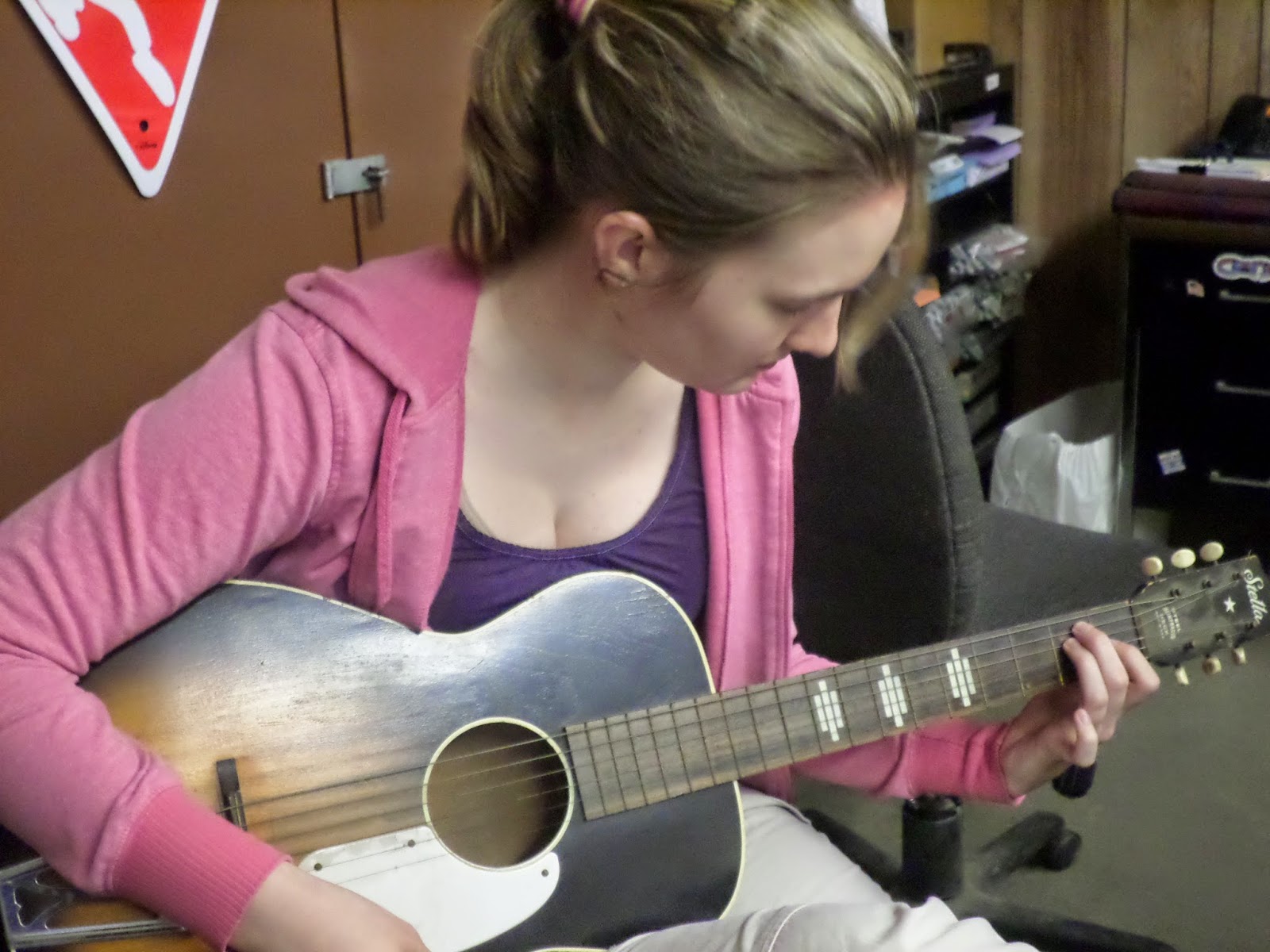
My mom has been reminding me that it’s good that I’m stepping out of my comfort zone and trying something that doesn’t come naturally to me. I have this secret desire of being one of those teachers who whips their guitar out in class and composes a math song on the spot. I’ve got a long, long way to go (I know a grand total of 3 chords!), but it’s exciting to see myself getting better with regular practice.
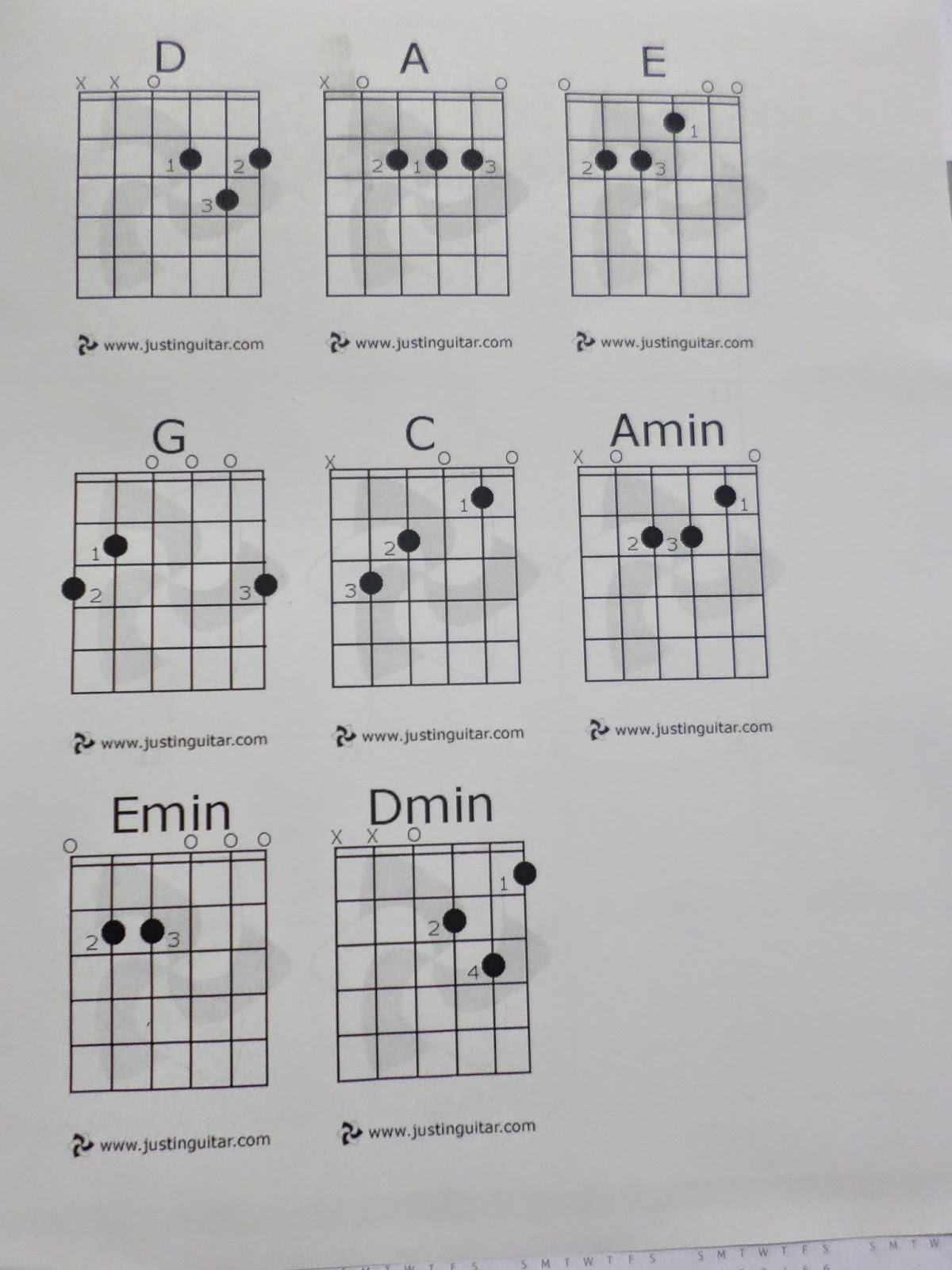
It reminds me of a conversation I had with some kids at Vacation Bible School. Our theme is River of Life, and the verse for the week is John 4:14. It’s a pretty long memory verse, but our kids have shown that they are capable of learning it IF they put in some work.
On the third night of VBS, several kids finally got the verse memorized. As the girls who had memorized it finished their turn of standing and reciting the verse, one boy protested that the girls had cheated. The verse was projected on the screen, but I had intentionally made the girls stand with their backs to the screen. How could they have cheated?
Curious, I asked that exact questions. The answer made me laugh. “They cheated by practicing with Memaw’s Bible!”
Cheating by practicing? If that was true, I would wish all of my students would cheat!
Hard work pays off. My skill at playing the guitar will be a direct reflection of the time I put into learning it. I need this reminder.
June 11, 2014 – Yarrrrrrr! 17 Ideas for a Creative Math Class Inspired by Teach Like a Pirate
I just read through Dave Burgess’ Teach Like a Pirate: Increase Student Engagement, Boost Your Creativity, and Transform Your Life as an Educator for the second summer in a row. As I filled my copy with even more underlining, highlighting, and margin notes, I ran across pages littered with post-it notes that were covered with lesson ideas that I wrote down last year as I read through the book. Some of these lesson ideas came to fruition. Others didn’t. Some still appeal to me. Others don’t.
For the most part, these are not fleshed out lessons. They’re either original or semi-original ideas I thought of while reading the book or lessons that I’ve read of others doing before that I was reminded of while reading. Either way, I thought I would share them here on my blog. First of all, I can search things that are written here on my blog. It’s hard to search post-it notes when you’re looking for a lesson idea in a pinch! Also – maybe somebody will fall in love with one of these ideas, carry it out in their classroom, and blog about it so we can all read about it!
Graph Aerobics for Families of Functions in Algebra 2 – Act out linear, quadratic, cubic, quartic, square root, absolute value functions with arms
Slope Aerobics – Act out positive slope, negative slope, zero slope, and undefined slope with your arms. I actually did this this past year. We turned it into a game of Slope Dude Says (like Simon Says). I talked about this during my Global Math Department presentation, and I wrote a blog post about slope dude says here.
Go to the home ec kitchen for class. Pull various food items out of the cabinets. (If there is no food stored in the kitchen, bring food from home and pretend it was from the kitchen!) Have students determine how many servings are in each container. How many containers would they need to buy to feed the entire school? Ratios and proportions in action!
Have class in the gym on the basketball court. Have students make free throws. Calculate their free throw percentage. If repeated, you could extend this to calculate percent increase or decrease. Use as an opportunity to review converting between fractions, decimals, and percents.
Go outside. Divide students into groups of 5 or so. Each group needs a hula hoop. Lead students through the team-building activity where students stand with hands joined and pass a hula hoop around the circle. In each group, students measure the amount of time it takes for the hula hoop to go around the circle once. Then, each group uses ratios/proportions to calculate how much time it will take for the hula hoop to go around a circle composed of the entire class. The group with the closest guess wins. (I did end up doing scatterplots with hula hoops!)
Algebra Vocabulary Charades – Could prove to be hilarious!
Introduce the idea of functions as a gang. (Relations must pass the vertical line test to be part of the gang.) Come up with some sort of hand signal to represent the function gang. Project graphs/equations/tables/sets of data on the board. Students must flash the function gang sign if they want to accept the relation as a function. Students could take turns being the bouncer. Other students draw a relation that is or is not a function to test the bouncer.
Have a wrapped present at the front of the classroom to introduce the idea of using the do/undo method for solving equations.
Graphing with Twizzlers – Actually did this lesson and blogged about it here!
Play pictionary with describing graphs – Have done this lesson, too!
Transform marriage of Q and U into a math lesson somehow.
Tape a graph to the back of each student. Students must ask questions of other students and use that information to graph the line on their individual dry erase board. Bring board to teacher to have checked. Emphasize use of proper vocabulary in describing graphs!
Have students draw/design theme park attractions based on different families of functions. Function World. 🙂 Contest – what theme park would you rather attend?
Compare isolating the variable to a quarantine. Have caution tape hung around classroom to build interest. “Enter at your own risk.”
Time travel to the time before calculators to learn why we rationalize the denominator.
Mystery of the Cooling Corpse – Set up room as a crime scene. Taped outline on floor for corpse. Crime scene tape on door. Have school employees as suspects.
Secret password needed to enter classroom. Vocabulary Word – post definition outside of door.
June 12, 2014 – It’s the Most Wonderful Time Of The Year
No, it’s not Christmas. It’s even better than Christmas.
It’s time for a brand new planner! My current planner (on the left) is good through the end of July. But, I’ve been collecting dates of future events for quite a while that I’ve had to scribble on the last page of my planner for lack of a better place to put them.
After looking at planners at Staples and Wal-Mart and not finding the perfect one, I finally found one I loved at Target for only $7.99. The ones at the previous two stores were either too plain or super cute with super thin and flimsy pages.
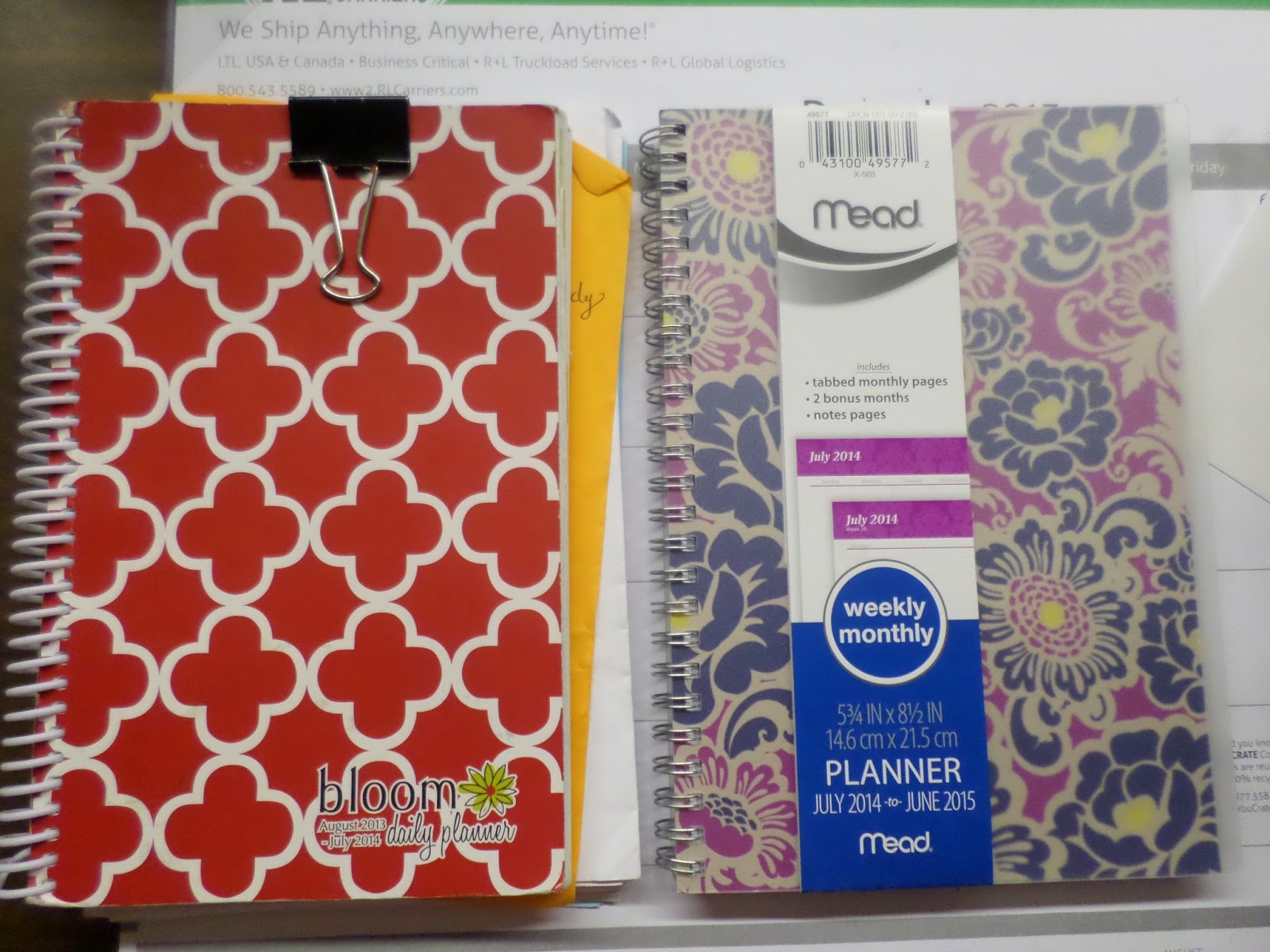
What did I do as soon as I got my new planner? Show it off to everybody, of course! Then:
1. Fill in important dates for 2014-2015 school year.
2. Fill in dates I’ve been recording on the last page of my old planner.
3. Fill in birthdays of friends and family.
4. Realize that I will get to celebrate my birthday on a school day for the second year in a row. So excited! On top of that, this is going to be my golden birthday!
5. Mourn the fact that we won’t be in school on Pi Day.
6. Fill in all of the mathematical holidays I plan on celebrating with my students this year.
This year, we only celebrated Pi Day and Celebration of Mind Day. Next year, I want to celebrate even more mathematical holidays with my kiddos. Maybe I’ll write a post about the various mathematical holidays that there are. #SummerToDoList
Does anybody else get super excited over a new planner?
June 18, 2014 – Traffic Light Cups Strategy
I’m currently on workshop overload. 4 days of workshops last week. 5 days this week. I keep learning more and more stuff, but I can’t seem to find the time to reflect here on all that I’m learning. I’ll have to make that my goal for next week.
So, this week, I’m at OGAP – the Oklahoma Geometry and Algebra Project which is being hosted at Northeastern State University – Broken Arrow. Yesterday at lunch, I was telling some of the other workshop participants about an idea from druinok who blogs at Teaching Statistics. When students are working in groups, she gives them 3 cups to keep in a stack on their desk. One red cup. One yellow cup. One green cup. You know, just like a traffic light.
I picked up my cups at Party City for $2.99/package. I could have probably looked around and found them on sale, but I wanted to make sure I bought them before I forgot. This has only been on my list of things to buy and try out for MONTHS!
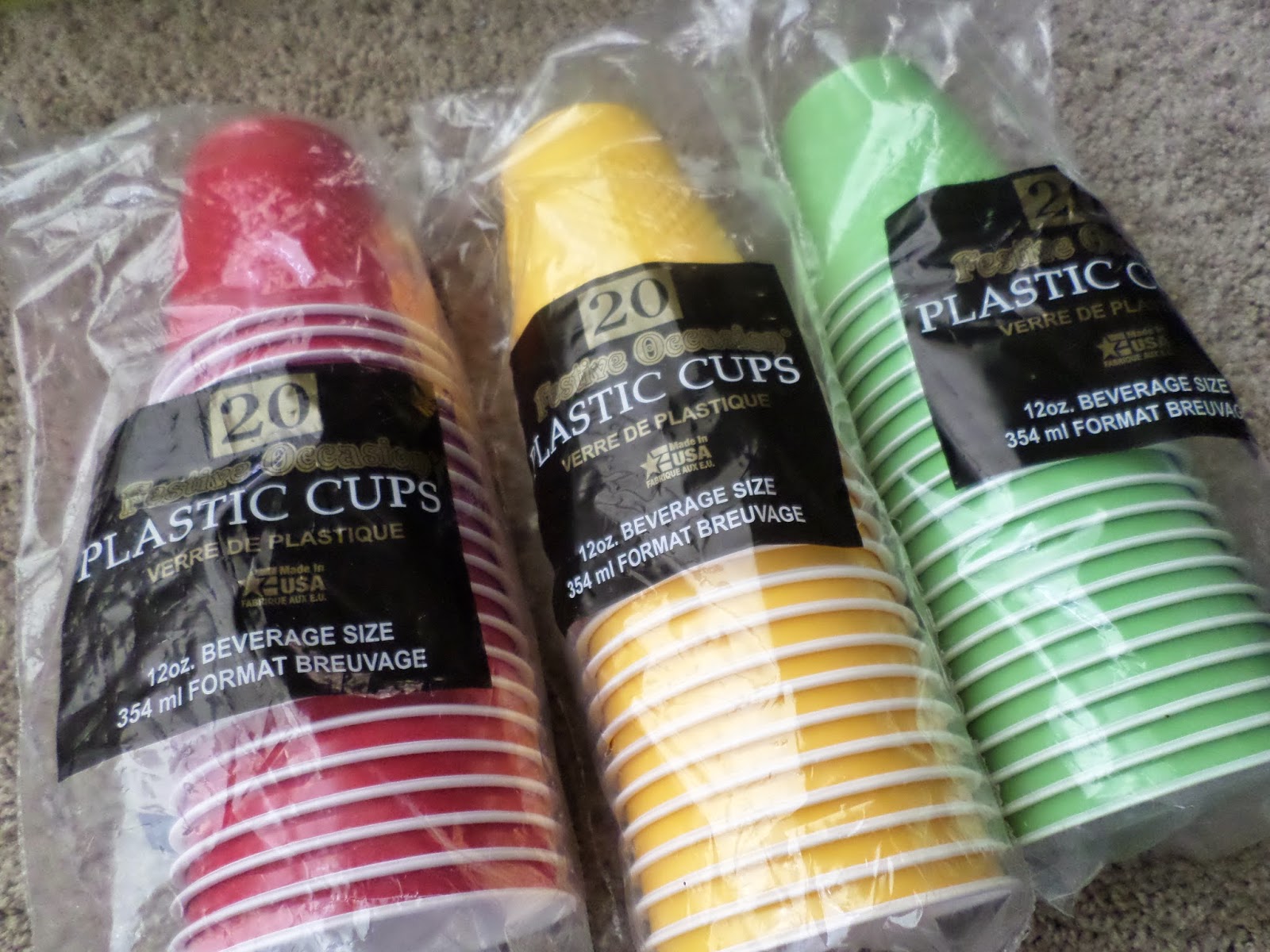
If students are working and everything is going well, the green cup should be on top. If students have a question but can continue working, the yellow cup should be on top. If students have reached a point where they cannot move on without help, the red cup should be on top.
Is it ironic that I’m using a traffic light strategy with my students who live in a town that doesn’t even have a traffic light?
I’m excited about trying out this strategy in my classroom for multiple reasons. When students are working in groups, I sometimes have difficulty figuring out where I am needed most. If one group has a red cup up, I need to be there. If all of the groups have their red cups up, that means we need to pause the group work and come back together as a class. I obviously need to clarify the problem or reteach a certain concept. Plus, it forces my students to think about their own levels of understanding. They have to ask themselves, “Okay. We’re having trouble. Can we still keep working? Or are we completely against a brick wall?”
You can read about druinok’s experience with trying this out in her own classroom here.
I’m going to combine this strategy with some of the strategies and group work norms that I’ve learned about from reading Strength in Numbers: Collaborative Learning in Secondary Mathematics by Ilana Horn. The author emphasizes that groups need to make sure they have discussed their questions in their groups before asking them of the teacher. It needs to be a group question – not an individual question. So, when a group puts up a red cup, I need to make sure that the group agrees on the question before I even consider answering it. One way I can do this is by choosing which student in the group to ask for the question. I shouldn’t just ask the student who has their hand up.
Though, I guess if groups have the cups, they won’t have their hands up. This should help keep groups from distracting one another, right? Actually, I’m thinking of doing away with hand-raising all together in my classroom. I want to move to a popsicle stick strategy for calling on students. I have a tendency to just call on the same few students. These are the students who are engaged and want to participate. But, I need to be holding all of my students accountable for the information.
Lots and lots of changes in store for next year! I’m hoping that year three of teaching will be the best yet!
June 14, 2014 – Common Core Resources from OGAP Training – Summer 2013
Partner Problems – identical to Kate’s Row Game
Slope Example (Page 4-5 of PDF)
Insects In The Water Quadratic Functions Activity from Dana Center
How Do They Fit? Tarsia Activities (Square Puzzles) from Public Schools of North Carolina
Demonstrate Composition of Function using Peanut M&M’s – Can’t find exact link for this. Here’s an example where Peanut M&M’s are used to explain the Chain Rule in Calculus
Collaborative Learning Tips:
* Make sure everybody in the group has a specific job.
* Focus on 1 Problem
* Don’t expect every group to finish
* Give each group only one copy of the question – encourages cooperative work!
Paper Cup Review Strategy
* Gather 10ish review problems you would like your students to complete.
* Place each review problem in a paper/plastic cup.
* Around Easter time, you could place each problem in an easter egg!
* Assign each person in the group a job.
– Traveler – Selects problems and directs consensus
– Reader – Makes sure the group understands the question
– Recorder – Makes sure that each person is recording all problem solutions
– Question Seeker – Leads dialogue by asking, “Does this make sense?” or “How do we know” or “Why?”
* Give each student a recording sheet. (Empty square for each review problem.)
* Traveler goes to front of room and selects a cup.
* Group works together to solve that problem. All students must agree on answer. All students must show work on their own recording sheet.
* Can change group roles halfway through the activity.
* Ideal to have most groups finish 7-8 problems.
* Perfect semester test or standardized test review.
* Give every student a full copy of every question and every answer at completion of activity.
* When grading: Engagement > # of Problems Solved
Introduce function notation through a family tree example. Taken from 1987 issue of Mathematics Teacher. Online PDF of activity (I tried this activity with my Algebra 2 students. They were not at all familiar with the structure of a family tree. Very confusing for them!) Aligns with F-IF.1 and F-IF.2
Illustrative Tasks: A Sum of Functions (F-BF.A.1)
Use Move the Monster Activity to Introduce Transformations
If your students are struggling with solving equations, introduce them to the do/undo method. This method is especially great for solving literal equations. Aligns to A-REI.3 and A-REI.1. Tie in with wrapping a present analogy. Actually wrap a present in front of the class. See a foldable I made for this method here.
Find the Weights Problem from Problems With A Point
Great Introduction to A.REI.11 and N-Q.2
Introduction to Systems of Equations
Emphasizes Perseverance and Repeated Reasoning
Algeo Problem from Problems With A Point
With 8th Grade Common Core Geometry, this may be an Algebra 1 level problem.
Give students a page with 26 boxes to show work in.
My tablemates had a blast with this problem during the conference!
All Tied Up In Knots Lab for Solving Systems of Equations
Link to Instructions
Aligns to A.REI.6 and S-ID.6 and S-ID.7
(Note: Make the fatter rope the longest!)
Fruit Loop Catapult – Can’t find link to activity. Sorry!
June 19, 2014 – Pause Please
I need a pause button on my summer or something. These past few weeks have been BUSY! Vacation Bible School. Tulsa Math Teachers’ Circle Summer Immersion Workshop. Presenting at the OCTM Summer Conference.
The MTC Training was incredible. I had so much fun, and I did so much math! I’ve always thought that I when I pursue a master’s degree it will be in education. But, spending 3 days doing math alongside mathematicians has made me start thinking about maybe pursuing a master’s degree in pure or applied mathematics.
Will I actually pursue this? I have no clue. Just last week, I told somebody that I couldn’t see myself leaving the secondary classroom anytime soon.
When I graduated from college two years ago, I was done with college. I was ready to be the teacher giving the homework instead of the student doing the homework. At The University of Tulsa, I had the amazing opportunity to complete separate degree programs in Pure Mathematics through the College of Engineering and Natural Sciences and Secondary Education through the College of Arts and Sciences. I never quite fell in love with the process of writing proofs, but I think that experience helped deepen my love and appreciation for the subject.
Fast-forward two years. During the MTC training, I remember thinking how much I wished I had been able to take a class in Number Theory as an undergrad. This past weekend, I went in search of a free online number theory book. And, then I proceeded to start completing the exercises in order. The first sets of exercises is a set of proofs by induction. As I started working through these, I realized just how much fun they were. I didn’t think I would ever refer to proofs and fun in the same sentence.
I’ll try to write a more reflective post on my MTC experience, but for now I will say that it was a refreshing (and exhausting!) experience to spend 2+ hours on a single math problem.
This week, I’m at OGAP which is an entirely different experience. It’s 5 days of sharing best teaching practices and working through algebra and geometry activities. And, it’s this type of workshop that makes me think that I’d love to teach future math teachers some day. Be a teacher of teachers. This would mean pursuing graduate studies in education instead of math.
Does anyone have a crystal ball I can borrow? I promise I’ll return it. I just need to take a peek at my future so I can see what type of degree I should pursue. 🙂
Be on the lookout for lots of reflection posts soon!
June 23, 2014 – A Mouse in my House
It’s a rainy Monday. After living out of a suitcase for 22 of the past 28 days, I’m enjoying this day at home with only one thing on my agenda: Friends of the Library Board Meeting. How I spend the rest of the day is entirely up to me! So far, I’ve spent my morning doing endless loads of laundry, rearranging my bookshelves, reading a bit here and there, and working on deep-cleaning my house, one room at a time. Other people spring clean. Not me. Let’s be honest; teachers don’t have time for spring cleaning. I spend my spring stressing over standardized test prep and the million and one activities that are going on at school.
So, what’s the occasion for my cleaning? It’s called “Oh my goodness. A mouse has been in my house cleaning.” In six years of living on my own, I’ve never had to deal with a mouse before. Let’s just say I’m not handling it all that well. You might even go as far as to say that I’m over-reacting. What exactly is the proper first step to take up discovering a mouse has taken up residence in your house? I’m going to bet it’s not the text I sent my mom or the phone call I made to my sister. To my mom: “I think it’s time for me to move and find a new place to live. I just saw a mouse in my house!” I mean, either way, somebody has to leave. It’s either the mouse or me. Though moving is on my top ten worst things in the world list, it may or may not have just moved down a spot.
Of course, my mom was full of sympathy. She responded, “It could be worse. You could have a bear in your house.” Thanks, Mom. That’s really helpful. I guess I do have to give her credit for buying me one of those mouse traps that doesn’t require you to touch the mouse when you dispose of him. It’s currently setting in the floor of my bedroom. I’m starting to think that my little mouse friend isn’t attracted to the all-natural, preservative-free peanut butter I keep in my fridge.
When I called my sister to tell her about my unfortunate run-in with the mouse, I started the conversation, “I need to get married. ASAP!” Why? “So my husband will have to deal with the mouse, and I won’t have to.” She told me that she was sure I would get right on that. Since I don’t sense any imminent proposals, I’m trying to act like the grown-up that my birth certificate says I am. The mouse is currently still winning, but not for long! I will prevail. And, my house is looking better by the minute! Silver linings…
June 24, 2014 – Common Core – Come and Gone: My Experiences as a Classroom Teacher
I spent all last week at a Common Core workshop for teaching Algebra 1, Algebra 2, and Geometry. If you’re not from Oklahoma or you don’t keep up with education news, you might not realize the irony of the previous statement. At the beginning of this month, Governor Fallin signed HB 3399 which repealed Common Core in the state of Oklahoma. Instead, we are going to revert to our old standards for two years while we write out own new set of standards which will be more rigorous than Common Core. I’m scared to even think about what those will look like.
When I entered the teaching profession, I knew next to nothing about Common Core. My professors in college told us that it was on the horizon, but they did nothing to prepare us for the upcoming change. They assured us that our school districts would have a transition plan and provide training. Ha. Ha. Ha.
I ended up accepting a position working in a school district whose Common Core transition plan involved hanging posters of the standards on the walls and saying we had transitioned. Meanwhile, I had coworkers who had never even heard of Common Core. When you mention Common Core to a math teacher and get a blank stare in return, that’s not a good sign. The English teachers in my district assured the administration that there was no difference between Common Core and what they were already teaching. I was regularly told that no action or changes on my part were required. After all, Common Core wouldn’t be around for long. We didn’t really need to worry. I guess they were right in this case… But, won’t they just say the same thing about the next set of standards? Will my district ever embrace change?
Meanwhile, I am looking at the CCSS Math Standards, and I am overwhelmed. The topics I am teaching my Algebra 1 students will soon be 7th and 8th grade standards. The topics I am teaching my Algebra 2 students will soon be Algebra 1 standards. Some of the standards ask my students to prove things that I don’t even know how to prove off the top of my head.
With no support from my district, I sought out my own Common Core training. I listened to webinars. I read blog post after blog post. And, when I heard about a week-long training program through the Oklahoma Geometry and Algebra Project, I jumped at the chance to attend.
Since I teach in a low-performing district, I knew that the transition was going to be rough. Our high school offers no math remediation classes. So, I have to fit that remediation in during the school year or my students won’t have access to it. This slows me down and means that I can’t cover as much curriculum as I would like. If a student is struggling in Algebra 1, there is no other place for him or her to go. There is no Algebra Concepts class or extra support class. It’s a sink-or-swim environment. I will openly admit that I teach to the test. If a topic isn’t tested, there’s a 95% chance that I don’t teach it. I just don’t have enough time. If I had a room full of students on Day 1 who could add, subtract, multiply, and divide positive and negative numbers, I would be in heaven. There is no Pre-Algebra class to send them back to to learn this. If my students can’t work with integers, it’s my job to teach them that. So, yeah, my Algebra 1 students are the students that Geometry teachers complain about because they enter their classroom having never used the distance formula or the quadratic formula. Sorry, but it’s not on my test. And, if you are going to tell me that my students can’t graduate without passing the Algebra 1 EOI, I’m going to do my best to make them pass the test. I owe that to my students.
When I talk to teachers in larger, more urban districts I get jealous. If a student isn’t successful during the first semester of Algebra 1, they are pulled out and placed in a support class for the rest of the year. This student is then not required to take the end-of-instruction exam, and the school’s report card will not be affected. Teaching in a small district, we do not have this luxury. I see technology and resources that they are able to provide their students that we just can’t afford. I teach in the type of district that has been re-buying the same textbooks since 2004 so they don’t have to throw away the old copies. If you looked at my school’s report card you would see a C-. As someone who has made a grand total of 1 B in her life, a C- is hard to stomach. Average the three schools in my district together, and the state of Oklahoma deems us a D district.
(To be fully honest, there are perks to working in a small district. But, that’s another post for another day.)
As hard as I knew it was going to be, I was ready and up for the challenge for teaching Common Core. I was ready to raise my expectations and push my students to their limits. After working for the past two years to prepare to transition to Common Core, I feel like I’ve been slapped in the face by the state legislature. With one bill, they’ve thrown out countless hours of hard work by teachers. And, that doesn’t even begin to mention the amount of money the state spent on the transition.
In a way, I was dreading this week of Common Core Training. I thought it would be 5 days of complaining about the repeal. But, our facilitators reminded us that good mathematics teaching is good teaching whether we call it Common Core or not. Since the workshop was grant-funded, the workshop had to continue to focus on Common Core since that was what the grant stipulated. Common Core was helping to move me away from teaching the way I was taught. Just because our standards are going backwards, it doesn’t mean that the way I teach has to. I can (and should!) still provide my students with questions and problems that promote higher-level thinking and perseverance. We can still attend to precision and choose appropriate tools to solve problems. Higher expectations don’t have to die with the repeal of Common Core.
It was amazing to get together with other teachers and look towards the future. The overall attitude of the conference was upbeat and positive – something I definitely needed!
This week, I hope to get my notes from each day typed up. It’s a way for me to reflect on what I learned. It’s a way for me to share resources with others who are looking to improve their teaching of math. And, it’s a way for me to be able to search back through my notes – something I can’t do if they’re stuck in a notebook or binder.
June 25, 2014 – Common Core Workshop Resources
Here is just some of what I learned during the second and final year of the Oklahoma Geometry and Algebra Project (OGAP).
First off, I want to thank the people who made this amazing experience possible. The workshop was coordinated by Dr. Jennifer Bryan from Oklahoma Christian University and Dr. Martha Parrott from Northeastern State University – Broken Arrow. The workshop was facilitated by Linda Hall and Martha Wissler. Linda and Martha are both retired math teachers from Edmond Public Schools, and they are phenomenal! I have learned SO much from them.
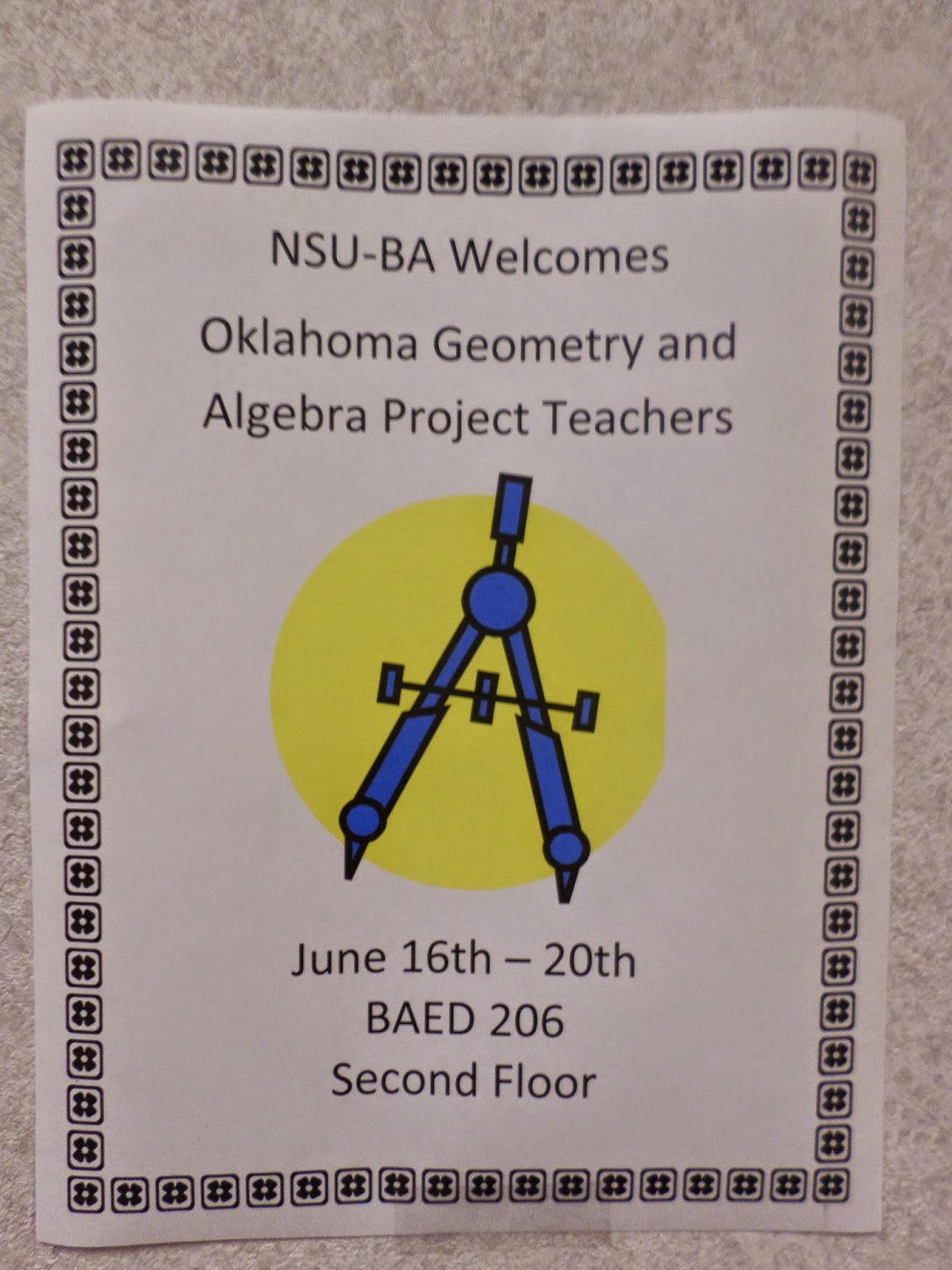
The first activity we were given was to sort 12 statements. We weren’t given any more guidance than that. Each group was given the same 12 statements. Here’s how my group sorted them:
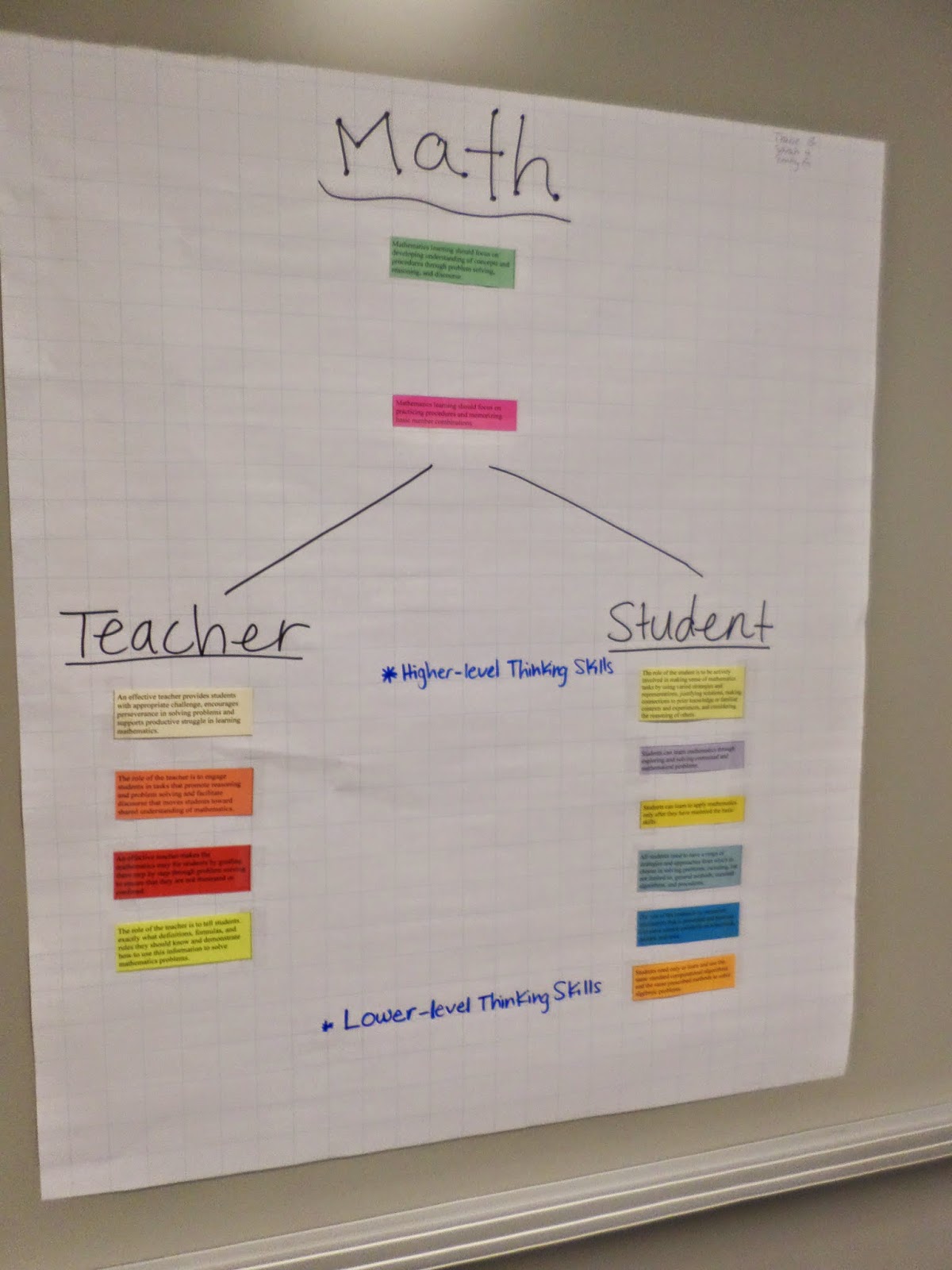
Statements about what teachers should do in the classroom. Strategies that were at a lower-level on Bloom’s Taxonomy were placed below strategies that were at a higher-level.
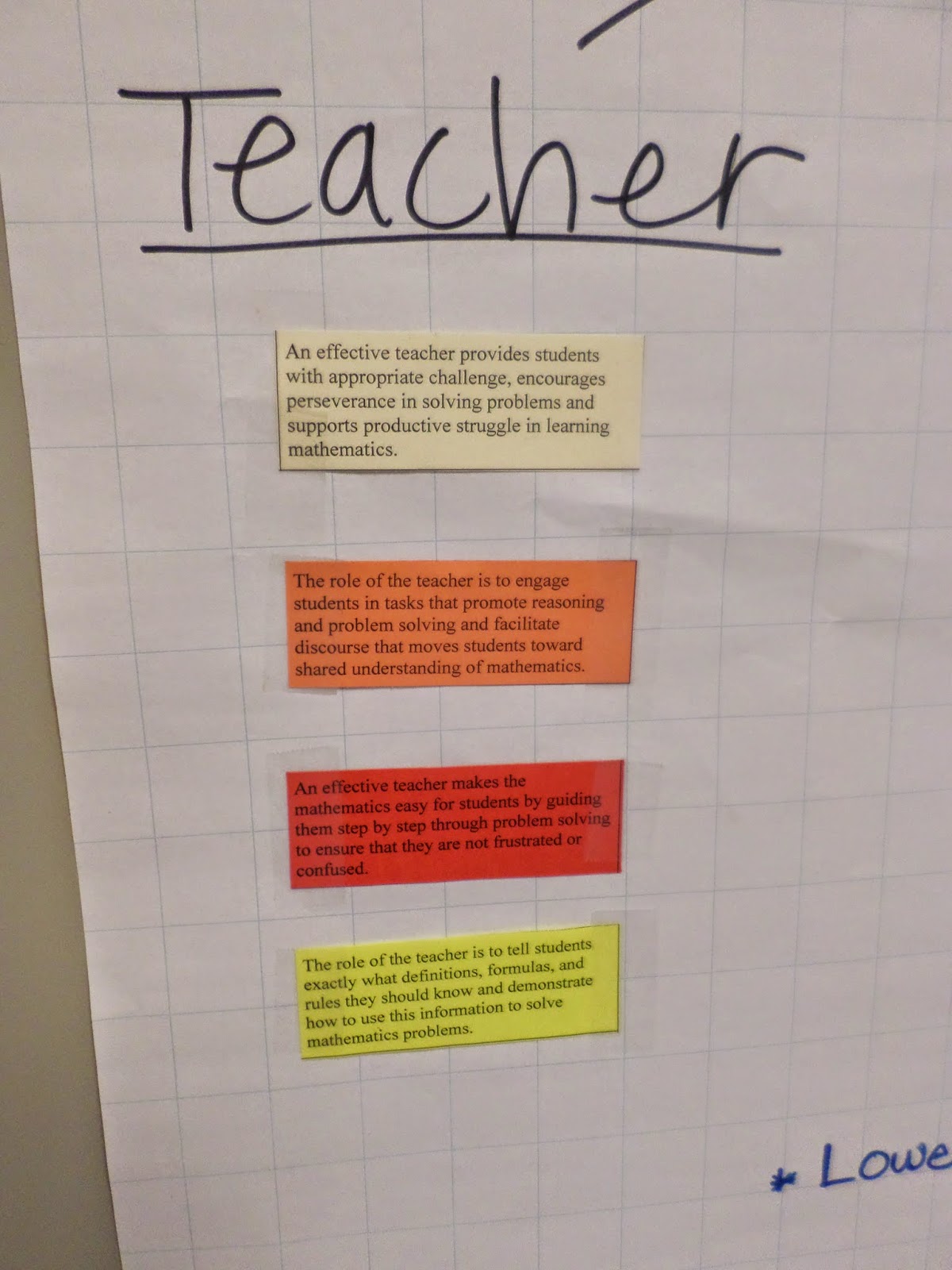
Statements about what teachers should be doing in the classroom. Same ordering of thinking skills.
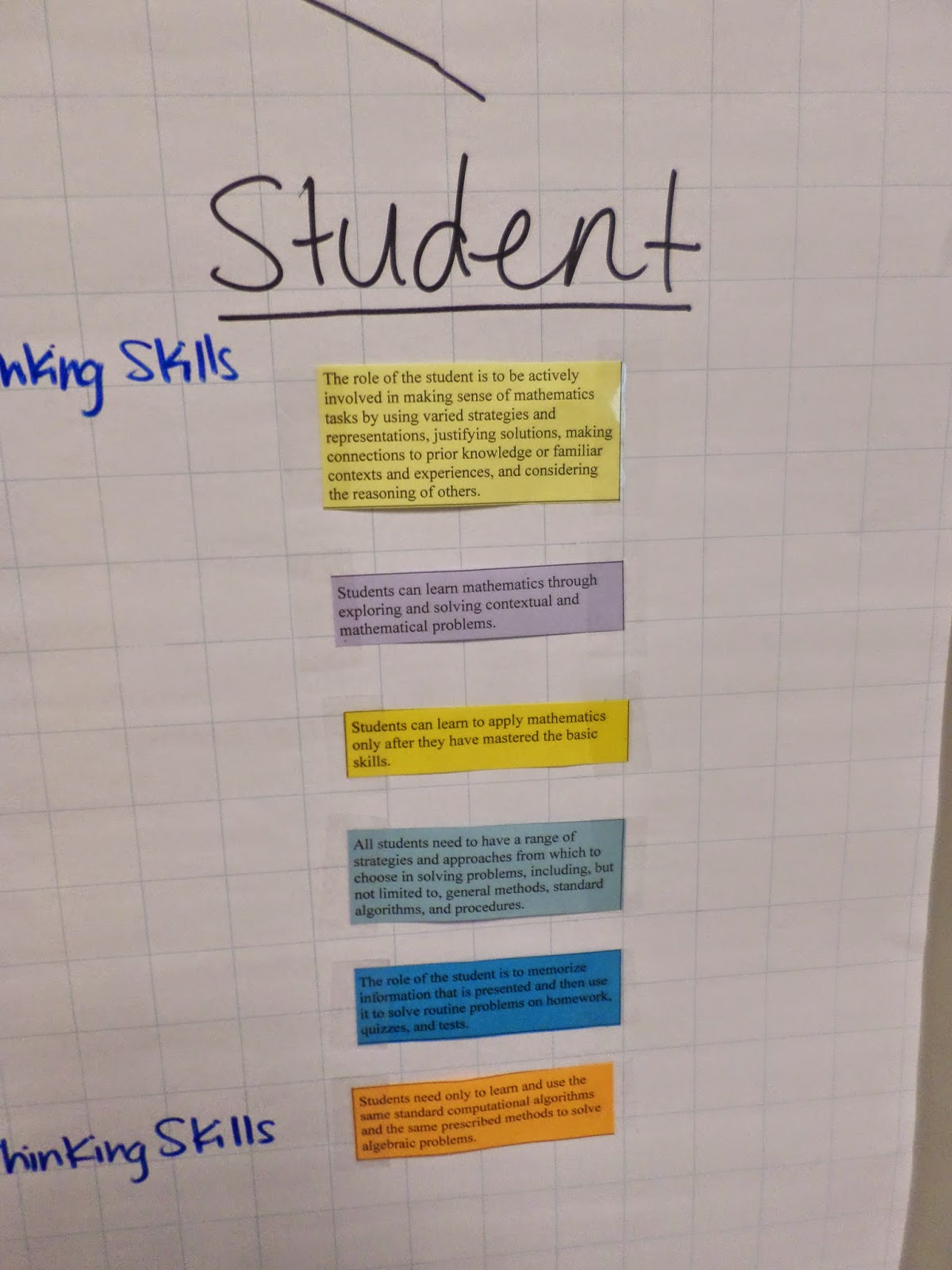
And, statements about what math instruction in general should be like with the same structuring as above.
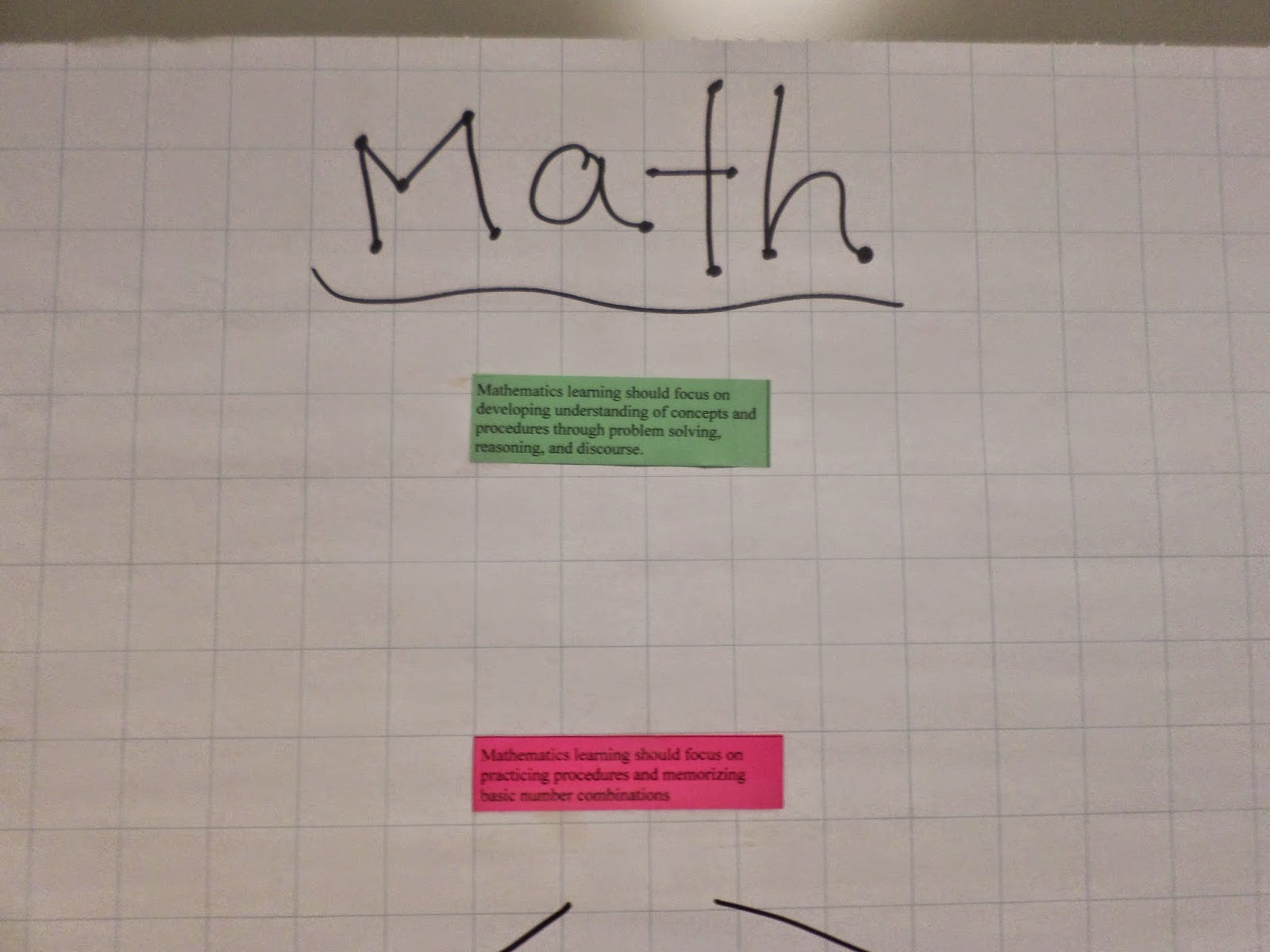
I sadly didn’t take a picture of the other groups’ groupings, but they were vastly different from ours. It was interesting to see how differently the same set of statements could be grouped.
It turns out that these statements were taken from Principles to Actions, a recent publication of NCTM. In Principles to Actions, these statements were sorted into two columns with the headers “Productive Beliefs” and “Unproductive Beliefs.” As part of the workshop, we received a copy of Principles to Actions: Ensuring Mathematical Success for All.
As one of our homework assignments, we had to read several sections of it. I’ve really enjoyed what I’ve read so far, and I’m looking forward to delving into it further. I may never get my Summer Reading List done now since I keep adding new books to read!
One of the reasons I’m looking forward to reading it is that the chair of the writing team was Steve Leinwand, the author of Accessible Mathematics: Ten Instructional Shifts That Raise Student Achievement which I read and LOVED last month!
This wasn’t the only resource we received. Going to one of these workshops is kinda like Christmas! We each picked a subject to specialize in this year. Last year, I chose Algebra 1. This year, I decided to switch my focus to Algebra 2. Basically, we have to collect data from one of our classes. We give that class a pre-test and post-test as well as having them make concept maps at the beginning and end of the school year. The class we focus on is the class we will collect our data from.
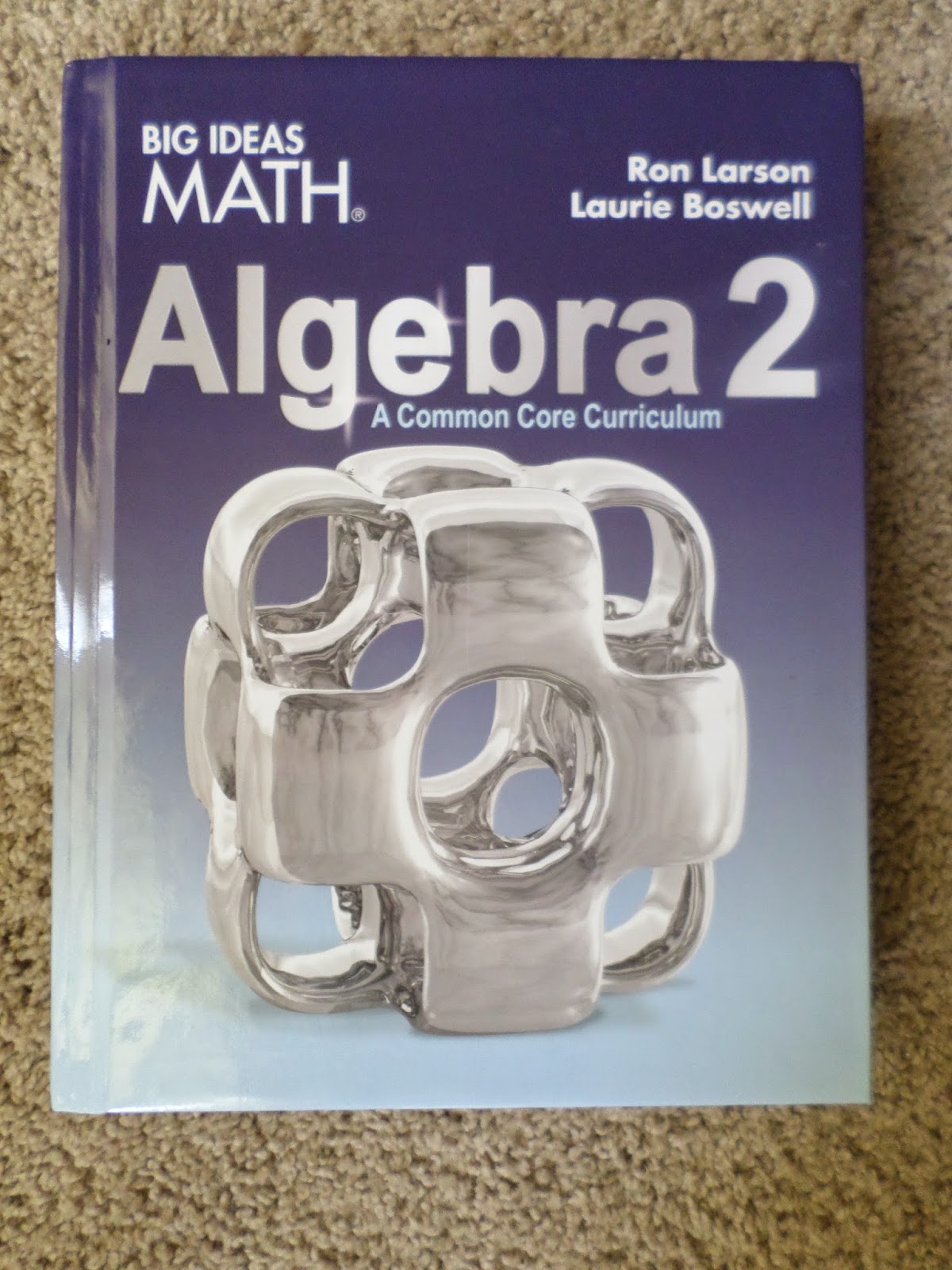
We received a new textbook from Big Ideas Math for the subject we chose to specialize in. I haven’t had a ton of time to peruse the text yet, but the first thing I noticed was how much thinner the textbook was from a normal textbook. This line of books was written specifically for Common Core. I’m hoping I will be able to pull out some great problems to use with my students from this text!
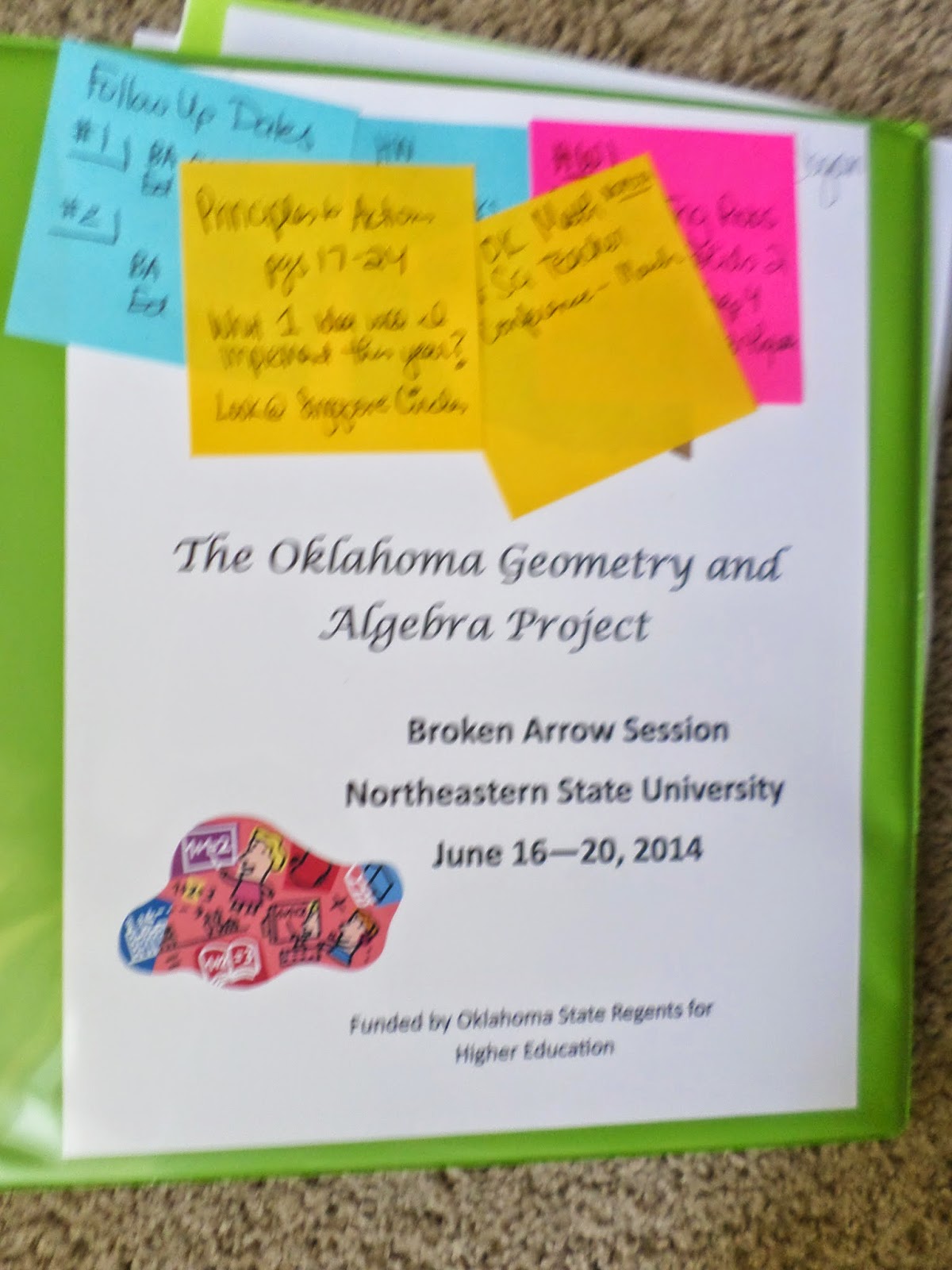
Probably the best resource we got during the week was a 3-inch binder packed with activities!
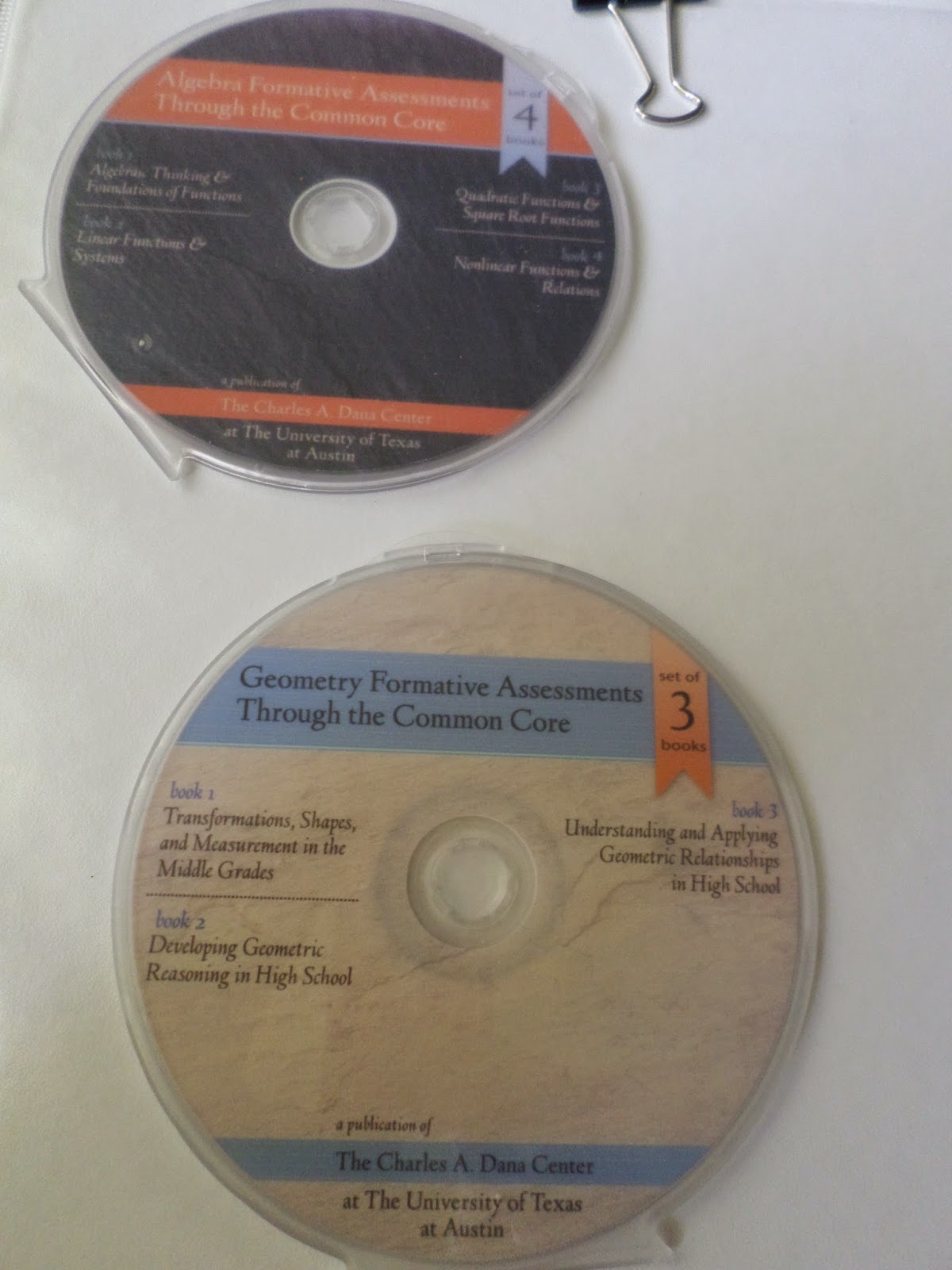
Several of the activities we did during the week were from The Charles A. Dana Center. Last year, we received a cd of Algebra Formative Assessments Through The Common Core. This year, we received Geometry Formative Assessments Through The Common Core. Each cd has pdfs of 3-4 different books on it!
We joked that the next book we received would be considered contraband in our schools now. Even though Oklahoma has pulled out of Common Core, I still found my reading in The Common Core Mathematics Standards: Transforming Practice Through Team Leadership to be relevant to my teaching practice. Whether we are teaching CCSS or not, shifts are happening. And, this book talks about what needs to happen to make these shifts possible.
One resource we didn’t use a lot of this week was our copy of the Common Core State Standards for Mathematics. Actually, I used it three times during the week. But, all three of those times involved me turning to the reference sheet to look up a formula! Next year, I am definitely going to make a reference sheet for my students to keep in their interactive notebooks!
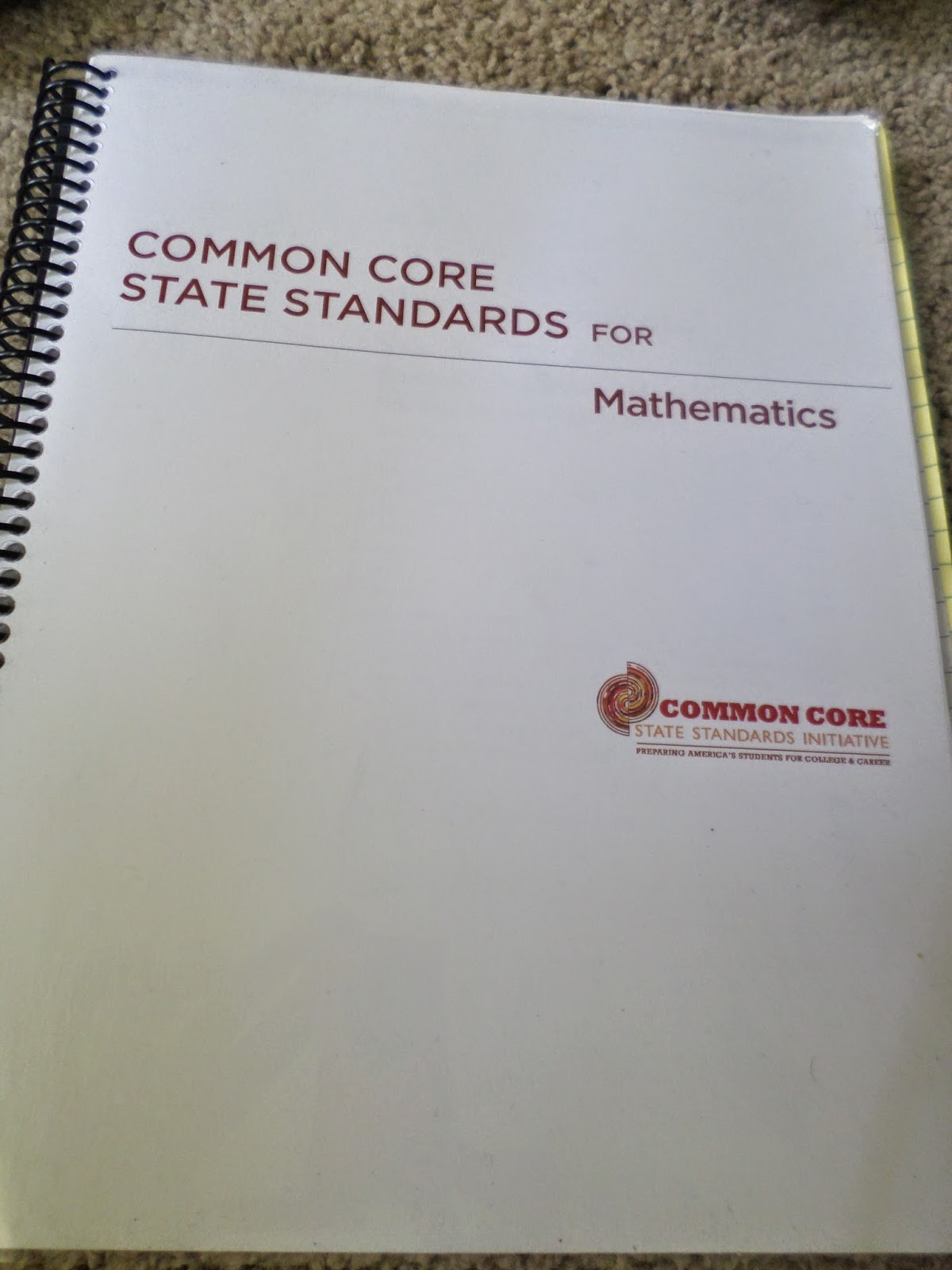
Now that you’re jealous over all the awesome goodies I got, I’m going to share the resources we were given on Day 1. Enjoy!
The Camel Problem
The first problem we worked on in our groups was the camel crossing the desert problem. I had just seen this problem the previous week in the copy of Discovering Advanced Algebra
that I ordered off of Amazon. I remember reading the problem and thinking it sounded interesting, but I hadn’t spent any time trying to solve it.

The version we attempted reads as follows:
A camel is sitting by a stack of 3000 bananas at the edge of a 1000 mile-wide desert. He is going to travel across the desert, carrying as many bananas as he can to the other side. He can carry up to 1000 bananas at any given time, but he heats one banana at every mile. What is the maximum number of bananas the camel can transport across the desert? how does he do it? Be prepared to present your solution to the class. (Hint: the camel doesn’t have to go all the way across the desert in one trip.)
My group got right to work and figured out a way to transport 500 bananas across the desert on our first try. Linda looked at our solution and told us that we could do better than that. We tried, but ever subsequent strategy ended up transporting less than 500 bananas! One group was able to arrive at the solution during the 45 or so minutes we were given to work on the problem. The rest of us had to take the problem home for homework. At home, I tried to solve the problem by employing simpler cases. But, I never did make the breakthrough I needed.
The next day, they provided us the solution. I kinda wish I had left the room during the explanation so I could have figured it out for myself. Oh well… There are plenty of other math problems out there for me to solve!
Fawn Nguyen gives her students a version of this problem that involves transporting 45 watermelons across a 15 kilometer desert. I think this problem would be much more approachable for my students. Plus, you can easily represent 45 watermelons with manipulatives. I wouldn’t want to try to represent 3000 bananas! I definitely want to work this problem into my curriculum next year!
Linear and Exponential Model Scavenger Hunt
Next, we moved to an around the room scavenger hunt style activity from Howard County Public Schools. If you’re still in a Common Core inclined state, the alignment is F.LE.A.1. 10 graphs were hung around the classroom.

As you can tell, some of the graphs are linear, and some are exponential. We were given pages with 10 equations, lettered A-J, 10 tables, lettered A-J, and 10 verbal models, lettered A-J. The facilitator assigned each group the letter of the graph they would start on.
Now, I’ve done scavenger hunt style activities in my classroom, but I’ve never done one quite like this before. A timer was set for 2 minutes, and we had to stay at the graph we had been assigned for those 2 minutes. On our answer sheet, we had to record the letter of the table, equation, and verbal model that matched up with the graph we were standing in front of. When the timer went off, we had to move as a group whether we were ready or not. As we became more accustomed to the activity, the time we were given at each station was decreased to 1 minute.
Some of the groups HATED that everything we were matching was labeled with the same sets of letters. So often, someone in my group would say something like, “This has to match H!” Another person would look at them like they were crazy. “It can’t be H!” It would then turn out that one person was talking about the table and the other was talking about the equation! We had to attend to precision with our speaking during this activity. Since I have such a small classroom, the student groups would be very close together if I was doing this activity with them. By reusing the same letters, students can’t just listen to the group ahead of them and record their answers. “Okay guys. Our next answer is going to be B.” Was it B on the equations, tables, or verbal models???
I’ve never timed my groups before during this type of activity, but I think I’m going to try that this year. In the past, I’ve let groups move at their own pace, and that means some groups whiz through the activity and other groups do nothing all hour. Hopefully this will help both of those problems!
You can find the files for this scavenger hunt activity here (LINK NO LONGER EXISTS). You will need to scroll down to where it says “HCPSS UDL Lesson: Comparing Linear and Exponential Functions.”
Strategies To Reach Out To Struggling Students
* Build relationships with students so there is trust!
* Focus on the 3 R’s
– Relationships
– Rigor
– Relevance
* Get the math out of the textbook, and put it into the lives of students!
* Turn mistakes into learning opportunities.
* Use individual white boards to increase students’ willingness to attempt a problem. I’ve found that my students are more willing to try a problem if they can easily erase it if they mess up.
* Say to students: “Explain to me how you got here.”
* Go back to see what your students are actually struggling with. If they are having trouble simplifying radicals, go back to multiplication. Can they fill out a multiplication chart? Start here.
* Color code the steps of your math problem. Allows students to ask safe questions. “How did you get the blue part?” A student who struggles with math vocabulary would be more willing to ask this question as opposed to trying to ask a question using vocab he doesn’t know and sound foolish.
* Class time needs to consist of comparing and discussing MULTIPLE solution methods.
* Ask / Expect students to EYB – Explain Your Brain.
Contrasting Cases
The next activity we worked through was a rotating station activity. There were three stations set up around the room. At each station, we were presented with two different ways of working a problem. And, we were asked specific questions about the different solution methods.
You can ask students three different types of questions through an activity like this:
– Which is better?
– Why does it work?
– How do they differ?
The problems we looked at involved a conversation of sorts between Alex and Morgan. Here’s an example:
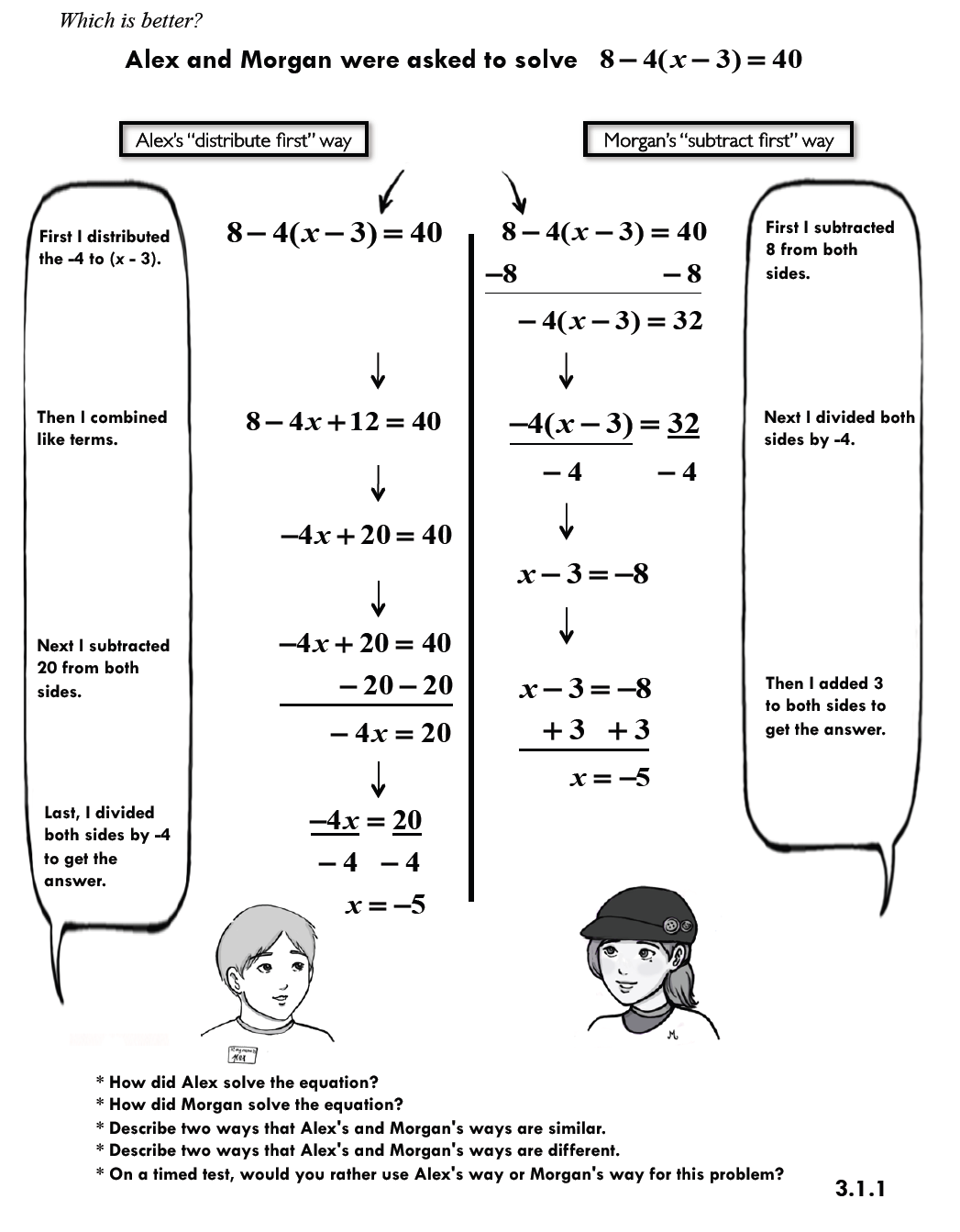
This was an example of asking the question “Which is better?”
Is anyone else excited about this? You’re going to be especially excited when I tell you that there is an entire Algebra 1 curriculum of these for FREE!
These are from a project entitled Using Contrasting Examples to Support Procedural Flexibility and Conceptual Understanding in Mathematics by researchers from Harvard, Vanderbilt, and Temple University.
Here’s a direct link to where you can save these curriculum materials as PDFs. But, I’d suggest taking a look around the rest of their site, too! This study showed that student achievement improved when students were routinely presented with multiple ways to solve a problem. As teachers, we can have a tendency to show our lowest students only a single way of doing a problem for fear that we will overwhelm them with multiple methods. But, our students need to realize that there are many different and correct ways to solve a problem. If we’re not showing them this, we’re cheating them!
I’m excited to look through their curriculum more closely and see what I can use this year! If you find any awesome resources, send them my way!
As one of our facilitators said, “When students are analyzing, they are thinking!”
Another quote I jotted down in my notebook: “Make students into thinkers – not a location for dumping information.”
Chemistry Dilemma
Ahhh! The dreaded mixture problem! Bonnie and Carmen are lab partners. They need a certain mixture of X% acid and Y% water. But, they only have access to a mixture of A% acid / B% water and C% Acid / D% Water. Whatever can they do?
The specific problem we worked is under copyright by the Dana Center, so I can’t post it here. But, I can tell you about how we approached this problem during the workshop.
We were given a blank chart with the following columns
Amount of Mixture A
Amount of Mixture B
Amount of Acid in New Mixture
Amount of Water in New Mixture
% of New Mixture is Acid
% of New Mixture is Water
Acid/Water Correct Mixture?
Since we needed 5 ounces in our example problem, we first tried out 1 ounce of Mixture A and 1 ounce of Mixture B. We used percents and multiplication to find the new amount of acid and water. Then, we divided by the total number of ounces to calculate the percentages of acid and water in the new mixture. In the last column, we had to decide if we had too much acid or too much water and adjust accordingly.
In our example, we ended up with too much water, so we tried a different break-up of the 5 required ounces. We repeated and repeated and repeated the process. Eventually, we discovered that 4 ounces of Mixture A gave us too much water in our final mixture. 5 ounces of Mixture A gave us too much acid in our final mixture. Therefore, we needed somewhere between 4 and 5 ounces of Mixture A, and we went from there.
It was a ton of work to work the problem out this way, but I think it would really help students to see how the process works. I’ve never actually done mixture problems with my students before. They’re not tested, so I’ve always conveniently skipped over them. The presenter said that she used to teach her students how to set up the system of equations, but they never really understood where the numbers in the equations were coming from.
You definitely wouldn’t work every mixture problem out this way. That would be insane! But, doing the process once should help students visualize the process and better understand why a system of equations can be used.
I can also see myself using this as a quick review of percents/proportions/decimals/etc. Then, revisit the problem when you get to systems.
Casey’s Quesadillas
The last problem of Day 1 was Casey’s Quesadillas from The Dana Center’s series of Geometry Formative Assessments. Casey has a map of downtown. He draws a circle on the map of where he would like to advertise his food truck. Rewrite the equation of his circle in vertex form. Decide where Casey should place his quesadilla cart. It then proceeds to review the meaning of radius and the distance formula.
I can see myself using this activity in Algebra 2 during our unit on conic sections. It reminds me of Dan Meyer’s Taco Cart.
Homework
Our homework assignment included completing a series of Short Tasks from MARS (Page 2 of this pdf.) This was easy and straight forward. Then, we were to complete a task from the Balanced Assessment in Mathematics Project called Three Circles.
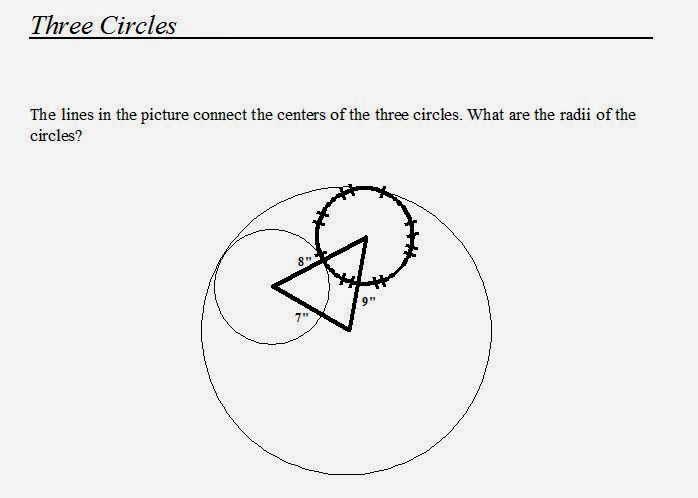
This one took a bit of thinking! At first, I was sure that they hadn’t given us enough information. But, I was soon able to set up a system of equations and solve for the radii. Great problem!
You can find this task from the Balanced Assessment Program here.
June 26, 2014 – More Common Core Resources
Hope you are finding the resources I’ve been posting from the Oklahoma Geometry and Algebra Project to be useful/inspiring/helpful.
Advice: “If it’s not about the students, just say NO!”
The most valuable classroom time is the very beginning and very end of class. Sadly, these are also the most wasted times.
Recommendation: Use Exit Tickets to maximize end of class. And, use Tickets In The Door to maximize the beginning of class.
Tickets in the door were a new concept to me. Here’s how they work: give students a short assignment that they must have the next day to enter your classroom. Students who have not completed the assignment cannot enter your classroom until it is completed.
You can use a tool like Remind101 (now just named Remind) to remind students of their upcoming ticket in the door.
“You have to be at least a little bit uncomfortable to be learning!”
Sine Solution
After a quick review of the unit circle, we got out our graphing calculators to work through another activity from the Balanced Assessment in Mathematics Project.
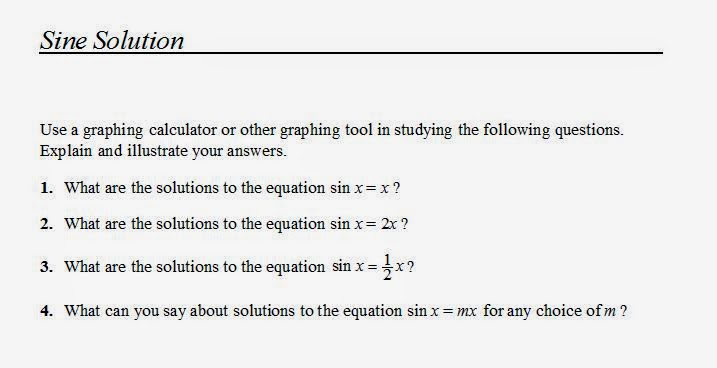 |
| Sine Solution |
The file for this activity and an answer key can be found here. I’ll be teaching trig for the first time this next school year, and I’m excited to use this activity in that class! I’m sure my students will be shocked to realize that the answers to 1-3 are all the same! Should lead to a great conversation about why…
Formulas and Function Notation
The next activity we worked through was an example of how we could take something we were already doing in our classroom and raise the rigor of the activity. For example, we expect our Algebra 1 students to be able to rearrange literal equations to solve for any variable. A typical problem would read: “Solve the formula C = 2*pi*r for r.” Not exactly exciting.
To step these problems up a notch, we were asked to write the equation for the area of a circle as a function of its circumference. Or, write the equation for the area of a circle as a function of its diameter. Another: write an equation for the volume of a cube as a function of its surface area.
As we sat and worked through these problems, we really had to think. Were these super hard questions? No. But, as teachers, we can get so used to always approaching something a certain way that it can take a minute to reorient yourself when a question is asked differently. We weren’t just going through the motions and solving for a single variable. Instead, we had to look at both equations, see what they had in common, determine which equation to solve for that common variable, then plug the result into the other equation.
Paragraph Function
There are tons of ideas out there on the Internet for data collection activities for linear, quadratic, and exponential functions. But what about rational functions? Those are rare!
This activity comes from a collection of data collection activities for an introductory physics class. You can find this file here. The same publishing company that made this file available for free has some other files online that may be of interest.
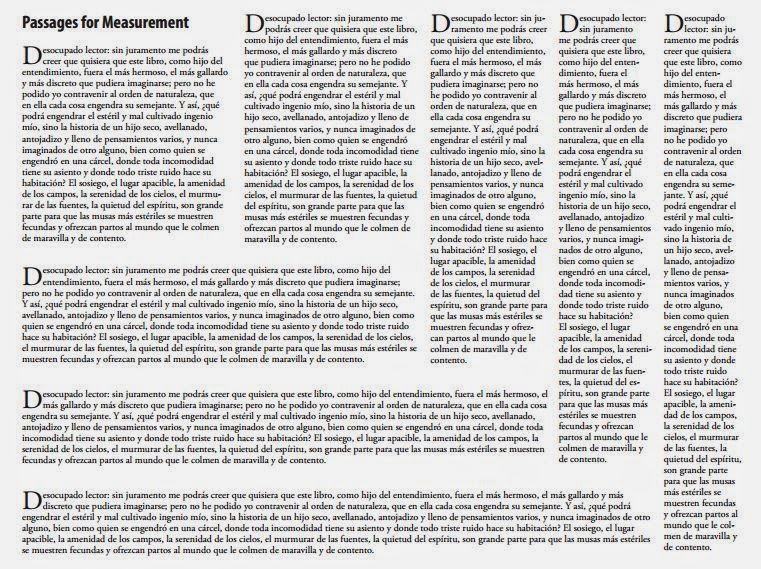 |
| Paragraph Functions Activity |
The activity begins by giving students this page of paragraphs to measure. Ask students: what is constant on this page? What is changing from paragraph to paragraph?
Measure the width (x) and length (y) of each paragraph. Record your data in a table and create a scatter plot. Predict the mathematical model that would best represent this data. Find a regression equation that models this situation. Why is this appropriate?
To be honest, my unit on rational functions has always been BORING. I’m hoping that my students will be able to see why this must be modeled by a rational function. After all, would it ever be possible to have a width of zero? Can’t wait to try this out with my students! (Plus, it also fits in some much needed measurement practice. My students are the WORST at reading rulers.)
I Really Gotta Go!
After working through some basic constructions, we moved on to an activity called I Really Gotta Go!
We received a paper that had three points, labeled A-C, and these instructions: There are 3 playground areas in the park indicated by A, B, and C. The recreation department wants to place restroom facilities so the will be an equal distance from each playground. Show where the restroom facilities will be located.
I had trouble with this activity. I bisected each side of the triangle, but I wasn’t sure what to do afterwards. One of my tablemates was able to show me what to do next. Geometry really is one of my weak areas. I haven’t really needed to do geometry since I took the class in the 9th grade!
Too Hot to Handle
The last activity of the day was from NCTM Illuminations. It’s called Too Hot To Handle.
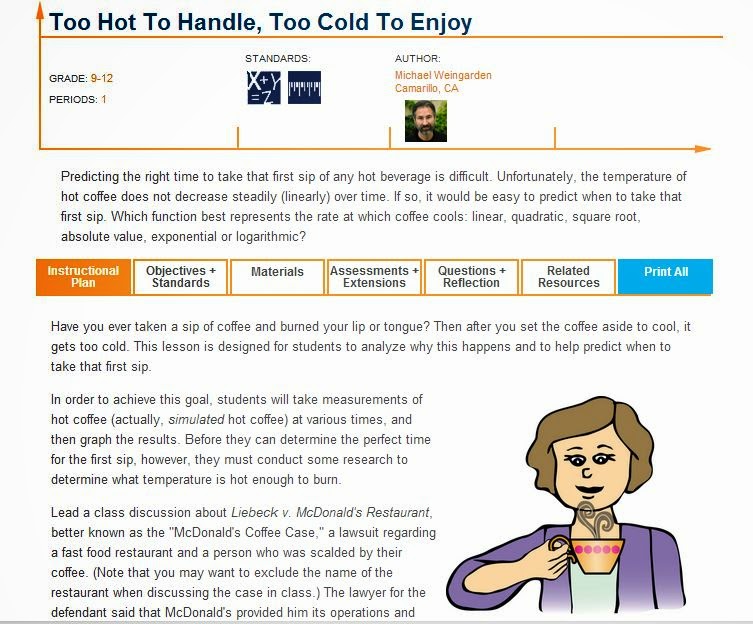 |
| Too Hot To Handle |
You can find all the resources for this activity here. Because we were running out of time, we had to slightly modify our data collection. We put the thermometer in the water, removed the thermometer, and recorded the temperature every 10 seconds. The actual activity calls for you to leave the thermometer in the water and record the temperature every 3 minutes.
It was suggested that you could have your students research several of the questions from the worksheet packet before doing the project. They could even be a ticket in the door! For example, have students research “What temperature is considered scalding? or “At what temperature is it safe to take the first sip of coffee?”
Gligs and Crocs
One of our homework problems was a task called Gligs and Crocs from the Balanced Assessment in Mathematics Project.
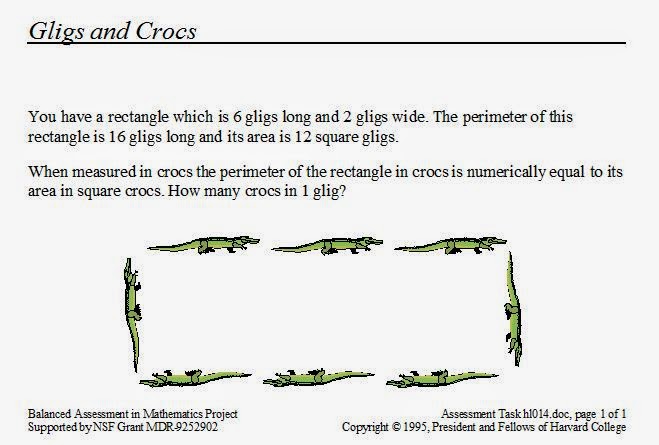 |
| Gligs and Crocs |
You can find the file for this activity as well as an answer key from the Balanced Assessment website. This problem was a fun little challenge. My first attempt at working out this problem did not go well. But, I regrouped, tried a different approach, and succeeded. This is one of those problems that doesn’t have a pretty answer. But, I should give my students more problems with messy answers. They shouldn’t immediately think that they got something wrong just because they got a fraction/decimal.
Other Random Notes
Website Recommendation: Inside Mathematics
Ask Students: “What’s your takeaway for the day?”
If you’re using technology to replace student thinking, that’s inappropriate!
If using technology encourages student thinking, that’s appropriate!
Technology doesn’t have to plug in or have a battery.
June 29, 2014 – Blessed – Reflections on Ann Voskamp’s One Thousand Gifts
If you read my ramblings regularly, you know that I’m a reader. I love everything about reading. Books. New books. Old books. Fiction. Non-fiction. E-books. Physical books. Textbooks. Math books. Shopping for books. Shopping for more books. Rearranging my bookshelves. (I have four.) Attacking the page with highlighters, colored pens, and sticky notes close at hand. (I blame college for this habit. Before college, I thought it sacrilegious to mark in any book other than my bible. Ironic, right?) Those mixed feelings you get when finishing a book–when you’re excited to be done but sad at the same time. The simple act of flipping through the pages in a book. Sharing favorite books with others.
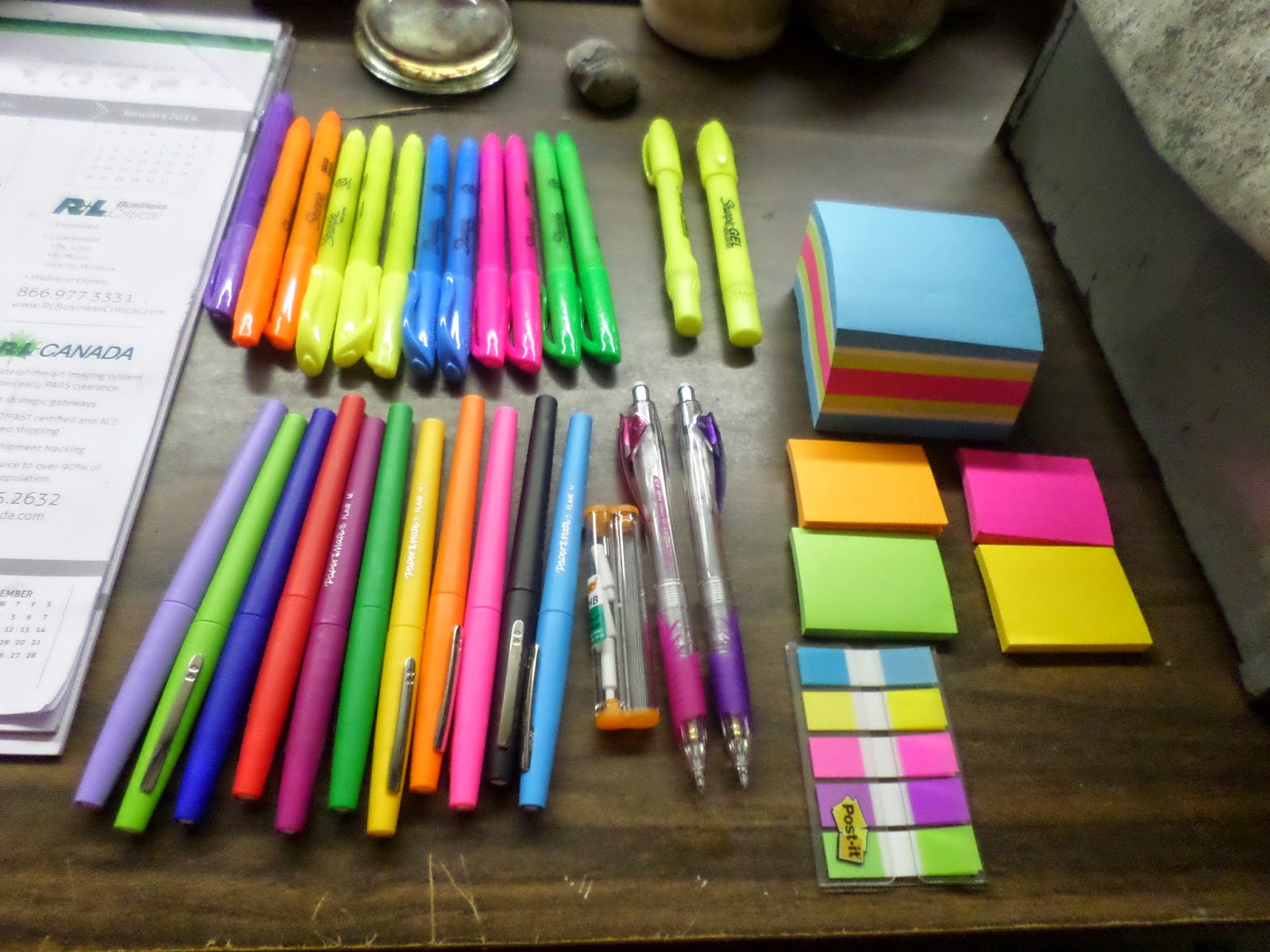
My sister tells me I’m crazy. Normal people don’t need this many supplies to read.
2014 has been the year of reading. Today, I finished book number 66 of the year. It was a book given to me by one of my mentors during my senior year of college. I just got around to reading it today, two years after graduation. Better late than never.
This weekend also saw the start of another book. This is a book I picked up several months ago at Mardel when it was on sale for $5. I’ve read such good things about it in the blogosphere. And, I have not been disappointed.
The author writes about her journey to live a life that embraces grace, thanksgiving, and joy. Though life’s circumstances are not always ideal, she starts writing a list. A list of one thousand gifts. One thousand things to be thankful for. One thousand things to praise God for. One thousand moments in time. Fleeting moments that should be savored. Moments that can too easily pass by without our noticing them. Moments we have to train ourselves to look for.
I haven’t finished the book yet, but I started writing my own list today. My own journey towards recording one thousand gifts. It has made me more mindful of the small things. More present in the moment. Washing dishes wasn’t just another chore on my list of things to do today. It was an opportunity to count blessings.
- The warm glow of the lamp, cascading over the back of the couch.
- Spending the morning snuggled under my “couch blankie.”
- Colored pens, highlighters, and Bible study time.
- A silent house punctuated only by the tick of the clock.
- Birds chirping their little tunes outside my window.
- The flicker of a candle on the kitchen counter.
- Gummy Vitamins
- Warm toast with butter and honey.
- A vase holding a dandelion, plucked from my front yard.
- A smile sparked by soap bubbles wafting through the air.
- Twist ties stored in a tiny, Fiesta pitcher.
- Drinking ice water from a mason jar.
- Sun catchers hanging in my kitchen window.
- The low hum of the hard-working air conditioner in the middle of summer.
- A Saturday morning spent tickling the ivories and singing songs of praise to God.
- Sandwiches cut into tiny triangles.
- Pouring rain and lightning in the distance.
- Napping during rainstorms.
It’s probably too soon to say this, but I think this book and this list might be changing my life. I want to live a life of gratitude and thanksgiving. I want to notice the small moments, filled with blessings. I get so busy during the school year that I miss out on so much. I need to become intentional in my thanksgiving. And, joy unspeakable that won’t go away will surely result. I need to carry this into my classroom. I need to record the tiny triumphs that happen every day. The types of things that can be easily overlooked.
Blessed. Incredibly blessed.
June 30, 2014 – My Wicked Experience
In 44 days and 16 hours, I’m going to have students sitting in my classroom. Where has this summer gone? So far, it’s been lots of training and conferences plus Vacation Bible School. And, I’ve still got a vacation to Colorado, church camp, and more training (including TWITTER MATH CAMP!) slated for the second half of summer!
This past week, I’ve really had nothing planned, and it’s been glorious. I had grand plans of laying out my first unit of the year for Alg 1, Alg 2, and Trig. Yeah… That most certainly didn’t happen. I did open the Algebra 1 book. And, I flipped through a couple of trig textbooks. Like usual, I probably won’t get any new resources created and planned out until August…
I read Carol Dweck’s book, Mindset: The New Psychology of Success. That gave me a ton to think about! I want to re-examine how I start the year to see how I can include some lessons on mindset for my students. I think this has the potential of being a big game changer in my classroom!
I’ve been enjoying this little bit of downtime, though. Sleeping in late. Afternoon naps. Mowing my lawn. Okay – that’s not necessarily a fun thing. I tend to put it off until I start visualizing my neighbors giving me dirty looks when they drive by my house or look out their windows. I got a Fitbit a few weeks ago, so I do get a little more satisfaction out of mowing now – steps!
Thanks to my ever-generous landlord, I got a chance to go and see Wicked last week! It was my first ever theatre experience, and I’m not sure any subsequent experiences will ever be able to live up to it. Kay called me at 3 pm to ask if I wanted to go see Wicked. It was her treat, and she would be picking me up at 4 pm. Short notice, but I didn’t mind. I don’t exactly have a happening social life… After agreeing to go, I had to do a quick google search to see exactly what I’d gotten myself into. Hmmm… A musical based off of the Wizard of Oz. Sounded interesting. Musicals aren’t normally my favorite, but I’m willing to try anything once!
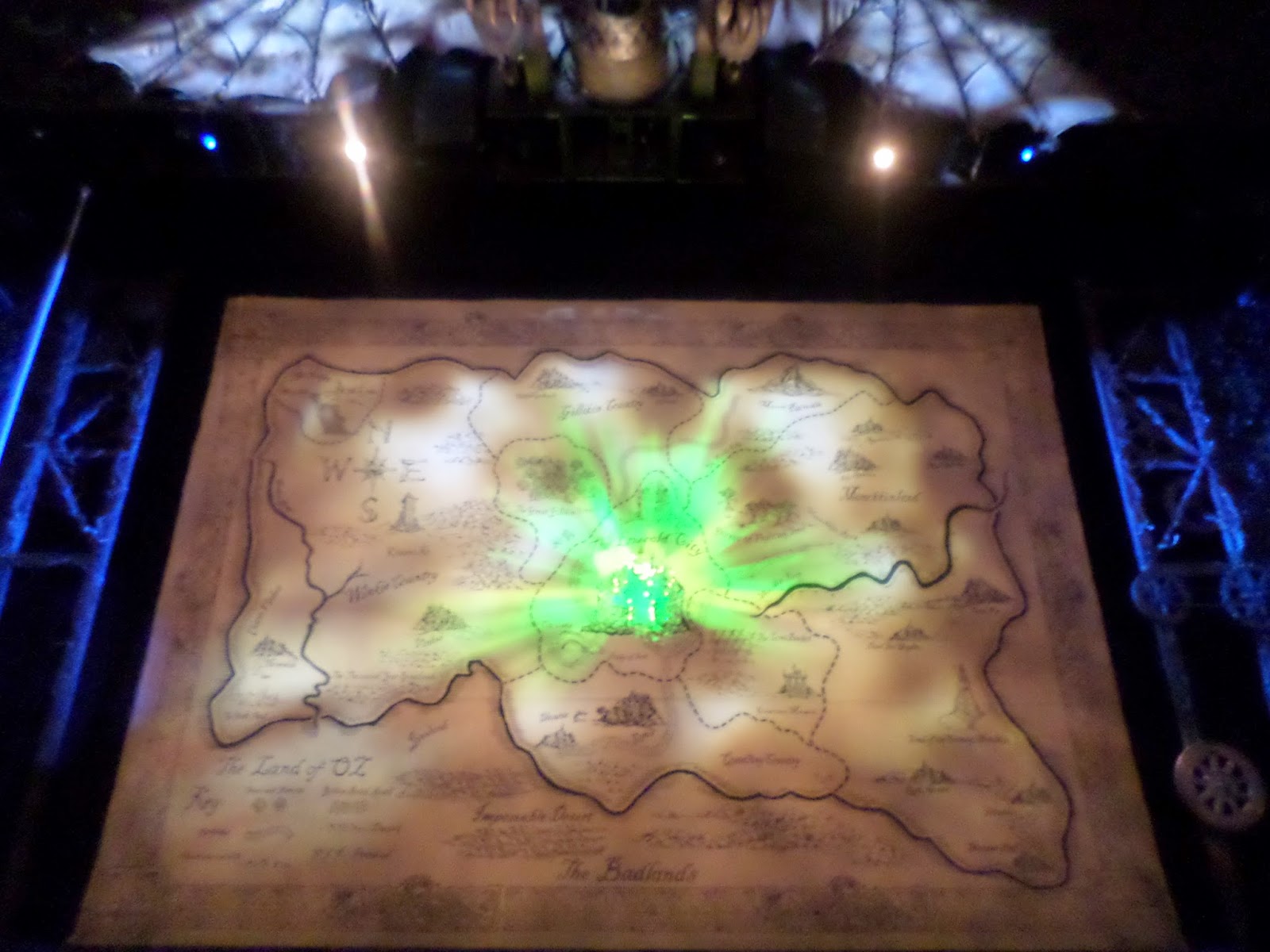
After dinner at Olive Garden in Utica Square, we headed to downtown Tulsa to the Performing Arts Center. Another place I’d never been before. We waited outside for the doors to the theater to open, and we used this as an opportunity to do a little people watching. What I didn’t know when Kay invited me was that she has season tickets to the Broadway shows that come to the PAC. Really, really, really good season tickets. We entered through the orchestra seating doors and kept walking down and down and down and down. Our seats were in the SECOND ROW. Dead center in front of the stage. I’m having trouble finding words to describe how phenomenal these seats were!
Like I said, I’m not sure any experience will be able to top this one. From my seat, I could see the top of the conductor’s head in the orchestra pit. When Elphaba would move her arms, I could see tiny wrinkles forming in her green body suit. When they shot out confetti, it landed in my lap. Yes, they were awesome seats. And, it was an amazing performance. I’m pretty sure I sat there with a grin on my face the entire time. I just couldn’t stop smiling. Whenever I’ve watched a musical before on tv or dvd, I’ve tended to sort of tune out the songs. But, not this time! I loved watching the actors and actresses tell a story through the music. It was cool to watch a story that I know so well play out in a way that I never expected. I laughed a lot.
I’m pretty sure I listened to the Wicked soundtrack in its entirety at least five times in the first two days following my first theatre experience! I’ve fallen in love with these songs in a way that I didn’t think was possible. This one experience may have just made a musical lover out of me.
So, that’s just a little of what I’ve been up to. Expect less posts/no posts this week as I spend this week with my family.
July 10, 2014 – Growth Mindset Quotes
I’m excited to share some growth mindset quotes with you today. I hope you’re not getting tired of these posts of posters I made because I’m nowhere near done with them. I may have overdone it a little this summer when it came to creating new room decorations… But, I spend 8+ hours a day in my classroom, so I think it’s time well-spent. Plus, once school starts, all of my time will be spent on lesson planning and foldable making.
Awhile back, we had an informal discussion on interactive notebooks at the Global Math Department. Elizabeth shared how she incorporates the growth mindset into her interactive notebooks. Every week, she posts a new growth mindset quote on the board. She doesn’t call them this; to her students, it is just a quote of the week. But, the quotes are specifically chosen to evoke a growth mindset instead of a fixed mindset.
Since reading Carol Dweck’s Mindset: The New Psychology of Success, this distinction makes a lot more sense to me.
An individual with a fixed mindset sees failure as defining. Therefore, they will often avoid challenging situations to avoid appearing (and thus being) a failure. Someone with a growth mindset sees failing at something as a step on their journey towards mastering something new. Challenges are seen as fun and exciting. Elizabeth said that she has students record these on the inside cover of their notebooks for a few extra points on their homework grade. She even shares a list of quotes she uses!
I want to take this idea and adapt it for my own classroom. Since reading Mindset this summer, I want to start out the school year talking about the different types of mindsets with my students. I want us to take a quiz and determine out mindsets. Then, I want to create a classroom culture where we (very kindly and politely) call out others for saying something from a fixed mindset. I know that I don’t always approach life with a growth mindset, so I want my students to be watching me, too. And, I’ll be watching them. And, they’ll be watching each other. We will (hopefully) pause and talk about about how we could reword the statement to reflect a growth mindset.
Will it help? I have no clue. But, I’m pretty sure it can’t hurt.
Last year, I posted a quote every week on my dry erase board. I printed and laminated these quotes at the beginning of the year, so all I had to do was switch out the quote on Mondays. I want to take this a step further this year and have my students start recording these quotes in their notebooks. I’m picturing some sort of booklet foldable at the front of their interactive notebooks with lots and lots of rectangular sections. In each section, students will record a quote AND illustrate it somehow. This will be graded when I grade notebooks each unit. Once I figure out exactly how I want the foldable to look, I’ll be sure to post it here!
Anywho, I say all this to introduce my latest poster creations. As I’ve been reading through books this summer, I’ve been copying down growth mindset quotes that I found thought-provoking and inspirational. I recently typed these quotes with lots of fun fonts, and I’m sharing them below. I’m looking forward to including some of these in the growth mindset quote of the week program I talked about above.
Note: Quote Posters Were Moved to this Page of Inspiring Quote Posters.
July 18, 2014 – Vacation Math – Sundae Possibilities
Prepare to gasp, guys. I’ve got something to share today that ISN’T a poster. Shocking, right?
A couple of weeks ago, I went on vacation with my parents and sister. My sister and I had never been to Colorado, and my parents hadn’t been since they were kids. So, Colorado it was. We ended up making a giant circle. Oklahoma to Kansas to Colorado to New Mexico to Texas and back to Oklahoma.
On the last day of our trip, we stopped at Denny’s for dinner. While waiting for our food to be prepared, I decided to glance at the extra menus that were at our booth. That’s when I discovered something exciting. A math problem!
There are more than 80 ways to build your own Sundae.
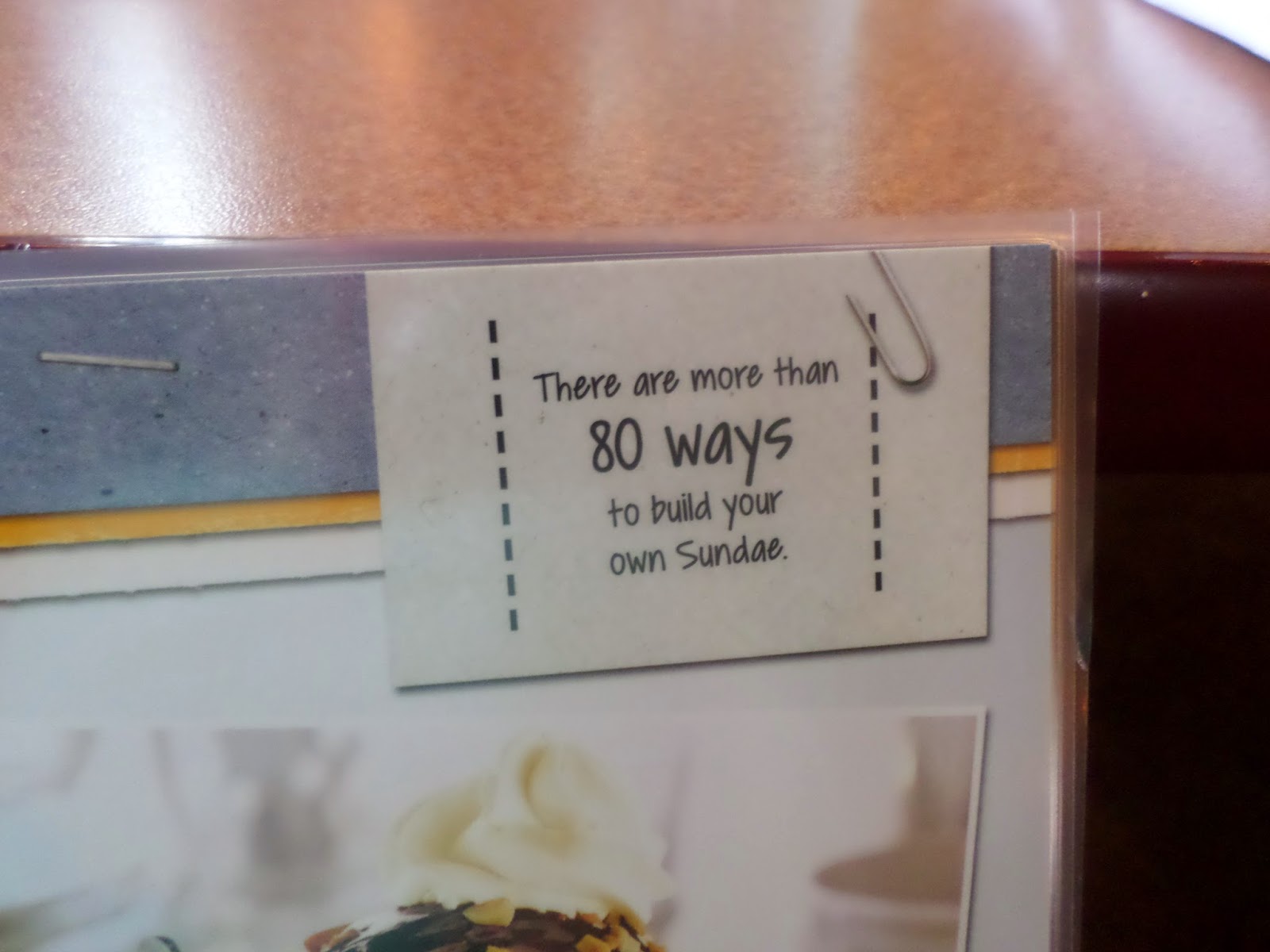
Of course, I had to check out their claim. So, what are the choices for building your own Sundae?
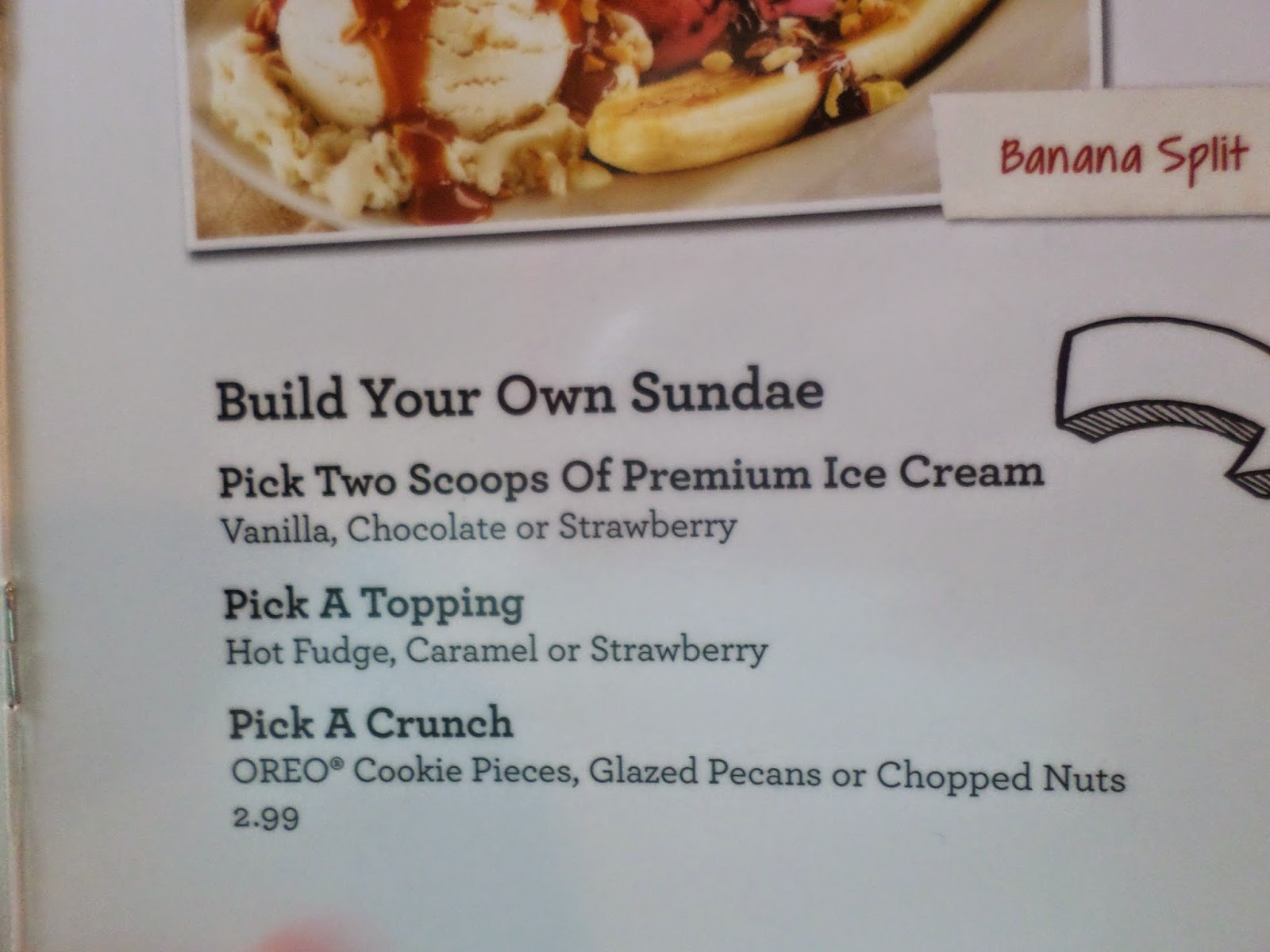
Pick Two Scoops of Premium Ice Cream. There are three difference ice creams to choose from. I count six different ways of choosing my ice cream. VV, VC, VS, CS, CC, SS.
Pick A Topping. There are three different toppings to choose from.
Pick A Crunch. There are three different crunches to pick from.
So, by my math, there are 6 * 3 * 3 ways to build a sundae. This multiplication yields on 54 ways to build a sundae.
Am I missing something? Did I make a mistake somewhere? Or do they really not know how many sundae possibilities there are?
The picture on the menu page showed whipped cream on top of the sundae. This isn’t listed on the options. Adding the possibility of whipped cream or no whipped cream would change my number of possible sundaes to 54*2 or 108. That is more than 80, but I’m not satisfied by that.
July 19, 2014 – End of Year Clean Up: Brilliance and Insanity
These pictures are from May. Yes, I realize it is now July. School starts back way too soon.
This post is proof of both my brilliance and my insanity. 🙂
Brilliant move: have students help with end of school year clean-up. Our last day of school was crazy. First off, it was a half-day. And a third or so of that half-day included our all-school Awards Assembly. On the morning of the awards assembly, I got a call from my principal asking me to make hundreds of awards for the assembly. On the day of the assembly. Talk about stressful!
Luckily, I’d already written a to do list on the board of tasks that needed to get done. While I was busy printing awards, my students got to work on the list. I didn’t even have to ask them. Honestly, I think they were bored out of their minds and glad to have something to do.
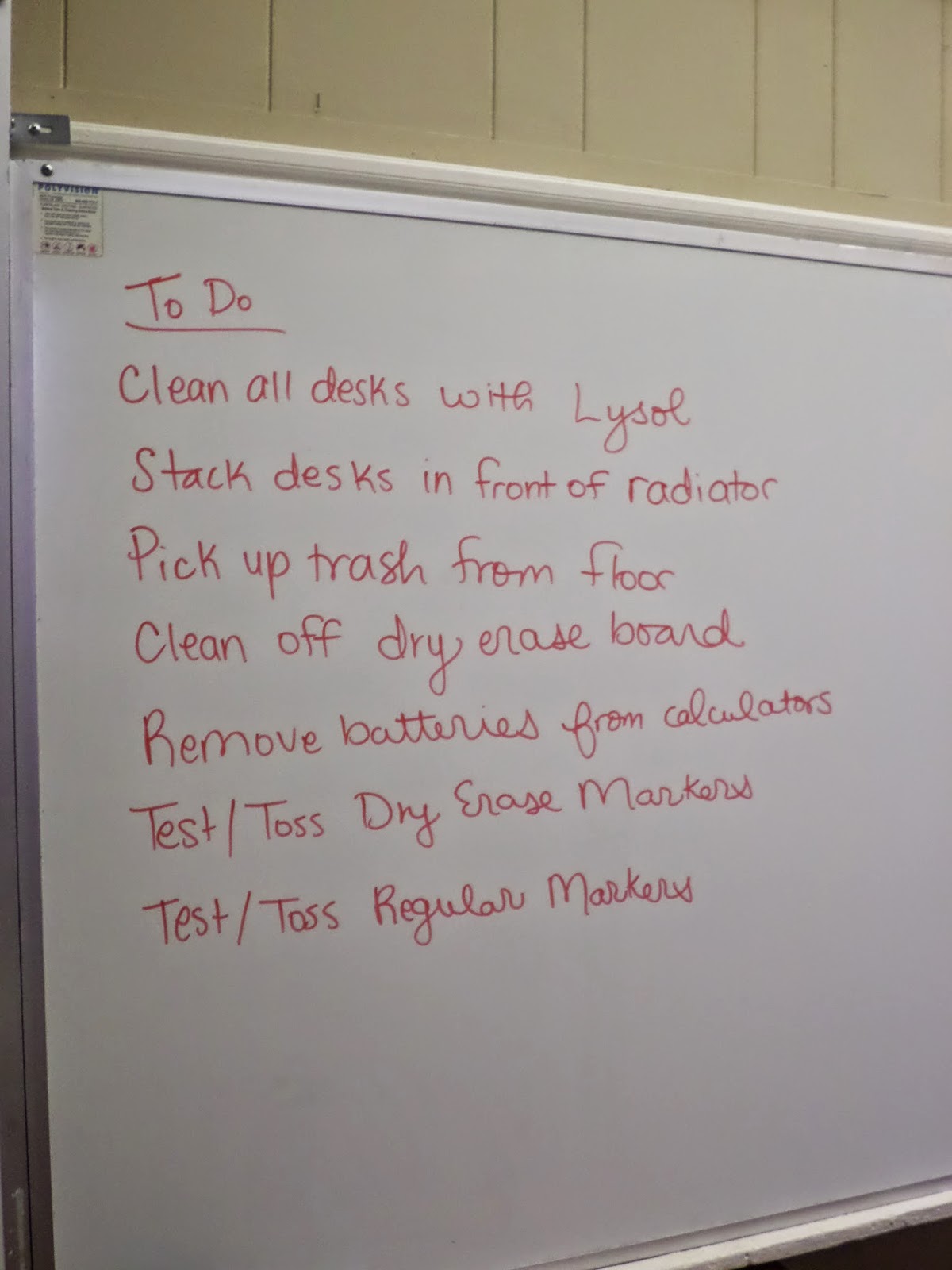
This next picture shows both the nicely stacked desks and my moment of insanity. On our last teacher work day of the year, I decided it would be smart to take EVERYTHING out of my black storage cabinet and set it on the floor.
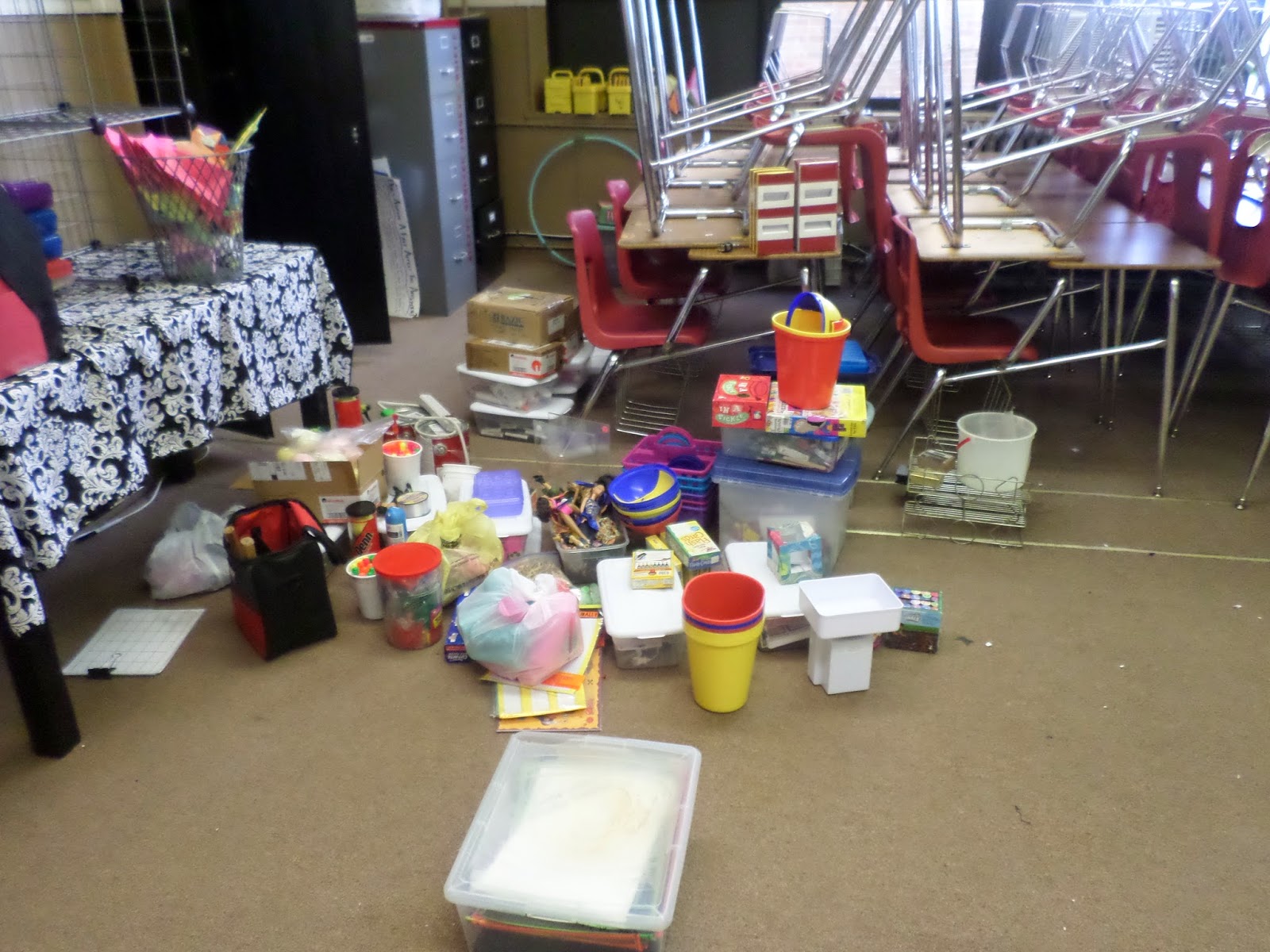
Here’s the cabinet minus everything but my colored paper. That stuff is heavy and a pain to move!
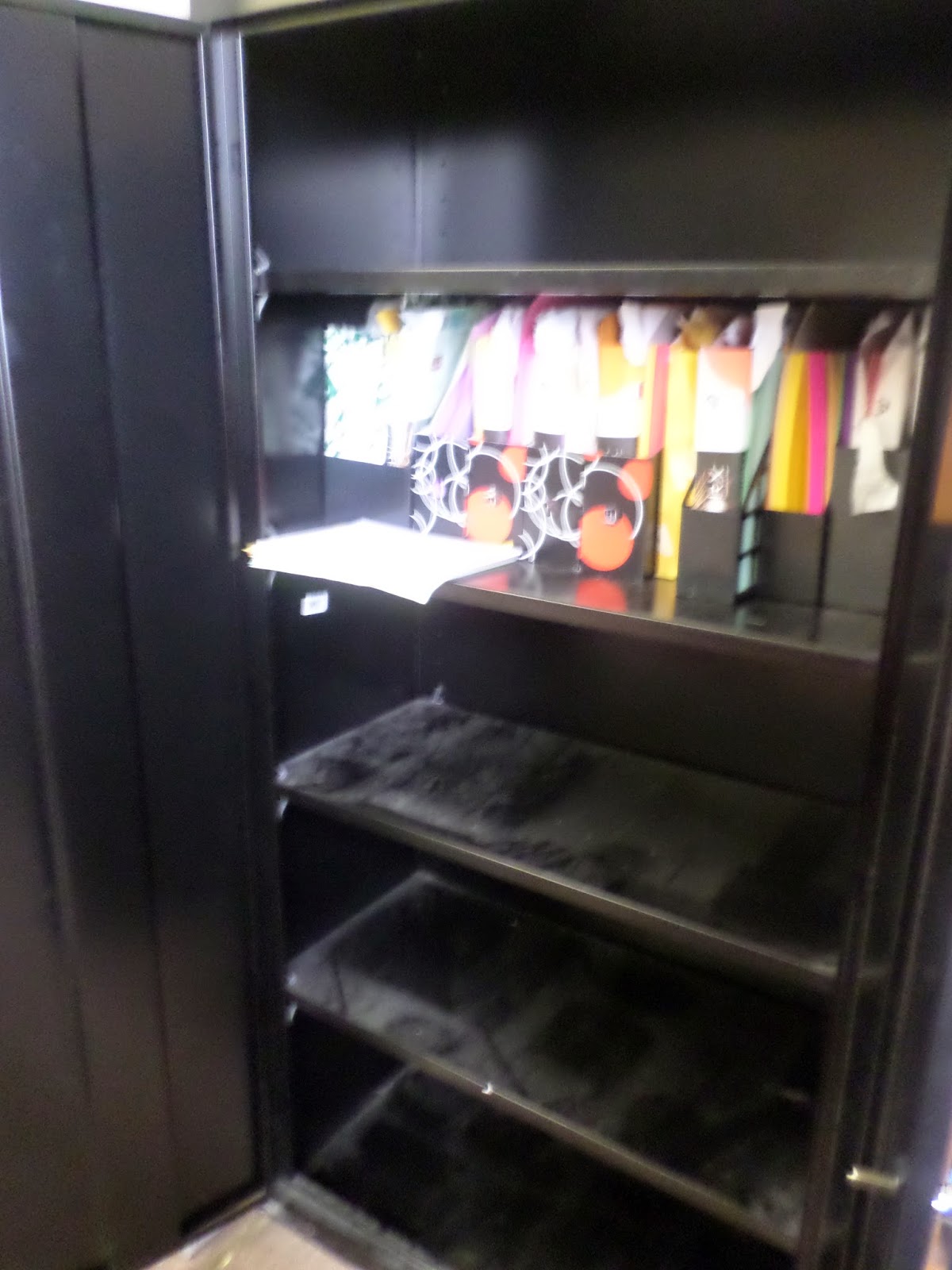
Most of the stuff was pretty easy to put up. But, there’s always those things that you don’t know quite what to do with. For example, where should I store my leis from our Hawaiian themed spirit day? Or my fly swatters for the fly swatter game? As soon as I throw out the old ice cream bucket, I will find something I could have done with it. This was the point where I really started dreading my decision to pull everything out of my cabinet at once!
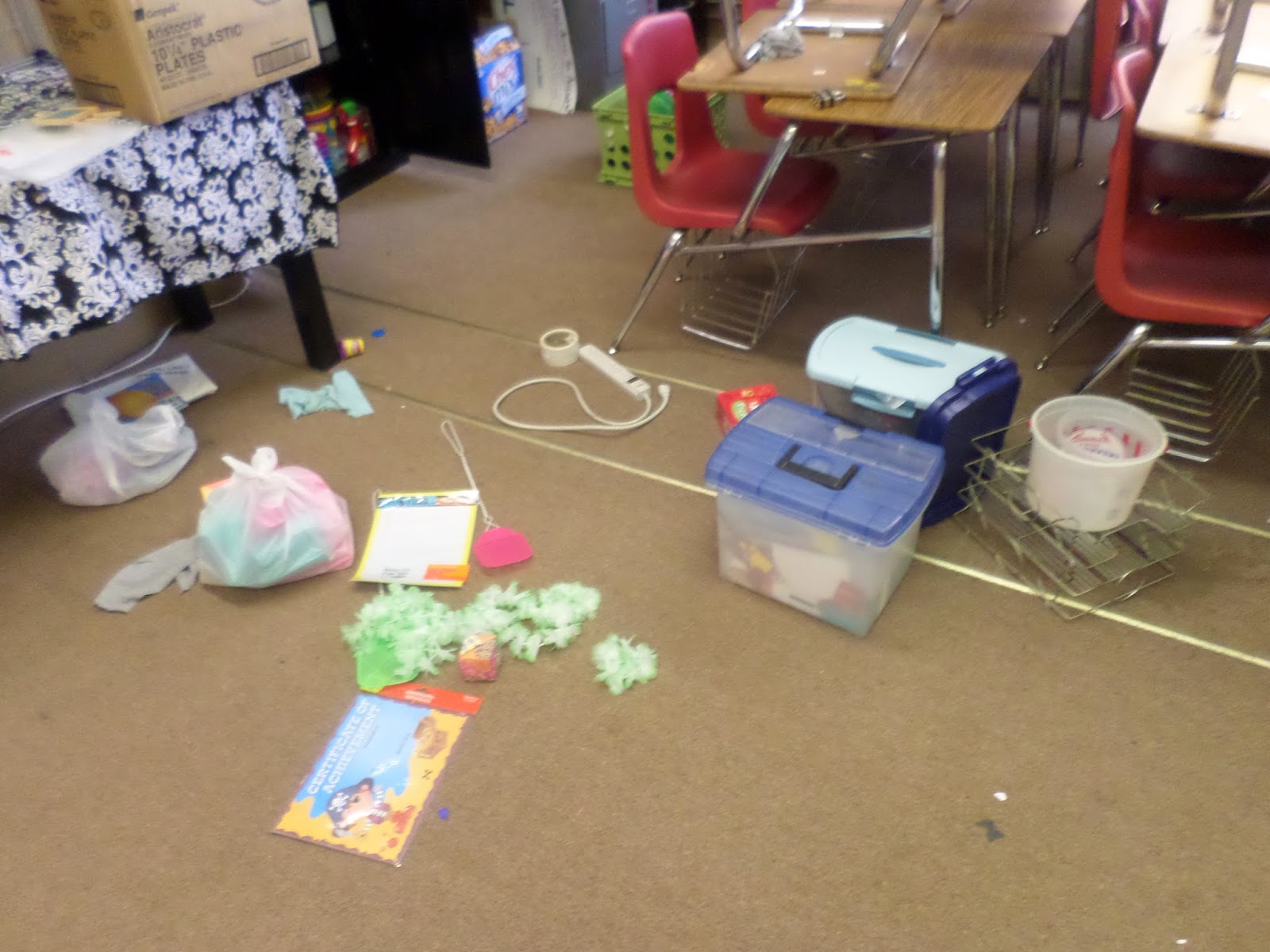
The final results was nice! I don’t think my cabinet has ever been quite this organized.

Of course, after this, I decided to change how I stored my paper which led to even more re-arranging. I post this as a reminder to myself. Getting students to help with classroom chores = good. Deciding to take everything out of your storage cabinet at once = stupid.
Side note: In just two short years of teaching, I’ve accumulated a TON of stuff. Whenever I decide to move, it’s going to be crazy.
July 21, 2014 – Me and My Desk: A Plea for Help
This post has been setting in my drafts for a while now. I’m not sure why I never posted it. So, the date references are all wrong, but I think you’ll be able to follow along. I almost deleted this since it was so old, but I decided to post it as a plea for advice. Keeping my desk organized is a huge struggle or me. So, I want to hear all your tips and tricks for staying organized during the school year. I obviously need them!
—
In high school, I won an award for being the most organized student. I was always the one with the binder full of tabs and sheet protectors. I always had all my needed supplies. And, everything had a place. I’m not sure what happened to me. The other day, a student asked, “Ms. Hagan, why is your desk always so messy?” I just don’t know. When I do clean my desk off, I will have at least five people (coworkers and students) acknowledge how clean my desk is. That’s a sign that it’s quite the rare occurrence.
Last week, I decided that I wasn’t giving any standardized tests on Wednesday or Thursday. So, I was going to make it my goal to clear my desk off before the three day weekend.
I even took a before picture to help motivate myself. After all, then I could look at the after picture and feel so accomplished.
WEDNESDAY MORNING
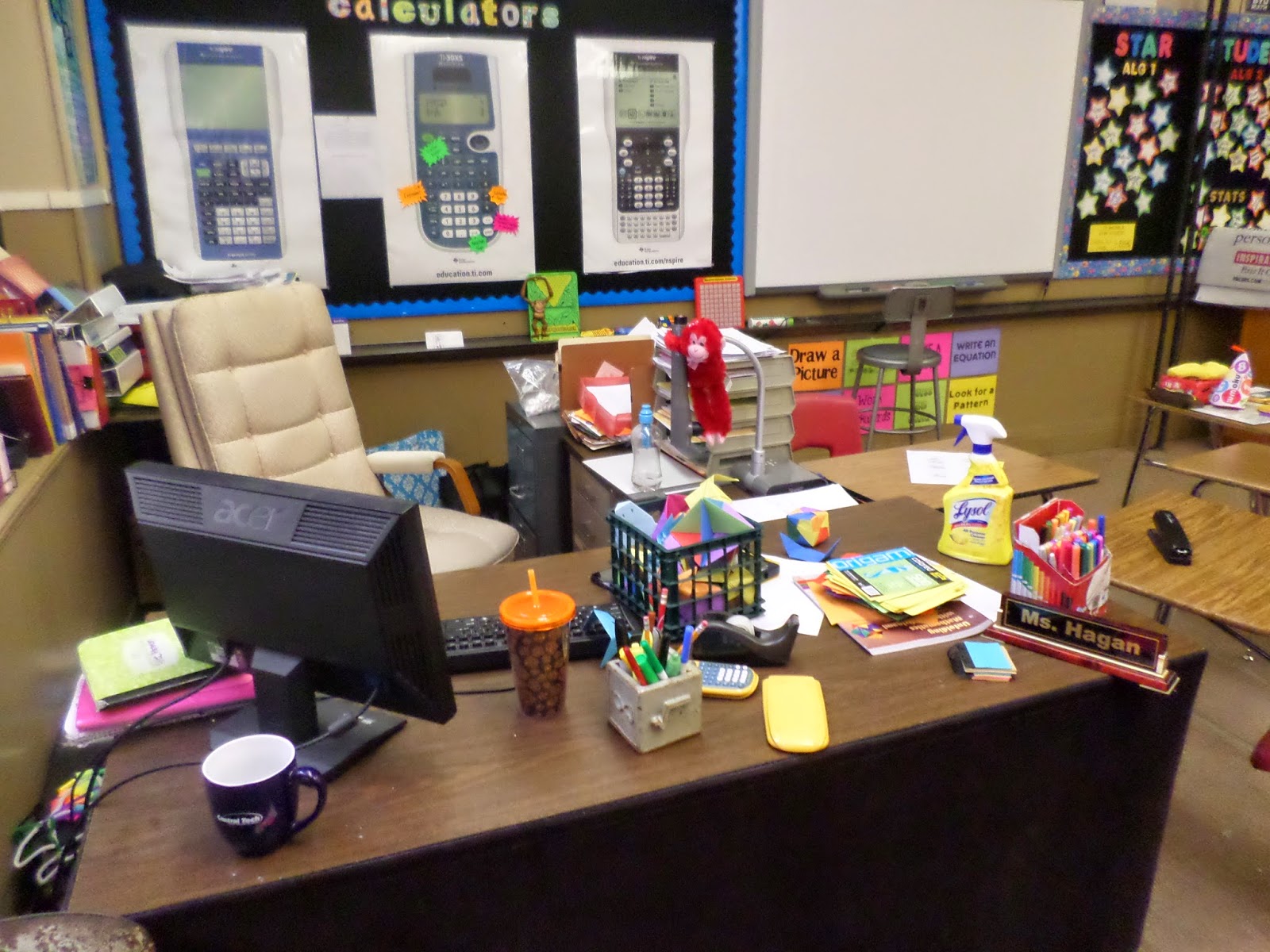
Wednesday afternoon, I got unexpectedly called on to proctor a state test during my planning period.
WEDNESDAY AFTERNOON
(Not Much Better!)
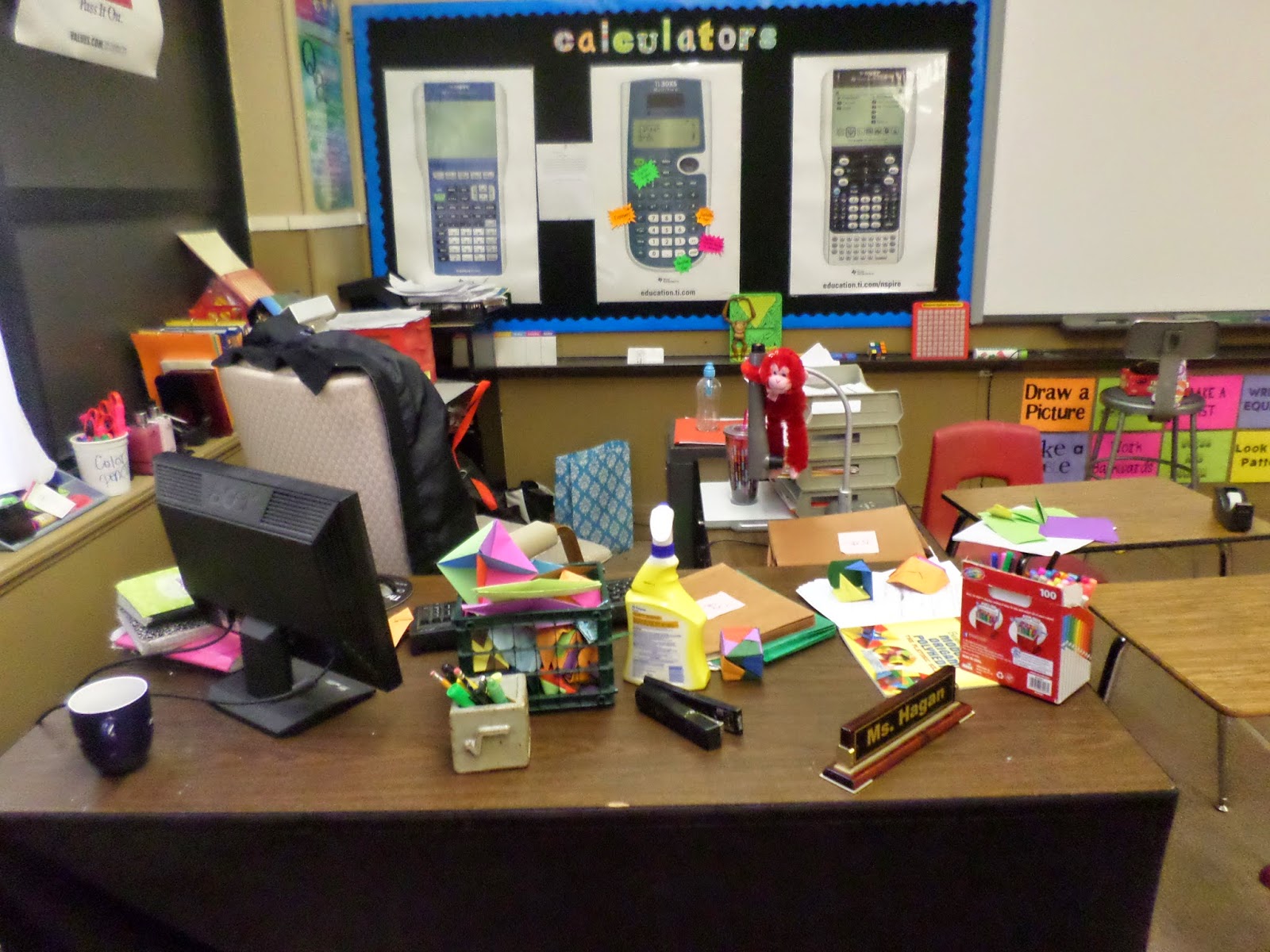
So, Wednesday didn’t end in a clean desk. There’s still Thursday, though. Hope lives on!
THURSDAY AFTERNOON
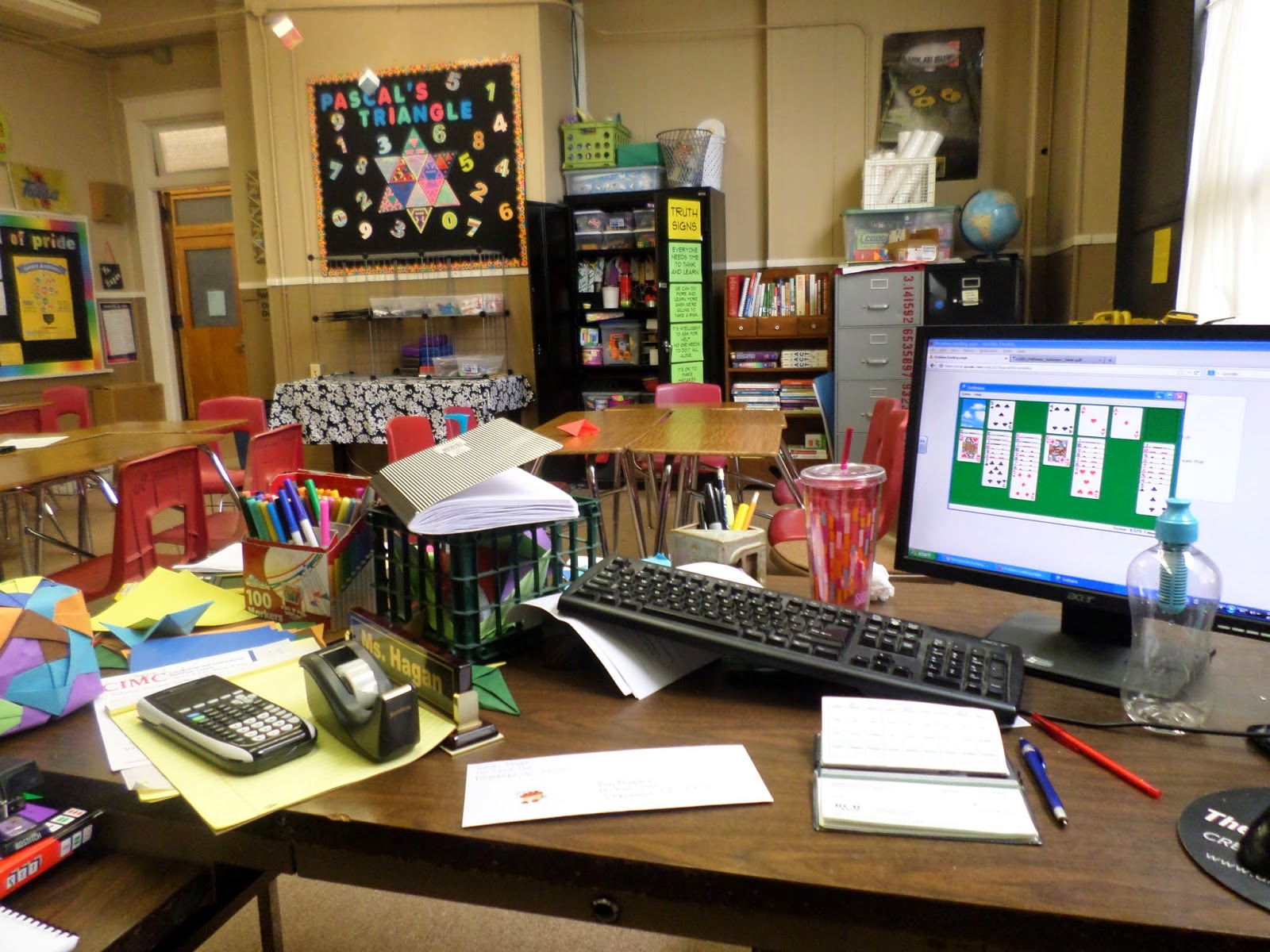
What a great after picture, right? A clean desk should not be this hard.
Why am I showing you pictures of my messy, unorganized desk? This is a plea for help, guys. I promise. I don’t want my desk to look like this.
I much prefer for it to look like this:

So, how do you keep your desk clean? How do you stay organized?
July 24, 2014 – Student Created Slope Pages
This year, I was feeling a little uninspired when it came to creating notebook pages over finding slope in Algebra 1. We’d done lots of practice. And, most students seemed to grasp the concept. Since my students had watched me make notebook pages for an entire semester, I decided it was their turn. I split each class up into 3 groups and assigned them each a different way of finding slope – from a graph, from a table, and from two points. I told each group to decide what their classmates needed to glue into their notebooks, and I would make it for them. I gave them one 50-minute class period to design their notebook pages, and all three groups presented their pages during the next 50-minute class period.
Part of me hated this because I’m very controlling over what students put in their notebooks. What if they do it wrong? What if it’s not clear? But, at the same time, this would give me a grasp of what my students understood. This was an eye-opening experience in that it really made me consider the vocabulary I use and accept during class. Some of the descriptions in the notes were not as precise as I would have liked them, but students were simply repeating things they had heard others say. I didn’t correct the students, so it’s my fault. I need to attend to precision myself.
Quotes heard during group presentations of notebook pages:
“Turn in your teaching licenses!”
“I’m retiring.” – Said after a group had trouble getting the class to stay on task during the notes they were giving. Now they know how I feel!
I’m not sure if I’ll do this again or not…
While grading notebooks, I decided to take a few pictures of what they came up with:
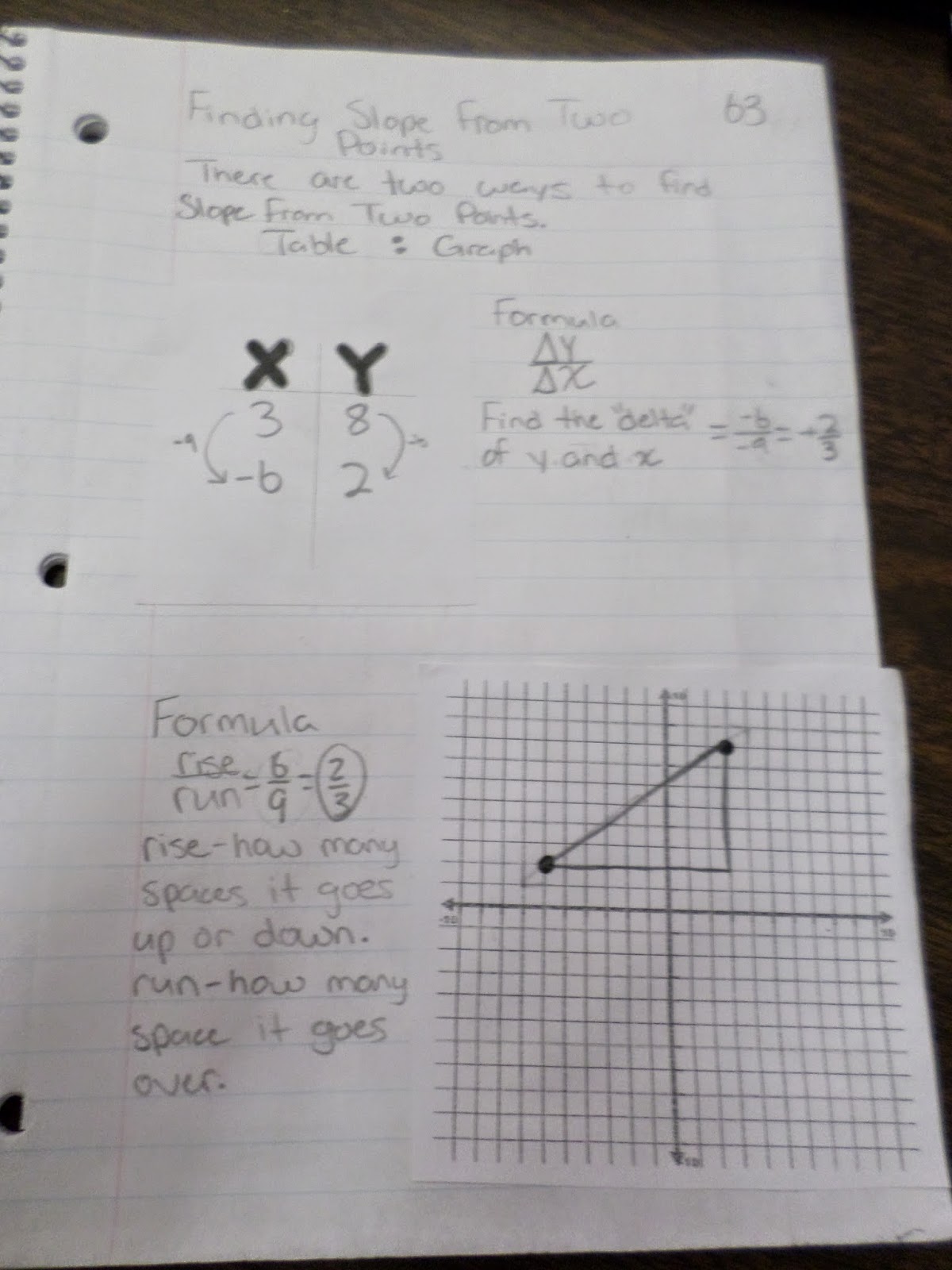
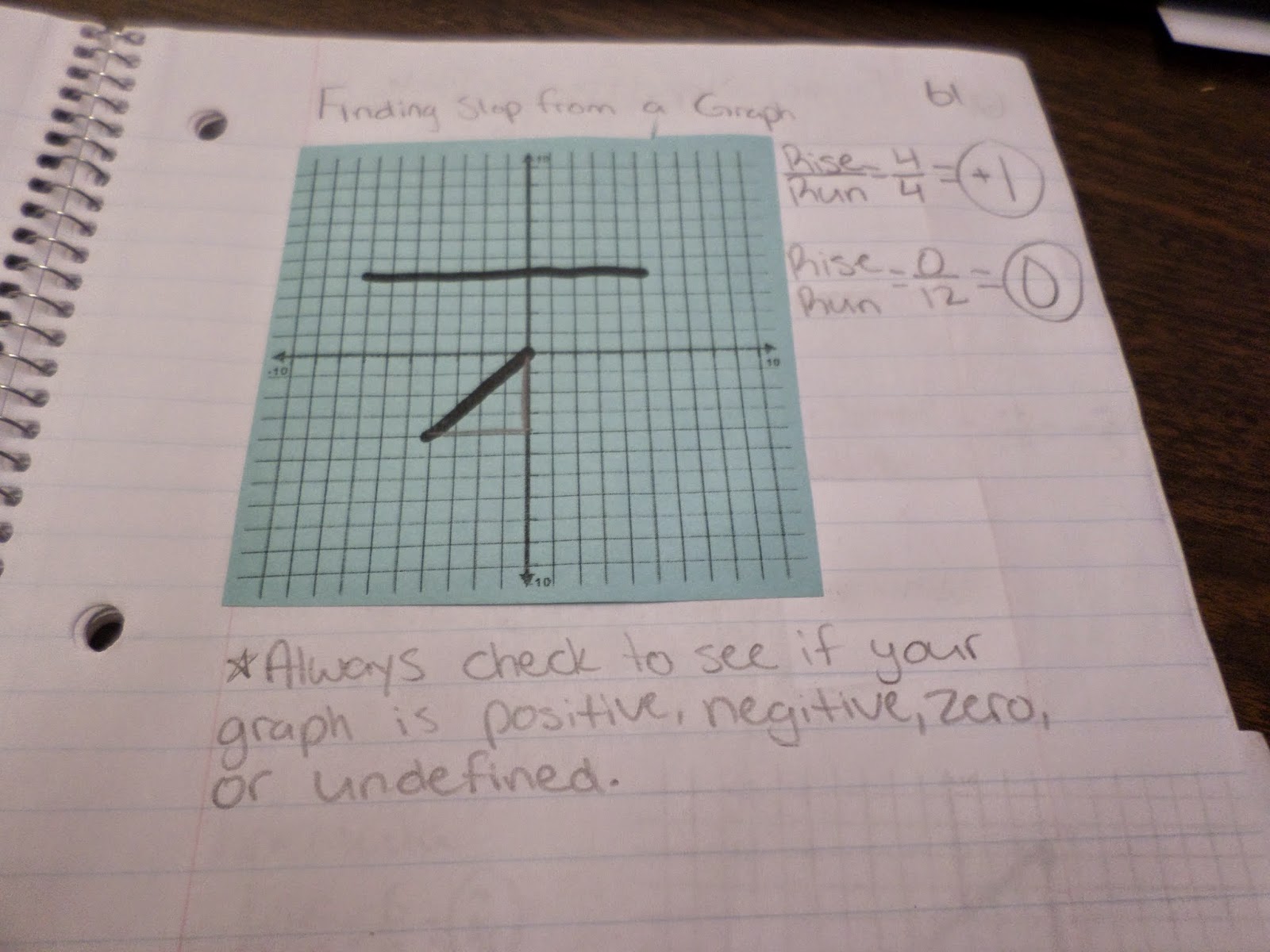
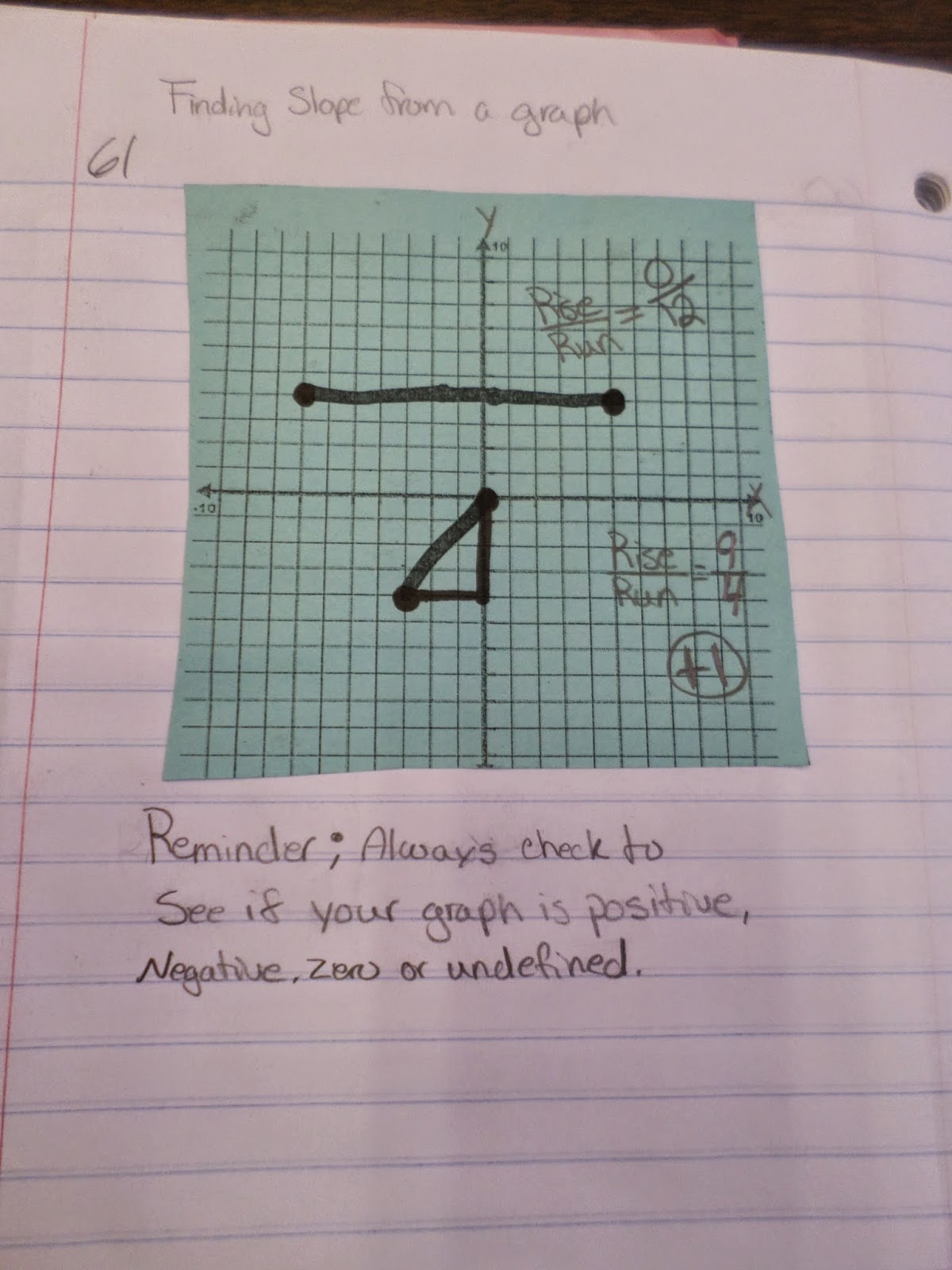
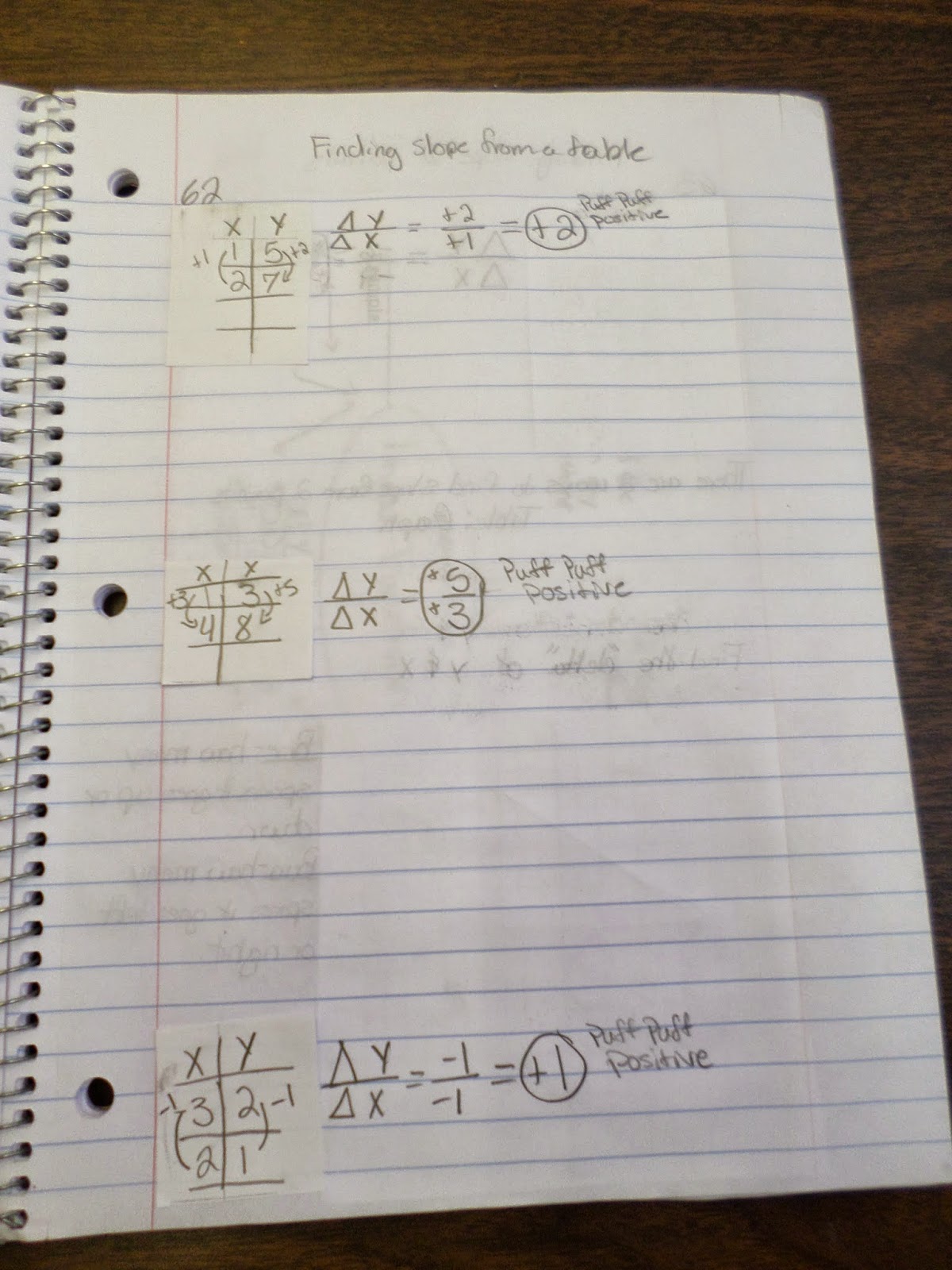
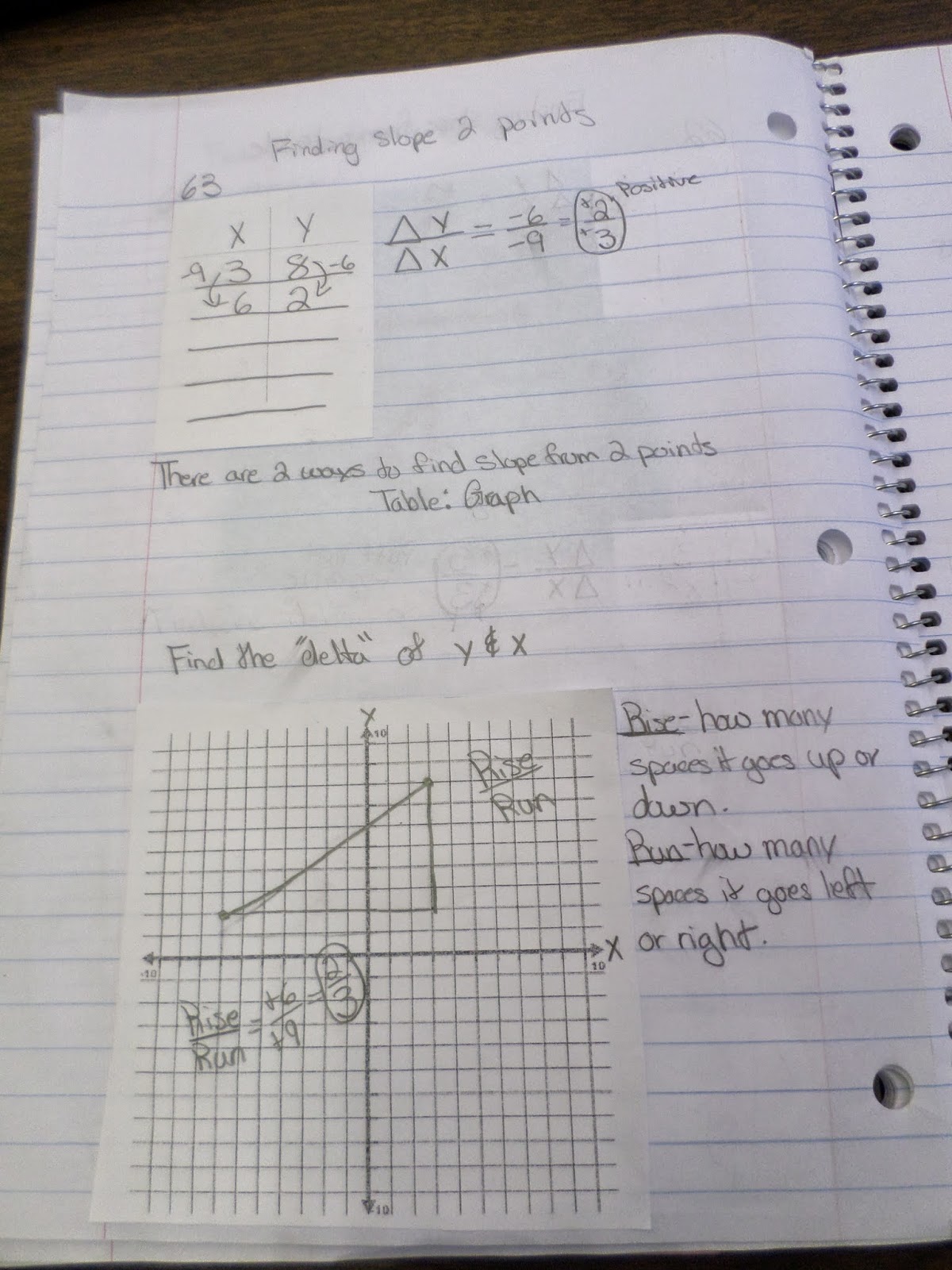
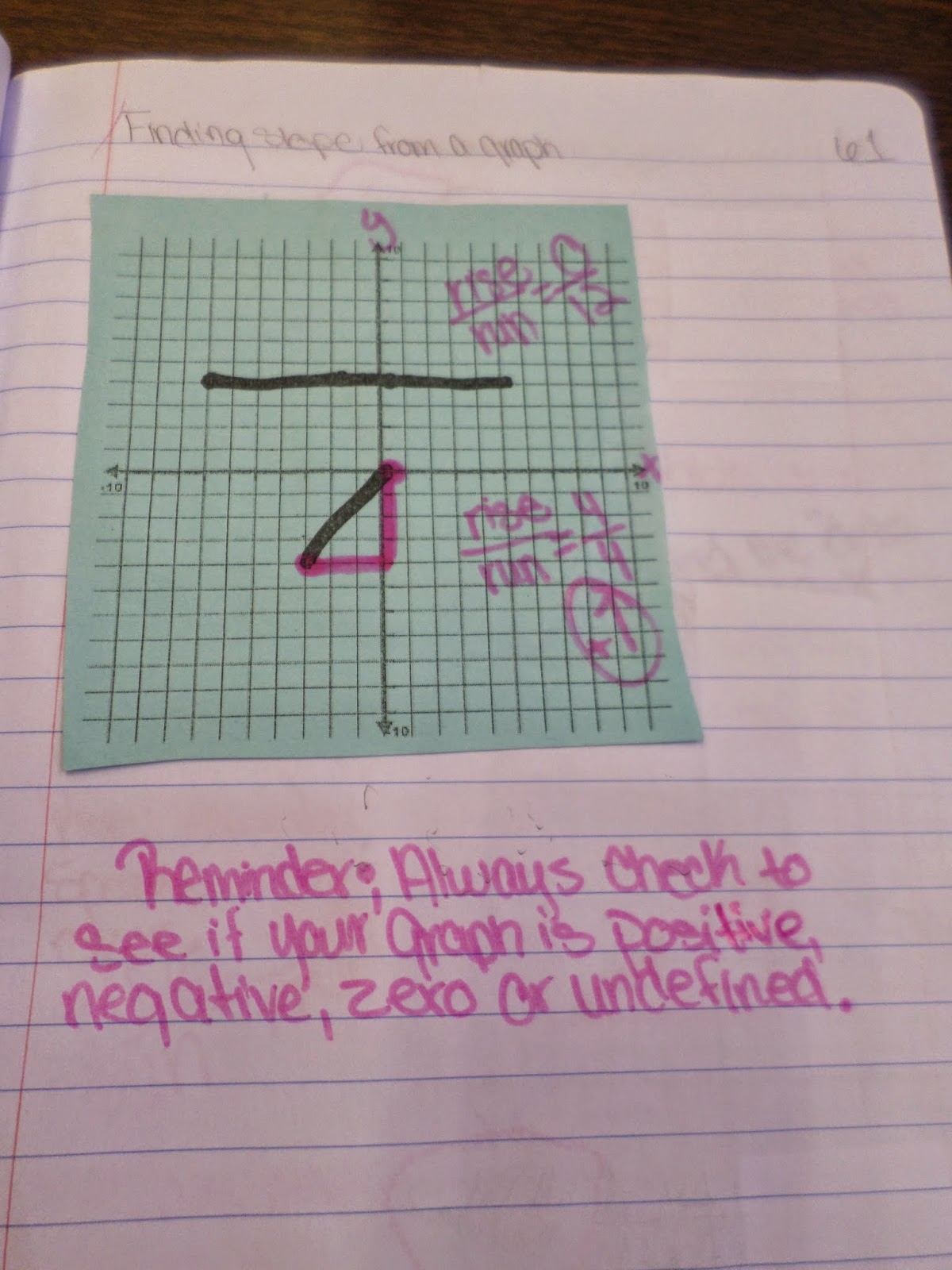
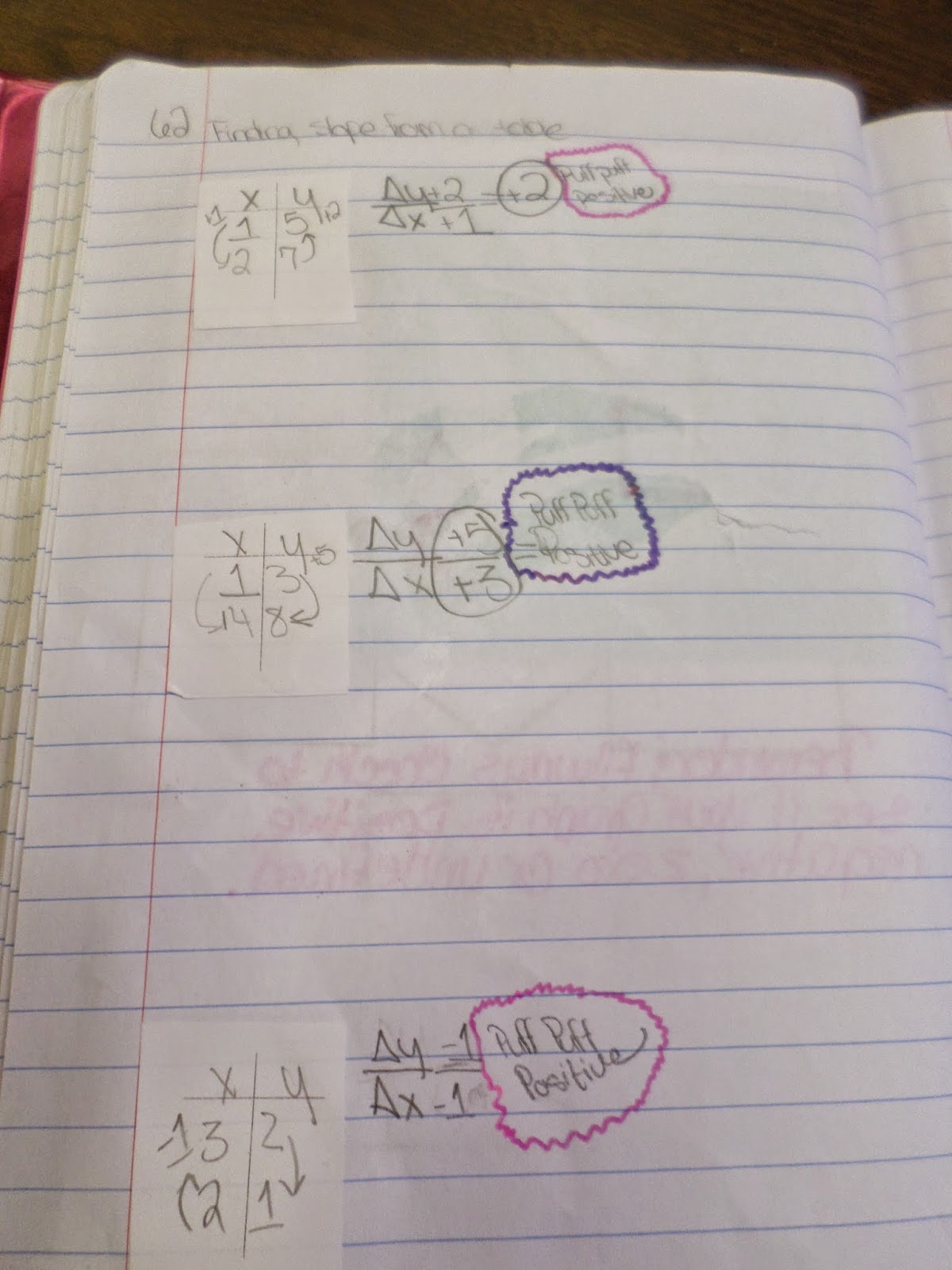
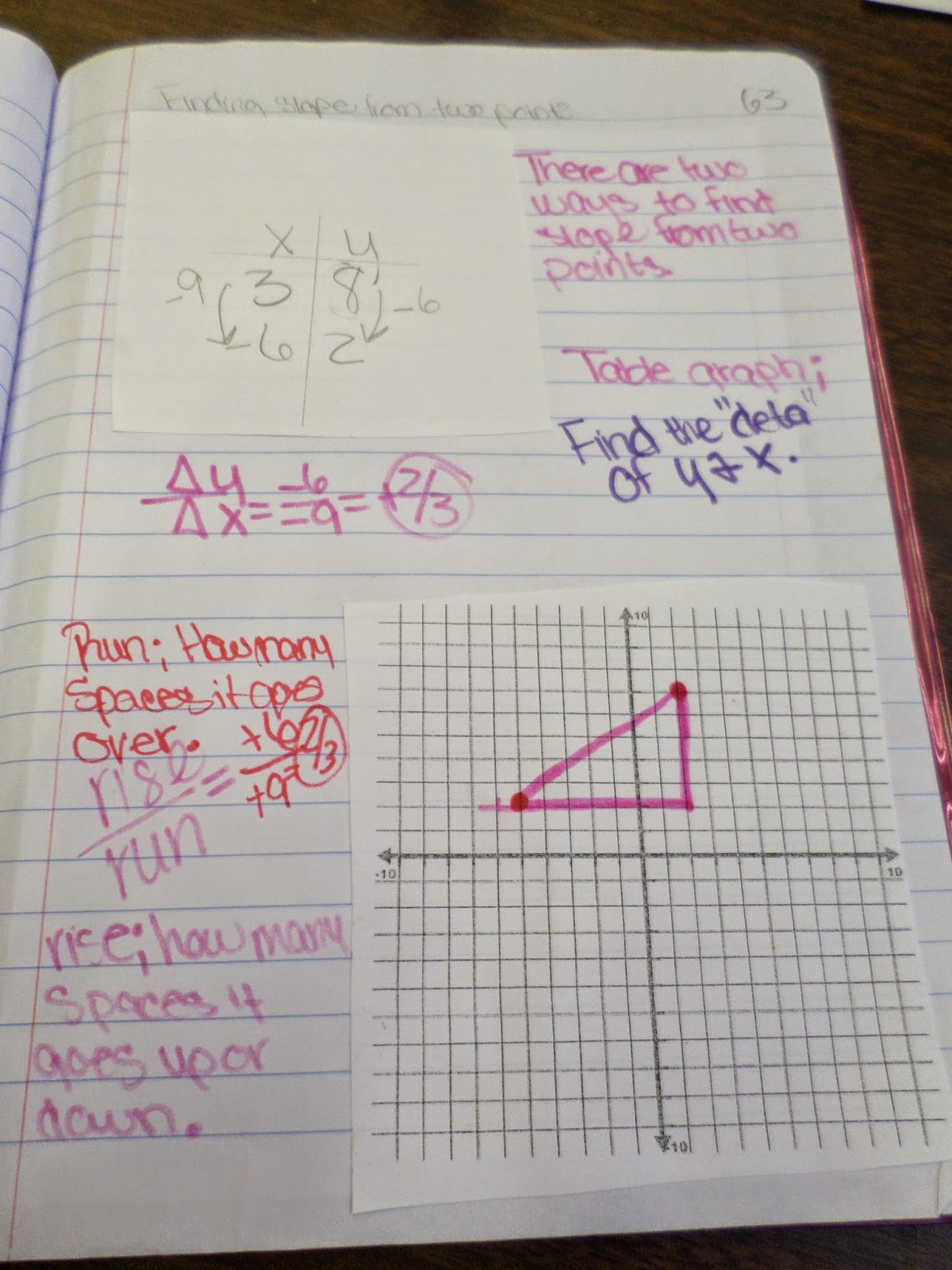
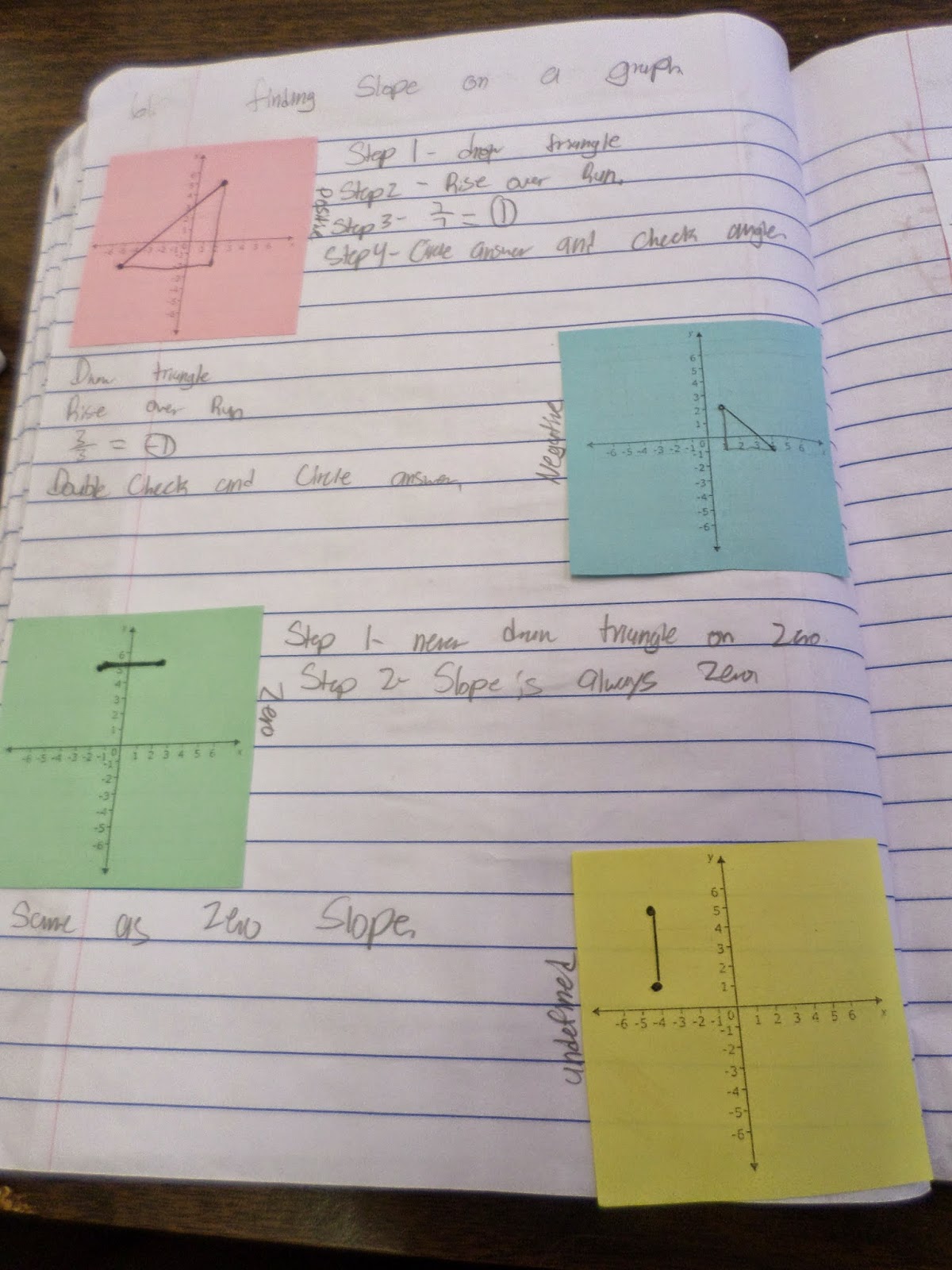
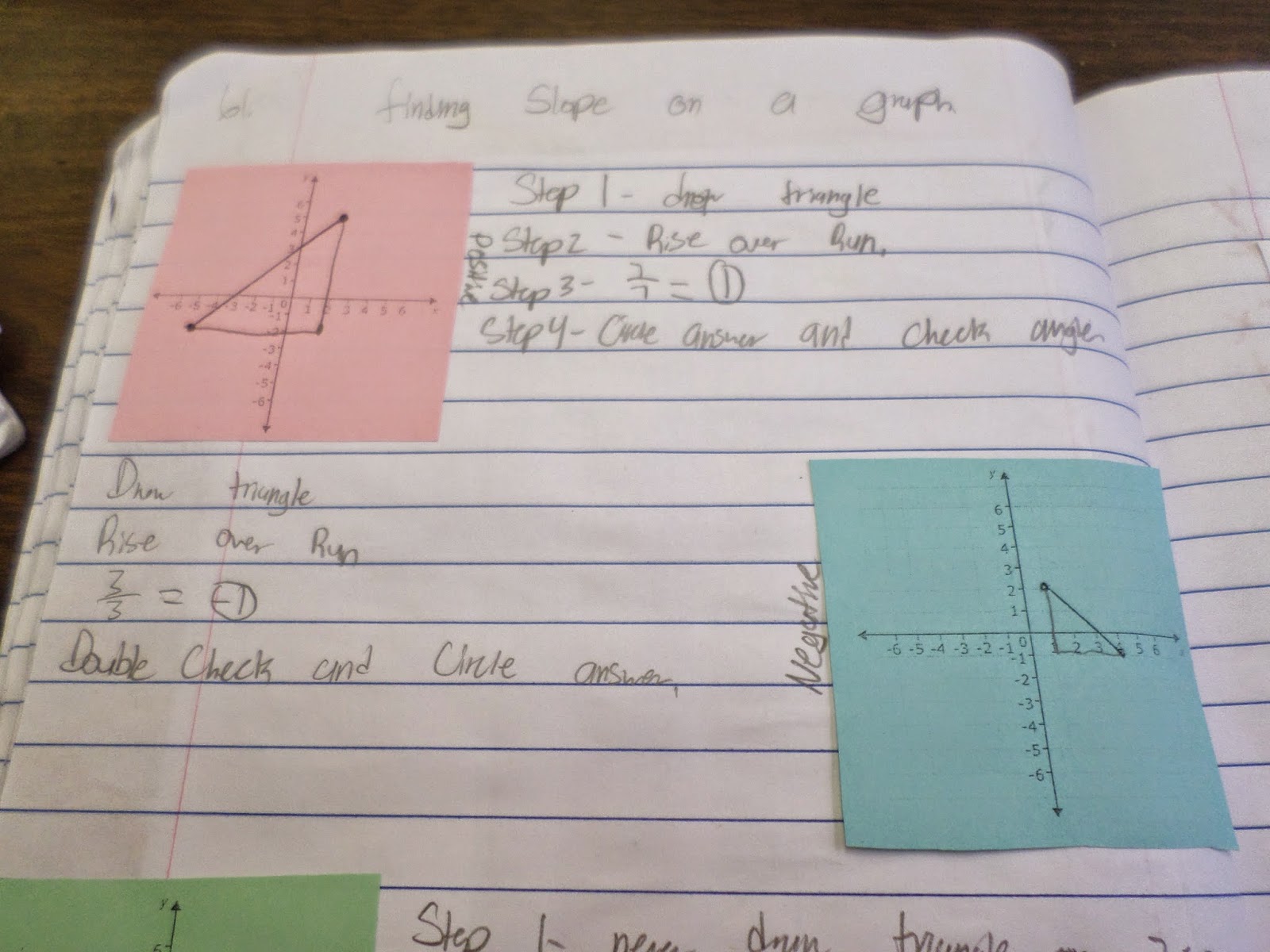
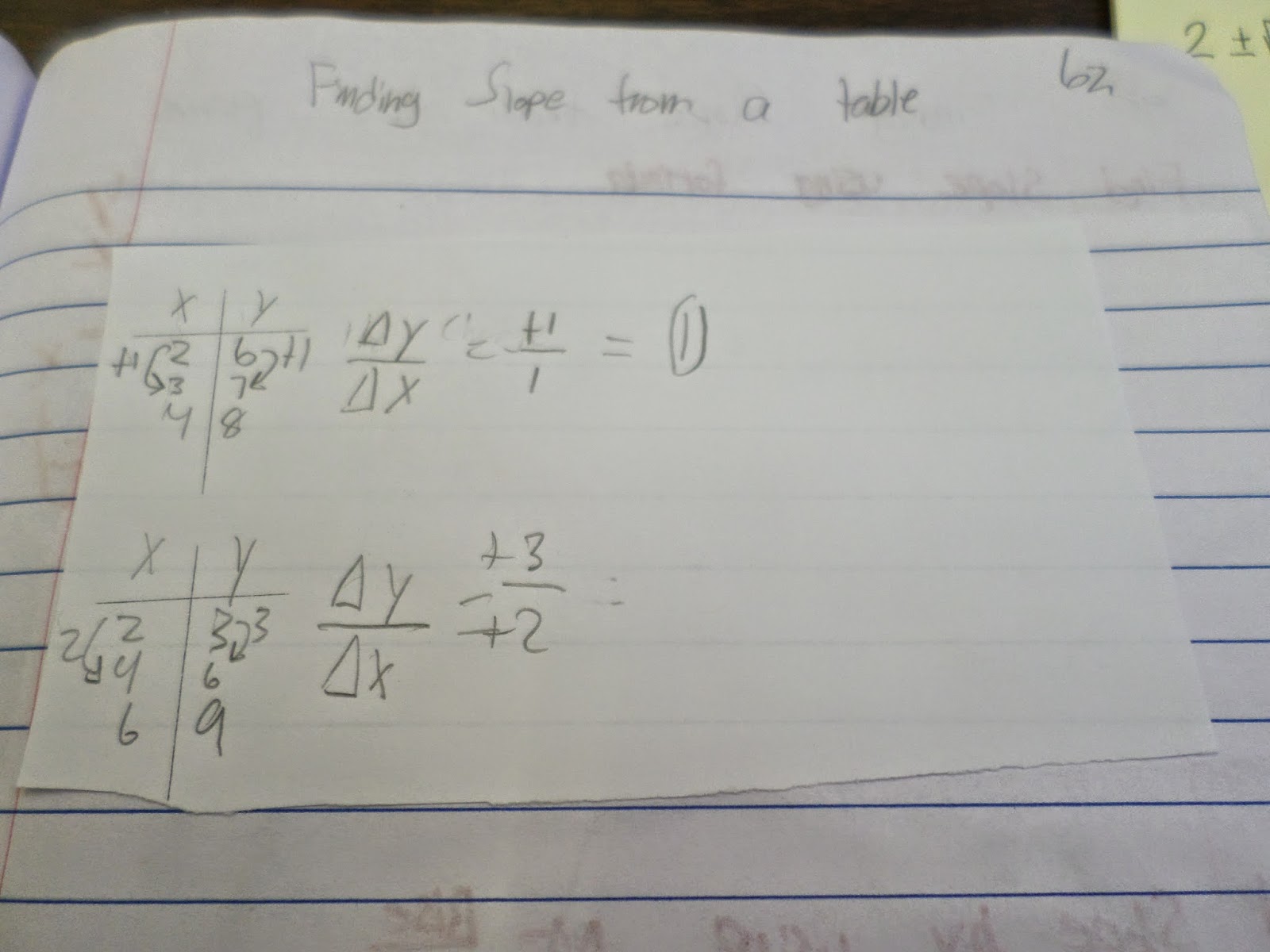
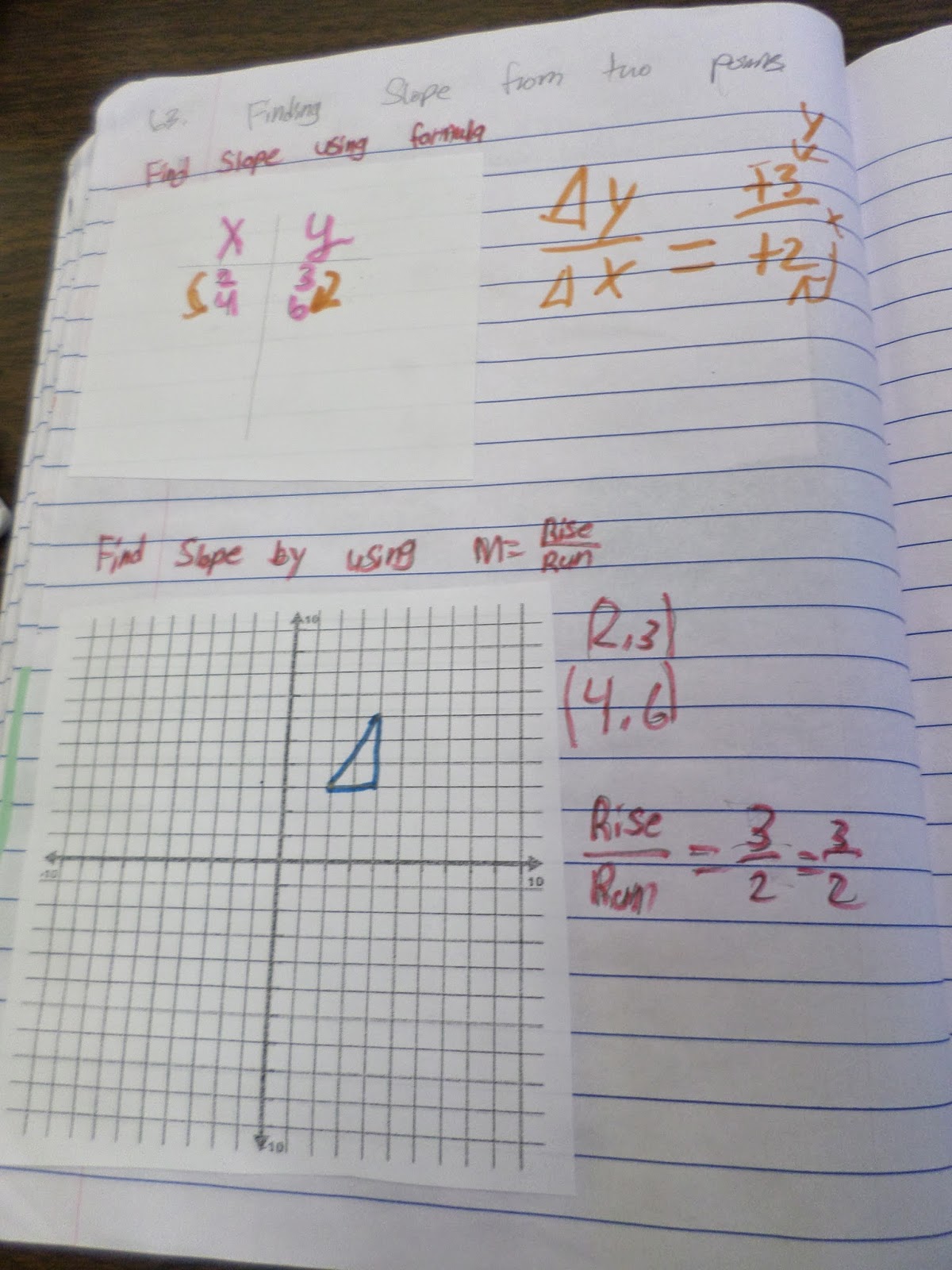
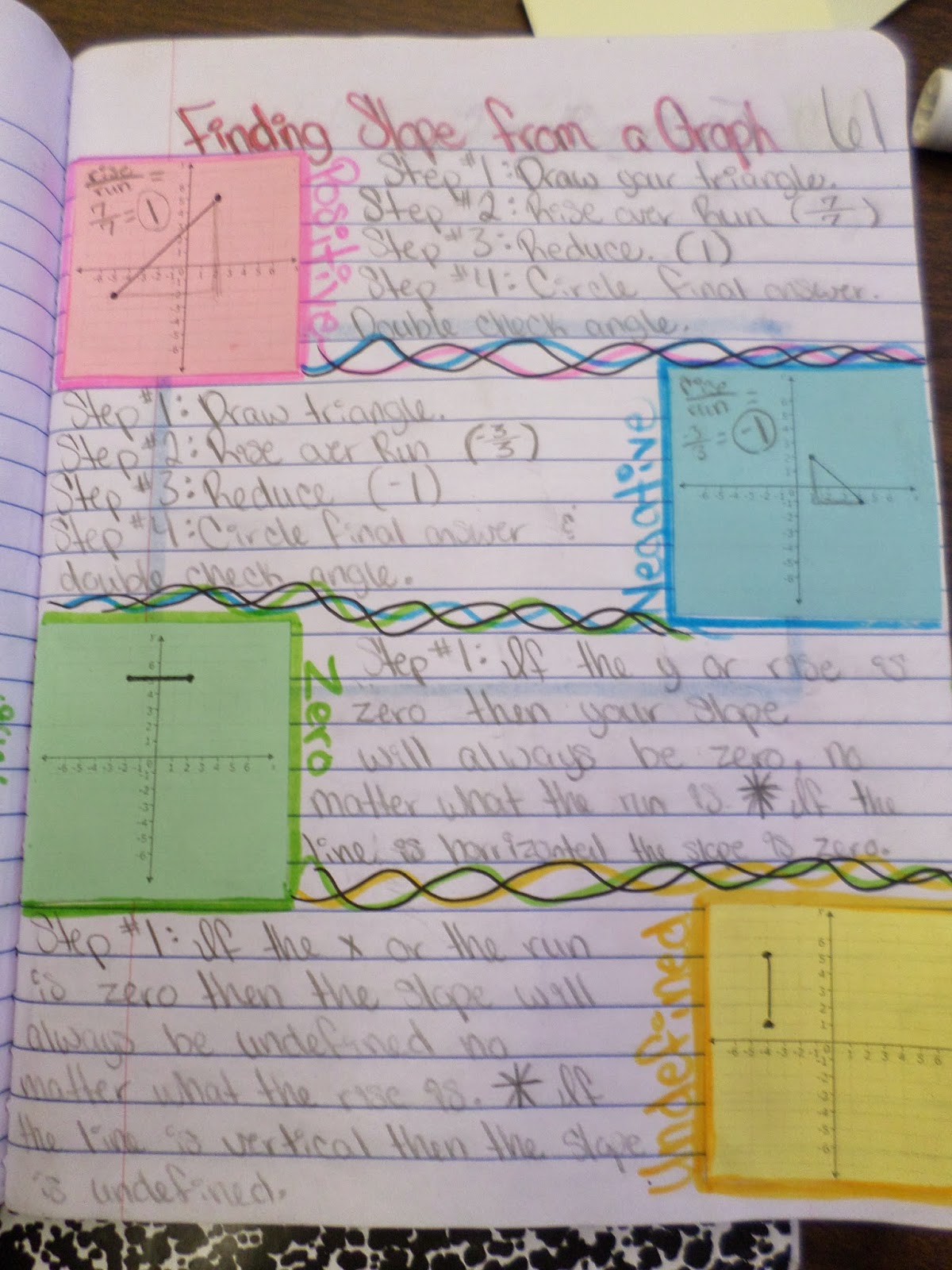
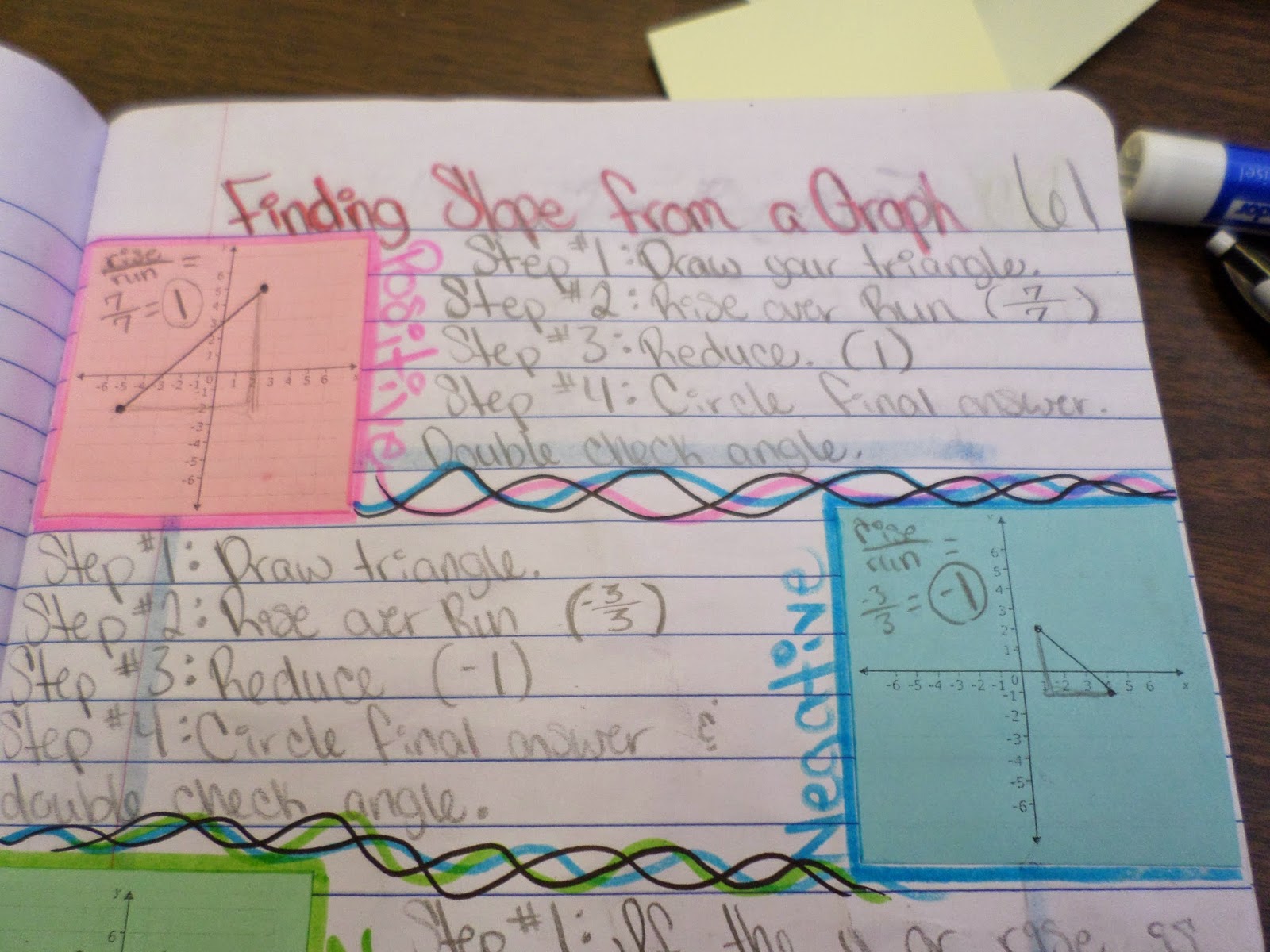
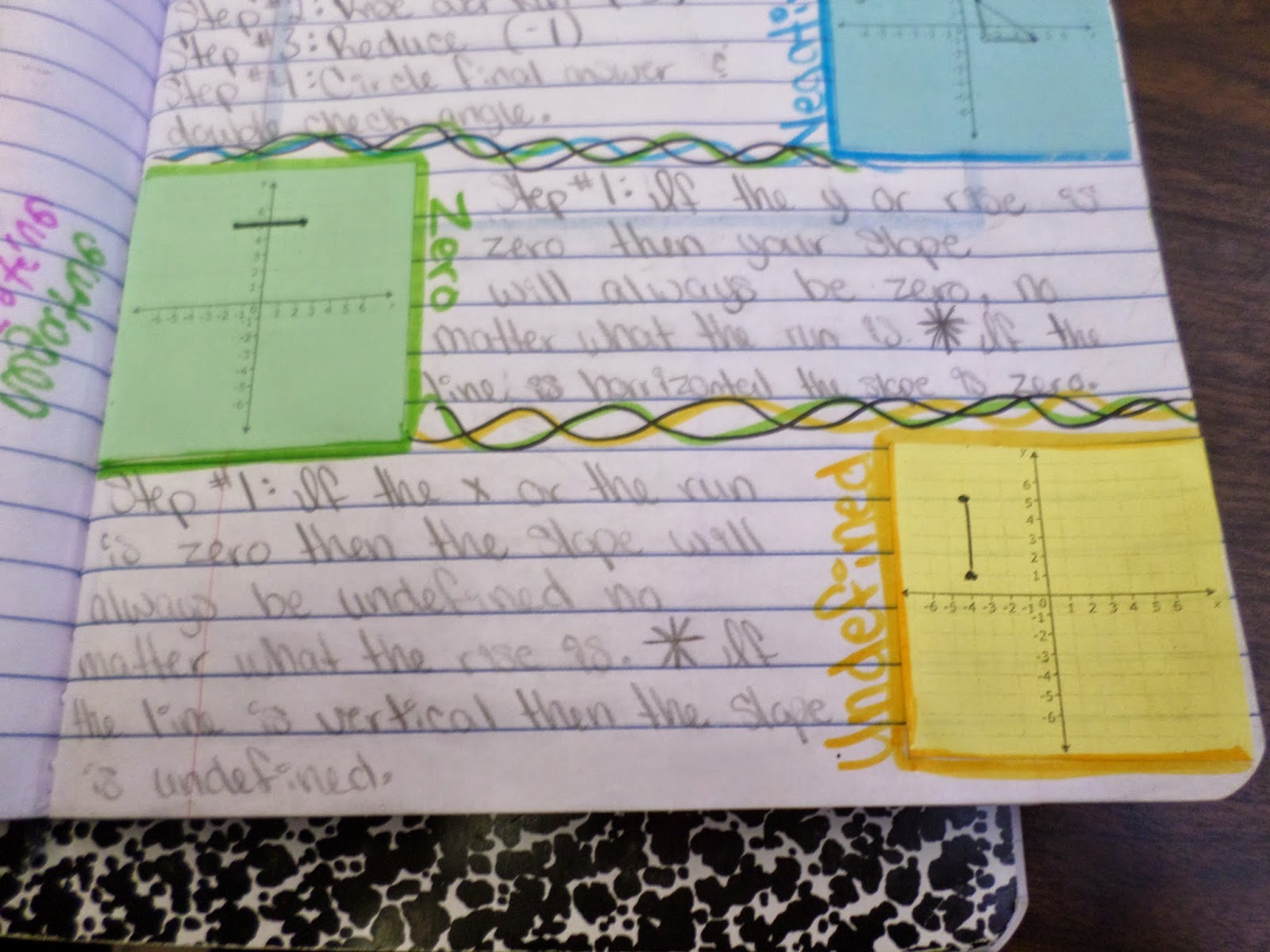
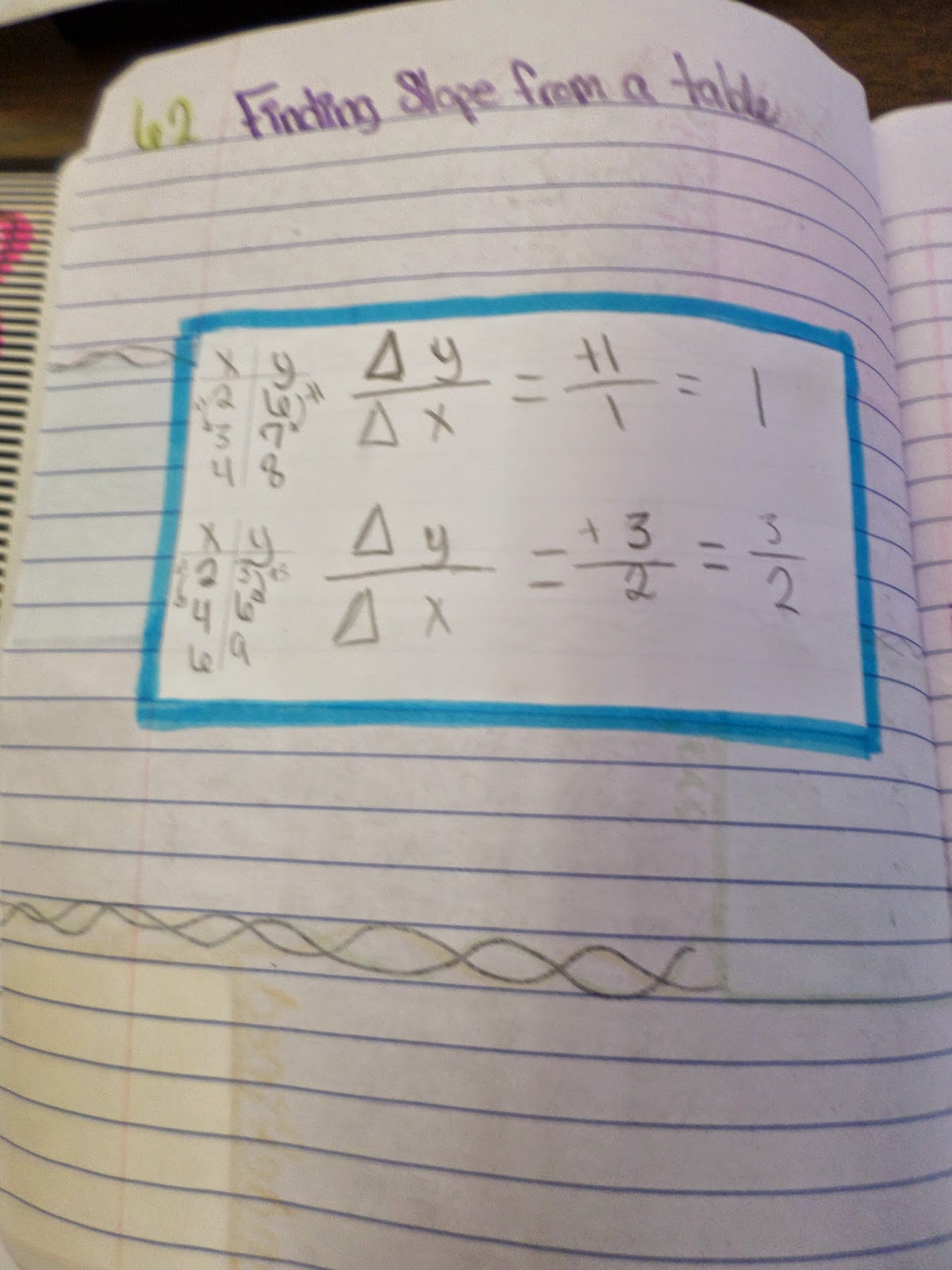
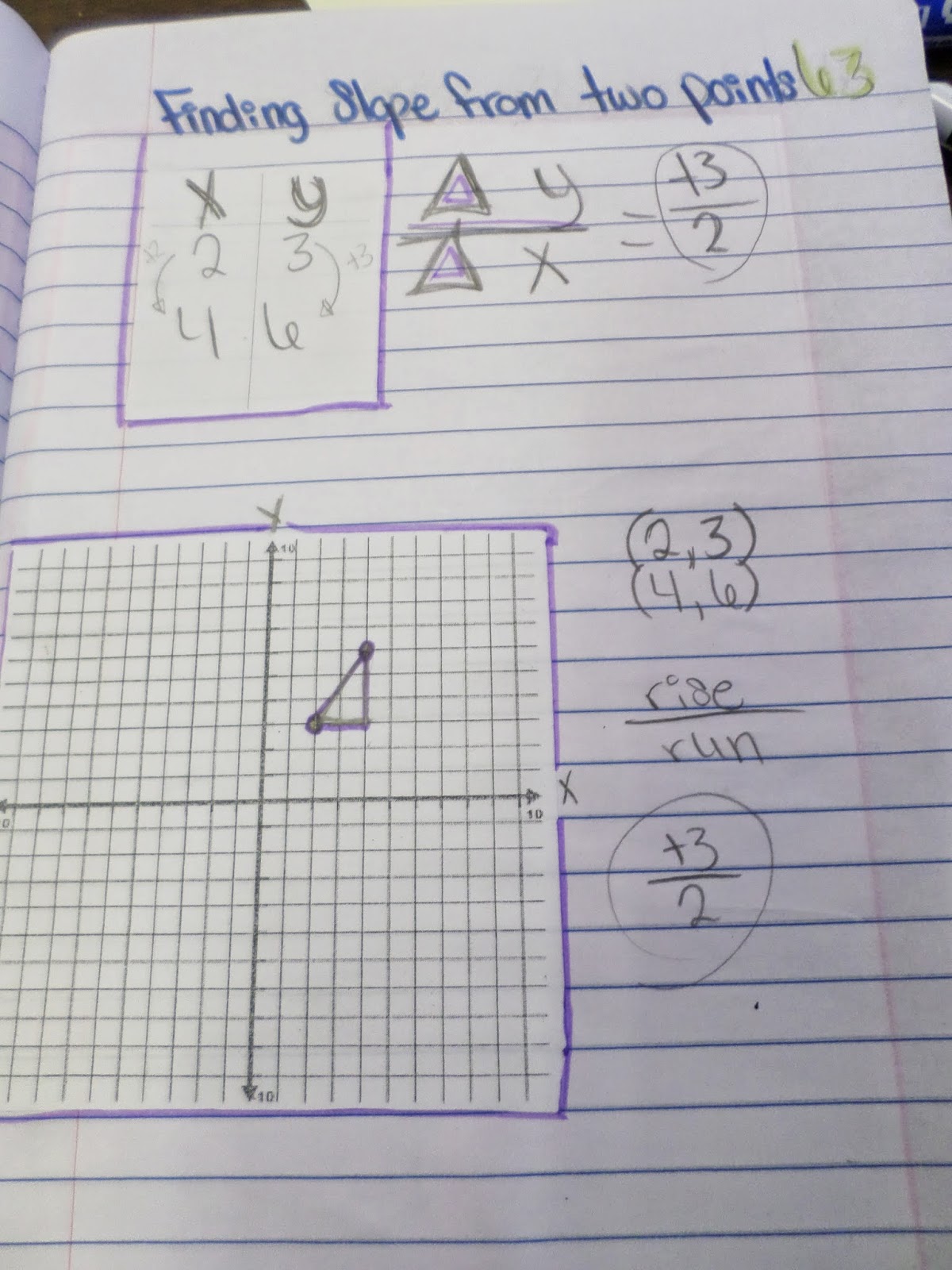
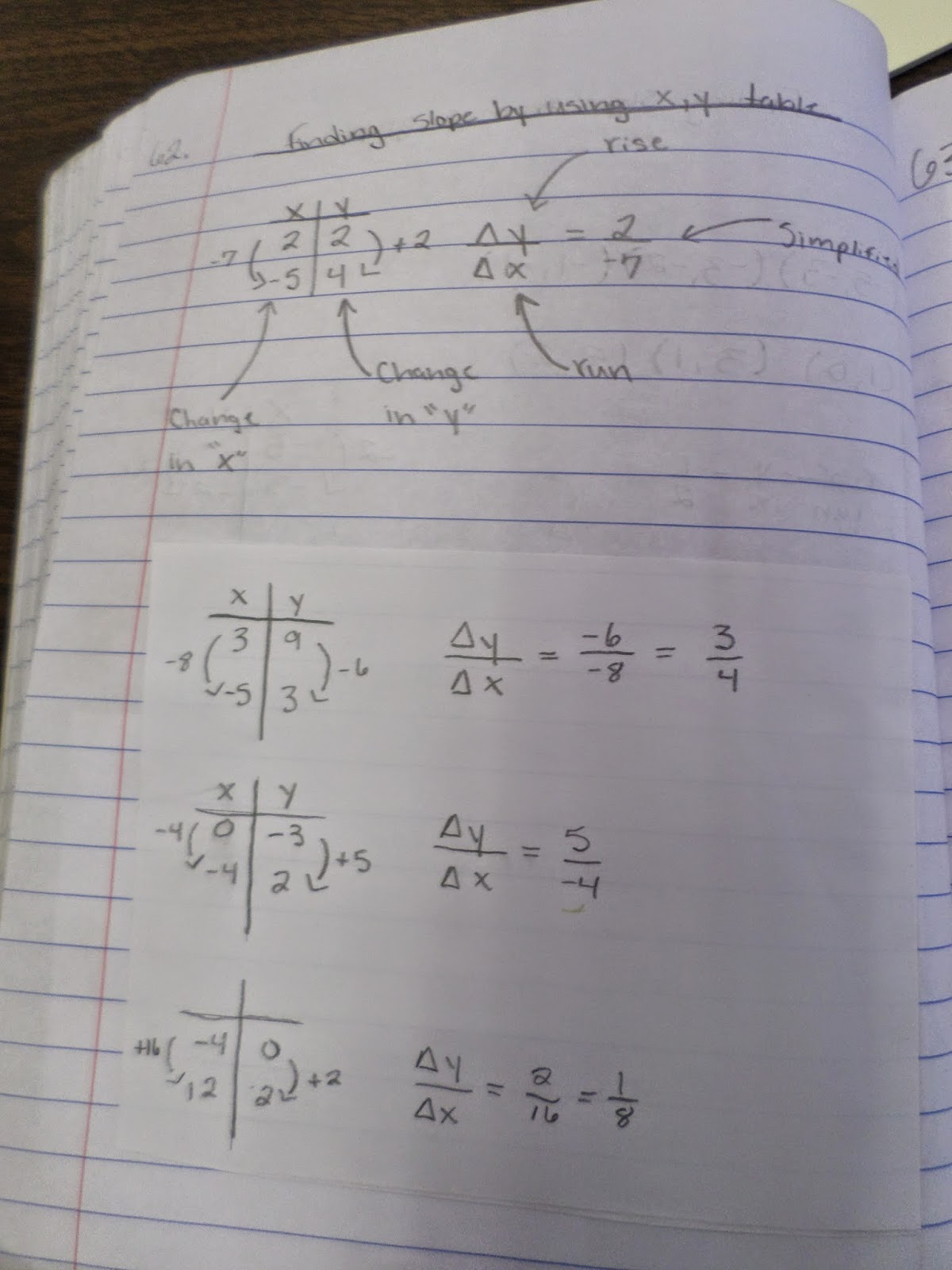
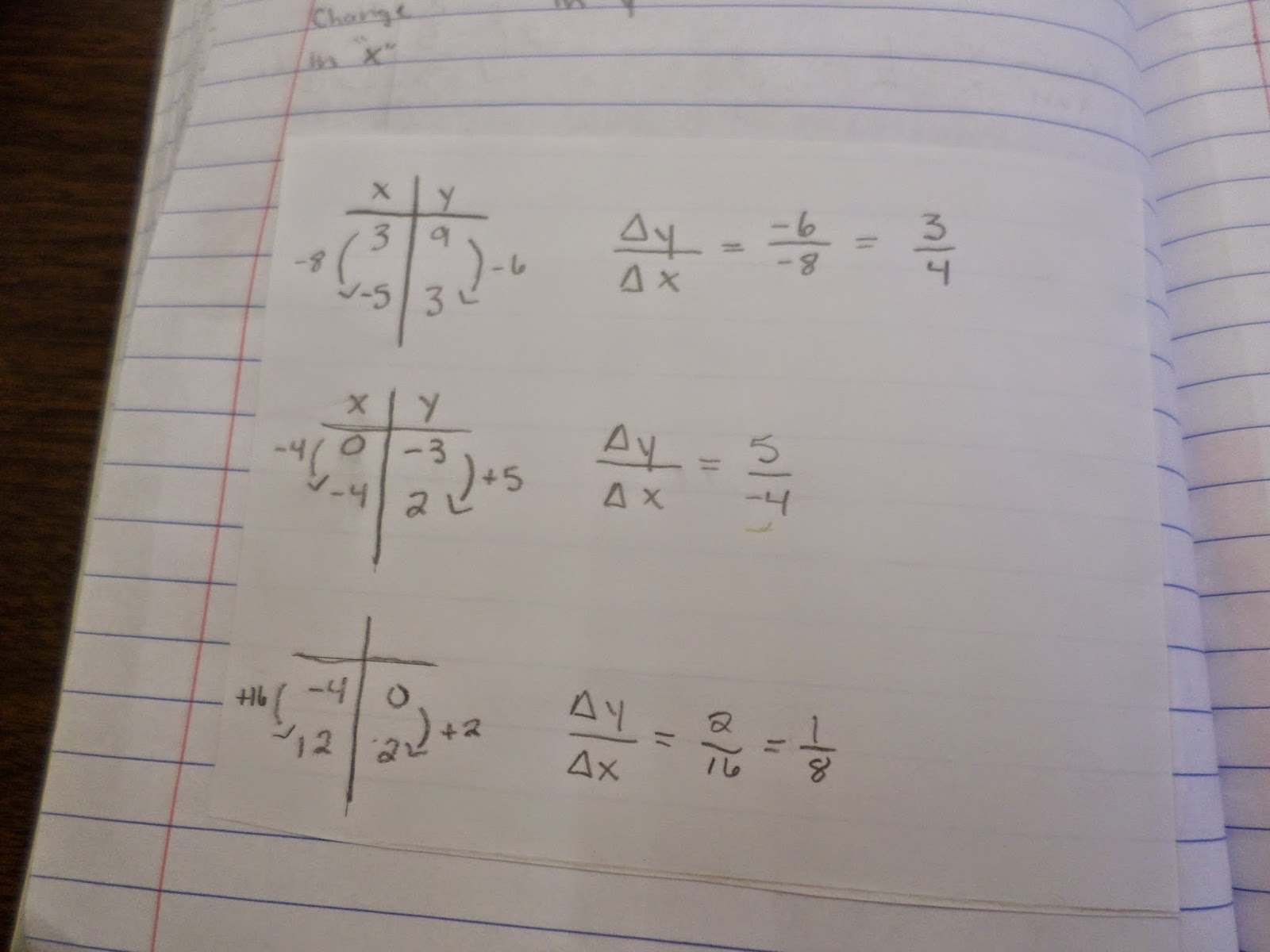
July 26, 2014 – A Different Approach to Parallel and Perpendicular Lines
You know that day when you think you’ve come up with a novel way of teaching something in your classroom? And it works? And you’re so proud of yourself? Then, a few days later, you read a blog post or see something on pinterest and realize that your idea wasn’t novel at all. You’d actually read about somebody else doing it in their classroom, forgotten about it, then been reminded of the idea by your subconscious. At least I guess that’s how it works.
Any who, that happened to me this past year with parallel and perpendicular lines.
I’d tell you about what I did, but I can do you one better and let you read about how Fawn taught the lesson.
August 6, 2014 – What I’ve Been Up To
For those of you who were starting to wonder, I am alive! This summer has been crazy hectic and crazy good at the same time. The past few weeks have been consumed by Church Camp, Twitter Math Camp, OK Math Convening, and “Oh my goodness–it’s August! And, I haven’t done any lesson planning or classroom decorating” panic mode.
Now that my classroom decor is starting to come together, it’s time to start focusing on what I want my students to do on the first two days of class. We start the school on Thursday, August 14th. Oh me. Oh my! So much to do before then!
In an attempt to get back into the swing of things with blogging before school starts, I want to share a side project that I have chosen to be a part of. As you all know, I adore blogging and twitter and the entire #MTBoS. So, it’s only natural for me to want to get math teachers involved in this community which I love. Have you ever sat down and tried to list all of the math teacher bloggers from your state? Well, I did this for Oklahoma, and the list was surprisingly small. Want to see the list? I wrote it up as a blog post for OKMathTeachers!
If you didn’t click on the preceding link, you missed out on something amazing. Okay, maybe it’s not amazing. Amazingly crazy? Well, whatever it is, I did something I’ve never done before in my life. I video taped myself, AND I posted it to the Internet. I’ll embed the video for you below. If you can’t see it, click here to go to YouTube. It’s me, and I’m talking about why I LOVE the #MTBoS.
So, I’m working on a team that is trying to get Oklahoma math teachers involved in the #MTBoS. Here’s a post I wrote introducing OK teachers to the #MTBoS. For some teachers who have never even read a blog post before, getting involved in this online community of math teachers can sound incredibly intimidating. To help introduce teachers to the #MTBoS without (hopefully) scarring them for life, we are inviting Oklahoma math teachers to help write a collaborative blog. This blog will be housed on OKMathTeachers.com. Writing a few posts a year for a collaborative blog is less scary than starting your own blog, right??? I hope so!
I know that there has to be some Oklahoma math teachers who read my blog whom I have not had the pleasure to meet in person. If this is you, I want to extend the invitation to write some guest blog posts for OKMathTeachers.com! Scroll to the top of this page and hit the contact me button. Send me an e-mail telling me that you’re an Oklahoma math teacher who would love to get started with blogging. I’ll e-mail you back with all the details. We’d LOVE to have you! Or, if I have met you in person but I haven’t invited you to be a part of this, e-mail me! The more the merrier!
If you’re not an Oklahoma math teacher, I have a favor to ask of you as well. Please add OKMathTeachers.com to your RSS reader! Come Septemberish, we’re aiming to have 5 new blog posts each week written by Oklahoma math teachers. It’s going to be amazing. I can’t wait to see what comes out of this collaborative effort! These posts will be written by Oklahoma teachers, but we want to share them with the entire world!
August 9, 2014 – Summer Road Trip Pics 2014
With all the craziness that happened before and after TMC, I never got around to posting pics of my summer vacation! This summer, for Independence Day, my parents, sister, and I sat out on a road trip!
Before this trip, I had visited 11 states. And, I’d only ever driven a car in two states – Oklahoma (obviously!) and Arkansas (my college roommate’s wedding). Now, I’ve visited 13 states and driven in six states – OK, KS, CO, NM, TX, and AR! Colorado and New Mexico were new states for me to visit!
Highlights of the trip:
* Riding a 1905 carousel in Burlington, CO
* Visiting two state capitol buildings – Denver and Santa Fe
* Garden of the Gods was beautiful!
* Riding public transportation for the first time in my life
* Beautiful Scenery
* Experiencing the mountains for the first time!
* Precious time spent with family
I even made a nifty little map of the states I have visited to share with my students! You can make your own at http://www.visitedstatesmap.com/.
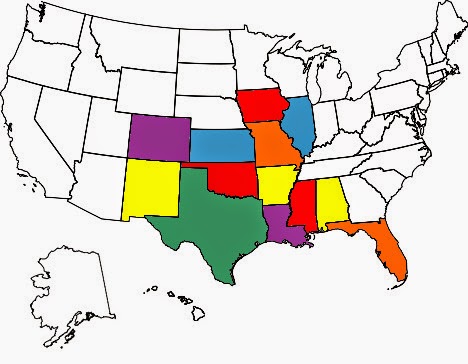
The pictures are in kind of a random order. Sorry about that!

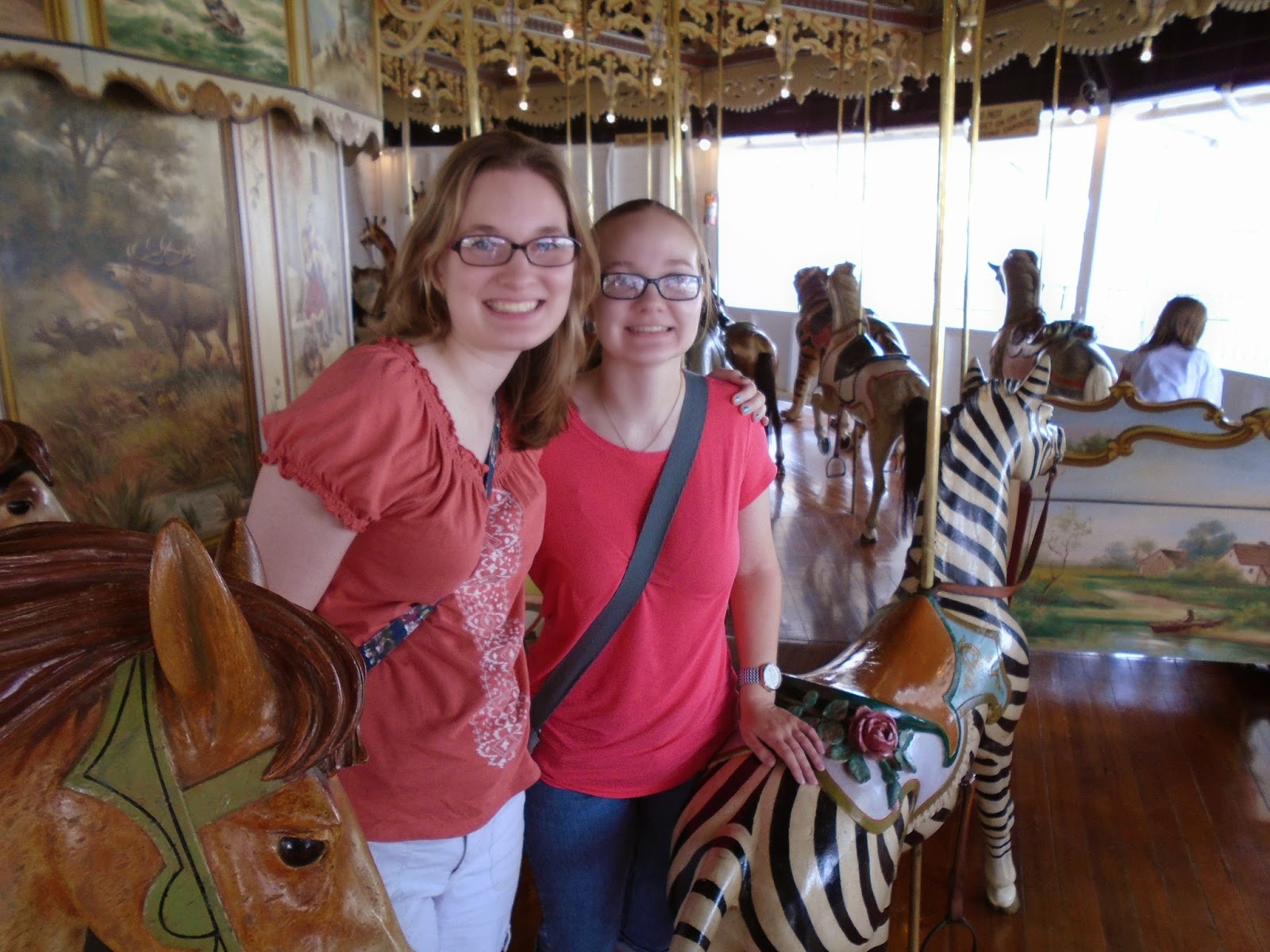

I also rode on public transportation for the first time in my life! This is me on the 16th Street Mall Bus in Denver!
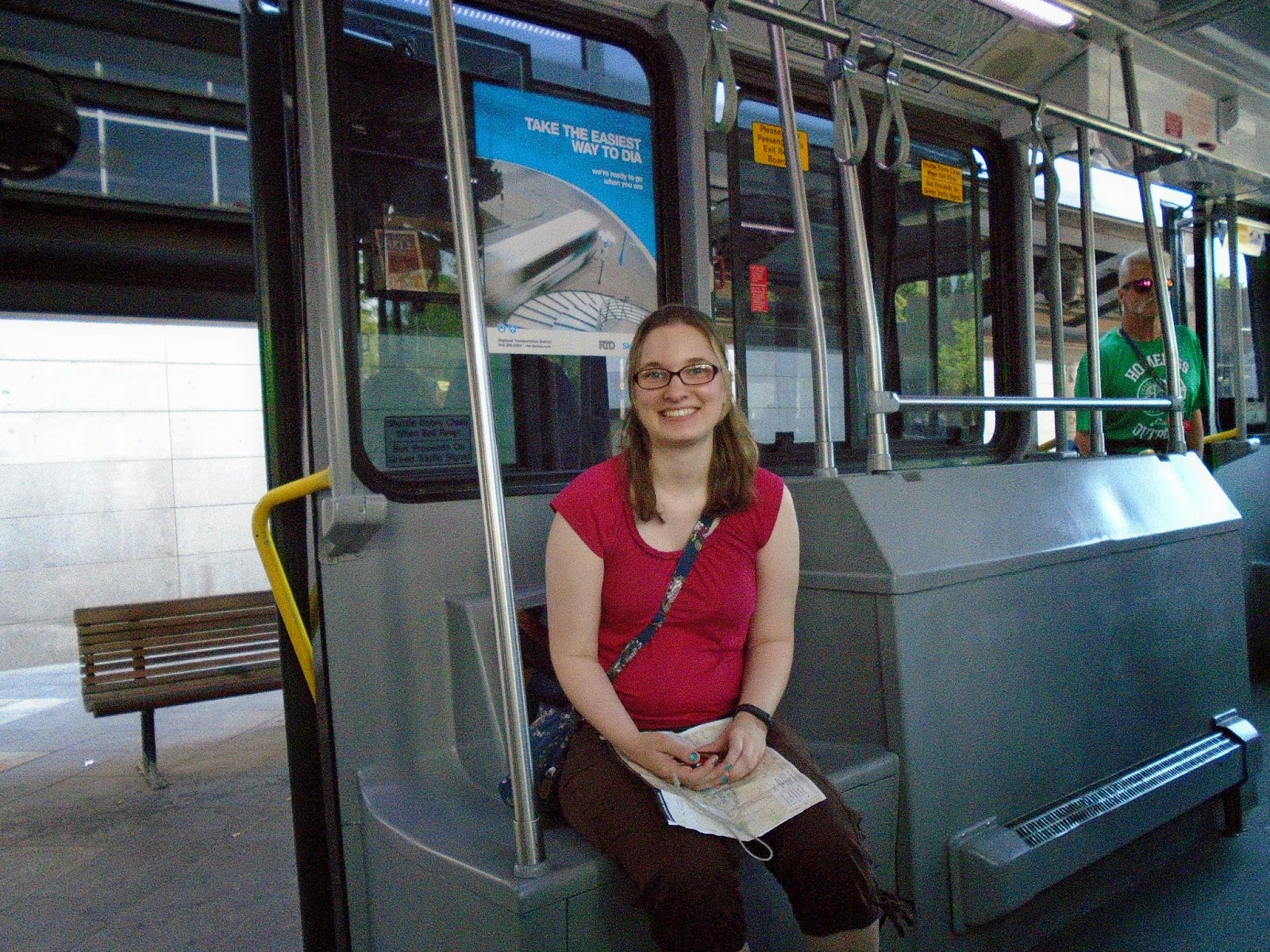
We had to ride the bus in order to get to the Federal Reserve’s Money Museum.
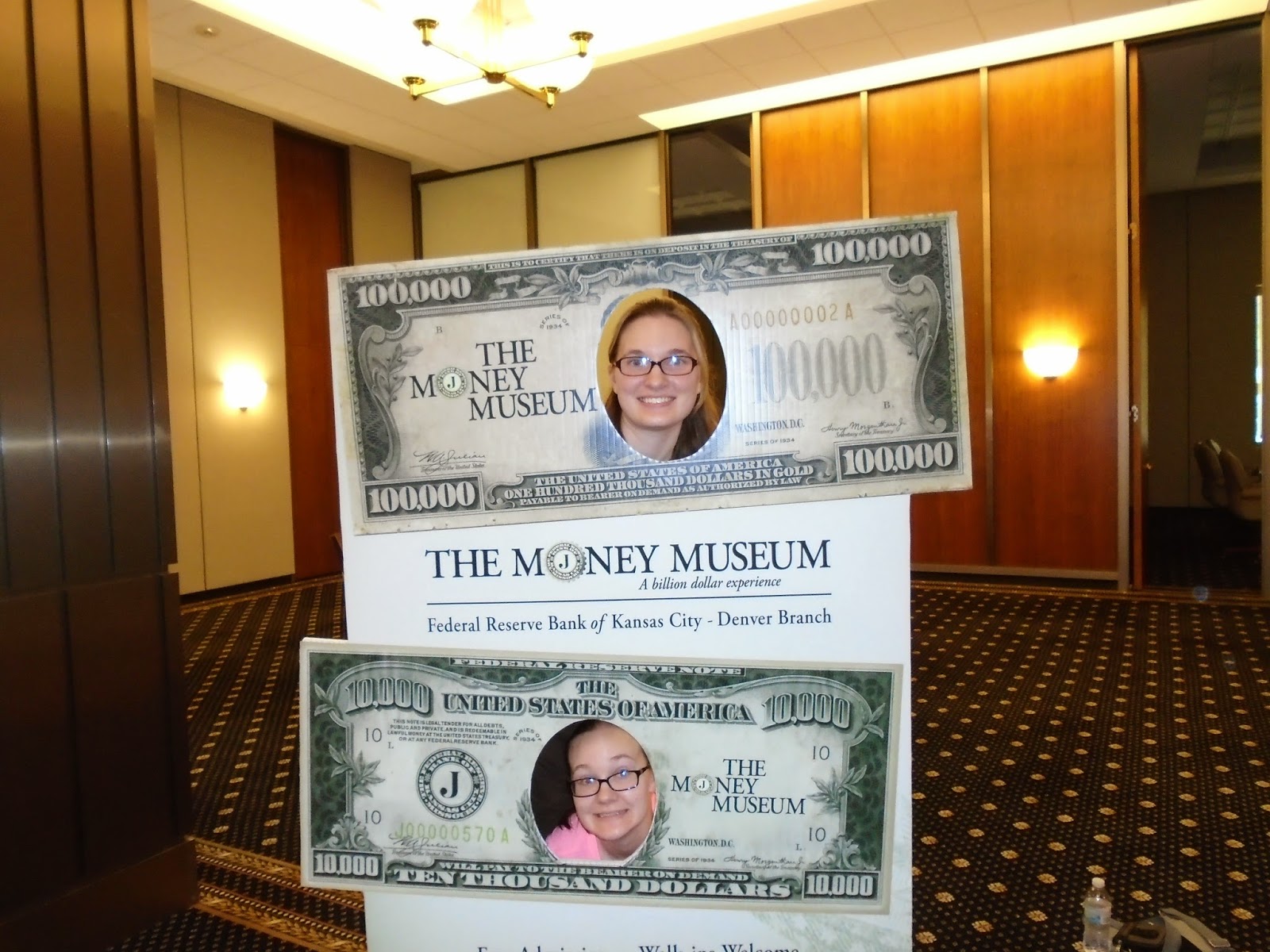
On the bus ride back to the part of downtown Denver we started in, I had to stand up because there were so many people on the bus. I quickly found out why they give you little straps to hold on to!
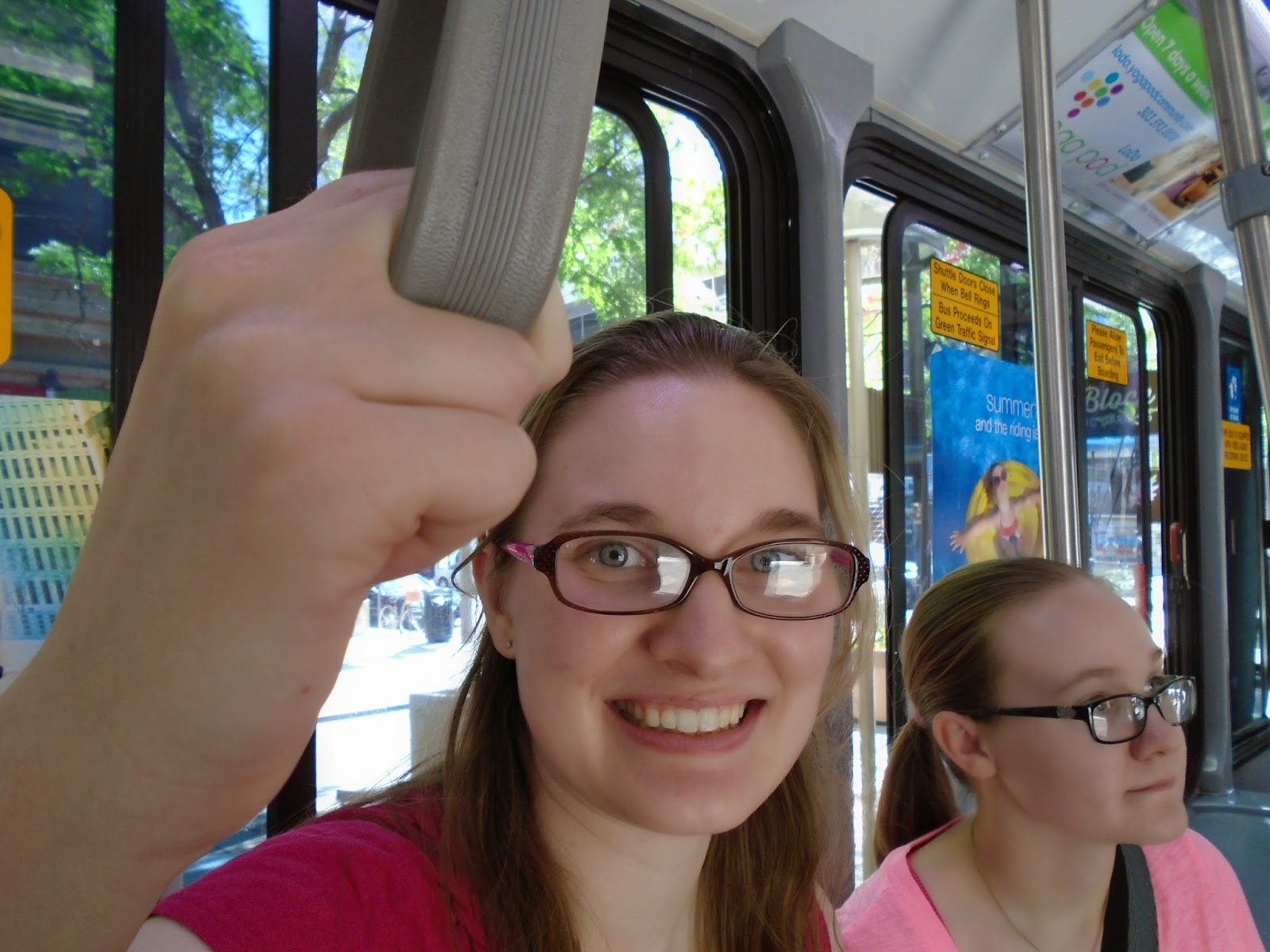
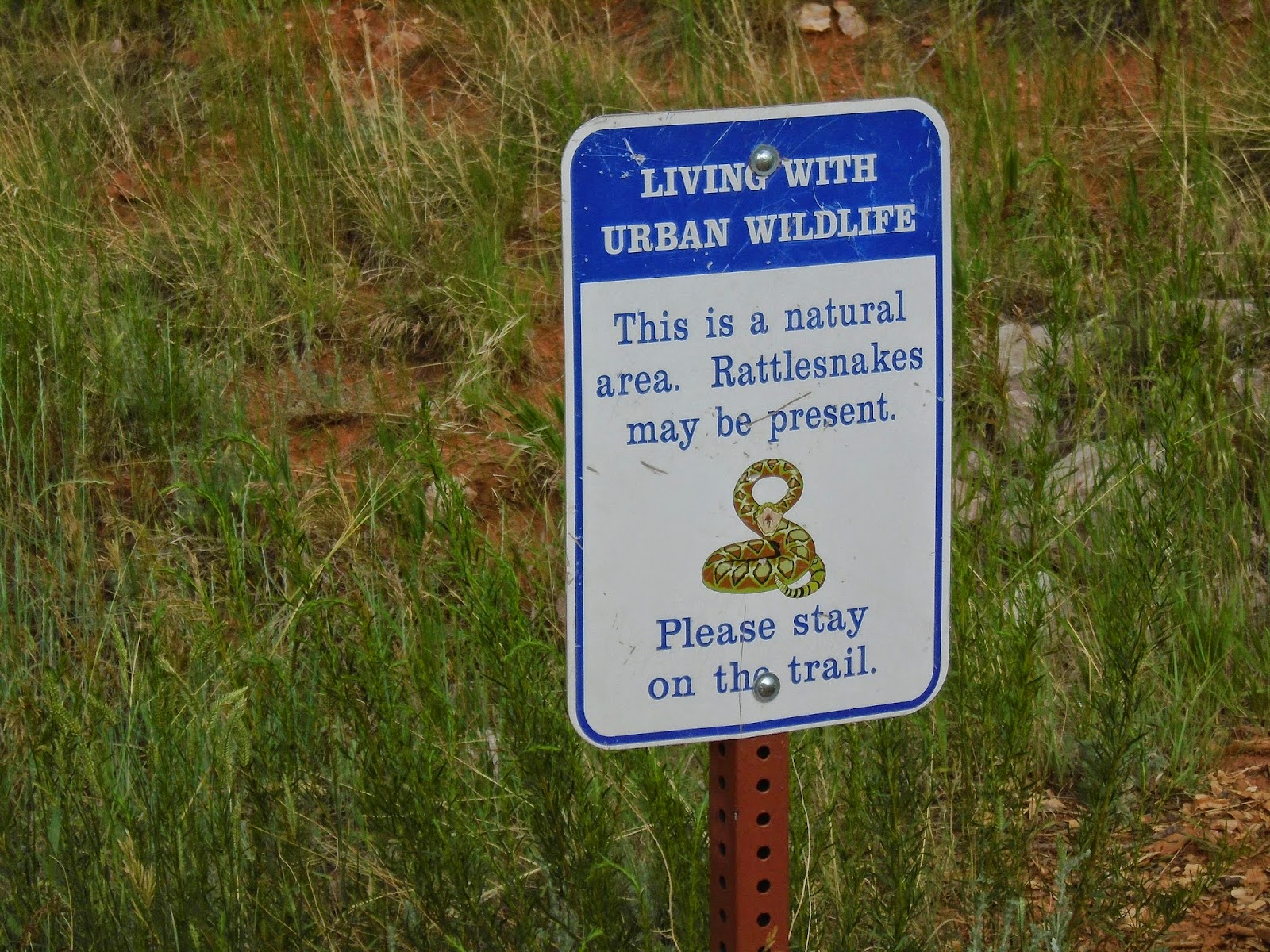
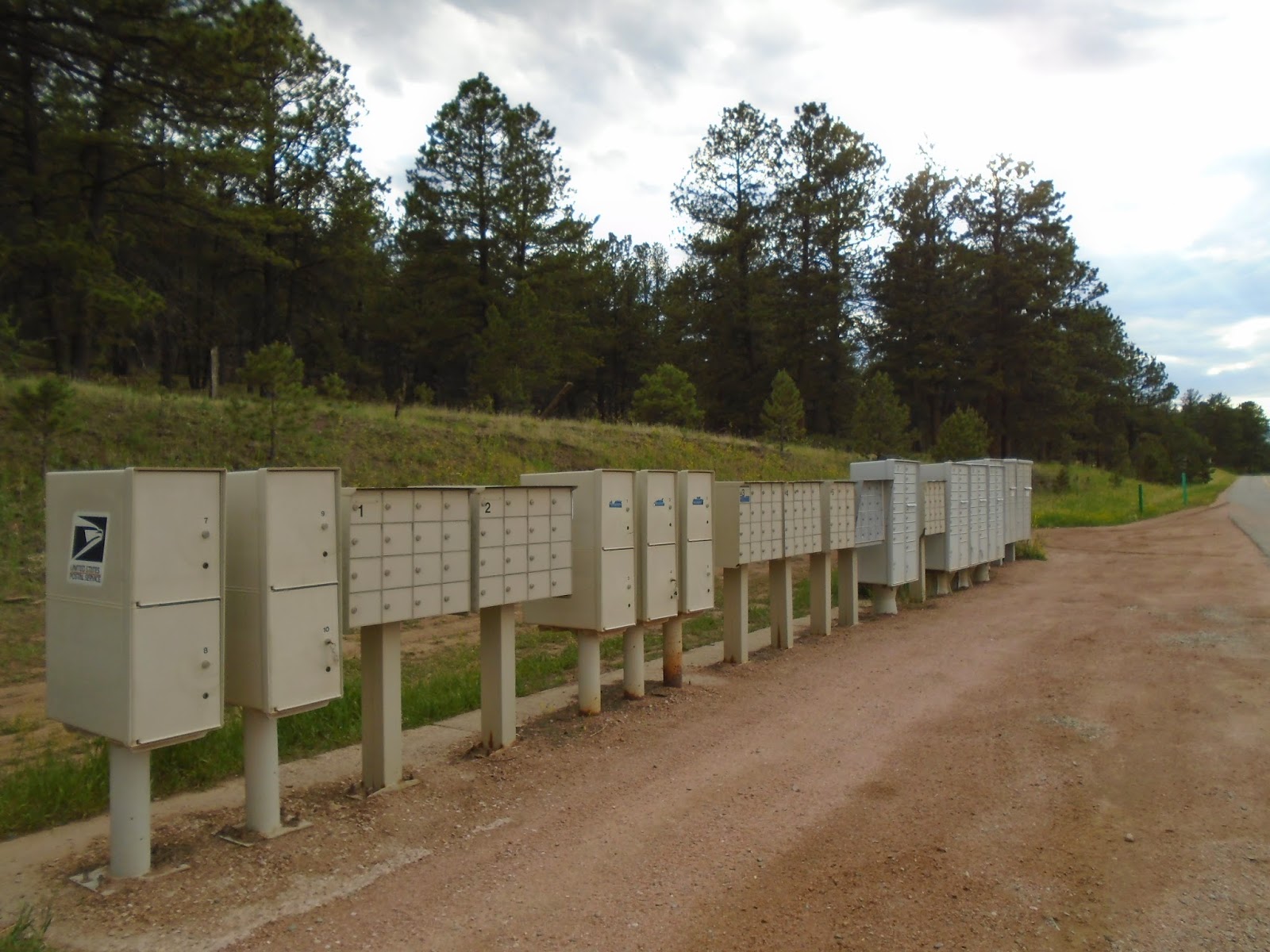 |
| Mail Service in Rural Colorado |
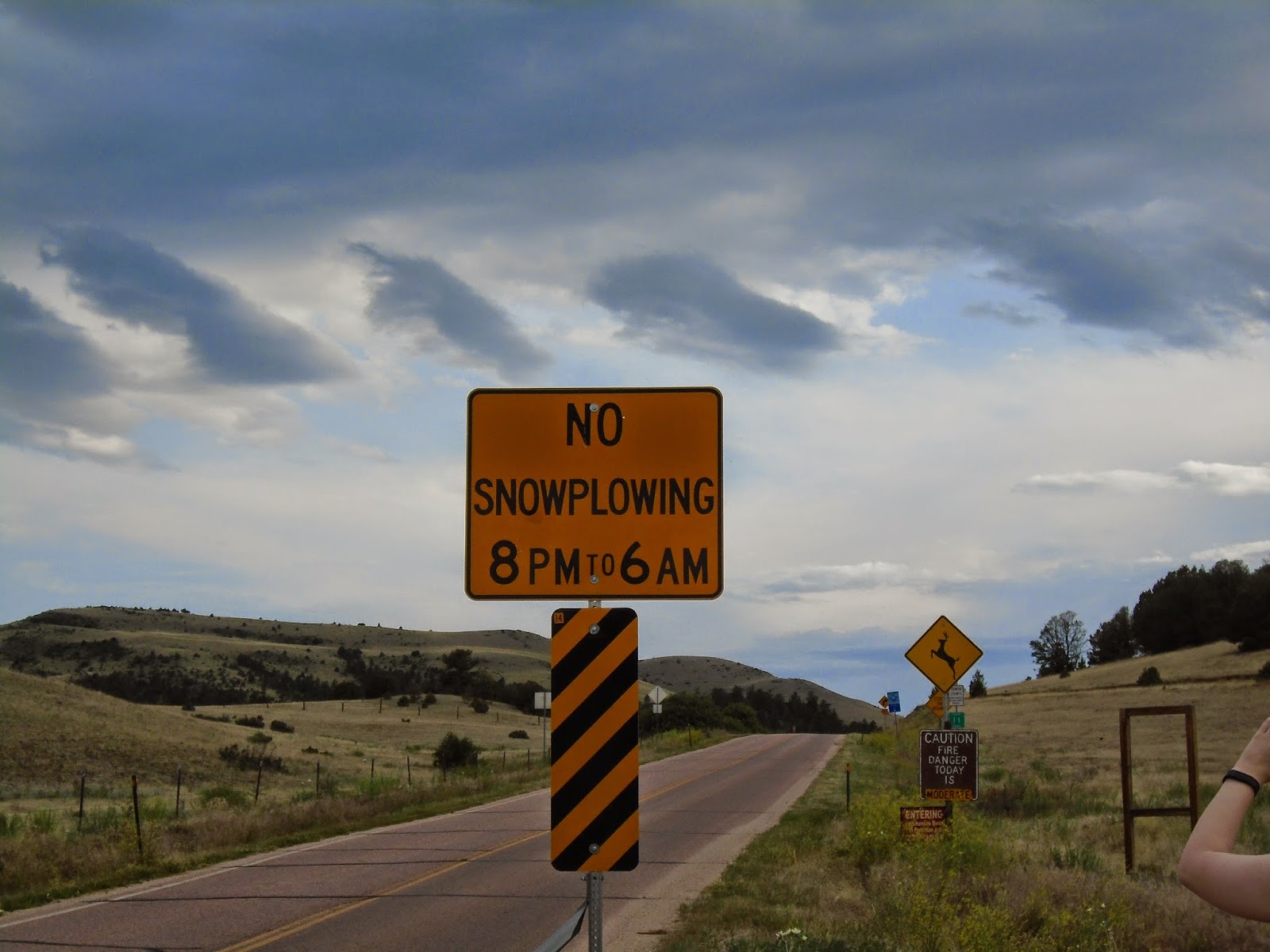 |
| This is a sign you don’t see in Oklahoma! |
 |
| Colorado Signage |
 |
| Interesting Artwork in the Capitol in Santa Fe This was made 100% out of recycled materials! |
 |
| Cadillac Ranch in Amarillo, TX |
Yes, I’m 24. And, yes, I still play on the playground equipment!
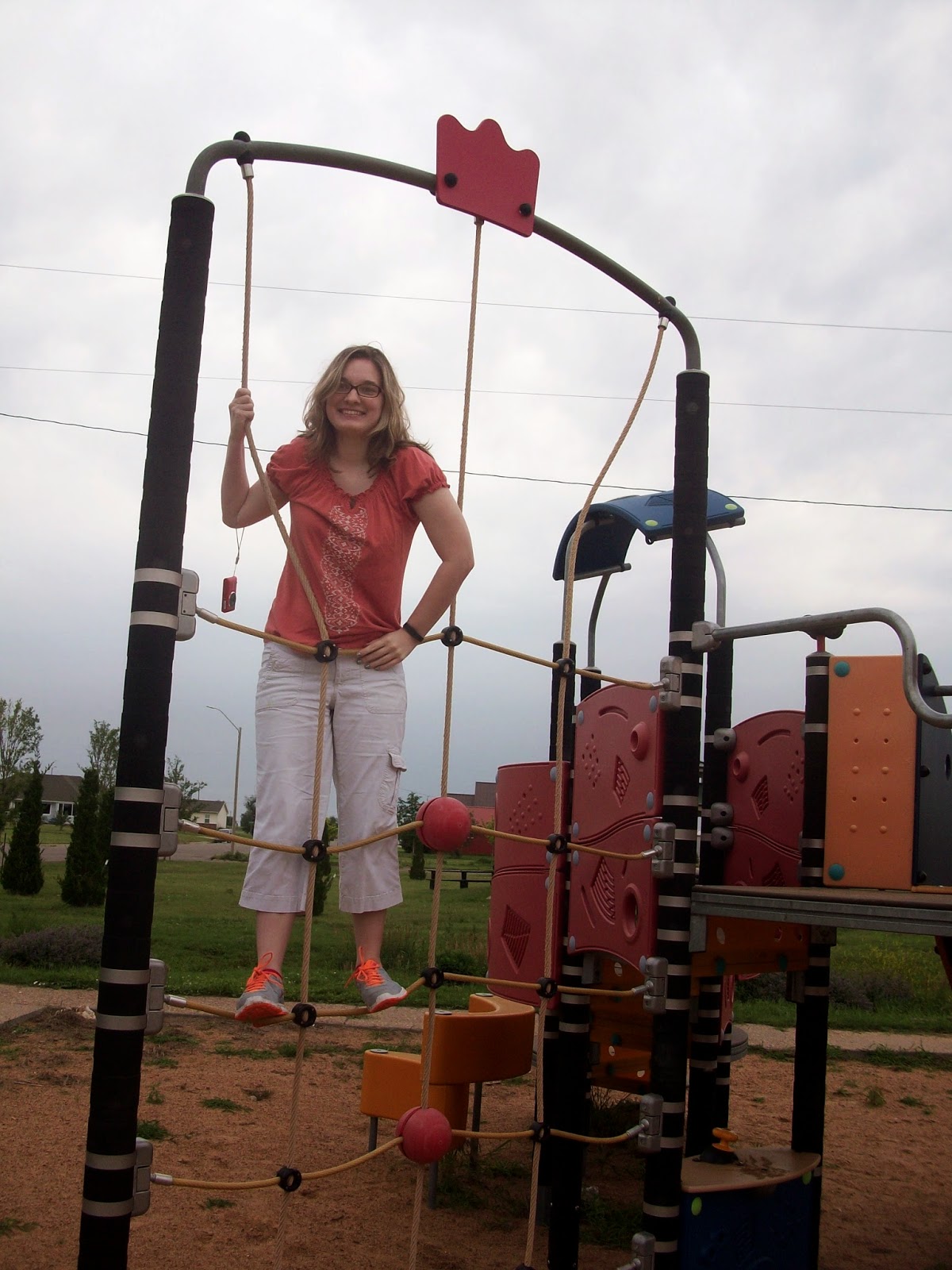 |
| Playground in Kansas |
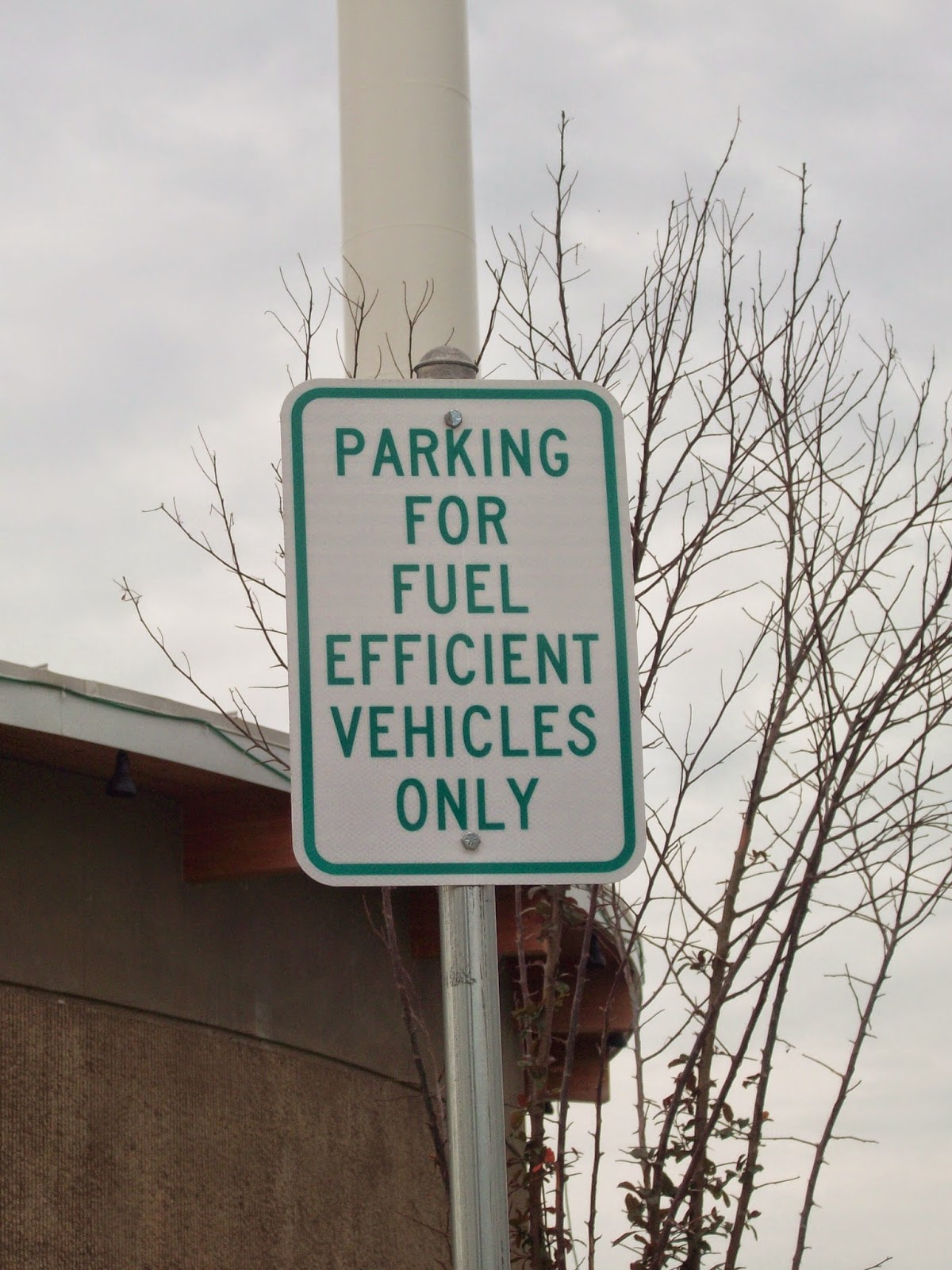 |
| Sign in Kansas |
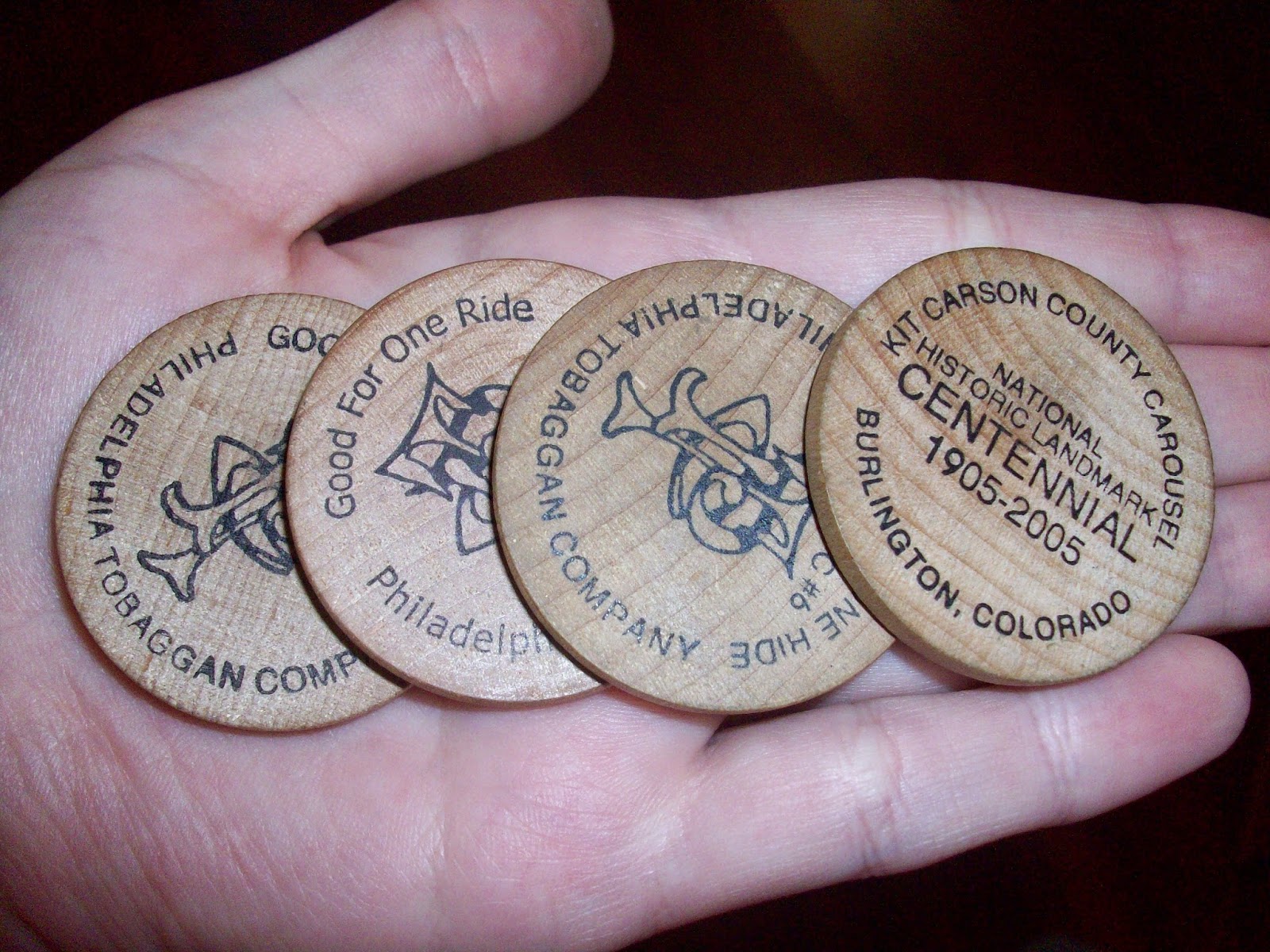 |
| Tokens to ride the carousel in Burlington, CO. 25 cents per ride! |
 |
| Dome in Denver Capitol Building |
 |
| Garden of the Gods – Colorado Springs, CO |
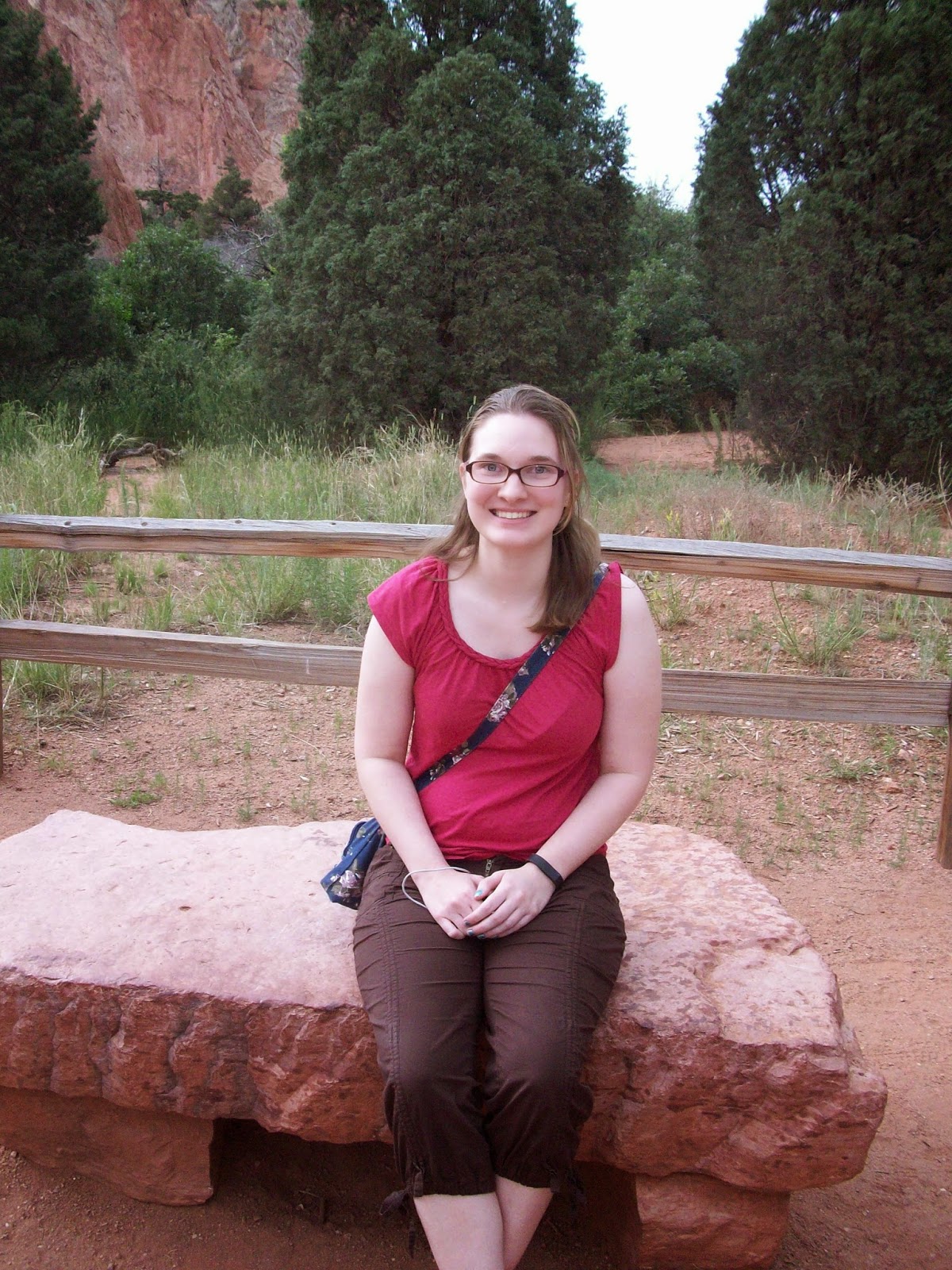 |
| Garden of the Gods – Colorado Springs, CO |
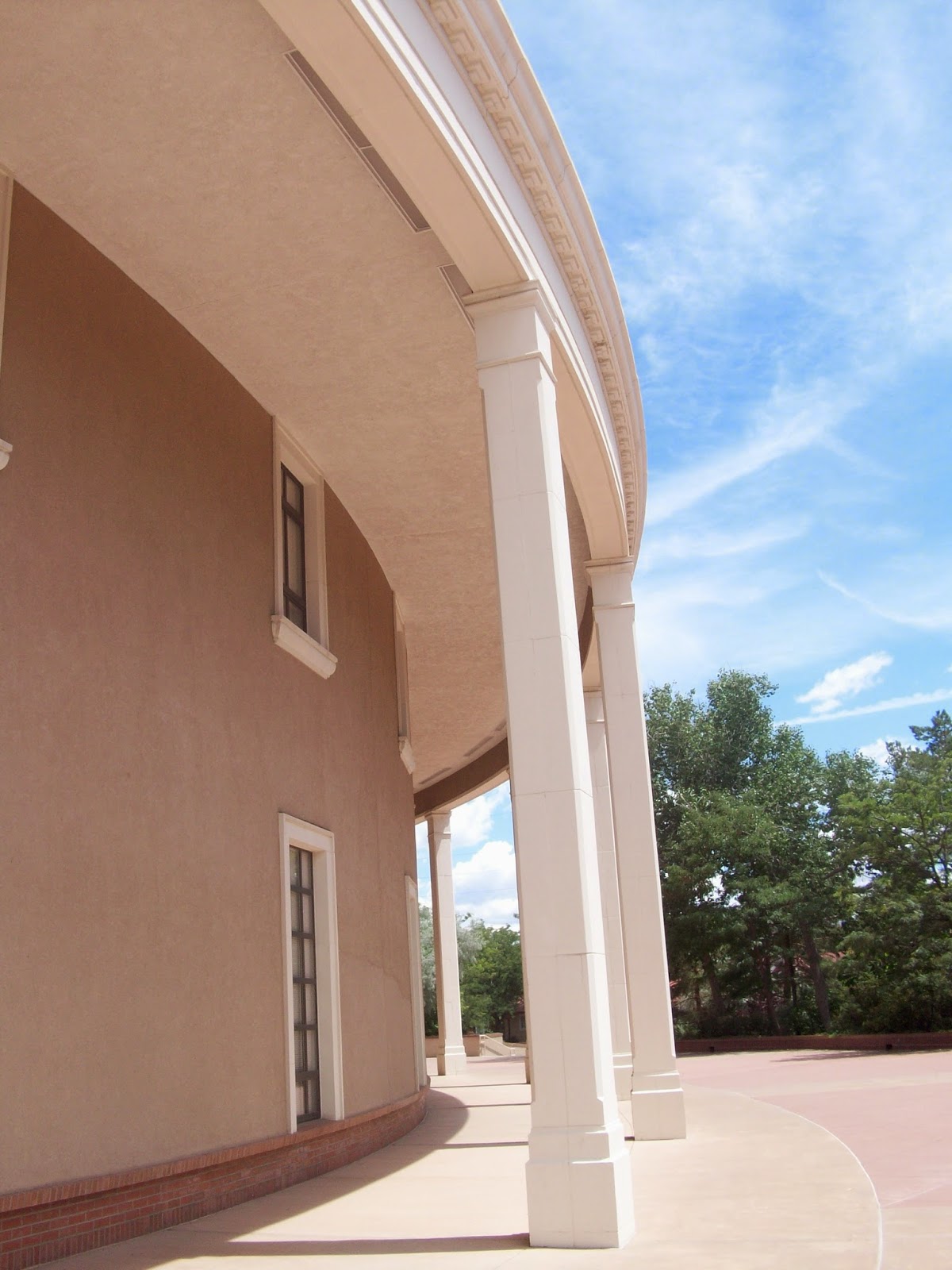 |
| Capitol in Santa Fe – The ONLY round capitol building in the US! |
 |
| Blue Hole – Santa Rosa, NM |
 |
| Blue Hole – Santa Rosa, NM |
 |
| We drove down Historic Route 66 in Tucumcari, NM |
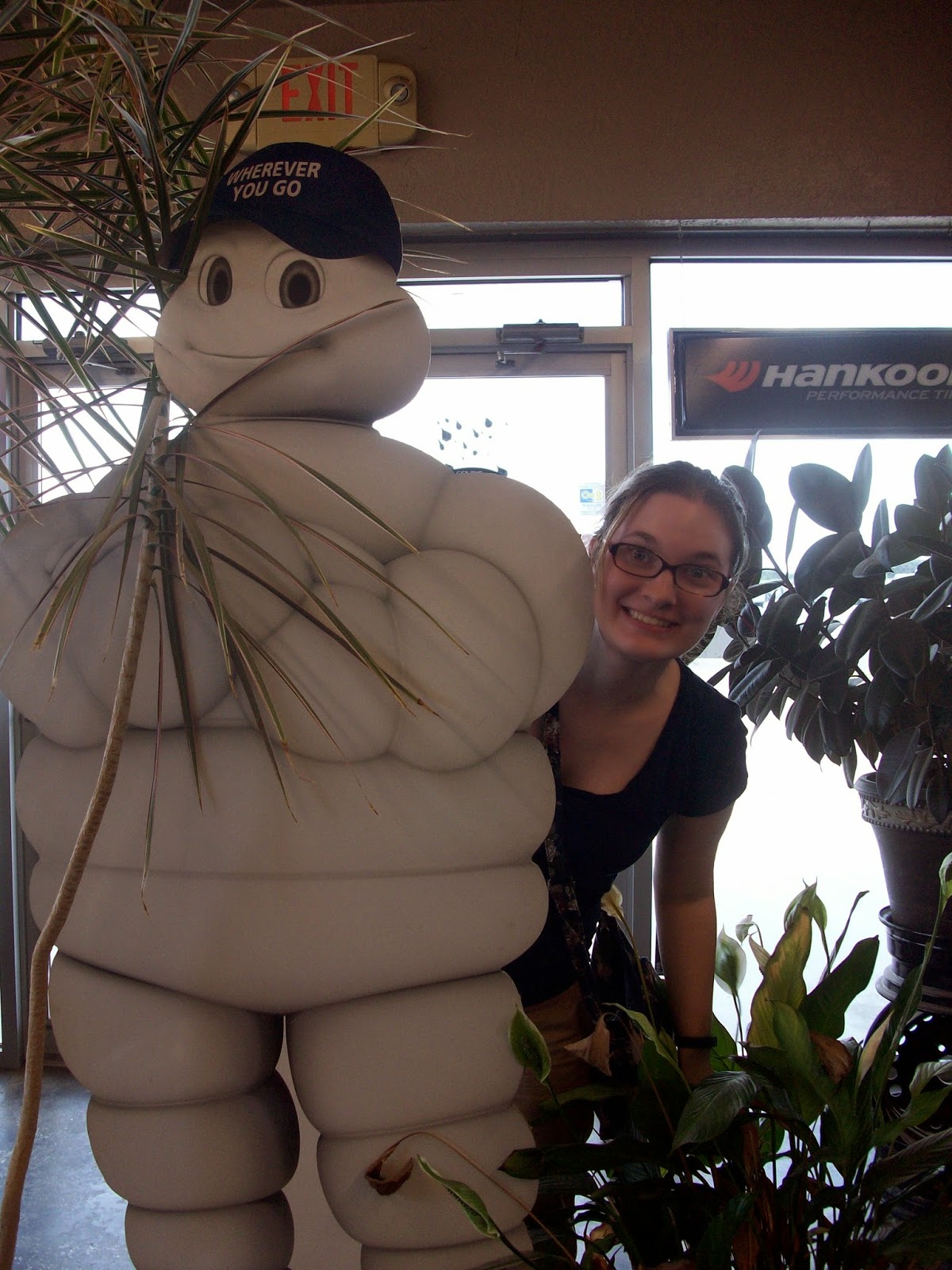 |
| An unexpected stop at the tire shop in Sayre, OK… |
 |
| At the Big Well in Greensburg, KS |
I was so excited to find math on my vacation. These pics are from the Big Well in Greensburg, KS!
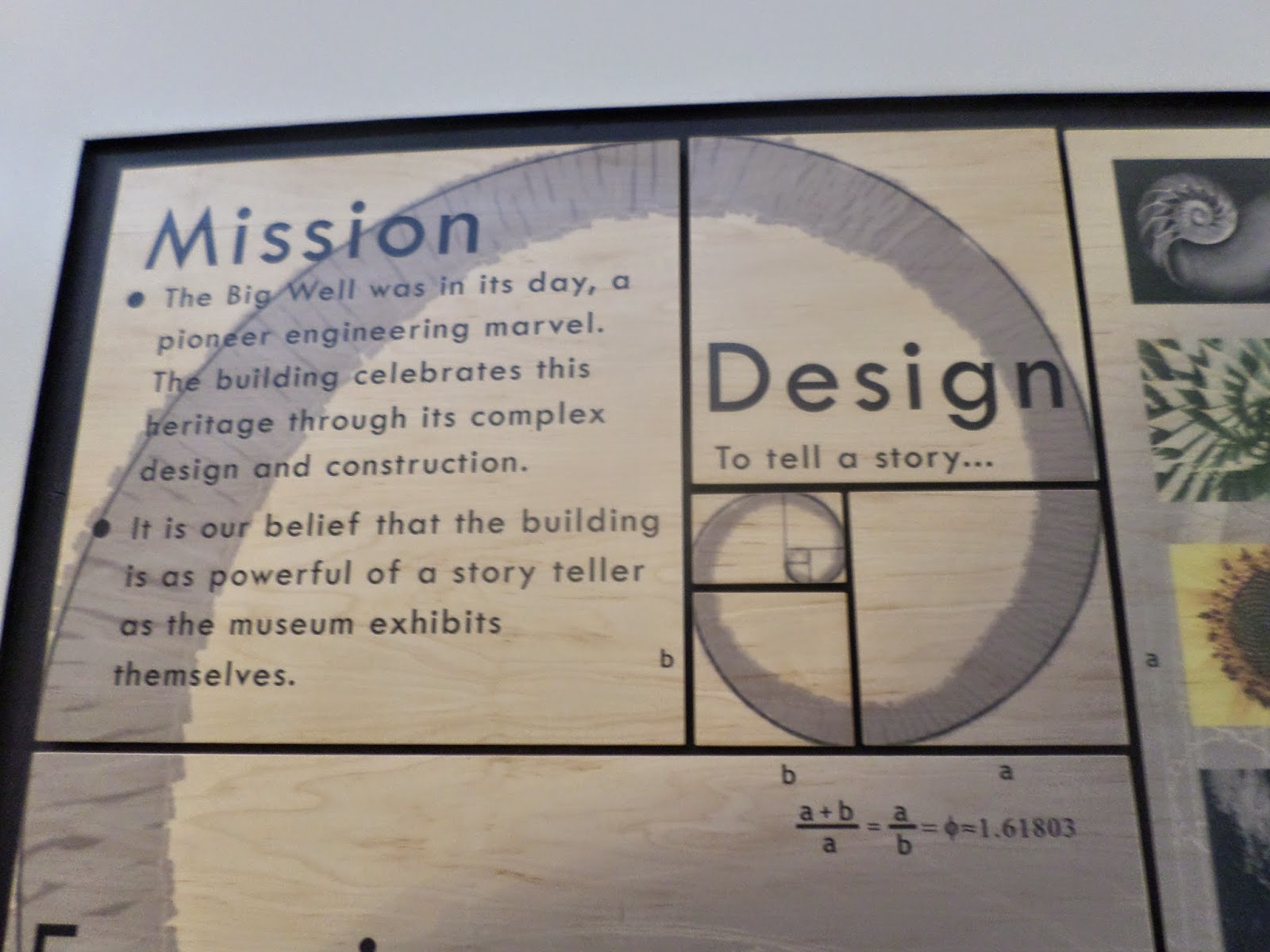 |
| Math! |
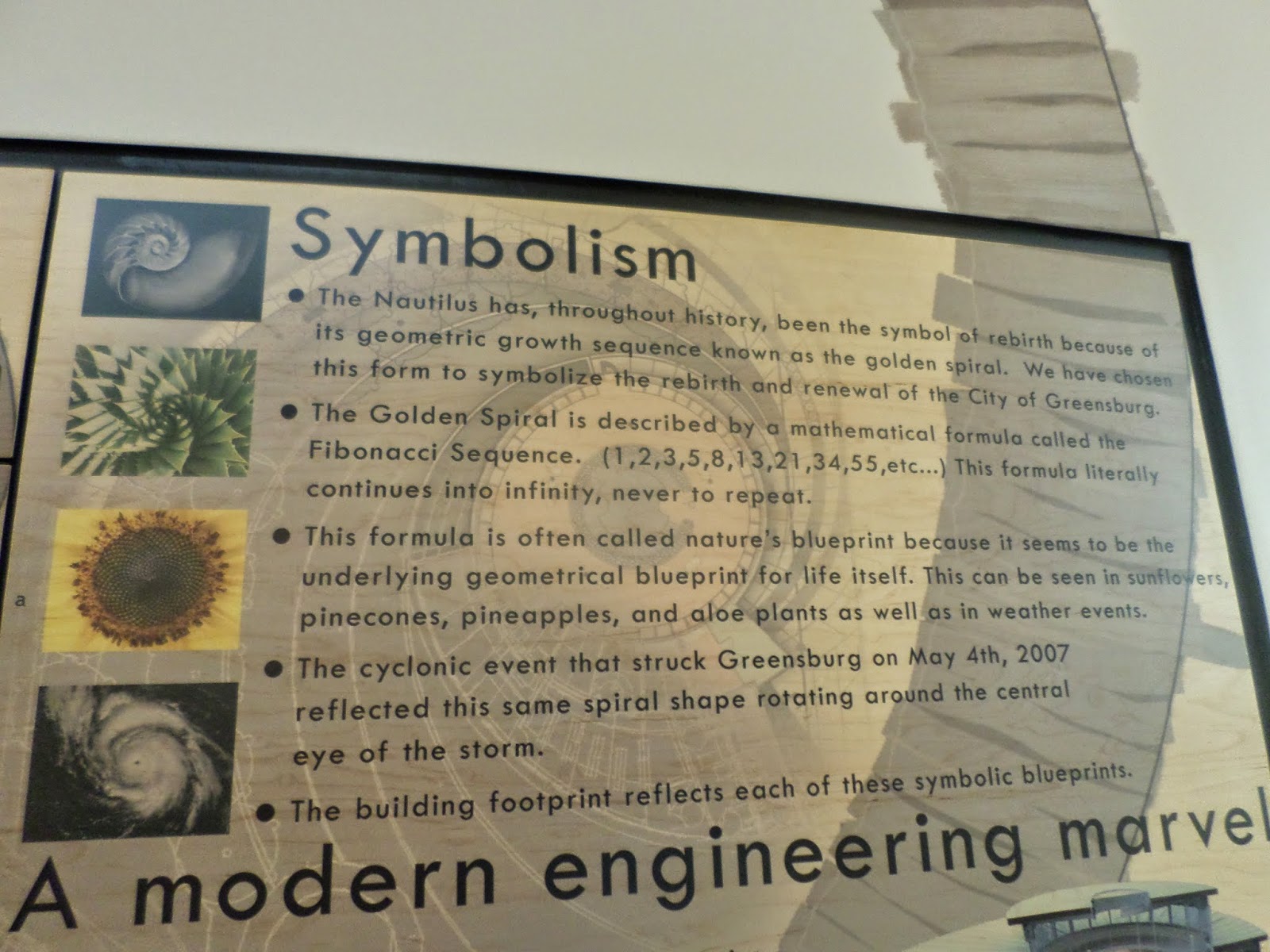 |
| More Math! |
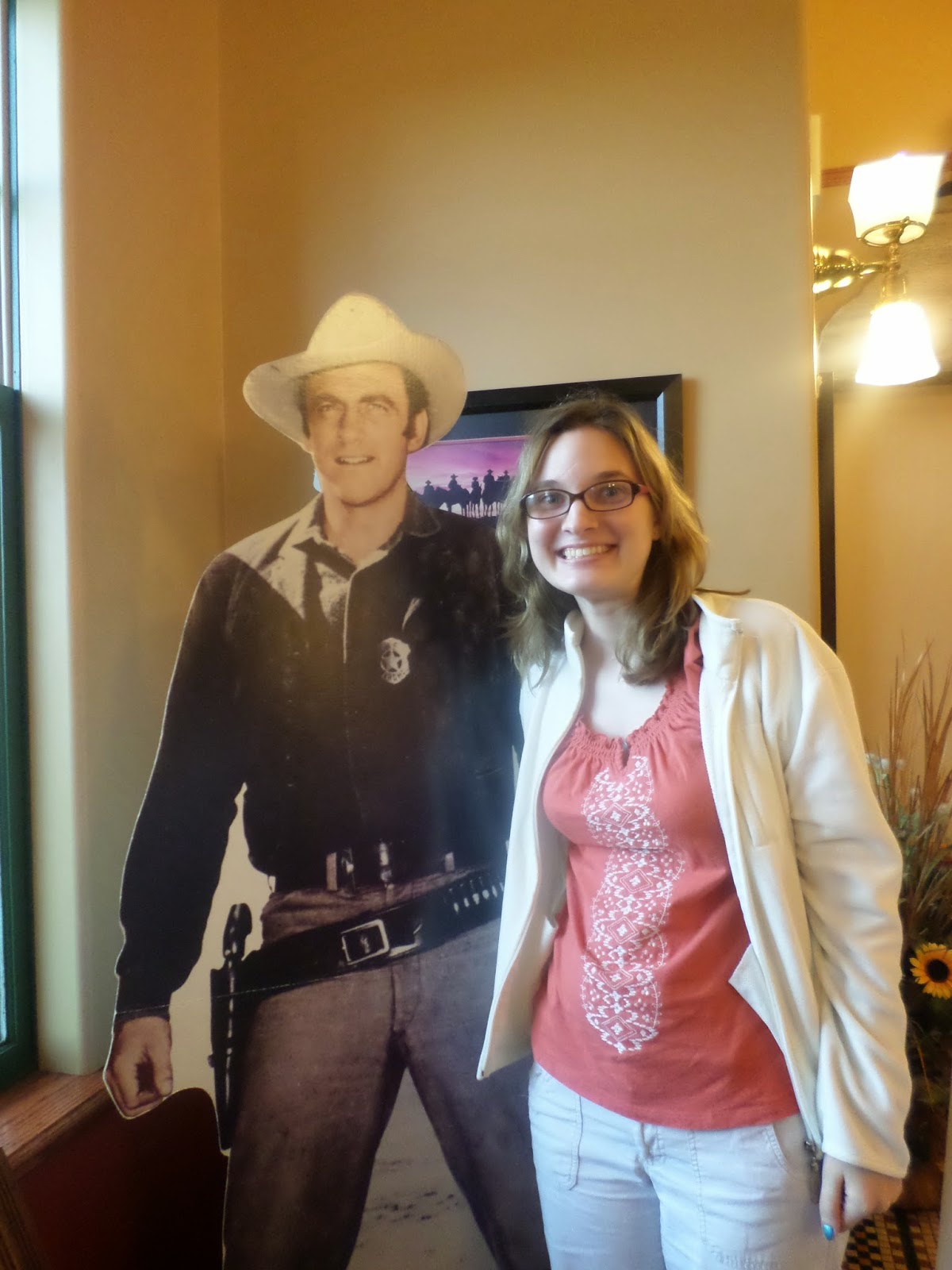 |
| I’m not entirely sure who this cardboard cutout was, but I posed with him anyway in Dodge City, KS! |
 |
| Rebecca – Dodge City, KS |
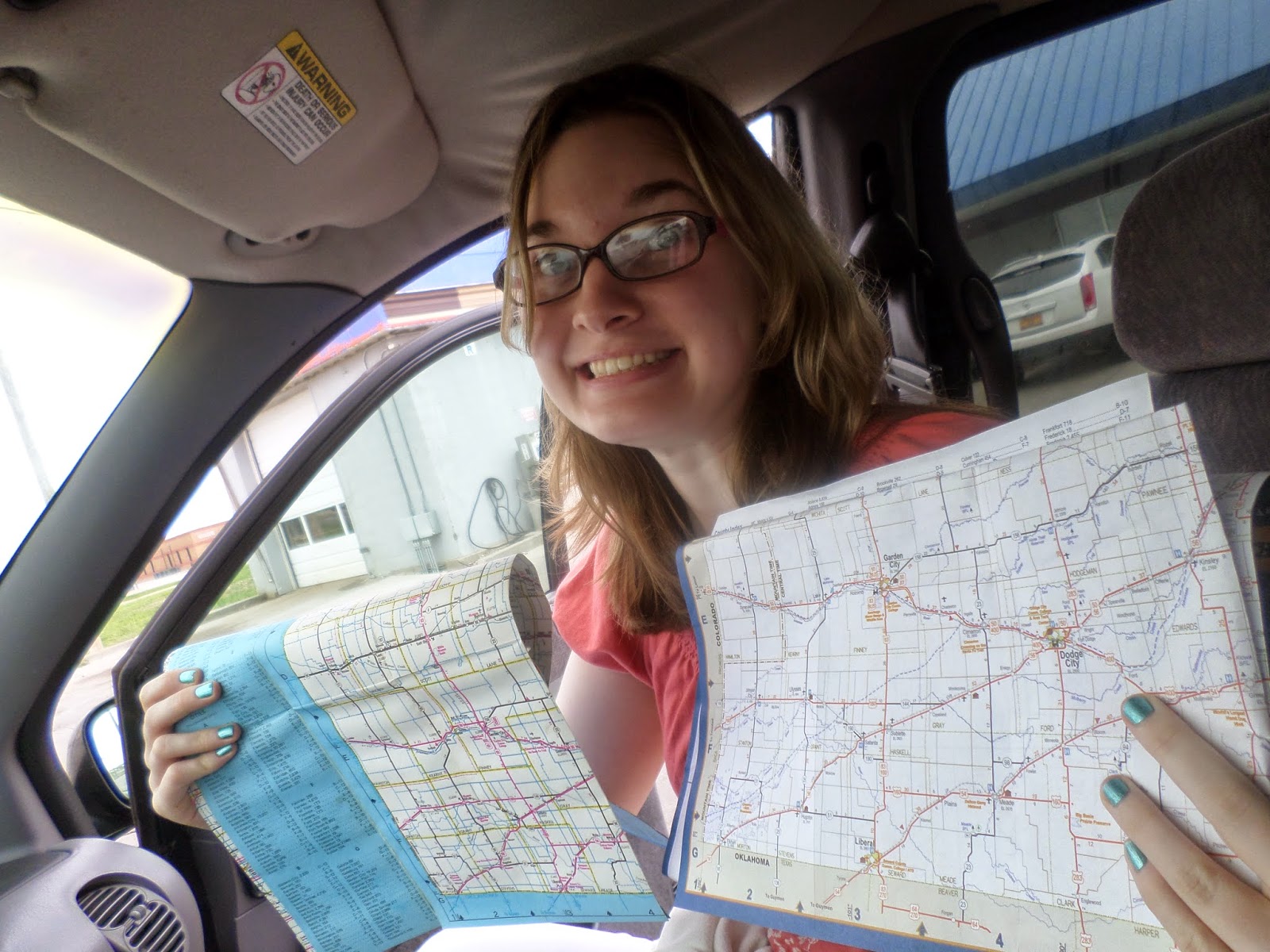 |
| We navigated the entire trip the old fashioned way. No GPS or smart phone. Paper maps all the way! |
We drove up the far eastern side of Colorado, and it goes on like this for miles and miles and miles. We were the only car on the road for the most of this drive. Though, we did get stuck behind a few combines. SO much farmland! But, it was worth it because I got to ride the carousel in Burlington!
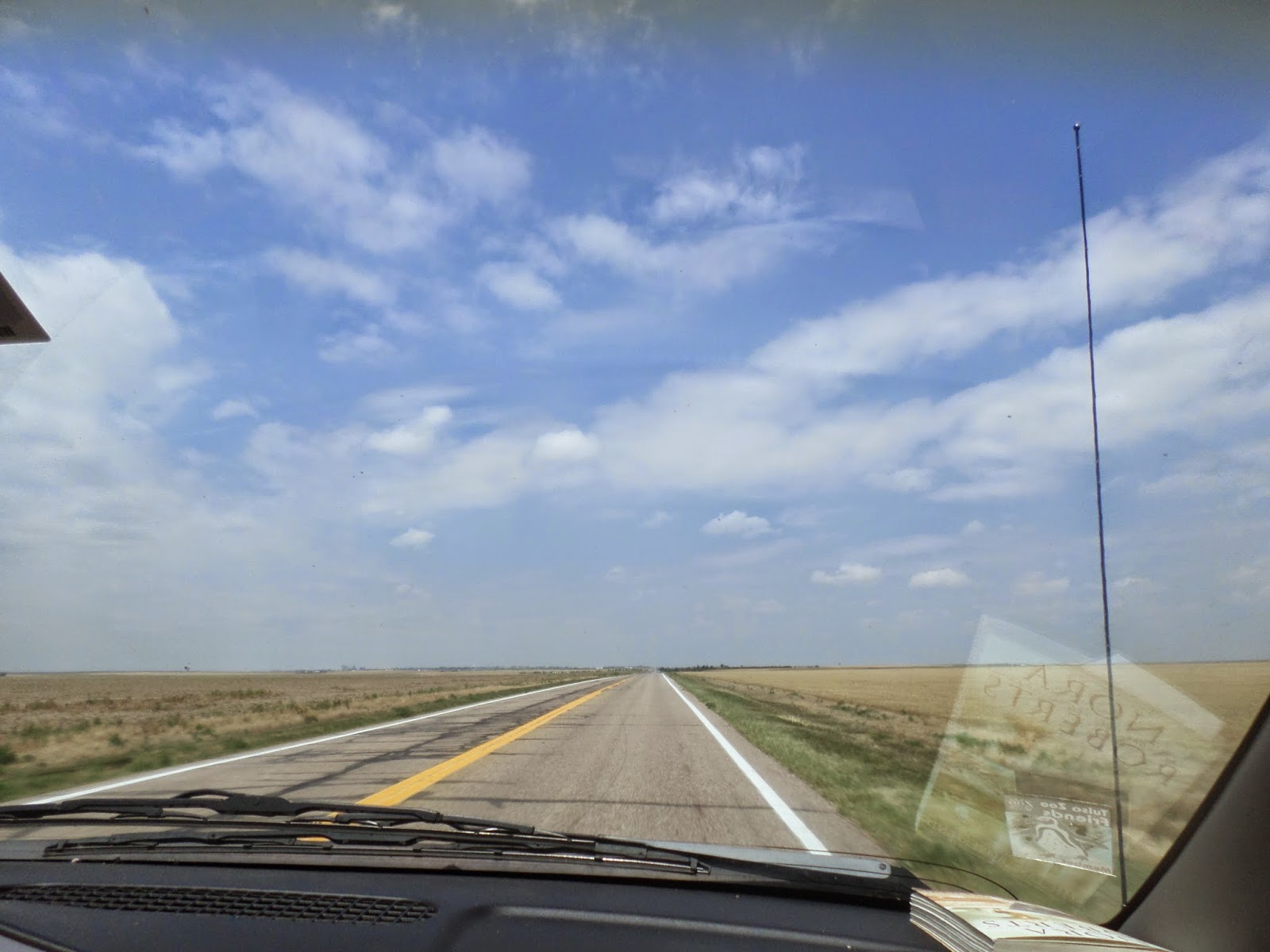 |
| Far Eastern CO |
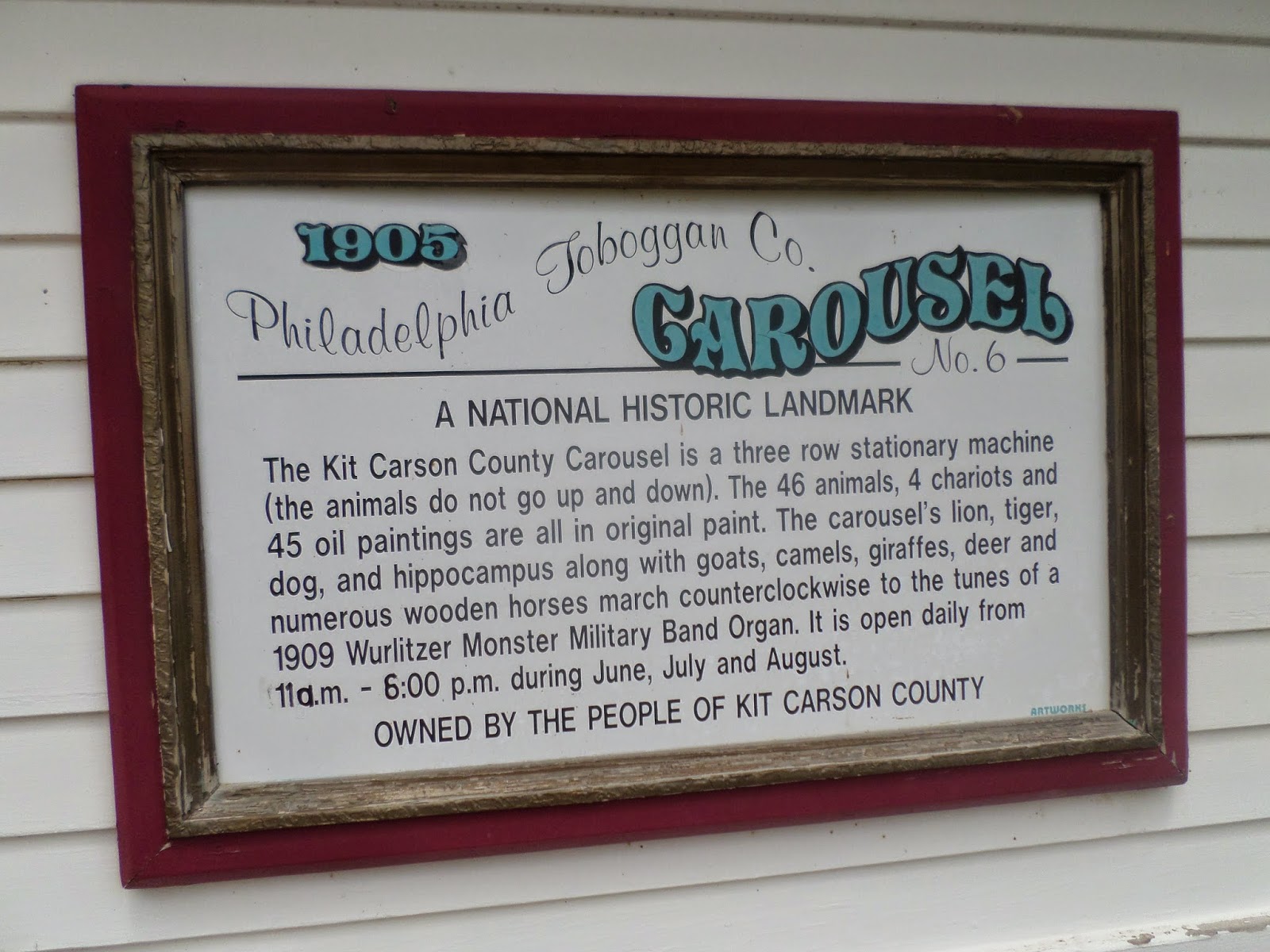 |
| Carousel – Burlington, CO |
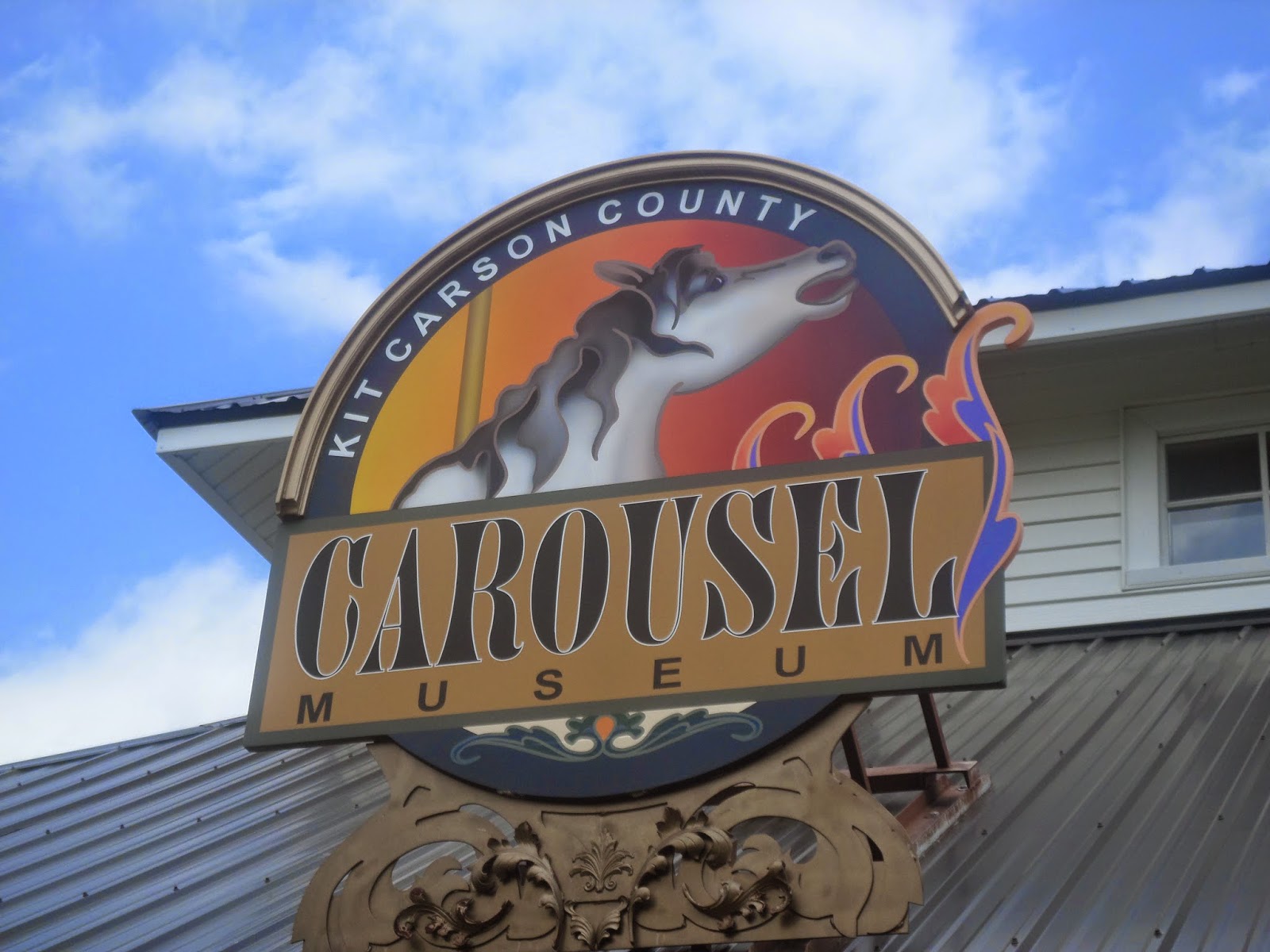 |
| Carousel – Burlington, CO |
The carousel was beautifully restored! It’s an older carousel, so it doesn’t go up and down. But, it more than makes up for that with speed. It goes 12 mph! We were holding on for our dear lives! Plus – you can’t beat the price of 25 cents per ride! I rode a zebra!
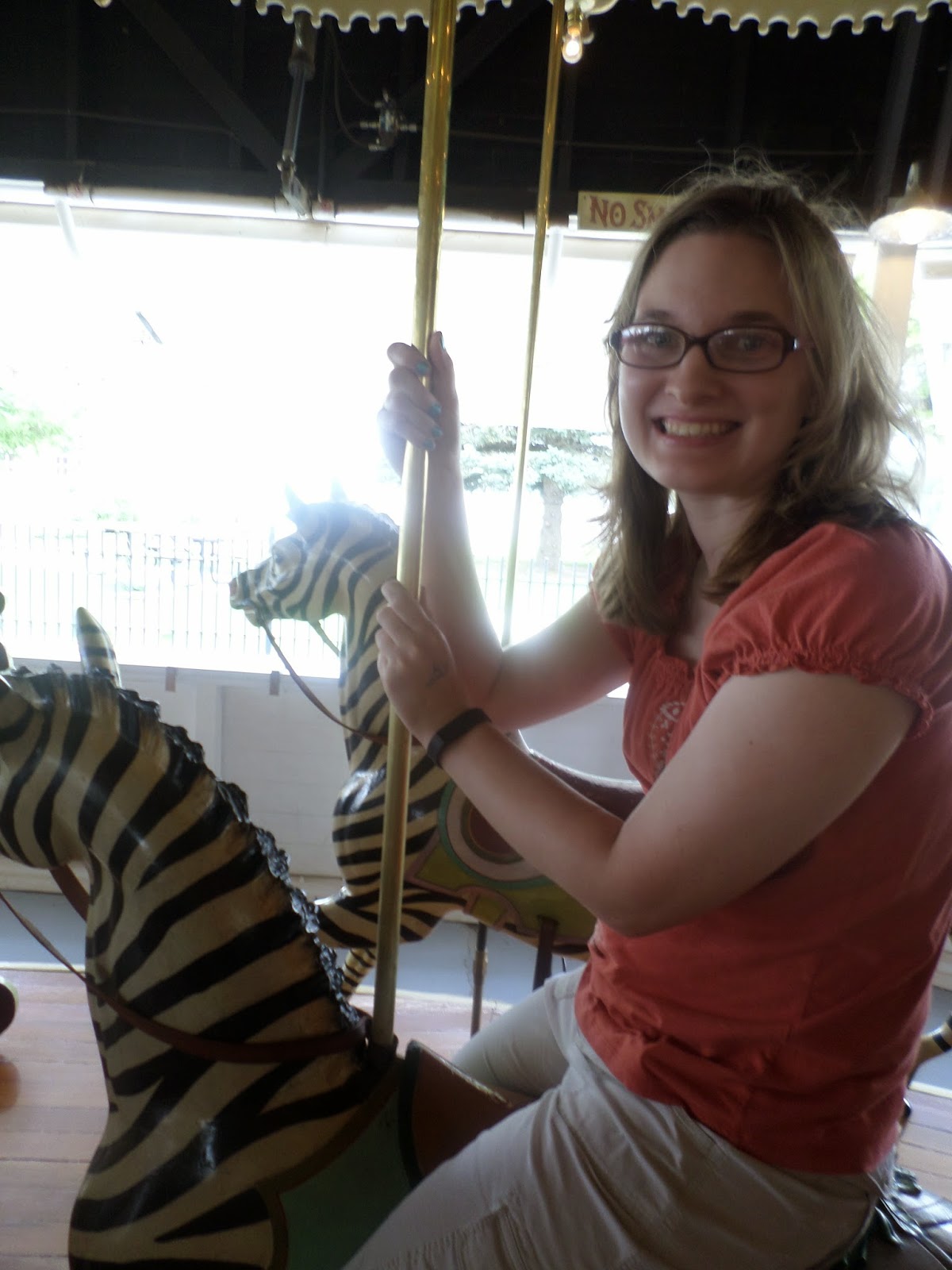 |
| Carousel – Burlington, CO |
My sister and me after our carousel ride!
 |
| Carousel – Burlington, CO |
The carousel is housed in a dodecagon shaped building. How cool!
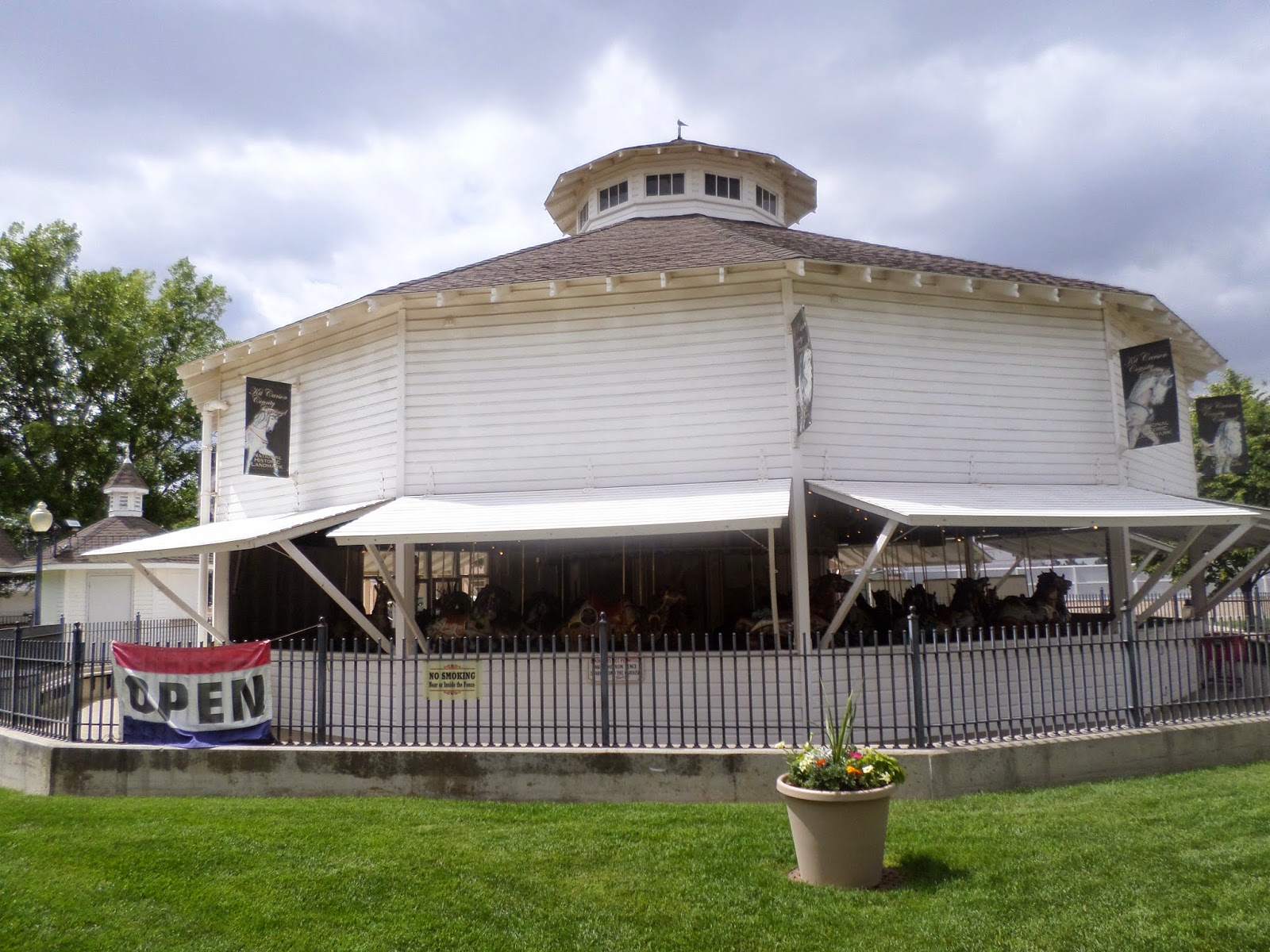 |
| Carousel – Burlington, CO |
 |
| Capitol Building – Denver |
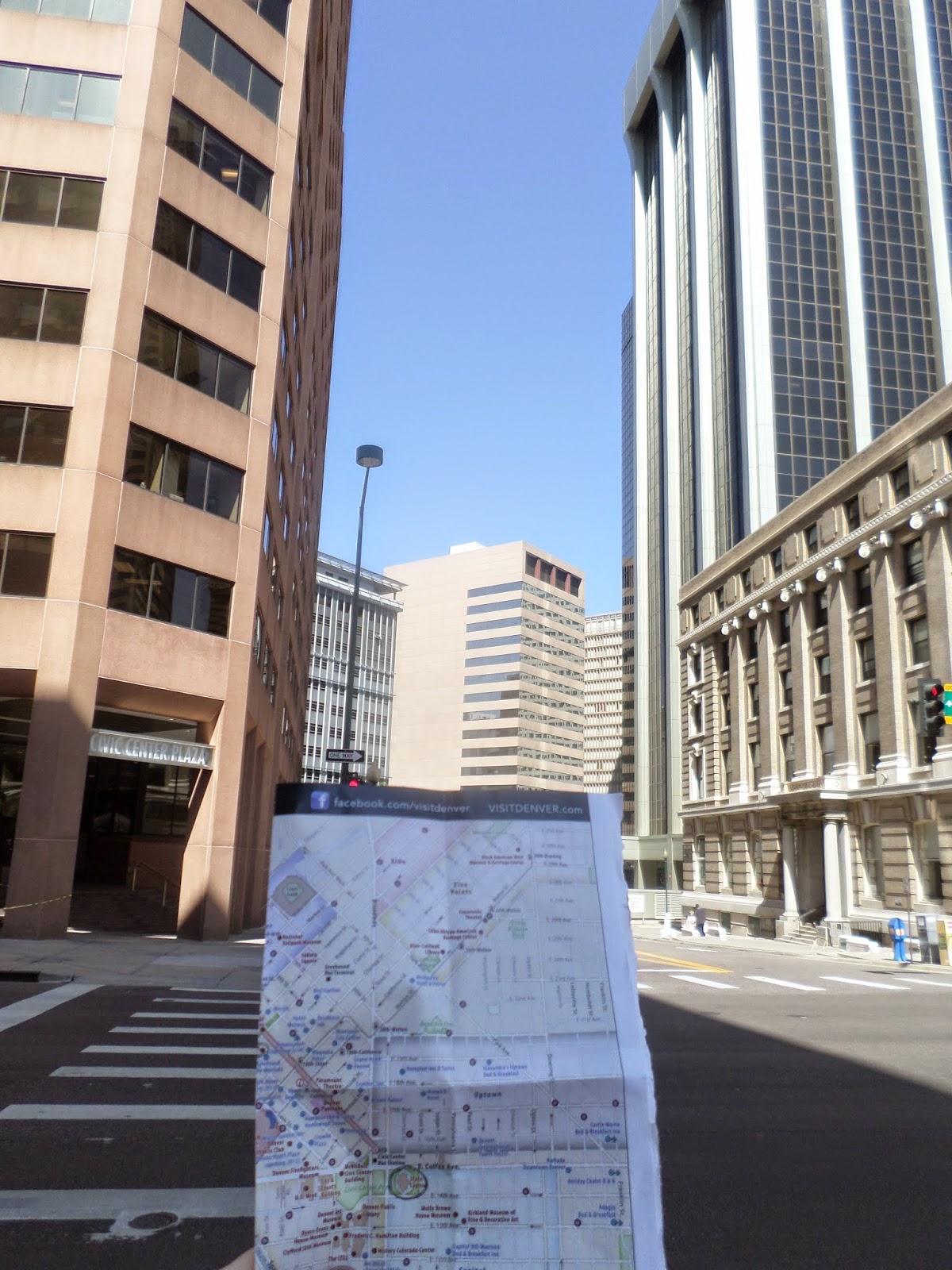 |
| Navigating Downtown Denver |
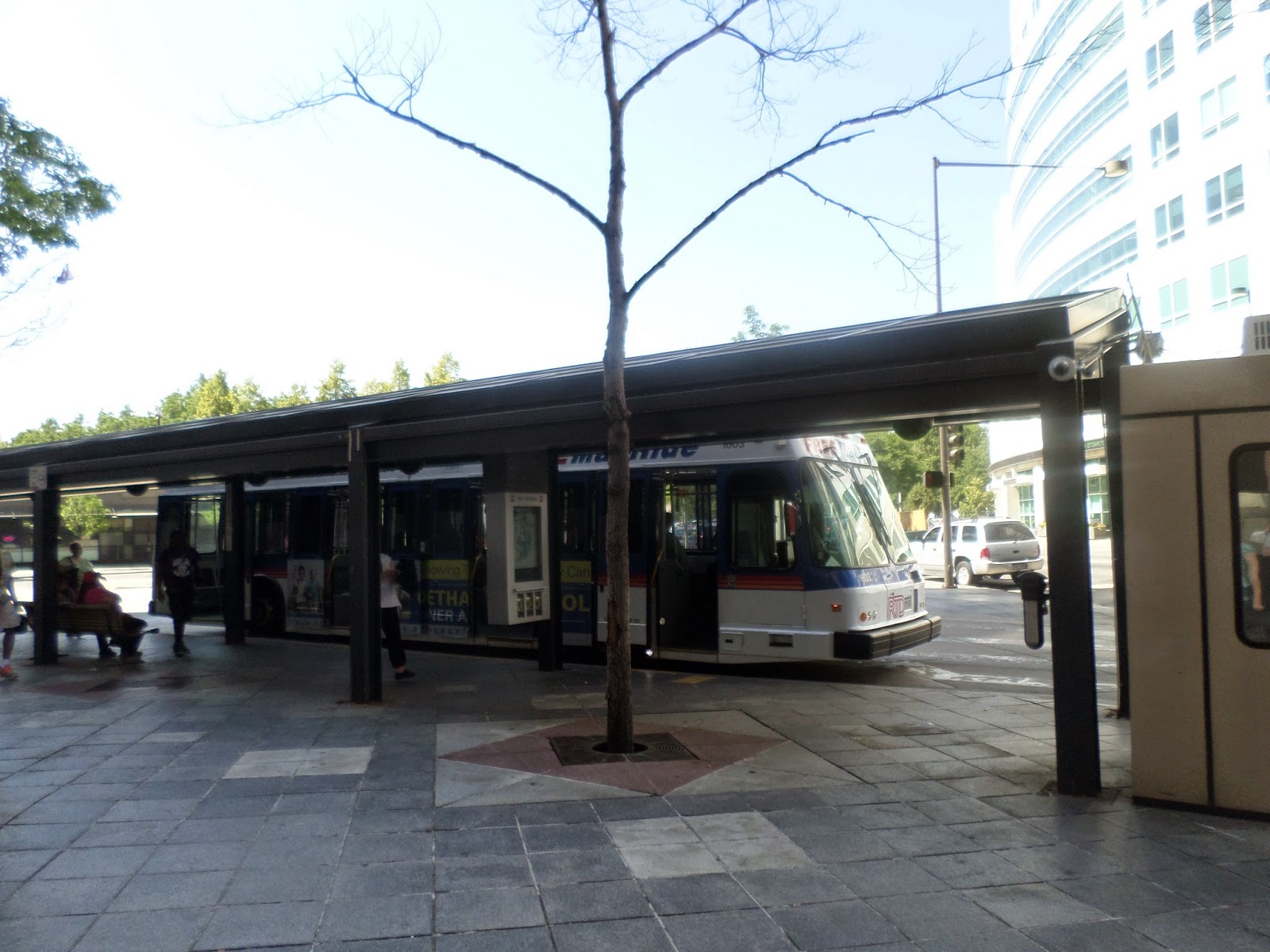 |
| 16th Street Mall Bus – Denver, CO |
 |
| Federal Reserve Money Museum – Denver, CO |
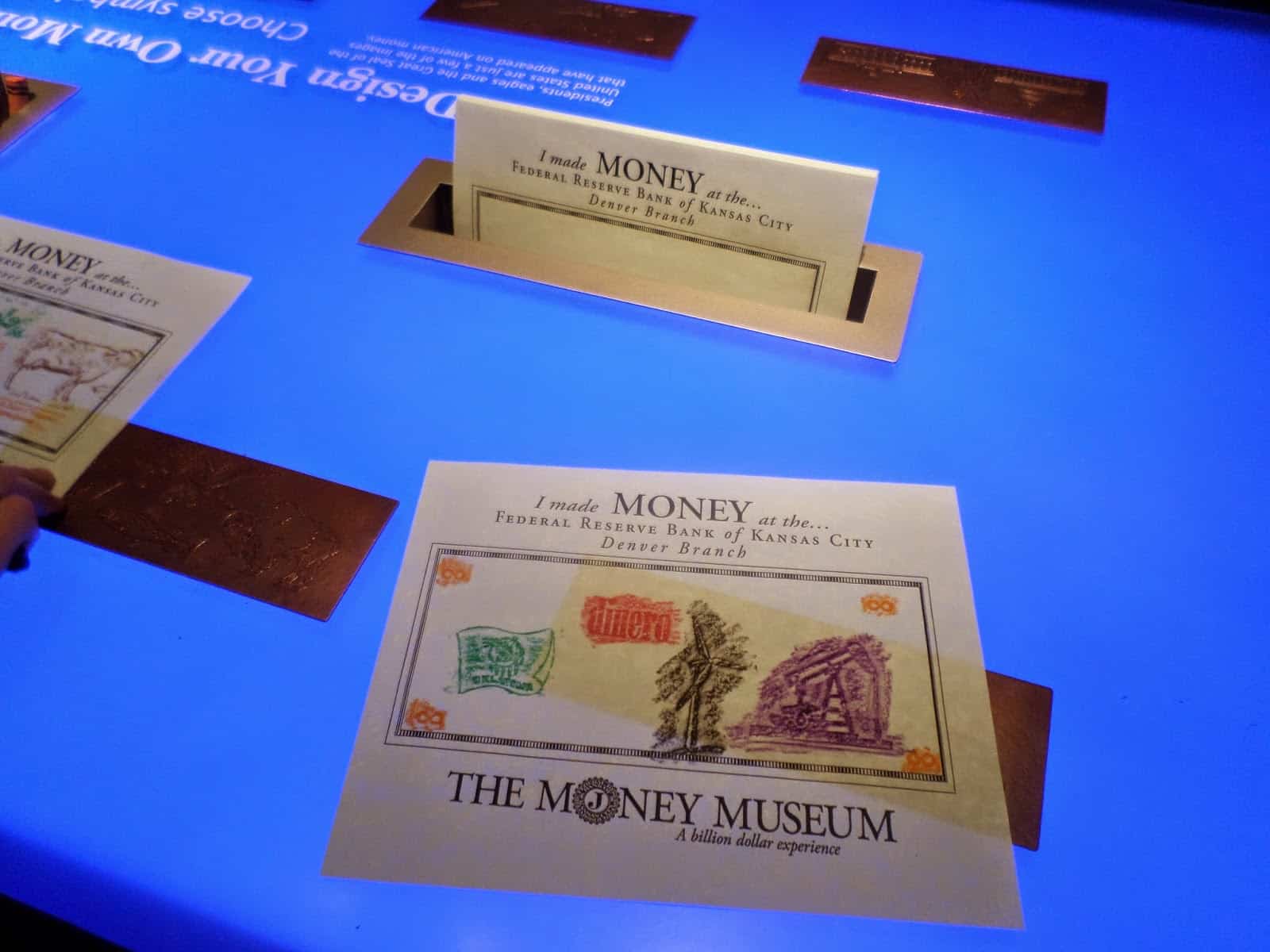 |
| One of the exhibits inside the money museum let you design your own money. Yes, those are infinity symbols. I would have totally made a Pi-Bill, but that sadly wasn’t a choice! I live in oil country, so I made sure to put an oil well on my money. And, we saw so many windmills on our trip. I’m from Oklahoma, so I made sure to put the OK flag on there. And, I studied Spanish in college. So, “dinero” was fitting. 🙂 |
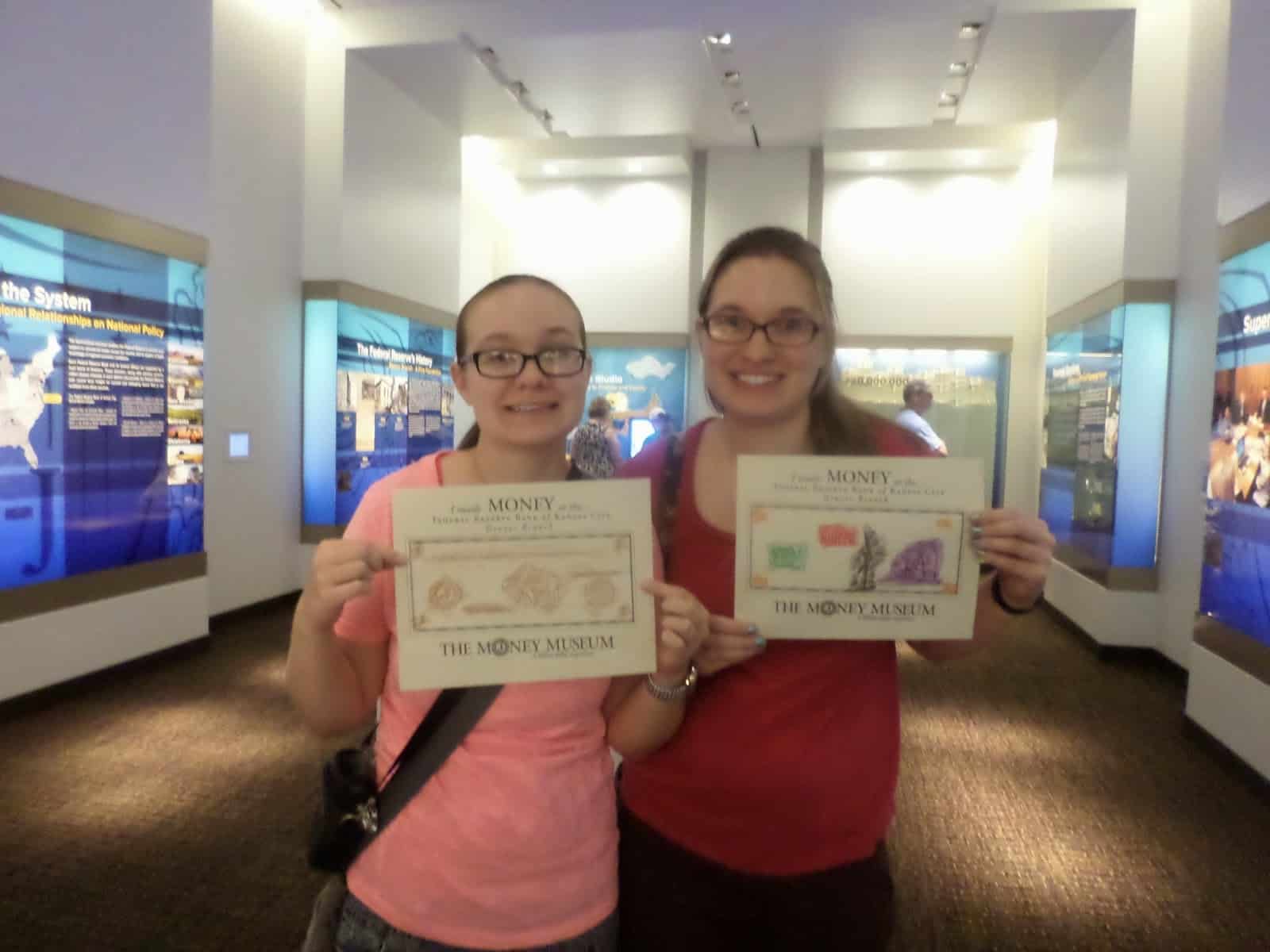 |
| Our Customized Money |
Plus, every visitor gets to leave with a bag of free shredded money!
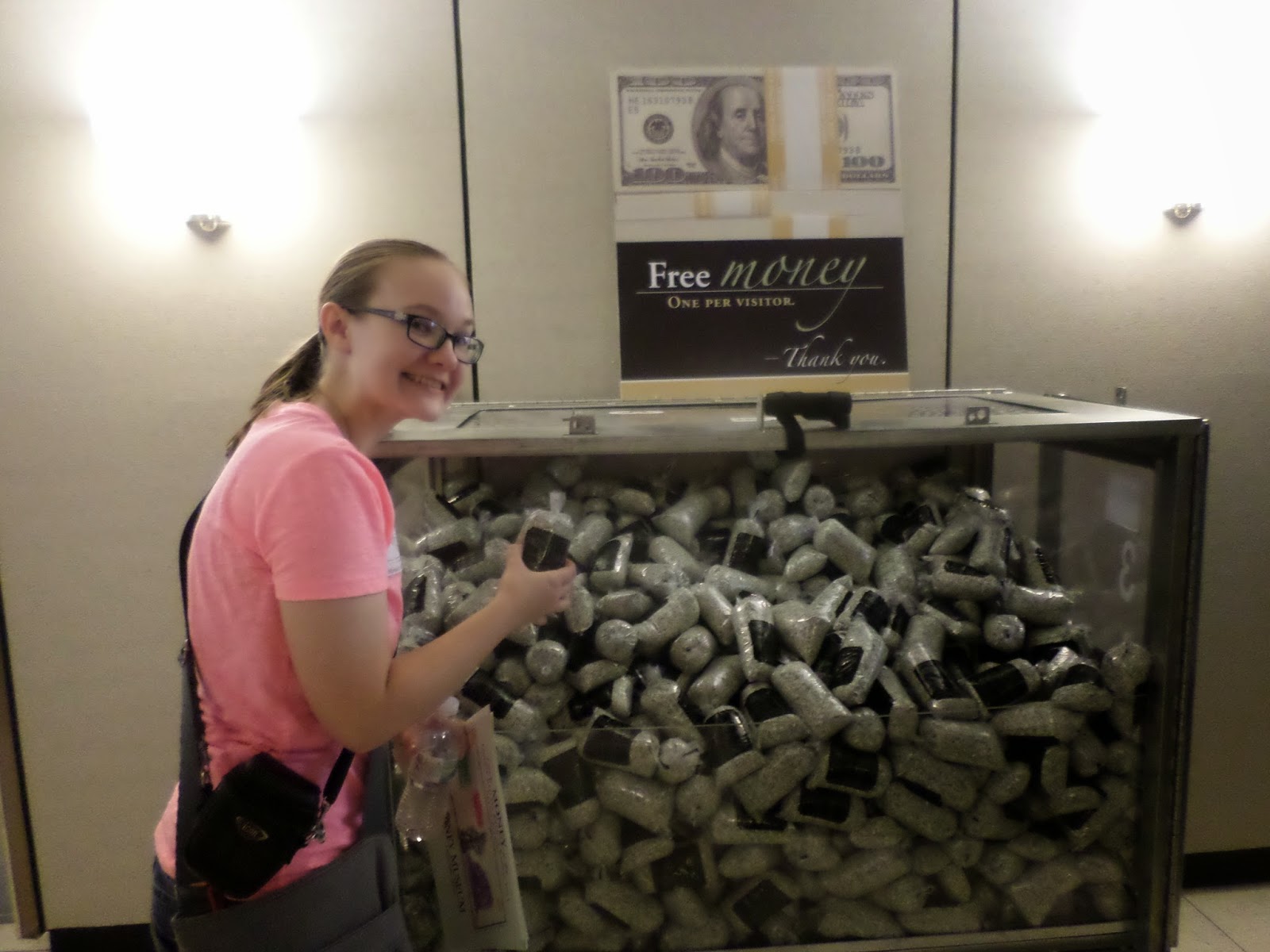
 |
| Golden, CO |
 |
| Garden of the Gods – Colorado Springs, CO |
 |
| Garden of the Gods – Colorado Springs, CO |
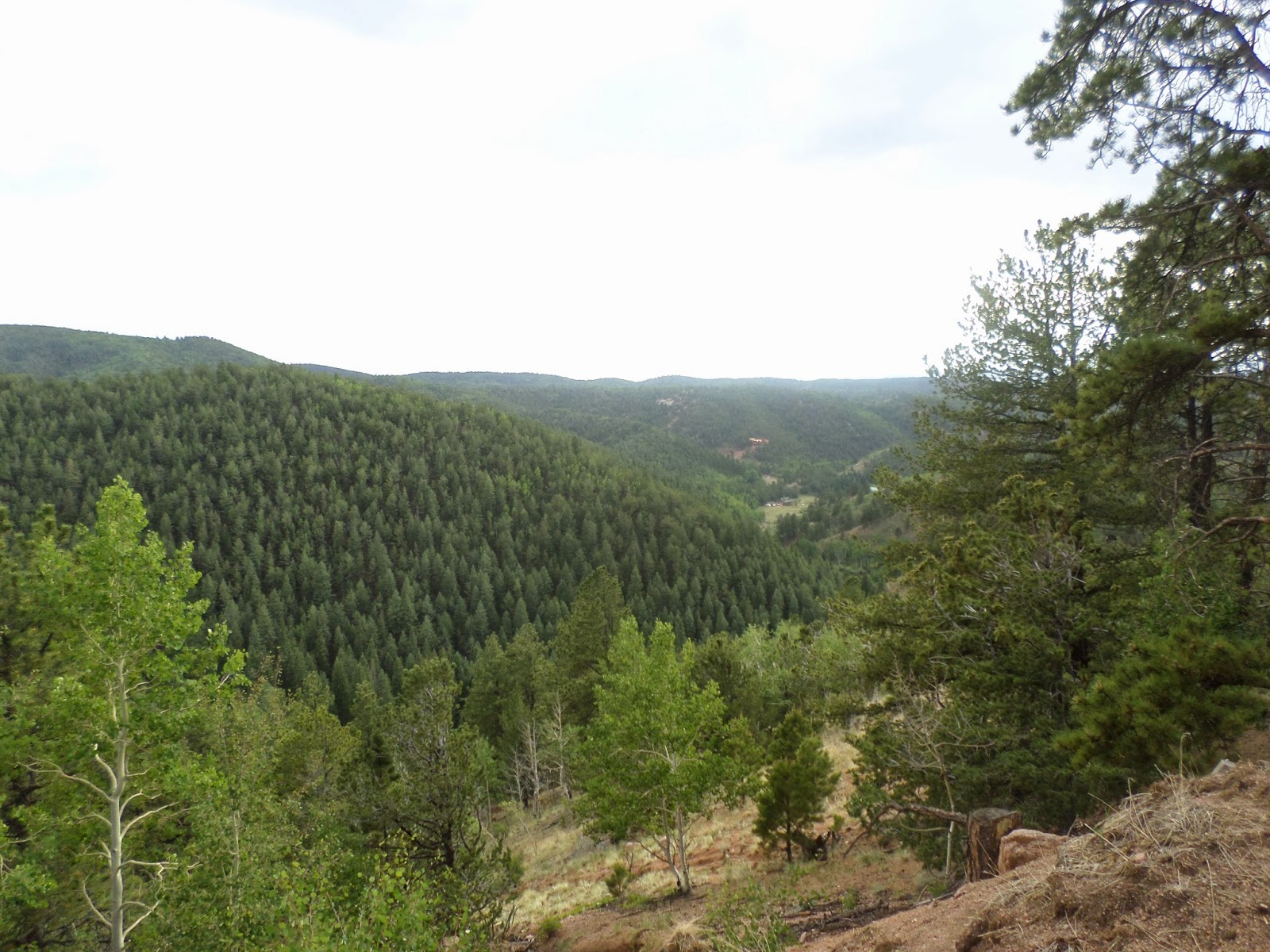 |
| Colorado |
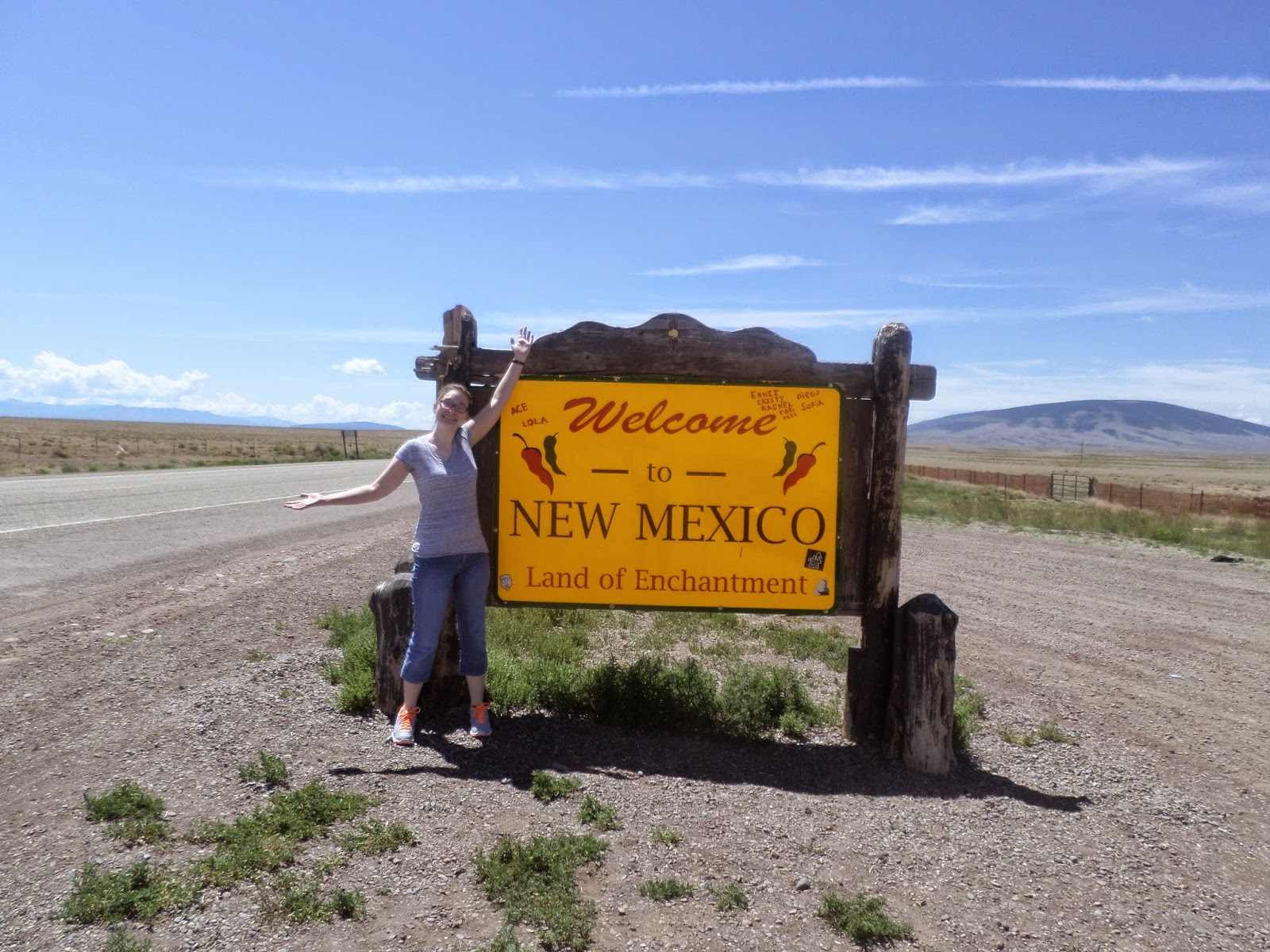 |
| Welcome to New Mexico |
I had no clue that there was such a thing as snow fences. They are everywhere in Colorado and New Mexico. Now I know!
 |
| Snow Fence |
The only round capitol building in the US:
 |
| Capitol Building – Santa Fe, NM |
 |
| Adobe buildings in Santa Fe |
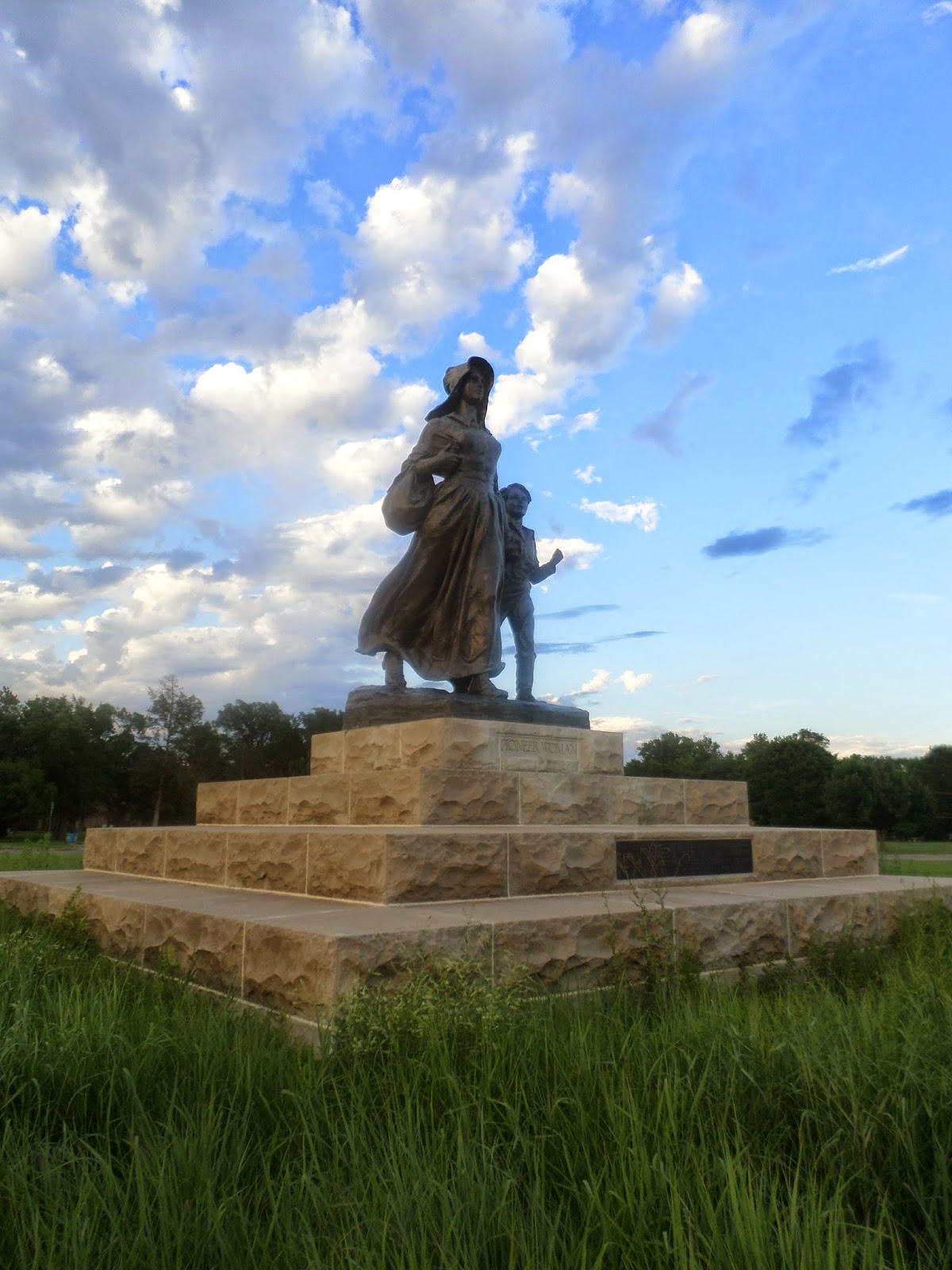 |
| Pioneer Woman Statue in Ponca City, OK |
August 11, 2014 – Math Spotting
Every year, one of the English teachers at my school does a unit with her students on the Holocaust. Last year, she put students in groups to make exhibits for a Holocaust Museum in the hall. Each group researched a different aspect of the Holocaust and created a visual display of what they had learned.
Here’s the final product:
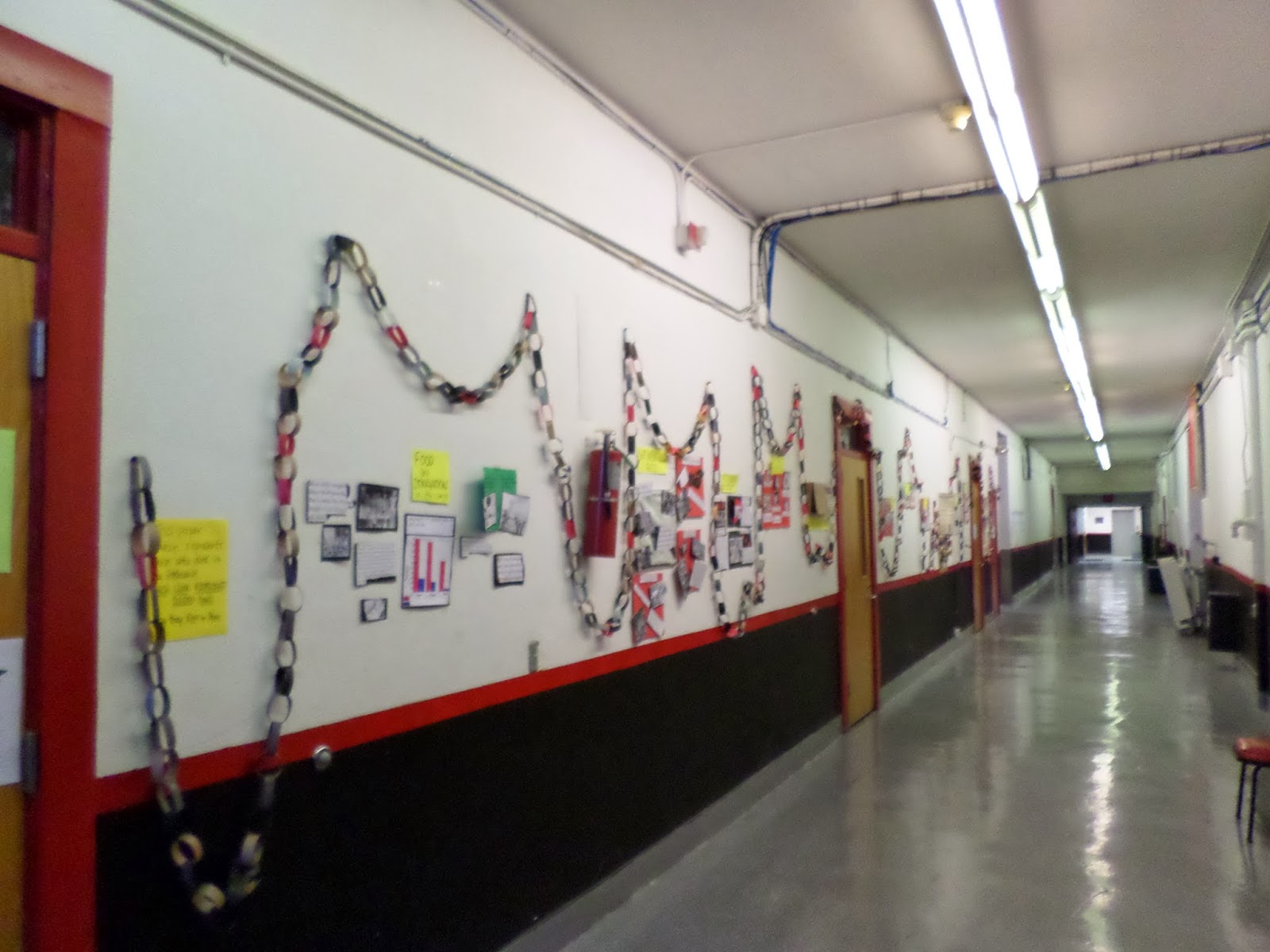
The kids were really moved by this project, and I was invited by several students to come and see what they had done. Looking at their creations, I was amazed by the sheer amount of time and dedication that must have gone into creating each section of the display. It was clear that this was more than just an assignment to them.
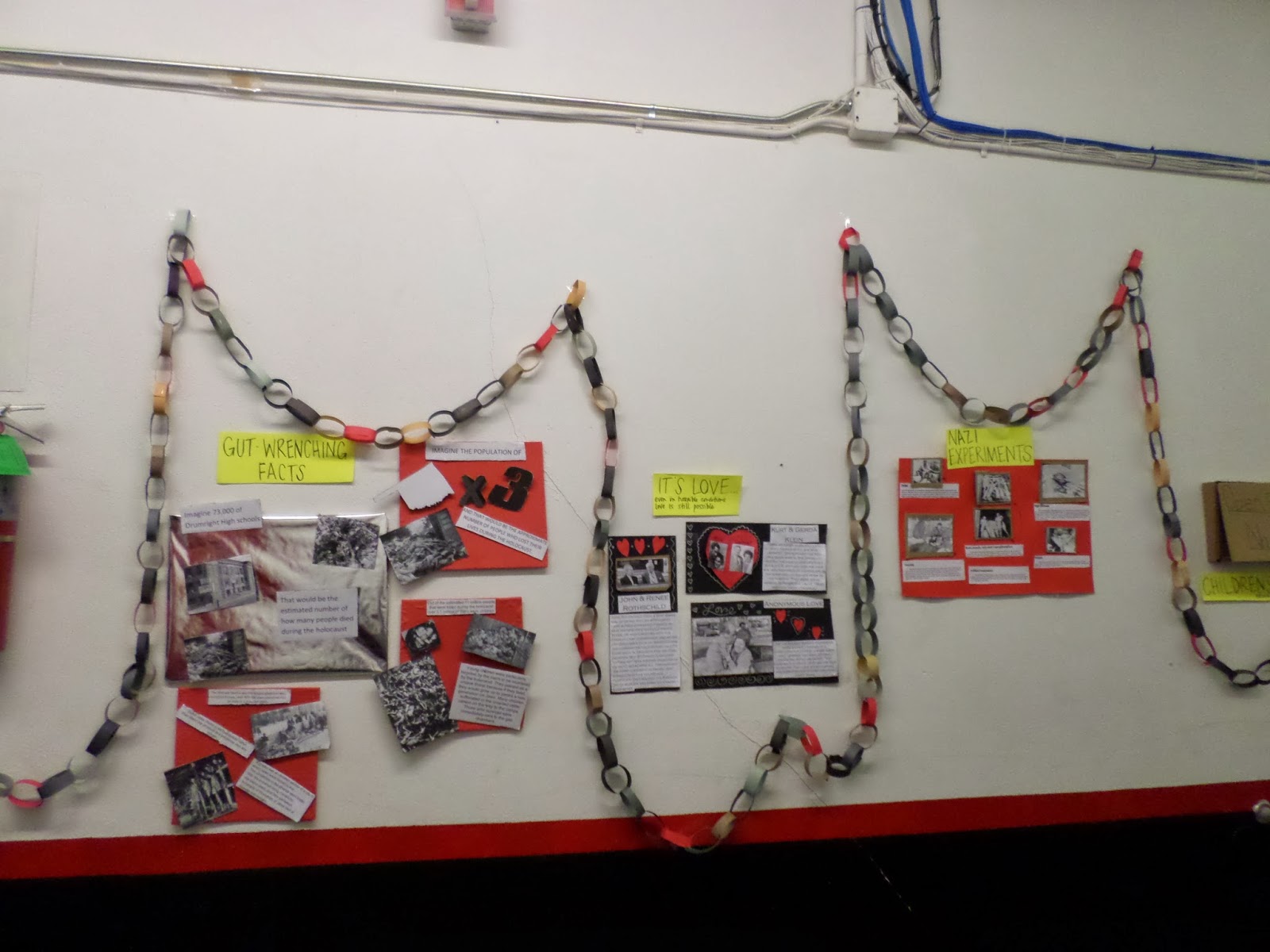
I also couldn’t help but notice all of the math that was present in the display.
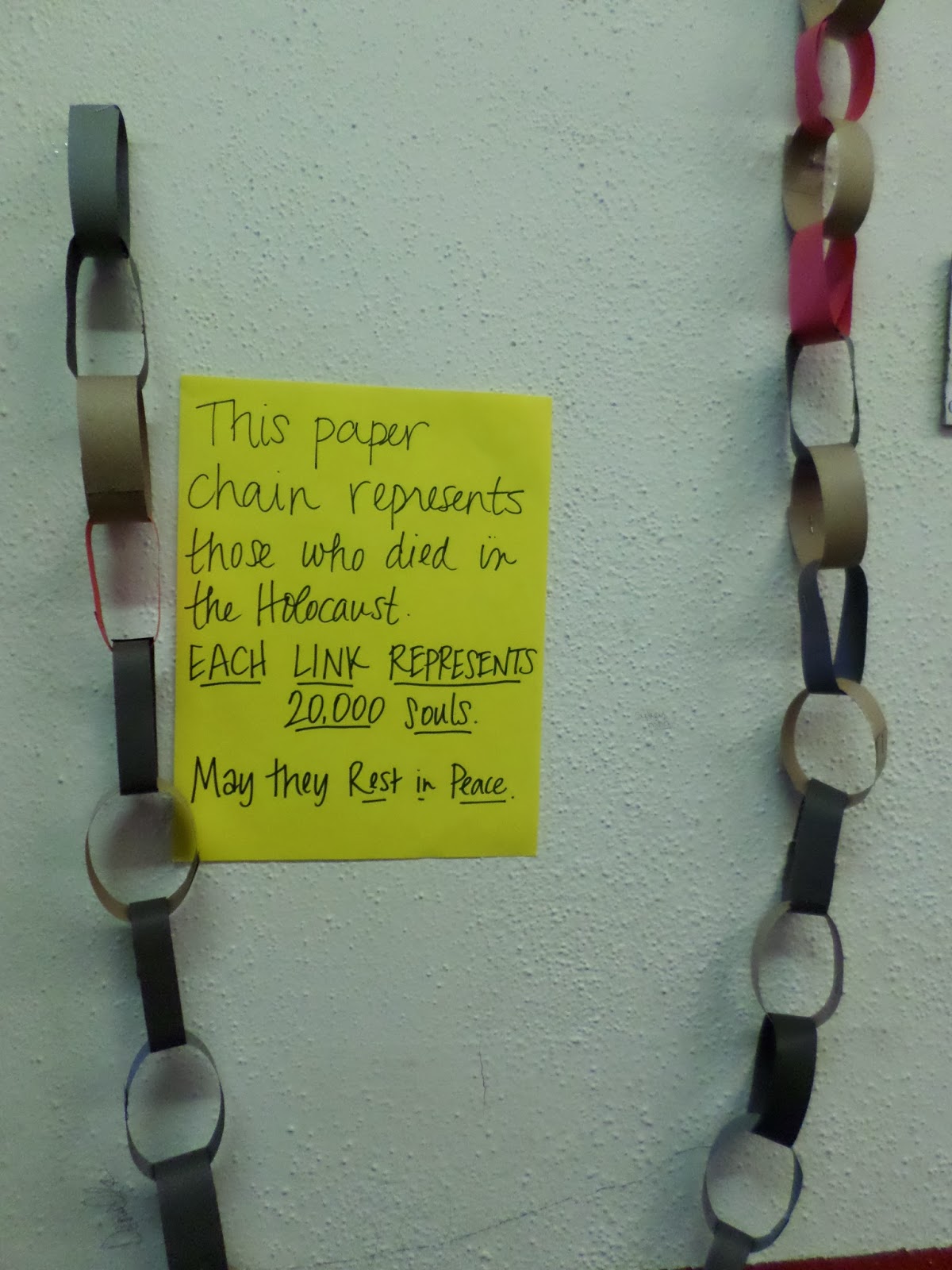
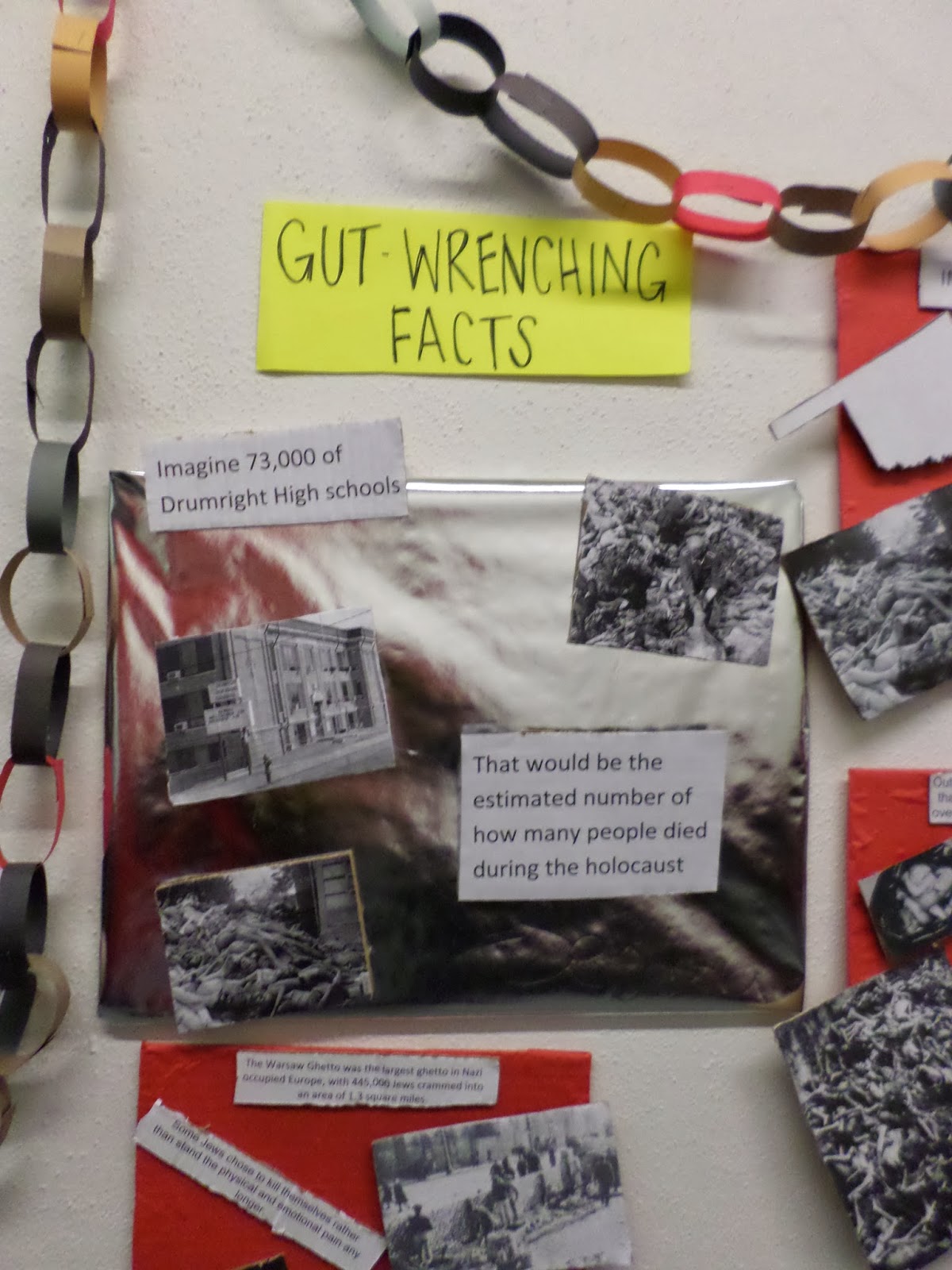
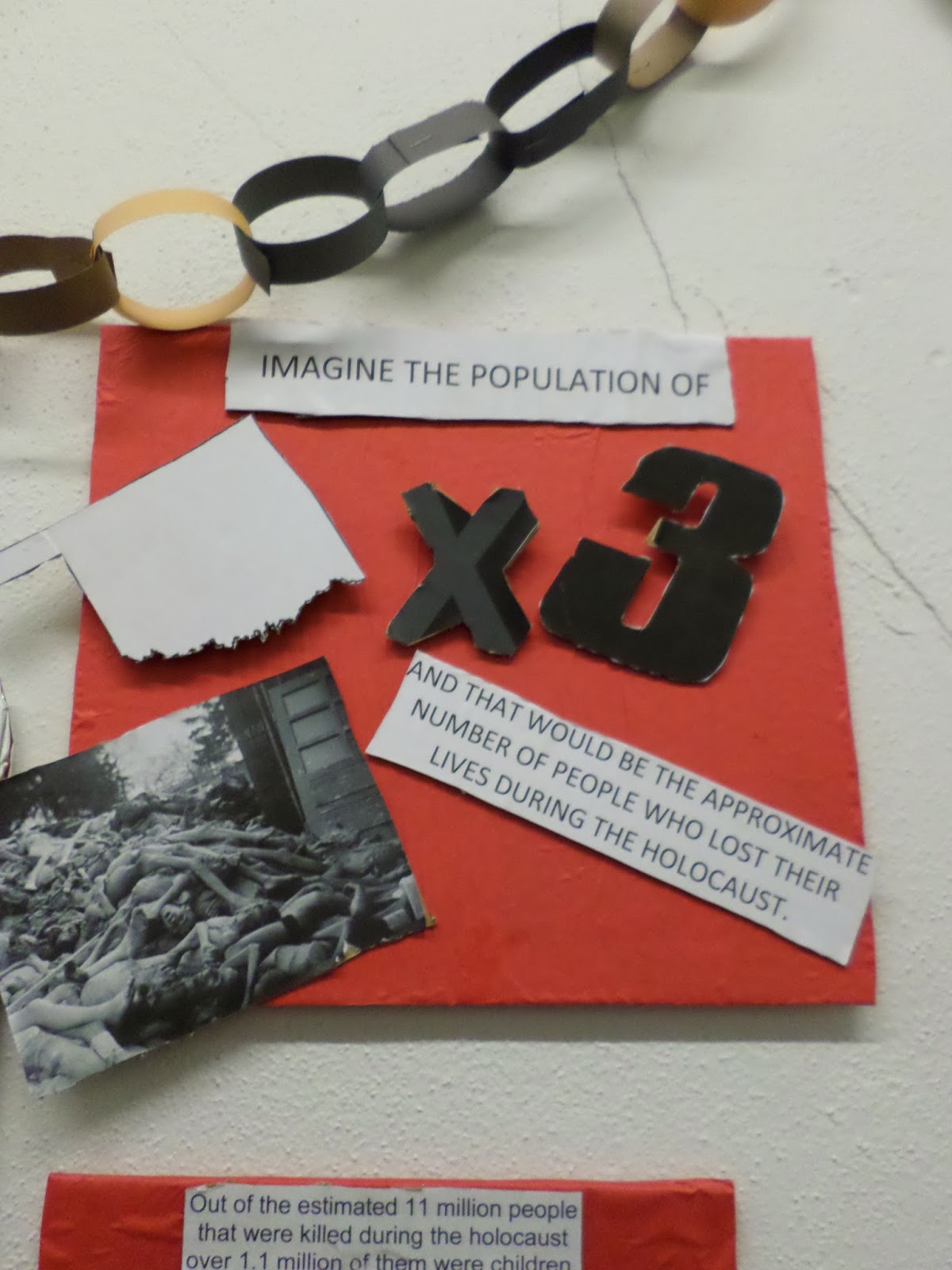
I’m wondering how I could take this hallway museum idea and turn it into an algebra project. Hmm…

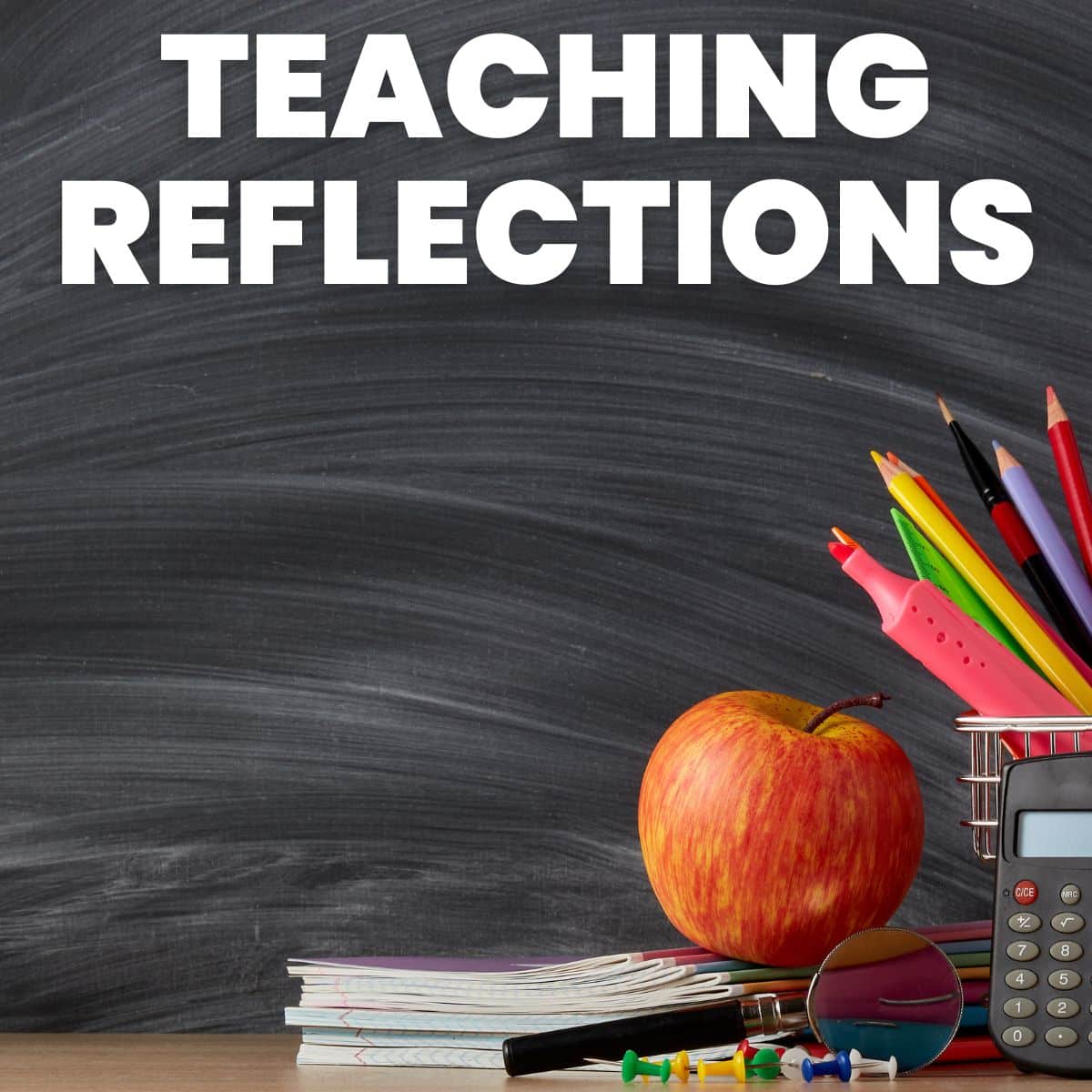
This post made my day. I'm back in the classroom this year after a 6 year absence and a lot of my methods are different than they were. I've been fighting discouragement because my students aren't as enthusiastic as I'd hoped. I just keep telling myself that things will change after their first test. I've been hoping that this hope wasn't in vain so I'm happy to see that someone else has the same hope. We'll just keep doing what we know is awesome and they'll come around. 🙂
It's always good to hear that you're not alone! Keep up the good work!
I love it!
This comment has been removed by a blog administrator.